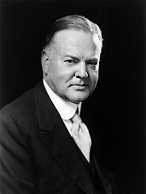
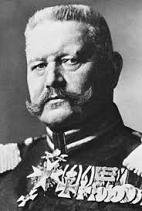




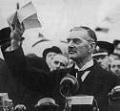
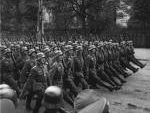
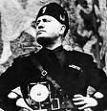






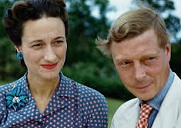
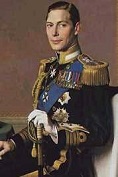







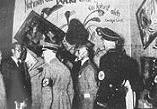
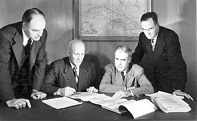












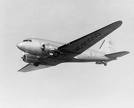




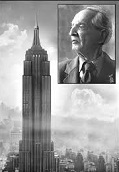


















































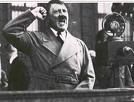











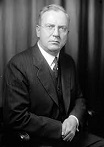


















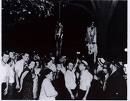
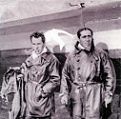


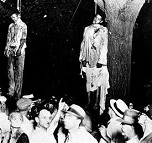

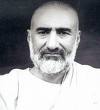










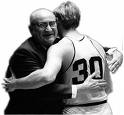



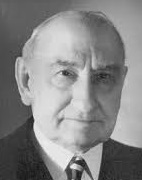











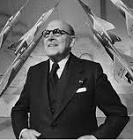



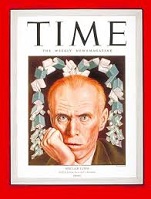












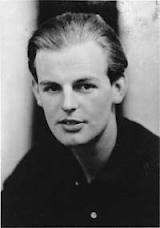
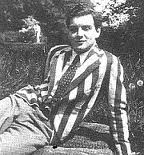
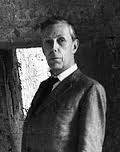


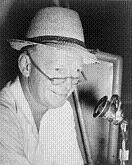
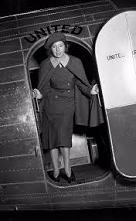





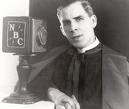















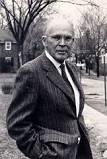










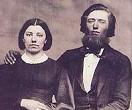

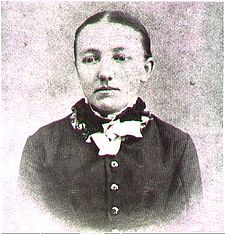



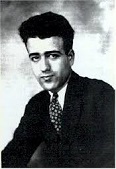

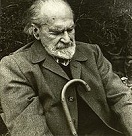


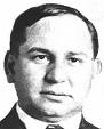

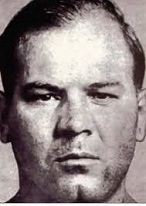


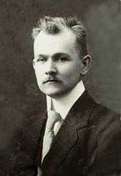
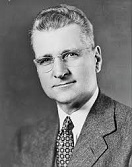

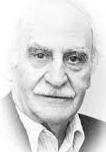

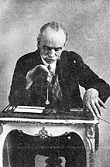









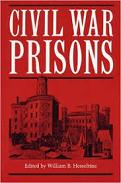
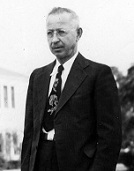
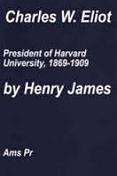
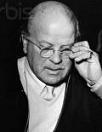









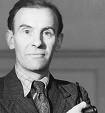




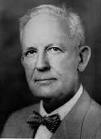

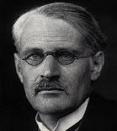

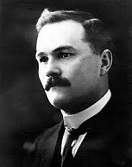











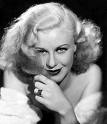
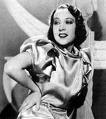


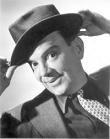


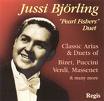

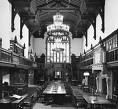







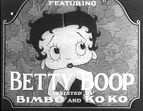





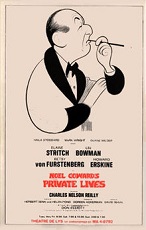
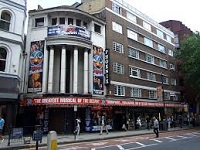
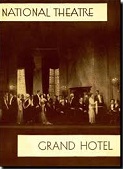
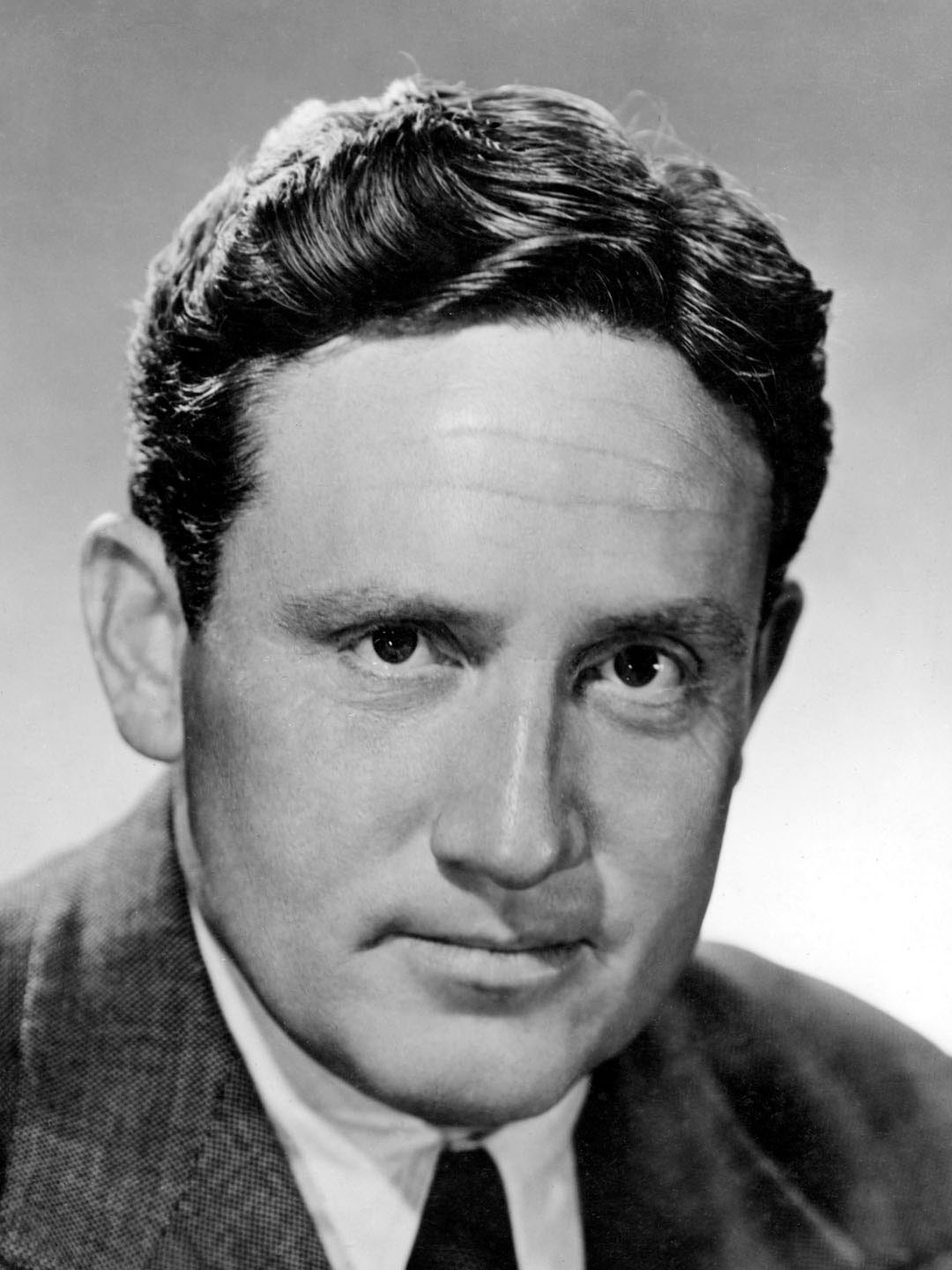


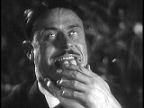

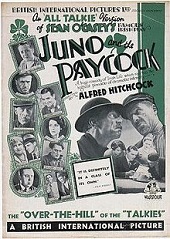






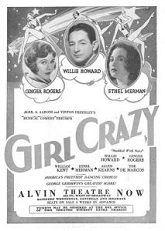





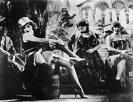
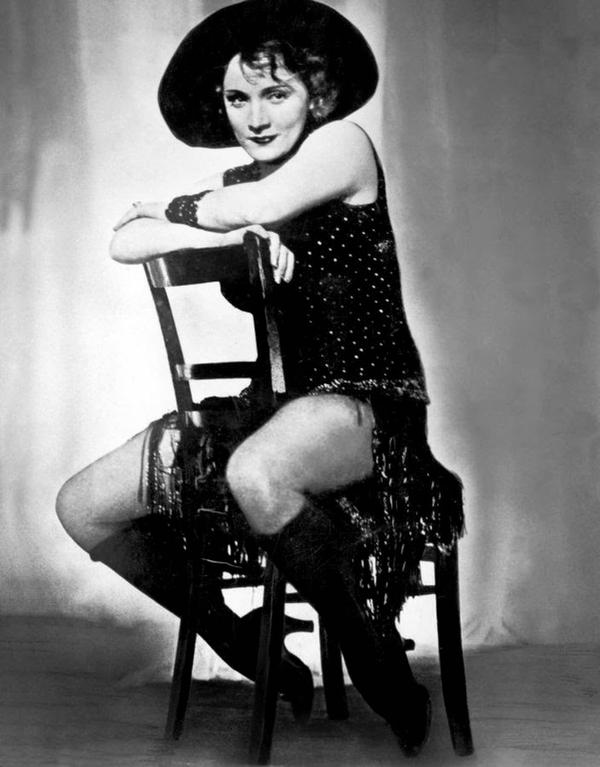
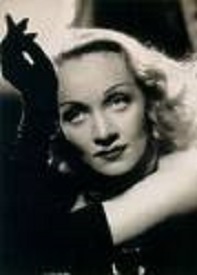
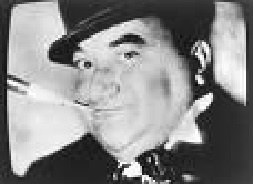

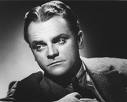


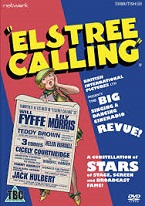
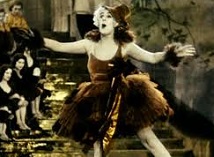
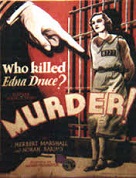
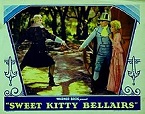

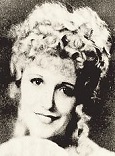
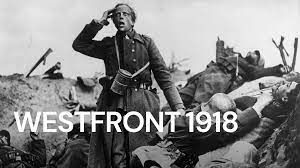
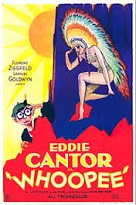


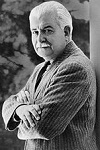

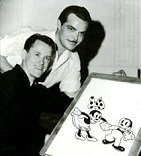




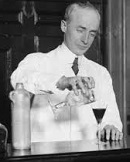
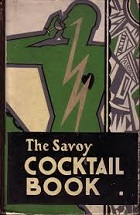
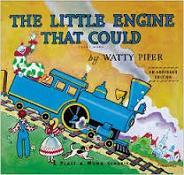









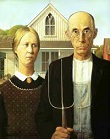
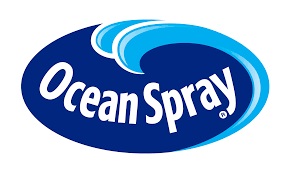




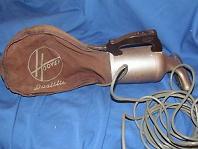
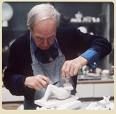

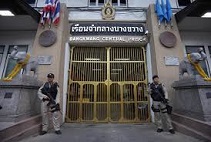
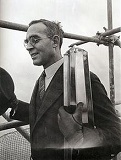
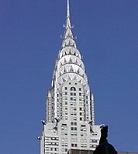

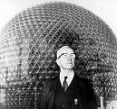
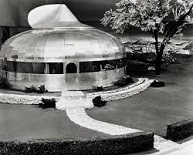
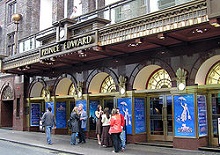

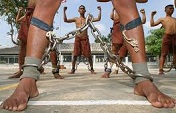
1930 Chinese Year: Horse. Time Mag. Man of the Year: Mohandas K. Gandhi (1869-1948). World pop.: 2B (a gain of 1B in 130 years); China 410M, India 338M, U.S.S.R. 168M, Germany 64M, Britain 46M; the Japanese pop. increase peaks at 15.3 per thousand (1M per year), declining to 14.4 in 1935, causing Japan's pop. to reach 69.2M in 1935, double that of 1872 (34.8) - time for a little warry war war war? The Fifteenth (15th) (1930) U.S. Census reports the total pop. as 122,775,046 (16.1% increase) in a land area of 2,977,128 sq. mi. (41.2 per sq. mi); whites reach 89.8% of the total pop., the highest ever; pop. of Washington, D.C.: 485K; 87% of U.S. farms don't have electricity. This year over 1.3K U.S. banks fail, and unemployment tops 4M; 34M (28% of the pop.) are without any income. By this year there are 2,836 federal prohibition agents, drawing salaries from $2.3K to $2.8K, and feasting on over 500 gangland murders. German unemployment rises to 3M this year, 5.668 in 1931, and 6.28 in 1932, with Adolf Hitler waiting in the wings. The Dust Bowl begins forming as severe dust storms rock U.S. and Canadian prairies (ends 1936-40). Greece is hit hard by the Great Depression, with its exports falling from $125M avg. during the 1920s to $49M in 1933, dipping to only half the value of imports by 1934. In this decade oil production zooms in Venezuela from 1M to 137M barrels a year. World car production: 36M; world film production: 1K (2.5M mi. in length). On Jan. 1 Wafdist Party leader Mustafa al-Nahhas becomes PM of Egypt until June 21, when the king replaces him by Ismail Sidqi (1875-1950) (until 1933) to circumvent the parliament, causing Wafdist protests around the country. On Jan. 1 Pittsburgh defeats Calif. by 47-14 to win the 1930 Rose Bowl. On Jan. 5 the Mapai (Mifleget Poalei Eretz Yisrael) (Workers' Party of the Land of Israel) Party is founded by the merger of Hapoel Hatzair and Ahdut HaAvoda, becoming a member of the Labour and Socialist Internat. (until 1940); in the mid-1930s it is taken over by David Ben-Gurion (David Grun) (1886-1973), making him the de facto leader of the Jewish community (Yishuv) in Palestine. On Jan. 11 Advertising Age mag. begins pub. in Chicago, Ill.; in 1980 Henderson Agency of Greenville, S.C. becomes their first Advertising Agency of the Year; in 1999 it pub. The Century of Advertising, listing the top 100 advertising agencies, execs, and campaigns in the 20th cent., with DDB's 1959 Think Small ads for Volkswagen voted the #1 ad campaign of all time. On Jan. 26 the Indian Nat. Congress celebrates its first Independence Day, which the British snub, causing Gandhi to devise a program of civil disobedience over the British salt tax; on Mar. 2 Gandhi writes a letter to Indian viceroy Lord Irwin, informing him of his intention of starting the civil disobedience on Mar. 12 if his demands are not met. On Jan. 28 after rapid inflation causes him to lose the support of the army, Spanish dictator (since Sept. 15, 1923) gen. Miguel Primo de Rivera (b. 1870) resigns, claiming bad health, then conveniently dies on Mar. 16 in Paris; on Jan. 30 Gen. Damaso Berenguer y Fuste (Dámaso Berenguer y Fusté) (1873-1953) takes power in Spain, becoming PM (until Feb 14, 1931) and attempting a policy of conciliation, granting amnesty, restoring rights, and removing censorship in Sept., earning his regime the nickname "dictablanda" (dictatorship lite); too bad, it only causes students and republicans to agitate more vociferously. Hoover packs the Supreme Court just in time to stifle his ideological opponent FDR, but Charles Evans becomes the liberals' indispensable Hughes? On Feb. 3, 1930 William Howard Taft (b. 1857) resigns for health reasons, then dies on Mar. 8, and on Feb. 13 Glens Falls, N.Y.-born conservative former U.S. Supreme Court justice #62 (1910-16) Charles Evans Hughes (1862-1948), on the bench of the Permanent Court of Internat. Justice at The Hague since 1928 is appointed by Pres. Hoover as U.S. Chief Justice #11 and the 62nd justice, and is confirmed by the Senate by 52-26 on Feb. 13 and sworn-in on Feb. 24 (until June 30, 1941), becoming the oldest to be nominated; on May 20 after Hoover's nomination of John Johnston Parker (1885-1958) of N.C. is defeated by one vote (first rejection of a SCOTUS nominee since 1894, becoming the start of the modern confirmation process for federal judges), Philly-born Owen Josephus Roberts (1875-1955) becomes U.S. Supreme Court justice #74 (until July 31, 1945) to fill the vacancy left by Edward T. Sanford (1922-30) (who dies on Mar. 8, the same day as his mentor Taft), leaving the court with nine members; the two new members, along with the other four conservative justices (Willis Van Devanter, James Clark McReynolds, George Sutherland, and Pierce Butler) cause the conservative laissez-faire agenda to reign supreme during FDR's admin., opposing New Deal legislation and overturning 9 of 16 cases that come before it in 1934-6; Hughes becomes a bright spot, supporting some of FDR's liberal measures and giving a 5-4 majority. On Feb. 5 after an assassination attempt early in his campagn last year, Pascual Ortiz Rubio (1877-1963), candidate of the new Nat. Rev. Party (which later becomes the PRI) defeats Jose Vasconcelos of the Anti-Reelection Party and becomes pres. of Mexico (until 1932), with Gen. Calles remaining the real strongman. On Feb. 8 Ho Chi Minh (1890-1969) founds the Indochina Communist Party, and drafts a Program for Vietnamese Communists; on Feb. 9 the Yen Bai Insurrection is quickly quashed, and some of its leaders executed; in 1930 the Nghe Tinh Soviet Uprising begins in Nghe An and Ha Tinh Province in C Vietnam, overthrowing the colonial admin. incl. Vietnamese landlords and the mandarinate and setting up a people's repub.; it is quashed by 1931. On Feb. 23 Nazi strongarm squad leader and pimp Horst Wessel (b. 1907), son of a Protestant military chaplain dies five weeks after being shot (Jan. 14) in his Berlin apt. by Commie pimp Albrecht Hoehler (Höhler) (-1933) in revenge for stealing his ho Erna Jaenecke; before he dies, Joseph Goebbels turns him into a Nazi martyr, claiming the Communists killed him; the Horst Wessel Lied (Song), originally "Die Fahne Hock" (Raise the Flag High) (lyrics by Wessel) becomes the Nazi anthem; even better, the what-are-you-waiting-for "Heil Hitler" salute comes into gen. use among party members this year, replacing "God be with you" as a greeting. In Feb. the Egyptian govt. sets high duties on imports to encourage native industry. In Feb. the Castellammarese War in New York City (ends Apr. 15, 1931) begins between the gangs of Marsala, Sicily-born Giuseppe "Joe the Boss" Masseria (1886-1931) and Castellamare del Golfo, Sicily-born Salvatore Maranzano (1886-1931). On Mar. 6 excavation begins on the Empire State Bldg., and construction on Mar. 17. On Mar. 28 the city of Constantinople (ancient Byzantium) in Turkey is renamed Istanbul (modern pop. 7M), and the city of Angora is renamed Ankara (modern pop. 1M) - just like Romeo and Juliet? On Mar. 31 Ras Gugsa Wells is KIA, and on Apr. 2 empress (since 1916) Zewditu I (b. 1876) dies; on Nov. 2 Ras ("Prince") Tafari ("Respected") Makonnen is crowned emperor Hailie Selassie I ("The Might of the Holy Trinity") (Tafari Makonnen Woldemikael) (1892-1975) of Ethiopia, claiming to be a direct descendant of King Solomon and the Queen of Sheba; in Jamaica, marijuana-smoking Rastafarians are wowed by his claims plus his status as the only black African monarch of a fully independent state, and declare him their messiah, the Second Coming of Christ the King on Earth; by 1997 there are 1M followers worldwide. In Mar. moderate Socialist Hermann Mueller's govt. is forced from office due to the economic crisis caused by the Great Depression, and on Mar. 30 Heinrich Bruening (Bruning) (Brüning) (1885-1970) becomes German chancellor (until May 30, 1932), going on to tighten credit and roll back wage and salary increases; too bad, increased unemployment makes him highly unpopular and loses his Reichstag support, causing him to invoke Paul von Hindenburg's constitutional powers and establish a presidential govt., which rules via pres. emergency degrees sans consent of the Reichstag, while playing footsie with the rising Nat. Socialist Party, leading to the demise of the Weimar Repub.?; his right-wing coalition govt. is backed by Gen. Kurt von Schleicher (1882-1934), close friend of Hindenburg's son Oskar; there is no more parliamentary govt. in Germany until the downfall of Hitler. On Apr. 3 the Second (2nd) Academy Awards at the Cocoanut Grove Nightclub in the Ambassador Hotel in Los Angeles, Calif. awards the best picture Oscar for 1928-9 to MGM's Broadway Melody, best actor to Warner Baxter for In Old Arizona, best actress to Mary Pickford for Coquette, and best dir. to Frank Lloyd for The Divine Lady; there are seven different films honored in seven categories, a first; Jeanne Eagels (1890-1929) becomes the first posth. nominee for The Letter, but loses to Pickford for Coquette; the 3rd Academy Awards are set for Nov., becoming the only year with two ceremonies. On Apr. 6 the Order of Lenin is established in the Soviet Union for services to the regime. On Apr. 6 after beginning the Dandi Salt March (Satyagraha) on Mar. 12, walking 241 mi. with 78 members of his ashram from Sabarmati, Gujarat to the village of Dandi (Dandhi) on the Arabian Sea, greeted along the way by large crowds, sparking an independence sentiment in the "village masses", Mahatma Gandhi defies the 1882 British Salt Act and its monopoly and makes his own dandy salt from seawater in Dandi, getting arrested at midnight on May 5, backfiring on the British when it makes him a global hero and Time mag. Man of the Year, then released in victory on Mar. 4, 1931 with the signing of the Gandhi-Irwin Pact and an invitation for Gandhi to attend Round Table talks in London to discuss Indian independence. On Apr. 13 Switzerland appeals to the Permanent Court of Internat. Justice after the French govt. sets up customs stations; on June 7, 1932 the court decides in favor of Switzerland, ordering the customs stations shut down by Jan. 1, 1934 and free zones established. On Apr. 19 the comic strip Joe Palooka, by Hammond Edward "Ham" Fisher (1900-55) debuts, about a "big, good-natured prize fighter who didn't like to fight, a defender of little guys, a gentle knight", with excitable Irish mgr. Knobby Walsh, becoming the most successful sports comic strip; a blonde with a cowlick, he changes his face to fit each reigning world heavyweight boxing champ until black fighter Joe Louis, deciding to keep him white, esp. since he goes out with white babe Ann Howe, whom he marries on June 24, 1949. On Apr. 21 a fire in Ohio State Penitentiary in Columbus kills 320 convicts, becoming Ohio's worst fire (until ?) - call it a custodial error? On Apr. 21 Robert Bridges (b. 1844) dies, and after Rudyard Kipling is passed over, non-college-educated children's novelist (author of "Saltwater Ballads") John Edward Masefield (1878-1967) (active politically in WWI) becomes poet laureate of England, remaining in office longer than anybody since Alfred Lord Tennyson - what a missed chance to speak out about the state of the world? On Apr. 22 the London Naval Treaty on naval disarmament is signed by Britain, the U.S., Japan, France, and Italy; the Japanese ratify it in Oct. after a heated debate in which the ultranationalistic Seiyukai attack PM Osachi Hamaguchi, who is assassinated on Nov. 14 in Tokyo. On Apr. 23 nonviolent Indian Pashtun leader Khan Abdul Ghaffar Khan (1890-1988) AKA "the Frontier Gandhi" is arrested during the salt protests, causing a crowd to gather in the Kissa Khwani (Storytellers) Bazaar in Peshawar, after which British troops open fire and kill 200-250. On Apr. 23 the Folger Shakespeare Library, founded by Standard Oil Co. chmn. Henry Clay Folger (1857-1930) opens in Washington, D.C. at 201 E. Capitol St. S.E.; Folger dies on June 11. On Apr. 30 the Nat. Workmen's Insurance Law is passed in France, insuring 9M workers against sickness, old age, and death, with workers paying 3% of wages and employers an equal amount - pay me or pay the devil? On Apr. 30 the term "public enemy" is coined by Chicago Crime Commission chmn. Frank Joseph Loesch (1852-1944). On May 1 Pres. Herbert Hoover gives a speech to the U.S. Chamber of Commerce, with the soundbyte: "While the crash only took place six months ago, I am convinced we have now passed the worst and with continued unity of effort we shall rapidly recover." On May 6 a Sino-Japanese Tariff Agreement is signed in Nanjing in which Japan recognizes Chinese tariff autonomy in return for commercial safeguards and recognition of Japanese loans to former Chinese govt. On May 14 Carlsbad Caverns Nat. Park in SE N.M. is established. On May 15 RN Ellen Church (1904-65) and seven other "sky girl" nurses take off on their maiden Boeing flight from San Francisco to Chicago, becoming the first modern stewardesses, er, flight attendants - coffee, tea or what? On May 17 the Bank for Internat. Settlements is founded to facilitate German reparations for WWI, becoming the world's oldest internat. financial org. and growing into a bank for central banks that's part of the sinister internat. banker OWG conspiracy? On May 22 the French high commissioner imposes a new 1930 Syrian Constitution (until 1950), giving it a unicameral parliament and pres. chosen by parliament but not responsible to it. On May 28 a depression-fueled rev. in Bolivia overthrows pres. (since 1926) Hernando Siles, and Gen. Carlos Blanco Galindo (1882-1946) takes power (until 1931), going on to be a straight arrow who shepherds the govt. while arranging for new elections to be held 7 mo. later. On June 6 despite bitter opposition by the Liberal Party, Romanian Prince Carol returns from exile to Bucharest with the support of PM Julius Maniu, and on June 8 the parliament allows him to crown his young son as king Carol (Charles) II (1893-1953) (until Sept. 6, 1940). On June 14 the Federal Bureau of Narcotics is established within the U.S. Treasury Dept. We're giving everyday people a smoot at hauling to Hooverville? On June 17 the U.S. Hawley-Smoot Tariff Act is signed by Pres. Hoover, raising U.S. tariffs to the highest level in U.S. history (until ?) in an effort to alleviate the Great Depression; too bad, retaliation by foreign govts. reduces U.S. imports and exports, intensifying it. On June 19 Atlanta, Ga. becomes the first U.S. city to make it illegal to play pinball machines. On June 30 the French evacuation of the Rhineland ends. In June the W.K. Kellogg Foundation is founded by breakfast cereal king Will Keith Kellogg (1860-1951), who donates over $60M to it, becoming one of the top 10 philanthropic foundations in the U.S. In the summer the League of Nations appoints a committee to settle the problem of the Wailing Wall in Jerusalem; the Muslims are ruled to have ownership, but the Jews are ruled to have rights to worship and kissee kissee kissee. On July 4 traveling salesman (a New Zealander of half-Indian descent, who claims to be born in Mecca?) Wallace Dodd Fard (1893-?) forms the Lost-Found Nation of Islam in the Wilderness of North America in Detroit, Mich., with the goal of resurrecting the spiritual, mental, social, and economic condition of Am. blacks, claiming that they were history ignoramuses about their true African history, which was Muslim, and that they are the lost ancient tribe of Shabazz that goes back 66T years, and that a renegade black scientist named Yakub on the island of Patmos created the pesky white race 6K years ago as a test for the black master race, who are a divine race created by Allah; he mysteriously disappears during summer 1934, and Sandersville, Ga.-born Elijah Muhammad (Elijah Robert Poole) (1897-1975) becomes the new leader on Nov. 22, moving to Chicago, Ill. in 1932, and in 1972 establishing Temple Number Two (Mosque Maryam) as the Nation of Islam HQ - shine yo' shoes, bazz? On July 16 Pres. Hindenburg authorizes by decree a budget bill that the Reichstag rejected, causing him to dissolve it. On July 16 Trans World Airlines (TWA) (originally Transcontinental and Western Air) (T&WA) is created via the forced merger of Western Air Express (founded 1925 by Charles Lindbergh et al.) and Transcontinental Air Transport (founded 1928 by Clement Melville Keys) by U.S. postmaster gen. Walter Folger Brown to service airmail contracts, with the slogan "The airline run by flyers"; in 1939 Howard Hughes acquires control; on Dec. 1, 2001 it merges with Am. Airlines. On July 21 the U.S. Congress creates the U.S. Veterans Admin.. On July 21 Maxim Maximovich Litvinov (1876-1951) (a Jew from Bialystok, Poland, real name Meir Wallach Finkelstein) becomes foreign minister of the Soviet Union (until May 3 1939), going on to get the U.S. to recognize it in 1933, and becoming friends with Harpo Marx - so he can pull strings? In July after pissingo-Stalin with his theory that capitalism isn't historically kaput but is due for a comeback because of 50-60-year Kondratieff Cycles of boom and bust, Russian economist Nikolai Kondratiev (1892-1938) is arrested and railroaded as a "kulak professor" to an 8-year prison term at Suzdal (near Moscow), where he is allowed to correspond and write books; on Sept. 17, 1938 he is given a second trial, sentenced to ten more years with no communication with the outside world, then summarily shot by firing squad - thanks for the memory of candlelight and wine? On Aug. 6 recently appointed (in Apr.) N.Y. state supreme court associate justice Joseph Force "Good Time Joe" Crater (b. 1889) mysteriously vanishes after leaving a restaurant on West 45th St. in New York City, bringing to light his connections with organized crime and Tammany Hall, helping bring it down; he is declared dead in absentia on June 6, 1939 - have you met the new neighbors? On Aug. 7 Conservative Party leader (since 1927) Richard Bedford "R.B." Bennett, 1st Viscount Bennett (1870-1947) (a descendant of immigrants from Conn.) becomes PM #11 of Canada (until Oct. 23, 1935), going on to become known as as an utter failure. On Aug. 7 two black men, Abram "Abe" Smith (19) and Thomas "Tommy" Shipp (19) are lynched in Marion, Ind. for the Aug. 6 murder of white man Claude Deeter (b. 1907) and the rape of his white companion Mary Bell; a third black man, James Cameron (1914-2006) escapes after Bell tells the crowd he's innocent of the murder and she wasn't raped, and after serving four years for accessory to murder later founds the America's Black Holocaust Museum (ABHM) in Milwaukee, Wisc. in 1988; a famous photo is taken of the lynched men hanging from a tree while a white crowd mills around; on Oct. 19, 2003 a Reconciliation Day is proclaimed, attended by 400. On Aug. 9 sex bomb flapper teenie girl Betty Boop debuts in Max Fleischer's "Dizzy Dishes", #7 in his Talkartoon series, based on flapper Helen Kane and/or Clara Bow, starting out as a French poodle, with her floppy ears turned into hoop earrings, and her poodle nose turned into a female button nose; in 1932 she co-stars with Cab Calloway (1907-94) and His Orchestra in Minnie the Moocher, which sells 1M copies, which is turned into a Betty Boop Cartoon, which ends up getting banned for suggesting interracial sex?; in Aug. 1932 she stars in Stopping the Show, the start of her own film short series; in 1933 she cameos in "Popeye the Sailor"; in 1932 she stars in "Boop-Oop-a-Doop" as a circus high wire performer who turns on the ringmaster, who tries to take her boop-oop-a-doop away; too bad, the Production Code of 1934 makes her turn into a spinster housewife or career girl with a more modest dress and personality; in 1934-7 King Features Syndicate pub. a Betty Boop comic strip; in 1955 her 110 cartoon shorts from 1932-9 are first televised. On Aug. 16 after a revolt against pres. Horacio Vasquez led by Rafael Estrella takes over Santo Domingo, and May 16 elections give him 95% of the vote, U.S. Marine-trained Dominican Rep. army Sgt. Rafael Leonidas (Leonides) Trujillo y Molina (1891-1961) overthrows him and establishes a 1-party dictatorship that lasts 31 years (until May 30, 1961), gaining the nickname "El Jefe" (The Boss), with the motto "God and Trujillo", renaming capital city Santo Domingo to Ciudad Trujillo (until 1961). In Aug. anti-monarchist groups in Spain sign the Pact of San Sebastian demanding a republic and declaring their unity. In Aug. Figueres, Catalonia, Spain-born surrealist artist Salvador Dali (Salvador Domingo Felipe Jacinto Dalí i Domčnech, Marquis of Dalí de Púbol) (1904-89) paints The Persistence of Memory (AKA Melting Watches), putting him on the map as a leader of modern art. On Sept. 2-3 French pilot Capt. Dieudonne Costes (1892-1973) and mechanic Maurice Bellonte (1896-1984) fly Question Mark, a Hispano-powered Breguet biplane from Le Bourget Field to Valley Stream, Long Island in 37 hours 18.5 min., becoming the first E-W nonstop transatlantic flight. On Sept. 3 The Hollywood Reporter begins pub. by Nashville, Tenn.-born William Richard "Billy" Wilkerson (1890-1962), becoming Hollywood's first daily entertainment trade newspaper; Wilkerson goes on to found the Cafe Trocadero in 1934, and the Flamingo Hotel in 1945, and discover Lana Turner in Jan. 1937. On Sept. 6 a military coup in Argentina forces pres. Hipolito Irigoyen from office, and replaces him with retired Gen. Jose Felix Benito de Uriburu y Uriburu (1868-1932), who becomes Argentina's first de facto pres. (until Feb. 20, 1932). On Sept. 8 the comic strip Blondie by Murat Bernard "Chic" Young (1901-73) debuts (until ?), reaching a daily readership of 52M; Blondie Bumstead (nee Boopadoop), Dagwood Bumstead, who loves his mile-high Dagwood (Bumstead) sandwich, children Alexander and Cookie, family dog Daisy, Dagwood's boss Mr. Julius Caesar Dithers and his wife Cora, Dagwood's best friend Herb Woodley and his wife Tootsie (Blondie's best friend), Mr. Beasley the Postman, Mike Morelli the Barber, Lou's Diner. On Sept. 14 the world economic crisis helps the Nazi Party do well in the 1930 German elections, taking votes from the center parties and placing #2 with 18.3% of the vote (6,409,600 votes), up 8x from 1929; the Nazis now hold 107 seats in the Reichstag, up from 12 in 1929; the Socialists retain 143 seats, and the Communists get 4.5M votes and 77 seats; Adolf Hitler is kept from his seat in the Reichstag because of his Austrian nationality. In Sept. the Church of St. Francis of Assisi at 135 West 31st St. in New York City opens a bread line, becoming the oldest continuously-operating bread line in the U.S. (until ?). On Oct. 1 (Yom Kippur) Hassidic rabbi Moshe Zvi Segal (1904-85) blows the shofar (ram's horn) at the Kosel (Kotel) HaMaaravi (Western Wall) in Jerusalem in violation of British law (allegedly to avoid offending Arab Muslims), and is arrested, which doesn't stop others from doing it every year until the end of British occupation in 1947 - we're baack? On Oct. 1-8 the Philadelphia Athletics (AL) defeat the St. Louis Cardinals (NL) 4-2 to win the Twenty-Seventh (27th) (1930) World Series; on Oct. 4 Slovakian-born Athletics pitcher John "Jack" Quinn (Picus) (Pajkos) (1883-1946) becomes the oldest pitcher in the WS (47 years, 91 days) (until ?); during the regular season he becomes the oldest player to hit a homer in the ML (until ?); too bad, the Great Depression causes owner Connie Mack to split up the team, or they would have been a dynasty? On Oct. 5 Britain'a biggest dirigible R-101 crashes in Beauvais, France, killing 49. On Oct. 5 the 140K-acre 5-county East Tex. Oil Field is discovered, becoming the largest and highest-producing oil reservvoir in the lower 48 U.S. states (30K+ wells), spawning the Tex. Oil Boom, resulting in the heavy industrialization of Tex. and great increase in the pop. of major cities esp. Houston. On Oct. 12 an attempt is made on the life of "Legs" Diamond in Manhattan, N.Y., but he survives with five bullets in his chest and forehead - none in his diamond legs? On Oct. 20 Painted Dreams debuts on WGN Radio in Chicago, Ill., becoming the first soap opera, created by Dayton, Ohio schoolteacher Irna Phillips (1901-73), who becomes "the Mother of U.S. Soap Operas", and goes on to create or co-create "Guiding Light" (1937), "The Road of Life" (1937), "Young Dr. Malone" (1939), "The Brighter Day" (1948), "These Are My Children (1949), "As the World Turns" (1956), "The Edge of Night" (1956), "Another World" (1964), "Our Private World" (1965), "Days of Our Lives" (1965), and "Love is a Many Splendored Thing" (1967). On Oct. 21 the Passfield White Paper on Palestine suggests that Jewish immigration be halted, causing a Zionist outcry, resulting in a letter from British PM Ramsay MacDonald on Feb. 13, 1931 to Chaim Weizmann easing the restrictions. On Oct. 22 Egypt imposes a new 1930 Egyptian Constitution, weakening the Wafdist Party's control over the parliament, causing protests. The U.S. Airmail Act stimulates large-scale airplane passenger service in the U.S.; the first transcontinental all-air service between New York and Los Angeles begins on Oct. 25 by TWA (Transcontinental and Western Air); the trip takes 36 hours and incl. an overnight stop in Kansas City, Mo. In Oct. W.H. Nott, a land surveyor from Johannesburg reports finding the 12-ton 10-ft. x 3-ft. Mbozi Meteorite in Marengi Hill in the Mbozi district of S Tanzania; later exploration reveals that it had been discovered previously and a trench dug around it, and it is never moved; the 8th largest meteorite ever found, 90% iron and 9% nickel. On Nov. 3 Getulio Dornelles Vargas (1883-1954) of the Labor Party seizes power in Brazil (until 1945). On Nov. 5 the Third (3rd) Academy Awards at the Ambassador Hotel in Los Angeles (the only time two ceremonies are held the same year, to standardize the interval between awards) (first to make sound films eligible in all categories) awards the best picture Oscar for 1929-30 to Universal's All Quiet on the Western Front along with best dir. to Lewis Milestone, best actor to George Arliss for Disraeli, and best actress to Norma Shearer for The Divorcee; Frances Marion becomes the first female to win an Oscar for best adapted screenplay for The Big House. On Nov. 5 Joe Masseria ally Alfred Manfredi "Al" Mineo (b. 1880) is murdered in the garden of his apt. bldg. on Pelham Pkwy. in Bronx, N.Y., after which Francesco "Frank" "Don Ciccio" "Wacky" Scalice (1893-1957) becomes head of his crime family, switching allegiance to Maranzano until his Sept. 10, 1931 murder, when he is forced by Lucky Luciano to resign in favor of Vincent "Vince the Executioner" Mangano (Vincenzo Giovanni Mangano) (1888-1951) (until 1951). On Nov. 14 Japanese PM Hamaguchi is shot by an assassin in Tokyo. On Nov. 25 an earthquake in Shizuoka, Japan kills 187. In Nov. amid unemployment of 75K, Chicago mob boss Al Capone sets up his first soup kitchen at 935 South State St., serving three hot meals a day to 2.2K unemployed each day, with a sign on the door reading "Free soup coffee & doughnuts for the unemployed", becoming one of the first in the U.S.; on Thanksgiving he feeds 5K, switching from turkey to beef stew after news of a local heist of 1K turkeys. In Nov. white activist Jesse Daniel Ames (1883-1972) of Tex. founds the Assoc. of Southern Women for the Prevention of Lynching (until 1942), telling white men that they don't need to have their "virtue" protected by brutal murder, and that it isn't chivalrous of them, getting 40K women to sign a pledge against lynching, causing a public outcry leading to a decrease in lynchings. On Dec. 2 U.S. Pres. Hoover appoints the Commission for Unemployment Relief, and blames the Great Depression on the overproduction of zinc in his 1930 State of the Union Address. On Dec. 4 the Vatican approves the new Calendar Rhythm Method of birth control - the original calendar spread? On Dec. 8 after world headlines proclaim that Stalin has been assassinated, Time mag. scoops them by pub. an interview by their journalist Eugene Lyons (1898-1985) with him, where he begins by asking him, "Stalin, may I quote you to the effect that you have not been assassinated?"; he becomes only the 6th foreigner to get an interview with Stalin since he took power in 1927, incl. Walter Duranty, George Bernard Shaw, Emil Ludwig, Henri Barbusse, and H.G. Wells. On Dec. 11 after a record heat wave in Feb. (75 F on Feb. 25), followed by a record cold snap in Nov. (-29 F on Nov. 7), the Bank of the U.S. in New York City closes its doors. On Dec. 12 the last Allied troops leave the Saar. On Dec. 12-13 Spanish rebels take the border town of Jaca; a gen. strike in support of the rev. is called on Dec. 16; thousands sign a rev. manifesto on Dec. 20. On Dec. 13 Bautillo Palma succeeds Lazaro Chacon as pres. of Guatemala, then on Dec. 16 is overthrown by Gen. Manuel Orellana, but the U.S. fails to recognize him, causing him to resign from the head banana chair, and next Jan. 2 Jose Maria Reina Andrade (1860-1947) becomes acting pres. (until Feb. 14, 1931). On Dec. 29 Fred P. Newton swims a record 1,826 mi. down the Mississippi River from Ford Dam, Minn. to New Orleans, La. On Dec. 31 the encyclical Casti Connubii by Pope Pius XI castigates religiously-mixed marriages and divorce. It's the end of the world as we know it and I feel fine? In Dec. La. Gov. Huey P. Long wins a U.S. Senate seat, where he continues to rule La. from Washington D.C., proposing the redistribution of the nation's wealth as the cure for the Great Depression. Roman Catholic Fascist Heimwehr (Home Guard) units are established in Austria under prince Ernst Rudiger (Rüdiger) Camillo Starhemberg (1899-1956), descendant of the 1683 Siege of Vienna hero with the same name (1638-1701). Chinese Nationalists embark on an attempt to get rid of Mao's Red Army. France recognizes the independence of Syria, subject to the League of Nations mandate. White-run Southern Rhodesia passes the Land Apportionment Act of 1930, excluding 99% of blacks from land ownership, causing grudges that will eventually lead to war. Peruvian dictator (since 1919) Augusto Leguia y Salcedo is ousted by a leftist group, and replaced by Luis Sanchez Cerro (1889-1933) (until 1933), continuing political repression of Indians to make gringos rich; meanwhile the pro-Indian Am. Popular Rev. Alliance (APRA) begins its rise. Rodolfo Graziani, 1st Marquess of Neghelli (1882-1955) becomes cmdr. of Italian forces in Libya until 1934, gov. of Italian Somaliland in 1935, viceroy of Ethiopia in 1936, and honorary gov. of Italian East Africa in 1938. The Dunning Tariff in Canada, sponsored by Charles Avery Dunning (1885-1958) raising duties on U.S. goods while giving preferential treatment to the U.K., becoming Canada's most drastic tariff revision since 1907. Transjordan organizes the Desert Patrol (Desert) Mobile Force of 3K mechanized soldiers made up of Bedouin recruits under British cmdr. Sir John Bagot Glubb (1897-1986) AKA Glubb Pasha; Abdallah's regime is now secure as during the next two years it finishes demarcating its borders with Syria and Iraq. Venezuelan dictator (since 1908) Juan Vicente Gomez appoints his biggest critic, novelist Romulo Gallegos to the Senate in an effort to gain the goodwill of his fans, but he never shows up and moves to the U.S. next year, tendering his resignation. The Youth Hostels Assoc. is founded on Apr. 10 in Britain. After decades of British encouragement of Indian immigration to Burma, the All-Burma Student Movement under Aung San (1915-47) and U Nu (1907-95) begins anti-Indian pro-independence agitation. The three Round Table Conferences (1930-2) are held between the British viceroy and Indian leaders to discuss India's dominion status. Heinrich Himmler persuades Adolf Hitler to let him run the Schutzstaffel (SS) ("protection squadron") (originally Saalschutz or hall protection) as a separate org., launching a recruitment campaign that builds its ranks from less than 300 to 10K next year; only "racially elite" young Nordic males are accepted; "Like a nursery gardener trying to reproduce a good old strain which has been adulterated and debased, we started from the principles of plant selection and then proceeded quite unashamedly to weed out the men whom we did not think we could use for the build-up of the SS"; Himmler sets up a Reich SS Leadership School at Wewelsburg Castle. A Memorial Plaque to Gavrilo Princip is erected at the street corner in Sarajavo where he assassinated Archduke Franz Ferdinand on June 28 (June 15 Old Style), 1914, precipitating WWI, with Winston Churchill writing the soundbyte in his 1932 book "The Unknown War": "Princip died in prison, and a monument erected in recent years by his fellow-countrymen records his infamy and their own"; Herr Hitler calls Princip a "Slavic fanatic", but welcomes the assassination of the archduke because he was "the most mortal enemy of Austrian-Germanism" and "patron of Austria's Slavicization", promoting Trialism, a plan to elevate Slavs to equal status with Germans and Hungarians; on Apr. 19, 1941, four days after occupying Sarajevo, the Nazis remove the plaque in a big ceremony and send it to Hitler as a birthday gift on his personal train Amerika in Monichkirchen, Austria, after which it is housed in the Zeughaus military museum in Berlin; too bad, it is destroyed by Allied bombing in 1945, and in 1953 the Commie regime of Yugoslavia erects a new one, along with Princip's alleged footprints where he did the deed; in 1992 Bosnian Muslims demolish them, and in 2004 after the Bosnian civil war another plaque sans footprints is erected. The U.S. Federal Bureau of Prisons is established in Washington, D.C. as a subdiv. of the U.S. Dept. of Justice to administer the federal prison system consisting of 11 prisons, which expands by the end of the year to 14 prisons with 13K inmates, and by 1940 to 24 prisons with 24,360 inmates. Early in this decade due to the rise of Nazism, Sanary-sur-Mer in Provence in S France 8 mi. from Toulon and 30 mi. from Marseille (sunniest town in France) becomes a Mecca for German intellectuals and writers incl. Bertold Brecht, Egon Erwin Kisch, Thomas Mann, his brother Heinrich and his wife, Ludwig Marcuse, Ludwig Roth, Franz Werfel and his wife Alma Mahler, Lion Feuchtwanger, Arnold Zweig and Stefan Zweig, Julius Meier-Graefe, Rene Shickele, and Sybille Bedford (Sybille von Schoenbeck), who join British writers Aldous Huxley and Julian Huxley and his wife Juliette, French writer Jean Cocteau, and D.H. Lawrence and his wife Frieda; too bad, after war is declared in 1939, the French govt. labels them enemy aliens and sends them concentration camps incl. Camp des Milles near Aix-en-Provence, with some ending up in Auschwitz. In this decade the Chinese Communist Party establishes the United Front Work Dept. (UFWQD) (AKA United Front) to recruit famous intelligentsia even though they're not necessarily Communists, helping them defeat the Nationalist Party, with Mao calling them a "magic weapon"; in 2012 new Chinese leader Xi Jinping greatly expands them and puts politburo member Ms. Sun Chunlan in charge in their HQ in Beijing; they go on to establish Confucius Institutes and Chinese Students and Scholars Assocs. on Western campuses while cultivating "friends of China" among prominent politicians, business people, and intellectuals incl. Henry Kissinger, John Kerry, and Hunter Biden. In this decade City College of New York (CCNY) (founded 1847) becomes known as the Poor Man's Harvard, educating a generation of Jewish intellectuals shut out of elite private colleges, generating 10 Nobel Prize Winners et al. In this decade the Stockholm School of Economics is founded to oppose the Austrian School of Economics, based on the works of Knut Wicksell; members incl. Gunnar Myrdal and Bertil Ohlin. In this decade the Second Folk Revival (first in 1890) begins in Britain, leading to the Am. folk music revival in the 1950s, going global in the 1960s and 1970s. In this decade the Objectivism Movement in Poetry, coined in the Feb. 1931 issue of Poetry mag. by Harriet Monroe (who hated it) for leader Louis Zukofsky (1904-78) is founded by 2nd-gen. Am. Modernists poets incl. George Oppen (1908-84), Carl Rakosi (1903-2004) (last surviving member), Charles Reznikoff (1894-1976), William Carlos Williams (1883-1963), along with British poet Basil Cheesman Bunting, later Lorine Faith Niedecker (1903-79), continuing the tradition of Ezra Pound's Imagism, treating a poem as an object, and emphasizing the poet's ability to look clearly at the world with sincerity and intelligence, concentrating on everyday vocabulary; they go on to influence later generations of Modernists incl. the Beat poets and Black Mountain poets, who revive their popularity in the 1960s; "Among the heaps of brick and plaster lies/ a girder, still itself among the rubbish" (Reznikoff); "The fingers of your thoughts are molding your face ceaselessly." (Reznikoff) In this decade after introducing the first affordable refrigerator in the late 1920s, the Gen. Electric (GE) Co. enters the consumer appliance business, introducing washing machines, air conditioners, mixers, and vacuum cleaners; in 1932 it introduces the first electric dishwasher along with consumer financing of personal appliances. In this decade French ironmonger and armchair Egyptologist Antoine Bovis promotes Pyramid power, the belief that food will last longer inside a pyramid, one's health will prove by sleeping inside a pyramid, etc.; "I have supposed that Egyptians were already very good dowsers and had oriented their pyramid by means of rod and pendulum. Being unable to go there to experiment and verify the radiations of the Keops Pyramid, I have built with cardboard some pyramids that you can see now, and I was astonished when, having built a regular pyramid and oriented it, I found the positive at the East, the negative at the West, and at the North and the South, dual-positive and dual-negative... A new supposition: since with the help of our positive 2000° magnetic plates we can mummify small animals, could the pyramid have the same property? I tried, and as you can observe with the small fish and the little piece of meat still hanging, I succeeded totally." After Roman Catholic Jesuit Father Daniel Aloysius Lord (1888-1955) presents it to him, cute, innocent, decent-looking bat-eared former U.S. postmaster gen. (1921-2) and Harding campaign mgr. William Harrison "Will" Hays (1879-1954), head of the Motion Picture Producers and Distributors of Am. (later the Motion Picture Assoc. of Am.) since 1922 establishes the Motion Picture Production (Hays) Code (Code of Decency) for Hollywood films, which rules for four decades (until 1967), banning nudity, sex acts, or "pointed profanity", along with criticism of religion, law, or letting the bad guy win; "My eyes nearly popped out when I read it - this was the very thing I had been looking for" (Hays); too bad, it doesn't stop Hollyweird from filming what they want, only making them pass a cutting room censorship process that sometimes slips, causing the Roman Catholic Nat. (Catholic) Legion of Decency to be formed in 1933 by Cincinnati archbishop John T. McNicholas to label films as taboo for good Roman Catholics, only making them more popular?; it begins to be enforced seriously in 1934, then abandoned in 1968 in favor of the MPAA Film Rating System - cuminating in Deep Throat? Judge Augustus Noble Hand (1869-1954) of the U.S. Circuit Court of Appeals (cousin of Judge Learned Hand) overturns the conviction of Am. birth control activist Mary Ware Coffin Dennett for distributing the pamphlet The Sex Side of Life, setting the precedent that intent must be taken into account when evaluating obscenity; in 1936 her case and others by Margaret Sanger et al. lead to the U.S. Court of Appeals ruling in U.S. v. One Package of Japanese Pessaries, overturning the prohibition of physicians from prescribing contraceptives and distributing contraceptive info., causing the Am. Medical Assoc. (AMA) in 1937 to adopt contraception as a regular medical service and begin teaching it in medical schools. overturning the prohibition of physicians from prescribing contraceptives and distributing contraceptive info., causing the Am. Medical Assoc. (AMA) in 1937 to adopt contraception as a regular medical service and begin teaching it in medical schools. Am. railroad magnate and Columbia-Presbyterian Medical Center benefactor Edward Stephen Harkness (1874-1940) gives Ł2M to Stanley Baldwin "for the benefit of Britain", founding the Pilgrim Trust. The Turksib Railroad connecting Turkestan and Siberia opens. The Bank for Internat. Settlements in Switzerland is founded by the Rothschild family, becoming their first world bank. Am. physician Herbert Spencer Dickey (1876-1947), who spent 25 years in the tropics and always washes his fruit with potassium permanganate leads an expedition which finds the source of the Orinoco River on the slopes of the Sierra Parima in SE Venezuela in July after 400 years of white presence, then warns against expeditions to South Am. as insincere sporting trips and an excuse to get away from their wives. English Protestant missionary Gladys Aylward (1902-70) spends her life savings to travel to Yuncheng, Shanxi Province, China, where she founds the Inn of the Eight Happinesses (turned into the Inn of the Six Happiness in the 1958 Ingrid Bergman film); in 1938 after Japanese forces invade she leads 94 children to safety over the mountains. The Whitney Museum of Am. Art in New York City is founded by Gertrude Vanderbilt Whitney (1875-1942). After emigrating from India in 1923, Swami Prabhavananda (1893-1976) founds the Vedanta Society of Southern Calif. in Hollywood, Calif. The first Muslim mosque is built in Pittsburgh, Penn. Vaginas shouldn't be allowed to fly themselves? Anne Morrow Lindbergh (1906-2001) becomes the first U.S. woman to get a glider pilot's license; meanwhile Amy Johnson (1903-41) of England obtains a pilot's license and flies solo from London to Australia in 19.5 days, setting a world record for solo flight from London to India (6 days). Olympic Airlines is founded in Greece. The first bingo game for charity is held in a church in Wilkes-Barre, Penn. The cigarette industry produces 123B cigarettes in the U.S. this year. Ivory Soap adopts the slogan "kind to everything it touches - 99-44/100% pure - it floats". Fire Ants are let loose in the U.S. at Mobile, Ala. by ships from South Am. sometime during this decade (probably 1933-1945). A picture telegraphy service begins operation between Britain and Germany. Marion King Hubbert (1903-89) of Columbia U. et al. found the Technocracy Movement in the U.S., blaming economists and politicians for the Great Depression, and advocating rule by engineers and scientists. By this year the Golden Age of Radio begins in the U.S. (ends 1962), with a few acts incl. Bob Hope, George Burns, and Gracie Allen making graceful transitions, while most vaudeville acts go kaput; Jack Benny (Benjamin Kubelsky) (1894-1974) debuts on the "Ed Sullivan Show" in 1932, then becomes a radio star; Richard Bernard "Red" Skelton (1913-97) holds out until 1937 before going to radio and becoming a star. In this decade the Cattle Egret (Bubulcus ibus) crosses the Atlantic from Africa and gains a foothold in South Am., arriving in Fla. in the 1950s, then N as far as Canada, becoming "the only Old World bird in history to establish residence on the mainland of the Americas without human aid" (Roger Tory Peterson). Kibbutz Na'an near Rehovot, Israel is founded, becoming the first kibbutz established by Jews born in Eretz Israel. The E.F.A. Reinisch Rose Garden in Topeka, Kan. opens in June. The World Calendar Assoc. begins promoting the World Calendar, created by Elisabeth Achelis of Brooklyn, N.Y.; too bad, after almost getting the U.N. to adopt it in 1955, the U.S. blocks it, and the assoc. dissolves in 1956. In this decade Guiana-born French poet Leon-Gontran Damas (1912-78) et al. found the Marxist Negritude lit.-cultural movement in Paris, dissing French colonialism and promoting a common black African racial identity. Trotsky is banned in Boston - which only makes it hotter? Harry Lillis "Bing" Crosby (1903-77) starts singing with the Gus Arnheim Band at the Cocoanut Grove Room in the Ambassador Hotel on Wilshire Blvd. in Los Angeles, Calif., getting his voice broadcast all over Calif., making him popular. The word "whodunit" is coined by D. Gordon in Am. News of Books. In this decade Charles Lindbergh funds the rocket researches of Robert Goddard. In this decade the Cambridge Five (Four) ring of English spies who all graduated from Cambridge U. is recruited by the Soviets, incl. "Spy of the Cent." Harold Adrian Russell "Kim" Philby (1912-88) (code name Stanley) (recuited by Arnold Deutsch), Donald Duart Maclean (1913-83) (code name Homer), Guy Francis De Moncy Burgess (1911-63) (code name Hicks, Little Girl) (alcoholic open gay), Anthony Frederick Blunt (1907-83) (code name Johnson) (closet gay), and possibly John Cairncross (1913-95) and/or Michael Whitney Straight (1916-2004). The New York World suspends pub., and is combined with the Evening Telegram into the New York World-Telegram. Henry Robinson Luce (1898-1967), in sole control of Time Inc. founds the lavish business monthly mag. Fortune, and launches The March of Time, a 20-min. radio news program and movie newsreel (until 1951), written and produced by Louis de Rochemont (1899-1978) et al.; Luce later divorces his 1st wife Lila to marry divorced playwright Clare Boothe (1903-87) (Nov. 23, 1935), and becomes more involved in public affairs. The photoflash bulb becomes popular. Am. Roman Catholic priest Fulton John Sheen (1895-1979) launches his nat. radio show "The Catholic Hour", becoming known for his anti-Communist stance. The Goldwyn Girls, a musical stock co. of female dancers is founded by Samuel Goldwyn, incl. Lucille Ball, Virginia Bruce, Paulette Goddard, Betty Grable, Virginia Grey, June Kirby, Virginia Mayo, Joi Lansing, Barbara Pepper, Marjorie Reynolds, Pat Sheehan, Ann Sothern, Larri Thomas, and Jane Wyman; they first appear in "Whoopee!" (1930); they last appear in "Guys and Dolls" (1955) as the Hot Box Girls. The radio program Death Valley Days, created by Ruth Woodman debuts (until 1945), sponsored by Pacific Coast Borax Co., known for its 20 Mule Team Borax and Boraxo; it runs on TV in 1952-75 in syndication. In this decade Fiat Co. of Turin, Italy begins manufacturing the cute, gas-sparing, easy-parking chick-magnet Fiat 500 (cinquecento) car, which is produced until 1997, then resumed in 2006. Brooklyn College is founded in Brooklyn, N.Y. via a merger of Hunter College (for women) and the City College of New York (for men), becoming the first public coed liberal arts college in New York City, becoming known as "the poor man's Harvard" for its low tuition and capable faculty; alumni incl. Barbara Boxer, Shirley Chisholm, Michael Cunningham, Alan M. Dershowitz, Allen Ginsberg, Abraham Maslow, Frank McCourt, and Bernie Sanders. Am. anthropologist Leslie Alvin White (1900-75) is hired by the U. of Mich., going on to found its anthropology dept., rebelling against Franz Boas and proposing a model of universal cultural evolution, which views culture as driven by technology, becoming ever-more complex while consuming ever-more energy, proposing the formula "P=ET" (degree of cultural development in terms of product produced is the product of energy consumed per capita per year times the efficiency of energy utilization), with the soundbyte: "Man as an animal species, and consequently culture as a whole, is dependent upon the material, mechanical means of adjustment to the natural environment." The Econometric Society is founded on Dec. 29 in Cleveland, Ohio by Ragnar Frisch, Joseph Alois Schumpeter et al., founding the journal Econometrica in 1933. Jerome Irving Rodale (Cohen) (1898-1971), son of a Jewish grocer from New York City to Emmaus, Penn. and founds an electrical equipment biz, which he uses the profits from to found Rodale Press, which goes on to pub. Organic Farming and Gardening in 1942 and Prevention Mag. in 1950, founding the organic (pesticide-free) food movement, eschewing caffeine, white sugar, and nicotine, and promoting nutritional supplements to create a virtual religion of Nature; too bad, Rodale has a heart attack on the Dick Cavett Show in 1971 at age 72 after bragging that he would live to 100, stinking up his whole enterprise to the medical establishment, although his fan base never wanes. "Babbitt" author (Harry) Sinclair Lewis (1885-1951) becomes the first American writer to win a Nobel prize for Lit. Pablo Casals, Alfred Cortot, and Jacques Thibaud form a trio (until 1935). Adolf von Harnack dies, and German physicist Max Planck becomes head of the Kaiser Wilhelm Society in Germany (the core of Germany's scientific research brain trust). Newton, Kan.-born Guy Ballard (1878-1939) visits Mount Shasta, Calif., and allegedly meets St. Germain, who makes him and his wife Edna Anne Wheeler Ballard (1886-1971) his "sole accredited messengers", after which they found the I AM New Age religious movement in Chicago, Ill. (named after the ancient Sanskrit mantra "So Ham", meaning "I Am That I Am"), which gains 1M followers by 1938; too bad, the U.S. govt. moves in on their racket and gets them convicted of mail fraud, but the conviction is overturned, which doesn't phase them, and they get another conviction, until the U.S. Supreme Court rules in 1944 in the landmark case U.S. v. Ballard that people can't be made to prove their religious beliefs in a court of law; after Guy dies his true believers claim he became the Ascended Master Godfre, who in previous incarnations was George Washington and Richard Lionheart; Edna becomes Ascended Lady Master Lotus (Ray King) AKA Benjamin Franklin, Elizabeth I of England, and Joan of Arc - top results glove fry, a very golf, fargo levy, valley frog? Japanese New Thought leader Masaharu Taniguchi (1893-1985) begins pub. the "nondenominational truth movement magazine" Seicho-no-ie ("Home of infinite life, wisdom, and abundance"), which grows into a movement that is suppressed until the end of WWII. The Irish govt. establishes the Irish Sweepstakes (originally Irish Free State Hospitals' Sweepstakes), based on four well-known horse races each year to raise money for Irish hospitals; drawings are held at the Royal Dublin Society in Ballsbridge; by 1997 it earns Ł135M for the hospitals and pays Ł265M in prizes; it is liquidated in Mar. 1987. Jewish-Am. fashion designer Mollie Parnis (1902-92) opens a shop in Paris with her hubby Leon Livingston, growing into a multimillion dollar biz frequented by the wives of several U.S. presidents. Dutch Neo-plasticist painter Theo van Doesburg (1883-1931) proposes replacing the term "abstract art" with "concrete art", with the soundbyte: "A work of art does not derive from Nature but is an autonomous reality" - it works or it's free? The Cub Scouts of Am. are founded for boys ages 9-11, changed to 8-10 in 1949; the three ranks of Wolf, Bear, and Lion all belong to the fictional Webelos tribe, symbolized by the Arrow of Light. In this decade new Christmas season music without a religious theme becomes popular in the U.S. In this decade Columbia Broadcasting System (CBS) (founded Sept. 18, 1927), and the Nat. Broadcasting Co. (NBC) (founded 1926), consisting of the Red Network and Blue Network begin experimental TV broadcasts. In this decade African-Am. lesbian blues singer Gladys Bentley (1907-60) headlines the Ubangi Club in Harlem, N.Y., wearing a tuxedo and top hat while flirting with the women in the audience. In this decade Kiwi-born British cartoonist David Low (1891-1963) introduces Colonel Blimp in Lord Beaverbrook's London Evening Standard, a parody of jingoistic Englishmen, fond of taking Turkish baths and saying "Gad, Sir". English actress Peggy Ashcroft (1907-91) debuts in her first Shakespeare role as Desdemona to Paul Robeson's Othello - the dream team? The BBC Symphony Orchestra is formed, with Sir Adrian Cedric Boult (1889-1983) as dir. Swedish tenor Jussi Bjorling (Björling) (1911-60) debuts with the Royal Swedish Opera in Stockholm as Don Ottavio in "Don Giovanni", and goes on to become an opera star, debuting in Carnegie Hall in 1937, and the Metropolitan Opera as Rodolfo in "La Boheme" in 1938, where he becomes a main singer through the 1950s. Boston, Mass.-born Arthur Fielder (1894-1979) becomes conductor #18 of the Boston Pops Orchestra (until July 10, 1979). Greek-born photographic memory whiz kid Dimitri Mitropoulos (1896-1960) plays the solo part of Sergi Prokofiev's "Piano Concerto No. 3", wowing the audience by conducting the orchestra from the keyboard. The Woods Hole Oceanographic Inst. (WHOI) is founded in Woods Hole, Mass.; meanwhile 20-y.-o. Jacques Cousteau (b. 1910) joins the French Naval Academy; in 1936 he begins diving using goggles. The Davidians (Davidian Seventh Day Adventists) (AKA The Shepherd's Rod), founded by Bulgarian-born Victor Tasho Houteff (1885-1955) split off from the Seventh Day Adventist Church; in 1955 the Branch Davidians (AKA The Branch) spit, er, split off from them. Crossley Inc. pioneers the first formal radio ratings system. Am. sculptor Malvina Hoffman (1887-1966), a student of Auguste Rodin begins sculpting life-size statues of human cultural groups for the Field Museum of Nat. History in Chicago, Ill., which are set up in the Hall of Man, causing her to be called "the greatest American artist you've never heard of"; too bad, in the 1960s some PC police label the sculptures as racist, and they are scattered through the museum. Jean-Baptiste Troisgros and his wife Marie, founders of the Troisgros Family found the Hotel-Restaurant des Platanes in Roanne (90km W of Lyon), France, which is renamed Hotel Moderne in 1935; in 1957 they change the name to Les Freres Troisgros, with their sons Jean Troisgros and Pierre Troisgros (1928-) taking over the cooking; in 1968 they earn their 3rd Michelin star, with food critic Christian Millau calling it "the best restaurant in the world"; Pierre's son Michel Troisgros (1958-) carries on, while his other son Claude Troisgros becomes a big chef in Rio de Janeiro, Brazil; Nevers, Burgundy, France-born Guy Savoy (1953-) apprentices with the Troisgros brothers, opening his own restaurant in Rue Duret in Paris in 1980, which receives two Michelin stars in 1985, opening a sister restaurant in Las Vegas, Nev. French fashion designer Madame Alix Gres (Grés) (1903-93) becomes a hit with elegant draped (not tailored) dresses. Arthur Bryant's Barbeque in Kansas City, Mo. opens (until ?), attracting celebs incl. Pres. Truman and getting called the best restaurant in the world by Calvin Trillin of the New Yorker. Meadow Gold Dixie Cups, Dixie Cups (invented 1907) containing Meadow Gold ice cream with pics of Hollywood stars, sports figures, singers etc. on the lid are introduced (until 1954). Snickers brand candy bar, named after a family horse is introduced by the Mars Co.; it goes on to sponsor The Howdy Doody Show in 1949-52. In this decade Swing Street, 52nd St. in Manhattan between 5th Ave. and 6th Ave. becomes a jazz mecca. In this decade Skid Row in Los Angeles (3rd St. to 7th St., Main St. to Alameda St.) becomes home to 10K homeless et al. In this decade Muscle Beach in Santa Monica, Calif. just S of the pier becomes popular for weightlifters and gymnasts. In this decade jelly beans become part of U.S. Easter celebrations because they resemble eggs; for the same reason they are manufactured in spring colors and hardly incl. any black (licorice). Ocean Spray brand cranberries begin to be marketed in the U.S. After founding the Yo-yo Manufacturing Co. in Santa Barbara, Caif. in 1928 to manufacture a native toy, Filipino immigrant Pedro Flores sells out to Duncan Toys Co., founded in 1929 in Middlefield, Ohio by Kansas City, Mo.-born Donald F. Duncan Sr. (1892-1971), founder of the Good Humor ice cream truck line, turning them into a fad; in 1965 the trademark is ruled to have become generic; Duncan later sells parking meters; in 1968 it is acquired by Flambeau Inc.; Duncan's birthday of June 6 becomes Nat. Yo-Yo Day in the U.S. Ocean Spray is founded in Hanson, Mass. by Elizabeth F. Lee of N.J. ( who began selling canned cranberry sauce in 1917 under the name) Bog Sweet, along with Marcus L. Urann of Mass. (who founded his co. in 1912) , andh John C. Makepeace, growing to 700 member growers in the U.S., Canada, and Chile by 2013 with $1.2B yearly sales; innovations incl. the first juice boxes, the first juice blend, and the first sweetened dried cranberries (Craisins). Texas Instruments (TI) is founded in Dallas, Tex. as Geophysical Science Inc. (GSI) (until 1951) by Eugene McDermott (1899-1973) and commercial reflection seismograph inventor John Clarence Karcher (1894-1978) to manufacture seismic equipment, changing to Coronado Corp. in 1939, and expanding to defense electronics during WWII after being acquired on Dec. 6, 1941 by McDermott, Cecil Howard Green (1900-2003), John Erik Jonsson (1901-95), H.B. Peacock, and Patrick Eugene Haggerty (1914-80), going on to introduce the world's first commercial silicon transistor in Apr. 1954 (Gordon Teal), the first transistor radio (Regency TR-1) in 1954, the first integrated circuit on Sept. 12, 1958 (Jack Kilby), the first hand-held calculator (Cal Tech) in 1967, the first single-chip micromputer in 1971, the first microwave landing system in 1976, the first inverse synthetic aperture radar in 1984, the first digital light processing device (DLP) in 1987, and the TI-81 calculator in 1990; in 1997 Raytheon acquires its defense business; in 2011 it acquires Nat. Semiconductor for $6.5B. Sports: In this decade Matsutaro Shoriki (1885-1969), pub. of Yomiuri Shinbun introduces Am. baseball to Japan, where the diminutive stature of the players and Japanese spirit of cooperation lead to their own brand of the game; in 1934 he lets the Am. All-Star Team play his All-Star Team in Jingu Stadium, causing right-wingers to attempt to asssassinate him with a sword, giving him a 16-in. scar. On Feb. 12 Jenny Hoverson Kelleher of Madison, Wisc. bowls the first WIBC-approved perfect 300 bowling game at The Plaza Tavern in Madison, Wisc.; on Mar. 4 Mrs. Charles Fahning bowls another 300 game in Buffalo, N.Y. On Mar. 1-Apr. 7 the 1930 ABC Nat. Tournament sees Larry Shotwell (1904-76) of Covington, Ky. win the singles title with a record 3-game total of 774 (first over 750 to win), which stands until 1951. On Mar. 4 Columbus, Miss.-born Walter Lanier "the Ol' Red" "the Redhed" Barber (1908-92) begins his sports commentating career on WRUF at the U. of Fla., calling for the Cincinnati Reds in 1934-8, the Brooklyn Dodgers in 1939-53, and New York Yankees in 1954-66, becoming famous for catchphrases incl. "sittin' in the catbird seat", "fhubarb", "tearin' up the pea patch", "can of corn", "tied up in a croker sack", and "back, back, back"; he also calls prof. and college football games in New York City. On Mar. 28-29 the 1929 Stanley Cup Finals (first Finals with two U.S.-based teams) see the Boston Bruins defeat the New York Rangers 2-0, becoming their first title. On Apr. 1-3 the 1930 Stanley Cup Finals see the Montreal Canadiens defeat the Boston Bruins 2-0, becoming their 3rd title. On May 2 the first prof. baseball night game sees a Western League (minors) team in Des Moines, Iowa host a team from Wichita, Kan., raising attendance from 600 to 12K, causing all minor league teams to follow suit to try to stay in business. On May 30 the 1930 (18th) Indianapolis 500 is won by pole position winner Richard William "Billy" Arnold (1905-76), who leads the last 198 laps, setting a record (until ?), becoming the first to complete the race in under five hours without a relief driver. On June 12 Max Schmeling (1905-2005) of Germany defeats Jack Sharkey in New York City on (80K attendance, $750K gate) in round 4 to become world heavyweight boxing champ #11 (until 1932) - something about this great white hope is schmelling? Scottish soccer player Alexander Wilson "Alex" James (1901-53) leads Arsenal to its first First Div. Championship, going on to become a top British star until his 1937 retirement. Uruguay wins the 1st FIFA World Cup of Soccer, held in Uruguay, defeating Argentina 4-2 in the final. Babe Ruth draws a salary of $80K a year this year and next; when asked why he should make more than the pres. of the U.S., he replies "He didn't have as good a season as me." It don't mean a thing if you ain't got that swing? Sean Connery's and Scotland's big hero comes from the U.S.? Atlanta-born Georgia Inst. of Tech. and Harvard grad. Robert Tyre "Bobby" Jones Jr. (1902-71), "greatest golfer of all time" becomes the only golfer to win the U.S. and British Open, and amateur tournaments (Grand Slam of Golf) in the same year; he then retires from golf at age 27 having won the U.S. open in 1923, 1926, 1929 and 1930, the U.S. nat. amateur in 1924, 1925, 1927, 1928, and 1930, the British open in 1926, 1927 and 1930, and the British nat. amateur in 1930; he then goes on to appear in several movies and become vice-pres. of A.G. Spalding and Bros.; meanwhile Tommy Armour wins the PGA title. Bill Tilden and "Little Miss Poker Face" Helen Wills Moody (Helen Newington Wills Roark) (1905-98) win the Wimbledon singles tennis titles. Gallant Fox (1927-54) becomes the 2nd horse to win horse racing's Triple Crown (first in 1919) (jockey Earle Sande). A horse owned by super-rich Aga Khan III (1877-1957) of Karachi wins the English Derby; his horses also win in 1935, 1936, and 1948. Sir Donald George Bradman scores 334 runs for Australia in the Leeds Test Match. Adolph Frederick Rupp (1901-77) becomes head basketball coach for the U. of Ky. (until 1972), retiring with 876 wins and a 0.822 winning percentage. All rope and chicken wire around the edges of a basketball court are banned, ending the caged era. The Dixie Conference is formed by the 9-member Southern Intercollegiate Athletic Assoc. (SIAA), who all resign in 1932; the first conference championship (1931) is won by the U. of Chattanooga, who also wins the last championship in 1941, when it dissolves because of WWII; in 1948 it is relaunched, emphasizing purely amateur rules for athletes; the first conference championship (1948) is won by Florida State U.; the last (1954) is won by Millsaps College; in 1963 the Dixie Intercollegiate Athletic Conference is founded as a member of the NAIA, switching in 1973 to NCAA Div. 3; on June 30, 2003 it is renamed the USA South Athletic Conference; in 1965 the U. of N.C. Charlotte (49ers) joins, winning the conference title in 1969-70. The Japanese Basketball Assoc. (JBA) is founded in Tokyo as the governing body of basketball in Japan, joining FIBA - the shorty leagues? In this decade the Minature Golf craze begins in the U.S. Architecture: In this decade Bang Kwang Central Prison 7 mi. N of Bangkok, Thailand is founded, becoming known as "the Bangkok Hilton" and "the Big Tiger" (for eating men alive), becoming known for cruel and harsh conditions, poor food and sanitation, vermin, use of leg irons, etc., making it the world's worst prison? On Apr. 3 Prince Edward Theatre on Old Compton St. N of Leicester Square in Westerminster, West End, London opens with a performance of the musical "Rio Rita"; Josephine Baker makes her London debut there. On May 27 the 77-story 1,046-ft. (318.9m) Chrysler Bldg. at 405 Lexington Ave. (42nd St. and Lexington Ave.) in New York City is completed, designed by Brooklyn, N.Y.-born architect William van Alen (1883-1954), becoming a prime example of plush art deco, right down to the elevator doors, and is one of the first skyscrapers to carry stainless steel on its exterior, becoming the tallest brick bldg. on Earth, the tallest bldg. in the world until 1931, after which it becomes the 2nd tallest until 2007. Milton, Mass.-born architect Richard Buckminster "Bucky" Fuller (1895-1983) introduces the Dymaxion House (dyamic + maximum + tension), designed to be easily assembled on site from mass-produced kits, and be suitable for any environment. Pawtucket, R.I.-born architect Raymond Mathewson Hood (1881-1934) designs the McGraw-Hill Bldg. (Daily News Bldg.) in Manhattan, N.Y. Thomas Whittemore (1875-1950) begins cleaning the Byzantine mosaics at the Hagia Sophia in Constantinople (until 1934). Nobel Prizes: Peace: Lutheran Archbishop Lars Olof Jonathan "Nathan" Soderblom (Söderblom) (1866-1931) (Sweden); Lit.: Harry Sinclair Lewis (1885-1951) (U.S.) (first American); Physics: Sir Chandrasekhara Venkata Raman (1888-1970) (India) [Raman Effect]; Chem.: Hans Fischer (1881-1945) (Germany); Med.: Karl Landsteiner (1868-1943) (U.S.) [blood typing]. Inventions: In this decade Play-Doh modeling compound, made of flour, water, salt, boric acid, and mineral oil is invented by Noah McVicker of Kutol Products of Cincinnati, Ohio to clean coal residue from wallpaper; in 1956 his nephew Joe McVicker founds Rainbow Crafts Co. to market it as a child's toy, reaching $3M yearly sales by 1958; in 1965 it receives a patent, and Gen. Mills acquires the rights for $3M, marketing it via their subsidiary Kenner Products, which merges with Rainbow Crafts in 1971 until both are acquired by Tonka Corp. in 1987; in 1991 Hasbro acquires the rights; in 1996 gold and silver colors are added for the 40th anniv. On Apr. 6 James Alexander Dewar (1897-1985) of Continental Bakeries in River Forest near Chicago, Ill. invents Twinkies brand snack cakes to utilize strawberry shortcake pans that otherwise lay idle after the strawberry season; after the initial formulation proves to have a short shelf life, it is reformulated, causing it to contain so many artificial ingredients and preservatives (polysorbate-60, red no. 40, yellow no. 5) that it's rumored it have a 25-year shelf life even out of the package; Joe Traxler (1931-) works at the Hostess Bakery in Seattle, Wash. making Twinkies from 1939 until Aug. 20, 1959. On Sept. 8 3M Co. of the U.S. ships its first sample of Scotch Cellophone Tape, invented by African-Am. physician Charles Richard Drew (1904-50) to a Chicago firm that wraps bakery goods; to cut costs stingy 3M applies adhesive only to the edges of the tape, causing a St. Paul, Minn. auto dealer to attribute it to stingy Scotch bosses; in 1944 kilt-wearing Scotty McTape first appears, followed by the plaid design in 1945. Otis Barton of the U.S. designs the Bathysphere, making the first dive with Am. scientist Charles William Beebe (1877-1962); in 1934 Beebe descends 3,028 ft. into the ocean off Bermuda - and emerges transformed into a squid? The 21 oz. 7-shot 7.62 mm Walther PPK (Polizei Pistole Kriminal) is introduced, becoming the first successful handgun made for concealed carry and becoming a favorite for Nazis (Hitler commits suicide with one) and for spies incl. James Bond 007 in Ian Fleming's 1958 "Dr. No": "Walter PPK, 7.65 millimeters, with a delivery like a brick through a plate-glass window. The American CIA swears by them." - Maj. Geoffrey Boothroyd AKA Q. The X-Acto Knife is invented by Hungarian Jewish immigrant Daniel Gluck (Glück), father of poet Louise Gluck (1943-). Max Factor invents lip gloss. Hoover Co. introduces the Hoover Dustette, the first handheld vacuum cleaner. Am. industrial designer Henry Dreyfus (1904-72) wins a competition to design the sleek Western Electric 302 tabletop telephone for Bell Labs, going on to become a top industrial designer for Bell Labs, the Hoover Co., Westclox et al., co-founding the Society of Industrial Designers in 1944. Hoover Co. markets the first plastic vacuum cleaner, later adding headlights to high-end models. After emigrating to the U.S., Eugene Jules Houdry (1892-1962) of France develops the Houdry Catalytic Cracking System for petroleum (1930-5) for Sun Oil's Marcus Hook refinery in Penn., becoming the first commercially viable process. Am. chemist Thomas Midgley Jr. (1889-1944) of GM invents non-toxic, non-explosive Freon (dichlorodifluoromethane), a chlorinated fluorocarbon (CFC); too bad, it causes a little problem with the ozone layer when it is released into the atmosphere, which takes decades to recognize and deal with. RCA is forced by the U.S. Congress to share its patent on the Superheterodyne Radio, which totally killed the market for the super-regenerative types that require fiddling with multiple knobs to change stations; Motorola introduces the first commercial car radio, an add-on (aftermarket) superheterodyne designed by William Powell "Bill" Lear (1902-78), the profits from which help him found Lear Developments to produce aerospace electronics, incl. radio direction finders and autopilots. German chemist Walter Julius Reppe (1892-1969) makes artificial fabrics from acetylene. Estonian-born German optician Bernhard Woldemar Schmidt (1879-1935) builds the first coma-free 14-in. wide field-of-view Schmidt Mirror Telescope for the Hamburg Observatory. Jean (Eugenia) Rosenthal (1912-69) pioneers the concept of Theatrical Stage Lighting. GM sales exec Carl Smith gets an idea from the chef on the Southern Pacific Railroad to make biscuits from a premixed bag of ingredients, introducing "wife-saver" Bisquick mix next year. William Hermanson of Boston, Mass. patents the heat-sealed paper fiber tea bag. Dutch-born physicist Fritz Zernike (1888-1966) of the U. of Groningen in Germany invents the Phase Contrast Microscope, making possible detailed study of living cells by biologists, winning him the 1953 Nobel Physics Prize. Owen Nacker (1883-1959) of Cadillac develops the perfectly-balanced V-16 Engine; in 1936 he develops the Cadillac V-8 Engine, which is so smooth and powerful that production of the Cadillac V-12 is discontinued. Science: In Sept. Am. nuclear scientists Ernest Orlando Lawrence (1901-58) and Niels E. Edlefson of the U. of Calif. pub. the idea behind the Cyclotron (magnetic resonance accelerator); next year Lawrence and his student Milton Stanley Livingston (1905-86) build the first (80 Kev) working model at the U. of Calif. Philly-born psychologist Edwin Garrigues "Gary" Boring (1886-1968) pub. a discussion of the perceptually ambiguous Boring Figure. Indian astrophysicist Subrahmanyan Chandrasekhar (AKA Chandra) (1910-95) (paternal nephew of C.V. Raman) calculates the Chandrasekhar Limit of 1.44 solar masses for the max. mass of a white dwarf star that can collapse into a neutron star or black hole after a supernova. English mathematician-geophysicist Sydney Chapman (1888-1970) describes the photochemical mechanisms underlying the Earth's ozone layer; early in this decade he and his student V.C.A. Ferraro predict the existence of the magnetosphere. Peter Debye uses X-rays to investigate molecular structure. Arthur S. Eddington crashes his head into the problem of unifying gen. relativity and quantum theory - it's an ink blot world and Rohrschach Test, you try the best you can? English geneticist Ronald Aylmer Fisher (1890-1962) proposes that the more complex a plant or animal is, the more difficulty it will have in adapting to environmental changes; evidence to the contrary is found in 2010 by Jianzhi "George" Zhang et al. of the U. of Mich. via the genetic phenomenon of pleiotropy, where a single gene affects more than one trait. Dutch-Am. biologist Cornelius Van Niel works out the process of photosynthesis in green algae, proving that CO2 and water are converted in the presence of sunlight to chemical energy along with waste O2. Am. biochemist John Howard Northrop (1891-1987) crystallizes the enzyme pepsin, and shows that it is a protein; he does the same with trypsin in 1932, and chymotrypsin in 1935; it is later found that all enzymes are proteins, and he wins the 1946 Nobel Chem. Prize for it. Polish-born Isidor Isaac Rabi (1898-1988) of Columbia U. begins work on the atomic and molecular beam magnetic resonance method for observing radio frequency spectra, based on the binding of protons in nuclei, for which he receives the 1944 Nobel Physics Prize. South African microbiologist Max Theiler (1899-1972) joins the Rockefeller Foundation, and goes on to develop a yellow fever vaccine called 17D, and is awarded a Nobel Prize in 1951. Am. chemist Ernest Henry Volwiler (1893-1992) et al. of Abbott Laboratories discover the short-acting barbituate Pentobarbital, which becomes a favorite for execution of convicts; on Mar. 8, 1934 after being discovered by Volwiler et al., physician Ralph M. Waters begins clinical tests of the fast-acting gen. anesthetic Sodium Thiopental (Pentothal), which becomes the anesthetic of choice to initiate surgery, as well as a "truth serum" and legal injection. Hans Zinsser (1878-1940) et al. of Harvard U. develop a typhus vaccine, and in 1940 devises a method for producing it in quantity. Nonfiction: James Truslow Adams (1878-1949), The Adams Family; the U.S. pres. family, to which he is not related, but everybody kept asking, so? Alfred Adler (1870-1937), The Inferiority Complex (Technik der Individualpsychologie). C.F. Andrews (ed.), Mahatma Gandhi: His Own Story. Herbert Asbury (1889-1963), Ye Olde Fire Laddies; history of the New York City Fire Dept. Harry Elmer Barnes (1889-1968), World Politics in Modern Civilization: The Contributions of Nationalism, Capitalism, Imperialism and Militarism to Human Culture and International Anarchy; The Story of Punishment: A Record of Man's Inhumanity to Man. Sir Gavin Rylands de Beer (1899-1972), Embryology and Evolution (Embryos and Ancestors); clandestine evolution in more detail, incl. a refutation of the recapitulation theory of Ernest Haeckel. Andrei Bely (1880-1934), At the Border of Two Centuries (autobio.); followed by The Beginning of the Century (1933), Between Two Revolutions (1934). Theodore Besterman (1904-76), Some Modern Mediums. Edwyn Bevan (1870-1943), Jerusalen Under the High Priests: Five Lectures on the Period Between Nehemiah and the New Testament; The Hope of a World to Come Underlying Judaism and Christianity. Augustine Birrell (1850-1933), Et Cetera. Wilhelm von Bode (1845-1929), Mein Leben (2 vols.) (autobio.) (posth.). Gamaliel Bradford (1863-1932), Daughters of Eve; bios of Catherine the Great, George Sand, Sarah Bernhardt, Madame Guyon et al. Louis Dembitz Brandeis (1865-1941), The Social and Economic Views of Mr. Justice Brandeis. Robert Briffault (1874-1948), Rational Evolution. Crane Brinton (1898-1968), The Jacobins: An Essay in the New History; a study of the political radicals of the French Rev. Charles Dunbar Broad (1887-1971), Five Types of Ethical Theory. Richard E. Byrd (1888-1957), Little America. Sir Edmund Kerchever Chambers (1866-1954), William Shakespeare: A Study of Facts and Problems (2 vols.). Winston Churchill (1874-1965), Roving Commission: My Early Life (Oct. 20); Ch. 9 contains the soundbyte "Bartlett's Familiar Quotations is an admirable work, and I studied it intently", which ends up in guess where. Georges Clemenceau (1841-1929), The Grandeur and Misery of Victory (posth); "The Marne and Verdun will ever remain among the greatest feats of war. Yet mutual butchery cannot be the chief preoccupation of life. The glory of civilization is that it enables us, occasionally, to live an almost normal life. The Armistice is the interval between the fall and rise of the curtain." R.G. Collingwood (1889-1943), Archaeology of Roman Britain. Harry Craddock (1876-1963), The Savoy Cocktail Book; the Savoy Hotel in London; becomes the Bible of mixology. Ely Culbertson (1891-), Contract Bridge Blue Book; explains his Culbertson System of Contract Bridge, pissing-off the bridge world, causing him to play champion Sidney Lenz at 5-1 odds and win in 1931-2, making him a superstar. Jonathan Worth Daniels (1902-81), Clash of Angels. John Dewey (1859-1952), Individualism Old and New. Paul Adrien Maurice Dirac (1902-84), The Principles of Quantum Mechanics. Elizabeth Donnan (1883-1955), Documents Illustrative of the History of the Slave Trade to America (4 vols.) (1930-5). Carl Van Doren (1885-1950), Swift. Georges Duhamel (1884-1966), Scenes de la Vie Future (America, the Menace); a warning against the U.S.-driven machine age. Albert Einstein (1879-1955), About Zionism: Speeches and Lectures; Religion and Science. Havelock Ellis (1859-1939), Fountain of Life. Sir William Empson (1906-84), Seven Types of Ambiguity. Louis Fischer (1896-1970), The Soviets in World Affairs. Sir Ronald Aylmer Fisher (1890-1962), The Genetical Theory of Natural Selection; proves that superior genes have a significant selective advantage? - hence racemixing is no sweat? Ford Madox Ford (1873-1939), The English Novel. Sigmund Freud (1856-1939), Civilization and Its Discontents (Das Unbehagen in der Kultur) (The Uneasiness in Culture); Eros and Thanatos in each human psyche project into society as a whole? Manuel Gamio (1883-1930), Mexican Immigration to the United States - if only he could guess? Richard Bartlett Gregg (1885-1974), Ganhiji's Satyagraha, or Non-Violent Resistance. Grock the Clown (Adrian Wettach) (1880-1959), I Like to Live (autobio.). Eric Haarmann (1882-1945), Theory of Oscillation. Elie Halevy (1870-1937), The World Crisis of 1914-18. Philippe Halsman (1906-79), Briefe aus der Haft an eine Freundin; his two years in priz for murdering his father in 1928. Edith Hamilton (1867-1963), The Greek Way; "The Greeks remain unsurpassed in every region of thought and beauty they entered". Werner Heisenberg (1901-76), The Physical Principles of the Quantum Theory. Walter Best Hesseltine (1902-63), Civil War Prisons (first book). Alex Hrdlicka (1869-1943), The Skeletal Remains of Early Man; the bible of anthropology? Sir Muhammad Iqbal (1877-1938), The Reconstruction of Religious Thought in Islam; attempts to formulate the concept of Ijtihad, independent juristic interpretation to bypass cents. of mullahs and permit the creation of a modern secular Muslim state, resulting in the 1947 creation of Pakistan. Henry James (1879-1947), Charles W. Eliot, President of Harvard, 1869-1926 (2 vols.) (Pulitzer Prize). Sir James Jeans (1877-1946), The Mysterious Universe. Charles S. Johnson (1893-1956), The Negro in American Civilization. James Weldon Johnson (1871-1938), Black Manhattan. Peggy Hopkins Joyce (1893-1957), Men, Marriage and Me (autobio.); "True love was a heavy diamond bracelet, preferably one that arrived with its price tag intact." Helen Keller (1880-1968), Midstream - My Later Life (autobio.). T.D. Kendrick, A History of the Vikings. John Maynard Keynes (1883-1946), Treatise on Money (2 vols); supports the theory of the credit cycle of Swedish economist Knut Wicksell (1851-1926). G. Wilson Knight (1897-1985), The Wheel of Fire; Shakespeare's "Timon of Athens" transcends all of his other tragedies? Harold Laski (1893-1950), Liberty in the Modern State. F.R. Leavis, Mass Civilization and Minority Culture. Theodor Lessing (1872-1933), Jewish Self-Hatred (Der Judische Selbsthass); nails it on the head about there being so many Jewish intellectuals who promote anti-Semitism. Thomas Mann (1875-1955), Die Forderung des Tages. John Masefield (1878-1967), The Wanderer of Liverpool. Maurice Materlinck, La Vie des Fourmis. Shailer Mathews (1863-1941), The Atonement and the Social Process. Margaret Mead (1901-78), Growing Up in New Guinea. Gaston B. Means, The Strange Death of a President; the Duchess-did-it-to-Harding theory? H.L. Mencken (1880-1956), Treatise on the Gods - my snorkel got bigger now that I've gotten older? Milutin Milankovic (1879-1958), Mathematical Climatology and the Astronomical Theory of Climatic Changes; big hit at first until lack of ice age data makes it impossible to verify; in 1972 scientists use the potassium-argon dating method to compile a climatic event timeline for the last 700K years using deep-sea cores. Robert A. Millikan (1868-1953), Science and the New Civilization. Paul Morand (1888-1976), New York. Samuel Eliot Morison (1887-1976), Tercentennial History of Harvard University (5 vols.) (1930-6). Samuel Eliot Morison (1887-1976), Henry Steele Commager (1902-98), The Growth of the American Republic (2 vols.); pisses-off the NAACP, which pressures the pubs. into censoring portions of it; the 7th ed. (1980) adds author William Edward Leuchtenburg (1922-). Georg Friedrich Nicolai (1874-1964), Das Natzenbuch: A Natural History of the National Socialist Movement and Nationalism in General; calls nationalism "one of the greatest, possibly greatest danger to the further development of the human race". Charles Kay Ogden (1889-1957), Basic English: A General Introduction with Rules and Grammar; a proposed internat. language with just 850-1.5K words. William Lyon Phelps (1865-1943), Essays on Things. Charles Francis Potter (1885-1962), Humanism: A New Religion. John Cowper Powys (1872-1963), In Defence of Sensuality (essays). Llewlyn Powys (1884-1939), An Hour on Christianity; The Pathetic Fallacy. Isthiaq Husain Qureshi, The Religion of Peace; first use to mean Islam, which is known for Muhammad's soundbyte "Aslim taslam" (surrender and/or convert to Islam and you will be safe)? Otto Rank (1884-1939), Psychology and the Soul. Alfred Rosenberg (1893-1946), The Myth of the 20th Century; pro-Nazi. Bertrand Russell (1872-1970), The Conquest of Happiness. Ernest Rutherford (1871-1937), James Chadwick (1891-1974), and Charles Drummond Ellis (1895-1980), Radiations from Radioactive Substances. Siegfried Sassoon (1886-1967), Memoirs of an Infantry Officer (autobio.). Moritz Schlick (1882-1936), Problems of Ethics; shocks the Vienna Circle by trying to graft ethics into logical positivism. Bernadotte Everly Schmitt (1886-1969), The Coming of the War, 1914 (2 vols.) (Pulitzer Prize) (George Beer Prize); refutes Sidney Fay's 1928 "The Origin of the World War", heaping blame on Germany for starting WWI, forming the Orthodox School with Luigi Albertini and Pierre Renouvin, which fights the Revisionist School of Fay, Harry Elmer Barnes et al. until Fritz Fischer's "Griff nach der Weltmacht" (1961) settles it in favor of the Orthodox School. Albert Schweitzer (1875-1965), The Mysticism of Paul the Apostle. William Buehler Seabrook (1884-1945), Jungle Ways. Edwin Robert Anderson Seligman (1861-1939) (ed.), Encyclopedia of the Social Sciences (15 vols.). Abba Hillel Silver (1893-1963), Religion in the Changing World. George R. Stewart (1895-1980), The Technique of English Verse. Genevieve Taggard (1894-1948), The Life and Mind of Emily Dickinson. George Macaulay Trevelyan (1876-1962), England Under Queen Anne (3 vols.) (1930-4); his magnum opus, which picks up where Thomas Macaulay's "History of England" leaves off, incl. Blenheim (1930), Ramillies and the Union with Scotland (1932), The Peace and the Protestant Succession (1934). Leon Trotsky (1879-1940), My Life: An Attempt at an Autobiography; written in exile in Turkey; The History of the Russian Revolution; coins the word "racist" - you mean nobody even thought of it until now? Alec Waugh (1898-1981), The Coloured Countries; Hot Countries; She Said. Owen Wister (1860-1938), Roosevelt: The Story of a Friendship, 1880-1919. Leonard Woolley (1880-1960), Digging Up the Past. Maj. Francis Yeats-Brown (1886-1944), The Lives of a Bengal Lancer (autobio.); filmed in 1935. Music: Paul Abraham (1892-1960), Victoria and Her Hussar (Leipzig). Fred E. Ahlert (1892-1953) and Roy Turk (1892-1934), Walkin' My Baby Back Home. Eugen d'Albert (1864-1932), Die Witwe von Ephesos (opera). Gene Autry (1907-98) and Jimmy Long, That Silver-Haired Daddy of Mine. Sir Granville Bantock (1868-1946), Oriental Rhapsody for Brass. Bela Bartok (1881-1945), Cantata Profana, Op. 94 (The Nine Splendid Stags); a father is teaching his nine sons how to hunt when they turn into nine stags, and he almost kills them before discovering it, but when they return home he tells them that their life is now in the forest; claims it expresses his personal credo. Sir Arnold Bax (1883-1953), Overture to a Picaresque Comedy. Ralph Benatzky (1884-1957), Im Weissen Rossel (The White Horse Inn) (opera); Meine Schwester und Ich (opera) (Berlin). Rhythm Boys, Three Little Words; from the filom "Amos and Andy". Henri Busser (1872-1973), Rhapsodie Armenienne (opera). Hoagy Carmichael (1899-1981) and Stuart Graham Steven Gorrell (1901-63), Lazy River; Georgia On My Mind Sept. 15); becomes the official state song of Ga. in 1979. Henry Dixon Cowell (1897-1965), Tiger; inspired by the William Blake poem. Bing Crosby (1903-77) and the Paul Whiteman Orchestra, Song of the Dawn. Cliff Edwards (1895-1971), I'll See You in My Dreams. Duke Ellington (1899-1974), Mood Indigo (Dreamy Blues) (Oct. 17); music by Duke Ellington (1899-1974) and Barney Bigard (1906-80), with lyrics by Irving Mills; his first tune especially for microphone (radio) transmission; features inverted registers for clarinet, trumpet and trombone. Ruth Etting (1896-1978), Ten Cents a Dance; Exactly Like You. George Gershwin (1898-1937), I Got Rhythm. Percy Aldridge Grainger (1882-1961), Tribute to Foster. Johnny Green (1908-89), Body and Soul. Howard Hanson (1896-1981), Symphony No. 2 ("Romantic") (Nov. 28); incl. Interlochen Theme (used at the end of the 1979 Ridley Scott film "Alien"). High Hatters, Sing You Sinners. Paul Hindemith (1895-1963), Concerto for Viola and Chamber Orchestra, Op. 48. Arthur Honegger (1892-1955), Les Aventures du Roi Pausole (opera) (Paris). Jacques Ibert (1890-1962), Divertissement; incidental music for Eugene Labiche's play "Un Chapeau de Paille d'Italie" (The Italian Straw Hat). Leos Janacek (1854-1928), From the House of the Dead (opera) (Brno) (posth.). Isham Jones (1894-1956) and His Orchestra, Stardust; What's the Use?; Feeling That Way; Trav'lin' All Alone; Miss Hannah. Emmerich Kalman (1882-1953), Das Veilchen vom Montmartre (A Kiss in Spring) (operetta) (Vienna). Bert Kalmar (1884-1947) and Harry Ruby (1895-1974), Three Little Words; their biggest hit. Zoltan Kodaly (1882-1967), Marosszék Dances. Ernst Krenek (1900-91), Das Leben des Orest (opera) (Leipzig). Douglas Moore (1893-1969), Greek Games (ballet). Walter Piston (1894-1976), Sonata for Flute and Piano. Jimmie Rodgers (1897-1933), Blue Yodel No. 8 (Mule Skinner Blues) (July 11); Blue Yodel No. 9 (July 16). Amadeo Roldan (1900-39), Ritmica No. 5; first Western classical music written specifically for percussion ensemble. Arnold Schoenberg (1874-1951), Von Heute auf Morgen (opera) (Frankfurt). Roger Sessions (1896-1985), Piano Sonato No. 1. Dmitri Shostakovich (1906-75), May the First. Igor Stravinsky (1882-1971), Symphony of Psalms. Robert Elisabeth Stolz and Ralph Benatzky (1884-1957), The White Horse Inn (operetta). The Vikings, Bye Bye Blues; written by Fred Hamm, Dave Bennett, Bert Lown, and Chauncey Gray. Harry Warren (1893-1981), Mort Dixon (1892-1956), and Joe Young (1889-1939), Cheerful Little Earful; featured in Billy Rose's "Sweet and Low". Kurt Weill (1900-50), Der Jasager (students' opera). Kurt Weill (1900-50) and Bertolt Brecht (1898-1956), The Decline and Fall of the City of Mahagonny (Aufstieg und Fall der Stadt Mahagonny) (opera) (Mar. 9) (Leipzig); i ncl. The Whisky Song; "I tell you, you must die, I tell you, I tell you" (later recorded by Jim Morrison as "Alabama Song (Whisky Bar)". Vincent Youmans (1898-1946), Time on My Hands. Movies: Luis Bunuel's L'Age d'Or, Bunuel's first full-length film (co-scripted by Salvador Dali) debuts in Paris in Dec., and its attacks on bourgeois society so outrage right-wingers that they attack the theater for six days, causing 120K francs worth of damage, and the movie is not shown publicly again for over 35 years. A most remarkable man who coulda been a contender against Hitler? Lewis Milestone's All Quiet on the Western Front (B&W) (Apr. 21) (Universal Pictures), written by Maxwell Anderson based on the 1929 novel by Osnabruck, Prussia-born flamboyant-living, Lancia convertible driver (Roman Catholic) Erich Maria Remarque (1898-1970) (later called "the King of Hollywood"); stars Lew Ayres as Paul Baumer, Louis Wolheim as Kat Katczinsky, John Wray as Himmelstoss, Arnold Lucy as Prof. Kantorek, and Slim Summerville as Tjaden; the final scene shows Paul reaching out to touch a butterfly before he is killed by a sniper; after she is replaced by Beryl Mercer as Paul's mother for making previewers laugh, ZaSu Pitts goes into B-comedy, defining the fretful, flustered, worrisome spinster, and often teaming with Thelma Todd; features 2K+ extras on battlefields set up on a 930-acre ranch in Irvine, Calif., and costs Universal Pictures $1.25M, but is a major hit, and Photoplay names it picture of the year; Variety tells the League of Nations to "buy up the master-print, reproduce it in every language, to be shown to every nation every year until the word 'war' is taken out of the dictionaries"; it pisses-off the Nazis so much that they ban it in Germany (until 1952); Remarque is forced to leave Germany, and is stripped of German citizenship in June 1938; it is rereleased in the U.S. in 1939 following the German invasion of Poland, right before which Remarque escapes the Gestapo, travels the backroads through France, sails on a Panamanian passport aboard the Queen Mary, and arrives in New York City as a lit. celeb, and predicts WWII, touting FDR as the world's only hope and becoming a conscientious objector. Victor Heerman's B&W Animal Crackers (Aug. 23) (Paramount Pictures), the 2nd of 13 Marx Brothers comedies, filmed in Paramount's Astoria Studios in Astoria, Queens, N.*Y. stars Groucho as renowled African explorer Capt. Geoffrey T. Spauling, based on a real army officer arrested a few years earlier for selling cocaine in Hollywood), Chico (signor Emanuel Ravelli), Harpo (The Prof.) and Zeppo (Horatio Jamison), along with Lillian Roth (Arabella Rittenhouse) and Margaret Dumont (Mrs. Rittenhouse), and Robert Grieg, who plays Hives the Butler; becomes a classic for lines such as "You go Uruguay and I'll go mine", "One morning I shot an elephant in my pajamas. How he got into my pajamas I'll never know", "Africa is God's country - and He can have it"; "Ever since I met you, I've swept you off my feet"; "You mind if I don't smoke?"; "There's always one thing I've always wanted to do before I quit: retire"; Margaret Dumont (Daisy Juliette Baker) (1882-1965), granddaughter of "Br'er Rabbit" author Joel Chandler Harris is the usual butt of the jokes, becoming known as the "fifth Marx brother"; Groucho sings Hooray for Captain Spaulding, which later (1950s) becomes the theme of his TV show "You Bet Your Life"; censors cut the line "I think I'll try and make her". Clarence Brown's Anna Christie (Feb. 21), Garbo's first talkie, is advertised with the slogan "Garbo talks"; based on an Eugene O'Neill play, she plays an ex-ho who finds love with sailor Charles Bickford; her first line is: "Gimme visky, ginger ale on the side. And don't be stingy, baby." George W. Hill's The Big House (June 14), written by Frances Marion (Marion Benson Owens) (1888-1973) (a woman, not John Wayne), about a prison breakout stars Wallace Beery (1885-1949) as violent career criminal Machine Gun Butch Schmidt, becoming his sound film breakthrough and making him the world's highest paid actor within two years; also features Robert Montgomery as Kent Marlowe, Chester Morris as John Morgan, Lewis Stone as warden James Adams, and Leila Hyams as Kent's sister Anne Marlowe. Raoul Walsh's The Big Trail (Nov. 1) becomes John Wayne's first Western; as covered wagons are being lowered down a cliff, automobiles can be seen in the background; in future Westerns Wayne always uses the six-gun from this film. Josef von Sternberg's The Blue Angel (Der blaue Engel) (Apr. 1), the first feature-length German sound film, based on the 1905 Heinrich Mann novel "Professor Unrat" (Professor Filth) stars Emil Jennings as bourgeois middle aged Prof. Immanuel Rath, who is lured to his destruction by pretty young blonde bohemian Blue Angel Cabaret singer Lola Lola, ending up as a clown; also stars Hans Philipp August Albers (1891-1960) (#1 male movie star in Germany in 1930-45) as big-mouth strongman Mazeppa; obese Berlin-born German-Jewish actor Kurt Gerron (1897-1944), famous for singing "Mack the Knife" in Bertolt Brecht's "Threepenny Opera" plays magician Klepert, and Rosa Valette plays his wife Guste; makes a star of Marie Magdalene "Marlene" Dietrich (1901-92) as singer Lola Lola, who loves to straddle a chair on stage, and introduces her signature song Falling in Love Again (Can't Help It) by Friedrich Hollaender (1896-1976); English language version released simultaneously; the film causes Dietrich to be discovered by Hollywood, forming Marlene's Sewing Circle of lesbian lovers incl. Claudette Colbert, Lili Damita et al., and wearing "man drag" offscreen, causing a nat. vogue for women to wear slacks; also stars Hans Philipp August Albers (1891-1960) (#1 male movie star in Germany in 1930-45) as big-mouth strongman Mazeppa; too bad, after the war begins Gerron is captured by the Nazis in Amsterdam and sent to the Theresienstadt Ghetto in Czech., where he is forced to make the 1944 Nazi propaganda film The Fuhrer Gives a City to the Jews, after which he is sent to Auschwitz and murdered? (he said send me some Academy Awards, not send me to Auschwitz?); Dietrich's Austrian-born Jewish Svengali Josef (Jonas) (von) Sternberg (1894-1969) goes on to incl. a scene of Dietrich in man drag in each of their films, causing Vanity Fair to comment: "Sternberg traded his open style for fancy plan, chiefly upon the legs in silk, and buttocks in lace, of Dietrich, of whom he has made a paramount slut. By his own token, Sternberg is a man of meditation as well as a man of action: but instead of contemplating the navel of Buddha, his umbilical perseverance is fixed on the navel of Venus", after which his wife Risa Royce Sternberg files for divorce, blaming Dietrich for "alienating the affections of my husband"; after she loses him, Dietrich mutters to some cameramen who are lighting her improperly, "Where are you, Joe?" Robert Z. Leonard's The Divorcee (Apr. 19), based on the novel "Ex-Wife" by Ursula Parrott stars Chester Morris as a hubby who cheats on his wife Norma Shearer (1902-83), who decides to "settle the account" by cheating with Robert Montgomery; Joan Crawford never forgives her for stealing the part; Shearer becomes a feminist pioneer for making it acceptable to be a non-virgin single onscreen?; she decides to cut down her film exposure, saving herself for her hubby (head of MGM since 1924) Irving Thalberg's top projects. Andre Charlot's, Jack Hulbert's, Alfred Hitchcock's, and Paul Murray's Elstree Calling ("A Cine-Radio Review") (British Internat. Pictures) stars Teddy Brown, Tommy Handley, Jack Hulbert, Anna May Wong et al., becoming Britain's answer to the lavish Hollywood musical film reviews incl. "Hollywood Revue of 1929" (1929) and "Hollywood on Parade" (1930), becoming the first film to directly mention television; too bad, it can't afford Yankee Technicolor, lamely trying to imitate it with the Pathecolor process which uses stencils to color selected areas of B&W prints. John Francis Dillon's The Girl of the Golden West, based on the David Belasco play stars Ann Harding and Harry Bannister. Monte Brice's The Golf Specialist stars W.C. Fields as J. Effington Bellweather, who teaches a young babe how to swing. Richard Eichberg's Der Griefer (Draufganger) makes daredevil German actor Hans Albers (1891-1960) the #1 movie star in Germany (until 1945). Jack Raymond's The Great Game (British Council Films) becomes the first major British film about British football (soccer), starring Dicky Brown as player John Batten of the Manningford F.C., becoming the first credited film appearance of Huyton, Lancashire-born Sir Reginald Carey "Rex" Harrison (1908-90) as George. Howard Hughes' Hell's Angels (Nov. 15) (United Artists), a WWI aviation flick on which aviation-loving studio owner Hughes spends $3.8M and loses a bundle making a star of blonde bombshell Jean Harlow (Harlean Harlow Carpenter) (1911-37) (who replaced Swedish actress Greta Nissen when sound was added); wins an Oscar for best cinematography; Hughes fires dirs. Howard Hawks and Luther Reed to put himself in the dir.'s chair, takes three years to make it, costing three pilots their lives, and has the B&W film tinted and 2-colored to keep up with the Joneses. Alfred Hitchcock's Juno and the Paycock (June 29), based on the 1924 Sean O'Casey Dublin Trilogy play set in the slums of Dublin during the Irish Civil War of 1922-3 stars Barry Fitzgerald as the Orator, Edward Chapman as loafing boozing Capt. Jack Boyle, and Sara Algood as his wife Juno, who him a "paycock", i.e., peacock for his uselessness. David Butler's B&W Just Imagine (Nov. 23) (Fox Film Corp.) stars El Brendel as Single O, Maureen O'Sullivan as LN-18, John Garrick as J-21, and Marjorie White as D-6 in 1980 New York City, which is filled with 250-story bldgs. connected by suspension bridges and elevated roads, and personal airplanes with hover mode. John Murray Anderson's King of Jazz (Apr. 19) stars Paul Whiteman and His Orchestra, and features the Rhythm Boys, incl. Harry Lillis "Bing" Crosby (Scan. "by the cross") (1903-77), who changed his first name to Bing after the comic strip "The Bingville Bugle". Mervyn LeRoy's Little Caesar (Jan. 9) (Warner Bros.), based on the 1929 W.R. Burnett novel, the grandfather of the modern gangster film is the breakthrough role for Romanian-born Edward Goldenberg Robinson (1893-1973) as small-time Chicago gangster Caesar Enrico "Rico" Bandello, who utters the immortal soundbyte "Mother of mercy, is this the end of Rico?"; first film by Chicago, Ill.-born Warner Bros. production head Harold Brent "Hal" Wallis (1898-1986), husband (since 1927) of actress Louise Fazenda, followed in 1966-86 by Martha Hyer, who quits in 1944 after clashing with Jack Warner over "Casablanca", going independent and hiring Ayn Rand, Lillian Hellman et al. as screenwriters, scoring hits with Dean Martin-Jerry Lewis comedies and Elvis Presley movies, along with True Grit (1969) and Rooster Cogburn (1975). Ernst Lubitsch's Monte Carlo (Aug. 27), based on the Booth Tarkington novel is another big hit musical starring Jeanette MacDonald as Countess Vera von Conti, who needs to marry Prince Otto von Seibenheim (Claud Allister) for dough, and ends up hooking up with Count Rudolph Falliere (Jack Buchanan), who posed as Rudy the hairdresser to see if she really loves him not his dough; ZaSu Pitts plays Bertha. Alfred Hitchcock's B&W Murder! (July 31) (British Internat. Pictures) (Wardour Films), based on the novel-play "Enter Sir John" by Clemence Dane and Helen Simpson, starring Norah Baring as traveling stage actress Diana Baring, who is accused of murdering fellow actress Edna Druce, and is convicted after lone holdout juror Sir John Menier (Herbert Marshall) flops, after which he turns detective and discovers the real murderer Handell Fane (Esme Percy). Ludwig Berger's Playboy of Paris (Oct. 31), based on the 1911 play "The Little Cafe" by Tristan Bernard is a comedy film starring Maurice Chavalier and O.P. Heggie, becoming the film debut of no-not-John-Wayne Frances Marion Dee (1909-2004). G.W. Pabst's Prix de Beaute (Beauté) (Miss Europe) (silent) (Aug. 21), filmed in France stars Louise Brooks as beauty contestant Lucienne Garnier in an adult film with a shocking ending. Edward Sloman's Puttin' on the Ritz (Mar. 1) stars Harry Richman (Harold Reichman) (1895-1972) as Harry Raymond, who dresses up for the Ritz Hotel in London and sings the hit Harry Berlin song Puttin' on the Ritz, which is later parodied by Gene Wilder and Peter Boyle in "Young Frankenstein" (1974); too bad, the flick exposes Richman's lack of talent, tanking his career (which doesn't stop him from becoming a famous aviator and nightclub host), and Fred Astaire does his number right in "Blue Skies" (1946); "A songwriter drinks and goes blind - after seeing this you'll want to do the same" (Leonard Maltin). George Cukor's and Cyril Gardner's The Royal Family of Broadway (Dec. 22), based on the 1927 play by Edna Ferber and George S. Kaufman about the Barrymore family is the breakthrough role for Fredric March (Ernst Frederick McIntyre Bickel) (1897-1975), who plays Tony Cavendish. Rudolf Ising (1903-92)'s and Hugh Harman (1903-82)'s B&W Sinkin' in the Bathtub (Apr. 19) (Warner Bros.) features Bosko, the Talk-Ink Kid; first in the animated Looney Tunes/Merrie Melodies series (ends 1969), with the theme Merrily We Roll Along by Eddie Cantor, Charlie Tobias, and Murray Mencher, which launches hit chars. incl. Beans the Cat (1935), Porky Pig (1935), Daffy Duck (1937-), Bugs Bunny (1940), Elmer Fudd (1940), Tweety (1942) and Sylvester (1945), Pepe Le Pew (1945), Yosemite Sam (1945), Foghorn Leghorn (1946), Marvin the Martian (1948), Wile E. Coyote and the Road Runner (1949), Granny (1950), Speedy Gonzales (1953), Witch Hazel (1954), and the Tasmanian Devil (1954); color is introduced in 1942; the name Looney Tunes is inspired by Walt Disney's "Silly Symphonies"; too bad, Harman and Ising leave Warner Bros. in 1933, and they hire new dirs. incl. Tex Avery, Friz Feleng, Bob Clampett, and Chuck Jones; the main voice actor is Mel Blanc; in 1942-64 Looney Tunes and Merrie Melodies are the most popular animated shorts in movie theaters; the last release is "Injun Trouble" (1969); in 1960 they begin to air on TV, starting with "The Bugs Bunny Show" (1960-2000), "The Porky Pig Show" (1964-7),, "The Road Runner Show" (1966-73), "The Merrie Melodies Show" (1972), "Merrie Melodies Starring Bugs Bunny & Friends" (1990-4), "Tiny Toon Adventures" (1990-5), "Taz-Mania" (1991-5), "The Plucky Duck Show" (1992), "The Sylvester & Tweety Mysteries" (1995-2002), "Bugs 'n' Daffy" (1995-8), "Baby Looney Tunes" (2001-5), "Duck Dodgers" (2003-5), "Loonatics Unleashed" (2005-7), "The Looney Tunes Show" (2011-14), and "New Looney Tunes" (2015-). John G. Adolfi's Sinners' Holiday (Oct. 11), based on a play by Marie Baumer stars Grant Withers, and is the film debut of James "Jimmy" Cagney (1899-1986). Alfred E. Green's B&W Sweet Kitty Belairs (Aug. 9) (Warner Bros.), a lavish Technicolor musical based on the 1900 novel "The Bath Comedy" by Agnes and Egerton Castle, the 1903 play by David Belasco, the 1903 silent film starring Henrietta Crosman, and the 1916 silent film starring Mae Murray stars Claudia Dell (Smith) (1910-77) in her debut film role as a famous flirt in Bath, England, who decalres "In spite of my thirty or forty affairs, I've lot not a bit of my virtue", Walter Pigeon as Lord Varney, and Ernest Torrence as Sir Jasper Standish, who vie for her love too bad, after the Depression kills the popularity of musicals, Warner Bros. drops Dell in 1931 along with most of its musical stars. John B. Blystone's Tol'able David (Nov. 15) (Columbia), a remake of the 1921 silent film stars newcomer Richard "Dick" Cromwell (LeRoy Melvin Radabaugh) (1910-60) as David Kinemon after he wins an audition over thousands of hopefuls, and Harry Cohn gives him his screen name and a $75/week salary; Joan Peers plays his babe Esther Hatburn, Noah Beery plays Luke Hatburn, Henry B. Walthall plays Amos Hatburn, and John Carradine (under alias Peter Richmond) plays Buzzard Hatburn; the film debut of Greenwich Village, N.Y.-born ("the Voice") ("Bard of the Boulevard") John (Richmond Reed) Carradine (1906-88) (AKA John Peter Richmond), who got his nose broken in jail, creating "the look that would become world famous", and started out as a set designer for Cecil B. DeMille, later doing voiceovers with his trademark baritone voice. Jack Conway's The Unholy Three (July 12) (MGM), a remake of the silent 1925 hit stars Lon Chaney Sr. in his only talking picture, where he quells rumors that he is a mute by using five different voices, playing a ventriloquist scam artist Prof. Echo, who masquerades as kindly old lady parrot shop owner Mrs. O'Grady, framing an innocent man (Elliott Nugent as Hector McDonald) on his crimes then using his skills to help him in court because his pickpocket and fake granddaughter Rosie O'Grady (Lila Lee) is in love with him; German Doll Family midget Harry Earles plays fake baby Tweedle Dee; Ivan Linlow plays Hercules; Chaney dies of er, throat cancer 1 mo. after the film's release. John Ford's Up the River (Oct. 12) (Fox) stars Spencer Bonaventure Tracy (1900-67) in his feature film debut as convict St. Louis, and Humphrey DeForest Bogart (1899-1957) in his feature film debut as fellow convict Steve, becoming their only film together. Georg Wilhelm Pabst's Westfront (May 23) is based on the 1929 novel "Vier von der Infanterie" by Ernst Johannsen about life in the WWI German trenches; features an ensemble cast led by Fritz Kampers and Gustav Diessl; Pabst's first sound film, giving a much bleaker view than the U.S. film "All Quiet on the Western Front"; after the Nazis rise to power, propaganda minister Joseph Goebbels denounces it for "cowardly defeatism". Thornton Freeland's Whoopee! (Sept. 30) (Samuel Goldwyn Productions) (United Artists), based on the 1928 Ziegfield stage show based on the 1923 play "The Nervous Wreck" by Owen Davis makes a star of Eddie "Banjo Eyes" Cantor (Edward Israel Iskowitz) (1892-1964) as Henry Williams, who sings Makin' Whoopee; features the Goldwyn Girls, incl. Virginia Bruce, Claire Dodd, Paulette Goddard, Betty Grable, and Ann Sothern; does $2.655M box office on a $1.3M budget. Harold S. Bucquet's B&W Young Dr. Kildare (Oct. 14) (MGM), based on the Max Brand novel is the first of 10 films (ends 1942) about brilliant medical graduate Dr. James "Jimmy" Kildare, who turns down a practice in his small home town with his father Stephen (Samuel S. Hinds) to work in big Blair General in New York City, ending up working with brillliant but curmudgeonly wheelchair-bound diagnostician Dr. Leonard Gillespie (Lionel Barrymore) and hooking up with nurse Mary Lamont (Laraine Day). Art: Max Beckmann (1884-1950), Self-Portrait with Saxophone. Georges Braque (1882-1963), The Blue Mandolin Charles Bunnell, Trees and More Trees. Max Ernst (1891-1976), Loplop Introduces a Young Girl; Loplop Introduces Loplop. M.C. Escher (1898-1972), Castrovalva (lithograph); begins a career making drawings that are physically impossible but but but? John D. Graham (1886-1961), Ikon of the Modern Age. Chaim Gross, Offspring (sculpture). George Grosz (1893-1959), Cold Buffet. Philip Guston (1913-80), Mother and Child. Edward Hopper (1882-1967), Early Sunday Morning. Rene Magritte (1898-1967), The Key of Dreams. Henri Matisse (1869-1954), Tiare (Tiaré). Frank Mechau (1902-46), Rodeo-Pickup Man. Henry Moore (1898-1986), Reclining Woman (sculpture); based on Chac Mool figures from Chichen Itza. Georgia O'Keeffe (1887-1986), Apple Blossoms, Dark Mesa with Pink Sky; Ranchos Church, New Mexico (1930-1). Pablo Picasso (1881-1973), Seated Bather; portrays his wife as a sea monster? Norman Rockwell (1894-1978), Girl Running with Wet Canvas. Edward Wadsworth (1889-1949), Composition (cubist). Grant Wood (1891-1942), American Gothic; 30" x 35" oil on beaver board, modelled by dentist Byron McKeeby of Cedar Rapids, Iowa, and Wood's sister Nan, immortalizing the town of Eldon, Iowa 50 mi. SE of Des Moines and its Gothic farmhouses; wins the bronze medal in the 43rd Annual Exhibition of Am. Paintings and Sculpture of the Art Inst. of Chicago, and they purchase it for $300; Iowans immediately hate it? Plays: Maxwell Anderson (1888-1959), Elizabeth the Queen. Aleksei Arbuzov (1908-86), Rank (first play). Philip Barry (1896-1949), Hotel Universe. Vicki Baum (1888-1960) and William A. Drake (1899-1965), Grand Hotel (Nat. Theater, New York) (Nov. 13) (444 perf.); based on Baum's 1929 novel "Menschem im Hotel", launching the Grand Hotel genre of dramas that follow the activities of many people in a large busy place; filmed in 1932; launches the career of Colo.-born producer Herman E. Shumlin (1898-1979), who becomes known for producing the plays of Lillian Hellman (1905-84). Sem Benelli (1877-1949), Fiorenza; L'Amore dei Tre Re (The Love of the Three Kings); started as a libretto in 1909. Rudolf Besier (1878-1942), The Baretts of Wimpole Street (last play); about the courtship of Elizabeth Barrett Browning and Robert Browning; filmed in 1934 starring Katharine Cornell. Bertolt Brecht (1898-1956), The Rise and Fall of the City of Mahagonny. Marc Connelly (1890-1980), The Green Pastures (Pulitzer Prize); based on Roark Bradford's 1928 novel "Ol' Man Adam an' His Chillun". Noel Coward (1899-1973), Private Lives (comedy of manners) (King's Theatre, Edinburgh) (Aug. 18) (Phoenix Theatre, London) (Sept. 24) (Times Square Theatre, New York) (Jan. 27, 1931); written in two weeks; a divorced couple honeymoons with their new spouses in a hotel, discovering that they are staying in adjacent rooms; stars Coward, Gertrude Lawrence, Laurence Olivier, and Adrianne Allan; debut of the Phoenix Theatre on Charing Cross Rd. in Camden, London (cap. 1,012), which also debuts Coward's "Tonight at 8:30" (1936) (co-starring Gertrude Lawrence) and "Quadrille" (1952). Bruno Frank (1878-1945), Storm in a Teacup (Sturm im Wasserglas) (romantic comedy); filmed in 1937 starring Vivien Leigh and Rex Harrison. George Gershwin (1898-1937), Ira Gershwin (1896-1983), Guy Bolton (1884-1979), and John McGowan (1894-1977), Girl Crazy (musical) (Oct. 14) (Alvin Theatre, New York) (272 perf.); dir. by Alexander Leftwich; makes a star of Ginger Rogers (1911-95), who sings Embraceable You, and Ethel Merman (1908-84) (stage debut), who sings I Got Rhythm, Sam and Delilah, and Boy! What Love Has Done to Me!; Fred Astaire helps with choreography; the opening night orchestra incl. Jimmy Dorsey, Benny Goodman, Gene Krupa, and Glenn Miller, conducted by George Gershwin; Danny Churchill (Allen Kearns) is sent to Custerville, Ariz. to manage the family ranch and give up alcohol and fast women, but he turns it into a dude ranch, importing Broadway showgirls and hiring Frisco Kate Forthergill (Merman) as an entertainer, falling for local postal clerk Molly Gray (Rogers); Willie Howard plays Gieber Goldfarb; filmed in 1932 starring Wheeler and Woolsey, and in 1943 starring Judy Garland (who combines the roles of Merman and Rogers) and Mickey Rooney. Michel de Ghelderode (1898-1962), Atlantique; Celui qui Vendait de la Corde de Pendu; Godelieve; Le Menage de Caroline; The Sleep of Reason. Susan Glaspell (1882-1948), Alison's House (Pulitzer Prize). Moss Hart (1904-61) and George S. Kaufman (1889-1961), Once in a Lifetime; the mother of all Hollywood satires? Lew Leslie, Lew Leslie's Internat. Review stars Harry Richman and Gertrude Lawrence; features the song On the Sunny Side of the Street, composed by Jimmy McHugh with lyrics by Dorothy Fields; "Pick yourself up, dust yourself, off; start all over again." Edgar Lee Masters (1868-1950), Gettysburg, Manila, Acoma: Three Plays. W. Somerset Maugham (1874-1965), The Breadwinner (London). A.A. Milne (1882-1956), Michael and Mary (comedy). Marcel Pagnol (1895-1974), Topaze. Luigi Pirandello (1867-1936), Come Tu Me Vuoi. Lennox Robinson (1886-1958), Ever the Twain. Richard Rodgers (1902-79), Lorenz Hart (1895-1943), and Benn W. Levy (1900-73), Ever Green (Adelphi Theatre, London) (Dec. 3); based on the life of music hall star Marie Lloyd and her daughter; stars Jessie Margaret Matthews (1907-81) as both, along with Sonnie Hale (1902-59), who marries Matthews in 1931; filmed in 1934 as "Evergreen" starring Matthews. William Bolitho Ryall (1891-1930), Overture (New York) (Dec.). Arthur Schwartz (1900-84) and Howard Dietz (1896-1983), Three's a Crowd (Selwyn Theater, New York) (Oct. 15) (272 perf.); stars Clifton Webb, Fred Allen, and Libby Holman, who sings the hit Something to Remember You By. Robert Emmet Sherwood (1896-1955), Waterloo Bridge (Fulton Theatre, New York) (Jan. 6) (64 perf.); Am. chorus girl Myra Deauville is stuck in London 1917, turning to prostitution, picking up johns on the you know what, and meets Canadian soldier Roy Cronin, who proposes and names her as the beneficiary of his life insurance, putting her in a moral dilemma; filmed in 1931 and 1940, and in 1956 as "Gaby". Robert Cedric Sherriff (1896-1975), Badger's Green. John Wexley, The Last Mile (Sam H. Harris Theater, New York) (285 perf.); produced by Herman Shumlin; death row inmates at Keystone State Penn. stage a jailbreak, are foiled, and Eddie Werner (George Leach) surrenders, only to be gunned down. Thornton Wilder (1897-1975), The Woman of Andros; based on Roman writer Terence's play "Andria". Poetry: Lascelles Abercrombie (1881-1938), The Sale of St. Thomas; Collected Poems. Conrad Aiken (1889-1973), Selected Poems (Pulitzer Prize). Richard Aldington (1892-1962), A Dream in the Luxembourg. Jorge Carrera Andrade (1903-), Boletines de Mar y Tierra. Louis Aragon (1897-1982), Persecute Persecuteur (1930-1). W.H. Auden (1907-73), Poems (debut) (2nd ed. 1933); makes his rep as the enfant terrible of English poetry, and is reprinted in the U.S. in 1934 with the extra poems The Orators: An English Study and the 1-act verse play The Dance of Death, which features Karl Marx appearing on stage and uttering the soundyte: "The instruments of production have been too much for him." Samuel Beckett (1906-89), Whoroscope (debut). Rene Char (1907-88), Artie. Paul Claudel (1868-1955), Le Soulier de Satin. Hart Crane (1899-1932), The Bridge; his only long poem; his masterpiece?; his attempt to best his hero T.S. Eliot's "The Waste Land"; based on time spent living near the Brooklyn Bridge. Richard Eberhart (1904-2005), A Bravery of Earth (debut). Gunter Eich (1907-72), Gedichte (Poems) (debut). T.S. Eliot (1888-1965), Ash Wednesday; his first long poem written after his June 29, 1927 conversion to Anglicanism, about how Anglo-Catholic religion is the answer to life's problems; "Because I do not hope to turn again/ Because I do not hope; Because I do not hope to turn/ Desiring this man's gift and that man's scope/ I no longer strive towards such things." Harry Emerson Fosdick (1878-1969), God of Grace and God of Glory; "Save us from weak resignation,/ To the evil we deplore,/ Let the search for Thy salvation,/ Be our glory evermore./ Grant us wisdom, grant us courage,/ Serving Thee Whom we adore,/ Serving Thee Whom we adore." Robert Frost (1874-1963), Collected Poems (Pulitzer Prize). Robert Ranke Graves (1895-1985), Ten Poems More. Horace Gregory (1898-1982), Chelsea Rooming House. Stanley Kunitz (1905-2006), Intellectual Things (debut). Eric Linklater (1899-1974), A Dragon Laughed & Other Poems (debut). Edwin Arlington Robinson (1869-1935), The Glory of the Nightingales. Louis Untermeyer (1885-1977), Blue Rhine-Black Forest. Charles Vildrac (1882-1971), La Brouille. Novels: Michael Arlen (1895-1956), Babes in the Wood (short stories); The Ancient Sin and Other Stories. Sholem Asch (1880-1957), The Mother. Miguel Angel Asturias (1899-1974), Legends of Guatemala. Francisco Ayala (1906-2009), Hunter at Dawn (Cazador en el Alba); avant-garde. Margaret Ayer Barnes, Years of Grace (Pulitzer Prize). Stephen Vincent Benet (1898-1943), The Litter of the Rose Leaves (short story); Sir Antony Hubert muses on death and how the perfection of everything in heaven suffers a failure in substance. Enoch Arnold Bennett (1867-1931), Imperial Palace. Pierre Benoit (1886-1962), The Midnight Sun (Le Soleil de Minuit). Phyllis Eleanor Bentley (1894-1977), Trio. Earl Derr Biggers (1884-1933), Charlie Chan Carries On; Charlie Chan #5. George A. Birmingham (1865-1950), Wild Justice. James Boyd (1888-1944), Long Hunt; the Am. Western frontier. Roark Bradford (1896-1948), Ol' King David an' the Philistine Boys. Pearl S. Buck (1892-1973), East Wind, West Wind. Ivan Bunin (1870-1953), The Life of Arsenyev and Lika (trilogy) (1933-5). W.R. Burnett (1899-1982), Iron Man; filmed in 1931, 1937, 1951; Saint Johnson; filmed in 1932, and in 1953 as "Law and Order". James Branch Cabell (1879-1958), Some of Us. Erskine Caldwell (1903-87), Poor Fool. Josef Capek (1887-1945), The Shadow of the Fern. John Dickson Carr (1906-77), It Walks by Night (first novel); detective Henri Bencolin. Leslie Charteris (1907-93), Enter the Saint; so much better than the 1928 novel that he begins calling it the start of the Saint series. Gabriel Chevallier (1895-1969), La Peur (Fear) (first novel). Agatha Christie (1890-1976), The Mysterious Mr. Quin (short stories) (Apr. 14); Giant's Bread (Apr.); pub. under alias Mary Westmacott (#1); The Murder at the Vicarage (Oct.); who killed odious Col. Protheroe?; introduces Harris Tweed-loving elderly spinster amateur sleuth Miss Jane Marple, who lives in the village of St. Mary Mead and whose small maid is named Gwen; her nephew Raymond West is a writer; the first appearance of Miss Marple was in the Dec. 1927 short story "The Tuesday Night Club", which later becomes chap. 1 of "The Thirteen Problems" (1932); also introduces vicar Leonard Clement and his wife Griselda. Maurice Dekobra, Tigres Parfumes. Olav Duun (1876-1939), The People of Juvick (6 vols.); incl. "The Trough of the Waves", "The Blind Man", "The Big Wedding", "Odin in Fairyland", "Odin Grows Up", "Storm". Mircea Eliade (1907-86), Isabel and the Devil's Waters. John Erskine (1879-1951), Cinderella's Daughter, and Other Sequels and Consequences. William Faulkner (1897-1962), A Rose for Emily (Apr. 30); his first nat.-pub. short story, about eccentric spinster Emily Grierson and her Yankee lover Homer Barron, whom she poisons with arsenic and sleeps with for 40 years; based on a woman who lived in Rowan Oak before Faulkner; As I Lay Dying; features a sketch of a coffin as part of the text. Lion Feuchtwanger (1884-1958), Success (Erfolg); the 1919 Munich Rev. leads to the rise and fall of the Nazi Party; makes him a target of the Nazi regime. Pamela Frankau (1908-67), She and I. Jean Giono (1895-1970), Naissance de L'Odyssee; Regain. Michael Gold, Jews Without Money; "Great news, Katie! The 20th century is coming next Thursday night!"; "Whatever it is, it probably means more trouble for the Jews." H. Rider Haggard (1856-1925), Belshazzar (posth.). Dashiell Hammett (1894-1961), The Maltese Falcon (Feb. 14); written in a couple of days in San Francisco, where he lived since 1921; filmed in 1931 and 1941; "Sam Spade's jaw was long and bony, his chin a jutting V under the more flexible V of his mouth" (first line); Burritt Alley, where Miles Archer is murdered is one block away from Monroe St., one of the 8-10 places he lived; on Dec. 6, 1994 the Maltese Falcon statue is auctioned for $398,590; on Nov. 25, 2013 it is auctioned to Las Vegas hotel magnate Steve Wynn for $4.1M. Sir Alan Patrick Herbert (1890-1971), The Water Gipsies. Joseph Hergesheimer (1880-1954), The Party Dress. Hermann Hesse (1877-1962), Narcissus and Goldmund (Narziss und Goldmund); spiritual vs. mundane life; written after marrying wife #2 Ninon Dolbin. Langston Hughes (1902-67), Not Without Laughter (first novel). Aldous Huxley (1894-1963), Brief Candles (short stories). Nunnally Johnson (1897-1977), There Ought to Be a Law (short stories). Carolyn Keene (Mildred Wirt Benson) (1905-2002), The Secret of the Old Clock; first novel in the ever-popular Nancy Drew series; first 26 illustrated by Russell H. Tandy; starts out with blonde hair, cloche hat, skirt suit, and heels; by the late 1950s her hair becomes "titian"; 55 sequels through 1979, then Grosset & Dunlap sells out to Simon & Schuster, and another 119 are pub. by 2007; the series shows her changing fashion styles in jumps, incl. the young prof. look in the 1940s, the June Cleaver look with neckties in the 1950s, jeans in 1956, yellow dress and bag and painted fingernails in 1961, red flip hair in the 1970s, the polo-shorts tomboy look in the 1980s with occasional frilly Gunne Sax outfit, crop tops and bouncy blond hair in the 1990s, plaids, penny loafers, and headbands in the 2007 film; pub. by Harriet Stratemeyer Adams (1892-1982), who also writes for this series and also the Hardy Boys, revising them in the 1950s-60s to remove stereotypes and bring them up to date. John Knittel (1891-1970), Midnight People (Abd-el-Kader). D.H. Lawrence (1885-1930), The Virgin and the Gypsy. Rosamond Lehmann (1901-90), A Note in Music. Leonid Leonov (1899-1994), Soviet River; has to crank out lit. about how great the Five-Year Plan is to stay out of the Gulag?; Stories About Unusual Peasants. Meyer Levin (1905-81), Frankie and Johnny. Wyndham Lewis (1882-1957), The Apes of God; satirizes the London lit. scene. Norman Lindsay (1879-1969), Redhead (Every Mother's Son). Wiliam John Locke (1863-1930), The Town of Tombarel; The Shorn Lamb. Rose Macaulay (1881-1958), Staying with Relations. Denis Mackail (1892-1971), The Young Livingstones; The Square Circle. Andre Malraux (1901-76), The Royal Way; Cambodia. Claude McKay (1889-1948), Banjo. Thomas Mann (1875-1955), Mario und der Zauberer. Bruce Marshall (1899-1987), The Rough House: A Possibility; Children of This Earth. Francis Van Wyck Mason (1901-78), Seeds of Murder (first novel). W. Somerset Maugham (1874-1965), Cakes and Ale; satire of novelists Hugh Walpole (Alroy Kear) and Thomas Hardy (Edward Driffield); Edward's barmaid first wife Rosie is based on Maugham's only lover (unknown) "Nan". Andre Maurois (1885-1967), Byron; Fattypuffs and Thinifers; children's book; The Next Chapter: The War Against the Moon. William Babington Maxwell (1866-1938), To What Green Altar? William McFee (1881-1966), North of Suez. Walter Frederick Morris, Behind the Lines; British 2nd lt. Peter Rawley kills his co. cmdr. and deserts his artillery unit and flees to No Man's Land, discovering a virtual city of deserters. Anold Munk (-1957), The Little Engine That Could; pub under the alias Watty Piper, based on the 1910 story "The Pony Engine" by Mary C. Jacobs, about a small engine who has to pull a long train over a mountain, uttering the soundbyte "I think I can"; becomes a giant children's hit. Robert Musil (1880-1942), Der Mann Ohne Eigenschaften (The Man Without Qualities) (1930-42); a pun on the expression "Mann mit Eigenschaften" (self-made man); a 3-vol. novel of ideas about mathematician Ulrich, set during the last days of the Austrian-Hungarian monarchy; starts it in 1921 and dies without finishing it after working on it daily and letting his finances and family go to the Devil, feeling bitter that Thomas Mann achieved financial success and he didn't, even though he gets nominated for a Nobel Prize. Vladimir Nabokov (1899-1977), The Luzhin Defense; Eavesdropper. Charles Gilman Norris (1881-1945), Seed: A Novel of Birth Control. Patrick O'Brian (1914-2000), Caesar (first novel); causes critics to label him "the Boy Thoreau". Edward Phillips Oppenheim (1866-1946), The Million Pound Deposit; The Lion and the Lamb; Slane's Lost Shots (short stories). Martha Ostenso (1900-63), The Waters Under the Earth. Charles Fulton Oursler (1893-1952), The Great Jasper. Dorothy Parker (1893-1967), Laments for the Living (short stories). John Dos Passos (1896-1970), The 42nd Parallel; vol. 1 of the U.S.A. Trilogy (1930-6), about the disintegration of U.S. culture in the early 1900s. Elliot Harold Paul (1891-1958), The Governor of Massachusetts. Katherine Anne Porter (1890-1980), Flowering Judas (short stories) (debut). Dawn Powell (1896-1965), Dance Night. Llewelyn Powys (1884-1939), Apples Be Ripe. J.B. Priestley (1894-1984), Angel Pavement. V.S. Pritchett (1900-97), The Spanish Virgin and Other Stories; establishes his rep. in England. Arthur Ransome (1884-1967), Swallows and Amazons; first in a 13-book series (ends 1967) about England's Lake District and the Norfolk Broads, spawning a tourist industry around Lake Windermere and Coniston Water. Mary Roberts Rinehart (1876-1958), The Door; alleged source of the cliched phrase "the butler did it". Elizabeth Madox Roberts (1881-1941), The Great Meadow. Kenneth Lewis Roberts (1885-1957), Arundel; first in the Chronicles of Arundel U.S. historical novel series; causes the name Arundel to be used for a Maine town. Alice Grant Rosman (1882-1961), The Young and Secret. Joseph Roth (1894-1939), Job. Rafael Sabatini (1875-1950), The King's Minion. Vita Sackville-West (1892-1962), The Edwardians. Dorothy L. Sayers (1893-1957), Strong Poison; Lord Peter Wimsey #5; he meets detective novelist Harriet Vane, whom he saves from a murder charge to marry. Robert Cedric Sherriff (1896-1975), Journey's End; based on his 1928 play about trench life in WWI. Henry De Vere Stacpoole (1863-1951), The Tales of Mynheer Amayat; The Chank Shell: A Tropical Romance of Love and Treasure (The Island of Lost Women). Olaf Stapledon (1886-1950), Last and First Men; future history of 18 successive species of humanity, incl. descriptions of genetic engineering and terraforming; launches his sci-fi writing career. Miguel de Unamuno (1864-1936), Saint Emmanuel the Good, Martyr (last novel). Sigrid Undset (1882-1949), The Burning Bush. Hugh Seymour Walpole (1884-1941), The Herries Chronicle (1930-3). Frank Waters (1902-95), Fever Pitch (Lizard Woman) (first novel). Alec Waugh (1898-1981), "Sir!", She Said. Evelyn Waugh (1903-66), Vile Bodies; London's smart set, the "bright young things" of the 1920s, who are into heavy drinking, drug use, sexual promiscuity, and bohemian lifestyle; Adam Fenwick-Symes chases Nina, based on Waugh's 1st wife Evelyn; basis of David Bowie's song "Aladdin Sane"; film in 2003 by Stephen Fry as "Bright Young Things". H.G. Wells (1866-1946), The Autocracy of Mr. Parham. Ethel Lina White (1876-1944), The Eternal Journey. Stewart Edward White (1873-1946), The Long Rifle; first in the Andy Burnett Saga (1932, 1933, 1942); young Penn. farm boy escapes his mean father with Daniel Boone's rifle, is mentored by mountain man Joe Crane, and settles in Calif. Laura Ingalls Wilder (1867-1957), Little House in the Big Woods; first in a series about her picturesque life in the Big Woods of Wisc., Injun territory in Kan., and Walnut Grove, Minn. with parents Charles Philip Ingalls (1836-1902) and Caroline Lake Quiner Ingalls (1839-1924), and sisters Mary Amelia Ingalls (1865-1928) (who goes blind), Caroline Celestia "Carrie" Ingalls Swanzey (1870-1946), and Grace Pearl Ingalls Dow (1877-1941); sells 41M copies in the U.S., plus versions in 40 languages, causing her to crank out seven sequels by 1943, and an 8th pub. posth. in 1971; the Michael Landon TV series debuts in 1974. Henry Williamson (1895-1977), The Patriot's Progress. Jack Williamson (1908-2006) and Miles J. Breuer (1889-1945), The Girl from Mars. Harold Bell Wright (1872-1944), Exit. Philip Wylie (1902-71), Gladiator; a scientist invents an "alkaline free-radical" serum to give the proportionate strength and leaping ability of an ant to humans, and uses it on his son Hugo Danner; inspires the Superman comic book char.? Births: Am. "Bronco" actor Ty Hardin (Orison Whipple Hungerford Jr.) (d. 2017) on Jan. 1 in New York City; husband (1962-6) of Marlene Schmidt (1937-). Sudanese pres.(1969-85) Gen. Gaafar (Jaafar) Muhammad (Mohammed) an-Nimeiry (Nimeiri) (d. 2009) on Jan. 1 in Wad Nubawi Omdurman. English "Dr. Stephen Falken in WarGames" actor John Wood on Jan. 1 in Derbyshire; educated at Jesus College, Oxford U. Canadian playwright Marcel Dube (Dubé) (d. 2016) on Jan. 3 in Montreal, Quebec; educated at College Sainte-Marie. Am. "Mancuso, FBI" actor Robert Loggia on Jan. 3 in Staten Island, N.Y. Am. "Jefferson Davis Boss Hogg in The Dukes of Hazzard" actor Sorrell Booke (d. 1994) on Jan. 4 in Buffalo, N.Y.; educated at Columbia U., and Yale U.; speaks five languages. Am. 5'11" football hall-of-fame player-coach (Baltimore Colts, 1963-9) (Miami Dolphins, 1970-95) (Roman Catholic) Donald Francis "Don" Shula (d. 2020) on Jan. 4 in Grand River, Ohio; educated at John Carroll U. Spanish king (1975-2014) Juan Carlos I on Jan. 5 in Rome, Italy; husband of Sophia of Greece and Denmark (1938-); father of Felipe, Prince of Asturias (1968-). Am. "Mel Sharples in Alice", "Jojo Krako in Star Trek" actor Victor "Vic" Tayback (d. 1990) on Jan. 6 in Brooklyn, N.Y.; Syrian immigrant parents. Am. "There Goes My Everything" country musician Jack Henry "the Jolly Green Giant" Greene on Jan. 7 in Maryville, Tenn. Australian "The Time Machine", "The Birds" actor Rodney Sturt "Rod" Taylor on Jan. 11 in Lidcombe, Sydney; great-great grandnephew of Capt. Charles Sturt (1795-1869); emigrates to the U.S. in 1954. Canadian hockey defenseman Miles Gilbert "Tim" Horton (d. 1974) on Jan. 12 in Cochrane, Ont.; co-founder of Tim Horton's restaurant chain; English father, Irish mother. Am. "Baby, the Rain Must Fall" singer Glenn Robertson Yarbrough (Limeliters) on Jan. 12 in Milwaukee, Wisc.; educated at St. John's College. Am. "All My Friends Are Gonna Be Strangers" country singer-songwriter Liz Anderson (Elizabeth Jane Haaby) on Jan. 13 in Roseau, Minn.; mother of Lynn Anderson (1947-). U.S. vice-adm. William Porter "Bill" Lawrence (d. 2005) on Jan. 13 in Nashville, Tenn.; father of Wendy B. Lawrence (1959-). Am. "Lillian in Doc Hollywood", "Esther Clavin in Cheers" actress Frances Hussey Sternhagen on Jan. 13 in Washington, D.C.; educated at Vassar College. Am. neoconservative writer (Jewish) Norman B. Podhoretz on Jan. 16 in Brownsville, Brookly, N.Y.; Polish Jewish immigrant parents; educated at Columbia U., and Cambridge U.; husband of Midge Decter (1927-); father of John Podhoretz (1961-). Am. "Honkytonk Man" novelist Clarence Lawson "Clancy" Carlile (d. 1998) on Jan. 18 in Okla.; half-Cherokee. Am. "Melanie Daniels in The Birds" actress Nathalie Kay "Tippi" Hedren on Jan. 19 in New Ulm, Minn.; Swedish-Norwegian-German ancestry; Swedish "Tupsa" = little girl; mother of Melanie Griffith (1957-). Am. astronaut Edwin Eugene "Buzz" Aldrin Jr. on Jan. 20 in Montclair, N.J.; legally changes first name to Buzz (his sister's way of pronouncing brother) in 1982. Czech Marxist poet-philosopher Egon Bondy (Zbynek Fiser) (d. 2007) (Plastic People of the Universe) on Jan. 20 in Prague. Am. astronaut William Reid Pogue on Jan. 23 in Okemah, Okla.; educated at Okla. State U. West Indian "Pantomime", "Dream on Monkey Mountain" poet-playwright Sir Derek Alton Walcott on Jan. 23 in Castries, St. Lucia; 1992 Nobel Lit. Prize. Am. abstract artist (Jewish) Ruth Kligman (d. 2010) on Jan. 25 in Newark, N.J.; E European Jewish immigrant ancestors; educated at NYU; lover of Jackson Pollock and Willem de Kooning. Swedish Lindbeck Commission economist Assar Lindbeck on Jan. 26 in Umea. Am. "Ain't No Love in the Heart of the City" singer (black) ("Lion of the Blues") Robert Calvin "Bobby Blue" Bland (d. 2013) on Jan. 27 in Rosemark, Tenn. Am. "Popeye Doyle in The French Connection", "Crimson Tide", "Lex Luthor in Superman" actor Eugene Allen "Gene" Hackman (d. 2025) on Jan. 30 in San Bernardino, Calif.; Canadian immigrant mother; of Penn. Dutch, English, and Scottish descent; grows up in Danville, Ill.; joins the U.S. Marines at age 16. Japanese graphic design artist Ikko Tanaka (d. 2002) on Jan. 31 in Nara City. Am. 6'5" basketball player (white) (Boston Celtics #18, 1955-64) James "Jungle Jim" "Loscy" Loscutoff Jr. on Feb. 4 in San Francisco, Calif.; educated at the U. of Oregon. Am. "Judas Iscariot in King of Kings", "Thomas J. Finley Jr. in Sweet Bird of Youth", "Zed in Men in Black" actor-dir. Elmore Rual "Rip" Torn Jr. on Feb. 6 in Temple, Tex.; first cousin of Sissy Spacek (1949-); husband (1955-61) of Anne Wedgeworth (1934-), (1963-87) Geraldine Page (1924-87)), and (1989-) Amy Wright (1950-). Am. "Carlos Ramirez in The Flying Nun" actor Alejandro Rey (d. 1987) on Feb. 8 in Buenos Aires, Argentina; emigrates to the U.S. in 1960. Am. Worldwide Church of God leader (1986-2003) Garner Ted Armstrong (d. 2003) on Feb. 9 in Portland, Ore.; son of Herbert W. Armstrong (1892-1986). English ballet dancer-actor (gay) John Gilpin (d. 1983) on Feb. 10 in Southsea, Hampshire; lover of Anton Dolin (1904-83). Am. "Gifford Rogers in Titanic", "Bud Corliss in A Kiss Before Dying" actor Robert John Wagner Jr. on Feb. 10 in Detroit, Mich.; husband of Natalie Wood (1938-81) and (1990-) Jill St. John (1940-). U.S. Sen. (R/D-Penn.) (1981-2011) (Jewish) Arlen J. Specter (d. 2012) on Feb. 12 in Wichita, Kan.; of Ukrainian Jewish descent; educated at the U. of Okla., U. of Penn., and Yale U. Am. Austrian School economist (Jewish) Israel Meir Kirzner (Yisroel Mayer Kirzner) on Feb. 13 in London, England; educated at Brooklyn College, and NYU; student of Ludwig von Mises. Am. pres. assassin (Christian-to-Jewish convert) Sara Jane Moore (nee Kahn) on Feb. 15 in Charleston, W. Va.; German immigrant paternal grandparents. Bulgarian Olympic basketball player-official Artenik Arabadjian on Feb. 16 in Haskovo. Am. corporate turnaround specialist Victor Henry Palmieri on Feb. 16 in Chicago, Ill.; educated at Stanford U.; political enemy of Richard Nixon, and U.S. ambassador at large for Jimmy Carter. Am. "Birdman of Alcatraz", "The Manchurian Candidate", "Seven Days in May" film dir. Am. Black Mountain poet (Jewish) Joel Lester Oppenheimer (Jacob Hammer) (d. 1988) on Feb. 18 in Yonkers, N.Y.; educated at Cornell U. Am. film dir. John Michael Frankenheimer (d. 2002) on Feb. 19 in Malba, N.Y.; German-born Jewish father, Irish-Am. Roman Catholic mother; educated at Williams College. English psychologist Richard Lynn on Feb. 20 in Bristol; educated at King's College, Cambridge U. Am. "Personality and Assessment" psychologist (Jewish) Walter Mischel on Feb. 22 in Vienna, Austria; emigrates to the U.S. in 1938; educated at Ohio State U. Am. "voice of Maria in West Side Story", "voice of Eliza in My Fair Lady Hollywood ghost singer ("the Voice of Hollywood") ("the Ghostess with the Mostess") Marni Nixon (Margaret McEathron) on Feb. 22 in Altadena, Calif. Anglo-Am. "Sporting with Amaryllis" novelist-poet Am. Paul West on Feb. 23 in Eckington, Derbyshire;educated at Oxford U. and Columbia U.; becomes U.S. citizen in 1971. British art expert Sister Wendy Beckett on Feb. 25 in South Africa; raised in Edinburgh, Scotland; educated at St. Anne's College, Oxford U. Am. "Woman of the Year", "Charade", "1776", "Charade", "Father Goose", "Titanic" screenwriter (Jewish) Peter Hess Stone (d. 2003) on Feb. 27 in Los Angeles, Calif.; son of John Stone (Saul Strumwasser) (1888-1961); educated at Yale U. Am. "Clara Varner in The Long, Hot Summer", "Eve White in The Three Faces of Eve" actress Joanne Gignilliat Trimmier Woodward on Feb. 27 in Thomasville, Ga.; wife (1958-2008) of Paul Newman (1925-2008); father of Elinor "Nell" Teresa Newman (1959-), Melissa "Lissy" Stewart (1961-), and Claire "Clea" Olivia Newman (1965-). Am. physicist Leon N. (Neil?) (Nathan?) Cooper on Feb. 28 in New York City; educated at Bronx H.S. of Science, and Columbia U.; 1972 Nobel Physics Prize. Am. "Happy Haynes in McHale's Navy", "Murray Slaughter in The Mary Tyler Moore Show", "Capt. Merrill Stubing in The Love Boat" actor (Evangelical Protestant convert) Gavin MacLeod (Allan George See) (d. 2021) on Feb. 28 in Mount Kisco, N.Y.; Chippewa (Ojibwa) father; educated at Ithaca College; names himself after a cerebral palsy victim in a TV drama and his Ithaca drama coach Beatrice MacLeod. Am. "Charlie Anderson in Shenandoah" actor John Collum on Mar. 2 in Knoxville, Tenn.; father of J.D. Cullum (1966-); not to be confused with actor John K. Collum (1926-62). English photographer Antony Charles Robert Armstrong-Jones, 1st Earl of Snowdon, Baron Armstrong-Jones, 1st Earl of Snowdon (d. 2017) on Mar. 7 in London; husband (1960-78) of Princess Margaret (1930-2002). Am. Miller-Urey Experiment chemist ("the father of prebiotic chemistry")Stanley Lloyd Miller (d. 2007) on Mar. 7 in Oakland, Calif.; educated at the U. of Calif., and U. of Chicago; collaborator of Harold C. Urey (1893-1981). Am. free jazz alto saxophonist (black) Randolph Denard Ornette Coleman (d. 2015) on Mar. 9 in Fort Worth, Tex. Am. psychiatrist Arnold M. Cooper (d. 2011) on Mar. 9 in Brooklyn, N.Y.; grows up in Roselle, N.J.; educated at Columbia U., U. of Utah, and Harvard U. Am. opera conductor Thomas Schippers (d. 1977) on Mar. 9 in Portage, Mich.; of Dutch ancestry; educated at Juilliard School. Am. 6'9" basketball player (white) (Milwaukee Hawks #12, 1952) (Philadelphia Warriors #24, 1952-3) (Baltimore Bullets #24, 1953-4) Mark Cecil Workman (d. 1983) on Mar. 10 in Logan, W.V.; grows up in Charleston, W. V.; educated at W. Va. U. Am. auto racer Troy Ruttman (d. 1997) on Mar. 11 in Mooreland, Okla. Am. "old Private Ryan in Saving Private Ryan" Harrison Richard Young (d. 2005) on Mar. 13 in Port Huron, Mich. Russian physicist-politician Zhores Ivanovich Alferov on Mar. 15 in Vitebsk, Belorussia; 2000 Nobel Physics Prize. Am. chemist (Jewish) Martin Karplus on Mar. 15 in Vienna, Austria; grandson of Johann Paul Karplus (1866-1936); brother of Robert Karplus (1927-90); educated at harvard U., and Cal Tech; 2013 Nobel Chem. Prize. Am. astronaut James Irwin on Mar. 17 in Pittsburgh, Penn. Am. football player (black) (first black QB in the NFL) Willie Thrower (d. 2002) on Mar. 20 in New Kensington (near Pittsburgh), Penn. Bahamian Liberal PM (1967-92) (first black) ("the Black Moses") Sir Lynden Oscar Pindling (d. 2000) on Mar. 22 in Nassau; longest elected leader in the Western Hemisphere (until ?); educated at King's College, U. of London. Am. 700 Club TV evangelist Marion Gordon "Pat" Robertson on Mar. 22 in Lexington, Va.; son of U.S. Absalom William Robertson (1887-1971). Am. "A Little Night Music", "Sweeney Todd", "West Side Story" composer-lyricist (Jewish) (gay) Stephen Joshua Sondheim on Mar. 22 in New York City; educated at Williams College; student of Oscar Hammerstein II; collaborator of Harold Prince (1928-) and John Weidman (1946-). Central African Repub. (CAR) pres. #1 (1960-6) and pres. #3 (1979-81) (black) (Ngbaka) David Dacko (d. 2003) on Mar. 24 in Bouchia (near Mbaiki), Lobaye, Ubangi-Shari; distant cousin of Jean-Bedel Bokassa. Am. "Bullitt", "The Sand Pebbles", "Papillon" ultra-cool actor ("The King of Cool") (Roman Catholic) (lefty) Terence Steven "Steve" McQueen (d. 1980) on Mar. 24 in Indianapolis, Ind.; joins the Marines at age 17; husband (1956-72) of Neile Adams (1936-) and (1973-8) Ali MacGraw (1938-). Am. "Mothman Prophecies" New Age writer John Alva Keel (Alva John Kiehle) (d. 2009) on Mar. 25 in Hornell, N.Y. Am. "The Happy Birthday of Death" Beat poet Gregory Nunzio Corso (d. 2001) on Mar. 26 in New York City. Am. "Zelda" writer Nancy Milford on Mar. 26 in Dearborn, Mich.; educated at the U. of Mich. and Columbia U. U.S. Supreme Court justice (first woman) (1981-2005) Sandra Day O'Connor on Mar. 26 near Duncan, Ariz.; educated at Stanford U. Maritius pres. (1983-95) Sir Anerood Jugnauth on Mar. 29 in La Caverne, Vacoas Phoenix. Am. "Gomez Addams in The Addams Family" actor John Allen Astin on Mar. 30 in Baltimore, Md.; educated at Johns Hopkins U.; husband of (1956-72) Suzanne Hahn and (1972-85) Patty Duke; father of Sean Astin (1971-) and Mackenzie Astin (1973-). Australian "Tie Me Kangaroo Down, Sport" songwriter-actor-comedian Rolf Harris on Mar. 30 in Bassendean, Western Austrlia. Am. climate scientist George J. Kukla (d. 2014) on Mar. 30 in Prague, Czec; educated at Charles U. Am. "The Hollywood Squares" actor-TV personality Peter Marshall (Ralph Pierre LaCock) on Mar. 30 in Huntington, W. Va.; brother of Joanne Dru (1922-96) German Christian Dem. chancellor (1982-8) (Roman Catholic) ("Architect of German Reunification") Helmut Josef Michael Kohl on Apr. 3 in Ludwigshafen am Rhein. British "Manuel in Fawlty Towers" actor (Jewish) Andrew (Andreas Siegfried) Sachs on Apr. 7 in Berlin, Germany; emigrates to Britain in 1938. Am. "The Shrinking Lonesome Sestina", "Of History and Hope" poet Stanley Miller Williams (d. 2015) on Apr. 8 in Hoxie, Ark.; educated at Ark. State U., and U. of Ark.; father of Lucinda Williams (1953-). French jazz pianist-composer and actor Claude Bolling on Apr. 10 in Cannes. Am. Church of Satan founder (Jewish?) Anton Szandor LaVey (Howard Stanton Levey) (d. 1997) on Apr. 11 in Chicago, Ill. Australian runner-politician John Michael Landy on Apr. 12 in Melbourne; educated at the U. of Melbourne; #2 after Roger Bannister to break the 4 min. mile (June 21, 1954). Am. white supremacist serial killer Joseph Paul Franklin on Apr. 13 in Mobile, Ala. Am. "Francis of Assisi", "A Rage to Live", "Escape from the Planet of the Apes" actor Bradford Dillman (d. 2018) on Apr. 14 in San Francisco, Calif.; educated at Yale U.; husband (1963-2003) of Suzy Parker (1932-2003). Am. "Caligula in The Robe" actor (drug addict) Jay Robinson (d. 2013) on Apr. 14 in New York City. Am. jazz flautist (Jewish) Herbie Mann (Herbert Jay Solomon) (d. 2003) on Apr. 16 in Brooklyn, N.Y. Am. Miss USA 1952 (1st) Jacqueline "Jackie" Loughery on Apr. 18 in Brooklyn, N.Y. Kiwi "voice of the Emperor in The Emperor Strikes Back" actor Clive Selsby Revill on Apr. 18 in Wellington. Am. "Goodbye, Columbus" dir. Larry Peerce on Apr. 19 in Bronx, N.Y.; son of Jan Peerce (1904-84). Swiss-German artist (founder of biodegradable art) Karl Dietrich "Dieter" Roth (d. 1998) on Apr. 21 in Hannover; AKA Dieter Rot for his sculptures and pictures made with rotten food. Am. Tyson Foods CEO Donald John "Don" Tyson (d. 2011) on Apr. 21 in Olathe, Kan.; son of John W. Tyson (1906-67); father of John H. Tyson (1953-); educated at the U. of Ark. Am. "Superman", "Lethal Weapon", "The Goonies" dir. (Jewish) Richard Donner (Richard Donald Schwartzberg) (d. 2021) in Bronx, N.Y. Am. "Donna Harris in Sanford and Son" actress (black) Lynn Hamilton on Apr. 25 in Yazoo City, Miss. Am. "Bob & Carol & Ted & Alice" actor-dir.-writer (Jewish) Paul Mazursky on Apr. 25 in Brooklyn, N.Y. Am. "A Mother's Kisses" novelist-playwright-screenwriter (Jewish) Bruce Jay Friedman on Apr. 26 in Bronx, N.Y. U.S. Repub. treasury secy. #67 (1985-8) and secy. of state #61 (1989-92) James Addison Baker III on Apr. 28 in Houston, Tex.; educated at Prinetcon U. and UTA. Am. "Morticia Addams in The Addams Family" actress Carolyn Sue Jones (d. 1983) on Apr. 28 in Amarillo, Tex. Am. hall-of-fame bowler Harry Monroe "Tiger" Smith on Apr. 29 in Burton (near Cleveland), Ohio. Canadian "The Flying Nun", "The Partridge Family", "Bridget Loves Bernie", "Love on a Rooftop" playwright-screenwriter Bernard Slade on May 2 in St. Catharines, Ont. Am. opera soprano (Jewish) Roberta Peters (Peterman) on May 4 in Bronx, N.Y. Am. comedian (Jewish) Totie Fields (Sophie Feldman) (d. 1978) on May 7 in Hartford, Conn. Am. "Turtle Island" poet and environmental activist ("Poet Laureate of Deep Ecology") Gary Snyder on May 8 in San Francisco, Calif.; educated at Reed College, and Indiana U. Am. physicist George Elwood Smith on May 10 in White Plains, N.Y.; educated at the U. of Penn., and U. of Chicago; collaborator of William Sterling Boyle (1924-2011); 2009 Nobel Physics prize. Am. 6'4" hall-of-fame sportscaster George Allen "Pat" Summerall (d. 2013) on May 10 in Lake City, Fla.; father of Susan Wiles (1957-); educated at the U. of Ark. Dutch computer scientist Edsger Wybe Dijkstra (d. 2002) on May 11 in Rotterdam; educated at the U. of Amsterdam. Am. "The Rabbi of Lud" novelist (Jewish) Stanley Elkin (d. 1995) on May 11 in Brooklyn, N.Y.; educated at the U. of Ill. Italian archeologist Emmanuel Anati on May 14 in Florence; educated at Harvard U. and the Sorbonne. Russian climate scientist (Jewish) Yuri Antonovich Izrael (d. 2014) on May 15 in Tashkent. Am. painter-sculptor Jasper Johns Jr. on May 15 in Augusta, Ga.; grows up in Allendale, S.C. U.S. Sen. (R-N.H.) (1980-93) Warren Bruce Rudman on May 18 in Boston, Mass.; educated at Syracuse U. and Boston College. Am. "A Raisin in the Sun" writer-dramatist (black) Lorraine Vivian Hansberry (d. 1965) on May 19 in Chicago, Ill.; daughter of Carl Augustus Hansberry (1895-1946); wife of Robert Nemiroff. Am. "The Bell Curve" psychologist Richard J. Herrnstein (d. 1994) on May 20 in New York City; educated at Harvard U. Australian Liberal PM #22 (1975-83) John Malcolm Fraser (d. 2015) on May 21 in Toorak, Victoria; educated at Magdalen College, Oxford U. Am. hall-of-fame bowler Glenn Richard Allison on May 22 in Whittier, Calif. English jazz trumpeter Kenneth Daniel "Kenny" Ball (Kenny Ball and His Jazzmen) on May 22 in Ilfod, Essex. Venezuelan-Am. sculptor Maria Sol "Marisol" Escobar on May 22 in Paris, France. Am. Dem. San Francisco supervisor (1978) (Jewish) (gay) Harvey Bernard Milk (d. 1978) on May 22 in Woodmere, N.Y.; camera store owner; first gay to be elected to public office in Calif.; Lithuanian Jewish immigrant parents. Am. painter Richard Anuszkiewicz on May 23 in Erie, Penn. Am. Meselson-Stahl Experiment molecular biologist-geneticist Matthew Stanley Meselson on May 24 in Denver, Colo.; educated at the U. of Chicago, and Caltech. Am. "The Sot-Weed Factor", "The End of the Road" novelist John Simmons Barth on May 27 in Cambridge, Md.; grandson of 19th cent. German immigrants; educated at Johns Hopkins U. Am. Drake Equation astronomer-astrophysicist Frank Donald Drake on May 28 in Chicago, Ill. educated at Cornell U. English "Salad Days" composer Julian Penkivil Slade (d. 2006) on May 28 in London; educated at Eton College, and Trinity College, Cambridge U.; collaborator of Dorothy Reynolds (1913-77). Am. Minimalist painter Robert Ryman on May 30 in Nashville, Tenn.; father of Cordy Ryman (1971-). Am. economist Harold Demsetz on May 31 in Chicago, Ill.; educated at the U. of Ill., and Northwestern U. Am. "Man With No Name", "Dirty Harry" actor-dir. Clinton "Clint" Eastwood Jr. on May 31 in San Francisco, Calif. ; of English, Irish, Scottish, and Danish descent; descendent of Mayflower passenger William Bradford- "Old West action" scrambled? Am. historian (Methodist) Paul Louis Maier on May 31 in ?; educated at Harvard U., Concordia Seminary, and U. of Heidelberg; student of Karl Barth and Oscar Culmann. Am. "Jane Ashton in Brigadoon" actress Elaine Stewart (Elsy Henrietta Maria Steinberg) (d. 2011) on May 31 in Montclair, N.J. English "Breaker Morant", "Robert McCall in The Equalizer" actor Edward Albert Arthur Woodward (d. 2009) on June 1 in Croydon, Surrey; educated at Kingston College. Am. astronaut Charles "Pete" Conrad Jr. (d. 1999) on June 2 in Philadelphia, Penn.; educated at Princeton U. Am. "The Mists of Avalon" novelist (bi) Marion Eleanor Zimmer Bradley (d. 1999) on June 3 in Albany, N.Y.; educated at Hardin-Simmons U. Israeli mathematician (Jewish) Robert John (Yisrael) Aumann on June 8 in Frankfurt am Main, Germany; emigrates to the U.S. in 1938; educated at CCNY and MIT; 2005 Nobel Econ. Prize. U.S. Rep. (D-N.Y.) 1971-2017) (black) (Freemason) Charles Bernard "Charlie" Rangel (d. 2025) on June 11 in Harlem, N.Y.; educated at NYU, and St. John's U. French "Martine Berthier in A Day to Remember" actress Odile Versois (Etiennette de Poliakoff-Baydaroff) (d. 1980) on June 15 in Paris; Russian immigrant parents; sister of Marina Vlady (1938-). English cricketer John Brian "George" Statham (d. 2000) on June 17 in Denton, Manchester. Am. "Gloria Swenson in Gloria" actress Virginia Cathryn "Gena" Rowlands (d. 2024) on June 19 in Madison, Wisc.; wife (1954-89) of John Cassavetes (1929-89); mother of Nick Cassavetes (1959-). Soviet cosmonaut Yuri Petrovich Aryukhin (d. 1998) on June 22 in Pershutino, Moscow. Am. "Yes Mr. Peters" country singer Roy Frank Drusky Jr. (d. 2004) on June 22 in Atlanta, Ga.; educated at Emory U. Am. 7'0" basketball player (black) (New York Knicks #24, 1955-6), (Minneapolis Lakers #14, 1956-7) (Detroit Pistons #23, 1957-63), Walter F. Dukes (d. 2001) on June 23 in Rochester, N.Y.; educated at Seton Hall U. Am. architect (Jewish) James Ingo Freed (d. 2005) on June 23 in Essen, Germany; emigrates to the U.S. in 1939; educated at the Ill. Inst. of Tech. Am. astronaut Donn Fulton Eisele (d. 1987) on June 23 in Columbus, Ohio. Am. business exec and Reform Party pres. candidate Henry Ross Perot (d. 2019) on June 27 in Texarkana, Tex.; educated at Texarkana Junior College, and the U.S. Naval Academy. Irish-Am. biologist William Cecil Campbell on June 28 in Derry, County Londonderry, Northern Ireland; educated at Trinity College, Dublin, and U. of Wisc.; 2015 Nobel Med. Prize. Belgian chef Baron Pierre Romeyer (Romeijer) on June 28 in Brussels. Am. "Rosemary's Baby", "Love Story", "The Godfather", "Chinatown" movie producer (Jewish) Robert Evans (Robert J. Shapera) on June 29 in New York City; husband of (1961-2) Sharon Hugueny (1944-96), (1969-72) Ali MacGraw, (1977-8) Phyllis George, (9 days in 1998) Catherine Oxenberg), and (2002-4) Leslie Ann Woodward; father of Josh Evans (1976-). Am. "Intellectuals and Society" Chicago School economist and conservative political philosophy (black) Thomas Sowell on June 30 in Gastonia, N.C.; grows up in Harlem, N.Y.; educated at Stuyvesant H.S., Harvard U., Columbia U., and the U. of Chicago; student of George Stigler (1911-91). Syrian "Mohammad, Messenger of God" producer-dir. Moustapha Akkad (d. 2005) on July 1 in Aleppo. Bolivian pres. #74 (1993-7) and #77 (2002-3) Gonzalo "Goni" Sanchez de Lozada y Sanchez de Bustamante on July 1 in La Paz; educated at the U. of Chicago. Am. jazz clarinetist Pete Fountain (Pierre Dewey LaFontaine Jr.) on July 3 in New Orleans, La. Austrian conductor Carlos (Karl Ludwig) Kleiber (d. 2004) on July 3 in Berlin; son of Austrian conductor Erich Kleiber (1890-1956) and Ruth Goodrich. Am. New York Yankees owner (1973-2008) ("the Boss") ("Manager George") George Michael "the Boss" Steinbrenner III (d. 2010) on July 4 in Bay Village, Ohio; German descent father, Irish immigrant mother; educated at Williams College, and Ohio State U. Am. "Japan as Number One" writer (on Japan and China) (Jewish) Ezra Feivel Vogel on July 11 in Delaware, Ohio; educated at Harvard U. Israeli "Jerusalem of Gold" songwriter ("the First Lady of Israeli Song and Poetry") Naomi Shemer (nee Sapir) (d. 2004) on July 13 in Kvutzat Kinneret, British Mandate of Palestine. Am. "Cape Fear" actress-singer Polly Bergen (Nellie Paulina Burgin) on July 14 in Knoxville, Tenn. French postmodern philosopher (Jewish) (Philosophical Deconstructionism founder) Jacques (Jackie Élie) Derrida) (d. 2004) (dawn) on July 15 in El Biar (near Algiers), Algeria; Sephardic Jewish parents; given name is Jackie; expelled from school in 1942 by Vichy bureaucrats implementing anti-Semitic quotas. Am. "Altaira in Forbidden Planet", "Honey West" actress Anne Lloyd Francis (d. 2011) on July 16 in Ossining, N.Y. Am. 6'2" Dream Team hall-of-fame basketball coach (Detroit Pistons, 1983-) Charles Jerome "Chuck" Daly (d. 2009) on July 20 in St. Marys, Penn.; educated at Bloomsburg U. of Penn. Am. historian William H. Goetzmann (d. 2010) on July 20 in Wash.; grows up in St. Paul, Minn.; educated at Yale U. Anglo-Am. "Truly Scrupmptious in Chitty Chitty Bang Bang" actress-singer Sally Ann Howes on July 20 in St. John's Wood, London, England. Am. golfer Gene Alec "the Machine" Littler on July 21 in San Diego, Calif. English "Are You Being Served?" actor-screenwriter Jeremy Lloyd on July 22 in Danbury, Essex. Am. Dem. politician (Roman Catholic) (mayor #56 of New Orleans, 1970-8) Maurice Edwin "Moon" Landrieu on July 23 in New Orleans, La.; father of Mitch Landrieu (1960-); educated at Loyal U. Canadian contralto Maureen Forrester on July 25 in Montreal, Quebec. English "Molly Bloom in Ulysses" actress Mary Barbara Jefford on July 26 in Plymstock, Dvon. British Social Dem. MP Shirley Vivian Teresa Brittain Williams, Baroness Williams of Crosby (nee Catlin) on July 27; daughter of George Catlin (1896-1979) and Vera Brittain (1893-1970); educated at Somerville College, Oxford U. and Columbia U. Am. lit. critic (Jewish) Harold Bloom (d. 2019) on July 30 in South Bronx, N.Y.; educated at Cornell U., Pembroke College, Cambridge U., and Yale U. Am. jazz clarinetist Pete Fountain (Pierre Dewey LaFontaine Jr.) on July 30 in New Orleans, La. English "Oliver!" composer (Jewish) Lionel Bart (Begleiter) (d. 1999) on Aug. 1 in Stepney, London; Galician Jewish immigrant parents. French sociologist Pierre Bourdieu (d. 2002) on Aug. 1 in Denguin, Pyrenees; educated at Ecole Normale Superieure). Trinidadian 6'6" "Live and Let Die", "Annie", "Uncola" actor-dancer (black) Geoffrey Holder on Aug. 1 (Aug. 20?) in Port-of-Spain. Iranian Shiite grand ayatollah Ali al-Husayni al-Sistani on Aug. 4 in Mashhad; claims descent from Prophet Muhammad's grandson Husayn ibn Ali. Am. astronaut (first man on the Moon) (Eagle Scout) Neil Alden Armstrong (d. 2012) on Aug. 5 in Wapakonetka, Ohio; educated at Purdue U.; learns to fly at age 16. Am. "Stonewall" playwright-historian-activist (gay) Martin Bauml Duberman on Aug. 6. Am. jazz singer-actress (black) Abbey Lincoln (Anna Marie Woolridge) on Aug. 6 in Chicago, Ill.; grows up in Calvin Center, Mich.; wife (1962-70) of Max Roach (1924-2007). Am. vice-pres. wife Joan Adams Mondale on Aug. 8 in Eugene, Ore.; wife of Walter F. Mondale. Am. "switchboard operator in A Very Special Favor" actress Nita Talbot (Anita Sokol) on Aug. 8 in New York City. English "Sacred Hunter" historical novelist Barry Unsworth (d. 2012) on Aug. 3 in Wingate, Durham; educated at the U. of Manchester. Am. "The Money Game" economist Adam Smith (George Jerome Waldo Goodman) on Aug. 10 in St. Louis, Mo.; educated at Harvard U., and Oxford U. Am. businessman-activist (Jewish) George Soros (Gyorgy Schwartz) on Aug. 12 in Budapest, Hungary; native Esperanto speaker; emigrates to England in 1947 and the U.S. in 1956; "Soros" means "will soar" in Esperanto; father of Jonathan Soros - the original beware the power of the Schwartz? Am. Hawaiian "Tiny Bubbles" singer Don Ho (Donald Tai Loy Ho) (d. 2007) on Aug. 13 in Honolulu, Hawaii; known for wearing raspberry-tinted sunglasses. Am. baseball hall-of-fame player-mgr. (Baltimore Orioles, 1968-82, 1985-6) Earl Sidney Weaver (d. 2013) on Aug. 14 in St. Louis, Mo. Am. "Rocket 88" R&B singer (black) Jackie Brenston (d. 1979) on Aug. 15 in Clarksdale, Miss. Am. 6'1" "white guy Kelly Robinson in I Spy" actor Robert Martin Culp (d. 2010) on Aug. 16 in Oakland, Calif.; husband of Nancy Asch. Am. 6'1" football hall-of-fame WR-RB (New York Giants) and sportscaster Francis Newton "Frank" Gifford (d. 2015) on Aug. 16 in Santa Monica, Calif.; educated at USC; husband (1986-) of Kathie Lee Gifford (1953-). Am. "The Six Million Dollar Man", "Star Trek II: The Wrath of Khan" writer-producer (Jewish) Harve Bennett (Fischman) (d. 2015) on Aug. 17 in Chicago, Ill.; educated at UCLA. English poet laureate (1984-98) Edward James "Ted" Hughes (d. 1998) on Aug. 17 in Mytholmroyd, West Yorkshire; husband (1956-63) of Sylvia Plath (1932-63). Am. "Conrad Birdie in Bye Bye Birdie" actor Jesse Pearson (d. 1979) on Aug. 18 in Okla. Irish-Am. "Angela's Ashes" writer (Roman Catholic) Francis "Frank" McCourt (d. 2009) on Aug. 19 in Brooklyn, N.Y.; brother of Malachy Gerard McCourt (1931-); raised in Limerick, Ireland; educated at New York U., and Brooklyn College; spends ages 4-18 in Ireland with a derelict alcoholic father and clueless mother, suffering starvation and disease and getting kicked around, making him into an artist? Am. historian Nikkie R. Keddie on Aug. 20 in Brooklyn, N.Y. British princess Margaret Rose Windsor, Countess of Snowdon (d. 2002) on Aug. 21 in Glamis Castle, Angus, Scotland; daughter of George I and Queen Mother Eliabeth; sister of Elizabeth I (1926-); granddaughter of the earl and countess of Strathmore. Scottish "007 James Bond" actor-producer ("Sexiest Man of the Century", 1989 and "Sexist Man of the Century", 1999 - People mag.) Sir Thomas Sean Connery (d. 2020) on Aug. 25 in Fountainbridge, Edinburgh; Roman Catholic Irish factory worker-lorry driver father and Protestant charwoman mother; husband (1962-73) of Diane Cilento (1933-) and (1975-) Micheline Roquebrune; places 3rd in the 1950 Mr. Universe contest; knighted in 2000; never loses his Scottish accent no matter the role? English "Battery Sgt. Maj. Williams in It Ain't Half Hot Mum" actor Windsor Davies on Aug. 28 in Canning Town, West Ham. Am. "Run for Your Life" actor Ben Gazzara (Biagio Anthony Gazzarra) (d. 2012) on Aug. 28 in New York City; Sicilian descent Italian immigrant parents; educated at CCNY. Am. billionaire investor ("the sage/oracle of Omaha") Warren Edward Buffett on Aug. 30 in Omaha, Neb.; educated at Wharton School, and Columbia U. Australian wine promoter ("Godfather of the Australian Wine Industry") Leonard Paul "Len" Evans (d. 2006) on Aug. 31 in Felixstowe, England; Welsh parents; emigrates to New Zealand in 1953, and Australia in 1955. Am. "Lawrence Welk" ragtime pianist Dudley "Big Tiny" Little Jr. on Aug. 31 in Worthington, Minn. Am. 6'5" basketball player (white) (Boston Celtics #29, 1956-9) Louis C. "Lou" Tsioropoulos on Aug. 31 in Lynn, Mass.; educated at the U. of Ky. Indian astrophysicist Jagadish Chandra "J.C." Bhattacharyya (d. 2012) on Sept. 1 in Calcutta. Belgian king #5 (1951-93) Baudouin (Baldwin) (Boudewijn) I (d. 1993) on Sept. 7 in Laeken; eldest son of Leopold III (1901-83) and 1st wife Astrid of Sweden (1905-35); brother of Albert II (1934-); husband (1960-93) of Fabiola (1928-2014). Am. "Saxophone Colossus", "Tenor Madness" jazz tenor saxophonist (black) Theodore Walter "Sonny" Rollins on Sept. 7 in New York City. South Vietnamese PM (1965-7) and vice-pres. (1967-71) Nguyen Cao Ky (d. 2011) on Sept. 8 in Son Tay (w of Hanoi), Tonkin, French Indochina. Am. "Mary Campbell in Soap" actress Cathryn Lee Damon (d. 1987) on Sept. 11 in Seattle, Wash. Australian "The Liberal Mind" political philosopher Kenneth Robert Minogue (d. 2013) on Sept. 11 in New Zealand. Japanese chemist Akira Suzuki on Sept. 12 in Mukawa, hokkaido; 2010 Nobel Chem. Prize. Am. economist (Jewish) Hirsh Zvi Griliches (d. 1999) on Sept. 12 in Kaunas, Lithuania; emigrates to Palestine in 1947, and the U.S. in ?; educated at UCB, and the U. of Chicago. Am. "The Closing of the American Mind" philosopher (gay) Allan David Bloom on Sept. 14 in Indianapolis, Ind.; educated at the U. of Chicago. Am. "Olson Johnson in Blazing Saddles", "The Big Lebowski" actor David William "Dave" Huddleston on Sept. 17 in Vinton, Va. Am. astronaut (founder of Inst. of Noetic Sciences) Edgar Dean "Ed" Mitchell (d. 2016) on Sept. 17 in Hereford, Tex.; educated at Carnegie Inst. of Technology. Am. astronaut and USAF Lt. Gen. Thomas Patten "Tom" Stafford on Sept. 17 in Weatherford, Okla. Am. "Adam's babe Laura Dayton in Bonanza" actress Jacqueline Katherine "Kathie" Browne (d. 2003) on Sept. 19 in San Luis Obispo, Calif.; wife (1969-2003) of Darren McGavin (1922-2006). Am. architect Stanley Tigerman on Sept. 20 in Chicago, Ill.; educated at MIT and Yale U. Am. "Why Don't You Believe Me?" pop singer Joni James (Giovanna Carmella "Joan" Babbo) on Sept. 22 in Chicago, Ill.; sells 100M+ records. Am. "Rainy Day in Georgia" soul singer (black) ("the Genius") ("Brother Ray") Ray Charles (Robinson) (d. 2004) on Sept. 23 in Albany, N.Y.; grows up in Greenville, Fla.; goes blind at age 6; fathers 12 children by seven different women; first to combine R&B with gospel, turning gospel into devil sex music? Italian fashion designer Nino Cerruti on Sept. 25 in Biella. Am. "Ulysses S. Grant" historian William Shield McFeely on Sept. 25 in New York City; educated at Amherst College, and Yale U.; student of C. Vann Woodward (1908-99). Am. "Dirty Dan", "A Boy Named Sue", "Where the Sidewalk Ends", "The Giving Tree" poet-singer-songwriter and children's writer (Jewish) Sheldon Allan "Shel" "Uncle Shelby" Silverstein (d. 1999) on Sept. 25 in Chicago, Ill. Am. "Oren Trask in Working Girl" actor Philip Michael Bosco on Sept. 26 in Jersey City, N.J. German tenor Fritz Wunderlich (d. 1966) on Sept. 26 in Kusel, Rhineland-Palatinate. Am. economist ("Father of Rational Expectations") John Fraser Muth (d. 2005) on Sept. 27 in ?; educated at Carnegie Mellon U. Am. floppy disk inventor Alan F. Shugart (d. 2006) on Sept. 27 in Los Angeles, Calif. English "Inspector Morse" crime novelist Norman Colin Dexter on Sept. 29 in Stamford, Lincolnshire. Irish "King Arthur", "Oliver Cromwell", "A Man Called Horse", "Prof. Albus Dumbledore in Harry Potter" actor Richard St. John Harris (d. 2002) on Oct. 1 in Limerick City; educated at Crescent College (Jesuit); TB contracted in his teens nixes his rugby career. Am. ambassador to Israel (1977-85) Samuel Winfield Lewis (d. 2014) on Oct. 1; educated at Yale U., and Johns Hopkins U. German economist Reinhard Selten on Oct. 5 in Breslau (Wroclaw), Lower Silesia (Poland); 1994 Nobel Econ. Prize. Syrian PM (1970-71) and pres. (1971-2000) (Alawite) Hafez al-Assad (d. 2000) on Oct. 6 in Qardaha, Latakia; father of Bashar al-Assad (1965-). Am. "Ted Underhill in Fletch" actor (bi) William Traylor (d. 1989) on Oct. 8 in Kirksville, Mo. Am. Orthodox rabbi-philosopher (Jewish) Isadore (Yitzchak) (Isaac) Asher Twersky (d. 1997) on Oct. 9 in Boston, Mass.; educated at Boston Latin School, and Harvard U.; son-in-law of Joseph B. Soloveitchik (1903-93). French chemist Yves Chauvin on Oct. 10; 2005 Nobel Chem. Prize. English "The Birthday Party", "The Homecoming", "Betrayal"" playwright Harold Pinter (d. 2008) on Oct. 10 in Hackney, London; husband (1956-80) of Vivien Merchant, and (1980-2008) Lady Antonia Fraser. Am. Esalen Inst. co-founder (Gestalt Practice founder) (Jewish) Richard "Dick" Price (d. 1985) on Oct. 12 in Chicago, Ill.; Lithuanian Jewish immigrant father; educated at Stanford U. Am. "Barefootin'" R&B singer (black) Robert Parker on Oct. 14 in New Orleans, La. Am. futurist-transhumanist (vegetarian) FM-2030 (Fereidoun M. Esfandiary) (d. 2000) on Oct. 15 in Brussels, Belgium; son of an Iranian diplomat; names himself after the year 2030, which he thinks he will see. Am. "The Gang That Couldn't Shoot Straight" journalist-novelist James Earle "Jimmy" Breslin (d. 2017) on Oct. 17 in Jamaica, Queens, N.Y. U.S. Repub. defense secy. (1987-9) Frank Charles Carlucci III on Oct. 18 in Scranton, Penn.; educated at Princeton U. and Harvard U. Am. Dem. Okla. gov. #20 (1971-5) David Hall (d. 2016) on Oct. 20 in Oklahoma City, Okla.; educated at the U. of Okla., and U. of Tulsa. Am. Post Keynesian economist Paul Davidson on Oct. 23 in Brooklyn, N.Y.; educated at Brooklyn College, CUNY, and the U. of Penn.; student of Sidney Weintraub (1914-83). Am. ecologist (1985 founder of Woods Hole Research Center) George M. Woodwell on Oct. 23 in Cambridge, Mass.; educated at Boston Public Laton School, Dartmouth College, and Duke U. Am. "Chantilly Lace" rocker-DJ ("The Big Bopper") Jiles Perry "Jape" "J.P." Richardson Jr. (d. 1959) on Oct. 24 in Sabine Pass, Tex. Soviet cosmonaut Pavel Romanovich Popovich (d. 2009) on Oct. 25 in Uzyn, Kiev; first ethnic Ukrainian in space. Am. Atkins Diet cardiologist Robert Coleman Atkins (d. 2003) on Oct. 30 in Columbus, Ohio; educated at the U. of MIch. Canadian "The Wars" novelist-playwright (gay) Timothy Irving Frederick "Tiffy" Findley (d. 2002) on Oct. 30 in Toronto, Ont. Am. "Dr. Sevrin in Star Trek" actor George Vincent "Skip" Homeier on Oct. 30 in Chicago, Ill. Am. 6'7" basketball player (white) (Fort Wayne Pistons #17, 1952-5) (Rochester/Cincinnati Royals #5, 1955-8) Don "Monk" Meineke (d. 2013) on Oct. 30 in Dayton, Ohio; educated at the U. of Dayton. Am. astronaut Maj. Gen. Michael Collins on Oct. 31 in Rome, Italy. Am. 5'9" bodybuilder (5x Mr. Universe) ("World's Best-Built Man of the Century") William Arnold "Bill" Pearl (d. 2022) on Oct. 31 in Prineville, Ore.; grows up in Yakima, Wash. Am. "The Dining Room", "Love Letters" playwright-novelist A.R. (Albert Ramsdell) Gurney Jr. on Nov. 1 in Buffalo, N.Y.; educated at Williams College, and Yale U. Am. Christian (Presbyterian) minister Dennis James "Jim" Kennedy (d. 2007) on Nov. 3 in Augusta, Ga.; starts out an Arthur Murray dance instructor then gets converted over the radio. Am. "Fried Green Tomatoes" actress Lois Smith (Lois Arlene Humbert) on Nov. 3 in Topeka, Kan. Canadian "Aunt Lil in Dallas" actress Kate Daphne Reid on Nov. 4 in London, England. Am. "Marie Barone in Everybody Loves Raymond" actress (Jewish) Doris May Roberts (nee Meltzer) on Nov. 4 in St. Louis, Mo. Am. "The Hoax" novelist-writer Clifford Michael Irving on Nov. 5 in New York City; educated at Cornell U. German leftist historian Hans Mommsen on Nov. 5 in Marburg; son of Wilhelm Mommsen (1892-1966); great-grandson of Theodor Mommsen (1817-1903); brother of Wolfgang Mommsen (1930-2004); educated at the U. of Heidelberg, U. of Tubingen, and U. of Marburg. Am. law prof. (black) (first tenured African-Am. law prof. at Harvard Law School) Derrick Albert Bell Jr. (d. 2011) on Nov. 6 in Pittsburgh, Penn.; educated at Duquesne U., and U. of Pittsburgh. Am. sportscaster Charlie Jones on Nov. 9 in Ft. Smith, Ark. Am. country musician Walter Louis "Hank" Garland (d. 2004) on Nov. 11 in Cowpens, S.c. Am. "Big Girls Don't Cry", "Let's Hang On!" musician-songwriter and record producer (gay) Robert Stanley "Bob" Crewe (d. 2014) (The Four Seasons) on Nov. 12 in Newark, N.J.; grows up in Belleville, N.J.; collaborator of Bob Gaudio (1942-). Am. astronaut Edward Higgins White II (d. 1967) on Nov. 14 in San Antonio, Tex.; educated at the U. of Mich; first Am. astronaut to walk in space. English "Empire of the Sun", "Crash" novelist James Graham "J.G." Ballard (d. 2009) on Nov. 15 in Shanghai, China. Am. "Grady Wilson in Sanford and Son" actor (black) Whitman Blount Mayo (d. 2001) on Nov. 15 in New York City. Am. 6'0" football player-coach (New York Giants, 1955-61) Harland Svare on Nov. 15 in Clarksville, Minn.; educated at Wash. State U.; youngest NFL head coach (1962, Los Angeles Rams). Nigerian "Things Fall Apart", "Arrow of God" novelist-poet (black) Albert Chinualumogu "Chinua" Achebe (d. 2013) on Nov. 16 in Ogidi; Evangelical Protestant parents; raised in Ogidi. Am. dancer-producer (gay) Joseph "Joe" Cino (d. 1967) on Nov. 16 in Buffalo, N.Y.; Sicilian immigrant parents. Am. Olympic gold medal decathlete and Repub. politician Robert Bruce "Bob" Mathias (d. 2006) on Nov. 17 in Tulare, Calif. Am. economist Arthur Stanley Goldberger (d. 2009) on Nov. 20. Am. "An Economic Theory of Democracy" economist Anthony Downs on Nov. 21 in Evanston, Ill.; educated at Carleton College, and Stanford U. Am. astronaut Owen Kay Garriott on Nov. 22; father of Robert Garriott (1956-) and Richard Garriott (1961-); educated at the U. of Okla., and Stanford U. English theater dir. (founder of the Royal Shakespeare Co.) Sir Peter Reginald Frederick Hall (d. 2017) on Nov. 22 in Bury St. Edmunds, West Suffolk; husband of (1956-65) Leslie Caron, (1965-81) Jacqueline Taylor, (1982-90), Maria Ewing (1950-2022), and (1990-2017) Nicki Frei; father of Rebecca Hall (1982-); knighted in 1977. U.S. Repub. labor secy. #18 (1985-7) William Emerson "Bill" Brock III on Nov. 23 in Chattanooga, Tenn. Soviet dissident writer Vladimor Emelyanovich Maximov (nee Lev Alexeyevich Samsonov) (d. 1995) on Nov. 27 in Moscow. Am. Watergate conspirator and radio talk show host George Gordon Battle Liddy (d. 2021) on Nov. 30 in Brooklyn, N.Y.; of Irish and Italian descent; grows up in Hoboken, N.J. and West Caldwell, N.J.; educated at Fordham U.; grows up in a pro-Hitler German-Am. community; FBI agent in 1957-62; unsuccessfully prosecutes Timothy Leary in 1966, then engages in debates with him in the 1980s; serves 4.5 years for masterminding the 1972 Watergate burglary. Am. 6'2" basketball player-coach (white) (Rochester Royals #14, 1955-8) Richard Joseph "Richie" Regan (d. 2002) on Nov. 30 in Newark, N.J.; educated at Seton Hall u> English "Born Free", "From Russia with Love" singer Matt Monro (Terence Edward Parsons) (d. 1985) on Dec. 1 in Shoreditch, London. Am. "Human Capital" economist Gary Stanley Becker on Dec. 2 in Pottsville, Penn.; educated at Princeton U., and the U. of Chicago; 1992 Nobel Econ. Prize. French-Swiss New Wave "Breathless" film dir.-writer-critic Jean-Luc Godard on Dec. 3 in Paris. Am. "The Historian as Detective" historian Robin W. Winks (d. 2003) on Dec. 5 in Ind.; educated at the U. of Colo., Victoria U., and Johns Hopkins U. Zambian PM (1978-81) (black) Daniel Muchiwa Lisulo (d. 2000) on Dec. 6 in Mongu. Austrian-Swiss "Hans Rolfe in Judgment at Nuremberg", "Arthur Goldman in The Man in the Glass Both", "Johann in Julia" actor (Roman Catholic) Maximilian Schell on Dec. 8 in Vienna; brother of Maria Schell (1926-2005); brows up in Zurich, Switzerland. Am. "The Graduate", "Heaven Can Wait" actor-screenwriter-dir. (Jewish) Buck Henry (Henry Zuckerman) (d. 2020) on Dec. 9 in New York City; son of USAF Brig. Gen. Paul Steinberg Zuckerman (1899-1965) Ruth Taylor (1905-84); educated at Dartmouth College. Am. 6'11 basketball player (black) (Baltimore Bullets #25, 1953-4) (New York Knicks #19, 1954-60) (Los Angeles Lakers #14, 1960-2) Raymond Darlington "Ray" Felix (d. 1991) on Dec. 10 in New York City; educated at Long Island U. Am. "Daniel Christie in Far and Away", "Father Cavanaugh in Rudy" actor Robert Prosky (Robert Jozef Porzuczek) (d. 2008) on Dec. 13 in Philadelphia, Penn.; educated at Temple U. Irish "The Country Girls" novelist Josephine Edna O'Brien on Dec. 15 in Tuamgraney, County Clare. Am. "Penthouse" mag. publisher Robert Charles Joseph Edward Sabatini "Bob" Guccione (d. 2010) on Dec. 17 in Brooklyn, N.Y.; father of Bob Guccione Jr. (1955-). German "Peter Helfgott in Shine" actor Armin Mueller-Stahl on Dec. 17 in Tilsit, East Prussia. Am. 6'2" basketball hall-of-fame player-coach (white) (Fort Wayne/Detroit Pistons #7, 1956-62) (Baltimore/Washington Bullets, 1966-73, 1980-6) (Philadelphia 76ers, 1973-7) (San Diego Clippers, 198-80) (Los Angeles Clippers, 1987-9) Eugene William "Gene" Shue on Dec. 18 in Baltimore, Md.; educated at the U. of Md. Am. Subway co-founder Peter Buck on Dec. 19 in South Portland, Maine; educasted at Bowdoing College, and Columbia U. Am. choreographer (gay) (co-founder of the Joffrey Ballet) Robert Joffrey (Anver Bey Abdullah Jaffa Khan) (d. 1988) on Dec. 24 in Seattle, Wash.; Afghan Pashtun father, Italian mother; collaborator of Gerald Arpino (1923-2008). Am. jazz drummer (black) ("Mr. Taste") Edmund Leonard "Ed" Thigpen (d. 2010) (Oscar Peterson Trio) on Dec. 28 in Chicago, Ill.; raised in Los Angeles, Calif. Saudi crown prince (Muslim) Sultan bin Abdul-Aziz Al-Said (d. 2011) on Dec. 30 in Riyadh; 15th son of King Abdul-Aziz (1876-1953) and Princess Hassa Al-Sudairi (1910-2003). English surgeon Sir Roy York Calne on Dec. 30; knighted in 1986. Chinese chemist (female) (discoverer of artemisinin) Tu Youyou on Dec. 30 in Ningbo, Zhejiang; educated at Peking U.; 2015 Nobel Med. Prize. Am. "Stand and Deliver" educator Jaime Alfonso Escalante Gutierrez (d. 2010) on Dec. 31 in Cochabamba, Bolivia; emigrates to the U.S. in 1964; educated at CSULA. Am. "Mule Skinner", "Waterboy", "Jack of Diamonds", "Buked and Scorned" folk-blues singer-songwriter-actress-activist (black) ("Queen of American Folk Music") ("Voice of the Civil Rights Movement") Odetta (Holmes Felious Gordon) (d. 2008) on Dec. 31 in Birmingham, Ala. Am. "Father Cavanaugh in Rudy", "Jonathan Lundy in Mrs. Doubtfire", "Ernie Merriman in Broadcast News" actor Robert Prosky (Robert Joseph Porzuczek) (d. 2008) on Dec. 13 in Philadelphia, Penn.; of Polish descent; educated at Temple U. Am. economist Edwin Mansfield (d. 1997) on ? in ?. Japanese-Am physicist Bunji Sakita (d. 2002) in Toyama Prefecture; educated at Kanazawa U, Nagoya U., and the U. of Rochester. Cuban rev. leader Vilma Espin Guillois (d. 2007) on ?; wife of Fidel Castro's brother Raul Castro. Am. atmospheric scientist S. Ichtiaque Rasool (d. 20016) on ? in Lucknow, India; educated at the U. of Paris; emigrates to the U.S. in 1961. English "Sloan and Crosby", "Henrietta Who" crime novelist Catherine Aird (Kinn Hamilton McIntosh) on ? in Huddersfield, Yorkshire. Canadian "TekWar: TekLords" dir.-producer (Jewish) George Bloomfield on ? in Montreal, Quebec; cousin of M. Charles Cohen; uncle of Maury Chaykin (1949-). Am. scholar (Jewish) Richard Anderson Falk on ? in ?; educated at the U. of Penn., Yal e U., and Harvard U. Iranian Shiite Muslim grand ayatollah Mohammad Ishaq al-Fayyad (al-Fayad) on ? in Jaghori, Ghazni, Afghanistan. Cuban-Am. "Fefu and Her Friends" playwright Maria Irene Fornes on ? in Havana, Cuba; emigrates to the U.S. in 1945. English "Holy Blood, Holy Grail" writer-actor Henry Lincoln (Soskin) on ? in London. English psychologist Richard Lynn on ? in Bristol; educated at King's College, Cambridge U. Am. anti-Communist singer Janet Greene (nee Marcum) on ? in Hamilton, Ohio. Am. "The Better Angels" novelist Charles McCarry on ? in Berkshires, Mass. Am. Esalen Inst. co-founder Michael Murphy on ? in Salinas, Calif.; Irish father, Basque mother; educated at Stanford U. Am. evolutionary economist Richard R. Nelson on ? in New York City. Jamaican saxophonist (black) Saxa (Lionel Augustus Martin) (The English Beat) on ? in Kingston. Deaths: German Richard Wagner's 2nd wife Cosima Wagner (b. 1837) on Apr. 1 in Bayreuth. Am. sculptor Edward V. Valentine (b. 1838). Spanish soldier-statesman Valeriano Weyler (b. 1838) on Oct. 20 in Madrid. English poet laureate (1913-30) Robert Seymour Bridges (b. 1844) on Apr. 21. Am. publisher George Haven Putnam (b. 1844) on Feb. 27. Russian artist Ilya Yefimovich Repin (b. 1844) on Sept. 29 in Kuokkala, Finland. English Spoonerism-spewing Oxford don William Archibald Spooner (b. 1844) on Aug. 29: "It is kisstomary to cuss the bride"; "The weight of rages will press hard upon the employer"; "Kinkering Congs Their Titles Take". Hungarian violinist-teacher Leopold Auer (b. 1845) on July 15 in Loschwitz, Dresden, Germany. English-born Am. frontiersman Richard W. "Deadwood Dick" Clarke (b. 1845); buried alongside Calamity Jane (1852-1903) in Mount Moriah Cemetery in Deadwood, S.D. Am. Steamboat Springs founder James Harvey Crawford (b. 1845). French chemist Joseph Achille Le Bel (b. 1847) on Aug. 6 in Paris. German economist Karl Bucher (b. 1847) on Nov. 12 in Leipzig. Am. psychologist-logician Christine Ladd-Franklin (b. 1847) on Mar. 5. British PM (1902-5) Arthur James, 1st earl of Balfour (b. 1848): "A religion that is small enough for our understanding would not be large enough for our needs." German gen. Friedrich von Bernhardi (b. 1849) on Dec. 11. French dramatist-novelist Georges de Porto-Riche (b. 1849) on Sept. 5 in Paris. German surgeon Ludwig Rehn (b. 1849) on May 29; namesake of the Ludwig Rehn Prize (1973). German WWI grand Adm. Alfred von Tirpitz (b. 1849) on Mar. 6. English Buckingham Palace architect Sir Aston Webb (b. 1849) on Aug. 21. German chemist Rainer Ludwig Claisen (b. 1851) on Jan. 5 in Godesberg am Rhein (near Bonn). German theologian Adolf von Harnack (b. 1851). Armenian leader Boghos Nubar Pasha (b. 1851) on Aug. 25 in Paris. Am. writer Mary Eleanor Wilkins Freeman (b. 1852) on Mar. 13. British knighted rabbi Sir Hermann Gollancz (b. 1852). U.S. Army chief of staff (1917) Tasker Howard Bliss (b. 1853) on Nov. 9 in Washington, D.C. French bicycling pioneer Paul de Vivie (Velocio) (b. 1853) on Feb. 27 in St. Etienne (hit by a tram while walking his bike across the road). British Sanskrit scholar Arthur MacDonnell (b. 1854). Canadian businessman-diplomat Peter Charles Larkin (b. 1855) on Feb. 3 in London, England. Dutch novelist-painter Jacobus van Looy (b. 1855) on Feb. 24 in Haarlem. Am. poet-critic-educator George Edward Woodberry (b. 1855): "To feel that one has a place in life solves half the problem of contentment." Am. industrialist Daniel Guggenheim (b. 1856) on Sept. 28. Syrian leader Mar'i Pasha Al Mallah (b. 1856) in Aleppo. Am. Vaudeville impresario Edward Franklin Albee II (b. 1857) on Mar. 11 in Palm Beach, Fla. French-born Belgian paleontologist Louis Dollo (b. 1857) on Apr. 19 in Brussels. Am. Folger's Shakespeare Library founder Henry Clay Folger (b. 1857) on June 11. French Gen. Paul Leblois (b. 1857) on Aug. 28 in Val-de-Grace, Paris. U.S. Repub. pres. #27 (1909-13) and chief justice #10 (1921-30) William Howard Taft (b. 1857) on Mar. 8 in Washington, D.C. English journalist-histoian Lucien Wolf (b. 1857). Dutch beriberi physician Christiaan Eijkman (b. 1858) on Nov. 5 in Utrecht; 1929 Nobel Medicine Prize. British Gen. Horace Smith-Dorrien (b. 1858) on Aug. 12 in Chippenham, Wiltshire. Am. White Sox owner Charles Comiskey (b. 1859) on Oct. 26. Scottish "Sherlock Holmes" novelist Sir Arthur Conan Doyle (b. 1859) on July 7 in Crowborough, England (heart attack); last words: "You are wonderful" (to his wife); dies after English private investigator Sherlock Holmes (b. ?) on Jan. 6 in Crowborough, Sussex; dies in his home called Windlesham, where he retired to raise bees. Am. theatrical magnate Abraham Lincoln Erlanger (b. 1859) on Mar. 7 in Manhattan, N.Y. Turkish statesman Ahmed Riza (b. 1859) on Feb. 26 in Istanbul. German composer Alexander von Fielitz (b. 1860). Am. electrical inventor-manufacturer Elmo Ambrose Sperry (b. 1860) on June 16 in Brooklyn, N.Y. Am. "Great White Chief" govt. official James K. Vardaman (b. 1861) on June 25. Norwegian Arctic explorer Fridtjof Nansen (b. 1861) on May 13; 1922 Nobel Peace Prize. German economist Silvio Gesell (b. 1862) on Mar. 11 in Oranienburg. Swedish opthalmologist Allvar Gullstrand (b. 1862) on July 28 in Stockholm; 1911 Nobel Med. Prize. British Gen. Sir Bryan Mahon (b. 1862) on Sept. 29 in Dublin, Ireland. Am. children's pulp fiction publisher Capt. Edward L. Stratemeyer (b. 1862) on May 10 in Newark, N.J.; pub. 1.3K titles which sold 500M copies; "As oil had its Rockefeller, literature had its Stratemeyer." (Fortune mag.) German mathematician Eduard Study (b. 1862) on Jan. 6 in Bonn. Dutch-born Am. editor-writer Edward William Bok (b. 1863) on Jan. 9 in Lake Wales, Fla. Scottish engineer (TV pioneer) Alan Archibald Campbell-Swinton (b. 1863) on Feb. 19. Guyana-born English writer William John Locke (b. 1863) on May 15 in Paris. British scholar-educator Sir Israel Gollancz (b. 1864). Am. historian Ephraim Douglass Adams (b. 1865) on Sept. 1 in Stanford, Calif. Am. Shakespearean scholar Horace Howard Furness Jr. (b. 1865). U.S. Supreme court justice #72 (1923-30) Edward Terry Sanford (b. 1923) on Mar. 8 in Washington, D.C. (uremic poisoning after a tooth extraction); dies a few hours before chief justice William Howard Taft. U.S. Nat. Park Service dir. #1 (1916-29) Stephen Tyng Mather (b. 1867) on Jan. 22 in Brookline, Mass. Sicilian-born Am. Mafia boss Giuseppe Morello (b. 1867) on Aug. 15 in East Harlem, N.Y. (murdered) (by Buster from Chicago or Joseph Valachi). Am. Fruehauf Co. founder August Charles Fruehauf (b. 1868). Am. cartoonist Frank McKinney "Kin" Hubbard (b. 1868) on Dec. 26 in Indianapolis, Ind. British industrialist Alfred Mond (b. 1868) on Dec. 27 in London. Am. Progressivist writer Herbert David Croly (b. 1869) on May 17 in Santa Barbara, Calif. French gen. Giulio Douhet (b. 1869) on Feb. 15. Am. detective story writer Melville D. Post (b. 1869). Austrian organic chemist Fritz Pregl (b. 1869) on Dec. 13 in Graz; 1923 Nobel Chem. Prize. Am. mining magnate William Boyce Thompson (b. 1869) on June 27 (pneumonia). Am. historian Claude Halstead Van Tyne (b. 1869) on Mar. 21 in Ann Arbor, Mich. German opera composer Siegfried Wagner (b. 1869) on June 6; composes 19 operas, more than his daddy, all duds? Spanish dictator (1923-30) Miguel Primo de Rivera (b. 1870) on Mar. 16 in Paris, France (diabetes). British MP Lt. Col. Sir John Norton-Griffiths, 1st Baronet (b. 1871) on Sept. 27 in Mickleham Church, Surrey. Russian explorer Vladimir Arsenyev (b. 1872) on Sept. 4 in Vladivostok; his wife Margarita is arrested in 1937 as a spy and executed in 1937 after a 10-min. trial; his daughter Natalya is arrested in Apr. 1941 and sentenced to a gulag. British statesman F.E. Smith, 1st Earl of Birkenhead (b. 1872) on Sept. 30 in Grosvenor Gardens, London. Russian-born Australian artist George Lambert (b. 1873) on May 28. German painter Otto Mueller (b. 1874) on Sept. 24 in Breslau. Am. cartoonist Clare A. Briggs (b. 1875) on Jan. 3 in New York City. Czech soprano Emmy Destinn (b. 1876) on Jan. 28 in Ceske Budejovice (Budweis) (stroke). Am. automobile manufacturer Harry C. Stutz (b. 1876) on ? in Indianapolis, Ind. Ethiopian empress (1916-30) Zewditu I (b. 1876) on Apr. 3 Am. aviation pioneer Glenn Curtiss (b. 1878) on July 23. Norwegian-born Am. race car driver Gil Andersen (b. 1879) on Sept. 20 in Logansport, Ind. Am. "After You've Gone" lyricist Henry Creamer (b. 1879) on Oct. 14 in New York City. Am. Negro Leagues founder Andrew Rube Foster (b. 1879) on Dec. 9 in Kankakee, Ill.; dies in an insane asylum. Am. Mafia boss Al Mineo (b. 1880) on Nov. 5 in Bronx, N.Y. (murdered). Am. silent film actor Tom Santschi (b. 1880) on Apr. 9 in Los Angeles, Calif. German "Pangaea" geophysicist Alfred Lothar Wegener (b. 1880). English actor Milton Sills (b. 1882) on Sept. 15. Am. "Man of a Thousand Faces" actor Lon Chaney Sr. (b. 1883) on Aug. 26 in Los Angeles, Calif. (lung cancer). English writer D.H. Lawrence (b. 1885) (whose portrait bears a striking resemblance to the ever-horny god Pan?) on Mar. 2 at age 44 in Vence, France - the sex-crazed die young? Am. country musician G.B. Grayson (b. 1887) on Aug. 16 in Johnson County, Tenn. (automobile accident). Am. judge Joseph Force Crater (b. 1889) on Aug. 6 in New York City (dissapears); declared dead on June 6, 1939. South African journalist William Bolitho Ryall (b. 1891) on June 2: "The mere idea of marriage, as a strong possibility, if not always nowadays a reasonable likelihood, existing to weaken the will by distracting its straight aim in the life of practically every young girl, is the simple secret of their confessed inferiority in men's pursuits and professions today"; "General jackdaw culture, very litle more than a collection of charming miscomprehensions, untargeted enthusiasms, and a general habit of skimming." Am. aviation pioneer Chance M. Vought (b. 1890) on July 25 (septicemia). Anglo-Am. novelist Romer Wilson (b. 1891). Am. silent film actress Mabel Normand (b. 1892) on Feb. 23 in Monrovia, Calif. Russian poet Vladimir Mayakovsky (b. 1894); commits suicide because his poetic gift was being wasted by the Soviet regime, as hinted in his 1930 poem At the Top of My Voice. Persian shah (1909-25) Ahmad Shah Qajar (b. 1898) on Feb. 21 in Neuilly-sur-Seine, Paris, France. English mathematician-economist Frank Plumpton Ramsey (b. 1903) on Jan. 19 in London (jaundice). German Nazi hero Horst Wessel (b. 1907) on Feb. 23 in Berlin (assassinated).














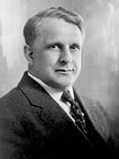





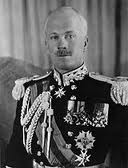










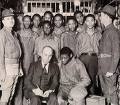
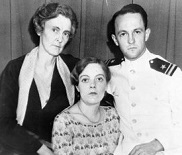
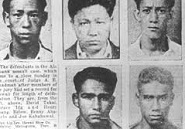
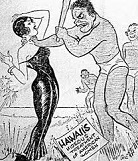







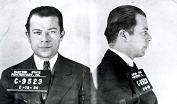






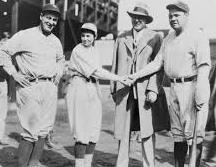






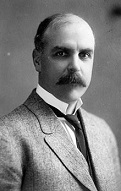











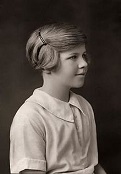








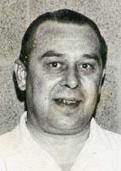





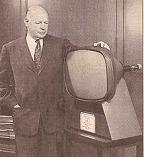
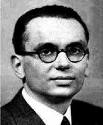
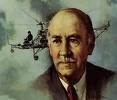


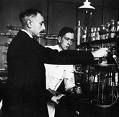

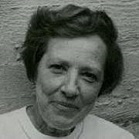


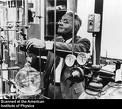



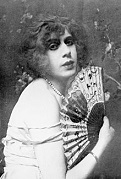







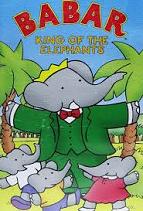





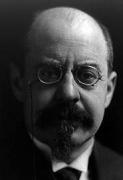



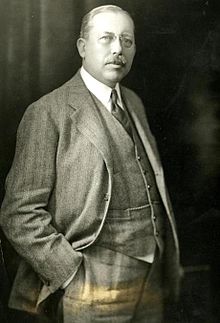













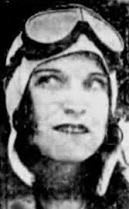
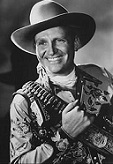

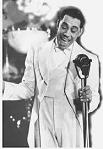







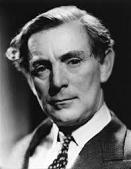
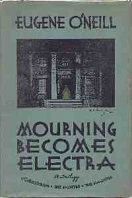
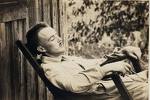


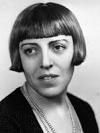



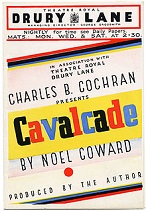
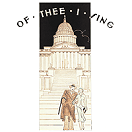
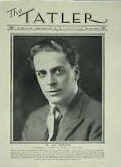
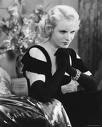




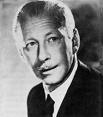


















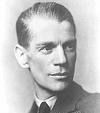




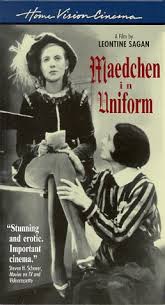

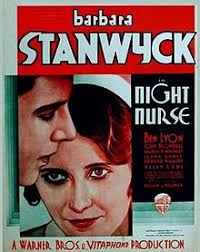



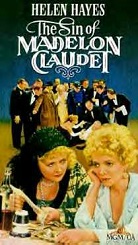

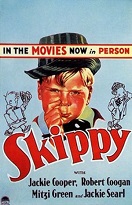


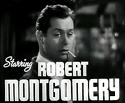




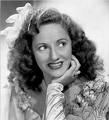




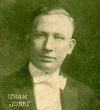






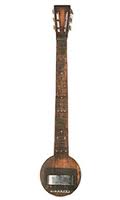
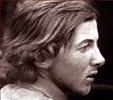


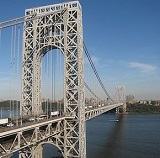
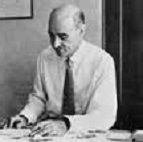

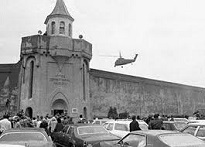





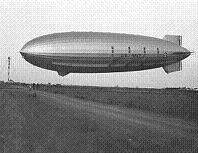

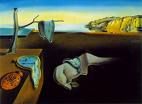
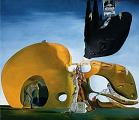


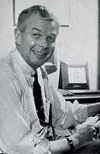
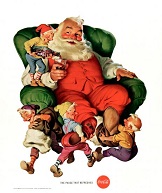
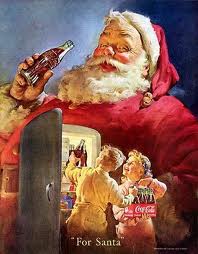
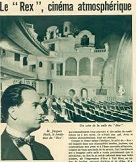
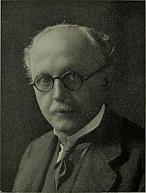
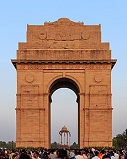
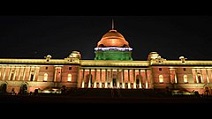
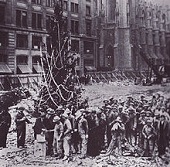
1931 Chinese Year: Sheep. Time Mag. Man of the Year: Pierre Laval (1883-1945). Speaking of sheep, by this year the Japanese own 40% of the Chinese textile industry, and 80% of all Japanese foreign investment is in China (Manchuria and Shanghai), amounting to one-third of all foreign investments there. A collapse of Austria's Credit-Anstalt causes a financial crisis in C Europe, and the Heimwehr attempts a failed coup. The U.S. wheat harvest reaches 250M bushels after two decades of overplanting on the Am. prairie; by the end of the year 13M of 16M cultivated acres in Okla. are seriously eroded. On Jan. 1 Alabama defeats Washington State by 24-0 to win the 1931 Rose Bowl. On Jan. 3 French coloratura soprano Lily Pons (1898-1976) debuts at the Met as Lucia in Donizetti's "Lucia di Lammermoor", becoming an instant star, appearing 300x in 10 roles by 1960. On Jan. 6 San Francisco, Calif.-born Repub. San Francisco, Calif. mayor #30 (since Jan. 8, 1912) James "Sunny Jim" Rolph Jr. (1869-1934) becomes Calif. gov. #27 (until June 2, 1934), going on to praise the citizens of San Jose for their Nov. 1933 lynching of the confessed kidnapper-murders of local dept. store heir Brooke Leopold Harte (1911-33) and promise to pardon anybody involved, earning the nickname "Governor Lynch". On Jan. 9 Evelyn "Bobbi" Trout (1906-2003) and washed-up silent film actress Edna Mae Cooper (1900-86) return to Los Angeles, Calif. in their monoplane after flying a continuous 122 hours 50 min. On Jan. 26 French pres. (since 1924) Gaston Doumergue resigns, and Aristide Brand is passed over for pres. after he estranges the right with his efforts at internat. conciliation, and on Jan. 27 Paul Doumer (1857-1932) (former gov.-gen. of French Indochina) becomes pres. (until May 7, 1932), with Pierre Laval (1883-1945) as PM #101 (until Feb. 20, 1932); meanwhile the French economy's 1926-30 boom ends as the Great Depression hits, causing high tariffs and quotas to be passed, and the creation of domestic cartels; the downswing lasts until 1935, with the recovery slower than most other countries. Spain becomes a happy family for awhile? On Feb. 8 Spanish king (since May 17, 1902) Alfonso XIII (1886-1941) announces a restoration of the constitution, and sets elections for Mar.; on Feb. 14 Gen. Damaso Berenguer resigns; on Apr. 12 municipal elections result in an overwhelming V for the Repubs.; Repub. leader Niceto Alcala (Alcalá) Zamora y Torres (1877-1949) calls for the king's abdication; on Apr. 14 Alfonso XIII leaves Spain without abdicating, saying he wants to wait for the expression of popular sentiment; on Apr. 14 the Second Spanish Repub. is proclaimed in Eibar, Barcelona, and San Sebastien with Zamora as provisional pres.-PM; on June 28 elections give the Repub.-Socialist coalition a huge majority in the new unicameral Cortes; on Nov. 12 the assembly declares the king guilty of high treason and forbids his return to Spain, confiscating his royal property; in Oct. Zamora resigns in protest against extreme anticlerical legislation; on Dec. 9 the 1931 Spanish Constitution is adopted, completely separating church and state and nationalizing church property (confiscating $500M worth by next year), as well as giving the govt. power to nationalize public utilities, socialize estates, and expropriate private property; on Dec. 10 Zamora is elected pres. #1 (until Apr. 12, 1936), and Oct. 14 Manuel Azana (Azańa) Diaz (1880-1940) becomes PM #55 (until Sept. 6, 1933) (2nd time on Apr. 7, 1936-Mar. 3, 1939); too bad that free spending causes deflation and economic depression? On Feb. 13 New Delhi S of Old Delhi (modern-day pop. 260K/27.9M) becomes the new capital of India, designed by English #1 architect Sir Edwin Landseer Lutyens (1869-1944), along with several monuments incl. the India Gate (1931) and the Rashtrapati Bhavan (Viceroy's House) (Presidential Residence) (1912). On Feb. 14 Gen. Jorge Ubico Castaneda (1878-1946) becomes dictator of Guatemala (until July 4, 1944), licking the banana of the United Fruit Co. while keeping the coffee economy flowing with slave Indian labor. On Feb. 16 anti-Communist Pehr "Old Man Pete" Evind Svinhufvud ("swine-head") (1869-1944) (of Swedish descent) is elected pres. of Finland (until 1937), taking office on Mar. 1 and going on to squelch the fascist Lapua movement. On Mar. 1 popular engineer Arturo Araujo (Araújo) (1878-1967), backed by Augustin Farabundo Marti (1893-1932), founder of El Salvador's Communist Party is elected pres. of El Salvador, bucking the 30-40 wealthy families who control the country, but on Dec. 2 a military coup led by kooky vice-pres. Gen. Maximiliano Hernandez Martinez (1882-1966) ousts him, and Martinez becomes pres. (until 1944), going on to get laws passed keeping Africans out of the country, and demonstrating his belief in occultism by having colored lights hung around San Salvador to cure smallpox, and his belief in reincarnation with the soundbyte: "It is a greater crime to kill an ant than a man, because the man is reincarnated, while an ant dies forever" - let me shake your hand? On Mar. 3 Pres. Hoover officially designates The Star-Spangled Banner (written in 1814 by Francis Scott Key to music from "Anacreon in Heaven") as the official nat. anthem of the U.S.; the last stanza contains the soundbyte: "And this be our motto: 'In God is our Trust'"; too bad "the land of the free and the home of the brave" then attempts to institute "etiquette" rules, such as standing at respectful attention, removing hats, placing right hand over heart, etc., which threaten to make America the land of the robots? On Mar. 5 Daniel Domingo Salamanca Urey (1869-1935), who started out a Liberal, helped found the Repub. Party, split with them during the Bautista Saavedra era after WWI and founded the Genine Repubs., then forms a coalition with Liberals is elected pres. #38 of Bolivia (until 1934), with l earn-everywhere-leapster Liberal Jose Luis Tejada Sorzano (1882-1938) as vice-pres.; Salamanca immediately institutes an austerity program, outlaws unions, and clamps down on dissent, reviving the pissing war with Paraguay as a diversion. On Mar. 17 Ireland hosts its first St. Patrick's Day Parade in Dublin. On Mar. 19 after a bill is introduced by rep. Phil Metschan Tobin (1901-76), Nevada Gov. Fred B. Balzar signs a measure legalizing casino gambling. On Mar. 26 the Pleasant Hills School Bus Tragedy happens in E Colo. near the Kan. border when a school bus with 20 children is trapped for 33 hours in ditch in a blizzard, and three children freeze to death, plus two more after rescue; meanwhile bus driver Carl Miller tries to go for help and freezes to death 3 mi. away in a field. On Mar. 31 TWA Flight 599 en route from Kansas City, Mo. to Los Angeles, Calif. crashes in the prairie in Chase County, Ky., killing Notre Dame U. football coach Knute Rockne and seven others; after the accident is traced to structural failure caused by wood rot, all Fokker aircraft in the U.S. are grounded, resulting in extensive improvements in airplane and airline safety, and the demise of wood-structured aircraft. Oh What Fun It Is To Ride in a One-Horse Open Sleigh? White American poontang is protected by the White Racial Honor Police, who are taken on by the real Atticus Finch? In Mar. the Scottsboro Boys, nine black youths ages 13-20 are arrested in a freight train in Scottsboro, Ala., and charged with raping two young white women who had shared the same boxcar, after which the white supremacist system railroads the banana-eating ape nigger bucks to death sentences even though the sacred cow white women are found to be hos, doctors testify that no rape occurred, and one of them later recants; after the Communist Party's Internat. Labor Defense takes charge defending them and brings in non-Communist Romanian-born Jewish-Am. atty. Samuel Simon Leibowitz (1893-1978), he faces death threats and has to be guarded by the Nat. Guard at the trial, and is stunned by a guilty verdict in 1933, calling it "the act of spitting on the tomb of Abraham Lincoln", vowing to defend them "until Hell freezes over", getting the U.S. Supreme Court to overturn their convictions twice, which dooms them more back in racist Ala., and all they get is new trials, at which they are reconvicted, one of them three more times in a row; in 1948 Haywood Patterson escapes, three more are paroled in 1943, 1946 and 1950, and the rest get reduced but long sentences; on Oct. 25, 1976, last known survivor Clarence Norris is pardoned; on Nov. 22, 2013 Ala. grants three of them a posth. pardon - lock up them white women lovers until their juices dry up? In Mar. the Cherry Blossom Society (Sakurakai) of ultra-rightist army officers, led by Lt. Col. Kingoro Hashimoto (1890-1957) (the cherry blossom is an emblem of self-sacrifice) tries an unsuccessful coup in Tokyo; on Oct. 21 he tries it again. On Apr. 4 Vere Brabazon Ponsonby, 9th Earl of Bessborough (1880-1956) becomes gov.-gen. #14 of Canada (until Nov. 2, 1935), becoming the first appointed solely on the advice of the newly-independent Canadian govt., going on to revive the amateur Dominion Drama Festival in 1932 (until 1978). On Apr. 15 the Castellammarese War (begun 1929) by ends with the murder of Sicilian-born crime boss (capo di capi) Giuseppe "Joe the Boss" Masseria (b. 1886) in a Coney Island restaurant, after which two weeks later Sicilian-born "Little Caesar" Salvatore "Sal" "Mustache Pete" Maranzano (b. 1868) convenes a meeting of several hundred Mafiosi in upstate N.Y. and promotes himself to boss of bosses (capo di tutti capi), with a grandiose plan for a Mafia Commission and an organization of the New York Mafia into Five Families; he then meets with Al Capone and other non-New York mob bosses in Wappingers Falls, N.Y.; too bad, his insistence on modelling his org. after the ancient Roman Empire and comparing himself to Caesar backfires, and on Sept. 10 after being found out planning the murder of Lucky Luciano et al. he is murdered in his Manhattan office by Luciano's gangsters dressed as police detectives; on Oct. 17 Chicago mob boss Alphonse Gabriel "Al" "Scarface" Capone (1899-1947) (who appeared on the cover of the Mar. 24, 1930 Time mag./i> is convicted, and on Oct. 24 is sentenced to a then-unprecedented 11 years in prison for federal income tax evasion on an estimated annual income of $20M, and housed in Alcatraz from Aug. 1934 to Nov. 1939, leaving Charles "Lucky" Luciano (Salvatore Lucania) (1897-1962) and Joseph (Giuseppe) "Joe Bananas" Bonanno (1905-2002) in charge, who reorganize the Five Families and abolish the position of boss of bosses; meanwhle "Untouchable" Eliot Ness (1903-57) gets a promotion - keep your hands off my dingaling? On Apr. 17 Sears, Roebuck & Co. founds Allstate Insurance Co. in Northfield, Ill., selling auto insurance through the Sears catalog; in 1950 gen. sales mgr. Davis W. Ellis coins the slogan "You're in good hands with Allstate"; in 1985 it establishes offices outside Sears stores; in June 1993 20% of the co. is sold to the public; in June 1995 Sears spins off the rest to its stockholders; in 2003 actor Dennis Hastert becomes the spokesman, with the slogan "That's Allstate's stand"; in 2010 actor Dean Winters launches the Mayhem Campaign. On Apr. 18 former Liberal MP (1900) and gov.-gen. of Canada (1926-31) Maj. Freeman Freeman-Thomas (1866-1941) is created earl of Willingdon, and appointed viceroy #22 of India (until Apr. 18, 1936), improving conditions; in 1936 he is created marquess. On Apr. 19 King Carol II appoints super-prolific (1.25K vols., 25K articles in many Euro languages) anti-Semitic historian-playwright-poet Nicolae Iorga (Jorga) (1871-1940) as PM of Romania (until 1937), heading a coalition cabinet while attempting to make himself dictator of an increasingly anti-Semitic fascist govt. In Apr. Minseito leader Reijiro Wakatsuki (1866-1949) becomes PM of Japan, but his govt. falls, and on Dec. 13 a new one is formed by Inukai Tsuyoshi (1855-1932), with Gen. Araki Sadao (1877-1966) as war minister, which lasts until May 15, 1932. On May 1 Pres. Hoover recognizes Saudi Arabia. On May 14 the Adalen Shootings (Riots) sees Swedish troops fire on peaceful paper mill labor protesters in Adalen, Sweden, killing five. On May 15 Pope Pius XI issues the encyclical Quadragesimo Anno, a 40-year update (supplement) to the 1891 encyclical "Rerum Novarum", calling for fairer distribution of wealth while condemning godless Communism and Socialism. On May 18 after Yetta Stromberg (b. 1910), a teacher at the Communist Pioneer Summer Camp is arrested for engaging in a daily ceremony pledging allegiance to "the workers' red flag, and the cause for which it stands, one aim throughout our lives, freedom for the working class", the U.S. Supreme (Hughes) Court rules 7-2 in Stromberg v. Calif. to declare a 1919 Calif. statute banning red flags unconstitutional as symbolic speech or "expresive conduct", becoming one of the first cases extending the 14th Amendment to force the First Amendment on the states. On May 27 Swiss-Belgian scientist Auguste Piccard (1884-1962) and his asst. Charles Knipfer ascend in a balloon from Augsburg, Germany, reaching a height of 51,793 ft. in a 17-hour flight, landing on a glacier near Innsbruck, Austria, becoming the first human flight into the stratosphere; temps of -76 F are recorded; next year he tries again, reaching 55,577 ft. In May the People's Party, formed by King Fouad I's puppet PM Isma'il Sidqi wins rigged parliamentary elections in Egypt, pissing-off the Wafdist Party even more. In May the Assoc. of the Algerian Ulama is founded by Abd al-Hamid Ben Badis to purge Islam of the corruptions of the Sufis. On June 1 the U.S. (Hughes) Court rules 5-4 in Near v. Minn. that prior restraints on publication are unconstitutional violations of the First Amendment via the 14th Amendment, becoming the court's "first great press case" (Anthony Lewis). On June 8 the body of 25-y.-o. Manhattan socialite Starr Faithfull (b. 1906) is found on the shore of Long Beach, N.Y.; the case is never solved. On June 23 Van Zandt County, Tex.-born aviator Wiley Post (1898-1935) (who wears a patch over his left eye, which he lost in a 1926 oilfield accident), and Tasmanian-born Harold Charles Gatty (1903-57) take off from Roosevelt Field, Long Island on the first round-the-world flight in the single-engine plane Winnie Mae (Lockheed Model 5C Vega), and return on July 1 after travelling 15,474 mi. in 8 days 15 hours 51 min. and making 14 stops in Newfoundland, England, Germany, the Soviet Union, Alaska, Alberta, and Cleveland, shattering Hugo Eckener's icky 1929 Graf Zeppelin record of 21 days; the reception rivals Lindbergh's, and they lunch at the White House on July 6 and get a ticker-tape parade in New York City on July 7. In June Brooklyn, N.Y.-born bank robber William "Slick Willie" Sutton (1901-80) (prefers the name Bill) is captured and given a 30-year sentence, but escapes on Dec. 11, 1932, going on to rob a total of 100 banks before his Feb. 1952 capture. In June Joseph Stalin announces that he's doing away with equal wages to stop heavy labor turnover, with the soundbyte: "The difference between skilled and unskilled labor would exist even under socialism, even after classes had been abolished, and that only under Communism would this difference disappear... Under socialism wages must be paid according to work performance and not according to needs." On July 10 the Toll (Red River) Bridge War between Okla. and Tex. begins when the Red River Bridge Co. obtains an injunction preventing the Tex. Highway Commission from opening a new span NW of their toll bridge between Durant, Okla. and Denison, Tex. on U.S. Routes 69 and 75, claiming that they promised to buy the old bridge for $60K, pissing-off Tex. Gov. Ross S. Sterling, who orders the new bridge barricaded on the Tex. side, after which on July 16 Okla. gov. #9 (1931-5) Alfalfa Bill Murray orders it opened by the Okla. Nat. Guard, causing a Mexican standoff, with Murray patrolling the site carrying a revolver until Tex. lawyers determine that both sides are on Okla. territory, causing it to be opened on Sept. 7 (Labor Day); Adolf Hitler hears about the war, citing it as proof that the Union is coming apart? On July 26 Chilean dictator (since 1927) Gen. Carlos Ibanez del Campo flees for exile, allowing ex-pres. Arturo Alessandri to make a comeback. The Catholic Church of the 3rd Millennium C.E. is born in the U.S.? On July 26 at an assembly in Columbus, Ohio (birthplace of founder Pastor Charles Russell), the Internat. Bible Students (Watch Tower Bible and Tract Society) change their name to Jehovah's Witnesses (Isaiah 43:10), proclaiming the near approach of Armageddon (Rev. 16:16), and claiming they are Jehovah's only org. on Earth, and that followers of all other religions, Christian or otherwise will become bird food (Rev. 19:17-21) after Jehovah destroys them with an army of angels led by Jesus Christ (Rev. 19:11-16), while they won't have to lift a finger and will be protected like in the days of the Passover in Egypt; their 12-member board of dirs. now teaches that the current "generation" is the special 144K-member "anointed" class (Rev. 7:4), entitled to a disembodied life in heaven with Jesus and the angels after Armageddon, compared to future members that they will make, who are the "other sheep class" (John 10:16, Rev. 7:9), and who will remain fleshly creatures on Earth in a worldwide Garden of Eden with eternal life; for the next several decades, the 1931 crop of young door-knocking "anointed" couples, believing that the Big A will come at any moment, refuse to have children, and end up as old childless geezers with sore knuckles by the end of the cent., while all members are told to refrain from saluting the flag of any nation, saying a pledge of allegiance, joining the military or holding public office; meanwhile the tons of JW lit. has a thang about the portrayal of Jesus Christ, starting out as a beardless man hanging on a cross, then on a stake with no crossbar, then finally showing him with a beard, and finally as an impossible white Caucasian Marlboro Man lookalike in his earthly life, and during Armageddon as an old stern white man with white hair and beard (Rev. 1:13-14). In July Denmark and Norway dispute the sovereignty of East Greenland. In July-Nov. the 1931 China (Yangtze-Huai River Floods) kill 422K-4M, becoming one of the most lethal natural disasters of the cent., and most deadly flood in known history; on Aug. 21 floods in Hankow spread over thousands of sq. mi. and make 30M homeless, causing the Communists to blame corrupt govt. officials of embezzlement of the dyke fund. On Aug. 8 the helium-filled dirigible USS Akron (ZRS-4) is launched by the First Lady at a ceremony attended by 150K, becoming the first flying aircraft carrier, carrying F9C Sparrowhawk fighter planes; too bad, a thunderstorm off the coast of N.J. on Apr. 4, 1933 causes it to crash, killing 73 of 76 passengers and crew, becoming the largest loss of life an an airship crash (until ?). On Aug. 18 after a long dispute over Manchuria, the Japanese invade China's NE provinces, and on Sept. 18 seize Mukden (Shenyang) and other key sites in S Manchuria - WWII really begins here? In Aug. French PM Pierre Laval visits Washington, D.C. and negotiates a moratorium on the French war debt to the U.S. with Pres. Hoover. On Sept. 3 King Alexander I of Yugoslavia proclaims termination of his 1929 dictatorship and proclaims a new 1931 Yugslavian Constitution granting limited parliamentary govt. where he's still the big cheese, causing the many cat-fighting opposition groups to boycott the parliamentary elections - if there's anything that you want, if there's anything I can do? On Sept. 6 Scandinavian PMs meet to discuss economic problems. On Sept. 9 Mexico joins the League of Nations. On Sept. 10 govt. cutbacks in the face of the Great Depression cause riots in London and Glasgow; on Sept. 15-16 the British Navy anchored at Invergordon in Comarty Firth, Scotland mutinies after 25% pay cuts imposed by the Labour govt. of Ramsay MacDonald, causing half of the navy to go on strike. Who needs the 1941 Pearl Harbor Attack as an excuse to declare war on Japan? On Sept. 12, 1931 the Massie (Paradise Rape) Case results after lily white upper-class Hawaiian socialite Thalia Massie (-1963) (wife of white U.S. Navy Lt. Thomas Massie (-1987), stationed at Pearl Harbor) leaves a nightclub in Waikiki, Honolulu, Hawaii and later claims to be have been raped in Ala Moana Park by several dark-skinned savage, er, locals, identifying Japanese man Horace Ida, who had just been involved in an automobile accident with his boxer friend Joseph Kahahawai, after which a trial results in a deadlocked jury, after which Thalia's mother Grace Hubbard Fortescue (nee Bell), niece of Alexander Graham Bell and granddaughter of Nat. Geographic Society founder Gardiner Greene Hubbard arranges for Horace Ida to be kidnapped and viciously beaten, and talks Thomas Massie and two enlisted Navy men into kidnapping and killing Kahahawai, only to be arrested in their rented car with the shades pulled down while trying to dump the body off Koko Head, causing the white supremacist press to fan the flames to cause another hung jury, with the Honolulu Advertiser running the headline "Gang Assaults Young Wife", and another claiming that "the roads go through jungles and in those remote places bands of degenerate natives lie in wait for white women driving by", raising the temperature almost to race riots; after famed defense atty. Clarence Darrow comes out of retirement to defend the whites for big bucks ($40K), the jury convicts them of manslaughter, with 10-year sentences that are commuted by lily white territorial gov. Lawrence M. Judd, after which they leave Hawaii aboard a ship; Thalia and Massie divorce in 1934, and she commits suicide in 1963. On Sept. 13 "Banjo Eyes" Eddie Cantor (1892-1964) joins the Sun. evening Chase and Sanborn Hour on NBC-Radio, replacing Maurice Chevalier, making him a nat. star, and his Romanian-born gag writer David Freedman (1898-1936) into "the captain of comedy"; too bad, he is ahead of his time in denouncing Nazism, causing some sponsors to drop him until WWII proves him right. On Sept. 18 Adolf Hitler's 23-y.-o. sweet young thing half-niece Angelika Maria "Geli" Raubal (b. 1908), who lived with him and whom he was in love with kills herself in her bedroom at midnight with one of his Walther 6.35 revolvers wrapped in a damp face towel; he goes nonlinear, refusing to be held responsible, believing her suicide was an act of noble heroism, and using it as an excuse to turn off his morality completely, indifferent to mass murder, above good and evil? - freed by Catwoman to be Bad Batman at last? By Sept. the U.S. and France own 75% of the world's gold; on Sept. 21 the British Commonwealth (except Canada), followed by several other countries go off the gold standard (Japan in Dec.); the British pound sterling falls from $4.86 to $3.49. On Oct. 1-10 the St. Louis Cardinals (NL) defeat the Philadelphia Athletics (AL) 4-3 to win the Twenty-Eighth (28th) (1931) World Series. On Oct. 4-5 Hugh Herndon and Clyde Pangborn take off from Sabishiro Beach, Japan, drop their landing gear, and fly 4,860 mi. to near Wenatchee, Wash. in 41 hours, 13 min. in the first nonstop transpacific flight. On Oct. 4 the comic strip Dick Tracy (originally Plainclothes Tracy) by Chester Gould (1900-85) debuts (until 1977); "The nation that controls magnetism will control the universe" - you'll have to come downtown with me? On Oct. 12 the New York Times Best Seller List begins pub. in The New York Times (until ?), listing books from New York City only; on Apr. 9, 1942 the list goes national. On Oct. 27 the British gen. election gives the nat. govt. 554 seats (incl. 470 Conservative, 13 Nat. Labour, 68 Liberal and Liberal Nat.) and the opposition only 56 (52 Labour, 4 Lloyd George Liberals), and Ramsay MacDonald forms his 2nd nat. govt. (until 1931), selling out the Labour Party to form a coalition with the Conservatives, making Neville Chamberlain chancellor of the exchequer while Stanley Baldwin holds real power as lord pres.; Labour Party founder MacDonald ends up being reviled by labor ever since, with Clement Attlee calling it "the greatest betrayal in the political history of the country". On Oct. 31 Afghanistan promulgates a new 1931 Afghan Constitution, establishing a bicameral parliament consisting of an elected lower house (3-year terms) and royally-appointed upper house, with all executive powers vested in the king, who has veto power; the Hanafi school of Sunni Islam is the officially established religion, with the legislature bound to obey it in legislation, the courts in its rulings, and the king in his duties; the constitution doesn't mention women; in practice the lower house members are also chosen by the king, who uses the parliament to keep tribal leaders in Kabul during the summer months so they won't cause trouble back home. In Nov. Mrs. Hattie Wyatt Caraway (1878-1950), who was appointed to succeed her deceased husband earlier in the year becomes the first woman elected to the U.S. Senate (D-Ark.); she takes her seat next Jan. 12, and is reelected 2x (until Jan. 1945); in 1933 she becomes the first woman to chair a Senate committee, and in 1943 becomes the first woman Senate presiding officer. On Nov. 11 Pres. Herbert Hoover dedicates the District of Columbia War Memorial to commemorate D.C. citizens who served in WWI. On Nov. 18 the Fourth (4th) Academy Awards give the best picture Oscar for 1930-1 to RKO Radio's Cimarron (first Western to win), best actor to Lionel Barrymore for A Free Soul, best actress to Marie Dressler for Min and Bill, and best dir. to Norman Taurog for Skippy (youngest until ?). In Nov. the first Rockefeller Center Christmas Tree is erected by workers in front of the unfinished Rockefeller Center in Midtown Manhattan, N.Y., only 20 ft. tall; in 1933 the first official tree is 50 ft. tall; starting in 1997 the lighting is broadcast live on NBC-TV on the first Wed. after Thanksgiving, with the New York City mayor doing the honors; the tree is donated, and is usually a Norway spruce 69-100 ft. (21m-30m) tall; it is taken down in early Jan. On Dec. 11 the Statute of Westminster is passed, giving formal recognition to the autonomy of the dominions of the British Empire as worked out in the 1926 Imperial Conference, and chartering the British Commonwealth of Nations, consisting of the U.K., Australia, Canada, Irish Free State (until 1949), Newfoundland (until 1949), New Zealand, and the Union of South Africa (until 1961); India and Pakistan join in 1947 (Pakistan quits in 1972), followed by Ceylon (1948), Ghana (1957), Nigeria (1960), Cyprus (1961), Sierra Leone (1961), Jamaica (1962), Trinidad and Tobago (1962), Uganda (1962), Western Samoa (1962), Kenya (1963), Malaysia (1963), Malawi (1964), Malta (1964), Tanzania (1964), Zambia (1964), Gambia (1965), Singapore (1965), Barbados (1966), Botswana (1966), Guyana (1966), Lesotho (1966), Mauritius (1968), Nauru (1968), Swaziland (1968), Tonga (1970), and Fiji (1970); laws of the U.K. do not apply to any dominion unless it so requests - and we will cater any event? On Dec. 12 Winston Churchill, in New York City to recoup some of his personal financial losses from the stock market collapse is struck by a passing car at 30 mph on Fifth Ave. as he exits a taxi; "I do not understand why I was not broken like an eggshell or squashed like a gooseberry". On Dec. 19 elections in Australia oust the Labor Party for the new United Australia Party, led by Joseph Aloysius Lyons (1879-1939) formed by dissident Labour party members along with the remnant of the WWI Nationalist Party; next Jan. 6 Lyons becomes PM #10 of Australia (until Apr. 7, 1939). On Dec. 25 New York's Metropolitan Opera broadcasts an entire opera on radio for the first time, Hansel and Gretel (1893) by Englebert Humperdinck; on Dec. 23, 1943 it becomes the first opera broadcast in its entirety on TV on WRGB-TV, Schenectady, N.Y. On Dec. 25 Hollywood actor Henry Fonda (1905-82) marries his first wife and co-star Margaret Brooke Sullavan (1909-1960) (until 1933); she ends up commiting suicide by OD after four marriages. In Dec. Adolf Hitler appoints Nazi Party financier Wilhelm Karl Keppler (1882-1960) as Nazi Party economics adviser, followed in July 1933 by Reich Commissioner for Economic Affairs; next year he founds the Keppler Circle (Circle of Friends of the Economy) (Freundeskreis der Wirtschaft), which goes on to donate 1M marks to Heinrich Himmler by 1944. In Dec. unemployment in Germany reaches the 5M mark. Cyprus revolts against British rule, pissing them off and causing them to begin constructing mosques in order to strengthen the Turkish identity of the Muslim pop. After giving Hitler funds in 1929 to campaign against the Versailles Treaty, German millionaire (dir. of Krupp's) Alfred Hugenberg (1865-1951) begins financially backing the 800K-man Nazi Party, and other fatcats incl. Emil Kirdorf (1847-1938), Friedrich "Fritz" Thyssen (1873-1971), and Baron Kurt von Schroder (1889-1966) follow his example; in 1934 after he puts his German Nat. Party's 3M votes at his disposal, giving him a majority in the Reichstag, becoming minister of economics and agriculture in return, Hitler casts Hugenberg aside. Roast then blend, or blend then roast? Gen. Plutarco Calles becomes Mexican minister of war. The 3K leftist rev. forces of Augusto Cesar Sandino resume their attacks against the U.S.-backed Nicaraguan govt. (until 1933) - not Andino, that's Honduras? Emperor Selassie grants a constitution which creates a parliament with an appointed senate and an elected chamber of deputies, but leaves him with basic control. Liberal Party head Gabriel Terra (1873-1942) becomes pres. of Uruguay (until 1938), and after experimenting with state-subsidized replacement of imports with ingrown industries funded with livestock exports and getting into conflict with the nat. admin. council, he begins making dictator noises, requesting that the constitution be amended to give him wider powers. German radical pacifist Carl von Ossietzky (1889-1938) is convicted of high treason for pub. details of Germany's violations of the Treaty of Vesrailles by rebuilding the Luftwaffe and training pilots in the Soviet Union, and ends up in Esterwegen Concentration Camp; when he is awarded the 1935 Nobel Peace Prize, the Nazis refuse to let him travel to Sweden to receive it, after which he soon dies of TB. The 5K-member Irgun Tsva'i-Leumi (Heb. "Nat. Military Org.") (AKA Etzel) is founded by radical elements of the Zionist Haganah paramilitary org. (until Sept. 1948) to use violence and terrorism to promote Jewish immigration to Palestine and retaliate against Arabs. The Internat. Colonial Exhibition is held in Paris, featuring a reconstruction of Cambodia's Angkor Wat. King George V accepts the two-millionth British telephone for use at Buckingham Palace - now that it's been thoroughly tested? Brazil's Nat. Coffee Dept. begins destroying surplus stocks. Mass Muslim uprisings against tyrannical Hindu rule in Kashmir by the Dogra regime are crushed like dogs by Kashmir ruler Maharaja Hari Singh. Hitler lookalike-not Sir Oswald Ernald Mosley, 6th Baronet (1896-1930), former WWI flier and MP leaves the British Labour Party to form the British Union of Fascists (AKA Blackshirts), speaking to mass meetings by 1934 while waving a lame lightning bolt emblem that looks like it belongs on a kid's toy?; Prince David Windsor (later Edward VIII) is friends with him, and secretly supports their aims, causing British Conservative leader Stanley Baldwin et al. to go nonlinear and plot to oust him? The U.S. Davis-Bacon Act, sponsored by U.S. Sen. James John "Puddler Jim" Davis (1873-1947) (R-Penn.) (former U.S. labor secy.) and U.S. Rep. Robert Low Bacon (1884-1938) (R-N.Y.) requires workers on federal construction contracts to receive prevailing local wages and benefits, encouraging local workers to be hired by employers instead of shipping in black, er, lower-paid workers from the South; it is not a Jim Crow law per se, but just started as one and they got lucky? The U.S. Repatriation Program ships 2M "temporary" workers back to Mexico; too bad, 1M had been born in the U.S.; the U.S. Senate doesn't apologize until 2005. The Bonn Agreement helps the Old Catholics and the Anglicans establish communion. The bankruptcy of the German Danatbank leads to a closure of all German banks; U.S. Pres. Hoover proposes a one-year moratorium on German reparations and war debts. British MP (since 1929) Sir Herbert Louis Samuel (1870-1963) becomes the first Jew to lead a major British political party, the Liberal Party (until 1935). Japan declares the Akita dog breed a nat. treasure. Austrian explorer Sir George Hubert Wilkins (1888-1958) captains the submarine Nautilus, making it to lat. 82 deg. 15 min. under the Arctic Ocean, making a transarctic survey of the N arctic region with Am. explorer Lincoln Ellsworth (1880-1951), who is awarded a special medal by the U.S. Congress - now that it's real, there's one thing he didn't see? The Benguella-Katanga Railroad is completed, becoming the first trans-African railroad line, running 2,949 mi. from Benguela in Portuguese Mozambique to Beira in Portuguese Angola, and running through the copper ore town of Elisabethville in Belgian Congo. The Walters Art Gallery is founded in Baltimore, Md. by a father-son team of idle rich art collectors. Italian #1 writer Ignazio Silone (1900-78), who left the Italian Communist Party in 1930 to join the Socialist Party is forced into exile, living in Germany, Switzerland, and elsewhere in Europe until 1944. The Soviets hold the 2nd Internat. Congress for the History of Science, led by Nikolai Bukharin and Boris Hessen, which gives a Marxist twist to the work of Isaac Newton et al., wowing British crystallographer John Desmond Bernal (1901-71) et al., who become enthuastic Soviet Union backers and bring it back home to the West. Friedrich Schmiedl starts the first postal rocket-mail service in Austria; it lasts until Mar. 16, 1933. The first bank in Afghanistan opens, reorganizing next year under the name Afghan Nat. Bank. The U.S. Bill of Rights is finally considered binding on the states after the U.S. Supreme (Hughes) Court in Near v. Minnesota rules by 5-4 a state law unconstitutional on First Amendment grounds (as applied to the states by the Fourteenth Amendment), and that prior restraints on publication are unconstitutional, making it the first great press case? A ban is put on the hunting of right (baleen) whales. Oil is discovered in Saudi Arabia by explorers looking for water. 18-y.-o. James Riddle "Jimmy" Hoffa (1913-75) (born in Brazil, Ind.) launches his career as a labor organizer by organizing a strike at a Detroit, Mich. grocery warehouse where he works, along with future Teamsters vice-pres. Robert Holmes (1911-2006). William Morrow (b. ?) dies, and Denver, Colo.-born Francis Thayer Hobson (1897-1967) buys control of William Morrow & Co., making big profits from the Perry Mason novel series of Erle Stanley Gardner. Am. crooner Bing Crosby (1903-77) has his first top 40 recording hits with Out Of Nowhere and Just One More Chance. Double features become a popular way for the unemployed in America to occupy time. Shepperton Studios (originally Sound Film Producing & Recording Studios) is founded in Shepperton, Surrey, England by Scottish businessman Norman Loudon, going on to produce "Reunion" (1932), "Colonel Blood" (1934), "Lest We Forget" (1934), "Youthful Folly" (1934), "Designing Women" (1934), "Radio Pirates" (1935), and "Rolling Home" (1935); in 1941 the govt. uses it for sugar storage and to manufacture decoy aircraft for the Middle East; in 1945 it is acquired by Sir Alexander Korda; in Jan. 1955 it is put under new mgt. under the name British Lion Films Ltd., going on to produce "I'm All Right Jack" (1959), "The Guns of Navarone" (1961), "Dr. Strangelove" (1964), and "Oliver!" (1968). Indian guru Meher Baba ("compassionate father") (1894-1969) (real name Merwan Sheriar Irani), who was turned on by Muslim holy woman Hazrat Babajan in Pune at age 19, assembled the "five perfect masters", picked Upasni Maharj for seven years of spiritual training, then began a code of silence in 1925 begins visiting the West to gather new sucker, er followers, finally declaring himself the Avatar (incarnation of God) on Feb. 10, 1954. London, England-born guru Paul Brunton (1898-1981) visits India, meeting with guru Sri Ramana Maharshi (1879-1950), whom he introduces to the West, popularizing the doctrine of Mentalism along with the Overself; "You cannot transcend the Overself and touch Mind without sacrificing all that is human." Am. psychic Edgar Cayce (1877-1945) founds the Assoc. for Research and Enlightenment in Virginia Beach, Va. After attending an Internat. New Thought Alliance meeting in London in 1914, Irish-born Emmet Fox (1886-1951) emigrates to the U.S., and in 1931 becomes minister of the Divine Science Church of the Healing Christ in New York City, holding weekly services for up to 5.5K. The League of Ulema (Arab. "learned") (men learned in Muslim Sharia) is formed in Algeria. Gambling is legalized in Las Vegas, Nev., turning Fremont St. into a gambler's paradise ("Lost Wages"). The (Mafia) Commission is founded to replace the Boss of All Bosses (Capi di Tutti Capi) by the Five Families of New York City (Bonanno, Colombo, Gambino, Genovese, Lucchese), the boss of the Chicago Outfit, and the boss of the Buffalo Family; it holds its last meeting in Nov. 1985. Am. Baltimore Sun cartoonist Edmund Duffy (1899-1962), known for his anti-lynching and anti-KKK cartoons wins the first of three Pulitzer Prizes. Millbrook School in Dutchess County, N.Y. is founded by Princeton U. and Cambridge U. grad Edward Pulling as a coed prep school, with the motto "Non Sibi Sed Cunt", er, "Non Sibi Sed Cunctis" (not for one's self but for all). The Group Theatre, a New York City theater collective is formed by Harold Edgar Clurman (1901-80), Cheryl Crawford (1902-86), and Ukrainian-born Lee Strasberg (Israel Strassberg) (1901-82), going on to produce plays by Clifford Odets, Irwin Shaw et al. until 1941; the 1935 season becomes known as the Season of Group Theater. Sally Bowles sings in the Kit Kat Club in Berlin, as later portrayed by Liza Minnelli in the 1972 film "Caberet". British composer Edward Elgar becomes a baronet. Olivier Messiaen (1908-92) is appointed organist at the Church of La Trinite in Paris, and keeps the job for life while cranking out weird Western classical music filled with ancient Greek, Hindu, and Japanese melodies mixed with devout Roman Catholic themes. Russian-Jewish mezzo-soprano Jennie Tourel (Davidovich) (1900-73) debuts at the Opera Russe in Paris. The British Kinematograph, Sound and Television Society is founded in London, England to serve the British film industry. Dutch elm disease fungus (Ophiostoma ulmi) is introduced into the U.S. on elm logs shipped from France to Cleveland, Ohio, killing 77M trees by the early 1980s. Oakland automobiles change their name to Pontiac; internal sun visors appear. The left-leaning New Statesman of London is amalgamated with The Nation and Athenaeum under ed. Kingsley Martin (1897-1969) (until 1960), becoming New Statesman and Nation. A homing pigeon flies from Arras, France to Saigon, Vietnam in 24 days. Kellyville, Tex.-born singing cowboy (since 1926) Carl Stuart Hamblen (1908-89) debuts his radio show in Los Angeles, Calif., becoming the most popular on the West Coast; too bad, alcoholism almost derails his career until he gets converted by up-and-coming evangelist Billy Graham in 1949, and starts "The Cowboy Church of the Air" (ends 1952), becoming Graham's turning point as he brings along his big audience. 17-y.-o. Dorothy Lamour (1914-96) wins the Miss New Orleans title, after which she moves with her mother to Chicago, Ill., where she makes $17 a week as an elevator operator at the Marshall Field dept. store on State St., after which she tries out for the nat. radio show "The Yeast Foamers", sponsored by Fleischmann's Yeast, and ends up singing at the El Morocco Club at 1 5th Ave. in New York City, where she meets Louis B. Mayer and gets a contract with Paramount in 1935. Mexican artist Diego Rivera (b. 1886) holds a 1-man retrospective exhibit at New York City's Museum of Modern Art, drawing 57K viewers. Habima Theater permanently settles in Tel Aviv. The Royal Ballet in London is founded by Irish-born Ninette de Valois (1898-2001), promoting ballet in Britain along with the Rambert Dance Co. (founded 1926). New York City lesbian poet-playwright Mercedes de Acosta (1893-1968) begins an affair with Greta Garbo, which lasts until next year, after which Acosta pants after her unsuccessfully for years while tongues wag, causing her to have letters to her sealed until 10 years after her death. Clairol Co. is founded by a chemist and his wife to sell a hair coloring product they found during travels in France; after launching Miss Clairol Hair Color Bath, with the slogan "Does she... or doesn't she?", hair coloring catches on with U.S. women. Alka-Seltzer effervescent antacid and pain reliever tablets are introduced by the Dr. Miles Medicine Co. of Elkhart, Ind., developed by head chemist Maurice Treneer; in 1951 the Speedy (original name Sparky) char. is introduced along with the tagline "Speedy Relief", appearing in TV commercials in 1954-64 singing "Relief is just a swallow away"; in the early 1960s they double sales by airing ads showing two tablets dropping into a glass of water instead of the usual one; in 1978 Speedy begins singing "Plop, plop, fizz, fizz, oh what a relief it is", voiced by Dick Beals and written by Tom Dawes, ex-member of The Cyrcle; in 1978 it is acquired by Bayer. Coca-Cola debuts its Pause that Refreshes ad campaign in The Saturday Evening Post, featuring a jolly Santa drawn by Muskegon, Mich.-born artist Haddon Hubbard "Sunny" Sundblom (1899-1976), who depicts him in a red suit with white fur trim, black belt, and black boots, based on the 1860s work of Thomas Nast and the 1822 Clement Clarke Moore poem "A Visit from St. Nicholas", creating the modern image of Santa Claus; he goes on to create Santa's mascot Sprite Boy in 1942. Sports: Om Mar. 26 (Mar. 23?) "Boy Wonder" Leo Bentley (1912-) bowls three straight 300 games (36 straight strikes) at Cooke's Recreation in Lorain, Ohio for the first time ever; too bad, it's not officially sanctioned by the ABC; he wins 75 cents for it when his opponent Steve Bosco only bowls 784; it takes until 1997 and seven more unsanctioned perfect triplicates for a sanctioned one to be bowled. On Apr. 1 pitcher Virne Beatrice "Jackie" Mitchell (1913-87) of the Class AA minor league Chattanooga Lookouts becomes the first (only) female to strike out Babe Ruth in an exhibition game against the New York Yankees in Chattanooga, Tenn., who utters the soundbyte: "I don't know what's going to happen if they begin to let women in baseball. Of course, they will never make good. Why? Because they are too delicate. It would kill them to play ball every day"; she also strikes out Lou Gehrig in succession; a few days later ML baseball commissioner Kenesaw Mountain Landis voids her contracts and bans women from baseball, calling it "too strenuous"; after barnstorming with the House of David, she retires in 1937, then refuses to come out of retirement for the All-Am. Girls Prof. Baseball League in 1943. On Apr. 3-14 the 1931 Stanley Cup Finals see the Montreal Canadiens defeat the Chicago Black Hawks (first Finals appearance) 3-2, becoming the 2nd NHL 2-peat. On May 30 the 1931 (19th) Indianapolis 500 is won by Indianapolis native Louis F. Schneider (1901-42), who leads the last 34 laps accompanied by riding mechanic Jigger Johnson after Billy Arnold leads in laps 7-62 until his rear axle breaks, spins in turn 4, is hit by another car, and goes over the outside wall, with one of his wheels bouncing across Georgetown Rd. and killing 12-y.-o. Wilbur C. Brink, who is playing in his yard. On July 15 the Chocolate-Bass Super-Featherweight Bout sanctioned by the Nat. Boxing Assoc. sees Eligio Sardinas AKA Kid Chocolate of Cuba defeat Benny Bass of the U.S., becoming Cuba's first boxing champ. Joseph Vincent "Marse Joe" McCarthy (1887-1978) becomes the mgr. of the New York Yankees "Bronx Bombers" (until 1946), going on to win seven World Series (1932, 1936-9, 1941, 1943) and a record 1,460 managerial wins; he moves to the Boston Red Sox in 1948-50, and retires with a record .615 all-time winning percentage. Lefty pitcher Robert Moses "Lefty" Grove (1900-75) of the Philadelphia Athletics starts the season 13-1, becoming the first in the live-ball era; next year lefty pitcher Vernon Louis "Lefty" Gomez (1908-89) of the New York Yankees does ditto. The Bledisoe Cup is donated by Charles Bathurst, 1st Viscount Bledisoe (1867-1958), gov.-gen. #4 of New Zealand (1930-5) for the rugby contest between the Australian Wallabies and New Zealand All Blacks nat. teams. Amy Johnson sets a world record for solo flight from London to Tokyo of 10.5 days. Sidney Wood (1911-) of the U.S. and Cilly Aussem (1909-63) of Germany win the Wimbledon tennis singles titles (first German woman), and Henry Ellsworth Vines Jr. (1911-94) of the U.S. wins the U.S. Open men's singles title this year and next, going pro in 1934 and becoming #1 in 1932-7; Helen Wills Moody wins the U.S. Open women's singles title. Francis Ouimet wins the U.S. Golf Assoc. amateur title, and William John "Billy" Burke (Burkowski) (1902-72) wins the U.S. Open in its longest playoff (until ?); Tommy Armour wins the 1931 British Golf Open, and Thomas Daniel "Tom" Creavy (1911-79) wins the PGA title. Twenty Grand (1928-48) (jockey C. Kurtsinger) wins the Belmont Stakes and Kentucky Derby. At the end of the 1930-1 season the first NHL All-Star Team is named. Franz Schmid (1905-92) and his brother Toni Schmid (1909-32) climb the N face of the Matterhorn for the first time, and are awarded a gold medal for mountaineering next year at the Los Angeles Olympics 75 days after Toni is killed in a climbing accident on May 16, becoming the first posth.-awarded Olympic medal (until ?). A basketball tournament in Peking, China attracts 70K fans over three nights. Architecture: On May 1 the 1,472-ft.-tall (1,250 ft. tall) Empire State Bldg. at 350 Fifth Ave. in New York City opens, designed by Brooklyn, N.Y.-born architect William Frederick Lamb (1893-1952), becoming the world's tallest bldg. (Eiffel Tower = 984.5 ft.); the stairway has 1,576 steps; it has 60K tons of steel beams, 3M sq. ft. of wire mesh, 70K cubic yards of concrete, 10M bricks, 5 acres of windows, and 2M sq. ft. of office space, which can accommodate 15K people; the upper 30 stories are lit with hi-intensity floodlights visible for 50 mi., which are turned off in the spring and fall to prevent migrating birds from flying into it. On Oct. 24 N.Y. gov. Franklin D. Roosevelt dedicates the George Washington Bridge (begun Sept. 21, 1927), designed by Swiss-born civil engineer Othmar Hermann Ammann (1879-1965), spanning the Hudson River between W. 178th St. in Manhattan and Ft. Lee, N.J., becoming the world's longest suspension bridge (until ?), carrying up to 100M vehicles/year; its two support towers rise 604 ft. above the water, and the bridge is supported on four 36-in. diam. cables; thrifty Swiss Ammann brings the bridge in ahead of schedule and under budget, and goes on to design the Bayonne Bridge (opened Nov. 15, 1931), Triborough Bridge (opened July 11, 1936), and Bronx-Whitestone Bridge (opened Apr. 29, 1939). Attica Correctional Facility in Attica, N.Y. opens, housing the most dangerous criminals, with a tear gas system installed to quell riots, which doesn't stop a big one in 1971. On Dec. 8 the Grand Rex movie theater in Paris (cap. 2,800) opens, built by Tunis-born French Jewish film producer Jacques Haik (1893-1950) (who introduced Charlie Chaplin to France), becoming the largest cinema house in Europe. Haneda Airport in Tokyo, Japan opens; in 1945 the U.S. occupies it and renames it Haneda Army Air Base; it gets its first passenger terminal in 1955, and becomes an internat. airport in 1963. Construction begins on the Moscow Metro (completed 1935). The I.G. Farben Bldg. in Frankfurt am Main, Germany (begun 1928), designed by Hans Poelzig (1869-1936) is completed, later becoming the HQ of Allied forces under U.S. Gen. Dwight D. Eisenhower in Mar. 1945, and remaining in U.S. hands until 1995 becoming known as "the Pentagon of Europe". The 5-star pink limestone King David Hotel in Jerusalem opens. After Columbia U. leases the land to John D. Rockefeller Jr. in 1928, the 14-bldg. Art Deco Rockefeller Center in Midtown Manhattan, N.Y. between 48th and 51st Sts. facing Fifth Ave. is begun, employing 40K-60K workers, becoming the largest private bldg. project in modern times (until ?), and "the only large private permanent construction project planned and executed between the start of the Depression and the end of the Second World War" (Carol Herselle Krinsky); the final rivet is installed by John D. Rockefeller Jr. on Nov. 1, 1939; in Feb. 1947 the unfinished Esso Bldg. at the N end becomes part of the center; five Internat. Style bldgs. are later built on the W side of Sixth Ave. and at the N end of Rockefeller Plaza, which incl. Radio City, 30 Rockefeller Plaza, and an ice-skating rink; Colonial Sand and Stone, founded by Italian-born Generoso Pope (Papa) (1891-1950) provides the you know what for this along with Radio City Music Hall, the Empire State Bldg., the George Washington Bridge, and the original Yankee Stadium. The Nagoya Mosque in Japan is built by Indian Muslim immigrants, followed by the Kobe Mosque in 1935, and the Tokyo Mosque in 1938, built by Tatar Muslim immigrants from Russia; the Tokyo Mosque is rebuilt in 2000. Industrialist Robert Ilg builds a replica of the Leaning Tower of Pisa outside Chicago, Ill. and lives in it for several years. The Waldorf-Astoria Hotel in New York City at 301 Park Ave. (largest and tallest on Earth), designed by architects Schultze and Weaver opens, featuring its own railway platform as part of Grand Central Terminal, with an elevator large enough for FDR's car; Spanish-born Am. bandleader Xavier Cugat (1900-90) and his orchestra open the hotel, and stay there 16 years. Ferdinand Porsche (1857-1952) founds Porsche GmbH in Stuggart, Germany. Nobel Prizes: Peace: Jane Addams (1860-1935) and Nicholas Murray Butler (1862-1947) (U.S.); Lit.: Erik Axel Karlfeldt (1864-1931) (Sweden) (posth.) (he allegedly refused it in 1918 or 1919); Physics: no award; Chem.: Carl Bosch (1874-1940) and Friedrich Karl Rudolf Bergius (1884-1949) (Germany) [high pressure chem.]; Med.: Otto Heinrich Warburg (1883-1970) (Germany) [effect of oxygen on cancer]. Inventions: On June 27 Ukrainian-born Igor Ivanovich Sikorsky (1889-1972) files U.S. patent 1,994,488 for the technology behind the helicopter. Brooklyn, N.Y.-born Allen Balcom DuMont (Du Mont) (1901-65) invents a long-lasting cathode-ray tube (CRT) for use in TV sets, and the Magic Eye Tube in 1932, selling the first commercially practical all-electronic TV set, the Model 180 in June 1938, becoming the first millionaire in the TV business. After the ban on German powered aircraft is partially lifted in 1925, the Delta I, designed by Munich, Germany-born aerodynamics pioneer Alexander Martin Lippisch (1894-1976) becomes the first tailless delta wing aircraft to fly, causing four more models to be built by 1939. The Electric Guitar is invented for jazz musicians by George Delmetia Beauchamp (1899-1941), who founds the Ro-Pat-In (Electro-Patent-Instrument) Co. in Los Angeles, Calif. along with Swiss-born Adolph Rickenbacker (1886-1976) and Paul Barth; Rickenbacker invents the Frying Pan (Pancake) Guitar, made of cast aluminum, first produced in 1932, and discontinued in 1939 after 2.7K are made; the first solid body Spanish style electric guitar is made by Vivi-Tone in 1934, followed by the Electro Spanish, made of Bakelite and marketed by Rickenbacker in 1935 after they change the co. name to Rickenbacker Electro Stringed Instrument Co. Karl Foster (Forster) invents the Foster Slug, a shotgun slug designed to be fired through a smooth bore shotgun barrel, originally used for deer hunting in the Depression, becoming known as "American slugs", and later adopted by police agencies. The coin-operated Pinball Machine is invented by Automatic Industries, and called the Whiffle Board - life is good between world wars? Am. composer Henry Dixon Cowell (1897-1965) invents the Rhythmicon (Polyrhythmophone), the first electronic rhythm machine. After Charles Stark Draper inspires him, MIT engineer Harold Eugene "Doc" Edgerton (1903-90) invents Strobe Photography. In 1931 John Haven "Jack" Emerson (1906-97) invents an oxygen tent, along with an improved iron lung, causing Drinker to sue him, backfiring and causing his patents to be declared invalid. Roman Catholic priest Rev. Julius Arthur Nieuwland (1878-1936) of Notre Dame U. invents a process for producing Neoprene (polychloroprene), the first synthetic rubber, used for wet suits and fishing boots - love dolls for priests on the way? Harry Ferdinand Olson (1901-82) of RCA develops the RCA 44 Series Ribbon Microphone, which is adopted by CBS. Schick Inc. of the U.S. markets the first Handheld Electric Razor. The first full-scale (30 ft. x 60 ft.) Wind Tunnel is built in Langley Research Center in Va. John B. Sparks creates the Histomap, a colorful timeline going back 4K years. ? Spicer and ? Dufay invent a natural color photography process. The Cord Sportsman Model 8/10 is introduced, becoming the first vehicle with hideaway headlights (hand-cranked). Science: On Feb. 18 the existence of the 9th solar system planet Pluto is confirmed by Streator, Ill.-born astronomer Clyde William Tombaugh (1906-97) at the Lowell Observatory in Flagstaff, Ariz., using a telescope made out of parts from a cream separator and an old Buick, becoming the first U.S. citizen to discover a planet; it is named by 11-y.-o. Venetia Katharine Douglas Burney (1918-2009) of England, granddaughter of Falconer Madan, brother of English chemist Henry George Madan, who named Deimos and Phobos, and gleefully accepted by Tombaugh because it starts with the initials of astronomer Percival Lowell, who predicted its existence; Mickey Mouse's dog (bloodhound) Pluto debuts in the Disney cartoon The Chain Gang (voice of Jim MacDonald) (he is called Rover in his first two cartoons, and Tombaugh's 11-y.-o. son suggests the name); at 70% rock and 30% ice, and seven solar system moons bigger, is it a planet or a comet of the Kuyper Belt?; the discovery of a planet named after the god of death and the underworld at the time of the rise of the dictators Hitler, Stalin, Mussolini, and Hirohito is no accident? In June after being castrated in 1922, Dora Richter (born Rudolph Richter) (b. 1891) of Berlin, Germany becomes the first transgender woman to undergo a vaginoplasty by Dr. Levy-Lenz and Dr. Gohrbrandt in Germany; meanwhile "the Einstein of Sex" Magnus Hirschfeld (1868-1935), who performs sex reassignment surgery on Danish painter Lili Elbe (Einar Magnus Andreas Wegener) (1882-1931) in Dresden, who dies of cardiac arrest and organ rejection on Sept. 13 Dresden, Germany from an unsuccessful uterine transplant. Am. geneticists Barbara McClintock (1902-92) and Harriet Baldwin Creighton (1909-2004) demonstrate chromosomal crossover (crossing over) (exchange of genetic material during sexual reproduction) as the cause of genetic recombination. The chemical element alabamine (#85) is claimed to be discovered by Alabama Polytechnic Inst. scientists; during WWII it is prepared synthetically by bombarding bismuth with alpha particles, and shown to be unstable and incapable of existing in Nature, and given the name Astatine (Gr. "unstable" + ine) (At). Montezuma, Ind.-born psychologist Gordon Willard Allport (1897-1967) et al. pub. the Allport-Vernon-Lindzey Study of Values, which defines six major value types: theoretical (discovery of truth), economic (what is most useful), aesthetic (form, beauty, and harmony), social (seeking love of people), political (power), and religious (unity). Am. mathematician George David Birkhoff (1884-1944) proposes the Ergodic Theorem, that an individual particle will go through all the states seen in an infinite pop. at an instant in time. After improving his high pressure apparatus, Am. physicist Percy Williams Bridgman (1882-1961) of Harvard U. pioneers research on materials at high pressures (100K atm.). Adolf Friedrich Johann Butenandt (1903-95) of Germany isolates Androsterone, the first crystalline male hormone, later discovered to be a pheromone - Adolph's butt hunt? Norman, Okla.-born physicist-engineer Karl Guthe Jansky (1905-50) builds a radio telescope on a farm in N.J. out of aerials and old car wheels, calling it his merry-go-round, using it at first to investigate static in long-distance radio; in Aug. he discovers radio astronomy as the hisses reach a peak four min. earlier each day, matching the period of the Earth's rotation with respect to the stars, causing him to conclude that he is receiving cosmic radio waves. Moscow-born Swiss chemist Paul Karrer (1889-1971) of the U. of Zurich isolates Vitamin A, found in carrots - what's up, Doc? Indian librarian Shiyali Ramamrita Ranganathan (1892-1972) pub. the Five Laws of Library Science: books are for use, every reader his book, every book its reader, save the reader's time, and the library is a growing organism. Am. physical chemist Harold Clayton Urey (1893-1981) discovers the hydrogen isotope Deuterium (Gk. "deuteros" = second) (heavy hydrogen, incl. a neutron in the nucleus), winning him the 1934 Nobel Chem. Prize. James Truslow Adams (1878-1949), The Epic of America; coins the term "American Dream", defining it as "that dream of a land in which life should be better and richer and fuller for everyone, with opportunity for each according to ability or achievement. Frederick Lewis Allen (1890-1954), Only Yesterday: An Informal History of the 1920s; describes U.S. pres. Harding as "superbly handsome. His face and carriage had a Washington nobility and dignity, his eyes were benign; he photographed well and the pictures of him in the rotogravure sections won him affection and respect. And he was the friendliest man who ever had entered the White House"; "Business itself was regarded with a new veneration. Once it had been considered less dignified and distinguished than the learned professions, but now people thought they praised a clergyman highly when they called him a good business man." Norman Angell (1872-1967) and Harold Wright (1872-1944), Can Governments Cure Unemployment? Jacques Bainville (1879-1936), Napoleon. Harry Elmer Barnes (1889-1968), Battling the Crime Wave: Applying Sense and Science to the Repression of Crime. Clive Bell (1881-1964), An Account of French Painting. Samuel Flagg Bemis (1891-1973), The Hussey-Cumberland Mission and American Independence. Edwyn Bevan (1870-1943), The Poems of Leonidas of Tarentum. Baron Napoleon-Eugene Beyens (1855-1934), Two Years in Berlin (autobio.). Marc Bloch (1886-1944), French Rural History: An Essay on Its Basic Characteristics (Les caractčres originaux de l'histoire rurale française). William Bolitho (1891-1930), Camera Obscura (posth.). Gamaliel Bradford (1863-1932), The Quick and the Dead. Robert Briffault (1874-1948), Sin and Sex. Charles Dunbar Broad (1887-1971), War Thoughts in Peace Time. Sir Herbert Butterfield (1900-79), The Whig Interpretation of History; about historiography from the Protestant progressive 19th cent. gentleman viewpoint, which picks and chooses facts to claim a successful march to ever-greater liberty and enlightenment, ending with modern liberal democracy and constitutional govt. (monarchy), which after the Great War of 1914 ends up kaput, with the term Whigism becoming as a joke word, later contrasted with Toryism, which "rests on doubt in human nature" (A.J.P. Taylor); "... the tendency of many historians to write on the side of Protestants and Whigs, to praise revolutions provided they have been successful, to emphasize certain principles of progress in the past and to produce a story which is the ratification if not the glorification of the present"; makes him a star among historians; "[History is] the very servant of the servants of God, the drudge of all the drudges"; "Very strange bridges are used to make the passage from one state of things to another; we may lose sight of them in our surveys of general history, but their discovery is the glory of historical research. History is not the study of origins; rather it is the analysis of all the mediations by which the past was turned into our present"; he disses Lord John Action's statement that "history is the arbiter of controversy, the monarch of all the surveys", with the soundbyte that history is "the very servant of the servants of God, the drudge of all the drudges." Kenneth Burke (1897-1993), Counter-Statement. Sir Malcolm Campbell (1885-1948), Speed. E.H. Carr (1892-1983), Dostoevsky (1882-1881): A New Biography. Alfonso Caso y Andrade (1896-1970), Explorations of Monte Alban (3 vols.) (1931-7); his discovery of Tomb Seven in Monte Alban in Oaxaca, causing him to declare the Mixteca the "mother culture of Mesoamerica". Merle Eugene Curti (1897-1996), Bryan and World Peace. Christopher Henry Dawson (1889-1970), Christianity and the New Age. John Dewey (1859-1952), Philosophy and Civilization. Eckart Kehr (1902-33), Schlachtflottenbau und Parteipolitik 1894-1901: Versuch eines Querschnitts durch die innenpolitischen, sozialen und ideologischen Voraussetzungen des deutschen Imperialismus (Battle Fleet Construction and Party Politics in Germany, 1894-1901: A Cross-Section of the Political, Social and Ideological Preconditions of German Imperialism); his doctoral thesis, breaking with his teacher Friedrich Meineke and showing how the dominant German historicism that considers foreign policy and heroic personalities as the dominant force in the life of the German state is moose hockey, because it's really about economics and class struggle like Marx said, causing him to become known as the enfante terrible of German historians during the Weimar Repub.; too bad, he dies in 1933 of a heart attack after pub only 16 more essays, and its arrogant tone and factual errors keep it from being accepted until the 1960s-1970s, when Hans Ulrich Wehler et al. revive it to create the Bielefield School of social history. Richard T. Ely (1854-1943), Hard Times: The Way In and the Way Out. Vladimir Fock (1898-1974), Foundations of Quantum Mechanics; first Soviet textbook on quantum mechanics, managing to get around Marxist objections to relativity theory to save his neck. Charles Hoy Fort (1874-1932), Lo!; coins the term "teleportation". David Freedman (1898-1936), Phantom Fame. Leo Frobenius (1873-1938), Erythraa: Lander und Zeiten des Heiligen Konigsmordes. Manuel Gamio, The Mexican Immigrant: His Life Story. Arthur Eric Rowton Gill (1882-1940), An Essay on Typography; by the inventor of Gill Sans and Perpetua. Kurt Godel (1906-78), On Formally Undecidable Propositions in 'Principia Mathematica' and Related Systems I; a paper showing that in any axiomatic mathematical system there are propositions that cannot be proved or disproved within the axioms of the system, because a Godel numbering scheme can be devised which allows the proposition to be constructed that "This theorem is false", which is like when Capt. Kirk talks the computer into blowing itself up?; the paper proves to be so good that he decides against a "II". Emma Goldman (1869-1940), Living My Life (autobio.). Frank Harris (1856-1931), The Life of George Bernard Shaw. Friedrich August von Hayek (1899-1992), Prices and Production; traces business cycles to inflationary credit expansion by central banks that result in artificially low interest rates, causing capital misallocation; "The past instability of the market economy is the consequence of the exclusion of the most important regulator of the market mechanism, money, from itself being regulated by the market process." Earnest Albert Hooton (1887-1954), Up from the Ape; the physical differences of the negro from other races, incl. ratio of arm length to leg length in the fetus, distinguishing True Negro, African Negro, Oceanic Negro et al.; he later writes: "The negro race is phylogenetically a closer approach to primitive man than the white race", using physical anthropology to establish racial stereotypes incl. the athleticism and criminality of blacks, using mathematically rigorous race typology criteria. Herbert Hoover (1874-1964), A Boyhood in Iowa (autobio.). Harold Hotelling (1895-1973), The Economics of Exhaustible Resources; proposes Hotelling's Rule, that the most socially and economically profitable extraction path of a non-renewable resource is one along which the price of the resource, determined by the marginal net revenue from its sale, increases at the rate of interest. Aldous Huxley (1894-1963), Music at Night. Julius Wagner-Jauregg (1857-1940), Prevention and Treatment of Progressive Paralysis by Malaria Inoculation. Sir James Jeans (1877-1946), The Stars in Their Courses. Gareth Jones (1905-35), Experiences in Russia, 1931; his summer 1931 tour of the Soviet Union wth H.J. Heinz II, first exposing the Ukrainian Famine of 1932-3, becoming the first to use the word "starve" to describe collectivisation of agriculture. Richard Kahn (1905-89), The Relation of Home Investment to Unemployment; proposes the principle of the Multiplier, an increase in net national output after an increase in aggregate expenditure (govt. spending). Lucien Levy-Bruhl (1857-1939), Le Surnaturel et la Nature dans la Mentalite Primitive (Primitives and the Supernatural). Wyndham Lewis (1882-1957), Hitler; praises him as a "man of peace" victimized by Commie street thugs, making him unpopular with liberals. Robert Morrison MacIver (1882-1970), Society; popular sociology textbook. Sir Compton Mackenzie (1883-1972), Athenian Memories. Edgar Lee Masters (1868-1950), Lincoln the Man; Clarence Darrow's law partner in 1903-8 demythologizes Abraham Lincoln as a tool of bankers wanting a new Bank of the U.S., "that political system which doles favors to the strong in order to win and keep their adherence to the government", and advocates "a people taxed to make profits for enterprises that cannot stand alone", who trampled the Constitution to declare war and run it like a dictator, setting a dangerous precedent; the Whig Party led by Lincoln's mentor Henry Clay "had no platform to announce because its principles were plunder and nothing else"; "The political history of America has been written for the most part by those who were unfriendly to the theory of a confederated republic, or who did not understand it. It has been written by devotees of the protective principle [tariff], by centralists, and to a large degree by New England"; "For in six weeks he was to inaugurate a war without the American people having anything to say about it. He was to call for and send troops into the South, and thus stir that psychology of hate and fear from which a people cannot extricate themselves, though knowing and saying that the war was started by usurpation. Did he mean that he would bow to the American people when the law was laid down by their courts, through which alone the law be interpreted as the Constitutional voice of the people? No, he did not mean that; because when Taney decided that Lincoln had no power to suspend the writ of habeas corpus, Lincoln flouted and trampled the decision of the court"; "The War between the States demonstrated that salvation is not of the Jews, but of the Greeks. The World War added to this proof; for Wilson did many things that Lincoln did, and with Lincoln as authority for doing them. Perhaps it will happen again that a few men, deciding what is a cause of war, and what is necessary to its successful prosecution, may, as Lincoln and Wilson did, seal the lips of discussion and shackle the press; but no less the ideal of a just state, which has founds itself in reason and in free speech, will remain." Shailer Mathews (1863-1941), The Growth of the Idea of God. Emile Meyerson, The Way of Thinking. Joseph Needham (1900-95), The Great Amphibium: Four Lectures on the Position of Religion in a World Dominated by Science. Otto Neurath (1882-1945), Empirical Sociology. Roy Franklin Nichols (1896-1973), Franklin Pierce: Young Hickory of the Granite Hills; 2nd ed. 1958; attempts to revive his reputation by blaming his lack of leadership on his son Benny's tragic death 2 mo. before the inauguration, and portraying his cabinet as able administrators. Boris Pasternak (1890-1960), Safe Conduct (autobio.). Gen. John J. Pershing (1860-1948), My Experiences in the World War (2 vols.) (autobio.). Max Planck (1858-1947), Positivism and the Real Outside World. Wiley Post (1898-1935) and Harold Gatty (1903-57), Around the World in Eight Days; intro. by Will Rogers. Llewelyn Powys (1884-1939), A Pagan's Pilgrimage; Impassioned Clay. Henry Fowles Pringle (1897-1958), Theodore Roosevelt: A Biography (Pulitzer Prize); portrays him as a blustering politician who never grew up, while disguising his ignorance of the final decade of his life. Vance Randolph (1892-1980), The Ozarks; begins a career of documenting the weird backward folklore of the Am. Ozark people. Agnes Repplier (1855-1950), To Think of Tea!; Times and Tendencies. Adm. Sir Herbert William Richmond (1871-1946), The Navy in India, 1763-1783; Economy and Naval Security: A Plea for the Examination of the Problem of the Reduction in the Cost of Naval Armaments on the Lines of Strategy and Policy. Irma S. Rombauer (1877-1962), Irma Starkloff Rombauer (1877-1962); self-pub., starting slow (3K copies) until Bobbs-Merrill Co. picks it up, after which it sells 18M copies; in a country sliding into the Depression, the title is a keeper; daughter Marion Rombauer Becker takes over in 1951. Dr. William Rose (ed.), An Outline of Modern Knowledge. Bertrand Russell (1872-1970), The Scientific Outlook. Margaret Sanger (1879-1966), My Fight for Birth Control (autobio.). Albert Schweitzer (1875-1965), Out of My Life and Thought (autobio.); The Forest Hospital at Lambarene (autobio.). Francis Butler Simkins (1897-1966) and Robert Hilliard Woody, South Carolina During Reconstruction (Dunning Prize); the first revisionist work on Reconstruction, breaking with the Dunning School that paints Reconstruction as a raping of the South by the North; "We forgo the temptation of following in the footsteps of historians who have interpreted the period as only a glamorous but tragic melodrama of political intrigue"; "Does not hesitate to give a fair account of the Negroes and of some of their work" (W.E.B. Du Bois); "With refreshing freedom from prejudice and special pleading, the authors picture honest, unselfish carpetbaggers, respectable, well-meaning scalawags, and Negroes with intelligence and political ability." (Howard K. Beale) Paul Siple (1908-68), A Boy Scout with Byrd. Oswald Spengler (1880-1936), Mankind and Technics (Technology): A Contribution to a Philosophy of Life; how hi-tech and industrialism threaten Western culture because the "colored races" might get it and use the advanced weapons against whitey; "Optimism is cowardice." Lincoln Steffens (1866-1936), The Autobiography of Lincoln Steffens; after making the 1921 comment "I have seen the future and it works" in regard to the Soviet Union, he becomes disillusioned with Communism - and hopes his book knocks the steffens out of Stalinism? Lytton Strachey (1880-1932), Portraits in Miniature. Edward L. Thorndike (1874-1949), Human Learning; claims that the ability to learn doesn't decline until age 35, after which it declines at the rate of 1% per year. Ferdinand Tonnies (1855-1936), Einfuhrung in die Soziologie. Jean Toomer (1894-1967), Aphorisms. Arnold Joseph Toynbee (1889-1975), A Journey to China, or Things Which Are Seen. Miguel de Unamuno (1864-1936), The Agony of Christianity; placed on the Roman Catholic Prohibited Books List, making it more popular? Freda Utley (1898-1978), Lancashire and the Far East; internat. competition in the cotton trades. Paul Valery (1875-1945), Regards sur le Monde Actuel. Walter Prescott Webb (1888-1963), The Great Plains: A Study in Institutions and Environment; his doctoral thesis; proposes his version of the Great Frontier Thesis, that "the Great Plains environment... constitutes a geographic unity whose influences have been so powerful as to put a characteristic mark upon everything that survives within its borders", citing the 6-shooter, barbed wire, and the windmill as essential to its settlement; claims that the 98th meridian constitutes an "institutional fault", with "practically every institution that was carried across it... either broken and remade or else greatly altered"; hailed as one of the top contributions to Am. history since WWI by the Social Science Research Council in 1939. H.G. Wells (1866-1946), What Shall We Do with Our Lives?; Work, Wealth and the Happiness of Mankind; the need for a World Encyclopedia as "the central ganglion... of the collective human brain" - the Wellsopedia? Edmund Wilson (1895-1972), Axel's Castle: A Study in the Imaginative Literature of 1870-1930; popular survey of Symbolists incl. W.B. Yeats (1865-1939), T.S. Eliot (1888-1965), Marcel Proust (1871-1922), James Joyce (1882-1941), and Gertrude Stein (1874-1946). Herbert Osborne Yardley (1889-1958), The American Black Chamber; internat. bestseller about his years at MI-8 (1917-29), where he broke Japanese codes for the U.S.; too bad, he gives away secrets and pisses-off the U.S. govt., which can't prosecute him because of a loophole, causing a new federal law to be passed in 1933 (closing the barn door after the horse gets out); no longer able to work in the U.S. govt., he writes novels and books on poker. Solly Zuckerman (1904-93), The Social Life of Monkeys and Apes. Music: Sir Arnold Bax (1883-1953), Symphony No. 4; The Tale the Pine Trees Knew; Red Autumn (for two pianos). Eubie Blake and His Orchestra, Little Girl (June 3). The Boswell Sisters, When I Take My Sugar to Tea; Connee Boswell (1907-76). Cab Calloway (1907-94) and His Orchestra, Minnie the Moocher; sells 1M copies; "Hi De Hi De Hi De Hi"; turned into a Betty Boop Cartoon, which ends up getting banned for suggesting interracial sex? John Alden Carpenter (1876-1951), Patterns. Bing Crosby (1903-77), Stardust; I'm Through With Love; Just a Gigolo; Nevertheless (by Bert Kalmar and Harry Ruby). George Dyson, The Canterbury Pilgrims (oratorio). Edward Elgar (1857-1934), Nursery Suite. Ruth Etting (1896-1978), Out of Nowhere. Harry Lawrence Freeman (1869-1954), Leah Kleschna; after the play by C.M.S. McClellan; Uzziah (opera). George Gershwin (1898-1937), George S. Kaufman (1889-1961) and Morrie Ryskind (1895-1985), Of Thee I Sing (musical) (New York) (Pulitzer Prize); William Gaxton plays U.S. pres. John P. Wintergreen, and Victor Moore plays vice-pres. Alexander Throttlebottom. Edwin Franko Goldman (1878-1956), Boy Scouts of America; Onward-Upward. Ferde Grofe (1892-1972), The Grand Canyon Suite (Studebaker Theatre, Chicago) (Nov.); incl. Sunrise, Painted Desert, On the Trail, Sunset, Cloudburst. Alois Haba (1893-1973), Matka (Mother) (opera) (Munich). Ray Henderson (1896-1970), The Thrill is Gone. Ray Henderson (1896-1970), Buddy G. DeSylva (1895-1950), and Lew Brown (1893-1958), Life is Just a Bowl of Cherries. Paul Hindemith (1895-1963), Das Unaufhorliche (oratorio). Isham Jones (1894-1956), You're Just a Dream Come True (becomes his theme song); I Wouldn't Change You for the World. Gian Francesco Malipiero (1882-1973), Torneo Notturno (Munich). Ray Noble (1903-78) and His Orchestra, featuring Al Bowlly (1899-1941), Goodnight, Sweetheart (Feb. 19); Time On My Hands (Feb. 19); Guilty (Dec. 2); Bowlly invents crooning and becomes the first modern pop star despite having to hide behind a bandleader on the record labels. The Original Memphis Five, Jazz Me Blues (Nov. 21). Hans Pfitzner (1869-1949), Das Herz (opera) (Berlin, Munich). Harry Roy and His Orchestra, My Girl's Pussy. Kate Smith (1907-86), That's Why Darkies Were Born; "The Headstrongs married the Armstrongs, and that's why"; When the Moon Comes Over the Mountain; written by Howard E. Johnson and Harry M. Woods (1896-1970). Paul Robeson (1898-1976), That's Why Darkies Were Born. George R. Stewart (1895-1980), Bret Harte: Argonaut and Exile. William Grant Still (1895-1978), Afro-American Symphony. Edgar Varese (1883-1965), Ionisation (for two percussion groups). William Turner Walton (1902-83), Belshazzar's Feast (oratorio). Harry Warren (1893-1981), Mort Dixon (1892-1956), and Billy Rose (1899-1966), I Found a Million Dollar Baby in a Five and Ten Cent Store. Harry Warren (1893-1981), Mort Dixon (1892-1956), and Joe Young (1889-1939), You're My Everything.; featured in Ed Wynn's "The Laugh Parade" (1931). Egon Wellesz (1885-1974), Die Bachantinnen (opera) (Vienna). Ermanno Wolf-Ferrari (1876-1948), La Vedova Scaltra (comic opera) (Rome). Movies: Bud Pollard's Alice in Wonderland (Sept. 30), based on the Lewis Carroll novel stars Ruth Gilbert as Alice. Frank Borzage's Bad Girl (Aug. 13), based on a novel by "sob sister" Vina Delmar about life between world wars stars Sally Eilers as Dorothy Haley and James Dunn as Eddie Collins. Hobart Henley's The Bad Sister (Mar. 29), based on the 1913 Booth Tarkington novel "The Flirt" stars Conrad Nagel, Sidney Fox, Humphrey Bogart, and ZaSu Pitts, and is the film debut of Ruth Elizabeth "Bette" Davis (1908-89), who immediately gets relegated by studio execs to B-movies; in one scene she has to change a diaper and sees male genitals for the first time in her life, turning red?; she attends the debut in San Bernardino, Calif. with her mother, and leaves crying? King Vidor's The Champ (Nov. 21), written by Frances Marion is a tear-jerker about a washed-up boxer (Wallace Beery) and his devoted son (Jackie Cooper), and is the first of three Beery-Cooper flicks incl. "Treasure Island". Hamilton MacFadden's Charlie Chan Carries On (Apr. 12), based on the Earl Derr Biggers novels stars Swedish actor Warner Oland (Johann Werner Ohland) (1879-1938). Wesley Ruggles' B&W Western Cimarron (Jan. 26) (RKO Radio Pictures), based on the 1929 Edna Ferber novel stars Richard Dix and Irene Dunne as Kan. newspaperman Yancey and wife Sabra Cravat, who move to Okla. during the 1893 land rush, and print the Okla. Wigwam until he deserts her; costs $1.5M and requires 5K extras; becomes the first Western to win a Best Picture Oscar. Charlie Chaplin's City Lights (Jan. 30) is Chaplin's last silent film; the Little Tramp falls in love with a blind flower girl (Virginia Cherrill) and helps her get money for a sight-restoration operation, forming a turbulent friendship with an alcoholic millionaire (Harry Myers); Florence Lee plays her grandmother; former Keystone Cop Hank Mann plays Chaplin's boxing opponent; does $5M box office on a $1.5M budget. Leo Mittler's The Concert (Das Konzert) (Nov. 9) (Paramount Pictures) is a German comedy film based on Hermann Bahr's 1909 play, starring Olga Tschechowa as Maria Heink, Oskar Karlweis as Dr. Jura, and Ursula Grabley as Delfine. Erik Charell's Congress Dances (Der Kongress Tanzt) (Sept. 29) stars Lilian Harvey, Conrad Veidt, Willy Fritsch, and Adele Sandrock in a German musical (say again?) set in old Vienna, in which she sings Das Gibt's Nur Einmal, which becomes her theme song. Howard Hawks' The Criminal Code, based on the Martin Flavin play stars Walter Huston as Mark Brady, Phillips Holmes as Robert Graham, Constance Cummings as Mary Brady, Boris Karloff as Ned Galloway, and Ethel Wales as Katie Ryan. Rouben Mamoulian's B&W Dr. Jekyll and Mr. Hyde (Dec. 31), based on the 1886 Robert Louis Stevenson novella stars Fredric March. Tod Browning's B&W Dracula (Feb. 12) (Universal Pictures), based on the 1898 Bram Stoker novel launches Hungarian-born Bela Lugosi (1882-1957) into film immortality, with trademark accent and the immortal soundbyte: "Listen to them, children of the night - what music they make"; also makes a star of dir. Tod Browning (Charles Albert Browning Jr.) (1880-1962); too bad, all of the Dracula stuff is censored by the govt. of Transylvania (Romania) until 1992. Mervyn LeRoy's Five Star Finale (Sept. 26), written by former Emma Goldman associate Louis Weitzenkorn stars Edward G. Robinson as New York Gazette city editor Joseph W. Randall, who digs up a 20-y.-o. case about happily-married mother Nancy Vorhees Townsend (Frances Starr) killing her lover, driving her to suicide. James Whale's B&W Frankenstein (Nov. 21) (Universal Pictures), based on the 1818 Mary Wollstonecraft Shelly novel and dir. by gay sockhusker James Whale (1889-1957) (sperm whale?) makes a monster star of English actor Boris Karloff (1887-1969) (makeup by Jack Pierce); English actor Colin Clive (1900-37) (descendant of Baron Robert Clive, founder of the British Indian Empire) plays Dr. Henry Frankenstein (in the novel it was Dr. Victor Frankenstein); Am. actor Dwight Frye (1899-1943) ("the Man with the Thousand-Watt Stare") plays hunchbacked lab asst. Fritz; does $12M box office on a $262K budget; "The monster was the best friend I ever had" (Karloff); "It's alive! It's alive!" (Clive); "When I was nine I played the demon king in Cinderella and it launched me on a long and happy life of being a monster" (Karloff); "His eyes mirrored the suffering we needed" (producer Carl Laemmle Jr.); "His face fascinated me. I made drawings of his head, adding sharp bony ridges where I imagined the skull might have joined" (James Whale); Frankenstein sideshows become the rage in the U.K. and U.S. Lewis Milestone's The Front Page, based on the Hecht-MacArthur play stars Adolphe Menjou and Pat O'Brien, who makes his film debut. Leontine Sagan's B&W Madchen (Mädchen) in Uniform (Nov. 27) (Deutsche Film-Gemeinschaft), based on the play "Gestern und Heute" by Christa Winsloe is the first sympathetic onscreen portrayal of lesbians. Berthold Bartosch's The Idea, based on woodcuts by Frans Masereel with a score by Arthur Honegger about a nude woman representing the revolutionary idea that lives on despite condemnation by the powers that be is the first serious tragic poetic animation? Clarence Brown's Inspiration (Jan. 31), based on the 1884 Alphonse Daudet novel "Sappho" stars Greta Garbo, and Robert Montgomery (1904-81) (father of "Samantha in Bewitched" actress Elizabeth Montgomery), launching his star career. Mack Sennett's I Surrender Dear is a 20-min. musical comedy starring Bing Crosby, who is paid $750, and ends up doing five more, getting chased by lions, dunked in water tanks, and baked in quick-rising dough. G.W. Pabst's B&W Kameradschaft (Comradeship) (La Tragedie de la mine) (Nov. 17) (Nero-Film), based on the 1906 Courrieres mining disaster is a talkie about trapped German and French miners in the Saar forgetting their nat. feuds in order to survive. Leontine Sagan's B&W Madchen (Mädchen) in Uniform (Nov. 27) (Deutsche Film-Gemeinschaft), based on the play "Gestern und Heute" by Christa Winsloe is the first sympathetic onscreen portrayal of lesbians. Rene Clair's Le Million is a comedy-musical about the search for a winning lottery ticket in Paris. Fritz Lang's B&W M - A City Searches for a Murderer (May 11) (Eine Stadt sucht einen Mörder) (Nero-Film A.G.) (Paramount Pictures) (20th cent. Fox), Lang's first talkie (his favorite) makes a star of Czech-born Jewish actor Peter Lorre (1904-64) as serial child murderer Peter Kurten "the Vampire of Dusseldorf", who is brought to rough justice by Berlin's criminal underworld; monocled German dir. Lang throws Lorre down a flight of stairs in the final scene to make him look more battered; Lorre moves to Hollywood in 1935, where he becomes typecast as a foreigner. Norman McLeod's Monkey Business (Sept. 19), the Marx Brothers' 3rd film, co-written by Brooklyn, N.Y.-born Sidney Joseph Perelman (1904-79) features funny lines incl. "Look at me: I worked my way up from nothing to a state of extreme poverty"; "Do you suppose I could buy back my introduction to you?" Howard Higgin's The Painted Desert (Mar. 7) is the first major film role of big-eared William Clark Gable (1901-60), who plays villain Rance Brett opposite good guy William Boyd (as Bill Boyd/Holbrook); Gable bursts into film this year, appearing in Harry Beaumont's Dance, Fools, Dance (Feb. 21), Clarence Brown's A Free Soul (June 20), William A. Wellman's B&W Night Nurse (Aug. 8) (Warner Bros.), based on the 1930 novel by Mrs. Fulton Oursler (under the alias Dora Macy) stars Barbara Stanwyck as night nurse Lora Hart, who takes care of the Ritchie children, discovering that they are being slowly starved to death by drug addict Dr. Milton Ranger (Ralf Harolde) and family chauffeur Nick (Clark Gable); Joan Blondell plays nurse B. Maloney; features a scene showing Stanwyck and Blondell in their lingerie, making it more popular? Robert Z. Leonard's Susan Lenox: Her Fall and Rise (Oct. 10) (with Greta Garbo), and Clarence Brown's Possessed (Nov. 21) (with Joan Crawford). Harry Beaumont's Laughing Sinners (May 30) (MGM), based on the play "Torch Song" by Kenyon Nicholson stars Joan Crawford as Ivy Stevens, who falls for prissy salesman Howard Palmer (Neil Hamilton), then tries to commit suicide after he leaves her, causing Carl Loomis (Clark Gable) (2nd of eight Crawford-Gable films) to talk her into joining the Salvation Army, after which he comes back and she falls for him again; does $765K box office on a $338K budget; Hamilton is billed above Gable, and is ready to grow a mustache and make it permanent, when too bad, he allegedly insults a studio bigshot, and is banned from A-level films, causing his career to spiral downward, eventually making a comeback with TV, culminating in the plum role of Comissioner Gordon in all 120 episodes of "Batman". Frank Capra's Platinum Blonde (Oct. 31) stars Clark Gable, and solidifies actress Jean Harlow (1911-37) as America's new sex symbol. William A. Wellman's The Public Enemy (Apr. 23) (Warner Bros.), based on the novel "Beer and Blood: Enemies of the Public" by Kubec Glasmon and John Bright is the 7th film and breakthrough role for former vaudeville dancer-comedian James Cagney (1899-1986) (known for his athletic moves and for revealing a "touch of the gutter" while using his face and hands) as gangster Tom Powers, youngest of three brothers incl. Matt (Edward Woods) (middle) and Mike (Donald Cook) (oldest); Cagney pushes a grapefruit into co-star Mae Clarke's face at the breakfast table, becoming a famous scene; Woods was cast as Tom and Cagney as Matt until Darryl F. Zanuck saw the dailies and switched them, although they forget to switch their childhood counterparts; also stars Jean Harlow as Gwen Allen, Joan Blondell as Mamie, Leslie Fenton as Nails Nathan (based on real-life gangster Samuel "Nails" Morton), Beryl Mercer as Ma Powers, Robert Emmett O'Connor as Paddy Ryan, and Murray Kinnell as Putty Nose; starts with a disclaimer that exposing how organized crime operates is a public service; "I ain't so tough" (Cagney at the end). Maurice Elvey's Sally in Our Alley (July) (Associated Talking Pictures) is the film debut of Gracie Fields (Grace Stansfield) (1898-1979), who sings Henry Carey's 1725 Sally in Our Alley, making her a British film star. George W. Hill's The Secret Six (Apr. 18) stars Ralph Bellamy as a bootlegger who recruits Wallace Beery to join his gang, which is masterminded by crooked criminal lawyer Lewis Stone, until Berry takes it over and grows fat, after which a secret group of six masked businessmen rat him out and get him sent to the chair with the help of newspapermen Clark Gable and Johnny Mack Brown; meanwhile Jean Harlow proves she can act as she is torn between her love of Brown and financial dependence on her boss Beery; first of six movies she makes with Clark Gable for MGM, ending with "Saratoga" in 1937, released 1 mo. after her untimely blonde bombshell death. Edgar Selwyn's The Sin of Madelon Claudet (Oct. 24) (MGM), written by Charles MacArthur and Ben Hecht based on the play "The Lullaby" by Edward Knoblock stars Helen Hayes as a wrongly imprisoned high society woman who becomes a thief and ho to put her illegitimate son Lawrence (Robert Young) through medical school. Norman Taurog's Skippy (Apr. 5) (Paramount Pictures), based on the comic strip by Percy Crosby stars Taurog's 9-y.-o. nephew John "Jackie" Cooper Jr. (1922-2011), who becomes the youngest person to be nominated for a best actor Oscar (until ?); his brother Robert Coogan plays his friend Sooky, who stars in the 1931 sequel; the film becomes the first nominated for a best picture Oscar that's based on a comic or graphic novel (until ?). Ernst Lubitsch's The Smiling Lieutenant (Aug. 31), based on the novel "Nux der Prinzgemahl" by Hans Muller stars Maurice Chevalier, Claudette Colbert, and Miriam Hopkins in a love triangle. Jack Raymond's The Speckled Band (Mar. 5) (British and Dominions Film Corp.), the first sound version of the Arthur Conan Doyle story stars Canadian-born Raymond Hart Massey (1896-1983) as Sherlock Holmes, and Athole Stewart as Dr. Watson. Robert Flaherty's and Friedrich Wilhelm Murnau's Tabu: A Story of the South Seas, filmed in Tahiti is a quasi-documentary about a female pearl diver whom the gods have declared taboo to all men; Flaherty walks out in mid-production, and on Mar. 31 Murnau dies in a car crash in Santa Barbara, Calif. a week before its debut, but it gets a Best Cinematography Oscar. G.W. Pabst's The Threepenny Opera (Drei Dreigroschenoper) (L'Opera de Quat'Sous) (Beggar's Opera) (Feb. 19), based on the 1928 Bertolt Brecht-John Gay "Beggar's Opera" stars Rudolf Forster as Mack the Knife, Carola Neher as Polly, and Fritz Rasp as daddy Peachum. Nick Grinde's This Modern Age (Aug. 29) stars Joan Crawford as Valentine "Val Winters, and Pauline Frederick as her mother Diane "Di" Winters, meeting for the first time in ages in Paris. W.S. Van Dyke's b&W Trader Horn (Feb. 3) (MGM, based on the 1927 book by Alfred Aloysius Horn and Ethelreda Lewis stars Harry Carey as African adventurer Alfred Aloysius "Trader" Horn", who rescues blonde white missionary's daughter Nina Trent AKA The White Goddess (Edwina Booth), while his faithful servant Rencharo (Mutia Omoolu) and wannabe lover Peru (Duncan Renaldo) hover in the wings; wild animal scenes are filmed in Tecate, Mexico to skirt U.S. humane laws; Booth contracts malaria or schistosomiasis during filming, taking six years to fully recover and causing her to sue the studio, which is settled out of court; does $1.642M box office in the U.S. and Canada and $1.953M box office overseas. Art: Max Beckmann (1884-1950), Still Life with Studio Window. Pierre Bonnard (1867-1947), The Breakfast Room. Constantin Brancusi (1876-1957), Mlle. Pognany (sculpture). Marc Chagall (1887-1985), The Trick-Riders. E.E. Cummings (1894-1961), CIOPW; drawings and paintings using charcoal, ink, oil, pencil, and watercolor. Salvador Dali (1904-89), The Persistence of Memory (AKA Melting Watches); puts him on the map as a leader of modern art; Birth of Liquid Desires (1931-2). Otto Dix (1891-1969), Girls. A. Drury, Sir Joshua Reynolds (statue) (Burlington House, London). Jacob Epstein (1880-1959), Genesis. Max Ernst (1891-1976), Human Form. Lyonel Feininger (1871-1956), Market Church. Edward Hopper (1882-1967), Route 6, Eastham. Paul Klee (1879-1940), The Ghost Vanishes. Henri Matisse (1869-1954), The Dance (murals) (Barnes Foundation, Merion, Penn.). Rene Magritte (1898-1967), Mental Arithmetic. Paul Nash (1889-1946), Cinetic (abstract). Georgia O'Keeffe (1887-1986), Cow's Skull: Red, White, and Blue. Jose Clemente Orozco (1883-1949), Murals at the New School for Social Research in New York City. Plays: Jean Anouilh (1910-87), L'Hermine (The Ermine) (first play); a flop. Philip Barry (1896-1949), Tomorrow and Tomorrow. James Bridie (1888-1951), The Anatomist (London). Phil Charig (1902-60), Stand Up and Sing (musical) (London Hippodrome, West End, London) (Mar. 5) (604 perf.); stars Jack Buchanan, and former dancer Anna Neagle (Florence Marjorie Robertson) (1904-86), who is discovered there by film dir. Herbert Wilcox, rising to the most popular star in Britain in 1949. Agatha Christie (1890-1976), Chimneys. Noel Coward (1899-1973), Cavalcade (Theatre Royal, Drury Lane, London) (Oct. 13) (405 perf.); produced by Sir Charles Blake Cochran; super-expensive production about the Edwardian Marryot family in 1900-29 against a historical backdrop; stars Edward Sinclair and Mary Clare as the Marryot parents; its patriotic theme helps the Conservative Party in the gen. election win the middle class vote; George V and Queen Mary attend the performance on election night and receive Coward in the royal box; Coward utters the soundbyte that he "came to scoff, remained to pray"; filmed in 1933. Roger Martin du Gard (1881-1958), Un Taciturne. George Gershwin (1898-1937), Ira Gershwin (1896-1983), George S. Kaufman (1889-1961), and Morrie Ryskind (1895-1985), Of Thee I Sing (musical) (Music Box Theatre, New York) (Dec. 26) (441 perf.); John P. Wintergreen (William Gaxton) runs for U.S. on the "love platform", then falls for sexretary Mary Turner (Lois Moran), who woos him with corn muffins, causing him to dump beauty queen Diana Devereux (Grace Brinkley); Victor Moore plays vice-pres. Alexander Throttlebottom; first musical to win the Pulitzer Prize for Drama. Michel de Ghelderode (1898-1962), Liar's Club; Red Magic; The Star Thief. Langston Hughes (1902-67) and Zora Neale Hurston (1891-1960), Mule Bone: A Comedy of Negro Life; the collaboration ends in a breakup; the play is not staged until Feb. 14, 1991 at the Ethel Barrymore Theatre in New York. Malcolm Muggeridge (1903-90), Three Flats (first play). Eugene O'Neill (1888-1953), Mourning Becomes Electra (Guild Theatre, New York) (Oct. 26) (150 perf.); three plays based on Aeschylus' "Oresteia", incl. "Homecoming", "The Hunted", "The Haunted"; Brig. Gen. Ezra Mannon (Agamemnon), Christine (Clytemnestra), Orin (Orestes), Lavinia (Electra), Adam Brant (Aegisthus). John Osborne (1929-94), Inadmissible Evidence. Elmer Rice (1892-1967), The Left Bank; Counsellor-at-Law. Lynn Riggs (1899-1954), Green Grow the Lilacs (Jan. 26) (Theatre Guild, New York) (64 perf.); set in Okla. Territory; basis of the 1943 play "Oklahoma!"; stars Franchot Tone as Curly, Richard Hale as Jud, and June Walker as Laurey; Lee Strasberg has a small part. Dodie Smith (1896-1990), Autumn Crocus (first play) (London); stars Fay Compton and Francis Lederer; after it is discovered that he is a toy buyer at Heal and Son's furniture store in London, a newspaper headline reds "Shopgirl Writes Play". Poetry: Stephen Vincent Benet (1898-1943), Ballads and Poems, 1915-1930; incl. American Names; "Bury my heart at Wounded Knee". Arna Bontemps (1902-73), God Sends Sunday. Pieter Cornelis Boutens (1870-1943), Bezonnen Verzen. Rene Char (1907-88), L'Action de la Justice est Eteinte. George Dillon (1906-68), The Flowering Stone (Pulitzer Prize). Kahlil Gibran (1883-1931), The Earth Gods. Robert Ranke Graves (1895-1985), Poems 1926-1930; To Whom Else? Langston Hughes (1902-67), The Negro Mother, and Other Dramatic Recitations; incl. The Negro Mother; Dear Lovely Death; "Dear lovely Death,/ Change is thy other name." Aldous Huxley (1894-1963), The Cicadas. Robert Underwood Johnson (1853-1937), Poems of Fifty Years. John Frederick Lehmann (1907-87), A Garden Revisited (debut). Edgar Lee Masters (1868-1950), Godbey: A Dramatic Poem; sequel to "Jack Kelso" (1920). Edna St. Vincent Millay (1892-1950), Fatal Interview: Sonnets. Elizabeth Cutter Morrow (1873-1955), Quatrains for My Daughter. Pablo Neruda (1904-73), Residence on Earth (1931, 1935). Dorothy Parker (1893-1967), Death and Taxes. Edwin Arlington Robinson (1869-1935), Matthias at the Door; Selected Poems. Armand Salacrou (1899-1989), La Vie en Rose. Giorgos Seferis (1900-71), Strofi (Strophe) (debut). Arthur Symons (1865-1945), Jezebel Mort, and Other Poems. Giuseppe Ungaretti (1888-1970), The Joy (L'Allegria). Virginia Woolf (1882-1941), The Waves; a "playpoem". Novels: Shmuel Yosef Agnon (1888-1970), The Bridal Canopy (Hachnasat Kalla). Richard Aldington (1892-1962), The Colonel's Daughter. Jorge Amado (1912-2001), O Pais do Carnaval (first novel). Michael Arlen (1895-1956), Men Dislike Women. Andrei Bely (1880-1934), Masks; 3rd in his Moscow Trilogy (begun 1926). Enoch Arnold Bennett (1867-1931), Venus Rising from the Sea. Georges Bernanos (1888-1948), La Grande Peur des Bien-pensants. Johan Bojer (1872-1959), The Everlasting Struggle. Kay Boyle (1902-92), Plagued by the Nightingale (first novel); Wedding Day and Other Stories (short stories). Roark Bradford (1896-1948), John Henry; a super-powerful black man dies during a contest between his sledge hammer and a steam-driven one; dramatized in 1940 with music by Jacques Wolfe - I can't decide if this is racist or just flattering? Jean de Brunhoff (1899-1937), Babar the Elephant (Histoire de Babar: Le Petit Elephant); English trans. by A.A. Milne "The Story of Babar" pub. in 1933; invented by Jean's wife Cecile for her children; a young elephant sees his mother killed by a hunter and escapes to the big city, taking to wearing a green English suit before returning to bring the benefits of civilization to his fellow elephants, getting appointed king and marrying his cousin Queen Celeste; followed by six sequels by 1937, after which his Paris-born son Laurent de Brunhoff (1925-) carries on with 45+ more sequels starting in 1946 with "Babar's Cousin: That Rascal Arthur". John Buchan (1875-1940), The Blanket of the Dark. Pearl S. Buck (1892-1973), The Good Earth (Pulitzer Prize); bestseller; Wang Lung tests his wife O-Lan by getting a concubine. W.R. Burnett (1899-1982), The Silver Eagle. Robert Cantwell (1908-78), Laugh and Lie Down (first novel). John Dickson Carr (1906-77), Castle Skull; The Lost Gallows; more Henri Bencolin. Willa Cather (1873-1947), Shadows on the Rock; 17th cent. Quebec in the time of bishop Francois Xavier de Laval-Montmorency. Agatha Christie (1890-1976), The Sittaford Mystery (The Murder at Hazlemoore) (Sept. 7). Ivy Compton-Burnett (1884-1969), Men and Wives. James Gould Cozzens (1903-78), S.S. San Pedro; A Farewell to Cuba; Total Stranger. A.J. Cronin (1896-1981), Hatter's Castle (first novel); written in 3 mo. after giving up a medical career in London; makes him an instant star. Countee Cullen (1903-46), One Way to Heaven (first novel). Theodore Dreiser (1874-1945), Tragic America. Hans Fallada (1893-1947), Farmers, Functionaries, and Fireworks (Bauern, Bonzen und Bomben). Oliver La Farge (1901-63), Sparks Fly Upward. Jessie Redmon Fauset (1882-1961), The Chinaberry Tree: A Novel of American Life. William Faulkner (1897-1962), Sanctuary. Pamela Frankau (1908-67), Born at Sea; Letter from a Modern Daughter to Her Mother; The Devil We Know. Carlo Emilio Gadda (1893-1973), La Madonna dei Filosofi (The Philosophers' Madonna) (first novel). Jean Giono (1895-), Le Grand Troupeau; the horrors of WWI. Susan Glaspell (1882-1948), Ambrose Holt and Family. Catherine Gordon (1895-1981), Penhally. Kristmann Gudmundsson, Den bla kyst. Dashiell Hammett (1894-1961), The Glass Key (Apr. 24); filmed in 1935 and 1942; his favorite?; in 1992 the Glass Key Award is established for best crime novel by a Scandinavian writer. Sigurd Hoel (1890-1960), One Day in October. Fannie Hurst (1889-1968), Back Street; romance novel starring adultery and death? Zora Neale Hurston (1891-1960), Hoodoo in America. Molly Keane (1905-96), Mad Puppetstown. Sophie Kerr (1880-1965), In for a Penny. John Lambourne, The Kingdom That Was. Halldor Kiljan Laxness (1902-98), Salka Valka (2 vols.) (1931-2). Meyer Levin (1905-81), Yehuda. H.P. Lovecraft (1890-1937), At the Mountains of Madness. Curzio Malaparte (1898-1957), Tecnica del Colpo di Stato; criticizes Hitler and Mussolini, getting him kicked out of the Fascist Party and sent to exile on the island of Lipari from 1933-8 then jailed for most of WWII. Bruce Marshall (1899-1987), Father Malachy's Miracle; Benedictine monk argues with Episcopalian rector about miracles, then proves his point by moving a dance hall from Glasgow onto Bass Rock in the Firth of Forth, which backfires on him. Francis Van Wyck Mason (1901-78), Captain Nemesis; The Vesper Service Murders; Fort Terror Murders. W. Somerset Maugham (1874-1965), First Person Singular. Andre Maurois (1885-1967), Turgenev. William McFee (1881-1966), Sailors of Fortune. A.A. Milne (1882-1956), Two People. Naomi Mitchison (1897-1999), The Corn King and the Spring Queen. George Moore (1852-1933), Aphrodite in Aulis. Robert Nathan (1894-1985), The Orchard. Kate O'Brien (1897-1974), Without My Cloak (first novel). Edward Phillips Oppenheim (1866-1946), Gangster's Glory (Inspector Dickens Retires); Up the Ladder of Gold; Simple Peter Cradd.; Sinners Beware (short stories). Martha Ostenso (1900-63), Prologue to Love. John Dos Passos (1896-1970), Panama. David Pinski (1872-1959), The Generations of Noah Edon. Ellery Queen, The Dutch Shoe Mystery. Alja Rachmanova, Students, Love, Tcheka, and Death. Erich Maria Remarque (1898-1970), The Road Back. Henry Handel Richardson (1870-1946), Two Studies (short stories). Elizabeth Madox Roberts (1881-1941), A Buried Treasure. Kenneth Lewis Roberts (1881-1941), The Lively Lady. Alice Grant Rosman (1882-1961), The Sixth Journey. Joseph Roth (1894-1939), Radetzky March. Rafael Sabatini (1875-1950), Scaramouche the Kingmaker; sequel to "Scaramouche" (1921); Captain Blood Returns (The Chronicles of Captain Blood). Vita Sackville-West (1892-1962), All Passion Spent; elderly Lady Slane goes bohemian. Dorothy L. Sayers (1893-1957), Five Red Herrings (Suspicious Characters); Lord Peter Wimsey #6; painter Sandy Campbell is killed by somebody who paints in his style. Robert Cedric Sherriff (1896-1975), The Fortnight in September. Robert Emmet Sherwood (1896-1955), Reunion in Vienna. Mikhail A. Sholokhov (1905-84), Virgin Soil Upturned; the Soviet agricultural crisis. Frans Emil Sillanpaa (1888-1964), The Maid Silja. Georges Simenon (1903-89), Pietr-le-Letton; introduces Commissaire Maigret, which is such a big hit that he writes 74 more novels and 28 short stories featuring him. Henry De Vere Stacpoole (1863-1951), Pacific Gold. T.S. Stribling (1881-1965), The Forge; first of the Vaiden Family Trilogy, about Miltiades Vaiden, incl. "The Store", "The Unfinished Cathedral"; set in Florence, Ala. during Reconstruction. Junichiro Tanizaki (1886-1965), Arrowroot; a man's parents die when he is young, causing him to search for his maternal roots in 1910 in Tokyo and Osaka. Angela Thirkell (1890-1961), Three Houses (first novel). James Thurber (1894-1961), The Owl in the Attic and Other Perpexities. Hugh Seymour Walpole (1884-1941), Judith Paris. Jakob Wassermann (1873-1934), Etzel Andergast; #2 in trilogy. Alec Waugh (1898-1981), Most Women; So Lovers Dream. Nathanael West (1903-40), The Dream Life of Balso Snell (first novel). Ethel Lina White (1876-1944), Put Out the Light (Sinister Light); launches her career as one of the top mystery thriller novelists in England. Arnold Zweig (1887-1968), Young Woman of 1914. Carl Zuckmayer (1896-1977), Der Hauptmann von Kopenick. Births: Japanese PM #48 (1989-91) Toshiki Kaifu on Jan. 2 in Nagoya; educated at Chuo U., and Waseda U. Syrian writer Zakaria Tamer (Zakariya Tamir) on Jan. 2 in Damascus. Japanese "Iron Chef" chef Rokusaburo Michiba on Jan. 3 in Kaga, Ishikawa Prefecture. Am. "Boo Radley in To Kill a Mockingbird", "Tom Hagen in The Godfather", "LTC Bill Kilgore in Apocalypse Now", "Capt. Augustus Gus McCrae in Lonesome Dove" actor (Christian Scientist) Robert Selden Duvall (d. 2026) on Jan. 5 in San Diego, Calif.; descendant of Gen. Robert E. Lee (1807-70). Am. dancer-choreographer (black) Alvin Ailey Jr. (d. 1989) on Jan. 5 in Rogers, Tex. Am. "Ragtime", "Billy Bathgate" novelist (Jewish) Edgar Lawrence Doctorow on Jan. 6 in New York City; of Russian Jewish descent; educated at Bronx H.S. of Science, and Columbia U. Am. rock impresario (Jewish) Bill Graham (Wolodia "Wolfgang" Grajonca) (d. 1991) on Jan. 8 in Berlin, Germany; of Russian Jewish descent. Am. "Sheriff Clay Hollister in Tombstone Territory" actor Patrick Douglas "Pat" Conway (d. 1981) on Jan. 9 in Los Angeles, Calif.; son of Jack Conway (1887-1952) Am. actor-dir. Charles Nelson Reilly (d. 2007) on Jan. 13 in South Bronx, N.Y.; only child of Irish Roman Catholic father and Swedish Lutheran mother; known for ascots, oversize spectacles, and double-entendres. Am. "Rebecca Boone in Daniel Boone", "Lou Mallory in The Rifleman" actress (redhead) Patricia Blair (Patsy Lou Blake) (d. 2013) on Jan. 15 in Ft. Worth, Tex.; grows up in Dallas. Am. illustrator Bob Gill on Jan. 17 in Brooklyn, N.Y.; educated at CCNY. Am. "Darth Vader's voice in Star Wars", "Jack Johnson in The Great White Hope", "Lt. Lothar Zogg in Dr. Strangelove", "Terence Mann in Field of Dreams" "Adm. James Greer in The Hunt for Red October" actor (black) James Earl Jones (d. 2024) on Jan. 17 in Arkabutla, Miss.; educated at the U. of Mich.; son of Robert Earl Jones (1910-2006); husband (1968-72) of Julienne Marie, and (1982-2016) Cecilia Hart. English "No Sex Please, We're British" playwright-actor Anthony Marriott (d. 2014) on Jan. 17 in London. Canadian "MacNeil/Lehrer NewsHour" journalist Robert Breckenridge Ware MacNeil on Jan. 19 in Montreal; raised in Halifax; educated at Carleton U. Am. 6'4" basketball player (white) (Philadelphia Warriors #16, 1952-3) ("the Owl without a Vowel") William P. "Bill" Mlkvy on Jan. 19 in Palmerton, Penn.; educated at Temple U. Am. physicist (Jewish) David Morris Lee on Jan. 20 in Rye, N.Y.; Jewish immigrant parents; educated at Harvard U., and the U. of Conn.; 1996 Nobel Physics Prize. Am. "Chain Gang", "Wonderful World" R&B singer (black) (pioneer of soul music) Samuel Dale "Sam" Cooke (Cook) (d. 1964) on Jan. 22 in Clarksdale, Miss.; grows up in Chicago, Ill. Am. "Days of Sorrow and Pain" biographer-journalist Leonard S. Baker (d. 1984)on Jan. 24 in Pittsburgh, Penn.; educated at the U. of Pittsburgh. Am. "The Love Bug" actor Dean Carroll Jones (d. 2015) on Jan. 25 in Decatur (near Huntsville), Ala.; educated at Asbury U. Canadian "The Apprenticeship of Duddy Kravitz" playwright (Jewish) Mordecai Richler (d. 2001) on Jan. 27 in Montreal, Quebec; writes about the poor St. Urbain St. neighborhood of Montreal. Am. actor Richard Bakalyan (d. 2015) on Jan. 29 in Watertown, Mass.; Armenian immigrant father, Canadian mother; friend of Bobby Darin. Hungarian pres. #2 (2000-5) Ferenc Madl (d. 2011) on Jan. 29 in Band; educated at the U. of Strasbourg. Am. "The Frontiersman" historical novelist-playwright Allan W. Eckert on Jan. 30 in Buffalo, N.Y. Australian writer Shirley Hazzard on Jan. 30 in Sydney; diplomat father. Am. baseball hall-of-fame player (black) (SS/1B) (Cubs #14) ("Bingo to Bango to Bilko") Ernest "Ernie" "Mr. Cub" Banks on Jan. 31 in Dallas, Tex.; first black player on the Chicago Cubs. English "What Kind of Fool Am I?", "The Candy Man", "Goldfinger" composer-lyricist Leslie Bricusse on Jan. 31; collaborator of Anthony Newley (1931-99). South Korean pres. #11, #12 (1980-8) Chun Doo-hwan on Jan. 31 in Yulgok-myeon, Hapcheon, Suth Gyeongsang. Belgian molecular biologist Walter Fiers (d. 2019) on Jan. 31 in Ypres; educated at the U. of Ghent. Russian pres. #1 (1991-9) Boris Nikolayevich Yeltsin (d. 2007) on Feb. 1 in Butka, Sverdlovsk (Ekaterinburg). Am. rock photographer Barry Feinstein (d. 2011) on Feb. 4 in Philadelphia, Penn. Argentine pres. (1974-6) Isabel (Maria Estela Martinez Cartas) Peron on Feb. 4 in La Rioja; 2nd wife of Juan Peron (1895-1974). Am. sex symbol actress Mamie Van Doren (Joan Lucille Olander) on Feb. 6 in Rowena, S.D.; wife (1955-61) of Ray Anthony (1922-); mother names her after Joan Crawford; stage name comes from Mamie Eisenhower and the Van Doren brain men. Am. "Jim Stark in Rebel Without a Cause", "Giant", East of Eden" actor-idol (bi) James Byron "Jimmy" Dean (d. 1955) on Feb. 8 in Marion, Ind.; not to be confused with singer Jimmy Dean (1928-2010); mother dies at age 9, and he is raised by a Quaker farmer uncle and aunt in Fairmont, Ind. Egyptian actress-singer (Sunni Muslim) Shadia (Fatma Ahmed Kamal Shaker) (d. 2017) in Sharqia Governate; of Turkish descent. Austrian playwright-novelist Nicolaas Thomas Bernhard (d. 1989) on Feb. 9 in Heerlen, Netherlands. Am. Minimalist sculptor Robert Morris on Feb. 9 in Kansas City, Mo. Am. Christian televangelist ("the Walking Bible") Jack Leo Van Impe (d. 2020) on Feb. 9 in Freeport, Mich.; husband of Rexella Van Impe (1932-); "Black holes fulfill all the technical requirements to be the location of Hell." English long distance runner Douglas Alistair Gordon Pirie (d. 1991) on Feb. 10 in Leeds. Am. economist Burton A. Weisbrod on Feb. 13 in Chicago, Ill.; educated at the U. of Ill., and Northwestern U. Canadian hockey player Bernie "Boom Boom" Geoffrion on Feb. 14 in Montreal. Am. "Porter Ricks in Flipper" actor Brian Kelly (d. 2005) on Feb. 14 in Detroit, Mich.; son of Mich. gov. Harry Kelly (1895-1971); educated at the U. of Notre Dame, and U. of Mich. English "Limelight", "Lady Marchmain in Brideshead Revisisted" actress (Jewish) Patricia Claire Bloom on Feb. 15 in Finchley, North London. English "Kate", "Howard Hughes" writer-poet-ed. (gay) Charles Higham (d. 2012) on Feb. 18 in London; partner of Richard V. Palafox (-2010). Am. "Beloved" novelist (black) Toni Morrison (Chloe Ardelia Wofford) (d. 2019) on Feb. 18 in Lorain, Ohio; educated at Howard U., and Cornell U. Am. historian Robert Sobel (d. 1999) on Feb. 19 in Bronx, N.Y.; educated at CCNY and NYU; not to be confused with Robert D. Sobel, who defeated Bobby Fischer at chess in Montreal in 1956. Am. Pop Art artist Tom Wesselmann (d. 2004) on Feb. 23 in Cincinnati, Ohio. English film critic (in Canada) (gay) (Marxist) Robert Paul "Robin" Wood (d. 2009) on Feb. 23 in London, England. Italian "Corrado Junior Soprano in The Sopranos" actor-singer Dominic Chianese on Feb. 24 in Bronx, N.Y. Australian serial murderer ("the Night Caller") Eric Edgar Cooke (d. 1964) on Feb. 25 in Perth, Western Australia. Am. "Sgt. Sam Troy in The Rat Patrol" actor Christopher John George (d. 1983) on Feb. 25 in Royal Oak, Mich.; husband (1970-83) of Lynda Day George (1944-). Russian pianist Lazar Naumovich Berman (d. 2005) on Feb. 26 in Leningrad. Am. "Evans-Novak Political Report" conservative journalist (Jewish) ("the Prince of Darkness" - from his scowl) Robert David Sanders Novak (d. 2009) on Feb. 26 in Joliet, Ill.; of Ukrainian and Lithuanian Jewish descent; educated at the U. of Ill.; collaborator of Rowland Evans Jr. (1921-2001); converts to Roman Catholicism in 1998. Am. college hall-of-fame basketball coach (U. of N.C, 1961-97) Dean Edwards Smith (d. 2015) on Feb. 28 in Emporia, Kan. Soviet Communist Party gen. secy. (1985-91) and pres. (1990-1) (last) Mikhail Sergeyevich Gorbachev (d. 2022) on Mar. 2 in Privolnoye (near Stavropol), Privolnoye, Russia; paternal grandfather got 9 years in a gulag for hoarding grain; first and only gen. secy. born after the October Rev.; educated at Moscow State U. (law degree). Am. "The Bonfire of the Vanities", "The Right Stuff" novelist ("Amanuensis of the Zeitgeist") Thomas Kinnerly "Tom" Wolfe Jr. (d. 2018) on Mar. 2 in Richmond, Va.; born 31 years after the other author Thomas Wolfe (1900-38) in N.C.; educated at Washington and Lee U., and Yale U.; coiner of the terms "Me Decade", "good ol' boy", "the right stuff", and "statusphere". Am. folk singer (gay) (drug addict) Paul Clayton (Paul Clayton Worthingham) (d. 1967) on Mar. 3 in New Bedford, Mass. Am. "Slim Sherman in Laramie" actor John Smith (Robert Errol Van Orden) (d. 1995) on Mar. 6 in Los Angeles, Calif.; changes his name to become the only John Smith in Hollywood. Am. "A Sense of Where You Are" writer John Angus McPhee on Mar. 8 in Princeton, N.J.; educated at Princeton U., and Cambridge U. Am. Yoga teacher Roy Eugene Davis on Mar. 9 in Leavittsburg, Ohio. Australian-Am. media mogul (Jewish?) Keith Rupert Murdoch on Mar. 11 in Melbourne, Victoria; son of Sir Keith Arthur Murdoch (1885-1952) and (Jewish?) Elisabeth Joy Greene (1909-). Am. mezzo-soprano Rosalind Elias on Mar. 13 in Lowell, Mass. Am. "Laura Harrington Brooks in Peyton Place" actress Patricia Rose Breslin (d. 2011) on Mar. 17 in New York City; Irish Roman Catholic descent father, Scottish descent mother; grows up in Parkchester, Bronx; educated at the College of New Rochelle; wife (1969-) of Art Modell. Am. "Capt. Barney Miller in Barney Miller" actor (Jewish) Hal Linden (Harold Lipshitz) on Mar. 20 in Bronx, N.Y. Am. "Eve in Star Trek: TOS episode 'Mudd's Women'" Karen Steele (d. 1988) on Mar. 20 in Honolulu; English descent father, French-Danish descent mother; educated at the U. of Hawaii, and Rollins College. Am. physicist Burton Richter on Mar. 22 in New York City; educated at MIT; 1976 Nobel Physics Prize. Canadian "Capt. Kirk in Star Trek", "T.J. Hooker" 5'9" actor-writer (Jewish) William Shortner, er, William Alan Shatner on Mar. 22 in Montreal; paternal grandfather was named Wolf Schattner; Jewish immigrant grandparents; husband of (1956-69) Gloria Rand, (1973-96) Marcy Lafferty, (1997-9) Nerine Kidd, and (2001-) Elizabeth Martin; father of Leslie Shatner (1958-) Lisabeth Shatner (1960), Melanie Shatner (1964-); educated at McGill U. Am. jazz drummer Stephen Paul Motian (d. 2011) on Mar. 25 in Philadelphia, Penn.; grows up in Providence, R.I. Am. record producer (black) Thomas Blanchard "Tom" Wilson Jr. (d. 1978) on Mar. 25 in Waco, Tex.; educated at Fisk U., and Harvard U. Am. "Spock in Star Trek" actor-dir. (Jewish) (alcoholic) Leonard Simon Nimoy (d. 2015) on Mar. 26 in Boston, Mass.; husband (1954-87) of Sandra Zober (1927-2011) and (1988-2015) Susan Nimoy (1943-); father of Julie Nimoy (1955-) and Adam Nimoy (1956-). Soviet cosmonaut Alexei (Aleksei) Aleksandrovich Gubarev on Mar. 29 in Gvardeitsi. French geographer Roger Brunet on Mar. 30 in Toulouse; educated at the U. of Toulouse. German "The Deputy" playwright Rolf Hochhuth on Apr. 1 in Eschwege. Am. TV-film writer (gay) William Edwin "Bill" Bast (d. 2015) on Apr. 3 in Milwaukee, Wisc.; educated at the U. of Wisc.; UCLA roomate of James Dean; partner of Paul Huson (1942-). Am. folk musician Gilbert Lee "Gill" Robbins (d. 2011) (The Highwaymen) on Apr. 3 in Spokane, Wash.; educated at UCLA. Am. country singer-songwriter-producer "Cowboy Jack" Henderson Clement on Apr. 5 in Memphis, Tenn. Am. writer-pyschologist (Jewish convert to Hindu) (bi) Baba Ram Dass (Richard Alpert) on Apr. 6 in Newton, Mass.; educated at Tufts U., Wesleyan U., and Stanford U. Am. "SSgt. Ivan Kinch Kinchloe in Hogan's Heroes" actor (black) Ivan Nathaniel Dixon III (d. 2008) on Apr. 6 in Harlem, N.Y. Am. postmodernist writer Donald Barthelme (d. 1989) on Apr. 7 in Philadelphia, Penn.; brother of Frederick Barthelme (1943-) and Steven Barthelme (1947-). Am. "The Pentagon Papers" leftist political activist Daniel Ellsberg (d. 2023) on Apr. 7 in Chicago, Ill.; eudcated at Harvard U., and King's College, Cambridge U. Am. actor and U.S. ambassador (to Mexico) (1981-86) John Gavin (John Anthony Golenor Pablos) on Apr. 8 in Los Angeles, Calif.; Irish-Am. father, Mexican mother; educated at Stanford U. Canadian New Brunswick PM (1970-87) Richard Bennett Hatfield (d. 1991) on Apr. 9 in Hartland, N.B. Guinea-Bissau pres. #1 (1974-80) (black) Luis Severino de Almeida Cabral (d. 2009) on Apr. 11 in Bissau. Am. New Age writer Dolores Cannon on Apr. 15 in St. Louis, Mo. Swedish poet ("the Robert Frost of Sweden") Tomas Transtromer (Tranströmer) on Apr. 15 in Stockholm; 2011 Nobel Lit. Prize. Am. "Poems from Prison" poet (black) Etheridge Knight (d. 1991) on Apr. 19 in Corinth, Miss.; husband of Sonia Sanchez (1934-). Am. football player-coach (New York Giants #29, 1955-64) and coath (1969-73) Alexander "Alex" "Bgt Red" Webster (d. 2012) o Apr. 19 in Kearny, N.J.; not to be confused with rock bassist Alex Webster (1969-). Canadian Nova Scotia PM (1978-) John Maclellan Buchanan on Apr. 22 in Sydney, Novia Scotia. Am. "Movement in Squares" Op Art painter Bridget Louise Riley on Apr. 24 in Norwood, London; educated at Royal College of Art. Scottish skiffle singer-songwriter ("the King of Skiffle") Anthony James "Lonnie" Donegan (d. 2002) on Apr. 29 in Bridgeton, Glasgow; Scottish father, Irish mother. Am. folk singer-songwriter Peter (Oliver Albee) La Farge on Apr. 30 in New York City; son of Oliver La Farge (1901-63). Am. baseball hall-of-fame outfielder (black) (New York/San Francisco Giants #24, 1951-2, 1954-72) (New York Mets, 1972-3) ("the Say Hey Kid") William Howard "Willie" Mays Jr. (d. 2024) on May 6 in Westfield, Ala. Am. "Music! Music! Music!" pop singer Theresa (Teresa) Brewer (d. 2007) on May 7 in Toledo, Ohio. Am. astronaut Vance DeVoe Brand on May 9 in Longmont, Colo.; educated at the U. of Colo. Am. real estate mogul (Jewish) Larry A. Silverstein on May 30 in Brooklyn, N.Y.; educated at NYU. Am. Peoples Temple Flavor Aid slurping religious mass-murderer James Warren "Jim" Jones (d. 1978) on May 31 in Crete, Ind.; educated at Butler U. Am. composer Alvin Lucier on May 14 in Nashua, N.H.; educated at Yale U. and Brandeis U. U.S. HEW secy. #12 (1977-9) Joseph Anthony Califano Jr. on May 15; educated at Harvard U. Am. golfer Ken Venturi on May 15 in San Francisco, Calif. Am. composer Donald Martino (d. 2005) on May 16 in Plainfield, N.J. Am. Heaven's Gate cult leader Marshall Herff "Bo" "Do" Applewhite Jr. (d. 1997) on May 17 in Spur, Tex. Am. "J. Pierpont Finch in How to Succeed in Business Without Really Trying" actor Robert Morse on May 18 in Newton, Mass. Am. "The Vision" Christian evangelist David Ray Wilkerson (d. 1931) on May 19 in Hammond, Ind. Canadian "Ben Caldwell in Judd for the Defense" actor Stephen Young (Levy) on May 19 in Toronto. French "Lebel in The Day of the Jackal", "Sir Hugo Drax in Moonraker" actor Michael (Michel) Lonsdale on May 24 in Paris; English father, French mother. Am. "A Garden of Sand" novelist Earl Thompson (d. 1978) on May 24 in Wichita, Kan.; educated at Columbia U. Soviet cosmonaut Georgi Mikhailovich Grechko on May 25 in Leningrad. Am. "Baby Doll", "The Carpetbaggers" actress Carroll Baker on May 28 in Johnstown, Penn.; of Polish descent. Am. "Joshua Gone Barbados" folk musician Eric Von Schmidt (d. 2007) on May 28 in Bridgeport, Conn. Am "The Godfather" cinematographer Gordon Hugh Willis Jr. (d. 2014) on Astoria, N.Y. Am. physicist John Robert Schrieffer on May 31 in Oak Park, Ill.; educated at MIT; 1972 Nobel Physics Prize. Am. mezzo-soprano Shirley (Carter) Verrett on May 31 in New Orleans, La. Am. pool player "Fast" Eddie Parker (d. 2001) on June 2 in Springfield, Mo.; played by Paul Newman in "The Hustler" (1961). Cuban pres. Raul Modesto Castro Ruz on June 3 in Biran, Oriente province; younger brother of Fidel Castro (1926-2016); husband of Vilma Espin Guillois (1930-2007). Australian biologist (Jewish) Sir Gustav Victor Joseph Nossal on June 4 in Bad Ischl, Austria; emigrates to Australia in 1939; educated at Sydney U.; knighted in 1977. French "Lola", "The Umbrellas of Cherbourg" New Wave dir. Jacques Demy (d. 1990) on June 5 in Pontchateau, Pays-de-la-Loire. English "Joy Adamson in Born Free" actress-activist Virginia Anne McKenna on June 7 in Marylebone, London; wife (1954) of Denholm Elliott, and (1957-94) Bill Travers. English "The List of Adrian Messenger" actress Dana Wynter (Dagmar Winter) on June 8 in Berlin, Germany; emigrates to the U.S. in 1953. Am. comedian-actor (Jewish) Jackie Mason (Jacob Moshe Maza) on June 9 in Sheboygan, Wisc.; educated at CCNY. Am. actor Joe Santos (Joseph Minieri) on June 9 in Brooklyn, N.Y.; cousin of Joseph W. Sarno (1921-). Brazilian bossa nova singer-songwriter-musician Joao Gilberto Prado Pereira de Oliveira on June 10 in Juazeiro, Bahia; husband (1959-65) of Astrud Gilberto (1940-). Am. "The Best of Everything" novelist (Jewish) Rona Jaffe (d. 2005) on June 12 in New York City. Am. "Helter Skelter" writer Curt Marsena "Curt" Gentry (d 2014) on June 13 in Lamar, Colo. Am. "Florence Johnston in The Jeffersons" actress (black) Marla Gibbs on June 14 in Chicago, Ill. Am. "Shotgun" R&B singer-saxophonist (black) Junior (Jr.) Walker (Autry DeWalt Mixon Jr.) (d. 1995) (All Stars) on June 14 in Blytheville, Ark. Am. poet George Edwin Starbuck (d. 1996) on June 15 in Columbus, Ohio; educated at Caltech and Harvard U. Brazilian pres. #34 (1995-2002) Fernando Henrique Cardoso on June 18 in Rio de Janeiro; educated at the U. of Sao Paulo. Am. "Rose Castorini in Moonstruck" actress Olympia Dukakis (d. 2021) on June 20 in Lowell, Mass.; parents are Greek immigrants; cousin of Michael Dukakis (1933-). Am. "Stinger in Top Gun", "Mr. Strickland in Back to the Future" actor (bald) James Tolkan on June 20 in Calumet, Mich. Am. prof. golfer William Earl "Billy" "Buffalo Bill" Casper Jr. (d. 2015) on June 24 in San Diego, Calif. English "The Outsider" novelist-writer Colin Henry Wilson on June 26 in Leicester. Canadian Seagram Co. Ltd. chmn. (1971-94) (Jewish) Charles Rosner Bronfman on June 27 in Montreal, Quebec; son of Samuel Bronfman (1889-1971); brother of Edgar Bronfman Sr. (1929-2013); chmn. of the Montreal Expos. (1968-90). Dutch physicist Martinus Justinus Godefriedus Veltman on June 27 in Waalwijk; educated at Utrecht U.; 1999 Nobel Physics Prize. Am. auto racer ("the Last American Hero") Robert Glenn "Junior" Johnson Jr. on June 28 in Wilkes County, N.C. French "An American in Paris" actress-dancer Leslie Claire Margaret Caron on July 1 in Boulogne-Billancourt; French father, American mother; wife of (1951-4) Geordie Hormel, (1956-65) Peter Hsll, and (1969-80) Michael Laughlin; "I'm not a ballerina, I'm a hoofer." Czech transpersonal psychologist Stanislav Grof on July 1 in Prague. Am. Arhoolie Records founder Christian Alexander Maria "Chris" Strachwitz on July 1 in Gross Reichenau, Lower Silesia, Germany; emigrates to the U.S. in 1947. Irish "Messala in Ben-Hur" actor Stephen Boyd (William Millar) (d. 1977) on July 4 in Glengormley, Northern Ireland; discovered by Michael Redgrave while working as a hotel doorman. English "The Leather Boys" actor Donal Donnelly on July 6 in Bradford, West Yorkshire; raised in Dublin. Am. "Tess in Touched by an Angel" actress-singer (black) Della Reese (Delloreese Patricia Early) on July 6 in Detroit, Mich.; of African-Cherokee descent. Am. journalist-writer Haynes Bonner Johnson (d. 2013) on July 7 in New York City; son of Malcolm Johnson (1904-76); educated at the U. of Mo., and U. of Wisc. Am. "Monday Night Football" ABC-TV exec Roone Arledge (d. 2002) on July 8 in Forest Hills, N.Y. Russian geographer and explorer (discoverer of Lake Vostok) Andrey (Andrei) Petrovich Kapitsa (d. 2011) on July 9 in Cambridge, England; son of Pyotr Kapitsa (1894-1984); brother of Sergey Kazpitsa (1928-2012); educated at Moscow State U. Am. "Johnny Yuma in The Rebel" actor (bi?) Nick Adams (Nicholas Aloysius Adamshock) (d. 1968) on July 10 in Nanticoke, Penn.; Ukrainian immigrant father; friend of James Dean and Elvis Presley. Am. "Hello, Dolly!", "Mame", "La Cage aux Folles" composer-lyricist (gay) Gerald "Jerry" Herman on July 10 in New York City; educated at the U. of Miami. Am. harness racer Del Insko on July 10 in Amboy, Minn. Canadian "The Bear Came Over the Mountain" short story writer (black) Alice Ann Munro (nee Laidlaw) on July 10 in Wingham, Ont.; likes to set stories in Huron County, Ont. Am. "Little Bitty Pretty One" singer (black) Thurston Theodore Harris (d. 1990) (Lamplighters) on July 11 in Indianapolis, Ind. Am. "Young Love", "Mr. Stewart in Grease 2" singer-actor (gay) Tab Hunter (Arthur Andrew Kelm on July 11 in New York City; abusive Jewish father, German Roman Catholic immigrant mother surnamed Gellen, who divorce a few years after his birth, after which mother takes him to Calif.; starts out as a figure skater; Warner Bros.' top-grossing star in 1955-9; takes until the 21st cent. to come out of the closet? Am. 6'3" hall-of-fame basketball player-coach (white) (Boston Celtics #23, 1954-64) Frank Vernon Ramsey Jr. on July 13 in Corydon, Ky.; educated at the U. of Ky. Am. "Raise the Titanic!" novelist and marine archeologist Clive Eric Cussler on July 15 in Aurora, Ill.; educated at SUNY. English "The Stepdaughter" novelist (alcoholic) Lady Caroline Maureen Blackwood (Hamilton-Temple-Blackwood) (d. 1996) on July 16 in Knightsbridge, London; wife (1953-8) of Lucian Freud (1922-), (1959-72) Israel Citkowitz (1909-74), and (1972-7) Robert Lowell (1917-77) ("a mermaid who dines upon the bones of her winded lovers"); mother of Eugenia Blackwood (1963-) and Ivana Blackwood (1966-). Am. 6'4" basketball player (white) (Fort Wayne/Detroit Pistons #14, 1955-62) Charles E. "Chuck" Noble (d. 2011) on July 24; educated at the U. of Louisville. Am. "Mitchell Sherman The Young and the Restless", "Ted Ballantine General Hospital" actor William Wintersole (d. 2019) on July 30 in Portsmouth, Ohio. German physicist Peter Armbruster on July 25 in Dachau, Bavaria; co-discoverer of elements #107-#112 with Gottfried Munzenberg (1940-). Am. "Doug Phillips in The Time Tunnel", "Brent Maverick in Maverick", "Stuart Brooks in The Young and the Restless" actor Robert Colbert on July 26 in Long Beach, Calif. Am. baseball player (2B) (black) Toni Stone (Marcenia Lyle Alberga) (d. 1996) on July 27 in St. Paul, Minn.; first woman to play as a regular on a men's big league team, the Indianapolis Clowns of the Negro League (1953). Am. "Stacey Petrie in The Dick Van Dyke Show" actor Jerry Van Dyke on July 27 in Danville, Ill.; brother of Dick Van Dyke (1925-). Am. "Our Gang" child actor Darryl Gerard Hickman on July 28 in Hollywood, Calif.; brother of Dwayne Hickman (1934-). Am. tennis coach Nicholas James "Nick" Bollettieri on July 31 in Pelham, N.Y. Am. jazz composer-musician (black) Kenneth Earl "Kenny" Burrell on July 31 in Detroit, Mich. Am. folk singer Ramblin' Jack Elliott (Elliot Charles Adnopoz) on Aug. 1 in Brooklyn, N.Y. Nigerian pres. (1974-87) Gen. Seyni Kountche (Kountché) (d. 1987) on July 1 in Fandou. Am. "Ziggy" cartoonist Tom Wilson on Aug. 1 in Waco, Tex.; father of Tom Wilson II (1959-). Pakistani army CIC (1988-1991) (Sunni Muslim) gen. Mirza Aslam Beg on Aug. 2 in Azamgarh. U.S. Pvt. Kenneth R. "Kenny" Shadrick (d. 1950) on Aug. 4 in Harlan County, Ky. English "Elvis the Musical" producer-musician-artist Jack Good on Aug. 7 in Greenford, London; educated at Oxford U. English mathematical physicist Sir Roger Penrose on Aug. 8 in Colchester, Essex; son of Lionel Penrose (1898-1972); brother of Oliver Penrose (1929-) and Jonathan Penrose (1933-); educated at Univ. College London, and St. John's College, Cambridge U.; knighted in 1994; 2020 Nobel Physics Prize. Am. "Billy Jack" actor-dir.-writer-politician Tom Laughlin on Aug. 10 in Milwaukee, Wisc.; husband (1954-) of Delores Taylor (1939-). Am. "Marathon Man", "The Princess Bride", "Butch Cassidy and the Sundance Kid", "Last Action Hero" novelist-playwright-screenwriter (Jewish) William Goldman on Aug. 12 in Chicago, Ill.; educated at Columbia U. Am. "Pursuits of Happiness" historian Jack Philip Greene on Aug. 12 in Lafayette, Ind.; educated at Duke U. Am. "Lawrence Welk" singer Joe Feeney (d. 2008) on Aug. 14 in Grand Island, Neb.; father of 10 children incl. Chris Feeney. Am. chemist Richard Fred Heck on Aug. 15 in Springfield, Mass.; educated at UCLA; 2010 Nobel Chem. Prize. Am. singer Edye Gorme (Edith Gormezano) on Aug. 16 in Bronx, N.Y.; wife of Steve Lawrence (1935-). Am. tennis player Marion Anthony "Tony" Trabert on Aug. 16 in Cincinnati, Ohio. Am. sports promoter (Jewish) ("the guy whom Evel Knievel beat with a baseball bat") Sheldon Arthur "Shelly" Saltman on Aug. 17 in Boston, Mass.; Russian and Ukrainian immigrant parents. Am. "Scott Carey in The Incredible Shrinking Man' actor John Grant Williams on Aug. 18 in New York City; Scottish father, Irish mother; educated at Queens College, U. of Ill., and CCNY; cousin of Mary Garden (1874-1967); starts out as an opera singer. Am. 4'11" #1 jockey William Lee "Willie" Shoemaker (d. 2003) on Aug. 19 in Fabens, Tex.; paralyzed in a drunk driving accident on Apr. 8, 1991. French transsexual actress Coccinelle (Fr. "ladybug") (Jacques Charles Dufresnoy) (d. 2006) on Aug. 23 in Paris. Am. microbiologist Hamilton Othanel Smith on Aug. 23; educated at the U. of Ill., UCB, and Johns Hopkins U.; 1978 Nobel Med. Prize. Am. TV host ("the hardest working man in show business") Regis Francis Xavier Philbin (d. 2020) on Aug. 25 in New York City; named after Manhattan Jesuit Regis H.S.; Irish-Italian father, Albanian Arberesh mother; educated at Notre Dame U. Canadian stem cell biophysicist James Edgar Till on Aug. 25 in Lloydminster, Alberta; educated at the U. of Sask.; co-discoverer of stem cells with Ernest McCulloch (1926-2011). Am. Korean War hero Col. Ola Lee Mize (d. 2014) on Aug. 28 in Marshall County, Ala. Am. astronaut John Leonard "Jack" Swigert Jr. (d. 1982) on Aug. 30 in Denver, Colo.; educated at the U. of Colo. Canadian 6'3" hockey hall-of-fame player ("Le Gros Bill") Joseph Jean Arthur Beliveau (Béliveau) (d. 2014) on Aug. 31 in Three Rivers, Quebec. Am. country singer Boxcar Willie (Lecil Travis Martin) (d. 1999) on Sept. 1 in Ellis County, Tex. U.S. Sen. (R-Wyo.) (1979-97) Alan Kooi Simpson on Sept. 2 in Denver, Colo.; grows up in Cody, Wyo. Am. "Boston Strangler" serial killer Albert Henry DeSalvo (d. 1973) on Sept. 3 in Chelsea, Mass. Am. "Ensign Nellie Forbush in South Pacific" actress-singer-dancer Mitzi Gaynor (Francesca Marlene de Czanyi von Gerber) on Sept. 4 in Chicago, Ill. Am. Jesuit Roman Catholic priest Anthony "Tony" de Mello (d. 1987) on Sept. 4 in Bombay, India. German historian Hans-Ulrich Wehler (d. 2014) on Sept. 11 in Freudenberg, Westphalia; educated at the U. of Cologne, U. of Bonn, and Ohio U.; student of Theodor Scheider (1908-84). English "Sam Musabini in Chariots of Fire", "Ash in Alien", "Father Vito Cornelius in The Fifth Element", "Bilbo Baggins in the Lord of the Rings" actor Sir Ian Holm (Cuthbert) on Sept. 12 in Goodmayes, Essex; Scottish parents. Am. "He Stopped Loving Her Today" country singer (alcoholic) ("Rolls-Royce of Country Singers") George Glenn "Possum" "No Show" "Thumper" Jones (d. 2013) on Sept. 12 in Saratoga, Tex.; "The second best white male singer" (Frank Sinatra); husband (1969-75) of Tammy Wynette. Am. "pig-riding hillbilly in Deliverance" actor Bill McKinney on Sept. 12 in Chattanooga, Tenn. Am. "Cinnamon in Mission: Impossible" actress (Jewish) Barbara Bain on Sept. 13 in Chicago, Ill.; Russian Jewish immigrant parents; educated at the U. of Ill. wife (1957-93) of Martin Landau (1928-2017). Am. "Funnyhouse of a Negro" playwright (black) Adrienne Kennedy on Sept. 13 in Pittsburgh, Penn.; educated at Columbia U. Korean Shincheonji Church founder Lee Man-hee on Sept. 15 in Cheongdo, North Gyeongsang. Am. "Mrs. Robinson" actress Anne Bancroft (Anna Maria Louisa Italiano) (d. 2005) on Sept. 17 in New York City; singing debut at age two; wife (1956-) of Mel Brooks. Am. "Rainy Night in Georgia" R&B singer-songwriter (black) Brook Benton (Benjamin Franklin Peay) (d. 1988) on Sept. 19 in Lugoff (near Camden), S.C. Am. "Legs Diamond" actor-dir.-producer (Jewish) Ray Danton (nee Caplan) (d. 1992) on Sept. 19 in New York City; educated at Carnegie Mellon U. ; husband of (1954-81) Julie Adams (1926-2019). Am. actor-writer-politician Malachy Gerard McCourt on Sept. 20 in Brooklyn, N.Y.; raised in Limerick, Ireland; brother of Frank McCourt (1930-2009). Japanese climatologist Syukuro "Suki" Manabe on Sept. 21 in Ehime; educated at the U. of Tokyo. English "The Fat Woman's Joke" feminist novelist Fay Weldon (Franklin Birkinshaw) on Sept. 22 in Alvechurch, Worcestershire. Am. folk artist (Jewish) Malcah (Heb. "queen") Zeldis on Sept. 22 in Bronx, N.Y.; grows up in Detroit, Mich. Ghanaian pres. #6 (1972-8) (black) Gen. Ignatius Kutu Acheampong (d. 1979) on Sept. 23 in Gold Coast. U.S. Rep. (D-Ill.) (1973-97) (black) Cardiss Hortense Collins (nee Robertson) (d. 2013) on Sept. 24 in St. Louis, Mo.; educated at Northwestern U. Am. physicist James Watson Cronin (d. 2016) on Sept. 29 in Chicago, Ill.; educated at the U. of Chicago. Am. "J.R. Ewing in Dallas", "Maj. Anthony Nelson in I Dream of Jeannie" actor Larry Martin Hagman (d. 2012 on Sept. 21 in Ft. Worth, Tex.; son of Mary Martin (1913-90). Am. "Why Don't You Believe Me?" pop singer Joni James (Giovanna Carmella Babbo) on Sept. 22 in Chicago, Ill.; first American to record at Abbey Road Studios in London. English "What Kind of Fool Am I?", "Goldfinger" actor-singer-songwriter (Jewish) (bi) (lefty) ("the male British Edith Piaf") Anthony George Newley (d. 1999) on Sept. 24 in London; collaborator of Leslie Bricusse (1931-). Am. sportswriter (Jewish) Richard J. "Dick" Schaap (d. 2001) on Sept. 27 in Freeport, Long Island, N.Y.; educated at Cornell U. Am. "Sgt. Leann Pepper Anderson in Police Woman" actress Angie Dickinson (Angeline Brown) on Sept. 30 in Kulm, N.D. Canadian 5'11" hockey hall-of-fame goalie (Detroit Red Wings, Chicago Blackhawks, St. Louis Blues) Glenn Henry "Mr. Goalie" Hall on Oct. 3 in Humboldt, Sask. Am. "Philosophy and the Mirror of Nature" philosopher Richard McKay Rorty (d. 2007) on Oct. 4 in New York City; educated at the U. of Chicago, and Yale U. Am. leptin scientist Douglas L. Coleman on Oct. 6; educated at McMaster U., and the U. of Wisc. Am. astrophysicist Riccardo Giacconi on Oct. 6 in Genoa, Italy; 2002 Nobel Physics Prize. South African cleric and anti-apartheid activist Anglican archbishop (black) Desmond Mpilo Tutu (d. 2021) on Oct. 7 in Klerksdorp, Transvaal. Am. musician (black) Lionel Frederick "Freddy" Cole on Oct. 15; brother of Nat King Cole (1919-65). German oceanographer Klaus Hasselmann on Oct. 25 in Hamburg; emigrates to England in 1934-49; educated at U. of Hamburg, and U. of Gottingen. U.S. deputy secy. of state #6 (1981-2), nat. security advisor #12 (1982-3), and secy. of the interior #44 (1983-5) (Roman Catholic) William Patrick Clark Jr. on Oct. 23 in Oxnard, Calif.; educated at Stanford U. and Loyola U. English "Blonde Bombshell" actor-singer Diana Dors (nee Diana Mary Fluck) (d. 1984) on Oct. 23 in Swindon, Wiltshire; wife of (1951-9) Dennis Hamilton, (1959-66) Richard Dawson, and (1968-84) Alan Lake; converts to Roman Catholicism in 1973; known for her parties. Am. atty. Charles Wendell "Chuck" Colson (d. 2012) on Oct. 31 in Boston, Mass.; educated at Brown U., and George Washington U.; special counsel to Pres. Nixon in 1969-73. English "The Spy Who Came in from the Cold", "Smiley's People" novelist John le Carre (Carré) (Fr. "the square") (David John Moore Cornwell) (d. 2020) on Oct. 19 in Poole, Dorset; half-brother of Charlotte Cornwell (1949-); educated at the U. of Bern, and Oxford U. Am. baseball hall-of-fame player (RF, CF, 1B) (New York Yankees #7) ("Oklahoma's Pride") ("the Mick") ("the Commerce Comet") Mickey Charles Mantle (d. 1995) on Oct. 20 in Spavinaw, Okla.; named after Philadelphia Athletics catcher Gordon "Mickey" Cochrane by his zinc miner father; rejected from military service because of bad knees; his dad dies at age 39 from Hodgkin's Disease, and his grandfather and uncle from ditto before age 45, causing him to become a fast-living swinger? English "The Spanish Civil War" historian Hugh Swynnerton Thomas, Baron Thomas of Swynnerton (d. 2017) on Oct. 21 in Windsor; educated at Queen's College, Cambridge U., and the Sorbonne. Am. baseball hall-of-fame pitcher and Repub. politician James Paul David "Jim" Bunning on Oct. 23 in Southgate, Ky. Egyptian "The Hidden Face of Eve", "God Dies by the Nile" feminist physician-writer-activist ("the Simone Beauvoir of the Arab World") Nawal El Saadawi on Oct. 27 in Kafr Tahla. Am. "Hymie in Get Smart" actor Richard "Dick" Gauthier on Oct. 30 in Culver City, Calif.; of French-Canadian descent; husband of Barbara Stuart. Am. CBS journalist-anchorman Daniel Irvin "Dan" Rather Jr. on Oct. 31 in Wharton, Tex.; educated at Sam Houston Stat U. English "Fanlight Fanny" singer Clinton Ford (Ian George Stopford Harrison) on Nov. 4 in Salford, Lancashire. Am. U.S. U.N. ambassador #18 (1989-92) Thomas Reeve "Tom" Pickering on Nov. 5 in Orange, N.J.; educated at Bowdoin College, Tufts U., and U. of Melbourne. Am. musician-producer (black) Ike Wister Turner (d. 2007) (Ike Turner (1931-2007) and Tina Turner) on Nov. 5 in Clarksdale, Miss.; collaborator of Tina Turner (1939-); converts to Judaism in 1994. English auto racer Peter John Collins (d. 1958) on Nov. 6 in Kidderminster, Worcestershire. Am. "Who's Afraid of Virginia Woolf?", "The Graduate", "Catch-22", "Working Girl", "Postcards from the Edge", "The Birdcage" dir.-writer-producer (Jewish) Mike Nichols (Mikhail Igor Peschkowsky) (d. 2014) on Nov. 6 in Berlin, Germany; of German-Russian Jewish descent; emigrates to the U.S. in 1938; educated at the U. of Chicago. Am. "Crusader Rabbit" conservative writer-producer-actor G. Edward Griffin on Nov. 7 in Detroit, Mich.; educated at the U. of Mich. Canadian-Am. CBS-TV journalist (Jewish) Morley Safer (d. 2016) on Nov. 8 in Toronto, Ont.; educated at the U. of Western Ont. Am. baseball outfielder-mgr.-exec (lefty) Dorrel Norman Elvert "Whitey" Herzog on Nov. 9 in New Athens, Ill. Am. socialite and fashion designer Lillian "Lilly" Pulitzer Rousseau (nee Lillian Lee McKim) (d. 2013) on Nov. 10 in Roslyn, N.Y.; educated at Finch College; wife (1950-69) of Herbert "Peter" Pulitzer Jr., and (1969-93) Enrique Rousseau. Am. Dem. politician Norman Yoshio Mineta on Nov. 12 in San Jose, Calif.; sent to a Japanese internment camp in Wyo. with his family in WWII; first Asian-Am. mayor of San Jose (1971-5); first Asian-Am. U.S. cabinet secy. (commerce, 2000); educated at UCB. Kenyan pres. #3 (2002-13) (black) Mwai Kibaki (Emilio Stanley) on Nov. 15 in Gatuyaini; educated at Makerere U., and London School of Economics. Am. folk singer-songwriter Samuel Robert "Bob" Gibson (d. 1996) on Nov. 16 in Brooklyn, N.Y.; not to be confused with baseball player Bob Gibson (1935-). Am. blues guitarist Hubert Sumlin (Howlin' Wolf) on Nov. 16 in Greenwood, Miss. Am. "Patsy Ferrara in NYPD Blue" actor Brad Sullivan on Nov. 18 in Chicago, Ill. Australian composer Malcolm Benjamin Graham Christopher Williamson (d. 2003) on Nov. 21 in Sydney; first non-Brit to hold the post of Master of the Queen's Music (1975-2003). Am. "Buck Coulter in The Travels of Jamie McPheeters" actor Michael Witney (Whitney Michael Armstrong) (d. 1983) on Nov. 21 in New York city. Am. musician Tommy Allsup on Nov. 24 in Owasso, Okla. Am. "Work Song" jazz trumpeter (black) Nathaniel "Nat" Adderley (d. 2000) on Nov. 25 in Tampa, Fla.; brother of Cannonball Adderley (1928-75); grows up in Tallahassee, Fla. Argentine activist Adolfo Perez Esquivel on Nov. 26 in Buenos Aires; 1980 Nobel Peace Prize. Am. "Bus Stop", "Peyton Place" actress Hope Lange on Nov. 28 in Redding Ridge, Conn. Am. geophysicist Wallace Smith "Wally" Broecker on Nov. 29 in Chicago, Ill.; educated at Wheaon College, and Columbia U. coiner of the term "global warming". Am. "Gen. Harlan Bull Fullbright in The A-Team" actor Jack Lee Ging on Nov. 30 in Alva, Okla. Am. football coach ("The Genius") (San Francisco 49ers, 1979-88) William Ernest "Bill" Walsh (d. 2007) on Nov. 30 in Los Angeles, Calif; father of the West Coast Offense. English science writer Nigel David McKail Calder (Ritchie-Calder) (d. 2014) on Dec. 2; educated at Sidney Sussex College, Cambridge U.; brother of Angus Calder (1942-2008) and Isla Calder (1946-2000). Am. sociologist Kai Theodor Erikson on Dec. 2 in Vienna, Austria; son of Erik Erikson (1902-94); educated at the U. of Chicago. U.S. conservative Repub. atty.-gen. #75 (1985-8) Edwin "Ed" Meese III on Dec. 2 in Oakland, Calif.; educated at Yale U.; board member of the Am. Civil Rights Union, which fights the ACLU. Am. singer Mary Margaret "Jaye P." Morgan on Dec. 3 in Mancos, Colo. Am. "Rocky Top" bluegrass singer Bobby Osborne (Osborne Brothers) on Dec. 7 in Leslie County, Ky.; brother of Sonny Osborne (1937-). Am. 6'4" basketball player-coach (white) (St. Louis Hawks #6, 1956-66) Clifford Oldham "Cliff" "Li'l Abner" Hagen on Dec. 9 in Owensboro, Ky.; educated at the U. of Ky. Puerto Rican actress Rita Moreno (Rosita Dolores Alverio) on Dec. 11 in Humacao. Am. 6'4" basketball player (white) (Philadelphia Warriors #7, 1953-60) Ernest Joseph "Ernie" Beck on Dec. 11 in Philadelphia, Penn.; educated at the U. of Penn. Indian "sex guru" Bhagwan Shree Rajneesh (Osho) (d. 1990) on Dec. 11 in Kuchwada, Bhopal, Madhya Pradesh; emigrates to the U.S. in 1981. Canadian-Am. "Reuben Kincaid in The Partridge Family", "Earl Hicks in Alice" actor David Joseph "Dave" Madden (d. 2014) on Dec. 17 in Sarnia, Ont.; raised in Terre Haute, Ind. Am. "Roxane in Cyrano de Bergerac" actress Mary Ellen "Mala" Powers (d. 2007) on Dec. 20 in San Francisco, Calif.; begins acting at age 7. Am. "Lawrence Welk" clarinetist Henry Falcon Cuesta Sr. (d. 2003) on Dec. 23 in McAllen, Tex.; starts out studying violin before switching to clarinet and saxophone. Am. "Pvt./Cpl. Duke Slater in Gomer Pyle, USMC" actor Ronald Ralph "Ronnie" Schell on Dec. 23 in Richmond, Calif. Austrian-Am. "Alphabetical Africa" novelist (Jewish) Walter Abish on Dec. 24 in Vienna; emigrates to the U.S. in 1957; husband of Cecile Abish (1930-). Am. "Dan Kearny and Associates" "DKA Files" novelist Joseph Nicholas "Joe" Gores on Dec. 25 in Rochester, Minn. Am. rockabilly guitarist Winfield Scott "Scotty" Moore III on Dec. 27 near Gadsden, Tenn.; backs Elvis Presley in his early years. Am. "Tod Stiles in Route 66", "Peter Joseph Pete Malloy in Adam-12" actor Martin Sam Milner (d. 2015) on Dec. 28 in Detroit, Mich.; Polish Jewish immigrant father; grows up in Seattle, Wash. and Los Angeles, Calif. Am. "The End of the World" country-pop singer Skeeter Davis (Mary Francis Penick) (d. 2004) on Dec. 30 in Dry Ridge, Ky. English "? in The Fox" actress Anne Heywood (Violet Joan Pretty) (d. 2023) on Dec. 11 in Handsworth, Birmingham; wife of (1960-88) Raymond Stross (1916-88);' 1950 Miss Great Britain. Palestinian poet (Muslim) Taha Muhammad Ali (d. 2011) on ? in Saffuriyya, Galilee. South African psychiatrist (Marxist) (coiner of the term "anti-psychiatry") David Graham Cooper (d. 1986) on ? in Cape Town. Am. baseball player (Los Angeles Dodgers) Charles Abraham "Chuck" Essegian Jr. on ? in ?. British "Life in the English Country House" architectural historian Mark Girouard on ? in ?. Bolivian New Age psychologist Oscar Ichazo on ? in ?. Am. "Blowback: The Sorrows of an Empire" writer Chalmers Ashby Johnson on ? in Phoenix, Ariz.; educated at UCB; coins the term "developmental state". Swiss chess master Victor Korchnoi on ? in the Soviet Union; emigrates to Switzerland in 1976. French "Is Paris Burning?" writer Dominique Lapierre on ? in Chatelaillon, Charent-Maritime; collaborator of Larry Collins (1929-2005). Syrian political leader Haitham al-Maleh on ?. Japanese cell biologist Yoshio Masui on ? in Kyoto; educated at Kyoto U. Malaysian Muslim spiritual leader Nik Abdul Aziz Nik Mat on ? in Pulau Melaka; educated at Al-Azhar U. Am. engineer (compact disc inventor) James T. Russell on ? in Bremerton, Wash.; educated at Reed College. Am. poet Judith Viorst on ? in Newark, N.J. Israeli computer scientist (Jewish) Jacob Ziv on ? in Tiberias, Palestine; educated at MIT. Deaths: Indian guru Hazrat Babajan (b. 1806) on Sept. 18 in Char Bawdi, Pune; dies under her favorite neem tree. Am. "Miner's Angel" Mary Harris "Mother" Jones (b. 1830) on Nov. 30 in Silver Spring, Md.: "Pray for the dead and fight like Hell for the living." Am. theatrical producer David Belasco (b. 1833). French "The Crowd" sociologist Gustave Le Bon (b. 1841) on Dec. 13. French PM #9 (1883, 1906-13) Armand Fallieres (b. 1841) on June 22 in Lannes. Italian painter Giovanni Boldini (b. 1842) on July 11 in Paris. Am. Trappist monk Brother Joseph (Ira Dutton) (b. 1843) in Honolulu. Czech novelist Antal Stasek (b. 1843). Am. educator John William Burgess (b. 1844). Am. Unity Church co-founder Myrtle Fillmore (b. 1845) on Oct. 6. Am. "Borax King" Francis Marion Smith (b. 1846) on Aug. 27 in Oakland, Calif. Am. "Wizard of Menlo Park" inventor Thomas Alva Edison (b. 1847) on Oct. 18 in West Orange, N.J. (diabetes); his last breath is sealed in a test tube and placed in the Henry Ford Museum; received a U.S. record 1,093 patents; between the time of Samuel Morse in 1840 and 1900 7M U.S. patents are granted, most of them crap, but the few good ones (such as many of his) can be very good: "Genius is 1% inspiration and 99% perspiration"; "Time is really the only capital that any human being has, and the one thing that he can't afford to lose"; "Opportunity is missed by most people because it is dressed in overalls and looks like work." Am. Cosmopolitan Mag. pub. John Brisben Walker (b. 1847) on July 7 in Brooklyn, N.Y. German chemist Otto Wallach (b. 1847) on Feb. 26 in Gottingen; 1910 Nobel Chem. Prize. Canadian-born Hollywood founder H.J. Whitley (b. 1847) on June 3 near Hollywood, Calif. Scottish Egyptologist Colin Campbell (b. 1848). Scottish tea king Sir Thomas Lipton (b. 1848) on Oct. 2 in London. German-born Am. Macy's dept. store founder Nathan Straus (b. 1848) on Jan. 11 in New York City. Am. Lincoln Memorial sculptor Daniel Chester French (b. 1850) on Oct. 7 in Stockbridge, Mass. Am. writer John Lawson Stoddard (b. 1850) on June 5. Dutch microbiologist Martinus Beijerinck (b. 1851) on Jan. 1 in Gorssel: "Everything is everywhere, the environment decides." Am. Dewey Decimal System librarian Melvil Dewey (b. 1851) on Dec. 26 in Lake Placid, Fla. French composer Vincent d'Indy (b. 1851) on Dec. 2 in Paris. Am. educator-naturalist David Starr Jordan (b. 1851) on Sept. 19. Am. Biblical scholar George Foot Moore (b. 1851) on May 16 in Cambridge, Mass. Am. journalist and evangelist Sam Small (b. 1851) on Nov. 21 in Atlanta, Ga.; "Clasped hands with every president from James Buchanan to Herbert Hoover." Am. Southern Baptist leader James Milton Carroll (b. 1858) on Jan. 10 in Fort Worth, Tex.; leaves The Trail of Blood: Following the Christians Down through the Centuries; or, The History of Baptist Churches from the Time of Christ, Their Founder, to the Present Day. English-born Am. engraver Timothy Cole (b. 1852) on May 17 in Poughkeepsie, N.Y. French caricaturist Jean-Louis Forain (b. 1852). French WWI Marshal Joseph Joffre (b. 1852) on Jan. 3 in Paris - short hair, long mustachios, creamy white complexion, that Gallic stare under that funny French cap? German-born Am. physicist Albert A. Michelson (b. 1852) on May 9 in Pasadena, Calif. English novelist Hall Caine (b. 1853) on Aug. 31. Am. temperance leader Anna Adams Gordon (b. 1853) on June 15 in Castile, N.Y. German Ganser Syndrome psychiatrist Sigbert Ganser (b. 1853) on Jan. 4 in Dresden, Saxony Japanese bacteriologist Kitasato Shibasaburo (b. 1853) on June 13. Turkish-born Arab emir-sharif of Mecca (1908-7) Hussein bin Ali (b. 1854) on June 4 in Amman, Jordan. Irish-born Am. author-editor Frank Harris (b. 1854). English steam turbine inventor Sir Charles Algernon Parsons (b. 1854) on Feb. 11. English archeologist Stanley Lane-Poole (b. 1854) on Dec. 29. Am. "Pledge of Allegiance" writer Francis Julius Bellamy (b. 1855) on Aug. 28 in Rome, N.Y. Australian microbiologist Sir David Bruce (b. 1855) on Nov. 27. French automobile manufacturer Alexandre Darracq (b. 1855) in Monte Carlo, Monaco. Italian PM #17 (1905) Tommaso Tittoni (b. 1855) on Feb. 7. Am. caborundum inventor Edward Goodrich Acheson (b. 1856) on July 6 in New York City. Am. historian Edward Perkins Channing (b. 1856) on Jan. 7. Am. Pianola inventor Edwin Votey (b. 1856) on Jan. 21 in Summit, N.J. Am. physician Daniel Hale Williams (b. 1856) on Aug. 4 in Idlewild, Mich. (stroke). Uruguayan poet Juan Zorrila (b. 1857) on Nov. 3 in Montevideo. English suffragist Lady Frances Balfour (b. 1858) on Feb. 25 in London. Australian actress Nellie Stewart (b. 1858) on June 20. Am. publisher Lorrin Andrews Thurston (b. 1858) on May 11 in Honolulu, Hawaii. Belgian violonist Eugene Ysaye (b. 1858) on May 12 in Liege. French writer Henry Gauthier-Villars (b. 1859) on Jan. 12 in Paris; his funeral at Montparnasse cemetery is attended by 3K. English nurse Kate Marsden (b. 1859) on May 26 in London. Irish poet-novelist Katharine Tynan (b. 1859) on Apr. 2 in Kensal Green, London. French Gen. Henri Mathias Berthelot (b. 1861) on Jan. 29 in Paris. British Gen. Gerald James Cuthbert (b. 1861) on Feb. 1. Italian anarchist Luigi Balleani (b. 1861) on Nov. 4 in Caprigliola, Aulia. Australian operatic soprano Dame Nellie "Peach" Melba (b. 1861) on Feb. 23 in Sydney. Irish poet-novelist Katharine Tynan (b. 1861) on Apr. 2 in Wimbledon, London. German painter Lesser Ury (b. 1861) on Oct. 18 in Berlin. Austrian gen. Klaudius Freiherr Czibulka von Buchland (b. 1862) on Apr. 18. Austrian minister-pres. (1917-18) Ernst Seidler von Feuchtenegg (b. 1862) on Jan. 23 in Vienna. Austrian playwright-novelist Arthur Schnitzler (b. 1862) on Oct. 21. Am. anti-lynching crusader Ida B. Wells-Barnett (b. 1862) on Mar. 25 in Chicago, Ill. British adm. Sir Athur Henry Limpus (b. 1863) on Nov. 3 in Alassio, Italy. Irish-born poet-musician John Osborne Varian (b. 1863) on Jan. 9. Am. baseball AL founder Ban Johnson (b. 1864) on Mar. 28. Swedish author Erik Axel Karlfeldt (b. 1864) on Apr. 8; 1931 Nobel Lit. Prize. English dramatist Michael Morton (b. 1864) on Jan. 11. Australian gen. Sir John Monash (b. 1865) on Oct. 8 in Melbourne, Victoria; 300K line his funeral route where his body lies in state in Parliament House; a univ. is named for him, and his image is put on the $100 bill. Danish composer Carl Nielsen (b. 1865) on Oct. 3 in Copenhagen. Swedish ecclesiastical historian archbishop Nathan Soderblom (b. 1866) on July 12; 1930 Nobel Peace Prize. English novelist Enoch Arnold Bennett (b. 1867) on Mar. 27 in London (typhoid). Am. climatologist Robert DeCourcy Ward (b. 1867) on Nov. 12 in Cambridge, Mass. Sicilian-born Am. crime boss Salvatore Maranzano (b. 1868) on Sept. 10 in Manhattan, N.Y. (murdered). Cuban bacteriologist Aristides Agramonte (b. 1868) on Aug. 19 in New Orleans, La. U.S. Rep. (R-Ohio) (1903-31) Nicholas Longworth IV (b. 1869) on Apr. 9. Am. actor Tyrone Power Sr. (b. 1869) on Dec. 23 in Los Angeles, Calif. (heart attack). Am. historian Allen Johnson (b. 1870). English automobile-aircraft engine manufacturer Montague Stanley Napier (b. 1870) on Jan. 22 in Cannes, France. Ashanti king (1888-1931) Prempeh I (b. 1870) on May 12. Am.-born English mountaineer Edward Arthur FitzGerald (b. 1871) on Jan. 2 in London. German gyrocompass co-inventor Hermann Anschutz-Kaempfe (b. 1872). Am. statesman Dwight W. Morrow (b. 1873). Am. movie producer Charles O. Baumann (b. 1874) on July 18 in New York City. German chancellor (1920, 1928-30) Hermann Mueller (b. 1876) on Mar. 20. Norwegian-born Am. "Giants in the Earth" novelist Ole Edvart Rolvaag (b. 1876) on Nov. 5. Am. jazz pioneer Buddy Bolden (b. 1877) on Nov. 4 in Jackson, La. Czech poet V. Dyck (b. 1877). Am. banker-philanthropist Mortimer L. Schiff (b. 1877) on June 4. Irish portraitist Sir William Orpen (b. 1878) on Sept. 29 in London. Am. poet Vachel Lindsay (b. 1879) on Dec. 5. Sicilian-born Am. crime boss Joe Masseria (b. 1879) on Apr. 15 in Coney Island, N.Y. (murdered) - killed by tax collector Lucky Luciano German "Goethe" poet-scholar Friedrich Gundolf (b. 1880) on July 12 (cancer); in 1933 the Nazis ban his works. Russian ballerina Anna Pavlova (b. 1881) on Jan. 23 in the Netherlands (pneumonia caused by walking the length of a train after a derailment near The Hague while scantily-clad); last words: "Get my swan costume ready". Danish transgender celeb Lili Elbe (b. 1882) on Dec. 13 in Dresden, Germany. Polish PM #13 (1925-6) Alexander Skrzynski (b. 1882) on Sept. 25 in Lakociny (automobile accident). Dutch De Stijl artist Theo van Doesburg (b. 1883) on Mar. 7 in Davos. Lebanese-Am. poet Kahlil Gibran (b. 1883) on Apr. 10 in New York City (cirrhosis of the liver and TB); buried in Bsharri, Lebanon. Am. cosmetics queen A'Lelia Walker (b. 1885) on Aug. 17 in Long Branch, N.J. (cerebral hemorrhage). Silician-born Am. mob boss Giuseppe "Joe the Boss" Masseriia (b. 1886) on Apr. 15 in Coney Island, N.Y. (murdered by Vito Genovese, Joe Adonis, Benjamin "Bugsy" Siegel, and Albert Anastasia). German film dir. Friedrich Wilhelm Murnau (b. 1888) on Mar. 11 in Santa Barbara, Calif. (car crash); dies a week before the debut of his film "Tabu"; rumors spread that he was giving a beejay to his handsome 14-y.-o. Filipino driver Garcia Stevenson in his Packard, causing the crash; only 11 people attend his funeral, incl. Greta Garbo, but not incl. his stars Janet Gaynor and Charlie Farrell; Greta Garbo commissions a death mask of him, which she keeps on her desk in Hollywood. Norwegian-born Am. football player-coach Knute Rockne (b. 1888) on Mar. 31 (airplane crash). Chinese poet Hsu Chi-mo (b. 1896) - the good die young? Am. gangster Legs Diamond (b. 1897) on Dec. 18 in Albany, N.Y. (murdered) (by men working for Dutch Schultz?) (by Albany police on orders of Dem. Party chmn. Dan O'Connell?) Am. actress Alma Rubens (b. 1897) on Jan. 22 in Los Angeles, Calif. (pnemonia); dies after becoming addicted to morphine in 1924 and battling addiction. Am. jazz player Bix Beiderbecke (b. 1903) on Aug. 6 in Sunnyside, Queens, N.Y. (drinks himself to death) - the good die young?



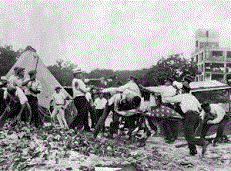





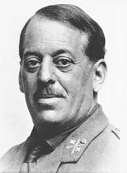


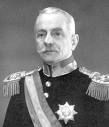



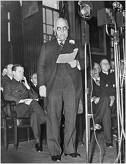

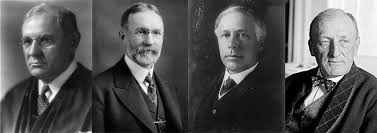







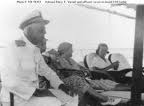




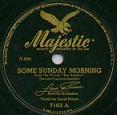







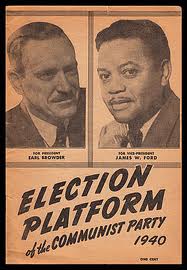



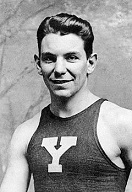









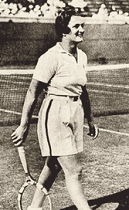







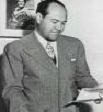


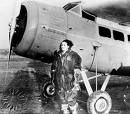






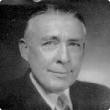








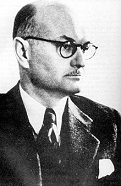
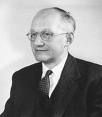
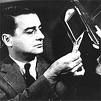

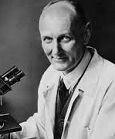


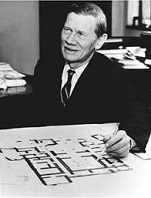



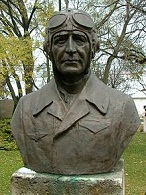



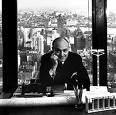
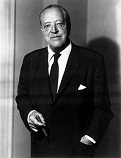
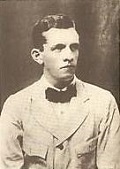



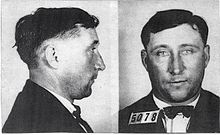



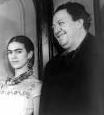


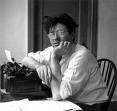


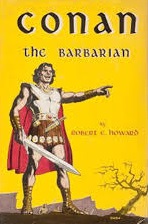




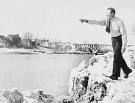


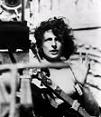




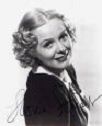
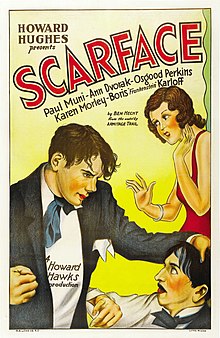
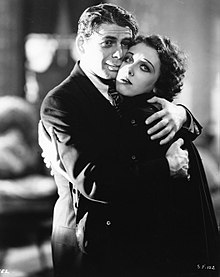


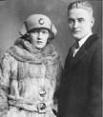









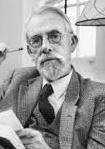






















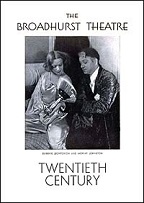
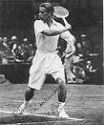


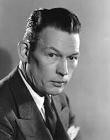

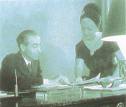
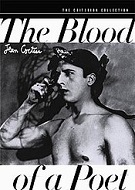



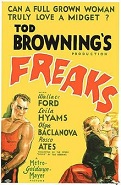



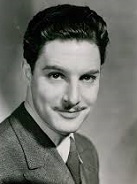

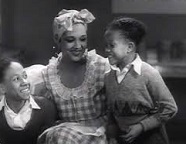

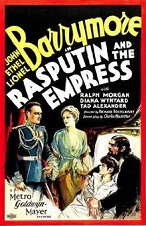
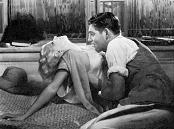

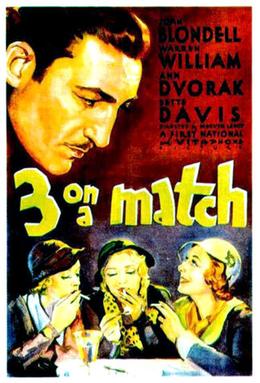
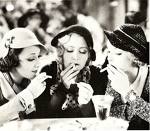
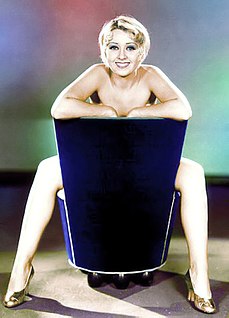






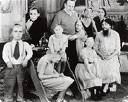
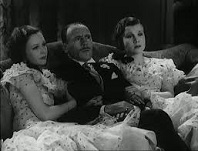
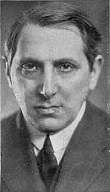
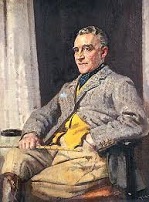
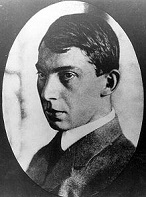

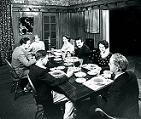
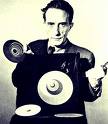





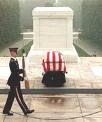



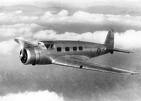
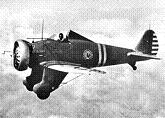
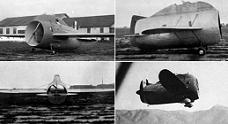
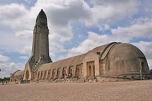
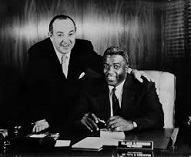
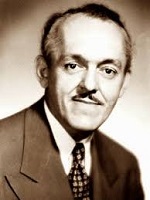
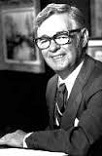
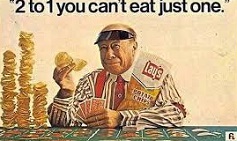

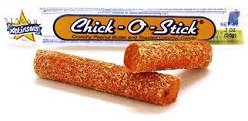
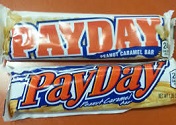
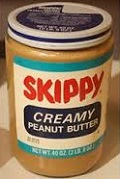
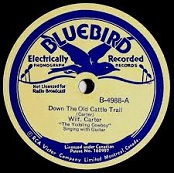
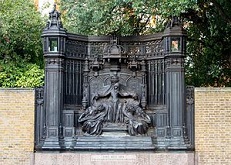
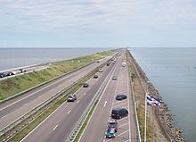
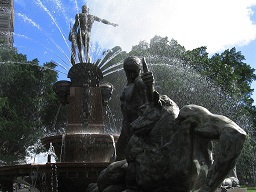
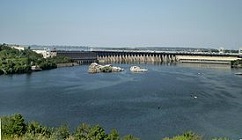
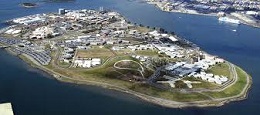
1932
Chinese Year: Monkey.
Time Mag. Man of the Year: Franklin Delano Roosevelt (1882-1945) (1934, 1941).
Speaking of monkeys, the British declare the Indian Nat. Congress illegal and arrest Time Mag. Man of the Year Gandhi.
Unemployment: World: 30M, U.S.: 13.7M, Britain: 2.8M; one out of every four families in the U.S. are on relief; 12M (24%) of the U.S. workforce is unemployed;
5.7K U.S. banks fail this year.
The Allies agree to reduce Germany's reparation payments by 90% if U.S. will do the same for their war debts.
This year no rain falls on the Great Plains, turning it into a great Dust Bowl; in Jan. a black dust cloud 10K ft. high begins outside
Amarillo, Tex., then blows into the city on Jan. 21 on the way to Okla., looking like "a range of mountains on the move"
with "an edge like steel wool", causing the pop. to complain that if the sodbusters can't keep their dirt in place, someone should pave it over or park used cars on it;
the storms become permanent for the next decade, which become known as the Dirty Thirties.
Early in the year the Ukrainian Famine (Holodomor)
in Ukraine, breadbasket of the Soviet Union begins (until 1933), caused by the deliberate policies of hard-as-steel Stalin known as the
Second Five-Year Plan,
really a plan to exterminate the pesky independent kulak class of independent farmers by stealing their food and having them eat the
seed and breeding stock before starving to death; on Mar. 29, 1933 Welsh journalist Gareth Jones (1905-35)
becomes the first to break the story to the West, causing longtime English Moscow correspondent Walter Duranty (1884-1957)
to pub. an article two days later in the New York Times titled "Russians hungry but not starving", after which Jones pub. a rebuttal, causing the Soviet Union to ban him
and later get him killed in Mongolia; meanwhile Stalin ass-kisser Duranty is awarded a Pulitzer Prize in 1932 for his New York Times reports denying the famine, causing
many to later call to have it revoked.
On Jan. 1 USC defeats Tulane by 21-12 to win the 1932 Rose Bowl.
On Jan. 7 U.S. secy. of state (1929-33) Henry Lewis Stimson (1867-1950) notifies the signatories to the 9-power treaty
of Feb. 4, 1922 that the U.S. will not recognize gains achieved through force contrary to the Pact of Paris of Aug. 27, 1928; the U.S. Congress
officially passes the Stimson Doctrine - another V for Yale U.'s Skull & Bones Society?
On Jan. 22 Communist uprisings among the aboriginal Pilpil Indians
set to begin in W El Salvador are found out and suppressed by Gen. Maximiliano Hernandez Martinez, killing 4K, followed by
La Matanza (The Massacre),
in which 30K are killed by the govt. for suspected Communist leanings, incl. their leader Augustin Farabundo Marti (b. 1893); to avoid total
extermination, the Pilpil Indians, who were there before the Spanish arrived in 1524 suddenly go Hispanic, adopting the Spanish language
and Western dress, and intermarrying with other groups, until by the end of the cent. pure Indians comprise less than 1% of the pop. - how
do you like your coffee with your bitter bitter pilpil?
On Jan. 23 New York Gov. Franklin D. Roosevelt announces his candidacy for the Dem. pres. nomination.
On Jan. 23 the govt. of Spain dissolves the Jesuits (Co. of Jesus), and closes down the Jesuit-run U. of Deusto in Bilbao, turning it into a military base,
hospital, and concentration camp until Oct. 1940.
On Jan. 28 the Shanghai War
begins after five Japanese monks sing Japanese patriotic songs in a Chinese factory in Shanghai, causing a riot during which one of them
is lynched, causing the Japanese to send 1.2K marines and attack the Chinese nationalists under Gen.
Cai Tingkai (1892-1968);
after the Japanese bring in 55K reinforcements the Chinese surrender after 34 days (Mar. 2); 18K civilians are killed and 240K lose their homes.
In Jan. the Jesuit order in Spain is dissolved by the Republican govt.
On Feb. 4-15 the Third (3rd) (1932) Winter Olympic Games
are held in Lake Placid, N.Y., with athletes from 17 countries competing in 14 events and three demo events, curling, sled dog race, and women speed skating;
the U.S. participates for the 1st time, and wins 6 golds, 4 silvers, and 2 bronzes (12 total, the most); on
Feb. 15 U.S. bobsledder Edward Patrick Francis "Eddie" Eagan (1898-1967)
becomes the first athlete to win gold in both the Summer and Winter Olympics (1920 boxing gold) (until ?).
On Feb. 7 (Sun.) (dawn) a fake attack on Pearl Harbor on Oahu, Hawaii called Fleet Problem 13 is staged by U.S. rear Adm.
Harry Ervin Yarnell (1875-1959),
using storm as a cover at dawn and launching 152 planes from the NE (same as the Japanese did on Dec. 7, 1941),
using flour sacks as bombs, ending in a complete V for the attackers; despite this, the umpires report that
"... it is doubtful if air attacks can be launched against Oahu in the face of strong defensive aviation without subjecting
the attacking carriers to the danger of material damage and consequent great losses in the attack air force."
23 skidoo?
On Feb. 8 bootlegger Dutch Schultz and/or Hell's Kitchen Irish Mob boss Owney Madden have 23-y.-o. Irish-born mob assassin
Vincent "Mad Dog" Coll (b. 1908)
(known for accidentially shooting 5-y.-o. Michael Vengali on July 28, 1931, causing the mayor of New York City to give him his name,
and making him a wanted fugitive until he was captured, tried, and acquitted in Dec. 1931) murdered at a phone booth at
8th Ave. and 23rd St. in New York City; on Oct. 23, 1935 Schultz is assassinated, and his murderer serves 23 years in priz.
On Feb. 18 a Japanese military puppet regime declares the independence of
Manchukuo (Manzhouguo) (Great Manchu Empire) (until 1945),
under puppet (the last Chinese emperor) Henry Puyi, causing China to call for help to the League of Nations; Manchus are actually a minority, the majority being Han.
On Feb. 20 former PM (1929-30) Andre Tardieu becomes PM of France again (until June 3).
On Feb. 22 (200th anniv. of Pres. George Washington's birthday) the U.S. War Dept. announces the revival of the
Purple Heart,
originally established by Washington on Aug. 7, 1782, under the name Badge of Military Merit and awarded only to three Am. Rev. soldiers before following into disuse;
the new one has Washington's profile on one side and the inscription "For military merit" on the other.
On Feb. 22 baseball star pitcher Walter "the Big Train" Johnson (1887-1946)
throws a silver dollar over the 317-ft. Rappahannock River in commemoration of the 200th anniv. of George Washington's birthday.
On Feb. 27 after 12K pages of transcripts are submitted by FDR's special
Pecora Commission,
led by investigator Ferdinand J. Pecora (1882-971)
(an immigrant to New York City from Sicily), chief counsel to the U.S. Senate Committee on Banking and Currency, the
U.S. Glass-Steagall Banking Act
is signed by Pres. Hoover, attempting to prevent another depression by drawing a line between investment and commercial banking, increasing the
amount of credit Federal Reserve Banks can extend, allowing commercial paper to be used as a reserve; repealed in 1999.
On Feb. 27-Mar. 7 the fascist Lapua org. in Finland stages the failed
Mantsala Uprising,
attempting to crush the Communists; Gen. Kurt Wallenius is arrested, and on Nov. 21 he is convicted along with over 50 Lapua leaders, and the org.
disbanded - if it were only that easy in Germany, Italy and Spain?
On Feb. 29 the Protective Tariff Acts
are passed in Britain, incl. a new corn law guaranteeing British farmers $1 a bushel for homegrown wheat; Britain abandons free trade.
On Mar. 1 20-mo.-old eldest son Charles Augustus Lindbergh Jr. (b. 1930)
is kidnapped from the family home near Hopewell, N.J.; his remains are found on May 12 in a wooded area in Hopewell; some
claim that he really survived and grew to maturity.
On Mar. 2 liberal U.S. Supreme Court justice Oliver Wendell Homes Jr. is replaced by Pres. Hoover with liberal agnostic Jewish Columbia-educated
Benjamin Nathan Cardozo (1870-1938)
as U.S. Supreme Court justice #75 (until July 9, 1938), joining liberal justices
Louis Dembitz Brandeis (1856-1941)
and Harlan Fiske Stone (1872-1946) and becoming known as the
pro-New Deal Three Musketeers,
retaining the 6-3 conservative majority; he is confirmed by a unanimous voice vote in the Senate on Feb. 24 after the deans of the Harvard, Yale, Columbia,
and U. of Chicago law schools endorse him, and justice Harlan Fiske Stone offers to give up his seat for him, becoming Hoover's greatest appointment?;
the Three Musketeers start a war (ends 1937) with the conservative anti-New Deal
Four Horsemen,
incl. justices Pierce Butler (1866-1939),
James Clark McReynolds (1862-1946),
Alexander George Sutherland (1862-1942), and
Willis Van Devanter (1859-1941),
with Justice Owen Josephus Roberts (1875-1955) controlling the balance.
On Mar. 3 the XX (20th) (Lame Duck) Amendment
to the U.S. Constitution, sponsored by Repub. "Fighting Liberal" George W. Norris of Neb. is sent to the states by the 72nd Congress, fixing the
terms of the U.S. pres. and vice-pres. as Mar. 4-Jan. 20, and the Congress as Mar. 4-Jan. 3, determining what is to be done when there is no pres.-elect;
too bad, it has a hole allowing Congress to hold lame duck sessions anyway (until ?); it is adopted on Jan. 23, 1933, and takes effect on Oct. 15.
On Mar. 7 French Socialist statesman Aristide Briand (b. 1862) dies unexpectedly, and on May 6 French pres. Paul Doumer (b. 1857)
is shot by Russian emigre Paul Timofeevich Gorguloff (b. 1895),
and dies on May 7 at 4:37 a.m.; on Sept. 14 Gorguloff is beheaded by guillotine in Paris, his last words being "Russia, my mother country"; on Apr. 15
Albert Francois Lebrun (1871-1950)
of the Dem. Alliance is elected pres. #15 of France (until July 10, 1940), and is sworn-in on May 10; in May elections give the left parties a majority; on
June 3 Edouard Herriot becomes PM for the second time, but resigns in Dec. after the chamber refuses to pay the scheduled
debt installment to the U.S.; five ministries follow in the next 13 mo., all trying to balance the budget, control inflation, and keep France on
the gold standard; meanwhile a system of family allowances is created to aid poor families and bolster the low birth rate (denatalite) (dénatalité).
On Mar. 11 the last known Heath Hen
(East Coast relative of the prairie chicken) dies in Martha's Vineyard, Mass. at the age of eight - choked on the dust?
On Mar. 12 Swedish billionaire Match King Ivar Kreuger (b. 1880) commits suicide in Paris after going bankrupt, with $250M in fake
paper assets later discovered, causing the worldwide Kreuger Crash,
becoming the greatest stock fraud until Enron.
On Mar. 13 Paul von Hindenburg fails to win a clear majority in the election for the German presidency, getting 18,651,497 votes to 11.3M
for Hitler and 4,983,341 for Thalmann (Communist); on Apr. 10 another election is held, and von Hindenburg is reelected pres. with a clear
majority of 24M votes out of 36M cast- it's time for Hitler to sell his soul to the Devil?
On Mar. 14 the Congress of Arab Music
holds its first meeting in Cairo, becoming the first effort to codify and preserve the Arab music tradition.
On Mar. 17 107K-acre Great Sand Dunes Monument
in the San Luis Valley in E Alamosa County and Saguache County in S Colo. is estabished; on Sept. 24, 2004 41.7K more acres are added, becoming
Great Sand Dunes Nat. Park and Preserve.
On Mar. 25 Rama Varma XVI (b. 1858) dies, and
Sir Sri Rama Varma XVII (Chowarayil Theepeta Thampuran) (1861-1941)
becomes king (maharaja) of Cochin in SW India (until May 23, 1941).
In Mar. Communist guerillas under Mao Zedong (Tse-tung) occupy Zhangzhou
near Taiwan; in Apr. after Western gunboats in Xiamen Bay prevent Soviet arms shipment from the Jiulong River, they retreat with mucho booty.
On Apr. 3 the SA and SS are banned in Germany.
On Apr. 9 the Tomb of the Unknown Soldier (Unknowns)
at Arlington Nat. Cemetery in Washington, D.C. is opened to the public without ceremony; an inscription on the marble crypt
reads "Here Rests in Honored Glory an American Soldier Known But to God"; the marble is supplied by
Rex Loesby, owner of a Colo. quarry.
On Apr. 13 the Nazi propaganda film Der Fuehrer (Volk and Fuehrer)
is released, created by Fox Movietone, giving many Germans their first dose of Hitler and helping the Nazis add 19% to their vote total in the July 31
parliamentary election, giving them 38%; on Aug. 30 the Fox Movietone film Hitler's Struggle for Germany (Hitlers Kampf um Deutschland)
is released. On Apr. 23 the Shakespeare Memorial Theatre
opens in Stratford-upon-Avon, England on guess who's birthday.
On Apr. 24 the Mass Trespass of Kinder Scouts
sees protesters challenge silly British restrictions on access to public footpaths, resulting in changes in the law.
On Apr. 30 Adolf Hitler signs a secret pact with Satan,
giving him absolute rule over Germany and most of Europe in return for surrendering his soul in 13 years; Allied Forces find the contract in an old trunk in 1945. :)
In Apr. elections in Prussia give a D to the Social Dems., last bastion of the Weimar Repub., but since the Nazis and Communists won't form a coalition govt., it remains in office as a caretaker govt.
On May 2 The Jack Benny Program,
starring miserly violin-playing forever-39-years-old ("Well!") Jack Benny (Benjamin Kubelsky) (1894-1974)
debuts on NBC Radio, sponsored by Canada Dry Ginger Ale, moving to CBS Radio on Oct. 30, then moving back to NBC Radio on Mar. 17, 1933, sponsored by Chevrolet, Gen. Tire, Jell-O, Grape Nuts Flakes,
and Lucky Strike cigarettes; it ends on May 22, 1955 after making its CBS-TV debut on Oct. 28, 1950 (until Apr. 16, 1965).
On May 13 the gov. of New South Wales, Australia dismisses Labour Party PM (since 1930) John Thomas "Jack" Lang (1876-1975),
becoming the first-ever dismissed (until ?).
On May 15 Japanese PM Inukai Tsuyoshi is assassinated in a military coup which is quickly crushed; a nonpartisan cabinet is formed under Adm. Viscount
Saito Makoto (1856-1936), who on May 26 becomes PM #30 (until July 8, 1934),
with Gen. Araki Sadao as war minister and Takahashi Korekiyo as finance minister, becoming the end of party govt. in prewar Japan.
On May 20 5'0" Engelbert Humperdinck, er, Adollfuss Hitler, er, Engelbert Dollfuss (1892-1934) of the
conservative Christian Social Party becomes chancellor #14 of Austria (until July 25, 1934), establishing a system of Austrofascism and looking to get support from Italy to balance Germany,
calling Nazism too similar to Stalinism and nowhere near as cool as Italian Fascism, making him a problem to the Nazis, who plan to get him out of the way with a fifth column.
On May 20 Atchison, Kan.-born freckle cream-using coffee-hating Amelia Earhart (1897-1937)
takes off from Harbor Grace, Newfoundland for Ireland in a Pratt & Whitney Wasp-powered Lockheed Vega to become the first woman to fly solo across the Atlantic,
and arrives in approx. 15 hours on May 21, becoming the first woman to receive the Distinguished Flying Cross - no ticker tape parade?
On May 31 Paul von Hindenburg appoints Catholic Center Party head
Franz Joseph Hermann Michael Maria von Papen (1879-1969)
as chancellor of Germany on June 1 (until Nov. 17); he soon begins trying to win the support of the Nazi Party by lifting the ban on the Storm Abteilung (SA) and deposing
the Social Dem. Party in Prussia.
On May 31 the Awali Oil Field
is discovered in Bahrain by the Bahrain Petroleum Co. (BAPCO)
(founded in Canada in 1929 by Standard Oil. Co. of Calif.), causing Bahrain to increase ties with Britain and rapidly modernize; in 1936 Standard Oil. Co. of Calif.
sells half its shares to Texaco; in 1975 the govt. of Bahrain obtains 60% of the shares, founding the Bahrain Nat. Oil. Co. in 1976, acquiring 100% of the shares 1980 and
merging it in 1999 with BAPCO to become the Bahrain Petroleum Co.
In May Misr Air, the nat. airline of Egypt is founded.
In May-June the 45K-man Bonus Army (Expeditionary Force)
of WWI servicemen marches on Washington, D.C. demanding early payment of bonus certificates they aren't scheduled to receive until 1945 under the 1924 World War Adjusted Compensaction Act;
after the bill is defeated in the U.S. Senate and the govt. offers to pay their expenses to return home and is rebuffed, Pres. Hoover orders federal troops to evict the last 2K from
federal property, a job which Gen. Douglas MacArthur (1880-1964)
does with a little too much relish on July 28, costing Hoover politically, after which Congress passes several bonus bills that are vetoed by him and FDR until 1936;
Gen. Smedley Butler later claims the existence of the 1933 Business Plot (Wall Street/White House Putsch) in July 1934, in which
two wealthy industrialists offer him $30M and 500K troops along with support of the mainstream media to lead a coup against FDR and remove him from office in favor of a fascist regime,
after which he testifies before the House of Reps, and the McCormack-Dickstein Committee
backs him up, but no surprise, the mainstream media slams him, with the New York Times calling Butler's story "a gigantic hoax", after which FDR cuts a deal with the plotters.
On June 3 German pres. Hindenburg dissolves the Reichstag.
Danger to the left of me, danger to the right, here I am caught in the middle with you?
On June 14-16 the 1932 Repub. Nat. Convention
in Chicago, Ill. renominates Herbert Hoover and Charles Curtis despite the Depression making his name a punchline, with terms incl. Hooverville and Hoover Flag
(empty pocket turned inside-out); the party platform incl. reduced govt. spending, a balanced budget, a high tariff, and
maintenance of Prohibition; on June 27-July 2 the 1932 Dem. Nat. Convention
is held in Chicago Ill.; after promising a transition to Socialism with the soundbyte: "The first obligation of government is the protection of the welfare and well-being,
indeed the very existence of its citizens", 2-term New York gov. Franklin Delano Roosevelt fails to get the necessary two-thirds majority (770) on the first three ballots
due to holdouts for "Happy Days Are Here Again" conservative Al Smith; on the 4th ballot Marietta, Ga.-born Calif. Sen. (1933-8)
William Gibbs McAdoo Jr. (1863-1941)
throws his Calif. delegation to Roosevelt, and Red River County, Tex.-born Tex. rep. (since Mar. 4, 1903) (lukewarm on the New Deal and an isolationist)
John Nance "Texas Jack" Garner IV (1868-1967), "the Texas Coolidge" (poor speaker) throws his
Tex. delegation to Roosevelt in return for being nominated for the vice-pres. job, which he later compares to "a pitcher of warm spit", and Roosevelt
receives 945 to 190 for Smith; Garner backer William Randolph Hearst is instrumental in getting Garner to switch to Roosevelt because Hearst dislikes Roosevelt
but hates Smith more?; on July 2 FDR flies for 9 hours in a Ford trimotor plane from Albany, N.Y. to Chicago to accept at Chicago Stadium, issuing the soundbyte:
"I pledge you, I pledge myself to a New Deal for the American people", introducing his quasi-Socialist
New Deal program at the stadium and later that evening on nat. radio; the Dem. Party platform
calls for reduced govt. spending and a balanced budget, but is also for lower tariffs and repeal of Prohibition; the campaign slogan is
"In Hoover we trusted, now we're busted"; FDR tells an advisor that budding fascist Huey P. Long is "one of the two most dangerous men in the country",
along with Gen. Douglas MacArthur; meanwhile freelance journalist Albert Jay Nock (1870-1945)
leads the intellectual criticism of the New Deal, later becoming a favorite of William F. Buckley Jr.'s daddy - don't nock it till you try it?
On June 16-July 9 the 1932 Lausanne Conference
reduces German reparations for WWI from $25B to $2B, with strong indications that even this sum won't have to be paid in full by 1961;
too bad, Hitler has been using the Treaty of Versailles to whip up support so long that it's too late for him to change.
On June 22 Congress passes the U.S. Little Lindbergh Law (Federal Kidnapping Act),
giving the death penalty for kidnapping across state lines for ransom with bodily harm, not necessarily murder;
too bad, states get too eager, passing their own versions providing a death penalty for kidnapping with bodily harm within state borders,
allowing corrupt prosecutors to railroad almost anybody up to the greatest golfer on Earth until the U.S. Supreme Court stops it in the 1970s.
On June 24 the bloodless
Promoters Rev.
in Thailand led by the People's Party of
Pridi Banomyong (Phanomyong) (1900-83)
causes the 700-y.-o. absolute monarchy (150 under the Chakri Dynasty) to be replaced by a constitutional one
with universal suffrage; after trying to nationalize the country, Pridi is accused of Communism and goes into voluntary
exile, then returns in 1934, becoming minister of foreign affairs in 1935-7, signing treaties revoking extraterritorial
rights of 12 countries, ending the unequal treaties signed under duress by Rama IV.
In June after Bolivian pres. Daniel Salamanca Urey tries to fire up the dispute with Paraguay over the uninhabited desert
Gran Chaco region as a diversion from the bad economy, and oil is discovered in Bolivia, making the Bolivians think that
Paraguay has some too, causing them to try to set up a military fort in Gran Chaco at Lake Pitiantuta, the
Gran Chaco War
begins (ends 1935) between dual land-starved countries Paraguay and Bolivia, becoming South Am.'s bloodiest 20th cent. war.;
the Chaco Boreal, Bolivia's E lowlands (believed to contain oil reserves) are the target.
In the summer the Sicherheitsdienst (Security Service) des Reichtsfuhrers-SS
is founded by the German Nazi Party, with Reinhard Heydrich as dir. #1 (until 1943), becoming a sister org. to the Gestapo and growing
to 6,482 employees by Feb. 1944; after the war it is declared a criminal org.
On July 1 the Australian Broadcasting Corp. (ABC)
is established.
On July 2 German-Am. Jewish MGM studio exec Paul Bern (Levy) (b. 1889)
marries glamorous actress Jean Harlow, then on Sept. 5 commits suicide, found naked and shot in the head in their secluded driveway
on Easton Dr. in Beverly Hills, Calif. with a note saying "Last night was only a comedy", becoming a big scandal for MGM when
she refuses to talk, and his former common-law wife Dorothy Millette (b. 1886)
commits suicide on Sept. 7 by jumping in the Sacramento River after taking her shoes and jacket off; the official story is suicide
because of sexual impotence; mob-connected MGM vice-pres. Edgar Joseph "Eddie" Mannix (1891-1963)
(who is later implicated in the death of George Reeves but is not charged) becomes a suspect but is never charged; she wouldn't let
the animal perform perverted sex on her so he ended it?; he was impotent, so that's why he ended it?; murdered by Millette?; a studio coverup,
with the suicide note really being an earlier makeup note?
On July 5 studious finance minister (since Apr. 28, 1928)
Antonio (António) de Oliveira Salazar (1889-1970)
is elected PM #100 of Portugal (until Sept. 25, 1968), becoming a dictator who rules with a strong hand along with his elder protege-pres.
Gen. Antonio Oscar Oliveira Salazar de Fragoso Carmona (1869-1951),
founding the anti-Communist pro-Roman Catholic Estado Novo (New State) (ends 1974),
with the motto: "God, Fatherland, and Family", going on to support Gen. Franco in the Spanish Civil War, and stay neutral during WWII; Salazar's
doctrine of Pluricontinentalism
claims that the Portuguese Empire is not a colonial empire but a single nation-stte spread across the continents.
On July 8 the Dow Jones Index bottoms out at 41.22.
On July 8 the 1932 Lausanne Agreement
reduces German reparations for WWI from $25B to $2B, with strong
indications that even this sum won't have to be paid in full by 1961;
too bad, Hitler has been using the Treaty of Versailles to whip up
support so long that it's too late for him to change.
On July 17 Altona Bloody Sunday
sees a shootout between Nazi demonstrators and Communists in Altona, Hamburg, Germany, killing 18; on July 20
after chancellor Franz von Papen sees his chance to replace their foreign-dictated govt. with a nationalist one, the
Prussian Coup (Preussenschlag)
sees German pres. Paul von Hindenburg dismiss the leftist govt. of Prussia under PM (since 1920)
Otto Braun (1872-1955),
with von Papen assuming direct control as Reich commissioner, resulting in a court case, with
Carl Schmitt (1888-1985)
("Crown Jewel of the Nazi Reich") as atty. for Germany, and
Hermann Heller (1891-1933) (a Jew)
as atty. for Prussia; the Prussian govt. loses, ending federalism in the Weimar Repub.;
Braun flees for Switzerland after Hitler becomes chancellor next Jan., and Hermann Goring becomes PM of Prussia until 1945.
On July 18 Belgium enacts new language regs, making French the admin. language of the Walloon provinces and Flemish the admin. language of Flanders.
On July 18 the Ouchy Convention
between Belgium, Holland, and Luxembourg agrees to gradual reductions of mutual economic barriers - ouchy, ouchy, slow down?
On July 21-Aug. 18 the Imperial (British Empire) Economic Conference
in Ottawa, Canada results in seven bilateral treaties with Great Britain, attempting to stifle any remaining vestiges of free trade in the
British Commonwealth, leading to the resignation on Sept. 28 of the free trade Liberal members of the cabinet, who form an opposition led by
Sir Herbert Louis Samuel, while the Liberals who stay are led by Sir John Allsebrook Simon, 1st Viscount Simon (1873-1954).
On July 22 the U.S. Congress passes the U.S. Federal Home Loan Bank Act
to promote home ownership, establishing the Federal Home Loan Bank System,
the Federal Home Loan Bank Board (FHLBB), and 12 Federal Home Loan Banks (FHLB).
On July 27 Hitler gives a speech in the Brandenburg Stadium
in Eberswalde, becoming a classic of psychological manipulation, calling for the elimination of the 30+ other political parties, with the soundbyte
"We are intolerant... We have one goal before us, to fanatically and ruthlesslyshove all these parties into the grave."
The Babelympics?
On July 30-Aug. 14, 1932 the Olympic Flame is inaugurated in the X (10th) Summer Olympic Games
in Los Angeles, Calif., held smack dab in the middle of the Great Depression, causing less than half of the 1928 participants to attend, even being
stood up by Pres. Herbert Hoover, becoming the first Olympic Games not attended by the sitting head of the govt. of the host country, which
doesn't stop them from making $1M profit; 1,332 athletes from 37 nations participate in 116 events in 14 sports;
the first Olympic Village is built in the Baldwin Hills (men only); the first use of a victory podium; Jim Thorpe is a press reporter at
the Games; Paavo Nurmi is banned for being a pro; the U.S. wins bronze in field hockey because there are only two other nations competing (India gold, Japan silver);
Thomas Edward "Eddie" Tolan (1908-67) ("the Midnight Express") of the U.S.
wins gold in the 100m and 200m, becoming the first African-Am. world's fastest human;
Stanislawa Walasiewicz (Stella Walsh) (1911-80) of Poland wins gold in the women's 100m, and after her
death it's discovered that she's intersex; Baron Takeichi Nishi (1902-45) of Japan
wins a gold in the equestrian show jumping individual event on his horse Uranus, becoming a tank unit cmdr. and getting KIA during the Battle of Iwo Jima;
"unnatural" (not delicate or feminine) Port Arthur, Tex.-born Mildred Ella "Babe" Didrikson (1911-56)
("the female Babe Ruth") sets four world records in one afternoon during the Olympic trials, then sets world records in the javelin throw (143' 4") and 80m hurdles (11.7 sec.)
for two golds, then wins a silver in the high jump (nobody's perfect?); she earns All-Am. honors in basketball 1930-2, appears in vaudeville, then takes up golf;
actress-swimmer Eleanor G. Holm (1913-2004)
wins gold in the 100m backstroke, setting a world record in that plus the 200m backstroke, then despite having not lost a race in seven years and being the
first female swimmer chosen for three U.S. Olympic teams, she is unceremoniously thrown off the team in 1936 by Avery Brundage after being caught drinking, shooting craps,
and singing in cabarets past the 9 p.m. curfew on the boat trip to Germany, although if a man did it no action would have been taken?;
the publicity makes her a star with the press, and she meets Adolf Hitler and Hermann Goering, who gives her a silver swastika, which she has
later copied in gold with a diamond Star of David inside it after she marries Jewish hubby Billy Rose in 1939; they divorce in 1954.
On July 31 the German Reichstag elections give the Nazis 230 seats, the Socialists 133, Center Party 97, and Communists 89; no majority is possible since the Nazis and Communists won't cooperate.
On Aug. 7 the Ossuary of Douaumont
in Verdun, France is dedicated by French Pres. Albert Lebrun, containing the bones of
130K unidentified French and German WWI soldiers, along with the graves of 15K identified
French soldiers; the Verdun Trench of Bayonets
is a memorial to a platoon of French soldiers buried alive by artillery, who are later
located by their protruding rifles and bayonets.
On Aug. 10 after being demoted from head of the civil guard to head of customs, toothbrush mustachioed Gen.
Jose Sanjurjo y Sacanell (1872-1936),
a political opponent of Manuel Azana joins the Carlists in the rightist monarchist
Sanjurjada Revolt
in Spain, seizing Seville, but Repub. troops quickly suppress it after it fizzles in Madrid; Sacanell is captured and given a death sentence,
commuted to life imprisonment, after which on Apr. 20, 1934 he is granted amnesty and goes into exile in Estoril, Portugal.
On Aug. 13 Hindenburg rejects Hitler's claim to be appointed German chancellor, and Hitler rejects his offer to become vice-chancellor under Papen.
On Aug. 18 Scottish pilot James Allan "Jim" Mollison (1905-59)
flies a De Havilland Puss Moth from Portmarnock, Ireland to Penfield, New Brunswick, becoming the first transatlantic solo flight in the E-W direction.
In late summer a 200-page memo written by Mikhail Riutin
calling for the removal of Stalin from power is secretly approved by a number of Soviet Communists led by
Nikolai Bukharin (1888-1938);
too bad, when Stalin finds out he neutralizes them by Oct., and goes over the paranoid barrier to enough-talk-let's-get-it-going?
On Sept. 1 after corruption allegations lead to an investigation by the Seabury Commission, resulting in pressure from Gov. Franklin Delano Roosevelt,
New York City mayor (since 1926) (former Tin Pan Alley songwriter)
James John "Jimmy" "Beau James" Walker (1881-1946)
resigns and flees to Europe, then after the heat dies down returns to the U.S. and becomes head of
Majestic Records,
which he mismanages, causing it to fold in 1948; his life is portrayed in the 1957 film "Beau James" starring Bob Hope based on the bio. by Gene Fowler.
On Sept. 3 Pascual Ortiz Rubio resigns over a difference with Gen. Calles, and on Sept. 4 hand-picked Gen.
Abelardo Lujan Rodriguez (1889-1967)
becomes interim pres. of Mexico (until Nov. 30, 1934).
On Sept. 12 the German Reichstag is dissolved after a no confidence motion passes by 512-42.
On Sept. 14 the Belgium govt. is given extraordinary power to deal with the budget deficits
caused by the worldwide drepression and the cessation of German reparations payments, and it
pressures employers to stabilize failing wages.
On Sept. 16 (Fri.) after her RKO film "Thirteen Cousins" (debuts Oct. 14)
(playing Hazel Cousins) receives poor test screenings, 24-y.-o. Welsh-born blonde-blue actress
Millicent Lilian "Peg" Entwistle (b. 1908),
ex-wife of actor Robert Keith (father of actor Brian Keith) jumps to her death from
the last letter of the white HOLLYWOODLAND sign overlooking Hollywood on Mt. Lee
(built in 1923 to advertise a real estate development);
her suicide note says "I am afraid, I am a coward. I am sorry for everything. If I had done
this a long time ago, it would have saved a lot of pain. P.E."; in 1949 the last four letters
are taken down; on Sept. 20 a letter arrives from the Beverly Hills Playhouse offering her
the lead role in a production in which her char. commits suicide in the final act.
On Sept. 25 elections in Greece are a V for the royalists against the Liberal
Party Venizelists because of the Great Depression, and on Oct. 31 the
Venizelos Era
in Greece (begun 1909) comes to an end with the resignation of 68-y-o. PM Eleutherios Venizelos (although he tries a couple of short comebacks);
on Nov. 4 Panayotis (Panagis) (Panagiotis) Tsaldaris (1868-1936),
leader of the right-wing People's Party that was thrown out in 1922 becomes PM (until 1933) of a moderate royalist cabinet that
recognizes the 1924 plebiscite establishing the Second Hellenic Repub. in order to shut the Venizelists up; too bad, leaders of the People's Party
are implicated in an assassination attempt against Venizelos and express monarchist opinions, while he officially denies everything.
On Sept. 25 the Catalan Charter of Autonomy
grants Catalonia its own govt. and flag, and recognizes Catalan as the official language; the Catalan parliament meets in Dec.; their
success causes the car door-eared Basques and others to make their own demands.
On Sept. 28-Oct. 2 the New York Yankees (AL) defeat the Chicago Cubs (NL) 4-0 to win the
Twenty-Ninth (29th) World Series;
Yankees mgr. (1930-46) Joseph Vincent "Marse Joe" McCarthy (1887-1978)
goes on to lead them to 4 WS Vs in 1936-9; on Oct. 1 New York Yankee slugger Babe Ruth hits a
called homer
off Charles Henry "Charlie" Root (1899-1970)
of the Chicago Cubs at Wrigley Field in the 4th inning of Game 3 after allegedly "calling the shot", pointing to the centerfield
bleachers and doing what he promised after 2 strikes and 2 balls; Ruth's last WS homer (15th, broken by Mickey Mantle with 18);
the called-shot ball is lost, and is estimated to be worth $2M by the end of the cent.
In Sept. the Spanish Repub. govt. begins redistribution of the large estates of the aristocracy, causing the rightists (fascists, Carlists, monarchists) to retrench.
In early Nov. after the surprise resignation of Jimmy Walker, Tammany Hall's candidate
John Patrick O'Brien (1873-1951)
beats acting mayor Joseph V. Mckee by 500K votes, and on Jan. 1 he is sworn-in as mayor #98 of New York City (until Dec. 31, 1933), uttering the soundbyte about who will
be the next police commissioner "I don't know. They haven't told me yet."
On Nov. 2 the (Great) Emu War begins (ends Dec. 10), seeing Australian troops attempt to reduce the pop. of pesky emus
in the Campion district of Western Australia with Lewis guns, giving up after failing and allowing the emus to gobble up crops.
On Nov. 6 an election fails to break the deadlock in the German Reichstag after the the Nazis lose 34 seats, giving them 196, and the Communists gain some seats.
First Hoover, then Landon, Wilkie, and Dewey?
On Nov. 8 (Tue.) after a campaign in which Hoover predicts that if his opponent is elected, "grass [would] grow in the streets of a hundred cities,
a thousand towns", and Roosevelt counters that his economic reconstruction program is "from the bottom up and not from the top down,
that puts the faith once more in the forgotten man at the bottom of the economic pyramid", the
1932 U.S. Pres. Election
sees Franklin Delano Roosevelt (1882-1945)
win by a landslide, 52.5% of the electorate voting for pres., and FDR receiving 22.8M popular (57.4%) and 472 electoral votes vs. Hoover's 15.8M popular (39.7%)
and paltry 59 electoral votes; the Dems. win control of both houses of Congress, giving FDR a blank check to engage in "bold, persistent experimentation";
the first pres. whose mother votes in the election; Hoover utters the soundbyte "I knew from the bitter experience of all public men from Washington on down,
that democracies are fickle and heartless, for democracy is a harsh employer"; the 4 mo. period until FDR takes over leaves lame duck Hoover swinging in the wind
as FDR refuses to let him take joint action in both of their names and risks things getting worse in the short run for long range credit, causing the Dems. to
block Hoover's legislative efforts to alleviate the nation's misery, since by now Hoover's name is mud, with newspapers are already known as "Hoover blankets",
and empty pockets turned inside out as "Hoover flags";
William Zebulon Foster (1886-1961) (white) and
James W. "Jim" Ford (1893-1957) (black)
become the pres. and vice-pres. candidates for the Communist Party USA, with the slogan "Equal rights for negroes everywhere"; Ford becomes the first U.S. black U.S. pres. candidate.
On Nov. 9 labor strikes in Geneva, Switzerland are crushed by the govt.
On Nov. 11 a ceremony celebrating the signing of the WWI Armistice in 1918 is held in Gen. Foch's railway carriage in the Forest of Compiegne, with a new monument showing the
German eagle being cut down by a sword, and an inscription saying that the boastings of the German Empire had been brought low; in 1940 Hitler forces the French to sign his
armistice in the same carriage.
On Nov. 16 after winning by 20K votes and quashing a revolt by disgruntled former pres. (1919, 1929-33) Vicente Mejia Colindres, former pres. (1934) Gen.
Tiburcio Carias Andino (1876-1969) of the Nat. Party becomes pres. of Honduras (until 1949),
going on to become a long-lasting (longest ever in Honduras) dictator, facing a drop in the banana market combined with Panama and Sigatoka disease,
and pumping up the air force.
On Nov. 15 San Francisco, Calif.-based Group f/64,
consisting of photographers Ansel Easton Adams (1902-84),
Imogen Cunningham (1883-1976),
John Paul Edwards (1884-1968),
Sonya Noskowiak (1900-75),
Henry Swift (1891-1962),
Willard Van Dyke (1906-86),
and Edward Weston (1886-1958)
gives their first exhibition at the M.H. de Young Memorial Museum in San Francisco, Calif., displaying their devotion to straight photography and rejection of pictorialism, with the soundbyte:
"The name of this Group is derived from a diaphragm number of the photographic lens. It signifies to a large extent the qualities of clearness and definition of the photographic image
which is an important element in the work of members of this Group. The chief object of the Group is to present in frequent shows what it considers the best contemporary photography
of the West; in addition to the showing of the work of its members, it will include prints from other photographers who evidence tendencies in their work similar to that of the Group."
On Nov. 17 German chancellor Franz von Papen resigns; on Nov. 24 Hitler rejects the chancellorship with strings attached, demanding everything
or nothing; on Dec. 3 Gen. Kurt von Schleicher (1882-1934)
is appointed chancellor #23 (until Jan. 28, 1933), forming a new cabinet; Austrian-born Hitler receives German citizenship and Wilhelm Frick appoints him Regierungsrat in Brunswick.
On Nov. 17 the newspaper column Washington Merry-Go-Round,
by Drew Pearson (1897-1969)
debuts in the Washington Herald; he goes on to support FDR and move to the Washington Post in 1941 (until 1969).
On Nov. 18 the Fifth (5th) Academy Awards
awards the best picture Oscar for 1931-2 to MGM's Grand Hotel (first best picture Oscar winner not nominated in any other category),
best actor to Fredric March for Dr. Jekyll and Mr. Hyde along with Wallace Beery for The Champ, best actress to Helen Hayes
for The Sin of Madelon Claudet, and best dir. to Frank Borzage for Bad Girl; Frances Marion receives an Oscar for best story for The Champ.
In Nov. a banquet is held by the Soviet Communists to celebrate the 15th anniv. of the Bolshevik Rev. of 1917, and after Stalin orders his teetotaler wife
Nadya to drink and she refuses, she runs to her apt., where either Stalin shoots her or she commits suicide after he
rags her out; the official story is acute appendicitis; the death causes him to go paranoid?
A month in which both Einstein and Darwin win?
On Dec. 1 The Jerusalem Post (The Palestine Post until 1950) is founded in Jerusalem by
Ukrainian-born Philly-raised Gershon Agron (1894-1959), who becomes mayor of Jerusalem in 1955-9.
On Dec. 5 Albert Einstein is granted a visa by the U.S.
On Dec. 8 Nazi founder Gregor Strasser resigns from all his offices
after Hitler catches him being used by Kurt von Schleicher against him.
On Dec. 13 King Fouad I establishes the
Royal Arabic Language Academy in Egypt.
On Dec. 19 the BBC begins transmitting overseas with its
Empire (World) Service to Australia.
On Dec. 22 the Oslo Convention (Agreements) of Economic Rapprochement
joins the Scandinavian states (Denmark, Norway, Sweden) with Belgium and the Netherlands in a modest scheme of economic cooperation (ends July 1, 1938).
On Dec. 24 former pres. #18 (1920-4)
Arturo Fortunato Alessandri Palma (1868-1950)
is elected pres. #22 of Chile (until Dec. 24, 1938).
On Dec. 25 George V gives the first Christmas Speech
by a British sovereign from Sandringham Palace, becoming the first British monarch to deliver a Christmas day message by radio, from the
BBC's Empire Service on Borough Hill in Daventry.
On Dec. 27 Radio City Music Hall
opens in New York City, owned by Samuel Lionel "Roxy" Rothafel (1882-1936);
the Radio City Rockettes (founded in 1925 in St. Louis, Mo. as the Missouri Rockets)
make their debut, initially called the Roxyettes; African-Am. dancers are not hired until 1987, Jennifer Jones.
On Dec. 29 Ruth Rowland Nichols (1901-60)
(first woman to hold three internat. flying records at the same time, for speed, distance, altitude) is hired by the
N.Y.-New England Airways, becoming the first woman airline pilot, going on to use her fame in humanitarian efforts.
In Dec. Cimmerian warrior-king Conan the Barbarian,
created by Peaster, Tex.-born Robert Ervin Howard (1906-36) debuts in Weird Tales mag.,
pioneering the sword and sorcery subgenre; too bad, on June 11, 1936 after hearing that his mother entered a terminal coma, momma's boy Howard shoots himself in the head in his car.
On Oct. 1 Anti-Semitic nationalist war minister Gyula (Julius) Gombos (Gömbös) de Jakfa (1886-1936)
becomes PM of Hungary (until Oct. 6, 1936), forming a new govt. that promotes Hungarian fascism while opposing German Nazi influence in Hungary - Heil Gombos?
Eamon de Valera (1882-1975) is elected pres. of the Irish Free State.
The kingdom of Saudi Arabia
is proclaimed by king Abdul-Aziz Bin Abdul Rahman Al-Saud (Ibn Saud) (1876-1953),
uniting Hejaz and Nejd; a Sunni Wahhabi, he becomes king of a 90% Sunni country, founding a ruling dynasty that tries to keep on top of the masses,
getting off to a fast start by marrying daughters from every tribe and siring 45 sons by multiple wives (never more than four at a time, of course).
Iraq gains independence; too bad, the military uses the chance to begin large-scale massacres of Christian
Assyrians
in retaliation for collaboration with Britain.
More mass uprisings are crushed in Kashmir.
The U.S. Federal Reserve System
is reorganized - like closing the barn door after the horse gallops out?
The Reconstruction Finance Corp.
is established by the U.S. Congress to lend money for rebuilding the U.S. economy, providing
$1.5B by the end of the year.
The Norris-La Guardia Anti-Injunction Act,
sponsored by George W. Morris of Neb. and Fiorella La Guardia of N.Y. prohibits the use of court injunctions against strikes,
boycotts, and picketing by labor unions, shoring up the holes chiseled in the Clayton Antitrust Act by the courts.
Brazilian women win the right to vote.
The govt. of Sweden
goes Socialist as the Social Dem. Party comes into power (ends 1976).
Ricardo Jimenez becomes pres. of Costa Rica again (until 1936).
The Japanese occupy Heilungkiang (Hilongjiang)
(Ch. "Black Dragon River"), largest province of Manchuria, making it part of their puppet state of Manchukuo.
Aden is separated from the presidency of Bombay and made a province of India.
The Netherlands passes a Dutch Blasphemy Law,
barring scorn against any religion; in 1966 they try a novelist for pub. a story about wanting to have sex with God after he takes the form of a donkey; they don't repeal it until ?
Wisc. enacts the first unemployment insurance law in the U.S.
Socialist Methodist minister and Canadian MP (1921-42) James Shaver Woodsworth (1874-1942) et al. found the
Co-Operative Commonwealth Federation,
which in 1961 becomes the New Dem. Party; in 1939 he becomes the only Canadian MP to vote against Canada's entry into WWII.
British trade union membership reaches 4.44M.
Ivan Maisky (1884-1975)
becomes Soviet envoy to the U.K. (until 1943), working to patch things up with the Western Allies during WWII - smiling faces tell lies, and I've got truth?
Scottish labor leader Arthur Henderson (1863-1935)
becomes chmn. of the League of Nations Internat. Disarmament Conference, winning the 1934 Nobel Peace Prize.
The Tuskegee Study of Untreated Syphilis in the Negro Male
(AKA the Tuskegee Syphilis Study) begins in Tuskegee, Ala. (until 1972), taking 399 mostly illiterate African-Am. sharecroppers
and studying the course of their untreated syphilis without their consent, continuing even after the advent of penicillin in 1947; the
U.S. govt. later pays the survivors $10M, and Pres. Clinton apologizes on May 16, 1997.
This year 127 sound films are made, compared to eight the first year (1929).
Writers in the Soviet Union are mandated by the state to follow the new
Socialist Realism
lit. style (ends 1990), displaying the steady progress of the Soviet society
towards inevitable shining Socialism in a glowing future Shangri-La where
everybody is saved and has their mind right and eats well and is warm in winter - and
yoo yoo yoo pink Floyd the wall the movie?
Japan begins undercutting prices to conquer world markets.
The Jehovah's Witnesses quit electing deacons for each Kingdom Hall,
and instead begin electing service committees consisting of only those
who go door-to-door; in 1938 they discontinue all elections and instead
require appointments by the central Watchtower org.
A new Washington quarter is issued by the U.S. Mint to commemorate his 200th birthday.
To clear land for cultivation, Italy begins draining the Pontine Marshes
SE of Rome (finished 1934), which have caused a malaria epidemic ("Roman fever") each summer as far back as 450 C.E.
The world's first blood bank is established in Leningrad.
Holland creates 20 sq. mi. Flevoland by building a 20-mi. wall of dykes.
Finland repeals prohibition (begun 1919) after experiencing the same lawlessness as the U.S.
Australia passes the Financial Agreement Enforcement Act, strengthening the power of the federal govt. vis a vis the states.
The Anglo-Irish Trade (Economic) War begins (ends 1938), with unilateral trade restrictions by Britain and Ireland causing
severe damage to the Irish economy.
Images of Jesus are found in Dura-Europos in Syria, becoming the earliest known (until ?).
An expedition led by aristocratic Hungarian aviator Laszlo Almasy (László Ede Almásy de Zsadány et Törökszentmiklós) (1895-1951)
begins exploring the Libyan Desert in search of the fabled oasis city of Zerzura
AKA The Oasis of the Birds, becoming the subject of the 1992 Michael Ondaatje novel "The English Patient", in which he is turned from gay to straight.
The 2.3K-acre Internat. Peace Garden,
half in Manitoba and half in N.D. at a point equidistant from the Atlantic and Pacific Oceans is dedicated to commemorate friendly U.S.-Canadian relations, becoming the
world's longest unfortified border - 75 years later the U.S. builds a no-beaners-allowed fence along its Mexican border?
After last being mined during the Abbasid period in 1258, gold reserves are rediscovered in
Saudi Arabia
in Mahd Al-Dhahab (Arab. "cradle of gold") about 230 mi. NE of Medina; in 2007 it mines about 183K tons of ore consisting of 11.1 grams/ton of gold, with a net output of 58,256 oz.
The U.S. Mint begins issuing the Washington Quarter
in honor of the bicentennial of his birth; orginally intended as a 1-year issue, production resumes in 1934 and continues until 1999, when the 10-year 50 States Quarter Program is introduced.
Aristotle Onassis of Greece buys his first six freight ships.
The Methodist Churches of England reunify.
Swiss psychiatrist Carl Gustav Jung (1875-1961)
gives a seminar on Kundalini (Sans. "coiled power") Yoga
to the Psychological Club in Zurich, claiming it as a model for the development of higher consciousness, interpreting its symbols in terms of the process of individuation.
10KW XED-AM in Reynosa, Tamaulipas, Mexico across the Rio Grande River from McAllen, Tex. signs on,
becoming the first Border Blaster,
aiming its transmissions at the U.S., followed by on Aug. 18 by radio station XERF-AM
(735KHz) (50KW-250KW), located in Ciudad Acuna, Mexico across the border from Del Rio, Tex.; by 1938 there are 11 border blasters in Mexico, plus one in Windsor, Ont., Canada;
they are used by quack doctors et al. to get around U.S. laws, and also help popularize country music, with performers incl. Cowboy Sam Nichols, Doye O'Dell, and Walt and Cal Shrum;
in 1962-4 Wolfman Jack broadcasts on XERF-AM, becoming famous before moving in 1965 to
XERB-AM "the Mighty 1090"
in Rosarito Beach, Tijuana, Mexico, which is featured in the 1973 film American Graffiti.
The The Fred Allen Show (originally The Linit Bath Club Revue, later The Salad Bowl Revue,
The Sal Hepatica Revue, The Hour of Smiles, and Town Hall Tonight) debuts on CBS Radio (later NBC Radio), starring
Fred Allen (John Florence Sullivan) (1894-1956), and featuring Allen's Alley, becoming the #1 radio show in 1946-7; too bad,
the ABC Radio quiz show "Stop the Music" debuts on May 5, 1949, putting it out of biz before the end of the year.
Stalin orders independent artists' unions closed down.
The U.S. radio drama One Man's Family, created by Carlton Errol Morse (1901-93)
debuts on Apr. 28 on NBC-Radio, becoming the longest running soap opera, with 3,256 episodes when it ends in 1959.
German-born English philanthropist Robert Mayer (1879-1985),
and English conductor Sir Thomas Beecham (1879-1961),
grandson of Beecham's Pills Co. founder Thomas Beecham (1820-1907)
found the London Philharmonic Orchestra.
The Folger Shakespeare Library opens in Washington, D.C. (on Apr. 23), founded by Standard Oil of New York chmn.
Henry Clay Folger (1857-1930), who dies on June 11.
Alexander "Sandy" Calder (1898-1976),
who was "shocked" into embracing abstract art after a visit to the studio of Piet Mondrian in Paris in 1930 exhibits his first
mobiles in an exhibition organized by Marcel Duchamp (1887-1968)
(who coins the term "mobile"), then stages his first mobile show in the U.S. in May - self-taught, natural charisma, it's a new love?
Am. philanthropist Archer Milton Huntington (1870-1955)
founds the Mariners' Museum in Newport News, Va., becoming one of the largest of its kind.
RCA severs its ties with GE and Westinghouse.
The BBC (London) takes over responsibility for developing TV from the Baird Co.
London Films Productions is founded by Hungarian-born Sir
Alexander Korda (Sandor Laszlo Kellner) (1893-1956);
in 1936 it is based at Denham Film Studios in Buckinghamshire near London, going on to produce "Wedding Rehearsal",
"The Private Life of Henry VIII" (1933), "Things to Come" (1936), "Rembrandt" (1936), and "The Four Feathers" (1939); in 1939 it is acquired by Rank and merges with Pinewood Studios
to form D&P Studios; in 1949 it is based in Shepperton, producing "The Third Man" (1949), and "The Sound Barrier" (1952); it goes defunct after the Jan. 23, 1956 death of Korda.
Revlon Corp. (originally Revlon Nail Enamel Co.) is founded in New York City with $300 in capital by cosmetics distributor
Charles Haskell Revson (1906-75)
and chemist Charles Lachman (hence the "l" in the name) to market a new type of nail enamel using pigments instead of dyes,
expanding to dept. and drug stores in 1937, becoming a multimillion-dollar biz in 6 years, offering a complete manicure line incl. lipstick by 1940, then acquiring Graef & Schmidt
cultery co. in 1943 to begin producing manicure and pedicure instruments.
Turin, Italy-born fashion designer Nina Ricci (Maria Adelaide Nielli) (1883-1970)
founds the House of Nina Ricci
fashion house in Paris, going on to stage a stunt in 1945 to revive interest in haute couture by placing 150 dressed-up
mannequins on display in the Louvre, then marketing Coeur de Joie perfume in 1945 and L'Air Du Temps perfume in 1948
(in a bottle with doves on it); in 1964 she introduces a ready-to-wear collection.
The Paris Chamber of Commerce establishes the first Atelier Ecole,
offering prof. training in food service via the Gregoire (Grégoire) School and Ferrandi School, which in 1983 establishes the
Ecole Superieure de Cuisine Francaise (École Supérieure de Cuisine Française)
program; in 1997 they are merged as Ecole Gregoire-Ferrandi (École Grégoire-Ferrandi).
Brother-sister dancing partners Fred Astaire (1899-1987)
and Adele Astaire (1897-1981) split up after Adele retires to marry Lord
Charles Arthur Francis Cavendish (1905-44);
when Cavendish dies, she weds financier Kingman Douglass (1896-1971).
Greek pianist Gina Bachauer (1913-76)
debuts, going on to give concerts for Allied troops in the Middle East during WWII and become the piano teacher of Princess Irene.
Australian soprano Marjorie Lawrence (1907-79) debuts as Elisabeth in Richard Wagner's "Tannhauser" in Monte Carlo, followed by the
Metropolitan Opera on Dec. 18, 1935 as Brunnhilde, becoming the first to ride her horse into the flames in "Gotterdammerung" as Wagner intended; too bad, she contracts polio in 1941,
as portrayed in the 1955 film "Interrupted Melody".
After Fla. does it, New Mexico changes its nickname from "The Sunshine State" to "the Land of Enchantment", putting it on license plates in 1941.
English comedian Archibald Alexander Leach (b. 1904) buys a car and drives from New York City to Hollywood, then signs a contract with Paramount
with the stage name Cary Grant, going on to make 70+ films with the most beautiful actresses of his day.
Cleveland, Ohio-born architect Philip Cortelyou Johnson (1906-2005),
disciple of Prussian architect Ludwig Mies van der Rohe (Maria Ludwig Michael Mies) (1886-1969)
(who flees Germany to the U.S. in 1937) organizes the first Exhibition of Modern Architecture at the Museum of Modern Art (MoMA), and pub. the book
International Style: Modern Architecture Since 1922,
helping to introduce Modern(ist) Architecture to the U.S. public, which becomes dominant after WWII,
emphasizing the use of steel, glass, and reinforced concrete, rejecting neoclassical and Beaux-Arts architectural styles; van der Rohe coins the aphorisms "Less is more" and "God is in the details".
The avant-garde Group Theatre
is founded in London by choreographer Rupert Doone (1903-6)
and painter Robert Medley (1905-94),
producing plays by W.H. Auden, T.S. Eliot, Christopher Ishwerwood, Louis MacNeice and Stephen Spender.
The 1878 550-seat Central City Opera House
in Colo., which closed in 1931, reopens under a new opera assoc., and switches
to drama, staging its first presentation on July 16-23, starring Lillian Gish in "Camille",
then slowly switches back to opera, becoming the only summer company in the U.S.
other than Chautauqua Opera in New York, going all-opera in 1981, attempting to rival
Salzburg, with mixed results - but still pretty good for Yank hicks?
After opening last year with a play that flops, Windmill Theatre
on Great Windmill St. in London begins featuring the nude Windmill Girls, who get around obscenity laws by striking motionless poses,
making them into statues; closes in 1964.
Bluebird Records is founded by RCA Victor to service the budget market, releasing dance music incl. George Hall and His Orchestra,
Artie Shaw, Glenn Miller, Earl Hines, and Shep Fields and his Rippling Rhythm Orchestra, country artists incl. the Monroe Brothers, the Delmore Brothers, Bradley Kincaid, Jimmie Rodgers, and
the Carter Family, jazz artists incl. Duke Ellington, Jelly Roll Morton, Bennie Moten, and McKinney's Cotton Pickers, and blues artists (until 1942) incl. Chicago artists Big Bill Broonzy,
Tampa Red, Washboard Sam, Roosevelt Sykes, and Sonny Boy Williamson.
The Zuider Zee drainage project in Holland is completed.
The French ocean liner SS Normandie is launched, becoming the largest ship afloat until Britain's Queen Elizabeth.
Hughes Aircraft Co. in Glendale, Calif. is founded by Humble, Tex.-born wacky-wonderful billionaire aerospace and movie mogul (OCD sufferer)
Howard Robart Hughes Jr. (1905-76), who spends the decade setting multiple world air speed records;
at the start of WWII in 1941 it only has four employees, but by the end it has 80K; in 1948 it creates the Aerospace Group, hiring future TRW founders Simon Ramo and Dean Wooldridge to
manufacture the MA-1 fire control system and AIM-4 Falcon (F-98) air-to-air-missile; it is acquired in 1985 by Gen. Motors., and by Raytheon in 1997.
Ford Motors (U.K.) of Dagenham, Essex begins marketing the Ford Popular in Britain.
The Museum of Modern Art in New York City holds the show The International Style: Architecture Since 1922,
produced by Philip C. Johnson et al., introducing modern architecture to the U.S. public, featuring emphasis on volume over mass
(planes rather than solidity), and rejection of symmetry and applied decoration; Frank Lloyd Wright pulls out after not getting top billing.
Chock Full O'Nuts
brand coffee is introduced in New York City by Russian immigrant
William Black (Schwarz) (ca. 1902-89)
based on his 18 shelled nut shops (opened in 1926) turned into lunch counters, offering a cup of coffee for 5 cents; in 1953 the brand is
introduced to supermarkets; in 1957 Black hires former Brooklyn Dodgers star Jackie Robinson as vice-pres. to handle relations with
his 90% African-Am. workforce; in 1999 the co. is acquired for $238M by Sara Lee Corp., who sell it in May 2006 to Massimo Zanetti Beverage USA.
Kansas City, Kan.-born Charles Elmer Doolin (1903-59)
of San Antonio, Tex. founds the Frito Co. in his mother's kitchen with $100 and a corn chip recipe from Oaxaca, Mexico, selling
Fritos brand corn chips for 5 cents a bag, selling about 200 bags a day, making $2 profit while hawking them throughout the U.S. midwest;
next year after sales take off they purchase a hammer press, increasing daily production from 10 lbs. to 100 lbs., expanding to in 1934 Houston and moving the HQ to Dallas, introducing
Cheetos brand cheese puffs in 1948, and
Ruffles brand crinkle-cut potato chips ("ruffles have ridges") in 1958, expanding by 1959 to plants in 18 cities employing 3K to make 40+ products,
with $50M/year sales, and expanding to 48 countries by 1962, introducing the Frito Bandito (voiced by Mel Blanc) in 1967,; meanwhile
Herman Warden Lay (1909-82) founds H.W. Lay & Co. in Nashville, Tenn. to make potato chips, expanding to 25 employees in 1937,
introducing Lay's Potato Chips in 1944; in Sept. 1961 Frito-Lay Co. is formed from their merger, with $127M yearly sales, mainly from their
main products Fritos, Lays, Cheetos, and Ruffles; in June 8, 1965 it merges with Pepsi-Cola Co., going on to introduce
Doritos in 1966,
Funyuns in 1969,
Munchos in 1971,
Tostitos in Jan. 1978, and
Sun Chips in 1991; in 1980 they acquire Grandma's Cookies; in 2001 PepsiCo merges with Quaker Oats Co.
Skippy brand peanut butter is introduced by Rosefield Packing Co. Ltd. of Alameda, Calif., owned by
Joseph Louis Rosefield (1882-1958),
who developed a hydrogenation method in 1922 that made mass-production of peanut butter possible and
licensed it to Peter Pan of Chicago in 1923 while selling his own Luncheon Brand in Calif., and suddenly
decides to rename it after the hit 1931 flick "Skippy" starring Jackie Cooper, trademarking the name
next year and pissing-off Percy Lee Crosby (1891-1964),
creator of the "Skippy" comic strip (1923-45), who trademarked the name in 1925 and has Rosenfield's
trademark invalidated next year, which doesn't stop attempts to restore the trademark lasting until ?,
starting with Rosenfield getting his trademark restored in 1947 after Crosby is involuntarily institutionalized
and the 1946 U.S. Lanham Act is passed; in 1955 Best Foods acquires the brand; in 2013 Hormel Foods buys the
brand from Uniliver.
Kansas City, Kan.-born Charles Elmer Doolin (-1959)
of San Antonio, Tex. founds the Frito Co. in his mother's kitchen with $100 and a corn chip recipe, selling
them for 5 cents a bag and selling about 200 bags a day, making $2 profit; next year they purchase a
hammer press, increasing daily production from 10 lbs. to 100 lbs., expanding to Houston and moving the
HQ to Dallas, expanding to plants in 18 cities employing 3K to make 40+ products, with $50M/year sales,
and expanding to 48 countries by 1962, introducing the Frito Bandito (voiced by Mel Blanc) in 1967, pissing-off
Mexican-Am. groups, who get him replaced in 1970 by the Muncha Bunch and W.C. Fritos; meanwhile
Charlotte, N.C.-born Herman Warden Lay (1909-82)
founds H.W. Lay & Co. in Nashville, Tenn. to make potato chips, expanding to 25 employees in 1937, introducing
Lay's Potato Chips in 1944; in Sept. 1961 Frito-Lay Co.
is formed from their merger, with $127M yearly sales, mainly from their main products Fritos, Lays, Cheetos,
and Ruffles; in June 8, 1965 it merges with Pepsi-Cola Co., going on to introduce
Doritos in 1966,
Funyuns in 1969,
Munchos in 1971,
Tostitos in Jan. 1978,
Sun Chips in 1991,
in 1980 they acquire Grandma's Cookies; in 2001 PepsiCo merges with Quaker Oaks Co.
Atkinson Candy Co. in Lufkin, Tex. is founded by B.E. Atkinson Sr. and his wife Mabel C. Atkinson, going on to make
Chick-O-Stick in the 1950s, along with Coconut Long Boys, Peanut Butter Bars, Mint Twists, Peanut Brittle et al.; in 2013 it acquires
Slo Poke, Black Cow, and Sophie Mae candies from the Warrell Corp. of Camp Hill, Penn.
Frank Martoccio of the Hollywood Candy Co. introduces the PayDay brand candy bar, consisting of
salted peanuts rolled in caramel surrounding a firm nougat center; in 1967 it is acquired by Consolidated Foods, which merges with Sara Lee, and is acquired in 1988 by the Leaf Candy Co.,
which is acquired in 1996 by the Hershey Co.
Architecture:
On Mar. 14 the J.F. Archibald Memorial Fountain in Hyde Park, Sydney, Australia is unveiled by Samuel Walder, lord mayor of Sydney,
commemorating the partnership between Australia and France in WWI and named for benefactor J.F. Archibald, owner of The Bulletin mag.; the artist Francois-Leon Sicard completed it in
Paris in 1926, depicting a bronze Apollo surrounded by mythical figures.
On Mar. 19 the Sydney Harbour Bridge in Australia is completed.
In Oct. the Dneprostroi Dam on the Dnieper River in the Ukraine (begun 1927) opens, achieving the age-old dream of making it
navigable over the rapids above Zaporozhe, and causing the Dnieper to link the Black and Baltic Seas.
The 20-mi.-long 300-ft.-long 23.8-ft.-high Afsluitdijk (Dutch "Shutoff Dike") (begun 1927) is completed, running from
Den Oever in North Holland to the village of Zurich in Friesland, becoming the basis of the Zuiderzee Works damming off the Zuiderzee salt water inlet of the North Sea and creating the
freshwater IJsselmeer Lake in N and C Netherlands, becoming the largest lake in W Europe; beyond it is the Wadden Zee, followed by the
West Frisian Islands; the motorway serves as a demonstration site for the Netherlands' 81 mph (130 km/h) speed limit - why don't I feel quite safe?
The first German automobile-only Autobahn, designed by Nazi engineer
Fritz Todt (1891-1942) opens between Cologne and Bonn.
The Art Nouveau bronze Queen Alexandra Memorial
on Marlborough Road in London (begun 1926) is completed by Sir Alfred Gilbert, commemorating Queen Alexandra of Denmark.
The 151-mi. (243 km) Great Ocean Road
between Torquay and Allansford on the SE coast of Australia (begun 1919) is completed, dedicated to soldiers KIA in WWI, becoming the world's largest war memorial.
Sports:
On Apr. 5 Australian champion Thoroughbred race horse Phar Lap (b. 1926)
(3rd highest stakes winner on the world at the time) dies after a sudden mysterious illness, which in 2006 was proved to be arsenic poisoning, probably on the orders of U.S. gangsters;
his heart was found to weigh 13.6 lb., compared to the avg. of 7 lb.
On Apr. 5-9 the 1932 Stanley Cup Finals
see the Toronto Maple Leafs defeat the New York Rangers 3-0, becoming their first title.
On May 30 the 1932 (20th) Indianapolis 500
is won by Frederick William "Fred" Frame (1894-1962)
(who came in 2nd last year) and riding mechanic Jerry Houck with a record avg. speed of 104.144 mph;
starter Billy Arnold takes the lead from pole-sitter Lou Moore on lap 2, then rolls over on lap 60;
the first race with 10-lap (25 mi.) qualifying runs, replacing 4-lap runs.
On June 7 the Bowling Proprietors' Assoc. of Am. (BPAA)
is founded in Arlington, Tex. by U.S. bowling alley owners; their motto is "United We Prosper"; in
1980 the BPAA Hall of Fame is founded.
On June 18 the Federation Internationale de Basketball Amateur (FIBA)
is founded in Mies, Switzerland to govern internat. competition, with James Naismith
as honorary pres. #1 (until 1939), and Leon Bouffard as official pres. #1 (until 1948),
growing to five zones (commissions) with 213 nat. federations; in 1950 they found the
FIBA Basketball World Championship (Cup),
held every four years to compete for the Naismith Trophy.
On June 21 Jack Sharkey (Joseph Paul Zukauskas) (1902-94)
outpoints Max Schmeling in 15 rounds in Long Island, N.Y. to regain the world heavyweight boxing title (until 1933); Schemeling's Jewish-Am. mgr.
Joe Jacobs (1898-1939) utters the soundbyte: "We was robbed!"
On Nov. 18 Australia is rocked by the new "bodyline" cricket tactic of the English in Melbourne, bowling right at the batsman's body in an effort to stop #1 Australian batsman Sir
Donald George "The Don" Bradman (1908-2001) - ra ta ta ta, boom boom boom boom boom?
On Dec. 8-9 the Southeastern Conference (SEC)
is founded for NCAA Div. 1 college sports teams in the U.S. South, incl. the U. of Fla., U. of Ga., U. of Ky., U. of Mo., U. of S.C., Vanderbilt U., U. of Alabama, U. of Ark.,
Auburn U., La. State U., U. of Miss., Miss. State U., Texas A&M U., Ga. Inst. of Tech., Tulane U., and the U. of the South; in 2013 it founds the
SEC Network.
WWI ex-army aviator James Harold "Jimmy" Doolittle (1896-1993)
sets a world speed record for land planes of 252.68 mph.
Max Everitt "Slapsie Maxie" Rosenbloom (1903-76)
wins the light heavyweight boxing title (until 1934), going on to portray a punch-drunk boxer in films.
C.R. Somerville wins the U.S. Golf Assoc. amateur title, and Gene Sarazen wins the U.S. Open.
The U.S. Lawn Tennis Assoc. men's singles title is won by Henry Ellsworth Vines Jr., and the women's title is won by
Helen Hull Jacobs (1908-97) (first of 4 in a row);
Gottfried von Cramm (1909-79)
wins the first of four straight German nat. tennis titles, going on to win the 1933 mixed doubles at Wimbledon, the French Open
in 1934 and 1936, and runner-up at Wimbledon in 1935-7; too bad, the Nazis try to use him as the perfect Aryan symbol, and
he refuses to cooperate, causing them to keep him out of the 1937 French Open, and he is arrested on Mar. 5, 1938 for a gay affair
with Jewish actor-singer Manasse Herbst, who had blackmailed him for $12K and moved to Palestine; he serves 6 mo. until Don Budge et al.
send a protest letter to Hitler to get him released, after which his criminal record gets him barred from Wimbledon and the U.S. Open; he
serves on the Eastern Front in 1941, then wins the German nat. title again in 1948-9.
Henry Wilfred "Bunny" Austin (1906-2000)
shocks the Victorian-recovering public by competing in the Forest Hills golf tournament wearing shorts, starting a trend.
Burgoo King (1929-46) wins the Preakness and the Kentucky Derby.
British actor Tom Kirby Walls (1883-1949) wins the Epsom Derby with his 100-6 longshot
April the Fifth (1929-54).
Thomas "Tommy" Hampson (1907-65) of England breaks the world record in the 800m.
The Boston Braves football team of the NFL is founded by George Preston Marshall (1896-1969);
next year they change their name to the Boston Redskins, then move to Washington, D.C. in 1937, becoming the
Washington Redskins, enjoying a monopoly as the only NFL team in the Am. South until 1960;
the first NFL Indoor Playoff Game
sees the Chicago Bears defeat the Portsmouth Spartans 9-0 on Dec. 18 in front of 11,198 fans indoors at Chicago Stadium on a 80-yard field goal;
Bronislau "Bronko" Nagurski (1908-90) of Chicago passes to Red Grange for the game's only TD.
Future U.S. pres. Gerald R. Ford plays center for the U. of Mich. Wolverines in their undefeated nat. championship seasons this year and next, then turns down several pro football
offers to attend Yale Law School.
The first Totalisator (Tote Board) for parimutuel betting on horses is installed at the Hialeah Park Race Track in Fla.;
the next one is installed next year at Arlington Park in Chicago, Ill.
Architecture:
G. Val Myer designs the Broadcasting House
in London, becoming the "new Tower of London".
Reginald Johnson designs the imperial mansion in Calif. known as the Montecito
for Idaho Sen. (1939-40) David Warren Clark.
Edwin Lutyens designs Metropolitan Cathedral in Liverpool.
The new Lambeth Bridge
in C London is completed, with its S end near the Palace of Westminster, and the bridge painted the same red color as the leather benches in the
House of Lords, meant to compare to the Westminster Bridge, which is painted the same green color as the benches in the House of Commons.
Rikers Island
on the East River between Queens, N.Y. and Bronx, N.Y. next to the runways of LaGuardia Airport (named after Abraham Rycken, who purchased it in 1664)
opens as a replacement for the Welfare Island (near Roosevelt Island) Jail, with prisoners hauling ashes for landful, enlarging the site
from 100 to 415 acres; it goes on to house 10K inmates and become notorious for neglect and abuse, along with prisoner attacks on staff; in May 2013
it is ranked one of the top-ten worst correctional facilities in the U.S.; in 2015 there are 9,424 assaults, with few murders.
Nobel Prizes:
Peace: no award;
Lit.: John Galsworthy (1867-1933) (U.K.);
Physics: Werner Karl Heisenberg (1901-76) (Germany)
[Heisenberg Uncertainty Principle] (he later writes to Max Born and Pascual Jordan that they should have shared the prize);
Chem.: Irving Langmuir (1881-1957) (U.S.) [surface chemistry]
(first Nobel awarded to a scientist not affiliated with a university, Gen. Electric);
Med.: Sir Charles Scott Sherrington (1857-1952) and
Edgar Douglas Adrian (1889-1977) (U.K.) [functions of neurons].
Inventions:
On Mar. 9 after its super-popular 4-cylinder Model A shows signs of competition eating its lead away, losing its #1 position to Chevrolet and its stylish 6-cylinder low-price cars,
causing Henry Ford to lay off 75K workers and close 25 of 36 plants and commission an all-out secret effort to invent it on July 29, 1931, Ford Motor Co. produces its first
Flathead V-8 engine with a single-block casting, which is publicly unveiled on Mar. 31, and is used in 1932-53 Ford models;
watch video.
On Mar. 20 the $14K Boeing P-26 "Peashooter" makes its first flight, becoming the first all-metal production fighter aircraft and
first pursuit monoplane used by the U.S. Army Air Corps; 151 are built by 1956.
On Oct. 7 the Stipa-Caproni (Caproni Stipa) experimental aircraft
with engine and propeller completely enclosed by the fuselage makes its first flight, becoming a stepping-stone to the jet aircraft.
In Dec. Polish mathematician Marian Adam Rejewski (1905-80)
reconstructs the Nazi Enigma cipher machine's internal wiring after just a few weeks, going on to develop message decryption techniques
using his cyclometer and cryptologic bomb to construct a cryptologic card catalog, presenting his work to British and French reps
five weeks before the Sept. 1, 1939 German invasion of Poland, giving them a leg-up during the war; he breaks the code of silence in 1967.
The balloon tire for farm tractors is developed by ?.
BASF of Germany develops the first plastic tapes for tape recorders; they are not marketed until 1950 by Recording Assocs. of the U.S.
The Scotch tape dispenser is invented.
Hoover Co. introduces the Hoover Hedlite,
an optional headlamp for Models 425, 750, and 900; in Mar. it becomes std. equipment on the 750 and 900, and a $5 option on the 425;
"It shows you the dirt you never knew you had"; "It lights where it's going... it's clean where it's gone!"
The German trimotor transport aircraft Junkers Ju 52,
AKA Tante Ju (Auntie Ju) AKA Iron Annie is manufactured (until 1945), being used in WWII and continuing in military and civilian service into the 1980s.
George G. Blaisdell (1895-1978)
of Bradford, Penn. founds the Zippo
brand lighter co. in Bradford, Penn., selling them for a pricey $1.95 each.
August Dvorak (1894-1975)
of the U. of Washington in Seattle (a distant cousin of Czech composer Antonin Dvorak) invents the
Dvorak Keyboard,
which beats the QWERTY keyboard hands down for speed; too bad, it is not accepted (until ?).
Harvard business student Wallace Flint
writes a thesis calling for an "automated grocery store" that uses punched cards to order items.
Klara Gailis
of Belmont, Mass. files a patent for hydraulic power steering.
Am. chemist Edwin Herbert Land (1909-91)
invents Polaroid Glass,
the first practical synthetic light-polarizing material.
Am. aircraft designer Gerard Freebairn "Jerry" Vultee (1900-38)
of Downey, Calif. designs the Vultee V1
all-metal single-engine 2-pilot high-speed plane, which sets many aviation records, and in 1936 turns it into the 8-passenger
V-1A
for Am. Airlines, and later into the V-11 U.S. Army Air Corps attack plane;
too bad, Vultee dies in a plane crash in 1938 before he can respond to a call for a 2-engine plane, and in 1943 his co. merges with
Consolidated Aircraft to become Consolidated Vultee Aircraft Corp. AKA Convair.
Science:
1932: The Annus Mirabilis for Nuclear Physics?
On Apr. 14 after a team at Cavendish Laboratory at Cambridge U. led by Sir John Douglas Cockcroft (1897-1967) and
Ernest Thomas Sinton Walton (1903-95) invent the
Particle Accelerator, they
split the atom,
transmuting lithium into helium, winning them the 1951 Nobel Physics Prize;
English physicist Sir James Chadwick (1891-1974) discovers the
neutron, opening the road to building an atomic bomb; on Aug. 2 Swedish-Am. physicist
Carl David Anderson (1905-91),
a student of Robert Andrews Millikan (1868-1953)
discovers positrons (positive electrons)
while analyzing cosmic rays, confirming Paul Dirac's 1930 prediction of the existence of matter and winning him the 1936 Nobel Physics Prize.
On Apr. 24 the Apollo Asteroid (1862 Apollo) is discovered by German Heidelberg U. astronomer
Karl Wilhelm Reinmuth (1892-1979); on Dec. 5, 1972 the Sisyphus Asteroid is discovered by Paul Wild of Zimmerwald Observatory,
and they are traced to the same group, called Apollo Asteroids.
Swedish physicist Anders Jonas Angstrom (1814-74) proves that the Sun's atmosphere contains hydrogen.
Chemists Fritz Mietzsch (1896-1958) and
Josef Klarer (1898-1953)
of Bayer Co. in Germany patent Sulfa Drugs (sulfonamides),
the first effective antiobiotic and first bioactivated medicine; too bad, they lose their patent because the active molecule sulfonilamide was discovered in 1906, causing a boom in usage;
a team led by physician Gerhard Johannes Paul Domagk (1895-1964)
of Bayer Co. in Germany discovers Prontosil, the first sulfa drug for treating streptococcal infections, and the first commercial antiobiotic,
winning the 1939 Nobel Med. Prize; English physician Leonard Colebrook (1883-1967) introduces it as a cure for puerperal fever.
On Feb. 28 Wallace Hume Carothers of DuPont synthesizes polyamides.
In the spring Hungarian physiologist Albert Szent-Gyorgi (Szent-Györgyi) (1893-1986)
and Am. biochemist Charles Glen King (1896-1988)
of the U.S. independently discover that "hexuronic acid" is really Vitamin C, known for its anti-scorbutic activity; too bad, only Szent-Gyorgi gets the credit and the 1937 Nobel Prize.
C.A. Mace discovers the principle of Time-Spaced Repetition to improve memory.
The Cordoba Catalogue (begun 1892) lists 613,993 stars on the southern firmament.
Minneapolis, Minn.-born Am. archeologist Carl William Blegen (1887-1971)
of the U. of Cincinnati begins excavating in Troy, following in 1939 at the site of the Palace of Nestor in Pylos, Greece (destroyed by fire ca. 1200 B.C.E.), discovering the archive room
filled with Linear B script, revealing the best-preserved Bronze Age (Age of Homer) palace on the Greek mainland; further digs
reveal an intertwining of Greek Mycenean and Minoan culture.
Nonfiction:
Lascelles Abercrombie (1881-1938), Poetry, Its Music and Meaning.
Sir Harold Acton (1904-94), The Last Medici.
James Truslow Adams (1878-1949), The March of Democracy (2 vols.) (1932-3).
Alexander Alekhine (1892-1946), On the Way to the World Championship.
Roy Chapman Andrews (1884-1960),
The New Conquest of Central Asia: A Narrative of the Exploration of the Central Asiatic Expeditions in Mongolia and China.
David Anrias, Through the Eyes of the Masters: Meditations and Portraits
(London); "When a transition takes place from one Age to another, and hence from one sign to another, certain Adepts who for centuries may have been preparing for their office by meditation and study,
take over the work of inspiring the new cycle. For nearly two thousand years the earth has been under the watery sign Pisces ruled by Neptune, the main features of which have been the establishing
of Christianity and the conquest of the ocean. Now the new cycle has begun, Aquarius, an airy sign, is influencing men's minds along scientific lines in every direction, especially towards the
conquest of the air."
W.H. Auden (1907-73), The Orators: An English Study.
Irving Babbitt (1865-1933), On Being Creative and Other Essays.
Gaston Bachelard (1884-1962), La Pluralisme Coherent de la Chimie Moderne;
L'Intuition de l'Instant.
Stefan Banach (1892-1945), Theory of Linear Operations; first work on the gen. theory of linear-metric space.
Harry Elmer Barnes (1889-1968), Can Man Be Civilized?;
Prohibition Versus Civilization: Analyzing the Dry Psychosis.
Karl Barth (1886-1968), Christian Dogmatics, Vol. 1.
Henri Bergson (1859-1941), Les Deux Sources de la morale et de la Religion.
Adolf Berle Jr. (1895-1971) and Gardiner C. Means (1896-1988),
The Modern Corporation and Public Property;
the "new age" of the bureaucratic corporation, with a growing div. between ownership and management, and the entrepreneurial spirit
replaced by a managerial class that has a different mindset; claims that U.S. economic power is concentrated in the 200 largest corporations,
which earn 43% of all corporate income; becomes std. work.; 2nd ed. in 1967; "Justification for the stockholder's existence thus depends
on increasing distribution within the American population. Ideally the stockholder's position will be impregnable only when every
American family has its fragment of that position and of the wealth by which the opportunity to develop individuality becomes fully actualized."
Edwyn Bevan (1870-1943), Christanity.
Jorge Luis Borges (1899-1986), Discussion;
"We (the undivided divinity that operates within us) have dreamed the world. We have dreamed it resistant, mysterious, visible, ubiquitous in space
and firm in time; but we have allowed into its architecture tenuous and eternal interstices of unreason to let us understand that it is false."
Robert Briffault (1874-1948), Breakdown: The Collapse of Traditional Civilization.
V.F. Calverton, The Liberation of American Literature.
Hereward Carrington (1880-1958) and B.M.L. Ernst, Houdini and Conan Doyle;
their war over Spiritualism.
Gustav Cassel (1866-1945), The Crisis of the World's Money System.
Ernst Cassirer (1874-1945),
Philosophy of the Enlightenment;
English trans. 1951; claims that reason's self-realization leads to human liberation,
glossing over the social-political context that produced the ideas.
Feodor Chaliapin (1873-1938), Man and Mask
(autobio.).
Stuart Chase (1888-1985),
The New Deal;
coins the term "New Deal".
Merle Eugene Curti (1897-1996),
The Social Ideas of American Educators.
Christopher Henry Dawson (1889-1970),
The Making of Europe: An Introduction to the History of European Unity;
proposes the Old West Theory that the Roman Catholic Church was an essential factor in the rise
of Euro civilization in the Middle Ages ("ages of dawn"), not a gigantic obstacle like the
secular-scientific crowd claims, and that 20th cent. civilization is trying to end all religious
underpinnings, threatening a total collapse, launching a mini-movement that makes fans of T.S. Eliot,
J.R.R. Tolken et al.
Clarence Day (1874-1935), God and My Father.
Bernard DeVoto (1897-1955),
Mark Twain's America.
Herbert Spencer Dickey, My Jungle Book; his trip to the Orinoco River, plus why South Am. expeditions are a white man's farce and folly?
Paul Howard Douglas (1892-1976), The Coming of a New Party; labels the Dem. Party corrupt and the Repub. Party reactionary, and
calls for a new U.S. party similar to the British Labour Party.
Will Durant (1885-1981), On the Meaning of Life.
T.S. Eliot (1888-1965), Selected Essays, 1917-1932.
Lincoln Ellsworth (1880-1951), Search.
Charles Hoy Fort (1874-1932), Wild Talents.
William Z. Foster (1881-1961), Toward Soviet America; paints a dire picture of capitalism and a glowing picture of the
horrible Soviet Union; in 1949 he backpedals, with the soundbyte:
"I have long since criticized [Toward Soviet America] on the grounds—first, that it contains many incorrect formulations, and second, that the book in general no longer corresponds
to the present political situation and to our policies. We do not circulate this and other outdated and often unsatisfactorily written American books, pamphlets, and articles on Communism."
Sigmund Freud (1856-1939), New Introductory Lectures on Psychoanalysis;
"There are so many more people who believe in the miracles of the Blessed Virgin than in the existence of the unconscious";
"One might compare the relation of the ego to the id with that between a rider and his horse... Where id was, there shall ego be."
John Frederick Charles Fuller (1878-1966), The Dragon's Teeth: A Study of War and Peace;
Lectures on Field Service Regulations III; glorifies the tank; adopted for study by the gen. staffs of the German, Soviet, and Czech armies.
Charles de Gaulle (1890-1970), Vers l'Armee de Metier (The Army of the Future); English tr. 1941.
Norman Bel Geddes (1893-1958), Horizons;
popularizes streamlining, causing it to catch on and become the design style of the 1930s.
Etienne Gilson (1884-1978), The Spirit of Medieval Philosophy; Neo-Thomism?
Edgar Goodspeed, Strange New Gospels; fake lives of Jesus floating around.
Sir Wilfred Thomason Grenfell, Forty Years for Labrador.
Sir Tyrone Guthrie (1900-71), Theatre Prospect.
J.B.S. Haldane (1892-1964), The Causes of Evolution.
Edward Frederick Lindley Wood, Lord Halifax (1881-1959), Indian Problems.
Edith Hamilton (1867-1963), The Roman Way.
Carlton Hayes (1882-1964), A Political and Cultural History of Modern Europe (2 vols.) (1932, 1936).
Ernest Hemingway (1899-1961), Death in the Afternoon;
about Spanish bullfighting, incl. Brooklyn-born Jewish-Am. matador
Sidney Franklin (Frumkin) (1903-76);
popularizes the term "cajones" (balls); "The bullfight is not a sport in the Anglo-Saxon sense of the word";
"Bullfighting is the only art in which the artist is in danger of death and in which the degree of brilliance in the perf. is left to the fighter's honor";
"About morals, I know only that what is moral is what you feel good after and what is immoral is what you feel bad after"; "There is no lonelier man in death,
except the suicide, than that man who has lived many years with a good wife and then outlived her. If two people love each other there can be no happy end to it";
"A serious writer is not to be confused with a solemn writer. A serious writer may be a hawk or a buzzard or even a pipinjay, but a solemn writer is always a bloody owl";
"All our words from loose using have lost their edge."
John R. Hicks (1904-89), The Theory of Wages;
becomes a std. textbook; 2nd ed. 1963.
Harold Hotelling (1895-1973), Edgeworth's Taxation Paradox and the Nature of Demand and Supply Functions;
proposes Hotelling's Lemma,
that a firm's net supply function is the partial derivative of the profit function with respect to the price.
Taha Hussein (1889-1973), El-Ayyam (An Egyptian Childhood) (autobio.);
leader of the Egyptian modernist lit. movement, who got in hot water in the 1920s for writing "On Pre-Islamic Poetry", questioning the historicity of the Quran,
and claiming that much of traditional Arabic poetry was faked during ancient times.
Karl Jaspers (1883-1969), Philosophy (3 vols.);
after empirical science runs out of answers, either sink into despair or take a leap into Transcendence (faith), confronting one's Existenz (limitless freedom) and experiencing authentic existence?
Elizabeth Jenkins (1905-2010), Lady Caroline Lamb.
Rachel Katznelson-Shazar, The Plough Woman: Memoirs of the Pioneer Women of Palestine.
Wilbur Kitchener Jordan (1902-80), The Development of Religious Toleration in England.
Melanie Klein (1882-1960), The Psychoanalysis of Children;
applies Freudian techniques to children, emphasizing the play between the Eros and Thanatos that causes them to grow up, have children, then croak.
Dudley Wright Knox (1877-1960), The Naval Genius of George Washington;
foreword by Adm. Hilary P. Jones.
David Lawrence (1888-1973), Beyond the New Deal;
former student of Woodrow Wilson at Princeton U. rejects the New Deal by differentiating free enterprise and corporatism, with the soundbyte
"Theoretically, corporations are creations of the state".
Paul Felix Lazarsfeld (1901-76) and Hans Zeisel, Die Arbeitslosen von Marienthal;
the social impact of unemployment on the small community of Marienthal; becomes a classic.
Wyndham Lewis (1882-1957), Doom of Youth.
Sir Robert Bruce Lockhart (1887-1970), Memoirs of a British Agent;
internat. bestseller, making "Ace of Spies" Sidney George Reilly a celeb, later used by Ian Fleming as the model for James Bond 007.
Charles Howard McIlwain (1871-1968),
The Growth of Political Thought in the West: From the Greeks to the End of the Middle Ages.
Sir Compton Mackenzie (1883-1972), Greek Memories.
William McDougall (1871-1938), Energies of Man.
Andrew Cunningham McLaughlin (1861-1947), The Foundations of American Constitutionalism.
Robert Lee Moore (1882-1976), Foundations of Point Set Theory;
founds the field of point-set topology.
F. Morley, The Society of Nations: Its Organization and Constitutional Development.
Sir Oswald Ernal Mosley (1896-), The Greater Britain;
"We are treated as a nation of children; every item of social legislation is designed, not to enable the normal person to live a normal life, but
to prevent the decadent from hurting himself"; "The Fascist principle is Liberty in private, Obligation in public life...
But there is one condition. The State has no room for the drone and the decadent, who use their leisure to destroy their capacity for public usefulness."
Gunnar Myrdal (1898-1987), Monetary Economics;
proposes the idea that the govt. adjust its budget to slow or speed the economy, later grumbling that John Mayard Keynes got the credit instead of him.
John von Neumann (1903-57), The Mathematical Foundations of Quantum Mechanics;
describes operator theory (Neumann algebras), and proves that no "realistic" (hidden-variable) theory can match the predictions of quantum physics; too bad, German mathematician
Grete Hermann (1901-84) finds a flaw in his proof in 1935, which remains unknown for decades.
Allan Nevins (1890-1971),
Grover Cleveland: A Study in Courage
(2 vols.) (Pulitzer Prize).
Pierre van Paassen (1895-1968),
Israel and the Vision of Humanity; a gentile Zionist.
Charles Petrie (1895-1977), The Jacobite Movement.
Jean Piaget (1896-1980), The Moral Judgment of the Child.
Walter Boughton Pitkin (1878-1953), Life Begins at Forty;
A Short Introduction to the History of Human Stupidity.
Llewelyn Powys (1884-1939), The Life and Times of Anthony a Wood;
Now That the Gods Are Dead.
Henry Habberley Price (1899-1984), Perception.
Vance Randolph (1892-1980), Ozark Mountain Folks.
Otto Rank (1884-1939), Kunst und Kunstler (Art and Artist).
Maria Rasputin (1898-1977), Rasputin, My Father.
Adm. Sir Herbert William Richmond (1871-1946), Imperial Defence and Capture at Sea in War.
Lionel Robbins (1898-1984), An Essay on the Nature and Significance of Economic Science;
contains the famous soundbyte:
"Economics is the science which studies human behaviour as a relationship between ends and scarce means which have alternative uses."
Joan Robinson (1903-83), Economics is Serious Subject: The Apologia of an Economist to the Mathematician, the Scientist and the Plain Man.
Bertrand Russell (1872-1970), Education and the Social Order;
In Praise of Idleness - from a guy who pub. a book a year?
Carl Schmitt (1888-1985), The Concept of the Political;
how the state has its own sphere, just like religion and economics, and has a right to distinguish between friends and enemies.
Frederick Soddy (1877-1956), Interpretation of the Atom.
F.M. Stenton, The First Century of English Feudalism.
Lothrop Stoddard (1883-1950), Europe and Our Money;
laments a coming Great Depression; "A return to 'normalcy' is impossible. A new age is at hand."
John Strachey (1901-63), The Coming Struggle for Power.
Bertram Thomas (1892-1950), Arabia Felix;
by an English civil servant who was appointed finance minister by the sultan of Muscat and Oman in 1925-32, and became the first Westerner to cross the
Rub' Al Khali (Empty Quarter) in 1930-1; he mentions the lost city of
Ubar, which is allegedly rediscovered in 1990.
Edward Chace Tolman (1886-1959),
Purposive Behavior in Animals and Men;
founds Purposive Behaviorism, breaking ranks with B.F. Skinner by leaving room for learned flexibility via
Latent Learning.
Frederick Jackson Turner (1861-1932),
The Significance of Sections in American History (Pulitzer Prize).
Sir John W. Wheeler-Bennett (1902-75),
Disarmament And Security Since Locarno 1925–1931; Being The Political And Technical Background of the General Disarmament Conference, 1932.
Robert Sessions Woodworth (1869-1962), Contemporary Schools of Psychology;
calls them complementary.
Virginia Woolf (1882-1941), The Common Reader, Second Series.
Stefan Zweig (1881-1942), Marie Antoinette: Portrait of an Average Woman;
filmed in 1938 starring Norma Shearer.
Music:
Eddy Arnold (1918-2008), Somebody Loves You; written by Peter DeRose (1900-53).
Samuel Barber (1910-81), Overture to the School for Scandal
(symphony).
Sir Arnold Bax (1883-1953), Symphony No. 5 in C-sharp minor;
Sinfonietta;
Saga Fragment.
Boswell Sisters, Heebie Jeebies;
Sleepy Time Down South.
Benjamin Britten (1913-76), Sinfonietta for Chamber Orchestra, Op. 1.
Cab Calloway (1907-94), Reefer Man;
"If he said he swam to China, and he sell you South Carolina/ Then you know you're talkin' to the reefer man."
Irving Caesar (1895-1996), Bert Kalmar, Harry Ruby, and Harry Akst, What a Perfect Combination;
from the musical "The Kid" starring Eddie Cantor.
Russ Carlson Orchestra, Three On a Match; theme of the 1932 film.
Bing Crosby (1903-77), Please;
Some of These Days.
Duke Ellington (1899-1974), It Don't Mean a Thing (If It Ain't Got That Swing).
Jean Francaix (1912-97), Scherzo for Piano (debut);
Eight Bagatelles;
Concertino for Piano and Orchestra.
Jay Gorney (1894-1990) and E.Y. Harburg (1896-1981), Brother Can You Spare a Dime;
theme song of the Great Depression; Harburg hooks up with Gorney's wife, causing their partnership to end, after which Gorney marries again and has daughter
Karen Lynn Gorney of "Saturday Night Fever" fame.
Harry Lawrence Freeman (1869-1954), The Slave.
Isham Jones (1894-1956),
Let That Be a Lesson to You;
I Can't Believe It's True;
One Little World Let to Another;
I'll Never Have to Dream Again;
Pretending You Care;
There's Nothing Left to Do But Say Goodbye;
Why Can't This Night Go On Forever?
(his 2nd theme song);
The Wooden Soldier and the China Doll.
Emmerich Kalman (1882-1953), Der Teufelsreiter
(operetta) (Vienna).
Eddie Lang (1902-33) and Carl Kress,
Pickin' My Way.
Olivier Messiaen (1908-92), Theme and Variations;
L'Ascension (The Ascension) (1932-3).
Ray Noble (1903-78) and His Orchestra featuring Al Bowlly (1899-1941),
Lullaby of the Leaves (June 10);
Looking on the Bright Side of Life (Sept. 8);
What More Can I Ask? (Dec. 23).
Eddie Peabody (1902-70), St. Louis Blues.
Cole Porter (1891-1964), The Gay Divorcee (New York).
Sergei Prokofiev (1891-1953), Piano Concerto No. 5 in G Major, Op. 55.
Maurice Ravel (1875-1937), Piano Concerto in G Major.
Ottorino Respighi (1879-1936), Maria Egiziaca (triptych); conducts its debut with the New York Philharmonic Orchestra;
Ancient Airs and Dances, Suite No. 3.
Jimmie Rodgers (1897-1933), Blue Yodel No. 10 (Feb. 6).
Hans Schindler Tanz-Orchester, So Ein Jagersmann.
Arnold Schonberg (1874-1951), Moses and Aaron, Acts 1-2 (Act 3 in 1951).
Franz Schreker (1878-1934), Der Schmied von Gent (opera) (Berlin).
Robert Elisabeth Stolz (1880-1975), Der Verlorene Walzer (operetta).
Oscar Straus (1870-1954), Eine Frau, die Weiss, Was Sie Will.
H.G. Wells (1866-1946), The Happiness of Mankind; in the days when he's still gung-ho on mankind's future.
Movies:
Henry Koster's The Adventure of Thea Roland
(Dec. 17) is the dir. debut of German-born Jew Henry Koster (Hermann Kosterlitz) (1905-88),
who after his next film is forced by the Nazis to flee Germany, going on to become a leading dir. in Hollywood.
G.W. Pabst's L'Atlantide
Jack Conway's B&W Arsčne Lupin(Mar. 5) (MGM), based on the 1909 play by Maurice Leblanc
and Francis de Croisset stars John Barrymore as gentleman thief the Duke of Charmerace and his brother Lionel Barrymore as Detective Guerchard, who play cat and mouse
over the theft of the Mona Lisa, assisted by Guerchard's beautiful honey trap Sonia (Karen Morley); does $1.110M box office on a $433K budget.
(The Mistress of Atlantis), based on the 1919 Pierre Benoit novel is filmed in German, English and French versions.
Max Ophuls' The Bartered Bride (De Verkaufte Braut) is an operetta-style musical.
Frank Tuttle's The Big Broadcast of 1932
(Oct. 14) is the first feature film of George Burns and Gracie Allen, who star opposite Bing Crosby in his first major film; both acts debut in their own
radio shows on CBS; Burns and Allen appear in 13 more films; Crosby makes 55 full-length films between 1932-71, 23 being top ten box office hits, and is the
top box office draw for five consecutive years, and among the top 10 for 15 years.
Jean Cocteau's B&W The Blood of a Poet (Le sang d'un poete)
(Jan. 20) (Cocteau's feature debut) stars Enrique Riveros as the Poet, who appears in four separate films, incl. one starring Man Ray's model Lee Miller (covered in butter)
as a plaster statue, and another featuring female impersonator Barbette; first in the Orphic Trilogy, incl. "Orphee" (1950) and "Testament of Orpheus" (1960); originally filmed in 1930,
rumors that it contains an anti-Catholic message causes Cocteau to be threatened with excommunication and delays release for over a year.
Leni Riefenstahl's B&W The Blue Light (Das Blaue Licht) (Mar. 24)
is the dir. debut of former dancer and Arnold Fanck "alpine film" actress Helene Bertha Amalie "Leni" Riefenstahl (1902-2003),
about an Italian fairy tale, but Adolf Hitler likes it so much that he meets her in May and recruits her for Nazi films, and she goes on to become
"Hitler's filmmaker" and "world's most famous female film director" - the Nazi dream can be beautiful for the winning side?
George Cukor's A Bill of Divorcement (Sept. 30) (RKO), based on the play by Clemence Dane about reaction to a
1920s British law allowing insanity as a grounds for a woman to divorce her hubby stars John Barrymore as mental hospital escapee Hilary Fairfield, becoming the film debut of
Katharine Houghton Hepburn (1907-2003)
as his wife Sydney Fairfield, a role which she snags after being discovered in the Broadway play "The Warrior's Husband", then demanding a pay raise from
$80 to $1.5K per week plus having John Barrymore and George Cukor at her side, after which Cukor talks David O. Selznick into it;
"Everyone thought I was bold and fearless and even arrogant, but inside I was always quaking"; David Manners plays Sydney's fiancee Kit Humphreys;
Paul Cavanagh plays Meg's fiancee Gray Meredith; silent film star Billie Burke makes her comeback as Sydney's mother Margaret "Meg" Fairfield, suffering the death of hubby Florenz Ziegfield Jr.
during filming; does $531K box office on a $250K budget.
Jean Renoir's Boudu Saved from Drowning
(Boudu Sauve des Eaux), about a tramp saved by a wealthy man from drowning is remade in 1986 as "Down and Out in Beverly Hills" starring Nick Nolte.
Leslie Pearce's The Dentist is (Dec. 9) is another W.C. Fields hit.
Benjamin Stoloff's Destry (Justice) Rides Again, based on the Max Brand novel
stars Tom Mix as Tom Destry, who is released from prison after being framed for a crime, returning to wreak havoc; co-stars Claudia Dell as Sally Dangerfield, and ZaSu Pitts as a temperance worker;
no connection with the 1939 film starring James Stewart and Marlene Dietrich.
Michael Curtiz' B&W Doctor X (Aug. 3) (First Nat. Pictures) (Warner Bros.),
based on the 1931 play "The Terror" by Howard W. Comstock and Allen C. Miller is a horror film starring Lionel Atwill as Dr. Jerry Xavier, Scream Queen Fay Wray as his daughter Joan Xavier,
Lee Tracy as Daily World reporter Lee Taylor, and Preston Foster as surgeon slash cannibal monster Dr. Wells; does $594K box office on a $224K budget.
Clarence Brown's Emma (Jan. 2) (MGM) stars Marie Dressler as housekeeper Emma, who looks after a houseful
of grown spoiled children, and finds that rich inventor father Frederick Smith (Jean Hersholt) has left her all in his will, causing them to turn on her, except Ronnie, played by
Richard Cromwell, Dressler's personal friend from his days running an art shop in Hollywood, who insists that he be cast; also stars Myrna Loy as Countess Isabelle "Izzy" Smith Marlin;
makes a profit of $898K on $2M box office.
Walt Disney's Flowers and Trees (July 30), a remake of a B&W film is Disney's first color film, and the first
full-color 3-strip Technicolor film, becoming a big hit and winning the Best Short Subject Cartoons Oscar, allowing Disney to negotiate an exclusive 3-year deal with Technicolor to have a monopoly
on color animations for their Silly Symphony cartoons.
Tod Browning's Freaks (Feb. 20) (MGM), based on the short story "Spurs" by Tod Robbins about a love triangle between midget Hans,
trapeze artist Cleopatra, and strongman Hercules is so disturbing that it is a box-office flop ($316K budget), wrecking Browning's career and causing him to finally retire in 1942 and
become a recluse in Malibu, Calif.; Olga Baclanova plays Cleopatra, Harry Earles plays Hans, and Henry Victor plays Hercules; also stars Leia Hyams as Venus, Daisy and Violet Hilton as the Siamese Twins,
Josephine Joseph as Half Woman-Half Man, Frances O'Connor as the Armless Girl, Olga Roderick as the Bearded Lady, Prince Randian as the Living Torso, Peter Robinson as the Human Skeleton,
Elvira and Jenny Lee Snow as the Pinheads Zip and Pip, Schlitzie the Pinhead as himself, Elizabeth Green as Koo-Koo the Bird Girl (Stork Woman), Johnny Ek as Stumpy the Half-Boy, Angelo Rossito as Angelino,
Delmo Fritz as the Sword Swallower, and Edward Brophy and Matt McMcHugh as the Rollo Brothers; "We accept her one of us, Gooble Gobble Gooble Gobble".
Edmund Goulding's B&W Grand Hotel (Sept. 11) (MGM), written by William A. Drake based on the
1929 novel "Menschen im Hotel" by Viki Baum features an all-star cast in a hotel where "People coming, going. Nothing ever happens" (Lewis Stone); world-weary ballerina Grusinskaya
(Greta Garbo) delivers the immortal soundbyte "I vant to be alone" to Baron von Gaigern (John Barrymore); leggy Joan Crawford plays stenographer Flaemmchen, Wallace Beery
plays Gen. Dir. Preysing, Lionel Barrymore plays Otto Kringelein, Lewis Stone plays disabled WWI vet Dr. Otternschlag; does $2.594M box office on a $750K budget.
Mervy LeRoy's The Heart of New York
(Mar. 26) features the comedy team of Smith and Dale as prof. matchmakers
Samson "Sam" Shtrudel and Bernard Schnaps; George Sidney plays mad inventor Mendel Marantz.
Howard Higgin's Hell's House
(Jan. 30), about a reformatory stars Bette Davis as Peggy Gardner, Pat O'Brien as Matt Kelly,
and Junior Durkin as Jimmy Mason, who utters the immortal soundbyte: "Eenie meenie miney mo, catch a nigger by the toe" to make us feel
sympathetic to him back in the 1920s.
Norman Z. MacLeod's Horse Feathers
(Aug. 10) (Paramount) stars the Marx Brothers (Groucho as Prof. Wagsdorff); co-written by
S.J. Perelman; co-stars "Ice Cream Blonde" Thelma Todd (1905-35); contains the lines:
"Why don't you bore a hole in yourself and let the sap run out?"; "The dean is furious.
He's waxing wroth. - Is Roth out there too? Tell Roth to wax the dean for a while";
"You've got the brain of a 4-year-old boy, and I bet he was glad to get rid of it";
"I'd flog you like a horse but I haven't got a horse"; the movie climaxes with them
winning a football game by taking the ball into the end zone on a horse-drawn garbage wagon.
William A. Seiter's Hot Saturday
(Oct. 28) stars Cary Grant and Randolph Scott (Crane) (1898-1987),
who end up living in the same house for 12 years of hot Saturdays, causing gay bud rumors.
If I Had a Million (Dec. 2) is an anthology film directed by eight dirs., about eight people picked out
of the phone book by dying millionaire John Glidden (Richard Bennett) and given you know what; George Raft plays a forger on the lam who gets it but can't cash the check.
Erle C. Kenton's B&W Island of Lost Souls, based on the H.G. Wells 1896 novel "The Island of Dr. Moreau" stars
Charles Laughton as a mad scientist trying to make a shipwrecked survivor mate with Lota the Panther Woman (Kathleen Burke, who is chosen from 60K candidates
in a nationwide search) to produce the first manimal; so disturbing it is initially banned in parts of the U.S.
Mervyn LeRoy's I Am a Fugitive from a Chain Gang
(Nov. 10) (Warner Bros.), written by Howard J. Green and Brown Holmes based on the autobio. by Robert Elliott Burns stars Paul Muni as wrongfully
convicted chain gang convict Sgt. James Allen, who escapes to Chicago, sets up a successful construction firm, then is blackmailed by his boarding
house owner Marie Woods (Glenda Farrell) into marrying him, after which he falls for Helen Vinson, and is betrayed to the authorities when he asks for
a divorce, uttering the parting line: "I steal" in response to Helen's question: "How do you live?"; Preston Foster plays Pete.
Irving Pichel's and Ernest B. Schoedsack's The Most Dangerous Game
(Sept. 16), based on the 1924 Richard Connell short stories stars Joel McCrea as Robert "Bob" Rainsford, a hunter marooned on an island
who is hunted as game by Cossack nobleman Gen. Zaroff (Leslie Banks).
Karl Freund's The Mummy
(Dec. 22) stars Boris Karloff as 4K-y.-o. Im-ho-tep, who comes back to life after a 1921 archeological dig, and goes after Zita Johann, whom he believes
carries the soul of long-lost mate Princess Anck-es-en-Amon; Freund's debut as dir.
Archie L. Mayo's Night After Night
(Oct. 30), based on the short story "Single Night" by Louis Bromfield is the screen debut
of Mary Jane "Mae" West (1893-1980)
after abandoning Broadway and its censors and getting a $5K a week contract with Paramount,
playing Maudie Triplett (based on Texas Guinan, who is not allowed to act because she's too old),
George Raft (Ranft) (1901-80),
in his first leading role; after insisting on rewriting her scenes to add her trademark brand of risque humor,
Raft comments "She stole everything but the cameras"; "Goodness, what beautiful diamonds you are wearing" (coat check girl);
"Goodness had nothing to do with it, dearie" (Mae West);
by the end of the decade West is the highest paid woman in Hollywood and the entire U.S.;
she once turns a $16K real estate investment into $5M; Raft and West die within two days of each other in 1980 and their corpses
wind up in the same morgue at the same time.
John G. Adolfi's The Man Who Played God
(Feb. 20), based on the 1914 play "The Silent Voice" by Jules Eckert Goodman, who adapted it from a story by Gouverneur Morris stars George Arliss
as lip-reader Montgomery Royale, Violet Heming as his babe Mildred Miller, and bleached blonde Bette Davis as his other babe Grace Blair,
doing so good that Jack Warner signs her to a 5-year $400/week contract, staying with Warner Bros. for 18 years.
Zoltan Korda's and Leontine Sagan's Men of Tomorrow
(London Film Co.) (British Paramount) (British & Dominions Film Corp.), written by Arthur Wimperis and Anthony Gibbs stars Maurice Braddell as Oxford U.
grad Allen Shepherd, who becomes a successful novelist and marries Jane Anderson (Joan Gardner), then freaks when she accepts a teaching job at Oxford U.;
the film debut of Friedrich Robert Donat (1905-58)
as Julian Angell, who gained the nickname "Screen Test Donat" because of his many unsuccessful auditions until he was about to flunk another one for
Alexander Korda before breaking into a great laugh that gets him the job; too bad, he suffers from chronic asthma, appearing in only 20 films.
James Whale's B&W The Old Dark House (Oct. 20) (Universal Pictures),
based on the 1927 J.B. Priestley novel "Benighted" is a horror comedy film about the haunted Welsh mansion of the Femm family incl. Horace, Rebecca, and Saul,
starring Boris Karloff as mute alcoholic butler Morgan, Malvin Douglas as Roger Penderel, Charles Laughton as Sir William Porterhouse, Lilian Bond as Gladys DuCane Perkins,
Raymond Massey as Philip Waverton, and Gloria Stuart as his wife Margaret; it's a flop in the U.S. but a big hit in England;
Elspeth Dudgeon (billed as John Dudgeon) is the only actor who looks old enough to play the 102-y.-o. Femm family patriarch Sir Roderick Femm.
Roy Mack's Pie, Pie Blackbird
(June 4) (Warner Bros.) stars "Black Garbo"
Nina Mae McKinney (1912-67),
along with the jazz band of Eubie Blake and Noble Sissle, becoming the debut of the sensational tap-dancing
Nicholas Brothers Fayard Nicholas (1914-2006) and Harold Nicholas (1921-2000); incl.
It Takes a Blackbird to Make the Sweetest Pie.
Lewis Milestone's Rain (Oct. 21) (United Artists), based on the 1922 play by John Colton (1887-1946), set in the South Seas
and filmed on Santa Catalina Island stars Joan Crawford as San Fran ho Sadie Thompson, and Walter Huston as conflicted missionary Alfred Davidson, who wants to reform her while trying
to restrain his hormones, and finally takes her, then commits suicide on the beach; panned by critics and a box office flop.
David's Howard's The Rainbow Trail (Mar. 3) stars George O'Brien in the first of 12 films with dir. Howard until "Gun Law" in 1938.
Richard Boleslawski's Rasputin and the Empress (Dec. 23) (MGM) stars Lionel Barrymore as Rasputin, Ethel Barrymore
as Tsarina Alexandra, and John Barrymore as Prince Chegodieff; does $1.379M box office on a $1.022 budget; too bad, inaccurate portrayals result in a lawsuit and the
all persons fictitious disclaimer, which becomes a Hollywood std.
Victor Fleming's Red Dust (Oct. 22), based on a play by Wilson Collison stars Clark Gable and Jean Harlow, who steam it up on a
rubber plantation.
Christy Cabanne's The Red-Haired Alibi (Oct. 15), based on the Wilson Collison novel introduces super-cute, big-smiling,
precocious, multi-talented, blonde-blue, living doll child prodigy Shirley Jane Temple (1928-2014),
whose mother always makes sure her hair has 56 curls, after which she takes over the Hollywood scene, giving depressed Americans a pick-up while rescuing Hollywood financially,
becoming the top U.S. box office draw in 1935-8; in 1934 her daddy George Temple gets vanity license plate 6T423, 6 standing for her age, T for Temple, and 423 for her birthday.
Howard Hawks' Scarface: The Shame of a Nation (Apr. 9) (United Artists), written by Ben Hecht based on
the 1929 Al Capone novel by Armitage Trail stars Paul Muni as Antonio "Tony" Camonte, Ann Dvorak as Francesca "Cesca" Camonte, Osgood Perkins as Camonte's lt. John "Johnny" Lovo,
and parts-hair-in-middle George Raft (Ranf) (1901-80) as coin-flipping Guino "Little Boy" Rinaldo, playing the role so well that
the public believes he's a real-life gangster, causing him to become one of the top Hollywood celebs of the decade whether he earned it or not?; does $600K box office on an $800K budget;
after being invited to a party at Hawks' house by "Poppy" actress Karen Morley and stealing the show by dancing with George Raft, MGM releases from her chorus girl contract and Hawks gets
her mother Anna Lehr's permission to petition the Superior Court to work as a minor, becoming the film debut of 20-y.-o. New York City-born
Ann Dvorak (pr. VOR-SHAK) (nee Anna McKim) (1911-79), who is billed 2nd after Muni and becomes a star, dubbed
"Hollywood’s New Cinderella", causing Warner Bros. to buy her contract from Howard Hughes, who holds it back from release by censors because of the suggestion of incest between
Capone and his sister, causing it to be recut by Hughes without Hawks' approval, causing two versions of the film to be released at the same time;
Raft goes on to become a friend of Bugsy Siegel, Meyer Lansky, and other Mafiosi, and give Tallulah Bankhead a bad case of gonorrhea, causing her to get a hysterectomy and utter the
soundbyte: "Don't think this has taught me a lesson."
Josef von Sternberg's Shanghai Express (Feb. 12), based on a story by Harry Hervey stars Marlene Dietrich as Shanghai Lilly,
who reunites with ex-lover Clive Brook aboard a slow-moving train through China, making Hollywood stars of Dietrich and Sternberg; "It took more than one man to change my name to
Shanghai Lily."
Cecil B. De Mille's The Sign of the Cross.
Robert Z. Leonard's Strange Interlude
(Dec. 30), based on the 1928 Eugene O'Neill play stars Norma Shearer as 3-timing Nina Leeds, and Clark Gable as beau Dr. Ned Darrell, real father of
Gordon (Robert Young) after she cheats with him on hubby Sam Evans (Alexander Kirkland).
Archie L. Mayo's Street of Women (June 4) is the film debut of
Calif.-born blonde babe Gloria Stuart (1910-2010).
W.S. Van Dyke's Tarzan the Ape Man (Mar. 25) (MGM),
based on the Edgar Rice Burroughs books makes a star of Romanian-born Olympic swimming champ
Peter John "Johnny" (Janos) (Johann Peter) Weissmuller (Weißmüller) (1904-84),
becoming the first of 12 Tarzan films; Tarzan's distinctive call is first heard in this film, created by sound recordist Douglas Shearer from an Austrian yodel
sped-up and played backwards; Maureen O'Sullivan plays Jane Parker.
Female Hollywood actors begin to fight for their liberation, albeit at first leaning on a hubby?
Mervyn LeRoy's B&W Three on a Match (Oct. 29) (Warner Bros.) stars Joan Blondell as Mary Keaton,
Bette Davis as Ruth Westcott, and Ann Dvorak as Vivian Revere Kirkwood, childhood friends who grow up, reuinite, and share a match, believing the Crimean War
superstition that the last one to light their cig will be the first to die; Warren William plays Vivian's successful atty. hubby
Robert Kirkwood, who bores her, causing her to flee for cocaine and hot sex with gambler Michael Loftus (Lyle Talbot) along with her son Robert Jr., who is kidnapped by the gang of boss Ace
(Edward Arnold), who has Michael killed for balking at murdering him, after which Vivian saves him by hiding him under the bed and writing a message on her nightgown with lipstick
before jumping out of a 4th-story window and croaking to fulfill the superstition; Bette Davis plays babysitter Ruth Westcott; Humphrey Bogart plays Harve, in his first gangster role, slapping
Vivian around; Dvorak (pr. vor-shak) (last principal actor to be cast), after finding out that she was paid the same as the little boy who played her son, and influenced by freelance-loving new \
(Mar. 17) English actor hubby Leslie Fenton (1902-78) (her co-star in "The Strange Love of Molly Louvain")
walks out of her contract to go on an 8-mo. Euro honeymoon, and when she returns she completes her contract on permanent suspension,
no longer given starring roles and increasingly bad scripts, after which she freelances and sues the studio in 1936, becoming the first Hollywood rebel until James Cagney and Bette Davis later
that year, going on to become an aspiring pansophist, pub. an 18-vol. world history and work for the WWII British war effort as an ambulance driver et al.; released during the Little Lindbergh
kidnapping scandal, the film almost gets banned by censors until Jason Joy of the Studio Relations Committee talks them out of it; a risque publicity photo of Blondell also pisses-off the censors,
who later ban it under the Hays Code.
Ernst Lubitsch's Trouble in Paradise (Oct. 21) (Paramount Pictures), a romantic comedy from Paramount
that slips in before the Production Code and ends up banned in 1935-68 stars Miriam Hopkins as a beautiful pickpocket, and Herbert Marshall as a master thief, who has to decide between
her and perfume manufacturer Kay Francis; "Marriage is a beautiful mistake which two people make together"; in 1932-6
Kay Francis (1905-68) becomes a top Warner Bros. star, and one of the highest-paid persons in the U.S. by 1935, co-starring
frequently with William Powell, and becoming known as a clothes horse and for her inability to pronounce the letter r ("Wavishing Kay Fwancis"); too bad, she gets too big for her
expensive panties and ends up getting shuttled to B-movies (programmers).
Mervyn Le Roy's Two Seconds (May 28) (First Nat. Pictures), based on the Elliott Lester play about how long it takes
a condemned prisoner to die in the electric chair stars Edward G. Robinson as John Allen, and Vivienne Osborne as Shirley Day, and is the film debut of Pitman, N.J.-born good singer
Preston S. Foster (1900-70) as Bud Clark.
Carl Theodor Dreyer's Vampyr (May 6),
based on J. Sheridan Le Fanu's "In a Glass Darkly" stars Nicolas de Gunzbert and Sybille Schmitz.
Alexander Korda's B&W Wedding Rehearsal
(Oct. 1) (London Films), produced by Alexander Korda stars Roland Young as carefree bachelor Reggie, marquis of Buckingham, who is given an ultimatum
by his grandmother the dowager marchioness of Buckminster (Kate Cutler) to get married or lose his allowance; the first pairing of screenwriters
Lajos Biro (Bíró) (Blau) (1880-1948) and
Arthur Harold Wimperis (1874-1953).
George Cukor's What Price Hollywood?
(June 2) (RKO Pathe), based on a story by Adela Rogers St. Johns about the "real" Hollywood stars Constance Bennett as "America's Pal" Mary Evans, and Lowell Sherman as dir. Max Carey,
who commits suicide after she leaves him for playboy Lonny Borden (Neil Hamilton), ruining her career; puts Cukor on the A-list of Hollywood dirs.;
does $571K box office on a $416K budget.
Victor Halperin's B&W White Zombie
(July 28) (United Artists), based on William Seabrook's 1929 novel "The Magic Island and set in Haiti stars Bela Lugosi as voodoo master Murder Legendre preying on
"With these zombie eyes he rendered her powerless. With this zombie grip he made her perform his every desire."
Berthold Viertel's and Fred Zinnemann's The Wiser Sex
(Mar. 15) (original title "The Weaker Sex") (Mar. 15) (Paramount Pictures), based on the 1916 Clyde Fitch play
"The Woman in the Case" stars Claudette Colbert, Melvyn Douglas, Lilyan Tashman, Ross Alexander, and William "Stage" Boyd,
becoming the film debut of Niagara Falls, N.Y.-born Stanislas Pascal Franchot Tone (1905-68),
son of Carborundum Co. pres. Frank Jerome Tone.
Art:
Max Beckmann (1884-1950), Seven Triptychs (1932-50).
Edward Burra (1905-76), The Cafe.
Alberto Giacometti (1901-66), Woman With Her Throat Cut; looks like the Martians got her?;
The Palace at 4 A.M. (sculpture).
Eric Gill, Prospero and Ariel (sculpture) (Broadcasting House, London).
Gaston Lachaise (1882-1935), Standing Woman (sculpture).
Max Liebermann (1847-1935), Professor Sauerbruch; Ernst Ferdinand Sauerbruch (1875-1951).
Roberto Matta (1911-2002), Sick Flesh.
W. Nicholson, Black Swans.
Jose Clemente Orozco (1883-1949), Murals at Dartmouth College, New Hampshire (1932-4).
Pablo Picasso (1881-1973), Woman with Book;
Buste de Femme de Profil (Femme Ecrivant);
auctioned by Sotheby's in June 2018 for $10M;
Head of a Woman (sculpture).
Le Reve (The Dream); in Oct. 2006 Am. casino mogul Steve Wynn agrees to sell it for $139M,
then accidentally pokes a hole in it and decides to keep it, spending $85K to repair it.
Diego Rivera (1886-1957), Rockefeller Center Mural (1932-4); three frescp panels, incl.
"The Frontier of Ethical Evolution", "Man at the Crossroads", "The Frontier of Material Development"; meant to be installed in the lobby of 30 Rockefeller Plaza in New York City;
too bad, when Nelson Rockefeller sees Lenin glorified and Rivera refuses to change it, he has the entire mural erased, ending Rivera's career in the U.S.
Georges Rouault (1871-1958), Christ Mocked by Soldiers.
Giorgos Seferis (1900-71), The Cistern.
Ben Shan (1898-1969), Sacco and Vanzetti.
Grant Wood (1891-1942), Daughters of the American Revolution.
Plays:
George Francis Abbott (1887-1995), Lilly Turner.
Marcel Achard (1899-1974), Domino
(Playhouse Theatre, New York) (Aug. 16) (7 perf.); stars Rod La Rocque and Jessie Royce Landis.
John L. Balderston (1889-1954), Red Planet;
filmed in 1952 as "Red Planet Mars".
Philip Barry (1896-1949), The Animal Kingdom.
Samuel Behrman (1893-1973), Brief Moment.
Sem Benelli (1877-1949), Adama ed Eva.
Noel Coward (1899-1973), Design for Living.
Rachel Crothers (1878-1958), When Ladies Meet - are all
her titles gay friendly?
Owen Davis Sr. (1874-1956), The Good Earth;
based on the Pearl Buck novel.
Edna Ferber (1885-1968) and George S. Kaufman (1889-1961),
Dinner at Eight.
Rose Franken (1896-1988), Another Language (debut) (New York)
(453 perf.); stage debut of Dorothy Stickney.
Michel de Ghelerode, The Srrow of Hamlet;
Vie Publique de Pantagleize.
Stella Gibbons, Cold Comfort Farm;
a rustic school of novelists; Aunt Ada Doom saw "something nasty in the woodshed; purple passages are marked with asterisks;
based on "Precious Bane" (1924)?
Maxim Gorky (1868-1936), Yegor Bulychov.
Gerhart Hauptmann (1862-1946), Before Sunset.
Ben Hecht (1894-1964) and Charles MacArthur (1895-1956),
Twentieth Century
(Broadhurst Theatre, New York) (Dec. 29) (152 perf.); based on Charles B. Millholland's play "Napoleon of Broadway", inspired by working for
David Belasco; stars Moffat Johnston, Eugenie Leontovich, and William Frawley; stars Moffat Johnston as theater producer Oscar Jaffe, who
travels from Chicago to New York aboard the 20th Century Limited with temperamental actress Lily Garland AKA Mildred Plotka (Eugenie Leontovich),
who left him for Hollywood, giving him the chance of signing her for his new show; also stars William Frawley;
filmed in 1934 by Howard Hawks starring John Barrymore and Carole Lombard; revived on Dec. 24, 1950 at the ANTA Playhouse in New York (233 perf.),
dir. by Jose Ferrer, starring Ferrer as Oscar, and Gloria Swanson as Lily; revive again on Mar. 25, 2004 at the Am. Airlines Theatre in New York (84 perf.),
starring Alec Baldwin and Anne Heche.
John Osborne (1929-94), Inadmissible Evidence.
Marcel Pagnol (1895-1974), Fanny.
Sir Arthur Wing Pinero (1855-1934), A Cold June (comedy).
J.B. Priestley (1894-1984), Dangerous Corner (London).
Poetry:
W.H. Auden (1907-73), The Orators.
Pieter Cornelis Boutens (1870-1943), Honderd Hollandsche Kwatrijnen.
Bertolt Brecht (1898-1956), St. Joan of the Slaughter Houses.
James Bridie (1888-1951), Jonah and the Whale.
Cecil Day-Lewis (1904-72), From Feathers to Iron.
Gunnar Ekelof (1907-68), Sent Pa Jorden (debut).
William Faulkner (1897-1962), This Earth.
Kahlil Gibran (1883-1931), The Wanderer (posth.).
Robert Ranke Graves (1895-1985), Poems 1930-1933.
Daniel Whitehead Hickey, Bright Harbor.
Langston Hughes (1902-67), The Dream Keeper and Other Poems;
Scottsboro Limited: Four Poems and a Play in Verse; illustrations by Prentiss Taylor; incl.
Scottsboro; "8 BLACK BOYS IN A Southern Jail./ WORLD, TURN PALE!"
Robinson Jeffers (1887-1962), Thurso's Landing and Other Poems.
Eugenio Montale (1896-1981), La Casa dei Doganieri e Altre Poesie.
Boris Pasternak (1890-1960), The Second Birth;
establishes him as the #1 poet in Russia, but too bad, he's not socialist enough for the govt., so they force him into translating the works of Shakespeare and Goethe.
Laura Elizabeth Howe Richards (1850-1943), Tirra Lirra: Rhymes Old and New.
Edwin Arlington Robinson (1869-1935), Nicodemus: A Book of Poems.
Raymond Roussel (1877-1933), Nouvelles Impressions d'Afrique (New Impressions of Africa).
Charles Vildrac (1882-1971), Le Jardinier de Samos.
William Carlos Williams (1883-1963), The Cod Head.
Elinor Wylie (1885-1928), Collected Poems (posth.); ed. by hubby William Rose Benet.
Novels:
Sherwood Anderson (1876-1941), Beyond Desire.
Samuel Beckett (1906-89), Dream of Fair to Middling Women; not pub. until 1992.
Phyllis Eleanor Bentley (1894-1977), Inheritance
(Mar.); bestseller about the Oldroyds and Bamforths of Annotsfield and the textile industry in West Riding, Yorkshire, England in 1812, spawning two sequels
("The Rise of Henry Morcar", 1946, and "A Man of His Time", 1966), covering 153 years through the death of Winston Churchill in 1965, becoming the
most popular regional novels since Thomas Hardy and his Wessex.
Earl Derr Biggers (1884-1933), Keeper of the Keys; Charlie Chan #6 (last).
Arna Bontemps (1902-73) and Langston Hughes (1902-67), Popo and Fifina, Children of Haiti.
Kay Boyle (1902-92), The Year Before Last.
Max Brand (Frederick Schiller Faust) (1892-1944),
Montana Rides;
a trilogy of Westerns featuring the Montana Kid;
Silver Tip;
first of 13 novels about drifter gunman Jim Silver and his horse Parade,
who stands guard as his master sleeps.
W.R. Burnett (1899-1982), The Giant Swing;
filmed in 1941 as "Dance Hall".
Erskine Caldwell (1903-87), Tobacco Road
(Jan.); bestseller about hillbilly degeneracy in rural E Ga.; Jeeter Lester, wife Ada and their 17 children, incl. Dude, Ellie
May, and Pearl; 30+-y.-o. Sister Bessie Rice lusts for 16-y.-o. Dude and buys him a new Ford which he wrecks after running over his
grandmother, who is buried while still alive; Dude, Bessie, and Jeeter stay overnight at a whorehouse thinking it's a cheap hotel, and after
being serviced by several men, Bessie exclaims, "I want to go back some time and spend another night at that hotel"; Jeeter burns his land to
"prepare" it for planting cotton, and ends up getting burned to death with his wife while sleeping in their dilapidated shack.
John Dickson Carr (1906-77), Poison in Jest;
The Waxworks Murder (Corpse in the Waxworks);
more Henri Bencolin.
Joyce Cary (1888-1957), Aissa Saved.
Louis-Ferdinand Celine (1894-1961),






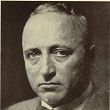

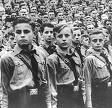




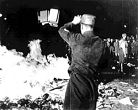
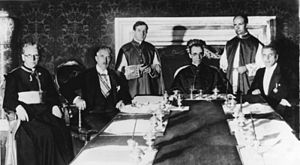





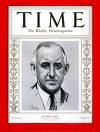





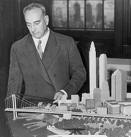


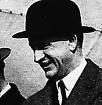



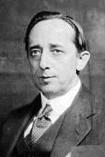



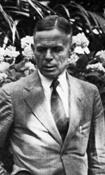







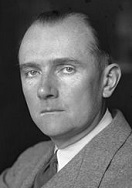














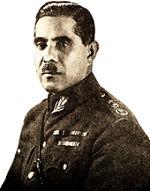





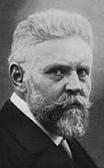
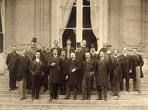




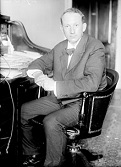
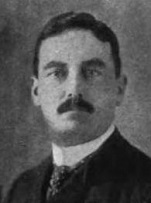





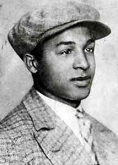



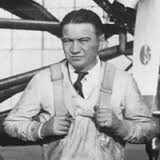



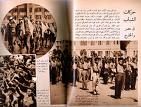








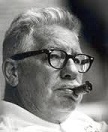

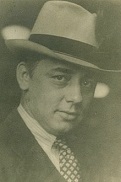


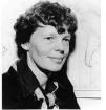
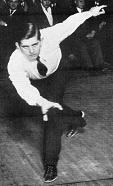

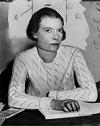








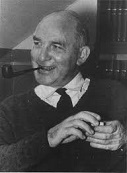





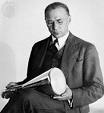
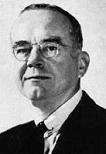










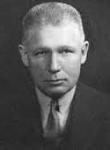


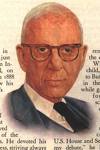


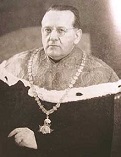
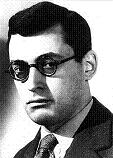


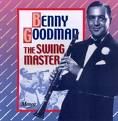

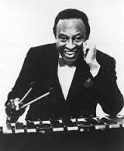
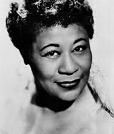


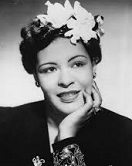
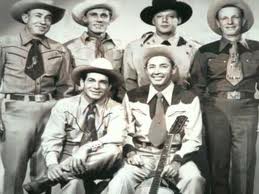



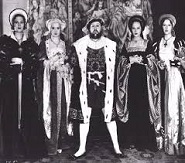
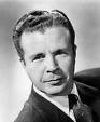




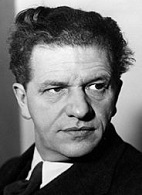
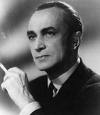



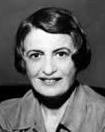





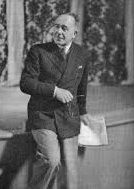







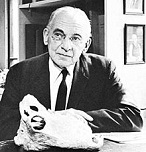



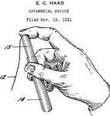
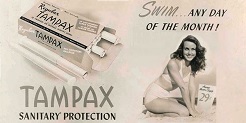



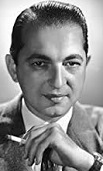


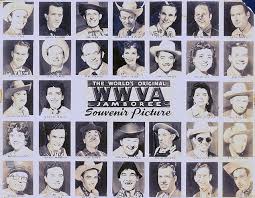






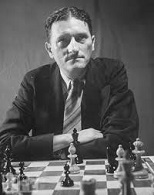
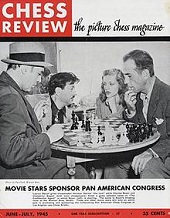

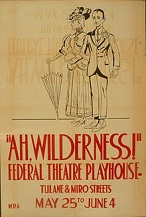
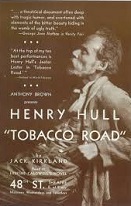

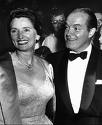





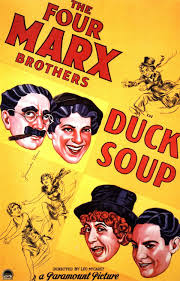
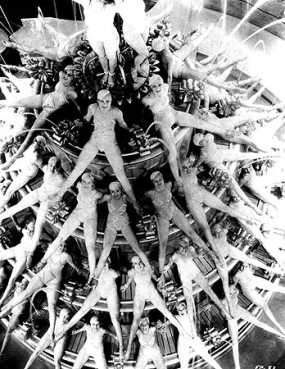
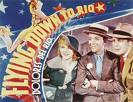





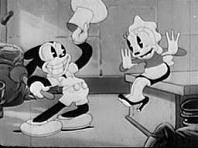
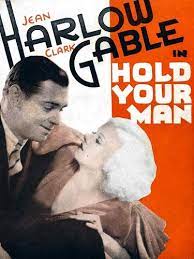



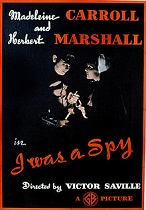

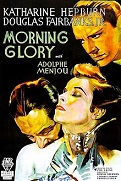
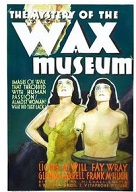
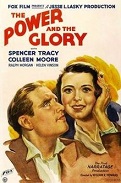

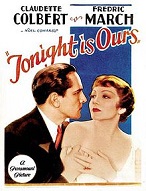
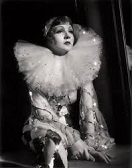






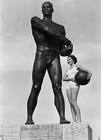
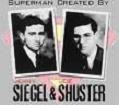
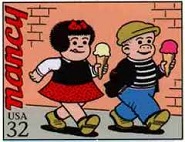
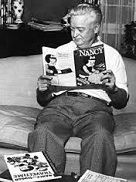





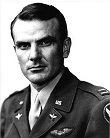

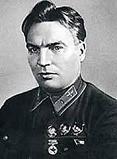


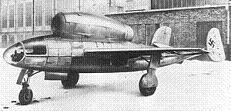
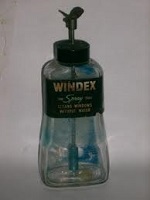
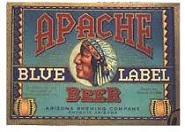
1933 Chinese Year: Chicken - the kind you choke? Time Mag. Man of the Year: Hugh Samuel Johnson (1882-1942), head of the Nat. Recovery Admin. (NRA). This is the stormiest year for the U.S. in the 20th cent. (21 storms). There are 9.69M Jews in Europe; by 1946 this is down to 3.712M (72% decrease)? On Jan. 1 the U.S. Marines withdraw from Nicaragua after 20 years (since 1912) after creating a supposedly apolitical Nicaraguan Nat. Guard, run by U.S.-educated Gen. Anastasio Somoza Garcia (1896-1956); liberal leader Juan Sacasa becomes pres. (until 1936). On Jan. 2 USC defeats Pittsburgh by 35-0 to win the 1933 Rose Bowl. On Jan. 2 the comic strip Nancy debuts, created by Earnest Paul "Ernie" Bushmiller Jr. (1905-82), about a chubby precocious 8-y.-o. girl with a red bow in her frizzy helmet hair, niece of flapper Fritzi Ritz; in Jan. 1938 her friend Sluggo Smith is introduced, and Fritzi Ritz and her beau Phil Fumble disappear. Fearless living, or, Is he a saint or a stalker, or, Do I look fat in this? On Jan. 4 a secret meeting hosted by Baron Kurt von Schroeder (1889-1966) between Fritz von Papen and Adolf Hitler, backed by industrialists Gustav Krupp (von Bohlen und Halbach) (1870-1950) and his son Alfried Krupp (von Bohlen und Halbach) (1907-67) brings Hitler to power in Germany after Gen. Kurt von Schleicher fails to conciliate the center and left and Hindenburg rejects a demand for yet another dissolution, and is forced to resign on Jan. 28; on Jan. 30 Hitler is appointed chancellor of Germany and Reichsstathalter of Prussia by Pres. Paul von Hindenburg (1847-1934) at the urging of Franz von Papen, who becomes vice-chancellor; Thuringian interior minister (since 1930) Wilhelm Frick (1877-1946) becomes interior minister; gen. (who later becomes the first Field Marshal appointed by Hitler in 1936) Werner von Blomberg (1878-1946) becomes war minister (until 1938), becoming known as the "Rubber Lion" for his slavish devotion to Herr Hitler; Konstantin von Neurath (1873-1956) becomes minister of foreign affairs; Hermann Goering (1893-1946) becomes minister without portfolio (later Prussian PM), going on to get ideas of taking over the army by getting rid of Blomberg; laminated bowling-ball-bald Hans Heinrich Lammers (1879-1962) becomes police chief, soon rising to chief of the Reich Chancellery; non-Nazi nationalists Alfred Hugenberg (1865-1951) and Franz Seldte (1882-1947) are incl., but the Center Party doesn't cooperate; Bavaria's independence ends; Social Dem. leader Ernst Wolf Alexander Oskar von Harnack (1888-1945) (son of Adolf von Harnack) denounces the new govt. as "without goodness or grace", ending up in priz, and executed on Mar. 3, 1945; meanwhile Der Fuehrer (Fuhrer) uses German capitalist money from industrialist Friedrich Flick (1883-1972) et al. to put unemployed men in cool Nazi stormtrooper uniforms and march them around to shut down Jewish competition while his lieutenants Joseph Goebbels et al. run a slick modern propaganda machine spewing hatred and encouraging any and all prejudices against non-party members, who are clearly degenerate misfits not fit to take another breath; a well-coached, slick-dressing and yes, kind of handsome and striking actor waving his hands like a magician or orchestra conductor, he enthralls zombie-like crowds of inferior, er, master races with vague generalities about Der Volk, internat. Jewish banker-backed Communism and the *?!*? Versailles Treaty, and he's especially liked by the ladies for his chaste ascetic lifestyle and the way he kisses poon, er, babies?; the Nazi salute shows everybody how clean they keep their hands, and how they never never masturbate?; Hitler permits 10K Jews a year to emigrate to the British Mandate of Palestine (until 1941); Ireland's anti-Semitic British ambassador Charles Bewley works to keep Ireland closed to fleeing Jewish families; meanwhile former German ambassador (to the U.S.) Count von Bernstorff, who turned pacifist after WWI flees to Switzerland, and Cologne mayor (since 1917) Konrad Adenauer (a devout Roman Catholic who hates Nazis) refuses to shake a local Nazi leader's hand and ends up fleeing to the Maria Laach Abbey for a year, after which it is touch-and-go until Hitler's fall in 1945 - then why did you give him 250 marks? On Jan. 7 WWVA Jamboree debuts in Wheeling, W. Va., becoming the 2nd oldest country music radio show in the U.S. after the Grand Ole Opry., going on to feature Bill Jones and the Rhythm Rogues, Cowboy Loye (Loye Donald Pack), Hugh Cross, Shug Fisher, Frankie More and the Log Cabin Gang, Grandpa Jones, Doc Williams and the Border Riders, Joe Barker and the Chuck Wagon Gang, Harry C. "Big Slim" McAuliffe and the Happy Ranch Gang, Lew Childre, Floyd Tillman, Hank and Slim Newman, Chuck and Don, Handsome Bob and Happy Johnny, Slim Cox and His Flyin' X Roundup, Tex Harrison and the Texas Buckaroos, Gertrude Miller, Mary "Sunflower Calvas, Mary Ann Vestes, Chickie Williams, Shorty Fincher's Prairie Pals, Warren Caplinger, Hawkshaw Hawkins, Reed Dunn "the Singing Mountaineer", the Singing Sailors (Red Sovine and Johnnie Bailes), Millie Wayne, Charlie Monroe and His Kentucky Pardners, Honey and Sonny (Maxine and Nial Davis), Wilma Lee and Stoney Cooper, Red Belcher and the Kentucky Ridge Runners, Lee and Juanita Moore, Don Kidwell, Jimmy Walker, the Sunshine Boys, Mack Jeffers and His Fiddlin' Farmers, Hank Snow "the Yodeling Ranger", Ken Curtis, George Morgan, the Lilly Brothers, the Ritchie Brothers, Roy Scott, the Radio Rangerettes, Gay Schwing and His Gang from the Hills, Sidney "Hardrock" gunter, Joe and Shirley Barker, Doc and Chickie Williams, the Bailey Brothers and Their Happy Valley Boys, Jim and Jesse McReynolds, Hylo Brown, the Osborne Brothers, Bob Gallion, David Houston, Esco Hankins, Mac Wiseman, Buck Owens, Ray Price, Charlie Pride, Tammy Wynette, Kenny Roberts, Freddy Carr, Jimmie Stephens, Darnell Miller, Junior Norman, Kenny Biggs, Elmer Crowe, Gus Thomas, Slim Lehart, Bud Cutright, Jimmy Martin and the Sunny Mountain Boys, Charlie Moore, Bill Napier, Red Smiley and His Bluegrass Cutups, Tater Tate and the Shenandoah Cutups, Frank Necessary and the Stone Mountain Boys, the Blue Ridge Quartet, the Walter Bailes Singers, Dick Curless, Dave Dudley, Patti Powell, and Jerry Brightman; in the 1960s it becomes Jamboree U.S.A.; in 1997 it becomes a news/talk program; in 2009 it becomes the Wheeling Jamboree. On Jan. 8 a radical (anarchist, syndicalist) uprising in Barcelona, Spain spreads to many other large cities incl. Bilbao, Madrid, Saragossa, and Seville before it is suppressed; on Dec. 2 there are more anarchist uprisings in Catalonia and Aragon - you are open and now you are closed? On Jan. 12 a peasant revolt in the Spanish village of Casas Viejas is brutally suppressed, stinking up the govt., and on Apr. 23 municipal elections show a distinct veering to the right. On Jan. 12 the U.S. Congress recognizes the independence of the Philippines. On Jan. 13 the Greek cabinet of Panyotis Tsaldaris is defeated on its financial policy, and on Jan. 16 Venizelos becomes PM again, but is defeated in elections on Mar. 5 after dissolving Parliament, and repub. Gen. Nikolaos Plastiras attempts a coup; on Mar. 10 Tsaldaris becomes PM again (until 1935), with the Venizelists contuing to oppose him. On Jan. 21 the League of Nation rejects Japanese terms for settlement with China, and Japan withdraws from the League after a big speech by diplomat Yosuke Matsuoka (1880-1946). The Lame Duck Amendment is ratified, and guess who's the first lame duck? On Jan. 23 the Twentieth (20th) (XX) (Lame Duck) Amendment to the U.S. Constitution is ratified, cutting almost 2 mo. off any future lame duck admin.; too bad that it goes into effect on Oct. 15, too late for FDR's first term? On Jan. 24 the Jewish Museum in Berlin, Germany is founded six days before the Nazis officially comie to power, built next to the Neue Synagogue on Oranienburger Strasse, it contains collections of Jewish art and history; it is shut down on Nov. 10, 1938 (Kristallnacht); in 1988 Polish-born Jewish-Am. architect Daniel Libeskind wins a competition to design a new one, which is finished in 1999 and opened to the public on Sept. 9, 2001 - talk about a bad place to house Jewish history? On Jan. 28 as talk of Indian independence set badly with him when he thought of having to be ruled by infidel Hindus his ancestors couldn't conquer, Pakistani Muslim nationalist Choudhry Rahmat Ali (1895-1951) in Cambridge, England pub. Now or Never, calling for the separation of the Muslim nation of Pakistan from India, naming it from the word "pak" in Persian and Urdu, meaning pure, along with P for Punjab, A for Afghania, K for Kashmir, S for Sindh, and tan from Baluchistan; too bad, when it is created, he gets pissed-off at its small size, and that he isn't acknowledged for coining the name, and when he visits Pakistan in Apr. 1948 he is promptly expelled by PM Liaqat Ali Khan, dying broke in Cambridge. On Jan. 30 The Lone Ranger, show, created by Detroit atty. George Washington Trendle (1884-1972) debuts on radio station WXYZ in Detroit, Mich., moving to the Mutual Broadcasting System and NBC's Blue Network (later ABC) (until Sept. 3, 1954), featuring the exploits of masked Texas Ranger Capt. Dan Reid, who starts out chasing the Butch Cavendish Hole in the Wall Gang, then reunites with childhood friend Tonto of the Potawatomi; George Seaton (1911-79), who plays the Lone Ranger invents the cry "Hi-yo Silver" because he can't whistle. On Jan. 30 German Jewish novelist Lion Feuchtwanger (1884-1958), who is being lionized on a speaking tour of the U.S. and is the guest of honor at a dinner hosted by German ambassador Friedrich Wilhelm von Prittwitz und Gaffron (1884-1955) receives the news that Hitler has become German chancellor; the next day Prittwitz resigns and tells him he better not return to Germany; sho' 'nuff, the Nazis ransack his house and destroy his mss., his books are put in the bonfire on May 1, his citizenship is stripped on Aug. 25, and he is designated "enemy of the Nazi state #1"; he moves to Sanary-sur-Mer, France, going on to expose Nazism by shooting lit. peas at them from the sidelines; too bad, he visits the Soviet Union in 1937 and lionizes Stalin and his show trials as great great great before returning to France, getting captured by the Germans in 1940, and escaping Camp des Milles to the forgiving U.S. In Jan. Edouard Daladier (1884-1970) becomes PM of France, but his govt. only lasts 7 mo. In Jan. German ambassador to the Soviet Union (since 1928) Herbert von Dirksen (1882-1955) tells Prince Bernard von Bulow of his concerns that the anti-Communist rhetoric of the Nazis might damage the good state of German-Soviet relations, and he replies: "The National Socialists faced with responsibility are naturally different people and follow a policy other than that which they have previously proclaimed. That's always been so and is the same with all parties"; in May Dirksen meets with Hitler, and tells him that he is allowing relations with the Soviet Union to deteriorate to an unacceptable extent, causing Hitler to inform him that he wants an anti-Soviet understanding with Poland, which Dirksen protests because it implies recognition of the German-Polish border; in Aug. Dirksen is warned by Soviet PM Vyacheslav Molotov that the state of German-Soviet relations would depend on how friendly the Reich chooses to be towards the Soviet Union; no surprise, in Oct. Dirksen is reassigned, becoming the German ambassador to Japan (until 1938). In Jan.-Mar. the Japanese invade Rehe (Jehol), leading to a May 31 truce signed at Tanggu which creates a DMZ in E Hebei province under Japanese domination. On Feb. 6 the 20th "lame duck" Amendment to the U.S. Constitution goes into effect, providing that Congress should convene annually on Jan. 3, and the pres. and vice-pres. are to take office on Jan. 20 after an election. On Feb. 6 Albert Einstein is photographed riding a bicycle in front of the house of Caltech trustee Ben Meyer in Santa Barbara, Calif. On Feb. 6-7 (night) Lt. Frederic Margraff of the USS Ramapo, while sailing from Manila to San Diego measures a sea wave at 112 ft. (34 m.) high during a 68 knot hurricane, becoming the highest sea wave measured (until ?). On Feb. 9 (Thur.) the Oxford Union Society in England debates the big question "That this House will in no circumstances fight for its King and Country", and after five speakers, topped by pacifist atheist philosopher C.E.M. Joad (1891-1953), the motion passes by 275-153; Joad later flip-flops and backs the fight against Hitler, and converts to Christianity with the help of C.S. Lewis. On Feb. 11 Death Valley Nat. Monument is established by the U.S. govt., growing to 3.3M acres and becoming Death Valley Nat. Park in 1994, the biggest U.S. nat. park. On Feb. 13 fan dancer Blondie Boopadoop marries Dagwood Bumstead (comic strip by Chic Young). On Feb. 14-16 the Little Entente (formed 1920-1 by Czech., Romania, and Yugoslavia) meets in Geneva and drafts an org. pact for Czech. to resist Nazi agitation among its 3M Germans; on Oct. 4 the Sudeten Nat. Socialist (Nazi) Party, led by Konrad Henlein dissolves under govt. order, and reemerges as the Sudetendeutsche Partie, no longer calling for a Nazi state - just working for one? On Feb. 14 all banks in the state of Mich. close, giving warning of an impending U.S. bank crisis. On Feb. 15 an assassination attempt on pres.-elect Franklin Roosevelt is made by unemployed Italian immigrant bricklayer Giuseppe Zangara (b. 1900) in Bayfront Park in Miami, Fla., who takes five shots at FDR with a cheap pistol from 25 ft. away, missing by inches until Miami homemaker Lillian Cross jostles him, causing him to hit five bystanders incl. Chicago mayor (since 1931) Anton Joseph "Tony" Cermak (b. 1873), who dies on Mar. 6; anti-FDR journalist Westbrook Pegler comments that Zangara "hit the wrong man"; Zangara is executed five weeks later on Mar. 20; FDR's hero status helps propel his New Deal through Congress? On Feb. 17 Newsweek mag. begins pub. (until 2012) to compete with Time mag. On Feb. 20 the XXI (21st) (Repeal of Prohibition) amendment to the U.S. Constitution is sent by the 72nd Congress to the states for ratification. On Feb. 25 USS Ranger, the world's first aircraft carrier is launched in Va.; it can handle 75 aircraft. On Feb. 27 the German Reichstag (Wallot Palace) in Berlin (vacant since Dec.) burns and is gutted, and feeble-minded Dutch Communist Marinus van der Lubbe (1909-34) is caught by police in Bismarck Hall naked to the waist, confessing that he did it "as a protest"; Hitler calls it a "sign from heaven" that a Communist rising is beginning, and issues the Decree for the Protection of the People and the State on Feb. 28, getting 5K Communists rounded up, and four party leaders charged with complicity; a court in Leipzig acquits the four party leaders, but convicts van der Lubbe, who is executed next Jan. 10; the world believes the Nazis really did it, but later it is proved that van der Lubbe actually did it alone, and the Nazis only hampered the fire dept.; the Kroll Opera House becomes the new meeting place for the Reichstag until Apr. 26, 1942. On Feb. 28 R.I.-born opera baritone Nelson Ackerman Eddy (1901-67) is substituted at the last minute for diva Lotte Lehmann in a concert in Los Angeles, Calif., resulting in 18 curtain calls and launching his 19-feature film career, which he considers a booster for his concert career. In Feb. the first Brotherhood Day, promoted since 1929 by Roman Catholic priest Hugh W. McMenamin of Denver, Colo. is celebrated; by the 1940s it becomes Brotherhood Week, and in 1978 it becomes Brotherhood/Sisterhood Week, celebrated during the 3rd week of Feb., and sponsored by the Nat. Conference of Christians and Jews. On Mar. 2 (2:30 a.m.) the 8.4 Sanriku Earthquake causes a tsunami, destroying the Sanriku coast of the Tohoku region of Honshu, Japan, killing 3K, injuring 12K, and destroying 7K homes. On Mar. 2 the 13K-acre Black Canyon of the Gunnison Nat. Monument 15 mi. E of Montrose, W Colo. is established, followed by Black Canyon of the Gunnison Nat. Park on Oct. 21, 1999; the canyon walls have exposed strata from the Archean Era? FDR begins his Hundred Days as Hitler begins his March Revolution and America begins its Anti-Alcohol Experiment? Sounds like a setup to divert the American public to fact that they're being Socialized? By early Mar. there are 13M unemployed in the U.S., and almost every bank is closed - hurry up Adolf and start a war? On Mar. 4 Hyde Park, N.Y.-born Franklin Delano Roosevelt (1882-1945) (FDR) (pr. to rhyme with rose, although his 5th cousin Teddy Roosevelt's side of the house pronounces it to rhyme with roof) becomes the 32nd U.S. pres. (until Apr. 12, 1945) in the 43rd U.S. Pres. Inauguration (first disabled pres.) (C student at Harvard U.) (4th N.Y. state gov. after Teddy Roosevelt, Grover Cleveland, and Martin Van Buren, most of any state until ?); Red River County, Tex.-born John Nance "Cactus Jack" Garner IV (1868-1967) becomes the 32nd U.S. vice-pres.; Douglas MacArthur is the grand marshal of the inaugural parade; horseface First Lady Anna Eleanor Roosevelt Roosevelt (1884-1962) is a cigarette smoker; Stephen Tyree Early (1889-1951) becomes the first White House press secy. (until Mar. 29, 1945, then Dec. 5-18, 1950); Herbert Hoover lives a record 31 years, 231 days after leaving office; FDR's First Inaugural Address announces his Good Neighbor Policy (term coined by Henry Clay) of respect for Latin Am. countries, with the soundbyte "In the field of world policy I would dedicate this nation to the policy of the good neighbor, the neighbor who resolutely respects himself and, because he does so, respects the rights of others"; Damon Runyon writes the lead article on FDR's inauguration; Penn.-born Repub. railroad freight car manufacturer and coin collector William Hartman Woodin (1868-1934) becomes U.S. treasury secy., going on to implement bank holidays and take the U.S. off the gold standard, resigning on Dec. 31 due to poor health; FDR gives his campaign Brain Trust of liberal profs. positions in his admin. to jumpstart the ailing nation's economy by redistributing the wealth, incl. Raymond Charles Moley (1886-1975) (Columbia U. law prof. who invented the term "New Deal", and claims that with FDR capitalism was "saved in eight days", then breaks with him by midyear and becomes a conservative Repub. and bitter foe), Harvard Am. history prof. William Yandell Elliott (1896-1979) (later the mentor of Henry Kissinger), Adolf Augustus Berle Jr. (1895-1971) (pr. like burley), and Rexford Guy Tugwell (1891-1979) (agricultural economist, who is appointed gov. of Puerto Rico in 1941-6); Dem. Nat. Committee chmn. (since 1929) Jouett Shouse (1879-1968), hubby of Filene Dept. Store heiress Catherine Filene Dodd, who supported Alfred E. Smith over FDR, flip-flops and becomes pres. of the Assoc. Against the Prohibition Amendment, hastening the repeal of prohibition later in the year; meanwhile super-educated N.Y. construction czar (since the 1920s) Robert Moses (1888-1981) is given a blank check for construction projects in the New York City area, with 80K people working for him building large numbers of playgrounds and swimming pools, the Triborough Bridge, Brooklyn Battery Bridge et al., then attracting the U.N. to build its HQ in Manhattan instead of Philly, his power continuing through the 1940s, 1950s, and 1960s, during which time he develops a love affair for highways. On Mar. 6 the (66 + 6 + 1)? 73rd Congress (ends Jan. 3, 1935) (elected with him in Nov. 1932 and not scheduled to meet until this Dec.) begins a special session to deal with the nat. emergency of the Great Depression (a term he prefers to "panic"), beginning his Hundred Days (Mar. 4-June 16) of sweeping alphabet-soup "New Deal" legislation, which forever half-socializes the U.S. (the special session actually lasts 7.5 mo.); Frances Coralie Perkins (1882-1965) becomes the first woman to hold a U.S. cabinet-level position as U.S. labor secy. #4 (until 1945); U.S. Sen. (D-Tenn.) Cordell Hull (1871-1955) (author of the 1913 Federal income tax law) becomes U.S. secy. of state (until 1944), with Sumner Welles (1892-1961) as undersecy. (until 1943); former Progressive Party and Repub. Party thorn-in-the-side liberal Harold LeClair Ickes (1874-1952) becomes secy. of the interior and admin. of public works (until 1946), going on to disburse $3.3B of New Deal public works funds; Iowa State College grad. Henry Agard Wallace (1888-1965), ed. (since 1910) of Wallaces' Farmer (founded 1898) becomes agriculture secy. #11 (until 1940); William Christian Bullitt Jr. (1891-1967) (voted most brilliant in his 1913 Yale U. class) is appointed as the first U.S. ambassador to the Soviet Union (until 1936); Claude Gernade Bowers (1878-1958) becomes U.S. ambassador to Spain (until 1939), going on to work to keep the U.S. out of the Spanish Civil War; FDR becomes the right man at the right time as he puts on a big act that he's solving the nation's problems while resisting calls to become a dictator? On Mar. 5 after Centrist leader Ludwig Kaas refuses compromise and the Reichstag is dissolved, new elections result in a record vote count (88.8% of the electorate, 39,343,331 votes), and give the Nazis 43.9% of the vote (17,277,328) and the Nationalists 8%, prompting Hitler to claim a "colossal victory"; the Nazis have 288 seats, the Socialists 120, the Communists (who lose 1M votes) 81 (who are barred from attending), the Centrists 74, the Nationalists 52, and others 23. On Mar. 6-9 after six states declare bank holidays on Mar. 1, and he proclaims a 10-bank holiday on Mar. 5, FDR declares a Nat. Bank Holiday, closing every bank in the U.S. until bank examiners can determine whether they are sound enough to reopen, giving depositors confidence; on Mar. 12 FDR gives his first fireside chat, On the Bank Crisis; on Mar. 13 banks begin to reopen, and most people decide to leave their money in them. On Mar. 10 an earthquake rocks Long Beach, Calif. The first shot of WWII was fired by the Jews? On Mar. 12 the Am. Jewish Congress announces a protest to be held at Madison Square Garden on Mar. 27, along with a Jewish Boycott of German Goods; on Mar. 23 20K Jews protest at New York City Hall; on Mar. 24 the British newspaper Daily Express carries the headline "Judea Declares War on Germany - Jews of All the World Unite - Boycott of German Goods - Mass Demonstration", describing it as a "holy war" against Germany; on Mar. 27 there are simultaneous protest rallies in New York City, Boston, Philly, Cleveland et al.; despite the boycott, many Jews continue to do business with Germany; meanwhile Zionist leaders see their chance in using the Nazi regime as the cause that will turn German Jews into Zionists and cause them to emigrate to Palestine, and Hitler strikes the secret Transfer Agreement with them to transfer German Jews to Palestine; too bad, the British demand that each Jew pay 1K pounds sterling upon arrival in Haifa or other ports in Palestine, causing Zionists to subvert the worldwide Jewish boycott of Germany in order to allow Jewish capital to leave with them via internat. merchandise transactions? On Mar. 12 Sachsenhausen (Oranienburg), the first German Nazi concentration camp opens N of Berlin, followed on Mar. 22 by Dachau concentration camp; homosexuals are identified by pink triangles on their stripey uniforms, Jews by yellow, and vagrants by black; Paragraph 175, which is passed this year making homosexuality a capital crime is left on the books for 24 years after the end of WWII, and many of the pink triangle POWs are kept in prison by the FRG, after which the pink triangle becomes the symbol of the gay movement, and it takes until 2002 for the German govt. to issue an official apology; by 1945 8M-10M are interned in concentration camps, and at least half die? On Mar. 16 the big Nazi V in Germany spooks the Belgian govt. to devote 150M francs to military fortifications along the Meuse River; in Dec. infantry term of services are extended from 7 to 18 mo. On Mar. 17 non-NSDAP member Hjalmar Schacht (1877-1970) (named Horace Greeley at birth, then changed to please a grandmother) becomes pres. of the German Reichsbank (until Jan. 1939), followed by minister of economics next Aug., going on to support public works programs and the "New Plan" to end foreign entanglements in the German economy in Sept. 1934, while financing rearmament via Mefo Bills; too bad, in Aug. 1935 he makes a speech denouncing the anti-Semitism of Julius Streicher, and resigns as economics minister in Nov. 1937, is sacked as Reichsbank pres. in 1939, and ends up getting caught trying to assassinate Hitler and end up in a concentration camp. On Mar. 19 the 1933 Portuguese Constitution is promulgated by Antonio de Oliveira Salazar to bolster his Estado Novo regime, becoming the world's first corporatist constitution, with a corporative chamber representing corps., schools and univs., colonies and municipalities; next constitution in 1976. On Mar. 21 Hitler and Hindenburg pay homage to Frederick the Great at the Potsdam Garrison Church in a ceremony attended by the Crown Prince; the parade is marked by "Hitler's weather", an uncanny luck of bright sunny skies whenever a Nazi ceremony is scheduled? On Mar. 22 the Cullen-Harrison (U.S. Beer-Wine Revenue) Act, sponsored by U.S. Sen. (D-Miss.) (1919-41) Byron Patton "Pat" Harrison (1881-1941) and U.S. Rep. (D-N.Y.) (1919-44) Thomas Henry Cullen (1868-1944) levies a $5 per barrel tax on beer and wine, and leaves states in control of the sale and distribution of liquor, permitting them to limit liquors to 3.2% alcoholic content; the measure stimulates widespread acceptance of FDR's admin. - somehow seems like he's buying the voters off? On Mar. 23 even though the Nazis don't have the two-thirds majority needed for overall rule, Hitler gets the Reichstag to pass the Enabling Act (Law for the Relief of the Distress of the People and the Reich), which gives him supreme dictatorial powers, allowing him to get around the German Constitution whenever he pleases; as soon as Hitler takes power, the Swastika Flag (co-opting an ancient religious symbol, from the Sanksrit for "to be good") is hoisted, all ministers are arrested, and all govt. offices are taken possession of by storm troopers; Paul Joseph Goebbels (1897-1945) is appointed head of the Ministry of Enlightenment and Propaganda, becoming Germany's grand censor; Baldur von Schirach (1907-74) becomes head of the Hitler Youth (Hitlerjugend) (founded 1922), turning 10-y.-o. and older Aryans into anti-Semitic supermen soldiers for the Third Reich; all Nazis are released from prison, while all govt. critics are ordered jailed, to be tried in "Sondergerichte" (special Nazi kangaroo courts); rabbi Leo Baeck (1873-1956) becomes pres. of the Reichsvertretung der Deutschen Juden (Nat. Org. of German Jews), an umbrella org. (disbanded 1938). On Mar. 30 the first Doctor' Day is observed in Winder, Ga. in commemoration of the day in Jefferson, Ga. that Dr. Crawford Long first used ether to anesthetize patient James Venable; on Oct. 30, 1990 Pres. George H.W. Bush signs Public Law 101-473, creating Nat. Doctor's Day. On Mar. 31 after FDR proposes it on Mar. 21, the U.S. Congress authorizes the Civilian Conservation Corps (CCC) AKA Roosevelt's Tree Army to give employment to 3.5M young people, which he establishes on Apr. 5 via Executive Ordr 6101, going on to build 125K mi. of roads, 13.1K mi. of foot trails, and 3B trees by 1942; camps incl. Camp Hadley in Madison, Conn. - make-work in the name of the environment beats war? In Mar. Chancellor Engelbert Dollfuss assumes quasi-dictatorial powers in Austria, dissolving the parliament; in June he dissolves the Austrian Nat. Socialist Party. In Mar. FDR invites his buddy Harry Lloyd Hopkins (1890-1946) to join his admin. as head of the Federal Emergency Relief Admin. (FERA), later the Civil Works Admin. (CWA), and Works Progress Admin. (WPA), going on to establish the Nat. Youth Admin. (NYA) and the Federal One programs for artists and writers; in May 1940 he moves into the Lincoln Bedroom at the White House, becoming FDR's first counsel for the war, directing the $50B Lend-Lease Program conceived by pro-Soviet Armand Hammer to fund Stalin. In Mar. Hitler's chaffeur-bodyguard Josef "Sepp" Dietrich (1892-1966) hand-picks 120 SS men for the Sonderkommando Berlin, growing to 800 by Nov. 8, when they swear personal allegiance to Hitler on the 10th anniv. of the Munich Beer Hall Putsch, and are given the name Leibstandarte (Bodyguard Regiment) Adolf Hitler (LAH); next Apr. 13 Heinrich Himmler gives them the name Leibstandarte SS Adolf Hitler (LSSAH); the Waffen-SS is created as the armed wing of the Nazi Schutzstaffel (Protective Squadron), starting with three regiments, growing to 38 divs. during WWII; it is never part of the Wehrmacht. On Apr. 1 in response to the worldwide Jewish boycott of German goods and an order by Hitler on Mar. 28, Nazi Germany begins its Jewish persecution by boycotting all Jewish-owned businesses for one day. On Apr. 4 U.S. dirigible Akron crashes off the N.J. coast, killing 73. One World Government fans watch with glee as the citizens of the U.S. are robbed by their own government, while the citizens of Germany are robbed of brainpower by theirs? On Apr. 5 U.S. Pres. Roosevelt commands all U.S. citizens to surrender their gold to the govt. at just $20.67 an oz. or face a 10-year prison sentence, then later devalues the dollar 40% by raising the price of gold to $35 an oz.; on Apr. 19 the U.S. goes off the gold standard; 445.5K golden Double Eagle coins minted this year are withheld from circulation and melted down, but a handful survive and become some of the most sought-after coins by collectors; on June 5 Congress voids all gold clauses in public and private debts. On Apr. 7 Nazi Germany passes a law banning Jews from civil service jobs (except if they served Germany in WWI), forcing Jewish professors out, ruining Gottingen U.'s math dept. et al., and ending Germany's supremacy in science; when Nazi education minister Bernhard Rust asks David Hilbert "How is mathematics at Gottingen, now that it is free of the Jewish influence?", he replies "There is no mathematics in Gottingen anymore." On Apr. 8 Western Australia, an agricultural state sick of federal taxes votes 2-1 to secede from the Australian Commonwealth, then next Mar. sends a petition to the king asking for secession, but the British Parliament refuses to accept it without approval of the Australian pop. as a whole. On Apr. 9 Peru adopts a new constitution, then in Apr. Pres. Cerro is assassinated, and and is replaced by Gen. Oscar Raimundo Benavides (1876-1945) (until 1939). On Apr. 22 the Gestapo (Geheime Staatspolizei) (Secret State Police) is formed by Hermann Goering in Prussia, later joining the SS; "From its creation in 1933 until its death in May 1945, anyone living in Nazi controlled territory lived in fear of a visit from the Gestapo." (Rupert Butler) On Apr. 29 Croatian Peasant Party leader Vladimir "Vladko" Macek (1879-1964) is convicted of treason against the Yugoslavian govt. for wanting a Croatian state, and sentenced to three years, causing the mad Croatians to vow to get even; he is released after King Alexander's assassination in 1934. On Apr. 30 FDR appoints Ruth Bryan Owen (1885-1954), widow of William Jennings Bryan as the first female ambassador of the U.S., to Denmark (until 1936). In Apr. municipal elections in Spain give the right significant support. In Apr. Pope Pius XI inaugurates a holy year, which receives the endorsement of the U.S. pres. and his official family - after all, good Catholic Adolf Hitler is doing so well and all? In Apr. Adolf Hitler appoints Robert Ley (1890-1945) (a food chemist known for suffering a brain injury in a 1917 airplane crash in France which left him speaking with a stammer and suffering bouts of erratic behavior) as head of the new Deutsche Arbeitsfront (German Labor Front) (DAF), and in Nov. he establishes Strength Through Joy (Kraft durch Freude) (KdF) to bribe working class families with free vacations, entertainment and other perks in exchange for giving up trade unions and wage increases, going on to build the first cruise liners, the Wilhelm Gustloff and the Robert Ley, which take good little Nazies on Mediterranean cruises. In Apr. 1933 German eugenicist Alfred Ploetz (1860-1940) (1895 coiner of the term "racial hygiene" announces that the Nazis under Herr Hitler will finally bring about racial hygiene in the gorgeous Valley of the Sun, and interior minister Wilhelm Frick appoints him to an expert advisory committee, after which he joins the Nazi Party in 1937, flip-flopping on the Jews and finally getting his mind right about the superiority of the Aryan race before dying just in time to avoid seeing it all come unglued - love at 425 degrees? On May 1 the Roca-Runciman Treaty between Argentina and the U.K. is signed in London by Argentine vice-pres Julio Argentino Roca Jr. and Sir Walter Runciman, pres. of the British Board of Trade, protecting the beef supply market in the British Commonwealth. On May 2 all German trade unions (which had already been sacked and their officers arrested) are formally dissolved. On May 3 Nellie Tayloe Ross (1876-1977) (former gov. of Wyo.) beomes the first female dir. of the U.S. Mint, holding the post for 20 years. On May 4 after the Fascists in Finland found the Patriotic Nat. Movement, the govt. forbids political parties and groups to organize militarily. On May 6 the Nazis burn a ton of "Jewish" books, incl. the "smut" library of the Inst. for Sexual Research of Magnus Hirschfeld, "the Einstein of Sex", who ends up in exile in nice little Nice, Italy. On May 6 Ariz. Brewing Co. is founded in Phoenix, Ariz. (pop. 50K) by brothers Martin Fenster and Herman Fenster, who hire Pilsen Brewery brewmaster Oskar Scholz from Pilsen, Czech. as their brewmaster, launching Sunbru brand before selling-out on Apr. 11, 1934 to E.P. Baker of Aztec Brewing Co. in San Diego, Calif., who introduces Apache brand beer in 1934, followed by Elder Brau All Malt Beer in Jan. 1939, which changes its name to Ariz. Apache Beer in Mar. 1942 due to anti-German sentiment, growing from 15K barrels/year in 1942 to 185K barrels/year in 1952, with its flagship brand A-1 (introduced in Jan. 1943) becoming the biggest selling beer in Ariz. until Coors begins taking away their business; on Sept. 29, 1962 they introduce Lancers A-1, growing to 447K barrels/year in 1963, when they introduce Oberheit premium keg beer, which doesn't sell well; on Oct. 8, 1964 the co. is acquired by Carling Brewing Co. On May 7 the 100th anniv. of the birthday of German composer Johannes Brahms (1833-97) sees the Nazis suspect him of being Jewish (real name Abraham?). On May 10 the nationwide Action Against Un-German Spirit series of 34 public book burnings in Germany led by Joseph Goebbels incl. a crowd of 40K in Berlin, with Goebbels uttering the soundbyte: "No to decadence and moral corruption. Yes to decency and morality and state... The soul of the German people can again express itself. These flames not only illuminate the final end of an old era, they also light up the new "; Time mag. calls it a "bibliocaust", and Newsweek mag. calls it "a holocaust of books", becoming one of the first uses of the term holocaust in connection with Nazis; after hearing that her books were among those burned, Hellen Keller writes a Letter to the Student Body of Germany, with the soundbyte: "History has taught you nothing if you think you can kill ideas." On May 10 100K Jews led by WWI Maj. Gen. John Francis O'Ryan demonstrate against Hitler in New York City, with O'Ryan calling Hitler's policies "a challenge to civilization... a challenge to Christianity and its basic teaching... a challenge to the American spirit of fair play"; marchers carry signs reading "Hitler This is Not the Dark Ages" and "Judaism Will Survive Hitlerism"; 50K more march in Chicago, 20K in Philadelphia, and 10K in Cleveland. On May 12 the U.S. Federal Emergency Relief Act is passed, making $500M in emergency relief available to the new Federal Emergency Relief Admin. (FERA). On May 12 after cotton prices collapse, the U.S. Agricultural Adjustment Act (AAA) is passed, designed to boost agricultural prices by buying livestock for slaughter and paying farmers not to plant, raising money for it via an exclusive corporate tax on processed farm products that requres farm product processors to be licensed, creating the Agricultural Adjustment Admin. as part of the USDA; too bad, the act causes landowners to evict tenant farmers to take the land out of production and receive subsidies, kicking off the Great Okie Migration to Calif; on Jan. 6, 1936 it is declared unconstitutional, causing the U.S. Soil Conservation and Domestic Allotment Act to be passed on Feb. 29, 1936; - don't fence me in? On May 12 Switzerland bans the wearing of Nat. Socialist party uniforms. On May 17 the Associations Law is passed in Republican Spain, abolishing church schools and nationalizing church property, plus other restrictions on the church, causing Pope Pius XI to protest in his encyclical Delectissimi Nobis. On May 18 the U.S. Tenn. Valley Authority (TVA) Act is signed by FDR to provide cheap electric power, flood and erosion control, irrigation, etc. in the Tennessee River (Muscle Shoals) basin, which incl. parts of seven states, becoming the largest public power co. in the U.S.; chief architect is Roland A. Wank (1898-1970), a modernist from Hungary (until 1944). On May 20 Engelbert Dollfuss merges his Austrian Christian Social Party with the Heimwehr and other nationalist-conservative groups to form the Fatherland Front, and cracks down on the Republican Defense League of the Social Dems. (founded 1923); meanwhile in Oct. Nazi sympathizer Rudolf Dertill (1911-) unsuccessfully tries to assassinate him. The Nazis get the nation to work, cleaning up trash, Or, the original Star Drek? On May 20 the Nazis stage a midnight bonfire at the U. of Berlin, burning tens of thousands of "un-German" books by Erich Maria Remarque (1898-1970), Thomas Mann (1875-1955), Ernest Hemingway (1899-1961), James Joyce (1882-1941), Bertolt Brecht (1898-1956), Albert Einstein (1879-1955), Maxim Gorky (1868-1936) et al.; they burn Remarque (who, while a true Aryan, is now labelled a Jew by Goebbels) in effigy in the Obernplatz (in front of the Berlin Opera House); the Nazis close the Bauhaus (founded 1919) in Dessau, and the Inst. of Sexual Science (founded 1919) in Berlin; architects Richard Neutra, Rudolph Schindler, Walter Gropius and Mies van de Rohe emigrate to the U.S., either ruining or saving the U.S. with modern Euro architecture. On May 26 Australia assumes authority over about one-third of the Antarctic continent, an area the size of Australia itself - I can see it from my front porch? On May 27 the U.S. Securities Act of 1933 is passed, forcing corporations to provide investors with info. by filing it with the FTC; it is drafted by the "Happy Hotdogs" Thomas Gardiner Corcoran (1900-81), James Mcauley Landis (1899-1964), and Benjamin Victor Cohen (1894-1983) (a prominent Zionist, who with Corcoran are called the Gold Dust Twins and make the cover of Time mag. on Sept. 12, 1938, with Cohen going on write the 1941 Lend-Lease Plan and the 1944 Dumbarton Oaks Agreements), who go on to draft the 1934 Securities Exchange Act, the 1935 Public Utilities Holding Co. Act, and the 1938 Fair Labor Standards Act. On May 27 Japan announces it withdrawal from the League of Nations, effective in two years. On May 27 the Century of Progress Internat. Exposition (World's Fair) in Chicago, Ill. opens (until Oct. 31, 1934), featuring a series of 3-D murals by Thomas Hart Benton (1889-1975), which end up on permanent display in Columbus, Ind.; a weight-guessing man on the downtown lakefront is popular, as is fan dancer Sally Rand (1904-79). On May 29 after incorporating the Asir region into Saudi Arabia, and hoping to find oil, King Saud accepts a payment from the Standard Oil. Co. of Calif. of $170K in gold in exchange for a concession of drilling rights for 60 years (later 66 years, until 1999), forming the Iraq Petroleum Co. (founded in 1925 as the Turkish Petroleum Co.), which assigns the concession to the wholly-owned subsidiary Calif.-Arabian Standard Oil (CASC); in 1936 Texaco purchases a 50% stake.; on Sept. 18, 1938 after six dry holes, Dammam No. 7 oil well comes in, producing 1.5K barrels/day. On June 6 after receiving U.S. Patent #1,909,537 on May 16, chemical co. magnate Richard Milton Hollingshead Jr (1900-75) opens the first drive-in movie theater on Adm. Wilson Blvd. at Airport Circle in Pennsauken, N.J.; it has 500 parking spaces and a 40'x50' screen; the first feature is Adolphe Menjou's "Wife Beware"; ad slogan: "The whole family is welcome, regardless of how noisy the children are"; it closes in 1936 after starting a craze. On June 7 a massive heat wave in the U.S. and Britain sees avg. max temps of 93F, with more than half above 95F, and causes "modified nudism" (skimpy bathing suits) in England; hundreds of horses and hogs die in Ill. On June 12 the World Monetary and Economic Conference convenes in London (ends July 27) to deal with the Great Depression; Roosevelt torpedoes it with his refusal to agree to currency stabilization based on the gold standard, which the U.S. abandoned on June 5. On June 12 the Biblical Day of the Lord begins, according to English Bible-thumper Arthur E. Ware (1885-1978). On June 12-July 27 the London Monetary and Economic Conference ends in failure, causing Britain to go economically nationalist, promoting a "Buy British" campaign, and setting up an exchange equalization fund to control foreign exchanges, helping a slow recovery along. A mini-666 moment with 6-16-33? On June 16 the U.S. Banking Act of 1933 (Second Glass-Steagall Act) is signed by FDR, prohibiting interest payments for checking accounts, separating commercial and investment banking, and creating the Federal Deposit Insurance Corp. (FDIC) (effective Jan. 1, 1934) - it works until 2008, then what happened? On June 16 the U.S. Farm Credit Act is passed. On June 16 the U.S. Emergency Railroad Transportation Act is passed, creating a federal coordinator of transportation. On June 16 the socialistic U.S. Nat. Industrial Recovery Act (NIRA) is passed, calling for industry groups to draw up codes of fair competition to be approved by FDR, forcing them to spell out rules of operation, non-competition agreements, production restrictions, and min. prices, setting min. wage scales for men and women despite a 1923 Supreme Court ruling; dir. #1 is former U.S. Brig. Gen. ("Old Iron Pants") Hugh Samuel Johnson (1882-1942) (author of the 1917 U.S. Selective Draft Act), who enforces the new codes so enthusiastically using Mussolini's Fascism as a model that it creates a backlash, causing him to resign in 1934 and become a commentator for the Scripps-Howard newspaper chain; guess what, on May 27, 1935 the Supreme Court rules NIRA unconstitutional, pissing-off FDR, who utters the soundbyte: "The fundamental purposes and principles of the NIRA are sound. To abandon them is unthinkable. It would spell the return to industrial and labor chaos"; it is never replaced (until ?). On June 21 the Egyptian govt. of Isma'il Sidqi resigns, and the king rules without parliament through a council of ministers in the palace (until 1934). On June 26 Kraft Music Hall (originally the Kraft Program) debuts on NBC-radio (until 1971), with host Paul Samuel Whiteman (1890-1967) ("King of Jazz"), followed on Dec. 6, 1935 by Ford Bond, and on Jan. 2, 1936 by Bing Crosby (until May 9, 1946); it switches to TV in 1958. On June 30 the Screen Actors Guild (SAG) is founded in Los Angeles, Calif. by 18 actors incl. Gloria Stuart. In June the first Festival of Nations is held by the Internat. Inst. of Minn. in St. Paul, Minn. to promote multiculturalism. In June the Washington Post (founded 1877), one of the few non-Jewish-owned U.S. newspapers is purchased at a bankruptcy auction by Jewish financier (Federal Reserve chmn. in 1930-3) Eugene Isaac Meyer (1875-1959), and it stays in the family until ?. In June half-black German singer-dancer Hilarius "Lari" Gilges (b. 1909) is kidnapped, tortured, and murdered by the Gestapo and SS, becoming the first Nazi murder in Dusseldorf. On July 6 German boxing champ Max Schmeling marries blonde Czech actress Anny Ondra (Anna Sophia Ondrakova) (1903-87) (who appeared in Alfred Hitchcock's "The Manxman" and "Blackmail" in 1929), and they become Germany's #1 glam couple; Hitler's babe Eva Braun (1912-45) later admits to being jealous of her. On July 10 the first Police Radio System begins operating in Eastchester Township, N.Y. - shouldn't it be June 6, 1933 for apocalyptic reasons? On July 11 all Protestant churches in Germany are amalgamated in the German Evangelical Church. On July 14 the Nazi party is declared Germany's official party, and all other parties are banned; Jewish immigrants from Poland are stripped of German citizenship; forced sterlization is authorized for those found by a Hereditary Health Court to be defective. The more the Church changes the more it stays the same, 1933 edition? On July 20 after negotiations by cardinal (since 1921) Michael von Faulhaber (1869-1952) and cardinal (since 1929) Eugenio Pacelli (1876-1958) (future Pope Pius XII) (fueled by the dissolution of the Catholic Center Party, formed in the days of Bismarck to protect their rights), Eugenio Pacelli for the Vatican and vice-chancellor Franz von Papen for pres. Paul von Hindenburg of Germany sign the Reichskonkordat (Concordat Between the Vatican and Nazi Germany, later becoming one of the worst skeletons in the Vatican's closet; they did it to ensure that the Nazis won't do to them what they are doing to the Jews, or because they secretly want them to get rid of the Jews from Europe for them, and just have to keep from leaving anything incriminating?; surprise, in 2023 a letter is discovering proving that he knew all about the Holocaust and concentration camps and did nothing to stop it; "With the concordat we are hanged, without the concordat we are hanged, drawn and quartered" (Faulhaber); "I had to choose between an agreement and the virtual elimination of the Catholic Church in the Reich", "a pistol had been held to my head", and I was negotiating "with the Devil himself" (Pacelli); on Dec. 22 the Catholic bishops of Austria release the statement "The concordat recently concluded between the Holy See and Germany does not mean that the Catholic Church approves of the three fundamental errors of Nazism... race madness... violent anti-Semitism... extreme nationalism"; after Faulhaber utters the soundbyte "Let us not forget that we were saved not by German blood but by the blood of Christ", and speaks out against euthanasia, the Nazis turn on him, but when they invade the Soviet Union in 1941 he supports them since they're fighting godless Communists, and on June 20, 1945 he protests maltreatment of Nazi Party and Wehrmacht members by the Allies; on June 29, 1951 he ordains new priests Georg Ratzinger (1924-) and his brother Joseph Ratzinger (1927-), who later becomes Pope Benedict XVI. On July 15-22 Am. aviator Wiley Post (1898-1925) flies Winnie Mae (a Lockheed Vega) 15,596 mi. solo around the world in 7 days, 18 hours, 49.5 min. (21 hours less than his previous 2-pilot record), using a new radio compass developed by Sperry Gyroscope Co. for the U.S. Army; he is greeted by 50K at Floyd Bennett Field in Brooklyn, and gets another ticker-tape parade; he did the whole stunt to drum up financial backing for an aeronautical school? - I'm too wiley to share that post with a partner again? On July 16 Damien de Martel arrives in Syria as the new French high commissioner (until Jan. 1939). On July 21 the radio show Town Crier, featuring oft-quoted New York City drama critic (known for calling Los Angeles "seven suburbs in search of a city") Alexander "Aleck" Humphreys Woollcott (1887-1943) debuts on CBS (until Jan. 6, 1938); it opens with a bell ringing and the cry "Hear ye, hear ye!" On July 22 wealthy Tex. oil tycoon Charles Frederick Urschel (1890-1970) is kidnapped in Oklahoma City, Okla. by Memphis, Tenn.-born gangster Machine Gun Kelly (George Francis Barnes Jr.) (1895-1954), who takes him to a farmhouse in Paradise, Tex. and releases him on July 30 after a $200K ransom is paid; too bad, Urschel leaves clues and memorizes details that help the FBI track him down and capture him and his wife Kathryn Kelly on Sept. 26 in Memphis, Tenn., catching him without his Tommy gun, causing him to shout "Don't shoot, G-men!" and telling them, "I've been waiting all night for you" (coining the term "G-men"), after which he is the first person to be charged under the 1932 U.S. Little Lindbergh Law (Federal Kidnapping Act), receiving a life sentence after the first federal criminal trial in the U.S. in which cameras are allowed, the first prosecution in which defendants are transported by airplane, and the first major case solved by the FBI. On Aug. 7 the comic strip Alley Oop by Vincent T. Hamlin debuts. On Aug. 7-11 the Simele Massacre of Assyrians in N Iraq by the Iraq govt. kills 600-3K. On Aug. 27 after an Internat. Jewish Boycott Conference in Amsterdam demands that Germany restore Jews to their positions and they refuse, N.Y. Jewish atty. Samuel Untermeyer (who is elected pres.) pub. a declaration in the New York Times backing a worldwide boycott to destroy their export business in order to make Germany starve, since two-thirds of its food supply is imported and exports pay for it, with the soundbytes "Germany has been converted from a nation of culture into a veritable hell of cruel and savage beasts"; "The Jews are the aristocrats of the world. From time immemorial they have been persecuted and have seen their persecutors come and go. They alone have survived. And so will history repeat itself, but that furnishes no reason why we would permit this reversion of a once great nation to the Dark Ages"; "What we are proposing and have already gone far toward doing, is to prosecute a purely defensive economic boycott that will undermine the Hitler regime and bring the German people to their senses by destroying their export trade on which their very existence depends". On Aug. 30 U. of Chicago historian William Edward Dodd (1869-1940) becomes U.S. ambassador to Germany (until Dec. 29, 1937), soon realizing what the Nazis are doing to the Jews and being completely appalled, failing at all attempts at negotiations and resigning in disgust at being unable to move either them or FDR; "The last pure Jeffersonian to be found in America" (Max Lerner); "a babe-in-the-woods in the dark forests of Berlin." (Charles Callan Tansill) In Aug. Gen. Bakr Sidqi (1890-1937), a Kurdish Arab nationalist orders the Iraqi army to crush Assyrian separatists in Sumail (near Mosul), Iraq, killing 3K civilians and replacing the Iraqi civilian govt. with a military one, becoming the first coup d'etat in the Arab world; in Aug. the Simele Massacre of Christian Assyrians in N Iraq by the Muslim Iraq govt. sees 3K murdered in 63 villages in the Dohuk and Mosul districts, with atrocities incl. raping girls then burning them using Christian Bibles for fuel; now that that's taken care of, on Sept. 8 Faisal I (b. 1883) dies, and his 21-y.-o. pan-Arab nationalist son Ghazi (Arab. "warrior against infidels") I (1912-39) becomes king of Iraq (until Apr. 4, 1939), going on to sympathize with Nazi Germany and claim Kuwait for Iraq. In Aug. Ma Parkins, "America's mother of the air" debuts on WLW-Cincinnati, joining the NBC-Radio network (until 1960), starring abstemious Roman Catholic Virginia Payne (1909-77), who does the part to the end and grows into it. On Sept. 8 the liberal-conservative Fine Gael ("family/tribe of the Irish") political party is founded in Ireland as the rival of Fianna Fail, growing to the largest party in Ireland (35K members); it goes on to become a founding member of the European People's Party; in 1977 the Young Fine Gael is founded as the party's youth wing (4K members). On Sept. 29 a new German law prohibits Jews from owning land. If there's an international Jewish conspiracy, here's where they beat Hitler? In Sept. the Reich Culture Chamber (Reichskulturkammer) is established in Germany, headed by Joseph Goebbels, with the goal of making all German culture "racially pure", and eliminating all that nasty tarty "entartung" (degeneracy) caused by Jewish Bolshevists; after taking a year to decide to chuck all modernism incl. Expressionism, it has 100K pure members by 1935. On Oct. 3-7 the New York Giants (NL) defeat the Washington Senators (AL) 4-1 to win the Thirtieth (30th) World Series; Jimmy Foxx and Chuck Klein become baseball's 4th and 5th players to win baseball's triple crown. On Oct. 5 Southern liberal historian William Edward Dodd (1869-1940), new U.S. ambassador to Germany (1933-7) gives a speech at the Am. Club in Berlin describing the New Deal's effect on the U.S. Constitutional system, with the soundbyte: "It was not revolution as men are prone to say. It was a popular expansion of governmental powers beyond all constitutional grants, and nearly all men everywhere hope the President may succeed; on Oct. 12 he gives a speech to the Am. Chamber of Commerce in Berlin, with Joseph Goebbels and Alfred Rosenberg in attendance, using an analogy based on Roman history to criticize the Nazis as "half-educated statesmen" who adopted the "arbitrary modes" of an ancient tyrant. On Oct. 10 Pres. Roosevelt invites Soviet Pres. Mikhail Kalinin to send an envoy to Washington, D.C. to work out the terms of official U.S. recognition of the Soviet Union, which three previous Repub. admins. and his own State Dept. opposed; on Nov. 7 Soviet foreign minister Maxim Litvinov arrives, and on Nov. 16 the recognition is made official, with a number of terms, incl. religious freedom for Americans resident in the Soviet Union, a Soviet promise to refrain from interfering with the internal affairs of the U.S. and to not allow any org. to reside on its territory with the purpose of overthrowing the political or social order of the U.S.; in return the U.S. cancels all Soviet debts except for $75M (which is never repaid). On Oct. 7 Air France is founded in Paris, France from a merger of Air Orient, Air Union, Compagnie Generale Aeropostale, Compagnie Internationale de Navigation Aerienne, and Societe Generale des Transport Aeriens; on June 26, 1945 it is nationalized; on Dec. 29, 1945 the French govt. gives it management of the entire French air transport network; in 1946 it opens its first air terminal at Les Invalides in Paris, and hires its first flight attendants. On Oct. 12 Indianapolis, Ind.-born bank robber John Herbert Dillinger (1903-34) escapes from a jail in Allen County, Ohio with the help of his gang, killing sheriff Jesse Sarber. On Oct. 14 Germany quits the League of Nations. On Oct. 14 New York Tribune sportswriter Stanley Woodward (1895-1965) coins the term "Ivy" in reference to elite Eastern U.S. colleges, with the soundbyte "A proportion of our eastern ivy colleges are meeting little fellows another Saturday before plunging into the strife and the turmoil"; he later admits to taking it from fellow sportswriter Caswell Adams. Mister Mayonnaise is a little slow sometimes? On Oct. 17 after renouncing his German citizenship, Albert Einstein arrives in the U.S., followed by 60K artists and ? scientists by 1939; as he settles into Princeton, N.J. to work at the Inst. for Advanced Study, FDR sends him a letter inviting him to the White House, which is intercepted by founding dir. Abraham Flexner, who writes a letter to FDR declining the invitation because it would interrupt his studies, after which Einstein makes sure he is given all his mail; on a visit to Palomar Observatory with his 2nd wife Elsa, Einstein is told that the purpose of the equipment is to determine the scope and shape of the Universe, to which Elsa replies "My husband does that on the back of an old envelope." On Oct. 22 Pres. Herbert Hoover gives a campaign speech in Detroit, Mich., with the soundbyte "It can be demonstrated that the tide has turned and that the gigantic forces of depression are today in retreat. Our measures and policies have demonstrated their effectiveness. They have preserved the American people from certain chaos. They have preserved a final fortress of stability in the world." On Oct. 29 Jose Antonio Primo de Rivera (1903-36), son of late Spanish dictator (1923-30) Miguel Primo de Rivera founds a Fascist org. called the Falange Espanola (Spanish Phalanx); it starts out slow. In early Nov. 5'2" Greenwich Village, N.Y.-born Fiorello (It. "Little Flower") Henry (Enrico) La Guardia (1882-1947) beats Tammany Hall to become mayor of New York City, and is sworn-in as mayor #99 on Jan. 1 (until Dec. 31, 1945), going on to become "the Napoleon of New York", using his first 100 days in office to end corruption, replace patronage with merit-based civil service, modernize transportation and parks with the help of New Haven, Conn.-born Yale U., Columbia U., and Oxford U. grad Robert Moses (1888-1981), and restore the city's financial health and end dependence on banks; a Repub. who supports Dem. U.S. pres. Franklin D. Roosevelt, he is given 20% of the entire nat. U.S. Civil Works Admin. (CWA) budget for work relief; he names the lions in front of the N.Y. Public Library "Patience" and "Fortitude". On Nov. 8 king (since Oct. 16, 1929) Mohammed Nadir Shah (b. 1880) is assassinated in revenge for his execution of a political figure last year, and his son Mohammed (Muhammad) Zahir Shah (1914-2007) succeeds him as king of Afghanistan (until July 17, 1973), with his two paternal uncles sharing the position of PM and running the govt., beginning with Mohammad Hashim Khan (1885-1953) (Nov. 14, 1929-May 1946), who continues Nadir Shah's policies, followed in May 1946-Sept. 7, 1953 by Shah Mahmud Khan (1890-1953); meanwhile the king's cousin, exiled king Amanullah unsuccessfully plots to regain the throne from exile in Rome, eventually enlisting German aid - no Ark of the Covenant, no deal? On Nov. 12 Hitler receives 92% of the vote at the gen. election. On Nov. 16 U.S. aviator James Crawford "Jimmie" Angel (1899-1956) flies over 3,212-ft. Angel Falls (highest waterfall on Earth) in Venezuela in his El Rio Caroni monoplane, causing it to be named after him; on Dec. 20, 2009 Venezuelan pres. Hugo Chavez renames it Krepakupai Meru ("waterfall of the deepest place"). On Nov. 16 the U.S. resumes diplomatic relations with the Soviet Union for the first time since the overthrow of Kerensky in 1917, with FDR sending a telegram to Maxim Litvinov expressing that relations will "forever remain normal and friendly" - I'll drink to that? On Nov. 20 at FDR's urging the U.S. recognizes the Soviet Union - FDR out-Nevilled Neville Chamberlain? On Nov. 24 Germany passes a law permitting habitual criminals, homeless, beggars, unemployed, and alcoholics to be sent to concentration camps. In Nov. the Second Spanish Repub. (founded 1931) holds its first elections for the Cortes, and the rightists receive 44% of the seats, causing the leftist reform and land distribution program to begin faltering. In Nov. after joining the Nazi Party on May 1, and enjoying the burning of Jewish "un-German" and "anti-German" books, famed jurist and political thinker Carl Schmitt (1888-1985) is appointed pres. of the Union of National Socialist Jurists by Hermann Goering; too bad, after going on to demand that all traces of Judaism be extirpated from German law, he is expelled from his offices in Dec. 1936 for being a fake Nazi (more of an anti-Hegelian Catholic), and wishy-washy on white racism, although he never repudiates his Nazism. Just in time for Christmas, let the holiday cheer flow? On Dec. 5 Mormon-dominated Utah becomes the 36th state to ratify the Twenty-First (21st) (XXI) Amendment to the U.S. Constitution, repealing the 18th Amendment and ending Prohibition (begun Jan. 16, 1920), and the U.S. goes wet, freeing the whole country from being a concentration camp for alcoholics (into being a concentration camp for drivers?); too bad, Prohibition reduces the number of U.S. breweries from 1100 in 1920 to 300 in 1933, which are whittled down to 50 by 1982. On Dec. 8 (Feast of the Immaculate Conception) Bernadette Soubirous of Lourdes (1844-79) is canonized by the Roman Catholic Church. On Dec. 23 the judgment is delivered at the Reichstag Fire Trial, and van der Lubbe is sentenced to death. On Dec. 26 the 1933 Montevideo Convention on the Rights and Duties of States is signed by 19 states, capping the Seventh Internat. Conference of Am. States, where FDR and U.S. state secy. Cordell Hull enunciate the Good Neighbor Policy, opposing armed U.S. intervention in inter-Am. affairs; it requires a viable state to have a permanent pop., a defined territory, a govt., and the "capacity to enter into relations with other states", adding "The political existence of the state is independent of recognition by the other states"; article 11 states that military force may not be used to obtain sovereignty; Sophonisba Preston Breckinridge (1866-1948) is the first U.S. female rep to an internat. conference; it becomes operative on Dec. 26, 1934. On Dec. 29 St. Petersburg, Russia-born contralto Irra Petina (1908-2000) makes her Metropolitan Opera debut as Schwertlejte in Wagner's "Die Walkuere", going on to be a hit as Marcellina in Mozart's "The Night of Figaro" and appear in Broadway productions incl. "Song of Norway" (1947), "Magdalena" (1948), "Hit the Trail" (1954), Candide (1957), and Anya (1965), becoming known as "the Floperetta Queen". You have overseas suppliers, they have overseas suppliers? In Dec. Ukrainian-born mystery milionaire promoter Serge Alexandre Stavisky (1886-1934) (who came to Paris in 1900 and became a French citizen in 1914), implicated in a fraudulent bond issue by the municipal pawnshop of Bayonne, France flees arrest and allegedly commits suicide next Jan. 8 in a snowbound Alpine villa in Chamonix when cornered, but might have been murdered by the police, causing Fascists and royalists to raise a stink about a govt. scandal and coverup reminiscent of the Dreyfus case; the case is never solved. In Dec. Princeton-educated James Burnham (1905-87), Dutch-born Rev. Abraham Johannes "A.J. Muste (1885-1967), and Sidney Hook (1902-89) form the Socialist Am. Workers Party (AWP), which calls for "an American approach" to Marxism, going on to pub. Labor Action and lead the successful 1934 Toledo Auto-Lite Strike, which helps launch the United Auto Workers Union; after Stalin's Great Purge wakes them up, Burnham and Hook later go conservative, fighting Communism. The Nazis win the Danzig elections. The Sergeant's Revolt of 1933 in Cuba, led by former stenographer Fulgencio Batista y Zaldivar (1901-73) puts Dr. Roman Grau San Martin (1887-1969) in charge as pres. of a rev. govt. backed by students and Communist labor leaders, which only lasts 100 days (until 1934); Antonio Guiteras Holmes (1906-35) becomes war secy. Plutarco Calles's Mexican govt. adopts a Six-Year Plan of unradical socioeconomic legislation, going back on some of the radical reforms promised earlier. Norwegian minister of defense (1931-2) Vidkun Quisling (1887-1945) organizes a Nazi Party in Norway. Upper Volta is partitioned between Niger, Sudan, and Ivory Coast (ends 1947). Gen. Gabriel Terra uses threats of a rev. to seize power in Uruguay (until 1938). After Charles S. Johnson (1893-1956) of Fisk U. suggests it, FDR organizes the Black Cabinet, a cluster of black advisors; he never names a black to his real cabinet. Social Dem. leader Ernst Reuter is sent to a concentration camp by the Nazis, is released, rearrested, released again, and this time flees to England and then Turkey until the end of WWII. Germans in North Schleswig begin agitation in Denmark, but make few Nazi recruits. The Nazis begin banning books, listing 4.1K incl. works on "primitive Darwinism". Dictator Gen. Tiburcio Carias Andino elects himself pres. of Honduras (until 1933). Portugal adopts a new 1931 Portuguese Constitution, written by Antonio de Oliveira, replacing the bicameral Cortes Gerais (founded 1911) with a unicameral nat. assembly. After the repeal of Prohibition, the U.S. Immigration Service is renamed the U.S. Immigration and Naturalization Service (INS), and a review board of eggheads from Princeton U. and Yale U. is established to tame down its Wild West image, firing many inspectors for giving cowboy answers to exams, and mandating that they can no longer draw their weapons until fired upon, causing protests; with far fewer smugglers to go after, they go back to rounding up work-seeking Hispanics, killing diseased Mexican livestock, and cleaning the border like magic until the 1970s, when marijuana and cocaine smugglers put them back into the biz they love, and the title of Border Patrol Inspector is changed to Border Patrol Agent to seem cool like Bond? The Baltic-White Sea Canal is completed at the cost of tens of thousands of Soviet Gulag prisoners' lives. U.S. Adm. Richard E. Byrd begins his Second South Pole Expedition, making Little America his little birdie base again, and spending the winter (Mar.-Aug., 1934) alone in a shack 123 mi. to the S, then exploring Marie Byrd Land and returning to the U.S. in May, 1935. J. Maundy Gregory of the U.K. is charged with trafficking in honors, receiving mucho publicity. The Am. Newspaper Guild labor union is founded by newspaper journalists Heywood Campbell Broun Jr. (1888-1939) of the New York World-Telegram, Joseph "Joe" Cookman (1899-1944) of the New York Evening Post, and Allen Raymond of the New York Herald Tribune after they get pissed-off at unionized printers and truck drivers getting higher wages, expanding from higher wages to honesty in journalism and reaching 26K members in modern times, dropping the "Am." bit in the 1970s and changing the name in 2015 to NewsGuild-CWA. French-speaking Abidjan becomes the capital city of the French colony of Ivory Coast, making use of their new (1931) wharf to rapidly grow, with the 1951 Vridi Canal turning it into a major seaport; in 1983 Yamoussoukro becomes the official political capitol of Cote d'Ivoire, with Abidjan remaining the economic capital. Custodians of China's Forbidden City pack the city's art treasures into 20K boxes and ship them to Taipei, Taiwan to keep them from the Communists. Egypt passes its first labor laws protecting children, teens, and women. Ahmad Husayn forms the Young Egypt Party (Misr al-Fatat) in Cairo to promote Egyptian nationalism; in 1940 it becomes that Nationalist Islamic Party, and fields the Nazi-style hoodlum Green Shirts, causing the rival Wafdist Party to field the Blue Shirts. After becoming appalled by the genocide of 1M+ Armenians by the Ottoman Turks during WWI, along with the rise of the Nazis, Polish Jewish scholar Raphael Lemkin (1900-59) begins a crusade to the League of Nations to give internat. legal protection against ethnically-motivated genocide; too bad, they laugh him off, with one delegate claiming the crimes occur "too seldom to legislate"; he goes on to coin the word "genocide" in 1943 and become instrumental in creating the Dec. 9, 1948 U.N. Convention on the Prevention and Punishment of the Crime of Genocide (ratified by the U.S. in 1988). The patriarchate of the Syriac Orthodox church moves to Homs, W Syria (ancient Emessa). The Soviet Union reverses its course and begins going socially to the right, starting with criminalizing homosexuality, which is connected with the Nazis. The Catholic Worker Movement is founded in New York City by Peter Maurin (1877-1949) and Dorothy Day (1897-1980); on May 1 they begin pub. The Catholic Worker to champion "the poor, the dispossessed, the exploited". The new Nazi govt. of Germany demands control of the patents and assets of Junkers Aircraft, and when founder Hugo Junkers balks, they take what they want next year and place him under house arrest until his 1935 death. The Warburg Inst. moves from Hamburg to London (incorporated into London U. in 1944). World film production: U.S.: 547, Britain: 169, France: 158, Germany: 127 (1932), Soviet Union: 44. British airplanes fly over Mt. Everest. Avg. winter temp at Spitsbergen in 1931-5: -8.6C; in 1900-15: -17.6C. The first sighting of Nessie, the Loch Ness Monster in Scotland since the year 565 C.E. is recorded - maybe he started the Reichstag Fire? The first drive-in restaurant opens in Camden, N.J. Budweiser begins using Clydesdale horses in promotions. Duke Ellington makes his first tour of Europe. Record producer John Hammond discovers Philly-born jazz vocalist Billie "Lady Day" Holiday (Eleanora Fagan Gough) (1915-59), who releases her first hit What a Little Moonlight Can Do. Russian choreographer George Ballanchine settles in the U.S., and helps (with Lincoln Kirstein) found the School of Am. Ballet, later the Am. Ballet Theatre (1940) and the New York City Ballet. Sergei Prokofiev returns to the Soviet Union after 15 years (1918). They're fleeing Germany to make Lebensraum for Nazi helmet-heads? Bruno Walter leaves Berlin for Vienna. Art in Nazi Germany is declared "gleichgeschaltet", and modernism is suppressed in favor of superficial realism, causing Vassily Kandinsky and Paul Klee to leave Germany for France and Switzerland; meanwhile German sculptor Arno Breker (1900-91) begins making manly nude statues for the Nazis, known for their "mighty momentum and willpower" (Alfred Rosenberg), going on to become the official state sculptor in 1937, complete with 1K assistants; Austrian Josef Thorak (1889-1952) becomes the other official Nazi sculptor, also preferring muscular neoclassical statues. Vienna-born Rudolf Steiner Anthroposophy student Walter Johannes Stein (1891-1957) emigrates to London, pushing theories about Wolfram von Eschenbach's Holy Grail narrative Parzival really being an esoteric document describing man's inner development path. Conductor Fritz Busch and his brother violinist Adolf Busch leave Germany. Converted Jewish chemist (1918 Nobel Chem. Prize winner) Fritz Haber resigns as dir. of the Inst. for Physical Chemistry and Electrochemistry of the Kaiser Wilhelm Soc. and flees Germany after two other Jewish dept. heads are dismissed under Nazi pressure, while all German scientific research is saddled with new Nazi regs; between this year and 1940 almost one-third of the researchers and dirs. of the society are dismissed on racial or political grounds. The German Air Ministry (Reichsluftfahrtministerium) (RLM) is established to have control of all German aviation activities, implementing a standard system for aircraft designation et al.; meanwhile locomotive manufacturer Henschel and Son of Kassel, Germany sets up an aviation div. in Shchonefeld and Johannisthal, going on to produce the Henschel Hs 121 high-wing monopolane (first flight Jan. 4, 1934), Henschel Hs 122 radial-engine parasol wing recon aircraft (first flight 1935), Henschel Hs 123 single-seat biplane dive bomber (first flight May 8, 1935), Henschel Hs 126 two-seat recon aircraft, and the Henschel Hs 132 jet aircraft, with the pilot in a prone position (first flight 1945); it also manufactures the Panzer II, Tiger I, and Tiger II tanks. The Harvard Society of Fellows is established by outgoing Harvard U. pres. Abbott Lawrence Lowell to break the stranglehold of the German Ph.D., giving selected young scholars a 3-year free ride to study without having to get a Ph.D.; Junior Fellows incl. W.V. Quine (1936), B.F. Skinner (1936), John Bardeen (1938), Paul Samuelson (1940), Arthur M. Schlesinger Jr. (43), McGeorge Bundy (1948), Thomas Kuhn (1951), Noam Chomsky (1955), E.O. Wilson (1956), and Marvin Minsky (1957); in 1972 Martha Nussbaum becomes the first female Junior Fellow. Am. economist Alvin Saunders Johnson (1874-1971) founds a fund for non-Nazi intellectuals fleeing Nazi Germany to the U.S., who form the nucleus of the Graduate Faculty of Political and Social Science of his New School for Social Research in New York City, which becomes known as the "University in Exile". Hitler bans the Jehovah's Witnesses in Germany, causing so many protest telegraphs to be received that they are delivered by the vanload; by 1945 10K JWs are incarcerated, of which 2K die, 2K end up disabled, and 6K return to door-knocking; while in priz they convert many Soviet POWs, who return to the Soviet Union and begin spreading the faith, causing the govt. to force them underground by 1950. Am. conservative writer (student of Woodrow Wilson at Princeton U.) David Lawrence (1888-1973) founds the weekly newspaper "United States News", which in 1948 becomes U.S. News and World Report, reaching 2M circ. by his 1973 death. After being let go by Harper & Bros. publishing co.'s children's dept., Virginia Kirkus (1893-1980) founds Kirkus Bookshop Services, which pub. Kirkus Reviews of pre-pub. books to help booksellers; after becoming a dominant force, she retires in 1962. The British Film Inst. is founded to preserve and promote British films, establishing the Nat. Film Library in 1935, which becomes the Nat. Film Archive in 1955, Nat. Film and Television Archive in 1993, and BFI Nat. Archive in 2006; in 1951-2007 it runs the BFI Southbank (Nat. Film Theatre); on Oct. 16-26, 1953 it holds the first BFI London Film Festival; in spring 1986 it holds the first BFI Flare: London LGBT Film Festival. Superman first appears in the science fiction story "The Reign of the Super-Man" by writer Jerome "Jerry" Siegel (1914-96) and artist Joseph "Joe" Shuster (1914-92), h.s. students in Cleveland, Ohio, who sell the character to Detective Comics (DC Comics) in 1938; the original Superman is a bald telepathic villain bent on dominating the world; Siegel invents the real one in 1934. Am. cartoonist Elmer Simms Campbell (1906-71) begins pub. his "Harem Girls" and other cartoons in Esquire mag., becoming the first African-Am. cartoonist to pub. in nat. distribution slick mags., going on to pub. work in almost every issue unti 1958, plus many other mags. and newspapers; his little joke is that he turns white men on with cartoons of gorgeous white women, even though he's black? The live "easy listening" music of Percy Faith (1908-76) of Canada becomes a hit on Canadian Broadcasting Corp.; in 1940 he moves to the U.S. and continues the hits. The original black, two Jews and a cripple? Chicago, Ill.-born Jewish clarinetist Benjamin David "Benny" Goodman (1909-86) organizes his own integrated jazz trio, which scores bigtime on Aug. 21, 1935 at the Palomar Ballroom in Hollywood, Calif., and by 1936 becomes the most popular jazz group in the U.S., adopting black music to a style that whites go for, initiating the Swing Music Era (ends 1946), and fueling the Jitterbug dance craze; the Benny Goodman Trio features Goodman on clarinet, Eugene Bertram "Gene" Krupa (1909-73) on drums, and light-tapping Theodore Shaw "Teddy" Wilson (1912-86) on piano, who is black, making public performances in front of white audiences a risk, but they chance it and the integrated band is accepted, opening da door for others, starting Ella Fitzgerald in 1936; in Nov. 1936 after John Hammond introduces him, Goodman adds xylophone player Lionel "Leo" "Hamp" Hampton (1908-2002) to make a quartet. Polish-born Artur Rodzinski (1892-1958) becomes conductor of the Cleveland Orchestra (until 1943), followed by the New York Philharmonic (until 1947), becoming a star on CBS Radio, and assembling the NBC Symphony Orchestra for David Sarnoff of RCA in 1937, which he debuts then hands over to Arturo Toscanini. English-born Am. comedian Leslie Townes "Bob" Hope (1903-2003) meets Bronx-raised bar singer Dolores Reade (DeFina) (1909-2011) after seeing her sing "Did You Ever See a Dream Walking" at the Vogue Club in New York City; they marry on Feb. 19, 1934, and end up in the longest star marriage in Hollywood history (until ?). Ottoman Imperial U. (founded 1870) is reorganized as Istanbul U.. Black Mountain College in Asheville, N.C. is founded (until 1957) by John Andrew Rice Jr. (1888-1968), becoming a leading progressive school that stresses the study of art and follows the principles of John Dewey; in 1941 it opens the Lake Eden campus; it later hosts R. Buckminster Fuller's first geodesic dome. English playwright Ashley Dukes (1885-1959) founds the Mercury Theatre in Notting Hill Gate, London, which goes on to stage the first performance of T.S. Eliot's "Murder in the Cathedral" in 1935, becoming the home of Ballet Rambert until 1987, run by his Warsaw, Poland-born wife Dame Marie "Mim" Rambert (Myriam Ramberg) (Cyvia Rambam) (1888-1982). Am. chess master Israel Albert Horowitz (1907-73) (inventor of the Horowitz Defense) founds The Chess Review mag. in Jan., with Isaac Kashdan as ed. #1 (until 1934), followed by Horowitz, becoming the #1 U.S. chess mag. until 1961, when the USCF founds Chess Life, after which they merge in Nov. 1969 to become Chess Life & Review. The Sons of the Pioneers is formed by ex-Del Monte fruit picker Roy Rogers (Leonard Franklin Slye) (1911-98), Bob Nolan (Robert Clarence Nobles) (1908-80), and Vernon Harold Timothy "Tim" Spencer (1908-74), later adding brothers Thomas Hubert "Hugh" Farr (1903-80) and Karl Farr (1909-61), Pat Brady (Robert Ellsworth Patrick Aloysious O'Brady) (1914-72), George Clinton "Shug" Fisher Jr. (1907-84) (1943-6, 1949-53, 1955-9), Ken Carson (Hubert Paul Flatt) (1914-94) (1943), Ken Curtis (Curtis Wain Gates) (1916-91) (son-in-law of dir. John Ford) (1949-53), Lloyd Wilson "Dobbs" "Mr. Pioneer" Perryman (1917-77), Pat Brady, Deuce Spriggens, Tommy Doss, Dale Warren, George Bamby, Rusty Richards, and Luther Nallie; on Aug. 8, 1934 (same day that Bing Crosby has his first session with them) they have their first session with Decca, recording Bob Nolan's Tumbling Tumbleweeds (originally "Tumbling Leaves"), going on to record 32 songs with Decca, , Columbia, and RCA Victor. Dreft brand detergent for infant clothing is first marketed by Proctor & Gamble, becoming the first synthetic detergent for household use, becoming a hit because it works well in hard water for infant clothing et al.; they improve on it in 1946 with Tide. Adolf Hitler offers 500K marks to build the fastest racecar in the world, resulting in the Auto Union D-Type racecar, with a sleek streamlined design, AKA "the Hitler Porsche", which later becomes the Audi brand. Toyota is founded in Tokyo, Japan as a div. of Toyoda Automatic Loom Works, producing the A1 and G1 passenger cars in 1935; in 2008 its sales exceed GM's, making it #1 in the world. Collins Radio Co. is founded in Cedar Rapids, Iowa by Arthur Andrew Collins (1909-87) to manufacture AM and shortwave radio equipment, gaining internat. fame by supplying a comm link with the South Pole expedition of Richard E. Byrd. Sports: In Jan. the par-72 7,435-yad Augusta Nat. Golf Club in Augusta, Ga. opens, founded by Bobby Jones and Clifford Roberts; the 10th hole is the hardest; the 11th-12th-13th holes are called the Amen Corner; a second cut (short rough) is installed around the fairways in 1999; in 1956 Pres. Eisenhower hits the tree on the 17th hole several times, causing him to request it to be cut down, which is ignored, causing the tree to become known as the Eisenhower Tree (Pine); play is held in areas named Azalea, Flowering Peach, and Pink Dogwood; too bad, in Feb. 2014 after an ice storm it is cut down; next Mar. 22 it begins hosting the annual Masters Tournament; it takes until 1975 for them to allow blacks to compete, starting with Lee Elder, and until 1990 to admit African-Am. members; women are granted membership in Aug. 2012, starting with Condoleezza Rice and Darla Moore. On Mar. 24 Joe Falcaro is a no-show at an ABA Nat. Match Game championship in Buffalo, N.Y., causing Joe Miller (1900-58) of Buffalo, N.Y. to claim the title (until May 20, 1934). On Apr. 4-13 the 1933 Stanley Cup Finals (first best-of-four Finals Series) see the New York Rangers defeat the Toronto Maple Leafs 3-1, becoming their 2nd title. On May 30 the 1933 (21st) Indianapolis 500 is won by Louis Meyer (2nd win) with an avg. speed of 104.162 mph after Bill Cummings achieves the pole position with a speed of 118.521 mph; the deadliest Indy 500 (until ?), with five drivers killed, becoming the 5th straight year with a fatality. On June 29 in Long Island, N.Y. 6'8" 280-lb. Italian-born boxer Primo Carnera (1906-67), "the Ambling Alp" KOs 201-lb. Jack Sharkey in round 6 to become world heavyweight boxing champ #12 (until 1934). On July 6 the first ML Baseball All-Star Game is played in Comiskey Park as part of the Chicago World's Fair, and the AL defeats the NL 4-2; Babe Ruth hits the first homer of the game; poor hitter Lefty Gomez drives in the game's 1st run, and is the winning pitcher for the AL. On Dec. 17 the Chicago Bears defeat the New York Giants 23-21 in the first NFL Championship Game, becoming the NFL's official start; Red Grange of Chicago tackles Giants wingback Dale Burnett on his way to the winning TD in the game's last play. The Nat. Playing Fields Assoc. is founded in London to protect and preserve you know whats. Frederick J. Perry of England wins the U.S. Lawn Tennis Assoc. singles title, and Helen Hull Jacobs wins the women's title. George T. Dunlap Jr. wins the U.S. Golf Assoc. amateur title, and John George "Johnny" Goodman (1909-70) wins the U.S. Open, becoming the last amateur to win it (until ?). English driver Sir Malcolm Campbell (1885-1948) (knighted 1931) sets an automobile speed record of 272.46 mph. English aviator Amy Johnson (1903-41), accompanied by her husband James Allan Mollison becomes the first woman to make a nonstop transatlantic flight from Wales to the U.S. The Philadelphia Eagles NFL team is created by De Benneville "Bert" Bell (1895-1959)from the defunct Frankford Yellow Jackets (folded in 1931), and named after the eagle insignia of FDR's Nat. Recovery Act. The Pittsburgh Steelers (originally Pittsburgh Pirates) NFL team is founded on July 8 by "the Chief" Arthur Joseph "Art" Rooney (1901-88). A new rule is introduced into basketball requring teams to advance the ball over the half-court line in 10 sec. The All-Am. Soap Box Derby in Akron, Ohio is founded by Myron E. "Scotty" Scott (1907-98), and sponsored by Chevrolet starting in 1935; it admits girls starting in 1972 over Scott's objections, causing Chevy to drop it, and a non-profit org. to take over; Scott names the Corvette for Chevy in 1953. The Stroh's Bowling Team In 1933 the Stroh's Bowling Team is founded in Detroit, Mich. by Stroh Brewery, led by bowling star Joe Norris (1907-2001), with other players incl. Phil Bauman, Johnny Crimmins, Cass Grygier, and Walter Reppenhagen, winning the ABC nat. tournament in 1934, five Nat. Match Game titles in 1934-45, and the the first five World Match Game titles; in 1994 Norris becomes the oldest bowler in ABC history to roll a 300 game. Longacres Racetrack in Renton, Wash. opens, becoming the longest continually operated track on the West Coast until it closes in Sept. 1992; in 1935 it founds the Longacres Mile Handicap. Tokyo Racecourse in Fuchu, Tokyo is built, becoming the #1 Japanese horseracing venue. Architecture: On Jan. 5 the San Francisco-Oakland Bay (Golden Gate) Bridge is begun (finished 1937). Edwards Air Force Base (originally Muroc) is established near Rogers Dry Lake in Kern County, Southern Calif. 22 mi. NE of Lancaster and 25 mi. E of Rosamond, named after USAF Capt. Glen Edwards (1918-48), becoming a top aircraft test site, home of the USAF Test Center and NASA Armstrong Flight Research Center, known for Chuck Yeager's 1947 sound barrier breaking in a Bell X-1, the first landings of the Space Shuttle in the early 1980s, and the 1986 around-the-world flight of the Rutan Voyager. Japanese-Am. sculptor Isamu Noguchi announces plans for a 1-mi.-wide U.S. Monument to the Ploughi>, but it is never built. W. Holden designs the Senate House at the U. of London. The Palace of Nations in Geneva (begun 1929) is finished. Nobel Prizes: Starting this year the most Nobel laureates begin coming from the U.S. rather than Germany - our country's going to hell in a handbasket? Peace: Sir Ralph Norman Angell (1872-1967) (U.K.); Lit.: Ivan Alekeyevich Bunin (1870-1953) (Russia) (first Russian) (detained by the Nazis on his journey to Stockholm and forced to drink a bottle of castor oil to prove he wasn't smuggling jewels); Physics: Erwin Rudolf Josef Alexander Schroedinger (Schrödinger) (1887-1961) (Austria) and Paul Adrien Maurice Dirac (1902-84) (U.K.) [quantum physics]; Chem.: no award; Med.: Thomas Hunt Morgan (1866-1945) (U.S.) [fruit fly chromosome map]. Inventions: On Aug. 11 the twin-boom 8-engine 120-passenger 11-crew 173'11"-wingspan Soviet Kalinin K-7 heavy experimental aircraft makes its first flight, using Soviet-made chrome-molybdenum steel; on toobad, it crashes on Nov. 21, killing all 14 aboard and one on the ground, causing the program to be scrapped amid accusations of sabotage. In fall the Soviet single-engine Bartini Stal-6 experimental fighter makes its first flight, designed by Italian-born Robert Ludvigovich Bartini (Roberto Oros di Bartini) (1897-1974), who emigrated to the Soviet Union in 1923 after turning Commie, and rose to head of amphibious experimental aircraft design in 1928, going on to set a Soviet air speed record. "Mr. Radio" Edwin Howard Armstrong (1890-1954) of the U.S. invents static-free Frequency Modulation (FM) radio broadcasting, which varies the carrier frequency while keeping the amplitude constant; he demonstrates it in 1935; RCA, which is heavily invested in the inferior AM radio technology gives him a hard time? Philo T. Farnsworth of the U.S. develops an electronic TV. The Iconoscope (Gr. "image observer"), the first electronic TV system is invented by Russian-Am. inventor Vladimir Kosma Zworykin (1889-1982) of RCA Victor Co. Dr. Ernest Illy develops the first automatic espresso machine. Denver, Colo. physician Earle Haas (1888-1981) patents the first Tampon with applicator on Sept. 12 (#1,926,900), selling it on Oct. 16 to Gertrude Tenderich (tender itch?) of Denver, Colo. for $32K, who founds the Tampax Co.; in 1935 Kimberly-Clark turns it down for $7.2K; the first deodorant tampon is introduced by Playtex in 1971; the Nat. Assoc. of Broadcasters bans them from TV until 1972. The Marconiphone Co. invents an all-metal radio tube. Frederick J. "Fred" Osius invents the Waring "Miracle Mixer" Blender, and in 1936 gets financing by jazz bandleader Fred Waring (1900-84), introducing it in 1937 for $29.75 retail, changing peoples' eating habits. Steenbergen Co. of Germany introduces Exakta, the first 35mm single-lens reflex (SLR) camera, with a trapezium shape. Fluorescent lamps are introduced for floodlighting and advertising. Windex brand glass cleaning solution is invented by Harry R. Drackett (1885-1948), with a 100% solvent formula that is so flammable it is sold in metal cans; after WWII it is reformulated using surfactants; on Aug. 26, 1969 Melvin E. Stonebraker and Samuel P. Wise receive U.S. patent #3,463,735 for an improved formulation that is cheaper to manufacture and can be sold in glass bottles with a plastic sprayer; in 1989 it is a 5% ammonia solution; too bad, the trademark goes generic. Science: Belgian biochemist Jean Louis Auguste Brachet (1909-88) concludes from study of virgin sea urchin eggs that DNA ("thymus nucleic acid") is found in the cell nucleus, and RNA ("yeast nucleic acid") in the cytoplasm. Richard Kuhn (1900-67) and Julius Wagner von Jauregg (1857-1940) of Austria and Albert Szent-Gyorgyi (1893-1986) of Hungary recognize riboflavin as a vitamin (B2). Norwegian economist Ragnar Anton Kittil Frisch (1895-1973), 1926 founder of the discipline of Econometrics coins the distinction between macroeconomics and microeconomics, introduces the Frisch-Waugh (Frisch-Waugh-Lovell) Theorem, and develops the theory of impulse-propagation business cycles, winning him a share of the first-ever Nobel Econ. Prize in 1969. Hungarian-born Am. mathematician John von Neumann (1903-57) (one of the four members of the Inst. of Advanced Study along with Albert Einstein, Kurt Godel, and Erwin Panofsky) solves Hilbert's Fifth Problem, the case of compact groups. Polish-born Tadeusz Reichstein (1897-1996) of Switzerland synthesizes pure Vitamin C from orange juice crystals. Serotonin, AKA enteramine is discovered. The Steinheim Skull is discovered in a gravel pit near Stuttgart, Germany, causing the theory that the Neanderthal Man is in the line of descent of Homo sapiens to be rejected - it just took one? The Los Lunas Decalogue Stone is discovered on Hidden Mt. near Los Lunas, N.M., allegedly containing an abridged version of the Hebrew Ten Commandments complete with YHWH tetragrammaton; an obvious fake planted by Mormons to bolster their theories of the Lost Tribes of Israel migration to the Americas? After computing the avg. mass of galaxies inside the Coma galaxy cluster to be 160x what is expected from their luminosity alone, Swiss astrophysicist Fritz Zwicky (1898-1974) proposes Dark Matter, which isn't widely accepted until 1998 - too many racial undertones? Nonfiction: James Truslow Adams (1878-1949), Henry Adams. Herbert Sebastian Agar (1897-1980), The People's Choice: From Washington to Harding - A Study in Democracy (Pulitzer Prize). Sir Norman Angell (1872-1967), The Great Illusion; rev. ed. of his 1909 work, claiming that economics won't prevent a world war but that it's a futile way for a nation to enrich itself, gaining him the 1933 Nobel Peace Prize; his idea that integration of the economies of the Euro countries makes war between them futile is adopted after WWI by a deliberate attempt to up the integration to the max. Herbert Asbury (1889-1963), The Barbary Coast: An Informal History of the San Francisco Underworld. Gaston Bachelard (1884-1962), Les Intuitions Atomistiques: Essai de Classification. Ernest William Barnes (1874-1953), Scientific Theory and Religion; English mathematician-scientist turns theologian and pontificates. James Phinney Baxter III (1893-1975), The Introduction of the Ironclad Warship. Ludwig von Bertalanffy (1901-72), Theoretical Biology. Edwin Garrigues Boring (1886-1968), The Physical Dimensions of Consciousness; splits with his alter teacher Edward B. Titchener with a monist physicalism perspective. Sir William Henry Bragg (1862-1942), The Universe of Light. James Henry Breasted (1865-1935), The Dawn of Conscience; makes a fan of Sigmund Freud; "It has now become a sinister commonplace in the life of the post-war generation that man has never had any hesitation in applying his increasing mechanical power to the destruction of his own kind. The World War has now demonstrated the appalling possibilities of man's mechanical power of destruction. The only force that can successfully oppose it is the human conscience - something which the younger generation is accustomed to regard as a fixed group of outworn scruples. Everyone knows that man's amazing mechanical power is the product of a long evolution, but it is not commonly realized that this is also true of the social force which we call conscience - although with this important difference: as the oldest known implement-making creature man has been fashioning destructive weapons for possibly a million years, whereas conscience emerged as a social force less than five thousand years ago. One development has far outrun the other; because one is old, while the other has hardly begun and still has infinite possibilities before it. May we not consciously set our hands to the task of further developing this new-born conscience until it becomes a manifestation of good will, strong enough to throttle the surviving savage in us? That task should surely be far less difficult than the one our savage ancestors actually achieved: the creation of a conscience in a world where, in the beginning, none existed." Vera Brittain (1893-1970), Testament of Youth (autobio.); covers the years 1913-25; British WWI nurse tells how WWI impacted the lives of women and the civilian pop. in Britain, and how she struggled to forge an independent career afterwards; "The causes of wars are always falsely represented, its honour dishonest and its glory meretricious." Charles Dunbar Broad (1887-1971), An Examination of McTaggar's Philosophy (2 vols.) (1933, 1938). William Cabell Bruce (1860-1946), Imaginary Conversations with Franklin. Edward Hastings Chamberlin (1899-1967), The Theory of Monopolistic Competition: A Reorientation of the Theory of Value, based on the monopoly theory of Antoine Augustin Cournot and the concept of marginal revenue; he has his class at Harvard U. engage in an experiment to illustrate how prices don't necessarily reach equilibrium, concluding that most market prices are determined by monopolistic and competitive forces, founding Experimental Economics; along with Joan Robinson and Joe Staten Bain, he founds the Structure-Conduct-Performance Paradigm, which is later criticized by game theorists until Paul Krugman rehabilitates it; the start of modern Industrial Org. Economics, which concentrates on industry in general, studying barriers to entry, market concentration and power, and rate of profit. Winston Churchill (1874-1965), Marlborough, His Life and Times (1933-8). Felix Solomon Cohen (1907-53), Ethical Systems and Legal Ideals. R.G. Collingwood (1889-1943), Roman Britain; rev. ed. George Dangerfield (1904-86), Bengal Mutiny: The Story of the Sepoy Rebellion (first book). Christopher Henry Dawson (1889-1970), The Spirit of the Oxford Movement; Enquiries into Religion and Culture. Floyd Dell (1887-1969), Homecoming (autobio.). Tyler Dennett (1883-1949), John Hay: From Poetry to Politics (Pulitzer Prize). Norman Douglas (1868-1953), Looking Back (autobio.). W. Dubislaw, Nature Philosophy. Will Durant (1885-1981), The Tragedy of Russia. Lili Elbe (1882-1931), Man into Woman (autobio.) (posth.). Mircea Eliade (1907-86), The Comparative History of Yoga Techniques. T.S. Eliot (1888-1965), The Use of Poetry and the Use of Criticism. Cardinal Michael von Faulhaber (1869-1952), Judaism-Christendom-Germanism; anti-Nazi. Carroll Lane Fenton (1900-), The World of Fossils. Guglielmo Ferrero (1871-1942), Peace and War. Leo Frobenius (1873-1938), Kulturgeschichte Afrikas: Prolegomena zu Einer Historischen Gestaltlehre. John Frederick Charles Fuller (1878-1966), Grant and Lee: A Study in Personality and Generalship; disses the Lost Cause myth and the deification of Gen. Robert E. Lee. Pyotr Gannushkin (1873-1933), Manifestations of Psychopathies: Statics, Dynamics, and Systematic Aspects (posth.); major work defining psychopathies (personality disorders). Eric Rowland Gill (1882-1940), Beauty Looks after Herself (essays). Romano Guardini, Man and His Faith; forget man and his history, trust to God and His Providence? Eugen Hadamovsky (1904-45), Radio as Means of Political Leadership; pro-Nazi. J.B.S. Haldane (1892-1964), Science and Human Life. Granville Hicks, The Great Tradition: An Interpretation of American Literature. Sidney Hook (1902-89), Towards the Understanding of Karl Marx: A Revolutionary Interpretation. Clark Leonard Hull (1884-1952), Hypnosis and Suggestibility: An Experimental Approach; proves that hypnosis is not sleep, founding modern hypnosis research. Am. Humanist Assoc., Humanist Manifesto I; "The time has come for widespread recognition of the radical changes in religious beliefs throughout the modern world... Religious humanists regard the universe as self-existing and not created." Sir James Jeans (1877-1946), The New Background of Science. James Weldon Johnson (1871-1938), Along This Way (autobio.). Carl Gustav Jung (1875-1961), Modern Man in Search of a Soul; Psychology and Religion. Jean Jusserand (1855-1932), What Me Befell (autobio.) (posth.). Arthur Kallet (1902-72) and Frederick Schlink, 100,000,000 Guinea Pigs: Dangers in Everyday Foods, Drugs and Cosmetics; "...intended not only to report dangerous and largely unsuspected conditions affecting food, drugs, and cosmetics, but also, so far as possible, to give the consumer some measure of defense against such conditions." Andre Kertesz (1894-1985), Distortions; photos of reflections in circus mirrors taken from Luna Park in Coney Island. Lionel Charles Knights (1906-97), How Many Children Had Lady Macbeth?; satirizes top English Shakespearean scholar Andrew Cecil Bradley (1851-1935) for being over-pedantic. Alfred Korzybski (1879-1950), Science and Sanity: An Introduction to Non-Aristotelean Systems and General Semantics; describes his new field of General Semantics (Humanology) (Human Engineering), with the motto "The map is not the territory", a dog biscuit tastes yummy if you're told it's baked by grandma, which rejects the black-or-white isolated-object approach and accepts the interdependence and fluidity of Nature, accepting abstractions only as simplifications of what is going on, replacing 2-valued logic with infinite-valued non-elementalistic logic; used by L. Ron Hubbard in his "Dianetics"; in 1938 Korzybski founds the Inst. for General Semantics in Chicago, Ill., which in 1946 moves to Lakeville, Conn. James Laurence Laughlin (1850-1933), The Federal Reserve Act: Its Origins and Problems. Franz Lawaszeck, Technology and Economy in the Third Reich: A Program for Work; calls for an end to capitalism and its replacement by state corporatism, then calls for elimination of coal as fuel and its replacement by hydo and wind power as steps toward a "hydrogen society". Sir Oliver Joseph Lodge (1851-1940), My Philosophy. John Masefield (1878-1967), The Conway: From Her Foundation to the Present Day. Edgar Lee Masters (1868-1950), The Tale of Chicago. Shailer Mathews (1863-1941), Immortality and the Cosmic Process. Elton Mayo (1880-1949), The Human Problems of an Industralized Civilization; the need for workers to belong to a group vs. the need of mgrs. for cost and efficiency. Perry G.E. Miller (1905-63), Orthodoxy in Massachusetts, 1630-1650 (first book). Ludwig von Mises (1881-1973), Epistemological Problems of Economics; "The science of human action that strives for universally valid knowledge is the theoretical system whose hitherto best elaborated branch is economics. In all of its branches this science is a priori, not empirical. Like logic and mathematics, it is not derived from experience; it is prior to experience. It is, as it were, the logic of action and deed." John Moody (1868-1958), The Long Road Home (autobio.); his conversion to Roman Catholicism. Sir James A.H. Murray (1837-1915) (ed.), Supplement to the Oxford English Dictionary (with intro. and bibliography); The Shorter Oxford Dictionary (2 vols.). Arthur Cecil Pigou (1877-1959), The Theory of Unemployment; claims that excessive govt. intervention in the labor market along with a minimum wage causes massive unemployment. Bertil Ohlin (1899-1979), Interregional and International Trade; developed with his Stockhom School of Economics teacher Eli Heckscher (1879-1952); proposes the Heckscher-Ohlin Model of Internat. Trade, which claims that countries will export products that use their abundant and cheap factors of production, and import products that use their scarce factors of production - take away, take away this ball and chain? Hermann Oncken (1869-1946), Das Deutsche Reich und die Vorgeschichte des Weltkrieges (2 vols.); history of Germany after 1870; dissed by the Nazis as being too liberal and fair. George Orwell (1903-50), Down and Out in Paris and London (first book); his bohemian life as a struggling writer suffering from poor health and poverty, yoo yoo yoo - what next, Marxism? Eduard Pernkopf (1888-1955), The Pernkopf Atlas (7 vols.) (1933-60); becomes the #1 anatomical atlas; too bad, a dedicated Nazi, he signs his signature with a Nazi swastika, and uses executed German POWs as subjects, making everybody apologize for using it? Charles Petrie (1895-1977), Monarchy; The Stuart Pretenders: A History of the Jacobite Movement; Mussolini. Charles Francis Potter (1885-1962), Is That in the Bible?; Humanizing Religion. John Cowper Powys (1872-1963), A Philosophy of Solitude. Otto Rank (1884-1939), Modern Education. Wilhelm Reich (1897-1957), Character Analysis; argues that character structures are orgs. of resistance by which people avoid facing their neuroses, and are sustained biologically as body types via unconscious muscular contraction; The Mass Psychology of Fascism; how the rise of Fascism is a symptom of sexual repression. Joan Robinson (1903-83), The Economics of Imperfect Competition; coins the term "monopsony". Alfred Sherwood Romer (1894-1973), Vertebrate Paleontology; proposes the Romer Classification, which lays the foundation for the traditional classification of vertebrates and becomes a std. textbook. Franklin Delano Roosevelt (1882-1945), Looking Forward (Mar.); his reasons for the Great Depression and his New Deal. Bertrand Russell (1872-1970), The Triumph of Stupidity; "At the present day the most distinguished names in the world of learning are German; the most degraded and brutal government is also German... Given a few years of Nazi rule, Germany will sink to the level of a horde of Goths"; "The fundamental cause of the trouble is that in the modern world the stupid are cocksure while the intelligent are full of doubt. Even those of the intelligent who believe that they have a nostrum are too individualistic to combine with other intelligent men from whom they differ on minor points." Arthur M. Schlesinger Sr. (1888-1965), The Rise of the City, 1878-1898. William Buehler Seabrook (1884-1945), Air Adventure. Rudolf von Sebottendorf (1875-1945), Before Hitler Came: Documents from the Early Days of the National Socialist Movement; the founder of the Thule Society, which spawned the Nazi Party after WWI tells too much, and his book is banned and he is arrested, then escapes to Turkey, working as a double agent for the British in 1942-5? Nathan Soderblom (1866-1931), The Living God (1931 Gifford Lectures). Oswald Spengler (1880-1936), The Hour of Decision (Jahre de Entscheidung) (bestseller); calls for "Prussianism" to save civilization from the "Coloured Peril" that threatens a world war against Western civilization, criticizing both the Nazis and liberalism and dissing Aryanism and anti-Semitism, calling the Germans too narrow to lead the fight for all Western white people, causing the Nazis to ban it; he already pissed them off by calling Hitler a "heroic tenor" (Heldentenor) who isn't a real hero (Held), but just plays one on stage. Gertrude Stein (1874-1946), The Autobiography of Alice B. Toklas (1877-1967); written in six weeks; muses over the disappearance of writer Elliot Harold Paul (1891-1958), a friend of hers and James Joyce who abruptly left Paris for Santa Eulalia, Spain on Ibiza Island after suffering a nervous breakdown until the Spanish Civil War made him return in 1937 - a bird's eye view? Robert Franklin Stroud (1890-1963), Diseases of Canaries; by a solitary confinement prisoner in Leavenworth Federal Penitentiary, who becomes known as "the Birdman of Alcatraz"; followed by "Stroud's Digest on the Diseases of Birds". Charles Sackett Sydnor (1898-1954), Slavery in Mississippi; avoids the temptation for propganda for a balanced perspective, causing African-Am. historian Carter G. Woodson to comment that the author "apparently endeavored to write with restraint and care." Junichiro Tanizaki (1886-1965), In Praise of Shadows. James Thurber (1894-1961), My Life and Hard Times (autobio.); "I suppose that the high-water mark of my youth in Columbus, Ohio, was the night the bed fell on my father." Leon Trotsky (1879-1940), History of the Russian Revolution. Sir John W. Wheeler-Bennett (1902-75), The Wreck of Reparations, Being The Political Background of the Lausanne Agreement, 1932; intro. by Sir Walter Layton. Alfred North Whitehead (1861-1947), Adventures of Ideas. Alexander Woollcott (1887-1943), While Rome Burns (Dec. 31) (essays). Music: Fred Astaire (1899-1987) and Ginger Rogers (1911-95), Smoke Gets in Your Eyes; from the musical "Roberta". Gene Autry (1907-98), The Last Round-Up; The Life of Jimmie Rodgers; That Silver-Haired Daddy of Mine (with Jimmy Long (5M copies). Sir Granville Bantock (1868-1946), Prometheus Unbound; based on the poem by Percy Bysshe Shelley. Ernest Bloch (1880-1959), Avodath Ha-Kodesh Sacred Service. Aaron Copland (1900-90), The Short Symphony. Billy Cogswell, Tommy Harrison, and Johnny Noble, My Little Grass Shack in Kealakekua, Hawaii (Dec. 13); composed for the Kona Independence Day celebrations in Kealakekua Bay on July 4, becoming a std. Hawaiian song; "I want to be with all the kanes and wahines that I used to know"; "Where the Humuhumunukunukuapuaa go swimming by"; "Komo mai no kaua i ka hale welakahao" (Come into our house while the iron's hot"). Henry Dixon Cowell (1897-1965), Six Casual Developments. Bing Crosby (1903-77), Auf Wiedersehen, My Dear; Where the Blue of the Night; Did You Ever See a Dream Walking? Duke Ellington (1899-1974), Sophisticated Lady. Ruth Etting (1896-1978), Dancing in the Moonlight. Florrie Forde (1875-1940), Pack Up Your Troubles/ It's a Long Way to Tipperary. Jean Francaix (1912-97), String Trio; Quatuor a Vents (woodwind quartet); Beach (ballet). Roy Harris (1898-1979), Symphony No. 1. Arthur Honegger (1892-1955), La Belle de Moudon. Andre Jolivet (1905-74), Mana; six parts for piano, each named after objects his teacher Edgard Varese left with him before moving to the U.S. Isham Jones (1894-1956), You've Got Me Crying Again; Old Lace; Something Seems to Tell Me; You're Welcome; Bubbles in the Wine. Jerome Kern (1885-1945), Roberta (New York). Irving King, Try a Little Tenderness. Paul von Klenau (1883-1946), Michael Kohlhaas (opera). Franz Lahar (1870-1948), Giuditta (operetta) (Vienna); incl. Meine Lippen sie Kuessen so Heiss (You Give Me Hot Lips?). Leonide Massine (1896-1979), Les Presages (Présages); the world's first symphonic ballet, based on Tchaikovsky's Symphony No. 5, pissing-off musical purists. Pola Negri (1897-1987), Paradis. Ray Noble (1903-78) and His Orchestra featuring Al Bowlly (1899-1941), Hustlin' and Bustlin' for Baby (Mar. 16); Love is the Sweetest Thing; #1 in the U.S. Charlie Palloy, Stormy Weather. Walter Piston (1894-1976), Principles of Harmonic Analysis - or, white men have no rhythm? Peter DeRose (1900-53), Deep Purple; starts out as a piano piece, after which Mitchell Parish adds lyrics in 1938; a favorite of Babe Ruth, who has DeRose perform it at his birthday parties for 10 years; "When the deep purple falls over sleepy garden walls/ And the stars begin to twinkle in the sky/ In the mist of a memory you wander back to me/ Breathing my name with a sigh". Jimmie Rodgers (1897-1933), Blue Yodel No. 12 (May 17); Jimmie Rodgers' Last Blue Yodel (May 18); too bad, he dies on May 26 of TB contracted in 1924. Richard Strauss (1864-1949) and Hugo von Hofmannsthal (1874-1929), Arabella (Sachsisches Staatstheater, Dresden) (July 1); Arabella, her sister Zdenka, their parents Count Waldner and Adelaide, the Fiakermilli, belle of the Coachmen's Ball. Art Tatum (1909-56), Tiger Rag; best piano ever recorded? Rudy Vallee (1901-86), Don't Blame Me (July 7); by Jimmy McHugh and Dorothy Fields, used in the musical "Clowns in Clover". Conrad Veidt (1893-1943), Where the Lighthouse Shines Across the Bay; from the film "F.P.1"; becomes a British hit in 1980. Ethel Waters (1896-1977), Stormy Weather (#1 in the U.S.). Harry Warren (1893-1981) and Al Dubin, We're In the Money; featured in "Gold Diggers of 1933"; lyrics incl. "We're in the money!/ We're in the money!/ We've got a lot of what it takes to get along!/ We're in the money!/ The skies are sunny!/ Ol' Man Depression, you are through, you done us wrong". Victor Young and His Orchestra, Who's Afraid of the Big Bad Wolf?; from the Walt Disney cartoon "The Three Little Pigs". Movies: Alfred E. Green's Baby Face (July 1) (Warner Bros.), written by Darryl F. Zanuck under the alias Mark Canfield, about young woman Lily Powers (Barbara Stanwyck) leaving Erie, Penn. for the Big Apple and sleeping to the top using her womanly wiles while quoting Nietzsche; banned by the New York censorship board, causing Warner Bros. to recall it and cut 5 min. to pass the censors, becoming an excuse to impose the 1934 Hays Code; the full-length version is discovered in 2005 in the nitrate vault of Wright-Patterson AFB in Dayton, Ohio. Raoul Walsh's The Bowery (Oct. 7) (20th Cent. Pictures), based on the novel by Michael L. Simmons about the Bowery in the Gay Nineties, "the Livest Mile on the Face of the Globe" stars Wallace Beery as saloon owner Chuck Connors, and George Raft as rival saloon owner Steve Brodie, first man to jump off the Brooklyn Bridge (who gets in a great fight scene with Raft), along with Jackie Cooper as Swipes McGurk, Fay Wray as Lucy Calhoun, and Pert Kelton as Trixie Odbray; the film debut (uncredited) of Jamestown, N.Y.-born Lucille Desiree Ball (1911-89), who is picked to be a Goldwyn Girl this year, and ends up under contract to RKO, where she becomes known as "Queen of the Bs" for her many small parts, moving to MGM after marrying Desi Arnaz in Nov. 1940, and ending up with her own TV show "I Love Lucy" (1951), which rockets her to the top with her own studio Desilu Productions; she dyes her hair red with expensive henna donated by a Saudi sheik. Frank Lloyd's Cavalcade (Apr. 15) (Fox Film Corp.), based on the 1931 Noel Coward play traces the lives of the British Marryot family (who like to celebate each New Year with a midnight toqst) from Queen Victoria to the Great Depression; does $4.5M box office on a $1.18M budget. Robert Z. Leonard's Dancing Lady (Nov. 24) (MGM) is the film debut of Fred Astaire (Frederick Austerlitz) (1899-1987), and the first of nine onscreen pairings of Clark Gable and Joan Crawford (1905-77); also stars Franchot Tone, May Robson, Winnie Lightner, and Ted Healy and the Three Stooges (Moe, Larry, and Curly); does $2.4M box office on a $923K budget; features the songs Heigh Ho, and The Gang's All Here. G.W. Pabst's Don Quixote is filmed in German, English and French versions. Leo McCarey's Duck Soup (Nov. 17) (Paramount) is the last Marx Brothers comedy to feature Zeppo, and the 5th and last released by Paramount after mediocre box office; features "King of the Slow Burn" comedic actor Edgar Livingston Kennedy (1890-1948) as a lemonade vendor; contains the lines: "Take a card. You can keep it. I've got fifty-one left"; "What is it that has four pairs of pants, lives in Philadelphia, and it never rains but it pours?"; "My husband is dead. - I'll bet he's just using that as an excuse"; "This is a gala day for you. - That's plenty. I don't think I could manage more than one gal a day." Gustav Machaty's Ecstasy (Symphony of Love) stars Hedy Kiesler as a young Czech woman married to an old fart who goes for a young stud, and incl. some nude scenes; she is later discovered in Hollywood and changes her name to Hedy Lamarr - she gives what to lamers? Dudley Murphy's Emperor Jones (Sept. 29), based on the Eugene O'Neill play stars black superman Paul Robeson as an Am. railway porter who kills a man in a gambling dispute then escapes the chain gang to Haiti, where he convinces the superstious nig, er, locals that he has superhuman powers and becomes their emperor until he goes insane with guilt. Clyde Bruckman's The Fatal Glass of Beer (Mar. 3) (Paramount Pictures) stars W.C. Fields as Mr. Snavely, Rosemary Theby as Mrs. Snavely, George Chandler as Chester Snavely, and Richard Cramer as Constale Posthlewhistle; "And it ain't a fit night out for man or beast" (Fields). Thornton Freeland's Flying Down to Rio (Dec. 21) (RKO Radio Pictures) Thornton Freeland's and George Nicholls Jr.'s Flying Down to Rio (RKO Radio Pictures) (B&W with color-tinted sequence) debuts, starring Dolores Del Rio (first major actress to wear a 2-piece bathing suit onscren) as Belinha De Rezende, and Gene Raymond as Roger Bond, making a Hollywood star of "Can't act - can't sing - balding - dances a little" Fred Astaire (Frederick Austerlitz) (1899-1987) in his first onscreen pairing with Ginger Rogers (Virginia Katherine McMath) (1911-95) as Fred Ayres and Honey Hale, becoming their first of nine RKO musicals and one at MGM; does $1.545M box office on a $462K budget; Astaire-Rogers musicals incl. Mark Sandrich's The Gay Divorcee (1934), William A. Seiter's Roberta (1935), Mark Sandrich's Top Hat (1935), Follow the Fleet (1936), George Stevens' Swing Time (1936), Mark Sandrich's Shall We Dance? (1937), Mark Sandrich's Carefree (1938), H.C. Potter's The Story of Vernon and Irene Castle (1939), and Charles Walters' The Barkleys of Broadway (1949); "Fred gave Ginger class, while Ginger gave Fred sex appeal." Lloyd Bacon's Footlight Parade (Oct. 21) stars James Cagney as Chester Kent, who creates live prologues for talkies; also stars Dick Powell as Scotty Blair, and Ruby Keeler as Bea; Busby Berkeley dance routines feature a 20K gal./min waterfall; filmed before the 1934 Hays Code, it has multiple references to prostitution, and features the super-sexy women-are-for-you-know-what number By a Waterfall, staged on a special sound stage constructed by Warner Bros. for Busby Berkeley, one of the largest ever built; "You've laid yourself wide open for a crack, we'll let it go." Lloyd Bacon's 42nd Street (Mar. 9) (produced by Darryl F. Zanuck), based on the 1932 novel by Bradford Ropes stars Dick Powell (1904-63) and Ruby Keeler (1909-93), along with Warner Baxter, Bebe Daniels, and Ginger Rogers in a backstage movie musical choreographed by genius Busby Berkeley (1895-1976) that resurrects the movie musical genre and saves Warner Brothers from bankruptcy in the depths of the Great Depression; it boosts FDR and his New Deal, and the 42nd St. Special publicity train that starts in Denver, Colo. arrives in Washington, D.C. on Mar. 4, his inauguration day; Bacon becomes dir. after Mervyn LeRoy gets sick; at the end Powell and Keeler lower a screen reading "Asbestos"; incl. the songs Shuffle Off to Buffalo, Young and Healthy, and 42nd Street (finale) ("Come and meet those dancing feet/ On the avenue I'm taking you to/ 42nd Street"), by Al Dubin and Harry Warren (Salvatore Antonio Guarana) (1893-1981), the first U.S. composer to compose primarily for films, who joins Warner Brothers and goes on to write scores for 33 musicals (incl. 18 with Berkeley), then moves to 20th Cent. Fox in 1940, then MGM in 1944, followed by Paramount in the early 1950s. Mervyn LeRoy's Gold Diggers of 1933 (May 27) about the Broadway musical business struggling during the Depression is yet another Busby Berkeley-choreographed musical, a sequel to 1929's "Gold Diggers of Broadway", based on a play by Avery Hopwood; stars Dick Powell as rich Boston scion Robert Treat Bradford AKA Brad Roberts, who sneaks to New York City to become a songwriter and performer, and Ruby Keeler as his performer babe Polly Parker, who Brad's family thinks is a you know what; Warren William plays Brad's snooty brother J. Lawrence Bradford; Guy Kibbee plays lawyer Faneuil H. "Fanny" Peabody; also stars Ginger Rogers, Joan Blondell, and Aline MacMahon as gold diggers Fay, Carol, and Trixie ("Another look with those bedroom eyes and I'll break your leg"); Ned Sparks plays ever-broke producer Barney Hopkins, producing "Forgotten Melody"; features Billy Barty playing a child who looks up a girl's dress and raises the curtain on naked showgirls, also Powell using a can opener to get Keeler out of an iron maiden, all pissing-off the Catholic Legion of Decency, which ramps up pressure for enforcing the 1930 Production Code, getting it done by next year; the opening features Ginger Rogers introducing the song We're in the Money, by by Harry Warren (1893-1981) and Al Dubin in a showy musical with girls dressed up like you know what, singing the chorus in Pig Latin ("We're in the money, we're in the money, we've got a lot of what it takes to get along/ We're in the money, the sky is sunny, Old Man Depression, you are through doing us wrong"); also features the songs Pettin' in the Park, The Shadow Waltz, and Rem. Hans Steinhoff's Hitlerjunge Quex is a Nazi propaganda film showing how great it is to camp out where it doesn't need brains just brawn. Walter Lantz's and Bill Nolan's B&W cartoon Ham and Eggs (June 19) (Universal Pictures) stars Oswald the Lucky Rabbit, who works as a chef with a girl beagle waitress. Sam Wood's B&W Hold Your Man (June 30) (MGM) stars Clark Gable and Jean Harlow (3rd of 6 films together) as small-time con man Eddie Hall and hot chick Ruby Adams, who meet by accident when he lets himself into her apt. to elude police, and end up falling in love, until he kills one of her admirers and flees again, leaving her to take the rap and get sentenced to a reformatory for two years, ending up in the same common room as Eddie's ex-babe Gypsy Angecon, who become enemies; when Gypsy is released she tells Eddie that Ruby is pregnant with his child, causing him to visit her under an alias and being found out, marrying her at the last minute before the police catch him; later he is released from prison, and reunites with Ruby along with their young son; does $1,073,000 box office on a $266K budget; Harlow sings the theme song Hold Your Man. Norman Walker's The House of Trent (Dec.) stars Anne Grey, John Stuart, and Wendy Barrie, and is the film debut of English actress Estelle Winwood (1883-1984), who goes on to live to 101 and die as the oldest living SAG member. Wesley Ruggles' I'm No Angel (Oct. 6) is Mae West's 3rd film, and 2nd film with Cary Grant, who plays a playboy to her circus floozy with a maid named Beulah; having a life-long fantasy of being a lion tamer, she refuses a stunt double and goes into a lion cage armed only with a whip; "A story about a gal who lost her reputation - and never missed it"; "Beulah, peel me a grape"; the advent of motion picture ratings causes her to begin using double entendres, incl. the famous soundbyte, "Is that a pistol in your pocket or are you happy to see me?" A. Edward Sutherland's International House (May 27), set in the Internat. House Hotel in Wuhu, China (200 mi. from Shanghai) stars W.C. Fields as Prof. Henry R. Quail, and Peggy Hopkins Joyce as herself; a W.C. Fields punchline about Joyce sitting on her pussy upsets the Hays Office, which begins censoring films next year. Charles Chauvel's In the Wake of the Bounty (Mar. 15) (Australia's first sound feature) is the film debut of Tasmanian-born actor Errol Leslie Flynn (1909-59) as Fletcher Christian, wearing a blonde wig. James Whale's The Invisible Man (Nov. 13), written by Robert Cedric Sherriff stars Claude Rains, who is turned into a raving megalomaniac by invisibility drugs; Gloria Stuart plays Flora Cranley; "We'll start with a few murders. Big men. Little men. Just to show we make no distinction." Victor Saville's B&W I Was a Spy (Sept. 4) (Gaumont British Pictue Corp.) (Fox Film Corp.), based on the 1932 memoir by Marthe Cnockaert stars Madeleine Carroll as a Belgian nurse in occupied Belgium in 1914 who passes intel to the British and falls for German Commandant Oberaertz (Conrad Veidt); Herbert Mashall co-stars as Stephan. Benjamin Stoloff's Joe Palooka (Jan. 26), based on the Ham Fisher comic strip stars Manhattan, N.Y.-born James Francis "Jimmy" "the Schnozzola" Durante (1893-1980) as boxing mgr. Knobby Walsh (Junior), who sings his theme song Inka Dinka Doo; also stars Lupe Velez. Rene Clair's July 14th (Quatorze Juliet) (Apr. 17) stars Jorge Rigaud and Anabella Rigaud as a taxi driver and a flower girl who meet on Bastille Day and fall in love. Jack Hays' Kid in Africa (Oct. 6) stars Shirley Temple as Madame Cradlebait, and Danny Boone Jr. as Diaperzan; it features a non-PC scene where Shirley is stewed in a pot by African baby savages. Merian C. Cooper's and Ernest B. Schoedsack's B&W King Kong: The Eighth Wonder of the World (Mar. 2) (Radio Pictures) stars a 50-ft. monster ape (brought to life by Willis O'Brien) brought from Skull Island by Carl Denham (Robert Armstrong) and John Driscoll (Bruce Cabot) to New York City on Capt. Englehorn's ship Venture; Kong kidnaps Ann Darrow, played by "Queen of Screams" Fay Wray (1907-2004), and is shot down from the top of the Empire State Bldg. by four biplanes; Denham speaks the epitaph "It wasn't the airplanes, it was beauty killed the beast"; Edgar Wallace goes to Hollywood to work on the film, but dies before it is completed; freelance actor Cabot goes on to a long career as a supporting actor, losing the role of the Ringo Kid in "Stagecoach" (1939) to John Wayne, which launches Wayne's superstar career, after which they become friends; brings in $1.85M on a $672K budget. Max Ophuls' Liebelei, based on the Arthur Schnitzler play is about an ill-fated love affair. William A. Wellman's Lilly Turner (May 13), based on the 1932 George Francis Abbott play stars Ruth Chatterton as Lilly Turner "Queenie" Dixon, cootchy dancer wife of a carnival magician, who makes her pregnant then reveals he's got another wife, after which she marries alcoholic carnival barker Dave Dixon (Frank McHugh) and join a travelling medicine show, where the psycho strongman chases her, until nice guy young engineer Bob Chandler (George Brent) comes along, giving her her big chance. George Cukor's Little Women (RKO) (Nov. 16), based on the 1868 Louisa May Alcott novel stars Katharine Hepburn as Jo, Joan Bennett as Amy, Frances Dee as Meg, Jean Parker as Beth, Edna May Oliver as Aunt March, Spring Byington as Marmee, Samuel S. Hinds as Mr. March, and a couple more johns, breaking box office records; does $2M box office on a $424K budget. Walter Lang's Meet the Baron (Oct. 20) is an MGM musical staring Jack Pearl as Baron Munchausen, Jimmy Durante as Joe McGoo, ZaSu Pitts, and the Three Stooges; incl. the risque semi-nude shower number Clean As a Whistle. Lowell Sherman's Morning Glory (Aug. 18) (RKO Radio Pictures), written by Howard J. Green based on a play by Zoe Akins stars Katharine Hepburn as small town aspiring stage actress Eva Lovelace, who finds love and fame in the big city with Joseph Sheridan (Douglas Fairbanks Jr.) and Louis Easton (Adolphe Menjou), netting her a best actress Oscar in her 2nd year in Hollywood; Hepburn's 3rd film; does $582K box office on a $239K budget. Michael Curtiz's Mystery of the Wax Museum (Feb. 18) (Warner Bros.), filmed in 2-color Technicolor (last flick filmed using this process along with "Doctor X") stars Lionel Atwill as 1921 London wax museum operator Ivan Igor, who is almost killed by his partner Joe Worth (Edwin Maxwell) and emerges cripped in 1933 in New York City with a new wax museum, which he fills with murder victims, which is exposed by reporter Florence Dempsey (Glenda Farrell) and her roommate Charlotte Duncan (Fay Wray). William K. Howard's The Power and the Glory (Aug. 16) (Fox Film Corp.), based on the life of C.W. Post, founder of Gen. Foods, who starts at the bottom and works his way up; written by Preston Sturges (first script) on speculation, becoming the first spec script in Hollywood history, purchased by Fox for $17.5K plus profit sharing, gaining him mucho publicity; stars Spencer Tracy as Tom Garner, Ralph Morgan as his best friend Henry, and Colleen Moore as Sally Garner; "The first motion picture in which narratage was used as a method of telling a dramatic story" (bronze plaque erected by the studio at the theater in New York City that hosts the world premiere); does $563K box office, becoming an inspiration for "Citizen Kane" (1941). Alexander Korda's B&W The Private Life of Henry VIII (Aug. 17) (London Film Productions) stars Charles Laughton and a cast of thousands of bimbos, headed by Merle Oberon as Anne Boleyn, Wendy Barrie as Jane Seymour, Elsa Lanchester as Anne of Cleves, Binnie Barnes as Catherine Howard, and Everley Gregg (film debut) as Catherine Parr; first British film to be nominated for best picture Oscar; a best actor Oscar makes Laughton a star who gets all the parts he wants; does Ł750K box office on a Ł65K budget; "Six wives, and the best of them's the worst." Max Fleischer's animated short film series Popeye the Sailor (Paramount Pictures) is based on the comic strip char. created by Elie Crrisler Segar (1894-1938) in 1929, becoming the most popular of the 1930s; in 1941 Fleischer Studios is renamed Famous Studios; the 231 cartoons debut on TV in 1956. Woodbridge S. Van Dyke's The Prizefighter and the Lady (Nov. 10) ("Every Woman's Man") stars Myrna Loy, Walter Huston, Max Baer, Jack Dempsey, Jess Willard, James J. Jeffries, and Primo Carnera, who balks at throwing the climax bout to Baer, causing a script rewrite. Rouben Mamoulian's Queen Christina ' stars Greta Garbo, along with John Gilbert (b. 1895) in his 2nd to last film ("The Captain Hates the Sea"), and his only successful talkie; too bad, his slide is unstoppable, speeded-up by alcoholism, and he dies in 1936 a has-been. Robert N. Bradbury's Riders of Destiny (Oct. 10) (Monogram Pictures) is a Western musical starring John Wayne as Singin' Sandy Saunders (2nd singing cowboy after Ken Maynard in 1929), who wears a black 10-gal. hat, and whose voice is dubbed by the dir.'s son, becoming Wayne's first pairing with George "Gabby" Hayes. Frank Borzage's Secrets (Mar. 16) stars Leslie Howard, and Mary Pickford in her last screen appearance after it loses money. Arthur Hoerl's The Shadow Laughs (Mar. 27), based on a 1931 story by Walter B. Gibson stars Hal Skelly, Rose Hobart, and Harry T. Morey, and is the film debut of closet gay Latin lover Cesar Julio Romero Jr. (1907-94), son of Cuban nat. hero Jose Marti's daughter Maria Mantilla. Lowell Sherman's She Done Him Wrong (Feb. 9) stars Mae West as 1890s saloon gal Lil in a screen version of her 1928 Broadway hit "Diamond Lil", along with unknown actor Cary Grant (whom she discovered on the lot one day - don't ask) in his screen debut; West sings I Like a Guy What Takes His Time, I Wonder Where My Easy Rider's Gone, Silver Threads Among the Gold, Masie, My Pretty Daisy, and Frankie and Johnny ("She was her man, but he done her wrong"). Fritz Lang's The Testament of Dr. Mabuse is about an evil genius (the Dr.) who hypnotizes the dir. of an asylum; "This film meant to show Hitler's terror methods as in a parable. The slogans and beliefs of the Third Reich were placed in the mouths of criminals"; after it is banned by the Nazis, he flees from Berlin to Paris in 1934. Jack Buchanan's That's a Good Girl (Sept. 29) is a musical starring Buchanan as Jack Barrow, and Elsie Randolph as Joy Dean. The Walt Disney animated film The Three Little Pigs (May 27) launches the hit song Who's Afraid of the Big Bad Wolf? by Frank Churchill and Ann Ronell. Howard Hawks' Today We Live (Apr. 14) (MGM), based on the William Faulkner short story "Turnabout" in the Saturday Evening Post of Mar. 5, 1932 stars Joan Crawford as English girl Diana "Ann" Boyce-Smith, who gets in a love triangle with wealthy Yank Richard Bogard (Gary Cooper) and British Lt. Claude Hope (Robert Young), who get into an exciting aerial dogfight, filmed over March Field in Calif. and assisted by footage from Howard Hughes' "Hell's Angels" (1930); does $1M box office on a $663K budget despite being panned by critics, who criticize Crawford's outlandish "Gowns by Adrian", with the soundbyte: "The melodrama is more clinging than the mud of the Marne." Stuart Walker's B&W Tonight is Ours (Jan. 21) (Paramount Pictures), a remake of the 1927 film written by Edwin Justus Mayer based on the Noel Coward play "The Queen Was in the Parlour" stars Claudette Colbert as Princess Nadya, and Fredric March as Sabien Pastal; Colbert stuns with a Harlequin costume. John Ford's Wee Willie Winkie (July 30), based on a story by Rudyard Kipling stars Shirley Temple, Victor MacLaglen, and Caesar Romero in 19th cent. British India; next year 20th Cent. Fox is awarded Ł3.5K in a lawsuit against British novelist Graham Greene for a sexually suggestive review in his mag. "Night and Day", ruining it. Art: Balthus (1908-2001), La Rue; La Toilette (Chambre) de Cathie; La Caserne; Alice dans le Miroir; charming obscenity? Pierre Bonnard (1867-1947), Bowl of Fruit. Salvador Dali (1904-89), The Phenomenon of Ecstasy (photomontage) - isn't an ear fetish great? Max Ernst (1891-1976), Birth of Zoomorph Couple; Europe After the Rain I. Alberto Giacometti (1901-66), The Palace at Four A.M. (sculpture). Rene Magritte (1898-1967), Elective Affinities. Man Ray (1890-1976), Veiled Erotic (photo); modeled by Meret Oppenheim. Diego Rivera (1886-1957), Frescos in Rivera Court, Detroit, Mich.; 27 panels incl. two murals of the action on an auto assembly line? Kurt Schwitters (1887-1948), The Merzbau; a grotto-like transformation of his family house on 5 Waldhausenstrasse, Hannover with collages, begun in 1923 and continued until he flees to Norway in 1937. Poetry: Mary Valentine Ackland (1906-69) and Sylvia Townsend Warner (1893-1978), Whether a Dove or Seagull. Vicente Aleixandre (1898-1977), Destruction or Love. William Faulkner (1897-1962), A Green Bough. Kahlil Gibran (1883-1931), The Garden of the Prophet; Lazarus and His Beloved (posth.). Alain Grandbois (1900-75), Ne a Quebec: Louis Jolliet. Horace Gregory (1898-1982), No Retreat. Daniel Whitehead Hickey, Thirteen Sonnets of Georgia. Robinson Jeffers (1887-1962), Give Your Heart to the Hawks and Other Poems. Wyndham Lewis (1882-1957), One-Way Song. Archibald MacLeish (1892-1982), Conquistador (Pulitzer Prize). Edgar Lee Masters (1868-1950), The Serpent in the Wilderness. John Masefield (1878-1967), The Bird of Dawning. Robert Nathan (1894-1985), One More Spring; filmed in 1935. Edwin Arlington Robinson (1869-1935), Talifer. Amanda McKittrick Ros (1860-1939), Fumes of Formation; incl. "Visiting Westminster Abbey", which begins "Holy Moses! Have a look!/ Flesh decayed in every nook!" Stephen Sender (1909-95), Poems. Julian Tuwim (1894-1953), A Gypsy Bible; Burning Matter. Giuseppe Ungaretti (1888-1970), The Feeling of Time (Sentimento del Tempo). William Butler Yeats (1865-1939), The Winding Stair; "My Soul. I summon to the winding ancient stair;/ Set all your mind upon the steep ascent,/ Upon the broken, crumbling battlement,/ Upon the breathless starlit air." Plays: Marcel Achard (1899-1974), The Woman in White (La Femme en Blanc). Maxwell Anderson (1888-1959), Both Your Houses (Mar. 6) (Royal Theatre, New York) (72 perf.) (Pulitzer Prize); his magnum opus?; title comes from Shakespeare's "Romeo and Juliet"; stars Morris Carnovsky as Levering, Russell Collins as Peebles, Mary Philips as Bus, and J. Edward Bromberg as Wingblatt. Jean Anouilh (1910-87), Mandarine. W.H. Auden (1907-73), The Dance of Death (1-act play). Samuel Behrman (1893-1973), Biography. Jacinto Benavente y Martinez (1866-1954), The Fabricated Truth. James Bridie (1888-1951), A Sleeping Clergyman (London). Vivian Ellis (1903-96), Jill Darling (musical); features the song I'm On a See-Saw. Gordon Daviot, Richard of Bordeaux (London). Owen Davis Sr. (1874-1956), Jezebel; in 1853 Miss Julie Kendrick returns to her Twin Oaks plantation in La to wed childhood beau Cousin Preston Kendrick, onl to find that he married a Yankee girl, Miss Julie; filmed in 1938. Michel de Ghelderode (1898-1962), Rainbow; Les Aveugles; The Women at the Tomb; The Siege of Ostend. Jean Giraudoux (1882-1944), Intermezzo. Merton Hodge (1903-58), The Wind and the Rain (first play) (West End, London) (1K perf.). Hanns Johst (1890-1978), Schlageter; pro-Nazi drama about Nazi martyr Albert Leo Schlageter, which debuts on Apr. 20 (Hitler's 44th birthday); "When I heard the word culture, I release the safety catch on my Browning" (Act 1, Scene 1). Georg Kaiser and Kurt Weill (1900-50), Der Silbersee (1-act opera). Margaret Kennedy (1896-1967), Escape Me Never (London); stars Elisabeth Bergner. John Kirkland (1903-69), Tobacco Road (Dec. 4) (Theatre Masque, New York) (48th Street Theatre, New York) (July 16, 1934) (Forrest Theatre, New York) (May 31, 1941) (3,182 perf.); based on the Erskine Caldwell novel about the Lester family in Jawjaw, 30 mi. from Augusta; stars Ky.-born Henry Hull (Vaughan) (1890-1977) as Jeeter Lester, Ruth Hunter as Ellie May Lester, Sam Byrd as Dude Lester, Margaret Wycherly as Ada Lester, and Maude Odell as Sister Bessie Rice. Federico Garcia Lorca (1898-1936), The Blood Wedding (Bodas de Sangre); a bride runs away with her lover, and is murdered by her hubby. Thomas Mann (1875-1955), Joseph and His Brethren (1933-43), incl. Die Geschichten Jaakobs (1933), Der Junge Joseph (1934), Joseph in Aegypten (1936), Joseph, der Ernahrer (1943). W. Somerset Maugham (1874-1965), Sheppey. Sean O'Casey (1880-1964), Within the Gates. Eugene O'Neill (1888-1953), Ah, Wilderness! (Guild Theatre, New York) (Oct. 2); O'Neill's only well-known comedy, about the Millers of New London, Conn. on July 4, 1906, and the coming of age of 16-y.-o. middle son Richard; title taken from Omar Khayyam's "Rubaiyat", Quatrain XII: "Oh; Wilderness were Paradise enow!"; stars George M. Cohan as Nat Miller in the New York production, and Will Rogers in the San Francisco production; Elisha Cook Jr. plays Richard Miller. John Osborne (1929-94), A Patriot for Me. Luigi Pirandello (1867-1936), Quando Si E Qualcuno. Dawn Powell (1896-1965), Big Night. Elmer Rice (1892-1967), We, the People: A Play in 20 Scenes. Armand Salacrou (1899-1989), Une Femme Libre, Poof. George Bernard Shaw (1856-1950), On the Rocks (London). Robert Cedric Sherriff (1896-1975), Windfall. Novels: Hervey Allen (1889-1949), Anthony Adverse; 9-book 3-vol. 1,224-page bestseller about the Napoleonic period; sells 1.5M copies in the U.S.; filmed in 1936 starring Fredric March. Jorge Amado (1912-2001), Cacao (Cacau). Michael Arlen (1895-1956), Man's Mortality; The Short Stories of Michael Arlen. Earl Derr Biggers (1884-1933), Earl Derr Biggers Tells Ten Stories. Phyllis Bottome (1884-1963), The Advances of Harriet. Kay Boyle (1902-92), Gentlemen, I Address You Privately. Louis Bromfield (1896-1956), The Farm. Pearl S. Buck (1892-1973), The Frill (short story). W.R. Burnett (1899-1982), Dark Hazard; filmed in 1934, 1937. Dino Buzzati (1906-72), Barnabo of the Mountains (first novel). Erskine Caldwell (1903-87), God's Little Acre; more scandalmongering about dumb Southerners. Alejo Carpentier (1904-80), Ecue-yamba-o! (Praised Be the Lord!) (first novel). John Dickson Carr (1906-77), Hag's Nook; The Mad Hatter Mystery; introduces fat jolly lexicographer detective Dr. Gideon Fell, based on English writer G.K. Chesterton. Joyce Cary (1888-1957), An American Visitor. Louis-Ferdinand Celine (1894-1961), L'Eglise (The Church). Colette (1873-1954), La Chatte. Padraic Colum (1881-1972), The Big Tree of Bunlahy: Stories of My Own Countryside (Newbery Medal); illustrated by Jack Yeats. Agatha Christie (1890-1976), Lord Edgware Dies (Thirteen at Dinner) (Sept.); Hercule Poirot #8; The Hound of Death and Other Stories (Oct.); incl. The Witness for the Prosecution. Ivy Compton-Burnett (1884-1969), More Women Than Men. James Gould Cozzens (1903-78), The Last Adam. Rene Crevel (1900-35), Putting My Foot In It (Les Pieds dans le Plat). A.J. Cronin (1896-1981), Grand Canary; Kaleidoscope in K. Georges Duhamel (1884-1966), La Chronique des Pasquiers. Mircea Eliade (1907-86), Maitreyi (Bengal Nights). Oliver La Farge (1901-63), Long Pennant. James T. Farrell (1904-79), Gas-House McGinty. Howard Fast (1914-2003), Two Valleys (first novel). Jessie Redmon Fauset (1882-1961), Comedy, American Style. Lion Feuchtwanger (1884-1958), The Oppermans. C.S. Forester (1899-1966), The Gun. Pamela Frankau (1908-67), The Foolish Apprentices; A Manual of Modern Manners; Walk into M Parlour. Erle Stanley Gardner (1889-1970), The Case of the Velvet Claws; The Case of the Sulky Girl (first Perry Mason stories); 1-3 new stories appear every year through 1973. Witold Gombrowicz (1904-69), Memoirs from a Time of Immaturity (short stories). Robert Ranke Graves (1895-1985), The Real David Copperfield. Walter Greenwood (1903-74), Love on the Dole; Harry and Sally Hardcastle in Hanky Park near Salford in N England live in fear of being on the dole; made into a play by Ronald Gow in 1934 starring his future wife Wendy Hiller, becoming a big hit in Britain, causing Parliament to reform unemployment laws, helping the unemployed author become permanently employed as a writer. Trygve Gulbranssen (1894-1962), Beyond Sing the Woods. Knut Hamsun (1859-1952), The Road Leads On. Ernest Hemingway (1899-1961), Winner Take Nothing (short stories) (last collection). Josephine Herbst (1892-1969), Pity is Not Enough; first in a leftist trilogy about the U.S. from the Civil War through the Depression (The Executioner Waits in 1934, Rope of Gold in 1939). James Hilton (1900-54), Lost Horizon; bestseller; Pocket Books #1; based on Christian Zeeman, a Dane who disappeared in Japan and became a monk in a Zen Buddhist monastery, and Nat. Geographic articles by Austrian-Am. botanist Joseph Rock (1884-1962); 37-y.-o. British consular official Robert Conway disappears into the utopian lamasery of Shangri-La in Tibet along with Mallinson, Chalmers Bryant (an Am. financier wanted for stock fraud posing as Barnard), and Miss Brinkow, a missionary, and is picked to be the new high lama to replace the 300-y.-o. one who is about to croak after uttering the soundbyte "You will have Time, that rare and lovely gift that your Western countries have lost the more they have pursued it"; filmed in 1937 starring Ronald Colman; the first Ballantine paperback Pocket Book to come out in 1939, starting the paperback rev. Paul Horgan (1903-), The Fault of Angels. Fannie Hurst (1889-1968), Imitiation of Life. Zora Neale Hurston (1891-1960), The Gilded Six-Bits. John Knittel (1891-1970), Cyprus Wine; The Commander (Der Commandant). Meyer Levin (1905-81), The New Bridge. Sinclair Lewis (1885-1951), Ann Vickers. Norman Lindsay (1879-1969), Saturdee; Pan in the Parlour. Eric Linklater (1899-1974), The Crusader's Key. Malcolm Lowry (1909-57), Ultramarine (first novel). Denis Mackail (1892-1971), Having Fun; Chelbury Abbey. Andre Malraux (1901-76), La Condition Humaine (The Human Condition); a Communist uprising in Shanghai. Frank V. Martinek (1895-19??), Don Winslow, USN. Francis Van Wyck Mason (1901-78), The Shanghai Bund Murders; The Sulu Sea Murders. W. Somerset Maugham (1874-1965), Ah King. Francois Mauriac (1885-1970), Le Mystere Frontenac. Andre Maurois (1885-1967), Edouard VII et son Temps. William Babington Maxwell (1866-1938), This is My Man. William McFee (1881-1966), No Castle in Spain. Claude McKay (1889-1948), Banana Bottom. Caroline Miller (1903-92), Lamb in His Bosom (Pulitzer Prize). Vladimir Nabokov (1899-1977), Camera Obscura. Robert Nathan (1894-1985), One More Spring. Charles Bernard Nordhoff (1887-1947) and James Norman Hall (1887-1951), Men Against the Sea; Mutiny on the Bounty Trilogy #2. Charles Gilman Norris (1881-1945), Zest. Edward Phillips Oppenheim (1866-1946), Murder at Monte Carlo; The Ex-Detective; Jeremiah and the Princess; The Ex-Detective (short stories). Martha Ostenso (1900-63), There's Always Another Year. Dorothy Parker (1893-1967), After Such Pleasures (short stories). Julia Peterkin (1880-1961), Roll, Jordan, Roll. John Cowper Powys (1872-1963), A Glastonbury Romance. Raymond Queneau (1903-76), The Bark Tree (first novel). Ayn Rand (1905-82), We the Living (first novel); Russian-born Am. writer disses Soviet Communism at a time when starving Americans are friendly toward it. Vance Randolph (1892-1980), From an Ozark Holler (short stories). Marjorie Kinnan Rawlings (1896-1953), South Moon Under. Mary Roberts Rinehart (1876-1958), The Album; The State vs. Elinor Norton. Kenneth Lewis Roberts (1881-1941), Rabble in Arms. Mazo de la Roche (1879-1961), The Master of Jalna. Romain Rolland (1866-1944), L'Ame Enchantee (1922-33). Rafael Sabatini (1875-1950), The Stalking Horse. Dorothy L. Sayers (1893-1957), Hangman's Holiday (short stories); Murder Must Advertise; Lord Peter Wimsey #8. Ignazio Silone (1900-78), Fontamara; the Spanish Civil War; first in the Abruzzo Trilogy ("Bread and Wine", "The Seed Beneath the Snow"). C.P. Snow (1905-80), New Lives for Old. Henry De Vere Stacpoole (1863-1951), Mandarin Gardens; The Naked Soul: The Story of a Modern Knight; The Blue Lagoon Omnibus. Vincent Starrett (1886-1974), The Private Life of Sherlock Holmes. John Steinbeck (1902-68), To a God Unknown. Junichiro Tanizaki (1886-1965), A Portrait of Shunkin. Angela Thirkell (1890-1961), High Rising; her first hit. Helen Waddell, Peter Abelard. Hugh Seymour Walpole (1884-1941), Vanessa. Alec Waugh (1898-1981), Wheels Within Wheels. H.G. Wells (1866-1946), The Shape of Things to Come (Sept.); how scientists will save the world after the world wars trash it, incl. an "Encyclopaedic organization which centres upon Barcelona, with seventeen million active workers", which is tasked with creating "the Fundamental Knowledge System which accumulates, sorts, keeps in order and renders available everything that is known"; ends in 2106; filmed in 1936. Franz Werfel (1890-1945), The Forty Days of Musa Dagh; the 1915 Armenian genocide in Turkey, pissing-off the Turkish govt., which pressures MGM Studios into dropping the planned film; Musa Dagh = Moses' Mountain; "These women's howls had died into a low, almost soundless, windy sigh. It went with the corpse-washing, the enshrouding, like old comfort." Nathanael West (1903-40), Miss Lonelyhearts; male New York Post-Dispatch columnist. Dennis Wheatley (1897-1977), The Forbidden Territory (Duke de Richleau) (2nd novel); big hit, launching his career; Such Power Is Dangerous; Old Rowley: A Very Private Life of Charles II. Ethel Lina White (1876-1944), Some Must Watch; a mute house servant is stalked by a killer; filmed as "The Spiral Staircase" (1946). Stewart Edward White (1873-1946), Ranchero; Andy Burnett Sage #4. Virginia Woolf (1882-1941), Flush; bio. of Elizabeth Barrett Browning's pet cocker spaniel. Elinor Wylie (1885-1928), Collected Prose (posth.); ed. by hubby William Rose Benet. Philip Wylie (1902-71) and Edwin Balmer (1883-1959), When Worlds Collide; another planet is headed toward Earth, causing it to be evacuated; filmed in 1951. Births: English macabre satirical dramatist-novelist (gay) John Kingsley "Joe" Orton (d. 1967) on Jan. 1 in Leicester; lover of Kenneth Halliwell (1926-67). Am. "Going Places" short story writer Leonard Michaels (d. 2003) on Jan. 2 in New York City; immigrant Polish Jewish parents; grows up on New York's Lower East Side only speaking Yiddish until age 6; educated at NYU, and U. of Mich. British "Religion and the Decline of Magic" historian Sir Keith Vivian Thomas on Jan. 2 in Wick, Glamorgan, Wales; educated at Balliol College, Oxford U.; knighted in 1991. Soviet cosmonaut Oleg Grigoryevich Makarov (d. 2003) on Jan. 6 in Udomlya. Am. "CBS News Sunday Morning" TV journalist-writer-musician (Roman Catholic) Charles Osgood (Charles Osgood Wood III) on Jan. 8 in New York City; educated at Fordham U.; known for wearing a bow tie and for signing off "Until then, I'll see you on the radio." Egyptian PM (1996-9, 2011-) Kamal Ganzouri on Jan. 12 in Monufia. Am. 6'6" hall-of-fame basketball player (white) (Philadelphia Warriors #15, 1955-62) (New York Knicks #6, 1962-6) Thomas Joseph "Tom" Gola (d. 2014) on Jan. 13 in Philadelphia, Penn.; Polish descent father originally named Galinsky; educated at La Salle U. Am. "The Autobiography of Miss Jane Pittman" novelist (black) Ernest James Gaines on Jan. 15 in River Lake Plantation, Oscar, La. Italian singer (in France) Dalida (Iolanda Cristina Gigliotti) (d. 1987) on Jan. 17 in Cairo, Egypt; Italian parents; raised in Egypt; Miss Egypt of 1954; first singer to receive a diamond record. English botanist-environmentalist David James Bellamy (d. 2019) on Jan. 18 in London; educated at Chelsea College of Science and Technology, and Bedford College. Am. Dolby noise reduction system electrical engineer Ray Milton Dolby on Jan. 18 in Portland, Ore.; grows up in San Francisco, Calif.; educated at San Jose State College, Stanford U., and Pembroke College, Cambridge U. English "Excalibur", "Deliverance", "Point Blank" dir. John Boorman on Jan. 18 in Shepperton, Surrey. Am. Jesuit priest-astronomer (Roman Catholic) George V. Coyne on Jan. 19 in Baltimore, Md.; educated at Fordham U., and Georgetown U. Am. ambassador (to Turkey) (1989-91) and U.S. asst. secy. of state for intelligence and research (1985-9) (Jewish) Morton Isaac Abramowitz on Jan. 20 in Lakewood, N.J.; educated at Stanford U. and Harvard U. Am. musician (black) Ronald "Ron" Townson (d. 2001) (5th Dimension) on Jan. 20 in St. Louis, Mo. Am. actress Roxane Berard on Jan. 21 in Belgium; Audrey Hepburn lookalike. Am. Wrigley Co. pres. (1961-99) William Wrigley III (d. 1999) on Jan. 21 in Chicago, Ill.; son of Philip Knight Wrigley (1894-1977); grandson of William Wrigley Jr. (1861-1932); educated at Yale U. Am. dancer-singer-actress Chita Rivera (Dolores Conchita Figuero del Rivero) on Jan. 23 in Washington, D.C. Philippine pres. #11 (1986-92) Maria Corazon "Cory" Cojuangco Aquino (d. 2009) on Jan. 25 in Paniqui, Tarlac Province; wife of Benigno Aquino Jr. (1932-83). Canadian poet-novelist-dramatist-journalist Alden Albert Nowlan on Jan. 25 in Windsor, Nova Scotia. Am. author-activist Susan Sontag (Rosenblatt) (d. 2004) on Jan. 28 in S Ariz.; her teacher Mr. Starkie has her reading Goethe at age 10. Am. financial journalist Louis Richard Rukeyser (d. 2006) on Jan. 30 in New York City; son of Merryle Rukeyser (1897-1988); brother of William S. Rukeyser; educated at Princeton U. Am. hall-of-fame ML baseball player (black) (Chicago Cubs #14, 1953-71) ("Mr. Cub") ("Mr. Sunshine") Ernest "Ernie" Banks (d. 2015) on Jan. 31 in Dallas, Tex. Sicilian Corleonesi Mafia boss of bosses ("the Phantom of Corleone") ("Binnie the Tractor") ("the Accountant") <Bernardo Provenzano (d. 2016) on Jan. 31 in Corleone. Am. "A Long and Happy Life" novelist-poet Edward Reynolds Price on Feb. 1 in Macon, N.C.; educated at Duke U., and Merton College, Oxford U. English "Travelling People" novelist Bryan Stanley Johnson (d. 1973) on Feb. 3 in Hammersmith, West London; working class father, barmaid mother; educated at King's College, London. Japanese avant-garde composer Toshi Ichiyanagi on Feb. 4 in Kobe; married (1956-62) to Yoko Ono (1933-). Nicaraguan U.N. Gen. Assembly pres. (2008-9) and Roman Catholic Maryknoll priest Miguel d'Escoto Brockmann (d. 2017) on Feb. 3 in Los Angeles, Calif.; Nicaraguan father; grows up in Nicaragua; educated at Columbia U. English "Albert Angelo" novelist-poet-critic-filmmaker Bryan Stanley Johnson (d. 1973) on Feb. 5 in London. Am. actress Mamie Van Doren on Feb. 6 in Rowena, S.D. Am. "Jimmie Olsen in Superman" actor Jack Larson on Feb. 8 in Los Angeles, Calif. English "The View Over Atlantis" UFO writer John Frederick Carden Michell (d. 2009) on Feb. 9 in London; educated at Eton College, and Trinity College, Cambridge U. Canadian "Jacob's Wake" playwright Michael Cook (d. 1994) on Feb. 13 in Fulham, London, England; emigrates to Canada in 1965. Am. "Madge Owens in Picnic", "Gillian Gil Holroyd in Bell, Book and Candle", "Madeleine Elster and Judy Barton in Vertigo", "Kit Marlowe in Falcon Crest" actress Kim (Marilyn Pauline) Novak on Feb. 13 in Chicago, Ill. Am. "The Illuminatus! Trilogy" writer Robert Joseph "Bob" Shea (d. 1994) on Feb. 14. Canadisn sports agent ("Mrs. Hockey") Colleen Joffa Howe (d. 2009) on Feb. 17 in Sandusky, Mich.; wife (1953-2009) of Gordie Howe (1928); mother of Marty Gordon Howe (1954-) and Mark Steven Howe (1955-). Japanese-Am. artist-singer-filmmaker (vegetarian) Yoko ("Ocean Child") Ono Lennon on Feb. 18 in Tokyo; wife of John Lennon (1940-80); of the aristocratic Yasuda banking family; survives the Mar. 9, 1945 Tokyo firebombing; educated at Sarah Lawrence College; married (1956-62) to composer Toshi Ichiyanagi (1933-), then (1962-9) to jazz musician Anthony Cox; mother of Kyoko Chan Cox (1963-) and Sean Ono Lennon (1975-); finally decides to give up the name Yoko and go by the name Ono?; "The world's most famous unknown artist: everybody knows her name, but nobody knows what she does" (John Lennon); "She's shaped nothing, she's contributed nothing, she's simply been a reflection of the times... She's an amateur, a very rich woman who was married to someone who did have some talent" (Brian Sewell); "A cross between an aardvark and an albino rat" (John Simon); "Her voice sounded like an eagle being goosed" (Ralph Novak); "If I found her floating in my pool, I'd punish my dog" (Joan Rivers). Scottish "Look Back in Anger" actress (alcoholic) Eileen May Ure (d. 1975) on Feb. 18 in Glasgow; wife (1957-63) of John Osborne and (1963-) Robert Shaw. Am. "Five Easy Pieces" film dir. Robert "Bob" Rafelson on Feb. 21 in New York City. Am. "To be Young, Gifted and Black" jazz singer-pianist-activist (black) Nina Simone (Eunice Kathleen Waymon) (d. 2003) on Feb. 21 in Tyron, N.C.; calls jazz "black classical music". Am. "Wiseguy", "Casino" writer-screenwriter Nicholas Pileggi on Feb. 22 in New York City; husband (1987-) of Nora Ephron (1941-). Kenyan writer (black) Ali al-Amin Mazrui on Feb. 24 in Mombasa; educated at Columbia U., and Nuffield College, Oxford U. Am. "The Watermelon Man", "The President's Analyst" "Jockey brand underwear commercials" actor-comedian (black) Godfrey MacArthur Cambridge (d. 1976) on Feb. 26 in New York City; British Guianan immigrant parents. U.S. Sen. (R-Wyo.) (1977-95) Malcolm Wallop on Feb. 27 in New York City; first non-lawyer to become a member of the Sen. Judiciary Committee. Am. football hall-of-fame fullback Lino Dante "Alan" "the Horse" Ameche (d. 1988) on Mar. 1 in Italy. Am. socialite Caroline Lee Bouvier Canfield Radziwill Ross on Mar. 3 in Southampton, N.Y.; younger sister of Jacqueline Kennedy (1929-94); educated at Sarah Lawrence College; wife (1953-9) of Michael Temple Canfield (1926-69) (illegitimate son of Prince George, Duke of Kent?), (1959-74) Prince Stanislaw Albrecht Radziwill (1914-76), and (1988-2001) Herbert Ross (1927-2001). Australian billionaire real estate magnate (Jewish) Harry "High-Rise Harry" Oscar Triguboff on Mar. 3 in Dalian, China; Russian Jewish immigrant parents; emigrates to Australia in 1947; educated at the U. of Leeds. Am. "Hi-Heel Sneakers" blue singer-songwriter Tommy Tucker (Robert Higginbotham) (d. 1982) on Mar. 5. Am. "Lawdy Miss Clawdy" rocker (black) Lloyd "Mr. Personality" Price on Mar. 9 in Kenner, La. Am. "Nashville Now", "Pop! Goes the Country" talk show host Walter Ralph Emery on Mar. 10 in McEwen, Tenn. Italian "Carla in 8-1/2" actress Sandra Milo (Salvatrice Elena Greco) (d. 204) on Mar. 11 in Tunis, French Tunisia. Am. "How to Eat Fried Worms" children's writer Thomas Rhodses Rockwell on Mar. 13 in New York City; son of Norman Rockwell (1894-1978); grows up in rural Vt.; educated at Bard College. Am. serial murderer ("the Redneck Charles Manson") ("the Hitchhikers' Killer") ("the Meanest Man in America") Donald Henry "Pee Wee" Gaskins Jr. (nee Parrott) (d. 1991) on Mar. 13 in Florence County, S.C. Am. "Young Blood", "Yakety Yak", "There Goes My Baby" songwriter (Jewish) Michael "Mike" Stoller on Mar. 13; collaborator of Jerry Leiber (1933-2011). English "Alfie", "Harry Palmer in The Ipcress File", "Charlie Croker in The Italian Job" actor Sir Michael Caine (Maurice Joseph Mickelwhite Jr.) on Mar. 14 in Rotherhithe, London; son of a fish market porter and a charwoman; known for his distinctive Cockney accent; knighted in 2000. Am. "The Eyes of Love" jazz-pop-film composer-conductor-producer (black) Quincy Delight Jones Jr. (d. 2024) on Mar. 14 in South Side Chicago, Ill.; of African Tikar, Welsh, English, French, and Italian ancestry; descendant of Betty Washington Lewis, sister of Pres. George Washington, and Edward I of England; grows up in Bremerton, Wash. and Seattle, Wash.; educated at Seattle U., and Berklee College of Music; starts out as a trumpeter with the Lionel Hampton Orchestra and the Dizzy Gillespie Band; husband (1957-66) of Jeri Caldwell, (1967-74) Ulla Andersson, and (1974-90) Peggy Lipton; father of Kidada Jones (1974-) and Rashida Jones (1976-). U.S. Supreme Court justice #108 (1993-) (Jewish) Ruth Bader Ginsburg on Mar. 15 in Brooklyn, N.Y.; educated at Cornell U., and Harvard U. Am. NAACP chairwoman Myrlie Evers-Williams on Mar. 17 in Vicksburg, Miss.; wife of Medgar Evers (1925-1963). English "Moon Tiger" novelist and children's writer Penelope Lively on Mar. 17 in Cairo, Egypt; educated at St. Anne's College, Oxford U. Am. "Goodbye, Columbus", "Portnoy's Complaint" novelist Philip Milton Roth (d. 2018) on Mar. 19 in Newark, N.J.; son of an insurance salesman; educated at Rutgers U., Bucknell U., and U. of Chicago; one of the Big Three U.S. Jewish Writers of the 20th Cent. incl. Saul Bellow (1915-2005) and Bernard Malamud (1914-86). Am. "The Lucifer Effect" psychologist Philip George Zimbardo on Mar. 23 in New York City; Sicilian immigrant parents; educated at Brooklyn College, and Yale U. Am. "A Charlie Brown Christmas" producer Leland Maurice "Lee" Mendelson (d. 2019) on Mar. 24 in San Francisco, Calif.; educated at Stanford U. Am. "Anthony Falconetti in Rich Man, Poor Man", "Jack Wilson in Any Which Way You Can" 6'2" actor William "Big Bill" Smith on Mar. 24 in Columbia, Mo.; the last Marlboro Man; educated at Syracuse U., and UCLA; fluent in Russian, German et al.; not to be confused with Will Smith (1968-). Am. "You're Sixteen" rockabilly singer John Joseph "Johnny" Burnette Am. "Custer Died for Your Sins" writer (Native Am.) Vine Victor Deloria Jr. (d. 2005) on Mar. 26 in Martin, S.D.; son of an Episcopal clergyman on the Standing Rock River Rez. U.S. Sen. (R-Alaska) (1981-2002) and gov. of Alaska (2002-) Frank Hughes Murkowski on Mar. 28 in Seattle, Wash. Am. country singer Ina Anita Carter (d. 1999) (The Carter Family) on Mar. 31 in Maces Spring, Va.; daughter of Maybelle Carter (1909-78); sister of Helen Carter (1927-98) and June Carter (1929-2003). French physicist (Jewish) Claude Cohen-Tannoudji on Apr. 1 in Constantine, Algiers; Algerian Jewish parents; 1997 Nobel Physics Prize. Am. "Cabaret", "I Am a Camera" lyricist (Jewish) Fred Ebb (d. 2004) on Apr. 3 in Manhattan, N.Y.; educated at New York U. and Columbia U.; collaborator of John Kander (1927-). Am. "The Riddler on Batman" actor-impressionist Frank Gorshin Jr. on Apr. 5 in Pittsburgh, Penn. Iranian philosopher (Muslim) Seyyed Hossein Nasr on Apr. 7 in Tehran; educated MIT (first Iranian undergrad) and Harvard U.; disciple of Frithjof Schuon (1907-98). Am. "Trapper John McIntyre in M*A*S*H" actor William Wayne McMillan Rogers III (d. 2015) on Apr. 7 in Birmingham, Ala.; educated at Princeton U. French "Breathless" actor Jean-Paul Charles Belmondo (d. 2021) on Apr. 9 in Neuilly-sur-Seine; father Paul is sculptor of Sicilian descent. English historian and Conservative MP Sir Robert Vidal Rhodes James (d. 1999) on Apr. 10 in India; nephew of M.R. James (1862-1936); educated at Worcester College, Oxford U.; knighted in 1991. Am. "Kazuo Kim Quisado in Hawaiian Eye" actor Poncie Ponce (Ponciano Hernandez) (d. 2013) on Apr. 10 in Maui, Hawaii. Russian nuclear physicist Yuri Tsolakovich Oganessian on Apr. 14 in Rostov-on-Don; of Armenian descent; namesake of element #118 oganesson. Soviet "Roadside Picnic" sci-fi novelist (Jewish) Boris Natanovich Strugatsky (d. 2012) on Apr. 14; brotehr of Arkady Strugatsky (1925-91). Am. "Hee-Haw" country singer Roy Linwood Clark on Apr. 15 in Meherrin, Va. Am. "Samantha Stephens and Serena in Bewitched" actress Elizabeth Victoria Montgomery (d. 1995) on Apr. 15 in Hollywood, Calif.; daughter of Robert Montgomery (1904-81); wife (1963-73) of William Asher (1921-2012). Am. "Nadia's Theme" film composer-musician Perry Botkin Jr. on Apr. 16 in New York City; musical partner of Barry De Vorzon (1934-). Am. "The Girl Can't Help It" 5'6" platinum bleached blonde actress ("the Cleavage Queen") (the Queen of Sex and Bosom") Jayne Mansfield (Vera Jayne Palmer) (d. 1967) on Apr. 19 in Bryn Mawr, Penn.; of German-English descent; grows up in Phillipsburg, N.J.; wife of (1950-8) Paul Mansfield, (1958-64) Mickey Hargitay, and (1964-6) Matt Cimber; claims a 163 IQ, and plays piano and violin. Am. "Hound Dog", "Jailhouse Rock" songwriter (Jewish) Jerome "Jerry" Leiber (d. 2011) on Apr. 25; collaborator of Mike Stoller (1933-). Am. writer-journalist Jay Anthony Lukas (d. 1997) on Apr. 25 in White Plains, N.Y.; educated at Harvard U. Am. "This Time Together" actress-comedian Carol Creighton Burnett on Apr. 26 in San Antonio, Tex.; alcoholic parents; grows up in Hollywood with grandmother Mabel Eudora White, inventing imaginary twin sister Karen. Am. physicist (Jewish) Arno Allan Penzias on Apr. 26 in Munich; emigrates to the U.S. in 1940; educated at CCNY and Columbia U. Israeli chemist-writer (Jewish) Israel Shahak (Himmelstaub) (d. 2001) on Apr. 28 in Warsaw, Poland; emigrates to Israel in 1945; educated at Stanford U. and Hebrew U. Am. "Seasons in the Sun" poet-composer-singer (gay) Rodney Marvin "Rod" McKuen (d. 2015) on Apr. 29 in Oakland, Calif. Am. "On the Road Again", "Red Headed Stranger", "Stardust" singer Willie Hugh Nelson on Apr. 30 in Abbott, Tex.; has at least one child each decade from the 1950s-1990s. Am. "Godfather of Soul", "Hardest-Working Man in Show Business", "Mr. Dynamite", "Soul Brother No. 1", "Minister of Super Heavy Funk", "It's a Man's Man's Man's World" singer-dancer (black) James Joseph Brown (d. 2006) on May 3 in Barnwell, S.C.; born in a 1-room shack; midwives think he is stillborn, but after his body stays warm he is revived; at age 4 his parents separate and he is cared for by Augusta, Ga. brothel madame Aunt Honey; dismissed from school for having ragged clothes. Am. "Archangel in Airwolf" actor Alex Cord (Alexander Viespi) on May 3 in Floral Park, Long Island, N.Y.; educated at NYU. Am. physicist (Jewish) Steven Weinberg on May 3 in New York City; educated at Bronx H.S. of Science, and Cornell U.; 1979 Nobel Physics Prize. Am. Fair Tax economist Dale Weldeau Jorgenson on May 7 in Bozeman, Mont.; educated at Reed College, and Harvard U. Am. Jim Harrigon Jr. in Harrigan and Son", "Capt. John Christopher in Star Trek: TOS" "actor Roger Perry on May 7 in Davenport, Iowa; husband (1975-2000) of Jo Ann Worley (1937-). Am. hall-of-fame football QB ("the Golden Arm") John Constantine "Johnny" "Johnny U" Unitas (d. 2002) on May 7 in Pittsburgh, Penn. English "A Woman of Substance" novelist Barbara Taylor Bradford on May 10 in Leeds, West Yorkshire. Am. Nation of Islam leader (1974-) (black) Louis Farrakhan (Louis X) (Louis Eugene Wolcott) on May 11 in Bronx, N.Y.; at age 16 plays the violin on "The Original Amateur Hour". Japanese "The Funeral" dir.-writer Juzo Itami (d. 1997) on May 15 in Kyoto. French politician Bernadette Therese Marie Chirac (nee Chodron de Courcel) on May 18 in Paris; wife (1956-) of Jacques Chirac (1932-). Am. "Helena Cassadine in General Hospital" 5'9" actress Constance Mary Towers on May 20 in Whitefish, Mont.; Irish immigrant born father, Irish descent mother; educated at Juilliard School. English 4'9" "Gunner Harold Lofty Sugden in It Ain't Half Hot Mum" actor Don Estelle (Ronald Edwards) (d. 2003) on May 22 in Crumpsall, Manchester. English "Alexis Carrington in Dynasty" actress (Jewish?) Joan Henrietta Collins on May 23 in London; South African-born Jewish father, British Anglican mother; sister of Jackie Collins (1937-2015); makes stage debut at age 9 in "A Doll's House"; claims that her much older first hubby (1952-6) Maxwell Reed (1919-74) tried to sell her to an Arab sheik for a night for Ł10K; wife of (1963-71) Anthony Newley, (1972-83) Ronald S. Kass, (1985-7) Peter Holm, and (2002-) Percy Gibson. Am. NASA "Six Million Dollar Man" test pilot Bruce Peterson (d. 2006) on May 23 in Washburn, N.D. Am. Dem. Chicago, Ill. mayor #40 (1979-83) (first female) (Roman Catholic) Jane Margaret Burne (nee Burke) (d. 2014) on May 24 in Chicago, Ill.; educated at St. Mary of the Woods College, and Barat College. Am. "Willie Loomis in Dark Shadows" actor John Karlen (Karlewicz) on May 28 in New York City. U.S. 6'4" Sen. (D-Tex.) (1973-97) Charles Nesbitt "Charlie" Wilson (d. 2010) on June 1 in Trinity, Tex. Bahraini emir (1961-99) sheikh Isa ibn Salman Al Khalifa (d. 1999) on June 3 in Jasra; son of Salman ibn Hamad (1894-1961);father of Hamad ibn Isa al-Khalifa (1950-). Swiss physicist Heinrich Rohrer on June 6 in St. Gallen; 1986 Nobel Physics Prize. Am. "Can we talk?" comedian-actress (Jewish) Joan Rivers (Joan Alexandra Molinsky) (d. 2014) on June 8 in Brooklyn, N.Y.; Russian Jewish immigrant parents; educated at Barnard College; wife (1965-87) of Edgar Rosenburg (1925-87); mother of Melissa Rivers (1968-). Am. atty. Francis Lee "F. Lee" Bailey Jr. on June 10 in Waltham, Mass.; educated at Harvard U., and Boston U. Am. photojournalist Eddie Adams (d. 2004) on June 12 in New Kensington, Penn.; taker of "the shot seen around the world" in South Vietnam in 1968. Am. "Gomer Pyle" actor-singer (baritone) (gay) James Thurston "Jim" Nabors on June 12 in Sylacauga, Ala. Am. "Being There" novelist (Jewish) Jerzy Kosinski (Jozef Lewinkopf) (d. 1991) on June 14 in Lodz. Am. libertarian writer Harry Browne (d. 2006) on June 17 in New York City. Am. 6'7" hall-of-fame basketball player (black) (Rochester/Cincinnati Royals #12, 1955-8) Maurice Stokes (d. 1970) on June 17 in Pittsburgh, Penn.; educated at the Saint Francis U. Am. "Johnny Cammaren in Moonstruck", "Jack Ruby in Ruby" actor Daniel Louis "Danny" Aiello Jr. (d. 2019) on June 20 in Manhattan, N.Y. U.S. Sen. (D-Calif, 1992-2023) and San Francisco mayor #38 (1978-88) (Jewish) Dianne Goldman Feinstein (nee Dianne Emiel Goldman) (d. 203) on June 22 in San Francisco, Calif.; Jewish Polish immigrant paternal grandparents, German-Jewish Russian immigrant maternal grandparents; educated at Stanford U. Am. 6'4" hall-of-fame basketball player (black) (Boston Celtics #24, 1957-69) Samuel "Sam" "the Shooter" Jones on June 24 in Wilmington, N.C.; educated at N.C. Central U. Am. "My Last Go 'Round" folk musician Rosalie Ann Sorrels (nee Stringfellow) on June 24 in Boise, Idaho. Italian conductor Claudio Abbado on June 26 in Milan. Am. "Officer Edward Ed Wells in Adam-12", "Sam's Song", "Play a Simple Melody" actor-singer Gary Evan Crosby (d. 1995) on June 27 in Los Angeles, Calif.; son of Bing Crosby and Dixie Lee; educated at Stanford U. Am. "Homecoming" writer John Elliot Bradshaw on June 29 in Houston, Tex.; educated at the U. of Toronto. English "Let him have it!" criminal celeb Derek William Bentley (d. 1953) on June 30 in Bristol. Am. anthropologist Covington Scott Littleton (d. 2010) on July 1 in Los Angeles, Calif.; educated at UCLA. Am. 6'1" basketball player-coach (white) (Philadelphia Warriors #5, 1954-7) (Syracuse Nationals/Philadelphia 76ers #?, 1957-65) (Milwaukee Bucks, 1968-77) (Chicago Bulls, 1978-9) Lawrence Ronald "Larry" Costello (d. 2001) on July 2 in Minoa, N.Y.; educated at Niagara U. Am. "Truman", "John Adams", "1776" historian David Gaub McCullough on July 7 in Pittsburgh, Penn.; educated at Yale U. Am. "Clean Asshole Poems and Smiling Vegetable Songs" poet (gay) Peter Orlovsky on July 8 in New York City; lover (1954-) of Allen Ginsberg (1926-97); Russian parents. British "Awakenings" neurologist (Jewish) (gay) (atheist) Oliver Wolf Sacks (d. 2015) on July 9 in London; educated at Queen's College, Oxford U. Scottish "The New Russians" writer-journalist Hedrick Smith on July 9 in Kilmalcolm. Am. Broadway "Hello, Dolly!", "Mame", "La Cage aux Folles" composer-lyricist (gay) Gerald "Jerry" Herman on July 10 in New York City. Chinese Olympic decathlete C.K. Yang (Yang Chuan-kwang) (d. 2007) on July 10 in Taitung, Taiwan. Am. "Point Blank", "Jimmy the Kid" crime novelist-writer Donald Edwin Westlake (d. 2008) (AKA Richard Stark, Alan Marsh, Alan Marshall, James Blue, Ben Christopher, Sheldon Lord, Edwin West, John B. Allan, Curt Clark, Tucker Coe, P.N. Castor, Timothy J. Culver, J. Morgan Cunningham, Samuel Holt, Judson Jack Carmichael) on July 12 in Brooklyn, N.Y. English "This Sporting Life" novelist-playwright David Malcolm Storey on July 13 in Wakefield, Yorkshire. Canadian Quebec Liberal PM #22 (1970-6, 1985-94) Robert Bourassa (d. 1996) on July 14 in Montreal, Quebec. English economist Sir James Ball on July 15 in ?; educated at Oxford U., and the U. of Penn. Maltese Labour Party PM (1984-7) Karmenu Mifsud Bonnidi on July 17; educated at the U. of Malta. Russian "Babi Yar" poet-actor-dir. Yevgeny Yevtushenko on July 18 in Zima Junction, Urkutsk, Siberia; first Soviet lit. figure to speak out against Stalinism - what's he gonna do, put me in Siberia? Am. "Grendel" novelist John Champlin Gardner Jr. (d. 1982) on July 21 in Batavia, N.Y. English Pompidou Center and Millennium Dome architect Richard George Rogers, Baron Rogers of Riverside on July 23 in Florence, Italy; collaborator of Renzo Piano (1937-). Am. "Gem in the Star Trek 'Empath' episode" actress Kathryn Hays (Kay Piper) on July 26 in Princeton, Ill. English actor-comedian-singer John Lancelot Blades "Lance" Percival (d. 2015) on July 26 in Sevenoaks, Kent. Am. economist Edmund Strother Phelps Jr. (1933-) on July 26 in Evanston, Ill.; educated at Amherst College, and Yale U.; 2006 Nobel Econ. Prize. Am. folk musician Nicholas Wells "Nick" Reynolds (d. 2008) (Kingston Trio) on July 27 in San Diego, Calif. Am. "Green, Green" folk singer-songwriter Lloyd A. "Randy" Sparks (The New Christy Minstrels, The Back Porch Majority) on July 29 in Leavenworth, Kan.; grows up in Oakland, Calif.; educated at UCB. Am. "Border Trilogy", "Blood Meridian" "No Country for Old Men" novelist Cormac (Charles) McCarthy on July 20 in Providence, R.I.; raised in Knoxville, Tenn.; educated at the U. of Tenn.; changes his first name to that of a famous Irish high kings Cormac mac Airt and Cormac mac Cullennain to avoid comparison with the famous ventriloquist Edgar Bergen's dummy Charlie McCarthy. Am. "Dr. Kelly Brackett in Emergency!" actor Robert "Bob" Fuller on July 29 in Troy, N.Y. Am. "Gerald Lloyd Kookie Kookson III in 77 Sunset Strip" actor Edd Byrnes (Edward Byrne Breitenberger) (d. 2020) on July 30 in New York City; renames himself after his maternal grandfather Edward Byrne. Am. actor-dir.-producer-chef Dominick "Dom" DeLuise (d. 2009) on Aug. 1 in Brooklyn, N.Y.; father of Peter DeLuise (1966-), David DeLuise (1971-), and Michael DeLuise (1969-). Am. casino magnate (Jewish) Sheldon Gary Adelson on Aug. 6 in Boston, Mass.; Ukrainian Jewish immigrant parents. Am. political economist Elinor "Lin" Ostrom (Elinor Claire Awan) (d. 2012) on Aug. 7 in Los Angeles, Calif.; educated at UCLA; 2009 Nobel Econ. Prize (first woman). Am. sci-fi novelist Jerry Eugene Pournelle (AKA Wade Curtis) on Aug. 7 in Shreveport, La.; educated at the U. of Wash. Am. baseball right fielder (Cleveland Indians, 1955-9) Rocco Domenico "Rocky" Colavito Jr. on Aug. 10 in New York City; first Al outfielder with a perfect 1.000 fielding percentage. Am. Baptist "Moral Majority" leader Rev. Jerry Lamon Falwell Sr. (d. 2007) on Aug. 11 in Lynchburg, Va. Am. country singer Billie Jean Horton (Billie Jean Jones Eshliman Williams Horton Berlin) on Aug. 12 in Bossier City, La.; 2nd wife (1952-3) of Hank Williams Sr. (1923-53); wife (1953-60) of Johnny Horton (1925-60). Am. auto racer Rufus Parnell "Parnelli" Jones on Aug. 12 in Texarkana, Ark. Swiss physical chemist (NMR inventor) Richard Robert Ernst on Aug. 14 in Wintherthur; educated at ETH-Z; 1991 Nobel Chem. Prize. English "The Mountains of Rasselas: Ethiopian Adventure", "The Scramble for Africa" historian Thomas Francis Dermot Pakenham, 8th Earl of Longford on Aug. 14; educated at Belvedere College, and Magdalene College, Oxford U. Am. "Jingle Bell Rock", "My Special Angel" country singer Robert Lee "Bobby" Helms (d. 1997) on Aug. 15 in Bloomington, Ind. Am. Milgram Experiment psychologist (Jewish) Stanley Milgram (d. 1984) on Aug. 15 in New York City; educated at Harvard U. Am. "Catwoman in Batman" 5'11" actress Julie Newmar (Julia Chalene Newmeyer) on Aug. 16 in Los Angeles, Calif. Am. "Lincoln Case in Route 66" actor Glenn Corbett (Glenn Edwin Rothenburg) (d. 1993) on Aug. 17 in El Monte, Calif.; educated at Occidental College. Am. 6'9" basketball player (white) (New York Knicks #12, 1955-61, 1962) Kenneth Robert "Ken" Sears on Aug. 17 in Watsonville, Calif.; educated at Santa Clara U. French "Rosemary's Baby", "Chinatown", "The Piano" dir.-producer-writer-actor (Jewish) Roman Polanski (Rajmund Roman Thierry Polanski) (Liebling) on Aug. 18 in Paris; Polish Jewish father, Russian mother; emigrates to Poland in 1937; husband (1968-9) of Sharon Tate (1943-69) and (1989-) Emmanuelle Seigner (1966-). Am. "Love Me Tender", "The Ten Commandments" actress Debra Paget (Debralee Griffin) on Aug. 19 in Denver, Colo.; descended from Lord and Lady Paget of England; sister of Teala Loring (Judith Griffin), Lisa Gaye (Lezlie Griffin), and Ruell Shayne (Frank Griffin). U.S. Sen. (D-Maine) (1980-95) George John Mitchell Jr. on Aug. 20 in Waterville, Maine; educated at Bowdoin College, and Georgetown U.; U.S. Sen. majority leader (1989-95). Am. buckminsterfullerene chemist Robert Floyd Curl Jr. on Aug. 23 in Alice, Tex.; educated at Rice Inst., and UCB; 1996 Nobel Chem. Prize. Am. Repub. Calif. gov. #36 (1991-9) Peter Barton "Pete" Wilson on Aug. 23 in Lake Forest, Ill.; educated at Yale U., and UCB. Am. "Capt. A.J. Dallas in Alien", "Mike Viper Metcalf in Top Gun" actor Thomas Roy "Tom" Skerritt on Aug. 25 in Detroit, Mich.; educated at Wayne State U., and UCLA. Am. conservative writer (Jewish) Benjamin Joseph "Ben" Wattenberg (Joseph Ben Zion Wattenberg) on Aug. 26 in Bronx, N.Y.; educated at Hobart College; father of Daniel Wattenberg (1959-). Am. "My Secret Garden" feminist writer Nancy Colbert Friday on Aug. 27 in Pittsburgh, Penn.; grows up in Charleston, S.C.; educated at Wellesley College. Am. "America, Russia and the Cold War" historian (of U.S. foreign relations) Walter "Walt" LaFeber on Aug. 30 in Walkerton, Ind.; educated at Hanover College, Stanford U., and U. of Wisc.; student of William Appleman Wiliams (1921-90). Am. Tex. Dem. gov. #45 (1991-5) Dorothy Ann Willis Richards (d. 2006) on Sept. 1 in Lakeview, Tex.; wife of civil rights atty. David Richards; elected Tex. state treasurer in 1982, first woman elected statewide in almost 50 years since Ma Richardson in 1925. Am. country singer Conway Twitty (Harold Lloyd Jenkins) (d. 1993) on Sept. 1 in Friars Point, Miss.; named after silent actor Harold Lloyd; grows up in Helena, Ark.; names himself after Conway, Ark. and Twitty, Tex. English "Noises Off", "Copenhagen", "Democracy", "Afterlife" playwright-novelist Michael Frayn on Sept. 8 in Mill Hill, Middlesex; grows up in Ewell, Surrey; educated at Emmanuel College, Cambridge U. Soviet cosmonaut Yevgeny Vassilyevich Khrunov (d. 2000) on Sept. 10 in Prudy. German fashion designer (Roman Catholic) (gay) Karl Otto Lagerfeld on Sept. 10 in Hamburg. Am. "The Turner Diaries" white supremacist nationalist leader William Luther Pierce III (d. 2002) (AKA Andrew Macdonald) on Sept. 13 in Atlanta, Ga.; educated at Rice U., Caltech, and U. of Colo. Am. "Lisa Grimaldi in As the World Turns" actress Eileen Fulton (Margaret Elizabeth McLarty) on Sept. 13 in Asheville, N.C. Am. soul bassist Lewie Steinberg (Booker T. and the M.G.'s) on Sept. 13 in Memphis, Tenn. Australian "The Purple Rose of Cairo" actress Ada "Zoe" Caldwell on Sept. 14 in Melbourne, Victoria. Am. "Leadville Johnny in The Unsinkable Molly Brown", "Rotten Luck Willie in Paint Your Wagon", "Wade Gustafson in Fargo" actor-singer Harve Presnell (d. 2009) on Sept. 14 in Modesto, Calif. Am. Stargate Project writer-artist Ingo Douglas Swann (d. 2013) on Sept. 14 in Telluride, Colo. Am. "Miss Hannigan in Annie" actress-singer Dorothy Loudon (d. 2003) on Sept. 17 in Boston, Mass. Am. "Baretta", "Mickey Gubitosi in Our Gang" actor-writer-producer Robert Blake (Michael Gubitosi) on Sept. 18 in Nutley, N.J. English lit. critic Sir Christopher Bruce Ricks on Sept. 18 in Beckenham; educated at Balliol College, Oxford U.; knighted in 2009. Am. "Honeycomb" singer James Frederick "Jimmie" Rodgers on Sept. 18 in Camas, Wash.; not to be confused with country singer Jimmie Rodgers (1897-1933). Scottish "Illya Kuryakin in The Man from U.N.C.L.E.", "Dr. Donald Ducky Mallard in NCIS" actor David Keith McCallum Jr. on Sept. 19 in Glasgow; violinist father; husband (1957-67) of Jill Ireland (1936-90). U.S. Army secy. (1977-81) (first African-Am.) (black) Clifford Leopold Alexander Jr. on Sept. 21 in New York City; educated at Harvard U., and Yale U.; father of Elizabeth Alexander (1962-). Iraqi chief justice #1 (2005-13) Medhat al-Mahmoud on Sept. 21 in Rusafa. Am. oil heir Thomas "T." Cullen Davis on Sept. 22 in Fort Worth, Tex. Peruvian world's youngest mother (age 5) Lina Marcela Medina de Jurado on Sept. 23 in Ticrapo. Am. conservative activist Richard Art Viguerie on Sept. 23 in Golden Acres (near Houston), Tex.; educated at the U. of Houston. Am. rock drummer Mel Taylor (d. 1996) (The Ventures) on Sept. 24; brother of Larry Taylor (1942-). Am. basketball coach (Atlanta Hawks, 1976-81) (New York Knicks, 1982-7) (Memphis Grizzlies, 2002-5) Herbert Jude "Hubie" Brown on Sept. 25 in Hazleton, Penn.; educated at Niagara U. Am. "Banana Boat Song", "Walk Right In" folk singer-songwriter Erik Darling (d. 2008) (The Tarriers, The Weavers) on Aug. 3 in Baltimore, Md. Am. "Lawrence Welk" dancer (black) Arthur Duncan on Sept. 25 in Pasadena, Calif. Am. "Elly May Clampett in The Beverly Hillbillies" actress Donna Douglas (Dorothy Smith) (d. 2915) on Sept. 26 in Pride, La.; 1957 Miss New Orleans. Am. "Barney Collier in Mission: Impossible" actor (black) Francis Gregory Alan "Greg" Morris (d. 1996) on Sept. 27 in Cleveland, Ohio. Am. "Kate McCoy in The Real McCoys" actress Kathleen "Kathy" Nolan (Jocelyn Schrum) on Sept. 27 in St. Louis, Mo. Am. 6'7" "Chief Bromden in One Flew Over the Cuckoo's Nest", "Ten Bear in The Outlaw Josey Wales" actor-painter William "Will" Sampson (d. 1987) on Sept. 27 in Okmulgee, Okla.; Muscogee Creek father. Am. "Please Talk to My Heart" country singer-songwriter Johnny "Country" Mathis (d. 2011) on Sept. 28 in Maud, Tex. Am. gospel-soul singer (black) Emily Drinkard "Cissy" Houston (Sweet Inspirations) on Sept. 30 in Newark, N.J.; mother of Whitney Houston (1963-); aunt of Dionne Warwick and Dee Dee Warwick. English biologist (agnostic) ("the Godfather of Cloning") Sir John Bertrand Gurdon on Oct. 2; educated at Christ Church, Oxford U., and Caltech; 2012 Nobel Med. Prize. Canadian "Little Darlin'" singer "Diamond" Dave Somerville (The Diamonds, The Four Preps) on Oct. 2 in Guelph, Ont. Australian tennis player (lefty) Neale Andrew Fraser on Oct. 3 in Melbourne, Victoria. Australian actress Diane Cilento on Oct. 5 in Brisbane; wife (1962-73) of Sean Connery and (1985-) Anthony Shaffer. British Interpol secy.-gen. (1985-2001) Raymond Edward Kendall on Oct. 5; educated at Oxford U. Am. astronaut William Alison "Bill" Anders on Oct. 17 in Hong Kong. Belgian "Dominique" singer (lesbian) ("the Singing Nun") Jeanne-Paule Marie "Jeanine" Deckers (AKA Sister Luc Gabriel) (AKA Soeur Sourier) (d. 1985) on Oct. 17 in Wavre. Swedish-born Am. "Katy Holstrum in The Farmer's Daughter" actress Inger Stevens (nee Stensland) (d. 1970) on Oct. 18 in Stockholm; emigrates to the U.S. in 1947; wife (1955-7O of Anthony Goglio and (1961-70) Ike Jones (1929-). Am. "White Christmas", "The Ballerina in Bonanza" dancer-actress Barrie Chase on Oct. 20; mother of Borden Chase (1900-71). Am. astronaut Donald Herod Peterson on Oct. 22 in Winona, Miss. English London East End crime bosses Ronald "Ronnie" Kray (d. 1995) and Reginald "Reggie" Kray (d. 2000) on Oct. 24 in Hoxton, East London. Am. "Whites", "Mating" novelist Norman Rush on Oct. 24 in San Francisco, Calif.; educated at Swarthmore College. Am. country pianist Floyd Cramer (d. 1997) on Oct. 27 in Shreveport, La.; grows up in Huttig, Ark. Am. baseball player (black) Elijah Jerry "Pumpsie" Green on Oct. 27 in Oakland, Calif.; first black player in the Boston Red Sox (1959-62). Am. Nation of Islam leader (black) (Muslim) Warith Deen Mohammed (Wallace Delaney Muhammad) (d. 2008) on Oct. 30 in Hamtramck, Mich.; son of Elijah Muhammad (1897-1975). Am. surfboard-catamaran inventor Hobart "Hobie" Alter on Oct. 31. English "James Bond Theme", "Born Free", "Midnight Cowboy", "Dances With Wolves" film composer John Barry (John Barry Prendergast) (d. 2011) on Nov. 3 in York. Am. "Capt. Wilton Parmenter in F-Troop", "Sam Jones in Mayberry R.F.D." actor-dancer Kenneth Ronald "Ken" Berry on Nov. 3 in Moline, Ill.; serves in the U.S. Army under Sgt. Leonard Nimoy. Am. Dem. Mass. gov. #65, #67 (1975-9) Michael Stanley "Mike" Dukakis on Nov. 3 in Brookline, Mass.; Greek immigrant parents; educated at Harvard U. Indian Hindu economist (atheist) ("the Mother Teresa of Economics") Amartya Kumar Sen on Nov. 3 in Santiniketan, West Bengal; educated at Trinity College, Cambridge U.; 1998 Nobel Econ. Prize. Am. "Deputy Vance Porter in The Dakotas" actor Michael Harris Greene on Nov. 4 in San Francisco, Calif. Anglo-Am. engineer-physicist ("Father of Fiber Optic Communications") ("Godfather of Broadband") Sir Charles Kuen Kao on Nov. 4 in Shanghai, China; educated at Imperial College, London; 2009 Nobel Physics Prize. Nigerian Biafran pres. #1 (1967-70) (black) Gen. Chukwuemeka Odumegwu Ojukwu (d. 2011) on Nov. 4 in Zungeru. Am. "Card Sharks", "Sale of the Century" TV game show host Jim Perry (James Edward Dooley on Nov. 9 in Camden, N.J.; educated at the U. of Penn. Am. astronaut Ronald Ellwin Evans Jr. (d. 1990) on Nov. 10 in St. Francis, Kan. Am. "Respect Yourself" R&B singer-songwriter (black) Bonnie "Sir Mack" Rice (The Falcons) on Nov. 10 in Clarksdale, Miss. Iraqi pres. #6 (2005-14) (Kurdish) (first non-Arab pres.) Jalal Talabani on Nov. 12 in Kelkan; educated at Baghdad U. Am. gangster Daniel John Patrick "Danny" Greene (d. 1977) on Nov. 14 in Cleveland, Ohio. Am. Apollo 13 astronaut Fred Wallace Haise Jr. on Nov. 14 in Biloxi, Miss.; educated at the U. of Okla., and Harvard U. Am. "Deputy Sheriff Warren Ferguson in The Andy Griffith Show" comedian Jack Burns on Nov. 15. Am. "The Oracle in The Matrix" actress (black) Gloria Foster (d. 2001) on Nov. 15 in Chicago, Ill. Am. writer Anne Howland Ehrlich (Anne Fitzhugh Howland) on Nov. 17 in Des Moines, Iowa.; wife of Paul Ralph Ehrlich (192-). Am. Fluxus cellist ("the Joan of Arc of New Music") Madeline Charlotte Moorman (d. 1991) on Nov. 18 in Little Rock, Ark.; educated at UTA, and Juilliard School; collaborator of Nam June Paik. Am. TV host (Jewish) Larry King (Lawrence Harvey Zeiger) (d. 2021) on Nov. 19 in Brooklyn, N.Y.; Russian immigrant parents. Am. astronaut Henry Warren "Hank" Hartsfield Jr. on Nov. 21 in Birmingham, Ala.; educated at Auburn U. and Duke U. Am. "A Dear John Letter" country singer Ollie Imogene "Jean" Shepard on Nov. 21 in Pauls Valley, Okla.; not to be confused with radio-TV personality Jean Shepherd (1921-99). Polish composer-conductor Krzysztof Penderecki on Nov. 23 in Debica. Am. hall-of-fame bowler Carmen Salvino on Nov. 23 in Chicago, Ill. Am. "Wooly Bully", "Little Red Riding Hood" singer Sam the Sham (Domingo Samudio) (Sam the Sham and the Pharaohs) on Nov. 23 in Dallas, Tex. Iranian rev. sociologist ("Ideologue of the 1979 Iranian Rev.") Ali Shariati (d. 1977) on Nov. 23 in Kahak (nar Sabzevar). Am. "The Radicalism of the American Revolution", "The Creation of the American Republic" historian Gordon Stewart Wood on Nov. 27 in Concord, Mass.; educated at Tufts U., and Harvard U.; student of Bernard Bailyn (1922-). English blues singer-songwriter John Mayall on Nov. 29 in Macclesfield. Am. "Everything You Wanted to Know About Sex" writer (Jewish) David Reuben on Nov. 29. Am. actress Kathryn Crosby on Nov. 25 in Houston, Tex. Am. singer-actor Robert Goulet on Nov. 26 in Lawrence, Mass. Am. "Selena Cross in Peyton Place", "Carolyn Muir in The Ghost & Mrs. Muir" actress Hope Elise Ross Lange (d. 2003) on Nov. 28 in Redding, Conn.; educated at Reed College; husband (1956-61) of Don Murray (1929-) and (1963-71) Alan J. Pakula (1928-98) Am. "Penny in Sky King" actress Gloria Winters (d. 2010) on Nov. 28 in Los Angeles, Calif. English singer-songwriter John Mayall on Nov. 29 in Manchester. Am. Pop Art painter James Rosenquist on Nov. 29 in Grand Forks, N.D. German "The Magnificent Seven" actor Horst Werner Buccholz (d. 2003) on Dec. 4 in Berlin. Am. 6'7" basketball player (white) (St. Louis Hawks #12, 1955-6) (Rochester/Cincinnati Royals #24, 1956-8) Richard James "Dick" Ricketts Jr. (d. 1988) on Dec. 4 in Pottstown, Penn.; brother of David Ricketts (1935-2008); educated at Duquesne U. Am. 6'5" basketball player (black) (New York Knicks #11, 1959-65) John M. "Jumpin' Johnny" Green on Dec. 8 in Dayton, Ohio; educated at Mich. State U. Am. "Heah come de judge" comedian-actor (black) Clerow "Flip" Wilson Jr. (d. 1998) on Dec. 8 in Jersey City, N.J. Am. trash talking TV host Morton Downey Jr. (Sean Morton Downey) (d. 2001) on Dec. 9 in Los Angeles, Calif.; son of Morton Downey (1901-85). Am. "Up in Smoke" dir. and record producer (Jewish) Lou Adler on Dec. 13 in Chicago, Ill.; husband (1964-80) of Shelley Fabares. Dutch atmospheric chemist Paul Jozef Crutzen on Dec. 13 in Amsterdam; 1995 Nobel Chem. Prize. English botanist Colin Louis Avern Leakey on Dec. 13 in Cambridge; son of Louis Leakey (1903-72) and Frida Avern Leakey; brother of Richard Leakey (1944-) and Philip Leakey (1949-); educated at Cambridge U. Am. "Ensign Charles Parker in McHale's Navy", "The Carol Burnett Show" actor-comedian Thomas Daniel "Tim" Conway (d. 2019) on Dec. 15 in Willoughby, Ohio; grows up in Chagrin Halls, Ohio; adopts the name Tim to avoid confusion with English actor Tom Conway (1904-67). Syrian Melkite Greek Patriarch (2000-) Gregory III (Lutfy Laham) on Dec. 15 in Darayya. Am. "Bayou Lightning" blues musician (black) Lonnie Brooks (Lee Baker Jr.) on Dec. 18 in Dubuisson, La. Am. "Roots" actress (black) Cicely Tyson on Dec. 19 in New York City; parents come from St. Kitts and Nevis, West Indies. Japanese Yamato emperor #125 (1989-) Heisei (Jap. "peace and prosperity") (Akihito) on Dec. 23 in Tokyo; son of Showa (Hirohito) (1901-89); father of crown prince Naruhito (1960-) and prince Aya (1966-). Am. "True Grit" novelist Charles McColl Portis on Dec. 28 in El Dorado, Ark.; educated at the U. of Ark. Welsh climate scientist (evangelical Christian) Sir John Theodore Houghton (d. 2020) on Dec. 30 in Dysert; educated at Jesus College, Oxford U. Am. "Mr. Blue in Reservoir Dogs" actor-writer Edward Heward "Eddie" Bunker (d. 2005) on Dec. 31 in Hollywood, Calif. Am. "Bridge Over Troubled Water", "The Boxer" musician Fred Carter Jr. on Dec. 31 in Winnsboro, La.; father of Deana Carter (1966-). Am. "The Snow Gods" novelist Herbert Burkholz (d. 2006) on ? in ?; educated at NYU. Am. golfer Homero Blancas Jr. on ? in ?. Am. Protestant theologian Walter Brueggemann on ? in Tilden, Neb.; educated at Union Theological Seminary. Canadian physician Marc Cantin (d. 1990) on ? in Quebec. Am. writer-critic Frederick Campbell Crews on ? in Philadelphia, Penn.; educated at Yale U., and Princeton U. Am. cancer researcher (Jewish) Judah Folkman (d. 2007) on ? in ?. Palestinian PLO leader (Muslim) (founder of Black September?) Salah Mesbah Khalaf (Abu Iyad) (d. 1991) on ? in ?. Am. historian-political scientist Michael J. Parenti on ? in New York City; educated at Yale U. Am. businessman (Jewish) Donald Soffer on ? in Duquesne, Penn.; educated at Brandeis U.; owner of the yacht Monkey Business. Am. historian Gordon S. Wood on ? in Concord, Mass.; educated at Tufts U. and Harvard U. Deaths: Am. celeb Elizabeth Bacon Custer (b. 1842) on Apr. 6 in New York City; buried next to her hubby George Armstrong Custer at West Point. Am. scholar George Herbert Palmer (b. 1842). Am. minister-reformer Charles Henry Parkhurst (b. 1842) on Sept. 8 in Ventnor, N.J.: "Our civilization, broadly, is a dead failure." English literary critic-journalist George Saintsbury (b. 1845) on Jan. 28 in Bath, Somerset. English philologist-Assyriologist Archibald Henry Sayce (b. 1844) on Feb. 4. Am. anthropologist William Henry Holmes (b. 1846) on Apr. 20. English Theosophist and Indian independence champ Annie Besant (b. 1847) on Sept. 20 in Adyar, India. Am. astronomer Ormond Stone (b. 1847) on Jan. 17 in Centreville, Va. Russian pianist Vladimir de Pachmann (b. 1848) on Jan. 6 in Rome. Am. decorative artist Louis Comfort Tiffany (b. 1848) on Jan. 17. Am. gasoline-powered farm tractor inventor John Froelich (b. 1849) on May 23 in St. Paul, Minn. (heart attack). English statesman Augustine Birrell (b. 1850) on Nov. 20. Am. political economist James Laurence Laughlin (b. 1850) on Nov. 28. German-born Am. Ethical Culture movement founder Felix Adler (b. 1851) on Apr. 24. German diplomat Wilhelm von Schoen (b. 1851) on Apr. 24 in Berchtesgaden. Argentine pres. Hipolito Irigoyen (b. 1852) on July 3. Irish novelist George Augustus Moore (b. 1852) on Jan. 21. English comedian Arthur Roberts (b. 1852) on Feb. 27 in London. German philosopher Hans Vaihinger (b. 1852) on Dec. 18. Am. clergyman Henry van Dyke (b. 1852): "Self is the only prison that can ever bind the soul." French "Sappho" artist Charles August Mengin (b. 1853) on Apr. 3 in Paris. Austrian Gen. Oskar Potiorek (b. 1853) on Dec. 17 in Klagenfurt. Finnish mathematician Hjalmar Mellin (b. 1854) on Apr. 5 in Helsinki. French bacteriologist Pierre Paul Emile Roux (b. 1854) on Nov. 3 in Paris. German Adm. Ludwig von Schroeder (b. 1854) on July 17 in Berlin-Halensee. Am. Seattle Post-Intelligencer publisher Leigh S.J. Hunt (b. 1855) on Oct. 5 in Las Vegas, Nev.; namesake of Hunts Point, Wash. German Gen. Hermann von Francois (b. 1856) on May 15. Am. artist-historian James Edward Kelly (b. 1856) on May 25 in New York City; buried in Old St. Raymond's Cemetery in Bronx, N.Y. British RMS Lusitania capt. William Thomas Turner (b. 1856) on June 23; loses son Percy Wilfred Turner (b. 1886) to German sub U-98 on Sept. 16, 1941. German adm. Friedrich von Ingenohl (b. 1857) on Dec. 19 in Berlin. Belgian gen. Leon de Witte de Haelen (b. 1857) on July 13 in Meer. English-born Am. Mormon historian-politician Brigham Henry Roberts (b. 1857) on Sept. 27 in Salt Lake City, Utah (diabetes); leaves Studies of the Book of Mormon (pub. in 1985). English lexicographer Henry Watson Fowler (b. 1858) on Dec. 26 in Chard, Somerset. Am. anthropologist Frederick Starr (b. 1858) on Aug. 14 in Tokyo, Japan (pneumonia). Am. writer Lawrence Fraser Abbott (b. 1859). Am. astrologer Evangeline Smith Adams (b. 1859) on Nov. 10 in New York City. Am. Monsanto founder John Francis Queeny (b. 1859) on Mar. 19 in St. Louis, Mo. English lyricist Adrian Ross (b. 1859) on Sept. 11 in Kensington, London (heart failure). Am. Shakespearean actor Edward Hugh Sothern (b. 1859) on Oct. 28. English newspaper ed. Horatio W. Bottomley (b. 1860). Am. Okla. gov. #1 (1907-11) Charles Nathaniel Haskell (b. 1860) on July 5 in Oklahoma City, Okla. English writer-ed. Leonard Huxley (b. 1860) on May 2. Bulgarian Gen. Kliment Boyadzhiev (b. 1861) on July 15 in Sofia. Am. illustrator-cartoonist Edward W. Kemble (b. 1861). Bolivian pres. (1904-9, 1913-17) Ismael Montes (b. 1861). Scottish naturalist-writer Sir John Arthur Thomson (b. 1861) on Feb. 12 in Limpsfield, Surrey. Am. writer John Jay Chapman (b. 1862) on Nov. 4 in Poughkeepsie, N.Y. English shipping magnate Sir John Ellerman (b. 1862) on July 16; leaves a Ł36.7M estate, revealing him as the richest man in England. English statesman Sir Edward Grey, 1st Viscount Grey of Fallodon (b. 1862) on Sept. 7. French BCG Vaccine physician Leon Charles Albert Calmette (b. 1863) on Oct. 29. English "Prisoner of Zenda" novelist Anthony Hope (b. 1863) on July 8 in London. English Theosophy leader G.R.S. Mead (b. 1863) on Sept. 28 in London. French PM #84, #92 (1917, 1925) Paul Painleve (b. 1863) on Oct. 29 in Paris. English automobile king Henry Royce (b. 1863). Sri Lankan Buddhist leader Anagarika Dharmapala (b. 1864) on Apr. 29 in India. British Adm. Rosslyn Wemyss, 1st Baron Wester Wemyss (b. 1864) on May 24 in Cannes, France; dies without heir. Am. scholar-educator Irving Babbitt (b. 1865) on July 15. Am. artist-novelist Robert William Chambers (b. 1865) on Dec. 16 in Broadalbin, N.Y. Afghan journalist Mahmud Tarzi (b. 1865) on Nov. 22 in Istanbul. Am. heavyweight boxing champ "Gentleman" Jim Corbett (b. 1866) on Feb. 18 in Bayside, Queens. German-Am. tenor (co-dir. of the Metropolitan Opera) Andreas Dippel (b. 1866) on May 12. Am. illustrator-cartoonist Louis M. Glackens (b. 1866). English "The Forstye Saga" novelist John Galsworthy (b. 1867) on Jan. 31 in London; 1932 Nobel Lit. Prize. Am. painter George Benjamin Luks (b. 1867). German poet Stefan George (b. 1868) on Dec. 4. British statesman Frederic Thesiger, 1st Viscount Chelmsford (b. 1868) on Apr. 1 in London. German violinist Willy Burmester (b. 1869) on Jan. 16. Am. teacher Minnie M. Cox (b. 1869) in Rockford, Ill. Greek poet Constantine Cavafy (b. 1869) on Apr. 29. Czech architect Adolf Loos (b. 1870) on Aug. 23 in Vienna. Am. filmmaker Lewis J. Selznick (b. 1870) on Jan. 25. U.S. pres. #30 (1923-9) Calvin Coolidge (b. 1872) on Jan. 5 in Northampton, Mass.; "How could they tell (that he was dead)?" (Dorothy Parker): "He rarely smiled, almost never laughed, and sat silently through official dinners" (World Book); "No nation ever had an army large enough to guarantee it against attack in time of peace or insure it victory in time of war"; "Nothing in the world can take the place of persistence. Talent will not; nothing is more common than unsuccessful men with talent. Genius will not; unrewarded genius is almost a proverb. Education will not; the world is full of educated derelicts. Persistence and determination alone are omnipotent. The slogan 'Press On!' has solved and always will solve the problems of the human race"; "One of the greatest favors that can be bestowed upon the American people is economy in government" - save a horse ride a cowboy? Polish-born Am. filmmaker Mark M. Dintenfass (b. 1872) on Nov. 23 in Cliffside Park, N.J. German philosopher Theodor Lessing (b. 1872) on Aug. 31 in Marienbad, Czech. (assassinated in his home by Nazi sympathizers). Am. architect Addison Mizner (b. 1872): "God gives us relatives; thank God, we can choose our friends"; "Misery loves company, but company does not reciprocate." Austrian-born Am. architect Joseph Urban (b. 1872) on July 10 in Manhattan, N.Y. (heart attack). Hungarian pschoanalyst Sandor Ferenczi (b. 1873) on May 22 in Budapest. Italian explorer Luigi Amedeo Francesco, duke of the Abruzzi (b. 1873). English-born Am. movie pioneer David Horsley (b. 1873) on Feb. 23 in Los Angeles, Calif. Am. Variety founder Sime Silverman (b. 1873) on Sept. 23 in Los Angeles, Calif. (heart attack at the Ambassador Hotel). Canadian Gen. Sir Arthur Currie (b. 1875) on Nov. 30 in Montreal, Quebec. Russian psychiatrist Pyotr Gannushkin (b. 1875) on Feb. 23 in Moscow. Austrian soprano Selma Kurz (b. 1875). German chancellor (1922-3) Wilhelm Cuno (b. 1876) on Jan. 3. French poet-novelist Raymound Roussel (b. 1877) on July 14: "My fame will outshine that of Victor Hugo or Napoleon". Scottish-born Am. actor Ernest Torrence (b. 1878) on May 13 in New York City (complications from gallstone surgery). Danish arctic explorer-ethnologist Knud Rasmussen (b. 1879) on Dec. 21 in Copenhagen. Am. "The Lone Wolf" novelist Louis Joseph Vance (b. 1879) on Dec. 16 in New York City; burns to death in a cigarette-benzene accident. Norwegian poet Olaf Bull (b. 1883) on June 29. Iraqi king (1933-9) Faisal I (b. 1883) on Sept. 8. Am. publisher-producer Horace Liveright (b. 1883) on Sept. 24; dies broke and alcoholic. Am. "Charlie Chan" writer Earl Derr Biggers (b. 1884) on Apr. 5 in Pasadena, Calif. (heart attack). Am. poet Sara Teasdale (b. 1884) on Jan. 29 in St. Louis, Mo. (suicide by OD): "I found more joy in sorrow/ Than you could find in joy"; "It is my heart that makes songs, not I"; "No one worth possessing can be quite possessed"; "I make the most of all that comes and the least of all that goes." Am. writer Ring Lardner (b. 1885) on Sept. 25. Am. actor-dir. Roscoe "Fatty" Arbuckle (b. 1887) on June 29. Australian "Felix the Cat" producer Patrick Sullivan (b. 1887) on Feb. 15 in the U.S. (alcoholism). Am. jazz musician Freddie Keppard (b. 1889) on July 15 in Chicago, Ill. German jurist Hermann Heller (b. 1891) on Nov. 5 in Madrid, Spain. English poet-novelist Stella Benson (b. 1892). Am. musician Lorenzo Tio Jr. (b. 1893). Canadian actor Jack Pickford (b. 1896) on Jan. 3 in Paris (syphilis et al.). Am. "Singing Brakeman" country singer Jimmie Rodgers (b. 1897) on May 26 in New York City (TB contracted in 1924); inspires the Kipsigis Tribe in the Rift Valley of Kenya, who coin the term "Chemi Rocha" for anything new. French actress Renee Adoree (b. 1898) on Oct. 5 in Tujunga, Calif. Jewish Zionist leader Chaim Arlosoroff (b. 1899) in Tel Aviv. Italian-born assassin Giuseppe Zangara (b. 1900) on Mar. 20 in Raiford, Fla. (executed). German historian Eckart Kehr (b. 1902) in Washington, D.C. (heart attack) - the good die young? Am. jazz guitarist Eddie Lang (b. 1902) on Mar. 26 in New York City (hemorrhage after a tonsillectomy) - the good die young? German black actor-dancer Hilarius Gilges (b. 1909) on June 23 in Dusseldorf; kidnapped, tortured, and murdered by the Gestapo and SS; on Dec. 23, 2003 Hilarius Gilges Plaza in Dusseldorf is dedicated.

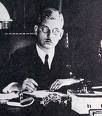


















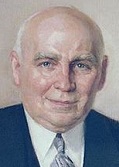


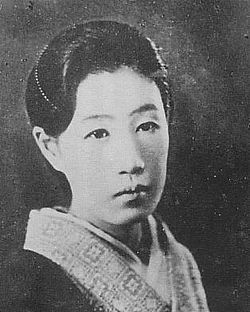
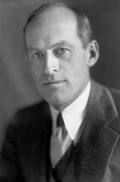
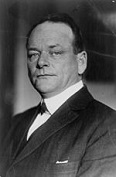





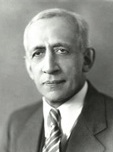
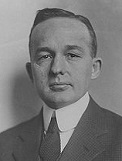










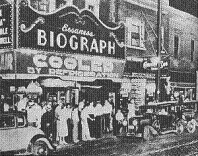

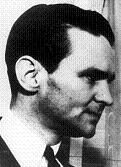


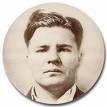




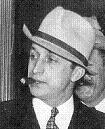



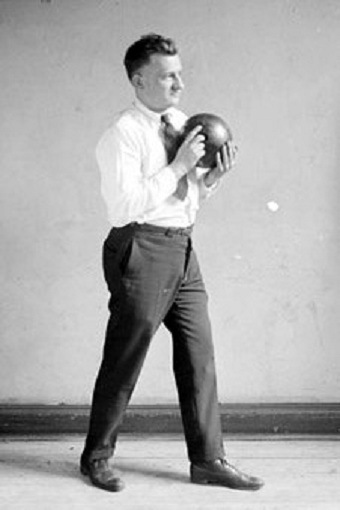
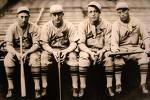


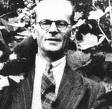







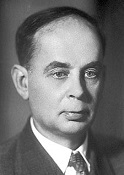




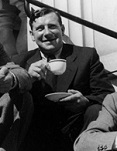
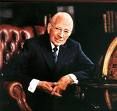

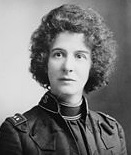
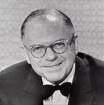
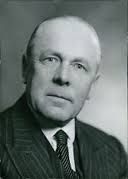

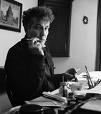
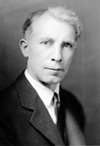
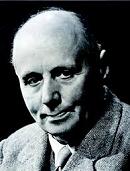













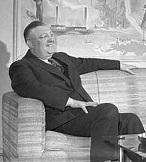
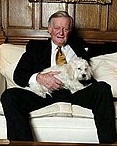





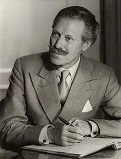





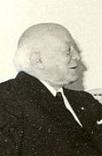




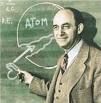




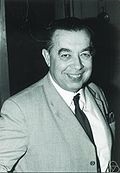

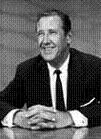



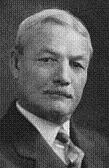

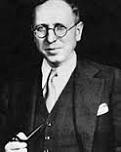
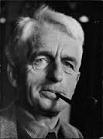

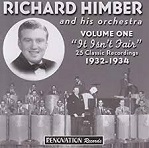
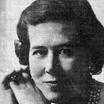







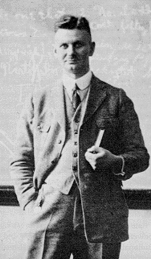

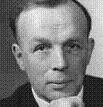
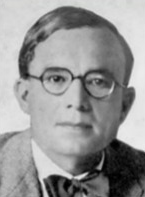

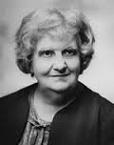





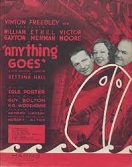
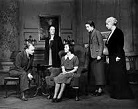

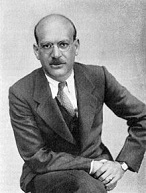
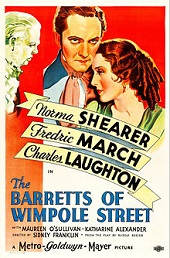
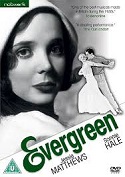
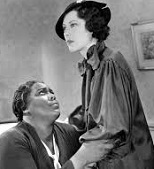


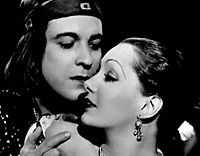
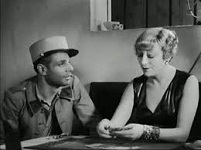
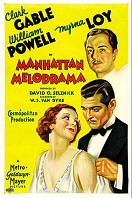
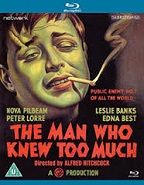
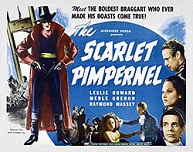

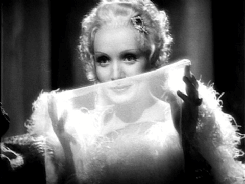

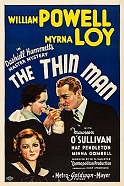

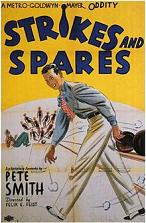





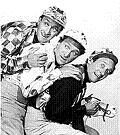
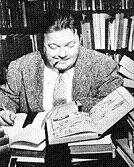
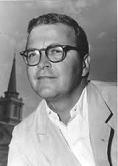















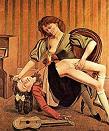


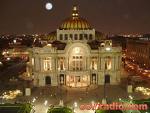

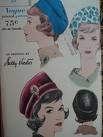
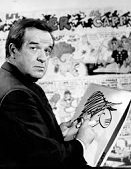
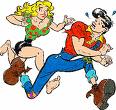
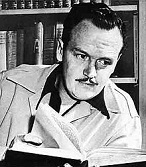
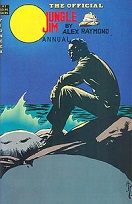
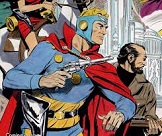


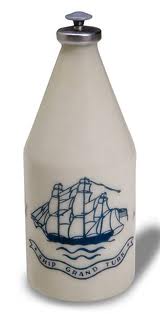
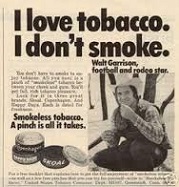


1934 Chinese Year: Dog. Time Mag. Man of the Year: Franklin Delano Roosevelt (1882-1945) (1932, 1941). This is the hottest year in the U.S. (until ?). The Great Drought begins in the U.S. (ends 1937), creating the Am.-Canadian Dust Bowl of 1935-8, covering 150K sq. mi. (75%) of the Great Plains, incl. parts of Okla., Tex., Kans., Colo., and N.M., becoming the worst drought in 1K years; caused by the planting of wheat during WWI on former grazing land to make a quick profit?; this year 400K migrate from Okla. mainly to Calif., plus 200K from Kan., lured by handbills promising jobs picking fruit, only to find no work; by 1941 the U.S. govt. sets up 13 "farm workers commuity" camps housing 41K. This year rising wool and gold prices helps Australia recover from the Great Depression faster than most other countries. This year the Great Depression causes thousands of Americans to answer newspaper ads offering paid passage to the Soviet Union along with guaranteed jobs and housing; too bad, they are later caught up in the repression of Stalin and end up in Gulags, many never surfacing again or only surfacing many years later. On Jan. 1 Columbia defeats Stanford by 7-0 to win the 1934 Rose Bowl; Columbia coach Lou "Luigi Piccolo" Little (1893-1978) later benches Jack Kerouac in 1940 after he breaks his leg. On Jan. 1 after being acquired by the U.S. Dept. of Justice last Oct. 12, Alcatraz Federal Penitentiary in San Francisco Bay officially becomes a maximum security federal prison, and after modernization it receives its first federal prisoners on Aug. 11, housing the nation's most dangerous criminals incl. Al Capone until it closes on Mar. 21, 1963. On Jan. 3 anti-Communist "Young Liberal" Gheorghe (Jorge) I Tatarescu (1886-1957) becomes PM of Romania (until Dec. 28, 1937, then Nov. 25, 1939-July 4, 1940). I turn into a werewolf once a month? On Jan. 3 (Wed.) (midnight) Wyllis Cooper's 15-min. horror program Lights Out debuts on NBC Radio, switching to CBS Radio in 1942-3, after which it is revived sporadically until 1947; it debuts on NBC-TV on July 3, 1946 and produced by Fred "Pappy" Coe (1914-79), becoming a live program in 1949-52 sponsored by Admiral and hosted by Frank Gallop, finally being killed off by "I Love Lucy" on CBS-TV. On Jan. 7 Des Moines, Iowa-born Apocalyptic Bible-thumping MF-pushing minister Herbert W. Armstrong (1892-1986) of the Radio (later Worldwide) Church of God (incorporated Oct. 21, 1933) begins broadcasting The World Tomorrow on AM station KORE in Eugene, Ore., later moving to Pasadena, Calif. and promoting Millennium Fever bigtime, preaching Armstrongism, his weird stew of Bible interpretation that preaches British Israelism (Anglo-Israelism), which claims that the British are the true Ten Lost Tribes of Israel, and must observe parts of the Mosaic Law incl. Kosher food, holy days, and the seventh-day sabbath, claiming to be the End Times Elijah; on Oct. 8, 1947 he founds Ambassador College; too bad, his son Garner Ted Armstrong (1930-2003) stinks him up with his profligacy and begins disputing his doctrinal positions, causing him to suspend him from the church in 1972 and excommunicate and fire him on June 28, 1978, which doesn't stop him from founding the Church of God International in Tyler, Tex. and return to the airwaves; after Hebert's1986 death his church dissassociates itself from his doctrines, renaming itself Grace Communion Internat. in Apr. 2009. On Jan. 7 6K pastors defy the Nazi govt. in Berlin, declaring that they will not be muzzled. On Jan. 7 (Sun.) the King Features Syndicate comic strip chars. Jungle Jim (Bradley) and Flash Gordon by Alexander Gillespie "Alex" Raymond (1909-56) debut. On Jan. 10 Marinus van der Lubbe is executed for starting the Reichstag Fire - I can't forget that scent, but I can't live without it? On Jan. 24 Konstantin Pats (Päts) (1874-1956) becomes PM of Estonia (until Sept. 3, 1937); on Feb. 27 he imposes a law prohibiting members of the miltary from taking part in politics; on Mar. 12 Estonia's experiment with democracy collapses with an attempted coup by the right-wing League of Liberators AKA the Vaps, which is stopped by a counter-coup led by Gen. Johan Laidoner (1884-1953), who gives Pats emergency powers with himself as military CIC (until 1935), going on to get Vaps jailed and curtail civil liberties while working to stabilize the govt., finally holding elections in 1938. On Jan. 26 the Apollo Theater at 253 W. 125th St. in Harlem, N.Y. (founded in 1913) reopens in the segregated U.S., featuring black performers and becoming the Northern stop for the "chitlin' circuit"; the quality is so high that whites begin sneaking in, incl. Milton Berle, who brings a stenographer to steal jokes; Ella Fitzgerald wins an amateur talent contest here this year, and Sara Vaughan in 1942. On Jan. 31 the U.S. Farm Mortgage Refinancing Act is signed by FDR. On Jan. 30 the Soviet balloon Osoaviakhim ascends 13 mi. (22Km) into the stratosphere; too bad, the cabin becomes covered with ice and breaks loose, killing the crew. In Jan. elections in Catalonia, Spain give a complete V to moderate leftist groups. On Feb. 5-6 the Stinking Stavisky case causes riots in Paris and other French cities, and on Feb. 8 a coalition cabinet under ex-pres. (1924-31) Gaston Doumergue is formed, excluding Royalists, Socialists, and Communists; on Feb. 12 the Gen. Confed. of Labor (CGT) organizes a gen. strike and calls for unity on the left; on Feb. 28 the Chamber gives Doumergue the right to rule by decree on economic matters. On Feb. 9 New York City sets a record cold temp of -15F. On Feb. 9 (4:00 p.m.) the U.S. Air Mail Scandal begins after a U.S. Senate investigation of monopolistic practices by United Aircraft and Transportation Co. (UATC) causes Pres. Roosevelt to issue Executive Order 6591, suspending all airmail contracts and giving the job of 26 routes over 25K mi. of airways to the U.S. Army Air Corps in the middle of a blizzard, resulting in 66 accidents and 12 crew deaths in 78 days, with only 34.2% of scheduled flights completed, after which on June 12 the U.S. Air Mail Act (Black-McKellar Bill) is passed by Congress, forcing UATC to break up into the Boeing Aircraft Co., United Aircraft Manufacturing Co., and United Air Lines Transportation Co., causing all airlines to seek to gain more passengers to offset decreased airmail profits; on Sept. 18 pissed-off UATC founder William Edward Boeing (1881-1956) retires and goes into horsebreeding and yachting - don't forget, strictly blues tonight? On June 14 Hitler and Mussolini meet for the first time. On Feb. 12-15 the Heimwehr of Austrian chancellor-dictator (since May 20, 1932) Engelbert Dollfuss ruthlessly suppresses a Social Dem. uprising, and on Mar. 1 establishes the 1-party authoritarian system of Austrofascism; too bad, he is assassinated on July 25 by Austrian Nazis during the unsuccessful July Putsch (ends July 30); Hitler is behind it?; on July 29 36-y.-o. Christian Social Party leader and education minister (since 1933) Kurt Alois Josef Johann (von) Schuschnigg (1897-1977) becomes chancellor #15 (until Mar. 12, 1938) (youngest ever), with Prince Ernst von Starhembeg as vice-chancellor, resisting efforts to absorb Austria into the Third Reich. On Feb. 15 the U.S. Civil Works Emergency Relief Act is passed, appropriating $950M more for FERA. On Feb. 17 Belgian king (since 1909) Albert I (b. 1875) dies in a mountaineering accident, and on Feb. 23 his son Leopold III (1901-83) succeeds him as king of Belgium (until July 16, 1951); his blonde Swedish wife Astrid Sofia Lovisa Thyra of Sweden (1905-35) becomes queen (until 1935). On Feb. 21 in Nicaragua Gen. Anastasio Somoza Garcia has his Nat. Guard assassinate rival Augusto Cesar Sandino (1895-1934) in the midst of a U.S.-mediated negotiation, then crushes his movement; in 1961 the Marxist Sandinista Nat. Liberation Front is founded, which overthrows Somoza in 1979 - here's to you, Mister Scrooge? On Feb. 23 the U.S. Crop Loan Act is passed, permitting the Farm Credit Amin. to make loans to farmers for crop production and harvesting. In Feb. Huey P. Long breaks with Pres. Roosevelt and founds the Share Our Wealth Society, with an eye on the presidency. On Mar. 16 the Sixth (6th) Academy Awards awards the best picture Oscar for 1932-3 to Fox's Cavalcade along with best dir. to Frank Lloyd, best actor to Charles Laughton for The Private Life of Henry VIII, and best actress to Katharine Hepburn for Morning Glory. On Mar. 24 Pres. FDR signs the the U.S. Tydings-McDuffie Act, authored by U.S. Sen. (D-Md.) Millard Evelyn Tydings (1890-1961) and U.S. Rep. (D-Ala.) John McDuffie (1883-1950) provides for independence of the Philippines from the U.S. by 1945; meanwhile it reclassifies Filipinos from U.S. nationals to aliens, with an immigration quota of 50/year. On Apr. 12 6,288-ft. (1,917m) Mount Washington in the White Mts. of N.H. (highest peak in the NE U.S., known to the Indians as Agiocochook or Home of the Great Spirit) measures a record 231 mph (372 km/h) wind. On Apr. 13 the U.S. Johnson Debt Default Act is passed, prohibiting financial transactions with foreign govts. who are in default of payment obligations to the U.S on any but cash terms. On Apr. 18 Japan asserts a virtual protectorate over China's relations with the Western powers. On Apr. 18 John F. Cantrell opens the Washateria, the first laundromat in Fort Worth, Tex. On Apr. 19 the new 1934 Uruguayan Constitution is proclaimed, giving the executive stronger powers and establishing compulsory voting; Gabriel Terra is reelected pres. - I'm gonna be your dream come true? On Apr. 21 the U.S. Bankhead Cotton Control Act is passed, placing the production of cotton on a compulsory basis. On Apr. 22 (eve.) the John Dillinger Gang is ambushed by federal agents led by Melvin Purvis at the Little Bohemia Lodge 50 mi. N of Rhinelander in NE Wisc., but escapes along with two companions out the windows into the woods and commandeers a 1930 Ford Model A coupe from Robert Johnson, smashing the rear window to shoot the feds with his Tommy gun before escaping to Minn.; special agent W. Carter Baum (b. 1904) is killed in the woods by psychopathic 5'4" George "Baby Face" Nelson (Lester Joseph Gillis) (1908-34), who escaped from the state pen in Joliet, Ill. on Feb. 17, 1932 while doing 1-to-life for robbery; two others are wounded, incl. Herman E. Hollis and constable Karl Christensen, all embarrassing J. Edgar Hoover, who is later relieved by the whitewash in the 1935 James Cagney movie "G Men"; in June Dillinger is declared Public Enemy No. 1, followed by Nelson after Dillinger's death on July 22. On Apr. 23 after starting a scandal by courting her while she's still married and getting her a Mexican divorce 10 days earlier, actor George Jessel marries actress Norma Talmadge; they divorce on Aug. 11, 1939, after which he causes another scandal by breaking into her house and firing a pistol at her new lover. On Apr. 25 Anzac Day is first jointly celebrated by Australia, New Zealand, and former enemy Turkey, with Kemal Ataturk uttering the soundbyte: "Those heroes that shed their blood and lost their lives... You are now lying in the soil of a friendly country. Therefore rest in peace. There is no difference between the Johnnies and the Mehmets to us where they lie side by side now here in this country of ours... You, the mothers, who sent their sons from faraway countries wipe away your tears; your sons are now lying in our bosom and are in peace. After having lost their lives on this land, they have become our sons as well." In Apr. Finland prohibits the wearing of uniforms and political emblems to combat the rising Fascist movement. On May 9 after the U.S. sugar industry only supplies one-third of the 6M tons/year of U.S. sugar consumption, the U.S. Jones-Costigan Sugar Act is passed, sponsored by U.S. Sen. (D-Colo.) (1931-7) Edward Prentiss Costigan (1974-1939) and U.S. Rep. (D-Tex.) (1917-40) John Marvin Jones (1882-1976), extending the Agricultural Adjustment Act to classify sugar beets and sugar cane as a basic commodity, and protect U.S. sugar producers by imposing quotas on imports except for Cuba, while eliminating child labor and insuring workers fair wages; in 1935 the subsidy for growers paid for by taxes on processors is ruled unconstitutional, causing an amended act to be passed in 1937; the U.S. sugar biz becomes a racket, "a government-created cartel that goes well beyond the controls imposed in any other sector of American private enterprise." On May 9 the West Coast Waterfront (Longshoremen's) Strike in Everett and Seattle, Wash., Portland, Ore., and San Francisco, Calif., organized by Australian-born Alfred Renton "Harry" Bridges (1901-90) of the Internat. Longshoremen's Assoc. begins, demanding 6-hour workdays, closed shops, and the right to freely unionize, soon joined by the Teamsters; on July 5 (Bloody Thur.) police aid picket line breakers by firing on the strikers, killing two and wounding dozens, causing new (since June 2) Calif. gov. Frank Merriam to order 1.5K Nat. Guard troops into San Francisco and place U.S. Army troops in the Presidio on standby, with the soundbyte: "The leaders of the striking longshoremen are not free from Communist and subversive influences... There will be no turning back from the position I have taken in this matter", after which the strike ends on July 7; in the fall the U.S. govt. tries to get Bridges railroaded on trumped-up federal charges of being a Communist, but their case falls apart, which doesn't stop them from trying again, and this time he has to be saved by the U.S. Supreme Court, who reverses his conviction in 1945, after which they go for a 3rd try, and get him convicted again, but the Supreme Court overturns it again. I have to get to a Chinese restaurant before it closes at midnight? On May 10-11 a violent 1.8K-mi.-wide superstorm carrying three tons of dust for every person in the U.S. blows 350M tons of topsoil from the Am. Midwest and Southwest towards New York City, making farming impossible and triggering a mass migration of farmers ("Okies") to sunny Calif.; Chicago gets 6K tons of dust dumped on it; commerce stops in semidarkness in New York City; "dust pneumonia" becomes common. On May 20 the popular newspaper column "The Lyons Den" debuts in the New York Post, by Jewish-Am. reporter Leonard Lyons (Sucher) (1906-76), going into syndication, and ending on its 40th anniv. in 1974. On May 20 after a border dispute flares up, the Saudi-Yemeni War ends with the Taif Treaty, delineating the border and giving Saudi Arabia the territories in Najaran, the Yam country, and those controlled by the Idrisis and the Al-Aidh; Britain signs a treaty guaranteeing the independence of Yemen; too bad, the dispute flares up from time to time, starting another war in 1998. A bad year for U.S. outlaws, or, My Bonnie lies over the crankcase? On May 23 after a 2-year crime spree of 100+ felonies in Tex., Mo., Ind., Minn., Ark., Okla., Colo., Miss., and Ill. that killed nine police officers and several civilians, flamboyant Texas outlaws Bonnie Elizabeth Parker (b. 1910) and Clyde Chestnut Barrow (b. 1909), AKA Bonnie and Clyde are shot to death in their stolen Ford Deluxe in a 6-man police ambush in Sailes, Biensville Parish 7 mi. from Gibsland, La. (future site of the Bonnie and Clyde Ambush Museum), ending their 2-year crime spree in a hail of 100+ bullets; Bonnie is shot 23x, Clyde 25x; license plates from Ill., Ind., Iowa, Kans., La., Mo., Ohio, and Tex. are found in the car; Bonnie smokes Camel cigarettes not cigars, but a gag photo is so heavily circulated that she can't beat the rap. On May 24 Czech pres. (since 1918) Tomas Masaryk is reelected (until Dec. 14, 1935). On May 28 the Dionne Quintuplets (Annette, Cecile, Emilie, Marie, Yvonne) (all girls), the first known to have survived infancy are born to Elzire Donne at the family farm in Callendar, Ontario, Canada; too bad, the Canadian govt. takes them away in 1935 and makes them into a tourist attraction called Quintland, bringing in 3M people by 1943, more than Niagara Falls. On May 29 139 German church delegates from 18 denominations, incl. Friedrich Gustav Emil Martin Niemoller (Niemöller) (1892-1984) and Dietrich Bonhoeffer (1906-45) meet in Barmen, Germany and issue the (Theological) Barmen Declaration, repudiating the Nazi doctrine of blood and race and implying that elevating the German race above others is anti-Christian; "We repudiate the false teaching that the state can and should expand beyond its special responsibility [to provide for justice and peace in the yet unredeemed world] to become the single and total order of human life"; too bad that their Christianity is skin-deep and they prove poor sick sisters compared to the martyrs in the days of the pagan Roman Empire, becoming easily silenced and neutralized?; "In Germany they came first for the Communists, and I didn't speak up because I wasn't a Communist. Then they came for the Jews, and I didn't speak up because I wasn't a Jew... Then they came for me, and by that time no one was left to speak up." (Niemoller) On May 31 the U.S. passes the U.S.-Cuban Reciprocity Treaty, abrogating the Platt Amendment. On June 2 after Calif. Gov. (since Jan. 6, 1931) James Rolph (b. 1869) dies of a heart attack and he defeats Socialist muckraking author Upton Sinclair, leader of the End Poverty in Calif. Movement with help from newspaper magnate William Randolph Hearst, Hopkinton, Iowa-born Frank Finley Merriam (1865-1955) becomes Repub. Calif. gov. #28 (1934-9) (until Jan. 2, 1939), going on to deal with the 1934 Longshoremen's Strike and alienate conservatives by proposing a $107M tax increase along with a state personal income tax and sales tax rate of 3%, which is passed in 1935. On June 6 the U.S. Securities Exchange Act of 1934 is signed by Pres. Franklin D. Roosevelt, providing for regulation of securities exchanges, overseeing security markets, providing financial disclosure to stockholders and investors, and establishing the Securities and Exchange Commission (SEC), with Joseph Patrick Kennedy Sr. (1888-1969) as chmn. #1. On June 12 the U.S. Emergency Farm Mortgage Foreclosure Act is passed, allotting $200M for refinancing. On June 12 the U.S. Reciprocal Tariff Act is passed, authorizing FDR for the next three years to negotiate trade agreements with foreign nations without the advice and consent of the Senate, and giving him the power to raise and lower tariff rates by up to 50% - Hitler Schmitler? On June 19 the U.S. Labor Disputes Joint Resolution abolishes the NLRB and creates a federal agency for the investigation and mediation of labor disputes growing out of the NIRA. On June 19 the U.S. Silver Purchase Act of 1934 is passed, authorizing the U.S. pres. to nationalize domestic silver stocks and requiring the U.S. Treasury to stabilize the price at $1.2929 an oz.; Pres. FDR signs Executive Order 6814 on Aug. 9, requiring all silver in the continental U.S. to be sold to the U.S. govt.; too bad, the real market value is 45 cents, and the new law causes speculators to drive the price up to 81 cents, destroying the currency systems of Mexico and China, and in 1939 Congress is allowed to set a price for domestic silver, and it picks 71 cents; luckily, WWII causes a silver shortage, driving the price up for real, causing the U.S. Green Act to be passed in 1943, allowing industries to buy silver from the treasury at the price originally paid for it; after another worldwide shortage, the Silver Purchase Act is repealed in 1963. On June 19 the U.S. Communications Act creates the Federal Communications Commission (FCC) to regulate interstate and foreign communications, abolishing the Federal Radio Commission and absorbing functions of the Interstate Commerce Commission; the wavelength of European broadcasting stations is altered to conform with recommendations of the Lucerne Committee; on July 11 Miss. Supreme Court judge (1916-24) Eugene Octave Sykes Jr. (1876-1945) becomes dir. #1 (until Mar. 8, 1935). On June 21 Hitler flies to Neudeck to see the dying Paul von Hindenburg. On June 26 the U.S. Nat. Firearms Act (NFA) is passed as a knee-jerk reaction to the 1929 Valentine's Day Massacre, requiring owners of certain firearms (incl. automatics and short-barreled rifles and shotguns) to register them and pay a $200 excise tax, and report any attempt to permanently transport them across state lines to the U.S. Bureau of Alcohol, Tobacco, Firearms and Explosive (ATF); upheld by the U.S. Supreme Court in U.S. v. Miller (1939). On June 27 the U.S. Railway Pension Act is passed, requiring railroads to pension their aging employees; declared unconstitutional next year. On June 27 the U.S. Crosser-Dill Railway Labor Act is passed, providing for the settlement of railroad labor disputes and outlawing company-run unions. On June 28 the U.S. Frazier-Lemke Farm Bankruptcy Act is passed, allowing federal courts to scale down a farmer's debt to a level commensurate with the existing value of the property; a 5-year moratorium on debt is declared unconstitutional on May 27, 1935, after which Congress trims it down to three years on Aug. 29, 1935, which the court finds to be okay on Mar. 29, 1937. On June 28 the U.S. Tobacco Control Act is passed, placing the production of tobacco on a compulsory basis. On June 28 the U.S. Congress creates the Federal Housing Admin. (FHA) to insure construction loans. On June 29 Jewish Conservative British MP Leslie Hore-Belisha (1893-1957) becomes minister of transport (until May 28, 1937), getting the British Road Traffic Act passed, which introduces an unpopular 30 mph speed limit and requires driving tests, adopting the Belisha Beacon, a flashing amber light for pedestrian crossings. Cheer up sleepy Roehm? On June 29-30 (night) after months of plotting to rid himself of a 4M-man threat to his supremacy, with avid Nazi Party member Gen. Walther Karl Ernst August von Reichenau (1884-1942) talking Hermann Goering and Heinrich Himmler into it as necessary to get the Wehrmacht to support the govt., the Night of the Long Knives (Operation Hummingbird) sees Hitler order Waffen-SS gen. Josef "Sepp" Dietrich (1892-1966) to take six men and go to the Ministry of Justice in Berlin and execute a number of SA leaders, incl. Gregor Strasser (b. 1892) (they imprison him then shoot him through a window in his prison cell); Hitler then personally arrests homosexual SA Chief Ernst Julius Gunther Roehm (Röhm) (b. 1887) (earnestly ream what?) in Bad Wiessee on Lake Tegernsee in Bavaria, where the SA leaders were gathered to pork, er, meet with him, and after refusing a chance at suicide, he is shot on July 2 in his cell in Stadelheim Prison in Munich by SS Lt. Col. Michael Hans Lippert (1897-1969); former chancellor Kurt von Schleicher is murdered by the SS in his Berlin flat on June 30; the "blood purge" allows Hitler to take care of all his dirty laundry and silence people who knew too much, but he keeps it secret until a speech on July 13, using their homosexuality as a convenient excuse; on July 20 the SS (Schutztaffel), which broke ranks and went with Hitler is made independent of the SA. In June King Alexander I of Yugoslavia signs a trade agreement with the Nazi govt. On July 2 Gen. Calles' man, humble-born rev. gen. and Michoacan gov. (1928-32) Lazaro Cardenas (Lázaro Cárdenas) del Rio (1895-1970) is elected pres. of Mexico for a 6-year term, and is sworn-in on Dec. 1, but soon turns on Calles, regarding him as too conservative and corrupt; his first act in office is to cut his pres. salary in half to become popular, followed by ending capital punishment, which in Mexico is by firing squad; this puts Mexico ahead of (or behind, depending on your POV) the U.S., which has just passed the 1932 U.S. Little Lindbergh Law - it's the cookie that thinks it's a fruit? On July 7 govt. of Saito Makoto falls, and on July 9 Adm. Keisuke Okada (1868-1952) becomes Japanese PM #31 (until Mar. 9, 1936), with Koki Hirota (1878-1948) continuing as foreign minister (until Mar. 9, 1936). On July 10 Jewish sadist monster Genrikh Grigoryevich Yagoda (1891-1938) becomes dir. of the NKVD, going on to supervise the show trials of Old Bolsheviks Lev Kamenev and Grigory Zinoviev and the construction of the White Sea-Baltic Canal using slave labor, killing 7M-10M Ukrainians before being put to death after his own show trial, becoming the greatest Jewish murderer of the 20th cent.?; during his trial he spies Stalin sitting behind a window on the 2nd floor, and cries "I appeal to you! For you I built two great canals!", which Stalin answers by lighting his pipe; he is shot along with 3K NKVD supporters after being stripped and beaten for humiliation on Yezhov's orders, which is later done to him when Lavrenti Beria takes his job. On July 11 Pres. Roosevelt becomes the first U.S. pres. to travel through the Panama Canal, issuing an executive order allocating $15M for the planting of FDR's Great Wall of Trees, forest protection strips in the Great Plain, leading to 220M trees being planted by the Civilian Conservation Corps by 1941, along with 18K mi. of windbreaks on 33K farms; too bad, most are plowed up by modern times. On July 12 the Belgian govt. responds to its growing fascist movement and prohibits the formation of military units and the wearing of uniforms by political orgs., and dissolves the Labor Defense Militia and all other fascist orgs. The original Rocky and Bullwinkle with Boris and Natasha? On July 12 White Russian adventurer Boris Mikhailovich Skossyreff (1896-1944) declares himself sovereign prince Boris I of Andorra, and declares war on the bishop of Urgell, getting him arrested on July 20 by Spanish authorities and expelled; during the Spanish Civil War France stations troops in Andorra, and it remains neutral in WWII, becoming an important smuggling route between Vichy France and Spain. On July 20 Keokuk, Iowa reaches a state temp record of 118F (48C); in July 80% of the U.S. is in extreme or severe drought. On July 22 (eve.) (his birthday) after being named the first Public Enemy No. 1, and despite a painful but ineffective plastic surgery, John Dillinger (b. 1903) is killed (assassinated?) by 19 FBI agents led by Chicago FBI office head (since 1932), Timmonsville, S.C.-born Melvin Horace "Little Mel" Purvis II (1903-60) and a bunch of local cops outside the Biograph Theater in Chicago, Ill. after being betrayed by the "Woman in Red" Anna Sage (Cumpanas) (1892-1947) (actually wearing an orange skirt) (a Romanian madame facing deportation on a morals charge, who is deported anyway); fans dip handkerchiefs in his blood at the death scene; he is buried under 5 ft. of cement and steel to deter souvenir seekers in Crown Point, Ind., in the same cemetery as Pres. Benjamin Harrison; he had just seen the 1934 movie Manhattan Melodrama, starring William Powell, Clark Gable, and Myrna Loy; future Conn. Dem. Sen. (1959-71) Thomas Joseph Dodd (1907-71) participates in the trap as an FBI special agent; the publicity makes Purvis a celeb, making J. Edgar Hoover jealous?; Purvis resigns from the FBI in 1935. On July 27 Socialists and Communists in France sign an agreement to end infighting and form a united front; in Oct. French Communist Party leader (1930-64) Maurice Thorez (1900-64) calls for a Popular Front against Fascism - incl. all leftists with the chemical formula S, C, or R? In July 1934 after being incarcerated for stabbing a white man, Mooringsport, La.-born "King of the Twelve-String Guitar" Leadbelly (Lead Belly) (Huddie William Ledbetter) (1888-1949) records hundreds of songs for foklorists John and Alan Lomax, who get La. Gov. Oscar K. Allen to get him released on Aug. 1, pioneering Am. folk music, with hits incl. "Goodnight Irene", "The Titanic", "In New Orleans (House of the Rising Sun)", "C.C. Rider", "Black Betty", and "Blue Tail Fly". On Aug. 1 German pres. Paul von Hindenburg (b. 1847), who had threatened to declare martial law and have the Germany army shut down the SA if Hitler didn't do it dies, and Hitler becomes fuehrer and chancellor; on Aug. 2 the armed forces take a personal oath of loyalty to him; on Aug. 15 Hitler receives Hindenburg's political testament; on Aug. 19 a plebiscite approves by an overwhelming 90% "ja" the vesting of sole executive power in herry hair hair Hitler der Fuehrer, who now combines the offices of pres. and chancellor and announces the Third Reich, the alleged heir to the First Reich or Holy Roman Empire of 962 (800?)-1806 and the Second Reich of Germany 1871-1918, all run by Germans, which Hitler claims will last for 1K years; not so secretly he envisions the Mediterranean Sea as a German lake and the whole world as his oyster, with himself as caesar (kaiser)? - if only he can find the fourth tablet of King Tut? On Aug. 7 the U.S. Court of Appeals upholds a lower court ruling striking down the govt.'s attempt to ban the controversial James Joyce novel Ulysses; Am. publisher Bennett Cerf (1898-1971) gives Joyce needed help. On Aug. 8 the first Soviet Writers' Congress is held in Moscow under Maxim Gorky (1868-1936). On Aug. 22 the Am. Liberty League is founded by conservative Dems. to oppose FDR's New Deal, with Jouett Shouse (1879-1968) as chmn., flooding the U.S. with pamphlets; it folds in 1940; it is secretly funded by J.P. Morgan, and tries to organize an army to stage a coup until Gen. Smedley Butler blows the whistle, albeit sans evidence. On Aug. 13 the comic strip Li'l Abner by New Haven, Conn.-born Al Capp (Alfred Gerald Caplin) (1909-79) debuts (until Nov. 13, 1977), about a fictional Southern Am. town, reaching 60M readers in 1K newspapers in 28 countries; chars. incl. 19-y.-o. Li'l Abner Yokum, his mother Mammy Yokum (Pansy Hunks), his father Pappy Yokum (Lucifer Ornamental Yokum), his babe Daisy Mae Scragg, and their son Honest Abe Yokum (b. 1953); too bad, his ex-boss Ham Fisher (of "Joe Palooka" fame) claims he stole his char. Big Leviticus, causing a 20-year mutual vendetta. On Sept. 8 (a.m.) SS Morro Castle en route from New York City to Havana, Cuba burns and sinks off Asbury Park, N.J., killing 137 passengers and crew. On Sept. 9 after debuting in The New Yorker on June 7, 1930, the comic strip The Little King by Otto Soglow (1900-75) debuts in syndication in the U.S. with King Features (until 1975). On Sept. 12 Estonia joins the Baltic Pact. On Sept. 18 by a 39-3-7 vote the Soviet Union is admitted to the League of Nations despite bitter Swiss govt. opposition; meanwhile a planned wage reduction in Switzerland causes a threatened strike, which is averted when the govt. creates an arbitration commission with jurisdiction over all wage disputes, although it causes grumbling. On Sept. 26 the SS Queen Mary is launched by Queen Mary of Britain. On Oct. 3-9 the St. Louis Cardinals (NL) defeat the Detroit Tigers (AL) 4-3 On Oct. 3-9, 1934 the St. Louis Cardinals (NL) defeat the Detroit Tigers (AL) 4-3 to win the 1934 (Thirty-First) (31st) World Series; Lou Gehrig becomes the 6th player to win baseball's triple crown; the Cardinals become known as the Gashouse Gang, incl. pitcher Jerome Hanna "Dizzy" Dean (1910-74) (who tears his uniform to shreds in front of cameras and declares the club a "cheap outfit"), SS Leo "the Lip" Durocher (1905-91), pitcher James Otto "Tex" Carleton (1906-77), LF Joseph Michael "Joe" "Ducky" Medwick (1911-1975), 2B Francis "Frank" "Frankie" "the Fordham Flash" Frisch (1898-1973), and 3B Johnny Leonard Roosevelt "Pepper" Martin (1904-65); Cardinals mgr. Branch Rickey considers them the culmination of his farm system; pushing-40 Babe Ruth is booted by the Yankees after the 1934 season, and they screw him him twice by not making him a mgr. On Oct. 7 ex-Spanish pres. Manuel Azana is arrested and imprisoned in Barcelona; next Apr. 6 he is acquitted. On Oct. 8 Bruno Richard Hauptmann (1899-1936) is indicted for murdering the Little Lindbergh Baby (infant son of Charles A. Lindbergh) after a police investigation led by N.J. State Police suptd. #1 (1921-36) Herbert Norman Schwarzkopf Sr. (1895-1958); the Trial of the Century in Flemington, N.J. results in a jury finding him guilty on Feb. 13, 1935 of first-degree murder; he is electrocuted on Apr. 3, 1936; the prosecutor is Latvian-born N.J. atty.-gen. (1934-44) David Theodore Wilentz (1894-1988), whose son Robert Wilentz becomes N.J. supreme court chief justice in 1979-96; the whole affair takes the shine off gangsters, who had been used to Robin Hood auras for fighting Prohibition and banks. On Oct. 9 king (since 1921) Alexander I of Yugoslavia (b. 1888) is assassinated in Marseille, France along with French foreign minister Louis Barthou by a Macedonian activist associated with an ultra-right Croatian nationalist terrorist group, and his cousin Prince Paul Karadordevic (1893-1976) becomes head of a 3-man regency council for the king's eldest son Prince Peter II Karadordevic (1923-70); Croat leader Vladimir Macek is released from prison - rob Peter to pay Paul? On Oct. 12 after lobbying by the Knights of Columbus and Italian-born New York City newspaper publisher Generoso Pope (1891-1950), the first official U.S. observance of Columbus Day is held to celebrate the Oct. 12, 1492 discovery of the New World by Christopher Columbus (until ?); in 1971 the holiday is fixed on the 2nd Mon. in Oct., same as Thanksgiving in Canada since 1959. On Oct. 12 the Am. Society of Brewing Chemists (ASBC) is founded at the Wahl-Henius Inst. in Chicago, Ill. to foster scientific papers, with 24 member cos. incl. brewing cos. Anheuser-Busch, Pabst, Schaefer, and Blitz, malting cos. Fleishmann and Kurth, corn processors Am. Maize and Krause Milling, and scientific orgs. Siebel Inst., Nat. Brewers' Academy, and Wallerstein; in 1939 individual membership is approved. On Oct. 19 Alexander Zaimis is reelected pres. of Greece for a 5-year term (until 1935). On Oct. 22 Charles Arthur "Pretty Boy" Floyd (b. 1904), the Robin Hood of the Cookson Hills is killed by FBI agents in a farm field near East Liverpool, Ohio. In Oct. the 100K-man 1st Front Red Army of Mao Tse-tung begins the 6K-mi. Long March (ends Oct. 1936) from their HQ of Juichin in Kiangsi through Kweichow and Szechwan to Yenan (Wuch'ichen) in Shenai, reading their mud-soaked Sun-Tzu all the way while losing 70K men, and making their HQ there for the next 10 years; a 2005 bio. of Mao claims he was carried on the march. In Oct. a Spanish cabinet is formed which incl. rightists and monarchists, causing a gen. strike in C and N Spain by the Socialist trade union UGT in combo with the anarchists and Communists; Catalonia proclaims its independence, causing the govt. to react with an iron hand and crush them, killing thousands. On Nov. 8 after French PM Gaston Doumergue proposes the British idea of a change of ministry necessitating a new election, his ministry falls, and is reorganized under Pierre Etienne (Étienne) Flandin (1889-1958), who becomes French PM (until 1935). On Nov. 9 nat. elections in Australia result in the Country Party forcing PM Joseph A. Lyons to form a cabinet coalition with his United Australia Party. On Nov. 10 the Central Corporative Committee is established in Italy as an economic parliament. On Nov. 17 Southwest Texas State Teachers College grad. and (since 1932) Texas Rep. Richard M. Kleberg's Washington, D.C. secy. Lyndon Baines Johnson (b. 1908) marries Claudia Alta "Lady Bird" Taylor (1912-); they have no sons and 2 daughters (Lynda Bird and Luci Baines). On Nov. 27 Bolivian pres. (since 1931) Daniel Salamanca Urey is overthrown by a military coup led by Col. Jose David Toro Ruileva (1898-1977) after he blames defeats in the Chaco War on them and tries to fire the gens., and on Dec. 1 vice-pres. Jose Luis Tejada Sorzano (1882-1938) becomes pres. #39 of Bolivia (until May 16, 1936), returning the Liberals to power after 14 years, but as puppets of the military. On Nov. 27 the Battle of Barrington in Barrington, Ill. (near Chicago) sees cop-killing public enemy #1 (since the death of Dillinger) Baby Face Nelson attack a FBI car that was on his hit list, then after they get him ditched he comes out with a Thompson submachine gun, killing FBI agents Herman E. Hollis and Samuel P. Crowley while taking 17 slugs, after which he is driven in their car by his partner John Paul Chase, dying of his wounds and being dumped at 8 p.m. at Niles Center (Skokie), Ill. cemetery; he goes down in history as killing more U.S. federal agents than any other criminal (until ?). On Nov. 29 the Detroit Lions football team begins the tradition of the Thanksgiving Day Football Game, playing the Chicago Bears at the U. of Detroit Stadium before 26K fans; meanwhile FDR gives a speech in Warm Springs, Ga. on his 10th anniv. of going there to help his polio. On Nov. 30 after former PM (1920-3) Muhammad Tawfiq Nessim Pasha (1874-1938) is appointed PM of Egypt (until 1936) by King Fouad I (who gives up trying to live without one) he revokes the constitution of 1930, but folds to British pressure and fails to reinstate the original 1923 constitution; in 1937 Nessim raises eyebrows by marrying Mary Hubner (1920-), an Austrian babe who is 46 years younger and of much lower social class. On Dec. 1 Stalin's comrade Sergei Kirov, head of the Communist Party in Leningrad is assassinated by lone gunman Leonid Nikolaev, triggering the Great Purge (Big Terror) (ends 1939), a purge of the Soviet Communist Party, incl. the arrest and shooting of 98 of 139 members and candidates of the Party Central Committee by 1938; the Russian towns of Vyatka and Yelizavetgrad are renamed Kirov and Kirovograd in his honor; by the end of 1938 850K (36%) members of the Soviet Communist Party have been purged, and Soviet concentration camp pop. reaches 8-10M - put another sucker in the bag of the commie fantasy? On Dec. 5 Italian and Ethiopian troops clash at the Battle of Ual-Ual (Walwal) on the disputed Ethiopian-Somaliland frontier, giving the Italians a rationale for conquering Ethopia - we'll take it all, you all? On Dec. 6 the Depressed Areas Bill is introduced in Britain. On Dec. 8 weekly airmail service begins between England and Australia. On Dec. 27 after he tries to blow the whistle on his mistreatment of Ekimos, Dr. Nikolai Vulfson is murdered by Stepan Startsev, sled driver of Konstantin Semenchuk, head of the Glavsevmorput station on Wrangel Island, giving his big chance to up-and-coming prosecutor Andrei Januarevich Vyshinsky (1883-1953), who next year becomes Soviet prosecutor gen., holding a big show trial to convict him, then masterminding the Great Purge, with the Show Trial Must Go On motto "Confession of the accused is the queen of evidence." On Dec. 29 Japan renounces the Washington Naval Treaty of 1922 and the London Naval Treaty of 1930. On Dec. 30 the Los Angeles Times pub. the article Cold, Heat, Drought and Floods Set New Marks, with the subtitles: "Whole World in Freak Weather Year of 1934", and "Unprecedented Extremes Recorded in Every Corner of the Earth: Even Climate Is Changed in Spots". After the U.S. fails to recognize Cuban pres. Dr. San Martin Roman Grau, he is ousted by army head Fulgencio Batista y Zaldivar (1901-73), who begins ruling Cuba through a series of puppet presidents (until 1958), with the U.S. supplying the army and training Cuban officers. Coastal populist Jose Maria Velasco Ibarra (1893-1979) becomes pres. of Ecuador (until 1935), going on to be repeatedly thrown out by the military and crawl back in (1944-7, 1952-6, 1960-1, 1968-72), while uttering the soundbyte "Give me a balcony and I will become presidente". The govt. of the Gold Coast Colony in Africa is reorganized, with Ashanti administered by a chief commmissioner (until 1957). Gandhi suspends his civil disobedience campaign in India - there goes another Nobel Peace Prize? Afghanistan is admitted to the League of Nations. Polish leader Josef Pilsudski signs a non-aggression pact with Germany. The U.S. withdraws from Haiti, which it has occupied since 1915. Chiang Kai-shek is named pres. of the Chinese executive. The U.S. Congress grants FDR the pover to conclude agreements for reducing tariffs. Limited democracy in the way of a legislative assembly is finally allowed in Kashmir by the maharajah. After PM Georgiev prepares the ground by suspending the constitution the year before, Bulgarian Tsar Boris III assumes dictatorial powers. The much-ballyhooed Peace Ballot in Britain demonstrates overwhelming support for disarmament and the League of Nations - I keep seeing all kinds of ads on TV to take care of the symptoms, but never the causes? Chicago, Ill.-born William Lawrence Shirer (1904-93) is hired by the Berlin bureau of the Universal News Service, moving in Sept. 1937 to CBS-Radio in Vienna, becoming the first "Murrow Boy", moving to Berlin in 1939 and leaving in Dec. 1940, then returning in 1945 to cover the Nuremberg trials. N.M. Dem. U.S. Sen. (1931-5) Dennis Chavez (1888-1962) (the only Hispanic in the U.S. Senate) becomes FDR's adviser on Hispanic affairs. The U.S. Federal Farm Mortgage Corp. is created. N.Y. conservation commissioner Henry Morgenthau Jr. (1891-1967), publisher of Am. Agriculturalist (since 1922) becomes U.S. treasury secy. (until 1945) - a Jew versed in family farming running America's finances, now we're safe? Muckraker Upton Sinclair almost wins the governorship of Calif. as a Dem. Am. journalist Dorothy Thompson (1893-1961) (of German descent) becomes the first U.S. journalist to be expelled from Nazi Germany, going on to take them on and end up as the #2 most influential woman in the U.S. after Eleanor Roosevelt in 1939; "As far as I can see, I was really put out of Germany for the crime of blasphemy. My offense was to think that Hitler was just an ordinary man." Commonwealth Edison Co. pres. Samuel Insull (1859-1938), once one of the leading businessmen in the U.S. is acquitted of securities fraud after the public turns against him when his utilities empire collapses - his insulation shorted out? The U. of Tehran is founded in Tehran, Iran, becoming its first modern univ., "the mother univ. of Iran"; in 1935 it goes coed. After joining the Socialist Party of Am. in 1930, New York City-born Jewish-Am. CCNY student Joseph P. Lash (1909-87) begins organizing antiwar demonstrations on college campuses, becoming exec. secy in 1936 of the Am. Student Union Socialist-Communist fusion youth org., then flopping when the Soviet Union backs the Fascists in the Spanish Civil War, serving with Loyalist forces as a speaker, then breaking ranks with the Communist Party completely after Stalin's Aug. 23, 1939 Non-Aggression Pact with Hitler and resigning from the Am. Student Union; 3 mo. later on Nov. 11 on the way to become a hostile witness before the House Un-Am. Activities Committee (HUAC) (Dies Committee) about Communist infiltration of the Am. Youth Congress he meets and befriends First Lady Eleanor Roosevelt on a train they boarded at Penn. Station, who takes him and seven others to lunch at the White House, appears in the hearing room in the afternoon as a gesture of support and invites him to dinner with FDR and her at the White House, after which he becomes one of her closest advisers and dir. of FDR's Youth Committee in the 1940 pres. campaign, pissing-off J. Edgar Hoover, who puts him under surveillance and spreads rumors of a secret romance; after he death FDR Jr. rewards him by making him her official biographer with access to her private papers, resulting in the Pulitzer Prize-winning 1970 bio. "Eleanor and Franklin". The German Labor Front is founded, becoming the only legal trade union in the Third Reich. The Swedish parliament passes a law requiring involuntary sterilization for the inferior ("mentally ill"); between 1935 and 1975 63K people are sterilized. Retired U.S. Marine Corps Maj. Gen. Smedley Darlington Butler (1881-1940), "the Fighting Quaker", "Old Gimlet Eye" alleges that a group of wealthy industrialists has assembled an army of 500K to stage a coup to overthrow the govt. of Pres. Roosevelt; too bad, after the alleged plotters deny everything, he is scoffed at and dismissed. The Hays (Motion Picture Production) Code, adopted by the Motion Picture Assoc. of Am. (MPAA) in 1930 and backed by the Legion of Decency ends years of leniency in U.S. movies and institutes official film censorship in Hollywood, which becomes a challenge to bring down, causing it to come down perhaps too fast in the 1960s; "Pointed profanity (this incl. the words God, Lord, Jesus, Christ - unless used reverently - Hell, S.O.B., damn, Gawd), or every other profane or vulgar expression however used, is forbidden"; "The inanities blessed by the Hays Office are more genuinely corrupting than any pornography (Joseph Wood Kruch); "The Hays Office warned us that we couldn't show the heroine as a prostitute. We had to put a sewing machine in her apartment, so in that way she was not a whore but a seamstress" (Fritz Lang, about the 1940 film "Man Hunt"). The 725 carat Jonker Diamond is discovered near the Premier Mine in South Africa (which yielded the Cullinan Diamond in 1905), becoming the finest large diamond ever found; it is cut into 12 diamonds ranging from 5.3 to 125.35 carats. Hitler purchases the Portrait of Frederick the Great by Anton Graff (shown wearing a perruque and a powder-blue uniform) for 34K marks, and has it taken along wherever he goes; in his bunker before committing suicide in 1945, he presents it to his pilot Johann "Hans" Baur (1897-1993). The Swiss set up their legendary bank secrecy laws with the Federal Act on Banks and Savings Banks just in time for fascists everywhere to hide their loot. The U.S. Taylor Grazing Act gives the U.S. Dept. of the Interior power to regulate grazing on public lands in the U.S. West. The Nat. Archives in Washington, D.C. are established; until this year the key documents on which the U.S. govt. is founded (Declaration of Independence, etc.) are never gathered together; next year the building to hold them (designed by John Russell Pope) opens. The U.S. Nat. Climatic Data Center (NCDC) is established in New Orleans, La. to archive weather data, moving to Asheville, N.C. in 1951 and renamed to the Nat. Weather Records Data Center (NWRC), and the modern name in 1993; in 2015 it is merged with the Nat. Geophysical Data Center and the Nat. Oceanic Center into the Nat. Centers for Environmental Info. (NCEI), becoming part of the Global Historical Climatology Network (GHCN) along with Ariz. State U. and the Carbon Dioxide Information Analysis Center, which runs five Earth surface stations, 6K temperature stations, 7.5K precipitation stations, and 2K pressure stations, with the avg. temp record going back to the late 1950s, incl. data collected since 1697, with 1,650 records greater than 100 years, and 220 greater than 150 years. Wilhelm Emil "Willy" Messerschmitt (1898-1978) and Walter Rethel design the Messerschmitt BF 109 fighter aircraft, of which 35K are eventually built, giving the German Luftwaffe its prized toy. The first ski tow is set up in Woodstock, Vt. The first Nanga Parbat (in Pakistan) expedition fails to reach the summit. Worldwide scheduled air service route mileage rises to 223.1K mi. from 9.7K in 1920; total mi. flown is 103.432M (2.969M in 1920). Fuji Photo Film Co. Ltd. is founded on Jan. 20 by Dai-Nippon Celluloid Co. in the shadow of Mt. Fuji, Japan's highest (12,388 ft.) mountain, on Honshu Island, SW of Tokyo. Evangeline Cory Booth (1865-1950), daughter of founder William Booth is elected Gen. of the Salvation Army (until 1939), becoming the first woman gen. Gordonstoun School near Duffus, Moray, Scotland is founded by German educator Kurt Matthias Robert Martin Hahn (1886-1974), going on to educate three gens. of British royalty incl. the Duke of Edinburgh, and the Prince of Wales, who calls it "Colditz in kilts". Italian priest Gaetano Cantanoso founds the Veronican Sisters of the Holy Face; he is canonized on Oct. 23, 2005 by Pope Benedict XVI. Daimler-Benz begins racing their Silver Arrow (Silberpfeile) cars (until 1939). Lord (1st Viscount) Rothermere, whose newspapers back appeasement of the Nazis and even an alliance with Germany builds the Bristol Type 135 Cabin Monoplane with a top speed of 307 mph, higher than any British fighter, and he renames it "Britain First" and presents it to the govt., who begin production in 1936 under the name Blenheim Mark I. Pepsi-Cola begins putting their drink in 12-oz. bottles instead of the customary 6-oz. Overzealous use of pinball machines results in the creation of the "tilt" mode. Winthrop Williams Aldrich (1885-1974), son of U.S. sen. Nelson W. Aldrich becomes pres. of Chase Manhattan Bank (until 1953) - good guy to have in charge of all those obscene profits made by the rich during the Depression? Kan.-born Earl Russell Browder (1891-1973) becomes gen. secy. of the Communist Party USA (until 1945); in 1946 after criticizing Soviet domination, he is expelled. Hendon (Metropolitan) Police College in Middlesex, London is founded on May 31 by Metropolitan police commissioner (former WWI British Air Staff chief) Sir Hugh Trenchard, 1st Viscount Trenchard (1873-1956), and opened by the prince of Wales. The Japan Economics Assoc. is founded; in 1995 it establishes the Nakahara Prize for Japanese economists under age 45. The British Iron and Steel Federation is established for nat. planning of steel production. Glasgow, Scotland-born archeologist Sir Robert Eric Mortimer Wheeler (1890-1976) establishes the Inst. of Archaeology at the Univ. of London, going on to oversee excavations of Roman period sites in Britain while advancing methdology and encouraging public interest in the discipline with his BBC-TV series "Animal, Vegetable, Mineral?" (1952-9), becoming "the most famous British archaeologist of the twentieth century" (Gabriel Moshenka and Tim Schadla-Hall); too bad, he has a problem with groping young women and cheating on his three wives, incl. archeologist Tessa Verney Wheeler (1893-1936), and tending to act as a "benevolent dictator", and later his interpretations of archeological sites are discredited. Toronto-born Canadian businessman Roy Herbert Thomson (1894-1976) acquires his first newspaper, the Timmins Daily Press, followed by 18 more by the early 1950s; in 1959 he acquires the Kemsley Group of newspapers, largest in Britain, which incl. The Sunday Times, expanding to 200+ newspapers in Canada, the U.K., and the U.S. before buying The Times from the Astor family in 1966; in 1964 he is created 1st Baron Thomson of Fleet, losing his Canadian citizenship; he dies in London on Aug. 4, 1876 leaving his Thomson Corp. to his son Kenneth Roy "Ken" Thomson (1923-2006), who becomes the 2nd baron Thomson of Fleet and is allowed to retain his Canadian citizenship although he never takes a seat in the House of Lords, dying on June 12, 2006 as the richest person in Canada ($19.6B). the Academy of Am. Poets is founded in N.Y. state, going on to pub. American Poets mag., and found the Web site Poets.org, establishing the James Laughlin Award (for 2nd pub. books) (1954), Copernicus Award (1974-7), Edgar Allan Poe Award (1974-7), Leonore Marshall Poetry Prize (1975), Walt Whitman Award (1975), Harold Morton Landon Translation Award (1976), Peter I.B Lavan Younger Poets Award (1983-94), Wallace Stevens Award (1984), Raiziss/de Palchi Translation Award (1995), Aliki Perroti and Seth Frank Most Promising Young Poet Award (2013), and Ambroggio Prize (2017). John Christie (1882-1962) founds the Glyndebourne Operatic Festival in Glyndebourne (near Lewes) in Sussex, England. Louis Jouvet (1887-1951) becomes dir. of the Theatre de l'Athene in Paris. Tavern on the Green in New York City's Central Park is established of the park's former sheepfold. Studio Mist, the first Arab movie studio is founded in Egypt, and becomes the Arab world leader. Jewish showman Billy Rose (1899-1966) opens the Billy Rose Music Hall at 52nd and Broadway in New York City, featuring the Benny Goodman Trio. Yah here cum der Rooster? The Nazi govt. in Germany tells all liberal thinkers to take a hike, causing an exodus of lit. talent incl. Hermann Broch, Alfred Doblin, Bruno Frank, Alfred Neumann, Franz Werfel (1890-1945), Arnold Zweig (1887-1968), and the Manns (Heinrich, Thomas, Klaus) - comic books will do? Irish surrealist painter Francis Bacon (1909-92) stages a 1-man exhibition in London, where he displays his weird self-portraits that resemble his face convolved with a scrotum? Lou Gehrig becomes the first athlete to grace a box of Wheaties, "the breakfast of champions". Filley, Neb.-born Robert Taylor (Spangler Arlington Brugh) (1911-69) signs with MGM Studios for a measly $35 week, becoming the lowest paid contract actor in Hollywood; he stays with them 25 years - his 21st cent. replacement Hugh Jackman doesn't work that cheap? The Nat. Society for Crippled Children (founded in 1919) launches its first Easter Seals campaign in the spring, with Cleveland Plain Dealer cartoonist J.H. Donahey designing the first seal, based on a concept of simplicity. The law firm Latham & Watkins LLP is founded in Los Angeles, Calif., going global and employing 2K attys. by 2010; in 2007 it becomes the first U.S.-based law firm to reach $2B in yearly revenue. Continental Airlines is founded as Varney Speed Lines by Walter T. Varney of Boise, Idaho, going bankrupt when the Roosevelt admin. cancels all domestic airmail contracts in 1934, selling its Southwest Div. for $90K on July 5, 1936 to Robert Forman Six (1907-86), who obtains an airmail contract between El Paso, Tex. and Pueblo, Colo., relocating the HQ to Denver Union Airport in Denver, Colo. in Oct. 1937 and changing its name to Continental Airlines, becoming CEO until 1981, later moving the HQ to Houston, Tex.; in Oct. 2010 it is acquired by United Airlines. Amana Corp. in Middle Amana, Iowa is founded by George Foerstner to produce commercial walk-in coolers, offering the first upright home freezer in 1947, and its first air conditioners in 1954; in 1965 it is acquired by Raytheon, marketing the Radarange in 1967, the first popular home microwave oven; it is acquired by Maytag in 2002. Hillshire Farm is founded, going on to produce Lit'l Smokies Cocktail Links et al. In 1934 Boysenberry farmer Walter Marvin Knott (1889-1981) and his wife Cordelia begin serving fried chicken dinners from their Knott's Berry Farm on State Route 39 in Buena Park, Calif.; in 1955 Disneyland opens 5 mi. away, boosting business; in 1968 the farm is fenced and admission charged; in the 1990s it is acquired by Cedar Fair Entertainment Co. Bootmaker G.H. Bass of Wilton, Maine introduces Weejuns, which become the first penny loafers, with a leather strip across the saddle with a diamond cut-out, becoming popular in the U.S. with prep school students who insert 2 pennies in the slit to make an emergency phone call; in the 1960s they are paired with suits in the U.S., along with the tassel loafer. Am. investor Floyd Odlum takes over Bonwit Teller Dept. Store in New York City, and appoints his wife Hortense McQuarrie Odlum (1881-1970) as pres. (until 1940), becoming the first female dept. store head. Am. millner Sally Victor (1905-77) founds a hatmaking co. for women, which introduces a ready-to-wear line in 1951 that makes the Panama straw hat popular again, then closes in 1968 after attracting celeb customers incl. Elizabeth II, Judy Garland, Helen Hayes, Eleanor Roosevelt, and Mamie Eisenhower. William Lightfoot Schultz founds the Shulton Co., which produces Early Am. Old Spice for women in 1937, followed by Old Spice for men in 1938; the first clipper ships used on the packaging are the Grand Turk and Friendship; in June 1990 Procter & Gamble purchases the co., then replaces the clipper ship with a yacht logo in Feb. 1992. The Little Orphan Annie radio program markets the first secret decoder ring for fans, causing a craze spreading to Captain Midnight et al. Columbia Pictures launches its Short Subject Dept., cranking out 529 films produced by Jules White by 1957 incl. the Three Stooges, Buster Keaton, Charley Chase, Andy Clyde, Hugh Herbert, and Harry Langdon, then releasing almost 400 to TV. Skoal (Swedish "skal" = friendship toast) moist snuff is introduced by the U.S. Smokeless Tobacco Co. of Stamford, Conn. Sports: On Mar. 21 after covering the 1933 ABC Tournament in Columbus, Ohio, the Nat. Bowling Writers Assoc. (NBWA) is formed at the Hotel Jefferson in Peoria, Ill. by bowling journalists Mort Luby Sr. of Bowling Journal (grandson of the founder), Les Koelling, Glen Birchard, and Paul Walker, going on to assist in the 1941 formation of the ABC Hall of Fame; in 1936 Bobby Bensinger of Brunswick becomes their first sponsor; in 1942 the NBWA Bowler of the Year Award is established, followed in 1948 by the NBWA Woman Bowler of the Year Award; in 1947 it establishes the Bowlers Journal Championships; on Mar. 19, 1953 it becomes the Bowling Writers Assoc. of Am.; in 1956 it establishes the Rip Van Winkle Award, followed in 1961 by the Flowers for Living Award, in 1986 by the Collegiate Bowlers of the Year Award, and in 1992 by the Senior and Amateur Bowlers of the Year Awards; on Jan. 1, 2007 it merges with the Prof. Women Bowling Writers. On Apr. 3-10 the 1934 Stanley Cup Finals see the Chicago Black Hawks (2nd Finals appearance) defeat the Detroit Red Wings (first Finals appearance) 3-1. On Apr. 29-May 6 the WIBC Nat. Tournament in Chicago, Ill. is won by Marie Elizabeth "Babe" Clemensen (1892-1961) of Chicago, whose score of 712 is the first over 700, setting a record that stands until 1972. On May 20 Joe Miller is defeated by Otto Stein Jr. (1893-1949) in an 80-game match in Buffalo, N.Y. and St. Louis, Mo., becoming the new ABC Nat. Match Game bowling champion (until May 20, 1935). On May 30 the 1934 (22nd) Indianapolis 500 is won by Indianapolis native William "Wild Bill" Cummings (1906-39) with an avg. speed of 104.863 mph, beating Mauri Rose by 100 yards (27.725), becoming the closest race so far; Rose files a protest that Cummings illegally gained ground during a slow-down period following a crash; Louis Moore comes in 3rd; only 12 of 33 cars finish; on Feb. 8, 1939 Cummings dies in a 1-car passenger car accident on State Road 29. On June 14 209-lb. Neb.-born Maximilian Adelbert "Madcap Maxie" Baer (1909-59) (wearing a Star of David on his trunks) KOs 263-lb. Primo Carnera (1906-67) in round 11 in Long Island, N.Y. to become world heavyweight boxing champ #13 (until 1935); big meat and egg eater Carnera begins a career slide, compounded by diabetes, and he ends up a pro wrestler in 1946 and a big attraction into the 1960s, becoming the model for the 1962 film "Requiem for a Heavyweight". Joe Louis (Joseph Louis Barrow) (1914-81) (who must always have his left glove put on and tied before the right one?) wins his first boxing match against Jack Kracken in Chicago. On July 13 (Fri.) Babe Ruth of the New York Yankees hits his 700th homer off Tommy Bridges in Briggs Stadium a 4-2 V over the Detroit Tigers. On Dec. 29 the first college basketball doubleheader is played at Madison Square Garden in New York City in front of 16K fans; New York U. defeats Notre Dame by 25-18, and Westminster U. defeats St. John's U. by 37-33. 1925 Indy 500 winner Peter DePaolo (1898-1980) races on the Avus Course near Berlin in the rain, and his engine throws two connecting rods that narrowly miss Adolf Hitler, who is sitting in a box seat; after a crash in Spain puts him in a coma for 11 days, he retires. Former boy wonder Horton Smith (1908-63) becomes the first winner of the Masters Tournament (AKA The Masters), played at the Augusta (Ga.) Nat. Golf Club, with a 284 score; he wins again in 1936 with a 285 score; William Lawson Little Jr. (1910-68) wins the U.S. and British Amateur golf titles, then repeats both titles next year; Sir Henry Thomas Cotton (1907-87) of Britain wins the British Open golf championship at Sandwich, ending U.S. dominance. The 2nd (1934) FIFA World Cup of Soccer is the first where teams have to qualify. Lefty screwball pitcher (#11) Carl Hubbell (1903-88) of the New York Giants strikes out five future hall-of-fame players in succession in the All-Star Game, incl. Babe Ruth, Lou Gehrig, Jimmie Foxx, Al Simmons, and Joe Cronin. Santa Anita Park in Arcadia, Calif. opens, going on to found the Santa Anita Derby and the Santa Anita Handicap next year. Architecture: George Grey Wornum (1888-1957) designs the Royal Inst. of British Architects Bldg. in London. The $133K Art Deco-style Ferry Bldg. is built on Ellis Island by the WPA, becoming the point where new Americans catch rides off the island after passing the labyrinth of legal hurdles. The Beaux Arts Palacio de Bellas Artes (Palace of Fine Arts) in Mexico City (begun 1904), designed by Italian architect Adamo Boari (1863-1928) is completed, becoming the #1 opera house in Mexico City; Diego Rivera's mural "Man at the Crossroads" in Rockefeller Center in New York City, which was destroyed for having an image of Lenin is repainted as "Man, Controller of the Universe". The 2.2-mi. Queensway Road Tunnel for vehicular traffic over the Mersey River in Liverpool, England opens. The Grossglockner Alpine Road in Austria opens to traffic. Nobel Prizes: Peace: Arthur Henderson (1863-1935) (U.K.); Lit.: Luigi Pirandello (1867-1936) (Italy); Physics: no award; Chem.: Harold Clayton Urey (1893-1981) (U.S.) [deuterium]; Med.: George Richards Minot (1885-1950), William Parry Murphy (1892-1987), and George Hoyt Whipple (1878-1976) (U.S.) [B-12 liver treatment for pernicious anemia]. Inventions: On Apr. 24 Laurens Hammond (1895-1973) patents the Hammond Organ (no vibrating parts, reeds or pipes). On Sept. 5 Wiley Post tests the first practical high altitude rubberized pressure suit developed for him by B.F. Goodrich Co., reaching an alt. of 40K ft. over Chicago, Ill., later reaching 50K ft. and discovering the Jet Stream - you're looking at the secret of hassle-free travel? On Nov. 23 the the hard-to-hit Dornier Do 17 Flying Pencil light fast bomber makes its first flight. The board game Monopoly is marketed by Parker Brothers, who claims that it was invented by Clarence Darrow, who sold them the rights; when it is later discovered that the game goes back to at least 1903, its trademark is ruled generic in 1979. Louis Breguet and Heinrich Fock improve the helicopter (1934-6). Smith and Wesson begins marketing the .357 Magnum revolver, "the most powerful handgun in the world"; it uses a modified .38 Special cartridge, whose 1K fps cartridge velocity is just high enough to get through a bulletproof vest as well as car doors, making it popular with police to use against gangsters. Independent front suspensions appear on Chevrolets; Chrysler counters with automatic overdrive transmissions and one-piece curved windshields. Canadian-born Am. Springfield, Mass. Armory consulting engineer John Cantius Garand (1888-1974) (pr. ga-RAAH) patents the M1 Garand Rifle, becoming the first successfull semi-automatic rifle to be put into active military service; he never receives any royalties; spawns the phrases "lock and load" and "M1 thumb". The fiber-based laxative Metamucil is introduced by G.D. Searle & Co., competing with tablet-form Ex-Lax (1906) and liquid-form Milk of Magnesia (1880), not to mention bran. Henry F. Phillips (1890-1958) of Portland, Ore. patents the Phillips-Head Screw, selling it to Ford Motor Co. in 1945 for $45M. After urging by the German DAF (Worker's Front) of Robert Ley, Adolf Hitler and Ferdinand Porsche begin work on the Volkswagen (Ger. "people's car") AKA the Beetle; when the German auto industry can't sell it for 1K marks or less, the DAF takes it over completely, and gets Porsche to build a factory in Fallersleben, paid for by appropriating DAF member dues; the first models appear in Feb. 1939, but the outbreak of WWII causes all 340K of the paid customers to get stiffed. Elizabeth S. Kingsley (1851-1957) invents the Double-Crostic, which first appears in the Saturday Review. George P. Nissen (1914-) of Iowa invents the Trampoline (named after the Sp. word for springboard) using an angle iron, canvas bed, and rubber springs. A refrigeration process for meat cargo is devised. Phthalocyanine Dyes are first prepared. Science: Romanian aerodynamicist Henri Marie Coanda (1886-1972) patents the Coanda Effect, the "deviation of a plain jet of a fluid that penetrates another fluid in the vicinity of a convex wall", i.e., the tendency of a fluid jet to be attracted to a nearby surface; it is later used for hovercraft. Dutch mathematician-economist Tjalling Koopmans (1910-85) pub. Koopmans' Theorem, that the first ionization energy of a molecular system is equal to the negative of the orbital energy of the highest occupied molecular orbital. Russian-born Am. economist Simon Smith Kuznets (1901-85) introduces the concept of Gross Domestic Product (GDP). The Am. Dental Assoc. and Council of Dental Therapeutics begin pub. an annual work listing accepted drugs and preparations in dentistry. German chemist Adolf Friedrich Johann Butenandt (1903-95) synthesizes the male hormone testosterone, produced by male testes - whinny? In 1934 after English physicist Oliver Heaviside predicts it in 1888, Soviet physicist Pavel Chekov, er, Pavel Alekseyevich Cherenkov (1904-90) discovers Cherenkov Radiation, caused by charged atomic particles moving faster than the speed of light in a local medium, winning him the 1958 Nobel Physics Prize, along with Soviet physicists Igor Yevgenyevich Tamm (1895-1971) and Ilya Mikhailovich Frank (1908-90), who explain the phenomenon in relativistic terms. Enrico Fermi (1901-54) of the U. of Rome proposes that neutrons and protons are the same fundamental particles in two different quantum states. Russian mathematician Alexander Osipovich Gelfond (1906-68) and German mathematician Theodor Schneider (1911-88) independently prove the Gelfond-Schneider Theorem, that an algebraic number to the power of an algebraic irrational number is transcendental, e.g., 2 to the power of the square root of 2 (the Gelfond-Schneider Constant), finally providing an infinite number of funky transcendental numbers to play with and answering Hilbert's Seventh Problem (1900) affirmatively; e to the pi power, known as Gelfond's Constant is also transcendental, and since it comes out to 23.14069... that proves that The Number 23 is the Answer to Life, the Universe, and Everything? French husband-wife team Irene Joliot-Curie (1897-1956) (daughter of Marie Curie) and Jean Frederic Joliot-Curie (1900-58) discover that all elements can be made radioactive by subjecting them to bombardment with alpha particles (artificial radioactivity); later other fast particles produced by accelerators are found that do this trick. The U.S. Public Health Service, led by dentist Dr. Henry Trendley Dean (1893-1962) begins a study to determine the optimal level of fluoride in water; in 1942 the study concludes that 1 PPM is the magic number. Am. chemist Paul John Flory (1910-85) introduces the concept of excluded volume for polymers to explain several puzzling experimental results, winning him the 1974 Nobel Chem. Prize; Swiss chemist Werner Kuhn (1899-1963) coins the term. Hungarian-Am. psychiatrist Ladislas J. Meduna (1896-1964) discovers that Pentylenetetrazol (Metrazol), causes convulsions, causing it to be used in Convulsive Therapy until being replaced by Electroconvulsive Therapy in 1939; the FDA revokes approval in 1982. Fritz Zwicky (1898-1974) and Walter Baade (1893-1960) of Caltech coin the term "supernova", and hypothesize that they are caused by normal stars turning into neutron stars, and are the source of cosmic rays. Glanders of horses is eradicated. Nonfiction: Charles McLean Andrews (1863-1943), The Colonial Period of American History (4 vols.) (1934-8) (Pulitzer Prize); his magnum opus. Muhammad Asad (1900-92), The Spirit of Islam; The Concept of Religion in the West and in Islam. Herbert Asbury (1889-1963), All Around the Town: Murder, Scandal, Riot and Mayhem in Old New York. Gaston Bachelard (1884-1962), The New Scientific Spirit (Le Nouvel Esprit Scientifique). Alice Ann Bailey (1880-1949), A Treatise on White Magic; or, The Way of the Disciple. Harry Elmer Barnes (1889-1968), Money Changers vs. The New Deal: A Candid Analysis of the Inflation Controversy. Karl Barth (1886-1968), Theological Declaration of Barmen; takes a public stand against the Nazi attempt to subordinate the German Protestant church, representing the dissident Confessing Church (Bekennende Kirche), that saw 700 of 3K pastors arrested by Jan. 1933. Andrei Bely (1880-1934), Rhythm as Dialectic in The Bronze Horseman; The Mastery of Gogol. Ruth Benedict (1887-1948), Patterns of Culture; bestseller, trans. into 14 languages in many eds., becoming a std. work, making her the first woman to be recognized as prominent in a learned profession; by a Columbia U. prof., student of Franz Boas and collaborator-lover of Margaret Meat, er, Mead, who visited Am. tribes starting in 1922, incl. the Zuni (Apollonian), Dobu (Treacherous), and Kwakiutl (Dionysian), discovering that some are matriarchial; "A culture, like an individual, is a more or less consistent pattern of thought and action"; "What really binds men together is their culture - the ideas and the standards they have in common"; "The nature of the trait will be quite different in the different areas according to the elements with which it has combined"; "If we are interested in cultural processes, the only way in which we can know the significance of the selected detail of behavior is against the background of the motives and emotions and values that are institutionalized in that culture" - oh boy, er, girl? Theodore Besterman (1904-76), Mrs. Annie Besant, A Modern Prophet; Men Against Women: A Study of Sexual Relations. Baron Napoleon-Eugene Beyens (1855-1934), Four Years in Rome (autobio.). George A. Birmingham (1865-1950), Pleasant Places (autobio.); real name Rev. James Owen Hannay. Edmund Charles Blunden (1896-1974), The Mind's Eye (essays). Louis Dembitz Brandeis (1856-1941), The Curse of Bigness. Max Brod (1884-1968), Heinrich Heine. Paul Brunton (1898-1981), A Search in Secret India. Martin Buber (1878-1965), Tales of Angels, Ghosts, and Demons. Sir E.A. Wallis Budge (1857-1934), From Fetish to God in Ancient Egypt. Karl Buhler (1879-1963), Theory of Language. Rudolf Carnap (1891-1970), The Logical Syntax of Language; proposes the Principle of Tolerance, by which everyone is free to mix and match the rules of language and logic because the concepts of the theory of logic are purely syntactical, as shown to him in a vision when he was ill. E.H. Carr (1892-1983), Karl Marx: A Study in Fanaticism. Emil Cioran (1911-95), On the Heights of Despair. Sir George Norman Clark (1890-1979) (ed.), The Oxford History of England (15 vols.) (1934-65); Vol. 10: "The Later Stuarts, 1660-1714", written by Clark is pub. first. Henry Steele Commager (1902-98), Documents of American History. John Rogers Commons (1862-1945), Institutional Economics; claims that the collective actions and interests of institutions define the economy, founding the new field of Institutional Economics; "An institution is defined as collective action in control, liberation and expansion of individual action." Lionel Curtis (1872-1955), Civitas Dei: The Commonwealth of God (1934-7); advocates a OWG. John Dewey (1859-1952), Art as Experience; A Common Faith. Albert Einstein (1879-1955), My Philosophy. T.S. Eliot (1888-1965), After Strange Gods: A Primer of Modern Heresy - Thomas Hardy lived here? Josemaria Escriva (1902-75), The Way: A Guidebook for Finding God; by the 1928 founder of Opus Dei. Alexander Fleming (1881-1955), Recent Advances in Vaccine and Serum Therapy. Felix Frankfurter (1882-1965) and James McCauley Landis (1899-1964), The Business of the Supreme Court. David Freedman (1898-1936), Ziegfeld: the Great Glorifier. Douglas Southall Freeman (1886-1953), R.E. Lee: A Biography (4 vols.) (1934-5) (Pulitzer Prize); uses the "fog of war" technique to show the limited info. Lee had at any given moment ("Lee complete for all time" - NYT) ("There is a monument - and a fine one - to Robert E. Lee at Lexington. But this one, I think, will last as long." - Stephen Vincent Benet) Vivian Hunter Galbraith (1889-1976), An Introduction to the Use of the Public Records; 2nd ed. 1935. Arthur Eric Rowton Gill (1882-1940), Money and Morals; Art. Richard Bartlett Gregg (1885-1974), The Power of Non-Vilence; influences Martin Luther King Jr., who writes a foreward to the 1960 ed. Elgin Groseclose (1899-1983), Money: The Human Conflict (Money and Man). J.B.S. Haldane (1892-1964), Fact and Faith; "My practice as a scientist is atheistic. That is to say, when I set up an experiment I assume that no god, angel or devil is going to interfere with its course; and this assumption has been justified by such success as I have achieved in my professional career. I should therefore be intellectually dishonest if I were not also atheistic in the affairs of the world." Karl Haushofer (1869-1946), Weltpolitik von Heute. M.O. Hudson, The Permanent Court of International Justice. Leopold Infeld (1898-1968), The World in Modern Science: Matter and Quantum. Mikhail Ippolitov-Ivanov (1859-1935), Fifty Years of Russian Music in My Memories (memoirs). Sir James Jeans (1877-1946), The Universe Around Us, Through Space and Time. James Weldon Johnson (1871-1938), Negro Americans, What Now? Wyndham Lewis (1882-1957), Men Without Art; essays on Faulkner, Hemingway et al. Lt. Cmdr. Leland P. Lovette, Naval Customs: Traditions and Usage (Aug.). Herbert Marcuse (1898-1979), The Struggle Against Liberalism in the Totalitarian View of the State. Marie of Romania (1875-1938), Story of My Life (autobio.). Shailer Mathews (1863-1941), Christianity and Social Process. H.L. Mencken (1880-1956), Treatise on Right and Wrong. Daphne du Maurier (1907-89), Gerald, a Portrait; about her actor daddy Sir Gerald du Maurier (1873-1934). Malcolm Muggeridge (1903-90), Winter in Moscow; Picture Palace. Lewis Mumford (1895-1990), Technics and Civilization; eotechnic (1000 C.E. to 1800 C.E.), paleotechnic (1700-1900), and neotechnic (1900-present); monotechnic (reliance on cars) vs. polytechnic (public transit, bicycles, walking). J.E. Neale, Queen Elizabeth. William Allen Neilson (1869-1946) (ed.), Webster's New Internat. Dictionary, 2nd Ed.. Harold Nicolson, Curzon: the Last Phase. Reinhold Niebuhr (1872-1971), Moral Man and Immoral Society. Philip Noel-Baker (1889-1982), Disarmament; Hawkers of Death: The Private Manufacture and Trade in Arms; Challenge to Death. Alfred Noyes (1880-1958), The Unknown God; his conversion to Roman Catholicism after his wife dies in 1926. Paul Otlet (1868-1944), Traite de Documentation; describes the Mundaneum, a global knowledge network a la the Internet; "Anyone in his armchair will be able to contemplate creation, in whole or in certain of its parts." Pierre van Paassen (1895-1968) (ed.), Nazism: An Assault on Civilization. Roger Tory Peterson (1908-96), Field Guide to the Birds; inspires generations of bird watchers. Charles Petrie (1895-1977) and Louis Bertrand, The History of Spain. Max Picard, The Flight from God. Arnold Plant (1898-1978), The Economic Theory Concerning Patents for Inventions; becomes a std. work. Otto Plath (1885-1940), Bumblebees and Their Ways. Karl Popper (1902-94), The Logic of Scientific Discovery (Logik der Forschung) (English trans. 1959), arguing that the best methodology for science is based on falsifiability, with potential falsifiability being the demarcation between science and non-science, founding the Philosophy of Science. Ezra Pound (1885-1972), ABC of Reading. John Cowper Powys (1872-1963), Autobiography. Llewelyn Powys (1884-1939), Glory of Life; Earth Memories. Sergei Rachmaninoff (1873-1943), Recollections (autobio.). Adm. Sir Herbert William Richmond (1871-1946), Naval History and the Citizen; Sea Power in the Modern World. James Harvey Robinson (1863-1936), The Story of Our Civilization. Bertrand Russell (1872-1970), Freedom and Organization 1814-1914. William Buehler Seabrook (1884-1945), The White Monk of Timbuctoo. Ignazio Silone (1900-78), Der Fascismus; seine Entstehung und Seine Entwicklung. Frederick Soddy (1877-1956), The Role of Money. Werner Sombart (1863-1941), Deutscher Sozialismus (German Socialism); a "new spirit" that's beginning to "rule mankind" as the Age of Capitalism and Proletarian Socialism becomes kaput, and a "total ordering of life" with a "planned economy in accordance with state regulations", where people have "no rights but only duties", and where "the state should never evaluate individual persons as such, but only the grup which represents these persons"; the "German spirit" is not biological but metaphysical, and is the enemy of the "Jewish spirit" which revels in capitalism, and has infected the English. William Temple, Nature, Man and God. Arnold Joseph Toynbee (1889-1975), A Study of History (12 vols.) (1934-61); "examined the rise and fall of 26 civilizations in the course of human history, and he concluded that they rose by responding successfully to challenges under the leadership of creative minorities composed of elite leaders" (Encyclopaedia Britannica); there are 19 major civilizations, four abortive civilizations, and five arrested civilizations; claims that they all pass through the same stages of genesis, growth, time of troubles, universal state, and disintegration, which he concludes can be avoided, with a civilization prolonging its life indefinitely by successfully responding to its internal-external challenges. J.D. Unwin (1895-1936), Sex and Culture; researched 5K years of history and claims to discover a correlation between increasing sexual freedom and social decline, becoming a favorite anti-porno mantra. Lev Vygotsky (1896-1934), Thought and Language (Thinking and Speech); inner vs. external (normal) speech; proposes the Zone of Proximal Development (ZPD) for a child's range of tasks. H.G. Wells (1866-1946), Experiment in Autobiography: Discoveries and Conclusions of a Very Ordinary Brain. Alexander Woollcott (1887-1943), While Rome Burns. Frances Amelia Yates (1899-1981), John Florio: The Life of an Italian in Shakespeare's England (first book). F.R.S. Yorke (1906-62), The Modern House; introduces modernist houses to England, based on his 1931 visit to Prague and Czech architect Karel Honzik; his follow-up article in Architectural Review in 1936 pushes concrete, helping create a postwar fad. Stefan Zweig (1881-1942), Erasmus of Rotterdam. Art: Balthus (1908-2001), The Guitar Lesson; teacher with erotic pre-pubescent girl on her lap causes controversy with its lezzie implications in his first Paris exhibition, making him a star with men who like to watch? Margaret Bourke-White (1904-71), U.S.S.R., A Portfolio of Photographs (photos). Salvador Dali (1904-89), William Tell. Maynard Dixon, Forgotten Man; sitting on a curb. Paul Jacoulet, Portrait of Chamorro Woman Violet. Rene Magritte (1898-1967), The Rape (Le Viol). Roberto Matta (1911-2002), The Clown. Frank Mechau, Horses at Night. Georgia O'Keeffe (1887-1986), Summer Days. John Piper, Rye Harbor. Stanley Spencer (1891-1959), The Angel. Victor Vasarely (1906-97), Girl Power. Music: Sir Arnold Bax (1883-1953), Northern Ballad No. 2; Northern Ballad No. 3 (Prelude for a Solemn Occasion). Benjamin Britten (1913-76), Fantasy Quartet, Op. 2 (for oboe, violin, viola and cello) (Florence Festival of the Internat. Society for Contemp. Music) (composed in 1932). Cab Calloway, The Jitterbug. Larry Clinton and His Orchestra (featuring Bea Wain), Deep Purple; written by Peter DeRose; #1 in the U.S. for nine weeks. John Frederick Coots (1897-1985) and James Lamont "Haven" Gillespie (1888-1975), Santa Claus is Coming to Town; debuted in Nov. by Eddie Cantor (1892-1964), it sells 400K copies by Xmas, becoming a Christmas standard covered by 200+ artists incl. Bing Crosby and the Andrews Sisters (1947), The Crystals (1963), Frank Sinatra (1948), The Four Seasons (1963), Chris Isaak, The Jackson 5 (1970), The Carpenters (1974), The Partridge Family (1971), Bruce Springsteen (1985), Andy Williams (1990), The Pointer Sisters (1987), Mariah Carey (1994), Michael Buble (2011), and Chris Isaak and Stevie Nicks (2012). Henry Dixon Cowell (1897-1965), Ostinato Pianissimo. Duke Ellington (1899-1974), Cocktails for Two; Reminiscing in Tempo (12 min. long). Ella Fitzgerald (1917-96), Rain; written by Peter DeRose. Jean Francaix (1912-97), Quintet for Flute, Harp and String Trio. Carlos Gardel (1877-1935), Mi Buenos Aires Querido. Harry Lawrence Freeman (1869-1954), The Zulu King (opera); based on the H. Rider Haggard novels. Edwin Franko Goldman (1878-1956), The Children's March; The Interlochen Bowl. Howard Hanson (1896-1981), Merry Mount, Op. 31 (first and only opera) (Metropolitan Opera, New York); first U.S. opera; receives 50 curtain calls at its debut. Richard Himber (1899-1966) and his Hotel Ritz-Carlton Orchestra, Winter Wonderland; composed by Felix Bernard and lyricist Richard B. Smith, who was inspired by Central Park in his hometown of Honesdale, Penn.; the song becomes a Christmas standard covered by 200+ artists incl. Artie Shaw (1934), Johnny Mercer (1946) (#4 in the U.S.), Perry Como (1946) (#10 in the U.S.), and the Eurythmics (1987). Paul Hindemith (1895-1963), Mathis der Maler (symphony). Arthur Honegger (1892-1955), Semiramis (ballet) (Paris). Brigitte Horney (1911-88), So Oder So ist Das Leben. Pamela Hansford Johnson (1912-81), Symphony for Full Orchestra (debut). Isham Jones (1894-1956), All Mine, Almost. Aram Khachaturian (1903-78), Symphony No. 1. James Kok Tanz-Orchester, Und die Ganze Welt Spricht von Nanette; from the film "Peter, Paul and Nanette". Ray Noble (1903-78) and his Orchestra featuring Al Bowlly (1899-1941), Midnight, the Stars and You (Feb. 16); featured in Stanley Kubrick's film "The Shining" (1980); Old Spinning Wheel (#1 in the U.S.); The Very Thought of You (Apr. 21) (#1 in the U.S.); Isle of Capri (Aug. 30) (#1 in the U.S.). Frank Perkins and Mitchell Parish (1900-93), The Stars Fell on Alabama. Gabriel Pierne (1863-1937), Fragonard (opera). Cole Porter (1891-1964) and Robert Fletcher, Don't Fence Me In; written for 20th Cent. Fox's "Adios Argentina"; Bing Crosby has a big hit with it in 1944 in the film "Hollywood Canteen". Sergei Rachmaninoff (1873-1943), Rhapsody on a Theme of Paganini. Django Reinhardt, Tiger Rag; I'm Confessin' That I Love You. Richard Rodgers (1902-79) and Lorenz Hart (1895-1943), Blue Moon. Dmitri Shostakovich (1906-75), Lady Macbeth of Mtsensk (Mzensk) District, Op. 29 (opera) (Jan. 24) (Leningrad); libretto by Alexander Preis; marks him as a force to be reckoned with - by Stalin, who doesn't like it, and gets him messed up in anti-Soviet allegations, which he barely survives by withdrawing his Fourth Symphony and sucking up to him in his 1937 Fifth Symphony. Marion Sinclair (1895-1988), Kookaburra Sits in the Old Gum Tree; Men at Work's "Down Under" (1982) is successfully sued for copyright infringement on Feb. 4, 2010. Richard B. Smith and Felix Bernard, Winter Wonderland; big Christmas hit. Richard Strauss (1864-1949), The Silent Woman (Die Schweigsame Frau) (Dresden Semperoper) (June 24); based on Ben Jonson's "Epicoene, or the Silent Woman"; libretto by Austrian Jewish writer Stefan Zweig, which pisses-off Hitler, who refuses to attend the debut in Dresden after Strauss refuses to remove Zweig's name from the posters, then gets it banned after three perf.; even after the Nazi regime goes kaput, the opera is strangely snubbed? Igor Stravinsky (1882-1971), Persephone (ballet-mime) (Paris). Virgil Thomson (1896-1989), Four Saints in Three Acts (opera) (Hartford, Conn.); based on book by Gertrude Stein. Fats Waller (1904-43), Honeysuckle Rose; lyrics by Andy Razaf. Paul Whiteman Orchestra, Have You Ever Been Lonely?; written by Peter DeRose. Movies: Gus Meins' and Charley Rogers' Babes in Toyland (Mar. 10) (Hal Roach Studios), based on the 1903 Victor Herbert operetta is a musical comedy produced starring Stan Laurel and Oliver Hardy as Stannie Dum and Ollie Dee, who live in a shoe with Mother and Little Bo Peep, Mickey Mouse et al., and fight off villainous mortgage holder Silas Barnaby (Henry Brandon). Sidney Franklin's The Barretts of Wimple Street (Sept. 21) (MGM), produced by Irving Thalberg based on the 1930 play by Rudolf Besier stars Norma Shearer and Fredric March as courting English poets and lovers Elizabeth "Ba" Barrett and Robert Browning, and Charles Laughton as their stern father Edward Barrett; does $1.258M domestic and $1.085M foreign box office on an $820K budget. Wesley Ruggles' Bolero (Feb. 23) (Paramount), named after Maurice Ravel's 1928 musical composition is a musical starring George Raft as Am. dancer Raoul DeBaere, who tries to become king of the European nightclub circuit; Carole Lombard plays Helen Hathaway; features a fan dance by Sally Rand. David Butler's Bright Eyes (Dec. 28) stars Shirley Temple as an orphan taken in by a family of snobs while her devoted aviator godfather fights for her; features the song On the Good Ship Lollipop. Alan Crosland's The Case of the Howling Dog (Sept. 22) is the screen debut of Perry Mason, followed next year by The Case of the Lucky Legs; Perry is played by Warren William, who leaves after the movie series is downgraded from A to B status; his smart-mouthed secy. is played by Genevieve Tobin. Rowland V. Lee's The Count of Monte Cristo stars Robert Donat as Edmond Dantes. Abel Gance's La Dame aux Camelias (The Lady of the Camellias), the first sound adaptation based on the 1848 novel by Alexandre Dumas fils stars Yvonne Printemps as Marguerine Gautier (based on Dumas' babe Marie Duplessis) and Pierre Fresnay. Ray Enright's Dames (Sept. 1), yet another musical choreographed by Busby Berkeley stars Dick Powell and Ruby Keeler, Joan Blondell, Guy Kibbee, ZaSu Pitts and Hugh Herbert; features the songs I Only Have Eyes for You (by Harry Warren and Al Dubin), and Try to See It My Way. George Cukor's Dinner at Eight (Jan. 12), adapted from the Edna Ferber-George S. Kaufman play stars John and Lionel Barrymore, Marie Dressler, Jean Harlow et al. in a talking heads movie. William K. Howard's Evelyn Prentice (Nov. 9) stars William Powell, Myrna Loy, and Una Merkel, and is the film debut of Catherine Rosalind Russell (1907-76). Victor Saville's B&W Evergreeen (Apr.) (Gaumont British), produced by Michael Balcon based on the 1930 Rodgers-Hart musical "Ever Green" stars Jessie Margaret Matthews (1907-81) as Harriet Green singing Over My Shoulder, which becomes her theme song ("Over my shoulder goes one care/ Over my shoulder goes two cares/ Why should I cry? It's blue above/ I'm free at last and I'm in love."). Mark Sandrich's The Gay Divorcee (Oct. 19) (RKO Radio Picture), based on the 1932 Broadway musical "Gay Divorce" by Dwight Taylor is the 2nd onscreen pairing (after "Flying Down to Rio", 1933) of Fred Astaire (as Guy Holden) and Ginger Rogers (as Mimi Glossop); the title is changed to please the Hays Office; features the Cole Porter song Night and Day; does $1.8M box office on a $520K budget. Jacques Feyder's B&W Le Grand Jeu (May 2) (Pathe-Natan) stars Marie Bell as honky-tonk temptress Irma, who reminds hero Pierre Martel (Pierre Richard-Willm) of the Parisian babe Florence (Marie Bell) he ran away to the French Foreign Legion for; "Alors... je te fais le grnd jeu?" Al Christie's Hotel Anchovy (Apr. 13) is the film debut of the Ritz Brothers; in 1937 they get their own starring Fox series, starting with "Life Begins in College"; too bad, they walk out in 1939, move to Universal Pictures, and bomb, making their last film "Never a Dull Moment" in 1943. John M. Stahl's B&W Imitation of Life (Nov. 26) (Universal Pictures), based on the 1933 Fannie Hurst novel stars Claudette Colbert as white widow Beatrice "Bea" Pullman, who takes in black housekeeper Delilah Johnson (Louise Beavers), whose daughter Peola (Fredi Washington) has a light complexion and passes as white, and dates Stephen Archer (Warren William), causing her to end up treating her mother like merde; Rochelle Hudson plays Bea's daughter Jesse Pullman; remade in 1959 with Lana Turner. Frank Capra's It Happened One Night (Feb. 22), based on the story "Night Bus" by Samuel Hopkins Adams, becoming the first of the 1930s screwball comedies, and the first movie to win best picture, dir., actor, actress, and screenplay at the Oscars ("One Flew Over the Cuckoo's Nest" in 1975 and "The Silence of the Lambs" in 1991) stars Claudette Colbert as spoiled heiress Ellie Andrew, who stops passing cars by showing her legs, and Clark Gable as newspaper reporter Pete Warne, who meets her on a bus and ends up you know what, appearing sans undershirt, causing U.S. sales of undershirts to plummet; does $2.5M box office on a $325K budget; Clark Gable ended up in the flick after refusing to play opposite Joan Crawford in a soap opera type film, causing Louis B. Mayer to punish him by loaning him to Columbia Pictures; after it becomes a hit, Mayer gets Gable back and keeps him. John Ford's Judge Priest (Sept. 28) (Fox), based on the works of Irvin S. Cobb, set in post-reconstruction Ky. stars Will Rogers as Judge William "Billy" Priest, Tom Brown as Jerome Priest, Anita Louise as Ellie May Gillespie, and Henry B. Walthall as Rev. Ashby Brand, reviving his career. W.S. Van Dyke's Laughing Boy (Apr. 13), based on the 1929 Oliver La Farge novel stars Ramon Novarro as Laughing Boy, and Lupe Velez as Slim Girl, two Native Americans who go to the big white man's city, where she goes for a white man, causing him to seek revenge and get the smile wiped off his face. Alexksandr Faintsimmer's Lieutenant Kije (Kijé), based on the Yuri Tyanyov novel features a score by Sergei Prokofiev. John Ford's The Lost Patrol (Feb. 16) is based on "Patrol" by Philip MacDonald, about lost WWI British soldiers being shot down one by one by Arabs; Boris Karloff plays a religious soldier? W.S. Van Dyke's B&W Manhattan Melodrama (May 4) (MGM), based on a story by Arthur Caesar stars Clark Gable and William Powell as childhood pals Edward J. "Blackie" Gallagher and Jim Wade, who grow up to become a casino owner and a district atty., who prosecutes him for murder and gets him a death sentence on the chair, which helps him become governor; Myrna Loy plays Powell's babe Eleanor Packer; Leo Carrillo plays Father Joe; does $1.233M box office on a $355K budget. Robert Flaherty's Man of Aran (Apr. 25) uses amateur actors in a classic survival flick about the small fishing community on the Isles of Aran off the W (Galway) coast of Ireland. Alfred Hitchcock's B&W The Man Who Knew Too Much (Dec. 9) (Gaumont-British Picture Corp.), named after the 1922 G.K. Chesterton detective story book stars Leslie Banks and Edna Best as British couple Bob and Jill Lawrence on vacation in Switzerland, when their French friend Louis Bernard (Pierre Fresnay) is killed in their hotel while dancing with Jill, leaving a note with details of an internat. crime ring led by Abbott (Pierre Lorre), who kidnap their daughter Betty (Nova Pilbeam, who in 1939 marries Pen Tennyson, great-grandson of Alfred, Lord Tennyson), after which they return to England to search for her, get held hostage too after foiling the assassination of a Euro head of state at the Royal Albert Hall, and get in the middle of a giant police shootout, modeled after the 1911 Sydney St. Siege; remade in 1956 starring James Stewart and Doris Day; does ? box office on a Ł40,000 budget. Georg Wilhelm Pabst's A Modern Hero (Apr. 21) is filmed in the U.S. Sidney Lanfield's Moulin Rouge (Jan. 19) stars Constance Bennett and Franchot Tone; features the song Boulevard of Broken Dreams. John Cromwell's Of Human Bondage (June 28), based on the 1915 W. Somerset Maugham novel stars Leslie Howard as club-footed medical student Philip Carey, and Bette Davis as his cruel babe Mildred Rogers, a ho who comes down with syphilis; too bad, the Hays Office forces Mildred to be changed to a waitress who comes down with TB, and be cheating on Carey's friend instead of being a ho, threatening a $25K fine; after sensational reviews come out, Davis' struggling career skyrockets, and she becomes a star; does $592K box office on a $403K budget. Walt Disney's cartoon Orphan's Benefit introduces Mickey Mouse's partner Donald Duck. Alexander Korda's Private Life of Don Juan (Nov. 30) is Douglas Fairbanks Sr.'s last film appearance; Merle Oberon and Gina play passionate dancers Antonita and Pepita, Benita Hume plays mysterious Dona Dolores, and Binnie Barnes plays pure simple maid Rosita. Harold Young's The Scarlet Pimpernel (Dec. 23) (London Films) is based on the 1905 play and 1908 novel by Baroness Orczy and produced by Alexander Korda, starring Leslie Howard as English dandy Sir Percy Blakeney, leader of the Band of the Scarlet Pimpernel of 20 English aristocrats, "One to command, nineteen to obey", who wears a mask while aiding "innocent" French aristocrats fleeing the guillotine during the French Rev.; "They seek him here, they seek him there,/ Those Frenchies seek him everywhere./ Is he in Heaven? Is he in Hell?/ That damned, elusive Pimpernel." William A. Wellman's Stingaree (May 25) (RKO Radio Pictures), based on the 1905 Ernest William Hornung novel set in Australia stars Richard Dix as famous outlaw Stingaree and Irene Dunne as his babe, aspiring opera singer Hilda Bouverie; Andy Devine plays Stingaree's sidekick Howie; does $563K box office on a $408K budget. Felix E. Feist's Strikes and Spares: An Oddity (Oct. 20) (MGM), n arrated by Pete Smith features Calabria, Italy-born prof. trick bowler Andrea "Andy" Varipapa (1891-1984), "World's Greatest Bowling Fixture", getting nominated for a best short subject (novelty) Oscar; followed by Set 'Em Up (Oct. 1, 1939). Dave Fleischer's There's Something About the Army is a 6-min. animated B&W flick starring Betty Boop, who helps recruit for the Army by giving inductees a free kissee; "The war starts in 5 minutes, fall in"; they win the battle against pesky airborne mosquito troops with poison gas? Woodbridge S. Van Dyke's B&W The Thin Man (May 23) (MGM), based on the 1932 Dashiell Hammett novel stars William Horatio Powell (1892-1984) and Myrna Loy (Myrna Adele Williams) (1905-93) as married sleuths Nick and Nora Charles (Charalambides), along with their wire-haired terrier Asta; Edward Ellis plays the Thin Man, inventor Clyde Miller Wynant; Maureen O'Sullivan plays Dorothy Wynant; Caesar Romero plays villain Chris Jorgenson; based on Hammett's relationship with Lillian Hellman after he moves to Los Angeles; spawns five sequels, After the Thin Man (1936), Another Thin Man (1939) (introducing Nick Jr.), Shadow of the Thin Man (1941), The Thin Man Goes Home (1944), and Song of the Thin Man (1947). William K. Howard's This Side of Heaven (Feb. 2), based on the novel by Marjorie Bartholomew Paradis stars Lionel Barrymore, and is the film debut of Fay Bainter (1891-1968). Jean Renoir's Toni is about members of the village of Les Martiques, where townfolk are used as actors. Howard Hawks' Twentieth Century (May 3) (Columbia Pictures), based on the 1932 Ben Hecht-Charles MacArthur Broadway play set on the 20th Century Limited train en route from Chicago to New York City is a screwball comedy starring John Barrymore as Broadway impresario Oscar "O.J." Jaffe, Carole Lombard as his discovery Lily Garland AKA Mildred Plotka, Walter Connolly as Oliver Webb, and Roscoe Karns as Owen O'Malley; launches the screwball comedy genre along with "It Happened One Night" (1934). The Three Stooges begin performing in a series of 190 immortal shorts for Columbia Pictures with Archie Gottler's Woman Haters; too bad, they are played for real stooges in their stingy contract that gives them no residuals; they also make 25 long films; Moe Howard (Moses Horwitz) (1897-1975) and Larry Fine (Louis Feinberg) (1911-74) star in all 215 of them, "Nyuk nyuk nyuk", "Woo woo woo", "Why, soitenly" Curly Howard (Jerome Lester Horwitz) (1903-52) in 118, Shemp Howard (Samuel Horwitz) (1895-1955) in 79, Joe Besser (1907-88) in 15, and Curly-Joe DeRita (1909-93) in 13; after Curley suffers the one of a series of strokes on May 6, 1946, short #100 Hold That Lion, released July 17, 1947 is the only one featuring Curly, Moe, and Shemp. Plays: Aleksei Arbuzov (1908-86), Six Lovers (comedy). Philip Barry (1896-1949), The Joyous Season. Jacinto Benavente y Martinez (1866-1954), El Pan Comido en la Mano. Sem Benelli (1877-1949), Caterina Sforza. Jean Cocteau (1889-1963), La Machine Infernale; his best play? Noel Coward (1899-1973), Conversation Piece (group of 1-act plays). Owen Davis Sr. (1874-1956), The Convict's Sweetheart. T.S. Eliot (1888-1965), The Rock. Frank B. Elser and Marc Connelly, The Farmer Takes a Wife (Oct. 30) (46th Street Theatre, New York); based on the 1929 novel "Rome Haul" by Walter D. Edmonds; stars Henry Fonda as Dan Harrow, and June Walker as Molly Larkins. Michel de Ghelderode (1898-1962), Adrian et Jusemina; Charles V's Parrot; Mademoiselle Jaire; The Sun Goes Down; La Balade du Grand Macabre; inspires Gyorgy Ligeti's 1975 opera "Le Grande Macabre". Maxim Gorky (1868-1936), Dostigaeff and the Others. Gerhart Hauptmann (1862-1946), Hamlet in Wittenberg. Lillian Hellman (1905-84), The Children's Hour (Maxine Elliott Theater, New York) (Nov. 20) (691 perf.); named after an 1860 Henry Wadsworth Longfellow poem, and based on a 19th cent. incident in Scotland; produced by Herman E. Shumlin (1898-1979), who ends up producing all of Hellman's plays; Wright Dobie School student Mary Tilford (Florence McGee) accuses her schoolmasters Karen Wright (Katherine Emery) and Martha Dobie (Anne Revere) of lesbianism, ruining everybody; banned in Boston in Dec. 1935, making it more popular?; filmed in 1961 - by the 1990s it would get the school extra federal funding? Laurence Housman (1865-1959), Victoria Regina. Sidney Kingsley (1906-95), Men in White (Pulitzer Prize); his first prof. produced play about the medical profession. John Knittel (1891-1970), High Finance. Federico Garcia Lorca (1898-1936), Yerma; childless married Spanish woman bemoans her fate. Henri de Montherlant (1896-1972), La Reine Morte. Eugene O'Neill (1888-1953), Days Without End. John Osborne (1929-94), A Bond Honoured. John Dos Passos (1896-1970), Three Plays. Cole Porter (1891-1964), Guy Bolton (1884-1979), and P.G. Wodehouse (1881-1975), Anything Goes (musical) (Alvin Theatre, New York) (Nov. 21) (420 perf.); about an ocean liner en route from New York to London; stars William Gaxton as stowaway Billy Crocker, who is in love with heiress Hope Harcourt, who is engaged to Lord Evelyn Oakleigh, gaining the aid of Public Enemy #13 Moonface Martin (Victor Moore) and nightclub singer Reno Sweeney (Ethel Merman) to help him win her; features the songs Anything Goes, Blow Gabriel Blow, I Get a Kick Out of You, All Through the Night, and You're the Top (with Bing Crosby); filmed in 1936 and 1956. Dawn Powell (1896-1965), Jig Saw: A Comedy. Terence Rattigan (1911-77), First Episode (first play). Elmer Rice (1892-1967), Judgment Day; the Reichstag Trial; Between Two Worlds; U.S. vs. Soviet ideology; last of a string of flops that cause him to retire for several years. Robert Cedric Sherriff (1896-1975), Two Hearts Doubled. Florenz Ziegfeld Jr. (1867-1932), Ziegfeld Follies of 1934 (musical) (Winter Garden Theatre, New York) (Jan. 4) (182 perf.); produced by Jake Shubert; stars Eve Arden, Judith Barron, and Fanny Brice; features the song Wagon Wheels by Peter DeRose. Poetry: Louis Aragon (1897-1982), Hourra l'Oural. W.H. Auden (1907-73), Poems. Stephen Vincent Benet (1898-1943), James Shore's Daughter. Rene Char (1907-88), Le Marteau sans Maitre. Cecil Day-Lewis (1904-72), A Hope for Poetry. Gunnar Ekelof (1907-68), Dedikation. Paul Engle, American Song. Kahlil Gibran (1883-1931), Prose and Poems (posth.). Robert Hillyer, Collected Verse (Pulitzer Prize). John Frederick Lehmann (1907-87), The Noise of History. Halper Leivick, Die Gehule Comedys. Edgar Lee Masters (1868-1950), Richmond: A Dramatic Poem. Hugh MacDiarmid (1892-1978), Stony Limits. Phyllis McGinley (1905-78), On the Contrary (debut). Edna St. Vincent Millay (1892-1950), Wine from These Grapes; incl. Wine From These Grapes (Wine from these grapes I shall be treading surely/ Morning and noon and night until I die./ Stained with these grapes I shall lie down to die"), Epitaph for the Race of Man; "O Earth, unhappy planet born to die,/ Might I your scribe and your confessor be,/ What wonders must you not relate to me/ Of man, who when his destiny was high/ Strode like the sun into the middle sky/ And shone an hour, and who so bright as he,/ And like the sun went down into the sea,/ Leaving no spark to be remembered by." Gabriela Mistral (1889-1957), Nubes Blancas y Breve Descripcion de Chile. George Oppen (1908-84), Discrete Series. Edwin Arlington Robinson (1869-1935), Amaranth; his last attempt to account for the problem of failure? Stephen Sender (1909-95), Vienna. Genevieve Taggard (1894-1948), Not Mine to Finish: Poems 1928-1934. Dylan Thomas (1914-53), Eighteen Poems (debut). William Carlos Williams (1883-1963), Collected Poems, 1921-1931. Audrey Wurdemann (1911-60), Bright Ambush (Pulitzer Prize). Novels: Jorge Amado (1912-2001), Suor. Jean Anouilh (1910-87), La Sauvage. Louis Aragon (1897-1982), Le Cloches de Bale. Michael Arlen (1895-1956), Hell! Said the Duchess. Nigel Balchin (1908-70), No Sky (first novel). Phyllis Eleanor Bentley (1894-1977), A Modern Tragedy. Johan Bojer (1872-1959), The House and the Sea. Arna Bontemps (1902-73), You Can't Pet a Possum. Phyllis Bottome (1884-1963), Private Worlds; the chief of a mental hospital has trouble with a female pshrink. Martin Boyd (1893-1972), Scandal of Spring. Kay Boyle (1902-92), My Next Bride. Charles Brackett (1892-1969), Entirely Surrounded. John Buchan (1875-1940), The Three Fishers. Pearl S. Buck (1892-1973), The Mother; Shanghai Lady (short story). Edgar Rice Burroughs (1875-1950), Pirates of Venus. James Branch Cabell (1879-1958), Ladies and Gentlemen. James M. Cain (1892-1977), The Postman Always Rings Twice (first novel) (Feb. 19); filmed in 1946; "The reigning hot taboo novel before 'Forever Amber'" (Tom Wolfe). Elias Canetti (1905-95), Komodie der Eitelkeit (The Comedy of Vanity). Robert Cantwell (1908-78), The Land of Plenty; labor troubles in a door factory in a lumber mill town (Aberdeen, Wash.?). John Dickson Carr (1906-77), The Blind Barber; Devil Kinsmere (rev. in 1964); The Eight of Swords; The Bowstring Murders (pub. under alias Carter Dickson); The Plague Court Murders (pub. under alias Carter Dickson); about detective Sir Henry Merrivale; The White Priory Murders; ditto. Gabriel Chevallier (1895-1969), Chochemerle; satire about a project to install a new urinal in the village square; sells 4M copies in 26 languages. Agatha Christie (1890-1976), Murder on the Orient Express (Murder in the Calais Coach) (Jan. 1); Hercule Poirot #9; her best work?; title changed to "Murder on the Stamboul Train" in the U.S. to avoid confusion with Graham Greene's 1932 novel "Orient Express"; inspired by a 1929 ride she took on the Orient Express, when it got caught in a snowbank, and written in the Hotel Pera Palace in Istanbul; 13 passengers, all suspected of killing the 14th, rich Mr. Ratchett, a notorious kidnapper and child murderer, and all having alibis from others who couldn't have been accomplices, with no mutual alibis, after which Hercule Poirot uncovers the most improbable solution, that they all conspired together to do it, which because Ratchett is such a rat he keeps to himself, along with a 2nd one of a lone killer who jumped the train, which he gives to the police after the train is unstuck; really an execution complete with a judge and 12-man jury?; a channeling of the JFK assassination, with the govt. judging and executing its chief executive, and producing the Lone Gunman Theory?; Unfinished Portrait (Mar.); pub. under the alias Mary Westmacott (#2); Murder in Three Acts; The Listerdale Mystery (short stories) (June); incl. Philomel Cottage; Why Didn't They Ask Evans? (The Boomerang Clue) (Sept.); Parker Pyne Investigates (Mr. Parker Pyne, Detective) (Nov.); detective Christopher Parker Pyne; introduces Ariadne Oliver and Miss Felicity Lemon; Three Act Tragedy (Murder in Three Acts) (Hercule Poirot #10); Mr. Satterthwaite. William Cooper (1910-2002), Trina (first novel). James Gould Cozzens (1903-78), Castaway. Rene Crevel (1900-35), La Roman Casse et Derniers Ecrits (1934-5). Edward Dahlberg (1900-77), Those Who Perish. S.S. Van Dine (1888-1939), The Casino Murder Case. Mircea Eliade (1907-86), Return from Paradise; The Failing Light; Work in Progress (Santier). James T. Farrell (1904-79), Calico Shoes; The Young Manhood of Studs Lonigan. Howard Fast (1914-2003), Strange Yesterday. William Faulkner (1897-1962), Dr. Martino (short stories). F. Scott Fitzgerald (1896-1940), Tender Is the Night (4th and last novel); title comes from "Ode to a Nightingale" by John Keats (1820); +brilliant young Am. psychiatrist Dick Diver marries a wealthy schizo mental patient in the Riviera during the 1920s and cracks up. Bruno Frank (1878-1945), A Man Called Cervantes. Pamela Frankau (1908-67), Tassell-Gentle (Fly Now Falcon). Romulo Gallegos (1884-1969), Cantaclaro. Jean Giono (1895-1970), Le Chant du monde. Jean Giraudoux (1882-1944), Combat Avec l'Ange. Catherine Gordon (1895-1981), Aleck Maury, Sportsman; in 1934 she wins 2nd place in the O. Henry competition for Old Red, with 17 others coming in 3rd incl. John Steinbeck and William Faulkner. Winston Graham (1908-2003), The House with the Stained Glass Windows (first novel). Robert Ranke Graves (1895-1985), I, Claudius. about Roman emperor Claudius (-10 to 54). Julian Green (1900-98), Le Visionnaire. Graham Greene (1904-91), It's a Battlefield. Walter Greenwood (1903-74), His Worship the Major. Jean Harlow (1911-37), Today is Tonight (first and only novel) (pub. posth. in 1965); Judy Landsdowne doesn't want her blind husband Peter to know she's working in a nightclub to make ends meet, so she reverses his sense of time, serving him breakfast at night, etc. Sir Alan Patrick Herbert (1890-1971), Holy Deadlock; the absurdities of British divorce law; helps him get the Herbert Divorce Act passed in 1937, extending the grounds of divorce after three years to cruelty, desertion for three years, and incurable insanity. Josephine Herbst (1892-1969), The Executioner Waits. Joseph Hergesheimer (1880-1954), The Foolscap Rose (last novel). James Hilton (1900-54), Goodbye, Mr. Chips (June); filmed in 1939. Langston Hughes (1902-67), The Ways of White Folks (short stories). Fannie Hurst (1889-1968), Anitra's Dance. Zora Neale Hurston (1891-1960), Jonah's Gourd Vine. Elizabeth Jenkins (1905-2010), Harriet. Josephine Winslow Johnson, Now in November (Pulitzer Prize). MacKinlay Kantor (1904-77), Long Remember; pacifist Dane Bale of Gettysburg, Penn. ends up in guess what? Molly Keane (1905-96), Devoted Ladies. Sophie Kerr (1880-1965), Stay Out of My Life. John Knittel (1891-1970), Via Mala; humanizes the money-machine Swiss. Halldor Kiljan Laxness (1902-98), Independent People; how being independent people doesn't count for much in unforgiving Iceland. Sinclair Lewis (1885-1951), Work of Art. Denis Mackail (1892-1971), Summer Leaves. Thomas Mann (1875-1955), Der Junge Joseph. Ngaio Marsh (1895-1982), A Man Lay Dead; first in series about British CID detective Roderick Alleyn. Bruce Marshall (1899-1987), Prayer for the Living. Andre Maurois (1885-1967), L'Instinct du Bonheur; Dickens. William Babington Maxwell (1866-1938), The People of a House; And Mr. Wyke Bond. William Keepers Maxwell Jr. (1908-2000), Bright Center of Heaven. Henry Miller (1891-1980), Tropic of Cancer; writen in exile in Paris; about how modern civilization is diseased, and to be healthy again one must win one's freedom from society and return to glorifying the self and the senses; banned by the U.S. until 1961. Henri de Montherlant (1896-1972), Les Celibataires (The Bachelors). Vladimir Nabokov (1899-1977), Despair. Charles Bernard Nordhoff (1887-1947) and James Norman Hall (1887-1951), Pitcairn's Island; Mutiny on the Bounty Trilogy #3. Patrick O'Brian (1914-2000), Beasts Royal (short stories). Kate O'Brien (1897-1974), The Ante-Room. John O'Hara (1905-70), Appointment in Samarra (first novel); small-town politics; makes Ernest Hemingway a fan, although the lit. world later turns on him? Edward Phillips Oppenheim (1866-1946), The Gallows of Chance; The Man Without Nerves (The Bank Manager); The Stranger Boarders of Palace Crescent; The Spy Paramount. George Orwell (1903-50), Burmese Days (first novel) (autobio.); "A portrait of the dark side of the British Raj"; based on his life with the Indian Imperial Police in 1922-7; John Flory, "the lone and lacking individual trapped within a bigger system that is undermining the better side of human nature"; "After all, natives were natives - interesting, no doubt, but finally... an inferior people." Martha Ostenso (1900-63), The White Reef. Aldo Palazzeschi (1885-1974), Sorelle Materassi. John Dos Passos (1896-1970), In All Countries. Julia Peterkin (1880-1961), A Plantation Christmas. Katherine Anne Porter (1890-1980), Hacienda (short stories). Laurens van der Post (1906-96), In a Province (first novel); consequences of racial division in South Africa. Dawn Powell (1896-1965), The Story of a Country Boy. John Cowper Powys (1872-1963), Weymouth Sands. J.B. Priestley (1894-1984), English Journey. Ellery Queen, The Chinese Orange Mystery. Henry Handel Richardson (1870-1946), The End of a Childhood (short stories). Kenneth Lewis Roberts (1881-1941), Captain Caution; last in the Chronicles of Arundel. Joseph Roth (1894-1939), Tarabas. Rafael Sabatini (1875-1950), Venetian Masque. William Saroyan (1908-81), The Daring Young Man on the Flying Trapeze (first novel). Dorothy L. Sayers (1893-1957), The Nine Taylors; Lord Peter Wimsey #9; the tenor bell Talor Paul is run 9 times for the death of a man, 6 for a woman. Upton Sinclair (1878-1968), The Book of Love. C.P. Snow (1905-80), The Search. Howard Spring (1889-1965), Rachel Rosing; sequel to "Shabby Tiger" (1932); My Son, My Son! (O Absalom); his first bestseller. Henry De Vere Stacpoole (1863-1951), The Vengeance of Mynheer Van Lok and Other Stories. Christina Stead (1902-83), Seven Poor Men of Sydney (first novel). Marguerite Steen (1894-1975), Matador; her first bestseller. Irving Stone (1903-89), Lust for Life; about Vincent Van Gogh; rejected by 17 publishers until Vanguard (New York City) takes a chance, and it becomes an instant hit, putting him into the historical bio. novel biz; filmed in 1956 starring Kirk Douglas. Rex Todhunter Stout (1886-1975), The President Vanishes; thriller; Fer-de-Lance (Oct.); introduces detective Nero Wolfe and his asst. Archie Goodwin. T.S. Stribling (1881-1965), The Unfinished Cathedral; 3rd in the Vaiden Family Trilogy (begun 1930). Frank Swinnerton (1884-1982), Elizabeth. Angela Thirkell (1890-1961), Trooper to the Southern Cross (What Happened on the Boat); passengers aboard troop ship Rudolfstadt en route to Australia after WWI. Maryborough, Queensland, Australia-born Pamela Lyndon "P.L." Travers (nee Helen Lyndon Goff) (1899-1996) P.L. Travers (1899-1996), Mary Poppins(London); #1 of 8 pub. by 1988; in 1964 the Disney version debuts, starring Julie Andrews and Dick Van Dyke. Geoffrey Trease (1909-98), Bows Against the Barons (first novel); based on the legend of Robin Hood; followed by 112 more books, mainly for children, which get translated into 20 languages. Jakob Wassermann (1873-1934), Joseph Kerkhovens Dritte Existenz; #3 in trilogy (begun 1928). Alec Waugh (1898-1981), The Balliols. Evelyn Waugh (1903-66), A Handful of Dust. Nathanael West (1903-40), A Cool Million: The Dismantling of Lemuel Pitkin; the downside of the Horatio Alger story. Dennis Wheatley (1897-1977), The Devil Rides Out; bestseller about black magic and the occult in England, becoming "the best thing of its kind since Dracula"; Duc de Richleau, Rex Van Ryn, Simon Aron, and Richard and Marie Lou Eaton vs. evil Satanist Mocata, who wants the Talisman of Seti to start a world war; filmed in 1968 by Hammer Films; Black August; The Fabulous Valley. Laura Ingalls Wilder (1867-1957), Farmer Boy; Laura Years #3; Almanzo Wilder and his big farm in N.Y. state. Harold Bell Wright (1872-1944), To My Sons. Philip Wylie (1902-71) and Edwin Balmer (1883-1959), After Worlds Collide. Stark Young (1881-1963), So Red the Rose; bestseller about the U.S. Civil War from the starkly Southern POV; its popularity later gets eclipsed by "Gone With the Wind". Births: Am. liberal radio talk show host (Jewish) Alan Harrison Berg (d. 1984) on Jan. 1 in Chicago, Ill.; educated at the U. of Denver. Algerian diplomat (Sunni Muslim) Lakhdar Brahimi on Jan. 1 in El Azizia. Am. record producer Philip "Phil" Ramone (d. 2013) on Jan. 5 in South Africa; grows up in Brooklyn, N.Y.; violin prodigy. Am. Black Mountain poet John Joseph Wieners (d. 2002) on Jan. 6 in Milton, Mass.; educated at Boston College. Am. 6'1" hall-of-fame football QB (Green Bay Packers #15, 1956-71) and coach (Green Bay Packers, 1975-83) Bryan Bartlett "Bart" Starr on Jan. 9 in Montgomery, Ala. Canadian Liberal PM #20 (1993-2003) (Roman Catholic) Joseph Jacques Jean Chretien (Chrétien) on Jan. 11 in Shawinigan, Quebec; #18 of 19 children; educated at Universite Laval. Am. JFK mistress Judith Campbell Exner (d. 1999) on Jan. 11 in New York City; German descent father, Irish descent mother. m. "Edward Montgomery in Dharma & Greg", "Burke Devlin in Dark Shadows" Mitchell Ryan on Jan. 11 in Cincinnati, Oho; grows up in Louisville, Ky. Am. mezzo-soprano ("the Greatest Rossini Singer in the World") Marilyn Horne on Jan. 16 in Bradford, Penn.; grows up in Long Beach, Calif. and Hollywood; educated at USC; wife (1960-79) of Henry Lewis (1932-96); known for singing trouser roles originally written for castrati, gaining her the nickname "General Horne" for martial chars. incl. Rinaldo, Orlando, and Arsace (Semiramide). Am. composer Richard Wernick on Jan. 16 in Boston, Mass. ; educated at Brandeis U. Scottish "Performance" film dir. Donald Seaton Cammell (d. 1996) on Jan. 17. in CAstlehill (near Edinburgh); son of Charles Richard Cammell. Am. "Lamb Chop" puppeteer (Jewish) Shari Lewis (Phyllis Naomi Hurwitz) (Sonia Phyllis Hurwitz) (d. 1998) on Jan. 17 in Bronx, N.Y.; educated at Barnar College. Am. jazz pianist (black) Cedar Anthony Walton Jr. (d. 2013) on Jan. 17 in Dallas, Tex.; educated at Dillard U., and U. of Denver. Am. "Lana Shields in Three's Company" actress Elizabeth Ann Wedgeworth on Jan. 21 in Abilene, Tex.; wife (1956-61) of Rip Torn (1931-). Am. "Dr. Bruce Banner in The Incredible Hulk", "Tim O'Hara in My Favorite Martian" actor Bill Bixby (d. 1993) on Jan. 22 in San Francisco, Calif. English "The Galloping Gourmet" TV chef Graham Kerr on Jan. 22 in London; educated at Brighton College; husband of Treena Kerr. Am. "Lokai in Star Trek" actor-dir. Lou Antonio on Jan. 23 in Oklahoma City, Okla. English "Mark Slate in The Man/Girl from U.N.C.L.E." singer-actor Noel John Christopher Harrison (d. 2013) on Jan. 29 in Kensington, London; son of Rex Harrison (1908-90). Am. "Singing the Blues" songwriter Melvin Endsley (d. 2004) on Jan. 30 in Drasco, Ark. Am. "The Unsinkable Molly Brown" actress Tammy Grimes on Jan. 30 in Lynn, Mass. Am. "Det. Jim Halloran in The Naked City", "Mr. Novak" actor James Grover Franciscus (d. 1991) on Jan. 31 in clayton, Ma.; educated at Yale U.; classmate of Dick Cavett and Bill Hinnant. Am. folk singer-musician Robert Castle "Bob" Shane (Schoen) (The Kingston Trio) on Feb. 1 in Hilo, Hawaii. Am. baseball hall-of-fame right fielder (black) ("Hammerin' Hank") ("Bad Henry") (Milwaukee/Atlanta Braves, 1954-74) (Milwaukee Brewers, 1975-6) Henry Louis "Hank" Aaron (d. 2021) on Feb. 5 in Mobile, Ala. Am. "Marsh Turner in Cross Creek", "Artie in The Larry Sanders Show", "Chief Zed in Men in Black" actor Elmore Rual "Rip" Torn Jr. (d. 2019) on Feb. 6 in Temple, Tex.; of German, Austrian, and Czech descent; educated at the U. of Tex. Am. writer-ed. Gordon Jay Lish on Feb. 11 in Hewlett, N.Y.; educated at Phillips Academy, and the U. of Ariz. Am. "Ginger Grant in Gilligan's Island" actress-singer Tina Louise (Blacker) on Feb. 11 in New York City. Panamanian dictator (1983-9) (Roman Catholic) Manuel Antonio Noriega Moreno (d. 2017) on Feb. 11 in Panama City. English fashion designer Barbara Mary Quant (Mrs. Plunket Greene) on Feb. 11 in Blackheath, London; Welsh parents; educated at Goldsmiths College; sister of John Antony "Tony" Quant: wife (1953-90) of Alexander Plunket Greene (1990); mother of Orlando Greene (1970-): "The fashionable woman is sexy, witty, and dry-cleaned." English journalist (ed. of The New Statesman, 1972-8) Anthony Mitchell Howard (d. 2010) on Feb. 12; educated at Christ Church, Oxford U. Am. 6'10" basketball hall-of-fame center-coach (Boston Celtics #6, 1956-69) (black) William Felton "Bill" Russell (d. 2022) on Feb. 12 in Monroe, La. British Conservative politician Shreela Flather, Baroness Flather on Feb. 13; educated at Univ. College London; created baroness in 1990 (first Asian woman). Am. "The Quiller Memorandum" actor George Segal Jr. on Feb. 13 in Great Neck, Long Island, N.Y.; educated at Columbia U.; not to be confused with artist George Segal (1934-). Am. "Carol Brady in The Brady Bunch" actress-singer (aviophobe) Florence Agnes Henderson (d. 2016) on Feb. 14 in Dale, Ind. Am. Facial Action Coding System psychologist Paul Ekman on Feb. 15 in Washington, D.C. Swiss computer scientist (inventor of Pascal, Modula and PL/0) Niklaus Emil Wirth on Feb. 15 in Winterthur; educated at UCB; "Whereas Europeans generally pronounce my name the right way, as Nick-Louse Veert, Americans invariably mangle it into Nickel's Worth. That is to say that Europeans call me by name, but Americans call me by value." English "Georgy girl", "Zorba the Greek", "Women in Love" actor (bi) Sir Alan Arthur Bates (d. 2003) on Feb. 17 in Allestree, Derbyshire. Irish New Testament scholar John Dominic Crossan on Feb. 17 in Nengagh, County Tipperary; educated at St. Patrick's College. Australian "Dame Edna Everage", "Sir Les Patterson" comedian John Barry Humphries on Feb. 17 in Camberwell, Melbourne, Victoria. Am. "Cherry Pie" singer-songwriter-bassist Clyde "Skip" Battin (d. 2003) (Skip & Flip, The Byrds, New Riders of the Purple Sage) on Feb. 18 in Gallipolis, Ohio. Am. novelist-poet-writer (black) (lesbian) Audrey Geraldine "Audre" Lorde (d. 1992) (AKA Edward Rollins, Gamba Adisa) on Feb. 18 in New York City; Caribbean immigrant parents; educated at Hunter College and Columbia U. Am. auto racer Robert William "Bobby" Unser on Feb. 20 in Colorado Springs, Colo.; brother of Al Unser Sr. (1939-) and Jerry Unser (1932-59); father of Robby Unser (1968-); uncle of Al Unser Jr. (1962-) and Johnny Unser (1958-). Am. baseball hall-of-fame mgr. ("Captain Hook") George Lee "Sparky" Anderson on Feb. 22 in Bridgewater, S.D. Pakistani economist Mahbub ul Haq (d. 1998) on Feb. 24 in Jammu; educated at Trinity College, Cambridge U., and Yale U. Am. equestrian Frank Chapot on Feb. 24 in Camden, N.J. Italian Socialist PM #66 (1983-7) Benedetto "Bettino" Craxi (d. 2000) on Feb. 24 in Milan. Malawian pres. #3 (2004-120 (black) Bingu wa Mutharika (Brightson Webster Ryson Thom) (d. 2012) on Feb. 24 in Tyolo; educated at Delhi School of Economics. Am. surgeon Thomas J. "Tom" Fogarty on Feb. 25 in Cincinnati, Ohio; Am. "House Made of Dawn", "The Way to Rainy Mountain" Kiowa novelist Navarre Scott Momaday on Feb. 27 in Lawson, Okla.; son of Alfred Morris "Al" Momaday (full-looded Kiowa) and Natachee Scott Momaday (part-Cherokee); seven-eights Indian blood; grandfather fought in the Battle of the Little Bighorn, uttering the soundbyte: "Custer looked whiter than ever"; "Anything is bearable if you can make a story out of it." Am. consumer advocate and laugh-in (er, write-in) pres. candidate (Antiochian Orthodox Christian) Ralph Nader on Feb. 27 in Winsted, Conn.; Lebanese immigrant parents (making him an Arab); graduates from Princeton U. and Harvard Law School driving a 1949 Studebaker, becoming the last car he owns (until ?). Am. "Britt Reid in The Green Hornet" actor Van Zandt Williams on Feb. 27 in Ft. Worth, Tex. Am. actress (Roman Catholic) Joan Hackett (d. 1983) on Mar. 1 in New York City; Irish and Italian immigrant parents; wife (1965-73) of Richard Mulligan (1932-2000). English composer Bernard Rands on Mar. 2 in Sheffield; husband of Augusta Read Thomas (1964-). Am. "Synchronisms" composer Mario Davidovsky on Mar. 4 in Medanos, Argentina; emigrates to the U.S. in 1960. Am. "You're Gonna Love Me Baby", "Bobby" actress-singer (black) Barbara McNair (d. 2007) on Mar. 4 in Chicago, Ill. Israeli-Am. psychologist (Jewish) Daniel Kahneman on Mar. 5 in Tel Aviv; Lithuanian Jewish immigrant parents; educated at UCB; 2002 Nobel Econ. Prize. Am. "Lt. Howard Hunter in Hill Street Blue", "Capt. Styles in Star Trek III" actor James Barrje Sikking on Mar. 5 in Los Angeles, Calif. Scottish "Dr. Who and the Daleks" dir. Gordon Flemyng (d. 1995) on Mar. 7 in Glasgow; father of Jason Flemyng (1966-). Am. "The Today Show" TV personality-weatherman Willard Herman Scott Jr. (d. 2021) on Mar. 7 in Alexandria, Va.; the original Ronald McDonald; educated at Am. U. Am. Anthropocene biologist Eugene F. Stoermer (d. 2012) on Mar. 7; educated at Iowa State U. Soviet cosmonaut (first man to orbit the Earth, Apr. 12, 1961) Yuri Alexeyevich Gagarin (d. 1968) on Mar. 9 in Klushino near Gzhatsk (renamed Gagarin in 1968). Am. "Iris Chapman in The Mary Tyler Moore Show" actress Joyce Van Patten on Mar. 9 in New York City; younger sister of Dick Van Patten (1928-); mother of Talia Balsam (1960-); aunt of Vincent Van Patten (1957-), Nels Van Patten, and James Van Patten. Am. uranium tycoon Oren Benton (d. 2006) on Mar. 10 in Oto, Iowa; controls 75% of the world uranium market, helps bring the expansion Rockies to Colo., and files for bankruptcy in 1995. Am. "City of Night" novelist (gay) John Rechy on Mar. 10 in El Paso, Tex.; Scottish father, Mexican immigrant mother. Am. "Mr. President, should Mel Gibson be forgiven?" ABC World News Tonight (1979-99) anchor Samuel Andrew "Sam" Donaldson on Mar. 11 in El Paso, Tex. Am. astronaut (Last Man on the Moon in Apollo 17) Eugene Andrew "Gene" Cernan (d. 2017) on Mar. 14 in Chicago, Ill.; Slovak father, Czech mother; educated at Purdue U. Am. "Angela in The Badlanders", "Ask Any Girl", "A Guide for the Married Man" actress Claire Kelly (Claire Ann Green) (d. 1998) on Mar. 15 in San Francisco, Calif; wife (1951-5) of George DeWitt (1922-79), (1960-1) Perry Lopez (1929-2008), Robert Alan Kanaston Jr. (-1995), and Robert Murphy. English "Happiness Economics" economist Peter Richard Grenville Layard, Baron Layard on Mar. 15; educated at Eton College, King's College, Cambridge U., and London School of Economics. Am. "Kiss an Angel Good Mornin'" country music singer (black) "Country" Charley Frank Pride (d. 2020) on Mar. 18 in Sledge, Miss. Australian "Remembering Babylon" novelist David George Joseph Malouf on Mar. 20 in Brisbaine, Queensland; Lebanese Christian father, English Jewish Portuguese descent mother. Am. "Elijah Muhammad in Malcolm X" actor (black) Al Freeman Jr. on Mar. 21 in San Antonio, Tex. Swedish actress (blonde) May Britt (Maybritt Wilkens) on Mar. 22 in Lidingo; wife (1960-8) of Sammy Davis Jr. (1925-90). U.S. Sen. (R-Utah) (1977-2019) (Mormon) Orrin Grant Hatch (d. 2022) on Mar. 22 in Pittsburgh, Penn.; great-grandson of Jeremiah Hatch, founder of Vernal, Utah; educated at Brigham Young U., and U. of Pittsburgh. Am. "On Golden Pond", "The River" dir.-producer-actor (Jewish) Mark Rydell on Mar. 23 in New York City. (d. 1964) (The Rock and Roll Trio) on Mar. 25 in Memphis, Tenn.; brother of Dorsey Burnette (1932-79); father of Rocky Burnette (1953-). Am. feminist writer (Jewish) (Ms. mag. founder) Gloria Marie Steinem on Mar. 25 in Toledo, Ohio; German-Polish Jewish father; educated at Smith College; wife (2000-3) of David Bale (-2003); stepmother of Christian Bale (1974-). Am. "The Russians Are Coming", "Capt. John Yossarian in Catch-22", "Bean in Freebie and the Bean", "Grandfather Edwin in Litle Miss Sunshine" actor-dir. (Jewish) Alan Wolf Arkin (d. 2023) on Mar. 26 in Brooklyn, N.Y.; of Ukrainian descent; father of Adam Arkin (1956-) and Matthew Arkin (1960-); moves to Los Angeles at age 11, where his set designer father is later blacklisted for refusing to answer questions, which he gets overturned after his daddy's death; co-composer of "The Banana Boat Song" (1956). Am. 6'0" football WR-kicker (Boston Patriots) (1960-70) Gino Cappelletti on Mar. 26 in Keewatin, Minn. Am. "Shirley Partridge in The Partridge Family", "Marian the Librarian in The Music Man" singer-actress Shirley Mae Jones on Mar. 31 in Smithtown, Penn.; wife of Jack Cassidy (1927-76), and (1977-2015) Marty Ingels (1936-2015); not to be confused with Jennifer Jones (1919-2009). Am. "Abilene", "Indian Reservation", "Tobacco Road" singer-songwriter John D. Loudermilk (AKA Johnny Dee, Ebe Sneezer) on Mar. 31 in Durham, N.C.; cousin of Ira Louvin (1924-65) and Charles Louvin (1927-2011). Italian particle physicist Carlo Rubbia on Mar. 31 in Gorizia; educated at the U. of Pisa; 1984 Nobel Physics Prize. Am. "Dr. Kildare", "The Thorn Birds", "John Blackthorne AKA Anjin-San in Shogun" actor ("King of the Miniseries") (gay) George Richard Chamberlain on Mar. 31 in Beverly Hills, Calif.; educated at Pomona College. Am. "The Three Bells", "Pop A Top", "I Don't Want to Have to Marry You" country singer James Edward "Jim Ed" Brown (The Browns) on Apr. 1 in Sparkman, Ark.; brother of Maxine Brown (1932-) and Bonnie Brown (1937-). Canadian actress-activist Shirley Douglas on Apr. 2 in Weyburn, Sask.; daughter of Sask. PM Tommy Douglas (1904-86); mother of Kiefer Sutherland (1966-); banned from the U.S. after founding Friends of the Black Panthers. Am. mathematician (Jewish) Paul Joseph Cohen (d. 2007) on Apr. 2 in Long Branch, N.J.; educated at Brooklyn College, and U. of Chicago. British anthropologist Jane (Valerie) Morris Goodall (Baroness Jane van Lawick-Goodall) on Apr. 3 in London; educated at St. John's College, Cambridge U.; keeps childhood stuffed chimp Jubilee as adult. Mexican "Louisa in One-Eyed Jacks" actress Pina Pellicer (Josefina Yolanda Pellicer Lopez de Llergo (d. 1964) on Apr. 3 in Mexico City. Scottish "Francis Urquhart in House of Cards" actor Ian William Richardson (d. 2007) on Apr. 7 in Edinburgh. Am. "The Best and the Brightest" journalist-historian (Jewish) David Halberstam (d. 2007) on Apr. 10 in New York City; brother of Michael J. Halberstam (1932-80); graduates in the bottom third of his class at Harvard U. after editing its "Crimson" newspaper, and wins a 1964 Pulitzer Prize for journalism. Am. rockabilly-country singer Jimmy Lee Fautheree (d. 2004) on Apr. 11 in Smackover, Ark.; descendant of Phillip Hammann Sr. (1753-1832). Canadian-Am. poet-writer and U.S. poet laureate #34 (1990-1) Mark Strand (d. 2014) on Apr. 11 in Summerside, Prince Edward Island, Canada; educated at Antioch College, and Yale U. Am. New Age physicist (blind) Russell Targ on Apr. 11 in Chicago, Ill.; son of William Targ (1907-99); brother-in-law of Bobby Fischer (1943-2008); educated at Queens College, and Columbia U. English Sufi teacher-writer Reshad (Richard Timothy) Feild on Apr. 15; educated at Eton College. Am. songwriter and music promoter ("The Man With the Golden Ear") Donald "Don" Kirshner (d. 2011) on Apr. 17 in Bronx, N.Y.; educated at Bronx H.S. of Science (classmate of Bobby Darin); launches the careers of Bobby Darin, Neil Diamond, Carole King, and Kansas. Am. "The Virginian" actor James Child Drury Jr. on Apr. 18 in New York City. Am. "Robocop", "Pablo Roberts in The Harlem Globetrotters" actor (black) Robert DoQui (d. 2008) on Apr. 20 in Stillwater, Okla. Am. "The Apartment", "Irma la Douce", "Terms of Endearment", "Out on a Limb" actress-writer Shirley MacLaine (Shirley MacLean Beaty) on Apr. 24 in Richmond, Va.; sister of Warren Beatty (1937-); named after Shirley Temple.
Am. "Duke Shannon in Wagon Train", "Tarzan in Tarzan, the Ape Man" Denny Scott Miller (born Dennis Linn Miller) (d. 2014)on Apr. 25 in Bloomington, Ind.; educated at UCLA. Am. Los Angeles Clippers owner Donald T. Sterling (Tokowitz) on Apr. 26 in Chicago, Ill.; Jewish immigrant parents; educated at Cal. State U. Venezuelan hall-of-fame baseball shortstop (Chicago White Sox, 1956-62, 1968-70) Luis Ernesto "Little Louie" Aparicio Montiel on Apr. 29 in Maracaibo. Am. Inst. for Policy Studies leftist activist (Jewish) Marcus Raskin on Apr. 30 in Milwaukee, Wisc.; Russian Jewish immigrant parents; educated at the U. of Chicago. Mexican politician (founder of the Party of the Dem. Rev.) Cuauhtemoc Cardenas Solorzano (Cuauhtémoc Cárdenas Solórzano) on May 1 in Mexico City. Am. "Rag Doll", "Sherry", "Big Girls Don't Cry" singer Frankie Valli (Francesco Stephen Castelluccio) (AKA Frankie Valley) (The Four Seasons) (b. 1937?) on May 3 in Newark, N.J.; names himself after singer "Texas" Jean Valli; starts out as a barber. Danish-Dutch singer Frederik Jan Gustav Floris, Baron van Pallandt (d. 1994) (Nina and Frederik) on May 4 in Copenhagen; husband (1960-75) Nina Van Pallandt (1932-). Am. saxophonist Ace Cannon on May 5 in Grenada, Miss. Am. "Andre in My Dinner with Andre", "John the Baptist in The Lawst Tempttion of Christ" theater dir.-writer-actor (Jewish) Andre William Gregory on May 11 in Paris, France; Russian Jewish immigrant parents; educated at Harvard U. Israeli archeologist (Jewish) Ehud Netzer (d. 2010) on May 13 in Jerusalem. English military historian Sir John Desmond Patrick Keegan on May 15 in Clapham; educated at Balliol College, Oxford U. Am. psychiatrist (black) Alvin Francis Poussaint on May 15 in New York City; Haitian immigrant parents; educated at Columbia U., Cornell U., and UCLA.; consultant for "The Cosby Show". Am. "Franklin D. Roosevelt and American Foreign Policy" historian (Jewish) Robert Dallek on May 16 in ?; educated at the U. of Ill., and Columbia U. Am. football QB Earl Morrall on May 17 in Muskegon, Mich. Am. "Dobie Gillis", "Chuck MacDonald in The Bob Cummings Show" actor Dwayne Bernard Hickman on May 18 in Los Angeles, Calif.; brother of Darryl Hickman (1931-). Am. "MacNeil/Lehrer NewsHour" journalist James Charles "Jim" Lehrer on May 19 in Wichita, Kan. Am. 6'6" hall-of-fame basketball player (white) John Kennedy "Jack" Twyman (d. 2012) on May 21 in Pittsburgh, Penn.; educated at the U. of Cincinnati. Am. pianist-conductor Peter Nero on May 22 in New York City. Am. "Nixon Agonistes" conservative-turned-liberal historian-journalist (Roman Catholic) Garry Wills on May 22 in Atlanta, Ga.; educated at Yale U. Am. Moog Synthesizer inventor Robert Arthur "Bob" Moog d. 2005) on May 23 in New York City; educated at the Bronx H.S. of Science, Queens College, Columbia U., and Cornell U. Dutch "Pneumatocracy" New Age writer (in Britain) Johan Henri Quanjer (d. 2001) (pr. "kwanya") on May 23 in Surabaya, Java. Am. historian David Levering Lewis on May 25 in Little Rock, Ark.; educated at Fisk U., Columbia U., and London School of Economics. Am. football QB Gino "the Duke" Cappelletti on May 26 in Keewatin, Minn. Am. "Dangerous Visions" sci-fi writer (Jewish) Harlan Jay Ellison (AKA Cordwainer Bird) on May 27 in Cleveland, Ohio; educated at Ohio State U.; hates computers and prefers a manual Olympia typewriter. Am. educator (black) (Muslim) Betty Shabazz (Betty Dean Sanders) (d. 1997) on May 28 in Detroit, Mich.; educated at Tuskegee Inst.; wife (1958-) of Malcolm X (1926-65); mother of Attallah Shabazz (1958-), Qubilah Shabazz (1960), Ilyasah Shabazz (1962-), Gamilah Lumumba Shabazz (1964-), Malikah Shabazz (1965-), and Malaak Shabazz (1965-). Russian Soviet cosmonaut (first person to spacewalk, 1965) Alexei (Aleksei) Arkhipovich Leonov (d. 2019) on May 30 in Listvyanka, Kemerovo Oblast, Siberian Krai; Arthur C. Clarke's novel "2010: Odyssey Two" is dedicated to him. Am. 6'5" "Where the Boys Are", "Scrounger in The Green Berets" actor Dana James "Jim" Hutton (d. 1979) on May 31 in Binghampton, N.Y.; father of Tim Hutton (1960-). Am. "Love Letters in the Sand", "April Love", "Moody River" singer-actor (Pentecostal) Charles Eugene Patrick "Pat" Boone on June 1 in Jacksonville, Fla.; direct descendant of Daniel Boone?; cousin of Richard Boone (1917-81) and Randy Boone (1942-); husband of Shirley Foley Boone, daughter of Red Foley; father of Cherry Boone (1954-), Lindy Boone, Debby Boone (1956-), and Laury Boone; educated at Columbia U.; #2 charting artist of the 1950s after Elvis Presley; sells 45M+ albums. Am. Dem. TV journalist Billy Don "Bill" Moyers on June 5 in Hugo, Okla.; LBJ's press secy. (1965-7) - only in the Am. South is your given name Billy and your nickname Bill? Belgian king #6 (1993-2013) Albert II on June 6 in Laeken; younger son of Leopold III (1901-83) and 1st wife Astrid of Sweden (1905-35); younger brother of Baudouin I (1930-93). Am. civil rights activist (black) Roy Emile Alfredo Innis (d. 2017) on June 6 in St. Croix, U.S.Virgin Islands; nat. chmn. of the Congress of Racial Equality (-2017). Am. country singer-songwriter (alcoholic) Winford Lindsey "Wynn" Stewart (d. 1985) on June 7 in Morrisville, Mo. Am. "Lonely Teardrops" R&B singer (black) ("Mr. Excitement") Jack Leroy "Jackie" Wilson Jr. (d. 1984) on June 9 in Detroit, Mich.; cousin of Levi Stubbs (1936-2008). Danish prince consort prince (1972-2018) Henrik (Henri Marie Jean Andre de Laborde de Monpezat) (d. 2018) on June 11 in Talance (near Bourdeaux), Gironde, France; grows up in Vietnam; husband (1967-) of Queen Margrethe II (1940-); father of crown prince Frederik (1968-) and prince Joachim (1969-). Am. computer scientist (co-inventor of packet switching) (Jewish) Leonard "Len" Kleinrock on June 13 in New York City; educated at Bronx H.S. of Science, CCNY, and MIT. Am. economist William Forsyth Sharpe on June 16 in Boston, Mass.; educated at UCLA; 1990 Nobel Econ. Prize. Am. "Albin in La Cage aux Folles" actor-singer (not gay) George Hearn on June 18 in St. Louis, Mo.; educated at Rhodes College. Am. "Albin in La Cage Aux Folles" actor George Hearn on June 18 in St. Louis, Mo.; educated at Rhodes College. Am. "Rollin' Hand on Mission: Impossible", "Bela Lugosi in Ed Wood" actor (Jewish) Martin Landau on June 20 in Brooklyn, N.Y. U.S. Sen. (D-Mich.) (1979-) (Jewish) Carl Milton Levin on June 28 in Detroit, Mich. French "Germinal", "Jean de Florette" movie actor-producer-dir.-writer (Jewish) Claude Berri (Claude Berel Langmann) (d. 2009) on July 1 in Paris. English "Upstairs, Downstairs", "wicked queen in Willow" actress Jean Lyndsay Torren Marsh on July 1 in Stoke Newington, London. Am. "Tootsie", "Out of Africa" dir.-producer-actor (Jewish) Sydney Irwin Pollack (d. 2008) on July 1 in Lafayette, Ind.; Russian Jewish immigrant parents. Am. 5'3" "Smartest Horse in the Movies" Trigger (d. 1965) on July 4 in San Diego, Calif.; Roy Rogers' Golden Palomino stallion and co-star; Thoroughbred father, unregistered palomino mare; original name Golden Cloud. Am. "Jessica Tate in Soap" actress Katherine Marie Helmond on July 5 in Galveston, Tex. Am. Portland Public Service Bldg. architect Michael Graves (d. 2015) on July 9 in Indianapolis, Ind.; educated at the U. of Cincinnati, and Harvard U. Italian fashion designer (bi) Giorgio Armani (d. 2025) on July 11 in Piacenza; educated at the U. of Milan; richest gay person in the world. Am. 6'7" basketball player (black) (Philadelphia Warriors #21, 1957-60) Woodrow "Woody" Sauldsberry Jr. (d. 2007) on July 11 in Winnsboro, La.; educated at Tex. Southern U. Am. pianist Harvey Lavan "Van" Cliburn Jr. (d. 2013) on July 12 in Shreveport, La.; son of pianist Rhilda Bee O'Bryan, who gives him piano lessons from age 3; moves to Kilgore, Tex. in 1940; debuts in 1946 with the Houston Symphony playing Tchaikovsky's First Concerto. Nigerian "Opera Wonyosi" poet-playwright (black) Akinwande Oluwole "Wole" Soyinka ( on July 13 in Abeokuta, Ogun State; 1986 Nobel Lit. Prize (first African). Am. golfer (black) Robert Lee Elder on July 14 in Dallas, Tex.; first black to play in the Masters (1975). British right-wing politician John Hutchyns Tyndall (d. 2005) on July 14 in Exeter, Devon; descendant of William Tyndale (1494-1536). Am. "White Supremacy: A Comparative Study" historian George M. Frederickson (d. 2008) on July 16 in Bristol, Conn. U.S. Rep. (D-N.J.) (1989-2012) (black) Donald Milford Payne Sr. (d. 2012) on July 6 in Newark, N.J.; educated at Seton Hall U., and Springfield College; father of Donald Milford Payne Jr. (1958-). Am. "Sally Spectra in The Bold and the Beautiful" actress Darlene Conley (d. 2007) on July 18 in Chicago, Ill. Am. journalist Medford Stanton Evans on July 20 in Kingsville, Tex.; educated at Yale U. and NYU; Evans' Law: "No matter how bad you think things are, they're worse." German writer Uwe Johnson (d. 1984) on July 23 in Kammin, Pomerania (Kamien Pomorski, Poland). Am. "Put a Little Love in Your Heart" singer-songwriter (black) Jimmy Holiday (d. 1987) on July 24 in Durant, Miss. Am. "The French Connection" jazz trumpeter-composer-bandleader Donald Johnson "Don" Ellis (d. 1978) on July 25 in Los Angeles, Calif.; educated at Boston U., and UCLA. Russian physicist Vladimir Mikhailovich Lobashev (d. 2011) on July 29 in Leningrad (St. Petersburg); educated at Leningrad State U. Am. "Nadia's Theme", "The Warriors" film composer-producer-singer Barry De Vorzon on July 31 in New York City; musical partner of Perry Botkin Jr. (1933-). Soviet cosmonaut Valery Fydorovich Bykovsky on Aug. 2 in Pavlovsky Posad. Angolan rebel leader (black) Jonas Malheiro Savimbi (d. 2002) on Aug. 3 in Munhango. Am. "Nathan Coulter" poet-novelist Wendell Berry on Aug. 5 in Henry County, Ky. Am. "Bonnie Blue Butler in Gone With the Wind" actress Eleanore Cammack "Cammie" King Conlon (d. 2010) on Aug. 5 in Los Angeles, Calif.; godchild of Technicolor co-founder Herbert Kalmus; daughter-in-law of Disney musical arrange Judd Conlon. Am. "Set 'Em Up Joe" country singer ("the Voice") Vernon "Vern" Gosdin (d. 2009) on Aug. 5 in Woodland, Ala. Am. "Xanth" novelist Piers Anthony Dillingham Jacob on Aug. 6 in Oxford, England; emigrates to the U.S. at age 4; educated at Goddard College. Am. "The Interpersonal World of the Infant" psychiatrist (Jewish) Daniel N. Stern (d. 2012) on Aug. 16 in New York City; educated at Harvard U., and Albert Einstein Medical College. Am. Los Angeles County Charles Manson prosecutor Vincent T. Bugliosi Jr. on Aug. 18 in Hibbing, Minn.; educated at the U. of Miami, and UCLA. Puerto Rican baseball hall-of-fame RF player (Pittsburgh Pirates #21) Roberto Walker Clemente (Sp. "merciful") (d. 1972) on Aug. 18 in Carolina. Am. tennis player-coach and opthalmologist Dr. Renee Richards (Richard Raskind) on Aug. 19 in New York City. Am. physicist John Lewis "Jan" Hall on Aug. 21 in Denver, Colo.; educated at Carnegie Inst. of Tech.; 2005 Nobel Physics Prize. U.S. 4-star gen. ("Stormin' Norman") Herbert Norman Schwarzkopf Jr. (d. 2012) on Aug. 22 in Trenton, N.J.; son of Herbert Norman Schwarzkopf Sr. (1895-1958). Am. "I Dream of Jeannie" actress Barbara Eden (Barbara Jean Morehead) on Aug. 23 in Tucson, Ariz.; 1951 Miss San Francisco. Am. hall-of-fame football QB (Philadelphia Eagles #9, 1957-63) (Washington Redskins #9, 1964-74) Christian Adolph "Sonny" Jurgensen III on Aug. 23 in Wilmington, N.C.; educated at Duke U. English "R2-D2 in Star Wars" 3'8" dwarf actor Kenneth George "Kenny" Baker (d. 2016) on Aug. 24 in Birmingham. English environmentalist Norman Myers on Aug. 24 in Whitewell, Lancashire; educated at Oxford U., and UCB. Am. "Country Music, U.S.A." historian Bill C. Malone on Aug. 25 near Tyler, Tex.; educated at UTA. Am. 6'7" basketball player (white) (Boston Celtics #15, 1956-65) Thomas William "Tommy" Heinsohn on Aug. 26 in Jersey City, N.J.; educated at Holy Cross U. Iranian pres. #4 (1989-97) (Shiite Muslim) ayatollah Akbar Hashemi Rafsanjani (d. 2017) on Aug. 25 in Bahraman (near Rafsanjan), Kerman Province; born to a wealthy family of pistachio farmers. Am. "Have You Ever Loved a Woman" blues guitarist (black) ("the Texas Cannonball") Freddie (Freddy) King (d. 1976) on Sept. 3 in Gilmer, Tex. British economist Sir Clive William John Granger (d. 2009) on Sept. 4 in Swansea, Wales; educated at the U. of Nottingham. Am. "We're Gonna Make It" blues singer (black) "Little" Milton Campbell Jr. (d. 2005) on Sept. 7 in Inverness, Miss. Am. poet (black) Sonia Sanchez (Wilsonia Benita Driver) on Sept. 9 in Birmingham, Ala.; educated at Hunter College; wife of Etheridge Knight (1931-91). Am. "On the Road" TV journalist Charles Kuralt (d. 1997) on Sept. 10 in Wilmington, N.C. Am. hall-of-fame baseball player (New York Yankees #9) ("#61") Roger Eugene Maris (d. 1985) on Sept. 10 in Hibbing, Minn.; Croatian immigrant parents. Am. 6'5" hall-of-fame basketball player (black) (Minneapolis/Los Angeles Lakers #22, 1958-71) Elgin Gay "Rabbit" Baylor on Sept. 16 in Washington, D.C.; educated at Seattle U. Am. writer Barbara Grizzuti Harrison (d. 2002) on Sept. 14 in Queens, N.Y.; born Roman Catholic, converts to Jehovah's Witness at age 9, turns agnostic and feminist at 21, then converts to Roman Catholicism at 43. Am. feminist writer (bi) Kate Millett on Sept. 14 in St. Paul, Minn.; educated at the U. of Minn. and St. Hilda's College, Oxford U. Am. 6'5" basketball hall-of-fame forward (black) (Los Angeles Lakers #22, 1958-71) Elgin Gay Baylor on Sept. 16 in Washington, D.C. Am. tennis player Maureen Catherine "Little Mo" Connolly (d. 1969) on Sept. 17 in San Diego, Calif.; first woman to win all four Grand Slam titles in the same calendar year. British Beatles mgr. (Jewish) (gay) Brian Samuel Epstein (b. 1967) on Sept. 19 in Liverpool. Am. "Pete Dixon in Room 222" actor (black) Samuel Lloyd Haynes (d. 1986) on Sept. 19 in South Bend, Ind.; passed over for Nichelle Nichols on "Star Trek: TOS". Am. baseball hall-of-fame 2B player (black) Joe Leonard Morgan on Sept. 19 in Bonham, Tex. Italian "que bella" sexpot actress ("the thinking man's sex symbol") Sophia Loren (Sofia Villani Scicolone) on Sept. 20 in Naples; father is Ricardo Scicolone, who leaves her mother Romilda Villani unmarried with two kids; her mother won a Greta Garbo lookalike contest, but passes up a Hollywood screen test because her parents thought the Mafia had murdered Rudolph Valentino, but uses Sofia as her ticket out; wife (1957-62, 2066-2007) of Carlo Ponti (1912-2007); "All the natural mistakes of beauty fall together in her to create a magnificent accident" (Rex Reed); "Her mouth is too large, her nose is too long, her chin and her lips are too broad, but the total of all her parts is ravishing." (A.E. Hotchner) Canadian "Everybody Knows" poet-novelist-songwriter (Jewish) (Zen Buddhist) Leonard Norman Cohen (d. 2016) on Sept. 21 in Westmount, Montreal, Quebec; Polish father, Lithuanian mother; grows up with a Jewish Messianic complex?; Leonard Nimoy lookalike? Swedish "The Visit of the Royal Physician" novelist-playwright-journalist Per Olov Enquist on Sept. 23 in Hjoggbole, Skelleftea, Vasterbotten. English physicist David James Thouless on Sept. 21 in Bearsden, Scotland; educated at Winchester College, Trinity Hall, Cambridge U., and Cornell U.; student of Hans Bethe; 2016 Nobel Physics Prize. Irish "Sex and Shakespeare" playwright-novelist Thomas F. Kilroy on Sept. 23 in Callan, County Kilkenny; educated at Univ. College, Dublin. English "Stand on Zanzibar" sci-novelist John Kilian Houston Brunner (d. 1995) on Sept. 24 near Wallingford, Oxfordshire. Am. "Cocoon", "The Natural", "Quaker Oats commercials" gruff stodgy actor Anthony Wilford Brimley (d. 2020) on Sept. 27 in Salt Lake City, Utah; of English, Scottih, Welsh, Danish, German, and Swiss descent; known for his walrus mustache. Am. "Laughing All the Way" journalist Barbara Howar on Sept. 27 in Nahsville, Tenn. Am. sports journalist (Jewish) Richard Jay "Dick" Schapp (d. 2001) on Sept. 27 in Brooklyn, N.Y. French sexpot actress-singer-activist Brigitte Ann-Marie Bardot on Sept. 28 in Paris. Am. psychologist Mihaly Csikszentmihalyi on Sept. 29 in Fiume, Itlay (Rijeka, Croatia); emigrates to the U.S. in 1957; educated at the U. of Chicago. English "The Crying Game", "Winchester Cathedral", "There's a Kind of Hush" songwriter-producer Geoffrey "Geoff" Stephens (New Vaudeville Band) on Oct. 1 in New Southgate, North London; collaborator of Les Reed (1935-). Am. football hall-of-fame linebacker (#70) Robert E. Lee Samuel "Sam" Huff on Oct. 4 in Morgantown, W. Va. Am. Hillside Strangler serial murderer Angelo Anthony Buono Jr. (d. 2002) on Oct. 5 in Rchester, N.Y. Am. philosopher Jacob Needleman on Oct. 6 in Philadelphia, penn.; educated at Harvard U., Yale U., and the U. of Freiburg. Am. "Nonviolent Communication: A Language of Life" psychologist Marshall B. Rosenberg on Oct. 6 in Canton, Ohio; educated at the U. of Wisc. Am. poet-playwright (black) (Muslim) (Communist) Amiri Baraka (Everett LeRoi Jones) (Imamu Amear Baraka) (d. 2014) on Oct. 7 in Newark, N.J.; educated at Rutgers U., Columbia U., and Howard U. Am. 6'6" basketball player (black) (New York Knicks 6, 1956-62) (San Francisco Warriors #71, 1962-3) (Boston Celtics #12, 1963-6) William Dean "Willie" Naulls on Oct. 7 in Dallas, Tex.; educated at UCLA. Am. Douglas House, Getty Center, Barcelona Museum architect (Jewish) Richard Alan Meier on Oct. 12 in Newark, N.J.; educated at Cornell U.; known for his prominent use of the color white. Am. The Weather Channel co-founder John Coleman (d. 2018) on Oct. 15 in Alpine, Tex.; Am. folk singer-songwriter Donald David "Dave" Guard (d. 1991) (Kingston Trio) on Oct. 19 in San Francisco, Calif.; educated at Stanford U. Japanese crown princess (1959-89) and empress (1989-) Michiko on Oct. 20 in Tokyo; wife (1959-) of Amperor Akihito (1933-); first commoner to marry into the Japanese imperial family; mother of Naruhito (1960-), Fumihito (1965-), and Sayako, Princess Nori (Sayako Kuroda) (1969). English polar explorer Sir Walter William "Wally" Herbert (d. 2007) on Oct. 24; grows up in Egypt and South Africa; knighted in 2000. Am. 6'4" basketball player-announcer (white) (Minneapolis/Los Angeles Lakers #33, 1957-63) Rodney Clark "Hot Rod" Hundley on Oct. 26 in Charleston, W. Va.; educated at the U. of W. Va. Spanish composer-artist-writer Ramon Sender Barayon (Barayón) on Oct. 29 in Madrid; son of Ramon Jose Sender (1901-82). Australian tennis player Kenneth Robert "Ken" Rosewall on Nov. 2 in Sydney. Am. blues singer (black) Bobby Rush on Nov. 10 in Homer, La. Egyptian oil magnate (Muslim) ("Father of Sharm El Sheikh") Hussein Salem on Nov. 11 in Sinai Peninsula. Am. criminal celeb Charles Milles "Charlie" Manson (nee Maddox) (d. 2017) on Nov. 12 in Cincinnati, Ohio. Kiwi-Am. journalist Peter Gregg Arnett on Nov. 13 in Riverton; father of Elsa Arnett. Am. "Pretty Woman", "Beaches", "The Flamingo Kid", "Laverne and Shirley", "Mork & Mindy", "The Odd Couple" dir.-writer-producer-actor Garry Kent Marshall (d. 2016) on Nov. 13 in Bronx, N.Y.; brother of Penny Marshall (1943-); Italian descent father named Masciarelli; educated at Northwestern U. Am. jazz pianist (black) Ellis Marsalis on Nov. 14 in New Orleans, La.; father of musicians Branford Marsalis (1960-) (sax), Wynton Marsalis (1961-) (trumpet), Delfeayo Marsalis (1965-) (trombone), and Jason Marsalis (1977-) (drums). Am. "Gloria Upson in Auntie Mame" actress-writer Joanna Barnes on Nov. 15 in Boston, Mass. U.S. Sen. (R-Okla.) (1994-2023) James Mountain "Jim" Inhofe (d. 2024) on Nov. 17 in Des Moines, Ia.; grows up in Tulsa, Oka.; educated at the U. of C0lo., and U. of Tulsa. English "A Weekend with Claude" novelist Dame Beryl Margaret Bainbridge (d. 2010) on Nov. 21 in Liverpool.; created dame in 2000. Am. "Sybok in Star Trek V: The Final Frontier" actor-writer-dir. Laurence Manny Luckinbill on Nov. 21 in Ft. Smith, Ark. - not Vulcan? Am. "Chinatown", "Personal Best" writer-dir. Robert Towne (Robert Bertram Schwartz) on Nov. 23 in Los Angeles, Calif. Am. "Annie" writer-lyricist-dir. (Jewish) Martin Charnin on Nov. 24 in Washington Heights, New York City. Am. "Contact" astronomer-writer (Jewish) (agnostic) Carl Edward Sagan (d. 1996) on Nov. 29 in Brooklyn, N.Y.; educated at the U. of Chicago. Am. "Me and Mrs. Jones" R&B singer (black) Billy Paul (Paul Williams) on Dec. 1 in Philadelphia, Penn.; educated at Temple U. Swedish philosopher Sissela Bok (Sissela Ann Myrdal) on Dec. 2 in Stockholm; daughter of Gunnar Myrdal (1898-1987) and Alva Myrdal (1902-86); educated at George Washington U. and Harvard U. Soviet cosmonaut Victor Vassilyevich Gorbatko on Dec. 3 in Ventsy-Zarya, Krasnodar. Am. "Taking the Quantum Leap" quantum physicist Fred Alan Wolf (AKA Capt. Quantum, Dr. Quantum) on Dec. 3. Am. "Isaiah Edwards in Little House on the Prairie", "Mark Gordon in Highway to Heaven", "Agent 44 in Get Smart" actor Victor Edwin French (d. 1989) on Dec. 4 in Santa Barbara, Calif.; father Ted French and grandfather Charles K. French (1860-1952) are actors. Am. "Tic-Tac-Dough", "Bumper Stumpers" TV game show host Winston Conrad "Wink" Martindale on Dec. 4 in Jackson, Tenn.; starts out as a disc jockey. Am. "Slouching Towards Bethlehem" writer-journalist Joan Didion (d. 2021) on Dec. 5 in Sacramento, Calif.; wife (1964-2003) of John Gregory Dunne (1932-2003). Austrian physicist Julius Eric Wess (d. 2007) on Dec. 5 in Oberwolz Stadt, Styria; educated at the U. of Vienna; student of Erwin Schroedinger. English "Queen Elizabeth in Shakespeare in Love" actress Dame Judith (Judi) Olivia Dench on Dec. 9 in North Yorkshire; debuts as Ophelia in 1957; creates the role of Sally Bowles in the London debut of "Cabaret"; created dame in 1988. Am. Chicago blues musician (black) Junior Wells (Amos Wells Blakemore Jr.) (d. 1998) on Dec. 9 in Memphis, Tenn. (West Memphis, Ark.?). Am. reverse transcriptase geneticist (Jewish) Howard Martin Temin (d. 1994) on Dec. 10 in Philadelphia, Penn.; educated at Swarthmore College, and Caltech. Mexican pres. #52 (1982-8) Miguel de la Madrid Hurtado (d. 2012) on Dec. 12 in La Ciudad de Colima; educated at Harvard U. Am. "Being Homosexual" psychiatrist-activist (gay) (Jewish) Richard Alexander Isay (d. 2012) on Dec. 13 in Pittsburgh, Penn.; educated at Haverford College, and U. of Rochester. Ghana pres. (1979-81) (black) (male) Hilla Limann (d. 1998) on Dec. 12 in Gwollu, Gold Coast; educated at the U. of London, U. of Paris, and London School of Economics. Somalian pres. #5 (1995-6) (black) (Sunni Muslim) Gen. Mohamed Ali Farrah Aidid (Aideed) (d. 1996) on Dec. 15 in Beledweyne; educated in Rome and Moscow. Am. Days Inn founder (Southern Baptist) Cecil Burke Day (d. 1978) on Dec. 10 in Brooklet, Ga.; educated at Mercer U., and Georgia Tech. Soviet cosmonaut (Jewish) Boris Valentinovich Volynov on Dec. 18 in Irkutsk; first Jewish astronaut. Am. baseball hall-of-fame right fielder (Detroit Tigers) Albert William "Al" Kaline on Dec. 19 in Baltimore, Md.; TV's "Magnum, P.I." cherishes a baseball bat with his signature - the original alkaline battery? Indian pres. #12 (first woman) (2007-) Pratibha Devisingh Patil on Dec. 19 in Nadgaon, Maharashtra. Am. auto racer David Gene Pearson on Dec. 22 in Spartanburg, S.C. Croatian pres. #2 (2000-2010) Stjepan "Stipe" Mesic on Dec. 24 in Orahovica, Yugoslavia; educated at the U. of Zagreb. Am. Repub. Fla. gov. #40 (1987-91) (first of Spanish ancestry) and Tampa, Fla. mayor (1979-86) Robert "Bob" Martinez on Dec. 25 in Tampa, Fla.; educated at the U. of Tampa; switches from Dem. to Repub. in 1983. English Marxist historian (Jewish) Raphael Elkan Samuel (d. 1996) on Dec. 26 in London; educated at Balliol College, Oxford U.; husband (1986-) of Alison Light (1955-). Ukrainian Olympic gymnast Larysa Latynina on Dec. 27 in Kherson; record 18 medals (9 gold, 5 silver, 4 bronze). Am. "The Nebbishes", "A Thousand Clowns", "I'm Not Rappaport" playwright-artist Herbert George "Herb" Gardner (d. 2003) on Dec. 28 in Brooklyn, N.Y.; educated at Carnegie-Mellon U., and Antioch College. English "The Prime of Miss Jean Brodie", "Lady Hester in Tea With Mussolini" actress Dame Margaret Natalie "Maggie" Smith (d. 2024) on Dec. 28 in Ilford, Essex; created dame in 1990. Am. "Dr. Donald Westphall in St. Elsewhere" actor Edward Paul "Ed" Edwards (d. 1995) on Dec. 29 in Minneapolis, Minn. Am. ABC-TV newscaster Tom Jarriel on Dec. 29. Am. auto racer ("the Elmhurst Express") Frederick "Fast/Fearless Freddy" "Golden Boy" Lorenzen Jr. on Dec. 30 in Elmhurst, Ill. Am. "Runaway" singer Del Shannon (Charles Weedon Westover) (d. 1990) on Dec. 30 in Grand Rapids, Mich. Am. "Jets leader Riff in West Side Story" actor Russell Irving "Russ" Tamblyn on Dec. 30 in Los Angeles, Calif.; champion high school gymnast; husband of Bonnie Tamblyn; father of Amber Tamblyn (1983-). Am. "Blame It On Rio" actor Joseph Bologna on Dec. 30 in Brooklyn, N.Y.; husband (1965-) of Renee Taylor (1933-). Am. "I Am a Star" chemist (Jewish) Inge Auerbacher on Dec. 31 in Kippenheim, Germany; educated at Queens College. Am. "Appalachee Red" novelist (black) Raymond Andrews (d. 1991) on ? in Madison, Ga.; educated at Michigan State U. Saudi crown prince Nayef bin Abdulaziz Al Saud (d. 2012) on ? in Taif; 23rd son of Ibn Saud and Hassa bint Ahmed Al Sudairi. Saudi prince (Sunni Muslim) Turki II bin Abdulaziz Al Saud (d. 2016); son of King Abdulaziz and Hassa Al Sudairi. English psychologist Alan David Baddeley on ? in ?; educated at Univ. College London, Princeton U., and the U. of Cambridge. Am. geneticist Martin J. Cline on ? in ?. Kiwi Flynn Effect political scientist James Robert "Jim" Flynn on ? in Washington, D.C.; emigrates to New Zealand in 1963. Am. Wisconsin School diplomatic historian Lloyd C. Gardner on ? in ?. Am. "Jack Flood in The Corruptors" actor Robert "Bob" Harland (Yurgatis) on Argentine economist Rolf Ricardo Mantel (d. 1999) on ? in Buenos Aires. ? in Penn.; Lithuanian descent parents. Palestinian oil magnate (founder of the Palestine Forum) ("the Duke of Nablus") Munib Masri on ? in Nablus. Am. economist Leonard A. Rapping (d. 1991) on ? in ?. Swedish biochemist Bengt Ingemar Samuelsson on ? in ?; 1982 Nobel Med. Prize. English writer Alan Sheridan (Alan Mark Sheridan-Smith) on ? in ?; educated at St. Catharine's College, Cambridge U. Am. anti-immigration leader and ophtalmologist John H. Tanton on ? in Detroit, Mich.; educated at Mich. State U. and Mich U. Am. poet-playwright (black) Jay Wright on ? in Albuquerque, N.M.; educated at UCB and Rutgers U. Deaths: German engineer Carl von Linde (b. 1842) on Nov. 16 in Munich. Russian "Little Grandmother of the Russian Rev." Catherine Breshkovsky (b. 1844) on Sept. 12 in Chvaly, Czech. Am. "Dogs Playing Poker" artist Cassius Marcellus Coolidge (b. 1844) on Jan. 24. French banker Baron Edmond de Rothschild (b. 1845) on Nov. 2 in Boulogne-Billancourt. Am. Bissell Corp. CEO (1889-1928) Anna Sutherland Bissell (b. 1846). German Field Marshal Paul von Hindenburg (b. 1847) on Aug. 2 in Neudeck. Japanese adm. Togo Heihachiro (b. 1848) on May 30 in Tokyo. French painter Paul Albert Besnard (b. 1849) on Dec. 4. English artist John Collier (b. 1850) on Apr. 11. French WWI gen. Auguste Dubail (b. 1851) on Jan. 7 in Paris. Italian cardinal Pietro Gasparri (b. 1852) on Nov. 18. Spanish neuroscientist Santiago Ramon y Cajal (b. 1852) on Oct. 18; 1906 Nobel Med. Prize. English "Alice in Wonderland" Alice Liddell (b. 1852) on Nov. 15 in Westerham, Kent. Czech violinist Otakar Sevcik (b. 1852) on Jan. 18 in Pisek. German diplomat Count Paul Wolff Metternich zur Gracht (b. 1853). English sculptor Sir Alfred Gilbert (b. 1854) on Nov. 4. Am. music critic Philip Hale (b. 1854) on Nov. 30 in Boston, Mass. Am. Theosophical Society leader Charles Webster Leadbeater (b. 1854) on Mar. 1. French statesman gen. Louis Hubert Gonzalve Lyautey (b. 1854) on July 21. French smokeless gunpowder inventor Paul Vieille (b. 1854) on Jan. 14. Belgian ambassador Baron Napoleon-Eugene Beyens (b. 1855) on Jan. 3 in Brussels. Am. Morton Salt Co. founder Joy Morton (b. 1855) on May 10 in Lisle, Ill. English dramatist Sir Arthur Wing Pinero (b. 1855): "Those who love deeply never grow old; they may die of old age, but they die young." German write-critic Ernst von Wolzogen (b. 1855) on Aug. 30. Dutch architect Hendrik Petrus Berlage (b. 1856) on Aug. 12 in The Hague. Am. painter Franklin De Haven (b. 1856). Am. Mormon fundamentalist leader Lorin Calvin Woolley (b. 1856) on Sept. 19 in Centerville, Utah. English Orientalist Sir Earnest Alfred Wallis Budge (b. 1857) on Nov. 23. English "Pomp and Circumstance" composer Sir Edward Elgar (b. 1857) on Feb. 23. Bulgarian Gen. Georgi Todorov (b. 1858) on Nov. 16 in Sofia. Am. architect Cass Gilbert (b. 1859); designed the U.S. Supreme Court Bldg. in Washington, D.C., the U.S. Custom House and Woolworth Bldg. in New York City, the U. of Minn. and U. of Texas, and the George Washington and Kill Van Kull Bridges in New York City. Italian playwright Salvatore di Giacomo (b. 1860) on Apr. 4 in Naples. French PM and pres. Raymond (Raimond) Poincare (b. 1860) on Oct. 15. Am. psychologist-philosopher James Mark Baldwin (b. 1861) on Nov. 8 in Paris, France. French PM #78 (1913) Jean Louis Barthou (b. 1862) on Oct. 9 in Marseille. Portuguese pres. #5 (1918-19) Joao do Canto e Castro (b. 1862) on Mar. 14 in Lisbon. English composer Frederick Delius (b. 1862) on June 10 in Grez-sur-Long (near Fontainebleau), France (syphilis). Am. publisher Frank Nelson Doubleday (b. 1862) on Jan. 30. German politician Gustav Ritter von Kahr (b. 1862) on June 30 in Dachau (murdered by the SS). Australian writer Hermann Bahr (b. 1863) on Jan. 15. Norwegian explorer Carsten Borchgrevink (b. 1864) on Apr. 21 in Oslo. Am. playwright Jesse Allison Shipp Sr. (b. 1864) in June. Am. Anheuser-Busch CEO (1913-34) August Anheuser Busch Sr. (b. 1865) on Feb. 10 in St. Louis, Mo. (suicide). Am. baseball hall-of-fame player-mgr. Wilbert Robinson (b. 1866) on Aug. 8. French diplomat Philippe Berthelot (b. 1866) on Nov. 22 in Paris. English painter-art critic Roger Fry (b. 1866) on Sept. 9 in London (fall in his home). Am. Pepsi-Cola inventor Caleb Davis Bradham (b. 1867) on Feb. 19 in New Bern, N.C. Polish-born French #1 scientist Madame Marie Curie (b. 1867) on July 4 in Sancellemoz Sanitorium, Passy, Haute-Savoie (leukemia caused by overexposure to radiation); 1903 Physics and 1911 Chem. Nobel Prizes; her lab has to be torn down brick by brick and her papers banned for half a cent. as too dangerous to handle without signing a medical release: "Nothing in life is to be feared, it is only to be understood"; "You cannot build a better society without improving individuals"; "One never notices what has been done; one can only see what remains to be done." Am. banker-philanthropist Otto Hermann Kahn (b. 1867) on Mar. 29. Am. animator-cartoonist Winsor McCay (b. 1867) on July 26. Am. "The Land of Little Rain" novelist Mary Hunter Austin (b. 1868) on Aug. 13 in Santa Fe, N.M. German physical chemist Fritz Haber (b. 1868) on Jan. 29 in Basel, Switzerland (heart attack en route to England); 1918 Nobel Chem. Prize. Algerian Sufi leader Sheikh Ahmad ibn Mustafa al Alwasi (b. 1869) on July 14. Canadian actress Marie Dressler (b. 1869) on July 28. Am. writer Eugene Manlove Rhodes (b. 1869) on June 27 in Pacific Beach, Calif. Am. San Francisco mayor (1912-31) and Calif. gov. #27 (1931-4) James Rolph Jr. (b. 1869) on June 2 in Santa Clara County, Calif. (heart attack). Russian silent film dir. Pyotr Chardynin (b. 1872) on Aug. 14 in Odessa, Ukraine (liver cancer). Dutch astronomer Willem de Sitter (b. 1872) on Nov. 20 in Leiden. Am. "Boston Guardian" co-founder William Monroe Trotter (b. 1872) on Apr. 7 in Boston, Mass. (jumps or falls to his death in his home) - dies on his birthday? Russian-born Zionist Hebrew poet Chaim Nachman Bialik (b. 1873) on July 4. English actor-mgr. Gerald du Maurier (b. 1873) on Apr. 11; namesake of the du Maurier cigarette brand. Am. baseball player John Joseph McGraw (b. 1873). German novelist Jakob Wassermann (b. 1873) on Jan. 1: "In every person, even in such as appear most reckless, there is an inherent desire to attain balance." Corsican-born French perfumer Francis Coty (b. 1874) on July 25 in Louveciennes, Yvelines: "Give a woman the best product to be made, market it in the perfect flask, beautiful in its simplicity yet impeccable in its taste, ask a reasonable price for it, and you will witness the birth of a business the size of which the world has never seen." English "The Planets" composer Gustav Holst (b. 1874) on Feb. 24. Am. Wild West painter John Noble (b. 1874). Belgian king (1909-34) Albert I (b. 1875) on Feb. 17 in Marche-les-Dames (mountaineering accident). Am. black banker Maggie L. Walker (b. 1875) on Dec. 15 in Richmond, Va. Dutch prince consort (1901-34) Prince Henry, duke of Mecklenburg-Schwerin (b. 1876) on July 3 in The Hague. Am. philanthropist William Andrews Clark Jr. (b. 1877) on June 14 in Salmon Lake, Mont. Am. "American Girl" illustrator Harrison Fisher (b. 1877). Am. historian Ulrich Bonnell Phillips (b. 1877) on Jan. 21. Am. film producer James Dixon Williams (b. 1877) on Aug. 28 in Manhattan, N.Y. Austrian composer Franz Schreker (b. 1878) on Mar. 21 (stroke). Austrian mathematician Hans Hahn (b. 1879) on July 24. Russian novelist Andrei Bely (b. 1880) on Jan. 8. Am. architect Raymond Hood (b. 1881) on Aug. 14 in Stamford, Conn.; part-designer of Rockefeller Center in New York City; designed the Tribune Bldg. in Chicago and the Daily News Bldg. in New York City. German chancellor (1932-3) Kurt von Schleicher (b. 1882) on June 30 in Potsdam-Babelsberg (murdered by the SS). Am. candy mogul Franklin Clarence Mars (b. 1883) on Apr. 8 in Chester Springs, Penn. German poet Joachim Ringelnatz (b. 1883). Canadian Peking Man anthropologist Davidson Black (b. 1884). Am. silent film actor Lew Cody (b. 1884) on May 31 in Beverly Hills, Calif. (heart attack). German Hitler rival Otto Ballerstedt (b. 1887) on July 30 near Dachau (murdered by the SS). German Nazi SA leader Ernst Roehm (b. 1887) on July 2 in Stadelheim Prison, Munich (executed by SS officer Michael Lippert after refusing to commit suicide). Yugoslavian king Alexander I (b. 1888) on Oct. 9 in Marseille, France (assassinated). Indian independence leader Chempakaraman Pillai (b. 1891) on May 26 in Germany (poisoned by orders of Adolf Hitler). Austrian chancellor (1933-4) Engelbert Dollfuss (b. 1892) on July 25 in Vienna (assassinated). Am. songwriter Roy Turk (b. 1892) on Nov. 30 in Hollywood, Calif. German Nazi leader Gregor Strasser (b. 1892) on June 30 in Berlin (murdered). Am. actress Lilyan Tashman (b. 1896) on Mar. 21 in New York City (cancer). Soviet psychologist Lev Vygotsky (b. 1896) on June 11 in Moscow (TB). Am. writer Rudolph Fisher (b. 1897). Am. bank robber John Dillinger (b. 1903) on July 22 in Chicago, Ill. (KIA). Am. bank robber Pretty Boy Floyd (b. 1904) on Oct. 22 in East Liverpool, Ohio (KIA). Am. outlaw Clyde Barrow (b. 1909) on May 23 in Gibsland, La. (KIA). Dutch Communist firebug Marinus van der Lubbe (b 1909) on Jan. 10 in Leipzig (guillotined); the 1998 Nazi Unjust Sentences Revocation Law revokes his sentence. Am. outlaw Bonnie Parker (b. 1910) on May 23 in Gibsland, La. (KIA).



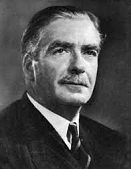






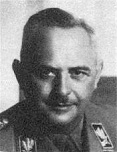












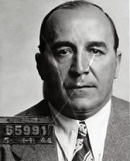
































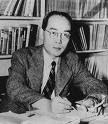
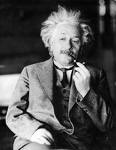

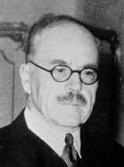




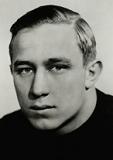
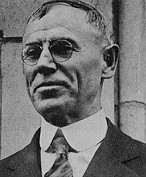
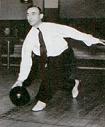
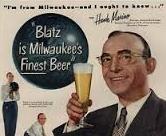

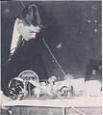



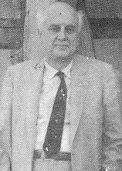
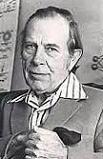
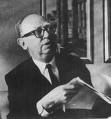



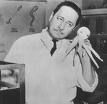

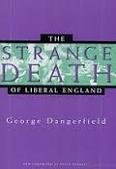

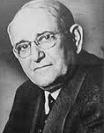





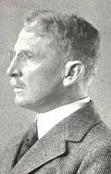









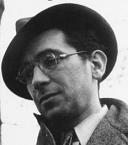



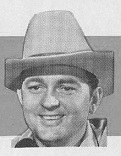

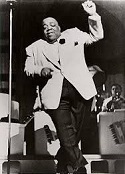
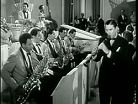

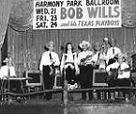

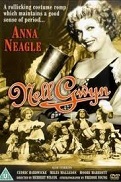




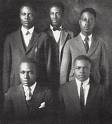
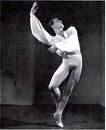


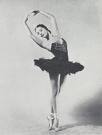

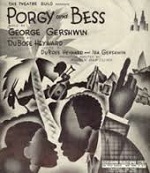
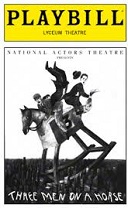
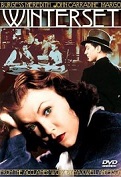



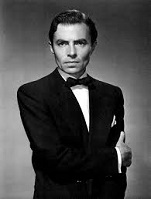


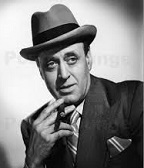




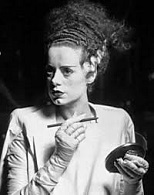



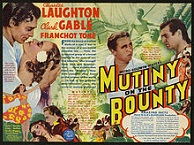
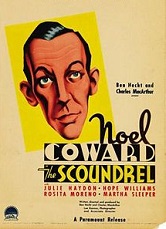
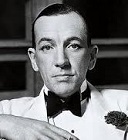
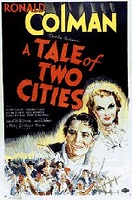







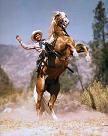

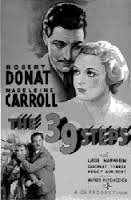
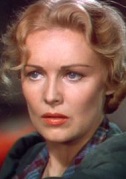
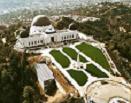

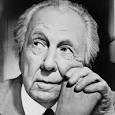

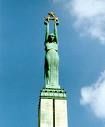
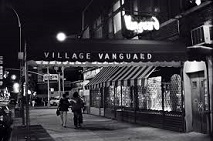
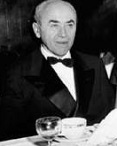

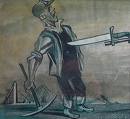


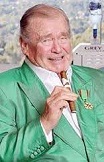


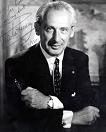

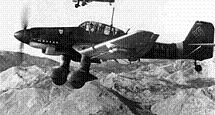

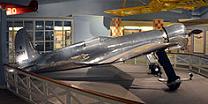

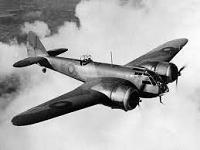

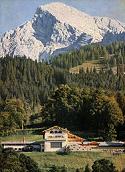
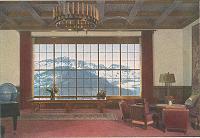
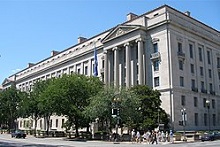
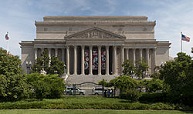

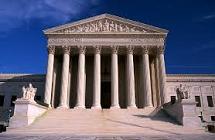
1935
Chinese Year: Pig.
Time Mag. Man of the Year: Haile Selassie (1892-1975).
U.S. pop: 127M; the number of U.S. farms peaks at 6.8M;
about 90% still don't have electricity.
Speaking of pig, this year Stalin orders hundreds of arrests (until mid-1936), getting Article 58
passed to define new counter-rev. offenses and provide for execution of those fleeing abroad, plus imprisonment or exile of their families, resulting in
Stalin's Big Show Trials next year to get rid of his competition at the Soviet slop trough.
By this year the Soviet Union has arrested 130K Orthodox priests since 1917, executing 95K of them by firing squad - you're under arrest for running an illegal prayer session?
On Jan. 1 Alabama defeats Stanford by 29-13 to win the 1935 Rose Bowl.
On Jan. 1 the first Dust, er, Sugar Bowl is held in New Orleans, La., and Tulane defeats Temple 20-14 - sugar looks like dust?
On Jan. 1, after pub. "The Truth About the Protocols", which claims that "The Protocols of the Learned Elders of Zion" is true, and calling the Great Depression the work of Satan, and
Pres. FDR a "devil" linked to the Jewish-Communist Conspiracy, and praising Adolf Hitler as Europe's savior from Communism Topeka, Kan.-born Christian fundamentalist
Gerald Burton Winrod (1900-57)(ed. of the monthly mag. "The Defender", circ. 100K) pub.
The Jewish Assault on Christianity, containing the soundbytes:
"The same forces which crucified Christ nineteen hundred years ago are today trying to crucify His Church. Many Christian leaders have not yet realized it, but Christianity is in the grip of a life and death
struggle at the present time. I nternational Jewish Communism, which has already undermined all nations, firmly expects to exterminate all Christians. What the Cause of Christ has endured in Russia
the past eighteen years, surpasses its suffering at the hands of bloody Nero. One of the purposes of the present treatise is to show that this conspiracy is not of recent origin", and
"Will the Church be able to demonstrate sufficient power to triumph over its foes in the present crisis, or has it become so weakened by apostasy and pernicious teachings that it will have to be drenched
in its own blood before it can be brought to its senses? Jesus knew better than anyone else the unspeakable crimes of which [the Jews] are capable. The Jesus of the twenty-third chapter of Matthew, is not
the quiet, reticent Jesus of modern literature and the fashionable pulpit. The Jesus, whose righteous indignation is here asserted, is a man of words and action, a man in the act of pronouncing eight woes
upon the Jewish leaders and finally condemning them to the damnation of hell", becoming a hit with fundamentalists and German-speaking Mennonites incl. Bethel College and Tabor College; in
July 1942 the U.S. govt. indicts Winrod and 29 others (growing to 33) for sedition in an attempt to silence them, attracking civil libertarians to his cause in the
Great Sedition Trial of 1944, which ends with a mistrial on Nov. 29, 1944 after the death of judge Edward C. Eicher.
 On Jan. 4 in his 1935 Annual Message to Congress
(which for the first time he calls the State of the Union Message), FDR attempts to head off leftist demagogues Huey P. Long, Father Charles Coughlin,
Charles Townsend et al. at the pass by proposing the Second New Deal,
a radical "turn to the left", whose star child is the Works Progress Admin. (WPA),
aided by the Resettlement Admin. (Apr. 30), the
Rural Electrification Admin. (REA) (May 11), the
Nat. Youth Admin.,
the Nat. Labor Relations Board,
the Social Security Admin., and the juicy
U.S. Revenue (Wealth Tax) Act of 1935,
which raises taxes on the wealthy and large corps. (until their lawyers find loopholes).
On Jan. 7 France and Italy sign an agreement giving Italy a free hand in Abyssinia (Ethiopia), and providing for joint cooperation
in the event of action by Germany.
On Jan. 7 the U.S. Supreme Court rules 8-1 in Panama Refining Co. v. Ryan
that the "hot oil" orders of the 1933 Nat. Industrial Recovery Act are unconstitutional for lack of clear criteria to limit pres. power, causing the
U.S. Connally Hot Oil Act of 1935,
sponsored by Tex. Dem. Sen. (1929-63) Thomas Terry "Tom" Connally (1877-1963)
to be passed, allowing the pres. to protect the oil industry from "contraband oil".
On Jan. 13 a plebiscite in the Saar Basin results in a 90% vote for union with Germany.
On Jan. 15 hundreds of Dutch ice cream salesmen
protest Italian competition.
On Jan. 15 self-made oil millionaire Ernest Whitworth "E.W." Marland (1874-1941)
becomes Dem. gov. #10 of Okla. (until Jan. 9, 1939), going on to back FDR and institute the "Little New Deal" in Okla., which ends
up creating jobs for 90K of 150K unemployed in 1.3K WPA projects.
Passionate about justice, get a law enforcement degree?
On Jan. 16 little old lady Kate "Ma" (Arizona Donnie) Barker (nee Clark) (b. 1873),
alleged head of the Barker-Karpis Gang
is killed with her youngest son Fred Barker (b. 1901) after a long FBI shootout in a house near Lake Weir in Ocklawaha, Ocala, Fla.;
her hubby George Barker (b. 1892) was thrown out in 1927 after her eldest son Herman Barker (b. 1893) committed suicide in 1927 in Wichita, Kan.
after killing a police officer, her son Arthur "Doc" Barker (b. 1899) is killed in 1939 escaping from Alcatraz,
and her son Lloyd Barker (b. 1897) is killed in 1949 by his wife; Ma never actually participated in the crimes, often being sent to the
movies by her sons to have an alibi, only being used as a cover by the gang members, who liked to be seen travelling with a sweet little old lady;
too bad, after they plug a grandmother, the FBI concocts a story that she's the gang's mastermind, "the most vicious, dangerous and resourceful
criminal brain of the last decade" (J. Edgar Hoover); the real mastermind is
Alvin Francis "Creepy Karpis" Karpowicz (1907-79),
who is arrested on May 1, 1936, becoming the last of four "public enemies" to be captured by the FBI, making J. Edgar Hoover a celeb.
On Jan. 19 Coopers Inc. of Kenosha, Wisc., later called Jockey Internat. Co.
sells the world's first men's briefs during a blizzard at the Marshall Field store in Chicago, Ill.
on State St., with the first Y-shaped overlapping fly, designed by Arthur Kneibler; it is called
Jockey since it offers support equivalent to a jockstrap; after selling 30K pairs in 3 mo., they
are introduced to the U.K. in 1938, and sell 3K pair a week.
On Jan. 24, 1935 the first canned beer
is sold in the U.S. in Richmond, Va., manufactured by the Gottfried Krueger Brewery and the Am. Can Co.; by the
end of the year after Anheuser-Busch, Pabst, and Schlitz follow suit, 200M cans are sold; meanwhile
the need of U.S. breweries to sell near beer and soda pop in glass bottles during the Depression causes them to bottle beer
the same way, causing draft beer to drop from 70% of sales this year to 22% of sales in 1950, and 12% of sales in 1980.
On Feb. 13 (Wed.) Bruno Hauptmann (b. 1899) is found guilty of first degree murder by a jury in
Flemington, N.J.; next Apr. 3 he is electrocuted in Trenton, N.J., while
Gabriel Heatter (1890-1972)
(known for the sign-on "There's good news tonight") gives a blow by blow on radio.
On Feb. 22 the Village Vanguard
(originally the Golden Triangle) nightclub in Greenwich Village, N.Y. at Charles St. and Greenwich Ave.
opens, owned by Belarus-born
Max Gordon (1903-89),
becoming a venue for folk music and beat poetry, getting into jazz bigtime and switching to all jazz in 1957,
hosting a who's who of jazz greats from the 1940s-1980s and helping launch the careers of Thelonius Monk,
Barbara Streisand, Pearl Bailey, Woody Allen, Dick Gregory, Lenny Bruce, Irwin Corey, Woody Guthrie, Lead Belly et al.
On Feb. 23 Italy sends a large force to Eritrea, and France cedes 309 sq. mi. of 8.9K-sq.-mi. French Somaliland to Eritrea.
On Feb. 26 Adolf Hitler orders Hermann Goering to reinstate the Luftwaffe, banned by the
1919 Treaty of Versailles; Britain, France, and the League of Nations do nothing about it.
On Feb. 27 the Seventh (7th) Academy Awards
awards the best picture Oscar for 1934 to Columbia's It Happened One Night,
along with best actor and actress to Clark Gable and Claudette Colbert,
and best dir. to Frank Capra, becoming the first sweep.
On Mar. 1 the Gen. HQ Air Force
is established by the U.S. Army for centralized control of aviation combat units inside the continental U.S., separate from but
coordinated with the U.S. Army Air Corps, causing problems that lead to the establishment of the Army Air Forces (AAF).
On Mar. 1 the Venizelists stage an uprising in Athens, Macedonia, and Crete to protest creeping royalism, and are put down by Gen. George Kondylis,
causing Venizelos to flee to France as his supporters are purged; on June 29 elections give the royalists a majority, helped by
a boycott by repubs.; on Oct. 10 Kondylis stages a coup and ousts PM Panyotis Tsaldaris, gets the Parliament to vote to recall the king,
then stages a stooge plebiscite on Nov. 3 which gives near unanimous approval, causing George II to return from exile in England on Nov. 24
and be restored (until 1947), becoming Kondylis' puppet, starting with declaring a gen. amnesty on Dec. 1.
On Mar. 2 after a long succession dispute Siamese king (since 1925) Rama VII Prajadhipok claims health problems and abdicates, living until his
1941 death on unemployment insurance policies with Euro cos.; 10-y.-o. Prince Ananda Mahidol (pr. a-NAN-ta ma-hi-DON) ("joy of Mahidol"), who
had lived in Lausanne, Switzerland since the 1932 coup becomes King
Rama VIII (1925-46) (until June 9, 1946);
his Swiss-educated brother Bhumibol Adulyadej (b. 1927) becomes heir presumptive; both continue to live in Laussane (except for a 1938) visit)
until Dec. 1945., and regents are appointed to rule in his place.
On Mar. 16 Adolf Hitler formally denounces and scraps the Versailles Treaty, reintroduces military conscription, and announces the increase of its
army to 36 divs., citing failure of other countries to disarm and growth of French and Soviet military forces, causing the
Anglo-German Navy Agreement (Treaty)
to be signed on June 18, limiting German naval construction to 35% that of the British Royal Navy, with restrictions on ship size and gun caliber,
having the effect of driving a wedge into the Anglo-French entente; meanwhile Germany develops the secret
Plan Z
to get around the restrictions and achieve naval parity by the late 1940s.
On Mar. 19-21 the Harlem Riot of 1935
(first race riot in Harlem) begins after 16-y.-o. Puerto Rican Lino Rivera is caught shoplifting a 10 cent
penknife at the Kress Five & Ten Store across from the Apollo Theater, leading to false rumors that he had been beaten or killed, causing the Young Communist League
and the militant Young Liberators to stage a demonstration outside the store that evening, leading to a riot, killing three, wounding hundreds,
destroying 200 stores, and causing $2M in damage; after this, race riots in Harlem
become common, starting with next year after Joe Louis loses to Max Schmeling.
Paul Guillaume van Zeeland (1893-1973)
becomes PM of Belgium (until Nov. 23, 1937), forming a nat. unity govt. (Catholics, Socialists, Liberals) with decree powers for one
year to deal with Belgium's desperate financial situation; Belgium goes off the gold standard, and the
Office de Redressement Economique
is established to stimulate economic growth (until 1939).
In Mar. dust storms begin plaguing Kansas, and on Apr. 8 after the air in Washington D.C. turns copper from dust blowing in from the W end of the Okla. Panhandle,
the U.S. Emergency Relief Appropriation Act
is passed, appropriating $4B to be used at FDR's discretion, along with $880M in previously unspent appropriations; in Apr. Congress approves the
Works Progress Admin. (WPA), which begins operating on May 6.
On Apr. 11-14 after Germany declares its intention of creating an air force and increasing its army to 36 divs. (400K men) (4X what the Versailles Treaty allows),
the stressed-out Stresa Conference
in Stresa Italy on Lake Maggiore between Britain, France, and Italy establishes a common front against Germany, reaffirming the Locarno Treaties, agreeing to resist
any German attempt to change the Treaty of Versailles, and declaring that the independence of Austria "would continue to inspire their common policy"; too bad,
the vague terms incl. no explicit reference to Germany since none of them really want to invade it to disarm them.
On Apr. 14 (p.m.) Black Sunday,
a terrific 200-mi.-wide dust storm begins in Cimarron County, Okla., crossing into Kansas, dropping the temp. 25 deg. in an hour, and permanently blinding many people;
4.7 tons of dust per acre are dumped on W Kan., denting cartops; the wind blows at 40 mph or greater for 100 straight hours, displacing 300M tons of topsoil from the prairies;
later the southern plains are plagued by up to 14M grasshoppers per sq. mi. after natural predators are killed by the dust; in July 1940 Woody Guthrie releases his debut album
Dust Bowl Ballads, becoming one of the first concept albums, featuring
Great Dust Storm Disaster;
"On the 14th day of April 1935,/ There struck the worst of dust storms that ever filled the sky./ You could see that dust storm comin', the cloud looked deathlike black,/
And through our mighty nation, it left a dreadful track./ From Oklahoma City to the Arizona line,/ Dakota and Nebraska to the lazy Rio Grande,/
It fell across our city like a curtain of black rolled down,/ We thought it was our judgment, we thought it was our doom./ The radio reported, we listened with alarm the wild and windy actions
of this great mysterious storm."
On Aug. 29-Sept. 10, 1935 the 1935 Labor Day U.S. Hurricane
destroys Islamorada and Key West, Fla., causing $6M damage and killing 423, becoming the first known
Category 5 Hurricane to hit the U.S. mainland, first and worst of three
to hit the U.S. during the 20th cent. (1969 Hurricane Camille, 1992 Hurricane Andrew).
On Apr. 15 after lobbying by Russian archeologist Nicholas Roerich (Nikolai Konstantinovich Rerikh) (1874-1947),
the Roerich Pact
is signed by the League of Nations and Pan Am. Union to protect artistic and scientific institutions and historic monuments.
In Apr. after discovering her tell-all diary detailing her arduous affair with everhard "You Can't Take It With You", "Animal Crackers", "The Man Who Came to Dinner",
"Dinner at Eight", "Stage Door" playwright-dir.-producer-critic (Jewish) ("the Great Collaborator")
George Simon Kaufman (1889-1961) ("we shared our fourth climax at dawn"), Dr. Franklyn Thorpe, husband of actress
Mary Astor (Lucille Vascincellos Langhanke) (1906-87)
(former mistress of John Barrymore) files for divorce, demanding custody of their daughter Marilyn; on July 15 she countersues to retain custody, resulting in a sensational trial
where the diary is entered as evidence by him, but after it is revealed that he had affairs with Busby Berkeley showgirls to get even, she wins, and the judge orders the diary destroyed
as "pornography", boosting her career.
On May 2 France and the Soviet Union sign a 5-year alliance eyeing probable German aggression; on May 16 the Soviet Union and Czech. sign a mutual
assistance pact whereby the Soviets agree to come to their aid in case of attack provided that France does likewise; the Soviet Union concludes
treaties with the U.S. and Turkey, to go with their earlier treaties with France and Czech. - Communism is safe now?
On May 2 Winston Churchill gives a Speech to the House of Commons,
in which he utters the soundbyte:
"Want of foresight, unwillingness to act when action would be simple and effective, lack of clear thinking, confusion of counsel until the emergency comes, until self-preservation strikes
its jarring gong – these are the features which constitute the endless repetition of history."
On May 4 (Kentucky Derby Day) Stitzel-Weller Distillery in Shively (near Louisville), Key. opens, run by
Julian "Pappy" Van Winkle Sr., producing Pappy Van Winkle's Family Reserve brand bourbon whiskey, aged for
15, 20, or 23 years, which goes on to become the #1 bourbon on Earth; it closes in 1972, but Julian Van Winkle Jr. resurrects the brand and carries on; in 2002 Sazerac Co. at the
Buffalo Trace Distillery in Frankfort, Ky. begins producing it.
On May 6 British King George V marks his Silver Jubilee
with a carriage jaunt through the streets with his family, which is captured on color film; he issues 85,235 silver medals to British citizens to celebrate the event.
On May 8 Cuban anti-Batista leader Antonio Guiteras Holmes (b. 1906) is murdered in El Morrillo, Matanzas by Bautista forces as he prepares to leave the country to organize an expedition against him.
On May 18 a Tuplev ANT-20 Maxim Gorky giant airplane
crashes
during a 4-plane demo over Moscow, killing 45.
On May 19 gen. elections in Czech. give the ruling coalition 149 of 300 seats in the chamber; the Sudetendeutsche (Nazi) Party wins 44 seats; on
Nov. 5 Slovak Agrarian Party leader Milan Hodza (1878-1944)
becomes PM and forms a new cabinet; on Dec. 14 Tomas Masaryk resigns after reaching the age of 85, and his friend, foreign minister
Eduard Benes (1884-1948) becomes pres. (until 1938).
On May 21 the Nazis ban Jews from serving in the German military.
On May 21 Adolf Hitler gives a speech in the Reichstag, with the long soundbyte:
"The Germany of today is a National Socialist State. The ideology that dominates us is in diametrical contradiction to that of Soviet Russia. National Socialism is a doctrine that has reference
exclusively to the German people. Bolshevism lays stress on international mission. We National Socialists believe a man can, in the long run, be happy only among his own people. We are convinced
the happiness and achievements of Europe are indissolubly tied up with the continuation of the system of independent and free national States. Bolshevism preaches the establishment of a world empire
and recognizes only section of a central international. We National Socialists grant each people the right to its own inner life according to its needs and its own nature. Bolshevism, on the other hand,
establishes doctrinal theories that are to be accepted by all peoples, regardless of their particular essence, their special nature, traditions, etc. National Socialism speaks up for the solution of
social problems, issues and tensions in their own nation, with methods that are consistent with our common human, spiritual, cultural and economic beliefs, traditions and conditions. Bolshevism preaches
the international class struggle, the international world revolution with the weapons of the terror and the violence. National Socialism fights for the reconciliation and consequent adjustment of the
differences in life and the union of all for common benefits. Bolshevism teaches the overcoming of an alleged class rule by the dictatorship of the power of a different class. National Socialism does
not attach importance to a only theoretical rule of the working class, but especially on the practical improvement of their living conditions and standard of living. Bolshevism fights for a theory and,
for it, sacrifices millions of people, immense values of traditional culture and traditions, and achieves, compared with us, only a very low standard of living for all. As National Socialists, our
hearts are full with admiration and respect for the great achievements of the past, not only in our own people but also far beyond. We are happy to belong to an European cultural community that has
so tremendously embossed today's world with a stamp of its mind. Bolshevism rejects this cultural achievement of mankind, claiming that has found the beginning of the real cultural and human history
in the year of birth of Marxism. We, National Socialists, do not want to be of the same opinion as our church organizations in this or that organizational question. But we never want a lack of belief
in religion or any faith, and do not wish that our churches become club-houses or cinemas. Bolshevism teaches the godlessness and acts accordingly. We National Socialists see in private property a
higher level of human economic development that according to the differences in performance controls the management of what has been accomplished enabling and guaranteeing the advantage of a higher
standard of living for everyone. Bolshevism destroys not only private property but also private initiative and the readiness to shoulder responsibility. It has not been able to save millions of human
beings from starvation in Russia, the greatest Agrarian State in the world. It would be unthinkable to transfer such a catastrophe into Germany, because, at the of the day, in Russia there are 10 city
dwellers for every 90 country dwellers, but in Germany for only 25 farmers there are 75 city dwellers. National Socialists and Bolshevists both are convinced they are a world apart from each other
and their differences can never be bridged. Apart from that, there were thousands of our people slain and maimed in the fight against Bolshevism. If Russia likes Bolshevism it is not our affair, but
if Bolshevism casts its nets over to Germany, then we will fight it tooth and nail."
On May 22 the Pan Am. Yankee Clipper
flying boat, built by the Glenn L. Martin Co. begins transpacific service with a mail route from San Francisco to Manila.
On May 27 the U.S. Supreme (Hughes) Court unanimously rule in
A.L.A. Schechter Poultry Corp. v. U.S.
(AKA the Sick Chicken Case) that FDR's 1933 U.S. Nat. Industrial Recovery Act (NIRA) is unconstitutional, and that "extraordinary conditions do not create or enlarge constitutional powers";
FDR replies that the court has a "horse and buggy" view of their Constipated Tushie.
On May 27 the U.S. Supreme (Hughes) Court unanimously rules in
Humprey's Executor vs U.S. that the U.S. Constitution permits Congress to enact laws limiting
the ability of the president of the U.S. to fire the executive officials of an independent agency that is quasi-legislative or quasi-judicial in nature.
On May 31 the cabinet of French PM Pierre Flandin is overthrown after it demands quasi-dictatorial powers to save the franc, and Pierre Laval
becomes PM again (until 1936), obtaining the right on June 7 to rule by decree until Oct. 31, and beginning a severe deflation policy, cutting gov. spending.
On June 3 the French liner SS Normandie
crosses the Atlantic in a record 107 hours 42 min. in its maiden voyage, arriving in New York City.
On June 7 Conservative lord pres. of the council (since Aug. 24, 1931) (PM in 1923-4 and 1924-9) Stanley Baldwin (1867-1947) succeeds
Labour PM (since June 5, 1929) Ramsay MacDonald as British PM (until May 28, 1937), and
Sir Samuel John Gurney Hoare (1880-1959)
becomes foreign secy. (until Dec. 18), followed by home secy. in 1937-9, lord privy seal in 1939-40, and secy. of state for air in 1940; on Nov. 14 the
1935 British gen. election is a big V for the Conservative Party, which wins 386 seats, vs. 154 for Labour,
and 33 for Liberal Nat., causing a reconstruction of the cabinet, which continues the nat. coalition govt.; too bad, in early Dec. the
Hoare-Laval Pact on Abyssinia (Ethiopia), by which it is to cede a large portion of its territory to Italy is pub.
and rejected after a public outcry over appeasement of Mussolini, causing Hoare to resign on Dec. 18 and Laval's govt. to fall; on Dec. 22 Hoare is replaced by lord privy seal (since June 1934)
Sir Anthony Eden, Earl of Avon (1897-1977) (until Feb. 22, 1938) (known for wearing a Homburg hat, which is named after him,
causing Mussolini to call him "the best-dressed fool in Europe"), who tries in vain to get Mussolini to submit the dispute to the League of Nations; at his first audience with him,
George V tells Eden: "No more coals to Newcastle, no more Hoares to Paris."
On June 9 the He-Umezu Accord is concluded between Japan and China; the Chinese agree to withdraw troops from
Hopei and recognize Japan's conquests in NE China.
On June 10 after Bill W. (William G. Wilson) (1896-1971)) meets Dr. Bob in Akron, Ohio in the spring, they found
Alcoholics Anonymous, with the idea that only reforming drunks can help reforming drunks when they need a drink.
On June 12 at 12:30 p.m. La. Sen. Huey Long begins a filibuster which lasts until 4 a.m. the next day, for a total of 15.5 hours and 150K words, incl. cooking recipes, and later fills 100 pages of the
Congressional Record at a cost of $5K - remember, nobody beats the king, nobody? somebody ought to shoot the windbag?
On June 26 Nazi laws are passed permitting forced abortions on women to prevent the transmission of hereditary diseases.
In June after mediation by Argentine foreign minister (1932-8) Carlos Saavedra Lamas (1878-1959)
(who wins the Nobel Peace Prize next year), the Gran Chaco War (begun 1932) between Paraguay and Bolivia ends in a ceasefire,
and Paraguay wins 20K sq. mi. from Bolivia, although Bolivia claims to retain some of the richest oil lands;
meanwhile the Bolivian political elite and military begin to point fingers at each other.
What can one say about FDR's Brunhilda as the sound booms all the way to the back rows?
On July 5 Pres. Roosevelt signs the U.S. Nat. Labor Relations (Wagner-Connery) Act,
drafted by German-born N.Y. Sen. Robert Ferdinand Wagner (1877-1953), "the Legislative Pilot of the New Deal", committing
the U.S. govt. to encourage and protect collective bargaining, making union recognition a right, and establishing the
Nat. Labor Relations Board (NLRB)
to police its provisions; it is opposed by a strange marriage of employers, the press, the legal community, and the Communist Party, who fears govt.
control of unions and the loss of the right to strike, but results in the unionization of big U.S. industries - BBQ in style this Fourth of July?
On July 10 Bell Aircraft Corp.
(later Bell Aerospace) in Buffalo, N.Y. is founded by Mentone, Ind.-born
Lawrence Dale "Larry" Bell (1894-1956), manufacturing the "Bomber Destroyer"
YFM-1 Airacuda twin-engine fighter (first flight Sept. 1, 1937), the
P-59 Airacomet (first flight Oct. 1,1942) (first U.S. jet fighter), and the
P-63 Kingcroba
(first flight Dec. 7, 1942), successor to the P-39; in 1941 they hire Paris, France-born helicopter designer
Arthur Middleton Young (1905-95),
who designs the Bell Model 30 (first flight June 26, 1943), and the
Bell Model 47 (first flight Dec. 8, 1945), the first civilian helicopter;
in 1960 it is acquired by Textron, with the Bell Helicopter Co.
of Ft. Worth, Tex. manufacturing the Bell UH-1 "Huey"
(originally HU-1) military helicopter (first flight Oct. 20, 1956), which is adopted by the U.S. Army during the Vietnam War (16K built); Young later goes philosopher,
founding the Inst. for the Study of Consciousness in Berkeley, Calif. in 1972.
On July 16 Hanns Kerrl (1887-1941)
becomes German reichminister of church affairs with the mission of subordinating the Christian denominations to Nazism and swear a loyalty oath to Adolf Hitler,
with the soundbyte "Positive Christianity is National Socialism", calling Hitler "Germany's Jesus Christ"; after the churches snub him, and the Nazi
high command decides that it doesn't want anything to do with Christianity, he dies in office on Dec. 12, 1941, and no successor is appointed.
On July 17 Variety runs the headline
Sticks Nix Hick Pix
(in all caps), claiming that people from rural areas don't like to watch
movies about rural life, preferring to watch upper-class life.
On July 20 Gang Busters (G-Men)
debuts on NBC Radio, sponsored by Chevy, and billing itself as "the only national program that brings you authentic police case histories",
with its loud barrage of opening sound effects causing the phrase "coming on like gangbusters" to be coined; the program is hosted by Col.
Herbert Norman Schwarzkopf Sr. (1895-1958) (father of U.S. gen. H. Norman Schwarzkopf Jr.), and
features various actors incl. Art Carney; producer
Phillips Haynes Lord (1902-75) works with FBI dir. J. Edgar Hoover to solve cold cases,
resulting in several arrests; it runs for 21 years until Nov. 20, 1957 (1,008 episodes), switching to CBS, the Blue Network, and
the Mutual Broadcasting System, and getting turned into a movie serial in 1942, a DC Comics series, and a TV series in 1952.
On June 17 German composer Richard Strauss writes a letter to Austrian Jewish writer
Stefan Zweig
(1881-1942), getting him in trouble.
In July the
Royal British Legion
led by Maj. Francis Fetherston-Godley
secretly visits Herr Hitler in Germany, shakes hands with Rudolf Hess, and meets Hermann Goering,
who demonstrates his archery skills.
On Aug. 9 the U.S. Motor Carrier Act
is passed, placing interstate bus and truck lines under the control of the ICC.
On Aug. 14 Pres. Roosevelt signs the U.S. Social Security Act,
providing income to retired workers age 65 and older, containing both a social insurance and public assistance component, with the stated hope
that as it becomes operative the need for welfare will disappear; it also creates
Aid to Dependent Children (ADC),
which ends up turning into a full-blown welfare system; the first payroll tax contributions are to begin in 1937, and the first benefits are to be
paid in 1940; U.S. labor secy. Frances Perkins, who was deeply involved in the creation of the system stands directly behind the pres. during
the signing ceremony in Washington, D.C.; Benjamin Cardozo writes the majority
Supreme Court Opinion Upholding the Social Security Act.
On Aug. 15 after leaving Seattle, Wash. in early Aug. in a new homemade seaplane, famed Van Zandt County, Tex.-born aviator
Wiley Hardeman Post (b. 1898)
and Oologah, Okla.-born part-Cherokee homespun humorist journalist
William Penn Adair "Will" Rogers (b. 1879) leave Fairbanks, Alaska en route to
Point Barrow, Alaska,
then become lost in bad weather a few mi. away from their destination, causing them to land to ask for directions, and as they try
to take off the engine fails and they plunge into a lagoon, killing both instantly; Rogers leaves the soundbyte:
"When I die, my epitaph, or whatever you call those signs on gravestones, is going to read: 'I joked about every prominent man of my time, but I never met a man
I dident [sic] like.' I am so proud of that, I can hardly wait to die so it can be carved."
On Aug. 23 Pres. Roosevelt signs the U.S. Banking Act of 1935,
permanently establishing the Federal Deposit Insurance Corp. (FDIC) and expanding the power of the Federal Reserve System, insuring bank accounts up to $5K.
On Aug. 26 the U.S. Public Utility Holding Company Act
is passed, creating the Federal Power Commission,
beginning on Jan. 1, 1938 to limit holding company systems to one integrated public utility system each.
On Aug. 28 Finland joins in a meeting of Scandinavian ministers for the 1st time, attempting to form a block of Scandinavian and Baltic states
to counter Germany and Russia, and begins the fortification of the Aaland Islands, despite opposition by its inhabitants.
On Aug. 29-Sept. 10 the 1935 Labor Day U.S. Hurricane
destroys Islamorada and Key West, Fla., causing $6M damage and killing 423, becoming the first known
Category 5 Hurricane to hit the U.S. mainland, first and worst of three
to hit the U.S. during the 20th cent. (1969 Hurricane Camille, 1992 Hurricane Andrew).
On Aug. 30 the U.S. Guffey-Snyder Bituminous Coal Stabilization Act
creates the Federal Bituminous Coal Commission to regulate the industry; declared unconstitutional in May 1936.
On Aug. 31 FDR signs the U.S. Neutrality Act,
imposing a gen. embargo on trading in arms and war materials with all parties in a war, and declaring that U.S. citizens travelling on warring
ships do so at their own risk; it is set to expire after 6 mo.
On Aug. 31 Soviet authorities report that miner Alexei (Alexey) Stakhanov (1906-77)
set a record of 102 tons of coal in 5 hours 45 min. (14x his quota), followed on Sept. 19 by 227 tons in a single shift,
becoming a big hero, and making the cover of Time mag. on Dec. 16, going on to become a mine dir. and deputy of the Supreme Soviet,
the town of Kadiyivka in E Ukraine where he did his feats being renamed in his honor after his death; in Dec. his example inspires the
Stakhanovist System (Movement),
where teams of workers seek to increase production and efficiency, and are rewarded with bonuses and privileges - an extra crate of beets or ugly shoes?
I Coulda Been a Contender ends in Who Killed the Dragon?
On Sept. 7 (9 p.m.) after "Kingfish" Gov. Huey P. Long (b. 1893) returns from Washington, D.C. to Baton Rouge, La., and summons a meeting of the
state legislature, intending to propose a measure empowering state officials to arrest agents of the hated Roosevelt adm., he is shot twice in
the capitol bldg. by a long (lone) gunman Dr.
Carl Austin Weiss (b. 1906),
son-in-law of state judge Benjamin Pavy, whose district Long was trying to gerrymander; Weiss is shot to death by Long's bodyguards;
Long is mishandled by surgeons who repair his wounds but fail to notice a damaged kidney, and the wannabe king of the U.S. dies on Sept. 10;
next Jan. 31 his wife Rose McConnell Long (1892-1970)
takes his U.S. Sen. seat (until Jan. 2, 1937); the Share Our Wealth society collapses in his absence, but his political machine
continues to control lousy corrupt wonder-mop Lousy-ana?
On Sept. 15 a Nazi Party convention is held in Nuremberg, in which Hitler asks the puppet Reichstag to pass the Nuremburg Laws,
depriving Jews of all remaining citizenship, and forbidding marriage between Germans and Jews; in Aug. 2010 the original documents end up in the
U.S. Nat. Archives.
On Sept. 23 Hofstra U.,
founded in Hempstead, Long Island, N.Y. by a bequest of wealthy lumberman
William Sake Hofstra (1861-1932)
as an extension of NYU under the name Nassau College - Hofstra Memorial of New York U. holds its first classes; on Jan. 16, 1937 it is renamed
to Hofstra College, separating from NYU in 1939, and granted a charter on Feb. 16, 1940, becoming known for a replica of the Globe Theatre and
for hosting U.S. pres. conferences and debates.
On Sept. 23 after being nominated if he gives up alcohol, John Joseph Ambrose Curtin (1885-1945)
defeats Frank Forde by one vote to become leader of the Australian Labor Party (until July 5, 1945); on Sept. 20, 1937 he gives a
speech
announcing his poicy of protection of Australian industries, a 40-hour working week, unemployment insurance and widow pensions, and protection of industry,
but loses the election.
In Sept. the Workers' Party of Marxist Unification (Partido Obrero de Unificacion Marxista) (POUM)
is founded in Spain by Andres Nin and Joaquin Maurin via a merger of the Trotskyists and the Workers-Peasants Bloc; English writer George Orwell
serves with the party's militia; after reaching 30K members in 1936 it is dissolved in 1980.
On Oct. 2-7 the Detroit Tigers (AL) defeat the Chicago Cubs (NL) 4-2 to win the
Thirty-Second (32nd) World Series.
On Oct. 3 after Mussolini rejects Sir Anthony Eden's concessions, the Italian army
invades Ethiopia, and takes Adua on Oct. 6, beginning the
Second Italo-Abysssian (Italo-Ethiopian) War
(ends May 1936); on Oct. 7 the League Council declares Italy the aggressor and begins requesting
sanctions, which on Nov. 18 are approved by the League of Nations.
On Oct. 15 eager to go independent, former RKO-Radio Pictures head (1931) and MGM studio head (since 1933)
David O. Selznick (1902-65)
forms Selznick Internat. Pictures on $3M in capital, of which he contributes zilch, and moves into the Mount Vernonesque Thomas Ince Studio on Washington Blvd. in Culver City, Calif.,
and signs up United Artists as his distributor, going on to make string of hits culminating with #1 of all time "Gone With the Wind" in 1939.
On Oct. 23 Liberal leader William Lyon Mackenzie King (1874-1950)
becomes PM #10 (#11) of Canada again (until Nov. 15, 1948) (1921-6, 1926-30), going on to mobilize Canada for WWII while boosting the economy and laying the foundations for the Canadian welfare state.
On Oct. 23 (10:15 p.m.) after attempting to kill prosecutor Thomas Dewey sans orders from the Mafia Commission, bootlegger-racketeer
Dutch Schultz (Arthur Simon Flegenheimer) (b. 1902),
the Beer Baron of the Bronx is fatally shot with rusty bullets at the Palace Chop House in Newark, N.J. by Charlie Workman, who serves
23 years of a life sentence before being paroled; Schultz dies 22 hours later of peritonitis; the Genovese crime family takes over his
numbers racket in Harlem, N.Y., and his close associate Joseph "Tough Joey" Rao (1901-62) AKA Joseph Cangro joins-up.
On Oct. 28 Japanese foreign minister Koki Hirota enunciates his Three Points
regarding China: establishment of a Japan-China-Manchukuo bloc, suppression of anti-Japanese activities in China, and org. of a joint Chinese-Japanese front against Communism.
In Oct. 1935-Mar. 1936 the U.S. E of the Rocky Mts. experiences the 5th-coldest weather for the contiguous U.S.; in Dec. 1935-Feb. 1936 the
1936 North Am. Cold Wave
is worse in the Midwest U.S. and the Canadian Prairies, missing the SW U.S. and Calif., becoming the worst in North Am. in cents.; Feb. is the coldest on record in the contiguous U.S.,
narrowly beating Feb. 1899.
On Nov. 2 after being appointed by George V on the recommendation of Canadian PM R.B. Bennett to replace the Earl of Beesborough,
"The Thirty-Nine Steps" Scottish novelist-historian and Unionist politician John Buchan, 1st Baron Tweedsmuir (1875-1940)
becomes gov.-gen. #15 of Canada (until Feb. 11, 1940).
On Nov. 9 United Mine Workers (UMW) pres. John Llewellyn Lewis (1880-1969)
and leaders of nine other AFL unions found the Congress of Industrial Orgs. (CIO),
splitting with the AFL to organize across craft lines and incl. unskilled noncraft workers (steel, automobile, rubber, textile), and leading
to a formal split in Nov. 1938 with Lewis as CIO pres.
On Nov. 11-22 Pan Am's flying boat China Clipper,
piloted by Capt. Edwin C. Musick takes off from Alameda, Calif. carrying more than 100K pieces of mail on the first transpacific airmail flight to Honolulu,
Midway Island, Wake Island, Guam, and Manila.
On Nov. 14 Pres. Roosevelt proclaims the Philippine Islands a free commonwealth; on Nov. 15
Manuel Luis Quezon y Molina (1878-1944),
pres. of the senate since 1916 becomes pres. #2 of the Philippines (until Aug. 1, 1944), getting U.S. Gen. Douglas MacArthur appointed as military adviser to the Philippines.
On Nov. 23 while flying 2.3K mi. over the Antarctic from Dundee Island to the Ross Ice Shelf, claiming 300K sq. mi. for the U.S.,
Chicago, Ill.-born polar explorer Lincoln Ellsworth (1880-1951)
discovers the 16,050 ft. (4,892m) Ellsworth Mts. (highest in Antarctica),
naming the N half the Sentinel Range; in 1939 he makes another flight, claiming 77K sq. mi. more (the Am. Highland).
On Nov. 15 after Japanese efforts to create an autonomous N China collapse, the Japanese puppet-buffer state
East Hebei Autonomous Anti-Communist Council
is proclaimed in N China by collaborationist Yin Ju-Keng (1885-1947)
(until July 1937), backed by Kwantung Gen. Kenji Doihara comprising 22 counties in Hopei Province, with capital at T'ungchow, leading to student
demonstrations in Peking on Dec. 9.
On Nov. 30 an earthquake on the Big Island of Hawaii leads to an eruption of
Mauna Loa, threatening Hilo with lava flow moving at 1 mi./day until
Hawaiian Volcano Observatory dir. Thomas Augustus Jagger proposes to transport TNT to strategic points via mule teams, which is changed to
aerial bombing for speed, causing 10 bombers from the 23rd Bomb Squadron of the U.S. Army Air Corps to drop 20 bombs containing 600 lbs. of TNT on
Dec. 16, stalling the flow, which is later attributed to natural forces instead.
In Nov. a gen. election in Britain gives the Labour Party 95 more seats,
but the Unionists retain their majority with 385.
On Dec. 12 Egypt reinstates its 1923 constitution.
On Dec. 17 Venezuelan dictator (since 1908) Gen. Juan Vicente Gomez (b. 1857) dies, and a struggle ensues between dem. forces and those wishing a return to strong-man rule;
novelist Romulo Gallegos returns and becomes minister of education for 3 mo.
On Dec. 17 the $100K Douglas DC-3
fixed-wing propeller-driven airline makes its first flight, becoming the first successful commercial airliner, proving to be one of the safest airplines ever built, revolutionizing
air transport through the 1940s with its 207 mph cruise speed and 1,500 mi. range;
it is used as the basis of the C-47 Skytrain
military transport aircraft, which makes its first flight on Dec. 23, 1941.
The U.S. Senate by a 52-36 vote refuses to participate in the World Court.
The British govt. creates a new Indian constitution giving Indians more political power.
Following a plebiscite Germany takes over the admin. of the
Saar Basin (Saarland) (near France and Luxembourg) from France (until 1947).
The Seventh (last) Comintern Congress
of the Soviet Union orders Communist parties throughout the world to join the anti-Fascist parties.
After Kurt von Schuschnigg (1897-1977)
calls Austria the "better German state", he and Prince von Starhemberg stage an
Anti-Heimwehr Coup in Vienna,
rounding up Nazis and Social Dems. and putting them in camps (until July 1936).
German gen. Werner Thomas Ludwig Freiherr von Fritsch (1880-1939)
becomes CIC of the Supreme Command of the Armed Forces (Oberkommando der Wehrmacht)
(OKW) (until 1938), going on to work with war minister Werner von Blomberg to rearm Germany, while
showing hesitancy about supporting Hitler's aggressive diplomacy for fear the army won't be ready
in time; when Blomberg is promoted to field marshal in 1936, he is promoted to his vacated rank of
col. gen., only to become the 2nd German gen. to be KIA in WWII.
Happiness runs, happiness runs in Mexico?
Pres. Lazaro Cardenas forces Gen. Calles and dozens of his corrupt assocs.
into exile after a decade in power, and begins giving out 49M acres of
land to peasants on the ejido (communal) basis while establishing a nat.
bank to provide them with credit; he continues the policy of excluding
the Church from politics and nationalizing its property; meanwhile the
foreign-owned oil cos. are next on the hit list.
A rightist revolt in Uruguay against Gabriel Terra is crushed, and he
goes on with his liberal reforms, causing a gradual economic recovery.
India and Britain sign a trade pact.
In order to show his solidarity with the Nazis, Persian shah (1925-41)
Reza Pahlavi changes Persia's name to Iran (until ?), after the word "Aryan".
Turkish pres. Mustafa Kemal ("The Chosen Perfection") adopts the
name Kemal Ataturk ("The Chosen Father of the Turks") - attaboy?
Britain holds clebration of its Silver Jubilee.
U.S. Gen. Joseph Warren "Vinegar" Stilwell (1883-1946) is sent to China as military attache (until 1939), with
John Paton Davies Jr. (1908-99) as vice-consul; both liberal China Hands, they become
prejudiced against the Chinese Nationalists in favor of the Commies, whom they view as democratic agrarian reformers?
The U.S. Wealth Tax Act increases surtaxes on individual yearly incomes of $50K+ to combat
"unjust concentration of wealth and economic power".
The Fascist Croix de Feu org. is founded in France by Lt. Col.
Francois de La Rocque (1885-1946) (until 1936); meanwhile the French Fascist
Cagoulards (Fr. "hooded men) are formed, and suppressed in 1938.
The Lebensborn (Ger. "free born") ("Source of Life") program is established by Nazi
SS chief Heinrich Himmler, going on to breed 5.5K German children carefully selected for blond-blue Aryan physical qualities, giving them
to families of SS members to be raised; after 1940 the program is expanded to occupied countries, breeding 8K in Norway plus thousands more in Denmark and the Netherlands;
in 2005 the aging tykes form Lebensspuren (Ger. "traces of life") (German word for fossils) to try and get a clue; on
Nov. 4, 2006 60 of them hold their first meeting in the E German town of Wernigerode,
location of the Harz home for Lebensborn; the Hollywood image of bordellos for SS officers stocked with blond-blue cuties proves to be a fantasy?
The U.S. Soil Conservation Service attempts to teach dumb Okie farmers to plant trees and grass and to plow
in contour patterns to save what's left of their topsoil; the govt. buys and takes out of production 11.3M acres of submarginal land; believe it
or not, when WWII comes the farmers again plow the plains up to plant high-priced war wheat?
The Soviet govt. founds the Central Admin. of the North Sea Route
for exploration and development N of 62 deg.
The New Deal Matanuska Colony
is homesteaded by 200 families in a river valley NE of Anchorage in SC Alaska with federal aid.
Oil pipelines are opened between Iraq, Haifa, and Tripoli (Lebanon).
The Cleveland Torso Murderer AKA the Mad Butcher of Kingsbury Run begins
killing, beheading, and dismembering victims in the Cleveland Flats shanty town area of Cleveland, Ohio, reaching 12 by 1938, causing Cleveland public safety dir.
Eliot Ness to focus on Dr. Francis E. Sweeney, who survives a grueling interrogation then leaves two more victims in view of Ness' office in city hall; nobody
is ever charged until ?.
At FDR's suggestion, the Great Seal
is put on the back of the U.S. $1 bill.
The first round-the-world telephone call
is made by AT&T.
Braniff Airways (founded 1928) becomes the first airline to fly from Chicago, Ill. to the U.S.-Mexico border.
You can have it all in your own backyard?
The United Auto Workers (UAW) union is founded by W. Va.-born
Walter Philip Reuther (1907-70)
after he returns from a bicycle trip through Europe and the Far East (begun 1932) to study factory conditions, and starts a
campaign along with members of the CIO to organize automobile workers.
Syria passes a law authorizing trade unions, but only as joint employee-employer assocs., not allowing independent labor orgs. until 1939.
Mary McLeod Bethune (1875-1955),
a friend of Eleanor Roosevelt founds the Nat. Council of Negro Women (NCNW)
in the U.S., uniting the Nat. Assoc. of Colored Women (of which she was pres. in 1924-8) with other major black women's orgs.;
in 1936 she joins the advisory committee of the New Deal's Nat. Youth Admin. (until 1943), and becomes dir. of its
Negro Affairs Div. in 1939, becoming the first black woman to head a U.S. federal agency, helping organize the
Federal Council of Negro Affairs (AKA Black Cabinet, Black Brain Trust),
which holds govt.-sponsored Nat. Negro Conferences in 1937 and 1939.
Benito Mussolini gets two nominations for the Nobel Peace Prize, one by a French law prof. and the other by a German college law faculty.
Adolf Hitler invites German physician Theodor Morell (1890-1948)
to examine him for "complete exhaustion of the intestinal system", which incl. chronic cramps and flatulence, and after the treatment makes
him better he utters the soundbyte "He has saved my life", firing his personal physician (since summer 1934) (SS member)
Karl Brandt (1904-48),
who goes on to become co-dir. of the Aktion T-4 euthanasia program before being hung by the Allies in 1948 for that plus human experimentation;
Morell begins supplying Hitler with "Hitler's speed"
Pervitin
(found in crystal meth), which Hitler orders to be supplied to front line soldiers.
The winter Fur Rendezvous (Fur Rondy) Festival
is established in Anchorage, Alaska by
Vern Johnson
to lift morale at the winter solstice, when there is only 5.5 hours of
sunlight a day.
The Outlaws Motorcycle Club
is founded in Matilda's Bar on Route 66 in McCook (near Chicago), Ill. for "one-percenters", outlaw owners of Am.-made motorcyles of a certain
minimum size (mainly Harley-Davidsons), adopting the motto "GFOD" (God Forgives, Outlaws Don't) in 1969; as they branch to other states they
become enemies of the Warlocks
(founded in 1967 in Orlando, Fla.) and Hells Angels
(founded in the late 1940s in Calif.), giving rise to the the motto "ADIOS" (Angels Die in Outlaw States); other groups are the
Pagans (founded in 1959 in Md.),
Bandidos
(formed in 1966 in Tex.) (slogan: "We are the people your parents warned you about"), and
Mongols (a Latino gang formed in 1969 in Montebello, Calif.); all of them enjoy "Old Ladies",
young nubile groupies.
The Nat. Symphony Orchestra is founded in Washington, D.C.
The Nat. Theatre in Egypt is founded by
Taha Hussein (1889-1973) ("Dean of Arabic Literature") and
Khalil Mutran (1872-1949).
Ten mainly Jewish-Am. artists, incl. Mark Rothko (1903-70),
Louis Schanker (1903-81),
Adolph Gottlieb (1903-74),
Ben-Zion Weinman (1895-1987),
Joseph Solman (1909-2008),
Ilya Bolotowsky (1907-81),
Louis Harris,
Jack (Yankel) Kufeld (1907-90),
Ralph M. Rosenberg,
become known as The Ten
as they begin exhibiting their works together (until 1939), which become known as Abstract Expressionism, a reaction to
"silly surrealism"; "guest artists" incl.
Earl Kerkam (1890-1965),
Jean Liberte (1896-1965), and
John D. Graham (1886-1961).
About this time Martin Block of WNEW-AM New York, host of "Make Believe Ballroom" coins the term "disc jockey" to describe himself.
The radio program Your Hit Parade,
sponsored by Lucky Strike cigarettes debuts, promoting their healthy habit in an era before disc jockeys and Top-40 charts;
it moves to TV in 1950.
Frank Sinatra makes his nat. broadcast debut singing Shine with the Hoboken Four on the new
Original Amateur Hour
(Major Bowes and His Capitol Family) (ends 1970), a nat. radio show sponsored by Chase and Sanborn coffee,
founded by conductor-composer (WWI Maj.) Edward Bowes (1874-1946),
who spins the Wheel of Fortune to pick the next act while saying "Around and around she goes and where she stops nobody
knows", then bangs a gong to stop bad acts; in Sept. 1.2K desperate out-of-work performers are housed and fed in city shelters while waiting
to get on the show, whose winners get a dinner and $10, while Bowes gets $7.5K a week from Chase & Sanborn, and up to $30K a week when the
contestants go on tour (3-time winners); the public chooses the winners by calling MUrray Hill 8-9933; Lily Pons, Robert Merrill, Beverly Sills,
Jack Carter and Teresa Brewer are discovered on the show; Maria Callas performs under the alias Nina Foresti.
English martyr Sir Thomas More (1478-1535) is canonized 400 years after his execution.
Right whales are given full internat. protection, but their numbers don't begin recovering until ?
The New York Drama Critics' Circle
is founded at the Algonquin Hotel in Manhattan, N.Y. by 22 drama critics incl. Brooks Atkinson, Robert Benchley, and Walter Winchell; in 1936 it
awards the first New York Drama Critics' Circle Award to Maxwell Anderson's "Winterset", followed by Maxell Anderson's "High Tor" (1937),
John Steinbeck's "Of Mice and Men" (1938), William Saroyan's "The Time of Your Life" (1939), Lillian Hellman's "Watch on the Rhine" (1941),
Sidney Kingsley's "The Patriots" (1943), Tennessee Williams' "The Glass Menagerie" (1945), Arthur Miller's "All My Sons" (1947), and Tennessee Williams' "Death of a Salesman" (1949).
The Oregon Shakespeare Festival
in Ashland, Ore. is founded.
After clashing with the board of dirs. of Bodley Head Pub. Co. (founded 1887) over James Joyce's "Ulysses", and finding himself on an Exeter station platform after a visit with
Agatha Christie with nothing to read, British publisher Sir Sir Allen Lane (1902-70),
founds Penguin Books,
which markets the first quality paperback novels, selling them from the "Penguincubator" vending machine on Charing Cross Rd.
Iowa-born George Horace Gallup (1901-84)
founds the Am. Inst. of Public Opnion,
getting off to a roaring start by successfully predicting the 1936 pres. election using replies from only 5K respondents, beating the
Lit. Digest, which polls 2M, and rubbing it in by predicting the skewed results of the Lit. Digest using a random sample chosen to
match theirs; too bad, they goof up the 1948 pres. election, predicting that Thomas Dewey will defeat Harry Truman by 5-15 percentage points,
then spin it by blaming it on taking his poll three weeks before election day.
Socialist London publisher Sir Victor Gollancz (1893-1967) founds the
Left Book Club,
going on to sign up 57K members in the war years (until 1948) - get your Marx, get your Lenin, get your Trotsky right here?
Black educator-poet Melvin Beaunorus Tolson (1898-1966)
of Wiley College in Marshall, Tex. leads an all-black debating team to a V against white USC to win the nat. debating title,
becoming known as "the Great Debaters".
Andre (André) Eglevsky (1917-77)
becomes lead dancer of the co. of Ukrainian-born Igor Youskevitch (1912-94)
in Paris, then emigrates to the U.S. in 1937; Youskevitch follows in 1944, and becomes the dance partner of Cuban-born
Alicia Alonso (1920-),
becoming the Fred Astaire (1899-1987) and Ginger Rogers of ballet.
After being inspired by Tex.-born Western Swing bandleader Milton Brown, Django Reinhardt and Stephane Grappelli form the
Hot Club de Paris quintet.
Italian soprano Amelita Galli-Curci undergoes a thyroid goiter removal operation, which damages a nerve to her larynx, causing her
to lose the ability to sing high pitches, causing it to be called the "nerve of Galli-Curci"; her voice was declining anyway with age,
and this is just a convenient excuse to retire?
Black jazz singer James Andrew "Jimmy" Rushing (1901-72),
known as "Mr. Five by Five" because he's "5 ft. tall and 5 ft. wide" joins the Count Basie Orchestra in Kansas City, Mo., where he becomes a star for
Going to Chicago,
Take Me Back, Baby
and Sent For You Yesterday.
The comic strip Oaky Doaks,
by Ralph Briggs Fuller (1890-1963)
debuts (until 1961), featuring Nellie the horse, his sidekick Cedric, and Corny the king.
The world's longest railroad bridge, over the lower
Zambesi River
in South Africa is completed.
The Rumba ("the dance of love") becomes fashionable.
Men's topless swimming suits are commonly worn for the first time in the U.S.
St. Johns, Mich.-born Leo Burnett (1891-1971)
founds the Leo Burnett Co. Inc.
in Chicago, Ill., becoming known for keeping a bowl filled with apples in its reception room and using
big black pencils for "big ideas", going on to snag accounts with McDonald's, Coca-Cola, and Hallmark and
reach $22M/year sales in 1950, and $100M/year by 1960, reaching 9K employees by 2015 after creating famous
advertising chars. Charlie the Tuna, the Marlboro Man, the Maytag Repairman, and Tony the Tiger, and
advertising slogans incl. "Fly the Friendly Skies" (United Airlines) and "Good Hands" (Allstate).
Sugar Babies
caramel candy goes on the market.
German engineer Hellmuth Walter (1900-80)
founds Hellmuth Walter Kommanditgesellschaft,
in Kiel to research using hydrogen peroxide as a fuel for rocket engines incl. rocket-assisted
takeoff (RATO) and guided missiles, going on to develop main propulsion engines for rocket-powered
interceptor aircraft incl. the Messerschmitt Me 163 Komet and Bachem Ba 349 Natter.
The single-engined trainer aicraft
North American Aviation T-6 Texan
AKA AT-6, SNJ, and Harvard makes its first flight, later becoming popular for airshows and to simulate Japanese Zeros in films.
John W. Tyson (1906-67)
founds Tyson Foods
in Springdale, Ark., going on to become the largest meat producer in the world; in 1952 his son
Donald John "Don" Tyson (1930-2011) becomes gen. mgr.
Jagermeister (Jägermeister) (Ger. "master hunter", "gamekeeper") herbal liqueur,
made with 56 herbs and spices and bottled at 70 proof U.S. is introduced by Curt Mast (1897-) of Wolfenbuttel, Germany, starting out as an after-dinner digestive aid until
Am. liquor importer Sidney E. Frank (1919-2006) begins selling it to the youth market as a party drink, becoming a big hit;
Frank goes on to promote Grey Goose vodka and become a billionaire.
Architecture:
The Berghof
(formerly Haus Wachenfeld, built in 1916) in the Obersalzberg of the Bavarian Alps near
Berchtesgaden is refurbished, becoming Adolf Hitler's vacation residence (until Apr. 1945);
Gerdy Troost
becomes Hitler's interior designer, furnishing it with carpets, wooden chairs, and velvet curtains;
Life mag., the New York Times et al. pub. photospreads glorifying it right up to the start of WWII.
The Moscow Metro (Subway) opens.
On May 24 Griffith Observatory
on Mt. Hollywood in Los Angeles, Calif. (begun June 20, 1933) opens; it is later used in the James Dean film "Rebel Without a Cause" (1955),
causing a bust of Dean to be placed on the W side of the grounds.
Hayden Planetarium, founded by
Charles Hayden (1870-1937) in Central Park West, New York City opens.
The Hagia Sophia
(Gr. "Holy Wisdom") in Istanbul, founded by Christian emperor Constantine in 330, which was turned into a mosque by the Muslims in
1453 is restored and opened as a museum, with all Christian and Muslim worship forbidden, becoming a political time bomb;
luckily the Muslims merely plaster over the Christian mosaics, allowing them to be seen again?
Frank Lloyd Wright designs Fallingwater ("the bldg. of the cent.")
in Mill Run (Bear Run), W Penn. for dept. store king Edgar J. Kaufmann (1885-1955)
as a reinforced concrete house built over his favorite mountain stream and waterfall, with a boulder protruding through the living room floor; in
1963 Edgar J. Kaufmann Jr. gives it to the state of Penn., and by the end of the cent. over 100K visit it annually; too bad, it leaks?
The 138-ft.-high Freedom Monument is unveiled on Brivibas (Freedom) St. in Riga, Latvia.
In 1935 the $10M U.S. Dept. of Justice Bldg. at 950 Pennsylvania Ave. N.W. in Washington, D.C. opens, located
N of the Nat. Mall between the IRS Bldg. to the W and the Nat. Archives Bldg. to the E; in 2001 it is renamed after U.S. atty. gen. #64 Robert F. Kennedy.
The Nat. Archives Bldg. at 700 Pennsylvania Ave. N.W. in Washington, D.C. opens;
in 1952 they begin displaying the Declaration of Independence, Constitution, and Bill of Rights to the public in the Rotunda.
The U.S. Supreme Court Bldg.
at 1 First St. N.E. in Washington, D.C. one block E of the U.S. Capitol is completed, designed by Cass Gilbert (1859-1934),
with classical lines and small size, contrasting with the large modernist Federal bldgs. on the Nat. Mall; on May 4, 1987 it is designated a nat. historic landmark.
Sports:
On Apr. 4-9 the 1935 Stanley Cup Finals
see the Montreal Maroons defeat the Toronto Maple Leafs 4-3, becoming their 2nd and last title as they disband in 1938, becoming the last defunct team to win the title (until ?).
On May 25 Babe Ruth hits the final homers (#713, #714) of his career playing for the Boston Braves in a game against the Pittsburgh Pirates at Forbes Field off pitcher Guy Bush.
On May 20 Palermo, Sicily-born "Italian Wonder of Bowling" Enrico Salvano "Hank" Marino (1889-1976)
of Milwaukee, Wisc. defeats Otto Stein in Milwaukee, Wisc. to become the BPAA Nat. Match Game champion (until Dec. 19, 1937); in 1941 he begins marketing
Hank Marino's Miniature Bowling Alley; in 1951 a nat. newspaper poll names him
Bowler of the Half-Cent.
On May 24 the first ML night game
sees the Cincinnati Reds defeat the Philadelphia Phillies by 2-1 in Crosley Field in Cincinnati in front of 25K fans who stand by as Pres. Franklin D. Roosevelt
symbolically switches on the lights from the White House; the Reds go on to play a night game this season against every NL team (eight in all), compiling
a 68-85 record while paid attendance rises 117%.
On May 25 Jesse Owens (1913-80) of Ohio State U. sets six world records in track in 45 min. in Ann Arbor, Mich., incl.
100 yd. dash (10.2 sec.), long jump (26 ft. 8.25 in.), 220 yard (200m) dash, and 220 yd. (200m) low hurdles.
On May 30 the 1935 (23rd) Indianapolis 500
is won by Cavino Michele "Kelly" Petillo (1903-70),
becoming the first winning car powered by an Offenhauser engine;
despite becoming the first Indy 500 requiring crash helmets with green and yellow lights
installed around the track, three drivers are killed on May 21, and Clay Weatherly is
killed on lap 9, causing the Speedway to launch a program to test rookie drivers.
On June 13 in Long Island, N.Y. underdog "Cinderella Man" "Bulldog of Bergen"
James J. "Jim" Braddock (1905-74)
(mgr. Joe Gould) outpoints Max Baer (who once killed a man in the ring with a brain bruise?)
in 15 rounds to become world heavyweight boxing champ #14 (until 1937).
On July 14 Leo A. Seltzer (1903-78)
trademarks the name Roller Derby,
founding the Roller Derby League in Chicago, Ill., hiring only female athletes.
6'2" 185 lb. white Stanford U. basketball player Angelo "Hank" Luisetti (1916-2002)
invents the 1-handed jump shot in Nov. at a campus gym and becomes the first player to use it in a college game on Dec. 30, 1936; in 1937 he averages 20 points per game; on
Jan. 1, 1938 he becomes the first player to score 50 points in a game against Duquesne.
The first Heisman Memorial Trophy (given to recognize "the most valuable college football player east of the Mississippi")
is awarded by the Downtown Athletic Club of New York City to "one-man football team"
John Jacob "Jay" Berwanger (1914-2002) of the U. of Chicago, who gave future U.S. pres. Gerald Ford (U. of Mich. center) a permanent scar
below his left eye last year; in 1936 he becomes the first player drafted by an NFL team, the Philadelphia Eagles, and ends up using the trophy as a doorstop in his library; after the
club's Cleveland, Ohio-born athletic dir. John William Heisman (b. 1869) ("pioneer of Southern football") dies on Oct. 3, 1936, the award
is broadened to incl. players W of the Mississippi.
Omaha (1932-59) (jockey W. Saunders) becomes the 3rd horse to win horse racing's Triple Crown (last 1930);
all three didn't do diddly until they reached age 3.
John Henry Lewis (1914-74)
becomes the first African-Am. to win the world light heavyweight boxing title (until 1939).
The U.S. PGA hosts 34 golf tournaments with total prize money of $135K;
Lawson Little wins the U.S. Golf Assoc. amateur title, and Sam Parks Jr. wins the Open.
Alexander Alekhine loses his world chess title (since 1925) to Machgielis "Max" Euwe (1901-81) of the Netherlands,
who becomes world chess champ #5 (until 1937).
Sir Malcolm Campbell drives
Bluebird
(named after the play) at Daytona Beach, Fla. to up his record to 276.8 mph.
Joe Louis fights 13 times, KOing Primo Carnera in 6 rounds, Max Baer (who had only been knocked down once before, by Frankie Campbell) in 4 rounds,
and Paolo Uzcudun (who had been been KOd or knocked down before).
Nobel Prizes:
Peace: Carl (Karl) von Ossietzky (1889-1938) (Germany) [exposing clandestine German rearmament];
Lit.: no award;
Physics: Sir James Chadwick (1891-1974) (U.K.) [neutrons];
Chem.: Jean Frederic Joliot-Curie (1900-58) and
Irene Joliot-Curie (1897-1956) [along with her parents Marie and Pierre Curie in 1903, the first
family to win husband-wife awards through two generations];
Med.: Hans Spemann (1869-1941) (Germany) [embryology].
In 1931 German radical pacifist Carl von Ossietzky (1889-1938)
is convicted of high treason for a 1929 pub. giving details of Germany's violations of the Treaty of Verailles by rebuilding the Luftwaffe and training pilots
in the Soviet Union, and ends up in Esterwegen Concentration Camp; when he is awarded the 1935 Nobel Peace Prize, the Nazis refuse to let him travel to Sweden
to receive it, after which he soon dies of TB; angry over the award, in 1936 Adolf Hitler prohibits
Germans from accepting all Nobel Prizes, and creates his own German prize, awarding the first one at the annual Nazi rally in 1937 to German surgeon
Ernst Ferdinand Sauerbruch (1875-1951),
pioneer of thoracic surgery; too bad, after WWII ends he goes senile, but has such prestige that he is allowed to continue
operating on patients, injuring them while the authorities cover it up?
Inventions:
On Feb. 2 Am. detective Leonarde "Narde" Keeler (1903-49)
demonstrates the Keeler Polygraph
on two criminals in Portage, Wisc.; they are convicted of assault after the results are used in court.
On Apr. 12 the Bristol Blenheim
light bomber makes its first flight, becoming the first British aircraft with all-metal stressed-skin construction,
retractable landing gear, flaps, variable-pitch propellers, and powered gun turret; after proving to be
no match against the German Messerschmitt Bf 109 in daylight operations, it is used as a night fighter; on Sept. 14, 1939
the Canadian-built Bristol Fairchild Bolingbroke
maritime anti-submarine and patrol aircraft makes its first flight.
On July 28 the 4-engine Boeing B-17 Flying Fortress
heavy bomber (named for the belief that it won't need fighter escort) makes its first flight,
becoming the first mass-produced large aircraft starting in Apr. 1938; 12,731 are built through 1945 at $238K each.
On Aug. 15 the $22,5K Seversky P-35,
designed by Russian-born Am. aircraft designer
Alexander Nikolaievich Prokofiev P. de Seversky (1894-1974)
makes its first flight, becoming the first all-metal monoplane fighter in the U.S. Air Corps,
complete with enclosed cockpit and retractable landing gear; it wins the Bendix Air Race in 1937-9,
becoming the ancestor of the P-47 Thunderbolt; only 196 are manufactured; too bad, after losing
$550K, the Seversky Aircraft Co., founded in 1931 fires Seversky in Apr. 1939, and reorganizes as
Republic Aviation Corp..
On Sept. 13 the Hughes H-1 Racer,
Hughes Aircraft's first airplane makes its first flight, setting a world airspeed record and a transcontinental
U.S. speed record, proposing it as a fighter plane to the U.S. Army, which turns it down; the Japanese
Navy copies it and produces the
Mitsubishi A6M Zero
(Jap. "Reisen" = Zero = last digit of Japanese year 2600 = 1940) (first flight Apr. 1, 1939), producing 1,939 by 1945;
when introduced on July 1, 1940 it is the best dogfighting plane in the world, with a 12-1 kill ratio,
but by 1944 it becomes outdated, and ends up being used in kamikaze operations.
On Sept. 17 the Junkers Ju 87 "Stuka"
(Ger. "sturzkampfflugzeug" = dive bomber) makes its test flight, complete with inverted gull wings,
fixed spated undercarriage, and Jericho Trumpet wailing sirens mounted on its faired maingear legs,
with automatic pull-up dive brakes that ensure recovery from a dive even if the pilot blacks out;
6.5K are manufactured by Aug. 1944.
Am. inventor R. Stanton Avery (1907-97)
invents self-adhesive labels, founding Avery-Dennison Co..
Louis Ballast (1910-),
owner of the Humpty-Dumpty Barrel Drive-In restaurant on Speer Blvd. near downtown Denver begins selling cheeseburgers, claiming
to have invented them and getting the trademarkawarded, even though they were really invented in 1924 in Calif.?
Am. Dupont chemist Wallace Hume Carothers (1896-1937)
invents Nylon
thread by squeezing a chemical solution through a hypo needle; it is originally known as Polymer 66, renamed after the main Dupont HQs in
NY and London, and patented in 1937, but deliberately not trademarked - they don't want people to call it humeon or carotheron?
Finnish engineer Toivo Juhani Kaario (1912-70)
develops Thornycroft's 1877
Hovercraft
patent into something more useful.
Kodak introduces Kodachrome,
the first multi-layered color film, developed by Leopold Godowsky Jr. (1900-83)
(whose father Leopold Godowsky Sr. was a violinist and good friend of Albert Einstein) and
Leopold Mannes (1899-1964);
next spring it is introduced in 8mm movie film size, followed by 35mm size in Aug.-Sept., 1936; it is discontinued in 2009.
Krueger's Brewery
of Newark, N.J. becomes the first to sell beer in cans in Jan.
The first 150 parking meters,
invented by Iowa-born Okla. City newspaperman
Carlton Cole "Carl" Magee
(former owner of the Albuquerque Morning Journal in N.M.) and mechanical engineering prof.
Gerald A. Hale
are installed on streets in Oklahoma City, Okla. on July 16; Mobile, Ala. follows suit, but a group of concerned Cool Hand Lukes chop them down with axes?
German Orthodox Jew Willy Muller
invents the first (3-ft.-tall) automatic telephone answering machine so that he can answer the phone on the Sabbath.
Austrian rocket scientist Eugen Sanger (Sänger) (1905-64)
invents a regeneratively-cooled liquid-fueled rocket engine capable of 10K fps, compared to only 6,560 fps for the V-2, causing the Nazis
to hire him, after which in 1944 he develops the Silbervogel (Silverbird)
manned winged vehicle that can achieve Earth orbit and reach the U.S., causing it to be called the
Amerika Bomber,
which the Allies steal and use as the basis of the X-15 and X-20 rocket planes, and the Space Shuttle.
After rumors of a Nazi death ray get the program started, Scottish-born British engineer
Robert Alexander Watson-Watt (1892-1973)
pioneers the use of radar equipment for detecting aircraft, becoming known as the "Father of Radar" and getting knighted in 1942 - one of the reasons
Scots get a rep for being good engineers?
The Royal Radar Establishment (TRE)
is founded in Orfordness (near Ipswich), England by Sir
Henry Thomas Tizard (1885-1959)
to do research and development of radar for the defense of Britain;
the word "Boffin"
is first used by their scientists to describe themselves, based on the char. Nicodemus Boffin in Charles Dickens' "Our Mutual Friend",
who is described as a "very odd-looking old fellow indeed", becoming a more flattering word than "geek" or nerd".
Sperry Top-Sider
amphibious non-slip footwear, designed by Paul Sperry hits the market running with the world's first striped rubber outsole.
Warners becomes the first bra maker to use bra cup sizes.
Science:
Wahoo, Neb.-born geneticist George Wells Beadle (1903-89) begins work on the biochemistry of the genetics of the
bread mold Neurospora, exposing it to X-rays to cause mutations, showing that they cause changes in specific enzymes involved in metabolic pathways, proposing the
One Gene One Enzyme Hypothesis in 1941 along with Boulder, Colo.-born geneticist
Edward Lawrie Tatum (1909-75), founding molecular biology and earning them a share of the 1958 Nobel Med. Prize.
German archeologist Gerhard Bersu (1889-1964) flees to Britain, where he is invited to begin excavating in the Iron Age enclosed settlement at
Little Woodbury in Wiltshire (1938-9), where he proves
that the large holes are not houses but storage pits below roundhoses built on posts.
Nicolas Bourbaki (pseudonym of a group of French mathematicians) begins pub. the first of a series of
Works on Modern Mathematics,
with the goal of grounding all of mathematics on set theory.
Carl Peter Henrik Dam (1895-1976)
of the Polytechnic Inst. in Cophenhagen, Denmark discovers vitamin K, which cures a disease in chickens causing hemorrhages.
Albert Einstein (1879-1955) and
Nathan Rosen (1909-95) pub. a paper describing the
Einstein-Rosen Bridge,
which is later called a Wormhole;
they and Boris Yakovlevich Podolsky (1896-1966) formulate the
EPR Paradox that shows that quantum mechanical theory is incomplete;
after Erwin Schrodinger coins the term "entanglement", Einstein describes it as "spooky action at a distance" (spukhafte Fernwirkung), launching the theory of
Quantum Entanglement; in 2008 Swiss physicists
measure
the the speed of spooky action at a distance as at least 10K times c, which
is confirmed
by Chinese physicists in Mar. 2013, leading to a theory of a subluminal, superluminal, or transluminal universe, or universe behind the universe where our physical laws don't apply?
Dutch physicist Wander Johannes de Haas (1878-1960) et al. of the Kamerlingh Onnes Lab at the U. of Leiden
reach a record low temp of 0.005K.
Erik Jorpes of the Karolinska Inst. in Sweden isolates the anticoagulant
Heparin (Gr. "liver"), and pioneers its use with patients suffering from thrombosis; it has the
highest negative charge density of any biological molecule.
Paul Karrer of the U. of Zurich synthesizes Riboflavin (Vitamin B2).
On Nov. 12 Portuguese neurologist Antonio (António) Caetano de Abreu Freire Egas Moniz (1874-1955)
performs the first prefrontal leucotomy (lobotomy) by drilling holes in the patient's head and injecting alcohol to destroy the tissue, later using a
leucotome (retractable wire loop) - so alcoholics are just trying to give themselves leucotomies?
The Soviet govt. builds Ivan Pavlov (b. 1849) a new lab to continue his work on conditioned reflexes; too bad, he dies next year.
Charles Francis Richter (1900-85) of Caltech pub. the logarithmic
Richter Scale for earthquakes, using measurements on a Wood-Anderson torsion seismometer;
his partner Beno Gutenberg (1889-1960) shies away from getting credit - the Gutenbergs already have enough good press?
Am. biochemist William Cumming Rose (1887-1985)
discovers threonine, the last of the 20 amino acid molecules in proteins; the first were discovered in 1820.
After corresponding with Einstein, Schroedinger pub. his famous Schroedinger's (Schrödinger's) Cat Paradox
to illustrate the absurdity of quantum physics, showing a scenario where a cat is both dead and alive.
Am. psychologist John Ridley Stroop (1897-1973) pub. the
Stroop Effect, that it takes longer to name the color of a word printed in a color other than the one denoted by the name.
Hungarian psychologist Leopold Szondi (1893-1986)
develops the Szondi Test, based on his theory of eight drive needs, incl. h-drive (hermaphroditism), sadist drive, e-drive (epsilepsy),
hysteric drive, katatonic drive, paranoid drive, depressive drive, and maniac drive; he goes on to develop Fate Psychology and Fate Analysis, becoming the 3rd alternative to Sigmund Freud
and Carl Jung, focusing on the family unconscious rather than the individual or collective unconscious.
In 1935 Japanese physicist Hideki Yukawa (1907-81)
prostulates a new nuclear particle, the Pi Meson (Pion),
intermediate in mass between an electron and proton (200x electron mass), for which he becomes the first squint-eyed, er, Jap, er,
Japanese flower child to win a Nobel Prize (1949). In 1936 Carl David Anderson, S.H. Neddermeyer et al. in the U.S. demonstrate
in cosmic rays the presence of positively and negatively charged mesons as predicted by Yukawa in 1935.
Nonfiction:
Othenio Abel, Vorzeitliche Lebensspuren; major work on fossils.
Herbert Sebastian Agar (1897-1980),
Land of the Free.
Richard Aldington (1892-1962), D.H. Lawrence.
Frederick Lewis Allen (1890-1954), The Lords of Creation.
Roy Chapman Andrews (1884-1960), The Business of Exploring; "I couldn't do anything else and be happy."
Thurman Arnold (1891-1969), The Symbols of Government.
Herbert Asbury (1889-1963) and Philip van Doren Stern,
The Breathless Moment.
Stanley Baldwin (1867-1947), This Torch of Freedom;
Speeches and Addresses.
Harry Elmer Barnes (1889-1968), The History of Western Civilization;
Famous New Deals of History.
Karl Barth (1886-1968), Credo.
Samuel Flagg Bemis (1891-1973), The Diplomacy of the American Revolution.
Samuel Flagg Bemis (1891-1973) and Grace Gardner Griffin,
Guide to the Diplomatic History of the United States, 1775-1921.
Ruth Benedict (1887-1948), Zuni Mythology (2 vols.).
Wendell Clark Bennett (1905-53) and Robert M. Zingg,
The Tarahumara.
Theodore Besterman (1904-76), The Beginnings of Systematic Bibliography.
R.P. Blackmur (1904-65), The Double Agent (essays); launches the New Criticism, along with his career as the "ideal critic".
Max Born (1882-1970), Atomic Physics.
Max Brod (ed.), Franz Kafka's Collected Writings (1935-7).
Heywood Broun (1888-1939), It Seems to Me.
Paul Brunton (1898-1981), A Search in Secret Egypt.
Carl Jacob Burckhardt (1891-1974),
Richelieu and His Age
(4 vols.) (1935-67).
Kenneth Burke (1897-1993), Permanence and Change.
Richard Evelyn Byrd (1888-1957), Discovery.
Alexis Carrel (1873-1944),
Man the Unknown
(L'Homme, cet Inconnu); advocates eugenics and rule by the elite (descendants of the
Crusaders et al.), and advocates the use of gas chambers to get rid of "inferior stock",
which is eagerly implemented by the Nazis - use him to test it?
Arthur H. Compton (1892-1962), The Freedom of Man.
George Dangerfield (1904-86),
The Strange Death of Liberal England;
details the rapid decline of the Liberal Party in 1910-1914, which he attributes to the
Conservative Party's fight against the 1911 Parliament Act, the Ulster Unionists'
threat of civil war, the suffragette movement, militant trade unions, and syndicalism;
causes the title "The Strange Death of..." to become popular with political historians;
"When codes, when religions, when ideas cease to move forward, it is always in
some shining illusion that an alarmed humanity attempts to take refuge."
Christopher Henry Dawson (1889-1970),
Medieval Religion and Other Essays.
John Dewey (1859-1952),
Liberalism and Social Action.
W.E.B. Du Bois (1868-1963),
Black Reconstruction in America 1860-1880.
Will Durant (1885-1981),
The Story of Civilization, Part I: Our Oriental Heritage
(11 vols.) (1935-75); vols. 7-11 co-written by his wife (1913-) Ariel Durant (1898-1981);
attempting to cover and unite all world history; too bad, they both die after pub.
"The Age of Napoleon";
Vol. 1 ch. 16, "The Moslem Conquest of India" begins with the
soundbyte:
"The Mohammedan Conquest of India is probably the bloodiest story in history.
It is a discouraging tale, for its evident moral is that civilization is a precious good,
whose delicate complex of order and freedom, culture and peace, can at any moment be
overthrown by barbarians invading from without or multiplying within."
Richard T. Ely (1854-1943),
Ground Under Our Feet.
Sir William Empson (1906-84), Some Versions of Pastoral.
H.A.L. Fisher (1865-1940), History of Europe
(3 vols.).
Robert James Forbes (1900-73),
Bitumen and Petroleum in Antiquity.
Pamela Frankau (1908-67), I Find Four People
(autobio.).
Daniel Frohman (1851-1940), Daniel Frohman Presents.
Dan Gilbert, Evolution: The Root of All Isms;
we're just monkeys, right?
Eric Rowland Gill (1882-1940), Work and Leisure.
J.B.S. Haldane (1892-1964),
Philosophy of a Biologist;
Science and the Supernatural: Correspondence with Sir Arnold Lunn.
Cicely Hamilton (1872-1952),
Life Errant (autobio.).
Victor Raul Haya de la Torre (1895-1979),
The Future of Indoamerica;
advocates an equal voice in politics for indigenous peoples.
Martin Heidegger (1889-1976), The Origin of the Work of Art.
Ernest Hemingway (1899-1961),
Green Hills of Africa;
his big-game hunting safari of Dec. 1933.
Sir Alan Patrick Herbert (1890-1971),
What a Word! (essays);
incl. "Plain English".
Robert Howard Hodgkin,
A History of the Anglo-Saxons
(2 vols.).
Karl Jaspers (1883-1969),
Suffering and Existence.
Robert Underwood Johnson (1853-1937),
Your Hall of Fame: Being an Account of the Origin, Establishment, and History of This Division of New York University, from 1900 to 1935 Inclusive;
by the dir. of the Am. Hall of Fame at New York U. (1919-).
Sir Harold Spencer Jones (1890-1960), Worlds Without End - come dancing with the stars and enjoy the view?
Dudley Wright Knox (1877-1960) (ed.),
Naval Documents Related to the Quasi-War Between the United States and France, 1798-1800
(7 vols.) (1935-9).
Kurt Koffka (1886-1941), Principles of Gestalt Psychology.
Lucien Levy-Bruhl (1857-1939),
La Mythologie Primitive
(Primitive Mythology).
Anne Morrow Lindbergh (1906-2001),
North to the Orient.
Bronislaw Malinowski (1884-1942),
Coral Gardens and Their Magic.
Thomas Mann (1875-1955), Grosse der Meister.
Edgar Lee Masters (1868-1950),
Vachel Lindsay: A Poet in America.
Shailer Mathews (1863-1941), Creative Christianity.
Andrew Cunningham McLaughlin (1861-1947),
A Constitutional History of the United States
(Pulitzer Prize); his magnum opus.
Margaret Mead (1901-78),
Sex and Temperament in Three Primitive Societies;
claims that females dominate males in the Chambri (Tchambuli) Lake region of the Sepik River Basin in
Papua New Guinea sans problemos, meaning that masculine and feminine traits are not purely innate but are
also learned, giving a boost to the feminist movement.
Naomi Mitchison (1897-1999), We Have Been Warned;
about her 1932 trip to the lovely Soviet Union; explores sex, incl. rape and abortion, running afoul of British censors.
Rock Creek, Ohio-born psychologist
Theodore Mead Newcomb
(1903-84) begins the
Bennington College Study
(ends 1939) at a conservative women's college, documenting the liberalization of
their political beliefs along with the effects of proximity on acquaintance
and attracion.
Albert Jay Nock (1870-1945),
Our Enemy, the State;
the New Deal is a pretext for the federal govt. to increase control
over society, and FDR's power grab is a pure coup d'etat?
Ralph Barton Perry (1876-1957),
The Thought and Character of William James
(Pulitzer Prize).
Charles Petrie (1895-1977),
The Four Georges: A Revaluation of the Period from 1714-1830;
William Pitt.
Sir Maurice Powicke (1879-1963),
The Religious Life in the Middle Ages.
John Cowper Powys (1872-1963),
The Art of Happiness.
Llewelyn Powys (1884-1939), Damnable Opinions;
Dorset Essays.
Elpidio Quirino (1890-1956), Philippine Economic Problems;
by the ranking member of the Philippine Independence Mission to the
U.S., which lobbied for the Tydings-McDuffie Act.
Raymond Roussel (1877-1933),
How I Wrote Certain of My Books;
his trademark compositional method of prospecting, taking two nearly identical
words with different meanings and lodging them in two almost identical phrases,
then developing all the connections.
Bertrand Russell (1872-1970),
Legitimacy Versus Industrialism 1814-1848;
Religion and Science.
George Santayana (1863-1952), The Last Puritan.
Mark Schorer (1908-77), A House Too Old.
William Buehler Seabrook (1884-1945), Asylum; his treatment for alcoholism at Bloomingdale in Westchester County;
"What do drunkards do? They... drink... themselves... to... death."
Charles Lee Smith (1887-1964), The Bible in the Balance;
by the 1925 founder of the Am. Assoc for the Advancement of Atheism (4As);
dissects the Bible, exposing its many errors, contradictions, and absurdities, becoming a bestselling pamphlet distributed by atheist rabble-rousers the same way the Gideons distribute King James Bibles.
Soncino Press, The Talmud (1935-48); first complete English trans.; too bad, it exposes all kinds of
kinky Jewish ideas, such that "the property of a heathen [non-Jew] is on the same footing
as desert land: whoever first occupies it acquires ownership"; "Unnatural intercourse does not cause a woman to be forbidden to
marry a high priest"; "When a grown man has intercourse with a little girl it is nothing."
Igor Stravinsky (1882-1971), Chronique de Ma Vie (autobio.).
Frank Swinnerton (1884-1982), The Georgian Literary Scene.
Edward L. Thorndike (1874-1949),
The Psychology of Wants, Interests and Attitudes.
Ferdinand Tonnies (1855-1936),
Geist der Neuzeit.
A.F. Tschiffeley (1895-1954), Tschiffely's Ride;
his 1925-7 horseback ride from Buenos Aires, Argentinia round-trip to Washington, D.C.
Friedrich Waismann (1896-1959), An Introduction to Mathematical Thinking
(Einfuhrung in das Mathematische Denken).
Sidney Webb (1859-1947) and Beatrice Webb (1858-1943),
Soviet Communism: A New Civilization?;
English Socialists rave about the Soviet Paradise after their 1932 visit to the Commie Utopia.
Walter Prescott Webb (1888-1963),
The Texas Rangers: A Century of Frontier Defense;
becomes a std. work.
Sir John W. Wheeler-Bennett (1902-75),
The Pipe Dream of Peace: The Story of the Collapse of Disarmament.
Hans Zinsser (1878-1940), Rats, Lice and History.
Art:
Balthus (1908-2001), The King of Cats; self-portrait.
Salvador Dali (1904-89), Giraffe on Fire.
Jacob Epstein (1880-1959), Ecce Home.
Max Ernst (1891-1976), The Whole City;
The Entire City (1935-7) (no Sun visible).
M.C. Escher (1898-1972), Self-Portrait (lithograph).
Sir William Russell Flint (1880-1969),
Majura the Strong.
William Gropper (1897-1977), Miners.
John Heartfield (1891-1968),
Hurray,
die Butter ist Alle! (Hurray, the Butter is Finished!) (photomontage);
satire of the Nazis, showing a hungry Nazi family trying to eat metal, with the
caption "Iron has always made a nation strong, butter and lard only make them fat".
Rene Magritte (1898-1967), The Portrait;
The Human Condition.
Roberto Matta (1911-2002),
Payasa.
Frank Mechau, Dangers of the Mail;
Pony Express.
Pablo Picasso (1881-1973), La Minotaurmomachie (etching).
Stanley Spencer (1891-1959), Workmen in the House.
Victor Vasarely (1906-97), Chess Board.
Music:
Gene Autry (1907-98), Mexicali Rose.
Sir Arnold Bax (1883-1953), Symphony No. 6.
Irving Berlin (1888-1989), Cheek to Cheek (#1 in the U.S.); written specifically for Fred Astaire to sing in "Top Hat" (1935).
Sir Arthur Bliss (1891-1975), Music for Strings.
The Boswell Sisters, The Object of My Affection (#1 in the U.S.).
Bill Boyd (1910-77) and The Cowboy Ramblers, Under the Double Eagle;
becomes a Westerrn swing std.; they go on to release 225+ recordings in 1934-51.
Henry Dixon Cowell (1897-1965), Mosaic Quartet (String Quartet No. 3).
Xavier Cugat Orchestra, Jalousie.
Duke Ellington (1899-1974), In a Sentimental Mood.
Ella Fitzgerald and Duke Ellington (1899-1974), Begin the Beguine.
George Formby Jr. (1904-61), Fanlight Fanny.
Jean Francaix (1912-97), Petit Quatuor (sax quartet).
George Gershwin (1898-1937), Ira Gershwin (1896-1983), DuBose Heyward (1885-1940), and Dorothy Heyward (1890-1961),
Porgy and Bess
(jazz opera) (Colonial Theatre, Boston) (Sept. 30) (Alvin Theatre, New York) (Oct. 10) (124 perf.);
based on the 1925 Heyward novel, set in Catfish Row (real-life Cabbage Row) in Charleston, S.C., with an all-black cast, incl.
Anne Wiggins Brown (192-2009) as Bess,
Jack Carr as her possessive lover Crown,
John Williams "Bubbles" Sublett (1902-86) as drug dealer Sportin' Life,
and baritone Robert Todd Duncan (1903-98) as Porgy,
who goes on to lead a successful protest against the Nat. Theatre of Washington, D.C. for audience segregation;
choral dir. by Eva Jessye (1895-1992);
too bad, the 1935 album features mostly white opera singers; features the songs
It Ain't Necessarily So,
Summertime,
I Got Plenty O' Nuttin'.
The Benny Goodman Trio, After You've Gone;
Body and Soul (July 13); their first big hit.
Arthur Honegger (1892-1955), Joan of Arc at the Stake.
Howard Howard, Three Songs from Drum Taps.
Bert Kalmar (1884-1947) and Harry Ruby (1895-1974), A Kiss to Build a Dream On.
Kaye Kyser (1905-85) and His Orchestra, Isch Ka Bibble (I Should Worry); Yiddish folk song; so popular that his band
begins calling Kyser "Ish".
Vera Lynn (1917-), I'm in the Mood for Love.
Daniel Gregory Mason (1873-1953), Lincoln Symphony (1935-6).
Olivier Messiaen (1908-92), La Nativite du Seigneur (The Lord's Nativity);
Piece pour le Tombeau de Paul Dukas;
Vocalise.
Patsy Montana (1908-96), I Want to Be a Cowboy's Sweetheart;
based on the Stuart Hamblen song "Texas Plains"; first million-selling hit for a female country-western singer.
Douglas Moore (1893-1969), White Wings (opera).
Pola Negri (1897-1987), Mazurka; from the film.
Ray Noble (1903-78) and His Orchestra featuring Al Bowlly (1899-1941),
Dinner For One Please, James (Nov. 14);
Let's Swing It (#1 in the U.S.);
Paris in the Spring (#1 in the U.S.).
Walter Piston (1894-1976), Trio for Violin, Cello and Pianoforte.
Django Reinhardt, Stardust.
Sigmund Romberg (1887-1951), May Wine.
Roger Sessions (1896-1985), Violin Concerto.
Artie Shaw (1910-2004), Interlude in B-Flat;
performs it at the Imperial Theatre in New York City, making him a star.
Victor Silvester (1900-78) and His Ballroom Orchestra, You're Dancing on My Heart; by Al Bryan and George M. Meyer; his signature tune;
"slow slow quick quick slow"; one piano does the melody and the other does the "lemonade".
Oscar Straus (1870-1954), Drei Walzer.
William Turner Walton (1902-83), Symphony.
Anton von Webern (1883-1945), Das Augenlicht.
Bob Wills (1905-75) and his Texas Playboys, Spanish Two Step.
Movies:
Ray Enright's Alibi Ike (June 15) is #3 in Joe E. Brown's Baseball Comedy Trilogy ("Elmer the Great",
"Fireman Save My Child"), becoming the major film debut of Tokyo-born Olivia Mary de Havilland (1916-2020).
Clarence Brown's Anna Karenina (Dec. 25) (B&W), based on the 1873 Leo Tolstoy novel stars Greta Garbo again as sad married Anna,
who is willing to give up all to be with cavalry officer Vronsky (Fredric March); a remake of the 1927 Greta Garbo and John Gilbert silent film "Love"; a happy ending
is made for the U.S. vers., while the European vers. stays true to the novel's suicide ending.
George Stevens' Annie Oakley
(Nov. 15) (RKO Pictures) stars Barbara Stanwyck as Annie, Preston Foster as her sharpshooter beau Toby Walker, Melvyn Douglas as Jeff Hogarth, Moroni Olsen
as Buffalo Bill Cody, and Chief Thunderbird as Sitting Bull; does $620K box office on a $354K budget.
Russian dir. Rouben Mamoulian's Becky Sharp
(June 28), based on the 1847 William Makepeace Thackeray novel "Vanity Fair" stars Cedric Hardwicke (U.K.) and Miriam Hopkins (U.S.), becoming the first feature film to use
Technicolor, featuring sets designed by Robert Edmond Jones; Thelma Catherine Ryan (Mrs. Pat Nixon) is an extra.
James W. Horne's Bonnie Scotland (Aug. 23) is a full-length Laurel and Hardy flick, ending up in a silly military adventure in India.
James Whale's Bride of Frankenstein (Apr. 19) (Universal Pictures), a sequel to the 1931 film stars Boris Karloff as the
monster, and Lewisham, London-born Elsa Lanchester (1902-86) as his mate as well as Mary Shelley; Colin Clive plays
Henry Frankenstein, and Ernest Thesiger plays Dr. Septimus Pretorius; the music score is by Polish-born Am. composer Franz Waxman (1906-67);
does $2M box office on a $397K budget.
Roy Del Ruth's Broadway Melody of 1936 (Sept. 20) (MGM), based on a Moss Hart story stars leggy tap-dancing
singing wet dream babe Eleanor Powell (1912-82) in her first leading role as aspiring Broadway star Irene Foster, who
tries to convince Robert Gordon (Robert Taylor) to let her star in his new musical, who is too busy with rich widow Lillian Bright who's backing his show, and resorting to impersonating
a French dancer invented by gossip columnist Bert Keeler (Jack Benny); ends with the musical number Broadway Rhythm
by Nacio Herb Brown; the film debut of Buddy Ebsen as Ted Burke; Ebsen's sister Vilma plays Sally Burke; also features the song "You Are My Lucky Star" by Brown; Powell's voice is dubbed by
Marjorie Lane; a big hit, Powell goes on to make more films and rescue MGM from looming bankruptcy; does $2.87M box office incl. $1.655M in the U.S. and Canada and $1.216M elsewhere
on a $1.06M budget.
Michael Curtiz' Captain Blood (Dec. 28) (Warner Bros.) based on the 1922 novel by Rafael Sabatini makes a superstar of
unknown swashbuckling Tasmanian actor Errol Flynn (after the role is turned down by Robert Donat, Leslie Howard, Frederic March et al.) as Irish physician Dr. Peter Blood,
who is unjustly convicted of treason by Judge Jeffreys of the Bloody Assizes in 1685 during the Monmouth Rebellion in the reign of James II, and escapes from slavery in
Port Royal, Jamaica, turning pirate until William III takes over in 1688, allowing him to clear his name and get the girl and becomes gov. of Jamaica to boot; the screen debut of
Olivia Mary de Havilland (1916-2020) (as Arabella Bishop, daughter of the gov. of Jamaica, played by Guy Atwill), who is stuck
on him and he flirts with offscreen although he's married to actress Lily Demeter, friend of boss Jack Warner; also stars Basil Rathbone as fellow pirate captain Levasseur, whom
Blood kills in a swordfight although he's the better swordsman in real life.
Alfred E. Green's Dangerous (Dec. 25) stars Bette Davis in her first Oscar role as a has-been alcoholic actress
who is reformed by smitten architect Franchot Tone; she is surprised at the Oscar nomination after becoming bitter over not being nominated for "Of Human Bondage" because it was on loan.
George Cukor's David Copperfield (Oct. 13) (produced by David O. Selznick) stars Lionel Barrymore, Freddie Bartholomew,
W.C. Fields, Maureen O'Sullivan, and Basil Rathbone.
Lloyd French's Double Exposure (Nov. 23) stars Bob Hope as a street-hustling photographer.
Robert Z. Leonard's Escapade (July 6) (MGM), starring William Powell is the film debut of German-born Greta Garbo clone
Luise Rainer (1910-); Powell is so impressed with her that he insists she receive co-billing with him.
Raoul Walsh's Every Night at Eight (Aug. 2), based on a story by Stanley Garvey is a musical about three girls,
Dixie Foley/Dean (Alice Faye), Daphne O'Connor (Patsy Kelly), and Susan Moore (Frances Langford),
who want to lease their boss Tops Cardona's (George Raft) dictaphone to make their
singing debut; film debut of Fla.-born blonde singer-actress
Frances Langford (1913-2005),
who sings her signature song
I'm in the Mood for Love,
making her a star.
Victor Fleming's The Farmer Takes a Wife
(Aug. 2), based on the 1934 Broadway play based on the 1929 novel "Rome Haul" by Walter D. Edmonds
is the film debut of
Henry Jaynes "Hank" Fonda (1905-82),
who goes on to appear in 100+ films.
William Keighley's "G" Men (Warner Bros.),
written by Seton I. Miller stars James Cagney as up-from-the-streets degreed
New York City atty. James "Brick" Davis, who is talked by college roommate
Eddie Buchanan (Regis Toomey) into becoming an FBI agent just as it is
being given police powers, ending with the pursuit of gangster Collins
(Barton MacLane) (based on John Dillinger), becoming a financial and critical
success, popularizing the FBI and J. Edgar Hoover and boosting recruiting even
though Hoover distrusted the studio and didn't cooperate with its making;
also stars Lloyd Nolan as FBI agent Farrell, Ann Dvorak as gang moll Jean Morgan,
Robert Armstrong as Brick's boss Jeff McCord, and Margaret Lindsay as Cord's
sister Kay; in the film the FBI is called the BI before the name change
is made later this year at Hoover's request; its 1949 re-release features
a FBI prologue for its 25th anniv., starring Brian Davis.
Busby Berkeley's Gold Diggers of 1935
(Mar. 15), #3 in the Gold Diggers Series (Berkeley's dir. debut), set in the
Wentworth Plaza Hotel on Lake Waxapahachie in New England is a musical starring Dick Powell,
Gloria Stuart, and Adolphe Menjou as Nikoleff ("To show that I'm fair I will give him 10% of the fourth third");
features the songs
I'm Goin' Shopping with You,
and Lullaby of Broadway
by Harry Warren (1893-1981) and Al Dubin (sung by Wini Shaw), which wins the 1936 Oscar
for best song, and is used as background music for the 1935 Bette Davis film "Special Agent",
and also appears in "G Men".
Robert Benchley's How To Sleep
(Sept. 14), 10 comic min. about insominia, written, dir. and acted
by Benchley wins the Oscar for best short subject.
Lloyd Bacon's In Caliente
(May 25) is a musical starring Dolores del Rio, Pat O'Brien, and
Glenda Farrell, featuring Wini Shaw singing
The Lady in Red,
which is later sung by Bugs Bunny in drag.
Carol Reed and Robert Wyler's
It Happened in Paris
(July) about a British millionaire art student falling in love in Paris
stars John Loder, Nancy Burne and Esme Percy; dir. debut of
Sir Carol Reed (1906-76),
who goes on to produce and direct "The Third Man" (1949).
John Ford's The Informer
(May 9) (RKO), based on a Liam O'Flaherty novel about the 1922 Sinn Fein Revolt stars Victor Mclaglen as Dublin man
Gypo Nolan, who informs on an IRA friend for a Ł20 reward and drinks the money away in grief instead of fleeing to the U.S.
(passage Ł10), and is killed during capture; also stars Heather Angel, Margot Grahame, Preston Foster, and Wallace Ford;
filmed in three weeks on a shoestring budget, it uses silences and music in a novel way, giving Ford a worldwide rep.;
MacLaglen wins a best actor Oscar.
Merian C. Cooper's and Ernest B. Schoedsack's
The Last Days of Pompeii
(Oct. 18) (RKO) debuts, loosely based on the 1834 Edward Bulwer-Lytton novel set in the time of Christ, starring Preston Foster
as Roman blacksmith Marcus, whose wife and child are killed, causing him to become a successful gladiator before traveling to
Judea to see its "greatest man", meeting Pontius Pilate (Basil Rathbone) before ending up you know where you know when; David Holt
and John Wood plays Marcus' adopted son Flavius; Alan Hale Sr. plays servant Burbix; Ward Bond plays gladiator Murmex of Carthage;
does $980K box office on a $818K budget after a 1949 re-release.
Albert Parker's Late Extra
(Nov. 19) (Fox Film Co.) stars Alastair Sim and Virginia Cherrill, becoming the film debut of
James Neville Mason (1909-84),
who registers as a conscientious objector during WWII, gaining an exemption for film work to star in a series of quota quickies.
Henry Hathaway's The Lives of a Bengal Lancer
(Jan. 11) (Paramount), based on the 1930 novel by Maj. Francis Yeats-Brown stars Gary Cooper as Lt. Alan McGregor, Franchot Tone as Lt. Forsythe,
and Richard Cromwell as Lt. Donald Stone, three 41st British Lancers fighting a native revolt in British India led by Mohammed
Khan (Douglass Dumbrille); Sir Guy Standing plays Donald's father Col. Tom Stone; one of Hollywood's most rousing adventure flicks;
"We have ways of making men talk" (Mohammed Khan).
Willi Forst's Mazurka, written by Forst and Hans Rameau stars Pola Negri as singer Vera Kowalski,
whose life is ruined by playboy pianist Grigorij Michailow (Albrecht Schoenhals), and shoots him, ending up in a dramatic courtroom confession where she reveals
that she doesn't want her estranged daughter Lisa (Ingeborg Theek) to know she's her real mother; remade in Hollywood in 1937.
Max Reinhardt's and William Dieterle's A Midsummer's Night Dream
(Oct. 30), based on the Shakespeare play stars Olivia de Havilland as Hermia, miscast Dick Powell as Lysander, Ian Hunter as Theseus, Verree Teasdale as Hippolyta, James Cagney as Bottom,
Joe E. Brown as Flute, Victor Jory as Oberon, Anita Louise as Titania, and Mickey Rooney as Puck; musical score by Felix Mendelssohn, re-orchestrated by Erich Wolfgang Korngold; Rooney breaks his
leg skiing during filming, pissing-off Jack Warner, who threatens to kill him then break his other leg; despite a record 2,971 theater cancellations it does $1.23M box office on a $981K budget.
Ralph Ince's Murder at Monte Carlo (Jan.) stars Errol Flynn in his U.K. film debut fresh from the Northampton Repertory Co.,
who is good enough to get an intro. to Jack Warner in Hollywood.
Tim Whelan's The Murder Man (July 12) is the first MGM film for
Spencer Bonaventure Tracy (1900-67) as New York City newspaper reporter Steve Grey, and the film debut of
James Maitland "Jimmy" Stewart (1908-97) (known for his drawl and ability to talk naturally, interrupting a conversation to get a thought out)
as reporter Shorty; does $546K box office on a $167K budget.
Frank Lloyd's Mutiny on the Bounty (Nov. 8) (MGM), based on the
1932 Charles Bernard Nordhoff and James Norman Hall novel stars Charles Laughton as the definitive sadistic Capt. Bligh, with fetching Clark Gable as lusty mutiny leader
Fletcher Christian, and Franchot Tone as framed midshipman Roger Byam; first time that three stars from the same film are best actor Oscar nominees (until ?); also features
Donald Crisp as Burkitt, catching a shark and getting flogged; does $4.5M box office on a $2M budget.
Herbert Wilcox's Nell Gwynn
(Aug. 1) (United Artists), about English actress Nell Gwyn (1650-87) stars Cedric Hardwicke as her lover Charles II, making a British box-office star
of blonde English dancer-actress Anna Neagle (Florence Marjorie Robertson) (1904-86),
who ends up doing the rest of her flicks (until 1959) with Wilcox, marrying him in 1943.
Sam Wood's A Night at the Opera
(Nov. 15), starring the Marx Brothers in their first MGM-produced film (first without Zeppo) features
Allan Jones as a budding opera singer singing "Alone" and "Cosi Cosa", and uses a big budget to advantage,
with a classic Groucho/Chico paper-tearing contract negotiation, and the stateroom scene in which 11 people
crowd in with the lechers, er, boys; contains the line, "Let joy be unconfined.
Let there be dancing in the streets, drinking in the saloons, and necking in the park."
J. Walter Ruben's Public Hero No. 1
(May 31) (MGM), about the Purple Gang of Detroit, Mich. stars Joseph Calleia as mob boss Sonny Black,
Lionel Barrymore as Dr. Josiah Glass, Jean Arthur as Sonny's sister Maria Theresa O'Reilly, and Chester Morris
as undercover FBI agent Jeff Crane, who falls for her while trying to become you know what by capturing Sonny.
Albert Parker's The Riverside Murder
(Mar.) is a British crime film based on "Les Six Hommes Morts" by Stanislas-Andre Steeman, starring Basil Sydney as Inspector Philip Winton,
Judy Gunn as Claire Hanes, Zoe Davs as Mrs. Harris, Ian Fleming as Henry Sanders, and Edinburgh, Scotland-born West End stage star
Alastair George Bell Sim (1900-76)
in his film debut as Police Sgt. Mac McKay, who goes on to appear in 50+ British films.
William A. Seiter's Roberta
(Mar. 8) is one of the best Fred Astaire-Ginger Rogers flicks, with a forgettable
plot but great musical numbers, incl. "Smoke Gets in Your Eyes", "Let's Begin",
"Yesterdays", and "Lovely to Look At"; cast incl. Irene Dunne, Lucille Ball, and Randolph Scott.
Leo McCarey's Ruggles of Red Gap
(Mar. 8), based on the 1915 Harry Leon Wilson novel stars Charles Laughton as loveable uptight British butler
Marmaduke "Col. Bob." Ruggles, who is won in a poker game by Wash. state rancher Egbert Floud (Charlie Ruggles);
Mary Boland plays Mrs. Effie Floud, Roland Young plays his former master George Vane Bassingwell, Earl of Burnstead,
and ZaSu Pitts plays his babe Prunella Judson.
Josef von Ternberg's The Scarlet Empress
(Sept. 15) (Paramount), written by Eleanor McGeary based on her diary stars Marlene Dietrich as Catherine II the Great, Louise Dresser
as Empress Elizabeth, Shalom "Sam" Jaffe (1891-1984)
in his film debut as halfwit Grand Duke Peter (Tsar Peter III), and John Davis Lodge as Count Alexei.
Ben Hecht's The Scoundrel
(Apr. 30) (Paramount Pictures), written by Hecht and Charles MacArthur based on the life of hated alcoholic publisher-producer Horace Liveright (1884-1933)
stars Teddington, London-born closet gay actor-playwright Sir Noel (Noël) Peirce Coward (1899-1973)
in his film debut as Anthony Mallare, a mean publisher who ruins author Paul Decker (Stanley Ridges), then dies in a plane crash and whose ghost must walk the
Earth until somebody sheds a tear for him, which turns out to be Cora Moore (Julie Haydon), Decker's girlfriend.
Merian C. Cooper's She (July 12)
(B&W), based on the H. Rider Haggard novel stars Helen Gahagan as Hash-a-Motep,
queen of a lost city, "She who must be obeyed", along with Randolph Scott and
Nigel Bruce, and is set in the Artic instead of Africa like the novel; her only
starring role in Hollywood behind her, Gahagan enters politics in 1940 as a liberal
U.S. Rep. (D-Calif), having an affair with Lyndon B. Johnson.
William H. Terhune's Slightly Static (Sept. 7) is the film debut of "King of Cowboys"
Roy Rogers (Leonard Franklin Slye) (1911-98), who sings with the Sons of the Pioneers.
John Ford's Steambout 'Round the Bend
(Sept. 6) is Will Rogers' last film, playing patent medicine salesman Dr. John Pearly.
Jack Conway's A Tale of Two Cities
(Dec. 27) (MGM), based on the 1859 Charles Dickens novel stars Ronald Colman as Sydney Carton, Donald Woods as Charles Darnay,
Elizabeth Allan as Lucie Manette, Basil Rathbone as Marquis de St. Evremonde, Blanche Yurka as Madame Theresa Defarge,
and Edna May Oliver as Miss Pross; does $1.1M domestic and $1.18M foreign box office on a $1.2M budget.
Alfred Hitchcock's B&W The 39 Steps (Gaumont British Picture Corp.)
(June 6), based on the 1915 John Buchan novel "The Thirty-Nine Steps" stars Robert Donat (the English Cary Grant?) as Canadian Richard Hannay, a man mistakenly
caught in an intrigue over a foreign spy org. in Scotland named you know what, ending up on the run from the police handcuffed to good-looking blonde babe Pamela (Madeleine Carroll),
the dame who double-crossed him; Wylie Watson plays Mr. Memory, whose theme music gives him away; voted best British film of 1935, and 4th best of the 20th cent.;
"It's not much of an exaggeration to say that all contemporary escapist entertainment begins with 'The 39 Steps'" (Robert Towne)';
makes Hitchcock an internat. star, and introduces horny Hitchcock's " ice cold blonde", with
West Bromford, Staffordshire-born Madeleine Carroll (Marie-Madeleine Bernadette O'Carroll) (1906-87) becoming a star,
after which she gets a major Am. film contract with Paramount Pictures, becoming the highest paid actress in the world in 1938 ($250K/year) before quitting to work in field hospitals
as a Red Cross nurse after her sister Marguerite is killed in the London Blitz, becoming a U.S. citizen in 1943 and working at the U.S. Army Air Force 61st Station Hospital in Foggia, Italy in 1944;
"The female characters in his films reflected the same qualities over and over again. They were blonde. They were icy and remote. They were imprisoned in costumes that subtly combined
fashion with fetishism. They mesmerised the men, who often had physical or psychological handicaps. Sooner or later, every Hitchcock woman was humiliated" (Roger Ebert);
Orson Welles' favorite Hitchcock film?; first of a trio of Hitchcock films about an innocent man going on the run, incl. "Saboteur" (1942) and "North by Northwest" (1959);
Mark Sandrich's Top Hat (Aug. 29) (RKO Radio Pictures), with music and lyrics by Irving Berlin. set in the
Thackeray Club in London (founded 1864) stars Fred Astaire as fake Horace Hardwick (Room 404), whose "No Strings" Big White Set hotel room dance disturbs sleeping beauty
(Ginger Rogers) (Room 304), who dates him and begins suspecting that he's a married layboy, er, playboy when she meets Horace's wife Helen Broderick; first movie musical
written specifically for Astaire and Rogers; also stars "everybody's fussy uncle" Edward Everett Horton as the real Hardwick, ""We are Bates" Eric Blores as the butler, and
Erik Rhodes as Ginger's effete Italian dressmaker beau Bedini, causing protests by the Italian govt.; features the numbers
Top Hat, White Tie and Tails,
I'm in Heaven (in which Ginger wears her famous white feathered dress, which spilled feathers on his tails, causing an offscreen argument),
Isn't It a Lovely Day (to Be Caught in the Rain)?, and
Cheek to Cheek, which loses best song Oscar to "Lullaby of Broadway", but goes #1 on Your Hit Parade and is named
the #1 song of 1935; does $3.2M box office on a $609K budget; most successful Astaire-Rogers film, and Astaire's #2 most successful film after "Easter Parade" (1948).
Leni Riefenstahl's Triumph of the Will (Triumph des Willens) (Mar. 28), an account of the 1934 Nazi Party rally
in Nuremberg projects a dreamy lily white Aryan vision and stirs millions of Germans to go out and kill and be killed for the Fatherland and der Fuehrer; after making it, Leni is
given preferential treatment by Hitler, subject only to his orders, even though she never joins officially the Nazi Party - any special reason other than that he's God?
Maurice Elvey's The (Transatlantic) Tunnel (Oct. 27),
based on the futuristic 1913 novel by Bernhard Kellerman about the building of a transatlantic tunnel stars Richard Dix as engineer Richard "Mack" McAllen.
Joseph Kane's Tumbling Tumbleweeds (Sept. 5), based on the Bob Nolan song stars Gene Autry.
On May 13, 1935 Stuart Walker's B&W Werewolf of London (May 13) (Universal Pictures) stars Henry Hull
as famous English botanist Wilfred Glendon, who journeys to Tibet in search of the elusive mariphasa plant and is bitten by a werewolf, transforming into one, and needs the juice
of the rare moonlight-blooming Tibetan Marifasa Lupina flower as a temporary antidote, causing him to be stalked by Tibetan Dr. Yogami (Warner Oland) while he tries not to kill his
wife Lisa (Valerie Hobson); "The werewolf instinctively seeks to kill the thing it loves best" (Oland); makeup artist Jack Pierce later works on "The Wolf Man" (1941) starring Lon Chaney,
but Hull doesn't want to sit still long enough to do all the stuff so he ends up looking like Eddie Munster; the first mainstream Hollywood movie to feature a werewolf;
too bad, it's a flop, causing Univeral to drop monster movies from its production schedule until a theater owner revives their Dracula and Frankenstein films, causing them to go back
into the monster film biz in 1939 with "Son of Frankenstein".
Stuart Walker's Werewolf of London (May 13) (first Hollywood werewolf film) stars Henry Hull as Dr. Wilfred Glendon, who was
bitten by a you know what in Tibet and needs the juice of the rare moonlight-blooming Tibetan Marifasa Lupina flower as a temporary antidote, causing him to be stalked by
Tibetan Dr. Yogami (Warner Oland) while he tries not to kill his wife Lisa (Valerie Hobson); "The werewolf instinctively seeks to kill the thing it loves best" (Oland);
makeup artist Jack Pierce later works on "The Wolf Man" (1941) starring Lon Chaney, but Hull doesn't want to sit still long enough to do all the stuff so he ends up looking like Eddie Munster.
Plays:
George Abbott (1887-1995) and John Cecil Holm (1904-81),
Three Men on a Horse
(Playhouse Theatre, New York) (Jan. 30) (835 perf.); a man can choose the winning horse as long as he never places the bet himself;
stars Garson Kanin, Shirley Booth, and Sam Levene; filmed in 1936 starring Frank McHugh, Joan Blondell, Sam Levene, and Guy Kibbee.
Marcel Achard (1899-1974), Coconuts (Noix de Coco).
Maxwell Anderson (1888-1959), Winterset
(Martin Beck Theatre, New York) (Sept. 25) (195 perf.); based on the Sacco and Vanzetti case, about Mio Romagna, who struggles
to prove his father Bartolomeo's innocence after he is executed for a robbery-murder he didn't commit; dir. by Guthrie McClintic;
stars Burgess Meredith, Margo, and Edward Ciannelli; winner of the first New York Drama Critics' Award for best play.
Zoe Akins (1886-1958), The Old Maid (Pulitzer Prize);
filmed in 1939.
Maxwell Anderson (1888-1959), Winterset;
based on the Sacco-Vanzetti affair; innocent Italian immigrant Romagna is executed for a murder that Trock and Garth really did.
Jean Anouilh (1910-87), Y Avait un Prisonnier
(There Was Prisoner).
W.H. Auden (1907-73) and Christopher Isherwood (1904-86),
The Dog Beneath the Skin.
Philip Barry (1896-1949), Bright Star.
Samuel Behrman (1893-1973), Rain from Heaven.
Ivy Compton-Burnett (1884-1969), A House and Its Head.
Owen Davis Sr. (1874-1956), Ethan Frome;
based on the Edith Wharton novel.
T.S. Eliot (1888-1965), Murder in the Cathedral;
the assassination of Canterbury archbishop Thomas Becket in 1170.
Michel de Ghelderode (1898-1962), Hop Signor!;
Exit the Actor.
Jean Giraudoux (1882-1944), Tiger at the Gates;
Pour Lucrece (Lucrčce).
Witold Gombrowicz (1904-69), Yvonne, Princess of Burgundy.
Sidney Coe Howard and Humphrey Cobb (1899-1944), Paths of Glory;
name comes from Thomas Gray's poem "Elegy Written in a Country Church-yard"; inspired by the Souain Corporals Affair in WWI where
four French soldiers were executed for mutiny, and the families sued, receiving a total of two francs for their trouble.
Langston Hughes (1902-67), Mulatto: A Tragedy of the Deep South (New York) (373 perf.).
Sidney Kingsley (1906-95), Dead End; New York City slum kids; filmed in 1937.
John Knittel (1891-1970), Protektorat: A Folkdrama from our Ancient Times; based on his 1930 novel "Abd-el-Kader".
Clare Boothe Luce (1903-87), Abide With Me (debut) (New York); an abusive husband and terrified wife; auto-biographical?
Charles Langbridge Morgan (1894-1958), Epitaph on George Moore.
Clifford Odets (1906-63), Awake and Sing (Feb. 19) (New York) (first play); a large Jewish family in New York City;
Waiting for Lefty; big hit about a drivers' union at a taxi co.
calling a strike, based on the 1934 New York City taxi strike;
Paradise Lost;
Till the Day I Die.
Eugene O'Neill (1888-1953), More Stately Mansions.
John Patrick (1905-95), Hell Freezes Over (first play) (New York).
Luigi Pirandello (1867-1936), Non Si Sa Come.
Cole Porter (1891-1964) and Moss Hart (1904-61), Jubilee
(Oct. 12) (Imperial Theatre, New York) (169 perf.); stars Melville Cooper as the
king, Mary Boland as the queen, Charles Walters as Prince James, Margaret Adams
as Princess Diana, and Montgomery Clift as Prince Peter; incl.
Begin the Beguine,
Just One of Those Things.
Terence Rattigan (1911-77) and John Gielgud (1904-2000),
A Tale of Two Cities; not produced until 1950.
Armand Salacrou (1899-1989), L'Inconnue d'Arras.
Robert Emmet Sherwood (1896-1955),
The Petrified Forest
(New York); criminal morality triumphs in the world at a BBQ hamburger-beer
joint in isolated Black Mesa, Ariz.; stars Leslie Howard as Alan Squier, and
Humphrey Bogart as Duke Mantee, based on John Dillinger; filmed in 1936.
Emlyn Williams (1905-87), Night Must Fall;
wheelchair-bound Mrs. Bramson, her niece Olvia, the maid Dora, the cook Mr. Terrence, and Danny (played by Williams), who knocks up Dora, after which a woman's hand and headless torso are found.
Poetry:
Vicente Aleixandre (1898-1977), Passion of the Earth.
Jorge Carrera Andrade (1902-78), Rol de la Manzana.
Samuel Beckett (1906-89), Echo's Bones and Other Precipitates.
Robert Peter Tristram Coffin (1892-1955), Strange Holiness (Pulitzer Prize).
Langston Hughes (1902-67), Let America Be America Again;
"O, yes,/ I say it plain/ America never was America to me,/ And yet I swear this oath - / America will be!"
Cecil Day-Lewis (1904-72), Collected Poems 1929-1933;
A Time to Dance and Other Poems.
Mark Van Doren (1894-1972), A Winter Diary and Other Poems.
William Everson (1912-94), These Are the Ravens (debut).
Kenneth Fearing (1902-61), Poems; "the chief poet of the American Depression" (Macha Rosenthal).
Robert Frost (1874-1963), A Further Range (Pulitzer Prize).
Rex Ingamells (1913-55), Gum Tops (debut).
Robinson Jeffers (1887-1962), Solstice and Other Poems.
Louis MacNeice (1907-63), Poems.
Walter de la Mare (1873-1956), Poems 1919-1934.
Edgar Lee Masters (1868-1950), Invisible Landscapes.
Marianne Moore (1887-1972), Selected Poems.
Robert Nathan (1894-1985), Selected Poems.
John Gneisenau Neihardt (1881-1973), Song of the Messiah.
Edwin Arlington Robinson (1869-1935), King Jasper (last poem).
Muriel Rukeyser (1913-80), Theory of Flight (debut); "Breathe-in experience, breathe-out poetry".
Giorgos Seferis (1900-71), Tale of Legends.
William Carlos Williams (1883-1963), An Early Martyr and Other Poems.
Novels:
Shmuel Yosef Agnon (1888-1970), A Sample Story (Sippur Pashut).
Nelson Algren (1909-81), Somebody in Boots (first novel).
Jorge Amado (1912-2001), Jubiaba.
Enid Bagnold (1889-1981), National Velvet;
14-y.-o. Velvet Brown wins the Grand National steeplechase on the Piebald; filmed in 1944 starring Elizabeth Taylor.
Nigel Balchin (1908-70), Simple Life.
Phyllis Eleanor Bentley (1894-1977),
The Whole of the Story (short stories).
George A. Birmingham (1865-1950), Millicent's Corner.
Jorge Luis Borges (1899-1986), Historia Universal de la Infamia (short stories).
James Boyd (1888-1944), Roll River; Harrisburg, Penn. in 1880-1920.
Martin Boyd (1893-1972), The Lemon Farm.
Robert Briffault (1874-1948), Europa: A Novel of the Days of Ignorance (first novel).
Pearl S. Buck (1892-1973), House of Earth.
Dino Buzzati (1906-72), The Secret of Old Bosco (Il Segreto del Bosco Vecchio).
Erskine Caldwell (1903-87), Kneel to the Rising Sun.
Elias Canetti (1905-95), Die Blendung (Auto-da-Fe).
John Dickson Carr (1906-77), Death-Watch;
The Hollow Man (The Three Coffins);
The Red Widow Murders; Sir Henry Merrivale;
The Unicorn Murders; ditto.
Jan Cep (1902-74), The Boundary of the Shadow.
G.K. Chesterton (1874-1936), The Scandal of Father Brown.
Agatha Christie (1890-1976), Death in the Clouds (Air) (Mar. 10).
Ivy Compton-Burnett (1884-1969), A House and Its Head.
William Cooper (1910-2002), Rhea.
A.J. Cronin (1896-1981), The Stars Look Down; set in Northumberland;
The Country Doctor;
introduces Dr. Finlay.
Harold Lenoir Davis (1896-1960),
Honey in the Horn
(Pulitzer Prize); about Oregon Territory in the homesteading days; written in Mexico by a former cowboy, typesetter, and surveyor who
listened to H.L. Mencken's advice and turned novelist.
Clarence Day (1874-1935), Life with Father (short stories) (autobio.).
Lloyd Cassel Douglas (1877-1951),
Green Light;
bestseller.
Lawrence Durrell (1912-90),
Pied Piper of Lovers
(first novel).
E.R. Eddison (1882-1945),
Mistress of Mistresses;
first in the Zimiamvian Trilogy ("A Fish Dinner in Memison",
"The Mezentian Gate").
Mircea Eliade (1907-86), The Hooligans;
Miss Christina.
Oliver La Farge (1901-63), The Enemy Gods.
James T. Farrell (1904-79),
Guillotine Party and Other Stories;
Judgment Day
(Studs Lonigan).
William Faulkner (1897-1962),
Pylon;
filmed as "The Tarnished Angels" (1957).
Konstantin Fedin (1892-1977),
The Rape of Europe.
Edna Ferber (1885-1968), Come and Get It;
filmed in 1936.
Charles G. Finney (1905-84),
The Circus of Dr. Lao
(first novel); set in Abalone, Ariz.; his seven faces are Dr. Lao, Merlin,
Medusa, Pan, Apollonius, Great Serpent, Abominable Snowman.
Romulo Gallegos (1884-1969), Canaima.
Erle Stanley Gardner (1889-1970), The Case of the Counterfeit Eye/
first with LA D.A. Hamilton Burger, "a broad-shouldered, thick-necked individual with a
close-cropped moustache"; lives at 3297 W. Lakeside, phone no. Exposition 9-6949.
Jean Giono (1895-1970), La Femme du Boulanger
(short stories).
Jean Giraudoux (1882-1944), La Guerre de Troie n'aura pas Lieu.
Ellen Glasgow (1874-1945), Vein of Iron.
Winston Graham (1908-2003),
Into the Fog;
The Riddle of John Rowe.
Robert Ranke Graves (1895-1985),
Claudius the God and His Wife Messalina.
Graham Greene (1904-91), England Made Me.
Walter Greenwood (1903-74), The Time is Ripe.
Sir Alan Patrick Herbert (1890-1971),
Uncommon Law;
a collection of his humorous "Misleading Cases", pub. in Punch
mag., often confused by the press with real cases, incl. the crime of
"doing what you like".
Zora Neale Hurston (1891-1960), Mules and Men;
first use of the term "shack up".
Christopher Isherwood (1904-86),
Mr. Norris Changes Trains (The Last of Mr. Norris).
Elizabeth Jenkins (1905-2010),
Doubtful Joy.
Pamela Hansford Johnson (1912-81),
This Bed Thy Centre
(first novel).
Yasunari Kawabata (1899-1972),
Snow Country
(Yukiguni) (1935-47) (first novel); his masterpiece?; pub. in English
in 1957; Tokyo dilettante Shimamura and provincial geisha Komako in the
hot springs of Yuzawa.
Molly Keane (1905-96),
Full House.
Sophie Kerr (1880-1965), Miss J. Looks On.
John Knittel (1891-1970), Dr. Ibrahim (El Hakim).
Noel Langley, Cage Me a Peacock; lively sophisticated vers. of the story of Lucrece.
Leonid Leonov (1899-1994), Road to the Ocean.
Sinclair Lewis (1885-1951), It Can't Happen Here;
populist fascist Berzelius "Buzz" Windrip becomes pres. of the U.S., and is taken on by crusading journalist Doremus Jessup; a parody of FDR?
Norman Lindsay (1879-1969), Age of Consent.
Denis Mackail (1892-1971), The Wedding.
Andre Malraux (1901-76), Le Temps du Mepris.
Bruce Marshall (1899-1987), The Uncertain Glory.
Harry Edmund Martinson (1904-78), Flowering Nettles.
John Masefield (1878-1967), The Box of Delights; children's novel; sequel to "The Midnight Folk" (1927).
Francis Van Wyck Mason (1901-78), The Budapest Parade Murders;
Murder in the Senate; pub. under alias Geoffrey Coffin.
Horace McCoy (1897-1955), They Shoot Horses, Don't They? (first novel); filmed in 1969.
William McFee (1881-1966), The Beachcomber.
R.K. Narayan (1906-2001), Swami and Friends (first novel); pub. with help of Graham Greene.
Robert Nathan (1894-1985), Road of Ages.
Charles Gilman Norris (1881-1945), Hands.
John O'Hara (1905-70), BUtterfield 8; filmed in 1960;
The Doctor's Son and Other Stories.
Edward Phillips Oppenheim (1866-1946), The Battle of Basinghall Street;
General Besserley's Puzzle Box (short stories).
John Cowper Powys (1872-1963), Jobber Skald.
V.S. Pritchett (1900-97), Nothing Like Leather.
Ellery Queen, The Spanish Cape Mystery;
Halfway House.
Vance Randolph (1892-1980), Hedwig.
Dorothy Richardson (1873-1957), Clear Horizon.
Frederick Rolfe (Baron Corvo) (1860-1913),
Hubert's Arthur (posth.);
the story of Duke Arthur I of Britanny, who died mysteriously in 1203,
only this time his warden Hubert de Burgh spirits him away to the
Holy Land, where he becomes king of Jerusalem and returns to defeat
his bad uncle John I and kill his son Henry III, going on to become
the new King Arthur; too bad, it's anti-Semitic so it's never reprinted?
Alice Grant Rosman (1882-1961),
Visitors to Hugo.
Rafael Sabatini (1875-1950), Chivalry.
Mari Sandoz (1896-1966), Old Jules;
based on the life of her dead daddy, which was rejected by every major pub.
house in the U.S. until she won a contest held by Atlantic Press.
Dorothy L. Sayers (1893-1957),
Gaudy Night; Lord Peter Wimsey
#10, Harriet Vane #3.
Isaac Bashevis Singer (1902-91), Satan in Goray.
Henry De Vere Stacpoole (1863-1951),
The Longshore Girl;
Green Coral (short stories).
Olaf Stapledon (1886-1950),
Odd John: A Story Between Jest and Earnest;
John Wainwright's superhuman abilities get him in trouble; coins the term
"Homo superior".
John Steinbeck (1902-68),
Tortilla Flat;
extols the benefits of eating pinto beans.
T.S. Stribling (1881-1965), The Sound Wagon;
Henry Caridius goes to Washington, D.C. to change the govt.
Junichiro Tanizaki (1886-1965), The Secret History of the Lord of Musashi.
Chiyo Uno (1897-1996),
Confessions of Love;
bestseller in Japan based on her real-life romance with Seiji Togo,
written from the perspective of a man.
Hugh Seymour Walpole (1884-1941), The Inquisitor.
Frank Waters (1902-95), The Wild Earth's Nobility.
Rebecca West (1892-1983), The Harsh Voice: Four Short Novels.
Dennis Wheatley (1897-1977),
The Eunuch of Stamboul.
Ethel Lina White (1876-1944),
The First Time He Died;
Wax.
Laura Ingalls Wilder (1867-1957), Little House on the Prairie.
Thornton Wilder (1897-1975), Heaven's My Destination;
travelling textbook salesman George Marvin Brush gets saved.
Thomas Wolfe (1900-38), Of Time and the River: A Legend of Man's Hunger in His Youth; more Eugene Gant;
From Death to Morning (short stories).
Alexander Woollcott (1887-1943), The Woollcott Reader (short stories).
Arnold Zweig (1887-1968), Education Before Verdun.
Births:
Am. "Cats", "Playboy" cartoonist Bernard "Hap" Kliban
(d. 1990) on Jan. 1 in New York City.
Am. "Captain in Gomer Pyle, U.S.M.C." actor John Considine
on Jan. 2 in Los Angeles, Calif.; brother of Tim Considine (1940-); cousin of Bob Considine (1906-75); grandson of Alexander Pantages (1867-1936) and John Considine (1868-1943).
Am. Habitat for Humanity founder Millard Dean Fuller
(d. 2009) on Jan. 3 in Lanett, Ala.
Am. heavyweight boxing champ (1956-9) (black) ("the Gentleman of Boxing")
Floyd Patterson
(d. 2006) on Jan. 4 in Waco, N.C.
Am. "The Red Pony", "The Glenn Miller Story" singer-musician-actor
Nino Temp (Antonino LoTempio)
on Jan. 6 in Niagara Falls, N.Y.; brother of April Stevens (Carol LoTempio) (1936-).
Soviet cosmonaut Valery Nikolayevich Kubasov
on Jan. 7 in Vyazniki.
Am. singer-actor ("the King of Rock and Roll") Elvis (Norse "elf-wise") Aaron Presley
(d. 1977) on Jan. 8 [Capricorn] in Tupelo, Miss.; son of Vernin Elvis Presley and Gladys Love Presley; of Scots-Irish, French Norman, Cherokee and remotely Jewish
descent; his identical twin brother Jesse Garon Presley is stillborn 35 min. before him; grows up in Memphis, Tenn.
Am. "Maynard G. Krebs in Dobie Gillis", "Gilligan in Gilligan's Island" actor
Robert Osbourne "Bob" Denver
(d. 2005) on Jan. 9 in New Rochelle, N.Y.; great-great-grandson of James William Denver (1817-92), namesake of Denver, Colo. educated at Loyola U.
English "Gunner Gloria Beaumont in It Ain't Half Hot Mum" actor Melvyn Hayes
on Jan. 11 in London.
Am. mentalist The Amazing Kreskin (George Joseph Kresge Jr.)
(d. 2024) on Jan. 12 in Montclair, N.J. ; Polish father, Sicilian mother; educated at Seton Hall U.
Am. "Son of Man" sci-fi novelist (Jewish?) Robert Silverberg (AKA Robert Randall)
on Jan. 15 in Brooklyn, N.Y.; educated at Columbia U.
Am. auto racer ("Super Tex") A.J. (Anthony Joseph) Foyt Jr.
on Jan. 16 in Houston, Tex.
Am. LSD chemist and sound engineer (inventor of the Wall of Sound) Augustus Owsley "the Bear" Stanley III
on Jan. 19 in Ky.; grandson of Ky. gov. Augustus Owsley Stanley (1867-1958).
Am. 6'1" football quarterback (Cleveland Browns, 1957-61) (Detroit Lions, 1962-7)
Milton Ross "Milt" Plum
on Jan. 20 in Westville, N.J.; educated at Penn. State U.
Am. "Lahoma Vane Lucas in Another World" actress Elizabeth Ann Wedgeworth
on Jan. 21 in Abilene, Tex.
Am. "Heist" actor Seymour Cassel
on Jan. 22 in Detroit, Mich.; gives Guns N' Roses guitarist Slash his nickname because he never sits still.
Portuguese pres. #16 (1976-86) Gen. Antonio dos Santos Ramalho Eanes
on Jan. 25 in Lourical do Campo, Castelo Branco.
Am. baseball catcher-sportscaster-actor-comedian ("Mr. Baseball" - Johnny Carson) (Milwaukee Brewers, 1971-2024)
Robert George "Bob" Uecker
(d. 2025) on Jan. 26 in Milwaukee, Wisc.
British (Cornish) "The White Hotel" novelist-poet D.M. (Donald Michael) Thomas
on Jan. 27 in Redruth, Cornwall; educated at New College, Oxford U.
Czech astronomer Lubos Kohoutek
on Jan. 29 in Zabreh, Moravia.
Am. physicist (atheist) Victor J. Stenger
on Jan. 29 in Bayonne, N.J.; educated at UCLA.
Am. "Trout Fishing in America" novelist-poet Richard Gary Brautigan
(d. 1984) on Jan. 30 in Tacoma, Wash.
Italian "Anna in Rampage", "Anna Maria Dallas D'Allesandro in Hatari!", Gloria Gritti in The V.I.P.'s" actress-model
Elsa Martinelli (nee Tia)
(d. 2017) on Jan. 30 in Grossetto.
Japanese novelist Kenzaburo Oe
on Jan. 31 in Ose (Uchiko), Shikoku; 1994 Nobel Lit. Prize.
Soviet cosmonaut Vladimir Viktorovich Aksyonov
on Feb. 1 in Giblitsy.
Am. "Mayella Violet Ewell in To Kill a Mockingbird" actress Collin Wilcox (Wilcox-Paxton)
(d. 2009) on Feb. 4 in Cincinnati, Ohio; grows up in Highlands, N.C.
English actress Delena Kidd
on Feb. 11 in Newcastle upon Tyne, Northumberland; wife (196-1) of Gary Raymond (1935-).
Am. "Be-Bop-A-Lula", "Unchained Melody" singer Gene Vincent (Vincent Eugene Craddock)
(d. 1971) on Feb. 11 in Norfolk, Va.
Am. "Tower of Strength", "A Hundred Pounds of Clay" singer-songwriter (black) Eugene Booker "Gene" McDaniels
on Feb. 12 in Kansas City, Mo.; grows up in Omaha, Neb.
Am. golfer Mary Kathryn "Mickey" Wright
on Feb. 14 in San Diego, Calif.
U.S. Repub. agriculture secy. #21 (1981-6) John Rusling Block
on Feb. 15 in Galesburg, Ill.; of German descent.
Am. "I Got You Babe", "The Beat Goes On" singer and U.S. Rep. (R-Calif. (1994-8) (Scientologist) Salvatore Phillip "Sonny" Bono
(d. 1998) (Sonny and Cher) on Feb. 16 in Detroit, Mich.; Italian immigrant parents; husband (1964-75) of Cher (1946-).
Am. "The Farm" hippie leader Stephen Gaskin
on Feb. 16 in Denver, Colo.; educated at San Francisco State College; student of S.I. Hayakawa.
Mexican actor-TV host Chabelo (Xavier Lopez Rodriguez)
on Feb. 17 in Chicago, Ill.
Am. businessman and Repub. politician (chmn. of NASDAQ from 1997-2001) Frank Gustave Zarb
on Feb. 17 in Brooklyn, N.Y.; educated at Hofstra U.; U.S. energy czar in 1974-7.
Canadian "Love Comes Softly" novelist Janette Oke
on Feb. 18 in Champion, Alberta.
Am. "Vivian Cavender Harmon in Maude", "Blanche Devereaux in The Golden Girls" actress Rue (Eddi-Rue) McClanahan
(d. 2010) on Feb. 21 in Healdton, Okla.; Irish-Choctaw descent mother.
Am. leftist Christian evangelist Anthony "Tony" Campolo
on Feb. 25 in Philadelphia, Penn.; educated at Temple U.
Am. talk show host Sally Jessy Raphael (Lowenthal)
on Feb. 25 in Easton, Penn.; educated at Columbia U.; known for wearing bright red oversized eyeglasses.
Am. "James T. West in The Wild Wild West", "Pappy Boyington in Black Sheep Squadron" actor Robert "Bob" Conrad (Conrad Robert Norton Falk)
on Mar. 1 in Chicago, Ill.; Polish descent father Leonard Henry Falkowski (1918-); mother Alice Jacqueline "Jackie" Hartman Smith (1919-) becomes the first publicity dir. of Mercury Records.
Am. Communitarian political philosopher (Jewish) Michael Walzer
on Mar. 2; educated at Brandeis U, Cambridge U., and Harvard U.
Danish chess grandmaster Jorgen (Jřrgen) Bent Larsen
(d. 2010) on Mar. 4 in Thisted.
English "The Rise and Fall of Reginald Perrin" novelist David Gordon Nobbs
on Mar. 13 in Petts Wood, Kent.
Egyptian diplomat Nabil el-Araby (el-Arabi)
on Mar. 15 in Cairo.
Am. "Alex Rieger in Taxi", "John Lacy in Dear John", "Alan Eppes in Numb3rs" actor (Jewish) Judd Seymour Hirsch
on Mar. 15 in Bronx, N.Y.; Russian immigrant father.
Am. Protestant Pentecostal televangelist Jimmy Lee Swaggart
(d. 2025)on Mar. 15 in Ferriday, La.; cousin of Jerry Lee Lewis (1935-2022) and Mickey Gilley (1936-).
Am. actress-activist "Jocelyn Jordan in The Manchurian Candidate" , "Lt. Carolyn Palamas in Star Trek: TOS" Leslie Parrish (nee Marjorie Helen)
on Mar. 18 in Melrose, Mass.; grows up in Upper Black Eddy, Penn.; wife (1981-99) of Richard Bach.
Am. "Donald Hollinger in That Girl" actor-dir. Howard Weston "Ted" Bessell
(d. 1996) on Mar. 20 in Flushing, N.Y.; child prodigy pianist.
English 5'10" soccer player-mgr. Brian Howard Clough
(d. 2004) on Mar. 21 in Middlesbrough.
Am. "Loren Visser in Blood Simple", "Capt. Bryant in Blade Runner" actor M. (Michael) Emmet Walsh
(d. 2024) on Mar. 22 in Ogdensburg, N.Y.; of Irish descent; grows up in Swanton, Va.; mastoid operation at age 3 leaves him deaf in left ear; educatd at Clarkson U.
Am. political scientist (Jewish) Jeremy Richard Azrael
(d. 2009) on Mar. 23 in Baltimore, Md.; educated at Harvard U. ; expert on the economy of the Soviet Union.
Palestinian pres. (2005-) Mahmoud Abbas (Abu Mazen)
on Mar. 26 in Safed, British Palestine.
English "Aris Kristatos in For Your Eyes Only", "Walter Donovan in Indiana Jones and the Last Crusade" actor Julian Wyatt Glover
on Mar. 27 in London.
Irish "Goodbye Jimmy, Goodbye" singer (alcoholic) Ruby Florence Murray
(d. 1996) on Mar. 29 in Belfast.
Am. "The Lonely Bull", "Tijuana Taxi", "A Taste of Honey" bandleader-trumpeter and A&M Records co-founder (Jewish)
Herbert "Herb" "Dore" "Tito" Alpert (Tijuana Brass)
on Mar. 31 in Los Angeles, Calif.; husband (1956-71) of Sharon Mae Lubin and (1974-) of Lani Hall (1945-).
Am. "Looking for Mr. Goodbar" novelist (Jewish) Judith Perelman Rossner
(d. 2005) on Mar. 31 in New York City; educated at CUNY.
Canadian actress and leftist activist Shirley Jean Douglas
(d. 2020) on Apr. 2 in Weyburn, Sask.; daughter of Sask. PM #7 (1944-61) Rev. Tommy Douglas (1904-86); wife of (1966-70) Donald Sutherland (1935-2024); mother of Kiefer Sutherland (1966-).
Am. journalist Georgie Anne Geyer
on Apr. 2 in Chicago, Ill.; educated at Northwestern U.
Am. "Detroit City", "500 Miles Away from Home" country singer-songwriter Robert Joseph "Bobby" Bare Sr.
on Apr. 7 in Ironton, Ohio; father of Bobby Bare Jr. (1966-).
Am. "Louie Louie" singer-songwriter (black) Richard Berry
(d. 1997) (The Pharaohs, The Dreamers) on Apr. 11 in Extension (near Monroe), La.; grows up in Los Angeles, Calif.
Am. 6'5" 300 lb. serial killer Richard Leonard "the Iceman" Kulkinski
(d. 2006) on Apr. 11 in Jersey City, N.J.
Am. "Steve Trevor in Wonder Woman" actor Lyle Wesley Waggoner
on Apr. 13 in Kansas City, Kan.
Swiss "Chariots of the Gods" writer Erich Anton Paul Von Daniken (Däniken)
on Apr. 14 in Zofingen, Aargau.
Am. "Coal Miner's Daughter" country singer ("First Lady/Queen of Country Music") ("the Decca Doll") Loretta Lynn (nee Webb)
on Apr. 14 in Butcher Holler, Van Lear, Johnson County, Ky.; sister of Peggy Sue Webb (1947-) and Crystal Gayle (1951-); marries Oliver Vanetta "Doolittle" "Mooney" Lynn (1926-96) in
Jan. 1947 at age 14; he goes on buy her a $17 Harmony guitar in 1953.
French nationalist philosopher-historian (atheist) Dominique Venner
on Apr. 16 in Paris.
Am. "Blue Velvet", "Mr. Lonely" singer Bobby Vinton (Stanley Robert Vintula Jr.)
on Apr. 16 in Canonsburg (near Pittsburgh), Penn. (birthplace of Perry Como); son of Stan Vinton.
English "10", "Arthur" 5'2-1/2" actor-writer-musician Dudley Stuart John Moore
(d. 2002) on Apr. 19 in Dagenham, London.
English "Jason and the Argonauts", "The Rat Patrol" actor Gary Raymond
on Aug. 20 in Birxon, London; husband (1961-) of Delena Kidd (1935-).
Am. "George Newton in Beethoven", "Lenny Cantrow in The Heartbreak Kid" actor-comedian (Jewish) Charles Grodin (Grodinsky)
(d. 2021) on Apr. 21 in Pittsburgh, Penn.; Russian Jewish descent father, Mexican-Am. mother; educated at the U. of Miami.
Canadian-Am. physicist-cosmologist Phillip James Edwin "Jim" Peebles
on Apr. 25 in Winnipeg, Man.; educated at the U. of Manitoba, and Princeton U. ; 2019 Nobel Physics Prize.
Am. "Col. Roderick Decker in The A-Team", "Col. Buck Greene in Magnum, P.I." actor (Jewish) Lance LeGault (William Lance Legault)
(pr. luh-GO) on May 2 in Chicago, Ill.; French-Canadian father, Jewish Slavic mother.
Am. Westgate Resorts Repub. businessman (Jewish) David Alan Siegel
on May 3 in Chicago, Ill.; educated at the U. of Miami.
Am. "Martha Kent in Superboy", "Female Changeling in Star Trek: DS9" actress
Salome Jens
on May 8 in Milwaukee, Wisc.
Am. A&M Records co-founder (Jewish?) Jerome S. "Jerry" Moss
on May 8 in Bronx, N.Y.
English record producer (The Who) Christopher Sebastian "Kit" Lambert
(d. 1981) on May 11; son of Constant Lambert (1905-51); educated at Oxford U.
Am. "Trampas in The Virginian", "The Land That Time Forgot" actor Douglas Osborne "Doug" McClure
(d. 1995) on May 11 in Glendale, Calif.
Am. activist folk singer ("Golden Voice of the Great Southwest") Bruce Duncan "Utah" Phillips
(d. 2008) on May 15 in Cleveland, Ohio.
Am. "Dr. Paul Hunter in The Bold Ones" TV journalist (ABC-TV's Good Morning America) David Downs Hartman
on May 19 in Pawtucket, R.I.
English "The Dark Is Rising" children's novelist Susan Mary Cooper
on May 23 in Burnham, Buckinghamshire; educated at Oxford U.
Canadian "Shoeless Joe" novelist William Patrick Kinsella
on May 25 in Edmonton, Alberta.
Am. "The In Crowd", "Hang On Sloopy", "Wade in the Water" jazz composer-pianist (black) Ramsey Emmanuel Lewis Jr.
on May 27 in Chicago, Ill.
Am. "Betty Jones in Barnaby Jones" actress (Miss America 1955) Lee Ann Meriwether
on May 27 in Los Angeles, Calif.; educated at City College of San Francisco.
Canadian-Am. "Lettie in Funny Face" actress (Roman Catholic) Ruta Lee (Ruta Mary Kilmonis)
on May 30 in Montreal, Quebec; of Lithuanian descent; educated at Los Angeles City College, and UCLA.
Am. Olympic walker Ronald "Ron" Laird
on May 31 in Louisville, Ky.
English MI5 dir.-gen. (1992-6) (first female) Stella Rimington (nee Whitehouse)
in May in South London.
Canadian "The Stone Diaries" novelist Carol Ann Shields (nee Warner)
(d. 2003) on June 2 in Oak Park, Ill.; emigrates to Canada in 1957.
Am. "Scar Lover" novelist Harry Crews on
June 7 in Alma, Ga.
Am. "Young Frankenstein", "Willy Wonka and the Chocolate Factory" actor (Jewish) Gene Wilder (Jerome Silberman)
(d. 2016) on June 11 in Milwaukee, Wisc.; educated at the U. of Iowa; husband (1984-9) of Gilda Radner (1946-89) - Einstein without the physics?
Bulgarian "wrap-artist" Christo
on June 13 in Gabrovo.
French artist Jeanne-Claude
on June 13 in Casabalanca, Morocco (in the same hour as artist Christo, whom she meets in Oct. 1958).
Canadian "Vengeance" writer George Jonas
on June 15 in Budapest, Hungary; emigrates to Canada in 1956.
Am. pop artist Jim Dine
on June 16 in Cincinnati, Ohio.
English "Chief Inspector Jordan in Special Branch", "Tegana in Doctor Who", "Number Two in The Prisoner", "Maj. von Happen in Where Eagles Dare" actor
Derren "Derry" Nesbitt (Horwitz)
on June 19 in London; son of South African comedian Harry Nesbitt; husband (-1973) of Anne Aubrey (1937-).
Am. football hall-of-fame QB Leonard Ray "Len" Dawson
on June 20 in Alliance, Ohio.
Am. "Airport 77" actor Monte Markham
on June 21 in Manatee County, Fla.
French "Bonjour Tristesse"" playwright-novelist-screenwriter (bi) ("The charming little monster" - Francois Mauriac) (the J.D. Salinger of France?)
Francoise Sagan (Quoirez)
(d. 2004) on June 21 in Cajarc (Lot); grows up in Lyon; takes her alias from Princesse de Sagan in Marcel Proust's "A la Recherche du Temps Perdu".
Am. writer-journalist Pete Hamill
on June 24 in Brooklyn, N.Y.; Irish Roman Catholic immigrant parents.
Am. minimalist composer Terry Riley
on June 24 in Colfax, Calif.; educated at UCB.
Am. "You're So Fine", "Knock on Wood" R&B singer-songwriter (black) Eddie Lee Floyd
(The Falcons) on June 25 in Montgomery, Ala.; grows up in Detroit, Mich.
Am. playwright-activist (Jewish) (gay) Larry Kramer
on June 25 in Bridgeport, Conn.; educated at Yale U.
Am. Nuwaubian Nation leader (black) "Dr." Dwight D. York (AKA Malachi Z, Issa Al Haadi Al Mahdi) (b. 1945?)
on June 26 in Boston, Mass.
English "Mr. Humphries in Are You Being Served?" actor Frederick John Inman
(d. 2007) on June 28 in Preston, Lancashire; cousin of Josephine Tewson (1939-).
Am. blues harmonica player (black) James Cotton
on July 1 in Tunica, Miss.
English 6'6" "Darth Vader" actor David Charles Prowse
(d. 2020) on July 1 in Bristol.
Italian Neoavanguardia poet-novelist-artist Nanni Balestrini
on July 2 in Milan.
Am. "The Fabulous Miss Marie" playwright (black) Ed Bullins
on July 2 in Philadelphia, Penn.
Am. astronaut (last person to walk on the Moon until ?), geologist and U.S. Sen. (R-N.M.) (1977-83) Harrison Hagan "Jack" Schmitt
on July 3 in Santa Rita, N.M.; educated at Caltech, and Harvard U.
Scottish historian (ancient Rome) Sir Fergus Graham Burtholme Millar
on July 5 in Edinburgh; educated at Trinity College and All Souls College, Oxford U.; knighted in 2010.
Tibetan Dalai Lama #14 (1940-) "His Holiness" Tenzing Gyatso (Lhamo Dhondrub or Thondup)
on July 6 in Takster, China; flees to exile in India in 1959; 1989 Nobel Peace Prize.
Am. "Go Away Little Girl", "Portrait of My Love" singer-actor (Jewish)
Steve Lawrence (Sidney Liebowitz)
on July 8 in Brooklyn, N.Y.; husband (1957-) of Edye Gorme (1928-2013).
Soviet cosmonaut Vitaly (Vitali) Ivanovich Sevastyanov
on July 8 in Krasnouralsk.
Am. "Mickey in Anatomy of a Psycho" actor Ronald Jon "Ronnie" Burns
(d. 2007) on July 9 in Evanston, Ill.; adopted son of George Burns and Gracie Allen; brother of Sandra Burns (1934-2010).
Argentine singer ("La Negra") ("Voice of the Voiceless Ones")
Haydee (Haydée) Mercedes Sosa
(d. 2009) on July 9 in San Miguel de Tucuman; French and Quechuan ancestry.
Japanese biochemist Satoshi Omura
on July 12 in Nirasaki, Yamanashi; educated at the U. of Yamanashi, and Tokyo U.; 2015 Nobel Med. Prize.
Am. 5'10" football QB (San Diego Chargers, Buffalo Bills) and Repub. politician (Presbyterian) (Freemason)
Jack French Kemp
(d. 2009) on July 13 in Los Angeles, Calif.; educated at Occidental College.
Danish cartoonist Kurt Westergaard (nee Vestergaard)
on July 13 in Dostrup, Himmerland, Jutland; educated at the U. of Copenhagen.
Am. blues promoter Dick Waterman
on July 14 in Plymouth, Mass.; educated at Boston U.
Am. "Mongo in Blazing Saddles", "George Papadapolis in Webster" 6'2" actor-football player (Detroit Lions, 1958-62, 1964-70)
Alexander George "Alex" "Mad Duck" Karras
on July 15 in Gary, Ind.; Greek immigrant father; educated at the U. of Iowa; husband of Susan Clark (1940-).
Am. "Cliff Barnes in Dallas" actor Ken Kercheval
on July 15 in Wolcotville, Ind.
Am. singer-actress (black) Diahann Carroll (Carol Diahann Johnson)
on July 17 in Bronx, N.Y.
Canadian "Capt. Benjamin Franklin Hawkeye Pierce in M*A*S*H", "X in JFK", "Flan Kittredge in Six Degrees of Freedom", "Pres. Coriolanus Snow in The Hunger Games" actor
Donald McNichol Sutherland
(d. 2024) on July 17 in St. John, N.B.; of Scottish, German, and English descent; grows up in Lakeside, N.B., and Bridgewater, N.S.; educated at Victoria U., and U. of Toronto;
wife of (1966-70) Shirley Douglas (1934-2020); father of Kiefer Sutherland (1966-).
Am. 6'7" rockabilly singer Sleepy LaBeef (Thomas Paulsley LaBeff)
on July 20 in Smackover, Ark.
Japanese chemist (in the U.S.) Ei-ichi Negishi
on July 24 in Hsinking, Manchukuo; educated at the U. of Penn.; 2010 Nobel Chem. Prize.
Am. political cartoonist Patrick Bruce "Pat" Oliphant
on July 24 in Adelaide, Australia; nephew of Sir Mark Oliphant (1901-2000).
English "It's Not Unusual", "There's a Kind of Hush", "Delilah",
"The Last Waltz" songwriter-pianist Leslie David "Les" Reed
on July 24 in Woking, Surrey; collaborator of Geoff Stephens (1934-) and Barry Mason.
Am. "Plaza Suite" actress Barbara Harris
on July 25 in Evanston, Ill.
Irish historian (Late Antiquity)
Peter Robert Lamont Brown
on July 26 in Dublin; educated at New College, Merton College, and
All Souls College, Oxford U.
Am. TV announcer Mort Crim
on July 31; inspiration for Will Ferrell's Ron Burgundy.
Am. "Orville in Every Which Way But Loose" actor-dir. (Scientologist) Geoffrey Bond Lewis
(d. 2015) on July 31 in Plainfield, N.J.; grows up in Wrightwood, Calif.; father of Juliette Lewis (1973-).
Am. "I Fall to Pieces" country singer-songwriter Garland Perry "Hank" cochran
(d. 2010) on Aug. 2 in Isola, Miss.
Am. Dem. Colo. gov. #38 (1975-87) Richard Douglas "Dick" Lamm
on Aug. 3 in Madison, Wisc.; educated at the U. of Wisc., and UCB; husband (1963-) of Dottie Lamm.
Am. "Harriott Johnson in Blazing Saddles" actress Carol Arata Arthur
on Aug. 4 in Hackensack, N.J.; wife (1965-2009) of Dom DeLuise (1933-2009); mother of Peter John DeLuise (1966-), Michael Robert DeLuise (1969-), and David Dominick DeLuise (1971-).
South African actor (black) Zakes Zulu Mokae
on Aug. 5 in Johannesburg.
Am. "Blas in The Conquistadors episode of Bonanza", "Rashid Ahmed in Dynasty", "Lt. Thompson in A Nightmare on Elm Street" actor
John Saxon (Carmine Orrico)
on Aug. 5 in Brooklyn, N.Y.; Italian immigrant parents.
Am. "Hold What You've Got" Southern soul singer (black) Joe Tex (Joseph Arrington Jr.)
(d. 1982) on Aug. 8 in Rogers, Tex.; rival of James Brown; converts to Islam in 1966 under the name Yusuf Hazziez.
Am. astronaut-physician Franklin Story Musgrave
on Aug. 19 in Boston, Mass.; educated at Syracuse U., UCLA, Marietta College, Columbia U., U. of Ky., and U. of Houston.
Am. "Fredo Corleone in The Godfather", "The Deer Hunter" actor John Holland Cazale
(d. 1978) on Aug. 12 in Revere, Mass.; educated at Oberlin College, and Boston U.
English "Carry On", "Narrator in Pushing Daisies" actor-singer-songwriter Jim Dale (James Smith)
on Aug. 15 in Rothwell, Northamptonshire.
Am. "Lt. Martha Hale in Hennesey", "Julia Cumson in Falcon Crest" actress Abby Dalton (Marlene Wasden)
on Aug. 15 in Las Vegas, Nev.
Am. civil rights activist (black) Vernon Eulion Jordan Jr.
on Aug. 15 in Atlanta, Ga.; educated at DePauw U., and Howard U.
German "Lisa Grimaldi in As the World Turns" actress Betsy von Furstenberg (Elizabeth Caroline Maria Agatha Felicitas Therese von Furstenberg-Hedringen)
on Aug. 16 in Nelheim-Heusen.
Am. "Peggy Fair in Mannix" actress (black) Gail Fisher
(d. 2000) on Aug. 18 in Orange, N.J.
Am. Olympic decathlon star (black) Rafer Johnson
on Aug. 18 in Hillsboro, Tex.
Am. country singer-songwriter Justin Wayne Tubb
(d. 1998) on Aug. 20 in San Antonio, Tex.; son of Ernest Tubb (1914-84).
Am. Repub. libertarian politician and physician (Freemason?) Ronald Ernest "Ron" Paul
on Aug. 20 in Pittsburgh, Penn.; educated at Gettysburg College and Duke U.;
father of Rand Paul (1963-).
Am. "The Boys in the Band" playwright-screenwriter (gay) Matt Crowley
on Aug. 21 in Vicksburg, Miss.
Am. "The Shipping News", "Brokeback Mountain" novelist Edna Annie Proulx
(pr. "proo") on Aug. 22 in Norwich, Conn.
Am. "Black Zodiac" poet and U.S. poet laureate #50 (2014-15) Charles Wright
on Aug. 25 in Pickwick Dam, Tenn.; educated at Davidson College.
Am. Dem. politician Geraldine Anne Ferraro
(d. 2011) on Aug. 26 in Newburgh, N.Y.
English "A Dog's Life" biographer Sir Michael De Courcy Fraser Holroyd
on Aug. 27 in London; educated at Eton College. Am. "Enos Strate in The Dukes of Hazzard" actor
Otis Burt "Sonny" Shroyer Jr.
on Aug. 28 in Valdosta, Ga.; educated at Fla. State U., and U. of Ga.
Am. "Mamas and Papas" singer "Papa" John Edmund Andrew Phillips
(d. 2001) on Aug. 30 in Parris Island, S.C.; father of Jeffrey Phillips, Mackenzie Phillips (1959-),
Chynna Phillips (1968-), Tamerlane Phillips, and Bijou Phillips (1980-).
Am. "Soul on Ice", "Soul on Fire" Black Panther activist (black) Leroy Eldridge Cleaver
(d. 1998) on Aug. 31 in Wabbaseka, Ark.
Am. baseball hall-of-fame outfielder-mgr. (black) Frank Robinson Jr.
(d. 2019) on Aug. 31 in Beaumont, Tex.; raised in Alameda, Calif. and Oakland, Calif.; first African-Am. dual league MVP (NL in 1961, AL in 1966), ML baseball mgr. (1976), and mgr. of the year.
Japanese conductor Seiji Ozawa
on Sept. 1 in Fentian (Shenyang), Manchukuo.
Am. 6'0" hall-of-fame basketball player (black) (Philadelphia/San Francisco Warriors #25, 1958-66) (Chicago Bulls #5, 1966-7)
Guy William Rodgers
(d. 2001) on Sept. 1 in Philadelphia, Penn.; educated at Temple U.
Irish folk singer William "Liam" Clancy
(d. 2009) (The Clancy Brothers) on Sept. 2 in Carrick-on-Suir, County Tipperary.
Am. "The Last Picture Show" actress (Roman Catholic) (Verla) Eileen Brennan
on Sept. 3 in Los Angeles, Calif.
Am. "est" founder and encyclopedia salesman Werner Hans Erhard (John Paul Rosenberg)
on Sept. 5 in Philadelphia, Penn.
Israeli "Tevye in Fiddler on the Roof", "Milos Columbo in For Your Eyes Only" actor (Jewish)
Chaim (Haym)Topol
on Sept. 9 in Tel Aviv.
Am. poet (lesbian) Mary Oliver
on Sept. 10 in Maple Heights (near Cleveland), Ohio.; educated at Ohio State U., and Vassar College; partner of Molly Malone Cook, living with her in
Provincetown, Mass. for 40+ years; "Far and away, this country's best-selling poet." (NYT)
Am. "Hair" singer-songwriter-actor (bi)
Gerome Bernard Ragni
(d. 1991) on Sept. 11 in Pittsburgh, Penn.; educated at Georgetown U.; collaborator of James Rado (1932-).
Soviet cosmonaut Gherman Stepanovich Titov
(d. 2000) on Sept. 11 in Verkhnie Zhilino, Altai.
Am. virologist Harvey James Alter
on Sept. 12 in New York City; educated at the U. of Rochester.
Am. "Swing Low" sculptor (black) Richard Hunt
(d. 2023) on Sept. 12 in Woodland, South Side Chicago, Ill.
Zimbabwean ecologist (white) Clifford Allan Redin Savory
on Sept. 15 in Bulawayo; educated at the U. of Natal.
Am. "One Flew Over the Cuckoo's Nest" novelist Kenneth Elton "Ken" Kesey
(d. 2001) on Sept. 17 in La Junta, Colo.; educated at the U. of Oregon.
English "Arnold Toht in Raiders of the Lost Ark" actor Ronald Lacey
(d. 1991) on Sept. 28 in Harrow, London.
English "The Story of Esther Costello" actress Heather Christine Sears
(d. 1994) on Sept. 29 in Kensington, London.
Am. "Great Balls of Fire" rock-country singer-songwriter ("the Killer") Jerry Lee Lewis
(d. 2022) on Sept. 29 in Ferriday, La.; cousin of Mickey Gilley (1936-) and Jimmy Swaggart (1935-).
Am. "Wonderful! Wonderful!" "It's Not for Me to Say", "Moon River" singer John Royce "Johnny" Mathis
on Sept. 30 in Gilmer, Tex.; sells 350M+ records.
English "Mary Poppins", "Maria von Trapp in The Sound of Music", "Victor/Victoria", "The Last of the Really Great Whangdoodles" singer-actress-writer Dame
Julie Andrews (Julia Elizabeth Wells)
on Oct. 1 in Walton-on-Thames, Surrey; wife (1959-67) of Tony Walton (1934-) and (1969-2010) Blake Edwards (1922-2010).
Am. Minimalist installation artist Walter Joseph De Maria
(d. 2013) on Oct. 1 in Albany, Calif.; educated at UCB.
Romanian anti-Communist novelist Paul Goma
on Oct. 2 in Mana; emigrates to France in 1977.
Am. "Deputy Johnny McKay in Lawman", "Chad Cooper in Laredo" actor
Peter Brown (Pierre Lind de Lappe)
on Oct. 5 in New York City; educated at UCLA.
Am. prof. wrestler Bruno Leopoldo Francesco Sammartino
(d. 2018) on Oct. 6 in Pizzoferrato, Italy; emigrates to the U.S. in 1950.
Australian "Schindler's List" novelist Thomas Michael Keneally (AKA William Coyle)
on Oct. 7 in Homebush, Sydney, N.S.W.
Am. "Miss Landers in Leave It to Beaver" actress Marion Burnside "Sue" Randall
(d. 1984) on Oct. 8 in Philadelphia, Penn.
Am. geophysicist William Jason Morgan
on Oct. 10 in Savannah, Ga.; educated at Ga. Inst. of Tech., and Princeton U.
Am. Cracker Barrel founder Danny Wood "Dan" Evins
(d. 2012) on Oct. 11 in Smithville, Tenn.
Am. "Ishmael" novelist Daniel Quinn
on Oct. 11 in Omaha, Neb.; educated at St. Louis U., U. of Vienna, and Loyola U.
Am. R&B singer (black)
Samuel David Moore (Hicks)
(Sam & Dave) on Oct. 12 in Miami, Fla.
Indian politician Shivraj Vishnawath Patil
on Oct. 12 in Latur, Hyderabad (modern-day Maharashtra).
Italian opera tenor
Luciano Pavarotti
(d. 2007) on Oct. 12 in Modena; calls his singing voice "It", as in "It doesn't work tonight".
Am. "Knockout", "Sweatshop", "Marlon Brando Sat Right Here" playwright-dir.
Louis LaRusso II (d. 2003)
on Oct. 13 in Hoboken, N.J.
Am. "Eve of Destruction" singer Barry McGuire
on Oct. 15 in Oklahoma City, Okla.; grows up in Calif.
Canadian 5'10" "hockey player (black) (first black player in the NHL) Willie Eldon O'Ree
on Oct. 15 in Fredericton, N.B.
Am. writer-actress Gretchen Cryer (nee Kiger)
on Oct. 17 in Dunreith, Ind.; educated at DePauw U.; mother of Jon Cryer (1965-); collaborator of Nancy Ford (1935-).
Am. "the monster in Young Frankenstein", "Frank Barone in Everybody Loves Raymond" actor
Peter Lawrence Boyle Jr.
(d. 2006) on Oct. 18 in Norristown, Penn.; started out as a Roman Catholic monk.
Am. "Lennie Briscoe in Law and Order" actor Jerome Bernard "Jerry" Orbach
(d. 2004) on Oct. 20 in Bronx, N.Y.; Jewish father, Roman Catholic mother.
Am. "Lovin' on Back Streets" country singer (alcoholic) King Malachi "Mel" Street
(d. 1978) on Oct. 21 in Rowe, Va.; coal miner father.
Am. astronaut Russell Louis "Rusty" Schweickart
on Oct. 25 in Neptune, N.J.; educated at MIT.
Am. "The Power Broker", "The Years of Lyndon Johnson" biographer Robert Allan Caro
on Oct. 30 in New York City; educated at Princeton U.
Am. baseball pitcher James Evan "Jim" Perry
on Oct. 30 in Williamston, N.C.; brother of Gaylord Perry (1938-).
English "Death Wish" film dir. (Jewish) Michael Winner
on Oct. 30 in London; Russian father, Polish mother; educated at Downing College, Cambridge U.;
"A team effort is a lot of people doing what I say."
Egyptian defense minister (1991-) Field Marshal (CIC) (Sunni Muslim) Mohamed Hussein Tantawi Soliman
on Oct. 31 in Cairo.
Am. Koch Industries oil magnate and libertarian activist Charles de Ganahl Koch
(pr. coke) on Nov. 1 in Wichita, Kan.; brother of David Koch (1940-); educated at MIT.
South African golfer Gary Player
on Nov. 1 in Johannesburg.
Palestinian-Am. "Orientalism" writer (Protestant) Edward Wadie Said
(d. 2003) on Nov. 1 in Jerusalem; brother of Rosemarie Said Zahlan (1937-2006).
French actor ("the Male Brigitte Bardot") Alain Fabien Maurice Marcel Delon
on Nov. 8 in Sceaux, Hauts-de-Seine; becomes Swiss citizen in 1999; partner (1958-63) of Romy Schneider (1938-82).
Am. baseball pitcher (St. Louis Cardinals) (black) Patrick Robert "Bob" Gibson
on Nov. 9 in Omaha, Neb.; not to be confused with musician Bob Gibson (1931-96).
Swedish "The Seventh Seal", "Wild Strawberries" actress Berit Elisabeth "Bibi" Andersson
on Nov. 11 in Stockholm.
English archbishop of Canterbury #103 (1990-2002) George Leonard Carey, Baron Carey of Clifton
on Nov. 13 in East End, London; first archbishop to not attend Oxford U. or Cambridge U.
Jordanian king (1952-99) Hussein bin Talal
(d. 1999) on Nov. 14; son of Talal I (1909-72); father of Abdullah II (1962-); educated at Harrow School and Sandhurst.
Am. "Mike Bauer in Guiding Light" actor Donald Bruce "Don" Stewart
(d. 2006) on Nov. 14 in Staten Island, N.Y.
Am. "Nick in Hawaii Five-O", "Hoon Ching in Magnum, P.I." actor Danny Kamekona
(d. 1996) on Nov. 15 in Hilo, Hawaii.
Austrian alpine skier ("the Blitz from Kitz") Anton Engelbert "Toni" Sailer
(d. 2009) on Nov. 17 in Kitzbuhel.
Am. journalist Elizabeth Drew
on Nov. 16 in Cincinnati, Ohio.
Am. free jazz trombonist-composer (white) Roswell Hopkins Rudd Jr.
on Nov. 17 in Sharon, Conn.; educated at Yale U.
Am. Gen. Electric CEO (1981-2001) John Francis "Jack" Welch Jr.
(d. 2020) on Nov. 19 in Peabody, Mass.; educated at the U. of Mass., and U. of Ill.
Am. "Prince Sparrow" children's writer (Jewish) Mordicai Gerstein
on Nov. 24 in Los Angeles, Calif.
Irish "Groupie" writer John Christopher "Johnny" Byrne
(d. 2008) on Nov. 27 in Dublin.
Am. soul drummer (black) ("the Human Timekeeper") Al Jackson Jr.
(d. 1975) (Booker T. and the M.G.'s) on Nov. 27 in Memphis, Tenn.
Am. "Annie Hall", "Manhattan", "Midnight in Paris" comedian-dir.-writer (Jewish) (cradle robber?) Woody Allen (Allan Stewart Konigsberg)
on Dec. 1 in Bronx, N.Y.; husband (1956-62) of Harlene Susan Rossen, (1966-70) Louise Lasser, (1970-1) Diane Keaton, (1980-92) Mia Farrow, and (1997-)
Soon-Yi Previn: "I don't want to achieve immortality through my work. I want to achieve immortality by not dying";
"More than any other time in history, mankind faces a crossroads. One path leads to despair and utter hopelessness. The other, to total extinction. Let us pray we have the wisdom to choose correctly."
Am. "Lady Love", "You'll Never Find Another Love Like Mine" singer (black) Louis Allen "Lou" Rawls
(d. 2006) on Dec. 1 in South Chicago, Ill.; high school classmate of Sam Cooke; pioneer of "pre-rap"; sells 40M records.
Am. "Washington's Crossing", "Albion's Seed" historian David Hackett Fischer
on Dec. 2 in Baltimore, Md.; educated at Princeton U., and Johns Hopkins U.
Am. Bob Dylan's tour mgr. Victor Maymudes
(d. 2001) on Dec. 2 in Los Angeles, Calif.
Am. "Deadline Poet" humorist-novelist-journalist Calvin Trillin
on Dec. 5 in Kansas City, Mo.; educated at Yale U. (Scroll & Key).
Canadian conceptual realist artist Christopher Pratt
on Dec. 9 in St. John's, Newfoundland.
Am. 5'4" "High Anxiety", "Carl Levitt on Barney Miller" actor Ron Carey (Ronald Joseph Cicenia)
(d. 2007) on Dec. 11 in Newark, N.J.
Am. football player ("The Sugar Land Express") Charles Kenneth "Ken" Hall
on Dec. 13 in Madisonville, Tex.; sets 17 nat. football records for the Sugar Land H.S. Gators in Sugar Land, Tex. in 1950-3.
Am. "Anatomy of a Murder", "The Omen" actress Lee Ann Remick
(d. 1991) on Dec. 14 in Quincy, Mass.
Am. baseball coach-mgr. (Baltimore Orioles) (#7) Calvin Edwin "Cal" Ripken Sr.
(d. 1999) on Dec. 17; father of Cal Ripken Jr. (1960-) and Billy Ripken (1964-); first father to manage two sons simultaneously in the ML.
French chef (in the U.S.) Jacques Pepin (Pépin)
on Dec. 18 in Bourg-en-Bresse (near Lyon); emigrates to the U.S. in 1959; educated at Columbia U.
Am. "Moanin'", "Dat Dere" jazz pianist-composer (black)
Robert Henry "Bobby" Timmons
(d. 1974) on Dec. 19 in Philadelphia, Penn.
Am. sociologist (black) William Julius Wilson
on Dec. 20; educated at Washington State U.
Am. "Rocky", "The Karate Kid" film dir. John Guilbert Avildsen
on Dec. 21 in Oak Park, Ill.
Am. liberal TV host (liberal Roman Catholic) ">Philip John "Phil" Donahue
(d. 2024) on Dec. 21 in Cleveland, Ohio; educated at the U. of Notre Dame; husband (1958-75) of Marge Cooney and (1980-) Marlo Thomas (1937-).
Canadian gov.-gen. (1979-84) Edward Schreyer
on Dec. 21 in Beausejour, Man.
Am. 6'2" football hall-of-fame halfback-kicker (Green Bay Packers #5, 1957-66) Paul Vernon Hornung
on Dec. 23 in Louisville, Ky.; educated at Nore Came U.
Am. microbiologist Jonathan Roger "Jon" Beckwith
on Dec. 25 in Cambridge, Mass.
Sudanese PM (1986-9) (Sufi)
Sadiq al-Mahdi (Al Siddiq)
on Dec 25 in Al-Abasya, Omdurman; grandson of Abd al-Rahman al-Mahdi (1885-1959); great-grandson of Muhammad "the Mad Mahdi" Ahmad (1844-85);
paternal uncle of Alexander Siddig (1965-).
Togo lesepres. #3 (1967-2005) (black) Gen. Gnassingbe (Gnassingbé) (Etienne) (Étienne) Eyadema (Eyadéma)
(d. 2005) on Dec. 26 in Pya.
Gabonese 4'11" pres. #2 (1967-2009) (black) Omar (Albert-Bernard) Bongo Ondimba
(d. 2009) on Dec. 30 in Lewai.
Am. baseball hall-of-fame pitcher (lefty) (Dodgers, 1955-66) (Jewish) Sanford "Dandy Sandy" Koufax ("the Left Arm of God")
on Dec. 30 in Brooklyn, N.Y.; first 3x winner of the combined Cy Young Award; NL MVP in 1963; retires at age 30 due to arthritis in his er, left pitching elbow;
youngest player elected to Baseball Hall of Fame (age 36, 1972) (until ?);
"If there was a man who didn’t have the use of one of his arms, and you told him it would cost a lot of money but he could buy back that use, he’d give him every dime he had."
Am. jazz musician-powerlifter Truman Hugh Cassidy
on Dec. 31 in San Francisco, Calif.; father of Eva Marie Cassidy (1963-).
Chinese Gang of Four member Wang Hongwen
(d. 1992) on Dec. ? in Changchun, Jilin Province.
Am. "The Revolt of the Cockroach People" Chicano activist-novelist Oscar Zeta Acosta
(d. 1974).
Am. Muslim activist (founder of Fiqh Council of North Am.) (Sunni Muslim)
Taha Jabir al-Alwani (Taha Jaber Alalwani)
on ? in Iraq; emigrates to the U.S. in 1983.
Saudi Sunni Muslim scholar Shaykh
Abdallah bin Mahfudh ibn Bayyah (Bin Bayyah)
on ? in Mauritania.
Am. "Five Easy Pieces" actor
William Warren "Billy Green" Bush
on ? in ?; father of Lindsay and Sidney Greenbush (1970-).
Am. "Insatiable Critic" food critic-novelist (Jewish)
Gael Greene
on ? in Detroit, Mich.
Am. Twister, NERF toy inventor
Reynolds Windsor "Reyn" Guyer
on ? in St. Paul, Minn.
Am. venture capitalist
William R. "Bill" Hambrecht
on ? in ?; educated at Princeton U.
Am. poet
Ronald Johnson
(d. 1998) on ? in Kan.
Am. "Timeless healing" New Age cardiologist
Herbert Benson
on ? in ?; educated at Wesleyan U., and harvard U.
Am. "The River Niver" playwright-actor-dir. (black)
Joseph A. Walker
on ? in ?; educated at Howard U; not to be confused with
NASA astronaut Joseph Albert Walker (1921-66).
German-Am. Ringling Brothers and Barnum & Bailey wild animal trainer
Gunther Gebel-Williams
on ? in Schweidnitz; sold by his mother to the Circus Williams at age 13; adds Williams to his name in 1956 in tribute to his
partner Harry Williams, who dies in a 1951 circus chariot race; comes to the U.S. in 1969 to work for RB-BB, becoming the first
to train animals without beating them.
Bolivian surrealist painter and papal assassin
Benjamin Mendoza y Amor Flores
on ? in ?; attempted assassin of Pope Paul Paul VI in Manila in 1970;
"I acted alone to save humanity from superstition."
Am. "Minor Characters" writer (Jewish)
Joyce Johnson
on ? in Brooklyn, N.Y.; mother of Daniel Pinchbeck (1966-).
Am. "Echo House", "An Unfinished Season" novelist
Ward Just
on ? in Waukegan, Ill.
Am. Western artist
Robert "Shoofly" Shufelt
on ? in Ill.; moves to Ariz. in 1976 and gets out his pencil.
Deaths:
Am. Zionist Christian evangelist William Eugene Blackstone (b. 1841) on Nov. 7 in Glendale, Calif.
U.S. liberal Supreme Court justice #58 (1902-32) ("The Great Dissenter") Oliver Wendell Holmes Jr. (b. 1841) on Mar. 6 in Washington, D.C. (pneumonia);
leaves his estate to Uncle Sam:
"The literature of the past is a bore";
"It is now the moment when by common consent we pause to become conscious of our national life and to rejoice in it, to recall what our country
has done for each of us, and to ask ourselves what we can do for our country in return";
"A mind that is stretched by a new experience can never go back to its old dimensions";
"Taxes are the price we pay for a civilized society."
French diplomat Jules-Martin Cambon (b. 1845) on Sept. 19 in Vevey, Switzerland.
French chef Georges Auguste Escoffier (b. 1846) on Feb. 12 in Monte Carlo, Monaco; dies a few days after his wife;
"I am the emperor of Germany, but you are the emperor of chefs" (Kaiser Wilhelm II).
German celeb Elisabeth Forster-Nietzsche (b. 1846) on Nov. 8
in Weimar; sister of philosopher Friedrich Nietzsche (1844-1900).
German Impressionist painter Max Liebermann (b. 1847) on Feb. 8:
"I could not so much eat as want to puke" (on watching the Nazis march through the Brandenburg Gate).
Dutch botanist Hugo Marie de Vries (b. 1848) on May 21 in Lunteren.
French automotive engineer Arthur Constantin Krebs (b. 1850) on Mar. 22 in Quimperle.
French physiologist Charles Richet (b. 1850) on Dec. 4 in Paris; 1913 Nobel Med. Prize.
English Shakespearean scholar Andrew Cecil Bradley (b. 1851) on Sept. 2 in Kensington, London.
Am. fundamentalist Bible scholar James Martin Gray (b. 1851) on Sept. 21 (heart attack).
Am. banker Samuel Sachs (b. 1851) on Mar. 2 in New York City.
German chemist Friedrich Otto Schott (b. 1851) on Aug. 27 in Jena.
French novelist-essayist-poet Paul Bourget (b. 1852) on Dec. 25.
Czech novelist Ignat Herrmann (b. 1854).
Am. celeb Baby Doe Tabor (b. 1854) on Mar. 7 in Leadville, Colo.; dies of freezing
in a shack on the site of the once-wealthy Matchless Mine, which her dying hubby
Horace Tabor told her to hold on to and she had lived in since 1899, but had to sell
in 1927 to pay debts; she leaves a bunch of expensive clothes, dinnerware etc., and her ritzy
wedding dress,
which end up in the Colo. Historical Society via the Tabor Assoc. (founded 1936).
English journalist Hebert Greenhough Smith (b. 1855) on Jan. 14 in London.
Russian naturalist Ivan Mitshurin (b. 1855).
Irish-born Am. civil engineer William Mulholland (b. 1855) on July 22.
English Ley Lines archeologist Alfred Watkins (b. 1855) on Apr. 15.
Am. sculptor Henry Kirke Bush-Brown (b. 1857);
designed the Lincoln Memorial at Gettysburg.
Venezuelan dictator (1908-35) Juan Vicente Gomez (b. 1857) on Dec. 17 in Maracay, Aragua.
Canadian hockey player Thomas Daniel Green (b. 1857) on Nov. 29 in Rocky Mountain House, Alberta.
U.S. gen. Hunter Liggett (b. 1857) on Dec. 30 in San Francisco, Calif.
Am. paleontologist Henry Fairfield Osborn (b. 1857) on Nov. 6.
Am. educator Martha Carey Thomas (b. 1857).
Russian cosmonautics founder Konstantin Eduardovich Tsiolkovsky (b. 1857) on Sept. 19 in Kaluga.
Am. comic actor DeWolf Hopper (b. 1858) on Sept. 23 in Kansas City, Mo. (heart attack).
Am. New York Times newspaper publisher Adolph Simon Ochs (b. 1858) on Apr. 8.
Serbian-born Am. physicist-inventor Michael Idvorsky Pupin (b. 1858) on Mar. 12 in New York City.
French Dreyfus Affair Capt. Alfred Dreyfus (b. 1859) on July 12 in Paris.
British artist Childe Hassam (b. 1859).
Danish-born Am. biochemist Max Henius (b. 1859) on Nov. 15.
Russian composer Mikhail Ippolitov-Ivanov (b. 1859).
English Adm. John Rushworth Jellicoe (b. 1859) on Nov. 20 in Chelsea.
German aircraft designer Hugo Junkers (b. 1859) on Feb. 3 in Bayrischzell; dies under house arrest.
Am. Progressive movement leader Jane Addams (b. 1860); 1931 Nobel Peace Prize.
Scottish film pioneer William Kennedy Dickson (b. 1860) on Sept. 28 in Twickenham, Middlesex, England.
Am. women's activist Charlotte Perkins Gilman (b. 1860) on Aug. 17 in Pasadena, Calif.
(suicide after contracting breast cancer).
English jurist-statesman Rufus Isaacs, 1st marquess Reading (b. 1860) on Dec. 30 in London.
U.S. Gen. William Luther Sibert (b. 1860) on Oct. 16 in Bowling Green, Ky.
German I.B. Farben industrialist Carl Duisberg (b. 1861) on Mar. 19.
German-born Am. composer Charles Loeffler (b. 1861).
British gen. Sir Fenton Aylmer (b. 1862) on Sept. 3 in Wimbledon, Surrey.
Canadian gov.-gen. (1921-6) Gen. Julian H.G. Byng (b. 1862) on June 6 in Thorpe-le-Soken.
Am. playwright Langdon Mitchell (b. 1862) on Oct. 21 in Philadelphia, Penn.
Belgian historian Henri Pirenne (b. 1862) on Oct. 25 in Uccle.
Am. evangelist Billy Sunday (b. 1862) on Nov. 6 in Chicago, Ill.:
"The rivers of America will run with blood before we will submit to them taking the Bible out of our schools."
British labor leader and statesman Arthur Henderson (b. 1863) on Oct. 20; 1934 Nobel Peace Prize.
British-born Am. writer-artist Oliver Herford (b. 1863): "A man is known by the silence he keeps"; "Only the young die good."
German diplomat Gottlieb von Jagow (b. 1863) on Jan. 1.
French painter Paul Signac (b. 1863) on Aug. 15 in Paris (septicemia).
Dutch botanist Friedrich Went (b. 1863) on July 24 in Wassenaar - went where no plant man has gone before?
Am. Egyptologist James Henry Breasted (b. 1865) on Dec. 2 in New York City (streptococcus).
German "The Christ Myth" historian-philosopher Arthur Drews (b. 1865) on July 19 in Achern, Baden-Wurttemberg.
French "Sorcerer's Apprentice" composer Paul Dukas (b. 1865) on May 17.
Austrian PM (1917-18) Baron Max Hussarek von Heinlein (b. 1865) on Mar. 6 in Vienna.
Egyptian pan-Islamist thinker Rashid Rida (b. 1865) on Aug. 22 in Cairo.
Am. author George Pierce Baker (b. 1866).
Indian inventor Shankar Abaji Bhise (b. 1867) on Apr. 7.
Polish dictator (1926-35) Gen. Josef Pilsudski (b. 1867) on May 12.
Irish poet George William Russell (AKA A.E.) (b. 1867) on July 17.
German "Einstein of Sex" sexologist Magnus Hirschfeld (b. 1868) on May 14 in Nice, Italy (heart attack).
French minister Adolphe Messimy (b. 1869) on Sept. 1 in Charnoz-sur-Ain (cerebral hemorrhage).
Am. "American dream gone awry" poet-playwright Edwin Arlington Robinson (b. 1869) on Apr. 6:
"Love that's wise will not say all it means."
French chemist Victor Grignard (b. 1871) on Dec. 13 in Lyon; 1912 Nobel Chem. Prize.
Am. biochemist Lafayette Benedict Mendel (b. 1872) on Dec. 9 in New Haven, Conn.
French novelist Henri Barbusse (b. 1873) on Aug. 30 in Moscow.
Am. outlaw Ma Barker (b. 1873) on Jan. 16 in Ocklawaha, Fla. (shot by the FBI).
Austrian film dir. Joseph Delmont (b. 1873) on Mar. 12 in Bad Pystian (Piestany), Slovakia.
Am. playwright Clarence Day (b. 1874) on Dec. 28.
Am. writer Alice Dunbar Nelson (b. 1875) on Sept. 18.
German politician Walther Adrian Schucking (b. 1875) on ?Aug. 25.
Scottish physiologist John James Rickard Macleod (b. 1876) on Mar. 16; 1923 Nobel Med. Prize.
French automobile maker Andre Citroen (b. 1878) on July 3 in Paris.
Russian painter Kasimir Malevich (b. 1878) on May 15 in Leningrad.
Albanian actor Alexander Moissi (b. 1879) on Mar. 22 in Vienna (pneumonia).
Am. homespun humorist cowboy-cum-Indian philosopher Will Rogers (b. 1879) on Aug. 15 near Point Barrow, Alaska (airplane crash):
"All I know is what I read in the papers"; "A fool and his money are soon elected."
German optician Bernhard Schmidt (b. 1879) on Dec. 1 in Hamburg.
Lithuanian Bolshevik leader Vincas Mickevicius-Kapsukas (b. 1880) on Feb. 17 in Moscow.
German-born British inventor Ludwig Blattner (b. 1881) on Oct. 30 in Estree (suicide by hanging).
French-born Am. sculptor Gaston Lachaise (b. 1882) on Oct. 18 in New York City.
Am. "Beautiful Ohio", "Somebody Loves Me" Tin Pan Alley lyricist Ballard MacDonald (b. 1882) on Nov. 17 in Forest Hills, N.Y.
German mathematician Emmy Amalie Noether (b. 1882) on Apr. 14.
Am. painter Charles Demuth (b. 1883).
Romanian novelist Panait Istrati (b. 1884) on Apr. 18 in Bucharest; dies in a sanatorium:
"Humanity's well-being only starts to interest me the moment it ceases to be murderous and becomes moral."
Austrian composer Alban Berg (b. 1885) on Dec. 24 in Vienna.
Latvian-born Danish chess champ Aaron Nimzovich (b. 1886) on Mar. 16 in Copenhagen.
Argentine King of Tango Carlos Gardel (b. 1887)
on June 24 in Medellin, Colombia (airplane crash).
Australian writer Frederic Manning (b. 1887) on Feb. 22 in Hampstead, London.
English adventurer T.E. Lawrence "of Arabia" (b. 1888) on May 19
in England (from injuries sustained in a motorcycle crash).
Portuguese writer Fernando Pessoa (b. 1888) on Nov. 30 in Lisbon (cirrhosis).
German writer Kurt Tucholsky (b. 1890 on Dec. 21 in Gothenburg, Sweden (OD).
Am. Mormon fundamentalist leader Joseph Leslie Broadbent (b. 1891) on Mar. 16 in Salt Lake City, Utah (pneumonia).
Am. La. politico Huey P. Long (b. 1893) on Sept. 10 in Baton Rouge, La. (assassinated):
"It ain't enough to get the breaks - you gotta know how to use 'em."
Am. pilot Wiley Post (b. 1898) on Aug. 15 near Point Barrow, Alaska (airplane crash).
French writer Rene Crevel (b. 1900) on June 18 in Paris (suicide); suicide note: "Please cremate my body. Loathing.";
"The only serious Communist among surrealists" (Salvador Dali).
Am. gangster Dutch Schultz (b. 1902) on Oct. 23 in Newark, N.J. (murdered).
Belgian queen Astrid (b. 1905) on Aug. 29 in Kussnacht am Rigi, Schwyz, Switzerland;
hubby Leopold III loses control of his car near Lake Lucerne and the car plunges down a ravine, killing her and her unborn 4th child.
Welsh journalist Gareth Jones (b. 1905) on Aug. 12 in Inner Mongolia (murdered by the Soviet NKVD?).
Am. "Horse Feathers" "Ice Cream Blonde" actress Thelma Todd (b. 1905) on Dec. 16 in Pacific Palisades, Calif.; found in her open Packard convertible in the garage of her dir. lover
Roland West ("The Bat Whispers", "The Monsters") and his wife Jewel Carmen, dressed in an evening gown and mink coat spotted with blood; a grand jury rules carbon monoxide poisoning,
but her atty. claims she was murdered on orders of Lucky Luciano, but after pressure from producer Hal Roach there is no 2nd inquest;
she was really murdered by West?; she leaves the unfinished film "The Bohemian Girl"; West never directs another film.
On Jan. 4 in his 1935 Annual Message to Congress
(which for the first time he calls the State of the Union Message), FDR attempts to head off leftist demagogues Huey P. Long, Father Charles Coughlin,
Charles Townsend et al. at the pass by proposing the Second New Deal,
a radical "turn to the left", whose star child is the Works Progress Admin. (WPA),
aided by the Resettlement Admin. (Apr. 30), the
Rural Electrification Admin. (REA) (May 11), the
Nat. Youth Admin.,
the Nat. Labor Relations Board,
the Social Security Admin., and the juicy
U.S. Revenue (Wealth Tax) Act of 1935,
which raises taxes on the wealthy and large corps. (until their lawyers find loopholes).
On Jan. 7 France and Italy sign an agreement giving Italy a free hand in Abyssinia (Ethiopia), and providing for joint cooperation
in the event of action by Germany.
On Jan. 7 the U.S. Supreme Court rules 8-1 in Panama Refining Co. v. Ryan
that the "hot oil" orders of the 1933 Nat. Industrial Recovery Act are unconstitutional for lack of clear criteria to limit pres. power, causing the
U.S. Connally Hot Oil Act of 1935,
sponsored by Tex. Dem. Sen. (1929-63) Thomas Terry "Tom" Connally (1877-1963)
to be passed, allowing the pres. to protect the oil industry from "contraband oil".
On Jan. 13 a plebiscite in the Saar Basin results in a 90% vote for union with Germany.
On Jan. 15 hundreds of Dutch ice cream salesmen
protest Italian competition.
On Jan. 15 self-made oil millionaire Ernest Whitworth "E.W." Marland (1874-1941)
becomes Dem. gov. #10 of Okla. (until Jan. 9, 1939), going on to back FDR and institute the "Little New Deal" in Okla., which ends
up creating jobs for 90K of 150K unemployed in 1.3K WPA projects.
Passionate about justice, get a law enforcement degree?
On Jan. 16 little old lady Kate "Ma" (Arizona Donnie) Barker (nee Clark) (b. 1873),
alleged head of the Barker-Karpis Gang
is killed with her youngest son Fred Barker (b. 1901) after a long FBI shootout in a house near Lake Weir in Ocklawaha, Ocala, Fla.;
her hubby George Barker (b. 1892) was thrown out in 1927 after her eldest son Herman Barker (b. 1893) committed suicide in 1927 in Wichita, Kan.
after killing a police officer, her son Arthur "Doc" Barker (b. 1899) is killed in 1939 escaping from Alcatraz,
and her son Lloyd Barker (b. 1897) is killed in 1949 by his wife; Ma never actually participated in the crimes, often being sent to the
movies by her sons to have an alibi, only being used as a cover by the gang members, who liked to be seen travelling with a sweet little old lady;
too bad, after they plug a grandmother, the FBI concocts a story that she's the gang's mastermind, "the most vicious, dangerous and resourceful
criminal brain of the last decade" (J. Edgar Hoover); the real mastermind is
Alvin Francis "Creepy Karpis" Karpowicz (1907-79),
who is arrested on May 1, 1936, becoming the last of four "public enemies" to be captured by the FBI, making J. Edgar Hoover a celeb.
On Jan. 19 Coopers Inc. of Kenosha, Wisc., later called Jockey Internat. Co.
sells the world's first men's briefs during a blizzard at the Marshall Field store in Chicago, Ill.
on State St., with the first Y-shaped overlapping fly, designed by Arthur Kneibler; it is called
Jockey since it offers support equivalent to a jockstrap; after selling 30K pairs in 3 mo., they
are introduced to the U.K. in 1938, and sell 3K pair a week.
On Jan. 24, 1935 the first canned beer
is sold in the U.S. in Richmond, Va., manufactured by the Gottfried Krueger Brewery and the Am. Can Co.; by the
end of the year after Anheuser-Busch, Pabst, and Schlitz follow suit, 200M cans are sold; meanwhile
the need of U.S. breweries to sell near beer and soda pop in glass bottles during the Depression causes them to bottle beer
the same way, causing draft beer to drop from 70% of sales this year to 22% of sales in 1950, and 12% of sales in 1980.
On Feb. 13 (Wed.) Bruno Hauptmann (b. 1899) is found guilty of first degree murder by a jury in
Flemington, N.J.; next Apr. 3 he is electrocuted in Trenton, N.J., while
Gabriel Heatter (1890-1972)
(known for the sign-on "There's good news tonight") gives a blow by blow on radio.
On Feb. 22 the Village Vanguard
(originally the Golden Triangle) nightclub in Greenwich Village, N.Y. at Charles St. and Greenwich Ave.
opens, owned by Belarus-born
Max Gordon (1903-89),
becoming a venue for folk music and beat poetry, getting into jazz bigtime and switching to all jazz in 1957,
hosting a who's who of jazz greats from the 1940s-1980s and helping launch the careers of Thelonius Monk,
Barbara Streisand, Pearl Bailey, Woody Allen, Dick Gregory, Lenny Bruce, Irwin Corey, Woody Guthrie, Lead Belly et al.
On Feb. 23 Italy sends a large force to Eritrea, and France cedes 309 sq. mi. of 8.9K-sq.-mi. French Somaliland to Eritrea.
On Feb. 26 Adolf Hitler orders Hermann Goering to reinstate the Luftwaffe, banned by the
1919 Treaty of Versailles; Britain, France, and the League of Nations do nothing about it.
On Feb. 27 the Seventh (7th) Academy Awards
awards the best picture Oscar for 1934 to Columbia's It Happened One Night,
along with best actor and actress to Clark Gable and Claudette Colbert,
and best dir. to Frank Capra, becoming the first sweep.
On Mar. 1 the Gen. HQ Air Force
is established by the U.S. Army for centralized control of aviation combat units inside the continental U.S., separate from but
coordinated with the U.S. Army Air Corps, causing problems that lead to the establishment of the Army Air Forces (AAF).
On Mar. 1 the Venizelists stage an uprising in Athens, Macedonia, and Crete to protest creeping royalism, and are put down by Gen. George Kondylis,
causing Venizelos to flee to France as his supporters are purged; on June 29 elections give the royalists a majority, helped by
a boycott by repubs.; on Oct. 10 Kondylis stages a coup and ousts PM Panyotis Tsaldaris, gets the Parliament to vote to recall the king,
then stages a stooge plebiscite on Nov. 3 which gives near unanimous approval, causing George II to return from exile in England on Nov. 24
and be restored (until 1947), becoming Kondylis' puppet, starting with declaring a gen. amnesty on Dec. 1.
On Mar. 2 after a long succession dispute Siamese king (since 1925) Rama VII Prajadhipok claims health problems and abdicates, living until his
1941 death on unemployment insurance policies with Euro cos.; 10-y.-o. Prince Ananda Mahidol (pr. a-NAN-ta ma-hi-DON) ("joy of Mahidol"), who
had lived in Lausanne, Switzerland since the 1932 coup becomes King
Rama VIII (1925-46) (until June 9, 1946);
his Swiss-educated brother Bhumibol Adulyadej (b. 1927) becomes heir presumptive; both continue to live in Laussane (except for a 1938) visit)
until Dec. 1945., and regents are appointed to rule in his place.
On Mar. 16 Adolf Hitler formally denounces and scraps the Versailles Treaty, reintroduces military conscription, and announces the increase of its
army to 36 divs., citing failure of other countries to disarm and growth of French and Soviet military forces, causing the
Anglo-German Navy Agreement (Treaty)
to be signed on June 18, limiting German naval construction to 35% that of the British Royal Navy, with restrictions on ship size and gun caliber,
having the effect of driving a wedge into the Anglo-French entente; meanwhile Germany develops the secret
Plan Z
to get around the restrictions and achieve naval parity by the late 1940s.
On Mar. 19-21 the Harlem Riot of 1935
(first race riot in Harlem) begins after 16-y.-o. Puerto Rican Lino Rivera is caught shoplifting a 10 cent
penknife at the Kress Five & Ten Store across from the Apollo Theater, leading to false rumors that he had been beaten or killed, causing the Young Communist League
and the militant Young Liberators to stage a demonstration outside the store that evening, leading to a riot, killing three, wounding hundreds,
destroying 200 stores, and causing $2M in damage; after this, race riots in Harlem
become common, starting with next year after Joe Louis loses to Max Schmeling.
Paul Guillaume van Zeeland (1893-1973)
becomes PM of Belgium (until Nov. 23, 1937), forming a nat. unity govt. (Catholics, Socialists, Liberals) with decree powers for one
year to deal with Belgium's desperate financial situation; Belgium goes off the gold standard, and the
Office de Redressement Economique
is established to stimulate economic growth (until 1939).
In Mar. dust storms begin plaguing Kansas, and on Apr. 8 after the air in Washington D.C. turns copper from dust blowing in from the W end of the Okla. Panhandle,
the U.S. Emergency Relief Appropriation Act
is passed, appropriating $4B to be used at FDR's discretion, along with $880M in previously unspent appropriations; in Apr. Congress approves the
Works Progress Admin. (WPA), which begins operating on May 6.
On Apr. 11-14 after Germany declares its intention of creating an air force and increasing its army to 36 divs. (400K men) (4X what the Versailles Treaty allows),
the stressed-out Stresa Conference
in Stresa Italy on Lake Maggiore between Britain, France, and Italy establishes a common front against Germany, reaffirming the Locarno Treaties, agreeing to resist
any German attempt to change the Treaty of Versailles, and declaring that the independence of Austria "would continue to inspire their common policy"; too bad,
the vague terms incl. no explicit reference to Germany since none of them really want to invade it to disarm them.
On Apr. 14 (p.m.) Black Sunday,
a terrific 200-mi.-wide dust storm begins in Cimarron County, Okla., crossing into Kansas, dropping the temp. 25 deg. in an hour, and permanently blinding many people;
4.7 tons of dust per acre are dumped on W Kan., denting cartops; the wind blows at 40 mph or greater for 100 straight hours, displacing 300M tons of topsoil from the prairies;
later the southern plains are plagued by up to 14M grasshoppers per sq. mi. after natural predators are killed by the dust; in July 1940 Woody Guthrie releases his debut album
Dust Bowl Ballads, becoming one of the first concept albums, featuring
Great Dust Storm Disaster;
"On the 14th day of April 1935,/ There struck the worst of dust storms that ever filled the sky./ You could see that dust storm comin', the cloud looked deathlike black,/
And through our mighty nation, it left a dreadful track./ From Oklahoma City to the Arizona line,/ Dakota and Nebraska to the lazy Rio Grande,/
It fell across our city like a curtain of black rolled down,/ We thought it was our judgment, we thought it was our doom./ The radio reported, we listened with alarm the wild and windy actions
of this great mysterious storm."
On Aug. 29-Sept. 10, 1935 the 1935 Labor Day U.S. Hurricane
destroys Islamorada and Key West, Fla., causing $6M damage and killing 423, becoming the first known
Category 5 Hurricane to hit the U.S. mainland, first and worst of three
to hit the U.S. during the 20th cent. (1969 Hurricane Camille, 1992 Hurricane Andrew).
On Apr. 15 after lobbying by Russian archeologist Nicholas Roerich (Nikolai Konstantinovich Rerikh) (1874-1947),
the Roerich Pact
is signed by the League of Nations and Pan Am. Union to protect artistic and scientific institutions and historic monuments.
In Apr. after discovering her tell-all diary detailing her arduous affair with everhard "You Can't Take It With You", "Animal Crackers", "The Man Who Came to Dinner",
"Dinner at Eight", "Stage Door" playwright-dir.-producer-critic (Jewish) ("the Great Collaborator")
George Simon Kaufman (1889-1961) ("we shared our fourth climax at dawn"), Dr. Franklyn Thorpe, husband of actress
Mary Astor (Lucille Vascincellos Langhanke) (1906-87)
(former mistress of John Barrymore) files for divorce, demanding custody of their daughter Marilyn; on July 15 she countersues to retain custody, resulting in a sensational trial
where the diary is entered as evidence by him, but after it is revealed that he had affairs with Busby Berkeley showgirls to get even, she wins, and the judge orders the diary destroyed
as "pornography", boosting her career.
On May 2 France and the Soviet Union sign a 5-year alliance eyeing probable German aggression; on May 16 the Soviet Union and Czech. sign a mutual
assistance pact whereby the Soviets agree to come to their aid in case of attack provided that France does likewise; the Soviet Union concludes
treaties with the U.S. and Turkey, to go with their earlier treaties with France and Czech. - Communism is safe now?
On May 2 Winston Churchill gives a Speech to the House of Commons,
in which he utters the soundbyte:
"Want of foresight, unwillingness to act when action would be simple and effective, lack of clear thinking, confusion of counsel until the emergency comes, until self-preservation strikes
its jarring gong – these are the features which constitute the endless repetition of history."
On May 4 (Kentucky Derby Day) Stitzel-Weller Distillery in Shively (near Louisville), Key. opens, run by
Julian "Pappy" Van Winkle Sr., producing Pappy Van Winkle's Family Reserve brand bourbon whiskey, aged for
15, 20, or 23 years, which goes on to become the #1 bourbon on Earth; it closes in 1972, but Julian Van Winkle Jr. resurrects the brand and carries on; in 2002 Sazerac Co. at the
Buffalo Trace Distillery in Frankfort, Ky. begins producing it.
On May 6 British King George V marks his Silver Jubilee
with a carriage jaunt through the streets with his family, which is captured on color film; he issues 85,235 silver medals to British citizens to celebrate the event.
On May 8 Cuban anti-Batista leader Antonio Guiteras Holmes (b. 1906) is murdered in El Morrillo, Matanzas by Bautista forces as he prepares to leave the country to organize an expedition against him.
On May 18 a Tuplev ANT-20 Maxim Gorky giant airplane
crashes
during a 4-plane demo over Moscow, killing 45.
On May 19 gen. elections in Czech. give the ruling coalition 149 of 300 seats in the chamber; the Sudetendeutsche (Nazi) Party wins 44 seats; on
Nov. 5 Slovak Agrarian Party leader Milan Hodza (1878-1944)
becomes PM and forms a new cabinet; on Dec. 14 Tomas Masaryk resigns after reaching the age of 85, and his friend, foreign minister
Eduard Benes (1884-1948) becomes pres. (until 1938).
On May 21 the Nazis ban Jews from serving in the German military.
On May 21 Adolf Hitler gives a speech in the Reichstag, with the long soundbyte:
"The Germany of today is a National Socialist State. The ideology that dominates us is in diametrical contradiction to that of Soviet Russia. National Socialism is a doctrine that has reference
exclusively to the German people. Bolshevism lays stress on international mission. We National Socialists believe a man can, in the long run, be happy only among his own people. We are convinced
the happiness and achievements of Europe are indissolubly tied up with the continuation of the system of independent and free national States. Bolshevism preaches the establishment of a world empire
and recognizes only section of a central international. We National Socialists grant each people the right to its own inner life according to its needs and its own nature. Bolshevism, on the other hand,
establishes doctrinal theories that are to be accepted by all peoples, regardless of their particular essence, their special nature, traditions, etc. National Socialism speaks up for the solution of
social problems, issues and tensions in their own nation, with methods that are consistent with our common human, spiritual, cultural and economic beliefs, traditions and conditions. Bolshevism preaches
the international class struggle, the international world revolution with the weapons of the terror and the violence. National Socialism fights for the reconciliation and consequent adjustment of the
differences in life and the union of all for common benefits. Bolshevism teaches the overcoming of an alleged class rule by the dictatorship of the power of a different class. National Socialism does
not attach importance to a only theoretical rule of the working class, but especially on the practical improvement of their living conditions and standard of living. Bolshevism fights for a theory and,
for it, sacrifices millions of people, immense values of traditional culture and traditions, and achieves, compared with us, only a very low standard of living for all. As National Socialists, our
hearts are full with admiration and respect for the great achievements of the past, not only in our own people but also far beyond. We are happy to belong to an European cultural community that has
so tremendously embossed today's world with a stamp of its mind. Bolshevism rejects this cultural achievement of mankind, claiming that has found the beginning of the real cultural and human history
in the year of birth of Marxism. We, National Socialists, do not want to be of the same opinion as our church organizations in this or that organizational question. But we never want a lack of belief
in religion or any faith, and do not wish that our churches become club-houses or cinemas. Bolshevism teaches the godlessness and acts accordingly. We National Socialists see in private property a
higher level of human economic development that according to the differences in performance controls the management of what has been accomplished enabling and guaranteeing the advantage of a higher
standard of living for everyone. Bolshevism destroys not only private property but also private initiative and the readiness to shoulder responsibility. It has not been able to save millions of human
beings from starvation in Russia, the greatest Agrarian State in the world. It would be unthinkable to transfer such a catastrophe into Germany, because, at the of the day, in Russia there are 10 city
dwellers for every 90 country dwellers, but in Germany for only 25 farmers there are 75 city dwellers. National Socialists and Bolshevists both are convinced they are a world apart from each other
and their differences can never be bridged. Apart from that, there were thousands of our people slain and maimed in the fight against Bolshevism. If Russia likes Bolshevism it is not our affair, but
if Bolshevism casts its nets over to Germany, then we will fight it tooth and nail."
On May 22 the Pan Am. Yankee Clipper
flying boat, built by the Glenn L. Martin Co. begins transpacific service with a mail route from San Francisco to Manila.
On May 27 the U.S. Supreme (Hughes) Court unanimously rule in
A.L.A. Schechter Poultry Corp. v. U.S.
(AKA the Sick Chicken Case) that FDR's 1933 U.S. Nat. Industrial Recovery Act (NIRA) is unconstitutional, and that "extraordinary conditions do not create or enlarge constitutional powers";
FDR replies that the court has a "horse and buggy" view of their Constipated Tushie.
On May 27 the U.S. Supreme (Hughes) Court unanimously rules in
Humprey's Executor vs U.S. that the U.S. Constitution permits Congress to enact laws limiting
the ability of the president of the U.S. to fire the executive officials of an independent agency that is quasi-legislative or quasi-judicial in nature.
On May 31 the cabinet of French PM Pierre Flandin is overthrown after it demands quasi-dictatorial powers to save the franc, and Pierre Laval
becomes PM again (until 1936), obtaining the right on June 7 to rule by decree until Oct. 31, and beginning a severe deflation policy, cutting gov. spending.
On June 3 the French liner SS Normandie
crosses the Atlantic in a record 107 hours 42 min. in its maiden voyage, arriving in New York City.
On June 7 Conservative lord pres. of the council (since Aug. 24, 1931) (PM in 1923-4 and 1924-9) Stanley Baldwin (1867-1947) succeeds
Labour PM (since June 5, 1929) Ramsay MacDonald as British PM (until May 28, 1937), and
Sir Samuel John Gurney Hoare (1880-1959)
becomes foreign secy. (until Dec. 18), followed by home secy. in 1937-9, lord privy seal in 1939-40, and secy. of state for air in 1940; on Nov. 14 the
1935 British gen. election is a big V for the Conservative Party, which wins 386 seats, vs. 154 for Labour,
and 33 for Liberal Nat., causing a reconstruction of the cabinet, which continues the nat. coalition govt.; too bad, in early Dec. the
Hoare-Laval Pact on Abyssinia (Ethiopia), by which it is to cede a large portion of its territory to Italy is pub.
and rejected after a public outcry over appeasement of Mussolini, causing Hoare to resign on Dec. 18 and Laval's govt. to fall; on Dec. 22 Hoare is replaced by lord privy seal (since June 1934)
Sir Anthony Eden, Earl of Avon (1897-1977) (until Feb. 22, 1938) (known for wearing a Homburg hat, which is named after him,
causing Mussolini to call him "the best-dressed fool in Europe"), who tries in vain to get Mussolini to submit the dispute to the League of Nations; at his first audience with him,
George V tells Eden: "No more coals to Newcastle, no more Hoares to Paris."
On June 9 the He-Umezu Accord is concluded between Japan and China; the Chinese agree to withdraw troops from
Hopei and recognize Japan's conquests in NE China.
On June 10 after Bill W. (William G. Wilson) (1896-1971)) meets Dr. Bob in Akron, Ohio in the spring, they found
Alcoholics Anonymous, with the idea that only reforming drunks can help reforming drunks when they need a drink.
On June 12 at 12:30 p.m. La. Sen. Huey Long begins a filibuster which lasts until 4 a.m. the next day, for a total of 15.5 hours and 150K words, incl. cooking recipes, and later fills 100 pages of the
Congressional Record at a cost of $5K - remember, nobody beats the king, nobody? somebody ought to shoot the windbag?
On June 26 Nazi laws are passed permitting forced abortions on women to prevent the transmission of hereditary diseases.
In June after mediation by Argentine foreign minister (1932-8) Carlos Saavedra Lamas (1878-1959)
(who wins the Nobel Peace Prize next year), the Gran Chaco War (begun 1932) between Paraguay and Bolivia ends in a ceasefire,
and Paraguay wins 20K sq. mi. from Bolivia, although Bolivia claims to retain some of the richest oil lands;
meanwhile the Bolivian political elite and military begin to point fingers at each other.
What can one say about FDR's Brunhilda as the sound booms all the way to the back rows?
On July 5 Pres. Roosevelt signs the U.S. Nat. Labor Relations (Wagner-Connery) Act,
drafted by German-born N.Y. Sen. Robert Ferdinand Wagner (1877-1953), "the Legislative Pilot of the New Deal", committing
the U.S. govt. to encourage and protect collective bargaining, making union recognition a right, and establishing the
Nat. Labor Relations Board (NLRB)
to police its provisions; it is opposed by a strange marriage of employers, the press, the legal community, and the Communist Party, who fears govt.
control of unions and the loss of the right to strike, but results in the unionization of big U.S. industries - BBQ in style this Fourth of July?
On July 10 Bell Aircraft Corp.
(later Bell Aerospace) in Buffalo, N.Y. is founded by Mentone, Ind.-born
Lawrence Dale "Larry" Bell (1894-1956), manufacturing the "Bomber Destroyer"
YFM-1 Airacuda twin-engine fighter (first flight Sept. 1, 1937), the
P-59 Airacomet (first flight Oct. 1,1942) (first U.S. jet fighter), and the
P-63 Kingcroba
(first flight Dec. 7, 1942), successor to the P-39; in 1941 they hire Paris, France-born helicopter designer
Arthur Middleton Young (1905-95),
who designs the Bell Model 30 (first flight June 26, 1943), and the
Bell Model 47 (first flight Dec. 8, 1945), the first civilian helicopter;
in 1960 it is acquired by Textron, with the Bell Helicopter Co.
of Ft. Worth, Tex. manufacturing the Bell UH-1 "Huey"
(originally HU-1) military helicopter (first flight Oct. 20, 1956), which is adopted by the U.S. Army during the Vietnam War (16K built); Young later goes philosopher,
founding the Inst. for the Study of Consciousness in Berkeley, Calif. in 1972.
On July 16 Hanns Kerrl (1887-1941)
becomes German reichminister of church affairs with the mission of subordinating the Christian denominations to Nazism and swear a loyalty oath to Adolf Hitler,
with the soundbyte "Positive Christianity is National Socialism", calling Hitler "Germany's Jesus Christ"; after the churches snub him, and the Nazi
high command decides that it doesn't want anything to do with Christianity, he dies in office on Dec. 12, 1941, and no successor is appointed.
On July 17 Variety runs the headline
Sticks Nix Hick Pix
(in all caps), claiming that people from rural areas don't like to watch
movies about rural life, preferring to watch upper-class life.
On July 20 Gang Busters (G-Men)
debuts on NBC Radio, sponsored by Chevy, and billing itself as "the only national program that brings you authentic police case histories",
with its loud barrage of opening sound effects causing the phrase "coming on like gangbusters" to be coined; the program is hosted by Col.
Herbert Norman Schwarzkopf Sr. (1895-1958) (father of U.S. gen. H. Norman Schwarzkopf Jr.), and
features various actors incl. Art Carney; producer
Phillips Haynes Lord (1902-75) works with FBI dir. J. Edgar Hoover to solve cold cases,
resulting in several arrests; it runs for 21 years until Nov. 20, 1957 (1,008 episodes), switching to CBS, the Blue Network, and
the Mutual Broadcasting System, and getting turned into a movie serial in 1942, a DC Comics series, and a TV series in 1952.
On June 17 German composer Richard Strauss writes a letter to Austrian Jewish writer
Stefan Zweig
(1881-1942), getting him in trouble.
In July the
Royal British Legion
led by Maj. Francis Fetherston-Godley
secretly visits Herr Hitler in Germany, shakes hands with Rudolf Hess, and meets Hermann Goering,
who demonstrates his archery skills.
On Aug. 9 the U.S. Motor Carrier Act
is passed, placing interstate bus and truck lines under the control of the ICC.
On Aug. 14 Pres. Roosevelt signs the U.S. Social Security Act,
providing income to retired workers age 65 and older, containing both a social insurance and public assistance component, with the stated hope
that as it becomes operative the need for welfare will disappear; it also creates
Aid to Dependent Children (ADC),
which ends up turning into a full-blown welfare system; the first payroll tax contributions are to begin in 1937, and the first benefits are to be
paid in 1940; U.S. labor secy. Frances Perkins, who was deeply involved in the creation of the system stands directly behind the pres. during
the signing ceremony in Washington, D.C.; Benjamin Cardozo writes the majority
Supreme Court Opinion Upholding the Social Security Act.
On Aug. 15 after leaving Seattle, Wash. in early Aug. in a new homemade seaplane, famed Van Zandt County, Tex.-born aviator
Wiley Hardeman Post (b. 1898)
and Oologah, Okla.-born part-Cherokee homespun humorist journalist
William Penn Adair "Will" Rogers (b. 1879) leave Fairbanks, Alaska en route to
Point Barrow, Alaska,
then become lost in bad weather a few mi. away from their destination, causing them to land to ask for directions, and as they try
to take off the engine fails and they plunge into a lagoon, killing both instantly; Rogers leaves the soundbyte:
"When I die, my epitaph, or whatever you call those signs on gravestones, is going to read: 'I joked about every prominent man of my time, but I never met a man
I dident [sic] like.' I am so proud of that, I can hardly wait to die so it can be carved."
On Aug. 23 Pres. Roosevelt signs the U.S. Banking Act of 1935,
permanently establishing the Federal Deposit Insurance Corp. (FDIC) and expanding the power of the Federal Reserve System, insuring bank accounts up to $5K.
On Aug. 26 the U.S. Public Utility Holding Company Act
is passed, creating the Federal Power Commission,
beginning on Jan. 1, 1938 to limit holding company systems to one integrated public utility system each.
On Aug. 28 Finland joins in a meeting of Scandinavian ministers for the 1st time, attempting to form a block of Scandinavian and Baltic states
to counter Germany and Russia, and begins the fortification of the Aaland Islands, despite opposition by its inhabitants.
On Aug. 29-Sept. 10 the 1935 Labor Day U.S. Hurricane
destroys Islamorada and Key West, Fla., causing $6M damage and killing 423, becoming the first known
Category 5 Hurricane to hit the U.S. mainland, first and worst of three
to hit the U.S. during the 20th cent. (1969 Hurricane Camille, 1992 Hurricane Andrew).
On Aug. 30 the U.S. Guffey-Snyder Bituminous Coal Stabilization Act
creates the Federal Bituminous Coal Commission to regulate the industry; declared unconstitutional in May 1936.
On Aug. 31 FDR signs the U.S. Neutrality Act,
imposing a gen. embargo on trading in arms and war materials with all parties in a war, and declaring that U.S. citizens travelling on warring
ships do so at their own risk; it is set to expire after 6 mo.
On Aug. 31 Soviet authorities report that miner Alexei (Alexey) Stakhanov (1906-77)
set a record of 102 tons of coal in 5 hours 45 min. (14x his quota), followed on Sept. 19 by 227 tons in a single shift,
becoming a big hero, and making the cover of Time mag. on Dec. 16, going on to become a mine dir. and deputy of the Supreme Soviet,
the town of Kadiyivka in E Ukraine where he did his feats being renamed in his honor after his death; in Dec. his example inspires the
Stakhanovist System (Movement),
where teams of workers seek to increase production and efficiency, and are rewarded with bonuses and privileges - an extra crate of beets or ugly shoes?
I Coulda Been a Contender ends in Who Killed the Dragon?
On Sept. 7 (9 p.m.) after "Kingfish" Gov. Huey P. Long (b. 1893) returns from Washington, D.C. to Baton Rouge, La., and summons a meeting of the
state legislature, intending to propose a measure empowering state officials to arrest agents of the hated Roosevelt adm., he is shot twice in
the capitol bldg. by a long (lone) gunman Dr.
Carl Austin Weiss (b. 1906),
son-in-law of state judge Benjamin Pavy, whose district Long was trying to gerrymander; Weiss is shot to death by Long's bodyguards;
Long is mishandled by surgeons who repair his wounds but fail to notice a damaged kidney, and the wannabe king of the U.S. dies on Sept. 10;
next Jan. 31 his wife Rose McConnell Long (1892-1970)
takes his U.S. Sen. seat (until Jan. 2, 1937); the Share Our Wealth society collapses in his absence, but his political machine
continues to control lousy corrupt wonder-mop Lousy-ana?
On Sept. 15 a Nazi Party convention is held in Nuremberg, in which Hitler asks the puppet Reichstag to pass the Nuremburg Laws,
depriving Jews of all remaining citizenship, and forbidding marriage between Germans and Jews; in Aug. 2010 the original documents end up in the
U.S. Nat. Archives.
On Sept. 23 Hofstra U.,
founded in Hempstead, Long Island, N.Y. by a bequest of wealthy lumberman
William Sake Hofstra (1861-1932)
as an extension of NYU under the name Nassau College - Hofstra Memorial of New York U. holds its first classes; on Jan. 16, 1937 it is renamed
to Hofstra College, separating from NYU in 1939, and granted a charter on Feb. 16, 1940, becoming known for a replica of the Globe Theatre and
for hosting U.S. pres. conferences and debates.
On Sept. 23 after being nominated if he gives up alcohol, John Joseph Ambrose Curtin (1885-1945)
defeats Frank Forde by one vote to become leader of the Australian Labor Party (until July 5, 1945); on Sept. 20, 1937 he gives a
speech
announcing his poicy of protection of Australian industries, a 40-hour working week, unemployment insurance and widow pensions, and protection of industry,
but loses the election.
In Sept. the Workers' Party of Marxist Unification (Partido Obrero de Unificacion Marxista) (POUM)
is founded in Spain by Andres Nin and Joaquin Maurin via a merger of the Trotskyists and the Workers-Peasants Bloc; English writer George Orwell
serves with the party's militia; after reaching 30K members in 1936 it is dissolved in 1980.
On Oct. 2-7 the Detroit Tigers (AL) defeat the Chicago Cubs (NL) 4-2 to win the
Thirty-Second (32nd) World Series.
On Oct. 3 after Mussolini rejects Sir Anthony Eden's concessions, the Italian army
invades Ethiopia, and takes Adua on Oct. 6, beginning the
Second Italo-Abysssian (Italo-Ethiopian) War
(ends May 1936); on Oct. 7 the League Council declares Italy the aggressor and begins requesting
sanctions, which on Nov. 18 are approved by the League of Nations.
On Oct. 15 eager to go independent, former RKO-Radio Pictures head (1931) and MGM studio head (since 1933)
David O. Selznick (1902-65)
forms Selznick Internat. Pictures on $3M in capital, of which he contributes zilch, and moves into the Mount Vernonesque Thomas Ince Studio on Washington Blvd. in Culver City, Calif.,
and signs up United Artists as his distributor, going on to make string of hits culminating with #1 of all time "Gone With the Wind" in 1939.
On Oct. 23 Liberal leader William Lyon Mackenzie King (1874-1950)
becomes PM #10 (#11) of Canada again (until Nov. 15, 1948) (1921-6, 1926-30), going on to mobilize Canada for WWII while boosting the economy and laying the foundations for the Canadian welfare state.
On Oct. 23 (10:15 p.m.) after attempting to kill prosecutor Thomas Dewey sans orders from the Mafia Commission, bootlegger-racketeer
Dutch Schultz (Arthur Simon Flegenheimer) (b. 1902),
the Beer Baron of the Bronx is fatally shot with rusty bullets at the Palace Chop House in Newark, N.J. by Charlie Workman, who serves
23 years of a life sentence before being paroled; Schultz dies 22 hours later of peritonitis; the Genovese crime family takes over his
numbers racket in Harlem, N.Y., and his close associate Joseph "Tough Joey" Rao (1901-62) AKA Joseph Cangro joins-up.
On Oct. 28 Japanese foreign minister Koki Hirota enunciates his Three Points
regarding China: establishment of a Japan-China-Manchukuo bloc, suppression of anti-Japanese activities in China, and org. of a joint Chinese-Japanese front against Communism.
In Oct. 1935-Mar. 1936 the U.S. E of the Rocky Mts. experiences the 5th-coldest weather for the contiguous U.S.; in Dec. 1935-Feb. 1936 the
1936 North Am. Cold Wave
is worse in the Midwest U.S. and the Canadian Prairies, missing the SW U.S. and Calif., becoming the worst in North Am. in cents.; Feb. is the coldest on record in the contiguous U.S.,
narrowly beating Feb. 1899.
On Nov. 2 after being appointed by George V on the recommendation of Canadian PM R.B. Bennett to replace the Earl of Beesborough,
"The Thirty-Nine Steps" Scottish novelist-historian and Unionist politician John Buchan, 1st Baron Tweedsmuir (1875-1940)
becomes gov.-gen. #15 of Canada (until Feb. 11, 1940).
On Nov. 9 United Mine Workers (UMW) pres. John Llewellyn Lewis (1880-1969)
and leaders of nine other AFL unions found the Congress of Industrial Orgs. (CIO),
splitting with the AFL to organize across craft lines and incl. unskilled noncraft workers (steel, automobile, rubber, textile), and leading
to a formal split in Nov. 1938 with Lewis as CIO pres.
On Nov. 11-22 Pan Am's flying boat China Clipper,
piloted by Capt. Edwin C. Musick takes off from Alameda, Calif. carrying more than 100K pieces of mail on the first transpacific airmail flight to Honolulu,
Midway Island, Wake Island, Guam, and Manila.
On Nov. 14 Pres. Roosevelt proclaims the Philippine Islands a free commonwealth; on Nov. 15
Manuel Luis Quezon y Molina (1878-1944),
pres. of the senate since 1916 becomes pres. #2 of the Philippines (until Aug. 1, 1944), getting U.S. Gen. Douglas MacArthur appointed as military adviser to the Philippines.
On Nov. 23 while flying 2.3K mi. over the Antarctic from Dundee Island to the Ross Ice Shelf, claiming 300K sq. mi. for the U.S.,
Chicago, Ill.-born polar explorer Lincoln Ellsworth (1880-1951)
discovers the 16,050 ft. (4,892m) Ellsworth Mts. (highest in Antarctica),
naming the N half the Sentinel Range; in 1939 he makes another flight, claiming 77K sq. mi. more (the Am. Highland).
On Nov. 15 after Japanese efforts to create an autonomous N China collapse, the Japanese puppet-buffer state
East Hebei Autonomous Anti-Communist Council
is proclaimed in N China by collaborationist Yin Ju-Keng (1885-1947)
(until July 1937), backed by Kwantung Gen. Kenji Doihara comprising 22 counties in Hopei Province, with capital at T'ungchow, leading to student
demonstrations in Peking on Dec. 9.
On Nov. 30 an earthquake on the Big Island of Hawaii leads to an eruption of
Mauna Loa, threatening Hilo with lava flow moving at 1 mi./day until
Hawaiian Volcano Observatory dir. Thomas Augustus Jagger proposes to transport TNT to strategic points via mule teams, which is changed to
aerial bombing for speed, causing 10 bombers from the 23rd Bomb Squadron of the U.S. Army Air Corps to drop 20 bombs containing 600 lbs. of TNT on
Dec. 16, stalling the flow, which is later attributed to natural forces instead.
In Nov. a gen. election in Britain gives the Labour Party 95 more seats,
but the Unionists retain their majority with 385.
On Dec. 12 Egypt reinstates its 1923 constitution.
On Dec. 17 Venezuelan dictator (since 1908) Gen. Juan Vicente Gomez (b. 1857) dies, and a struggle ensues between dem. forces and those wishing a return to strong-man rule;
novelist Romulo Gallegos returns and becomes minister of education for 3 mo.
On Dec. 17 the $100K Douglas DC-3
fixed-wing propeller-driven airline makes its first flight, becoming the first successful commercial airliner, proving to be one of the safest airplines ever built, revolutionizing
air transport through the 1940s with its 207 mph cruise speed and 1,500 mi. range;
it is used as the basis of the C-47 Skytrain
military transport aircraft, which makes its first flight on Dec. 23, 1941.
The U.S. Senate by a 52-36 vote refuses to participate in the World Court.
The British govt. creates a new Indian constitution giving Indians more political power.
Following a plebiscite Germany takes over the admin. of the
Saar Basin (Saarland) (near France and Luxembourg) from France (until 1947).
The Seventh (last) Comintern Congress
of the Soviet Union orders Communist parties throughout the world to join the anti-Fascist parties.
After Kurt von Schuschnigg (1897-1977)
calls Austria the "better German state", he and Prince von Starhemberg stage an
Anti-Heimwehr Coup in Vienna,
rounding up Nazis and Social Dems. and putting them in camps (until July 1936).
German gen. Werner Thomas Ludwig Freiherr von Fritsch (1880-1939)
becomes CIC of the Supreme Command of the Armed Forces (Oberkommando der Wehrmacht)
(OKW) (until 1938), going on to work with war minister Werner von Blomberg to rearm Germany, while
showing hesitancy about supporting Hitler's aggressive diplomacy for fear the army won't be ready
in time; when Blomberg is promoted to field marshal in 1936, he is promoted to his vacated rank of
col. gen., only to become the 2nd German gen. to be KIA in WWII.
Happiness runs, happiness runs in Mexico?
Pres. Lazaro Cardenas forces Gen. Calles and dozens of his corrupt assocs.
into exile after a decade in power, and begins giving out 49M acres of
land to peasants on the ejido (communal) basis while establishing a nat.
bank to provide them with credit; he continues the policy of excluding
the Church from politics and nationalizing its property; meanwhile the
foreign-owned oil cos. are next on the hit list.
A rightist revolt in Uruguay against Gabriel Terra is crushed, and he
goes on with his liberal reforms, causing a gradual economic recovery.
India and Britain sign a trade pact.
In order to show his solidarity with the Nazis, Persian shah (1925-41)
Reza Pahlavi changes Persia's name to Iran (until ?), after the word "Aryan".
Turkish pres. Mustafa Kemal ("The Chosen Perfection") adopts the
name Kemal Ataturk ("The Chosen Father of the Turks") - attaboy?
Britain holds clebration of its Silver Jubilee.
U.S. Gen. Joseph Warren "Vinegar" Stilwell (1883-1946) is sent to China as military attache (until 1939), with
John Paton Davies Jr. (1908-99) as vice-consul; both liberal China Hands, they become
prejudiced against the Chinese Nationalists in favor of the Commies, whom they view as democratic agrarian reformers?
The U.S. Wealth Tax Act increases surtaxes on individual yearly incomes of $50K+ to combat
"unjust concentration of wealth and economic power".
The Fascist Croix de Feu org. is founded in France by Lt. Col.
Francois de La Rocque (1885-1946) (until 1936); meanwhile the French Fascist
Cagoulards (Fr. "hooded men) are formed, and suppressed in 1938.
The Lebensborn (Ger. "free born") ("Source of Life") program is established by Nazi
SS chief Heinrich Himmler, going on to breed 5.5K German children carefully selected for blond-blue Aryan physical qualities, giving them
to families of SS members to be raised; after 1940 the program is expanded to occupied countries, breeding 8K in Norway plus thousands more in Denmark and the Netherlands;
in 2005 the aging tykes form Lebensspuren (Ger. "traces of life") (German word for fossils) to try and get a clue; on
Nov. 4, 2006 60 of them hold their first meeting in the E German town of Wernigerode,
location of the Harz home for Lebensborn; the Hollywood image of bordellos for SS officers stocked with blond-blue cuties proves to be a fantasy?
The U.S. Soil Conservation Service attempts to teach dumb Okie farmers to plant trees and grass and to plow
in contour patterns to save what's left of their topsoil; the govt. buys and takes out of production 11.3M acres of submarginal land; believe it
or not, when WWII comes the farmers again plow the plains up to plant high-priced war wheat?
The Soviet govt. founds the Central Admin. of the North Sea Route
for exploration and development N of 62 deg.
The New Deal Matanuska Colony
is homesteaded by 200 families in a river valley NE of Anchorage in SC Alaska with federal aid.
Oil pipelines are opened between Iraq, Haifa, and Tripoli (Lebanon).
The Cleveland Torso Murderer AKA the Mad Butcher of Kingsbury Run begins
killing, beheading, and dismembering victims in the Cleveland Flats shanty town area of Cleveland, Ohio, reaching 12 by 1938, causing Cleveland public safety dir.
Eliot Ness to focus on Dr. Francis E. Sweeney, who survives a grueling interrogation then leaves two more victims in view of Ness' office in city hall; nobody
is ever charged until ?.
At FDR's suggestion, the Great Seal
is put on the back of the U.S. $1 bill.
The first round-the-world telephone call
is made by AT&T.
Braniff Airways (founded 1928) becomes the first airline to fly from Chicago, Ill. to the U.S.-Mexico border.
You can have it all in your own backyard?
The United Auto Workers (UAW) union is founded by W. Va.-born
Walter Philip Reuther (1907-70)
after he returns from a bicycle trip through Europe and the Far East (begun 1932) to study factory conditions, and starts a
campaign along with members of the CIO to organize automobile workers.
Syria passes a law authorizing trade unions, but only as joint employee-employer assocs., not allowing independent labor orgs. until 1939.
Mary McLeod Bethune (1875-1955),
a friend of Eleanor Roosevelt founds the Nat. Council of Negro Women (NCNW)
in the U.S., uniting the Nat. Assoc. of Colored Women (of which she was pres. in 1924-8) with other major black women's orgs.;
in 1936 she joins the advisory committee of the New Deal's Nat. Youth Admin. (until 1943), and becomes dir. of its
Negro Affairs Div. in 1939, becoming the first black woman to head a U.S. federal agency, helping organize the
Federal Council of Negro Affairs (AKA Black Cabinet, Black Brain Trust),
which holds govt.-sponsored Nat. Negro Conferences in 1937 and 1939.
Benito Mussolini gets two nominations for the Nobel Peace Prize, one by a French law prof. and the other by a German college law faculty.
Adolf Hitler invites German physician Theodor Morell (1890-1948)
to examine him for "complete exhaustion of the intestinal system", which incl. chronic cramps and flatulence, and after the treatment makes
him better he utters the soundbyte "He has saved my life", firing his personal physician (since summer 1934) (SS member)
Karl Brandt (1904-48),
who goes on to become co-dir. of the Aktion T-4 euthanasia program before being hung by the Allies in 1948 for that plus human experimentation;
Morell begins supplying Hitler with "Hitler's speed"
Pervitin
(found in crystal meth), which Hitler orders to be supplied to front line soldiers.
The winter Fur Rendezvous (Fur Rondy) Festival
is established in Anchorage, Alaska by
Vern Johnson
to lift morale at the winter solstice, when there is only 5.5 hours of
sunlight a day.
The Outlaws Motorcycle Club
is founded in Matilda's Bar on Route 66 in McCook (near Chicago), Ill. for "one-percenters", outlaw owners of Am.-made motorcyles of a certain
minimum size (mainly Harley-Davidsons), adopting the motto "GFOD" (God Forgives, Outlaws Don't) in 1969; as they branch to other states they
become enemies of the Warlocks
(founded in 1967 in Orlando, Fla.) and Hells Angels
(founded in the late 1940s in Calif.), giving rise to the the motto "ADIOS" (Angels Die in Outlaw States); other groups are the
Pagans (founded in 1959 in Md.),
Bandidos
(formed in 1966 in Tex.) (slogan: "We are the people your parents warned you about"), and
Mongols (a Latino gang formed in 1969 in Montebello, Calif.); all of them enjoy "Old Ladies",
young nubile groupies.
The Nat. Symphony Orchestra is founded in Washington, D.C.
The Nat. Theatre in Egypt is founded by
Taha Hussein (1889-1973) ("Dean of Arabic Literature") and
Khalil Mutran (1872-1949).
Ten mainly Jewish-Am. artists, incl. Mark Rothko (1903-70),
Louis Schanker (1903-81),
Adolph Gottlieb (1903-74),
Ben-Zion Weinman (1895-1987),
Joseph Solman (1909-2008),
Ilya Bolotowsky (1907-81),
Louis Harris,
Jack (Yankel) Kufeld (1907-90),
Ralph M. Rosenberg,
become known as The Ten
as they begin exhibiting their works together (until 1939), which become known as Abstract Expressionism, a reaction to
"silly surrealism"; "guest artists" incl.
Earl Kerkam (1890-1965),
Jean Liberte (1896-1965), and
John D. Graham (1886-1961).
About this time Martin Block of WNEW-AM New York, host of "Make Believe Ballroom" coins the term "disc jockey" to describe himself.
The radio program Your Hit Parade,
sponsored by Lucky Strike cigarettes debuts, promoting their healthy habit in an era before disc jockeys and Top-40 charts;
it moves to TV in 1950.
Frank Sinatra makes his nat. broadcast debut singing Shine with the Hoboken Four on the new
Original Amateur Hour
(Major Bowes and His Capitol Family) (ends 1970), a nat. radio show sponsored by Chase and Sanborn coffee,
founded by conductor-composer (WWI Maj.) Edward Bowes (1874-1946),
who spins the Wheel of Fortune to pick the next act while saying "Around and around she goes and where she stops nobody
knows", then bangs a gong to stop bad acts; in Sept. 1.2K desperate out-of-work performers are housed and fed in city shelters while waiting
to get on the show, whose winners get a dinner and $10, while Bowes gets $7.5K a week from Chase & Sanborn, and up to $30K a week when the
contestants go on tour (3-time winners); the public chooses the winners by calling MUrray Hill 8-9933; Lily Pons, Robert Merrill, Beverly Sills,
Jack Carter and Teresa Brewer are discovered on the show; Maria Callas performs under the alias Nina Foresti.
English martyr Sir Thomas More (1478-1535) is canonized 400 years after his execution.
Right whales are given full internat. protection, but their numbers don't begin recovering until ?
The New York Drama Critics' Circle
is founded at the Algonquin Hotel in Manhattan, N.Y. by 22 drama critics incl. Brooks Atkinson, Robert Benchley, and Walter Winchell; in 1936 it
awards the first New York Drama Critics' Circle Award to Maxwell Anderson's "Winterset", followed by Maxell Anderson's "High Tor" (1937),
John Steinbeck's "Of Mice and Men" (1938), William Saroyan's "The Time of Your Life" (1939), Lillian Hellman's "Watch on the Rhine" (1941),
Sidney Kingsley's "The Patriots" (1943), Tennessee Williams' "The Glass Menagerie" (1945), Arthur Miller's "All My Sons" (1947), and Tennessee Williams' "Death of a Salesman" (1949).
The Oregon Shakespeare Festival
in Ashland, Ore. is founded.
After clashing with the board of dirs. of Bodley Head Pub. Co. (founded 1887) over James Joyce's "Ulysses", and finding himself on an Exeter station platform after a visit with
Agatha Christie with nothing to read, British publisher Sir Sir Allen Lane (1902-70),
founds Penguin Books,
which markets the first quality paperback novels, selling them from the "Penguincubator" vending machine on Charing Cross Rd.
Iowa-born George Horace Gallup (1901-84)
founds the Am. Inst. of Public Opnion,
getting off to a roaring start by successfully predicting the 1936 pres. election using replies from only 5K respondents, beating the
Lit. Digest, which polls 2M, and rubbing it in by predicting the skewed results of the Lit. Digest using a random sample chosen to
match theirs; too bad, they goof up the 1948 pres. election, predicting that Thomas Dewey will defeat Harry Truman by 5-15 percentage points,
then spin it by blaming it on taking his poll three weeks before election day.
Socialist London publisher Sir Victor Gollancz (1893-1967) founds the
Left Book Club,
going on to sign up 57K members in the war years (until 1948) - get your Marx, get your Lenin, get your Trotsky right here?
Black educator-poet Melvin Beaunorus Tolson (1898-1966)
of Wiley College in Marshall, Tex. leads an all-black debating team to a V against white USC to win the nat. debating title,
becoming known as "the Great Debaters".
Andre (André) Eglevsky (1917-77)
becomes lead dancer of the co. of Ukrainian-born Igor Youskevitch (1912-94)
in Paris, then emigrates to the U.S. in 1937; Youskevitch follows in 1944, and becomes the dance partner of Cuban-born
Alicia Alonso (1920-),
becoming the Fred Astaire (1899-1987) and Ginger Rogers of ballet.
After being inspired by Tex.-born Western Swing bandleader Milton Brown, Django Reinhardt and Stephane Grappelli form the
Hot Club de Paris quintet.
Italian soprano Amelita Galli-Curci undergoes a thyroid goiter removal operation, which damages a nerve to her larynx, causing her
to lose the ability to sing high pitches, causing it to be called the "nerve of Galli-Curci"; her voice was declining anyway with age,
and this is just a convenient excuse to retire?
Black jazz singer James Andrew "Jimmy" Rushing (1901-72),
known as "Mr. Five by Five" because he's "5 ft. tall and 5 ft. wide" joins the Count Basie Orchestra in Kansas City, Mo., where he becomes a star for
Going to Chicago,
Take Me Back, Baby
and Sent For You Yesterday.
The comic strip Oaky Doaks,
by Ralph Briggs Fuller (1890-1963)
debuts (until 1961), featuring Nellie the horse, his sidekick Cedric, and Corny the king.
The world's longest railroad bridge, over the lower
Zambesi River
in South Africa is completed.
The Rumba ("the dance of love") becomes fashionable.
Men's topless swimming suits are commonly worn for the first time in the U.S.
St. Johns, Mich.-born Leo Burnett (1891-1971)
founds the Leo Burnett Co. Inc.
in Chicago, Ill., becoming known for keeping a bowl filled with apples in its reception room and using
big black pencils for "big ideas", going on to snag accounts with McDonald's, Coca-Cola, and Hallmark and
reach $22M/year sales in 1950, and $100M/year by 1960, reaching 9K employees by 2015 after creating famous
advertising chars. Charlie the Tuna, the Marlboro Man, the Maytag Repairman, and Tony the Tiger, and
advertising slogans incl. "Fly the Friendly Skies" (United Airlines) and "Good Hands" (Allstate).
Sugar Babies
caramel candy goes on the market.
German engineer Hellmuth Walter (1900-80)
founds Hellmuth Walter Kommanditgesellschaft,
in Kiel to research using hydrogen peroxide as a fuel for rocket engines incl. rocket-assisted
takeoff (RATO) and guided missiles, going on to develop main propulsion engines for rocket-powered
interceptor aircraft incl. the Messerschmitt Me 163 Komet and Bachem Ba 349 Natter.
The single-engined trainer aicraft
North American Aviation T-6 Texan
AKA AT-6, SNJ, and Harvard makes its first flight, later becoming popular for airshows and to simulate Japanese Zeros in films.
John W. Tyson (1906-67)
founds Tyson Foods
in Springdale, Ark., going on to become the largest meat producer in the world; in 1952 his son
Donald John "Don" Tyson (1930-2011) becomes gen. mgr.
Jagermeister (Jägermeister) (Ger. "master hunter", "gamekeeper") herbal liqueur,
made with 56 herbs and spices and bottled at 70 proof U.S. is introduced by Curt Mast (1897-) of Wolfenbuttel, Germany, starting out as an after-dinner digestive aid until
Am. liquor importer Sidney E. Frank (1919-2006) begins selling it to the youth market as a party drink, becoming a big hit;
Frank goes on to promote Grey Goose vodka and become a billionaire.
Architecture:
The Berghof
(formerly Haus Wachenfeld, built in 1916) in the Obersalzberg of the Bavarian Alps near
Berchtesgaden is refurbished, becoming Adolf Hitler's vacation residence (until Apr. 1945);
Gerdy Troost
becomes Hitler's interior designer, furnishing it with carpets, wooden chairs, and velvet curtains;
Life mag., the New York Times et al. pub. photospreads glorifying it right up to the start of WWII.
The Moscow Metro (Subway) opens.
On May 24 Griffith Observatory
on Mt. Hollywood in Los Angeles, Calif. (begun June 20, 1933) opens; it is later used in the James Dean film "Rebel Without a Cause" (1955),
causing a bust of Dean to be placed on the W side of the grounds.
Hayden Planetarium, founded by
Charles Hayden (1870-1937) in Central Park West, New York City opens.
The Hagia Sophia
(Gr. "Holy Wisdom") in Istanbul, founded by Christian emperor Constantine in 330, which was turned into a mosque by the Muslims in
1453 is restored and opened as a museum, with all Christian and Muslim worship forbidden, becoming a political time bomb;
luckily the Muslims merely plaster over the Christian mosaics, allowing them to be seen again?
Frank Lloyd Wright designs Fallingwater ("the bldg. of the cent.")
in Mill Run (Bear Run), W Penn. for dept. store king Edgar J. Kaufmann (1885-1955)
as a reinforced concrete house built over his favorite mountain stream and waterfall, with a boulder protruding through the living room floor; in
1963 Edgar J. Kaufmann Jr. gives it to the state of Penn., and by the end of the cent. over 100K visit it annually; too bad, it leaks?
The 138-ft.-high Freedom Monument is unveiled on Brivibas (Freedom) St. in Riga, Latvia.
In 1935 the $10M U.S. Dept. of Justice Bldg. at 950 Pennsylvania Ave. N.W. in Washington, D.C. opens, located
N of the Nat. Mall between the IRS Bldg. to the W and the Nat. Archives Bldg. to the E; in 2001 it is renamed after U.S. atty. gen. #64 Robert F. Kennedy.
The Nat. Archives Bldg. at 700 Pennsylvania Ave. N.W. in Washington, D.C. opens;
in 1952 they begin displaying the Declaration of Independence, Constitution, and Bill of Rights to the public in the Rotunda.
The U.S. Supreme Court Bldg.
at 1 First St. N.E. in Washington, D.C. one block E of the U.S. Capitol is completed, designed by Cass Gilbert (1859-1934),
with classical lines and small size, contrasting with the large modernist Federal bldgs. on the Nat. Mall; on May 4, 1987 it is designated a nat. historic landmark.
Sports:
On Apr. 4-9 the 1935 Stanley Cup Finals
see the Montreal Maroons defeat the Toronto Maple Leafs 4-3, becoming their 2nd and last title as they disband in 1938, becoming the last defunct team to win the title (until ?).
On May 25 Babe Ruth hits the final homers (#713, #714) of his career playing for the Boston Braves in a game against the Pittsburgh Pirates at Forbes Field off pitcher Guy Bush.
On May 20 Palermo, Sicily-born "Italian Wonder of Bowling" Enrico Salvano "Hank" Marino (1889-1976)
of Milwaukee, Wisc. defeats Otto Stein in Milwaukee, Wisc. to become the BPAA Nat. Match Game champion (until Dec. 19, 1937); in 1941 he begins marketing
Hank Marino's Miniature Bowling Alley; in 1951 a nat. newspaper poll names him
Bowler of the Half-Cent.
On May 24 the first ML night game
sees the Cincinnati Reds defeat the Philadelphia Phillies by 2-1 in Crosley Field in Cincinnati in front of 25K fans who stand by as Pres. Franklin D. Roosevelt
symbolically switches on the lights from the White House; the Reds go on to play a night game this season against every NL team (eight in all), compiling
a 68-85 record while paid attendance rises 117%.
On May 25 Jesse Owens (1913-80) of Ohio State U. sets six world records in track in 45 min. in Ann Arbor, Mich., incl.
100 yd. dash (10.2 sec.), long jump (26 ft. 8.25 in.), 220 yard (200m) dash, and 220 yd. (200m) low hurdles.
On May 30 the 1935 (23rd) Indianapolis 500
is won by Cavino Michele "Kelly" Petillo (1903-70),
becoming the first winning car powered by an Offenhauser engine;
despite becoming the first Indy 500 requiring crash helmets with green and yellow lights
installed around the track, three drivers are killed on May 21, and Clay Weatherly is
killed on lap 9, causing the Speedway to launch a program to test rookie drivers.
On June 13 in Long Island, N.Y. underdog "Cinderella Man" "Bulldog of Bergen"
James J. "Jim" Braddock (1905-74)
(mgr. Joe Gould) outpoints Max Baer (who once killed a man in the ring with a brain bruise?)
in 15 rounds to become world heavyweight boxing champ #14 (until 1937).
On July 14 Leo A. Seltzer (1903-78)
trademarks the name Roller Derby,
founding the Roller Derby League in Chicago, Ill., hiring only female athletes.
6'2" 185 lb. white Stanford U. basketball player Angelo "Hank" Luisetti (1916-2002)
invents the 1-handed jump shot in Nov. at a campus gym and becomes the first player to use it in a college game on Dec. 30, 1936; in 1937 he averages 20 points per game; on
Jan. 1, 1938 he becomes the first player to score 50 points in a game against Duquesne.
The first Heisman Memorial Trophy (given to recognize "the most valuable college football player east of the Mississippi")
is awarded by the Downtown Athletic Club of New York City to "one-man football team"
John Jacob "Jay" Berwanger (1914-2002) of the U. of Chicago, who gave future U.S. pres. Gerald Ford (U. of Mich. center) a permanent scar
below his left eye last year; in 1936 he becomes the first player drafted by an NFL team, the Philadelphia Eagles, and ends up using the trophy as a doorstop in his library; after the
club's Cleveland, Ohio-born athletic dir. John William Heisman (b. 1869) ("pioneer of Southern football") dies on Oct. 3, 1936, the award
is broadened to incl. players W of the Mississippi.
Omaha (1932-59) (jockey W. Saunders) becomes the 3rd horse to win horse racing's Triple Crown (last 1930);
all three didn't do diddly until they reached age 3.
John Henry Lewis (1914-74)
becomes the first African-Am. to win the world light heavyweight boxing title (until 1939).
The U.S. PGA hosts 34 golf tournaments with total prize money of $135K;
Lawson Little wins the U.S. Golf Assoc. amateur title, and Sam Parks Jr. wins the Open.
Alexander Alekhine loses his world chess title (since 1925) to Machgielis "Max" Euwe (1901-81) of the Netherlands,
who becomes world chess champ #5 (until 1937).
Sir Malcolm Campbell drives
Bluebird
(named after the play) at Daytona Beach, Fla. to up his record to 276.8 mph.
Joe Louis fights 13 times, KOing Primo Carnera in 6 rounds, Max Baer (who had only been knocked down once before, by Frankie Campbell) in 4 rounds,
and Paolo Uzcudun (who had been been KOd or knocked down before).
Nobel Prizes:
Peace: Carl (Karl) von Ossietzky (1889-1938) (Germany) [exposing clandestine German rearmament];
Lit.: no award;
Physics: Sir James Chadwick (1891-1974) (U.K.) [neutrons];
Chem.: Jean Frederic Joliot-Curie (1900-58) and
Irene Joliot-Curie (1897-1956) [along with her parents Marie and Pierre Curie in 1903, the first
family to win husband-wife awards through two generations];
Med.: Hans Spemann (1869-1941) (Germany) [embryology].
In 1931 German radical pacifist Carl von Ossietzky (1889-1938)
is convicted of high treason for a 1929 pub. giving details of Germany's violations of the Treaty of Verailles by rebuilding the Luftwaffe and training pilots
in the Soviet Union, and ends up in Esterwegen Concentration Camp; when he is awarded the 1935 Nobel Peace Prize, the Nazis refuse to let him travel to Sweden
to receive it, after which he soon dies of TB; angry over the award, in 1936 Adolf Hitler prohibits
Germans from accepting all Nobel Prizes, and creates his own German prize, awarding the first one at the annual Nazi rally in 1937 to German surgeon
Ernst Ferdinand Sauerbruch (1875-1951),
pioneer of thoracic surgery; too bad, after WWII ends he goes senile, but has such prestige that he is allowed to continue
operating on patients, injuring them while the authorities cover it up?
Inventions:
On Feb. 2 Am. detective Leonarde "Narde" Keeler (1903-49)
demonstrates the Keeler Polygraph
on two criminals in Portage, Wisc.; they are convicted of assault after the results are used in court.
On Apr. 12 the Bristol Blenheim
light bomber makes its first flight, becoming the first British aircraft with all-metal stressed-skin construction,
retractable landing gear, flaps, variable-pitch propellers, and powered gun turret; after proving to be
no match against the German Messerschmitt Bf 109 in daylight operations, it is used as a night fighter; on Sept. 14, 1939
the Canadian-built Bristol Fairchild Bolingbroke
maritime anti-submarine and patrol aircraft makes its first flight.
On July 28 the 4-engine Boeing B-17 Flying Fortress
heavy bomber (named for the belief that it won't need fighter escort) makes its first flight,
becoming the first mass-produced large aircraft starting in Apr. 1938; 12,731 are built through 1945 at $238K each.
On Aug. 15 the $22,5K Seversky P-35,
designed by Russian-born Am. aircraft designer
Alexander Nikolaievich Prokofiev P. de Seversky (1894-1974)
makes its first flight, becoming the first all-metal monoplane fighter in the U.S. Air Corps,
complete with enclosed cockpit and retractable landing gear; it wins the Bendix Air Race in 1937-9,
becoming the ancestor of the P-47 Thunderbolt; only 196 are manufactured; too bad, after losing
$550K, the Seversky Aircraft Co., founded in 1931 fires Seversky in Apr. 1939, and reorganizes as
Republic Aviation Corp..
On Sept. 13 the Hughes H-1 Racer,
Hughes Aircraft's first airplane makes its first flight, setting a world airspeed record and a transcontinental
U.S. speed record, proposing it as a fighter plane to the U.S. Army, which turns it down; the Japanese
Navy copies it and produces the
Mitsubishi A6M Zero
(Jap. "Reisen" = Zero = last digit of Japanese year 2600 = 1940) (first flight Apr. 1, 1939), producing 1,939 by 1945;
when introduced on July 1, 1940 it is the best dogfighting plane in the world, with a 12-1 kill ratio,
but by 1944 it becomes outdated, and ends up being used in kamikaze operations.
On Sept. 17 the Junkers Ju 87 "Stuka"
(Ger. "sturzkampfflugzeug" = dive bomber) makes its test flight, complete with inverted gull wings,
fixed spated undercarriage, and Jericho Trumpet wailing sirens mounted on its faired maingear legs,
with automatic pull-up dive brakes that ensure recovery from a dive even if the pilot blacks out;
6.5K are manufactured by Aug. 1944.
Am. inventor R. Stanton Avery (1907-97)
invents self-adhesive labels, founding Avery-Dennison Co..
Louis Ballast (1910-),
owner of the Humpty-Dumpty Barrel Drive-In restaurant on Speer Blvd. near downtown Denver begins selling cheeseburgers, claiming
to have invented them and getting the trademarkawarded, even though they were really invented in 1924 in Calif.?
Am. Dupont chemist Wallace Hume Carothers (1896-1937)
invents Nylon
thread by squeezing a chemical solution through a hypo needle; it is originally known as Polymer 66, renamed after the main Dupont HQs in
NY and London, and patented in 1937, but deliberately not trademarked - they don't want people to call it humeon or carotheron?
Finnish engineer Toivo Juhani Kaario (1912-70)
develops Thornycroft's 1877
Hovercraft
patent into something more useful.
Kodak introduces Kodachrome,
the first multi-layered color film, developed by Leopold Godowsky Jr. (1900-83)
(whose father Leopold Godowsky Sr. was a violinist and good friend of Albert Einstein) and
Leopold Mannes (1899-1964);
next spring it is introduced in 8mm movie film size, followed by 35mm size in Aug.-Sept., 1936; it is discontinued in 2009.
Krueger's Brewery
of Newark, N.J. becomes the first to sell beer in cans in Jan.
The first 150 parking meters,
invented by Iowa-born Okla. City newspaperman
Carlton Cole "Carl" Magee
(former owner of the Albuquerque Morning Journal in N.M.) and mechanical engineering prof.
Gerald A. Hale
are installed on streets in Oklahoma City, Okla. on July 16; Mobile, Ala. follows suit, but a group of concerned Cool Hand Lukes chop them down with axes?
German Orthodox Jew Willy Muller
invents the first (3-ft.-tall) automatic telephone answering machine so that he can answer the phone on the Sabbath.
Austrian rocket scientist Eugen Sanger (Sänger) (1905-64)
invents a regeneratively-cooled liquid-fueled rocket engine capable of 10K fps, compared to only 6,560 fps for the V-2, causing the Nazis
to hire him, after which in 1944 he develops the Silbervogel (Silverbird)
manned winged vehicle that can achieve Earth orbit and reach the U.S., causing it to be called the
Amerika Bomber,
which the Allies steal and use as the basis of the X-15 and X-20 rocket planes, and the Space Shuttle.
After rumors of a Nazi death ray get the program started, Scottish-born British engineer
Robert Alexander Watson-Watt (1892-1973)
pioneers the use of radar equipment for detecting aircraft, becoming known as the "Father of Radar" and getting knighted in 1942 - one of the reasons
Scots get a rep for being good engineers?
The Royal Radar Establishment (TRE)
is founded in Orfordness (near Ipswich), England by Sir
Henry Thomas Tizard (1885-1959)
to do research and development of radar for the defense of Britain;
the word "Boffin"
is first used by their scientists to describe themselves, based on the char. Nicodemus Boffin in Charles Dickens' "Our Mutual Friend",
who is described as a "very odd-looking old fellow indeed", becoming a more flattering word than "geek" or nerd".
Sperry Top-Sider
amphibious non-slip footwear, designed by Paul Sperry hits the market running with the world's first striped rubber outsole.
Warners becomes the first bra maker to use bra cup sizes.
Science:
Wahoo, Neb.-born geneticist George Wells Beadle (1903-89) begins work on the biochemistry of the genetics of the
bread mold Neurospora, exposing it to X-rays to cause mutations, showing that they cause changes in specific enzymes involved in metabolic pathways, proposing the
One Gene One Enzyme Hypothesis in 1941 along with Boulder, Colo.-born geneticist
Edward Lawrie Tatum (1909-75), founding molecular biology and earning them a share of the 1958 Nobel Med. Prize.
German archeologist Gerhard Bersu (1889-1964) flees to Britain, where he is invited to begin excavating in the Iron Age enclosed settlement at
Little Woodbury in Wiltshire (1938-9), where he proves
that the large holes are not houses but storage pits below roundhoses built on posts.
Nicolas Bourbaki (pseudonym of a group of French mathematicians) begins pub. the first of a series of
Works on Modern Mathematics,
with the goal of grounding all of mathematics on set theory.
Carl Peter Henrik Dam (1895-1976)
of the Polytechnic Inst. in Cophenhagen, Denmark discovers vitamin K, which cures a disease in chickens causing hemorrhages.
Albert Einstein (1879-1955) and
Nathan Rosen (1909-95) pub. a paper describing the
Einstein-Rosen Bridge,
which is later called a Wormhole;
they and Boris Yakovlevich Podolsky (1896-1966) formulate the
EPR Paradox that shows that quantum mechanical theory is incomplete;
after Erwin Schrodinger coins the term "entanglement", Einstein describes it as "spooky action at a distance" (spukhafte Fernwirkung), launching the theory of
Quantum Entanglement; in 2008 Swiss physicists
measure
the the speed of spooky action at a distance as at least 10K times c, which
is confirmed
by Chinese physicists in Mar. 2013, leading to a theory of a subluminal, superluminal, or transluminal universe, or universe behind the universe where our physical laws don't apply?
Dutch physicist Wander Johannes de Haas (1878-1960) et al. of the Kamerlingh Onnes Lab at the U. of Leiden
reach a record low temp of 0.005K.
Erik Jorpes of the Karolinska Inst. in Sweden isolates the anticoagulant
Heparin (Gr. "liver"), and pioneers its use with patients suffering from thrombosis; it has the
highest negative charge density of any biological molecule.
Paul Karrer of the U. of Zurich synthesizes Riboflavin (Vitamin B2).
On Nov. 12 Portuguese neurologist Antonio (António) Caetano de Abreu Freire Egas Moniz (1874-1955)
performs the first prefrontal leucotomy (lobotomy) by drilling holes in the patient's head and injecting alcohol to destroy the tissue, later using a
leucotome (retractable wire loop) - so alcoholics are just trying to give themselves leucotomies?
The Soviet govt. builds Ivan Pavlov (b. 1849) a new lab to continue his work on conditioned reflexes; too bad, he dies next year.
Charles Francis Richter (1900-85) of Caltech pub. the logarithmic
Richter Scale for earthquakes, using measurements on a Wood-Anderson torsion seismometer;
his partner Beno Gutenberg (1889-1960) shies away from getting credit - the Gutenbergs already have enough good press?
Am. biochemist William Cumming Rose (1887-1985)
discovers threonine, the last of the 20 amino acid molecules in proteins; the first were discovered in 1820.
After corresponding with Einstein, Schroedinger pub. his famous Schroedinger's (Schrödinger's) Cat Paradox
to illustrate the absurdity of quantum physics, showing a scenario where a cat is both dead and alive.
Am. psychologist John Ridley Stroop (1897-1973) pub. the
Stroop Effect, that it takes longer to name the color of a word printed in a color other than the one denoted by the name.
Hungarian psychologist Leopold Szondi (1893-1986)
develops the Szondi Test, based on his theory of eight drive needs, incl. h-drive (hermaphroditism), sadist drive, e-drive (epsilepsy),
hysteric drive, katatonic drive, paranoid drive, depressive drive, and maniac drive; he goes on to develop Fate Psychology and Fate Analysis, becoming the 3rd alternative to Sigmund Freud
and Carl Jung, focusing on the family unconscious rather than the individual or collective unconscious.
In 1935 Japanese physicist Hideki Yukawa (1907-81)
prostulates a new nuclear particle, the Pi Meson (Pion),
intermediate in mass between an electron and proton (200x electron mass), for which he becomes the first squint-eyed, er, Jap, er,
Japanese flower child to win a Nobel Prize (1949). In 1936 Carl David Anderson, S.H. Neddermeyer et al. in the U.S. demonstrate
in cosmic rays the presence of positively and negatively charged mesons as predicted by Yukawa in 1935.
Nonfiction:
Othenio Abel, Vorzeitliche Lebensspuren; major work on fossils.
Herbert Sebastian Agar (1897-1980),
Land of the Free.
Richard Aldington (1892-1962), D.H. Lawrence.
Frederick Lewis Allen (1890-1954), The Lords of Creation.
Roy Chapman Andrews (1884-1960), The Business of Exploring; "I couldn't do anything else and be happy."
Thurman Arnold (1891-1969), The Symbols of Government.
Herbert Asbury (1889-1963) and Philip van Doren Stern,
The Breathless Moment.
Stanley Baldwin (1867-1947), This Torch of Freedom;
Speeches and Addresses.
Harry Elmer Barnes (1889-1968), The History of Western Civilization;
Famous New Deals of History.
Karl Barth (1886-1968), Credo.
Samuel Flagg Bemis (1891-1973), The Diplomacy of the American Revolution.
Samuel Flagg Bemis (1891-1973) and Grace Gardner Griffin,
Guide to the Diplomatic History of the United States, 1775-1921.
Ruth Benedict (1887-1948), Zuni Mythology (2 vols.).
Wendell Clark Bennett (1905-53) and Robert M. Zingg,
The Tarahumara.
Theodore Besterman (1904-76), The Beginnings of Systematic Bibliography.
R.P. Blackmur (1904-65), The Double Agent (essays); launches the New Criticism, along with his career as the "ideal critic".
Max Born (1882-1970), Atomic Physics.
Max Brod (ed.), Franz Kafka's Collected Writings (1935-7).
Heywood Broun (1888-1939), It Seems to Me.
Paul Brunton (1898-1981), A Search in Secret Egypt.
Carl Jacob Burckhardt (1891-1974),
Richelieu and His Age
(4 vols.) (1935-67).
Kenneth Burke (1897-1993), Permanence and Change.
Richard Evelyn Byrd (1888-1957), Discovery.
Alexis Carrel (1873-1944),
Man the Unknown
(L'Homme, cet Inconnu); advocates eugenics and rule by the elite (descendants of the
Crusaders et al.), and advocates the use of gas chambers to get rid of "inferior stock",
which is eagerly implemented by the Nazis - use him to test it?
Arthur H. Compton (1892-1962), The Freedom of Man.
George Dangerfield (1904-86),
The Strange Death of Liberal England;
details the rapid decline of the Liberal Party in 1910-1914, which he attributes to the
Conservative Party's fight against the 1911 Parliament Act, the Ulster Unionists'
threat of civil war, the suffragette movement, militant trade unions, and syndicalism;
causes the title "The Strange Death of..." to become popular with political historians;
"When codes, when religions, when ideas cease to move forward, it is always in
some shining illusion that an alarmed humanity attempts to take refuge."
Christopher Henry Dawson (1889-1970),
Medieval Religion and Other Essays.
John Dewey (1859-1952),
Liberalism and Social Action.
W.E.B. Du Bois (1868-1963),
Black Reconstruction in America 1860-1880.
Will Durant (1885-1981),
The Story of Civilization, Part I: Our Oriental Heritage
(11 vols.) (1935-75); vols. 7-11 co-written by his wife (1913-) Ariel Durant (1898-1981);
attempting to cover and unite all world history; too bad, they both die after pub.
"The Age of Napoleon";
Vol. 1 ch. 16, "The Moslem Conquest of India" begins with the
soundbyte:
"The Mohammedan Conquest of India is probably the bloodiest story in history.
It is a discouraging tale, for its evident moral is that civilization is a precious good,
whose delicate complex of order and freedom, culture and peace, can at any moment be
overthrown by barbarians invading from without or multiplying within."
Richard T. Ely (1854-1943),
Ground Under Our Feet.
Sir William Empson (1906-84), Some Versions of Pastoral.
H.A.L. Fisher (1865-1940), History of Europe
(3 vols.).
Robert James Forbes (1900-73),
Bitumen and Petroleum in Antiquity.
Pamela Frankau (1908-67), I Find Four People
(autobio.).
Daniel Frohman (1851-1940), Daniel Frohman Presents.
Dan Gilbert, Evolution: The Root of All Isms;
we're just monkeys, right?
Eric Rowland Gill (1882-1940), Work and Leisure.
J.B.S. Haldane (1892-1964),
Philosophy of a Biologist;
Science and the Supernatural: Correspondence with Sir Arnold Lunn.
Cicely Hamilton (1872-1952),
Life Errant (autobio.).
Victor Raul Haya de la Torre (1895-1979),
The Future of Indoamerica;
advocates an equal voice in politics for indigenous peoples.
Martin Heidegger (1889-1976), The Origin of the Work of Art.
Ernest Hemingway (1899-1961),
Green Hills of Africa;
his big-game hunting safari of Dec. 1933.
Sir Alan Patrick Herbert (1890-1971),
What a Word! (essays);
incl. "Plain English".
Robert Howard Hodgkin,
A History of the Anglo-Saxons
(2 vols.).
Karl Jaspers (1883-1969),
Suffering and Existence.
Robert Underwood Johnson (1853-1937),
Your Hall of Fame: Being an Account of the Origin, Establishment, and History of This Division of New York University, from 1900 to 1935 Inclusive;
by the dir. of the Am. Hall of Fame at New York U. (1919-).
Sir Harold Spencer Jones (1890-1960), Worlds Without End - come dancing with the stars and enjoy the view?
Dudley Wright Knox (1877-1960) (ed.),
Naval Documents Related to the Quasi-War Between the United States and France, 1798-1800
(7 vols.) (1935-9).
Kurt Koffka (1886-1941), Principles of Gestalt Psychology.
Lucien Levy-Bruhl (1857-1939),
La Mythologie Primitive
(Primitive Mythology).
Anne Morrow Lindbergh (1906-2001),
North to the Orient.
Bronislaw Malinowski (1884-1942),
Coral Gardens and Their Magic.
Thomas Mann (1875-1955), Grosse der Meister.
Edgar Lee Masters (1868-1950),
Vachel Lindsay: A Poet in America.
Shailer Mathews (1863-1941), Creative Christianity.
Andrew Cunningham McLaughlin (1861-1947),
A Constitutional History of the United States
(Pulitzer Prize); his magnum opus.
Margaret Mead (1901-78),
Sex and Temperament in Three Primitive Societies;
claims that females dominate males in the Chambri (Tchambuli) Lake region of the Sepik River Basin in
Papua New Guinea sans problemos, meaning that masculine and feminine traits are not purely innate but are
also learned, giving a boost to the feminist movement.
Naomi Mitchison (1897-1999), We Have Been Warned;
about her 1932 trip to the lovely Soviet Union; explores sex, incl. rape and abortion, running afoul of British censors.
Rock Creek, Ohio-born psychologist
Theodore Mead Newcomb
(1903-84) begins the
Bennington College Study
(ends 1939) at a conservative women's college, documenting the liberalization of
their political beliefs along with the effects of proximity on acquaintance
and attracion.
Albert Jay Nock (1870-1945),
Our Enemy, the State;
the New Deal is a pretext for the federal govt. to increase control
over society, and FDR's power grab is a pure coup d'etat?
Ralph Barton Perry (1876-1957),
The Thought and Character of William James
(Pulitzer Prize).
Charles Petrie (1895-1977),
The Four Georges: A Revaluation of the Period from 1714-1830;
William Pitt.
Sir Maurice Powicke (1879-1963),
The Religious Life in the Middle Ages.
John Cowper Powys (1872-1963),
The Art of Happiness.
Llewelyn Powys (1884-1939), Damnable Opinions;
Dorset Essays.
Elpidio Quirino (1890-1956), Philippine Economic Problems;
by the ranking member of the Philippine Independence Mission to the
U.S., which lobbied for the Tydings-McDuffie Act.
Raymond Roussel (1877-1933),
How I Wrote Certain of My Books;
his trademark compositional method of prospecting, taking two nearly identical
words with different meanings and lodging them in two almost identical phrases,
then developing all the connections.
Bertrand Russell (1872-1970),
Legitimacy Versus Industrialism 1814-1848;
Religion and Science.
George Santayana (1863-1952), The Last Puritan.
Mark Schorer (1908-77), A House Too Old.
William Buehler Seabrook (1884-1945), Asylum; his treatment for alcoholism at Bloomingdale in Westchester County;
"What do drunkards do? They... drink... themselves... to... death."
Charles Lee Smith (1887-1964), The Bible in the Balance;
by the 1925 founder of the Am. Assoc for the Advancement of Atheism (4As);
dissects the Bible, exposing its many errors, contradictions, and absurdities, becoming a bestselling pamphlet distributed by atheist rabble-rousers the same way the Gideons distribute King James Bibles.
Soncino Press, The Talmud (1935-48); first complete English trans.; too bad, it exposes all kinds of
kinky Jewish ideas, such that "the property of a heathen [non-Jew] is on the same footing
as desert land: whoever first occupies it acquires ownership"; "Unnatural intercourse does not cause a woman to be forbidden to
marry a high priest"; "When a grown man has intercourse with a little girl it is nothing."
Igor Stravinsky (1882-1971), Chronique de Ma Vie (autobio.).
Frank Swinnerton (1884-1982), The Georgian Literary Scene.
Edward L. Thorndike (1874-1949),
The Psychology of Wants, Interests and Attitudes.
Ferdinand Tonnies (1855-1936),
Geist der Neuzeit.
A.F. Tschiffeley (1895-1954), Tschiffely's Ride;
his 1925-7 horseback ride from Buenos Aires, Argentinia round-trip to Washington, D.C.
Friedrich Waismann (1896-1959), An Introduction to Mathematical Thinking
(Einfuhrung in das Mathematische Denken).
Sidney Webb (1859-1947) and Beatrice Webb (1858-1943),
Soviet Communism: A New Civilization?;
English Socialists rave about the Soviet Paradise after their 1932 visit to the Commie Utopia.
Walter Prescott Webb (1888-1963),
The Texas Rangers: A Century of Frontier Defense;
becomes a std. work.
Sir John W. Wheeler-Bennett (1902-75),
The Pipe Dream of Peace: The Story of the Collapse of Disarmament.
Hans Zinsser (1878-1940), Rats, Lice and History.
Art:
Balthus (1908-2001), The King of Cats; self-portrait.
Salvador Dali (1904-89), Giraffe on Fire.
Jacob Epstein (1880-1959), Ecce Home.
Max Ernst (1891-1976), The Whole City;
The Entire City (1935-7) (no Sun visible).
M.C. Escher (1898-1972), Self-Portrait (lithograph).
Sir William Russell Flint (1880-1969),
Majura the Strong.
William Gropper (1897-1977), Miners.
John Heartfield (1891-1968),
Hurray,
die Butter ist Alle! (Hurray, the Butter is Finished!) (photomontage);
satire of the Nazis, showing a hungry Nazi family trying to eat metal, with the
caption "Iron has always made a nation strong, butter and lard only make them fat".
Rene Magritte (1898-1967), The Portrait;
The Human Condition.
Roberto Matta (1911-2002),
Payasa.
Frank Mechau, Dangers of the Mail;
Pony Express.
Pablo Picasso (1881-1973), La Minotaurmomachie (etching).
Stanley Spencer (1891-1959), Workmen in the House.
Victor Vasarely (1906-97), Chess Board.
Music:
Gene Autry (1907-98), Mexicali Rose.
Sir Arnold Bax (1883-1953), Symphony No. 6.
Irving Berlin (1888-1989), Cheek to Cheek (#1 in the U.S.); written specifically for Fred Astaire to sing in "Top Hat" (1935).
Sir Arthur Bliss (1891-1975), Music for Strings.
The Boswell Sisters, The Object of My Affection (#1 in the U.S.).
Bill Boyd (1910-77) and The Cowboy Ramblers, Under the Double Eagle;
becomes a Westerrn swing std.; they go on to release 225+ recordings in 1934-51.
Henry Dixon Cowell (1897-1965), Mosaic Quartet (String Quartet No. 3).
Xavier Cugat Orchestra, Jalousie.
Duke Ellington (1899-1974), In a Sentimental Mood.
Ella Fitzgerald and Duke Ellington (1899-1974), Begin the Beguine.
George Formby Jr. (1904-61), Fanlight Fanny.
Jean Francaix (1912-97), Petit Quatuor (sax quartet).
George Gershwin (1898-1937), Ira Gershwin (1896-1983), DuBose Heyward (1885-1940), and Dorothy Heyward (1890-1961),
Porgy and Bess
(jazz opera) (Colonial Theatre, Boston) (Sept. 30) (Alvin Theatre, New York) (Oct. 10) (124 perf.);
based on the 1925 Heyward novel, set in Catfish Row (real-life Cabbage Row) in Charleston, S.C., with an all-black cast, incl.
Anne Wiggins Brown (192-2009) as Bess,
Jack Carr as her possessive lover Crown,
John Williams "Bubbles" Sublett (1902-86) as drug dealer Sportin' Life,
and baritone Robert Todd Duncan (1903-98) as Porgy,
who goes on to lead a successful protest against the Nat. Theatre of Washington, D.C. for audience segregation;
choral dir. by Eva Jessye (1895-1992);
too bad, the 1935 album features mostly white opera singers; features the songs
It Ain't Necessarily So,
Summertime,
I Got Plenty O' Nuttin'.
The Benny Goodman Trio, After You've Gone;
Body and Soul (July 13); their first big hit.
Arthur Honegger (1892-1955), Joan of Arc at the Stake.
Howard Howard, Three Songs from Drum Taps.
Bert Kalmar (1884-1947) and Harry Ruby (1895-1974), A Kiss to Build a Dream On.
Kaye Kyser (1905-85) and His Orchestra, Isch Ka Bibble (I Should Worry); Yiddish folk song; so popular that his band
begins calling Kyser "Ish".
Vera Lynn (1917-), I'm in the Mood for Love.
Daniel Gregory Mason (1873-1953), Lincoln Symphony (1935-6).
Olivier Messiaen (1908-92), La Nativite du Seigneur (The Lord's Nativity);
Piece pour le Tombeau de Paul Dukas;
Vocalise.
Patsy Montana (1908-96), I Want to Be a Cowboy's Sweetheart;
based on the Stuart Hamblen song "Texas Plains"; first million-selling hit for a female country-western singer.
Douglas Moore (1893-1969), White Wings (opera).
Pola Negri (1897-1987), Mazurka; from the film.
Ray Noble (1903-78) and His Orchestra featuring Al Bowlly (1899-1941),
Dinner For One Please, James (Nov. 14);
Let's Swing It (#1 in the U.S.);
Paris in the Spring (#1 in the U.S.).
Walter Piston (1894-1976), Trio for Violin, Cello and Pianoforte.
Django Reinhardt, Stardust.
Sigmund Romberg (1887-1951), May Wine.
Roger Sessions (1896-1985), Violin Concerto.
Artie Shaw (1910-2004), Interlude in B-Flat;
performs it at the Imperial Theatre in New York City, making him a star.
Victor Silvester (1900-78) and His Ballroom Orchestra, You're Dancing on My Heart; by Al Bryan and George M. Meyer; his signature tune;
"slow slow quick quick slow"; one piano does the melody and the other does the "lemonade".
Oscar Straus (1870-1954), Drei Walzer.
William Turner Walton (1902-83), Symphony.
Anton von Webern (1883-1945), Das Augenlicht.
Bob Wills (1905-75) and his Texas Playboys, Spanish Two Step.
Movies:
Ray Enright's Alibi Ike (June 15) is #3 in Joe E. Brown's Baseball Comedy Trilogy ("Elmer the Great",
"Fireman Save My Child"), becoming the major film debut of Tokyo-born Olivia Mary de Havilland (1916-2020).
Clarence Brown's Anna Karenina (Dec. 25) (B&W), based on the 1873 Leo Tolstoy novel stars Greta Garbo again as sad married Anna,
who is willing to give up all to be with cavalry officer Vronsky (Fredric March); a remake of the 1927 Greta Garbo and John Gilbert silent film "Love"; a happy ending
is made for the U.S. vers., while the European vers. stays true to the novel's suicide ending.
George Stevens' Annie Oakley
(Nov. 15) (RKO Pictures) stars Barbara Stanwyck as Annie, Preston Foster as her sharpshooter beau Toby Walker, Melvyn Douglas as Jeff Hogarth, Moroni Olsen
as Buffalo Bill Cody, and Chief Thunderbird as Sitting Bull; does $620K box office on a $354K budget.
Russian dir. Rouben Mamoulian's Becky Sharp
(June 28), based on the 1847 William Makepeace Thackeray novel "Vanity Fair" stars Cedric Hardwicke (U.K.) and Miriam Hopkins (U.S.), becoming the first feature film to use
Technicolor, featuring sets designed by Robert Edmond Jones; Thelma Catherine Ryan (Mrs. Pat Nixon) is an extra.
James W. Horne's Bonnie Scotland (Aug. 23) is a full-length Laurel and Hardy flick, ending up in a silly military adventure in India.
James Whale's Bride of Frankenstein (Apr. 19) (Universal Pictures), a sequel to the 1931 film stars Boris Karloff as the
monster, and Lewisham, London-born Elsa Lanchester (1902-86) as his mate as well as Mary Shelley; Colin Clive plays
Henry Frankenstein, and Ernest Thesiger plays Dr. Septimus Pretorius; the music score is by Polish-born Am. composer Franz Waxman (1906-67);
does $2M box office on a $397K budget.
Roy Del Ruth's Broadway Melody of 1936 (Sept. 20) (MGM), based on a Moss Hart story stars leggy tap-dancing
singing wet dream babe Eleanor Powell (1912-82) in her first leading role as aspiring Broadway star Irene Foster, who
tries to convince Robert Gordon (Robert Taylor) to let her star in his new musical, who is too busy with rich widow Lillian Bright who's backing his show, and resorting to impersonating
a French dancer invented by gossip columnist Bert Keeler (Jack Benny); ends with the musical number Broadway Rhythm
by Nacio Herb Brown; the film debut of Buddy Ebsen as Ted Burke; Ebsen's sister Vilma plays Sally Burke; also features the song "You Are My Lucky Star" by Brown; Powell's voice is dubbed by
Marjorie Lane; a big hit, Powell goes on to make more films and rescue MGM from looming bankruptcy; does $2.87M box office incl. $1.655M in the U.S. and Canada and $1.216M elsewhere
on a $1.06M budget.
Michael Curtiz' Captain Blood (Dec. 28) (Warner Bros.) based on the 1922 novel by Rafael Sabatini makes a superstar of
unknown swashbuckling Tasmanian actor Errol Flynn (after the role is turned down by Robert Donat, Leslie Howard, Frederic March et al.) as Irish physician Dr. Peter Blood,
who is unjustly convicted of treason by Judge Jeffreys of the Bloody Assizes in 1685 during the Monmouth Rebellion in the reign of James II, and escapes from slavery in
Port Royal, Jamaica, turning pirate until William III takes over in 1688, allowing him to clear his name and get the girl and becomes gov. of Jamaica to boot; the screen debut of
Olivia Mary de Havilland (1916-2020) (as Arabella Bishop, daughter of the gov. of Jamaica, played by Guy Atwill), who is stuck
on him and he flirts with offscreen although he's married to actress Lily Demeter, friend of boss Jack Warner; also stars Basil Rathbone as fellow pirate captain Levasseur, whom
Blood kills in a swordfight although he's the better swordsman in real life.
Alfred E. Green's Dangerous (Dec. 25) stars Bette Davis in her first Oscar role as a has-been alcoholic actress
who is reformed by smitten architect Franchot Tone; she is surprised at the Oscar nomination after becoming bitter over not being nominated for "Of Human Bondage" because it was on loan.
George Cukor's David Copperfield (Oct. 13) (produced by David O. Selznick) stars Lionel Barrymore, Freddie Bartholomew,
W.C. Fields, Maureen O'Sullivan, and Basil Rathbone.
Lloyd French's Double Exposure (Nov. 23) stars Bob Hope as a street-hustling photographer.
Robert Z. Leonard's Escapade (July 6) (MGM), starring William Powell is the film debut of German-born Greta Garbo clone
Luise Rainer (1910-); Powell is so impressed with her that he insists she receive co-billing with him.
Raoul Walsh's Every Night at Eight (Aug. 2), based on a story by Stanley Garvey is a musical about three girls,
Dixie Foley/Dean (Alice Faye), Daphne O'Connor (Patsy Kelly), and Susan Moore (Frances Langford),
who want to lease their boss Tops Cardona's (George Raft) dictaphone to make their
singing debut; film debut of Fla.-born blonde singer-actress
Frances Langford (1913-2005),
who sings her signature song
I'm in the Mood for Love,
making her a star.
Victor Fleming's The Farmer Takes a Wife
(Aug. 2), based on the 1934 Broadway play based on the 1929 novel "Rome Haul" by Walter D. Edmonds
is the film debut of
Henry Jaynes "Hank" Fonda (1905-82),
who goes on to appear in 100+ films.
William Keighley's "G" Men (Warner Bros.),
written by Seton I. Miller stars James Cagney as up-from-the-streets degreed
New York City atty. James "Brick" Davis, who is talked by college roommate
Eddie Buchanan (Regis Toomey) into becoming an FBI agent just as it is
being given police powers, ending with the pursuit of gangster Collins
(Barton MacLane) (based on John Dillinger), becoming a financial and critical
success, popularizing the FBI and J. Edgar Hoover and boosting recruiting even
though Hoover distrusted the studio and didn't cooperate with its making;
also stars Lloyd Nolan as FBI agent Farrell, Ann Dvorak as gang moll Jean Morgan,
Robert Armstrong as Brick's boss Jeff McCord, and Margaret Lindsay as Cord's
sister Kay; in the film the FBI is called the BI before the name change
is made later this year at Hoover's request; its 1949 re-release features
a FBI prologue for its 25th anniv., starring Brian Davis.
Busby Berkeley's Gold Diggers of 1935
(Mar. 15), #3 in the Gold Diggers Series (Berkeley's dir. debut), set in the
Wentworth Plaza Hotel on Lake Waxapahachie in New England is a musical starring Dick Powell,
Gloria Stuart, and Adolphe Menjou as Nikoleff ("To show that I'm fair I will give him 10% of the fourth third");
features the songs
I'm Goin' Shopping with You,
and Lullaby of Broadway
by Harry Warren (1893-1981) and Al Dubin (sung by Wini Shaw), which wins the 1936 Oscar
for best song, and is used as background music for the 1935 Bette Davis film "Special Agent",
and also appears in "G Men".
Robert Benchley's How To Sleep
(Sept. 14), 10 comic min. about insominia, written, dir. and acted
by Benchley wins the Oscar for best short subject.
Lloyd Bacon's In Caliente
(May 25) is a musical starring Dolores del Rio, Pat O'Brien, and
Glenda Farrell, featuring Wini Shaw singing
The Lady in Red,
which is later sung by Bugs Bunny in drag.
Carol Reed and Robert Wyler's
It Happened in Paris
(July) about a British millionaire art student falling in love in Paris
stars John Loder, Nancy Burne and Esme Percy; dir. debut of
Sir Carol Reed (1906-76),
who goes on to produce and direct "The Third Man" (1949).
John Ford's The Informer
(May 9) (RKO), based on a Liam O'Flaherty novel about the 1922 Sinn Fein Revolt stars Victor Mclaglen as Dublin man
Gypo Nolan, who informs on an IRA friend for a Ł20 reward and drinks the money away in grief instead of fleeing to the U.S.
(passage Ł10), and is killed during capture; also stars Heather Angel, Margot Grahame, Preston Foster, and Wallace Ford;
filmed in three weeks on a shoestring budget, it uses silences and music in a novel way, giving Ford a worldwide rep.;
MacLaglen wins a best actor Oscar.
Merian C. Cooper's and Ernest B. Schoedsack's
The Last Days of Pompeii
(Oct. 18) (RKO) debuts, loosely based on the 1834 Edward Bulwer-Lytton novel set in the time of Christ, starring Preston Foster
as Roman blacksmith Marcus, whose wife and child are killed, causing him to become a successful gladiator before traveling to
Judea to see its "greatest man", meeting Pontius Pilate (Basil Rathbone) before ending up you know where you know when; David Holt
and John Wood plays Marcus' adopted son Flavius; Alan Hale Sr. plays servant Burbix; Ward Bond plays gladiator Murmex of Carthage;
does $980K box office on a $818K budget after a 1949 re-release.
Albert Parker's Late Extra
(Nov. 19) (Fox Film Co.) stars Alastair Sim and Virginia Cherrill, becoming the film debut of
James Neville Mason (1909-84),
who registers as a conscientious objector during WWII, gaining an exemption for film work to star in a series of quota quickies.
Henry Hathaway's The Lives of a Bengal Lancer
(Jan. 11) (Paramount), based on the 1930 novel by Maj. Francis Yeats-Brown stars Gary Cooper as Lt. Alan McGregor, Franchot Tone as Lt. Forsythe,
and Richard Cromwell as Lt. Donald Stone, three 41st British Lancers fighting a native revolt in British India led by Mohammed
Khan (Douglass Dumbrille); Sir Guy Standing plays Donald's father Col. Tom Stone; one of Hollywood's most rousing adventure flicks;
"We have ways of making men talk" (Mohammed Khan).
Willi Forst's Mazurka, written by Forst and Hans Rameau stars Pola Negri as singer Vera Kowalski,
whose life is ruined by playboy pianist Grigorij Michailow (Albrecht Schoenhals), and shoots him, ending up in a dramatic courtroom confession where she reveals
that she doesn't want her estranged daughter Lisa (Ingeborg Theek) to know she's her real mother; remade in Hollywood in 1937.
Max Reinhardt's and William Dieterle's A Midsummer's Night Dream
(Oct. 30), based on the Shakespeare play stars Olivia de Havilland as Hermia, miscast Dick Powell as Lysander, Ian Hunter as Theseus, Verree Teasdale as Hippolyta, James Cagney as Bottom,
Joe E. Brown as Flute, Victor Jory as Oberon, Anita Louise as Titania, and Mickey Rooney as Puck; musical score by Felix Mendelssohn, re-orchestrated by Erich Wolfgang Korngold; Rooney breaks his
leg skiing during filming, pissing-off Jack Warner, who threatens to kill him then break his other leg; despite a record 2,971 theater cancellations it does $1.23M box office on a $981K budget.
Ralph Ince's Murder at Monte Carlo (Jan.) stars Errol Flynn in his U.K. film debut fresh from the Northampton Repertory Co.,
who is good enough to get an intro. to Jack Warner in Hollywood.
Tim Whelan's The Murder Man (July 12) is the first MGM film for
Spencer Bonaventure Tracy (1900-67) as New York City newspaper reporter Steve Grey, and the film debut of
James Maitland "Jimmy" Stewart (1908-97) (known for his drawl and ability to talk naturally, interrupting a conversation to get a thought out)
as reporter Shorty; does $546K box office on a $167K budget.
Frank Lloyd's Mutiny on the Bounty (Nov. 8) (MGM), based on the
1932 Charles Bernard Nordhoff and James Norman Hall novel stars Charles Laughton as the definitive sadistic Capt. Bligh, with fetching Clark Gable as lusty mutiny leader
Fletcher Christian, and Franchot Tone as framed midshipman Roger Byam; first time that three stars from the same film are best actor Oscar nominees (until ?); also features
Donald Crisp as Burkitt, catching a shark and getting flogged; does $4.5M box office on a $2M budget.
Herbert Wilcox's Nell Gwynn
(Aug. 1) (United Artists), about English actress Nell Gwyn (1650-87) stars Cedric Hardwicke as her lover Charles II, making a British box-office star
of blonde English dancer-actress Anna Neagle (Florence Marjorie Robertson) (1904-86),
who ends up doing the rest of her flicks (until 1959) with Wilcox, marrying him in 1943.
Sam Wood's A Night at the Opera
(Nov. 15), starring the Marx Brothers in their first MGM-produced film (first without Zeppo) features
Allan Jones as a budding opera singer singing "Alone" and "Cosi Cosa", and uses a big budget to advantage,
with a classic Groucho/Chico paper-tearing contract negotiation, and the stateroom scene in which 11 people
crowd in with the lechers, er, boys; contains the line, "Let joy be unconfined.
Let there be dancing in the streets, drinking in the saloons, and necking in the park."
J. Walter Ruben's Public Hero No. 1
(May 31) (MGM), about the Purple Gang of Detroit, Mich. stars Joseph Calleia as mob boss Sonny Black,
Lionel Barrymore as Dr. Josiah Glass, Jean Arthur as Sonny's sister Maria Theresa O'Reilly, and Chester Morris
as undercover FBI agent Jeff Crane, who falls for her while trying to become you know what by capturing Sonny.
Albert Parker's The Riverside Murder
(Mar.) is a British crime film based on "Les Six Hommes Morts" by Stanislas-Andre Steeman, starring Basil Sydney as Inspector Philip Winton,
Judy Gunn as Claire Hanes, Zoe Davs as Mrs. Harris, Ian Fleming as Henry Sanders, and Edinburgh, Scotland-born West End stage star
Alastair George Bell Sim (1900-76)
in his film debut as Police Sgt. Mac McKay, who goes on to appear in 50+ British films.
William A. Seiter's Roberta
(Mar. 8) is one of the best Fred Astaire-Ginger Rogers flicks, with a forgettable
plot but great musical numbers, incl. "Smoke Gets in Your Eyes", "Let's Begin",
"Yesterdays", and "Lovely to Look At"; cast incl. Irene Dunne, Lucille Ball, and Randolph Scott.
Leo McCarey's Ruggles of Red Gap
(Mar. 8), based on the 1915 Harry Leon Wilson novel stars Charles Laughton as loveable uptight British butler
Marmaduke "Col. Bob." Ruggles, who is won in a poker game by Wash. state rancher Egbert Floud (Charlie Ruggles);
Mary Boland plays Mrs. Effie Floud, Roland Young plays his former master George Vane Bassingwell, Earl of Burnstead,
and ZaSu Pitts plays his babe Prunella Judson.
Josef von Ternberg's The Scarlet Empress
(Sept. 15) (Paramount), written by Eleanor McGeary based on her diary stars Marlene Dietrich as Catherine II the Great, Louise Dresser
as Empress Elizabeth, Shalom "Sam" Jaffe (1891-1984)
in his film debut as halfwit Grand Duke Peter (Tsar Peter III), and John Davis Lodge as Count Alexei.
Ben Hecht's The Scoundrel
(Apr. 30) (Paramount Pictures), written by Hecht and Charles MacArthur based on the life of hated alcoholic publisher-producer Horace Liveright (1884-1933)
stars Teddington, London-born closet gay actor-playwright Sir Noel (Noël) Peirce Coward (1899-1973)
in his film debut as Anthony Mallare, a mean publisher who ruins author Paul Decker (Stanley Ridges), then dies in a plane crash and whose ghost must walk the
Earth until somebody sheds a tear for him, which turns out to be Cora Moore (Julie Haydon), Decker's girlfriend.
Merian C. Cooper's She (July 12)
(B&W), based on the H. Rider Haggard novel stars Helen Gahagan as Hash-a-Motep,
queen of a lost city, "She who must be obeyed", along with Randolph Scott and
Nigel Bruce, and is set in the Artic instead of Africa like the novel; her only
starring role in Hollywood behind her, Gahagan enters politics in 1940 as a liberal
U.S. Rep. (D-Calif), having an affair with Lyndon B. Johnson.
William H. Terhune's Slightly Static (Sept. 7) is the film debut of "King of Cowboys"
Roy Rogers (Leonard Franklin Slye) (1911-98), who sings with the Sons of the Pioneers.
John Ford's Steambout 'Round the Bend
(Sept. 6) is Will Rogers' last film, playing patent medicine salesman Dr. John Pearly.
Jack Conway's A Tale of Two Cities
(Dec. 27) (MGM), based on the 1859 Charles Dickens novel stars Ronald Colman as Sydney Carton, Donald Woods as Charles Darnay,
Elizabeth Allan as Lucie Manette, Basil Rathbone as Marquis de St. Evremonde, Blanche Yurka as Madame Theresa Defarge,
and Edna May Oliver as Miss Pross; does $1.1M domestic and $1.18M foreign box office on a $1.2M budget.
Alfred Hitchcock's B&W The 39 Steps (Gaumont British Picture Corp.)
(June 6), based on the 1915 John Buchan novel "The Thirty-Nine Steps" stars Robert Donat (the English Cary Grant?) as Canadian Richard Hannay, a man mistakenly
caught in an intrigue over a foreign spy org. in Scotland named you know what, ending up on the run from the police handcuffed to good-looking blonde babe Pamela (Madeleine Carroll),
the dame who double-crossed him; Wylie Watson plays Mr. Memory, whose theme music gives him away; voted best British film of 1935, and 4th best of the 20th cent.;
"It's not much of an exaggeration to say that all contemporary escapist entertainment begins with 'The 39 Steps'" (Robert Towne)';
makes Hitchcock an internat. star, and introduces horny Hitchcock's " ice cold blonde", with
West Bromford, Staffordshire-born Madeleine Carroll (Marie-Madeleine Bernadette O'Carroll) (1906-87) becoming a star,
after which she gets a major Am. film contract with Paramount Pictures, becoming the highest paid actress in the world in 1938 ($250K/year) before quitting to work in field hospitals
as a Red Cross nurse after her sister Marguerite is killed in the London Blitz, becoming a U.S. citizen in 1943 and working at the U.S. Army Air Force 61st Station Hospital in Foggia, Italy in 1944;
"The female characters in his films reflected the same qualities over and over again. They were blonde. They were icy and remote. They were imprisoned in costumes that subtly combined
fashion with fetishism. They mesmerised the men, who often had physical or psychological handicaps. Sooner or later, every Hitchcock woman was humiliated" (Roger Ebert);
Orson Welles' favorite Hitchcock film?; first of a trio of Hitchcock films about an innocent man going on the run, incl. "Saboteur" (1942) and "North by Northwest" (1959);
Mark Sandrich's Top Hat (Aug. 29) (RKO Radio Pictures), with music and lyrics by Irving Berlin. set in the
Thackeray Club in London (founded 1864) stars Fred Astaire as fake Horace Hardwick (Room 404), whose "No Strings" Big White Set hotel room dance disturbs sleeping beauty
(Ginger Rogers) (Room 304), who dates him and begins suspecting that he's a married layboy, er, playboy when she meets Horace's wife Helen Broderick; first movie musical
written specifically for Astaire and Rogers; also stars "everybody's fussy uncle" Edward Everett Horton as the real Hardwick, ""We are Bates" Eric Blores as the butler, and
Erik Rhodes as Ginger's effete Italian dressmaker beau Bedini, causing protests by the Italian govt.; features the numbers
Top Hat, White Tie and Tails,
I'm in Heaven (in which Ginger wears her famous white feathered dress, which spilled feathers on his tails, causing an offscreen argument),
Isn't It a Lovely Day (to Be Caught in the Rain)?, and
Cheek to Cheek, which loses best song Oscar to "Lullaby of Broadway", but goes #1 on Your Hit Parade and is named
the #1 song of 1935; does $3.2M box office on a $609K budget; most successful Astaire-Rogers film, and Astaire's #2 most successful film after "Easter Parade" (1948).
Leni Riefenstahl's Triumph of the Will (Triumph des Willens) (Mar. 28), an account of the 1934 Nazi Party rally
in Nuremberg projects a dreamy lily white Aryan vision and stirs millions of Germans to go out and kill and be killed for the Fatherland and der Fuehrer; after making it, Leni is
given preferential treatment by Hitler, subject only to his orders, even though she never joins officially the Nazi Party - any special reason other than that he's God?
Maurice Elvey's The (Transatlantic) Tunnel (Oct. 27),
based on the futuristic 1913 novel by Bernhard Kellerman about the building of a transatlantic tunnel stars Richard Dix as engineer Richard "Mack" McAllen.
Joseph Kane's Tumbling Tumbleweeds (Sept. 5), based on the Bob Nolan song stars Gene Autry.
On May 13, 1935 Stuart Walker's B&W Werewolf of London (May 13) (Universal Pictures) stars Henry Hull
as famous English botanist Wilfred Glendon, who journeys to Tibet in search of the elusive mariphasa plant and is bitten by a werewolf, transforming into one, and needs the juice
of the rare moonlight-blooming Tibetan Marifasa Lupina flower as a temporary antidote, causing him to be stalked by Tibetan Dr. Yogami (Warner Oland) while he tries not to kill his
wife Lisa (Valerie Hobson); "The werewolf instinctively seeks to kill the thing it loves best" (Oland); makeup artist Jack Pierce later works on "The Wolf Man" (1941) starring Lon Chaney,
but Hull doesn't want to sit still long enough to do all the stuff so he ends up looking like Eddie Munster; the first mainstream Hollywood movie to feature a werewolf;
too bad, it's a flop, causing Univeral to drop monster movies from its production schedule until a theater owner revives their Dracula and Frankenstein films, causing them to go back
into the monster film biz in 1939 with "Son of Frankenstein".
Stuart Walker's Werewolf of London (May 13) (first Hollywood werewolf film) stars Henry Hull as Dr. Wilfred Glendon, who was
bitten by a you know what in Tibet and needs the juice of the rare moonlight-blooming Tibetan Marifasa Lupina flower as a temporary antidote, causing him to be stalked by
Tibetan Dr. Yogami (Warner Oland) while he tries not to kill his wife Lisa (Valerie Hobson); "The werewolf instinctively seeks to kill the thing it loves best" (Oland);
makeup artist Jack Pierce later works on "The Wolf Man" (1941) starring Lon Chaney, but Hull doesn't want to sit still long enough to do all the stuff so he ends up looking like Eddie Munster.
Plays:
George Abbott (1887-1995) and John Cecil Holm (1904-81),
Three Men on a Horse
(Playhouse Theatre, New York) (Jan. 30) (835 perf.); a man can choose the winning horse as long as he never places the bet himself;
stars Garson Kanin, Shirley Booth, and Sam Levene; filmed in 1936 starring Frank McHugh, Joan Blondell, Sam Levene, and Guy Kibbee.
Marcel Achard (1899-1974), Coconuts (Noix de Coco).
Maxwell Anderson (1888-1959), Winterset
(Martin Beck Theatre, New York) (Sept. 25) (195 perf.); based on the Sacco and Vanzetti case, about Mio Romagna, who struggles
to prove his father Bartolomeo's innocence after he is executed for a robbery-murder he didn't commit; dir. by Guthrie McClintic;
stars Burgess Meredith, Margo, and Edward Ciannelli; winner of the first New York Drama Critics' Award for best play.
Zoe Akins (1886-1958), The Old Maid (Pulitzer Prize);
filmed in 1939.
Maxwell Anderson (1888-1959), Winterset;
based on the Sacco-Vanzetti affair; innocent Italian immigrant Romagna is executed for a murder that Trock and Garth really did.
Jean Anouilh (1910-87), Y Avait un Prisonnier
(There Was Prisoner).
W.H. Auden (1907-73) and Christopher Isherwood (1904-86),
The Dog Beneath the Skin.
Philip Barry (1896-1949), Bright Star.
Samuel Behrman (1893-1973), Rain from Heaven.
Ivy Compton-Burnett (1884-1969), A House and Its Head.
Owen Davis Sr. (1874-1956), Ethan Frome;
based on the Edith Wharton novel.
T.S. Eliot (1888-1965), Murder in the Cathedral;
the assassination of Canterbury archbishop Thomas Becket in 1170.
Michel de Ghelderode (1898-1962), Hop Signor!;
Exit the Actor.
Jean Giraudoux (1882-1944), Tiger at the Gates;
Pour Lucrece (Lucrčce).
Witold Gombrowicz (1904-69), Yvonne, Princess of Burgundy.
Sidney Coe Howard and Humphrey Cobb (1899-1944), Paths of Glory;
name comes from Thomas Gray's poem "Elegy Written in a Country Church-yard"; inspired by the Souain Corporals Affair in WWI where
four French soldiers were executed for mutiny, and the families sued, receiving a total of two francs for their trouble.
Langston Hughes (1902-67), Mulatto: A Tragedy of the Deep South (New York) (373 perf.).
Sidney Kingsley (1906-95), Dead End; New York City slum kids; filmed in 1937.
John Knittel (1891-1970), Protektorat: A Folkdrama from our Ancient Times; based on his 1930 novel "Abd-el-Kader".
Clare Boothe Luce (1903-87), Abide With Me (debut) (New York); an abusive husband and terrified wife; auto-biographical?
Charles Langbridge Morgan (1894-1958), Epitaph on George Moore.
Clifford Odets (1906-63), Awake and Sing (Feb. 19) (New York) (first play); a large Jewish family in New York City;
Waiting for Lefty; big hit about a drivers' union at a taxi co.
calling a strike, based on the 1934 New York City taxi strike;
Paradise Lost;
Till the Day I Die.
Eugene O'Neill (1888-1953), More Stately Mansions.
John Patrick (1905-95), Hell Freezes Over (first play) (New York).
Luigi Pirandello (1867-1936), Non Si Sa Come.
Cole Porter (1891-1964) and Moss Hart (1904-61), Jubilee
(Oct. 12) (Imperial Theatre, New York) (169 perf.); stars Melville Cooper as the
king, Mary Boland as the queen, Charles Walters as Prince James, Margaret Adams
as Princess Diana, and Montgomery Clift as Prince Peter; incl.
Begin the Beguine,
Just One of Those Things.
Terence Rattigan (1911-77) and John Gielgud (1904-2000),
A Tale of Two Cities; not produced until 1950.
Armand Salacrou (1899-1989), L'Inconnue d'Arras.
Robert Emmet Sherwood (1896-1955),
The Petrified Forest
(New York); criminal morality triumphs in the world at a BBQ hamburger-beer
joint in isolated Black Mesa, Ariz.; stars Leslie Howard as Alan Squier, and
Humphrey Bogart as Duke Mantee, based on John Dillinger; filmed in 1936.
Emlyn Williams (1905-87), Night Must Fall;
wheelchair-bound Mrs. Bramson, her niece Olvia, the maid Dora, the cook Mr. Terrence, and Danny (played by Williams), who knocks up Dora, after which a woman's hand and headless torso are found.
Poetry:
Vicente Aleixandre (1898-1977), Passion of the Earth.
Jorge Carrera Andrade (1902-78), Rol de la Manzana.
Samuel Beckett (1906-89), Echo's Bones and Other Precipitates.
Robert Peter Tristram Coffin (1892-1955), Strange Holiness (Pulitzer Prize).
Langston Hughes (1902-67), Let America Be America Again;
"O, yes,/ I say it plain/ America never was America to me,/ And yet I swear this oath - / America will be!"
Cecil Day-Lewis (1904-72), Collected Poems 1929-1933;
A Time to Dance and Other Poems.
Mark Van Doren (1894-1972), A Winter Diary and Other Poems.
William Everson (1912-94), These Are the Ravens (debut).
Kenneth Fearing (1902-61), Poems; "the chief poet of the American Depression" (Macha Rosenthal).
Robert Frost (1874-1963), A Further Range (Pulitzer Prize).
Rex Ingamells (1913-55), Gum Tops (debut).
Robinson Jeffers (1887-1962), Solstice and Other Poems.
Louis MacNeice (1907-63), Poems.
Walter de la Mare (1873-1956), Poems 1919-1934.
Edgar Lee Masters (1868-1950), Invisible Landscapes.
Marianne Moore (1887-1972), Selected Poems.
Robert Nathan (1894-1985), Selected Poems.
John Gneisenau Neihardt (1881-1973), Song of the Messiah.
Edwin Arlington Robinson (1869-1935), King Jasper (last poem).
Muriel Rukeyser (1913-80), Theory of Flight (debut); "Breathe-in experience, breathe-out poetry".
Giorgos Seferis (1900-71), Tale of Legends.
William Carlos Williams (1883-1963), An Early Martyr and Other Poems.
Novels:
Shmuel Yosef Agnon (1888-1970), A Sample Story (Sippur Pashut).
Nelson Algren (1909-81), Somebody in Boots (first novel).
Jorge Amado (1912-2001), Jubiaba.
Enid Bagnold (1889-1981), National Velvet;
14-y.-o. Velvet Brown wins the Grand National steeplechase on the Piebald; filmed in 1944 starring Elizabeth Taylor.
Nigel Balchin (1908-70), Simple Life.
Phyllis Eleanor Bentley (1894-1977),
The Whole of the Story (short stories).
George A. Birmingham (1865-1950), Millicent's Corner.
Jorge Luis Borges (1899-1986), Historia Universal de la Infamia (short stories).
James Boyd (1888-1944), Roll River; Harrisburg, Penn. in 1880-1920.
Martin Boyd (1893-1972), The Lemon Farm.
Robert Briffault (1874-1948), Europa: A Novel of the Days of Ignorance (first novel).
Pearl S. Buck (1892-1973), House of Earth.
Dino Buzzati (1906-72), The Secret of Old Bosco (Il Segreto del Bosco Vecchio).
Erskine Caldwell (1903-87), Kneel to the Rising Sun.
Elias Canetti (1905-95), Die Blendung (Auto-da-Fe).
John Dickson Carr (1906-77), Death-Watch;
The Hollow Man (The Three Coffins);
The Red Widow Murders; Sir Henry Merrivale;
The Unicorn Murders; ditto.
Jan Cep (1902-74), The Boundary of the Shadow.
G.K. Chesterton (1874-1936), The Scandal of Father Brown.
Agatha Christie (1890-1976), Death in the Clouds (Air) (Mar. 10).
Ivy Compton-Burnett (1884-1969), A House and Its Head.
William Cooper (1910-2002), Rhea.
A.J. Cronin (1896-1981), The Stars Look Down; set in Northumberland;
The Country Doctor;
introduces Dr. Finlay.
Harold Lenoir Davis (1896-1960),
Honey in the Horn
(Pulitzer Prize); about Oregon Territory in the homesteading days; written in Mexico by a former cowboy, typesetter, and surveyor who
listened to H.L. Mencken's advice and turned novelist.
Clarence Day (1874-1935), Life with Father (short stories) (autobio.).
Lloyd Cassel Douglas (1877-1951),
Green Light;
bestseller.
Lawrence Durrell (1912-90),
Pied Piper of Lovers
(first novel).
E.R. Eddison (1882-1945),
Mistress of Mistresses;
first in the Zimiamvian Trilogy ("A Fish Dinner in Memison",
"The Mezentian Gate").
Mircea Eliade (1907-86), The Hooligans;
Miss Christina.
Oliver La Farge (1901-63), The Enemy Gods.
James T. Farrell (1904-79),
Guillotine Party and Other Stories;
Judgment Day
(Studs Lonigan).
William Faulkner (1897-1962),
Pylon;
filmed as "The Tarnished Angels" (1957).
Konstantin Fedin (1892-1977),
The Rape of Europe.
Edna Ferber (1885-1968), Come and Get It;
filmed in 1936.
Charles G. Finney (1905-84),
The Circus of Dr. Lao
(first novel); set in Abalone, Ariz.; his seven faces are Dr. Lao, Merlin,
Medusa, Pan, Apollonius, Great Serpent, Abominable Snowman.
Romulo Gallegos (1884-1969), Canaima.
Erle Stanley Gardner (1889-1970), The Case of the Counterfeit Eye/
first with LA D.A. Hamilton Burger, "a broad-shouldered, thick-necked individual with a
close-cropped moustache"; lives at 3297 W. Lakeside, phone no. Exposition 9-6949.
Jean Giono (1895-1970), La Femme du Boulanger
(short stories).
Jean Giraudoux (1882-1944), La Guerre de Troie n'aura pas Lieu.
Ellen Glasgow (1874-1945), Vein of Iron.
Winston Graham (1908-2003),
Into the Fog;
The Riddle of John Rowe.
Robert Ranke Graves (1895-1985),
Claudius the God and His Wife Messalina.
Graham Greene (1904-91), England Made Me.
Walter Greenwood (1903-74), The Time is Ripe.
Sir Alan Patrick Herbert (1890-1971),
Uncommon Law;
a collection of his humorous "Misleading Cases", pub. in Punch
mag., often confused by the press with real cases, incl. the crime of
"doing what you like".
Zora Neale Hurston (1891-1960), Mules and Men;
first use of the term "shack up".
Christopher Isherwood (1904-86),
Mr. Norris Changes Trains (The Last of Mr. Norris).
Elizabeth Jenkins (1905-2010),
Doubtful Joy.
Pamela Hansford Johnson (1912-81),
This Bed Thy Centre
(first novel).
Yasunari Kawabata (1899-1972),
Snow Country
(Yukiguni) (1935-47) (first novel); his masterpiece?; pub. in English
in 1957; Tokyo dilettante Shimamura and provincial geisha Komako in the
hot springs of Yuzawa.
Molly Keane (1905-96),
Full House.
Sophie Kerr (1880-1965), Miss J. Looks On.
John Knittel (1891-1970), Dr. Ibrahim (El Hakim).
Noel Langley, Cage Me a Peacock; lively sophisticated vers. of the story of Lucrece.
Leonid Leonov (1899-1994), Road to the Ocean.
Sinclair Lewis (1885-1951), It Can't Happen Here;
populist fascist Berzelius "Buzz" Windrip becomes pres. of the U.S., and is taken on by crusading journalist Doremus Jessup; a parody of FDR?
Norman Lindsay (1879-1969), Age of Consent.
Denis Mackail (1892-1971), The Wedding.
Andre Malraux (1901-76), Le Temps du Mepris.
Bruce Marshall (1899-1987), The Uncertain Glory.
Harry Edmund Martinson (1904-78), Flowering Nettles.
John Masefield (1878-1967), The Box of Delights; children's novel; sequel to "The Midnight Folk" (1927).
Francis Van Wyck Mason (1901-78), The Budapest Parade Murders;
Murder in the Senate; pub. under alias Geoffrey Coffin.
Horace McCoy (1897-1955), They Shoot Horses, Don't They? (first novel); filmed in 1969.
William McFee (1881-1966), The Beachcomber.
R.K. Narayan (1906-2001), Swami and Friends (first novel); pub. with help of Graham Greene.
Robert Nathan (1894-1985), Road of Ages.
Charles Gilman Norris (1881-1945), Hands.
John O'Hara (1905-70), BUtterfield 8; filmed in 1960;
The Doctor's Son and Other Stories.
Edward Phillips Oppenheim (1866-1946), The Battle of Basinghall Street;
General Besserley's Puzzle Box (short stories).
John Cowper Powys (1872-1963), Jobber Skald.
V.S. Pritchett (1900-97), Nothing Like Leather.
Ellery Queen, The Spanish Cape Mystery;
Halfway House.
Vance Randolph (1892-1980), Hedwig.
Dorothy Richardson (1873-1957), Clear Horizon.
Frederick Rolfe (Baron Corvo) (1860-1913),
Hubert's Arthur (posth.);
the story of Duke Arthur I of Britanny, who died mysteriously in 1203,
only this time his warden Hubert de Burgh spirits him away to the
Holy Land, where he becomes king of Jerusalem and returns to defeat
his bad uncle John I and kill his son Henry III, going on to become
the new King Arthur; too bad, it's anti-Semitic so it's never reprinted?
Alice Grant Rosman (1882-1961),
Visitors to Hugo.
Rafael Sabatini (1875-1950), Chivalry.
Mari Sandoz (1896-1966), Old Jules;
based on the life of her dead daddy, which was rejected by every major pub.
house in the U.S. until she won a contest held by Atlantic Press.
Dorothy L. Sayers (1893-1957),
Gaudy Night; Lord Peter Wimsey
#10, Harriet Vane #3.
Isaac Bashevis Singer (1902-91), Satan in Goray.
Henry De Vere Stacpoole (1863-1951),
The Longshore Girl;
Green Coral (short stories).
Olaf Stapledon (1886-1950),
Odd John: A Story Between Jest and Earnest;
John Wainwright's superhuman abilities get him in trouble; coins the term
"Homo superior".
John Steinbeck (1902-68),
Tortilla Flat;
extols the benefits of eating pinto beans.
T.S. Stribling (1881-1965), The Sound Wagon;
Henry Caridius goes to Washington, D.C. to change the govt.
Junichiro Tanizaki (1886-1965), The Secret History of the Lord of Musashi.
Chiyo Uno (1897-1996),
Confessions of Love;
bestseller in Japan based on her real-life romance with Seiji Togo,
written from the perspective of a man.
Hugh Seymour Walpole (1884-1941), The Inquisitor.
Frank Waters (1902-95), The Wild Earth's Nobility.
Rebecca West (1892-1983), The Harsh Voice: Four Short Novels.
Dennis Wheatley (1897-1977),
The Eunuch of Stamboul.
Ethel Lina White (1876-1944),
The First Time He Died;
Wax.
Laura Ingalls Wilder (1867-1957), Little House on the Prairie.
Thornton Wilder (1897-1975), Heaven's My Destination;
travelling textbook salesman George Marvin Brush gets saved.
Thomas Wolfe (1900-38), Of Time and the River: A Legend of Man's Hunger in His Youth; more Eugene Gant;
From Death to Morning (short stories).
Alexander Woollcott (1887-1943), The Woollcott Reader (short stories).
Arnold Zweig (1887-1968), Education Before Verdun.
Births:
Am. "Cats", "Playboy" cartoonist Bernard "Hap" Kliban
(d. 1990) on Jan. 1 in New York City.
Am. "Captain in Gomer Pyle, U.S.M.C." actor John Considine
on Jan. 2 in Los Angeles, Calif.; brother of Tim Considine (1940-); cousin of Bob Considine (1906-75); grandson of Alexander Pantages (1867-1936) and John Considine (1868-1943).
Am. Habitat for Humanity founder Millard Dean Fuller
(d. 2009) on Jan. 3 in Lanett, Ala.
Am. heavyweight boxing champ (1956-9) (black) ("the Gentleman of Boxing")
Floyd Patterson
(d. 2006) on Jan. 4 in Waco, N.C.
Am. "The Red Pony", "The Glenn Miller Story" singer-musician-actor
Nino Temp (Antonino LoTempio)
on Jan. 6 in Niagara Falls, N.Y.; brother of April Stevens (Carol LoTempio) (1936-).
Soviet cosmonaut Valery Nikolayevich Kubasov
on Jan. 7 in Vyazniki.
Am. singer-actor ("the King of Rock and Roll") Elvis (Norse "elf-wise") Aaron Presley
(d. 1977) on Jan. 8 [Capricorn] in Tupelo, Miss.; son of Vernin Elvis Presley and Gladys Love Presley; of Scots-Irish, French Norman, Cherokee and remotely Jewish
descent; his identical twin brother Jesse Garon Presley is stillborn 35 min. before him; grows up in Memphis, Tenn.
Am. "Maynard G. Krebs in Dobie Gillis", "Gilligan in Gilligan's Island" actor
Robert Osbourne "Bob" Denver
(d. 2005) on Jan. 9 in New Rochelle, N.Y.; great-great-grandson of James William Denver (1817-92), namesake of Denver, Colo. educated at Loyola U.
English "Gunner Gloria Beaumont in It Ain't Half Hot Mum" actor Melvyn Hayes
on Jan. 11 in London.
Am. mentalist The Amazing Kreskin (George Joseph Kresge Jr.)
(d. 2024) on Jan. 12 in Montclair, N.J. ; Polish father, Sicilian mother; educated at Seton Hall U.
Am. "Son of Man" sci-fi novelist (Jewish?) Robert Silverberg (AKA Robert Randall)
on Jan. 15 in Brooklyn, N.Y.; educated at Columbia U.
Am. auto racer ("Super Tex") A.J. (Anthony Joseph) Foyt Jr.
on Jan. 16 in Houston, Tex.
Am. LSD chemist and sound engineer (inventor of the Wall of Sound) Augustus Owsley "the Bear" Stanley III
on Jan. 19 in Ky.; grandson of Ky. gov. Augustus Owsley Stanley (1867-1958).
Am. 6'1" football quarterback (Cleveland Browns, 1957-61) (Detroit Lions, 1962-7)
Milton Ross "Milt" Plum
on Jan. 20 in Westville, N.J.; educated at Penn. State U.
Am. "Lahoma Vane Lucas in Another World" actress Elizabeth Ann Wedgeworth
on Jan. 21 in Abilene, Tex.
Am. "Heist" actor Seymour Cassel
on Jan. 22 in Detroit, Mich.; gives Guns N' Roses guitarist Slash his nickname because he never sits still.
Portuguese pres. #16 (1976-86) Gen. Antonio dos Santos Ramalho Eanes
on Jan. 25 in Lourical do Campo, Castelo Branco.
Am. baseball catcher-sportscaster-actor-comedian ("Mr. Baseball" - Johnny Carson) (Milwaukee Brewers, 1971-2024)
Robert George "Bob" Uecker
(d. 2025) on Jan. 26 in Milwaukee, Wisc.
British (Cornish) "The White Hotel" novelist-poet D.M. (Donald Michael) Thomas
on Jan. 27 in Redruth, Cornwall; educated at New College, Oxford U.
Czech astronomer Lubos Kohoutek
on Jan. 29 in Zabreh, Moravia.
Am. physicist (atheist) Victor J. Stenger
on Jan. 29 in Bayonne, N.J.; educated at UCLA.
Am. "Trout Fishing in America" novelist-poet Richard Gary Brautigan
(d. 1984) on Jan. 30 in Tacoma, Wash.
Italian "Anna in Rampage", "Anna Maria Dallas D'Allesandro in Hatari!", Gloria Gritti in The V.I.P.'s" actress-model
Elsa Martinelli (nee Tia)
(d. 2017) on Jan. 30 in Grossetto.
Japanese novelist Kenzaburo Oe
on Jan. 31 in Ose (Uchiko), Shikoku; 1994 Nobel Lit. Prize.
Soviet cosmonaut Vladimir Viktorovich Aksyonov
on Feb. 1 in Giblitsy.
Am. "Mayella Violet Ewell in To Kill a Mockingbird" actress Collin Wilcox (Wilcox-Paxton)
(d. 2009) on Feb. 4 in Cincinnati, Ohio; grows up in Highlands, N.C.
English actress Delena Kidd
on Feb. 11 in Newcastle upon Tyne, Northumberland; wife (196-1) of Gary Raymond (1935-).
Am. "Be-Bop-A-Lula", "Unchained Melody" singer Gene Vincent (Vincent Eugene Craddock)
(d. 1971) on Feb. 11 in Norfolk, Va.
Am. "Tower of Strength", "A Hundred Pounds of Clay" singer-songwriter (black) Eugene Booker "Gene" McDaniels
on Feb. 12 in Kansas City, Mo.; grows up in Omaha, Neb.
Am. golfer Mary Kathryn "Mickey" Wright
on Feb. 14 in San Diego, Calif.
U.S. Repub. agriculture secy. #21 (1981-6) John Rusling Block
on Feb. 15 in Galesburg, Ill.; of German descent.
Am. "I Got You Babe", "The Beat Goes On" singer and U.S. Rep. (R-Calif. (1994-8) (Scientologist) Salvatore Phillip "Sonny" Bono
(d. 1998) (Sonny and Cher) on Feb. 16 in Detroit, Mich.; Italian immigrant parents; husband (1964-75) of Cher (1946-).
Am. "The Farm" hippie leader Stephen Gaskin
on Feb. 16 in Denver, Colo.; educated at San Francisco State College; student of S.I. Hayakawa.
Mexican actor-TV host Chabelo (Xavier Lopez Rodriguez)
on Feb. 17 in Chicago, Ill.
Am. businessman and Repub. politician (chmn. of NASDAQ from 1997-2001) Frank Gustave Zarb
on Feb. 17 in Brooklyn, N.Y.; educated at Hofstra U.; U.S. energy czar in 1974-7.
Canadian "Love Comes Softly" novelist Janette Oke
on Feb. 18 in Champion, Alberta.
Am. "Vivian Cavender Harmon in Maude", "Blanche Devereaux in The Golden Girls" actress Rue (Eddi-Rue) McClanahan
(d. 2010) on Feb. 21 in Healdton, Okla.; Irish-Choctaw descent mother.
Am. leftist Christian evangelist Anthony "Tony" Campolo
on Feb. 25 in Philadelphia, Penn.; educated at Temple U.
Am. talk show host Sally Jessy Raphael (Lowenthal)
on Feb. 25 in Easton, Penn.; educated at Columbia U.; known for wearing bright red oversized eyeglasses.
Am. "James T. West in The Wild Wild West", "Pappy Boyington in Black Sheep Squadron" actor Robert "Bob" Conrad (Conrad Robert Norton Falk)
on Mar. 1 in Chicago, Ill.; Polish descent father Leonard Henry Falkowski (1918-); mother Alice Jacqueline "Jackie" Hartman Smith (1919-) becomes the first publicity dir. of Mercury Records.
Am. Communitarian political philosopher (Jewish) Michael Walzer
on Mar. 2; educated at Brandeis U, Cambridge U., and Harvard U.
Danish chess grandmaster Jorgen (Jřrgen) Bent Larsen
(d. 2010) on Mar. 4 in Thisted.
English "The Rise and Fall of Reginald Perrin" novelist David Gordon Nobbs
on Mar. 13 in Petts Wood, Kent.
Egyptian diplomat Nabil el-Araby (el-Arabi)
on Mar. 15 in Cairo.
Am. "Alex Rieger in Taxi", "John Lacy in Dear John", "Alan Eppes in Numb3rs" actor (Jewish) Judd Seymour Hirsch
on Mar. 15 in Bronx, N.Y.; Russian immigrant father.
Am. Protestant Pentecostal televangelist Jimmy Lee Swaggart
(d. 2025)on Mar. 15 in Ferriday, La.; cousin of Jerry Lee Lewis (1935-2022) and Mickey Gilley (1936-).
Am. actress-activist "Jocelyn Jordan in The Manchurian Candidate" , "Lt. Carolyn Palamas in Star Trek: TOS" Leslie Parrish (nee Marjorie Helen)
on Mar. 18 in Melrose, Mass.; grows up in Upper Black Eddy, Penn.; wife (1981-99) of Richard Bach.
Am. "Donald Hollinger in That Girl" actor-dir. Howard Weston "Ted" Bessell
(d. 1996) on Mar. 20 in Flushing, N.Y.; child prodigy pianist.
English 5'10" soccer player-mgr. Brian Howard Clough
(d. 2004) on Mar. 21 in Middlesbrough.
Am. "Loren Visser in Blood Simple", "Capt. Bryant in Blade Runner" actor M. (Michael) Emmet Walsh
(d. 2024) on Mar. 22 in Ogdensburg, N.Y.; of Irish descent; grows up in Swanton, Va.; mastoid operation at age 3 leaves him deaf in left ear; educatd at Clarkson U.
Am. political scientist (Jewish) Jeremy Richard Azrael
(d. 2009) on Mar. 23 in Baltimore, Md.; educated at Harvard U. ; expert on the economy of the Soviet Union.
Palestinian pres. (2005-) Mahmoud Abbas (Abu Mazen)
on Mar. 26 in Safed, British Palestine.
English "Aris Kristatos in For Your Eyes Only", "Walter Donovan in Indiana Jones and the Last Crusade" actor Julian Wyatt Glover
on Mar. 27 in London.
Irish "Goodbye Jimmy, Goodbye" singer (alcoholic) Ruby Florence Murray
(d. 1996) on Mar. 29 in Belfast.
Am. "The Lonely Bull", "Tijuana Taxi", "A Taste of Honey" bandleader-trumpeter and A&M Records co-founder (Jewish)
Herbert "Herb" "Dore" "Tito" Alpert (Tijuana Brass)
on Mar. 31 in Los Angeles, Calif.; husband (1956-71) of Sharon Mae Lubin and (1974-) of Lani Hall (1945-).
Am. "Looking for Mr. Goodbar" novelist (Jewish) Judith Perelman Rossner
(d. 2005) on Mar. 31 in New York City; educated at CUNY.
Canadian actress and leftist activist Shirley Jean Douglas
(d. 2020) on Apr. 2 in Weyburn, Sask.; daughter of Sask. PM #7 (1944-61) Rev. Tommy Douglas (1904-86); wife of (1966-70) Donald Sutherland (1935-2024); mother of Kiefer Sutherland (1966-).
Am. journalist Georgie Anne Geyer
on Apr. 2 in Chicago, Ill.; educated at Northwestern U.
Am. "Detroit City", "500 Miles Away from Home" country singer-songwriter Robert Joseph "Bobby" Bare Sr.
on Apr. 7 in Ironton, Ohio; father of Bobby Bare Jr. (1966-).
Am. "Louie Louie" singer-songwriter (black) Richard Berry
(d. 1997) (The Pharaohs, The Dreamers) on Apr. 11 in Extension (near Monroe), La.; grows up in Los Angeles, Calif.
Am. 6'5" 300 lb. serial killer Richard Leonard "the Iceman" Kulkinski
(d. 2006) on Apr. 11 in Jersey City, N.J.
Am. "Steve Trevor in Wonder Woman" actor Lyle Wesley Waggoner
on Apr. 13 in Kansas City, Kan.
Swiss "Chariots of the Gods" writer Erich Anton Paul Von Daniken (Däniken)
on Apr. 14 in Zofingen, Aargau.
Am. "Coal Miner's Daughter" country singer ("First Lady/Queen of Country Music") ("the Decca Doll") Loretta Lynn (nee Webb)
on Apr. 14 in Butcher Holler, Van Lear, Johnson County, Ky.; sister of Peggy Sue Webb (1947-) and Crystal Gayle (1951-); marries Oliver Vanetta "Doolittle" "Mooney" Lynn (1926-96) in
Jan. 1947 at age 14; he goes on buy her a $17 Harmony guitar in 1953.
French nationalist philosopher-historian (atheist) Dominique Venner
on Apr. 16 in Paris.
Am. "Blue Velvet", "Mr. Lonely" singer Bobby Vinton (Stanley Robert Vintula Jr.)
on Apr. 16 in Canonsburg (near Pittsburgh), Penn. (birthplace of Perry Como); son of Stan Vinton.
English "10", "Arthur" 5'2-1/2" actor-writer-musician Dudley Stuart John Moore
(d. 2002) on Apr. 19 in Dagenham, London.
English "Jason and the Argonauts", "The Rat Patrol" actor Gary Raymond
on Aug. 20 in Birxon, London; husband (1961-) of Delena Kidd (1935-).
Am. "George Newton in Beethoven", "Lenny Cantrow in The Heartbreak Kid" actor-comedian (Jewish) Charles Grodin (Grodinsky)
(d. 2021) on Apr. 21 in Pittsburgh, Penn.; Russian Jewish descent father, Mexican-Am. mother; educated at the U. of Miami.
Canadian-Am. physicist-cosmologist Phillip James Edwin "Jim" Peebles
on Apr. 25 in Winnipeg, Man.; educated at the U. of Manitoba, and Princeton U. ; 2019 Nobel Physics Prize.
Am. "Col. Roderick Decker in The A-Team", "Col. Buck Greene in Magnum, P.I." actor (Jewish) Lance LeGault (William Lance Legault)
(pr. luh-GO) on May 2 in Chicago, Ill.; French-Canadian father, Jewish Slavic mother.
Am. Westgate Resorts Repub. businessman (Jewish) David Alan Siegel
on May 3 in Chicago, Ill.; educated at the U. of Miami.
Am. "Martha Kent in Superboy", "Female Changeling in Star Trek: DS9" actress
Salome Jens
on May 8 in Milwaukee, Wisc.
Am. A&M Records co-founder (Jewish?) Jerome S. "Jerry" Moss
on May 8 in Bronx, N.Y.
English record producer (The Who) Christopher Sebastian "Kit" Lambert
(d. 1981) on May 11; son of Constant Lambert (1905-51); educated at Oxford U.
Am. "Trampas in The Virginian", "The Land That Time Forgot" actor Douglas Osborne "Doug" McClure
(d. 1995) on May 11 in Glendale, Calif.
Am. activist folk singer ("Golden Voice of the Great Southwest") Bruce Duncan "Utah" Phillips
(d. 2008) on May 15 in Cleveland, Ohio.
Am. "Dr. Paul Hunter in The Bold Ones" TV journalist (ABC-TV's Good Morning America) David Downs Hartman
on May 19 in Pawtucket, R.I.
English "The Dark Is Rising" children's novelist Susan Mary Cooper
on May 23 in Burnham, Buckinghamshire; educated at Oxford U.
Canadian "Shoeless Joe" novelist William Patrick Kinsella
on May 25 in Edmonton, Alberta.
Am. "The In Crowd", "Hang On Sloopy", "Wade in the Water" jazz composer-pianist (black) Ramsey Emmanuel Lewis Jr.
on May 27 in Chicago, Ill.
Am. "Betty Jones in Barnaby Jones" actress (Miss America 1955) Lee Ann Meriwether
on May 27 in Los Angeles, Calif.; educated at City College of San Francisco.
Canadian-Am. "Lettie in Funny Face" actress (Roman Catholic) Ruta Lee (Ruta Mary Kilmonis)
on May 30 in Montreal, Quebec; of Lithuanian descent; educated at Los Angeles City College, and UCLA.
Am. Olympic walker Ronald "Ron" Laird
on May 31 in Louisville, Ky.
English MI5 dir.-gen. (1992-6) (first female) Stella Rimington (nee Whitehouse)
in May in South London.
Canadian "The Stone Diaries" novelist Carol Ann Shields (nee Warner)
(d. 2003) on June 2 in Oak Park, Ill.; emigrates to Canada in 1957.
Am. "Scar Lover" novelist Harry Crews on
June 7 in Alma, Ga.
Am. "Young Frankenstein", "Willy Wonka and the Chocolate Factory" actor (Jewish) Gene Wilder (Jerome Silberman)
(d. 2016) on June 11 in Milwaukee, Wisc.; educated at the U. of Iowa; husband (1984-9) of Gilda Radner (1946-89) - Einstein without the physics?
Bulgarian "wrap-artist" Christo
on June 13 in Gabrovo.
French artist Jeanne-Claude
on June 13 in Casabalanca, Morocco (in the same hour as artist Christo, whom she meets in Oct. 1958).
Canadian "Vengeance" writer George Jonas
on June 15 in Budapest, Hungary; emigrates to Canada in 1956.
Am. pop artist Jim Dine
on June 16 in Cincinnati, Ohio.
English "Chief Inspector Jordan in Special Branch", "Tegana in Doctor Who", "Number Two in The Prisoner", "Maj. von Happen in Where Eagles Dare" actor
Derren "Derry" Nesbitt (Horwitz)
on June 19 in London; son of South African comedian Harry Nesbitt; husband (-1973) of Anne Aubrey (1937-).
Am. football hall-of-fame QB Leonard Ray "Len" Dawson
on June 20 in Alliance, Ohio.
Am. "Airport 77" actor Monte Markham
on June 21 in Manatee County, Fla.
French "Bonjour Tristesse"" playwright-novelist-screenwriter (bi) ("The charming little monster" - Francois Mauriac) (the J.D. Salinger of France?)
Francoise Sagan (Quoirez)
(d. 2004) on June 21 in Cajarc (Lot); grows up in Lyon; takes her alias from Princesse de Sagan in Marcel Proust's "A la Recherche du Temps Perdu".
Am. writer-journalist Pete Hamill
on June 24 in Brooklyn, N.Y.; Irish Roman Catholic immigrant parents.
Am. minimalist composer Terry Riley
on June 24 in Colfax, Calif.; educated at UCB.
Am. "You're So Fine", "Knock on Wood" R&B singer-songwriter (black) Eddie Lee Floyd
(The Falcons) on June 25 in Montgomery, Ala.; grows up in Detroit, Mich.
Am. playwright-activist (Jewish) (gay) Larry Kramer
on June 25 in Bridgeport, Conn.; educated at Yale U.
Am. Nuwaubian Nation leader (black) "Dr." Dwight D. York (AKA Malachi Z, Issa Al Haadi Al Mahdi) (b. 1945?)
on June 26 in Boston, Mass.
English "Mr. Humphries in Are You Being Served?" actor Frederick John Inman
(d. 2007) on June 28 in Preston, Lancashire; cousin of Josephine Tewson (1939-).
Am. blues harmonica player (black) James Cotton
on July 1 in Tunica, Miss.
English 6'6" "Darth Vader" actor David Charles Prowse
(d. 2020) on July 1 in Bristol.
Italian Neoavanguardia poet-novelist-artist Nanni Balestrini
on July 2 in Milan.
Am. "The Fabulous Miss Marie" playwright (black) Ed Bullins
on July 2 in Philadelphia, Penn.
Am. astronaut (last person to walk on the Moon until ?), geologist and U.S. Sen. (R-N.M.) (1977-83) Harrison Hagan "Jack" Schmitt
on July 3 in Santa Rita, N.M.; educated at Caltech, and Harvard U.
Scottish historian (ancient Rome) Sir Fergus Graham Burtholme Millar
on July 5 in Edinburgh; educated at Trinity College and All Souls College, Oxford U.; knighted in 2010.
Tibetan Dalai Lama #14 (1940-) "His Holiness" Tenzing Gyatso (Lhamo Dhondrub or Thondup)
on July 6 in Takster, China; flees to exile in India in 1959; 1989 Nobel Peace Prize.
Am. "Go Away Little Girl", "Portrait of My Love" singer-actor (Jewish)
Steve Lawrence (Sidney Liebowitz)
on July 8 in Brooklyn, N.Y.; husband (1957-) of Edye Gorme (1928-2013).
Soviet cosmonaut Vitaly (Vitali) Ivanovich Sevastyanov
on July 8 in Krasnouralsk.
Am. "Mickey in Anatomy of a Psycho" actor Ronald Jon "Ronnie" Burns
(d. 2007) on July 9 in Evanston, Ill.; adopted son of George Burns and Gracie Allen; brother of Sandra Burns (1934-2010).
Argentine singer ("La Negra") ("Voice of the Voiceless Ones")
Haydee (Haydée) Mercedes Sosa
(d. 2009) on July 9 in San Miguel de Tucuman; French and Quechuan ancestry.
Japanese biochemist Satoshi Omura
on July 12 in Nirasaki, Yamanashi; educated at the U. of Yamanashi, and Tokyo U.; 2015 Nobel Med. Prize.
Am. 5'10" football QB (San Diego Chargers, Buffalo Bills) and Repub. politician (Presbyterian) (Freemason)
Jack French Kemp
(d. 2009) on July 13 in Los Angeles, Calif.; educated at Occidental College.
Danish cartoonist Kurt Westergaard (nee Vestergaard)
on July 13 in Dostrup, Himmerland, Jutland; educated at the U. of Copenhagen.
Am. blues promoter Dick Waterman
on July 14 in Plymouth, Mass.; educated at Boston U.
Am. "Mongo in Blazing Saddles", "George Papadapolis in Webster" 6'2" actor-football player (Detroit Lions, 1958-62, 1964-70)
Alexander George "Alex" "Mad Duck" Karras
on July 15 in Gary, Ind.; Greek immigrant father; educated at the U. of Iowa; husband of Susan Clark (1940-).
Am. "Cliff Barnes in Dallas" actor Ken Kercheval
on July 15 in Wolcotville, Ind.
Am. singer-actress (black) Diahann Carroll (Carol Diahann Johnson)
on July 17 in Bronx, N.Y.
Canadian "Capt. Benjamin Franklin Hawkeye Pierce in M*A*S*H", "X in JFK", "Flan Kittredge in Six Degrees of Freedom", "Pres. Coriolanus Snow in The Hunger Games" actor
Donald McNichol Sutherland
(d. 2024) on July 17 in St. John, N.B.; of Scottish, German, and English descent; grows up in Lakeside, N.B., and Bridgewater, N.S.; educated at Victoria U., and U. of Toronto;
wife of (1966-70) Shirley Douglas (1934-2020); father of Kiefer Sutherland (1966-).
Am. 6'7" rockabilly singer Sleepy LaBeef (Thomas Paulsley LaBeff)
on July 20 in Smackover, Ark.
Japanese chemist (in the U.S.) Ei-ichi Negishi
on July 24 in Hsinking, Manchukuo; educated at the U. of Penn.; 2010 Nobel Chem. Prize.
Am. political cartoonist Patrick Bruce "Pat" Oliphant
on July 24 in Adelaide, Australia; nephew of Sir Mark Oliphant (1901-2000).
English "It's Not Unusual", "There's a Kind of Hush", "Delilah",
"The Last Waltz" songwriter-pianist Leslie David "Les" Reed
on July 24 in Woking, Surrey; collaborator of Geoff Stephens (1934-) and Barry Mason.
Am. "Plaza Suite" actress Barbara Harris
on July 25 in Evanston, Ill.
Irish historian (Late Antiquity)
Peter Robert Lamont Brown
on July 26 in Dublin; educated at New College, Merton College, and
All Souls College, Oxford U.
Am. TV announcer Mort Crim
on July 31; inspiration for Will Ferrell's Ron Burgundy.
Am. "Orville in Every Which Way But Loose" actor-dir. (Scientologist) Geoffrey Bond Lewis
(d. 2015) on July 31 in Plainfield, N.J.; grows up in Wrightwood, Calif.; father of Juliette Lewis (1973-).
Am. "I Fall to Pieces" country singer-songwriter Garland Perry "Hank" cochran
(d. 2010) on Aug. 2 in Isola, Miss.
Am. Dem. Colo. gov. #38 (1975-87) Richard Douglas "Dick" Lamm
on Aug. 3 in Madison, Wisc.; educated at the U. of Wisc., and UCB; husband (1963-) of Dottie Lamm.
Am. "Harriott Johnson in Blazing Saddles" actress Carol Arata Arthur
on Aug. 4 in Hackensack, N.J.; wife (1965-2009) of Dom DeLuise (1933-2009); mother of Peter John DeLuise (1966-), Michael Robert DeLuise (1969-), and David Dominick DeLuise (1971-).
South African actor (black) Zakes Zulu Mokae
on Aug. 5 in Johannesburg.
Am. "Blas in The Conquistadors episode of Bonanza", "Rashid Ahmed in Dynasty", "Lt. Thompson in A Nightmare on Elm Street" actor
John Saxon (Carmine Orrico)
on Aug. 5 in Brooklyn, N.Y.; Italian immigrant parents.
Am. "Hold What You've Got" Southern soul singer (black) Joe Tex (Joseph Arrington Jr.)
(d. 1982) on Aug. 8 in Rogers, Tex.; rival of James Brown; converts to Islam in 1966 under the name Yusuf Hazziez.
Am. astronaut-physician Franklin Story Musgrave
on Aug. 19 in Boston, Mass.; educated at Syracuse U., UCLA, Marietta College, Columbia U., U. of Ky., and U. of Houston.
Am. "Fredo Corleone in The Godfather", "The Deer Hunter" actor John Holland Cazale
(d. 1978) on Aug. 12 in Revere, Mass.; educated at Oberlin College, and Boston U.
English "Carry On", "Narrator in Pushing Daisies" actor-singer-songwriter Jim Dale (James Smith)
on Aug. 15 in Rothwell, Northamptonshire.
Am. "Lt. Martha Hale in Hennesey", "Julia Cumson in Falcon Crest" actress Abby Dalton (Marlene Wasden)
on Aug. 15 in Las Vegas, Nev.
Am. civil rights activist (black) Vernon Eulion Jordan Jr.
on Aug. 15 in Atlanta, Ga.; educated at DePauw U., and Howard U.
German "Lisa Grimaldi in As the World Turns" actress Betsy von Furstenberg (Elizabeth Caroline Maria Agatha Felicitas Therese von Furstenberg-Hedringen)
on Aug. 16 in Nelheim-Heusen.
Am. "Peggy Fair in Mannix" actress (black) Gail Fisher
(d. 2000) on Aug. 18 in Orange, N.J.
Am. Olympic decathlon star (black) Rafer Johnson
on Aug. 18 in Hillsboro, Tex.
Am. country singer-songwriter Justin Wayne Tubb
(d. 1998) on Aug. 20 in San Antonio, Tex.; son of Ernest Tubb (1914-84).
Am. Repub. libertarian politician and physician (Freemason?) Ronald Ernest "Ron" Paul
on Aug. 20 in Pittsburgh, Penn.; educated at Gettysburg College and Duke U.;
father of Rand Paul (1963-).
Am. "The Boys in the Band" playwright-screenwriter (gay) Matt Crowley
on Aug. 21 in Vicksburg, Miss.
Am. "The Shipping News", "Brokeback Mountain" novelist Edna Annie Proulx
(pr. "proo") on Aug. 22 in Norwich, Conn.
Am. "Black Zodiac" poet and U.S. poet laureate #50 (2014-15) Charles Wright
on Aug. 25 in Pickwick Dam, Tenn.; educated at Davidson College.
Am. Dem. politician Geraldine Anne Ferraro
(d. 2011) on Aug. 26 in Newburgh, N.Y.
English "A Dog's Life" biographer Sir Michael De Courcy Fraser Holroyd
on Aug. 27 in London; educated at Eton College. Am. "Enos Strate in The Dukes of Hazzard" actor
Otis Burt "Sonny" Shroyer Jr.
on Aug. 28 in Valdosta, Ga.; educated at Fla. State U., and U. of Ga.
Am. "Mamas and Papas" singer "Papa" John Edmund Andrew Phillips
(d. 2001) on Aug. 30 in Parris Island, S.C.; father of Jeffrey Phillips, Mackenzie Phillips (1959-),
Chynna Phillips (1968-), Tamerlane Phillips, and Bijou Phillips (1980-).
Am. "Soul on Ice", "Soul on Fire" Black Panther activist (black) Leroy Eldridge Cleaver
(d. 1998) on Aug. 31 in Wabbaseka, Ark.
Am. baseball hall-of-fame outfielder-mgr. (black) Frank Robinson Jr.
(d. 2019) on Aug. 31 in Beaumont, Tex.; raised in Alameda, Calif. and Oakland, Calif.; first African-Am. dual league MVP (NL in 1961, AL in 1966), ML baseball mgr. (1976), and mgr. of the year.
Japanese conductor Seiji Ozawa
on Sept. 1 in Fentian (Shenyang), Manchukuo.
Am. 6'0" hall-of-fame basketball player (black) (Philadelphia/San Francisco Warriors #25, 1958-66) (Chicago Bulls #5, 1966-7)
Guy William Rodgers
(d. 2001) on Sept. 1 in Philadelphia, Penn.; educated at Temple U.
Irish folk singer William "Liam" Clancy
(d. 2009) (The Clancy Brothers) on Sept. 2 in Carrick-on-Suir, County Tipperary.
Am. "The Last Picture Show" actress (Roman Catholic) (Verla) Eileen Brennan
on Sept. 3 in Los Angeles, Calif.
Am. "est" founder and encyclopedia salesman Werner Hans Erhard (John Paul Rosenberg)
on Sept. 5 in Philadelphia, Penn.
Israeli "Tevye in Fiddler on the Roof", "Milos Columbo in For Your Eyes Only" actor (Jewish)
Chaim (Haym)Topol
on Sept. 9 in Tel Aviv.
Am. poet (lesbian) Mary Oliver
on Sept. 10 in Maple Heights (near Cleveland), Ohio.; educated at Ohio State U., and Vassar College; partner of Molly Malone Cook, living with her in
Provincetown, Mass. for 40+ years; "Far and away, this country's best-selling poet." (NYT)
Am. "Hair" singer-songwriter-actor (bi)
Gerome Bernard Ragni
(d. 1991) on Sept. 11 in Pittsburgh, Penn.; educated at Georgetown U.; collaborator of James Rado (1932-).
Soviet cosmonaut Gherman Stepanovich Titov
(d. 2000) on Sept. 11 in Verkhnie Zhilino, Altai.
Am. virologist Harvey James Alter
on Sept. 12 in New York City; educated at the U. of Rochester.
Am. "Swing Low" sculptor (black) Richard Hunt
(d. 2023) on Sept. 12 in Woodland, South Side Chicago, Ill.
Zimbabwean ecologist (white) Clifford Allan Redin Savory
on Sept. 15 in Bulawayo; educated at the U. of Natal.
Am. "One Flew Over the Cuckoo's Nest" novelist Kenneth Elton "Ken" Kesey
(d. 2001) on Sept. 17 in La Junta, Colo.; educated at the U. of Oregon.
English "Arnold Toht in Raiders of the Lost Ark" actor Ronald Lacey
(d. 1991) on Sept. 28 in Harrow, London.
English "The Story of Esther Costello" actress Heather Christine Sears
(d. 1994) on Sept. 29 in Kensington, London.
Am. "Great Balls of Fire" rock-country singer-songwriter ("the Killer") Jerry Lee Lewis
(d. 2022) on Sept. 29 in Ferriday, La.; cousin of Mickey Gilley (1936-) and Jimmy Swaggart (1935-).
Am. "Wonderful! Wonderful!" "It's Not for Me to Say", "Moon River" singer John Royce "Johnny" Mathis
on Sept. 30 in Gilmer, Tex.; sells 350M+ records.
English "Mary Poppins", "Maria von Trapp in The Sound of Music", "Victor/Victoria", "The Last of the Really Great Whangdoodles" singer-actress-writer Dame
Julie Andrews (Julia Elizabeth Wells)
on Oct. 1 in Walton-on-Thames, Surrey; wife (1959-67) of Tony Walton (1934-) and (1969-2010) Blake Edwards (1922-2010).
Am. Minimalist installation artist Walter Joseph De Maria
(d. 2013) on Oct. 1 in Albany, Calif.; educated at UCB.
Romanian anti-Communist novelist Paul Goma
on Oct. 2 in Mana; emigrates to France in 1977.
Am. "Deputy Johnny McKay in Lawman", "Chad Cooper in Laredo" actor
Peter Brown (Pierre Lind de Lappe)
on Oct. 5 in New York City; educated at UCLA.
Am. prof. wrestler Bruno Leopoldo Francesco Sammartino
(d. 2018) on Oct. 6 in Pizzoferrato, Italy; emigrates to the U.S. in 1950.
Australian "Schindler's List" novelist Thomas Michael Keneally (AKA William Coyle)
on Oct. 7 in Homebush, Sydney, N.S.W.
Am. "Miss Landers in Leave It to Beaver" actress Marion Burnside "Sue" Randall
(d. 1984) on Oct. 8 in Philadelphia, Penn.
Am. geophysicist William Jason Morgan
on Oct. 10 in Savannah, Ga.; educated at Ga. Inst. of Tech., and Princeton U.
Am. Cracker Barrel founder Danny Wood "Dan" Evins
(d. 2012) on Oct. 11 in Smithville, Tenn.
Am. "Ishmael" novelist Daniel Quinn
on Oct. 11 in Omaha, Neb.; educated at St. Louis U., U. of Vienna, and Loyola U.
Am. R&B singer (black)
Samuel David Moore (Hicks)
(Sam & Dave) on Oct. 12 in Miami, Fla.
Indian politician Shivraj Vishnawath Patil
on Oct. 12 in Latur, Hyderabad (modern-day Maharashtra).
Italian opera tenor
Luciano Pavarotti
(d. 2007) on Oct. 12 in Modena; calls his singing voice "It", as in "It doesn't work tonight".
Am. "Knockout", "Sweatshop", "Marlon Brando Sat Right Here" playwright-dir.
Louis LaRusso II (d. 2003)
on Oct. 13 in Hoboken, N.J.
Am. "Eve of Destruction" singer Barry McGuire
on Oct. 15 in Oklahoma City, Okla.; grows up in Calif.
Canadian 5'10" "hockey player (black) (first black player in the NHL) Willie Eldon O'Ree
on Oct. 15 in Fredericton, N.B.
Am. writer-actress Gretchen Cryer (nee Kiger)
on Oct. 17 in Dunreith, Ind.; educated at DePauw U.; mother of Jon Cryer (1965-); collaborator of Nancy Ford (1935-).
Am. "the monster in Young Frankenstein", "Frank Barone in Everybody Loves Raymond" actor
Peter Lawrence Boyle Jr.
(d. 2006) on Oct. 18 in Norristown, Penn.; started out as a Roman Catholic monk.
Am. "Lennie Briscoe in Law and Order" actor Jerome Bernard "Jerry" Orbach
(d. 2004) on Oct. 20 in Bronx, N.Y.; Jewish father, Roman Catholic mother.
Am. "Lovin' on Back Streets" country singer (alcoholic) King Malachi "Mel" Street
(d. 1978) on Oct. 21 in Rowe, Va.; coal miner father.
Am. astronaut Russell Louis "Rusty" Schweickart
on Oct. 25 in Neptune, N.J.; educated at MIT.
Am. "The Power Broker", "The Years of Lyndon Johnson" biographer Robert Allan Caro
on Oct. 30 in New York City; educated at Princeton U.
Am. baseball pitcher James Evan "Jim" Perry
on Oct. 30 in Williamston, N.C.; brother of Gaylord Perry (1938-).
English "Death Wish" film dir. (Jewish) Michael Winner
on Oct. 30 in London; Russian father, Polish mother; educated at Downing College, Cambridge U.;
"A team effort is a lot of people doing what I say."
Egyptian defense minister (1991-) Field Marshal (CIC) (Sunni Muslim) Mohamed Hussein Tantawi Soliman
on Oct. 31 in Cairo.
Am. Koch Industries oil magnate and libertarian activist Charles de Ganahl Koch
(pr. coke) on Nov. 1 in Wichita, Kan.; brother of David Koch (1940-); educated at MIT.
South African golfer Gary Player
on Nov. 1 in Johannesburg.
Palestinian-Am. "Orientalism" writer (Protestant) Edward Wadie Said
(d. 2003) on Nov. 1 in Jerusalem; brother of Rosemarie Said Zahlan (1937-2006).
French actor ("the Male Brigitte Bardot") Alain Fabien Maurice Marcel Delon
on Nov. 8 in Sceaux, Hauts-de-Seine; becomes Swiss citizen in 1999; partner (1958-63) of Romy Schneider (1938-82).
Am. baseball pitcher (St. Louis Cardinals) (black) Patrick Robert "Bob" Gibson
on Nov. 9 in Omaha, Neb.; not to be confused with musician Bob Gibson (1931-96).
Swedish "The Seventh Seal", "Wild Strawberries" actress Berit Elisabeth "Bibi" Andersson
on Nov. 11 in Stockholm.
English archbishop of Canterbury #103 (1990-2002) George Leonard Carey, Baron Carey of Clifton
on Nov. 13 in East End, London; first archbishop to not attend Oxford U. or Cambridge U.
Jordanian king (1952-99) Hussein bin Talal
(d. 1999) on Nov. 14; son of Talal I (1909-72); father of Abdullah II (1962-); educated at Harrow School and Sandhurst.
Am. "Mike Bauer in Guiding Light" actor Donald Bruce "Don" Stewart
(d. 2006) on Nov. 14 in Staten Island, N.Y.
Am. "Nick in Hawaii Five-O", "Hoon Ching in Magnum, P.I." actor Danny Kamekona
(d. 1996) on Nov. 15 in Hilo, Hawaii.
Austrian alpine skier ("the Blitz from Kitz") Anton Engelbert "Toni" Sailer
(d. 2009) on Nov. 17 in Kitzbuhel.
Am. journalist Elizabeth Drew
on Nov. 16 in Cincinnati, Ohio.
Am. free jazz trombonist-composer (white) Roswell Hopkins Rudd Jr.
on Nov. 17 in Sharon, Conn.; educated at Yale U.
Am. Gen. Electric CEO (1981-2001) John Francis "Jack" Welch Jr.
(d. 2020) on Nov. 19 in Peabody, Mass.; educated at the U. of Mass., and U. of Ill.
Am. "Prince Sparrow" children's writer (Jewish) Mordicai Gerstein
on Nov. 24 in Los Angeles, Calif.
Irish "Groupie" writer John Christopher "Johnny" Byrne
(d. 2008) on Nov. 27 in Dublin.
Am. soul drummer (black) ("the Human Timekeeper") Al Jackson Jr.
(d. 1975) (Booker T. and the M.G.'s) on Nov. 27 in Memphis, Tenn.
Am. "Annie Hall", "Manhattan", "Midnight in Paris" comedian-dir.-writer (Jewish) (cradle robber?) Woody Allen (Allan Stewart Konigsberg)
on Dec. 1 in Bronx, N.Y.; husband (1956-62) of Harlene Susan Rossen, (1966-70) Louise Lasser, (1970-1) Diane Keaton, (1980-92) Mia Farrow, and (1997-)
Soon-Yi Previn: "I don't want to achieve immortality through my work. I want to achieve immortality by not dying";
"More than any other time in history, mankind faces a crossroads. One path leads to despair and utter hopelessness. The other, to total extinction. Let us pray we have the wisdom to choose correctly."
Am. "Lady Love", "You'll Never Find Another Love Like Mine" singer (black) Louis Allen "Lou" Rawls
(d. 2006) on Dec. 1 in South Chicago, Ill.; high school classmate of Sam Cooke; pioneer of "pre-rap"; sells 40M records.
Am. "Washington's Crossing", "Albion's Seed" historian David Hackett Fischer
on Dec. 2 in Baltimore, Md.; educated at Princeton U., and Johns Hopkins U.
Am. Bob Dylan's tour mgr. Victor Maymudes
(d. 2001) on Dec. 2 in Los Angeles, Calif.
Am. "Deadline Poet" humorist-novelist-journalist Calvin Trillin
on Dec. 5 in Kansas City, Mo.; educated at Yale U. (Scroll & Key).
Canadian conceptual realist artist Christopher Pratt
on Dec. 9 in St. John's, Newfoundland.
Am. 5'4" "High Anxiety", "Carl Levitt on Barney Miller" actor Ron Carey (Ronald Joseph Cicenia)
(d. 2007) on Dec. 11 in Newark, N.J.
Am. football player ("The Sugar Land Express") Charles Kenneth "Ken" Hall
on Dec. 13 in Madisonville, Tex.; sets 17 nat. football records for the Sugar Land H.S. Gators in Sugar Land, Tex. in 1950-3.
Am. "Anatomy of a Murder", "The Omen" actress Lee Ann Remick
(d. 1991) on Dec. 14 in Quincy, Mass.
Am. baseball coach-mgr. (Baltimore Orioles) (#7) Calvin Edwin "Cal" Ripken Sr.
(d. 1999) on Dec. 17; father of Cal Ripken Jr. (1960-) and Billy Ripken (1964-); first father to manage two sons simultaneously in the ML.
French chef (in the U.S.) Jacques Pepin (Pépin)
on Dec. 18 in Bourg-en-Bresse (near Lyon); emigrates to the U.S. in 1959; educated at Columbia U.
Am. "Moanin'", "Dat Dere" jazz pianist-composer (black)
Robert Henry "Bobby" Timmons
(d. 1974) on Dec. 19 in Philadelphia, Penn.
Am. sociologist (black) William Julius Wilson
on Dec. 20; educated at Washington State U.
Am. "Rocky", "The Karate Kid" film dir. John Guilbert Avildsen
on Dec. 21 in Oak Park, Ill.
Am. liberal TV host (liberal Roman Catholic) ">Philip John "Phil" Donahue
(d. 2024) on Dec. 21 in Cleveland, Ohio; educated at the U. of Notre Dame; husband (1958-75) of Marge Cooney and (1980-) Marlo Thomas (1937-).
Canadian gov.-gen. (1979-84) Edward Schreyer
on Dec. 21 in Beausejour, Man.
Am. 6'2" football hall-of-fame halfback-kicker (Green Bay Packers #5, 1957-66) Paul Vernon Hornung
on Dec. 23 in Louisville, Ky.; educated at Nore Came U.
Am. microbiologist Jonathan Roger "Jon" Beckwith
on Dec. 25 in Cambridge, Mass.
Sudanese PM (1986-9) (Sufi)
Sadiq al-Mahdi (Al Siddiq)
on Dec 25 in Al-Abasya, Omdurman; grandson of Abd al-Rahman al-Mahdi (1885-1959); great-grandson of Muhammad "the Mad Mahdi" Ahmad (1844-85);
paternal uncle of Alexander Siddig (1965-).
Togo lesepres. #3 (1967-2005) (black) Gen. Gnassingbe (Gnassingbé) (Etienne) (Étienne) Eyadema (Eyadéma)
(d. 2005) on Dec. 26 in Pya.
Gabonese 4'11" pres. #2 (1967-2009) (black) Omar (Albert-Bernard) Bongo Ondimba
(d. 2009) on Dec. 30 in Lewai.
Am. baseball hall-of-fame pitcher (lefty) (Dodgers, 1955-66) (Jewish) Sanford "Dandy Sandy" Koufax ("the Left Arm of God")
on Dec. 30 in Brooklyn, N.Y.; first 3x winner of the combined Cy Young Award; NL MVP in 1963; retires at age 30 due to arthritis in his er, left pitching elbow;
youngest player elected to Baseball Hall of Fame (age 36, 1972) (until ?);
"If there was a man who didn’t have the use of one of his arms, and you told him it would cost a lot of money but he could buy back that use, he’d give him every dime he had."
Am. jazz musician-powerlifter Truman Hugh Cassidy
on Dec. 31 in San Francisco, Calif.; father of Eva Marie Cassidy (1963-).
Chinese Gang of Four member Wang Hongwen
(d. 1992) on Dec. ? in Changchun, Jilin Province.
Am. "The Revolt of the Cockroach People" Chicano activist-novelist Oscar Zeta Acosta
(d. 1974).
Am. Muslim activist (founder of Fiqh Council of North Am.) (Sunni Muslim)
Taha Jabir al-Alwani (Taha Jaber Alalwani)
on ? in Iraq; emigrates to the U.S. in 1983.
Saudi Sunni Muslim scholar Shaykh
Abdallah bin Mahfudh ibn Bayyah (Bin Bayyah)
on ? in Mauritania.
Am. "Five Easy Pieces" actor
William Warren "Billy Green" Bush
on ? in ?; father of Lindsay and Sidney Greenbush (1970-).
Am. "Insatiable Critic" food critic-novelist (Jewish)
Gael Greene
on ? in Detroit, Mich.
Am. Twister, NERF toy inventor
Reynolds Windsor "Reyn" Guyer
on ? in St. Paul, Minn.
Am. venture capitalist
William R. "Bill" Hambrecht
on ? in ?; educated at Princeton U.
Am. poet
Ronald Johnson
(d. 1998) on ? in Kan.
Am. "Timeless healing" New Age cardiologist
Herbert Benson
on ? in ?; educated at Wesleyan U., and harvard U.
Am. "The River Niver" playwright-actor-dir. (black)
Joseph A. Walker
on ? in ?; educated at Howard U; not to be confused with
NASA astronaut Joseph Albert Walker (1921-66).
German-Am. Ringling Brothers and Barnum & Bailey wild animal trainer
Gunther Gebel-Williams
on ? in Schweidnitz; sold by his mother to the Circus Williams at age 13; adds Williams to his name in 1956 in tribute to his
partner Harry Williams, who dies in a 1951 circus chariot race; comes to the U.S. in 1969 to work for RB-BB, becoming the first
to train animals without beating them.
Bolivian surrealist painter and papal assassin
Benjamin Mendoza y Amor Flores
on ? in ?; attempted assassin of Pope Paul Paul VI in Manila in 1970;
"I acted alone to save humanity from superstition."
Am. "Minor Characters" writer (Jewish)
Joyce Johnson
on ? in Brooklyn, N.Y.; mother of Daniel Pinchbeck (1966-).
Am. "Echo House", "An Unfinished Season" novelist
Ward Just
on ? in Waukegan, Ill.
Am. Western artist
Robert "Shoofly" Shufelt
on ? in Ill.; moves to Ariz. in 1976 and gets out his pencil.
Deaths:
Am. Zionist Christian evangelist William Eugene Blackstone (b. 1841) on Nov. 7 in Glendale, Calif.
U.S. liberal Supreme Court justice #58 (1902-32) ("The Great Dissenter") Oliver Wendell Holmes Jr. (b. 1841) on Mar. 6 in Washington, D.C. (pneumonia);
leaves his estate to Uncle Sam:
"The literature of the past is a bore";
"It is now the moment when by common consent we pause to become conscious of our national life and to rejoice in it, to recall what our country
has done for each of us, and to ask ourselves what we can do for our country in return";
"A mind that is stretched by a new experience can never go back to its old dimensions";
"Taxes are the price we pay for a civilized society."
French diplomat Jules-Martin Cambon (b. 1845) on Sept. 19 in Vevey, Switzerland.
French chef Georges Auguste Escoffier (b. 1846) on Feb. 12 in Monte Carlo, Monaco; dies a few days after his wife;
"I am the emperor of Germany, but you are the emperor of chefs" (Kaiser Wilhelm II).
German celeb Elisabeth Forster-Nietzsche (b. 1846) on Nov. 8
in Weimar; sister of philosopher Friedrich Nietzsche (1844-1900).
German Impressionist painter Max Liebermann (b. 1847) on Feb. 8:
"I could not so much eat as want to puke" (on watching the Nazis march through the Brandenburg Gate).
Dutch botanist Hugo Marie de Vries (b. 1848) on May 21 in Lunteren.
French automotive engineer Arthur Constantin Krebs (b. 1850) on Mar. 22 in Quimperle.
French physiologist Charles Richet (b. 1850) on Dec. 4 in Paris; 1913 Nobel Med. Prize.
English Shakespearean scholar Andrew Cecil Bradley (b. 1851) on Sept. 2 in Kensington, London.
Am. fundamentalist Bible scholar James Martin Gray (b. 1851) on Sept. 21 (heart attack).
Am. banker Samuel Sachs (b. 1851) on Mar. 2 in New York City.
German chemist Friedrich Otto Schott (b. 1851) on Aug. 27 in Jena.
French novelist-essayist-poet Paul Bourget (b. 1852) on Dec. 25.
Czech novelist Ignat Herrmann (b. 1854).
Am. celeb Baby Doe Tabor (b. 1854) on Mar. 7 in Leadville, Colo.; dies of freezing
in a shack on the site of the once-wealthy Matchless Mine, which her dying hubby
Horace Tabor told her to hold on to and she had lived in since 1899, but had to sell
in 1927 to pay debts; she leaves a bunch of expensive clothes, dinnerware etc., and her ritzy
wedding dress,
which end up in the Colo. Historical Society via the Tabor Assoc. (founded 1936).
English journalist Hebert Greenhough Smith (b. 1855) on Jan. 14 in London.
Russian naturalist Ivan Mitshurin (b. 1855).
Irish-born Am. civil engineer William Mulholland (b. 1855) on July 22.
English Ley Lines archeologist Alfred Watkins (b. 1855) on Apr. 15.
Am. sculptor Henry Kirke Bush-Brown (b. 1857);
designed the Lincoln Memorial at Gettysburg.
Venezuelan dictator (1908-35) Juan Vicente Gomez (b. 1857) on Dec. 17 in Maracay, Aragua.
Canadian hockey player Thomas Daniel Green (b. 1857) on Nov. 29 in Rocky Mountain House, Alberta.
U.S. gen. Hunter Liggett (b. 1857) on Dec. 30 in San Francisco, Calif.
Am. paleontologist Henry Fairfield Osborn (b. 1857) on Nov. 6.
Am. educator Martha Carey Thomas (b. 1857).
Russian cosmonautics founder Konstantin Eduardovich Tsiolkovsky (b. 1857) on Sept. 19 in Kaluga.
Am. comic actor DeWolf Hopper (b. 1858) on Sept. 23 in Kansas City, Mo. (heart attack).
Am. New York Times newspaper publisher Adolph Simon Ochs (b. 1858) on Apr. 8.
Serbian-born Am. physicist-inventor Michael Idvorsky Pupin (b. 1858) on Mar. 12 in New York City.
French Dreyfus Affair Capt. Alfred Dreyfus (b. 1859) on July 12 in Paris.
British artist Childe Hassam (b. 1859).
Danish-born Am. biochemist Max Henius (b. 1859) on Nov. 15.
Russian composer Mikhail Ippolitov-Ivanov (b. 1859).
English Adm. John Rushworth Jellicoe (b. 1859) on Nov. 20 in Chelsea.
German aircraft designer Hugo Junkers (b. 1859) on Feb. 3 in Bayrischzell; dies under house arrest.
Am. Progressive movement leader Jane Addams (b. 1860); 1931 Nobel Peace Prize.
Scottish film pioneer William Kennedy Dickson (b. 1860) on Sept. 28 in Twickenham, Middlesex, England.
Am. women's activist Charlotte Perkins Gilman (b. 1860) on Aug. 17 in Pasadena, Calif.
(suicide after contracting breast cancer).
English jurist-statesman Rufus Isaacs, 1st marquess Reading (b. 1860) on Dec. 30 in London.
U.S. Gen. William Luther Sibert (b. 1860) on Oct. 16 in Bowling Green, Ky.
German I.B. Farben industrialist Carl Duisberg (b. 1861) on Mar. 19.
German-born Am. composer Charles Loeffler (b. 1861).
British gen. Sir Fenton Aylmer (b. 1862) on Sept. 3 in Wimbledon, Surrey.
Canadian gov.-gen. (1921-6) Gen. Julian H.G. Byng (b. 1862) on June 6 in Thorpe-le-Soken.
Am. playwright Langdon Mitchell (b. 1862) on Oct. 21 in Philadelphia, Penn.
Belgian historian Henri Pirenne (b. 1862) on Oct. 25 in Uccle.
Am. evangelist Billy Sunday (b. 1862) on Nov. 6 in Chicago, Ill.:
"The rivers of America will run with blood before we will submit to them taking the Bible out of our schools."
British labor leader and statesman Arthur Henderson (b. 1863) on Oct. 20; 1934 Nobel Peace Prize.
British-born Am. writer-artist Oliver Herford (b. 1863): "A man is known by the silence he keeps"; "Only the young die good."
German diplomat Gottlieb von Jagow (b. 1863) on Jan. 1.
French painter Paul Signac (b. 1863) on Aug. 15 in Paris (septicemia).
Dutch botanist Friedrich Went (b. 1863) on July 24 in Wassenaar - went where no plant man has gone before?
Am. Egyptologist James Henry Breasted (b. 1865) on Dec. 2 in New York City (streptococcus).
German "The Christ Myth" historian-philosopher Arthur Drews (b. 1865) on July 19 in Achern, Baden-Wurttemberg.
French "Sorcerer's Apprentice" composer Paul Dukas (b. 1865) on May 17.
Austrian PM (1917-18) Baron Max Hussarek von Heinlein (b. 1865) on Mar. 6 in Vienna.
Egyptian pan-Islamist thinker Rashid Rida (b. 1865) on Aug. 22 in Cairo.
Am. author George Pierce Baker (b. 1866).
Indian inventor Shankar Abaji Bhise (b. 1867) on Apr. 7.
Polish dictator (1926-35) Gen. Josef Pilsudski (b. 1867) on May 12.
Irish poet George William Russell (AKA A.E.) (b. 1867) on July 17.
German "Einstein of Sex" sexologist Magnus Hirschfeld (b. 1868) on May 14 in Nice, Italy (heart attack).
French minister Adolphe Messimy (b. 1869) on Sept. 1 in Charnoz-sur-Ain (cerebral hemorrhage).
Am. "American dream gone awry" poet-playwright Edwin Arlington Robinson (b. 1869) on Apr. 6:
"Love that's wise will not say all it means."
French chemist Victor Grignard (b. 1871) on Dec. 13 in Lyon; 1912 Nobel Chem. Prize.
Am. biochemist Lafayette Benedict Mendel (b. 1872) on Dec. 9 in New Haven, Conn.
French novelist Henri Barbusse (b. 1873) on Aug. 30 in Moscow.
Am. outlaw Ma Barker (b. 1873) on Jan. 16 in Ocklawaha, Fla. (shot by the FBI).
Austrian film dir. Joseph Delmont (b. 1873) on Mar. 12 in Bad Pystian (Piestany), Slovakia.
Am. playwright Clarence Day (b. 1874) on Dec. 28.
Am. writer Alice Dunbar Nelson (b. 1875) on Sept. 18.
German politician Walther Adrian Schucking (b. 1875) on ?Aug. 25.
Scottish physiologist John James Rickard Macleod (b. 1876) on Mar. 16; 1923 Nobel Med. Prize.
French automobile maker Andre Citroen (b. 1878) on July 3 in Paris.
Russian painter Kasimir Malevich (b. 1878) on May 15 in Leningrad.
Albanian actor Alexander Moissi (b. 1879) on Mar. 22 in Vienna (pneumonia).
Am. homespun humorist cowboy-cum-Indian philosopher Will Rogers (b. 1879) on Aug. 15 near Point Barrow, Alaska (airplane crash):
"All I know is what I read in the papers"; "A fool and his money are soon elected."
German optician Bernhard Schmidt (b. 1879) on Dec. 1 in Hamburg.
Lithuanian Bolshevik leader Vincas Mickevicius-Kapsukas (b. 1880) on Feb. 17 in Moscow.
German-born British inventor Ludwig Blattner (b. 1881) on Oct. 30 in Estree (suicide by hanging).
French-born Am. sculptor Gaston Lachaise (b. 1882) on Oct. 18 in New York City.
Am. "Beautiful Ohio", "Somebody Loves Me" Tin Pan Alley lyricist Ballard MacDonald (b. 1882) on Nov. 17 in Forest Hills, N.Y.
German mathematician Emmy Amalie Noether (b. 1882) on Apr. 14.
Am. painter Charles Demuth (b. 1883).
Romanian novelist Panait Istrati (b. 1884) on Apr. 18 in Bucharest; dies in a sanatorium:
"Humanity's well-being only starts to interest me the moment it ceases to be murderous and becomes moral."
Austrian composer Alban Berg (b. 1885) on Dec. 24 in Vienna.
Latvian-born Danish chess champ Aaron Nimzovich (b. 1886) on Mar. 16 in Copenhagen.
Argentine King of Tango Carlos Gardel (b. 1887)
on June 24 in Medellin, Colombia (airplane crash).
Australian writer Frederic Manning (b. 1887) on Feb. 22 in Hampstead, London.
English adventurer T.E. Lawrence "of Arabia" (b. 1888) on May 19
in England (from injuries sustained in a motorcycle crash).
Portuguese writer Fernando Pessoa (b. 1888) on Nov. 30 in Lisbon (cirrhosis).
German writer Kurt Tucholsky (b. 1890 on Dec. 21 in Gothenburg, Sweden (OD).
Am. Mormon fundamentalist leader Joseph Leslie Broadbent (b. 1891) on Mar. 16 in Salt Lake City, Utah (pneumonia).
Am. La. politico Huey P. Long (b. 1893) on Sept. 10 in Baton Rouge, La. (assassinated):
"It ain't enough to get the breaks - you gotta know how to use 'em."
Am. pilot Wiley Post (b. 1898) on Aug. 15 near Point Barrow, Alaska (airplane crash).
French writer Rene Crevel (b. 1900) on June 18 in Paris (suicide); suicide note: "Please cremate my body. Loathing.";
"The only serious Communist among surrealists" (Salvador Dali).
Am. gangster Dutch Schultz (b. 1902) on Oct. 23 in Newark, N.J. (murdered).
Belgian queen Astrid (b. 1905) on Aug. 29 in Kussnacht am Rigi, Schwyz, Switzerland;
hubby Leopold III loses control of his car near Lake Lucerne and the car plunges down a ravine, killing her and her unborn 4th child.
Welsh journalist Gareth Jones (b. 1905) on Aug. 12 in Inner Mongolia (murdered by the Soviet NKVD?).
Am. "Horse Feathers" "Ice Cream Blonde" actress Thelma Todd (b. 1905) on Dec. 16 in Pacific Palisades, Calif.; found in her open Packard convertible in the garage of her dir. lover
Roland West ("The Bat Whispers", "The Monsters") and his wife Jewel Carmen, dressed in an evening gown and mink coat spotted with blood; a grand jury rules carbon monoxide poisoning,
but her atty. claims she was murdered on orders of Lucky Luciano, but after pressure from producer Hal Roach there is no 2nd inquest;
she was really murdered by West?; she leaves the unfinished film "The Bohemian Girl"; West never directs another film.
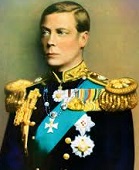

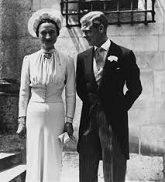
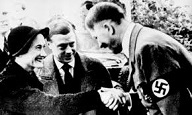



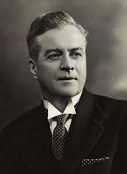
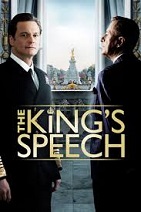
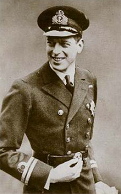








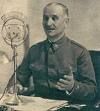





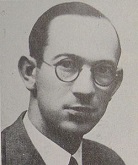
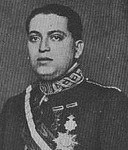








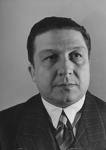



















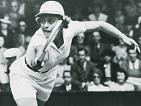

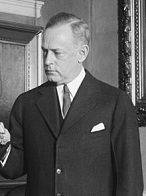

















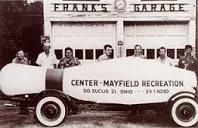






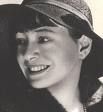








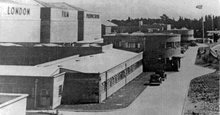

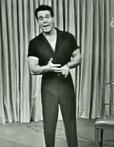
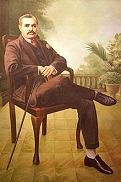



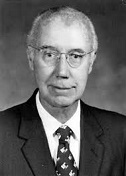
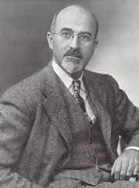
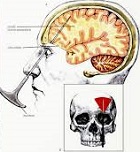
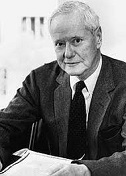
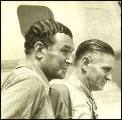


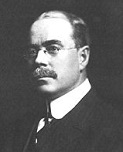





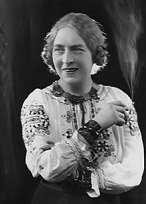





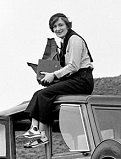

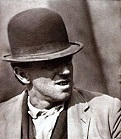
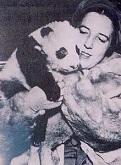





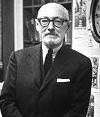













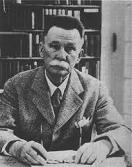


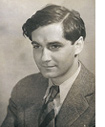









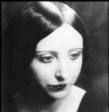




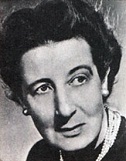



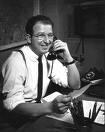
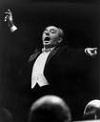
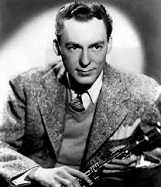

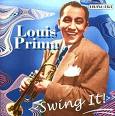



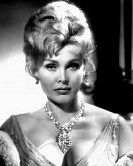

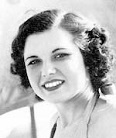



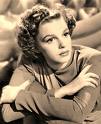



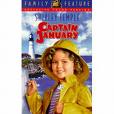

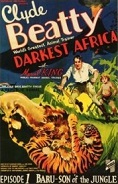
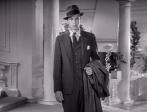
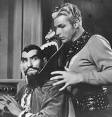

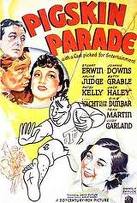


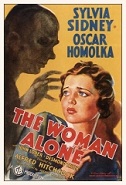
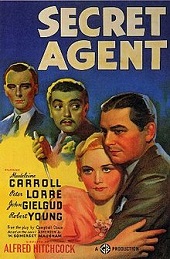







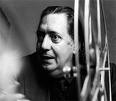
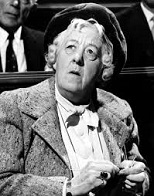

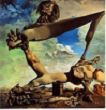


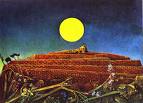



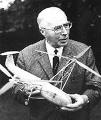





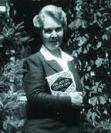
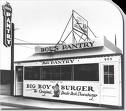
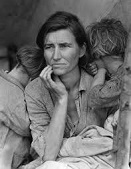
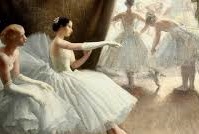

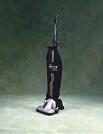
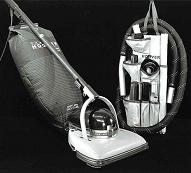
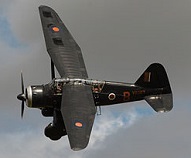


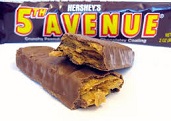
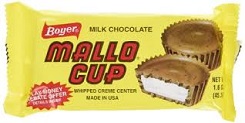
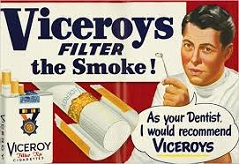
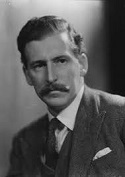
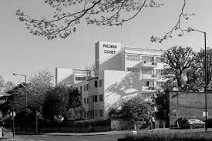
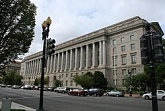
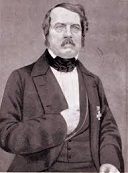
1936 Chinese Year: Rat. Most popular baby names in U.S.: Robert, Mary. Time Man, er, Woman of the Year: Mrs. Wallis Warfield Simpson (1897-1986). Speaking of rat, a major Stalinist Purge of the rats in the Communist Party in the Soviet Union (ends 1938) begins after announcement of a plot against Stalin by Leon Ratsky, er, Trotsky, causing Trotsky to be exiled from Russia and settle in Mexico. On Jan. 1 Stanford defeats Southern Methodist by 7-0 to win the 1936 Rose Bowl. On Jan. 1 internat. naval limitations set by treaties officially expire, ending warship construction holidays and the status quo in the Pacific, although the Japanese are rumored to have secretly been building up fortifications incl. sub bases in the Pacific; the U.S. plans a series of fortifications from the coast of Alaska to Midway Island, Guam and Samoa. On Jan. 6 the Spanish Cortes is dissolved, and elections are scheduled for Feb.; meanwhile in Jan. Germany signs contracts to buy the output of Spanish mines for use in their military machine, and after the new Spanish govt. cancels them in Feb., pissed-off Hitler begins plotting with Gens. Jose Sanjurjo y Sacanell (1872-1936), Emilio Mola y Vidal (1887-1937), Gonzalo Queipo de Llano y Sierra (1875-1951), and Francisco Paulino Hermenegildo Teodulo (Teódulo) Franco y Bahamonde, Salgado y Pardo de Andrade (1892-1975) to overthrow them, meeting with them in Berlin in Mar., after which in Dec. Germany receives its first iron ore shipments from Spanish Morocco, followed by 1M tons of iron, tin, antimony, copper and ignite by the end of 1939, giving him the resources to take over Europe; meanwhile Britain refuses to help France fight Spain because of their longtime rivalry. On Jan. 6 the U.S. Supreme (Hughes) Court rules 6-3 in U.S. v. Butler that the 1933 Agricultural Adjustment Act is unconstitutional because the 10th Amendment reserves the power to regulate and control agricultural production to the states, causing justice Harlan Fiske Stone to call the opinion of the majority "a tortured construction of the Constitution", adding the soundbyte: "Courts are not the only agency of government that must be assumed to have capacity to govern... The only check upon our own exercise of power is our own sense of self-restraint", being widely touted as a rebuke to court conservatives out to declare all New Deal statutes unconstitutional; Congress reenacts the agricultural program under its commerce power, which the court later upholds. On Jan. 11 the Socialist and Communist Parties of Spain sign an electoral pact; on Jan. 15 Manuel Azana organizes the Popular Front (Frente Popular) left-wing coalition before being appointed PM #63 of Spain by Pres. Niceto Alcala Zamora on Feb. 19 (until May 10). On Jan. 15 the Japanese delegation walks out of the naval disarmament conference after rejecting tonnage restrictions on warships. King for a year, or, I Have Eight English Eddies and She Has a Brazilian Bikini Wax, or, The Original Homer Simpson? On Jan. 20 king (since May 6, 1910) George V (b. 1865) dies, and his depressed, sexually degenerate (submissive?) son Edward VIII (1894-1972) becomes king of Great Britain (58th monarch) (until Jan. 20, 1936) (for 325 days); 568,387 people pass George's coffin in Westminster Hall, and 3M people throng the streets to view the procession to Westminster Abbey for the burial; on his deathbed, George utters the prophecy "After I'm gone, the old boy will ruin himself in 12 months"; upon seeing his daddy's coffin lowered, Edward comments "Christ, what will happen next?"; a power struggle ensues over Edward's friendship with British Nazi Party leader Oswald Mosley, led by PM Stanley Baldwin, who uses the king's twice-divorced concubine Wallis Simpson (nee Bessie Wallis Warfield) (1897-1986) as his Achilles heel; in the summer the king takes a licentious cruise on the steam yacht Nahlin in the Mediterranean with his babe, causing worldwide publicity after British diplomat Philip Henry Kerr, 11th Marquess of Lothian (1882-1940) gives the scoop to Eugene Meyer, owner of the Washington Post, which is blanked out in England, and Baldwin tricks the king into asking his advice on his relationship with Simpson, which he is legally bound to follow, then tells him to give her up or abdicate, because as head of the Church of England, which doesn't let divorced people marry, yada yada yada, which he can never do since she's his dominatrix and makes him beg for a light for his cigs?; Duchess Elizabeth of York detests the "royal harlot", but Churchill stands up for Edward in Parliament, and is hooted down, and the adoring public protests with signs reading "Hands Off Our King" and "Abdication Means Revolution"; however, (does she tie his Windsor knot just right?) after trying all year to get by, slide by, and get over it, all in vain, on Dec. 3 Edward VIII, with the soundbyte "At long last I am able to say a few words of my own" announces that he's in love with a divorced Yankee woman (whose 2nd divorce has not become final?), and abdicates on Dec. 10 (first voluntary abdication in British history) after 325 days in power, saying in a Dec. 11 radio broadcast (written by Churchill), "I have found it impossible to carry on the heavy burden of responsibility and to discharge the duties of king as I would wish to do without the help and support of the woman I love"; on Dec. 11 his reluctant brother Albert Frederick Arthur George, Duke of York (who bears a striking resemblance to Dr. Seuss' Cat in the Hat?) becomes king George VI (Albert Frederick Arthur George) (1895-1952) of the U.K. and the British Dominions (59th monarch) (until Feb. 6, 1952), and last emperor of India (until Aug. 15, 1947), placing his daughter Elizabeth Alexandra Mary (b. 1926) (future Elizabeth II) next in line for the throne, becoming the 3rd time that there have been three different English kings in the same year (1066, 1483); his wife (since 1923) Elizabeth Angela Marguerite Bowes-Lyon (1900-2002) becomes queen consort of the U.K. and the British Dominions, and last empress consort of India (until Feb. 6, 1952, after which she becomes known as Queen Elizabeth the Queen Mother; George VI goes on to preside over the completion of the British Commonwealth (begun 1931) in 1949; George VI suffers from a bad stutter, which he tries mightily to overcome with Australian speech therapist Lionel Logue (1880-1953) (Lat. "speech") (who calls him "Bertie"); within 24 hours of his accession the Irish Free State parliament passes the External Relations Act, dissolving his power in Ireland and removing him from their constitution; the royal family refuses to recognize Wallis' title of Her Royal Highness but makes him the Duke of Windsor, and he leaves for Monts, France where on June 3, 1937 they marry, with the new king banning the royal family from attending, and then live in exile for much of the rest of their lives, forever trying to talk George VI into letting them back in, while the real problem of his Nazi connections makes it impossible?; meanwhile misgivings about the capacity for kingship of the duke of York cause some to prefer his brother George, Duke of Kent (George Edward Alexander Edmund) (1902-42) (4th son of George V and Queen Mary of Teck), who is married to beautiful Princess Marina and has a son to succeed him, until rumors of his kinky interests in black women, hard drugs and young men, plus a gay affair with playwright Noel Coward surface, with Charles Russell later telling Coward, "You were almost a king's mistress, weren't you?"; at the wedding Wallis Simpson wears a wedding dress by Chicago-born. couturier Mainbocher (1891-1976). On Jan. 20-24 the League of Nations Council holds its 19th session in Geneva; too bad, they can't agree to impose petroleum sanctions on Italy, allowing them a free hand in Ethiopia. On Jan. 21 the Bolivian-Paraguayan Peace Treaty is signed, officially ending the Chaco War (begun 1932) after six Latin Am. govts. arbitrate; too bad, his perceived weakness causes a military coup against Paraguayan pres. Eligio Ayala on Feb. 17, and Gen. Rafael Franco Ojeda (1896-1973) becomes the pres. of Paraguay (until Aug. 13, 1937), proclaiming a dictatorship on Mar. 11. On Jan. 22 French PM Pierre Laval's govt. falls over the Hoare-Laval Pact, and on Jan. 24 former 1-mo. Radical PM (Oct. 26-Nov. 26, 1933) Albert Pierre Sarraut (1872-1962) becomes PM of a stopgap govt. (until June 4). On Jan. 23 Brig. Gen. Alexander Gore Arkwright Hore-Ruthven (1872-1955) (created 1st Earl of Gowrie in 1945) becomes gov.-gen. of Australia (until 1945). On Jan. 25 the White Mayfair Ball in Hollywood is attended by Clark Gable and Carole Lombard, who had made a film together with no sparks, but who strike it up at the ball, ending in a fight; the next day Gable awakes to a flock of doves released in his hotel room by Lombard's request; on Feb. 14 she has a Model-T painted with big red hearts delivered to him at the MGM lot, with a note attached to the steering wheel reading "You're driving me crazy!"; he then picks her up for a date wearing an expensive gown in the Model-T. On Jan. 26 elections in Greece are another pyrrhic V for the pesky Venizelists, who fail to gain a majority; on Apr. 13 Gen. Ioannis (John) Metaxas (1874-1941) becomes PM (until Jan. 29, 1941), and after being blocked from forming a coalition govt. by the Venizelists, who insist that repub. officers purged in 1935 be reinstated, he accepts parliament's offer to shut down for 5 mo.; on May 9 tobacco workers in Salonica strike, killing 12; on Aug. 4 after the Communists stage a 24-hour gen. strike to protest compulsory labor arbitration, Metaxas stages a military coup and becomes dictator (until 1941), proclaiming martial law, dissolving parliament, and ruling with an iron hand, calling himself the "First Peasant", "First Worker", and "National Father", claiming the Greek title of Arhigos (chieftain), proclaiming a "Third Hellenic Civilization", and going on to institute a bread-and-circuses approach, launching public works programs, raising wages, lowering bread prices and canceling agricultural debts to keep the pop. happy; he draws Greece closer to Germany but keeps good relations with Britain, France and Turkey because of fear of Mussolini. On Jan. 27 the U.S. Adjusted Compensation Payment (Bonus) Act overrides FDR's veto and finally gives 4M WWI vets $1.5B in cash, which acts as an economic stimulus, evaporating by next year. On Jan. 29 the first members of the Nat. Baseball Hall of Fame in Cooperstown, N.Y. are named, incl. Ty Cobb, Babe Ruth, Honus Wagner, Walter Johnson, and Christy Mathewson. In Jan. the Nationalist Party in Syria (organized in 1935) is outlawed, causing violent protests in major cities and the imposition of martial law by the French; in Feb. a nationwide gen. strike protesting the French causes them to relent and allow the formation of a Nationalist cabinet on Feb. 23. Early this year record heat, floods, and tornadoes hit the U.S., setting almost 250 all-time max temp records, which isn't matched until ?; on Feb. 8-23 Ashland, Kan. warms 91 deg F from -7F to 84F; on Mar. 19 The Cincinnati Enquirer carries the headline: "Hunger and Disease Peril Pittsburgh as City's Most Disastrous Flood Ebbs: Crest to Be 58 or 60 Feet in City Monday"; on Mar. 20 The New York Daily News carries the headline: "All Eastern America Under Flood Waters: Terrible Duststorm Rages in West", along with a front page article titled "President Signs Appeal as Capitol Flooded: 100 Cities and 14 States Affected"; on Apr. 7 The New York News carries the headline: "Great Property Damage", with the opening paragraph: "A tornado - one of a series of storms which for several days has harassed six southern States - today struck three cities with great force, leaving behind it many dead. At least 200 have already been identified. Gainesville in Georgia, Tupelo in Mississippi, and Colombia in Tennessee were the hardest hit." On Feb. 4 Swiss Nat. Socialist leader Wilhelm Gustloff (b. 1895) is assassinated by a Jew in Davos, causing the Swiss govt. to ban the Nat. Socialist Party, pissing-off the German govt., which protests and raises tensions; on May 5, 1937 the MS Wilhelm Gustloff passenger ship is launched, going on to become involved in the worst loss of life in a maritime sinking in history on Jan. 30, 1945 (9.4K people). On Feb. 6-16 the IV (4) (1936) Winter Olympic Games are held in Garmisch-Partenkirchen, Germany, with 646 athletes (566 men, 80 women) from 28 nations competing in 17 events in 4 sports; Alpine skiing makes its debut; Sonja Henie (1912-69) of Norway wins her 3rd straight gold in figure skating, then stinks herself up by having her photo taken shaking Hitler's blondes-only-need-apply rock steady-not hand?; Norway wins the games with 7 golds, 5 silvers and 3 bronzes. On Feb. 7 U.S. Pres. Roosevelt authorizes a Vice-President's Flag - how do you say, I'm useless? On Feb. 10 the German Gestapo is officially placed above the law and merged with the SS; in Mar. the SS Deathshead Div. is established to guard rehabilitation, er, concentration camps. On Feb. 16 elections in Spain see the new Popular Front, consisting of leftists, incl. Communists, Socialists, Syndicalists, and Liberal Repubs. defeat the rightists, incl. Conservative Repubs., clericals, and monarchists; the winners vow to implement a massive social reform program, and the Cortes goes back to the days of 1931 with social legislation; meanwhile the forces of fascism wait in the wings - she'll have fun, fun, fun until her daddy takes the T-bird away? On Feb. 17 a trade pact is signed, greatly reducing tariffs between Britain and Ireland; Ireland agrees to pay land annuities in exchanging for Irish exporters regaining access to the British market, causing the Anglo-Irish Trade War (begun 1932) to end by 1938. On Feb. 17 the comic strip The Phantom, "the Ghost Who talks", by Lee Falk and Ray Moore debuts (until ?), reaching 100M readers in 583 newspapers worldwide (see the year 1536). On Feb. 19 Manuel Azana of Spain restores the constitution of 1931 and forms a new cabinet, proclaiming a gen. amnesty for political prisoners, instituting a social reform program incl. land redistribution, school development, and an anti-clerical policy; he also begins working to restore Catalan autonomy. On Feb. 21 the Spanish Cortes grants amnesty to all Spaniards charged with insurrection; on Feb. 22 Gen. Francisco Franco is relieved of command and sent to the Canary Islands, and on Feb. 27 the offices of the Falange Espanola in Madrid are closed, causing Franco to meet with Gens. Emilio Mola, Juan Yague, and Jose Sanjurjo y Sacanell on Feb. 28 to discuss tactics; too bad, on Feb. 28 Mola is relieved of command and sent to Pamplona. On Mar. 14 the Falange Espanola is banned by the Popular Front govt. of Spain, and former pres. Jose Antonio Primo de Rivera is arrested and charged with trafficking illegal firearms, and sentenced on May 28 to 5 mo. in prison. On Feb. 23 another gen. strike in Syria forces the French to permit the formation of a Nationalist cabinet, while negotiations for Syrian independence are stepped up. On Feb. 24 a plebiscite in Switzerland extends the period of military training. On Feb. 26-29 the Feb. 26th Incident sees Japanese PM Saito, finance minister Takahashi et al. assassinated in an uprising of young army officers of the Imperial Way Faction in Tokyo; on July 7 a military tribunal sentences 17 of the officers to death. On Feb. 26-29 a nat. unification congress in Mexico called by the unions creates the Communist-backed Confederation of Mexican Workers (CTM) under Vicente Lombardo Toledano (1894-1968), which supports Pres. Cardenas in an accelerated reform program, and has over 1M members by 1938; meanwhile workers strike against foreign-owned cos., seeking to get a piece of the "excessive profits"; on Nov. 23 Mexico passes an expropriation law empowering the govt. to seize private property for "public or social welfare", esp. if it's owned by U.S. and foreign corps.; meanwhile Cardenas exiles former pres. Plutarco Calles and begins a vigorous program of socialization of industry and agriculture. On Feb. 29 the U.S. Congress votes to extend the 1935 Neutrality Act to May 1, 1937, and forbids extension of loans or credits to belligerents. On Feb. 29 historian Kamil Krofta (1876-1945) becomes foreign minister of Czech. (until 1938) as the govt. rearms and constructs strong fortifications along the German frontier. On Mar. 2 Juan Arosemena becomes pres. of Panama (until ?), beginning negotiations with the U.S. regarding the Panama Canal and Panamanian sovereignty, ending in a treaty. On Mar. 5 the Eighth (8th) Academy Awards awards the best picture Oscar for 1935 to MGM's Mutiny on the Bounty, best actor to Victor McLaglen for The Informer, best actress to Bette Davis for Dangerous, and best dir. to John Ford for The Informer, whose screenwriter Dudley Nichols (1895-1960) becomes the first to refuse an Oscar (due to a Screen Writers Guild strike) (next time George C. Scott on Apr. 15, 1971). On Mar. 7 Adolf Hitler (1889-1945), taking advantage of the Ethiopian crisis, and denouncing the Locarno Pact and the Versailles Treaty while pointing to the French-Soviet alliance and the threat of encirclement remilitarizes the Rhineland with German troops, diverting British and French attention from Italy, but appeasement-happy Britain still won't consider military action against Herr Hitler; on Mar. 12 Britain, France, Belgium and Italy denounce the German actions, and accept Hitler's vague proposals for a new agreement. On Mar. 9 Hirota Koki becomes PM of Japan (until Feb. 2, 1937), forming a cabinet dominated by the military, and greatly increasing the budget and pumping up heavy industry. On Mar. 9-10 PM Milan Hodza of Czech. visits Vienna, and on Apr. 2 concludes an Austro-Czech Trade Agreement with Austria, stirring hopes of bringing it into the Little Entente. On Mar. 12 Britain, France, Belgium, and Italy officially protest Germany's violation of the Locarno Treaties, but after Germany threatens war with France, Britain backs down and refuses to participate in economic sanctions; meanwhile Hitler proposes to guarantee the frontiers in W Europe, then reneges after they try to make him guarantee the frontiers in E Europe. On Mar. 12 after a gentleman's agreement in response to Japanese expansionism on Nov. 27, 1934, the Soviet-Mongolian Mutual Assistance Treaty is signed. On Mar. 14-24 the League of Nations Council holds the 1st meeting of the 91st session in London. On Mar. 17 (St. Patrick's Day) the Johnstown Flood of 1936 hits Johnstown, Penn. (first flood 1889, next flood 1977), killing 25 and reaches Pittsburgh, destroying 100K bldgs and causing $250M in damage, putting 60K steel workers out of work, killing 69 and injuring 500, becoming its worst flood (until ?). On Mar. 19 Albania and Italy sign a series of financial and trade agreements, increasing Italian control. On Mar. 23 the Three-Power (Rome) Pact is signed in Rome by Italy, Austria, and Hungary to counter German power. On Mar. 25 after Italian and Japanese delegates walk out, the London Naval Agreement is signed in London between Britain, France, and the U.S., agreeing to limitations in ship tonnage and gun size, but not numbers of ships - don't you speak Spanish? On Mar. 29 the Great Depression all-but conquered in Germany, Der Fuehrer Adolf Hitler receives 99% of the vote from the grateful German Volk in a referendum. On Apr. 1 the Austrian govt. reintroduces military conscription in violation of the Treaty of St. Germain. On Apr. 1 the British govt. sends letters of reassurance to the Belgian and French govts. promising support in the event of a war with Germany. On Apr. 2 the Saudi-Iraqi Treaty of Non-Aggression and Arab Brotherhood is signed in union against a Jewish Palestine, promoting Pan-Arabism with the view towards forming an Arab federation. On Apr. 4 Spanish PM Manuel Azana presents details of his reform legislation. On Apr. 7 Spanish Pres. Niceto Alcala Zamora is deposed. On Apr. 10 the Spanish Cortes votes to oust pres. Niceto Alcala Zamora, and elect former PM Manuel Azana (Azańa) Diaz (1880-1940) as pres. of Spain (until ?); meanwhile Gen. Jose Sanjurjo, leader of the 1934 Sanjurjada Revolt (who was granted amnesty in Mar. 1934) and went into exile in Portugal begins plotting with gens. Francisco Franco (1892-1975), Emilio Mola Vidal (1887-1937), and Gonzalo Queipo de Llano y Sierra (1875-1951) to overthrow the leftist Popular Front govt. On Apr. 11 the Turkish govt. appeals to the signatories of the Lausanne Treaty to revise it to allow them to fortify the Straits, causing the Montreaux Internat. Conference to be called for July. On Apr. 11 (Easter Eve) South African-born Sir William Heygate Edmund Colborne "Billy" Butlin (1899-1980) founds Butlins Holiday Camps, the first commercial holiday camp at Ingoldmells (near Skegness), England, featuring 3 meals a day and free entertainment for Ł1.5-Ł3 a week, causing holiday travelling to become more popular in Britain; after being knighted in 1964, he sells out for Ł43M in 1972. On Apr. 13 Spanish Gens. Emilio Mola and Gonzalo Queipo de Llano meet to discuss plans for a military coup; on Apr. 18 the Cortes makes it illegal for military officers to attend secret political meetings. On Apr. 15 Honduran pres. Gen. Tiburcio Carias Andino gets the constitution amended to keep him in power until 1943, while revolts sprout like bananas. On Apr. 15 Aer Lingus (Gael. "aerloingeas" = air fleet) is founded by the Irish govt., becoming Ireland's 2nd largest airline after Ryanair, growing to a fleet of 53 with 93 destinations, based in Cork Airport, George Best Belfast City Airport, and Shannon Airport; in 2006-15 it is privatized. On Apr. 20 the League of Nations holds the 2nd meeting of its 91st session in Geneva, while hosting a conference in Bandung, Dutch East Indies to abolish traffic in women in the Middle and Far East (ends May 2). On Apr. 22 the South African parliament allows natives to continue to register as voters in Cape Province, but not the other provinces, where they can only elect three white Euros to represent them; they also create a 22-member native representation council with Advisory powers only. On Apr. 28 king (since Mar. 15, 1922) Fouad (Fuad) I (b. 1868) dies, and his 15-y.-o. son Farouk (Faruq) I (1920-65) becomes king #10 of Egypt and Sudan (until July 26, 1952), under a regency council until July 1937, going on to back the Muslim religious establishment against secularist politicians and scheme to end the constitutional system and become an autocrat while enjoying popularity; on May 2 nat. elections give a big V to the Wafdist Party, and Mustafa al-Nahas becomes PM again (until 1937), beginning negotiations with Britain to end its influence. On Apr. 30 the British govt. announces plans for the construction of 38 warships, becoming the largest building program since 1921. In Apr. the 1936-9 Arab Revolt in Palestine begins after mass Jewish immigration and land development triggers Arab anti-Semitism fueled by Jerusalem mufti Amin al-Husayni and the Nazis, resulting in Arab riots against the Jews in Jaffa, killing 16 and wounding several, followed by Arab highwaymen holding up Jewish cars on the road between Tulkarm and Nablus then killing them; by late Apr. Jews buses are stoned and fired on, and Jewish settlements in the N burned; in May-June the Arabs attack Jewish property and sabotage public utilities; on May 16 three Jews are murdered and two wounded as they leave a Jewish cinema; in Apr. the Arab High Committee in Palestine is formed by al-Husayni to combat Zionism, calling for a boycott of Jewish goods and services, along with a gen. strike, which ramps up in Aug. after four Arab leaders call in vain for peace negotiations. On May 1 the Popular Front in Argentina is formed by several leftist groups to fight the growing fascist parties, causing rightist groups on May 31 to form the Argentine Nat. Front. On May 3 parliamentary elections in France give the Radical Socialist Popular Front (Front Populaire) a majority in the chamber, and with the help of huge (300K worker) sit-down strikes on June 5 the first Popular Front ministry is formed, headed by Socialist Party leader Leon Blum (1870-1952) as PM (until 1937), supported by the Communists, causing the far right to create the slogan "Better Hitler than Blum"; on June 7-8 the Matignon Agreements lead to radical socioeconomic reforms incl. a 40-hour work week, reorg. (followed by nationalization) of the Bank of France on June 12, nationalization of the munitions industry on July 17, along with paid vacations and compulsory arbitration for labor disputes; too bad, all the free lunches soon cause prices to rise and the franc to rapidly decline, while capital flees the country to avoid being stolen by the govt.; meanwhile green-eyed Belgium hustles to copy them. On May 5 after using poison gas, the Italians occupy Addis Ababa, and resistance collapses; Halie Selassie flees to England via Palestine (until 1941); on May 9 the Italian campaign in Ethiopia ends, and Ethiopia loses its independence for the first time in history, being annexed to Eritrea and Italian Somaliland to form Italian East Africa (until 1941); Italian King Victor Emmanuel assumes the title of emperor of Ethiopia; meanwhile Ethiopian insurgents begin a guerrilla war against the Italians - time for the League of Nations to step in, yuk yuk? On May 7 Egypt officially recognizes Saudi annexation of the Hejaz. On May 8 suspected Nazi sympathizer Leon Cortes Castro (1882-1946) becomes pres. of banana-coffee country Costa Rica (until 1940), going on to build ports in Quepos and Golfito while preventing Jewish immigration and maintaining ties with rich German expatriates. On May 8 former PM #55 (1931-3) and #63 (1936) Manuel Azana (Azańa) Diaz (1880-1940) is elected pres. #2 (last) of the 2nd Spanish Repub., taking office on May 10 (until Mar. 3, 1939), offering the post of PM to Socialist minister of public works (since Dec. 16, 1931) Indalecio Prieto Tuero (1883-1962) (pres. of the Spanish Socialist Workers' Party) (PSOE), who refuses, and is shot on May 31 at a Socialist rally in Ecija, after which he becomes minister of defense on May 17, 1937-Apr. 5, 1938. On May 9 after "Uncle Jim" McWilliams proves the market with "Uncle Jim's Question Bee", "Uncle Jim's Ask-It Basket", and "Correction Please", Professor Quiz debuts on CBS Radio (until Sept. 25, 1941), hosted by Craig Earl (real name Arthur E. Baird), launching the first U.S. radio quiz programs mania, with 50+ shows on the air by 1940 and 200+ by 1949; Doctor I.Q., hosted on NBC and ABC (1939-50) by James Wesley McClain (1914-), "the Mental Banker" becomes a big hit after paying winners in loudly clinking silver dollars and Mars Bars. On May 11-13 the impotent League of Nations Council holds a meeting in London; on May 14 Guatemala informs them that it is quitting the League; on May 27-30 the League holds a conference in Madrid over the Pacific. On May 14 Austrian chancellor Kurt von Schuschnigg forces his rival Prince Ernest Stahremberg (Heimwehr CIC) to resign as vice-chancellor and leader of the Fatherland Front, giving him total control, allowing him to visit Rome on June 1. On May 17 after the Bolivian military convinces the pop. that the politicians sold them out, not that they were incompetent to lose to a poorer country, and nobody blames the Standard Oil Co., which refused to help them in the Chaco War, a gen. strike by trade unions, miners and the "Veterans of Chaco" leads to a military coup led by Gen. German (Germán) Busch Becerra (1904-39) topples the Bolivian govt., and pres. Luis Tejada Sorzana is replaced by a joint civil-military junta under Col. Jose David Toro Ruilova (1898-1977), proclaiming the new program of Military Socialism (until 1937). On May 18 jealous Japanese geisha Abe Sada (1905-72) strangles her married lover, gangster Ishida Kochizo during sex, then cuts off his penis and testicles as a souvenir, writing "Sada and Kichi are now one" in blood on his chest; she is caught and sent to jail, but mistakenly released in 1947 by U.S. occupation forces, and buys an (oyster?) bar near Tokyo's Sumida River, becoming a folk heroine; the 1976 Nagisa Oshima film In the Realm of the Senses dramatizes their relationship so luridly that it is seized by U.S. customs, making it more popular? On May 20 the govt. of Spain orders the closing of Roman Catholic schools to protect them from arson attacks, and on June 2 the Cortes passes legislation protecting agricultural tenants from eviction. On May 23 Australia increases the modest tariff of 1923, pissing-off Japan over its textile exports and causing an agreement of Dec. 27 to accept as many Japanese textiles as in 1934 in return for Japanese purchase of Australian wool. On May 24 parliamentary elections in Belgium give PM Paul Van Zeeland's Govt. of Nat. Unity a V, but also gives the anti-Communist Francophile Rexist Party (AKA Christus Rex) (which broke off from the Roman Catholic Party), led by Walloon Belgian Leon Degrelle (1906-94) 21 of 212 deputy seats plus 12 senators, and Degrelle meets with Hitler and Mussolini, receiving 100K marks and 2M lire; on June 24 Belgium passes a social program copied from the Popular Front next door in France; too bad, as the Rexist Party goes more and more fascist its support dwindles, so that by 1939 they are down to four deputy and four senate seats. In May the German-Yugoslav Barter Agreement is signed to help Yugoslavia after losing trade with Italy over its sanctions during the Ethopian Crisis; it is unpopular with the Yugoslav pop. On June 2 Gen. Anastasio Somoza Garcia and his Nicaraguan Nat. Guard depose pres. Juan Sacasa, becoming yet-another U.S. propped-up dictator fighting pesky Commies as a cover story (until 1947) - come with me baby on another magic carpet ride? On June 4-24 the Internat. Labor Org. (BIT) holds its 20th session in Geneva under C.V. Bramsnaes of Denmark, adopting conventions providing for reduction of public working hours, annual paid holidays, and special work recruitment systems. On June 5 the Swiss govt. begins an extensive armament and military modernization program. On June 7 after one of the worst droughts in U.S. history, N.D. Repub. gov. Walter Welford proclaims a day of prayer for rain; too bad, it doesn't work, although Devil's Lake, N.D. records 0.16 in. of rain, and Welford asks FDR for $1M in aid; in early July a heat wave in the Am. West peaks with 119F on July 7 in N.D., causing a grasshopper invasion that threatens to starve the cattle, causing the federal govt. to send $5M to buy 1M head of cattle for the needy, and on July 17 proposes resettling 30% of farm families, and on Aug. 25 FDR takes a train to survey the situation, which becomes known as the Dustbowl Special; meanwhile a faked photo in the New York Times on Aug. 9 titled "Cattle Invade a State Capitol", showing cows grazing in Bismarck, and other faked photos stink the FDR admin up. On June 8-26 the League of Nations holds a conference in Geneva for the repression of illicit traffic in dangerous drugs. On June 9 over 1M workers in Spain go on strike. On June 9-12 the 1936 Repub. Nat. Convention in Cleveland, Ohio nominates progressive (former FDR follower) Kans. Gov. (1933-7) Alfred Mossman "Alf" Landon (1887-1987) for pres., and conservative Chicago Daily News publisher (later secy. of the U.S. Navy in 1940-4) Frank Knox (1874-1944) for vice-pres.; Landon's campaign features bright yellow sunflowers, causing the Dems. to adopt the slogan "Sunflowers die in November"; too bad, Landon hardly ever campaigns, causing journalist Francis James Westbrook Pegler (1894-1969) to joke that the Missing Persons Bureau is looking for him; when he does campaign, he accuses FDR of subverting the Constitution, with the soundbyte "I do not believe that a temporary depression is adequate reason for changing our whole form of government", then when he gets a reaction he tries to appear to be an FDR man again, making transparently false claims that he will carry on FDR's New Deal, only Republican style, to which FDR gives great speeches mocking the Repubs., saying "Of course we believe these things. We believe in social security. We believe in work for the unemployed. We believe in saving homes. Cross our hearts and hope to die, we believe in all these things, but we do not like the way the present administration is doing them. Just turn them over to us. We will do all of them. We will do more of them. We will do them better. And most important of all, the doing of them will not cost anybody anything." On June 17 Heinrich Himmler (1900-45), head of the Gestapo since 1934 becomes head of the German "order police" (Ordnungspolizei), the chief of all German police, local and state, with oversight of the concentration camp system, allowing him to rise to #2 in power behind Hitler. On June 19 the govt. of Ireland declares the Irish Repub. Army (IRA) illegal. On June 20 FDR signs the U.S. Randolph-Sheppard Act, sponsored by W.V. Dem. Rep. Jennings Randolph (1902-8) (descendant of Va. colonist William Randolph), giving blind people preference in federal contracts for food service stands on federal property (incl. military bases), becoming one of the first affirmative action programs in the U.S. On June 22 Honduras drops out of the League of Nations, followed on June 26 by Nicaragua. On June 23-27 the 1936 Dem. Nat. Convention in Philadelphia, Penn. renominates FDR and Garner. On June 25-July 4 the League of Nations Council holds its 2nd meeting of the 92nd session in Geneva; on June 30-July 4 the League of Nations holds the 2nd meeting of its 16th session in Geneva, followed on July 2-4 by a conference in Geneva to help Jews, er, refugees from Germany receive legal status during their transit. On June 26 the U.S. Nat. Firearms Act is passed allegedly to regulate "gangster weapons" such as machine guns and hand grenades, making them expensive to own, and treating sawed-off rifles and shotguns and silenced and concealable firearms as machine guns; gun dealers are required to register; felons are prohibited from owning firearms covered by the act, which gains its jurisdiction from the Commerce Clause of the U.S. Constitution to get around the 2nd Amendment, but in 1965 an amendment is passed permitting felons to apply for "relief" from the "disability" of not being able to possess guns. On June 26 the U.S. Okla. Indian Welfare (Thomas-Rogers) Act is passed by Congress; the United Keetoowah Band is formed from various Cherokee subgroups, and is recognized by Congress in 1949. On June 29 Pope Pius XI issues the encyclical Vigilanti Cura, outlining the dangers of motion pictures to Catholics, and exhorting them to be vigilant - or end up needing to go-a to the doctor's office to get cured? On June 29 Pres. FDR presents "King of Broadway" George Michael Cohan (1878-1942) with the Congressional Gold Medal, becoming the first artist. On June 30 the French govt. of Leon Blum suppresses Fascist parmilitary groups, which reform as political parties, with the Croix de Feu becoming the Parti Social Francais (PSF), and Communist-turned-Fascist Jacques Doriot (1898-1945) founding the Parti Populaire Francais, going on to collaborate with the Vichy regime. In June a govt. committee recommends the incorporation of Southwest Africa as the 5th province of the Union of South Africa, but the parliament declines to take action. In June-Sept. after one of the coldest winters on record, the 1936 North Am. Heatwave becomes the hotest in U.S. history (until 2012?), with temps peaking on July 7-14, with every state over 90F and many over 100F, combining with drought to make the U.S. virtually unlivable, killing 5K incl. 1180 in Canada (esp. in urban areas sans air conditioning) and destroying massive amounts of crops. On July 25, 1936 The Bend Bulletin carries the headline: "Heat Wave Toll Over 2,000 in 86 Cities in Week", talking about "temperatures of 100 degrees and higher throughout a large part of the nation" - high atmospheric CO2 had nothing to do with it? On July 3 the World Congress of Faiths at the U. of London is founded by British mystic explorer Sir Francis Younghusband (1863-1942) to "instill a spirit of fellowship among mankind through religion, and... to revitalise all that is highest in man's spiritual being"; it is attended by Alan W. Watts. On July 4 the League of Nations ends its sanctions against Italy, abandoning League member Ethiopia and causing the League to become pretty much kaput as a political org.; this gives the Japanese ideas in Manchuria? On July 6 nationalist leader Primo de Rivera (b. 1903), whose Spanish Falange won only 0.7% of the vote in the Feb. election, then grew to 40K members is captured by the republicans, then executed in Alicante on Nov. 20. On July 6 Spanish envoy Luis Antonio Bolin Bidwell (1897-1969) has Gen. Francisco Franco flown to from Croyden, Canary Islands to Tetuan, Spanish Morocco in a de Havilland Dragon Rapide piloted by Capt. Cecil Bebb, with his daughter Diana and one of her friends coming along posing as tourists. On July 11 the Austro-German Agreement is signed, acknowledging Austrian independence and promising no more German interference in return for Austria promising to implement a "more German" foreign policy; Hitler is now free to work to firm up his fascist partnership with Mussolini and unleash the dogs of war in Spain? On July 12 Repub. Assault Guards (Guardia de Asalto) officer Jose Castillo (Jose del Castillo Sáez de Tejada) (b. 1901) is assassinated by four Falangist gunmen, causing monarchist leader Jose Calvo Sotelo (b. 1893) to be murdered in revenge on July 13 by police capt. Fernando Condes et al. in a police van while being brought into the station for interrogation. On July 12 after being asked to become the leader of the nationalist rebellion by envoy Luis Bolin, exiled Spanish Gen. Jose Sanjurjo y Sacanell (b. 1872) utters the soundbyte that he wishes "to make political parties disappear, to sweep from the national spheres every liberal structure and to destroy their system"; too bad, on July 20 he dies in a plane crash shortly after takeoff as he tries to fly back from Estoril, Portugal to Spain in a small biplane piloted by Juan Antonio Ansaldo, caused by overloading the plane with luggage esp. clothes, after allegedly uttering the immortal soundbyte: "I need to wear proper clothes as the new caudillo of Spain." Spain turns into a chessboard with Hitler and Stalin making the moves, and Mussolini and Franco acting as pieces, while anti-fascists from all over the world try to get in the game? On July 17/18 (Fri./Sat.) the Spanish Civil War (ends 1939), a rightist revolt against the leftist Popular Front govt. begins with the revolt of the Morocco garrison under gens. Emilio Mola and Francisco Franco, spreading to army towns in Spain, incl. Cadiz, Seville, Saragossa, and Burgos, and gaining the support of the bulk of the Spanish army; Madrid is initially held by the loyalists under Gen. Jose Miaja Menant (1878-1958) (until 1937), and Barcelona under ?; on July 23 the Junta de Defensa Nacional sets up in Burgos as the seat of Franco's nationalist govt. until the capture of Madrid in 1939; Franco's hometown of El Ferrol in Galicia, NW Spain is captured by his forces soon after the war begins for a moral V; on July 20 Gen. Jose Sanjurjo (b. 1872), the leader of the rightist revolt is killed in a plane crash in Estoril, Portugal when he overloads the plane with baggage, uttering the immortal soundbyte "I need to wear proper clothes as the new caudillo of Spain"; lucky Francisco Franco becomes the new leader of the rightists, quelling rumors that he you know what to get his promotion; the war splits Europe into fascist and anti-fascist camps, with Hitler and Mussolini aiding Franco, and Stalin aiding the loyalists, who hastily organize a militia composed of workers from labor groups; the war causes Chilean poet Pablo Neruda (1904-73) to turn to Communism, while the loyalists put out a call to the Communist Internat. for volunteers, recruiting from many countries, incl. the U.S.; Mussolini sends 50K-75K volunteers to Spain along with armaments, forcing him to devalue the lira on Oct. 5 and raise taxes; the Abraham Lincoln Battalion (Brigade) is formed by 3,015 volunteers from the U.S., 681 ending up KIA or dying of wounds or sickness by 1938. Here comes the Sun, or, You're the one that I want, ooh-hoo-hoo? On July 19 Gen. Chiang Kai-Shek's Nationalist forces establish control over Guangdong (Kwangtun), giving them control of S China. On July 20 the Montreux Internat. Conference in France, held by the signatories of the Lausanne Treaty agree to return the Bosporus Straits to Turkish control, giving them sovereigny over the Dardanelles, with responsibility for communications between the Black Sea and Mediterannean Sea. On July 28 the repub. loyalist govt. of Spain confiscates all Roman Catholic Church property, pissing-off Pope Pius XI and causing him to recognize Franco's Fascist govt. on Aug. 27, 1937. On July 30 Gens. Emilio Mola and Francisco Franco set up the Junta of Nat. Defense in Burgos, gaining the support of pres. Olivera Salazar of Portugal, who allows his country to become a supply route for the Nationalist army. The greatest chance to stop WWII with the fellowship of sports is in the hands of a black, two Jews, and a mental cripple at the Big 1936 Aryan Olympics? On Aug. 1-16, 1936 Nazi Germany, led by Adolf Hitler (1889-1945) hosts the XI (11th) (1936) Summer Olympic Games in Berlin, after the first-ever torch relay from Olympia, Greece, devised by Nazi filmmaker Leni Riefenstahl, who films the dramatic lighting of the flame in Olympic Stadium, the final torchbearer being graceful certified blonde-blue Aryan runner Fritz Schilgen (1906-2005), who does not compete (2nd time the Olympic flame is used); 3,963 athletes (incl. 331 women) from 49 nations participate in 129 events in 19 sports; the first televised Olympics, beamed to TV sets in Berlin and Potsdam, and later used by aliens from outer space as a signal that earthlings are ready for Carl Sagan's Contact?; basketball and handball debut as outdoor sports (handball doesn't appear again until 1972); French and Canadian athletes give an Olympic salute at the opening ceremony which looks dangerously close to the Nazi salute?; Haiti and Liechtenstein discover that their flags are identical, forcing mods; the U.S. almost boycotts the Olympics until a backroom power play, with U.S. asst. Navy Secy. (since Apr. 1, 1929) Ernest Lee Jahncke (1877-1960) being expelled from the IOC, and pro-Nazi USOC pres. #5 (since 1928) Avery Brundage (1887-1975) put in his place, maneuvering the USOC into a close vote to send a team, which most Jewish athletes boycott, while blacks welcome the propaganda chance (showing the cracks in the U.S. Jewish-black alliance, or is it something about every Jew and Aryan being shorter down there and the black bucks hoping to get lucky with the German girls, er, forget it?) (Brundage utters the soundbyte this year: "I am fed up to the ears with women as track and field competitors... her charms sink to something less than zero. As swimmers and divers, girls are as beautiful and adroit as they are ineffective and unpleasing on the track") (after the Olympics, his construction co. gets a contract to build the German Embassy in the U.S., and after he dies he is revealed to have been the a-hole who got American Injun Jim Thorpe's medals taken away for playing semi-pro ball); Hitler orders the Berlin police to arrest all gypsies before the games and keep them in a special camp, but exempts foreign visitors from Nazi anti-gay laws?; signs warning shoppers about Jewish-owned shops are taken down, but Hitler initially has signs mounted over toilets reading "Dogs and Jews not allowed", then backs down and removes them after Belgian IOC pres. (since 1925) Count Henri de Baillet-Latour (1876-1942) (who went on record as saying that women shouldn't take part in the Olympics) faces him down; only pure Aryan athletes are permitted by Hitler to compete for Germany; most athletes (incl. from the U.S., incl. Jesse Owens) wear track shoes made by ardent Nazi brothers Adolf "Adi" Dassler (1900-78) and Rudolf Dassler (1898-1974) of Herzogenaurach, Bavaria (12 mi. from Nuremberg); too bad, after the war, Adi rats Rudolf out as a member of the SS, causing them to split, after which in 1948 Rudolf founds Puma nearby across the Aurach River, and Adi renames his co. Adidas (run like a Nazi?); (the solution to world peace was on their feet all the time?); Carla de Vries from Norwalk, Calif. walks up to Hitler at his seat in the stands next to Gen. August von Mackensen, gets him to sign an autograph, then kisses him on the cheek, pissing him off and causing him to fire several Schutzstaffel security guards; the well-heeled lily-white Aryan German athletes, while winning the most medals as a group and proving Aryan superiority to the Aryans are upstaged in the non-German world by black U.S. athlete (former Ohio State U. star) (son of a sharecropper and grandson of slaves) Jesse Owens (1913-80), "the Ebony Express", who becomes the 1st U.S. and 2nd athlete ever to win three individual Olympic golds, in the 100m (10.3 sec.) (Aug. 3), long jump (26 ft. 5-5/16 in.) (Aug. 4), and 200m (20.7 sec.) (Aug. 5); the runner-up in the 200m dash is Matthew MacKenzie "Mack" Robinson (194-2000), older brother of baseball player Jackie Robinson; after Avery Brundage kisses Nazi butt by pulling Jews Martin Irving "Marty" Glickman (1917-2001) and Sam Stoller (1915-85) (the only two Jews on the U.S. Olympic team) out of the 4x100m relay, they put in Owens and yet-another-black-athlete Ralph Harold Metcalfe Sr. (1910-78) (world's fastest human from 1932-4, who placed 2nd to Owens in the 200m), and on Aug. 9 the U.S. team wins by 15 yards, setting a record of 39.8 sec., which lasts 20 years (until 1956); Hitler allegedly snubs "black nigger ape" Owens, but actually doesn't, as he decided to skip all medal presentations after the first day, when he did snub two U.S. blacks, high jumpers Cornelius Cooper "Corny" Johnson (1913-46), (who won the first U.S. gold) and David Donald "Dave" Albritton (1913-94); not that Owens is in love with the white racist U.S. so much either, saying "Hitler didn't snub me, it was FDR who snubbed me. The President didn't even send me a telegram"; black athlete Archibald Franklin "Archie" Archie Williams (1915-93) wins another gold for the U.S. in the 400m; blonde model Aryan German long jumper Carl Ludwig "Luz" "Lutz" Long (1913-43) does an un-PC thing by giving Owens advice that keeps him from elimination in the preliminary, then when Owens wins the gold, running out to congratulate him, clutching his right hand with his left and hoisting their arms into the air while facing toward Hitler, becoming Owen's defining moment of the Olympics, saying "It took a lot of courage to befriend me in front of Hitler... You can melt down all the medals and cups I have and they wouldn't be a plating on the 24 carat friendship that I felt for Luz Long at that moment"; Owens was not given segregated facilities in Germany like back in the good ole USA, and was idolized by German fans?; (if Luz Long coulda taken over Germany and Jesse Owens the U.S. right then, send me the screenplay?); too bad, fellow black athlete ("world's fastest human") Eulace Peacock (1914-96), who beat Owens 5x in a row in the 100m the year before is injured and doesn't compete (just what the Yanks need, to field a strutting black peacock in front of Herr Hitler?); on Aug. 8 the Washington U. crew team, representing the U.S. comes behind to pass Germany and edge Italy by 0.6 sec. to win the rowing gold in front of Hitler; the first basketball gold goes to the U.S., who beats Canada 19-8 in a mud court in the rain, where dribbling is impossible, and spectators have to stand; honorary-Aryan India wins the gold in field hockey, continuing their streak (1928-56); Konrad Frey (1909-74) and Karl Alfred Markus Schwarzmann (1912-2000) of Germany each win three golds in gymnastics, and Frey wins six medals and Schwarzmann wins five medals total, beating Owens' four (which are all gold); Estonia competes for the 1st time (next 1992), and godlike Aryan-looking Kristjan Palusalu (Trossmann) (1908-87) (who is later treated like merde during WWII by the Soviets, who force him to fight Finland, after which he defects to their side) wins two golds in men's heavyweight wrestling; Germany wins individual and team gold in all three equestrian events; Italy wins the gold in soccer, which is touted as a big V by Benito Mussolini; Japan wins a gold and bronze in the marathon using Korean runners under Japanese names; Danish journalist Inga Arvad (Petersen) (1913-73) accompanies Hitler at the Olympics and interviews him 2x, then has a bedroom affair with JFK in 1941-2, which the FBI tapes, holding it against him for life; in 1945 she marries Am. cowboy star Tim McCoy (1891-1978). On Aug. 2 France calls on the world to not intervene in the Spanish Civil War. On Aug. 3 the U.S. State Dept. urges Americans to leave Spain because of the civil war. On Aug. 11 Gen. Chiang Kai-shek's Nationalist forces enter Guangzhou (Canton), uniting almost all of China under their rule. On Aug. 14-15 Gen. Franco wins the Battle of Badajoz, his first major V, and begins a major offensive through the Tagus River Valley towards Talaverna and Toledo, where a Nationalist garrison is being sieged by loyalists. On Aug. 19 the 1936 Seattle Post-Intelligencer Strike begins when two senior staff members are fired for joining the Newspaper Guild, halting production until Nov. 29 after they formally recognize the guild. On Aug. 19 the Trial of the Sixteen (Trial of the Trotskyite-Zinovievite Terrorist Center), conducted by chief prosecutor Andrei Januarevich Vyshinsky (1883-1954) sees Stalin break a taboo and stage his first Moscow show trial of sacred cow Old Bolsheviks, incl. former triumvirate (troika) members Grigory Yeseevich Zinoviev (1883-1936) and Lev Borisovich Kamenev (1883-1936), in which the "dogs of the Fascist bourgeoisie," "mad dogs of Trotskyism," "dregs of society," "decayed people," "terrorist thugs and degenerates", and "accursed vermin" confess to everything but the kitchen sink (esp. support for Leon Trotsky) before being convicted and executed in Moscow on Aug. 25; Vyshinsky becomes an internat. star, and is appointed vice-PM in 1939-44, deputy minister for foreign affair in 1940-9, and minister for foreign affairs in 1949-53. On Aug. 24 Germany passes a conscription law requiring two years of compulsory military service. On Aug. 25 the St. Louis Star-Times pub. the article Month Heat Toll Mounts to 33 in Prolonged Spell, with the subtitle "Mercury Stayed Below 100 Yesterday First Time in 13 Days". On Aug. 27 the Anglo-Egyptian Treaty is signed, agreeing to a 20-year alliance, eliminating the Capitulations (special courts for foreigners in Egypt) along with direct British interference in foreign affairs and defense; British forces are to be withdrawn from Egypt, except for a 10K-man garrison in the Canal Zone, which is allowed to stay for another 20 years, while Egyptian immigrants are allowed to return to the Sudan in exchange for Egyptian troops evacuating it; the British also get to keep their naval base in Alexandria for eight years; Egypt is permitted to join the League of Nations; failure to acknowledge complete Egyptian independence pisses-off the Wafdist Party; foreigners and minorities are permitted to be taxed for the 1st time; on Dec. 22 it is ratified amid criticism; the Egyptian army begins an expansion program, allowing officer candidates from the lower and middle classes for the 1st time, which eventually leads to the elite older officers forming a glass ceiling and ending up in a power struggle in the early 1950s. On Aug. 29 rightists and fascists force the resignation of Romanian PM Nicholas Titulescu, ending his attempts to form friendly relations with France, Russia, and the Little Etente against Germany; the king still attempts to stay friendly with France and Czech., purchasing Czech. armaments with French loans. On Sept. 2 the Ping-Pong Flight sees Am. aviators Henry Tyndall "Dick" Merrill (1894-1982) and "Puttin' on the Ritz" fading star Harry Richman (1895-1972) take off from New York City in a Vultee V1, land in Llandilo (Llandeilo), Wales (175 mi. W of London) 18 hours 36 min. later, then on Sept. 14 take off from Southport, England, landing in New York City after making a mistake and dumping 500 gal. of fuel, causing them to have to stop in Newfoundland, becoming the first round-trip trans-Atlantic flight; Richman fills his plane with ping-pong balls to make it buoyant in case of a sea landing, and sells autotographed ones for the rest of his life to help recoup the $360K cost; Merrill goes on to become Pres. Eisenhower's personal pilot in 1952, and retire as the most experienced pilot for Eastern Air Lines in 1961, with 36K hours, plus 9K more, for 8M mi. total. On Sept. 4 the Nationalists occupy Irun in N Spain; meanwhile Spanish trade unionist politician Francisco Largo Caballero (1869-1946) forms a Popular Front govt. in Madrid, including Catalan and Basques in his cabinet. On Sept. 4 British-born Kenyan aviator (female) Beryl Markham (1902-86) takes off from Abingdon, England in her Vega Gull The Messenger, and 20 hours later crashes near Cape Breton, Nova Scotia, Canada, becoming the first woman to fly solo E-W across the Atlantic, and first to make it from England to North Am. On Sept. 5 a loyalist militiaman at Cerro Muriano (N of Cordoba) is allegedly photographed by Hungarian-born Robert Capa (1913-54) at the moment of death, becoming world famous; too bad, in 2009 Jose Manuel Susperregui pub. "In Shadows of Photography", claiming that he faked it 35 mi. away. On Sept. 6 Gen. Chiang Kai-shek's Nationalist forces establish control over the S province of Guangxi (Kwangsi); meanwhile he refuses to accede to demands from local provincial leaders to start a war against the Japanese. On Sept. 9 after Syrian nationalist Hashim Khalid al-Atassi (1875-1960), head of the National Bloc calls for a 60-day strike, causing the economy to grind to a halt, and the French-owned Popular Front invited him to negotiations in Paris last Mar., the Franco-Syrian Treaty of Friendship and Alliance is agreed to, scheduling the French mandate to end within three years and allowing Syrian independence and admission into the League of Nations, with Jebel Druse, Alawite, and Alexandretta incl., and Lebanon retaining its "individuality"; it consolidates all Syrian admin. units except Alexandretta (which is given special status) into a single Syrian state, with France supervising foreign affairs and defense; on Sept. 27 al-Atassi returns to Syria in triumph, and in Nov. is elected pres. #1; too bad, it gets bogged down by political infighting, a bad economy, and French fears of relinquishing its colonies in the event of a war with Germany, and only lasts until July 7, 1939 as France fails to ratify the treaty, and cedes Alexandretta to Turkey, causing riots, after which al-Atassi resigns, deferring Syrian independence until after WWII. On Sept. 9 the 27-nation (incl. Germany and Italy) Non-Intervention Committee meets in London (until 1939) to discuss the prevention of foreign intervention in the Spanish Civil War, and draw up a plan; too bad, they can't stop it, as Germany and Italy end up sending 75K troops to help Franco. On Sept. 10 German propaganda minister Joseph Goebbels accuses Czech. of harboring Soviet army planes on its soil as part of his program to eat, er, denounce the appetizing little hors d'oeuvre, er, country. On Sept. 11 after he stands up for Nikolai Bukharin and other transgressions, Stalin gets Genrikh Yagoda executed and replaced as NKVD dir. by Nikolai Ivanovich Yezhov (Ezhov) (1895-194) (until Nov. 25, 1938) (not Jewish but has a Jewish wife), who presides over the Yezhovshchina mass executions. On Sept. 12 the nationalists capture San Sebastian (Donostia), Spain on the Bay of Biscay 12 mi. from the French border, gateway to the Basque region of Spain. On Sept. 14 Herr Hitler gives a speech in Nuremberg denouncing Bolshevism and declaring his goal of seizing Russian territory for Lebensraum; meanwhile the Internat. Brigades are formed by the Communists to fight against Franco in the Spanish Civil War; 59K volunteers from 55 countries serve, incl. British writer George Orwell (now a Marxist, later their worst nightmare?); philosopher Jose Ortega y Gasset (1883-1955), whose writings contributed to the fall of the Spanish monarchy in 1931, and who was a member (1931-3) of the Cortes that promulgated the repub. constitution flees Spain until 1949. On Sept. 17-23 the League of Nations holds a conference in Geneva on the use of radio broadcasting to promote peace, agreeting to a convention prohibiting the use of broadcasting for propaganda and false news that threaten internat. peace and security; on Sept. 18-26 the League of Nations holds its 93rd session in Geneva; on Sept. 21-Oct. 10 the League of Nations assembly holds its 17th session in Geneva. On Sept. 26 the Swiss govt. devalues the Swiss franc to keep up with France, and on Sept. 27 takes it off the gold standard, causing an economic revival; on Sept. 27 the Dutch govt. takes the guilder off the gold standard. On Sept. 28 the Spanish nationalists relieve a 10-week siege of Toledo and its Alcazar Fortress by the loyalists. On Sept. 30 Pinewood Studios is founded by real estate tycoon Charles Boot (1874-1945) and Methodist flour tycoon Joseph Arthur Rank, 1st Baron Rank (1888-1972), named after Hollywood plus the local trees; in Apr. 1937 Rank founds the Rank Org., going on to become the most vertically integrated film co. in Britain incl. Gen. Film Distributors (1935-96), which uses the Gongman Logo. On Sept. 30-Oct. 6 the New York Yankees (AL) defeat the New York Giants (NL) 4-2 to win the Thirty-Third (33rd) World Series; first Yankees WS without Babe Ruth and with Joe DiMaggio. In Sept. Ireland abolishes its Senate (until Nov. 3). Between Sept. and next May 500K Americans are involved in sitdown strikes. On Oct. 1 Gen. Francisco Franco is proclaimed chief (caudillo) of the Spanish state and leader of the Nationalist movement, causing Germany and Italy to withdraw recognition of the loyalist Spanish govt. and recognize him on Nov. 18. On Oct. 1 the Japanese issue Seven Secret Demands to the Chinese Nationalist govt., threatening immediate invasion of N and C China if they don't employ Japanese advisors in every level of Chinese govt., integrate Japanese troops into Chinese forces, give autonomy to five N Chinese provinces, and reduce Chinese tariffs to the 1928 level; after the Chinese tell them to stuff it, the Japanese send troops to Shanghai. On Oct. 1 the Soviet govt. signs the 1936 London Naval Convention. On Oct. 2 after the costs of Socialist govt. have to be paid, the French franc is devalued without fixing its gold content, and Britain and the U.S. pony up to prevent chaos in the foreign exchanges. On Oct. 5 Italy devalues the lire and introduces various levies on capital; meanwhile Italian intervention in Spain alienates Britain and France and throws him in Hitler's arms, even though Mussolini and Hitler think each other are clowns? On Oct. 6 fascist Hungarian PM (since Oct. 1, 1932) Gyula Gombos (b. 1886) dies of kidney failure in Munich after boasting to Hermann Goering that Hungary will be completely remodeled along fascist lines within two years with himself as dictator - take me home to my family? On Oct. 6 the Turkish pop. of Alexandretta, Egypt riots against the Franco-Syrian Treaty of Friendship, causing the Turkish govt. to intercede and begin talks with the French (ends July 1938). On Oct. 6-24 the Internat. Labor Org. (BIT) holds its 21st session in Geneva under Paal Berg of Norway, addressing naval issues. On Oct. 8 the Popular Front in Madrid adopts home rule for the Basque region of Spain, becoming the first autonomous Basque govt., under pres. Jose Aguirre. On Oct. 10 Austrian chancellor Kurt Schuschnigg disbands the pesky Heimwehr and transfers its members to the Fatherland Front militia, and expels Heimwehr members from his cabinet; on 18 Schuschnigg is proclaimed Front Fuehrer, consolidating dictatorial control - Heil Shushy? On Oct. 12 after British troops arrive in Palestine to stop the fighting, the Arab High Committee calls off their gen. strike; the British govt. appoints the Royal (Peel) Commission on Palestine to investigate the situation, which arrives in Palestine on Nov. 11, with the meetings boycotted by the Arabs. On Oct. 14 Belgium denounces its military alliance with France and claims neutrality in an effort to appease Germany whose troops are camping in their backyard in the Rhineland, causing France to fortify their Belgian frontier. On Oct. 22 the Belgian govt. proclaims martial law and arrests Leon Degrelle to crackdown on the pesky Rexists. On Oct. 25 after a 2-day visit go Germany by Italian foreign minister Count Nobile Ciano, the Rome-Berlin Axis alliance is formed by Mussolini and Hitler, which Mussolino proclaims in Rome on Nov. 1 after signing an alliance with Germany on Oct. 26, giving Germany a free hand in Austria while Germany gives them a free hand in Ethiopia; Mussolini is the coiner of the term "axis"; now the Fascist powers are cooking with gas in their demands for changes in the status quo? On Oct. 27 leaders of the Scandinavian countries agree to take steps to increase their security, becoming known as Scandinavia's Day. On Oct. 28 FDR rededicates the Statue of Liberty on its 50th anniv. On Oct. 31 the Jet Propulsion Laboratory (JPL) (originally Guggenheim Aeronautical Lab) is founded in Pasadena, Calif., managed by Cal. Tech., going on to produce rockets, ballistic missiles et al.; in Dec. 1958 it becomes part of NASA, going on to design the Ranger, Surveyor, and Mariner spacecraft. In Oct. Hitler announces a Four-Year Economic Plan, making Hermann Goering an economic dictator. In Oct. Kurdish gen. Bakr Sidqi, cmdr. of the Iraqi army stages a surprise military coup in Baghdad to stop dem. reforms, overthrowing PM Yasin al-Hashimi, and installing puppet PM Hikmat Sulayman (1889-1964), an ethnic Turkmen, becoming the first modern military coup in the Arab world; al-Hashimi makes it to Damascus before croaking in Dec.; Sidqi becomes dictator of Iraq (until 1937), steering it away from pan-Arab nationalism, settling border disputes with Iran, and forging an alliance with Turkey before his own military cmdrs. ditch him. In Oct. the Internat. Labor Org. (BIT) holds its 22nd session in Geneva under chmn. Paal Berg of Norway, discussing the minimum wage of children employed as sailors and other naval issues. On Nov. 2 the world's first regular television (TV) broadcasting service is launched by the BBC at Alexandra Palace in London, with a startlingly high definition of 240 lines as a result of work done by Italian-born Guglielmo Marconi (1874-1937) and Romanian-born Isaac Jacob Schoenberg (1903-90); Buck and Bubbles perform live, becoming the first African-Am. TV artists. On Nov. 3 Ireland adopts a new 1936 Irish Free State Constitution restoring the Senate, deleting Ireland's relationship to Britain in the wording, and eliminating the functions of the gov.-gen., although retaining the British king for external relations. On Nov. 3 the 1936 U.S. Pres. Election is a landslide for FDR (greatest so far in U.S. history until 1964), despite 80% of the press supporting Alf Landon, Jesse Owens endorsing him, and an Oct. 31 announcement by The Literary Digest (which had correctly called every election since 1920) that Landon would win; indeed, FDR gets more votes than in 1932; of the 56.9% of the electorate who vote for pres., Roosevelt gets 27.8M (61.1%) popular and 523 electoral votes vs. Landon's 16.7M (36.7%) popular and 8 electoral votes; FDR carries every state but Maine and Vt., causing Dem. Nat. Committee head James Aloysius "Jim" Farley (1888-1976) (campaign mgr. for Alfred E. Smith and FDR, who pioneered political polling) to quip "As Maine goes, so goes Vermont", and Dorothy Thompson to quip that if Landon had given one more speech FDR would have carried Canada too; Dems. retain control of both houses of Congress, causing the Repubs. to go nuts about the admin. being in the hands of red Commies; Farley is rewarded by the plum job of U.S. postmaster gen. #53 (1933-40), then balks at breaking the 2-term tradition for presidents started by Dem. Party founder Thomas Jefferson, breaking with FDR in 1940, then helping to pass the U.S. 22nd Amendment limiting the number of terms to two in 1947. On Nov. 3 the Swiss govt. outlaws the Communist Party. On Nov. 6 the Siege of Madrid (ends Mar. 28, 1939) begins as Franco's nationalist forces encircle it, causing the Spanish loyalist govt. to move to Valencia while the loyalists dig in. On Nov. 9-12 the Vienna Conference of reps. of the Rome protocol states (Austria, Hungary, Italy) helps Italy consolidate its position in the Danube River Basin. On Nov. 10 the govt. of Argentina outlaws the Communist Party. On Nov. 10 gen. Edward Rydz-Smigly (1886-1941) becomes marshal of Poland and #2 in power after the pres., changing his name to Smigly-Rydz - insert Polish joke here? On Nov. 13 the Franco-Lebanese Treaty recognizes the special status of Lebanon vis a vis Syria. On Nov. 13 the Nat. Language Inst. is founded in the Philippines to standardize a nat. language; on Dec. 13, 1937 it adopts Tagalog. On Nov. 14 Germany denounces internat. control of its waterways and seizes control; only France, Czech. and Yugoslavia protest. On Nov. 16 Joseph Edward Davies (1876-1958) becomes U.S. ambassador #2 to the Soviet Union (until June 11, 1938), going on to attend some of the Stalinist purge trials and believe in the guilt of the accused as well as the basic goodness of Comrade Stalin, sending Washington the immortal soundbyte: "Communism holds no serious threat to the United States. Friendly relations in the future may be of great general value." On Nov. 18 the UAW GM Strike against General Motors begins in Flint, Mich., marking the rise of labor unionism in the U.S. On Nov. 18 Germany and Italy recognize Franco's Spanish govt. On Nov. 23 the League of Nations holds a preparatory conference on the protection of authors' intellectual rights. On Nov. 23 Time mag. founder Henry R. Luce begins pub. the super-popular photo mag. Life (10 cents); the first cover shows a B&W photo of Ft. Peck Dam by New York City-born Margaret Bourke-White (1904-71), who started out photographing industrial establishments in the Soviet Union in 1934 and producing the documentary films Eyes on Russia and Red Republic; in 1963 she pub. her autobio. Portrait of Myself. On Nov. 25 Germany and Japan sign an Anti-Comintern Pact against Communism and the Third Internat; Italy signs later, driving the Soviets into the arms of the Western dem. states. On Nov. 30 Syria elects a new nationalist govt. by a huge majority, and on Dec. 26 ratifies the Franco-Syrian Treaty of Friendship and Alliance. On Nov. 30 London's famed Crystal Palace (built for the 1851 Internat. Exhibition) is destroyed in a fire. On Dec. 1-23 the 1936 Pan-Am. Conference convenes in Buenos Aires, attended by FDR, who outlines his U.S. peace program, for the first time accepting consultation with other Am. states in the event that peace in the hemisphere is threatened; U.S. secy. of state Cordell Hull then presents a plan for a neutrality pact with Am. nations; on Dec. 16 the Non-Intervention Protocol is signed, agreeing to a common policy of neutrality in the event of conflict between Am. states. On Dec. 5 the Soviet Union promulgates a new 1936 Soviet Constitution to replace the 1924 one, written by Nikolai Bukharin, reorganizing the Soviet Federation of Russia, Belarus, Ukraine, Georgia, Armenia, Azerbaijan, Kazakhtan, Kirghistan, Tadzhikistan, Turmenistan, and Uzbekistan, claiming it as "the most democratic in the world", providing for free secret elections and universal suffrage, and guaranteeing complete freedom of press, assembly and religion, and personal privacy (as long as the basic structure of Soviet society isn't changed and the Commie Party retains political power) - enjoy your new office Sgt. Munch, don't let the power go to your head? On Dec. 10-16 the League of Nations Council holds its 95th session in Geneva. On Dec. 12-25 Gen. Chang Hsueh-liang kidnaps Gen. Chiang Kai-shek in an effort to force him to declare war against the Japanese, but is forced to release him after countrywide demonstrations. On Dec. 18 the Public Order Act of 1936 is passed in Britain (effective Jan. 1), aimed at the British Union of Fascists, outlawing paramilitary activities and training along with the wearing of political uniforms in public. On Dec. 20/21 German Jew Helmut (Helle) Hirsch (1916-37) is arrested by the Gestapo for planning to blow up the Nazi Party HQ in Nuremberg, and executed next June 4 despite efforts of U.S. ambassador William Edward Dodd. On Dec. 21 the U.S. Supreme (Hughes) Court rules 7-1 in U.S. v. Curtiss-Wright Export Corp. that the U.S. pres. has plenary powers to conduct foreign policy, with Justice George Sutherland writing the soundbyte: "The [powers of the federal government in respect of foreign or external affairs and those in respect of domestic or internal affairs] are different, both in respect of their origin and their nature. The broad statement that the federal government can exercise no powers except those specifically enumerated in the Constitution, and such implied powers as are necessary and proper to carry into effect the enumerated powers, is categorically true only in respect of our internal affairs." On Dec. 23 the keel is laid for the Graf Zeppelin, the first German aircraft carrier; it is never put into service. On Dec. 28 Mussolini sends Italian planes to Spain in support of Gen. Francisco Franco. On Dec. 30 the United Auto Workers (UAW) stage their first sit-down strike at the Fisher Body Plant No. 1 in Flint, Mich. In Dec. Belgium extends infantry troop service from 7-18 mo. in order to increase army size. Germany passes a Loyalty to the Fatherland Law, saying that "Every German man and woman must render service to the Fatherland in time of war, and that Germans who live abroad, incl. those of dual nationality, are bound to serve when called up." High-living Gian Galeazzo Ciano, Count of Cortellazzo and Buccari (1903-44), son of Fascist Party founding member Adm. Count Costanzo Ciano, and husband (since 1930) of Mussolini's eldest daughter Edda Mussolini (1910-95) is appointed by Mussolini to succeed him as foreign minister of Italy. British fascist Oswald Mosley leads an anti-Jewish march to Whitechapel, London, but is driven out. Chiang Kai-shek enters Canton, and declares war on Japan. Mirza Ali Khan, the Fakir (Faqir) of Ipi (1897-1960) begins a revolt in Waziristan, keeping it up until Britain leaves in 1947 despite 40K troops being used to catch him. Germany begins the Siegfried Line (Westwall) W of the Rhine River opposite the French Maginot Line. Kyrgyzstan becomes a consituent repub. of the Soviet Union; the native Kyrgyz are forced to abandon their nomadic culture. Sind is separated from the presidency of Bombay and made a province of India. As 7K Okies arrive each mo. in Calif., the Los Angeles Police Dept. sends 136 deputies to the state line to turn them back if they are penniless, causing Ariz. and neighboring states to complain of "dumping hoboes" on them, causing the police to retreat. After demanding the appointment of a Mexican pres. "of pure race and blood", the Third Convention group of Latter-day Saints in Mexico break away from the lily-white HQ in Salt Lake City, Utah, reconciling in 19456, although small pockets remain into the 1990s. The non-profit Ford Foundation is incorporated in Mich. Mary McLeod Bethune (1875-1955) joins the advisory committee of the New Deal's Nat. Youth Admin. (until 1943), and becomes dir. of its Negro Affairs Div. in 1939, becoming the first black woman to head a U.S. federal agency; she organizes the Federal Council of Negro Affairs, which holds govt.-sponsored Nat. Negro Conferences in 1937 and 1939. Am. boss of bosses Charles "Lucky" Luciano (1897-1962), founder of Murder Incorporated is sentenced to 30 years in prison. Grace Owen is issued the first Social Security number, 001-01-0001; FDR takes 00-00-0001; fictional billionaire Charles Montgomery "Monty" Burns (1884-) takes 000-00-0002 :) - the good ole days before identity theft? Nazi SS Maj. Bernhard Kruger (1904-89) sets up Operation Bernhard in Sachsenhausen and Oranienburg concentration camps to counterfeit British and U.S. currency to ruin their economies, using Jewish POWs, becoming the biggest counterfeiting operation to date in history, going on to print 134.6M in British pound notes; in 1943 they are sent to Merano, Italy for laundering, and are used to pay for the rescue of Mussolini. The 81,235-ton Queen Mary wins the Blue Riband by crossing the Atlantic in a record 3 days 23 hours 57 min. The Hindenburg lands at Lakehurst, N.J. after its first transatlantic flight - I'll be baack? The German diesel-electric ship Wuppertal is launched. Dorothy Parker (1893-1967) et al. found the Communist-front Hollywood Anti-Nazi League, which gains 4K mostly wealthy members, who don't realize their money is being funneled to the Communist Party via Soviet agents Otto Katz and Willi Muenzenberg (Münzenberg) (1889-1940)?; it is disbanded after the Aug. 1939 signing of the Molotov-Rippentrop Pact. Fulton Lewis Jr. (1903-66) begins broadcasting over the Mutual Network, becoming known for his conservative anti-New Deal and pro-America First views, and convincing Congress to permit radio coverage of their sessions; too bad, after supporting Joseph McCarthy in the 1950s, his audience dwindles. GM employee D.S. "Del" Harder coins the term "automation" to mean "a self-powered, self-guiding and correcting mechanism", later extending it to "automated factory". The 656K-acre Joshua Tree Nat. Monument in S Calif. in the Mojave Desert E of the San Bernardino Mts. is established, named after the Joshua Tree (Yucca brevifolia), which was named by the Mormons from its branches seeming to be pointing toward the Promised Land. English aviatrix Amy Johnson flies from England to Cape Town, South Africa in 3 days 6 hours 25 min.; her hubby James Allan Mollison flies from Newfoundland to London in 13 hours 17 min. Kiwi aviatrix ("the Greta Garbo of the Skies") Jean Gardner Batten (1909-82) flies solo from England to New Zealand (14,224 mi.) in 11 days 45 min. The Brahma Kumaris Hindu religious movement is founded in Hyderabad, Sindh, India by Brahma Baba (Dada Lekhraj Khubchand Kripalani) (1876-1969), teaching that all souls are intrinsically good and that all labels associated with the body must be transcended to establish the global "soul-consciousness" culture; too bad, it preaches equality of women and men, pissing-off the Indian pop., causing the Sindh govt. to outlaw it; by 2008 it has 825K adherents in 8.5K centers in 100 countries. French organist-composer Olivier Messiaen forms the group Jeune France. Hungarian-born Eugene Ormandy (Jeno Blau) (1899-1985), conductor of the Minneapolis Symphony Orchestra since 1931 is named co-conductor of the Philadelphia Symphony Orchestra with Leopold Stokowski, becoming sole conductor in 1941 (until 1980). Am. painter Lyonel Feininger returns from Germany to New York City. Dom Perignon (Pérignon) brand champagne (vintage 1921), named for blind French monk Dom Perignon (Pérignon) (1639-1715) begins to be marketed, arriving in New York City in the liner Normandie. The town of Waters, Ark. changes its name to Pine Ridge in tribute to the popular radio show Lum and Abner, and opens a real Jot 'Em Down store. In 1936 the Nat. City Bank of New York becomes the first bank in New York City to offer consumer checking accounts with a no-minimum-balance requirement. The Va. Museum of Fine Arts is founded in Richmond. The Eugene Field House and St. Louis Toy Museum are founded in St. Louis, Mo. After her hubby Bill died earlier in the year searching for one, Am. socialite Ruth Elizabeth Harkness (1900-47) brings the first live panda, Su-Lin (-1938) from China to the U.S., carrying it on the plane in her arms like a baby, and it ends up in the Brookfield Zoo in Chicago, Ill., becoming the first panda kept outside of China; in 1937 she returns with 2nd panda Mei-Mei. The last Tasmanian Tiger (Wolf) (Thylacine) marsupial dies in captivity. The Russian Wolfhound is renamed the Borzoi. Archer Milton Huntington donates funds to create the position of poet laureate consultant to the Library of Congress. In 1936 Zsa Zsa Gabor (1917-2016) wins the Miss Hungary title, but is too young to compete in the Miss Europe contest, emigrating to the U.S. in 1941 to go Hollywood - she's been around the world more times than most 30s? The Trapp Family Singers, led by Baroness Maria Augusta von Trapp (nee Kutschera) (1905-87) are a big hit at the Salzburg Music Festival. French nightclub singer ("the Little Sparrow") Edith Piaf (1915-63), known for her chansons realistes makes her first recording. Henry Fonda marries his 2nd wife, New York socialite Frances Seymour Brokaw (1908-50) (until 1950); she becomes the mother of Jane and Peter, who are just 12 and 10 when she goes nuts and commits suicide - hey, autumn mist, autumn mist everyone? Hialeah, Fla. becomes the first race track to use the photofinish. Rondo Hatton (1894-1946), whose grotesque acromegalic face makes him the perfect horror star is invited to Hollywood by dir. Henry King, and goes on to a short distinguished career freaking viewers out. The Texas Centennial Exposition in Dallas is held - only 27 years to JFK? The South African Broadcasting Corp. (SABC) replaces the state-owned African Broadcasting Corp. (founded 1927); it resists broadcasting TV as morally corrupting until 1977. Am. weiner manufacturer Oscar Mayer creates the 13-ft. Oscar Mayer Wienermobile. Fifth Avenue brand milk chocolate and peanut butter candy bars begin to be marketed. The Esai Co. is founded in Japan to manufacture pharmaceuticals. The Buick Century, capable of 100 mph speeds is introduced; windshield defrosters and sloping side windows appear in automobiles. London U. moves to a new home in the Bloomsbury district of C London. The quadrennial Fields Medal is established by the Internat. Congress of Mathematicians for the most outstanding math achievement as an equivalent to the Nobel Prize; the first medal is awarded to Lars Valerian Ahlfors (1907-96) of Harvard U. and Jesse Douglas (1897-1965) of MIT (student of Edward Kasner). Chicago, Ill.-born psychologist Louis Leon Thurstone (1887-1955) becomes pres. #1 of the Psychometric Society. Sacramento, Calif.-born Herbert Eugene "Herb" Caen (d. 1997) becomes a columnist for the San Francisco Chronicle, continuing till death (except from 1950-8). German rare book curator ("Father of Retro") Otto Ludwig Bettmann (1903-98) flees Germany with 25K+ photos and prints, founding the Bettmann Archive. The Consumers Union is founded in the U.S. by Arthur Kallet (1902-72) to independently test consumer products, and begins pub. Consumer Reports, rating cereal, soap and stockings. Henri Langlois (1914-77) founds Cinematheque Francaise (Cinémathčque Française), which becomes the world's largest archive of films. Red Bank, N.J.-born jazz piano player William "Count" Basie (1904-84) and his Barons of Rhythm move from Kansas City, Mo. to Chicago, Ill., where he becomes known for his "jumping" beat; members incl. Lester Young (sax), Herschel Evans (sax), Freddie Green (guitar), Jo Jones (drums), Walter Page (bass), Earle Warren (sax), Buck Clayton (trumpet), Harry Edison (trumpet), Benny Morton (trombone), Dickie Wells (trombone); next year they move to New York City and sign singer Billie Holiday, and in 1938 get in a battle of the bands with Chick Webb's band and his lead singer Ella Fitzgerald. The Boston Symphony Orchestra begins playing at the Tanglewood Festivals in the Berkshire Hills of W Mass., becoming one of the top summer musical events in the U.S.; they are suspended during WWII. Am. jazz clarinetist Woody Herman (1913-87) founds "The Band That Plays the Blues", AKA "The First Herd" (until 1943). The Miss America contest introduces the talent award, which is given to Rose Veronica Coyle (1914-88) of Philly (first to receive an encore), who also wins the Miss America title, going on to marry Leonard Schlessinger, nat. gen. mgr. of the Warner Bros. Theatres. Redhead Ann Sheridan (1915-67) is signed by Warner Bros., going on to be billed as "the Oomph Girl" then becoming a popular pin-up girl during WWII. Gen. Mills' Betty Crocker finally gets a face after artist Margery Edna "Neysa" McMein (1888-1949) blends all the lily-white faces of the home service dept.; the face is changed in 1955 (younger), 1965, 1968, 1973, 1980 (more pfoessional), and 1986 but stays lily-white, finally going multiethnic (still kind of white) in 1996. The Big Boy Restaurants (originally Bob's Big Boy) restaurant chain is founded in Glendale, Calif. by Bob Wian (1915-92); he sells it to Marriott Corp. in 1967. The peanut butter and chocolate 5th Avenue Bar is introduced by Luden's of cough drop fame; in 1986 it is acquired by Hershey Co. Boyer Brothers Inc. is founded in Altoona, Penn. by brothers Bill and Bob Boyer to manufacture chocolates, introducing the Mallo Cup in the 1940s; in ? it is acquired by Am. Maize Products, which in June 1984 sells out to Consolidated Brands. GEICO (Govt. Employees Insurance Co.) is founded in Ft. Worth, Tex. by Leo and Lillian Goodwin to provide auto insurance to U.S. federal govt. employees and their families; in 1951 Warren Buffett begins buying its stock, and in 1987 it becomes a wholly-owned subsidiary of Berkshire Hathaway; by 2007 it insures 10M motor vehicles. English artist Laura Knight (1877-1970) becomes the first woman elected to the British Royal Academy since its foundation in 1768; in 1965 she scores another first with a large retrospective exhibition in 1965. The Sulman Prize for the best work by an Australian artist is first awarded. The British sci-fi mag. New Worlds (originally "Novae Terrae") is founded (until 1970), becoming the #1 mag. in the U.K. After splitting in 1934 with the Communist Film and Photo League of the Workers Internat. Relief in Berlin (founded 1930), the Photo League (of Manhattan) is founded by 40 artists, incl. photographers Richard Avedon (1923-2004), Dorothea Lange (1895-1965), William Eugene Smith (1918-78), Paul Strand (1890-1976) to concentrate on social documentary rather than art, with the goal being to "put the camera back into the hands of honest photographers who... use it to photograph America"; too bad, the McCarthy era puts the screws on them, and in 1947 the U.S. govt. declares it subversive, and in June 1949 Strand (a Communist) leaves for voluntary exile in France, and they disband in 1951. After feeling sorry for silent film stars who couldn't make it in talkies, Louis B. Mayer of MGM begins giving small parts to them for $75 a week, incl. Florence Turner (1885-1946), "the Vitagraph Girl", and Florence Lawrence (1886-1938), "the Biograph Girl", "the Imp Girl", "the Girl of a Thousand Faces", who commits suicide with ant poison on Dec. 28, 1938. Viceroy brand cigarettes are introduced by Brown & Williamson, becoming the first filter cigarettes with a cork tip. Kahlua (Kahlúa) (Nahuatl "house of the Acolhua people") brand coffee-flavored liqueur is introduced by Pedro Domecq of Mexico. Sports: On Feb. 8 the first 1936 NFL Draft is held at the Ritz-Carlton Hotel in Philly, with the last-place hometown Eagles getting the first pick; there are nine rounds, after which it goes to 10 next year; the first player selected is Heisman Trophy Winner John Jacob "Jay" Berwanger (1914-2002), who never plays in the NFL after he is traded to the Chicago Bears, who won't meet his demand of $1K/game, and ends up working for a Chicago Rubber co.; #2 pick Riley Henry Smith (1911-99) becomes the first drafted player to play in the NFL, playing for the Boston/Washington Redskins in 1936-8. On Apr. 5-11 the 1936 Stanley Cup Finals see the Detroit Red Wings defeat the Toronto Maple Leafs 3-1, becoming their first title; Detroit becomes known as the City of Champions as the Detroit Tigers win the World Series, the Detroit Lions win the NFL championship, the Detroit Red Wings win the Stanley Cup, boat racer Gar Wood wins the Harmsworth Trophy, and Detroit resident Joe Louis holds the world heavyweight boxing title. On May 30 the 1936 (24th) Indianapolis 500 is won by Louis Meyer, who becomes the first 3-time winner, celebrating in victory lane with a bottle of buttermilk, starting a tradition of serving milk, and being awarded the first Borg-Warner Trophy, which Meyer claims "is like winning an Olympic medal"; after pace car driver Tommy Milton suggests it, the Packard pace car is awarded to Meyer, starting another tradition. On June 18 British Throughbred filly Quashed (1932-?), winner of the 1935 Epsom Oaks defeats Omaha (1932-59) of the U.S. (3rd U.S. Triple Crown winner in 1935) at the Ascot Gold Cup in one of the most thrilling battles ever; too bad, her pedigree is questionable, and her descendants are duds. On June 19 German boxer Max Schmeling (1905-2005) KOs African-Am. "Brown Bomber" ("Big Black Threat?") Joseph "Joe" Louis Barrow (1914-81) in round 12 to regain the world heavyweight boxing title; millions of good white Aryans feel vindicated, but the blacks want a rematch; Schmeling's wife listens to the broadcast with Nazi propaganda leader Joseph Goebbels, who comments "The white man prevailed over the black, and the white man was German"; Goebbels is so gobble-gobble excited he doesn't go to bed till 5 a.m.? In July immediately prior to the 1936 Olympic Summer Games in Berlin, Germany, the exhibition-only Internat. Bowling Assoc. (IBA) World Championships are held at Deutchland Halle; the winner is the Milwaukee Heils led by Hank Marino, Ned Day, and Charley Daw; Marino wins the all-events title - I wish I could fly like Superman? On Nov. 24 the first World Championship Duck Calling Contest is held in Stuttgart, Ark., attracting 17 callers. Leonard "Len" Hutton (1916-90) becomes England's leading cricket player. Frederick J. Perry wins the U.S. Open men's singles tennis title, and Alice Marble (1913-90) wins the women's singles title, the first of 18 Grand Slam titles by 1940. John W. Fischer wins the U.S. Golf Assoc. amateur title, and Tony Manero wins the U.S. Open. "Beginner" horse Bold Venture (1933-) wins the Kentucky Derby after a wild start that causes favorite Brevity to be knocked to his knees and 2nd favorite Granville to throw his rider James Stout; Bold Venture then wins the Preakness, coming in ahead of Granville by a nose despite a bad start, then bows a tendon and is retired; Ky. Dem. gov. (1935-9) Albert Benjamin "Happy" Chandler (1898-1981) begins a tradition of hosting a breakfast at the governor's mansion on the morning of the Kentucky Derby. The Am. Hockey League (AHL) (originally the Internat.-Am. Hockey League until 1940) is formed from the merger of the Canadian-Am. Hockey League (founded 1926) (Springfield Indians, Philadelphia Ramblers, Providence Reds, New Haven Eagles) and the Internat. Hockey League (founded 1939) (Buffalo Bisons, Syracuse Stars, Pittsburgh Hornets, Cleveland Falcons); starting in the 2010-11 season every AHL team is affiliated with an NHL team as its farm team. Keeneland in Lexington, Ky. opens as a nonprofit auction house that uses the proceeds to further the Thoroughbred racing industry, opening Keeneland Race Course in 1936, which in 1937 begins hosting the Blue Grass Stakes (first run is founded-14 and 1919-26) as a prep for the Kentucky Derby. Am. fitness guru Francois Henri "Jack" LaLanne (1914-2011), who gave up junk food at age 15 and began eating natural foods and lifting weights opens his first gym in Oakland, Calif.; he goes on to invent several weightlifting machines incl. leg-extension and pulley devices, and expand his health club chain nationwide. After the U. of Ky. (coach Adolph Rupp) defeats NYU (coach George Keogan) by 23-22 after a rough game in Madison Square Garden, the three seconds rule in basketball is established, prohibiting an offensive player from remaining within the foul (free throw) lane for more than 3 sec. at a time; prior to this a player could remain in the lane as long as he wanted. In 1936 Woman Bowler mag. is founded; in 1939 it becomes the official pub. of the Women's Internat. Bowling Congress (WIBC). In ? the Bowling Pin Car is built on the chassis of a 1936 Studebaker by Mayfield Recreation Center of Ohio. Architecture: On Jan. 15 the first all-glass windowless bldg. is completed in Toledo, Ohio as the home of the Owens-Illinois Glass Co. Lab. - in a world this full of bombs, this is the height of U.S. isolationist moxy? Walter Gropius (1883-1969) and his partner Edwin Maxwell Fry (1899-1987) design the Denham Film Studios in Denham, Buckinghamshire, England, becoming the largest in the U.K. On Sept. 11 Pres. Roosevelt dedicates the 726-ft.-high (first to break the 700-ft. barrier) Boulder Dam (later Hoover Dam) in Nevada (begun 1931) by pressing a key in Washington, D.C. signaling the startup of the dam's first hydroelectric generator; a plaque reads, "They died to make the desert bloom"; the highest dam in the world until 1957, it creates Lake Mead, the world's largest reservoir; on Oct. 9 the first generator at the dam begins transmitting electricity to Los Angeles; the govt. creates Boulder City, Nev. for the workers, and makes gambling permanently illegal, even after the state legalizes it. Orlando Stadium in Orlando, Fla. opens, changing to the Tangerine Bowl, Fla. Citrus Bowl, and Camping World Stadium; in 2017- it hosts the NFL Pro Bowl. Coventry-born flat architect Sir Frederick Ernest Gibberd (1908-94) designs Pullman Court in Streathem Hill, London, consisting of 218 flats in three blocks, giving him the rep. of "the flat architect". The Internal Revenue Service (IRS) Bldg. at 12th St. and Pennsylvania Ave. in Washington, D.C. opens, designed by architect Louis A. Simon (1867-1958). Nobel Prizes: Peace: Carlos Saavedra Lamas (1878-1959) (Argentina) (first Latin Am.); Lit.: Eugene Gladstone O'Neill (1888-1953) (U.S.); Physics: Victor Francis Hess (1883-1964) (Austria) [cosmic rays] and Carl David Anderson (1905-91) (U.S.) [positron discovery]; Chem.: Peter Josephus Wilhelmus (Joseph William) Debye (1884-1966) (Netherlands) [specific heat of solids]; Med.: Sir Henry Hallett Dale (1875-1968) (U.K.) and Otto Loewi (1873-1961) (Germany) [acetylcholine's role in transmission of nerve impulses]. Inventions: On June 15 the British Westland Lysander (named after Spartan gen. Lysander) makes its first flight, finding use for clandestine missions on short airstrips, incl. occupied France; 1,786 are built. On June 15 the British twin-engine Vickers Wellington long range medium bomber featuring geodesic construction makes its first flight, entering service in Oct. 1938, finding use as a night bomber until replaced by the 4-engine Avro Lancaster; 11,461 are produced by 1945. French surgeon Alexis Carrel (1873-1944) and pilot Charles A. Lindbergh invent the Perfusion Pump, the first artificial heart, permitting open heart surgery and organ transplants, getting them on the cover of the June 13, 1938 Time mag. The first Blood Bank in the U.S. is established at Cook County Hospital in Chicago, Ill. by Bernard Fantus. The Focke Wulf Fw 61, the world's first fully controllable practical helicopter makes its first flight on June 26, test-flown by German pilot Hanna Reitsch (1912-79) in Bremen; too bad, designer Heinrich Focke (1890-1979) is ousted from his own co. by the stockholders in order to begin manufacturing Me 109 aircraft for the govt., but the govt. later decides to let him set up a new heli co., the Focke-Achgelis Co. next Apr. 27 along with Gerd Achgelis, causing the heli to also be called the Fa 61. In Jan. the Fiestaware line of glazed spherical Art Deco dinnerware, designed by English-born potter Frederick Hurten Rhead (1880-1942) hits the market, becoming the best-selling dinnerware line in the U.S. Robert Cobb, owner of the Brown Derby restaurant in Hollywood, Calif. invents the Cobb Salad, containing chicken breasts, bacon, avocado, and hard-boiled eggs with French dressing; salad for the first time becomes the main course. Fritz Boehner invents 3-D Raum (Space) Film for the Nazis. Hoover Co. introduces the Hoover Junior, with the first sound modern design, becoming a big seller; it also introduces the Hoover Model 150 vacuum cleaner, designed by Henry Dreyfuss, featuring a non-coffee can magnesium body, 2-speed motor, instant tool conversion, and beautiful Bakelite hood with no protruding gadgets or knobs. Science: On Sept. 14 after Watts loses his license to perform surgery when his patient dies on the operating table, Am. neurosurgeon James Winston Watts (1904-94) is directed by Am. physician Walter Jackson Freeman II (1895-1972) to perform their first frontal lobotomy on housewife Alice Hood Hammatt of Topeka, Kan., going on to popularize it in the U.S. Carl David Anderson, S.H. Neddermeyer et al. in the U.S. demonstrate in cosmic rays the presence of positively and negatively charged mesons as predicted by Hideki Yukawa in 1935. Colorless, odorless organophosphate Tabun (GA), the first nerve agent is synthesized by German I.B. Farben scientists led by Gerhard Schrader (1903-90); after adding fluorine, Sarin follows in 1938, Soman (GD) in 1944, and super-dangerous persistent non-volatile Cyclosarin (GF) in 1949. Am. psychologist Kenneth Wartenbe Spence (1907-67) pub. the paper "The Nature of Discrimination Learning in Animals", followed in 1937 by "The Differential Response in Animals to Stimuli Varying in a Single Dimension", analyzing discrimination learning in terms of gradients of excitation and inhibition provided, showing that mathematical deductions from a quantitative theory could generate interesting and empirically testable predictions. The first Systemic Insecticide (for aphids), selenium is discovered. The Wonderlic Personnel Test is created by Eldon F. Wonderlic of Northwestern U. to measure gen. cognitive ability in math, reasoning, and vocabulary, consisting of 50 multiple-choice questions to be answered in 12 min., with a score of 20 considered average, and a score of 10 suggesting a person is barely literate, becoming famous when given to top NFL quarterback prospects Peyton Manning and Ryan Leaf before the 1997 NFL draft, leading to the NFL Player Assessment Test in 2013. Nonfiction: James Truslow Adams (1878-1949), The Living Jefferson. Herbert Sebastian Agar (1897-1980) and Allen Tate (1899-1979) (ed.), Who Owns America? A New Declaration of Independence. James Agee (1909-55) and Walker Evans (1903-75), Let Us Now Praise Famous Men; the conditions of poor white Southern Am. sharecroppers, commissioned by "Fortune" mag. but not pub. because of its grimness. B.R. Ambedkar (1891-1956), Annihilation of Caste. Herbert Asbury (1889-1963), The French Quarter: An Informal History of the New Orleans Underworld. A.J. Ayer (1910-89), Language, Truth and Logic; becomes a classic of 20th cent. analytic philosophy, popularizing the Verification Principle, that a sentence can only be meaningful if it has verifiable empirical import, else it is either analytical (tautologous) or metaphysical (meaningless); "The principles of logic and mathemtics are true simply because we never allow them to be anything else." Gaston Bachelard (1884-1962), La Dialectique de la Duree. Alice Ann Bailey (1880-1949), A Treatise on the Seven Rays (5 vols.) (1936-60); expounds her theory of Esoteric Astrology. Ernest Sutherland Bates (ed.), The Bible Designed to be Read as Living Literature; James Bond keeps his Walther PPK 7.65mm automatic in a hollowed-out copy. Samuel Flagg Bemis (1891-1973), A Diplomatic History of the United States; becomes std. textbook. Walter Benjamin (1892-1940), The Work of Art in the Age of Mechanical Reproduction. Count von Bernstorff (1862-1939), Memoirs of Count Bernstorff. Crane Brinton (1898-1968), The Lives of Talleyrand (Oct.). Vera Brittain (1893-1970), Honourable Estate. William Cabell Bruce (1860-1946), Recollections; and, The Inn of Existence. Paul Brunton (1898-1981), A Hermit in the Himalayas. Sir Malcolm Campbell (1885-1948), The Romance of Motor-Racing. Dale Carnegie (1888-1955), How to Win Friends and Influence People; perennial bestseller - the quintessential thing that Americans get and others don't? Ernst Cassirer (1874-1945), Determinism and Indeterminism in Modern Physics: Historical and Systematic Studies of the Problem of Causality; English trans. 1956; about quantum mechanics. Henry Steele Commager (1902-98), Theodore Parker: Yankee Crusader. Merle Eugene Curti (1897-1996), Peace or War: The American Struggle, 1636-1936; founds Peace and Conflict Studies. Herbert Cutner (1881-1969), Pagan Elements in Christianity. Christopher Henry Dawson (1889-1970), Religion and the Modern State. Mircea Eliade (1907-86), Yoga: Essay on the Origin of the Indian Mystique. Philipp Johann Heinrich Fauth (1867-1941), Our Moon; by the German dude who has been compiling an atlas of the Moon since 1884, which isn't pub. until 1964. Allan Nevins (1890-1971), Hamilton Fish - The Inner History of the Grant Administration (Pulitzer Prize). H.A.L. Fisher (1865-1940), England and Europe. E.M. Forster (1879-1970), Abinger Harvest (essays). Sigmund Freud (1856-1939), Autobiography. John Frederick Charles Fuller (1878-1966), Generalship: Its Diseases and Their Cure: A Study of the Personal Factor in Command; The First of the League Wars: A Study of the Abyssinian Wars, Its Lessons and Omens; Memoirs of an Unconventional Soldier (autobio.). Lawrence Henry Gipson (1880-1971), The British Empire Before the American Revolution (15 vols.) (1936-70). Ernst Gombrich (1909-2001), Eine Kurze Weltgeschichte für Junge Leser (A Short History of the World for Younger Readers) (Germany) (first book); a hit, banned by the Nazis for pacifism, causing to flee to Britain in 1939; dies in 2001 while translating it into English, being finished by his secy.-asst. Caroline Mustill and his granddaughter Leonie Gombrich and pub. in 2005. Richard Bartlett Gregg (1885-1974), The Value of Voluntary Simplicity. John Gunther (1901-70), Inside Europe. Martin Luis Guzman (1887-1976), Memoirs of Pancho Villa (5 vols.) (1936-51); Pancho Villa (1878-1923). Lancelot Hogben (1895-1975), Mathematics For the Million: How to Master the Magic of Numbers; bestseller. Sidney Hook (1902-89), From Hegel to Marx. Edmund Husserl (1859-1938), The Crisis of European Sciences and Transcendental Phenomenology: An Introduction to Phenomenological Philosophy; pub. after being chased out of Nazi Germany, his unfinished magnum opus, which claims that the sciences can be given meaning only if they are founded on phenomenology, and that the rise of barbarism incl. Nazi Germany is based on a misunderstanding of human reason, which can be corrected with the idea of the Lebenswelt (Lifeworld). Robert Maynard Hutchins (1899-1977), No Friendly Voice; The Higher Learning in America. Aldous Huxley (1894-1963), The Olive Tree and Other Essays; Propaganda and Pharmacology; "The propagandists of the future will probably be chemists and physiologists as well as writers." John Maynard Keynes (1883-1946), The General Theory of Employment, Interest and Money; claims that Adam Smith's model only applies in times of full employment, promoting demand-side economics and revolutionizing economic thinking with the theory that the govt. needs to interfere in the economy to moderate the business cycle, using cool new terms incl. propensity to consume, inducement to invest, and liquidity preference, along with cool old terms incl. marginal efficiency of capital and multiplier effect; the U.S. gobbles it up, but Britain doesn't bite until the outbreak of WWII, giving him a peerage in 1942; "Our criticism of the accepted classical theory of economics has consisted not so much in finding logical flaws in its analysis as in pointing out that its tacit assumptions are seldom or never satisfied, with the result that it cannot solve the economic problems of the actual world." George Lyman Kittredge (1860-1941) (ed.), The Complete Works of Shakespeare; becomes std. work. Dudley Wright Knox (1877-1960), A History of the United States Navy. Oskar Ryszard Lange (1904-65), On the Economic Theory of Socialism; tries to fit neoclassical economics into Marxian economics after throwing out the labor theory of value, proposing along with Fred Manville Taylor (1855-1932) and Abba Ptachya Lerner (1903-82) the Lang-Lerner-Taylor Theorem that a state-run economy could be more efficient than a private market economy if govt. planners use the price system as if in a market economy, using a trial-and-error approach to determining output targets and achieving economic equilibrium and Pareto Efficiency, causing English Fabians to declare that he won the Economic (Socialist) Calculation Debate with the Austrian School of Economics. Kurt Lewin (1890-1947), Principles of Topological Psychology; contains Lewin's Equation B = f(P,E), meaning that behavior is a function of a person in their environment. Ralph Linton (1893-1953), The Study of Man; develops the concepts of status and role. Edgar Lee Masters (1868-1950), Across Spoon River: An Autobiography. Shailer Mathews (1863-1941), New Faith for Old: An Autobiography (autobio.); a modernist Baptist, dean of the U. of Chicago Divinity School in 1908-33. Charles Howard McIlwain (1871-1968), The Historian's Part in a Changing World. Robert K. Merton (1910-2003), The Unanticipated Consequences of Social Action (Dec.) (Am. Sociological Review); popularizes the Law of Unintended Consequences, incl. unexpected benefit, unexpected drawback, and perverse result; "The distinctive intellectual contributions of the sociologist are found primarily in the study of unintended consequences... of social practices as well as in the study of anticipated consequences." Malcolm Muggeridge (1903-90), The Earnest Atheist: A Study of Samuel Butler. Sylvan Muldoon (1903-69) and Hereward Carrington (1880-1958), The Case for Astral Projection. John Boyd Orr (1880-1971), Food, Health, and Income. Charles Petrie (1895-1977), Walter Long and His Times. Henri Pirenne (1862-1935), Economic and Social History of Medieval Europe (posth.); History of Europe: From the End of the Roman World in the West to the Beginnings of the Western States (2 vols.) (posth.); pub. by his son; written from memory in a WWI POW camp in Jena, giving the big picture not a detailed chronology. Llewelyn Powys (1884-1939), The Twelve Months. Harry Price (1881-1948), Confessions of a Ghost-Hunter. Henry Habberley Price (1899-1984), Truth and Corrigibility. Melvin Purvis (1903-60), American Agent (autobio.); his years with the FBI in 1927-35. Terence Rattigan (1911-77), French Without Tears (Criterion Theatre, London) (1K perf.) (New York) (100 perf.); a school where English adults cram French for business use; his first success; stars Reginald Carey "Rex" Harrison (1908-90), making him a star; filmed in 1940 by Anthony Asquith starring Ray Milland; inspired by a 1933 visit to the village of Marxzell in the Black Forest, here Englishmen come to cram German. Wilhelm Reich (1897-1957), Sexuality in the Culture War for the Socialist Restructuring of Humans (Die Sexualitat im Kulturkampf zur Sozialistischen Umstrukturierung des Menschen) (The Sexual Revolution); reconstructs the Sex Rev. in the Soviet Union since 1922 and how Joseph Stalin quashed it to keep people under the er, thumb of the state, founding Vegetotheraphy, in which the patient takes off their clothing and is massaged by the therapist to shed the body's muscular armor, pissing-off other psychoanalysts by violating their taboos; after fleeing the Nazis to York City in 1939, he coins the term Orgone (orgasm + organism), and in 1940 begins building Orgone Accumulators, which get him in hot water with the psychiatric community and U.S. govt. Agnes Repplier (1855-1950), In Pursuit of Laughter. Dane Rudhyar (1895-1985), The Astrology of Personality: A Reformulation Of Astrological Concepts And Ideals In Terms Of Contemporary Psychology And Philosophy; pub. on admirer Alice A. Bailey's Lucis Press, claiming that astrology is not predictive but productive of intuitive insights, promoting free-will humanistic transpersonal astrology; after the New Age movement ramps up in the 1960s, it is repub. in 1970 by Penguin Books. Bertrand Russell (1872-1970), Which Way to Peace? Albert Schweitzer (1875-1965), Indian Thought and Its Development. Francis Butler Simkins (1897-1966) and James Welch Patton, The Women of the Confederacy; first balanced treatment. Konstantin Stanislavsky (1863-1938), An Actor Prepares. Carl Sternheim (1878-1942), Pre-War Europe in the Parable of My Life (autobio.). George R. Stewart (1895-1980), Ordeal by Hunger: The Story of the Donner Party. John Strachey (1901-63), The Theory and Practice of Socialism. Igor Stravinsky (1882-1971), Chronicles of My Life (autobio.) (with Water Nouvel); "Music is, by its very nature, essentially powerless to express anything at all". Paul Tillich (1886-1965), On the Boundary; The Interpretation of History; talks about the Kairos (Gr. "supreme moment"), a crisis in history which creates an opportunity and demand for an existential decision by a believer, i.e., the Second Coming. Alan W. Watts (1915-73), The Spirit of Zen. Beatrice Webb (1858-1943), My Apprenticeship. Sir John W. Wheeler-Bennett (1902-75), Hindenburg: The Wooden Titan (Wooden Titan: Hindenburg in Twenty Years of German History, 1914-1934) (London). Leonard Dupee White (1891-1958), John Merriman Gaus, and Marshall Edward Dimock, The Frontiers of Public Administration (2 vols.). Thomas Wolfe (1900-38), The Story of a Novel - he just can't quit writing about himself? Frances Amelia Yates (1899-1981), A Study of Love's Labour's Lost; explores whether Holofernes was really Italian brain man John Florio (1553-1625). William Butler Yeats (1865-1939), Dramatis Personae (autobio.). Music: Roy Acuff (1903-92) and the Smoky Mountain Boys, Great Speckled Bird"; Wabash Cannon Ball. Louis Armstrong (1901-71), Pennies from Heaven. Samuel Barber (1910-81), Symphony No. 1 (Rome). Bela Bartok (1881-1945), Music for Strings, Percussion and Celesta, Op. 106 (Sept. 7). Sir Arnold Bax (1883-1953), Overture to Adventure; Rogue's Comedy Overture. Feodor Chaliapin (1873-1938), Song of the Volga Boatmen. Bing Crosby (1903-77), The Whiffenpoof Song. Tommy Dorsey, The Music Goes 'Round and 'Round; pub. in 1935 by Edward Farley, Mark Riley and "Red" Hodgson. George Enescu (1881-1955), Oedipe (opera). Jean Francaix (1912-97), Piano Concerto. Edwin Franko Goldman (1878-1956), Bugles and Drums. Benny Goodman, Moonglow. Howard Hanson (1896-1981), 3rd Symphony (1936-8); features Opening Theme of the 2nd Movement. Brigitte Horney (1911-88), Das Gestandnis. Alan Hovhaness (1911-2000), Symphony No. 1 ("Exile"), Op. 17. Robert Johnson (1911-38), Sweet Home Chicago. Al Jolson (1886-1950) and the Mills Brothers, Is It True What They Say About Dixie? Isham Jones (1894-1956), There Is No Greater Love. Emmerich Kalman (1882-1953), Kaiserin Josephine (operetta) (Zurich). Aram Khachaturian (1903-78), Piano Concerto. Constant Lambert (1905-51), Summer's Last Will and Testament. Huddie Ledbetter (Lead Belly) (1888-1949) and John A. Lomax, Goodnight, Irene. Johnny Mercer (1909-76), Goody, Goody. Olivier Messiaen (1908-92), Poems pour Mi; O Sacrum Convivium!. Darius Milhaud (1892-1974), Suite Provencale. Douglas Moore (1893-1969), The Headless Horseman (operetta). Philip Noel-Baker (1889-1982), The Private Manufacture of Armaments. Ivor Novello (1893-1951), Music in May. Cole Porter (1891-1964), Red, Hot, and Blue. Louis Prima (1910-78), Sing Sing Sing (With a Swing) (Mar.); original title "Sing Bing Sing", after Bing Crosby; written by Prima, becoming his theme. Sergei Prokofiev (1891-1953), Peter and the Wolf (May 2) (Center Children's Theater, Moscow). Richard Rodgers (1902-79) and Lorenz Hart (1895-1943), On Your Toes. Roger Sessions (1896-1985), String Quartet No. 1. Artie Shaw Orchestra, Just You, Just Me; Sweet Lorraine. Richard Strauss (1864-1949), Die Schweisgame Frau (opera) (Dresden). Randall Thompson (1899-1984), The Peaceable Kingdom; inspired by the Edward Hicks, with texts from the Bible book of Isaiah. Harry Warren (1893-1981) and Johnny Mercer (1909-76), Jeepers Creepers. Richard A. Whiting (1891-1938) and Johnny Mercer (1909-76), Too Marvelous for Words; Hooray for Hollywood. Peter Wilhousky and M. Leontovich, Carol of the Bells. Healey Willan, Symphony No. 1. Bob Wills (1905-75) and his Texas Playboys, Steel Guitar Rag. Lester "Prez" Young, Shoe Shine Boy; Lady Be Good. I Can't Get Started With You, I'm an Old Cowhand (from the Rio Grande), It's De-Lovely. Movies: Mervyn LeRoy's Anthony Adverse (July 29 (Warner Bros.), based on the bestselling 1933 Hervey Allen novel stars Fredric March as a 19th cent. man in the Age of Napoleon searching for manhood across Italy, Havana, Africa, the U.S., and Mexico while trying to pay a debt to John Bonnyfeather (Edmund Gwenn), who raised him as an orphan; Olivia de Havilland plays Anthony's babe Angela Giuseppi; does $2.75M box office on $1.192M budget. Paul Czinner's As You Like It (Sept. 3), based on the Shakespeare play (first to made into a talkie) is the first screen performance of Shakespeare by Sir Laurence Kerr "Larry" Olivier (1907-89) as Orlando, along with Czinner's wife Elisabeth Bergner as Rosalind, Leon Quartermaine (final film performance) as Jacques, and Henry Ainley (final film performance) as Duke Senior; scored by William Walton, who goes on to score Olivier's "Henry V", "Hamlet", and "Richard III"; gay buds Sinner, er, Czinner and Olivier hook up offscreen? David Butler's Captain January (Apr. 24), a remake of the 1924 film stars Shirley Temple as foundling Helen "Star Mason", Guy Kibbee as lighthouse Capt. January of Cape Tempest, Maine, Sara Haden as mean truant officer Agatha Morgan, and Buddy Ebsen as January's friend Paul Roberts, who does the song-dance routine At the Codfish Ball with cute little Shirley. William Wyler's and Howard Hawks' Come and Get It (Nov. 6) (Samuel Goldwyn Productions), written by Jane Murfin and Jules Furthman based on the 1935 Edna Ferber novel stars Edward Arnold as forest-wasting lumber king Barney Glasgow, who battles his son Richard (Joel McCrea) for the love of Lotta Morgan (Frances Farmer), who portrays her own mother Lotta Morgan, wife of Swan Bostrom (Walter Brennan), causing critics to rave; too bad, Farmer refuses to be cast on her looks alone or to go along with the studio system, and starts bucking, leaving for the East Coast in 1937 to do summer stock, hooking up with Clifford Odets and having an affair while he is married to Luise Rainer, then returning to Hollywood after he dumps her. Henry King's The Country Doctor (Mar. 12) stars the Dionne Quintuplets as the Wyatt Quintuplets; Jean Hersholt plays Dr. John Luke, the Canadian obstetrician who delivered them. B. Reeves Eason's and Joseph Kane's Darkest Africa (Feb. 15) (original title Dark Continent) (later King of Jungleland) is the first serial of 66 produced by the new studio (1935-59) Republic Pictures, formed by Consolidated Film Laboratories from a merger of Mascot Pictures et al., based on the Mascot serisl "The Lost Jungle", starring Clyde Beatty as a big game hunter and "world's greatest animal trainer", who goes on safari in E Africa and encounters loincloth-wearing boy Baru Tremaine (Manuel King), who leads him to the lost city of Joba, King Solomon's sacred city of the Golden Bat; Ray "Crash" Corrigan plays Baru's pet ape Bonga. Werner Hochbaum's Der Favorit der Kaiserin (The Favorite of the Empress) (Mar. 12) stars Olga Tschechowa as Elisabeth Kaiserin von Russland, Anton Pointer as Frust Ivan Potozky, and Adele Sandrock as Furstin Dolgorucky. Bernard Vorhaus' Dusty Ermine (Hideout in the Alps) (Sept. 10), produced by Julius Hagen and Twickenham Studios is a British crime film based on the Neil Grant play, starring Ronald Square as forger Jim Kent, who is released from prison and tries to go straight, discovering that his nephew is working for an internat. counterfeiting right and going to Switzerland to save him, causing Scotland Yard to believe he's their leader; the film debut of Balham, London-born character actress Margaret Taylor Rutherford (1892-1972) as Evelyn Summers. Frederick Stephani's B&W Flash Gordon (Apr. 6), a serial film based on the Alex Raymond comic debuts, starring 1932 Olympic gold medal swimming athlete Clarence Linden "Buster" Crabbe II (1908-83) as Flash Gordon, Jean Rogers (Eleanor Dorothy Lovegren) (1916-91) as his babe Dale Arden, Frank Connolly Shannon (1874-1959) as Dr. Alexis Zarkov, and Charles B. Middleton (1874-1949) as bad guy Emperor Ming the Merciless; followed by "Flash Gordon's Trip to Mars" (1938) and "Flash Gordon Conquers the Universe" (1940). Fritz Lang's Fury (May 29) stars Spencer Tracy as a man framed for kidnapping and attacked by a lynch mob, causing his babe Sylvia Sidney to fear he will turn into a real criminal to get even; music by Franz Waxman. Rene Clair's The Ghost Goes West, Clair's first English film stars Robert Donat as a Scottish ghost as well as the caretaker of a Scottish castle transported to the U.S., who falls in love with the owner's daughter Jean Parker and plays matchmaker with himself. The Warner Brothers cartoon Golddiggers of '49 features the debut of pink-skinned Porky Pig, created by Tex Avery, with voice by Mel Blanc; he previously appeared in 1935 in "I Haven't Got a Hat", dir. by Friz Freleng, with his companion, a cat named Beans? Robert Z. Leonard's The Great Ziegfeld (Apr. 8) stars William Powell, Luise Rainer, Myrna Loy et al. in a great combo bio. and musical featuring a walkon by future First Lady Pat Nixon; incl. "Won't You Come Play With Me?", "It's Delightful to be Married", "If You Knew Susie", "Shine on Harvest Moon", "A Pretty Girl is Like a Melody"; best musical bio. ever made? Gustaf Molander's Intermezzo (Nov. 16) stars pianist Ingrid Bergman getting married violinist Gost Elkman to desert his family; remade in 1939 with Leslie Howard as the violinist, dir. by Gregory Ratoff, becoming Bergman's U.S. film debut - and story of her life? William Thiele's The Jungle Princess (Dec. 24) stars Ray Milland and Ray Mala, and is the film debut of New Orleans, La.-born Dorothy Lamour (Mary Leta Dorothy Slaton) (1914-96), who becomes known as "the Sarong Queen". Henry King's Lloyd's of London (Nov. 25), set during the Napoleonic Wars stars Madeleine Carroll John Ford's Mary of Scotland (July 30) , based on the 1933 Maxsell Anderson play stars Katherine Hepburn (after Ginger Rogers was turned down) as Mary, Queen of Scots; also stars Fredric March as the earl of Bothwell, Florence Eldridge as Queen Elizabeth I, Douglas Walton as Lord Darnley, Ian Keith as the earl of Morray, and John Carradine as David Rizzio; adoes $1.276M box office on a $864K budget. and Guy Standing, becoming the first starring role for Tyrone Edmund "Ty" Power Jr. (1914-58) as Jonathan Blake. Frank Capra's Mr. Deeds Goes to Town (Apr. 12), based on Clarence Budington Kelland's play "Opera Hut" stars Gary Cooper as Vt. tuba player Longfellow Deeds, "the pride of Mandrake Falls", who inherits $20M and donates it to the poor after falling in money-can't-buy-love with beautiful bleached blonde reporter Jean Arthur (1900-91), who has been using him to feed articles to the press to make him look ridiculous, after which she falls in love with him and rescues him from an insanity hearing, where he is accused of being "pixillated", walking in the rain and talking to himself, etc.; Arthur becomes a big star and goes on to star in three more Capra films - wonder how much she worked for? Charlie Chaplin's Modern Times (Feb. 5), a "mostly silent" film about the tyranny of machine over man and Luddite stars Chaplin and Paulette Goddard, and incl. the song Smile; young Gloria De Haven (b. 1925), a daughter of Chaplin's asst. dir. debuts as one of Paulette Goddard's sisters. Gregory La Cava's My Man Godfrey (Sept. 17) based on the novel by Eric Hatch stars William Powell as pipe-smoking vagrant butler Godfrey, who is hired by dizzy New York City socialite Irene Bullock (Carole Lombard), and falls in love; Jean Dixon plays wisecracking maid Molly. Larry Lachman's Our Relations (Oct. 30) stars Stan Laurel and Oliver Hardy in a Hal Roach production about two friends with long-lost twin brothers Alf Laurel and Bert Hardy. Archie L. Mayo's Petrified Forest (Feb. 8) (Warner Bros.) (not to be confused with "The Painted Desert"), based on the 1935 Robert Emmet Sherwood play, set in a desert BBQ hamburger-beer joint in Black Mesa, Ariz. ("tipping is un-American - keep your change") features young single poetry-loving (amateur artist) Bourges, France-born waitress (with the Bette Davis Eyes) Gabrielle "Gabby" Maple (Bette Davis) ("If we got to France you could show me everything"), who ditches big burly college-football-playing (#42) gas pumper Balls, er, Boze Hertzlinger (Dick Foran) for sensitive pipe-smoking hitchhiking failed English novelist Alan Squier (Leslie Howard) ("I belong to a vanishing race - I am one of the intellectuals") ("born in 1901... too late for the Great War, and too soon for the New Order") before they are taken hostage by fugitive killer Duke Mantee (Humphrey Bogart) (Okla. license plate #3T-808) (who arrived at the studio last Oct. 26 in a taxi, advertising that he didn't have a car, and goes onscreen sans makeup, with a real 2-day stubble, gaining audience traction from the recent escape of John Dillinger) and his 3-man gang, and get into survival of the fittest mode, making Bogart's struggling career take off, stereotyped as a gangster, a role which up till now he thought he wasn't right for until big clout star Howard refused to make the film without him; the air conditioning on the sound stage blows the sand around, making everybody sick; "A killer always holds his chin in." David Butler's Pigskin (Harmony) Parade (Oct. 23) stars Jack Haley as Texas State U. football coach Winters, who saves the struggling team with Ark. hillbilly Stuart Erwin, the best passer of all time; the feature film debut of Judy Garland (Frances Ethel Gumm) (1922-69) from Grand Rapids, Mich., who is named by George Jessel after Carole Lombard's char. Lily Garland in the 1934 film Twentieth Century, and by Frances after a popular Rudy Vallee song; lesbian actress Patsy Kelly plays Haley's wife Bessie; features Garland singing The Balboa. John Ford's The Prisoner of Shark Island (Feb. 28), produced by Darryl F. Zanuck and written by Nunnally Johnson stars Warren Baxter as Dr. Samuel Mudd, who treats John Wilkes Booth (Francis McDonald) without knowing what he did and ends up in prison on the Dry Tortugas in the West Indies, "America's own Devil's Island", then fights a yellow fever epidemic and receives a pardon; also stars Gloria Stuart as Mrs. Peggy Mudd. Louis Gaznier's Reefer Madness, starring Dave O'Brien, Dorothy Short, Warren McCollum, Lillian Miles, Thelma White, and Carleton Young saves an entire generation of U.S. teenagers from the dangers of reefer AKA Mary Jane AKA marijuana?; so silly and stupid it's good? George Cukor's Romeo and Juliet (Aug. 20), based on the William Shakespeare play stars Leslie Howard as Romeo Montague, Norma Shearer as Juliet Capulet, John Barrymore as Mercutio, Basil Rathbone as Tybalt, and Edna May Oliver as Juliet's nurse; too bad, on the night of the debut, MGM producer Irving Thalberg (Shearer's hubby) dies, causing publicist Frank Whitbeck to forget to interview the actors and only announce their arrivals; after the actors chosen are all too old for their parts, and the public stays away from "artsy" movies, it loses $922K on a $2.075M budget, souring Hollywood to Shakespeare flicks for a decade; "It's one picture that if I had to do over again, I'd know how. I'd get the garlic and the Mediterranean into it." (Cukor) Norman Taurog's Rhythm on the Range (July 1) (Paramount) stars Bing Crosby singing I'm an Old Cowhand from the Rio Grande, becoming the first Hollywood song hit of Johnny Mercer (1909-76), and the first hit movie of beautiful blonde actress ("the New Garbo") Frances Farmer (1913-70), who made headlines in high school for winning $100 in a writing contest sponsored by Scholastic Mag. with the brainy essay "God Dies", and just returned from a free trip to the Soviet Union that she had won from the leftist newspaper "The Voice of Action", causing rumors that she is a smart atheistic Commie instead of a dumb blonde, only making her more popular? Woodbridge S. Van Dyke's Rose Marie (Feb. 1) stars Jeanette MacDonald and Nelson Eddy as opera star Marie de Flor and her mountie beau Sgt. Bruce, who captures her escaped con brother John Flower (James Stewart); features Song of the Mounties and the 1924 Rudolf Friml song Indian Love Call, and the standing joke "When I'm calling you, double oh, double oh, double-oh"; the film's success causes a neverending slew of parodies; Slim Whitman's yodeling vers. of Indian Love Call is used to kill Martians in "Mars Attacks!" (1996). Alfred Hitchcock's B&W Sabotage (The Woman Alone) (Dec. 2) (Gen. Film Distributors) based on the 1907 Joseph Conrad novel "The Secret Agent" is a British spy thriller film about London cinema owner Karl Anton Verloc (Oskar Homolka) (after the name in the novel, Adolf, is changed to avoid Nazi entanglements), a foreign agent of an unknown power, who hides a time bomb in a canary cage to blow up London, causing Scotland Yard to send Sgt. Ted Spencer (John Loder, after Robert Donat proves unavailable) to stop him; Sylvia Sidney plays Mrs. Verloc, and Desmond Tester (after Robert Rietti proves unavailable) plays Mrs. Verlock's little brother Stevie, who gets blown up unknowingly transporting the bomb to Piccadilly Circus. Woodbridge S. Van Dyke's San Francisco (June 26) stars Clark Gable, Jeanette MacDonald, and Spencer Tracy in 1906 Earthquake Town San Fran, where real footage of the quake is background for a romance between an opera singer and Barbary Coast saloon owner. Alfred Hitchcock's Secret Agent (May), based on "Ashenden: Or the British Agent" by W. Somerset Maugham stars John Gielgud as British novelist Capt. Edgar Brodie, who goes on a secret mission to Switzerland under the alias Richard Ashenden to eliminate German agent Robert Marvin (Robert Young) before he can get to Arabia to stir up trouble, aided by the Hairless Mexican (AKA the General) Peter Lorre and fake wife Elsa Carrington (Madeleine Carroll), who falls for Marvin; the uncredited film debut of Michael Rennie. James Whale's Show Boat, based on the Jerome Kern and Oscar Hammerstein II musical based on the 1926 Edna Ferber novel is a remake of the part-silent 1929 version, starring Irene Dunne, Allan Jones, Charles Winninger, and Paul Robeson; too bad, despite being a hit, Universal Studios head (since 1928) Carl Laemmle Jr. is forced out of the co. for losing too much money on a string of flops in favor of Charles R. Rogers. William Dieterle's The Story of Louis Pasteur (Feb.) stars Ukrainian-born Paul Muni (Meshilem Meier "Moony" Weisenfreund) (1895-1967) and Josephine Hutchinson as Louis and Marie Pasteur. William Cameron Menzies' B&W Things to Come (Feb. 20) (London Film Productions) (United Artists), produced by Alexander Korda and written by H.G. Wells based on his 1933 novel "The Shape of Things to Come" stars Raymond Massey and Margaretta Scott as John and Rowena Cabal in an optimistic prediction of a future world being rebuilt in 1970-2036 after a long war in 1940; music by English composer Sir Arthur Bliss; a flop, causing studios to shun expensive futuristic flicks until the 1950s; "If we're no more than animals, we must snatch at our little scraps of happiness and live and suffer and pass, mattering no more than all the other animals do or have done. It is that, or this? All the universe, or nothingness Which shall it be?" Richard Boleslawski's Three Godfathers (Mar. 6), based on the 1913 novel by Peter B. Kyne about three bank robbers who adopt an infant stars Chester Morris, Lewis Stone, and Walter Brennan; refilmed in 1948 by John Ford. Henry Koster's Three Smart Girls (Dec. 20), about three you know whats (Barbara Read, Nan Grey, Deanna Durbin) who try to bring their divorced parents Charles Winninger and Nella Walker back together is the film debut of 14-y.-o. Canadian-born soprano Deanna (Edna Mae) Durbin (1921-2013), which makes her a star and rescues Universal Studios from bankruptcy, spawning two sequels; Berlin-born dir. Henry Koster doesn't speak English, but the money causes Hollywood to give him a pass. Marcel Pagnol's Topaze, basedon his 1928 play stars Arnaudy; he refilms it in 1951 starring Fernandel. Henry Hathaway's The Trail of the Lonesome Pine (Mar. 13) (Walter Wanger Productions), based on the 1908 John Fox Jr. novel about the Tolliver-Falin feud in the Eastern Ky. Coalfield region stars Fred MacMurray as Jack Hale, Henry Fonda ad Dave Tolliver, and Sylvia Sidney ans June Tolliver, and is the second Technicolor full-length film and first to be filmed outdoors; does $1.7M box office on a $621K budget; the 3rd feature film adaptation of the novel after the 1916 and 1923 silent versions; makes extensive use of Appalachian English. Clarence Brown's Wife Versus Secretary stars Clark Gable as Van Stanhope, whose hot blonde secy. Jean Harlow makes his wife Linda (Myrna Loy) jealous; film debut of Indiana, Penn.-born James Maitland Stewart (1908-97). Alfred Santell's Winterset (Dec. 3), based on the Maxwell Anderson novel about the Sacco-Vanzetti affair stars Burgess Meredith as the son of immigrant radical Bartolomeo Romagna, who was falsely executed for a payroll robbery and wants to clear his name. Mark Sandrich's A Woman Rebels (Nov. 6), based on the novel "Portrait of a Rebel" by Netta Syrett stars Katharine Hepburn as Victorian mores rebel Pamela Thistlewait, and is the film debut of Walters, Okla.-born Emmett Evan "Van" Heflin Jr. (1910-71) as Lord Gerald Waring Gaythorne, who becomes MGM's leading man in B-movies; the final film of David Manners; does $583K box office poison, er, on a $574K budget. Joseph Green's Yiddle with a Fiddle (Yidl Mitn Fidl) (Jan. 1) stars Molly Picon as a woman musician disguised as a man. Art: Milton Avery (1885-1965), Vermont Hills. Charles Ragland Bunnell, Cripple Creek Mine; in Colo. Salvador Dali (1904-89), Soft Construction With Boiled Beans: Premonition of Civil War. Max Ernst (1891-1976), Landscape with Wheat Germ; La Ville Entiere. M.C. Escher (1898-1972), La Mezquita (B&W chalk). Lyonel Feininger (1871-1956), Church at Gelmeroda. Edward Hopper (1882-1967), Cape Cod Afternoon. Sylvia Shaw Judson (1897-1978), Bird Girl (bronze sculpture) (50 in.) (130cm); featured on the cover of the 1994 novel "Midnight in the Garden of Good and Evil". Laura Knight (1877-1970), Ballet. Dorothea Lange (1895-1965), Migrant Mother (photo); becomes the poster girl of the Great Depression. Wyndham Lewis (1882-1957), The Surrender of Barcelona (1936-7). Dora Maar (1907-97), Pere Ubu (photo). Roberto Matta (1911-2002), Panama; Wet Sheets. Georgia O'Keeffe (1887-1986), Red Hills with Pedernal, White Clouds; Pedernal is a flat-topped mountain to the S of Ghost Hills. Meret Oppenheim, Luncheon in Fur. Plays: Maxwell Anderson (1888-1959), High Tor (Martin Beck Theatre, New York) (Jan. 9) (171 perf.); named after a summit overlooking the Tappan Zee portion of the Hudson River near his home in Rockland County; stars Burgess Meredith as Van Van Dorn, who is about to sell High Tor when he is trapped in a rock slide, meeting Lisa (Peggy Ashcroft), the spirit of a Dutch girl, who tells him that spirits of Dutch sailors have been trapped there for over 300 years after being killed in a shipwreck, then steals his heart; on Mar. 10, 1956 CBS-TV debuts a musical adaptation with music by Arthur Schwartz on Ford Star Jubilee starring Bing Crosby as Van and Julie Andrews as Lisa (her U.S. TV debut), becoming the first TV movie. Jean Anouilh (1910-87), Le Voyageur sans Bagage (The traveller without Luggage). Aleksei Arbuzov (1908-86), Long Way. Robert Ardrey (1908-80), Star Spangled. W.H. Auden (1907-73), On the Island. Philip Barry (1896-1949), Spring Dance. Uto Betti, Landslide at the North Station. Mary Coyle Chase (1906-81), Me Third (Denver); renamed to Now You've Done It and put on Broadway in 1937, dir. by Antoinette Perry. Noel Coward (1899-1973), Tonight at Eight-Thirty (8:30) (London). Edna Ferber (1885-1968) and George S. Kaufman (1889-1961), Stage Door; several aspiring actress living together in a boarding house. Michel de Ghelderode (1898-1962), The Farce of Shadows. Max Hansen, Axel an der Himmelstur (Theater an der Wien, Vienna); a parody of Hollywood and Marlene Dietrich, making a star of German-speaking Swedish actress-singer Zarah Leander (1907-81), who negotiates a tough contract with UFA in Berlin, causing Joseph Goebbels to call her an "enemy of Germany" and accuse her of being Jewish because Sarah is a Jewish name, which she counters by noting that so is Joseph; after her villa in Grunewald near Berlin is bombed in 1943, she hikes back to Sweden, where she is treated as a Nazi propagandist and shunned, ruining her career for years. Moss Hart (1904-61) and George S. Kaufman (1889-1961), You Can't Take It With You (Pulitzer Prize). Langston Hughes (1902-67), Little Ham; Emperor of Haiti. Sidney Kingsley (1906-95), Ten Million Ghosts. Leonid Leonov (1899-1994), Orchards of Polovchansk. Sinclair Lewis (1885-1951), It Can't Happen Here; appears in 21 theaters in 18 cities on Oct. 27. Federico Garcia Lorca (1898-1936), The House of Bernarda Alba. Clare Boothe Luce (1903-87), The Women (New York) (657 perf.); satire on the idle rich; filmed in 1939 starring Joan Crawford as Crystal Allen. Arthur Miller (1915-2005), Honors at Dawn (debut); The Grass Still Grows; written while still in college. Henri de Montherlant (1896-1972), Pasiphae. Charles Gilman Norris (1881-1945), Ivanhoe: A Grove Play. John Osborne (1929-94), The Hotel in Amsterdam; Time Present. Marcel Pagnol (1895-1974), Cesar (César). Armand Salacrou (1899-1989), La Terre est Ronde. Irwin Shaw (1913-84), Bury the Dead (1-act play) (first play); plea for pacifism about a group of soldiers killed in battle who refuse to be buried. Robert Cedric Sherriff (1896-1975), St. Helena. Robert Emmet Sherwood (1896-1955), Idiot's Delight (Pulitzer Prize); laments the approach of war in Europe. Dodie Smith (1896-1990), Call It a Day (Theatre Guild, New York) (Jan. 28) (194 perf.) (509 perf. in London). Charles Vildrac (1882-1971), Poucette. Poetry: W.H. Auden (1907-73), Look, Stranger!; pub. next year in the U.S. as "On This Island". Stephen Vincent Benet (1898-1943), Burning City: New Poems; incl. Litany for Dictatorships; "For all those beaten, for the broken heads,/ The fosterless, the simple, the oppressed,/ The ghosts in the burning city of our time." Rene Char (1907-88), Moulin Premier. Richard Eberhart (1904-2005), Reading the Spirit. Gunnar Ekelof (1907-68), The Sorrow and the Star. Paul Engle, Break the Heart's Anger. Robert Frost (1874-1963), From Snow to Snow. A.E. Housman (1859-1936), More Poems (posth.). Patrick Kavanagh (1904-67), Ploughman and Other Poem (debut). Edgar Lee Masters (1868-1950), Poems of People; The Golden Fleece of California (poetic narrative). Czeslaw Milosz (1911-2004), Three Winters (debut). Marianne Moore (1887-1972), The Pangolin and Other Verse. Kenneth Patchen (1911-72), Before the Brave (debut); his proletarian leanings and pacifism make him an influence on the 1950s Beat Poets. Terence Rattigan (1911-77), French Without Tears. Carl Sandburg (1878-1967), The People, Yes. Wallace Stevens (1879-1955), Ideas of Order; incl. The Idea of Order at Key West, Sad Strains of a Gay Waltz; Owl's Clover. Genevieve Taggard (1894-1948), Calling Western Union. Dylan Thomas (1914-53), Twenty-Five Poems. Giuseppe Ungaretti (1888-1970), Translations. Robert Penn Warren (1905-89), Thirty-Six Poems (debut). William Carlos Williams (1883-1963), Adam & Eve & The City. William Butler Yeats (1865-1939) (ed.), The Oxford Book of Modern Verse. Novels: Jorge Amado (1912-2001), Sea of Death (Mar Morto). Eric Ambler (1909-98), The Dark Frontier (first novel). Sherwood Anderson (1876-1941), Kit Brandon: A Portrait (last novel). Louis Aragon (1897-1982), Les Beaux Quartiers. Nigel Balchin (1908-70), Lightbody on Liberty. Maurice Baring (1874-1945), Have You Anything to Declare? Djuna Barnes (1892-1982), Nightwood; intro. by T.S. Eliot; Am. expatriate Catholic convert somnambulist Robin Vote, her Jewish Viennese hubby Felix Volkbein, her puritan Protestant lover Nora Flood, and their Irish Catholic gay friend Dr. Matthew O'Connor; lez themes help make it a cult hit. Stephen Vincent Benet (1898-1943), The Devil and Daniel Webster (short story); about Scratch; based on Goethe's Faust; turned into an opera by Douglas Moore (1893-1969) in 1939; filmed in 1941 starring Walter Huston. Pierre Benoit (1886-1962), The Man Who Was Too Tall (L'Homme qui etait Trop Grand). Sally Benson (1897-1972), People Are Fascinating (short stories). Phyllis Eleanor Bentley (1894-1977), Freedom Farewell; the fall of ancient Rome; her only non-Yorkshire novel. Georges Bernanos (1888-1948), The Diary of a Country Priest. Arna Bontemps (1902-73), Black Thunder. Phyllis Bottome (1884-1963), Level Crossing. Elizabeth Bowen (1899-1973), The Death of the Heart. Kay Boyle (1902-92), The White Horses of Vienna; Death of a Man; the threat of Nazism. Dorothea Brande, Wake Up and Live! Pearl S. Buck (1892-1973), The Exile. W.R. Burnett (1899-1982), King Cole. James M. Cain (1892-1977), Double Indemnity; serialized in Liberty Mag. in Feb.-Mar.; filmed in 1944. Josef Capek (1887-1945), The Limping Pilgrim; surrealist. John Dickson Carr (1906-77), The Arabian Nights Murder; The Punch and Judy Murders (The Magic Lantern Murders); Sir Henry Marrivale. Joyce Cary (1888-1957), The African Witch. John Dickson Carr (1906-77), The Arabian Nights Murder. Louis-Ferdinand Celine (1894-1961), Death on the Installment Plan (Mort a Credit); Paris physician Ferdinand lets the poor get treatment on credit while he sinks into a morass of despair; makes a fan of Jean-Paul Sartre. Agatha Christie (1890-1976), The A.B.C. Murders (Jan. 6); Hercule Poirot #11; Murder in Mesopotamia (July 6); Hercule Poirot #12; Cards on the Table (Nov. 2); Hercule Poirot #13; introduces Ariadne Oliver. Cyril Connolly (1903-74), The Rock Pool (first and only novel). Georges Duhamel (1884-1966), Chronique des Pasquier. Walter D. Edmonds (1903-98), Drums Along the Mohawk; Gil and Lana Martin in the Mohawk Valley of New York during the Am. Rev.; filmed in 1939 by John Ford. Mircea Eliade (1907-86), The Serpent. James T. Farrell (1904-79), A World I Never Made. William Faulkner (1897-1962), Absalom, Absalom! (Oct. 26); about three families in the Am. South around the time of the U.S. Civil War, esp. Thomas Sutpen. F. Scott Fitzgerald (1896-1940), The Crack-Up. Pamela Frankau (1908-67), Villa Anodyne; Fifty-Fifty and Other Stories. Miles Franklin (1879-1954). All That Swagger; her first hit. Jean Giono (1895-1970), Les Vraies Richesses; man's relationship to the soil. Winston Graham (1908-2003), Without Motive. Robert Ranke Graves (1895-1985), Antigua, Penny, Puce. Graham Greene (1904-91), This Gun for Hire. Walter Greenwood (1903-74), Standing Room Only. Ernest Hemingway (1899-1961), The Snows of Kilimanjaro (short story) (Esquire mag.); writer Harry goes on safari in Africa with Helen to "work the fat off his soul", and dies from gangrene after scratching his leg on a thorn and seeing his life flash before his eyes; his pride and joy?; filmed in 1952 by Henry King, starring Gregory Peck and Susan Hayward. Winifred Holtby, South Riding (posth.). Fannie Hurst (1889-1968), Great Laughter. Aldous Huxley (1894-1963), Eyeless in Gaza. Zora Neale Hurston (1891-1960), Mules and Men. Elizabeth Jenkins (1905-2010), The Phoenix' Nest. Pamela Hansford Johnson (1912-81), Blessed Above Women. Valentin Katayev (1897-1986), Lonely White Sail (A White Sail Gleams); the 1905 Russian Rev. and Potemkin Uprising. Sheila Kaye-Smith (1887-1956), Rose Deeprose. Sophie Kerr (1880-1965), There's Only One. Joseph Kessel (1898-1979), La Passante du Sans-Souci (The Passerby); filmed by Jacques Rouffio in 1982, about humanitarian org. chmn. Max Baumstein, who shoots a Paraguayan ambassador dead in cold blood after recognizing him as a former Nazi who exterminated his family. John Knittel (1891-1970), The Asp and Other Stories. Munro Leaf (1905-76), The Story of Ferdinand; illustrated by Robert Lawson (1892-1957); children's story written in less than an hour about a gentle bull in Spain who prefers smelling flowers to bullfighting, pissing-off the Nazis and Spanish Fascists, who ban it, making it an internat. pacifist hit. Rosamond Lehmann (1901-90), The Weather in the Streets. Denis Mackail (1892-1971), Back Again. Klaus Mann (1906-49), Mephisto; gay Hendrik Hofgen sells out to the Nazis to improve his social position; after his death the adopted son of his bi brother-in-law Gustaf Grundgens (1899-1963) sues him for claiming he had shady connections with the Nazis, getting it banned in West Germany until 1981. Thomas Mann (1875-1955), Joseph in Aegypten. Bruce Marshall (1899-1987), Canon to Right of Them. Francis Van Wyck Mason (1901-78), The Seven Seas Murders; Captain North's Three Biggest CasesThe Forgotten Fleet Mystery; pub. under alias Geoffrey Coffin. Daphne du Maurier (1907-89), Jamaica Inn; a nest of pirates in 1820 Cornwall before the creation of the British Coast Guard, who lure ships to their doom on the rocks then murder the crew and steal the cargo, while working secretly for the money-loving local magistrate Sir Humphrey Pengallan. William McFee (1881-1966), Sailor's Bane. D'Arcy McNickle (1904-77), The Surrounded (first novel); an Oxford-educated anthropologist working for the U.S. Bureau of Indian Affairs. Margaret Mitchell (1900-49), Gone With the Wind (June 30) (New York City) (Pulitzer Prize); bestseller; first pub. in May, she finds mistakes and demands a rerelease; 3 lbs., 1037 pages, $3.00; written by an Atlanta, Ga. newspaperwoman starting with the last chapter by 1929 on a Remington typewriter, then discovered by Macmillian pub. Howard Latham on a tour of the South looking for promising writers, which she gives to him after gathering it up from crumbling envelopes, with no chapter 1; in July Selznik Internat. Pictures purchases it for $50K, the largest price ever paid for a first novel, and it sells 1.5M copies the first year; "Scarlett O'Hara was not beautiful, but men seldom realized it when caught by her charm as the Tarleton twins were. But it was an arresting face, pointed of chin, squaare of jaw. Her eyes were pale green without a touch of hazel, starred with bristly black lashes and slightly tilted at the ends. Above them, her thick black brows slanted upward, cutting a startling oblique line in her magnolia-white skin - that skin so prized by Southern women" (opening lines); in the early drafts 13-in.-waist pale-green-eyed "arresting face" French-Irish Scarlett O'Hara of Tara was called Pansy of Fontenoy Hall; the original title was "Tomorrow is Another Day" or "Tote the Weary Load"; title is taken from line 1 stanza 3 of the poem Non Sum Qualis Eram Bonae Sub Regno Cynarae by Ernest Dowson: "I have forgot much, Cynara! gone with the wind"; "Was Tara standing, or was Tara gone with the wind which had swept through Georgia?" (p. 390); Scarlett's first hubby is loser Charles Hamilton, who sleeps on a divan during the honeymoon and dies in the war, and with whom she has timid son Wade Hampton Hamilton; her 2nd hubby is rich lumberman Charles Kennedy, with whom she has silly ugly daughter Ella Lorena Kennedy; her 3rd is dapper ho-loving Rhett Butler, who dumps her because frankly my dear I don't give a damn after their darling daughter Eugene Victoria "Bonnie Blue" Butler is killed in a horse accident, Melanie Hamilton dies, and Scarlett realizes she didn't really love that Ashley Wilkes she's been holding over his head forever; "After all, tomorrow is another day!" (closing line); Rhett Butler calls Charleston, S.C. "the South, only intensified". Henri de Montherlant (1896-1972), Les Jeunes Filles (4 vols.) (1936-9). Charles Langbridge Morgan (1894-1958), Sparkenbroke. Vladimir Nabokov (1899-1977), Laughter in the Dark; Invitation to a Beheading. Robert Nathan (1894-1985), The Enchanted Voyage; filmed in 1946. Anais Nin (1903-77), House of Incest (first novel); author tries to escape from a selfish love where she can appreciate in the other only that which is similar to herself, "the woman's season in Hell". Charles Bernard Nordhoff (1887-1947) and James Norman Hall (1887-1951), The Hurricane; filmed by John Ford in 1937. Edward Phillips Oppenheim (1866-1946), Floating Peril (The Bird of Paradise); The Magnificent Hoax (Judy of Bunter's Buildings); Advice Limited (short stories); Ask Miss Mott (short stories). Nikolai Andreyevich Ostrovski (1904-36), How the Steel was Tempered; autobio. novel about Pavel Korchagin - talk about art vs. commercialism? Aldo Palazzeschi (1885-1974), Il Palio dei Buffi. Edith Pargeter (1913-95), Hortensius, Friend of Nero (first novel); Iron-Bound. Dorothy Parker (1893-1967), Not So Deep As A Well (short stories). John Dos Passos (1896-1970), The Big Money; vol. 3 of the U.S.A. Trilogy. Dawn Powell (1896-1965), Turn, Magic Wheel; social satire in New York City; her first hit. John Cowper Powys (1872-1963), Maiden Castle. Mazo de la Roche (1879-1961), Whiteoak Harvest. Joseph Roth (1894-1939), Confession of a Murderer. Rafael Sabatini (1875-1950), The Fortunes of Captain Blood; Scaramis. Armand Salacrou (1899-1989), L'Inconnue d'Arras. Ignazio Silone (1900-78), Bread and Wine. Upton Sinclair (1878-1968), Co-Op; his Grapes of Wrath? Cornelia Otis Skinner (1901-79), Excuse It, Please! Henry De Vere Stacpoole (1863-1951), The Sunstone. John Steinbeck (1902-68), In Dubious Battle. Junichiro Tanizaki (1886-1965),A Cat, a Man, and Two Women. Josephine Tey (1896-1952), A Shilling for Candles; Inspector Alan Grant #2; filmed in 1937 by Alfred Hitchcock as "Young and Innocent". Frank Thiess (1890-1977), Tsushima (The Voyage of Forgotten Men); the 1905 Battle of Tsushima. Angela Thirkell (1890-1961), August Folly. James Thurber (1894-1961), Bateman Comes Home; a parody of Old South lit., esp. Erskine Caldwell; "If you keep on long enough, it turns into a novel." Julian Tuwim (1894-1953), The Ball at the Opera. Tristan Tzara (1896-1963), L'Homme Approximatif. Georg von der Vring (1889-1968), Die Spur im Hafen. Sylvia Townsend Warner (1893-1978), Summer Will Show. Alec Waugh (1898-1981), Jill Somerset. Eudora Welty (1909-2001), Death of a Traveling Salesman (short story) (debut); pub. in Manuscript mag. Rebecca West (1892-1983), The Thinking Reed. Dennis Wheatley (1897-1977), They Found Atlantis; Murder Off Miami (File on Bolitho Blane); Contraband; Gregory Sallust. Ethel Lina White (1876-1944), The Wheel Spins; an elderly English governess witnesses something about the leader of a small Euro country that she shouldn't, and is kidnapped; filmed in 1938 as "The Lady Vanishes". Births: Am. conductor Eve Rabin Queler on Jan. 1 in New York City. Am. Costco co-founder James D. "Jim" Sinegal on Jan. 1 in Pittsburgh, Penn. Am. "King of the Road", "Tall, Tall Trees", "Husbands and Wives" singer-actor Roger Dean Miller Sr. (d. 1992) on Jan. 2 in Ft. Worth, Tex.; grows up in Okla. English musician John Gorman (The Scaffold, Grimms) on Jan. 4 in Birkenhead. Am. "Cha Cha O'Brien in Surfside 6" actress-singer-dancer Margarita Sierra (Maria Margarita Suarez Sierra) (d. 1963) on Jan. 5 in Madrid. Spain. Am. tennis player Darlene Hard on Jan. 6 in Los Angeles, Calif. Am. "Peter Boyle's wife in Joe", "Martha in Lois & Clark: The New Adventures of Superman" actress K. Callan (Katherine Elizabeth Borman) on Jan. 9 in Dallas, Tex. Am. "Peachtree Road" novelist Anne Rivers Siddons (Sybil Anne Rivers) on Jan. 9 in Atlanta, Ga.; raised in Fairburn, Ga.; educated at Auburn U. Am. "Band of Brothers" historian-biographer Stephen Edward Ambrose (d. 2002) on Jan. 10 in Decatur, Ill.; educated at the U. of Wisc. British human geneticist Sir Walter Bodmer on Jan. 10 in Germany; knighted in 1986. Am. astronomer Robert Woodrow Wilson on Jan. 10 in Houston, Tex.; educated at Rice U., and Caltech. Am. Postminimalist sculptor (Jewish) Eva Hesse (d. 1970) on Jan. 11 in Hamburg, Germany; emigrates to the U.S. in 1939. Am. historian Glen Warren Bowersock on Jan. 12 in Providence, R.I.; educated at Harvard U. and Balliol College, Oxford U. Am. "Det. Bert Kling in 87th Precinct" actor Ronald Robert "Ron" Harper on Jan. 12 in Turtle Creek, Penn.; educated at Princeton U. Indian Jammu and Kashmir People's Dem. Party founder Mufti Mohammad Sayeed on Jan. 12; father of Mehbooba Mufti (1959-). Am. "Patches", "Strokin'" soul singer (blind) Clarence Carter on Jan. 14 in Montgomery, Ala. Am. "Paty Perry in Don't Call Me Charlie" "Maria Hackett in Bonanza", "Mora in Night Tide" actress-singer Linda Lawson (Linda Gloria Spaziani) on Jan. 14 in Ann Arbor, Mich. Am. computer scientist Edward Albert Feigenbaum on Jan. 20 in Weehawken, N.J.; educated at Carnegie Mellon U. Am. blues singer-musician (blind) ("Little Ray Charles") Fird "Snooks" Eaglin Jr. on Jan. 21 in New Orleans, La. Am. physicist Alan Jay Heeger on Jan. 22 in Sioux City, Iowa; educated at UCB; 2000 Nobel Chem. Prize. Am. 6'3" "Packer Sweep" football guard Gerald Louis "Jerry" Kramer on Jan. 23 in Jordan, Mont. Am. "Louisiana Man", "Diggy Liggy Lo" Cajun fiddler-singer ("the Ragin' Cajun") Douglas James "Doug" Kershaw on Jan. 24 in Cameron Parish, La.; Acadian parents descend from the 1755 expulsion from E Canada; 3rd cousin of Sammy Kershaw (1958-). Am. "Joan Bradford in Eight is Enough" actress Diana Hyland (Diane Gentner) (d. 1977) on Jan. 25 in Cleveland Heights, Ohio. Am. physicist Barry Clark Barish on Jan. 27 in Omaha, Neb.; educated at UCB; 2017 Nobel Physics Prize. Am. physicist Samuel Chao Chung Ting on Jan. 27 in Ann Arbor, Mich.; educated at the U. of Mich.; 1976 Nobel Physics Prize. Am. "Hawkeye Pierce in M*A*S*H" actor and feminist activist Alan Alda (Alfonso Giuseppe Giovanni Roberto D'Abruzzo) on Jan. 28 in New York City; son of burlesque comic Robert Alda (1914-86) and schizo Miss New York mother Joan Brown; contracts polio at age 7; educated at Fordham U.; gunnery officer in the Korean War. Albanian "The Palace of Dreams", "Albanian Spring" novelist Ismail Kadare on Jan. 28 in Gjirokaster; flees to France in 1990. German pianist Horst Jankowski (d. 1998) on Jan. 30 in Berlin. Am. Woodstock photographer James Joseph "Jim" Marshall (d. 2010) on Feb. 3 in Chicago, Ill. Am. "The Life and Times of Cotton Mather" biographer (Jewish) Kenneth Silverman on Feb. 5 in Manhattan, N.Y.; educated at Columbia U. Israeli computer scientist (Jewish) Abraham Zempel on Feb. 10 in Lvov, Poland. Am. "Lewis Medlock in Deliverance", "J.J. McClure in The Cannonball Run", "Jack Horner in Boogie Nights" actor Burton Leon "Burt" Reynolds (d. 2018) on Feb. 11 in Lansing, Mich.; son of Burton Milo Reynolds (1906) and Fern H. Reynolds (nee Miller) (1902-92); grows up in Riviera Beach, Fla. and Palm Beach, Fla.; educated at Fla. State U.; husband of (1963-5) Judy Carne and (1988-93) Loni Anderson. Am. "Buford Pusser in Walking Tall", "Brad Whitaker in The Living Daylights", "Jack Wade in GoldenEye and Tomorrow Never Dies" actor Joe Don Baker on Feb. 12 in Groesbeck, Tex. Am. business magnate (Jewish) Carl Celian Icahn on Feb. 16 in New York City; grows up in Far Rockaway, Queens, N.Y.; educated at Princeton U., and NYU. Am. 6'2" football player-actor (black) (Cleveland Browns #32) (1957-65)) James Nathaniel "Jim" "Jimmy" Brown on Feb. 17 in St. Simon Island, Ga.; educated at the U. of Syracuse. Am. "The Clan of the Cave Bear" novelist Jean Marie Auel (nee Untinen) on Feb. 18 in Chicago, Ill.; of Finnish descent; educated at the U. of Portland. Canadian 5'10" hall-of-fame hockey player-coach Terrance Richard "Dick" Duff on Feb. 18 in Kirkland Lake, Ont. Am. "Alexandra Spauling in Guiding Light" actress Marj Dusay (Marjorie Ellen Pivonka Mahoney) (d. 2020) on Feb. 20 in Russell, Kan. U.S. Rep. (D-Tex.) (1973-9) (black) Barbara Charline Jordan (d. 1996) on Feb. 21 in Houston, Tex.; first black Southern woman in the House of Reps. since Reconstruction. Am. microbiologist John Michael Bishop on Feb. 22 in York, Penn.; educated at Harvard U.; 1989 Nobel Med. Prize. Am. "Ladyfish in The Incredible Mr. Limpet", "Lou-Ann Poovie in Gomer Pyle, U.S.M.C.", "Betty Parker in The Andy Griffith Show" actress Elizabeth Herndon MacRae on Feb. 22 in Fayetteville, N.C. Am. astronaut Jack Robert Lousma on Feb. 29 in Grand Rapids, Mich.; educated at the U. of Mich. Scottish auto racer James "Jim" "Jimmy" Clark Jr. (d. 1968) on Mar. 4 in Fife. Zimbabwe pres. #1 (1980-7) (black) Canaan Sodindo Banana (d. 2003) on Mar. 5 in Essexvale, Southern Rhodesia. Am. "The Boy with Green Hair", Rear Adm. Albert Al Calavicci in Quantum Leap", "Brother Cavil in Battlestar Galactica" actor Robert Dean Stockwell on Mar. 5 in Hollywood, Calif.; son of Harry Stockwell (1902-84); brother of Guy Harry Stockwell (1934-2002). Am. crack cocaine-smoking Dem. Washington, D.C. mayor #2 (1979-91) and #4 (1995-9) (black) Marion Shepilov Barry Jr. (d. 2014) on Mar. 6 in Itta Bena, Miss.; educated at Fisk U. French "Life: A User's Manual" novelist-writer-filmmaker (Jewish) Georges Perec (d. 1982) on Mar. 7 in Paris; Polish Jewish immigrant parents named Peretz. Am. "Lillian Nuvo in Arnie" actress Sue Ane Langdon on Mar. 8 in Paterson, N.J. Am. "Room Full of Roses" country singer Mickey Leroy Gilley on Mar. 9 in Ferriday, La.; cousin of Jerry Lee Lewis, Carl McVoy, Jim Gilley, and Jimmy Swaggart. Am. "I'm Dickens, He's Fenster", "Pac-Man" actor (Jewish) Marty Ingels (Martin Ingerman) (d. 2015) on Mar. 9 in Brooklyn, N.Y.; husband (1977-2015) of Shirley Jones (1934-). Am. physician Richard J. "Dick" Wurtman on Mar. 9 in Philadelphia, Penn.; educated at the U. of Penn., and Harvard U. German virologist Harald zur Hausen on Mar. 11 in Gelsenkirchen, Westphalis; 2008 Nobel Med. Prize. U.S. Supreme Court justice #104 (1986-2016) (Roman Catholic) Antonin Gregory Scalia (d. 2016) on Mar. 11 in Trenton, N.J.; educated at Georgetown U., and Harvard U. Am. basketball coach (Okla. State U.) (1990-2006) Eddie Sutton on Mar. 12 in Bucklin, Kan. Am. astrononaut and rear Adm. Thomas Kenneth "Ken" Mattingly II on Mar. 13 in Chicago, Ill.; educated at Auburn U. Am. "Time on the Cross" cliometric economist Stanley Lewis Engerman on Mar. 14; educated at the U. of Rochester. Am. "Stupid Cupid", "Breaking Up Is Hard to Do", "Love Will Keep Us Together" songwriter (gay) Howard "Howie" Greenfield (d. 1986) on Mar. 15 in Brooklyn, N.Y.; collaborator of Neil Sedaka (1939-). Am. physician (inventor of the MRI) Raymond Vahan Damadian on Mar. 16 in Melville, N.Y.; of Armenian descent; educated at the U. of Wisc. Am. "Everybody's Talkin' folk singer-songwriter Frederick "Fred" Neil (d. 2001) on Mar. 16 in Cleveland, Ohio. South African pres. (1989-94) Frederik Willem de Klerk on Mar. 18 in Johannesburg; engineer of the end of Apartheid. Swiss "Honey Rider in Dr. No", "Vesper Lynd in Casino Royale" actress Ursula Andress on Mar. 19 in Ostermundigen, Bern; German father, Swiss mother - perfect facial structure? Am. "The First Family" comedian (JFK impersonator) Abbott Vaughn Meader (d. 2004) on Mar. 20 in Waterville, Maine. Canadian New Dem. Party leader (1975-89) John Edward "Ed" Broadbent on Mar. 21 in Oshawa, Ont. English jazz pianist-composer Michael John David "Mike" Westbrook on Mar. 21 in High Wycome. Anglo-Kenyan "The Last Farewell" singer-songwriter Roger Whittaker on Mar. 22 in Nairobi, Kenya; English parents; sells 55M+ records; known for his whistling and easy listening baritone voice. Canadian "The Nature of Things" environmental activist David Takayoshi Suzuki on Mar. 24 in Vancouver, B.C.; educated at the U. of Chicago. Am. poet-journalist (black) Gilbert D. Moore on Mar. 25 in New York City; educated at CCNY. Am. "Ordinary People"; novelist-screenwriter Judith Guest on Mar. 29 in Detroit, Mich.; educated at the U. of Mich. Peruvian "The Time of the Hero", "Conversation in the Cathedral" novelist Jorge Mario Pedro Vargas Llosa on Mar. 28 in Arequipa; 2010 Nobel Lit. Prize. Spanish Zara clothing store billionaire Amancio Ortega on Mar. 28 in busdongo de Arbas, Leon; husband (1966-86) of Rosalia Mera (1944-2013). Am. "The Moon is Always Female" feminist novelist-poet-activist (Jewish) Marge Piercy on Mar. 31 in Detroit, Mich.; educated at the U. of Mich. and Northwestern U. Canadian 5'1" hockey hall-of-fame player-coach (Toronto Maple Leafs, Los Angeles Kings, Chicago Blackhawks) Robert Jesse "Bob" Pulford on Mar. 31 in Newton Robinson, Ont. Am. libertarian economist (black) Walter Edward Williams (d. 2020) on Mar. 31 in Philadelphia, Penn.; educated at Cal. State U. Los Angeles, and UCLA. Pakistani nuclear engineer (Muslim) (founder of Pakistan's nuclear program) Abdul Qadeer Khan on Apr. 1 in Bhopal, British India; emigrates to Pakistan in 1952; educated at the U. of Karachi and Catholic U. of Leuven, Belgium. Am. "Futz", "Homo", "Belch" playwright Rochelle Owens (nee Bass) on Apr. 2 in Brooklyn, N.Y. Am. jazz bassist Rocco Scott LaFaro (d. 1961) on Apr. 3 in Newark, N.J. Kenyan economist (black) (Muslim-turned-atheist) Barack Hussein Obama Sr. (d. 1982) on Apr. 4 in Kanyadhiang (near Kisumu), Rachuonyo; son of Onyango Obama (1895-1979) and 2nd wife Habiba Akumu Nyanjango; father of Barack Obama Hussein Jr. (1961-). Am. "A Texas Trilogy" playwright-actor Preston Jones (d. 1979) on Apr. 7 in Albuquerque, N.M. Am. football hall-of-fame coach (Oakland Raiders) (1967-78) John Earl Madden (d. 2021) on Apr. 10 in Austin, Minn.; educated at Cal Poly U. Am. "Tucker McElroy of the Good Old Boys in The Blues Brothers", "Adam in Star Trek" actor Charles Napier on Apr. 12 in Mt. Union (near Scottsville), Ky. Am. police whistleblower Francesco Vincent "Frank" "Paco" Serpico on Apr. 14 in Brooklyn, N.Y.; Italian immigrant parents; educated at Brooklyn College. Am. 6'3" basketball player (white) (Detroit Pistons #10, 1960-4) (Baltimore Bullets #30, 1964-8) Donald Jay "Don" "Waxie" Ohl on Apr. 18 in Murphysboro, Ill.; educated at the U. of Ill. Am. oldest living Rockefeller (Mar. 2017-) Steven Clark Rockefeller on Apr. 19; educated at Princeton U., Union Theological Seminary, and Columbia U. Am. conservative Protestant psychologist-evangelist (Zionist) James Clayton "Jim" Dobson Jr. (d. 20225) on Apr. 21 in Shreveport, La.; educated at Pasadena College, and USC; father of Ryan Dobson (1970-). Am. "Wichita Lineman", "Galveston", "Rhinestone Cowboy" country singer (perfect pitch) Glen Travis Campbell (d. 2017) on Apr. 22 in Billstown (near Delight), Ark.; 7th of 12 children of a sharecropper father; Scottish descent father. Am. "Pretty Woman", "Crying" rock singer-songwriter ("The Big O") Ray Kelton Orbison (d. 1988) on Apr. 23 in Vernon, Tex. Canadian politician (Toronto mayor in 1972-8) David Edward Crombie on Apr. 24 in Toronto, Ont. English "Leila Kalomi in Star Trek" actress Jill Dorothy Ireland (d. 1990) on Apr. 24 in London; wife (1957-67) of David McCallum (1933-) and (1968-90) Charles Bronson (1921-2003). Am. "Somethin' Stupid", "Cab Driver" songwriter-singer Clarence Carson Parks II (d. 2005) on Apr. 26 in Philadelphia, Penn.; educated at Phillips Academy, and Carnegie Mellon U. Iraqi foreign minister (183-91) and deputy PM (1979-2003) Tariq (Tareq) Aziz (Mikhail Yuhanna) (d. 2015) on Apr. 28 in Tel Keppe; Chaldean Catholic parents; educated at Baghdad U; changes his name in 1957 when he joins the Ba'ath Party. Danish free jazz saxophonist-composer (black) John Martin Tchicai (d. 2012) on Apr. 28 in Copenhagen; Congolese father; grows up in Aarhus. English banker-philanthropist (Jewish) Nathaniel Charles Jacob Rothschild, 4th Baron Rothschild on Ap. 29; son of Victor Rothschild, 3rd baron Rothschild and Barbara Judith Hutchinson; father of Nathaniel Philip Victor James Rothschild (1971-). Am. "Perry White in Lois & Clark", "DA Jim Trotter III in My Cousin Vinny" actor Lane Smith (d. 2005) on Apr. 29 in Memphis, Tenn. Am. "Teach Me Tiger" singer April Stevens (Carol LoTempio) on Apr. 29 in Niagara Falls, N.Y.; sister of Nino Tempo (1935-). Israeli conductor (Jewish) Zubin Mehta on Apr. 29 in Bombay, India. Iraqi king (last) (1939-58) Faisal II (d. 1958) on May 2 in Baghdad; son of Ghazi I (1912-39) and Aliya bint Ali. British-Am. "What's New Pussycat?", "Release Me" pop singer Englebert Humperdinck (Arnold George Dorsey) on May 2 in Madras, India. Am. historian William Roger Louis on May 8 in Detroit, Mich.; grows up in Oklahoma City, Okla.; educated at the U. of Okla., Harvard U., and St. Antony's College, Oxford U.; student of A.J.P. Taylor. English "Tom Jones", "Daddy Warbucks in Annie", "Edward L. Masry in Erin Brockovich" actor ("the second Olivier") Albert Finney on May 9 in Charlestown,Pendleton, Salford, Lancashire. Am. free jazz pianist-composer-bandleader Carla Bley (nee Borg) on May 11 in Oakland, Calif. Am. psychiatrist Peter Roger Breggin on May 11 in ?; educated at Harvard U., and SUNY. Am. TV host (Roman Catholic) Tom Snyder (d. 2007) on May 12 in Milwaukee, Wisc. Am. abstract painter Frank Stella on May 12 in Malden, Mass.; educated at Phillips Academy and Princeton U. Am. "Mack the Knife", "Beyond the Sea" actor-singer-songwriter Bobby Darin (Walden Robert Perciville Cassotto) (d. 1973) on May 14 in Bronx, N.Y.; educated at Bronx High School of Science, and Hunter College; allegedly changes him name after seeing a Chinese restaurant sign saying "[MAN]DARIN DUCK"; husband (1960-7) of Sandra Dee (1942-2005). Am. "Butterfly" rock singer Charlie Gracie (Charles Anthony Graci) on May 14 in Philadelphia, Penn.; born on the same day as Bobby Darin. Am. baseball shortstop-mgr. (New York Yankees, 1978, 1980) (Kansas City Royals, 1981-6) Richard Dalton "Dick" Howser (d. 1987) on May 14 in Miami, Fla. Am. anti-abortion Lutheran-turned-Roman Catholic priest Richard John Neuhaus (d. 2009) on May 14 in Pembroke, Ont., Canada. Italian "Lili in Carnival" actress-singer Anna Maria Alberghetti on May 15 in Pesaro; wife (1964-74) of Claudio Guzman (1927-2008). Am. comic-activist Wavy Gravy (Hugh Romney) on May 15 in East Greenbush, N.Y.; named by B.B. King; official clown of the Greatful dead. Am. "The Effect of Gamma Rays on Man-in-the-Moon Marigolds", "And Miss Reardon Drinks a Little" dramatist and children's writer (Jewish) Paul Zindel (d. 2003) on May 15 in New York City; non-Jewish father, Jewish mother. Swedish poet-novelist Lars Gustafsson on May 17 in Vasteras; educated at Uppsala U. Am. "Billy in Easy Rider", "zonked photographer in Apocalypse Now" actor-dir. Dennis Hopper (d. 2010) on May 17 in Dodge City, Kan. - did he ever really get out of Dodge? Am. psychologist Ralph Metzner on May 18 in Germany. German-Am. biologist (molecular biology pioneer) Gunter (Günter) Blobel (d. 2018) on May 21 in Waltersdorf (Niegoslawice), Lower Silesia, Prussia; witnesses the Feb. 13-15, 1945 Dresden firebombing, causing him to found Friends of Dresden in 1999 to help rebuild it; 1999 Nobel Med. Prize. Am. LCD engineer George Harry Heilmeier on May 22 in Philadelphia, Penn.; educated at the U. of Penn. Am. "I Love", "Harper Valley PTA" country singer-songwriter ("the Storyteller") Thomas "Tom" T. Hall on May 25 in Olive Hill, Ky. Am. "America Hurrah" playwright Jean-Claude van Itallie on May 25 in Brussels, Belgium; grows up in Long Island, N.Y.; educated at Harvard U. Am. novelist and poet laureate of N.C. (1997-2002) Fred Davis Chappell on May 28 in Canton, N.C.; educated at Duke U. Am. "Gunnery Sgt. Emil Foley in An Officer and a Gentleman", "Jerry Shigan in Enemy Mine", "Sadat" 6'4" actor (black) Louis Cameron Gossett Jr. (d. 2024) on May 27 in Sheepshead Bay, Coney Island, Brooklyn, N.Y.; educated at NYU. Am. "David Bowman in 2001: A Space Odyssey" actor Keir (Gael. "dark-skinned") Dullea (pr. CARE du-LAY) on May 30 in Cleveland, Ohio; Irish descent father, Scottish descent mother; grows up in Greenwich Village, N.Y.; educated at Rutgers U., and San Francisco State U. Am. "Hearts of Stone" R&B singer (black) Otis Williams (The Charms) on June 2 in Cincinnati, Ohio. Am. "Lonesome Dove" novelist-screenwriter Larry Jeff McMurtry on June 3 in Wichita Falls, Tex.; grows up near Archer City, Tex. (AKA Thalia); educated at Rice U. Am. "Freeman Lowell in Silent Running", "Tom Buchanan in The Great Gatsby" actor Bruce MacLeish Dern on June 4 in Chicago, Ill.; father is Adlai Stevenson's law partner; paternal grandfather is FDR's secy. of war George Henry Dern; maternal grandfather is chmn. of Carson, Pirie, and Scott; godfather is Adlai Stevenson; godmother is Eleanor Roosevelt; poet Archibald MacLeish is a maternal great-grandfather; educated at the U. of Penn.; father of actress Laura Dern (1967-); "I'm the only actor who killed John Wayne." Am. R&B singer (black) Levi Stubbs (Stubbles) (d. 2008) (Four Tops) on June 6 in Detroit, Mich.; cousin of Jackie Wilson (1934-84). Am. sports writer Bert Randolph Sugar on June 7 in Washington, D.C.; educated at the U. of Mich. Am. "Goodbye Cruel World", "Jeffrey Matthews AKA Moondoggie in Gidget", "Dr. Tony Newman in The Time Tunnel" singer-actor-dir. (Roman Catholic) James Darren (James William Ercolani) (d. 2024) on June 8 in Philadelphia, Penn. Am. theoretical physicist Kenneth Geddes Wilson on June 8; educated at Harvard U., and Caltech.; 1982 Nobel Physics Prize. Am. applied physicist Robert W. Bower on June 12 in Santa Monica, Calif.; eudcated at UCB, and Caltech. Am. conservative journalist Jude Thaddeus Wanniski (d. 2005) on June 17 in Pottsville, Penn.; educated at UCLA; coiner of the term "supply-side economics". Am. rock singer (black) Billy Guy (d. 2002) (Coasters) on June 20. Am. New Age physicist (ex-Scientologist) Harold E. "Hal" Puthoff on June 20; educated at Stanford U. Am. "Me and Bobby McGee", "Help Me Make it Through the Night" actor-singer-activist Kristoffer "Kris" Kristofferson (d. 2024) on June 22 in Brownsville, Tex.; educated at Claremont College, and Merton College, Oxford U.; husband of(1973-80) Rita Coolidge (1945-). Am. "Jonathan Livingston Seagull", "Illusions: The Adventures of a Reluctant Messiah" novelist Richard David Bach on June 23 in Oak Park, Ill.; direct descendant of Johann Sebastian Bach?; educated at Long Bach, er, Beach State College. Am. "Putney Swope" actor-writer-dir. Robert John Downey Sr. (Elias Jr.) on June 24; Russian Jewish descent father, Irish Roman Catholic mother; father of Robert Downey Jr. (1965-). Indonesian pres. (1998-) Bacharuddin Jusuf Habibie on June 25 in Pare-Pare. Am. 6'2" hall-of-fame basketball player (black) (Syracuse Nationals/Philadelphia 76ers #15, 1958-73) Harold Everett "Hal" Greer on June 26 in Huntington, W. Va.; educated at Marshall U. Am. poet (black) Lucille Clifton (Thelma Lucille Sayles) on June 27 in Depew, N.Y. Am. computer scientist ("Father of Nonlinear Circuit Theory and Cellular Neural Networks") Leon Ong Chua on June 28 in Philippines; of Han Chinese ethnic descent; educated at MIT, and U. of Ill.; father of Amy Lynn Chua (1962-). Am. 6'3" football linebacker (Dallas Cowboys #54, 1961-73) Charles Louis "Chuck" Howley on June 28 in Wheeling, W. Va.; educated at West Va. U. Am. Olympic figure skater David Wilkinson Jenkins on June 29 in Akron, Ohio; educated at Case Western Reserve U. Am. atty. Norton Stanley Karno on June 29. Am. 5'1" baseball hall-of-fame player (Minnesota Twins #3, 1954-74) Harmon Clayton "Killer" "Hammerin'" Killebrew Jr. (d. 2011) on June 29 in Payette, Idaho. Am. "Muriel Rush in Too Close for Comfort" actress Nancy Dussault on June 30 in Pensacola, Fla.; first female co-anchor of "Good Morning America" (with David Hartman) (1975). Am. folk singer ("Mayor of MacDougal Street") David Kenneth Ritz "Dave" Van Ronk (d. 2002) on June 30 in Brooklyn, N.Y.; of Irish descent. Am. "Det. David Toma in Toma" actor Anthony Peter "Tony" Musante Jr. (d. 2013) on June 30 in Bridgeport, Conn.; Italian-Am. parents; educated at Oberlin College, and Northwestern U. Am. "Famous Amos" cookiemaker Wallace "Wally" Amos Jr. on July 1 in Tallahassee, Fla. Am. "Cpl./Sgt. Maxwell Klinger in M*A*S*H" Jamie Farr (Jameel Joseph Farah) on July 1 in Toledo, Ohio.; Lebanese-Am. Antiochian Orthodox Christian parents. Am. "Paul Newman's babe in Sweet Bird of Youth" actress Shirley Enola Knight (d. 2020) on July 5 in Goessel, Kan.; educated at Phillips U., and Wichita State U. Scottish economist Sir James Alexander Mirrlees on July 5 in Minnigaff, Kircudbrightshire; educated at the U. of Edinburgh, and Trinity College, Cambridge U.; 1996 Nobel Econ. Prize; knighted in 1998. Am. "Hannibal Dobbs in F Troop", "Leroy the Handyman in The Doris Day Show" actor-dir.-writer James Wade Hampton on July 9 in Oklahoma City, Okla.; raised in Dallas, Tex.; educated at the U. of North Tex.; husband (2002-) of Mary Deese (1961-). Am. violinist-conductor (Jewish) David Zinman on July 9 in New York City; Jewish father; educated at the U. of Minn. Am. "Man from the South" actress-singer-dancer Neile Adams on July 10 in Manila, Philippines; wife (1957-72) of Steve McQueen (1930-80). Italian singer-composer ("the Italian White Negro") Arrigo Riccardo "Ghigo" Agosti on July 10 in Milan. Am. microbiologist (Genentech co-founder) Herbert Wayne "Herb" Boyer on July 10 in Derry, Penn.; educated at the U. of Pittsburgh, and Yale U. Am. jazz saxophonist-composer (black) Albert Ayler (d. 1970) on July 13 in Cleveland, Ohio. Italian sex symbol actress Maria Luisa Lucia "Marisa" Allasio on July 14 in turin; wife of (1932-2012) Count Pier Francesco Calvi di Bergolo, grandson of Victor Emmanuel III. Am. astronaut and USMC Col. Robert Franklyn Overmyer (d. 1996) on July 14 in Lorain, Ohio. Am. geologist James Lawrence Powell on July 17 in Berea, Ky.; educated at Berea College, and MIT. Am. figure skater and surgeon Tenley Emma Albright on July 18 in Newton Center, Mass.; first U.S. gold medal female figure skater (1956); educated at Radcliffe College, and Harvard U.; contracts polio as a child. Am. 6'5" hall-of-fame baseball pitcher (Dodgers #53. 1056=60) Donald Scott "Don" "Big D" Drysdale (d. 1993) on July 23 in Van Nuys, Calif. U.S. Supreme Court justice #105 (1988-) (Roman Catholic) Anthony McLeod Kennedy on July 23 in Sacramento, Calif.; educated at Stanford U., and Harvard U. Am. "Gladys Ormphby in Laugh-In" comedian (Jewish) Ruth Buzzi on July 24 in Westerly, R.I. (Wequetequock, Conn.?); father sculpts tombstones; only featured player to appear in every episode of Laugh-In. Am. "Maj. Don West in Lost in Space" actor Mark (Charles) Goddard on July 24 in Lowell, Mass. U.S. Sen. (R-N.C.) (2003-) Mary Elizabeth Alexander Hanford "Liddy" Dole on July 29 in Salibury, N.C.; educated at Duke U., Oxford U., and Harvard U.; wife of Bob Dole (1975-). Am. Chicago Blues guitarist (black) George "Buddy" Guy on July 30 in Lettsworth, La. English "Hamilton's Rule" evolutionary biologist William Donald "Bill" Hamilton (d. 2000) on Aug. 1 in Cairo, Egypt; Kiwi parents; emigrates to England in 1940; educated at Univ. College London, London School of Economics, and St. John's College, Cambridge U. French fashion designer (gay) Yves Saint Laurent (Yves Henri Donat Mathieu-Saint-Laurent) (d. 2008) on Aug. 1 in Oran, Algeria. Am. "The Yalta Myths" historian Athan George Theoharis on Aug. 3 in Milwaukee, wisc.; educated at the U. of Chicago.; student of Walter Johnson (1915-85). French auto racer Claude Ballot-Lena (Ballot-Léna) (d. 1999) on Aug. 4 in Paris. Am. writer Andre Julus Dubus Ii (d. 1999) (pr. duh-BYOOSE) on Aug. 11 in Lake Charles, La.; father of Andre Dubus III (1959-). Am. "The Search for Modern China" historian (on China) Jonathan D. Spence on Aug. 11 in Surrey, England; educated at Clare College, Cambridge U., and Yale U. Am. breast cancer activist (popularizer of the pink ribbon) Evelyn H. Lauder (nee Hausner) (d. 2011) on Aug. 12 in Vienna, Austria; daughter-in-law of Estee Lauder (1908-2004); educated at Hunter College. Spanish #1 matador El Cordobes (Cordobés) (Manuel Benitez Perez) on Aug. 15 in Palma del Rio (near Cordoba); known for turning his back on the bull, kicking his right leg out causing it to swerve, then slamming in bandrillas behind the left horn; almost killed in a bullfight in Madrid on May 20, 1964 by the bull Impulsivo, then fighting again 22 days later. Am. "Marilyn Munster in The Munsters" actress (Mormon) Patricia Ann "Pat" Priest on Aug. 15 in Bountiful, Utah; daughter of Ivy Baker Priest (1905-75). Am. "Chapter Two" actress Anita Gillette (nee Luebben) on Aug. 16 in Baltimore, Md. Am. 5'10" "Butch Cassidy", "Johnny Hooker in The Sting" actor-dir.-producer Charles Robert Redford Jr. (d. 2025) on Aug. 18 in Santa Monica, Calif.; Scottish-Irish ancestry; loses a baseball scholarship to party school U. of Colo. Boulder for drinking. Italian "Giselle" ballerina Carla Fracci on Aug. 20 in Milan. Am. "The Rookies" actor Samuel Gardner "Sam" Melville (d. 1989) on Aug. 20 in Fillmore, Utah. Japanese conductive polymer chemist Hideki Shirakawa on Aug. 20 in Tokyo; 2000 Nobel Chem. Prize. Am. 7'1" basketball superstar center (Philadelphia 76ers, 1959-68, Los Angeles Lakers, 1968-73) (black) Wilton Norman "Wilt" "the Stilt" "the Big Dipper" "Goliath" "Mister 100" Chamberlain (d. 1999) on Aug. 21 in Philadelphia, Penn.; only NBA player to avg. over 50 points a season or score 100 points in a game - 20K women just can't wait for him to score with them? Am. Go-go musician (black) Charles Louis "Chuck" Brown (d. 2012) on Aug. 22 in Gaston, N.C. Am. serial murderer (gay) Henry Lee Lucas (d. 2001) on Aug. 23 in Blacksburg, Va.; lover-partner of Ottis Elwood Toole (1947-96). English novelist Dame Antonia Susan Byatt (nee Drabble) on Aug. 24 in Sheffield; sister of Margaret Drabble (1939-); educated at Bryn Mawr and Somerville College, Oxford U.; critic of J.K. Rowling. Am. "Honey Parker in Attack of the 50 Foot Woman" blonde-blue actress Yvette Vickers (nee Vedder) (d. 2011) on Aug. 26 in Kansas City, Mo.; educated at UCLA. Am. atmospheric scientist (black) Warren M. Washington on Aug. 28 in Portland, Ore.; educated at Ore. state U., and Penn. State U. U.S. 5'7" Sen. (R-Ariz.) (1987-2018) (Episcopalian) (lefty) John Sidney McCain III (d. 2018) on Aug. 29 [Virgo] in Coco Solo Naval Air Station, Panama Canal Zone (U.S. territory); of English and Scots-Irish descent; his father John Sidney "Jack" McCain Jr. (1911-81) and grandfather John Sidney "Slew" McCain Sr. (1884-1945) are the first father-son 4-star admirals in U.S. history; great-aunt is a descendant of Robert the Bruce; 6th cousin of Laura Bush. Am. psychologist Sandra Wood Scarr on Aug. ? in Md. Am. "Die Hard" novelist Roderick Mayne Thorp Jr. (d. 1999) on Sept. 1 in Bronx, N.Y.; father owns a detective agency. Am. "Violet Newstead in 9 to 5", "Linnea Reese in Nashville", "Deborah Fiderer in The West Wing", "Margot in Will & Grace" actress-comedian (lesbian) (John Travolta lookalike?) Mary Jean "Lily" Tomlin on Sept. 1 in Detroit, Mich.; educated at Wayne State U. Am. model (Roman Catholic) (alcoholic) Virginia Joan Bennett Kennedy on Sept. 2 in New York City; grows up in Bronxville, N.Y.; educated at Manhattanville College, and Lesley U.; wife (1958-83) of Ted Kennedy (1932-2009); mother of Edward Kennedy Jr. (1961-) and Patrick Joseph Kennedy II (1967-). Am. "Only the paranoid survive" Intel CEO (Jewish) Andrew Stephen "Andy" Grove (Andras Istvan Grof) (d. 2016) on Sept. 2 in Budapest, Hungary; emigrates to the U.S. in 1957; first employee of Intel Corp. Am. "Child's Play" playwright-novelist Robert Marasco (d. 1998) on Sept. 2 in Bronx, N.Y.; educated at Fordham U. Tunisian pres. #2 (1987-) Zine El Abidine Ben Ali on Sept. 3 in Hammam-Sousse. Peruvian actress Pilar Pallete on Sept. 3 in Paita; 3rd wife (1954-79) of John Wayne (1907-79); mother of John Ethan Wayne Jr. (1962-). U.S. Sen. (R-Mo.) (1876-95) and U.S. U.N. ambassador #24 (2004-5) (Episcopalian) John Claggett Danforth on Sept. 5 in St. Louis, Mo.; grandson of Purina Mills founder William H. Danforth (1870-1955); brother of William Henry Danforth II (1926-); educated at Princeton U., and Yale U. Am. "Death at an Early Age" educator-writer-activist (Jewish) Jonathan Kozol on Sept. 5 in Boston, Mass.; educated at Harvard U., and Magdalen College, Oxford U. Am. "Quantum Reality" physicist Nick Herbert on Sept. 7 in Pittsburgh, Penn.; educated at Ohio State U., and Stanford U. Am. eyeglasses-wearing rock singer Charles Hardin "Buddy" Holly (Holley) (d. 1958) on Sept. 7 in Lubbock, Tex. Japanese Umeda Sky Bldg. architect Hiroshi Hara on Sept. 9; educated at the U. of Tokyo. Am. 6'1" h.s. basketball star Bobby Gene Plump on Sept. 9 in Pierceville, Ind. French theoretical physicist Jean-Loup Gervais on Sept. 10 in Paris. Am. "Earthworks" feminist novelist-poet-photographer (Jewish) Sandra Hochman on Sept. 11 in New York City. Am. psychologist Michael I. Posner on Sept. 12. Am. "Pavel Chekov in Star Trek", "Alfred Bester in Babylon 5" actor (Jewish) Walter Marvin Koenig on Sept. 14 in Chicago, Ill.; Russian Jewish immigrant parents named Konigsberg; father of Joshua Andrew Koenig (1968-2010) (Richard "Boner" Stabone in "Growing Pains"). Am. physician Ferid Murad on Sept. 14 in Whiting, Ind.; Albanian immigrant father; educated at DePauw U., and Case Western Reserve U.; 1998 Nobel Med. Prize. Am. Olympic discus thrower and abstract artist Alfred Adolf "Al" Oerter Jr. on Sept. 19 in Astoria, Queens, N.Y. Am. "Dr. Ted Nelson in The Incredible Melting Man" actor Burris Franklin "Burr" DeBenning Sr. (d. 2003) on Sept. 21 in Seminole, Okla.; grows up in Stillwater, Okla.; educated at Okla. State U.; husband of Susan Silo (1942-). Am. "Muppets" puppeteer (lefty) James Maury "Jim" Henson (d. 1990) on Sept. 24 in Greenville, Miss. South African leader ("Mother of South Africa") (black) Nomzamo ("trial") Winifred "Winnie" Zanyiwe Madikizela-Mandela (d. 2018) on Sept. 26 in Bizana, Eastern Cape Province; of Xhosa descent; wife (1958-2013) of Nelson Mandela (1918-2013). Am. "Soul Train" host-producer (black) Donald Cortez "Don" Cornelius on Sept. 27 in Chicago, Ill. Dutch "Erik Hunter in Laredo" actor Robert Wolders on Sept. 28 in Rotterdam; husband (1975-9) of Merle Oberon (1911-79); partner (1980-93) of Audrey Hepburn (1929-93). Am. "The Nutty Professor", "Linda Rogo in The Poseidon Adventure" actress-model Stella Stevens (Estelle Caro Eggleston) on Oct. 1 in Yazoo City (Hot Coffee :), Miss. Am. 6'4" basketball player (black) (Cleveland Pipers #54, 1961-2) (Los Angeles Lakers #15, 1962-5) (New York Knicks #2, 1965-73) Richard "Dick" "the Skull" "Fall Back Baby" Barnett on Oct. 2 in Gary, Ind.; educated at Tenn. State U. Egyptian politician Amr Mohammed Moussa on Oct. 3 in Cairo. Am. "Pendulum Music", "Different Trains" Minimalist composer (Jewish) Stephen Michael "Steve" Reich on Oct. 3 in New York City; son of June Carroll (1917-2004); educated at Cornell U. and Juilliard School. Czech pres. #10 (last) (1989-92) and Czech Repub. pres. #1 (1993-2003) and dramatist-writer Vaclav Havel (d. 2011) on Oct. 5 in Prague; parents are middle-class and educated. Am. 6'1" basketball player (white) (Cincinnati Royals #10, 1961-9) Adrian Howard "Odie" Smith on Oct. 5 in Farmington, Ky.; educated at the U. of Ky. Canadian-Am. Langlands Program mathematician Robert Phelan Langlands on Oct. 6 in New Westminster, B.C.; grows up in White Rock, B.C.; educated at the U. of British Columbia, and Yale U. Am. entertainment reporter (Jewish) Rona Barrett (Burstein) on Oct. 8 in New York City. English "Prince Vultan in Flash Gordon", "Boss Nass in Star Wars: Episode I - The Phantom Menace" actor Brian Blessed on Oct. 9 in Mexborough, Yorkshire. German physical chemist Gerhard Ertl on Oct. 10 in Stuttgart; 2007 Nobel Chem. Prize. Am. astronaut C. (Charles) Gordon Fullerton on Oct. 11 in Rochester, N.Y.; educated at Caltech Am. "Battle Cry of Freedom" U.s. Civil War historian James M. McPherson on Oct. 11 in Valley City, N.D.; educated at Gustavus Adolphus College, and Johns Hopkins U.; student of C. Vann Woodward (1908-99). U.N. U.N. ambassador #15 (1979-81) (black) Donald Franchot McHenry on Oct. 13 in St. Louis, Mo.; educated at Ill. State U., Southern Ill U., and Georgetown U. English "Richard DeVere in To the Manor Born" actor Peter Bowles on Oct. 16 in London. Soviet serial murderer ("the Butcher/Ripper of Rostov") ("the Red Ripper") Andrei Romanovich Chikatilo (d. 1994) on Oct. 16 in Yabluchne, Ukraine; educated at Rostov U. Am. psychic (Jewish) Sylvia Celeste Browne (nee Shoemaker) (d. 2013) on Oct. 19 (2:00 p.m.) in Kansas City, Mo.; born with a caul; Jewish father, Episcopalian mother; father's mother-in-law is also psychic? Am. historian Robert Louis Wilken on Oct. 20 in New Orleans, La. English "Butley" playwright-novelist Simon James Holliday Gray (d. 2008) on Oct. 21 in Hayling Island, Hampshire; educated at Trinity College, Cambridge U. Am. "26 Miles (Catalina Island)" singer Bruce Belland (Four Preps) on Oct. 22 in Chicago, Ill. Am. Black Panther leader Robert George "Bobby" Seale on Oct. 22 in Dallas, Tex. Am. "Invasion of the Body Snatchers", "The Right Stuff", "Henry & June", "Rising Sun" film dir.-writer Philip Kaufman on Oct. 23 in Chicago, Ill.; never does the same genre twice? Am."Saving the Planet with Pesticides and Plastic" food policy analyst (founder of the Center for Global Food Issues) Dennis T. Avery (d. 2020) on Oct. 24 in Lansing, MIch..; father of Alex Avery; deduated at Mich. State U., and U. of Wisc. Am. "Ozzie's Girls" actor-dir.-producer David Oswald Nelson on Oct. 24 in New York City; son of Ozzie Nelson (1906-75) and Harriet Nelson (1909-94); brother of Ricky Nelson (1940-). English "Satisfaction" rock bassist Bill Wyman (William George Perks) (Rolling Stones) on Oct. 24 in London. English historian (Jewish) Sir Martin John Gilbert (d. 2015) on Oct. 25 in London; educated at Magdalen College, Oxford U.; official biographer of Sir Winston Churchill; knighted in 1995; husband (2005-) of Esther Goldberg Gilbert. Am. "People of Paradox" cultural historian Michael Gedaliah Kammen (d. 2013) on Oct. 25 in Rochester, N.Y.; grows up in Washington, D.C.; educated at George Washington U., and Harvard U.; student of Bernard Bailyn (1922-); father of Daniel Kammen. Am. "Grandma Got Run Over by a Reindeer" country singer (veterinarian) Dr. Elmo Shropshire on Oct. 26 in Lexington, Ky.; educated at the U. of Fla., and Auburn U.; husband (-1985) of Patsy Shropshire; Am. "A Bright Shining Lie" writer-journalist Cornelius Mahoney "Neil" Sheehan on Oct. 27 in Holyoke, Mass.; husband of Susan Sheehan (1937-); educated at Harvard U. Am. "The Devil Went Down to Georgia" country musician-songwriter Charles Edward "Charlie" Daniels (d. 2020) on Oct. 28 in Leland, N.C. Japanese 5'6" Miss Universe (1959) Akiko Kojima on Oct. 29 in Tokyo. Am. football coach Richard Albert "Dick" Vermeil on Oct. 30 in Calistoga, Calif. Am. "Little Joe Cartwright in Bonanza", "Charles Ingalls in Little House on the Prairie, "Jonathan Smith in Highway to Heaven" actor-dir.-producer (Jewish) (lefty) Michael Landon (Eugene Maurice Orowitz) (d. 1991) on Oct. 31 in Forest Hills, Queens, N.Y.; Jewish-Am. father, Irish-Am. Roman Catholic mother; grows up in Collingswood, N.J.; father of Michael Landon Jr. (1964-) and Christopher Beau Landon (1975-); tosses the javelin 193'4" in 1964 in high school, getting him an athletic scholarship to USC; picks his stage name from a phone book. Australian tennis player Roy Stanley Emerson on Nov. 3 in Blackbutt, Queensland; record 28 Grand Slam titles, incl. singles and doubles titles at all four Grand Slam tournaments. Am. 6'0" basketball player-coach (black) (Philadelphia Warriors, 1960-83) Alvin Austin "Al" Attles Jr. on Nov. 7 in Newark, N.J. Am. astronaut Edward George Gibson on Nov. 8 in Buffalo, N.Y.; educated at Caltech. U.S. Sen. (D-Fla.) (1987-205) and Fla. gov. #38 (1979-87) Daniel Robert "Bob" Graham on Nov. 9 in Coral Gables, Fla. Soviet world chess champ #8 (1960-1) ("the Riga Magician") Mikhail Tal (d. 1992) on Nov. 9 in Latvia. English 5'3" musician Freddie Garrity (Freddie and the Dreamers) on Nov. 14 in Manchester. Am. R&B singer (black) Cornelius E. "Cornell" Gunter (d. 1990) (Coasters, Platters) on Nov. 14 in Coffeyville, Kan. Am. jazz fusion trumpeter (black) Donald Eugene "Don" Cherry (d. 1995) on Nov. 18 in Oklahoma City, Okla. Taiwanese chemist Yuan Tseh Lee on Nov. 19 in Hsinchu City; educated at UCB; 1986 Nobel Chem. Prize. Am. brainy TV talk show host Richard Alva "Dick" Cavett on Nov. 19 in Gibbon, Neb.; educated at Yale U. Am. "Underworld", "White Noise" novelist-playwright Don DeLillo on Nov. 20 in New York City; Italian immigrant parents; educated at Fordham U. Pakistani spymaster Lt. Gen. (Muslim) ("Father of the Taliban") Hamid Gul (d. 2015) on Nov. 20 in Sargodha, Punjab. Am. "Arthur P. Dietrich in Barney Miller" actor (Jewish) Steve Landesberg (d. 2010) on Nov. 23 in New York City. Am. "Fantan in Bonanza" actor Matt Clark on Nov. 25 in Washington, D.C. Am. "In A Different Voice" psychologist (Jewish) Carol Gilligan (nee Friedman) on Nov. 28 in New York City; educated at Swarthmore College, Radcliffe College, and Harvard U. U.S. Sen. (D-Colo.) (1975-87) Gary Warren Hart (Hartpence) on Nov. 28 in Ottawa, Kan.; educated at Yale U. Am. anarchist activist (Yippie co-founder) (Jewish) ("super salesman of radical ideas") Abbot Howard "Abbie" Hoffman (d. 1989) on Nov. 30 in Worcester, Mass.; educated at Brandeis U. and UCB. Am. "Driving Miss Daisy" playwright (Jewish) Alfred Fox Uhry on Dec. 3 in Atlanta, Ga.; educated at Brown U. Am. "Dave Robicheaux" mystery novelist James Lee Burke on Dec. 5 in Houston, Tex. Am. Christian charismatic prosperity gospel televangelist Kenneth Max Copeland on Dec. 6 in Lubbock, Tex.; grows up in W Tes. Am. "Kwai Chang Caine in Kung Fu", "Kill Bill" actor David (John Arthur) Carradine on Dec. 8 in Hollywood, Calif.; son of John Carradine (1906-88); brother of Bruce John Carradine (1933-); half-brother of Keith Ian Carradine (1949-) and Robert Reed Carradine (1954-); uncle of Ever Dawn Carradine (1974-) and Martha Plimpton (1970-); husband (1960-8) of Donna Lee Becht, (1969-75) of Barbara Hershey (1948-), (1977-83) of Linda Gilbert, (1986-97) of Marina Anderson, and (2004-9) Annie Bierman. Am. "A Book of Angels" writer Sophy Burnham on Dec. 12 in Baltimore, Md.; educated at the U. of Florence, and Smith College. Pakistani Muslim Shiite Ismaili imam #49 (1957-) Aga Khan IV on Dec. 13 in Geneva, Switzerland; son of Aga Khan III (1877-1957); educated at Harvard U. English "The Great Fear", "Comrad Jacob" historian-journalist-novelist John David Caute on Dec. 16 in Alexandria, Egypt; educated at Wellington College, Wadham College, and St. Anthony's College, Oxford U. and St. Antony's College, Oxford U. Argentine pope #266 (2013-25) (Roman Catholic Jesuit) Jorge Mario Bergoglio (d. 2025) on Dec. 17 in Buenos Aires; Italian immigrant parents; has one lung removed as a teenager. Am. far left civil rights atty. Morris Seligman Dees Jr. on Dec. 16 in Montgomery, Ala. English "Singing the Blues", "Elevator Rock" "Finian's Rainbow" singer-actor-novelist Tommy Steele (Thomas William Hicks) (Steelmen) on Dec. 17 in Bermondsey, South East London. Am. Pet Rock inventor Gary Ross Dahl (d. 2015) on Dec. 18 in Bottineau, N.D.; educated at Washington State U. English "Connections" historian (of science) and TV producer James Burke on Dec. 22 in Derry, Northern Ireland; educated at Jesus College, Oxford U. Am. "hotel mgr. in Pretty Woman" actor Hector Elizondo on Dec. 22 in New York City. Am. "Johnny Madrid Lancer in Lancer" actor James "Jim" Stacy (Maurice William Elias) on Dec. 23 in Los Angeles, Calif.; Lebanese-Am. father, Irish-Scottish mother; husband (1963-8) of Connie Stevens, and (1968-9) Kim Darby. Am. billionaire fruit-nut tyccoon (Jewish) Stewart A. Resnick on Dec. 24 in N.J.; educated at UCLA; husband (1973-) of Lynda Resnick (1943-). Indian movie producer-dir.-actor (gay) Ismail Merchant (Ismail Noormohamed Abdul Rehman) (d. 2005) on Dec. 25 in Bombay; collaborator of James Ivory (1928-) and Ruth Prawer Jhabvala (1927-). U.S. celeb (Jewish) Katharine Dickson "Kitty" Dukakis on Dec. 26 in Cambridge, Mass.; educated at Boston U.; wife of Michael S. Dukakis (1933-). Am. film dir.-producer-writer Lawrence Julian Schiller on Dec. 28 in Brooklyn, N.Y.; grows up in San Diego, Calif.; educated at Pepperdine College. Am. "Laura Petrie in The Dick Van Dyke Show", "Mary Richards in The Mary Tyler Moore Show" actress (alcoholic) Mary Tyler Moore (d. 2017) on Dec. 29 in Brooklyn, N.Y.; wife (1962-81) of Grant Tinker (1926-2016). British auto racer Michael "Mike" Spence (d. 1968) on Dec. 30 in Croyden, Surrey. Am. molecular biologist "(Father of Gene Therapy") William French Anderson on Dec. 31 in Tulsa, Okla.; educated at Harvard U. French computer engineer ("Father of the Personal Computer") Andre Truong Trong Thi (d. 2005) in Saigon, Vietnam; emigrates to France in 1950. Am. country singer George Riddle (d. 2014) on ? in Marion, Ind. Egyptian "My Drive to Israel" playwright-writer (Sunni Muslim) Ali Salem (d. 2015) on ? in Cairo. Am. "The Best Little Whorehouse in Texas" composer-lyricist Carol Hall on ? in Abilene, Tex. Am. historian Peter N. Stearns on ? in ?. Am. "William in Goodbye Solo", "Ross Moore in Glory Road" actor Robert Gene "Red" West on ? in Memphis, Tenn.; father of John Boyd West (1970-); goes to high school with Elvis Presley, becoming his personal driver and bodyguard, and stuntman in his movies. Deaths: French writer Juliette Adam (b. 1836) on Aug. 23 in Callian, Var. Am. mural painter Edwin Howland Blashfield (b. 1848) on Oct. 12. Am. celeb Grace Bedell (b. 1848) on Nov. 2 in Delphos, Kan. Irish-born Am. music collector Francis O'Neill (b. 1848) on Jan. 26 in Chicago, Ill. German philosopher-psychologist Carl Stumpf (b. 1848) on Dec. 25 in Berlin. Soviet Pavlov's Dogs physiologist Ivan Petrovich Pavlov (b. 1849) on Feb. 27 in St. Petersburg (Leningrad); 1904 Nobel Med. Prize. British writer Louise Creighton (b. 1850) on Apr. 15. German gen. Karl Litzmann (b. 1850) on May 28 in Neuglobsow, Stechlin. English-born Am. chemist Edward Weston (b. 1850) on Aug. 20 in Montclair, N.J. Greek-born French arms dealer and financier Sir Basil Zaharoff (b. 1850) on Nov. 27 in Monte Carlo, Monaco. Czech-born Am. watchmaker Joseph Bulova (b. 1851) on Nov. 18. English-born Am. "The Lost Continent of Mu" writer James Churchward (b. 1851) on Jan. 4 in Lakeville Conn. Am.-born British pharmaceutical manufacturer Sir Henry Solomon Wellcome (b. 1853) on July 25 in London. French anthropologist Count Georges Vacher de Lapouge (b. 1854) on Feb. 20 in Poitiers, Vienne. Am. mining engineer John Hays Hammond (b. 1855) on June 8. German sociologist Ferdinand Tonnies (b. 1855) on Apr. 9 in Kiel. Greek PM (1926-8) and pres. #2 (1929-35) Alexandros Zaimis (b. 1855) on Sept. 15 in Vienna, Austria. Dutch Muslim-convert scholar Christiaan Snouck Hurgronje (b. 1857) on June 26 in Leiden. English historian Sir Charles Harding Firth (b. 1857) on Feb. 19 in Oxford. Am. Adm. William Sowden Sims (b. 1858) on Sept. 25 in Boston, Mass. Japanese PM #30 (1932-4) Saito Makoto (b. 1858) on Feb. 26 in Tokyo. U.S. atty.-gen. (1909-13) George Woodward Wickersham (b. 1858) on Jan. 26 in New York City. English scholar-poet A.E. Housman (b. 1859) on Apr. 30 in Cambridge. Welsh anarchist miner James Coulton (b. 1860). U.S. vice-pres. #31 (1929-33) Charles Curtis (b. 1860) on Feb. 8. Am. dunnite inventor Col. B.W. Dunn (b. 1860). Austrian diplomat Gen. Baron Wladimir Giesl von Gieslingen (b. 1860) on Apr. 20 in Salzburg. Scottish physician-physiologist John Scott Haldane (b. 1860) on Mar. 14/15 in Oxford, England. Am. poet Harriet Monroe (b. 1860) on Sept. 26 in Arequipa, Peru. Am. lyricist Harry Bache Smith (b. 1860) on Jan. 1 in Atlantic City, N.J. Nicaraguan pres. (1925-6) Carlos Jose Solorzano Gutierrez (b. 1860) on Aug. 30 in San Jose, Costa Rica. Am. sculptor Lorado Taft (b. 1860) on Oct. 30 in Chicago, Ill. British Gen. Edmund Henry Hynman Allenby (b. 1861) on May 14 in London. Czech-born Am. contralto Ernestine Schumann-Heink (b. 1861) on Nov. 17 (leukemia). Am. surgeon William Coley (b. 1862) on Apr. 16. English composer Sir Edward German (b. 1862) on Nov. 11. Russian war minister (1917) Alexander Guchkov (b. 1862) in Feb. 14 in Paris (exile). British writer M.R. James (b. 1862) on June 12. Am. historian James Harvey Robinson (b. 1863) on Feb. 16 in New York City: "We are incredibly heedless in the formation of our beliefs, but find ourselves filled with an illicit passion for them when anyone proposes to rob us of their companionship"; "In its amplest meaning history includes every trace and vestige of everything that man has done or thought since first he appeared on the earth"; "History... may be regarded as an artificial extension and broadening of our memories and may be used to overcome the natural bewilderment of all unfamiliar situations"; "To become historically-minded is to be grown-up." Am. newspaper ed. Arthur Brisbane (b. 1864). French poet Henri de Regnier (b. 1864) on May 23 in Paris. Am. San Francisco political boss Abe Ruef (b. 1864) on Feb. 29 in San Francisco, Calif. Spanish philosopher Miguel de Unamuno (b. 1864) on Dec. 31 in Salamanca; dies under house arrest after denouncing gen. Millan Astray and the Falange movement: "But the Desert hears, though men do not hear, and will one day be transformed into a Desert of sound." Greek Liberal PM (1910-33) Eleutherios Venizelos (b. 1864) on Mar. 18 in the Hotel Ritz, Paris. German gen. Victor Franke (b. 1865) on Aug. 7. English king (1910-36) George V (b. 1865) on Jan. 20 in Sandringham House, Norfolk. Russian composer Alexander Glazunov (b. 1865) on Mar. 21. Indian-born English "The Jungle Book", "Gunga Din" writer Rudyard Kipling (b. 1865) on Jan. 18 in London (perforated duodenal ulcer); dies two days before George V, after his death is prematurely announced in a mag., to which he responds "I've just read that I am dead. Don't forget to delete me from your list of subscribers"; his funeral is led by WWI Gen. Sir Ian Hamilton; his home in Burwash, East Sussex becomes a museum: "Words are, of course, the most powerful drug used by mankind"; "The female of the species is more deadly than the male"; "East is East, and West is West, and never the twain shall meet, till Earth and Sky stand presently at God's great Judgment Seat"; "And the epitaph drear,/ A fool lies here,/ Who tried to hustle the East." French bacteriologist Charles Nicolle (b. 1866) on Feb. 28; 1928 Nobel Med. Prize. German gen. Hans von Seeckt (b. 1866) on Dec. 27 in Berlin. Am. muckraker journalist-writer-reformer Lincoln Steffens (b. 1866) on Aug. 9: "Nothing is done. Everything in the world remains to be done or done over"; "Never practice what you preach. If you're going to practice it, why preach it?" Am. "miracle worker" educator Anne Sullivan (b. 1866) on Oct. 20. Am. humorist-journalist Finley Peter Dunne (b. 1867) on Apr. 24: "Histhry isn't thrue, Hinnessey, because it ain't like what I see ivery day in Halstead Street"; "Histhry is a post-mortem examination. It tellsye what a counthry died iv. But I'd like to know what it lived iv." Green-born Am. theatrical chain magnate Alexander Pantages (b. 1867) on Feb. 17 in San Diego, Calif. Italian dramatist-novelist Luigi Pirandello (b. 1867) on Dec. 10; 1934 Nobel Lit. Prize. Am. playwright-lyricist Anne Caldwell (b. 1868) on Oct. 22 in Beverly Hills, Calif. Russian writer Maxim Gorky (b. 1868) on June 17 in Moscow; his birthplace of Nizhnii Novgorod is renamed in his honor: "A good man can be stupid and still be good, but a bad man must have brains." Egyptian king (1917-36) Fouad I (b. 1868) on Apr. 28 in Koubbeh Palace, Cairo. Am. New York City mayor #96 (1918-25) John Francis Hylan (b. 1868) on Jan. 12 in Forest Hills, N.Y. (heart attack). Am. Heisman Trophy namesake player-coach John Heisman (b. 1869) on Oct. 3 in New York City. Am. radio pioneer Hiram Percy Maxim (b. 1869) on Feb. 17 in La Junta, Colo. German architect Hans Poelzig (b. 1869) on June 14 in Berlin; designed the I.G. Farben Bldg. in Frankfurt. Austrian statesman-historian Joseph Redlich (b. 1869) on Nov. 12 in Vienna. Am. "To Have and To Hold" novelist Mary Johnston (b. 1870) on May 9 in Va. Am. serial killer Albert Fish (b. 1870) on Jan. 16 in Sing Sing, N.Y. (electrocuted). Australian "Chu Chin Chow" writer-actor-dir. Oscar Asche (b. 1871) on Mar. 23 in Bisham, Berkshire, England (coronary thrombosis). British Adm. Sir David Beatty (b. 1871) on Mar. 12 in London. French aviation pioneer Louis Bleriot (b. 1872) on Aug. 1 in Paris. U.S. atty. gen. #50 (1919-21) Alexander Mitchell Palmer (b. 1872) on May 11 in Phoenix, Ariz. Spanish gen. Jose Sanjurjo y Sacanell (b. 1872) on July 20 in Estoril, Portugal (airplane crash shortly after takeoff en route to Spain caused by too much luggage, esp. clothes?). Czech novelist Bozena Benesova (b. 1873) on Apr. 8 in Prague. English "Father Brown" writer G.K. Chesterton (b. 1874) on June 14 in Beaconsfield, Buckinghamshire. English lyricist-poet Harry Graham (b. 1874) on Oct. 30 in London (cancer). Austrian satirist Karl Kraus (b. 1874) on June 12 in Vienna (heart embolism). English physical chemist Thomas Martin Lowry (b. 1874) on Nov. 2. Italian novelist Grazia Deledda (b. 1875) on Aug. 15 in Rome (breast cancer); 1926 Nobel Lit. Prize. Am. NAACP co-founder Henry Moskowitz (b. 1875) on Dec. 18. Hungarian physician Robert Barany (b. 1876) on Apr. 8 in Uppsala, Sweden; 1914 Nobel Medicine Prize. Australian actor Oliver Peters Heggie (b. 1877) on Feb. 7 in Los Angeles, Calif. Hungarian mathematician Marcel Grossmann (b. 1878) on Sept. 7 in Zurich, Switzerland. Greek PM (1935) Gen. Georgios Kondylis (b. 1878) on Feb. 1 in Athens. French chemist Louis Camille Maillard (b. 1878) on May 12 in Paris. Am. actor Henry B. Walthall (b. 1878) on June 17 in Monrovia, Calif. (influenza); husband (1907-17) of Isabel Fenton, and Mary Charleson. French historian-journalist Jacques Bainville (b. 1879) on Feb. 9 in Paris; denied last rites by Cardinal Jean Verdier because the pope condemned his Action Francaise in 1926, but a canon does it anyway; at his funeral Leon Blum is set upon by a crowd of mourners. U.S. gen. Billy Mitchell (b. 1879) on Feb. 19 in New York City. Italian composer Ottorino Respighi (b. 1879) on Apr. 18. U.S. commerce secy. (1932-3) Roy D. Chapin Sr. (b. 1880) on Feb. 16 in Detroit, Mich. German "The Decline of the West" philosopher Oswald Spengler (b. 1880) on May 8 in Munich (heart attack); shortly before he dies he writes Tthe German Reich in 10 years will probably no longer exist". Am. Cubist painter Patrick Henry Bruce (b. 1881) on Nov. 12 in New York City (suicide). Austrian philosopher (Vienna Circle founder) Moritz Schlick (b. 1882) on June 22 in Vienna; murdered by former student Johann Nelbock (Nelböck) (1903-54), who mistakenly thought he was a Jew, and ends up becoming a hero with the Nazis, getting a slap on the wrist and joining the Austrian Nazi Party. Soviet Communist leader Lev Kamenev (b. 1883) on Aug. 25 in Moscow (executed). Soviet Communist leader Grigori Zinoviev (b. 1883) on Aug. 25 in Moscow (executed). Finnish Lapua Movement leader Vihtori Kosola (b. 1884) on Dec. 14. Am. silent film actor John Bowers (b. 1885) on Nov. 17 in Santa Monica, Calif.; drowns after renting a 16 ft. sloop and sailing to Santa Catalina Island hoping to beg old friend Henry Hathaway for a part in "Souls at Sea", finding that it has been cast, then never returning and washing up on shore, serving as inspiration for the char. of Norman Maine in "A Star is Born". Am. Communist journalist Louise Bryant (b. 1885) on Jan. 6 in Paris, France (brain hemorrhage). Spanish Andalusian nat. leader Blas Infante ( b. 1885) on Aug. 11 in Seville (KIA by Francoists on the Seville-Carmona highway). Am. vaudeville actor Chic Sale (b. 1885) on Nov. 7 in Los Angeles, Calif. Hungarian PM (1932-6) Gyula Gombos (b. 1886) on Oct. 6 in Munich (kidney failure). Hungarian Communist leader Bela Kun (b. 1886) on Aug. 29 (executed). Spanish monarchist politician Jose Calvo Sotelo (b. 1893) on July 13 in Madrid (assassinated). English archeologist Tessa Wheeler (b. 1893) on Apr. 15 in London (pulmonary embolism). Spanish autogiro inventor Juan de la Cierva (b. 1895) on Dec. 9. Am. actor John Gilbert (b. 1895) on Jan. 9 in Hollywood, Calif. (heart attack); was signed up to play opposite his lover Marlene Dietrich in "Desire". English social anthropologist J.D. Unwin (b. 1895). Romanian-born Am. playwright David Freedman (b. 1898) on Dec. 8 (heart attack). Spanish poet-dramatist Federico Garcia Lorca (b. 1898) on Aug. 18; executed by Franco's soldiers - the good die young? Am. actress Marilyn Miller (b. 1898) on Apr. 7 in New York City (complications of surgery). Am. Little Lindbergh kidnapper Bruno Hauptmann (b. 1899) on Apr. 3 (executed). Indian-born British Jigsaw Murderer Buck Ruxton (b. 1899) on May 12 in Manchester (hanged in HM Prison Manchester). Am. "Boy Wonder" film producer Irving Thalberg (b. 1899) on Sept. 14 in Santa Monica, Calif. (pneumonia); his name appears in a film only after death, in "The Good Earth" (1937) and "Goodbye Mr. Chips" (1939); "Wherever Thalberg sits is always the head of the table" (F.L. Collins): "Movies aren't made, they're remade"; "I believe that although the motion picture may not live forever as a work of art, except in a few instances, it will be the most efficient way of showing posterity how we live now" - the good die young? Spanish police officer Jose Castillo (b. 1901) on July 12 in Madrid (assassinated). Am. Western Swing bandleader Milton Brown (b. 1903) on Apr. 18 in Fort Worth, Tex. (pneumonia after a car accident caused by narcolepsy). Spanish fascist leader Jose Antonio Primo de Rivera (b. 1903) on Nov. 20 in Alicante (executed). Am. Leopold and Loeb murderer Richard A. Loeb (b. 1905) on Jan. 28 in Joliet, Ill.; killed in Joliet Prison by prisoner James Day with a straight razor in the shower room after propositioning him, after which prison authorities rule self-defense; "Richard Loeb, despite his erudition, today ended his sentence with a proposition" (Ed Lahey, Chicago Daily News). Am. "Conan the Barbarian" novelist Robert Ervin Howard (b. 1906) on June 11 in Cross Plains, Tex. (suicide by shooting himself in his car after learning that his TB-suffering mommy went into a terminal coma) - the good die young?
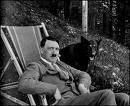












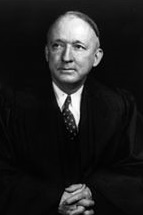





















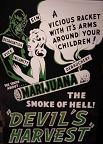




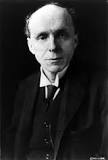












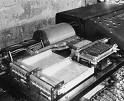





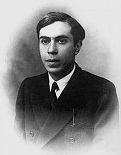

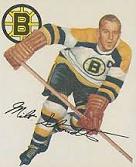
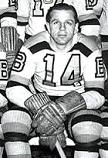








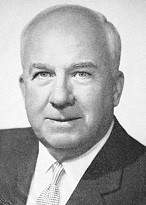




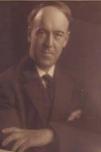




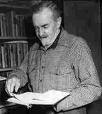






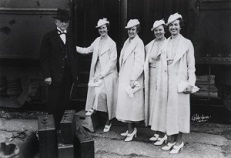
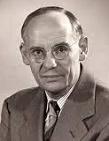




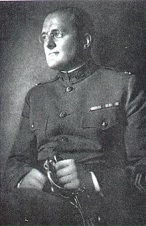
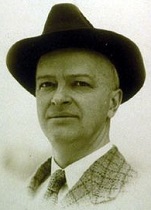







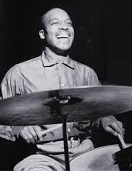



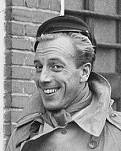
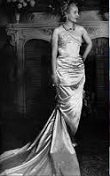











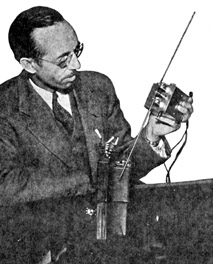

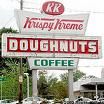
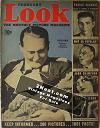
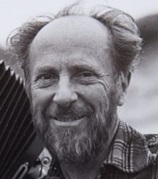
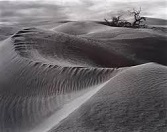
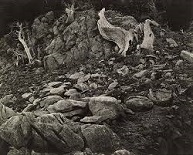
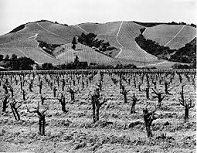
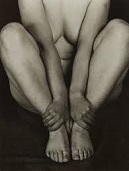
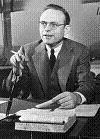






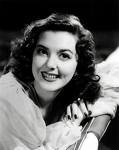


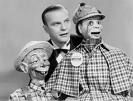
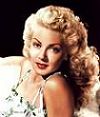



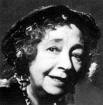
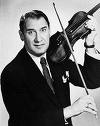
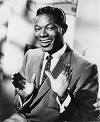


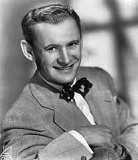
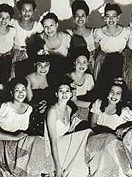


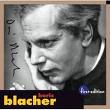



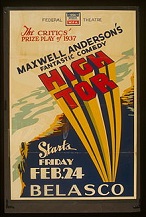
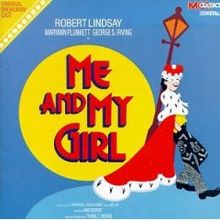

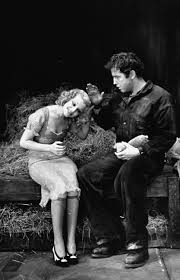
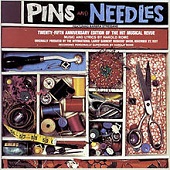
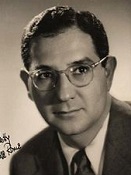



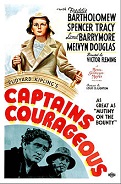
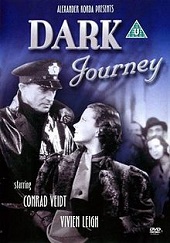
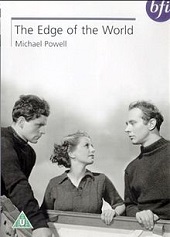
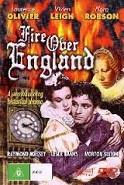





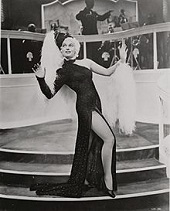


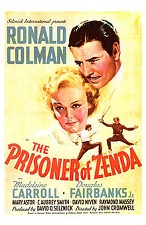
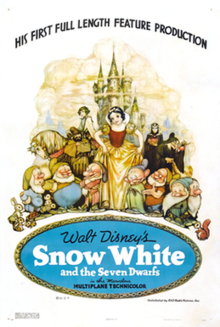

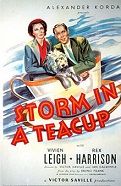


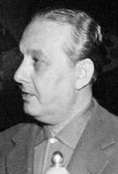
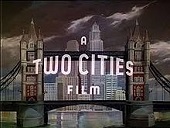
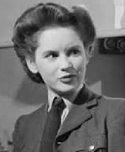
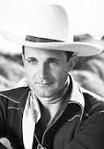
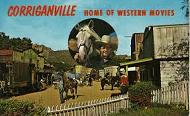
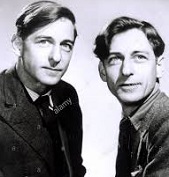

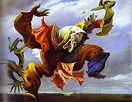






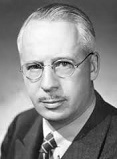
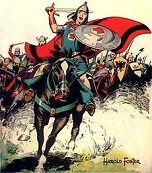



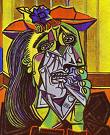

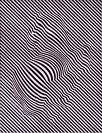
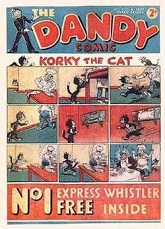
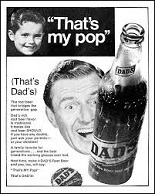
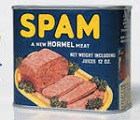


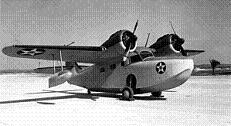







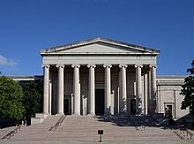

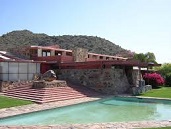
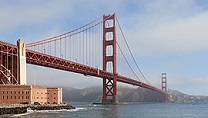
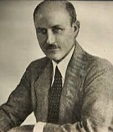
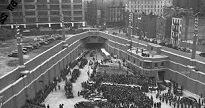

1937 Chinese Year: Ox. Time Man and Woman of the Year: Generalissimo Chiang Kai-shek (1887-1975) and Mme. Chiang Kai-shek (Soong Mei-ling) (1898-2003). By this year the Soviet Union is the largest country in Europe, followed by France; by 1939 Germany passes France and becomes #2; in Jan. a census of the Soviet Union reveals 30M people "missing"; Stalin responds by declaring the census an act of sabotage, and soon the census takers are missing? After the economic growth rate reaches 14% a year, and unemployment falls from a high of 25% in 1933 to 14%, FDR takes the advice of his advisors to move away from Keynesian policies, cutting the budget, reducing deficit spending, and tightening the money supply to stave off inflation, causing the double-dip Roosevelt Recession of 1937-8, erasing all previous gains of the FDR admin. in a few mo. as GDP drops 13%, industrial production drops 33%, wages drop 35%, and 4M lose their jobs; after getting Congress to pass a stimulus bill, the recession reverses within another 3 mo. By this year more than half of all U.S. homes boast a radio. On Jan. 1 Pittsburgh defeats Washington by 21-0 to win the 1937 Rose Bowl. On Jan. 2 Britain and Italy sign an agreement for mutual respect of interests and rights in the Mediterranean and the maintenance of the independence and integrity of Spain; the actual situation isn't affected. On Jan. 3 U.S. Rep. (D-Tex.) (1913-61) Samuel Taliaferro "Mr. Sam" Rayburn (1882-1961) becomes U.S. House majority leader (until Sept. 16, 1940), going on to become U.S. House Speaker for 17 years starting on Sept. 16, 1940 until Jan. 3, 1947, then 1949-53 and 1955-61, becoming known for his "Board of Education" meetings after hours, featuring poker, bourbon whiskey and political wheeling-dealing, where he is fond of saying "I am not for sale", and never takes a bribe, dying with modest means; he coins the term "Sun Belt" when lobbying for Route 66 to connect the "Frost Belt" with it. On Jan. 13 the 105' x 121' x 42' high U.S. Gold Bullion Depository in Ft. Knox, Ky. receives its first shipment of gold, $200M from Philly; by June most U.S. gold is stored there; the visible part is called the attic, and below is a 2-story basement vault with its own roof and guarded by a 20-ton vault door; inside are rows of 27.5 lb. gold bricks; visitors are not allowed without a pres. order, and later only FDR and Truman visit it - Goldfinger, he's the man, the man with the golden touch? On Jan. 19 Japan withdraws from the Washington Conference Treaty which tried in vain to limit the size of its navy. On Jan. 19 Howard Hughes flies his Northrop Gamma Monoplane from Los Angeles, Calif. to Newark, N.J. in 7 hours 28 min. 25 sec. to set a transcontinental air record. On Jan. 20 (1st time ever in Jan.) U.S. pres. #32 Franklin Delano Roosevelt (1882-1945) is inaugurated for a 2nd term in the 44th U.S. Pres. Inauguration; John N. Garner begins a 2nd term as 32nd U.S. vice-pres.; rainiest inauguration (1.77 in.) until ?; FDR's Second Inaugural Address states his modern liberal view of govt., that "the essential democracy of our nation and the safety of our people depend not upon the absence of power, but upon lodging it with those whom the people can change or continue at stated intervals through an honest and free system of elections"; he then decries the existence of poverty in a rich land with the soundbyte "I see one-third of a nation ill-housed, ill-clad, ill-nourished... The test of our progress is not whether we add more to the abundance of those who have much; it is whether we provide enough for those who have too little"; the first pres. inaugural concert is held at Constitutional Hall - Robin Hood in a January suit from Sears? On Jan. 23 Japanese PM Hirota Koki's cabinet falls, and army leaders prevent gen. Ugaki Kazushige (1868-1956) from forming a new one; on Feb. 2 Hayashi Senjuro (1876-1943) forms a cabinet, but on Apr. 30 the gen. election goes against him, and on May 31 he resigns; on June 4 Prince Fumimaro Konoye (Konoe) (1891-1945) becomes PM of Japan (until Jan. 5, 1939), instituting an aggressive nonpartisan war policy, with Hirota Koki as foreign minister. On Jan. 24 Bulgaria and Yugoslavia sign a Treaty of Friendship and Perpetual Peace, bringing an end to their long-standing antagonism. On Jan. 25 the soap opera Guiding Light debuts on NBC Radio (until June 29, 1956), created by Irna Phillips (1901-73); it moves to CBS Radio in 1947, and debuts on CBS-TV on June 30, 1952, becoming the longest-running TV and radio drama, finally ending on Sept. 18, 2009. In Jan. a major revolt in Honduras, led by gen. Justo Umana begins, and is crushed by Feb., with all rebels imprisoned or driven into exile. On Feb. 3-8 the Spanish Nationalist rebels backed by Italy win the Battle of Malaga (Málaga) and occupy it. On Feb. 5 Pres. Roosevelt, furious with the anti-New Deal stance of the Hughes Supreme Court proposes the U.S. Judicial Procedures Reform Bill of 1937, AKA the Court-Packing Plan, increasing the number of justices on the U.S. Supreme Court by up to six, overturning the 1869 U.S. Judiciary Act, explaining it to the public on Mar. 9 in his 9th Fireside Chat; too bad, after critics accuse him of attempting to pack the court, Congress defeats his plan, causing vice-pres. Henry Wallace to say that the plan killed the New Deal, after which justices Hughes and Roberts suddenly flip-flop, letting Rosey Belt have it his way, although Hughes worked behind the scenes to defeat the court-packing effort; meanwhile former NRA head Hugh Samuel Johnson denounces his former boss FDR as a dictator for the scheme, and backs Wendell Willkie in the 1940 pres. election, while fending off accusations of Fascist sympathies and of giving a Fascist salute during an NRA parade (he was framed?); the 1940 election results in 72 new Repub. members of the House and seven new Repub. senators. On Feb. 7 a new French defense plan creates a ministry of defense, extends the Maginot Line, and nationalizes the Schneider-Creusot Armaments Factory; on Feb. 13 French PM Leon Blum announces a "breathing spell" in the Socialist reform program in order to float huge defense loans to capitalists, causing the extreme left to split and spark worker unrest, leading to the Clichy Massacre on Mar. 16. On Feb. 13 Rio de Janeiro-born soprano Balduina "Bidu" de Oliveira Sayao (Bidú Sayăo) (1902-99) (pr. bee-DOO sigh-OWN) makes her debut at the Metropolitan Opera as Manon, replacing Lucrezia Bori, receiving rave reviews, causing her to become a Met star until 1952. On Feb. 13 (Sat.) the comic strip Prince Valiant in the Days of King Arthur by Canadian-Am. cartoonist Harold Rudolf "Hal" Foster (1892-1982) debuts (until 1971), about exiled 5th cent. C.E. Viking prince Edward, Duke of Windsor in the days of King Arthur, who wields the Singing Sword Flamberge (sister to Arthur's Excalibur), gets a seat at the Round Table, meets his babe Ilene on a Mediterranean island, fights the Huns, travels to Africa and America, and helps his father overthrow tyrant Sligon to regain his lost throne of Thule; it goes on to become known as the "greatest contribution to English literature in the past hundred years", with elaborate realistic artwork, references to historical events, and cool dialog, reaching 300 U.S. newspapers and 4K episodes by 2016; strip #16 is the first full-page strip, which ends with strip #1787 (last drawn by Foster), going to half-page format; on Feb. 13, 1937 it goes color; on May 15, 1938 it changes from Sat. to Sun. with strip #66. On Feb. 18 Agriarian Party leader (former PM) Kyosti (Kyösti) Kallio (1873-1940) is elected pres. #4 of Finland with the support of the Social Dems., and sworn-in on Mar. 1 (until Dec. 19, 1940). In Feb. Am. historian Herbert Eugene Bolton (1870-1953) stinks himself up by authenticating Drake's Plates of Brass, allegedly placed by Sir Francis Drake in N Calif. on his arrival in 1579, which turn out to be fakes. On Mar. 4 the Ninth (9th) Academy Awards awards the best picture Oscar for 1936 to MGM's The Great Ziegfeld, along with best actress to Luise Rainer; best actor goes to Paul Muni for The Story of Louis Pasteur; best supporting actor (1st time awarded) goes to Walter Brennan for Come and Get It, best supporting actress (1st time awarded) goes to Gale Sondergard for Anthony Adverse, and best dir. goes to Frank Capra for Mr. Deeds Goes to Town. On Mar. 11 the non-profit Pioneer Fund is founded in the U.S. "to advance the scientific study of heredity and human differences", i.e., white supremacist scientific racism and eugenics, going on to fund the journal Mankind Quarterly (founded in 1960) and the 1994 book "The Bell Curve"; wealthy founder and de facto dir. #1 (until 1972) is Wickliffe Preston Draper (1891-1972), who visited Nazi Germany in 1935 and met with their eugenicists, inspiring the Nuremberg Laws; he goes on to oppose the U.S. civil rights movement and Brown v. Board of Education, making large donations to stop them; pres. #1 (until 1941) is Oskaloosa, Iowa-born eugenicist Harry Hamilton Laughlin (1880-1943), who does research to develop techniques to identify "passing for white" people in the Am. South, writing the soundbyte to the Nazis that they share "a common understanding of... the practical application" of eugenic principles to "racial endowments and... racial health." On Mar. 14 Pope Pius XI issues the encyclical Mit Brennender Sorge (with burning sorrow), condemning Nazi doctrines in veiled language - the curse of the wererabbit? On Mar. 18 an explosion in New London, Tex. destroys a schoolhouse, killing 400+, mostly children. On Mar. 19 Pope Pius XI issues the encyclical Divini Redemptoris, with the soundbyte "Since Communism is intrinsically evil, whoever wants to save Christianity and civilization from destruction must refrain from aiding it in the prosecution of any project whatever", becoming an official papal declaration of war against godless Communism. On Mar. 25 Italy and Yugoslavia sign a 5-year Non-Aggression and Neutrality (Belgrade) Pact, recognizing Italian possession of Ethiopia in return for trade concessions, ending their long-standing feud, and positioning Yugoslavia between the French and Italians. On Mar. 28 Edmund Lincoln "Eddie" Anderson (1905-77) debuts on "The Jack Benny Show" as Benny's black valet Rochester van Jones, playing a redcap in Chicago, to whom Benny says "Here you are, redcap. Here's fifty cents", and Anderson replies "This is a dime", to which Benny answers "Look at your script, not your coin." In Mar. Bolivian dictator David Toro Ruilova confiscates the properties of the Standard Oil Co. and creates a state petroleum monopoly along with mining and banking controls, arousing opposition and giving his eager subordinate Lt. Col. German (Germán) Busch Becerra (1904-39) an excuse to oust him on July 14 for "negligence"; after criticizing Toro for deposing an elected presidente, then spending a year flirting with restoring the constitution and nat. assembly, which dares to differ with him, he says what the heck and establishes a dictatorship in Bolivia (until 1939). On Mar. 29 after Pres. Roosevelt's reelection forces the court to depart from its "fortress in public opinion" and begin to bow to him, and Roberts and Evans break and flop (before the announcement of the court-packing plan?), the U.S. Supreme (Hughes) Court rules 5-4 in West Coast Hotel Co. v. Parrish to uphold the constitutionality of min. wage legislation, overturning Adkins v. Children's Hospital (1923) and ending the court's Lochner Era (begun 1905), with the soundbyte: "It was recognized in the cases cited, as in many others, that freedom of contract is a qualified, and not an absolute, right"; the majority incl. chief justice Charles Evans Hughes, Louis Brandeis, Harlan F. Stone, Owen J. Roberts, and Benjamin Cardozo; the minority incl. George Sutherland, Willis Van Devanter, James C. McReynolds, and Pierce Butler. In the spring Aussie Hollywood actor Errol Leslie Flynn (1909-59) goes as a journalist with Photoplay to Spain with Jewish-Am. photographer Herman Irvin to cover the Spanish-Am. War, getting him accused posth. in the 1970s of being a Nazi spy because Herman was. FDR's court-stacking program reaches critical mass? On Apr. 12 the U.S. Supreme (Hughes) Court rules 5-4 to flip-flop on New Deal legislation, upholding the radical 1935 U.S. Nat. Labor Relations (Wagner) Act in National Labor Relations Board v. Jones & Laughlin Steel Corp; on May 24 the court rules 8-1 in Steward Machine Co. v. Davis to uphold the unemployment compensation provisions of the 1935 U.S. Social Security Act despite the states having to surrender their quasi-sovereign existence under the 10th Amendment; it also rules in favor of a minimum wage law for women; between this year and 1941 all four of the remaining conservative justices retire, as well as liberals Benjamin Cardozo (dies 1938) and Louis Brandeis (1939), permitting FDR to stack the court permanently with six new liberal justices. On Apr. 13 British aircraft carrier HMS Ark Royal is launched. On Apr. 13 U.S. Organ Pipe Cactus Nat. Monument in Pima County, Ariz. is established by Congress; it shares its S border with the Mexican state of Sonora; the N entrance is the town of Why, Ariz.; the S entrance is the town of Lukeville, Ariz. On Apr. 22 Violet Norton of Essex, England takes actor Clark Gable to court, claiming he is really chicken farmer Frank Billings, the father of her daughter, born in Sept. 1922; after MGM moves in to cover for him, she is indicted for using the U.S. mails to defraud, and after producing a photo for the jury that doesn't look much like him, she is convicted. On Apr. 26, 1937 the German Luftwaffe and Italian air force bomb the sacred Spanish Basque city of Guernica at Gen. Franco's request, killing 400-1.6K civilians, pissing-off Pablo Picasso, who in June produces the painting Guernica, which immortalizes it in a mural for the Spanish exhibit at the 1939 Paris World Exhibition. On Apr. 26 Life mag. pub. the Leghorn Rooster Issue without the red-white "LIFE" logo, containing a b&w close-up photo of a rooster. On Apr. 27 after former asst. secy. of labor (1934-5) Arthur Joseph Altmeyer (1891-1972) becomes chmn. of the U.S. Social Security Board (until 1953), the first Social Security checks are distributed in the U.S. - and the price of everything goes up? On May 3-8 Barcelona May Days sees factions of the repub. side incl. the Communist Party of Spain and the Comintern-affiliated Unified Socialist Party of Catalonia fight each other in the streets, with Joseph Stalin attempting to engineer a coup against the anarchists and replace "Spanish Lenin" Largo Caballero with Social Dem. finance minister Juan Negrin, who promises to eliminate non-Comintern Marxists and end Catalan autonomy, causing Caballero's govt. to fall and its four anarchist ministers to exit; on May 17 Manuel Azana appoints Socialist finance minister (former physiology prof.) Juan Negrin y Lopez (Negrín y López) (1892-1956) as PM #67 of Spain (until Apr. 1, 1939) in an attempt to move toward the center as WWII looms, becoming the last Loyalist PM of Spain; too bad, Negrin is forced into Stalin's arms to fight the anarchist wing. 5-6-37-boom? On May 6 (Thur.) the 830-ft. hydrogen-filled German Zeppelin LZ 129 Hindenburg (call sign DEKKA), commanded by Ernst August Lehmann (b. 1886) explodes and burns as it approaches its mooring tower at the Lakehurst, N.J. Naval Air Station, killing 13 passengers and 22 crew out of 36 passengers and 61 crew aboard, plus a Navy crewman on the ground, Lehmann uttering the deathbed soundbyte "It must have been an infernal machine"; Herbert O. "Herb" Morrison (1905-89) of Chicago's WLS radio gives the first recorded eyewitness news broadcast as he describes the disaster ("It's burning, bursting into flames") and breaks down in tears; the ship made 10 passenger-carrying round trips in 1936, and this is the first and last crossing of 1937; the U.S. monopily refused to sell helium to the Germans, forcing them to use hydrogen, and therefore it's a conspiracy, as dirigible development virtually ends in favor of more expensive, fuel-wasting and lucrative powered aircraft, produced in the U.S.? - fuel prices finally get so high that dirigibles make a comeback in ? On May 8 the Montreux Conference (begun 1936) concludes, formally phasing-out the Egyptian Capitulations over the next 20 years and the Mixed Tribunals over the next 12 years. On May 12 the Coronation of George VI and Queen Elizabeth is broadcast worldwide, becoming the first worldwide radio broadcast heard in the U.S., and a big V for Technicolor; BBC-TV covers the procession following the coronation, becoming the first use of TV outside a broadcast van; on June 21 it broadcasts the Wimbledon Tennis Championships for the first time; on Sept. 16 it makes the world's first live TV broadcast of a soccer match, between Arsenal and Arsenal Reserves. On May 13 five U.S. war cemeteries are dedicated in France, incl. Aisne-Marne (at Belleau), Flanders Fields (Waregem), Meuse-Argonne (Romagne), Oise-Aisne (Fere-en-Tardenois), Somme (Bony), and St. Mihiel (Thiaucourt); in Aug. another is dedicated at Brookwood in Britain. On May 14-June 15 the Imperial Conference is held in London. On May 20 Amelia Earhart (b. 1897) leaves Oakland, Calif. on a round-the-world airplane trip in a twin-engine Lockheed Electra, and wanting to make like a Soviet census figure, she disappears with partner Frederick Joseph "Fred Noonan (b. 1893) after taking off from Lae, New Guinea on July 2 on a 2,550-mi. leg headed for 2 mi. x .5 mi. Howland Island (last stop before Hawaii); on takeoff her radio antenna rips off, so she can transmit but not receive; Coast Guard cutter USS Inca II (launched 1911) has the last communication with her on July 3; USS Itasca sets off in a fruitless search for them, along with the USS Colorado; Howland Lighthouse on Howland Island is erected in memory of her; possible remains are later found on Gardner Island; she was really captured by the Japanese in the Marshall Islands 700 mi. from Howland Island, as proved by a photo discovered in the U.S. Nat. Archives in July 2017?; in Mar. 2018 bones found on Nikumaroro Island are identified as hers by Richard Jantz of the U. of Tenn. - makes a good-looking corpse? On May 25-Nov. 25 the 1937 Paris Exhibition (Exposition Internationale des Artes et Techniques dans la Vie Moderne) features the pavilions of the Soviet Union and Nazi Germany facing each other. On May 26 the Battle of the Overpass at the Ford River Rouge plant brings United Auto Workers (UAW) pres. Walter Philip Reuther (1907-70) into the nat. spotlight - like a flaming zeppelin? On May 28 68-y.-o. Conservative chancellor of the exchequer (1923-4) and health minister (1931) Neville Chamberlain (1869-1940) becomes British PM (until May 10, 1940) after 70-y.-o. PM (since June 7, 1935) Stanley Baldwin (b. 1867) retires, beginning his policy of trying to save lives, er, peaceful coexistence, er, appeasement; Baldwin is made 1st Earl of Bewdley, and later confesses his failure to inform the British people of the preparations the Germans were making for WWII; Winston Churchill later utters the soundbyte "An appeaser is one who feeds a crocodile hoping it will eat him last" - just what the position needs, the freshness of youth? On May 28 Conservative transport minister (since June 29, 1934) Leslie Hore-Belisha (1893-1957) replaces Alfred Duff Cooper as U.S. secy. of state for war, pissing-off Liberals, and anti-Semites, who claim he's a closet Bolshevik (Horeb-Belisha), esp. when he tries to introduce conscription next year, causing a song to be sung by troops, with the words "Die for Jewish freedom/ As a Briton always dies", after which he is summarily dismissed on Jan. 5, 1940. On May 31 the Repub.-held seaport of Almeria, Spain in E Granada is severely bombarded by five German warships after Loyalist airplanes attack the German warship Deutschland and the Italian warship Barletta - a couple of centuries ago you could have substituted worship for warship? On May 31 Keys Quadruplets Mary, Mona, Roberta, and Leota (born June 4, 1915 in Hollis, Okla.) become the first quads to graduate from college, Baylor U. In May after U.S. Steel and 100+ independent cos. recognize the steelworkers union, grant an 8-hour day and a 44-hour week, along with a 10% pay raise, the Steel Workers Organizing Committee, founded by U.S. Communist Gus Hall (1910-2000) gets the CIO to strike the holdout Little Steel Group incl. Youngstown Sheet and Tube, Inland Steel, and Bethlehem Steel (founded 1857), leading to the Republic Steel Memorial Day Massacre on May 30, where Chicago police fire on steelworkers and their families as they picnic near the South Chicago works of Republic Steel, killing 10 workers and injuring 100+ (along with 22 police), after which the strike collapses. On June 11 the arrest and execution (on June 12) of deputy defense minister Field Marshal (since 1935) Mikhail Nikolaevich Tukhachevsky (1893-1937) is the start of the Stalinist Great Purge (Terror) of the Red Army, AKA the yezhovshchina ("Times of Yezhov"), which axes half of the 80K men in the officer corps incl. chief of the Red Army staff Field Marshal Alexander Ilyich Yegorov (Egorov) (1883-1939) and 14 of 16 army cmdrs.; ex-Trotsky supporter Karl Berngardovich Radek (1885-1939) (ed. of Izvestia) and other political leaders are also put on show trials in the Trial of the Seventeen in Jan. before being axed; Radek lucks out (not) and is given 10 years in priz, serving four before being murdered by the NKVD; one field marshal who survives is Semyon Mikhailovich Budyonny (1883-1973), chief of the cavalry and military cmdr. of Moscow. On June 12-Oct. 31 the Greater Texas and Pan-Am. Exposition is held in Dallas, Tex. On June 19 after the Socialist govt. of Leon Blum in France is drawn to the brink of a civil war over its attempted New Deal reforms and his demands for emergency fiscal powers, his cabinet resigns, followed by Blum, and on June 22 former PM (1930, 1933-4 - a total of 3 mo.), Radical Socialist Camille Chautemps (1885-1963) becomes PM #98, #107, and #115 of France (until Mar. 2, 1930, then Nov. 26, 1933-Jan. 30, 1934, then June 22, 1937-Mar. 13, 1938), with Blum as vice-PM, then the Senate changes its mind, giving the new cabinet the desired powers. On June 23 the nat. railways in Mexico are taken over by the workers. By mid-year Franco's forces have completely occupied NW Spain, and begun to force the loyalists into a triangle from Madrid to Valencia to Catalonia, with Barcelona and Madrid as the main military objectives. On July 1 after making public statements that Nazism is un-Christian doodoo, leading German Protestant pastor Martin Niemoller (Niemöller) (1892-1984) of Berlin-Dahlem is arrested on trumped-up charges of "malicious and provocative criticism" of the regime, sent to Moabit Prison in Berlin, tried next Mar., and found guilty but released by the judges, causing enraged Hitler to order him thrown into Sachsenhausen concentration camp (until 1945) as "my personal prisoner"; 700 of 18K German Evangelical Church pastors are arrested in the coming months to scare them, with most released; Bishop Marahrens is made to issue the statement, "The National Socialist conception of life is the national and political teaching that determines and characterizes German manhood. As such, it is obligatory upon German Christians also." On July 4 an assassination attempt on Portuguese dictator Antonio de Oliveira Salazar en route to say Mass at a friend's house in Lisbon fails to kill him, but he starts driving around in an armor-plated Chrysler Imperial; anarchist Emidio Santana is arrested in Britain and returned to Portugal, then sentenced to 16 years in prison. On July 7 the Nagoya Pan-Pacific Peace Exposition is interrupted by the China (Lugou) (Marco Polo Bridge) Incident, a skirmish between Japanese and Chinese troops at the (Marco Polo Bridge in a Peking suburb (ends July 9), which sparks a Japanese invasion of China, taking Peking on July 29, and attempting to conquer China within 3 mo., going on to seize Tientsin, Shanghai, Nanking and Hangchow; too bad, the Chinese resist, and the invasion ends up dragging out eight years, with the loss of millions of Chinese lives; 300K-400K (40K to 300K?) Chinese are raped, tortured and killed in the 6-week Rape of Nanking (Nanjing) startng on Dec. 13; on Dec. 14 the Japanese change the name of the city back from Peiping to Peking, and make it the capital of Japanese-controlled North China; on Dec. 7, 2005 Japanese foreign minister Taro Aso (1940-) (tear a new asshole? the royal asshole?) finally urges his nation to show "deep remorse" for its actions? (ah, little goo-goo has finally worn himself out, and needs to change his diapies?); Chiang Kai-shek drops hostilities with the Chinese Communists and unites with them against the Japanese invaders; the Chinese govt. flees to Chungking; in-again out-again gen. Feng Yu-Hsiang is appointed CIC of the 3rd War Area against the Japanese - what country is known for its hog bristle brushes? On July 7 after arriving in Palestine last Nov. 11, the British Peel (Palestinian Royal) Commission pub. a report recommending the ending of the Palestine mandate and the division of Palestine into Arab and Jewish states, with Britain maintaining their mandate only over Jerusalem, Bethlehem, and a corridor to the sea; the Arabs reject it, and the British Parliament refuses to implement it, and rioting continues until 1939; at this time it is the Jews not Arabs who are called Palestinians; David Ben-Gurion later writes: "Had partition been carried out, the history of our people would have been different and six million Jews in Europe would not have been killed - most of them would be in Israel." On July 13 after Vernon Carver Rudolph (1915-73) buys a doughnut shop in Paduka, Ky. along with the French chef owner's secret receipt for yeast-raised doughnuts, he founds Krispy Kreme Doughnuts in Winston-Salem, N.C. across from Salem College and Academy, at first selling them to grocery stores, then cutting a hole in the wall to sell them to customers, expanding to 1K shops by 2015. On July 22 the U.S. Senate rejects Pres. Roosevelt's proposal to add more justices to the Supreme Court to pack it his way. On July 23 the Matrimonial Causes Bill (Herbert Act), proposed by British MP Sir Alan Patrick Herbert (1890-1971) is passed, facilitating divorce proceedings in England and Wales by allowing divorce without need for proof of adultery. On July 29 King Farouk I of Egypt receives ruling powers. In July the Kurds in NE Syria begin a revolt against the Syrian govt., demanding political autonomy and special legal status; it is quashed by Sept. In July 800 troops of the Kuomintang Chinese 29th Army under Gen. Song Zheyuan camp outside the walls of Tongzhou, making a secret deal with Yin Ju-keng and defeating the Japanese, after which East Hopei troops massacre the town's Japanese pop., ending the East Hebei Autonomous Council (begun Nov. 1935); Yin is captured by the Japanese and spared from execution after the intervention of Toyama Mitsuru, then allowed to return to Beijing and given a minor govt. post in Shanxi Province by the nationalist govt., then arrested by the Red Chinese and executed for treason in Nanjing on Dec. 1, 1947. On Aug. 1 Buchenwald Concentration Camp in Weimar, Germany opens; 240K prisoners come through between 1937-45, and 56K die; 13K are transferred to Auschwitz and other extermination camps. On Aug. 2 after dubious hearing process, the U.S. Marihuana Tax Act is passed, effective Oct. 1, opening the way for full criminizalization of marijuana; the bill is designed to destroy the hemp industry (paper, rope, cloth) to make way for the tree-based paper industry of Andrew Mellon, the Du Pont family, and newspaperman William Randolph Hearst (1863-1951), who runs lurid stories of brown-skinned Mexicans using marijuana to lower the morals of our white wimmen, etc. - we're worth it? On Aug. 10 El Salvador withdraws from the League of Nations. On Aug. 12 Kurdish Iraqi dictator Gen. Bakr Sidqi (b. 1890) is assassinated in Mosul after his nationalist military officers withdraw support. On Aug. 13 the Soviets forge Japanese invasion plans to announce the stationing of troops along the S and SE frontiers of Mongolia to support China in its war with Japan; on Aug. 24 Soviet deputy defense minister Pyotr Smirnov arrives to oversee the transfer of the Soviet 17th Army. On Aug. 16 the Am. Federation of Television and Radio Artists (AFTRA) is founded in Los Angeles, Calif.; the T is added on Sept. 17, 1952. On Aug. 16-21 the World Congress of Universal Documentation in Paris is attended by delegates from 45 countries, exploring ways to organize and make more accessible the world's knowledge using microfilm; H.G. Wells discusses his idea of the World Brain; "I am speaking of a process of mental organization throughout the world which I believe to be as inevitable as anything can be in human affairs. All the distresses and horrors of the present time are fundamentally intellectual. The world has to pull its mind together, and this is the beginning of its efforts. Civilization is a Phoenix. It perishes in flames and even as it dies it is born again. This synthesis of knowledge upon which you are working is the necessary beginning of a new world." On Aug. 19 after being nominated by the impatient FDR (first of nine nominees, and last to go except William O. Douglas) on Aug. 12 to fill the vacancy left by retiring William Van Devanter (Dec. 6, 1910 - June 2), and becoming the first nominee to be referred to the Judiciary Committee, which approves him on Aug. 16 by 13-4, then confirmed by the Senate on Aug. 17 by 63-16 (10 Repub. and 6 Dem. no votes), liberal pro-New Deal U.S. Sen. (D-Ala.) (since Mar. 4, 1927) Hugo Lafayette Black (1886-1971) becomes U.S. Supreme Court justice #76 (until Sept. 18, 1971), slimming the conservative majority to 5-4; in Sept. it is revealed by the Pittsburgh Post-Gazette that Black was once a member of the KKK, and given a "gold passport" after winning the 1926 Dem. Ala. Senate primary, uttering the soundbyte "Without the support of the members of this organization I would not have been called, even by my enemies, the Junior Senator from Alabama", causing a nat. uproar; Black goes on to become a literalist reader of the U.S. Constitution, while believing in the Theory of Incorporation, that the 14th Amendment causes the Bill of Rights to be imposed on the states; limited govt. champ Devanter resigned after Congress voted full pay for justices over 70, but is suspected of being forced out by FDR. In Aug. British prince George Edward Alexander Edmund, Duke of Kent (1902-42), husband since Nov. 29, 1934 of his 2nd cousin Princess Marina of Greece-Denmark (daughter of Prince Nicholas), known for his numerous affairs with both sexes and drug addictions visits Poland with a plan to become king of Poland a la the Greek plan; although he is well received, Hitler has other plans and it falls through after the Nazi invasion. On Sept. 14 Czech.'s first pres. Tomas Masaryk (b. 1850) dies; on Oct. 16 a meeting of the Sudetendeutsch Party is broken up by police, causing Konrad Henlein to call for complete autonomy for Germans. On Sept. 21 two bldgs. owned by the Comite des Forges (Ironmasters Assoc.) are blown up, and on Nov. 18 a royalist fascist-leaning anti-Communist plot against the French Third Repub. by the Cagoule (The Hood) is uncovered, along with fortified dugouts, weapons, and munitions; Eugene Schueller (1881-1957), founder of French cosmetics firm L'Oreal is a founder. In Sept. leftist strikes erupt in France, and again in Dec. On Oct. 5 Pres. Roosevelt calls for aggressor nations to be "quarantined". On Oct. 6-10 the New York Yankees (AL) defeat the New York Giants (NL) 4-1 to win the Thirty-Fourth (34th) World Series; St. Louis Cardinals left fielder Joseph Michael "Joe" "Ducky" Medwick (1911-75) (known for his waddle) becomes the 7th player to win baseball's triple crown (#6 is Lou Gehrig in 1934), and the last NL player to win until ?. On Oct. 13 Germany sends a Note to Brussels guaranteeing Belgium's inviolability and integrity as long as it abstains from military action against it - but do you understand the Second Touch? On Oct. 24 Paul Van Zeeland resigns after charges of corruption regarding the Belgian Nat. Bank, and a new coalition govt. in Belgium is formed by Liberal Paul-Emile Janson (1872-1944), son of liberal statesman Paul Janson (1840-1913) (until 1938). On Oct. 27 Saudi king Ibn Saud issues a Statement on Palestine Partition, with the soundbytes: "Our hatred for the Jews dates from Allah's condemnation of them for their persecution and rejection of Isa (Jesus Christ), and their subsequent rejection later of His chosen Prophet. It is beyond our understanding how your Government, representing the first Christian power in the world today, can wish to assist and reward these very same Jews who maltreated your Isa (Jesus)"; "It were far preferable form every point of view if Great Britain were to make Palestine a British Possession and rule it for the next 100 years, rather than to partition it in the way they propose: such partition cannot possibly solve the difficulty but must only perpetuate it and lead to war and misery"; "Today I am the Imam or Spiritual Leader as well as the Temporal Ruler of the greater part of Arabia. I also have not a little influence in all the great Muslim countries of the world"; "Verily the word of Allah teaches us, and we implicitly believe this, that for a Muslim to kill a Jew, or for him to be killed by a Jew ensures him an immediate entry into Heaven and into the august presence of Allah. What more then can a Muslim want in this hard world, and that is what my people are repeatedly reminding me of?"; "The main thing at all costs is to prevent the Jews from having an independent state of their own sliced out of Arab territory with no one to guide their future acts and policy. For from such will come a perpetual struggle with the Arabs living round them." In Oct. Franco's nationalists take the port of Gijon (Gijón) in NW Spain, causing the Spanish royalist govt. to flee to Barcelona, while Franco begins a naval blockade. On Nov. 1 the Mexican govt. nationalizes the subsoil rights of Standard Oil and other oil cos.; after the Industrial Arbitration Board rules in favor of the workers, the oil cos. appeal to the Mexican Supreme Court, and lose. On Nov. 2 Compania Cervecera de Puerto Rico is founded in Mayaguez, Puerto Rico ("City of the Pure Waters") by Alfonso Valdes Cobian (Alfonso Valdés Cobián) (1890-1988) and his brothers Ramon Valdes Cobian (Ramón Valdés Cobián) and Sabino, introducing Cerveza India in 1938 and renaming the brewery to Cerveceria India, going on to become the biggest brewery in Puerto Rico; in 1982 it introduces Medalla Light; in Oct. 2009 it reverts to the original co. name. On Nov. 5 the Hossbach Memorandum revealing Hitler's big plans to acquire Lebensraum (living space) for the German Volk by playing Caesar is produced at a secret conference in the Reich Chancellery attended by Hitler, war minister Werner von Blomberg, Army CIC Werner von Fritsch, Navy CIC Erich Rader, Luftwaffe CIC Hermann Goering, and foreign minister Constantin von Neurath; Hitler's adjutant (since 1934) Col. (later gen.) Friedrich Wilhelm Ludwig Hossbach (1894-1980) takes the minutes, after which Hitler claims that if something happens to him it is to be treated as his last will and testament; the cavalier way he toys with world war shocks Blomberg, Fritsch, and Neurath, who begins suffering heart problems and asks to be relieved from his post, while Hitler gets rid of the other two within 3 mo., and takes control of the army, with nobody able to stop him, even though he continues to proclaim a desire for peace in public; after the war the memorandum is a big piece of evidence against Goering. On Nov. 6 Italy and Japan sign an anti-Comintern pact. On Nov. 14 Czech elections are postponed and political meetings forbidden; on Nov. 29 Sudetendeutsch reps leave parliament. On Nov. 17 British Cabinet member (Conservative leader of the House of Lords since 1935) Lord Halifax visits Hitler at his Wachenfeld Palace near Berchtesgaden (on Mt. Watzmann in Upper Bavaria 10 mi. S of Salzburg), and returns deeply impressed by the twerp, er, Herr Hitler and his Third Reich? On Nov. 25 Germany and Japan sign a pact. In Nov. Algerian nationalist Ahmed Messali Hadj (1898-1974) founds the Algerian's People's Party (PPA); too bad, he is tried for agitation and imprisoned for several years. On Dec. 4 the British comic book The Dandy, starring Desperate Dan, a cowboy from Cactusville who loves cow pie cooked in a dustbin lid, and pub. by DC Thomson & Co. of Dundee, U.K. debuts, reaching 2M circ. a week in the 1950s eventually becoming the longest-running comic book series (ends Dec. 4, 2012). On Dec. 5 the loyalists in Spain begin a counteroffensive against Franco and his nationalists, and on Dec. 17 they capture the stronghold of Teruel. On Dec. 7 Switzerland recognizes Romansch as a 4th nat. (non-official) language to stop Italian plots in some of the cantons. On Dec. 11 Italy withdraws from the League of Nations. On Dec. 12 Japanese planes sink 450-ton U.S. gunboat USS Panay, commanded by Lt. Cmdr. James J. Hughes on the Yangtze River in China, killing one sailor; Japan later apologizes and pays $2.2M in reparations. On Dec. 14 a German decree states that gypsies are "inveterate criminals". On Dec. 16 the U.S. Supreme (Hughes) Court rules 8-1 in Palko v. Conn. that they won't reverse a conviction for murder based on the Double Jeopardy Clause of the Fifth Amendment as applied through the Due Process Clause of the 14th Amendment because it is not "essential to a fundamental scheme of ordered liberty", and the court will use the Selective Incorporation approach of gradually forcing the Bill of Rights onto the states as appropriate cases arise; the court reverses itself in Benton v. Md. (1969). On Dec. 17 Am. ventriloquist Edgar Bergen (1903-78) and his wooden puppet Charlie McCarthy (wearing top hat, cape and monocle) debut on U.S. radio (until July 1, 1956), later featuring Mortimer Snerd and Effie Klinker; although Charlie can get away with jokes with sexual double-entendres, Mae West is banned from radio for 15 years for uttering the line "Charlie, I remember our date and have the splinters to prove it" - it's easy to be a ventriloquist on radio? On Dec. 26 the Palestine Philharmonic Orchestra in Tel Aviv, founded by Polish Jewish violinist Bronislaw Huberman (1892-1947) gives its first perf. under conductor (a former fascist who leaves Italy in 1938 after being roughed-up by blackshirts) Arturo Toscanini (1867-1957); the Israeli Philharmonic Orchestra is founded in 1948. On Dec. 28 rabid anti-Semitic poet Octavian Goga (1881-1938) becomes PM of ga-ga Romania (until Feb. 10, 1938) despite his Nat. Christian Party only receiving 10% of the vote, and he immediately begins an orgy of anti-Semitic legislation while striving to set himself up as a dictator, competing with the Iron Guard with his Lancieri (Lance-Bearers), and resigning after 6 weeks (Feb. 10, 1938). On Dec. 29 New York City-born Eamon de Valera (George de Valero) (Edward de Valra) (1882-1975) becomes PM #2 of Ireland (until Feb. 18, 1948) as the new constitution comes into effect, declaring Ulster to be part of the new state of Eire (Repub. of Ireland) (ends Apr. 18, 1949), which cuts all connections with the British Commonwealth except for retaining Irish envoys; it proclaims a 1937 Irish Constitution, creating a bicameral nat. legislature called the Oireachtas, composed of the Dail Eireann (lower house) and Seanad Eireann (senaate), headed by the Taoiseach (pr. TEE-shock) (PM), nominated by the lower house and appointed by the pres. (7-year term, direct election), who heads a cabinet of 7-15 members. On Dec. 29 King Farouk I dismisses PM Mustafa al-Nahhas, and replaces him with wealthy landowning puppet Muhammad Mahmud (1877-1941) (until Aug. 18, 1939). In Dec. French foreign minister Yvon Delbos (1885-1956) embarks on an extended visit to France's eastern allies, but fails to find much support in opposing Germany - wink 'em, blink 'em, bat 'em up? In Dec. British actress Muriel Lilian Pavlow (1921-) plays Gretel in a BBC-TV production of "Hansel and Gretel", becoming the first known appearance on TV by a living person. Aden in S Yemen (ruled by Britain since 1839 as part of India) becomes a British crown colony; after the Suez Canal is closed in 1956, it becomes the main British base in the region. Burma becomes a self-governing protectorate of Britain; the 700-mi. Burma Road (finished 1938) between Lashio (Myanmar), Burma and Kunming, China is built by 160K Burmese and Chinese laborers to help fight Japan; after supplies arrive at Kunming, they go through the 24 Turns to the provisional capital of Chongquing before servicing front-line troops. Poland refuses to sign an agreement to return Danzig to Germany; meanwhile Swiss diplomat Carl Jacob Burckhardt (1891-1974) becomes the last League of Nations high commissioner for the free city of Danzig (until 1939), working to fight off the Nazi threat in vain, returning to Geneva in 1939-45, after which he becomes pres. of the Internat. Red Cross in 1945-8, becoming known for keeping its strict neutrality and calling Nazism a lesser evil than Communism. Amnesty is declared for illegal Austrian Nazis. The All-India Congress Party wins the elections; Bombay (state) becomes an autonomous province. FDR appoints Knoxville, Tenn.-born Harvard Law School grad William Henry Hastie Jr. (1904-76) to the U.S. District Court in the U.S. Virgin Islands (until 1939), making him the first African-Am. U.S. federal judge; in 1946 Pres. Truman appoints him gov. of the U.S. Virgin Islands (until 1949), another first; in 1962 JFK passes him over for very white Byron White for being too conservative. Mussolini vists Libya and Berlin. Mussolini and Schuschnigg meet in Venice. Britain signs naval agreements with Germany and the Soviet Union. Iceland's Althing announces that it will not seek renewal of the treaty binding it with Denmark. Switzerland signs an agreement with the engineering and metalworking industries, causing strikes to virtually stop. The Soviets start a crackdown on Tibetan Buddhism among the Mongols (ends 1939). The Zionist Haganah terrorist org. begins terrorist activities in Palestine, starting with attacks on Palestinian buses that kill 24 and injure 25 by 1939, followed in 1939 by blowing up an Iraqi oil pipeline near Haifa. The well-laid Duke of Windsor (former King Edward VIII) meets Adolf Hitler during a tour of Germany, prompting accusations that he is pro-Nazi - English, American, German, he doesn't know what he is? Lewis Ltd. signs the first comprehensive wage agreement in Britain. The Brotherhood of Sleeping Car Porters is accepted by the Pullman Co., becoming the first black union in the U.S. - don't want them to spit in your food, do ya? Queens College at the City Univ. of New York (CUNY) is founded in Queens, N.Y., becoming one of 23 of its institutions of higher learning. Guilford County, N.C.-born journalist Edward Roscoe Murrow (1908-65) becomes head of the Columbia Broadcasting System (CBS) European Bureau, going on to gain fame for his London broadcasts during WWII and setting high journalistic standards that later generations throw in the dust bin? Look mag. begins pub. with the Feb. issue (705K copies), founded by liberal Repub. Gardner "Mike" Cowles Jr. (1903-85); it starts out monthly and switches to biweekly with the May 11 issue; circ. peaks out at 7.75M in 1969, then ceases pub. with the Oct. 19, 1971 issue (circ. 6.5M). Ahmad Mahir Pasha (1888-1945) and Mahmud (Mahmoud) Fahmi al-Nuqrashi (Fahmy Nokrashy) (1888-1948) split from the Wafdist Party in Egypt and form the hardline Sa'dist (Saadist) Party over discontent with the 1936 Anglo-Egyptian Treaty. Dad's Root Beer is introduced in Chicago, Ill. by Baney Berns and Ely Klapman, named after Ely's dad's formulas, becoming known for its creamy texture and foamy head that goes great with popcorn, after which Ely's son Jules Klapman (1914-2002) takes the brand international. The U.S. Congress creates the Nat. Cancer Inst., the first of over 20 Nat. Insts. of Health (NIH) institutes focusing on specific disease categories. Mannheim, Baden-born good Nazi (since 1931) Berthold Konrad Hermann Albert Speer (1905-81) becomes Hitler's chief architect, "the first architect of the Third Reich", making grand plans to reconstruct Berlin on a colossal scale, with huge Roman-style bldgs., wide blvds., and a new transportation system; in Feb. 1942 he is appointed Reich minister of armaments and war production, performing miracles to keep the Nazi war machine going until the first sustained Allied bombing in summer 1943; too bad, by 1945 Hitler loses the war and Berlin is bombed into rubble, and Speer is sentenced to 20 years in prison for using forced labor. Gen. Franco organizes the Falangista Espanola (Spanish Fascists) and the Carlists (Requetes) (Requetés) into the Falange Espanola Tradicionalista y de la Juntas de Ofensiva Nacional Sindicalistas. Sunni Prince Rashed Al Khuzai (1850-1957) launches the Rev. of Ajloun against British colonialism, which he continues until his death. The first illegal heroin labs in Marseille, France are set up by Corsican gang leader Paul Bonnaventure Carbone (1894-1943), whose network starts out with morphine paste from Turkey, and evolves after WWII into the French Connection, smuggling heroin from Turkey to France then the U.S., peaking in the late 1960s and supplying the majority of U.S. heroin until it it shut down in 1972. Sewell Avery (1874-1960), pres. of Montgomery Ward and U.S. Gypsum, and former dir. of U.S. Steel founds the Church League of Am. to oppose the New Deal and spy on unionists and subversives for employers, promoting Protestant theories linking Communism with Satan and the Antichrist. William Richard Morris, 1st Viscount Nuffield (1877-1963), founder of the Morris Motor Co. founds Nuffield College in Oxford. Italian psychiatrist Ferdinando Cazzamalli (1887-1958) et al. found the Italian Society of Metaphysics (SIM), the first Italian society to study the paranormal, using a Faraday Cage to claim that paranormal phenomena are real; in 1955 it becomes the Italian Society of Parapsychology; Cazzamalli splits and founds the Italian Associated Scientists of Metaphysics. Billy Rose constructs the Casa Manana dinner theater at the Ft. Worth Frontier Days Fair, featuring stripper Sally Rand on the world's largest revolving stage. Young Ray Charles (1930-2004) enters the St. Augustine School for the Deaf and Blind in Fla. (ends 1945). Famed "cowboy poet" Charles Badger Clark Jr. (1888-1957) (old friend of Mark Twain) is named the first poet laureate of S.D., calling himself "poet lariat". Pepperdine U. in Malibu, Calif. is founded on Sept. 21 by Western Auto Supply Co. magnate George Pepperdine and affiliated with the Churches of Christ; its sports team name is the Waves. Winston Jones and J.H. Beaumong of the U. of Hawaii successfully graft macadamias, permitting mass production, causing a large macadamia planation to be established in Hawaii in 1946, and Castle & Cooke (founded 1851) to begin offering Royal Hawaaian brand macadamia nuts in 1953. Simone Weil (1909-43), brother of mathematician Andre Weil, born in an agnostic Jewish household experiences a religious ecstasy in the same church in which St. Francis of Assisi prayed, going on to become an unbaptized Roman Catholic while flirting with all the other religions, ending up dying prematurely from TB after refusing to eat less than people in occupied France eat, and leaving all kinds of notebooks that later turn religious seekers on. The zipper beats the button in the "Battle of the Fly" in U.S. fashion. Tsarskoye Selo (Celo) (Tsar's Village) in Leningrad (home of the Summer Palace) is renamed in honor of poet Alexander Pushkin. Ivan Dmitrievich Papanin (1894-1986) commands the Soviet Union's first ice floe station (ends 1938). German existentialist philosopher Karl T. Jaspers (1883-1969) emigrates to Switzerland after being dismissed from the U. of Heidelberg for refusing to give up his Jewish wife, and his works are banned. Duke U. psychic researcher Joseph Banks Rhine (1895-1980) founds the Journal of Parapsychology in Apr. 116-acre Pipestone Nat. Monument in Minn. is established, containing red quarries of red pipestone (for Indian peace pipes), and once used as the setting for Henry Wadsworth Longfellow's "Hiawatha". Charter Film Productions is founded in England by twin brothers John Edward Boulting (1913-85) and Roy Alfred Clarence Boulting (1913-2001), going on to produce "Brighton Rock" (1947), "Seven Days to Noon" (1950), "Private's Progress" (1956), "Lucky Jim" (1957) and "I'm All Right Jack" (1959), recycling actors Richard Attenborough, Ian Carmichael, Terry-Thomas, Dennis Price, John Le Mesurier, Irene Handl, and Miles Malleson. Nicholas Murray Butler becomes chmn. of the Carnegie Corp. (until 1945). Nat King Cole (Nathaniel Adams Coles) (1919-65) forms the Nat King Cole Trio in Los Angeles, Calif., incl. Oscar Moore (1916-81) on guitar, and Wesley Prince on double bass; they are tipped three nickels (once each) when he sings "Sweet Lorraine" for a customer. The all-teenie swing-jazz band Internat. Sweethearts of Rhythm is formed at Piney Woods Country Life School in Miss., going on to relocate to Arlington, Va. and recruit adult Asian, Black, Caucasian, Indian, Latina, and Puerto Rican members, becoming the first integrated all-women's band in the U.S., going on to play at the Apollo Theatre in Harlem, N.Y., the Regal Theatre in Chicago, Ill., the Cotton Club in Cincinnati, Ohio et al. before touring U.S. troops in Europe in 1945, becoming the first black women to travel with the USO. Louis Edward "Lou" Walters (1894-1977) (father of Barbara Walters) opens the Latin Quarter, a chain of nightclubs in Boston, Mass. with ooh-la-la Vegas-like shows before there is a Vegas. William Fisk Harrah (1911-78) opens his first Harrah's Club Bingo in Reno, Nev. on Oct. 30, going on to build a gaming empire and influence the creation of the Nev. Gaming Control Board in 1955, inviting black entertainers and hiring blacks and women as dealers and employees. Romanian-born George Enescu (1881-1955) becomes conductor of the New York Philharmonic (until 1938). Herbert von Karajan (1908-89) becomes conductor of the Berlin Philharmonic, going on to be appointed dir. for life in 1955. Am. baritone Robert Weede (1903-7) makes his Metropolitan Opera debut as Tonio in Ruggero Leoncavallo's 1892 "Pagliacci", going on to become known for his Rigoletto. Self-taught bi French fashion designer Jacques Fath (1912-54) (great-grandson of playwright Georges Fath) debuts his first collection in Paris, going on to design wide fluttering skirts that look sexy on women riding bicycles during WWII, making fans of Ava Gardner, Greta Garbo, Rita Hayworth, and Eva Peron; in 1950 he introduces his Lily Collection, with skirts shaped to resemble flowers, and velvet evening gowns, becoming one of the Big Three of French haute couture along with Christian Dior and Pierre Balmain. English-born Jewish-Am. violin-playing family comedian Henry "Henny" Youngman (1906-98) gets his big break on the Kate Smith radio show, later being called "the King of the One-Liners" by Walter Winchell; his signature line is "Take my wife - please". Joseph Auslander (1897-1965) becomes the first poet laureate of the U.S. (consultant to the Library of Congress) (until 1941). The Jindyworobak ("to annex") Movement is founded by Australian poet Reginald Charles "Rex" Ingamells (1913-55) to promote indigenous Australian ideas and customs in lit. Warner Brothers debuts Porky Pig's girlfriend Petunia Pig in "Porky's Romance". The Daily Telegraph and Morning Post of London merge. After abandoning soft focus pictorialism for highly-detailed photographic images, Highland Park, Ill.-born Edward Henry Weston (1886-1958) becomes the first photographer to win a Guggenheim Fellowship, going on to produce 1.4K 8x10 negatives by 1939, focusing on the trees and rocks in his adopted home of Point Lobos, Calif., and nearby Death Valley, Calif. Joseph Auslander becomes the first U.S. Poet Laureate (Poet Laureate Consultant in Poetry to the Library of Congress) (until 1941), followed by Allen Tate (1943-4), Robert Penn Warren (1944-5), Louise Bogan (1945-6), Karl Shapiro (1946-7), and Robert Lowell (1947-8). Buick and Oldsmobile offer automatic transmissions. Honda Motor Co. (originally Tokai Seiki) is founded by Soichiro Honda (1906-91) to make piston rings, going into the motorcycle business in 1946, incorporating in 1949, and becoming the world's largest motorcycle manufacturer in 1959, the first Japanese manufacturer to produce a luxury car brand (Acura) in 1986, and growing by 2001 to 2nd largest automobile manufacturer in Japan, and 8th largest in the world. MGM buys the rights to "The Little Rascals" from Hal Roach, renaming them "Our Gang". Two Cities Films is founded in London, England and Rome, Italy by Filippo Del Giudice (1891-1962) and Mario Zampi (1903-63), going on to produce "quinessentially English" film classics incl. "French Without Tears" (1939), "In Which We Serve" (1942), "The Gentle Sex" (1943), "The Lamp Still Burns" (1943), "This Happy Breed" (1944), "The Way Ahead" (1944), "Henry V" (1944), "Blithe Spirit" (1945), "The Way to the Stars" (1945), "Men of Two Worlds" (1946), "Odd Man Out" (1947), "Vice Versa" (1948), "Mr. Perrin and Mr. Traill" (1948), "Hamlet" (1948), "Trottie True" (1948), "Madness of the Heart:" (1949), "Prelude to Fame" (1950), "Personal Affair" (1953), and "Trouble in Store" (1953); in 1946 it joins the Rank Org. B-movie Western actor Ray "Crash" Corrigan (Raymond Benard) (1902-76) goes on a hunting trip in Simi Valley, Calif. with Clark Gable, and decides to purchase land in the foothills of the Santa Susana Mts. in E Ventura County, which becomes Corriganville Movie Ranch, an outdoor set for films incl. "Drums of Fu Manchu" (1939) and "Fort Apache" (1948), and TV series incl. "The Lone Ranger" (1949-57), "The Cisco Kid" (1950-6), "The Adventures of Rin Tin Tin" (1954-9), "Sky King" (1951-9), Circus Boy" (1958-60), and "Star Trek" (1966-9); in 1944 he opens it up to paying visitors, reaching 1M attendance a year; in 1966 he sells it to Bob Hope, who turns it into Hopetown. Newark, N.J.-born MIT-educated John Wood Campbell Jr. (1910-71) becomes ed. of Astounding Stories, changing the title next Mar. to Astounding Science-Fiction, launching the Golden Age of Sci-Fi in 1938 (ends 1946), and dominating the field through the 1940s. Pepperidge Farms is founded by Am. homemaker Margaret Rudkin to produce the "Perfect Loaf" of bread made with all-natural stone ground whole wheat for her son who suffers from allergies. Paramount Pictures agrees to purchase a minority interest in DuMont Laboratories, maker of the first commercially successful TV sets; too bad, in 1939 Paramount Pictures opens its own experimental TV stations, KTLA-TV (Ch. 5) in Los Angeles, Calif. and WBKB-TV (Ch. 4) in Chicago, Ill., effectively controlling DuMont while while holding it back, dropping financial support in 1941 after investing $400K, with the FCC counting these stations as part of DuMont Network, preventing it from acquiring two of its own; in 1949 Paramount launches the Paramount TV Network to undercut it; it folds in 1956. After attempting to improvise and losing the tune, 16-y.-o. alto jazz saxophonist Charlie Parker has a cymbal contemptuously thrown at his feet (not his head) by Chicago, Ill-born Count Basie Orchestra drummer (1934-48) Jonathan David Samuel "Jo" Jones (1911-85) at the Reno Club in Kansas City, who kicks him out, causing him to vow "I'll be back" and practice harder than ever, returning next year as the greatest jazz saxophonist of all time (until ?). Kraft debuts Kraft Macaroni and Cheese, with the cheese in orange powder form. Amphetamines begin to be sold for weight control. Sheraton Hotels is founded in Springfield, Mass. by former Harvard U. roommates Ernest F. Henderson (1897-1967) and Robert Moore (1896-). Spanish fashion designer Cristobal Balenciaga (1895-1972) opens his fashion house in Paris, going on to become a hit, then closing in 1968 after getting pissed-off at pret-a-porter (off the rack) fashions. French fashion designer Jacques Fath (1912-54) debuts his first collection in Paris, going on to become one of the big three of French haute couture along with Christion Dior and Pierre Balmain, and taking on apprentices Hubert de Givenchy, Guy Laroche, and Valentino Garavani; during WWII he produces wide fluttering skirts which are popular with women forced to ride bicycles because of gasoline rationing; his model Lucie Daouphars (AKA Lucky) (1921-63) becomes the top model for Christian Dior. Ralston-Purina Co. intoduces Chex brand cereal (Wheat Chex, Rice Chex, Bran Chex), which later uses chars. from Charles M. Schulz's "Peanuts" comic strip in it ads, and is sold to Gen. Mills in 1997. Sports: On Jan. 27 the Hermann Undertakers incl. Buzz Wilson, Ray Holmes, Bob will, Fred Taff, and Sam Garofalo shoots a record 3,797 series in an ABC bowling match at Floriss Lanes in St. Louis, Mo., setting a record that isn't broken until 1958, at the same bowling establishment; they also score a record 35 strikes in the 10th frame. On Apr. 6-15 the 1937 Stanley Cup Finals see the Detroit Red Wings defeat the New York Rangers 3-2, becoming their 2nd straight title. On May 31 the 1937 (25th) Indianapolis 500 is won by Warren Wilbur Shaw (1902-54) in 92F weather with his oil leaking from the crankcase and fighting off Ralph Hepburn, winning by 2.16 sec., the closest finish until 1982. On June 22 23-y.-o. 197.25 lb. "Brown Bomber" Joe Louis KOs 31-y.-o. 197 lb. Jim Braddock in round 8 in Chicago to become world heavyweight boxing champ #15 (until 1949), going on to defend his title 25x - and whites begin a long drought in the ring? On July 3 Del Mar Racetrack in Del Mar, Calif. (20 mi. N of San Diego) is opened by co-owner Bing Crosby, with the motto "Where the Surf Meets the Turf"; next Aug. 12 it hosts a $25K purse match between Seabiscuit and Lingaroti, who loses by a nose, the excitement making the track a success, after which it becomes the racetrack of the Hollywood stars. On Dec. 12 the 1937 NFL Draft at Hotel Lincoln in New York City selects 100 players in 10 rounds, incl. the first players for the expansion St. Louis Rams. On Dec. 19, 1937 after Hank Marino refuses a challenge to retire undefeated, Edward P. "Ned" Day (1911-71) becomes the BPAA Nat. Match Game champion. Tiskilwa, Ill.-born Warren Crandall Giles (1896-1979) becomes pres-gen. mgr. of the Cincinnati Reds (until 1951), followed by pres. of the Nat. League in 1959-69; in 1938 he hires mgr. Bill McKechnie, and obtains starting pitcher Bucky Walters from the Philadelphia Phillies in trade for catcher Spud Davis, pitcher Al Hollingsworth, and cash, helping the Reds win NL championships in 1939 and 1940, and the 1940 World Series over the Detroit Tigers in seven games. This year African-Iroquois boxer Henry "Hurricane Hank" Armstrong (1912-88) (real name Henry Jackson Jr.) holds three boxing titles simultaneously: featherweight (1937-8), welterweight (1938-40), and lightweight (1938). Small 15-hand War Admiral (1934-59) (jockey C. Kurtsinger), son of Man o'War becomes the 4th horse to win horseracing's Triple Crown (last 1935). The U.S. wins the Davis Cup (tennis) from England after John Donald "Don" Budge (1915-2000) trails 1-4 in the final set against Gottfried von Cramm then comes back to win 8-6 despite a personal call from Herr Hitler to Cramm before the match that turned him pale; Budge also sweeps the Wimbledon singles title, and wins the men's doubles title with Gene Mako, and the mixed doubles crown with Alice Marble, along with the U.S. Lawn Tennis Assoc. men's singles title, causing him to become the first tennis player to win the James E. Sullivan Award as top U.S. amateur athlete. Anita Lizana (1915-94) of Chile wins the U.S. Lawn Tennis Assoc. women's singles title, becoming the first Latin-Am. woman to win a Grand Slam event. Johnny Goodman wins the U.S. Golf. Assoc. amateur title, and Ralph Guldahl wins the U.S. Open. The Nat. Basketball League (NBL) is formed by 38 teams incl. the Chief Anderson Meat (Duffey) Packers, Akron Firestone Non-Skids, Fort Wayne (Zollner) Pistons, Oshkosh All-Stars, Rochester Royals (1945), and Tri-Cities Blackhawks (1946); in 1948 the Rochester Royals defect to the rival BAA, which in 1949 absorbs the NBL and becomes the NBA. Alexander Alekhine regains the world chess title from Max Euwe of Holland (until 1946). After the 1936-7 season the NHL Calder Cup (Memorial Trophy) (named after pres. #1 of the NHL Frank Calder) is established for "the player selected as the most proficient in his first year of competition in the National Hockey League"; the first winner is Syl Apps of the Toronto Maple Leafs; meanwhile the AHL Calder Cup is established by the Am. Hockey League (AHL) for their playoff champion team; the first one is awarded to the Syracuse Stars after they defeat the Philadelphia Ramblers 3-1. The Kraut Line (a reference to their German descent) of the Kitchener Greenshirts of the Ontario Hockey Assoc. (OHA), incl. 6'0" center Milton Conrad "Milt" Schmidt (1918-), 6'1" left wing Woodrow Wilson Clarence "Woody" "Porky" Dumart (1916-2001), and 5'7" right wing Robert Theodore "Bobby" Bauer (1915-64) are signed by the NHL Boston Bruins, living together in a 1-room apt. in Brookline, Mass., helping win the Stanley Cup in 1939 and 1941, and going 1-2-3 in scoring in the 1939-40 season; on Feb. 11, 1942 they play their last game before enlisting with the Royal Canadian Air Force (until 1946). The Hermann Undertakers bowling team set an ABC record for a 5-man team with 3,797 pins at Floriss Lanes in St. Louis, Mo., which stands until 1958. Architecture: On Mar. 24 the U.S. Congress founds the Nat. Gallery of Art at 4th St. and Constitution Ave. N.W. in Washington, D.C., endowed by Pittsburgh banker Andrew William Mellon (1855-1937) in his will, concentrating on Western art. On May 27 (Thur.) after it is finished on Apr. 19, the 4,200-ft. (1,280m) long, 746 ft. (227m) high orange vermilion-painted Calif. Golden Gate Bridge in the 3 mi. x 1 mi. Golden Gate Strait in San Francisco Bay, connecting San Francisco and Marin County (begun Jan. 5, 1933) opens to foot traffic, becoming the longest and tallest suspension bridge on Earth (until ?); Donald Bryan (a sprinter from San Francisco Junior College) becomes the first person to cross it; on May 28 Pres. Roosevelt pushes a button in Washington, D.C. signaling that vehicular traffic is free to cross; by 2006 about 1.2K people (one every couple of weeks) jump off over the 4 ft. safety railing and die, traveling 25 stories in 4 sec. and hitting the water at 75 mph. On Sept. 28 Pres. FDR dedicates the Timberline Lodge on the S side of Mount Hood in Clackamas County, Ore. 60 mi. E of Portland (begun 1936), becoming the Overlook Hotel in the 1980 film "The Shining", attracting 2M visitors/year; the ski resort has the longest skiing season in the U.S., open year-round. On Sept. 29 Pres. FDR dedicates the 48-mi.-long Bonneville Dam on the Columbia River at the Wash.-Ore. 40 mi. E of Portland, Ore. (begun in 1934), which makes the river navigable; it is named for Oregon Trail explorer U.S. Army Capt. Benjamin Bonneville; a 2nd powerhouse is completed in 1982. On Dec. 22 the center tube of the 1.5-mi. (8,216 ft.) (2,504m) Lincoln Tunnel (named after Pres. Abraham Lincoln) for vehicular traffic between midtown Manhattan, N.Y. and Weehawken, N.J. under the Hudson River opens, designed by Norwegian-born civil engineer Ole Knutsen Singstad (1882-1969), becoming the 2nd major tunnel between the two states along with the Holland Tunnel; originally named the Weehawken Midtown Tunnel, the George Washington Bridge to the N causes the name change to keep up with the Georges?; the north tube opens on Feb. 1, 1945, and the south tube on May 25, 1957. CBS Columbia Square at 6121 Sunset Blvd. opens on the site of Nestor Film Studios (first in Hollywood, 1911), becoming the home of CBS until 2007. Earl's Court exhibition hall in London is built, hosting the Royal Tournament, Royal Smithfield Show, and Motor Show; it can also be converted into a swimming pool. Frank Lloyd Wright builds Taliesin West in Scottsdale, Ariz. as his winter home and drafting studio; after his 1959 death it becomes the Frank Lloyd Wright School of Architecture (closes Feb. 2020), home of the Frank Lloyd Wright Foundation. Nobel Prizes: Peace: Edgar Algernon Robert Gascoyne-Cecil, 1st Viscount Cecil of Chelwood (1864-1958) (U.K.) [League of Nations]; Lit.: Roger Martin du Gard (1881-1958) (France); Physics: Clinton Joseph Davisson (1881-1957) (U.S.) and Sir George Paget Thomson (1892-1975) (U.K.) [electron diffraction]; Chem.: Sir Walter Norman Haworth (1883-1950) (U.K.) [carbohydrates and Vitamin C] and Paul Karrer (1889-1971) (Switzerland) [carotenoids, flavins, Vitamins A and B]; Medicine: Albert Szent-Gyorgyi von Nagyrapolt (Nagyrápolt) (1893-1986) (Hungary) [Vitamin C]. Inventions: On Oct. 16 the S.25 Short Sunderland Flying Boat, developed for the British RAF by the Short Brothers makes its first flight, going on to be used effectively against German U-boats. The $62K 8-seat amphibious Grumman G-21 Goose commuter aircraft makes its first flight, becoming Grumman's first monoplane, first twin-engined aircraft, and first aircraft to enter commercial airline service, used by businessmen in the Long Island, N.Y. area, and going on to find use in the U.S. military. Soviet aircraft designers Andrei Nikolaevich Tupolev (1888-1972) and Vladimir Mikhailovich Petlyakov (1891-1942) are arrested on trumped-up charges of fascism, and sent to a prison lab (sharaga) in Moscow; Petlyakov goes on to design the Petlyakov Pe-2 dive bomber, which makes its first flight on Dec. 22, 1939, and becomes the workhorse of the Red Army; Tupolev is released in 1944 in order to "conduct important defense work". Wilhelm Emil "Willy" Messerschmitt (1898-1978) does it again and designs the Messerschmitt Me 209 single-engine propeller-driven racing plane, which holds the world propeller-driven aircraft air speed record for several decades. The Soviet Union sets up a polar research station on an ice floe near the North Pole (1937-8). Artificial insemination for livestock is first used commercially - by the sons of Southern slaveowners, to whom it comes naturally? John Vincent Atanasoff (1903-95) and his grad student Clifford Edward Berry (1918-63) at Iowa State Univ. begin construction of the Atanasoff-Berry Computer (ABC), the world's first electronic digital computer (finished 1942), going on to win the patent suit Honeywell v. Sperry Rand in 1973. Bell Labs invents Stereophonic High-Fidelity Tape Recording for film, using dual optical sound track; the first commercial film using it is "Listen, Darling" in 1938, starring Judy Garland. The Mellitta Bentz Co. of Germany patents the coffee filter bag. Seattle-Wash.-born physicist (son of an immigrant Swedish barber) Chester Floyd Carlson (1906-58) perfects the xerographic (Gr. "dry writing") electrostatic photocopier in the back room of his mother-in-law's beauty salon in Queens, N.Y.; on Oct. 28, 1938 he demonstrates his patented photocopier in Queens, N.Y., but can't get any existing corp. (IBM, RCA, Kodak et al.) to back him; the first photocopy says "10-28-38 Astoria"; he finally sells the invention in 1947 to the Haloid (later Xerox) Co. and becomes a millionaire; the first copier ends up in the Smithsonian Inst. Edward Farber (1914-82) of the U.S. invents the "stop-action" Stroboscopic Flash Unit for still cameras. Max Factor begins marketing Pan-Cake, the first foundation makeup. Okla. City supermarket owner Sylvan Nathan Goldman (1898-1984) introduces his new invention, the Shopping Cart into his Standard Supermarkets on June 4; the oddly appealing patent (compared to parking meters) makes him a millionaire. James Hillier and Albert Prebus of the U. of Toronto unveil an Electron Microscope with 7Kx magnification. English-born Canadian inventor Donald Lewes "Don" Hings (1907-2004) invents the first 2-way radio for Australian Bush pilots, and files a U.S. patent in 1937; during WWII U.S. journalists rename it the Walkie-Talkie. Hormel Foods Corp. introduces Spam (SPAM) canned spiced ham, "the Miracle Meat" with a big publicity campaign, becoming especially popular in Hawaii; the 6 billionth can is produced in 2002; meanwhile on Dec. 15, 1970 Monty Python's Flying Circus debuts their Spam Sketch, on BBC-TV, portraying the product as a horrible-tasting inescapable food additive, causing the name to be adopted for unsolicited email. In Nov. George Robert Stibitz (1904-95) of Bell Labs builds the "Model K" (kitchen table), the first electrical digial calculator, using relays. In Aug. 5he Klystron (Gr. "waves breaking against the shore") linear-beam vacuum tube is invented in Aug. by brothers Russell Varian (1898-1959) and Sigurd F. Varian (1901-61) of Stanford U., which is used to generate microwave energy for radar systems. The Japanese invent the Purple Machine to enrypt their govt. communications. U.S. Army Quartermaster Capt. Paul P. Logan orders the Hershey Chocolate Co. to develop special military chocolate bars formulated to withstand high temps and "taste little better than a boiled potato", and produces the D-ration (Logan Bar). Science: Austrian Jewish physicist Marietta Blau (1894-1970) uses a photographic plate to examine cosmic radiation at high altitude and uncover new fundamental particles; too bad, the Nazis force her to flee to Mexico, where her friend Albert Einstein gets her a job at the Polytechnical Inst. in Mexico City, followed by the U.S. in 1944, and in 1950 she is snubbed for the Nobel Prize for her photographic method of particle detection in favor of all-male Cecil Powell. Warwick, England-born economist Sir John Richard Hicks (1904-89) pub. the IS-LM (Investment Saving - Liquidity Preference) Money Supply Model, based on Keynesian macroeconomics, which treats the intersection of the IM and LM curves as gen. equilibrium in both markets. Russian physicist Pyotor Leonidovich Kapitsa (1894-1984) discovers the superfluidity of liquid helium, winning him the 1978 Nobel Physics Prize. German-born English Jewish biochemist Hans Adolf Krebs (1900-81) identifies the 8-step Citric Acid (Krebs) Cycle, the metabolic pathway for cellular oxidation of carbohydrates and fats. Italian physicist Ettore Majorana (1906-60) proposes the Majorana Fermion (Particle), which is its own antiparticle, in contrast to the Dirac fermion; first detected in 2017. Italian mineralogist Carlo Perrier (1886-1948) and Italian physicist Emilio Gino Segre (Segrč) (1905-89) of the U. of Palermo in Sicily discover the metallic element Technetium (Tc) (#43) in discarded molybdenum foil from cyclotron parts of the Lawrence Radiation Lab, becoming the first artificially-produced element; the name panormium, after the Latin name for Palermo (Panormus) is chucked. The first electron microphotographs of bacteria are pub. Japan starts biological tests in Manchuria involving the use of anthrax as a weapon - on Chinese dogs? Dutch biologist Frits Warmolt Went (1903-90) pub. the theory that the plant hormone Auxin helps plants bend toward the light; Soviet scientist Nikolai Grigoryevich Cholodny (1882-1953) independently pub. the same theory; proved in 2013. Swiss astrophysicist Fritz Zwicky (1898-1974) proposes that galaxies can act as graviational lenses via the Einstein Effect, which is confirmed in 1979 by Twin Quasar Q0957+561. Insulin is first used to treat diabetes. Crystalline vitamin A and vitamin K concentrates are developed. Dutch anthropologist ? discovers the appetite-reducing effects of the South African cactus-like plant Hoodia Gordonii. Nonfiction: Mortimer Adler (1902-2001), Art and Prudence: A Study of Practical Philosophy; What Man Has Made of Man: A Study of the Consequences of Platonism and Positivism. Gordon Willard Allport (1897-1967), Personality: A Psychological Interpretation; the Trait Theory, incl. cardinal, central, and secondary traits; "The dog [in Pavlov's experiments] does not continue to salivate whenever it hears a bell unless sometimes at least an edible offering accompanies the bell. But there are innumerable instances in human life where a single association, never reinforced, results in the establishment of a life-long dynamic system. An experience associated only once with a bereavement, an accident, or a battle, may become the center of a permanent phobia or complex, not in the least dependent on a recurrence of the original shock." Gaston Bachelard (1884-1962), L'Experience de l'Espace dans la Physique Contemporaine. Alice Ann Bailey (1880-1949), The Great Invocation; "From the point of Light within the Mind of God, let light stream forth into the minds of men" (opening); later adopted by the Findhorn Foundation. Stanley Baldwin, Service of Our Lives. Harry Elmer Barnes (1889-1968), An Economic History of the Western World. Harry Elmer Barnes (1889-1968), Bernard Myers, Walter B. Scott, Edward Hubler, and Martin Bernstein, An Intellectual and Cultural History of the Western World. Jacques Barzun (1907-), Race: A Study in Modern Superstition. Eric Temple Bell (1883-1960), Men of Mathematics: The Lives and Achievements of the Great Mathematicians from Zeno to Poincare; covers 40+ mathematicians, making fans of Freeman Dyson, John Forbes Nash Jr., TLW et al.; too bad, it's full of moose hockey and anecdotal accounts? - TLW's favorite teenie nonfiction read? Hilaire Belloc (1870-1953), The Crusades: The World's Debate; "The story must not be neglected by any modern, who may think in error that the East has finally fallen before the West, that Islam is now enslaved - to our political and economic power at any rate if not to our philosophy. It is not so. Islam essentially survives, and Islam would not have survived had the Crusade made good its hold upon the essential point of Damascus. Islam survives. Its religion is intact; therefore its material strength may return. Our religion is in peril, and who can be confident in the continued skill, let alone the continued obedience, of those who make and work our machines?... There is with us a complete chaos in religious doctrine... We worship ourselves, we worship the nation; or we worship (some few of us) a particular economic arrangement believed to be the satisfaction of social justice... Islam has not suffered this spiritual decline; and in the contrast between religious certitudes still strong throughout the Mohammedan world lies our peril." Stephen Bonsal (1865-1951), Heyday in a Vanished World (autobio). Edwin M. Borchard and William P. Lage, Neutrality for the United States; "Britain was far more disruptive to American shipping and America's 'neutrals rights' than was Germany in World War I." Robert Briffault (1874-1948), Reasons for Anger: Selected Essays. Max Brod (1884-1968), Biography of Franz Kafka. Van Wyck Brooks (1886-1963), The Flowering of New England, 1815-1865 (Pulitzer Prize). Paul Brunton (1898-1981), The Quest of the Overself. Paul Herman Buck (1899-1978), The Road to Reunion, 1865-1900 (Pulitzer Prize); the Reconstruction era of the U.S. Kenneth Burke (1897-1993), Attitudes Toward History. Robert Byron (1905-41), The Road to Oxiana; his travels in exotic Persia and Afghanistan in 1933-4, with emphasis on architecture; first great modern example of travel writing? Erskine Caldwell (1903-87) and Margaret Bourke-White (1904-71), You Have Seen Their Faces. Sir Malcolm Campbell (1885-1948), Drifting to War; The Roads and the Problem of their Safety. E.H. Carr (1892-1983), Michael Bakunin. Hereward Carrington (1880-1959), Introduction to the Maniac. Louis-Ferdinand Celine (1894-1961), Bagatelles Pour un Massacre (Trifles for a Massacre); predicts that the goyim or gentiles will be led to slaughter each other for the Jews in another world war, after which nationalism will become un-PC, opening up Europe to mass immigration by non-whites, along with race-mixing and laws against hate crimes; big hit in Vichy France; duh, he was right? Ronald Coase (1910-2013), The Nature of the Firm; claims that the reason for firms is the existence of transaction costs. Donald Creighton (1902-79), The Commercial Empire of the St. Lawrence; how the natural basis of trade in Canada runs E-W not N-S, and how the failure to develop the St. Lawrence River commercially led to Confederation. Le Corbusier (1887-1965), When the Cathedrals Were White. Noel Coward (1899-1973), Present Indicative (autobio.). William Edward Dodd (1869-1940), The Old South: Struggles for Democracy. Joseph Erlanger (1874-1965) and Herbert Spencer Gasser, Electrical Signs of Nervous Activity. Sidney Bradshaw Fay (1876-1967), William Henry Alison (1870-1941), Augustus Hunt Shearer (1878-1941), Henry Robinson Shipman (1877-1935), and George Matthew Dutcher (1874-) (eds.), The Rise of Brandenburg-Prussia to 1786. Sidney Bradshaw Fay (1876-1967) et al. (eds.). A Guide to Historical Literature. John Gould Fletcher (1886-1950), Life is My Song (autobio.). Izola Louise Forrester (1878-1944), This One Mad Act: The Unknown Story of John Wilkes Booth and His Family; claims to be the granddaughter of John Wilkes Booth after he escapes and fathers a son; succeeds in fooling Booth family historian Stanley Kimmel. Sigmund Freud (1856-1939), Analysis Terminable and Interminable; "Experience has taught us that psycho-analytic therapy - the liberation of a human being from his neurotic symptoms, inhibitions and abnormalities of characters - is a lengthy business"; "Analysis... seems to be the third of those 'impossible professions'... The other two... are the bringing up of children and the government of nations." John Frederick Charles Fuller (1878-1966), The Secret Wisdom of the Qabalah: A Study in Jewish Mystical Thought. Jose Ortega y Gasset (1883-1955), Invertebrate (Spineless) Spain (English tr.). Arthur Eric Rowton Gill (1882-1940), Work and Property. John D. Graham (1886-1961), System and Dialectics of Art. Marcus Griffin, Fall Guys: The Barnums of Bounce: the Inside Story of the Wrestling Business, America's Most Profitable and Best Organized Professional sport. J.B.S. Haldane (1892-1964), My Friend Mr. Leakey. Gerhart Hauptmann (1862-1946), The Adventure of My Youth (autobio.); the first 26 years. Napoleon Hill (1883-1970), Think and Grow Rich; bestseller (70M copies); about how Andrew Carnegie bankrolled him to interview self-made millionaires to learn their secrets, boiling them down to 13 Steps in his Philosophy of Personal Achievement and Science of Success, incl. 1. Desire 2. Faith 3. Autosuggestion 4. Specialized Knowledge 5. Imagination 6. Organized Planning 7. Decision 8. Persistence 9. Power of the Master Mind 10. The Mystery of Sex Transmutation (Sublimation) 11. The Subconscious Mind 12. The Brain 13. The Sixth Sense; "What the mind of man can conceive and believe, it can achieve"; sells 20M copies by his death in 1970, becoming a favorite with all types of salesmen incl. Amway and Donald Trump. Earnest Albert Hooton (1887-1954), Apes, Men and Morons - just add a couple of teaspoons? Karen Horney (1885-1952), The Neurotic Personality of Our Time. Laurence Housman (1865-1959), A.E.H.; memoir of his brother A.E. Housman (1859-1936). Quincy Howe (1901-76), England Expects Every American To Do His Duty; exposes British influence and propaganda in the U.S. Edwin Powell Hubble (1889-1953), The Observational Approach to Cosmology; "Such a condition [symmetry of red shifts observed from Earth) would imply that we occupy a unique position in the universe, analogous, in a sense, to the ancient conception of a central Earth... This hypothesis cannot be disproved, but it is unwelcome and would only be accepted as a last resort in order to save the phenomena. Therefore we must disregard this possibility... the unwelcome position of a favored location must be avoided at all costs... such a favored position is intolerable... Therefore, in order to restore homogeneity, and to escape the horror of a unique position... must be compensated by a spatial curvature. There seems to be no other escape." Aldous Huxley (1894-1963), Ends and Means. C.L.R. James (1901-89), World Revolution 1917-1936: The Rise and Fall of the Communist International. Marquis James (1891-1955), Andrew Jackson: The Border Captain (Pulitzer Prize). Patrick Kavanagh (1904-67), Childhood of an Irishman (autobio.). George Lyman Kittredge (1860-1941), The Old Teutonic Idea of the Future Life. Wyndham Lewis (1882-1957), Blasting and Bombardiering (autobio.). Walter Lippmann (1889-1974), An Enquiry into the Principles of the Good Society; spawns the Aug. 1938 Walter Lippmann Colloquium. Robert Straughton Lynd (1892-1970) and Helen Merrel Lynd (1896-1982), Middletown in Transition; sequel to "Middleton" (1929), about beautiful Muncie, Ind. Eugene Lyons (1898-1985), Assignment in Utopia; former U.S. Commie journalist visits the Soviet utopia, pukes, and turns against it, incl. a chapter titled "Two Plus Two Equals Five", which influences George Orwell to write his novel "1984". Edgar Lee Masters (1868-1950), Whitman. Daphne du Maurier (1907-89), The du Mauriers (autobio.). Claude McKay (1889-1948), A Long Way from Home (autobio.). Christopher Darlington Morley (1890-1957) (ed.), Bartlett's Familiar Quotations, Rev. Ed.; updated again in 1948. Allan Nevins (1890-1971), Hamilton Fish: The Inner History of the Grant Administration (2 vols.) (Pulitzer Prize). Frank O'Connor (1903-66), The Big Fellow; bio. of Michael Collins (1890-1922). Talcott Parsons (1902-79), The Structure of Social Action; launches his Harvard career in sociology. Eric Partridge (1894-1979), A Dictionary of Slang and Unconventional English; big hit, goes through 8 eds. by 1984. Charles Petrie (1895-1977), Lords of the Inland Sea: A Study of the Mediterranean Powers; Bolingbroke; The Stuarts. Llewelyn Powys (1884-1939), Somerset Essays; Rats in the Sacristy; The Book of Days. Merlo John Pusey (1902-85), The Supreme Court Crisis (first book); FDR's court-packing plan AKA the Judicial Procedures Reform Bill of 1937. James G. Randall (1881-1953), The Civil War and Reconstruction; rev. in 1961; argues that the "needless war" "could have been avoided, supposing of course that something more of statesmanship, moderation, and understanding, and something less of professional patrioteering, slogan-making, face-saving, political clamoring, and propaganda, had existed on both sides"; too bad, "Reforming zeal, in those individual leaders in whom it became most vociferous and vocal,... often unrelieved by wisdom, toleration, tact, and the sense of human values... was a major cause of the conflict itself." Agnes Repplier (1855-1950), Eight Decades. Adm. Sir Herbert William Richmond (1871-1946), The Navy. James Harvey Robinson (1863-1936), The Human Comedy: As Devised and Directed by Mankind Itself (posth.); intro. by Harry Elmer Barnes; "It is a poor technic when attempting to convert one's neighbor to attack his beliefs directly, especially those of the sacred variety. We may flatter outselves that we are undermining them by our potent reasoning only to find that we have shored them up so that they are firmer than ever. Often history will work where nothing else will. It very gently modifies one's attitude. Refutations are weak compared with its mild but potent operation. To become historically-minded is to be grown-up"; "It is true that biologists have, many of them, given up what they call 'Darwinism'; they have surrendered Spencer's notion of the hereditary transmittion of acquired charactrs, and they even use the word 'evolution' timidly and with many reservations. But this does not mean that they have any doubts that mankind is a species of animal, sprung in some mysterious and as yet unexplained manner from extinct wild creatures of the forests and plains." Joan Robinson (1903-83), Introduction to the Theory of Employment. Seebohm Rowntree (1871-1954), The Human Needs of Labor. Bertrand Russell (1872-1970) and Patricia Russell, The Amberley Papers: The Letters and Diaries of Lord and Lady Amberley (2 vols.). Bernadotte Everly Schmitt (1886-1969), The Annexation of Bosnia, 1908-1909. Odell Shepard (1884-1967), Pedlar's Progress: The Life of Bronson Alcott (Pulitzer Prize); Transcendentalist father of Louisa May Alcott. Francis Butler Simkins (1897-1966), Ben Tillman's View of the Negro. Pitirim Sorokin (1889-1968), Social and Cultural Dynamics (4 vols.) (1937-41). Frank Swinnerton (1884-1982), Swinnerton: An Autobiography. Leon Trotsky (1879-1940), The Revolution Betrayed: What Is the Soviet Union and Where Is It Going?. Freda Utley (1898-1978), Japan's Feet of Clay; bestseller exposing the Japanese textile industries and attacking Western support of Japanese imperialism, causing a U.S. boycott of Japanese goods, after which she is banned from Japan. Alan W. Watts (1915-73), The Legacy of Asia and Western Man. Walter Prescott Webb (1888-1963), Divided We Stand: The Crisis of a Frontierless Democracy; about the economic domination of the North through tariffs, Civil War pensions, and patent monopolies. William Allen White (1868-1944), Forty Years on Main Street. Yvor Winters (1906-68), Primitivism and Decadence: A Study of American Experimental Poetry. F.R.S. Yorke (1906-62), The Modern House in England. F.R.S. Yorke (1906-62) and Sir Frederick Gibberd (1908-84), The Modern Flat; "The flat has produced a building type peculiar to our own era; without precedent in the architecture of the past. This book is intended to show the developments that have taken place in the design of flats throughout the world in recent years, and to demonstrate a solution to the problem of housing. We do not suggest a home in a tall building, that exactly fits a site cleared for it an in already built-up area, is the ultimate deal." Music: Count Basie (1904-84) and His Orchestra, One O'Clock Jump; becomes his signature tune. Sir Arnold Bax (1883-1953), London Pageant. Alban Berg (1885-1935), Lulu (opera) (posth.). Boris Blacher (1903-75), Concertante Music for Orchestra. Marc Blitzstein (1905-64), The Cradle Will Rock (choral opera) (June 16) (Venice Theater, New York); pro-union opera is locked out by the WPA, causing the actors and musicians to perform from the audience without sets or costumes, while Blitzstein narrates at the piano; spawns the 1999 film The Cradle Will Rock. Ernest Bloch (1880-1959), Evocation (symphonic suite); Voice in the Wilderness (for cello and orchestra). Tommy Dorsey and His Orchestra (featuring Edythe Wright), The Dipsy Doodle; "The Dipsy Doodle's the thing to beware. The Dipsy Doodle will get in your hair, and if it gets you it couldn't be worse. The things you say will come out in reverse, like You love I and me love you. That's the way the Dipsy Doodle works"; The Lady Is a Tramp; from "Babes in Arms". Edwin Franko Goldman (1878-1956), Chimes of Liberty; Jubilee March. Hilo Hattie (1901-79), When Hilo Hattie Does the Hilo Hop; written by Don McDiarmid Sr. and Johnny Noble. Robert Johnson (1911-38), Malted Milk. Sammy Kaye (1910-87) and His Orchestra, Rosalie (debut) (#1 in the U.S.); Josephine (#15 in the U.S.); Swing and Sway, which becomes his signature tune, with "Swing and sway with Sammy Kaye" becoming his signature line. Paul von Klenau (1883-1946), Rembrandt van Rijn (opera) (Berlin). Joe Loss and His Orchestra, Let's Dance. Gian Carlo Menotti (1911-2007), Amelia al Ballo (1-act opera) (debut) (Academy of Music, Philadelphia); staged next year by the Metropolitan Opera in New York, making him an instant hit. Olivier Messiaen (1908-92), Chants de Terre et de Ciel (Songs of Earth and Heaven). Carl Orff (1895-1982), Carmina Burana; so good that he writes his publisher to quit distributing all his prior works?; incl. O Fortuna (Fortune, Empress of the World) (used in a zillion movies as "Satan's Theme"), "In Springtime", "On the Lawn", "In the Tavern", "The Court of Love", "Blanzifor and Helena". Walter Piston (1894-1976), Concertino for Piano and Chamber Orchestra. John Powell (1882-1963), Symphony in A Major (Detroit). Cole Porter (1891-1964), At Long Last Love; lyrics written after a riding accent at Piping Rock Club in Locust Valley, N.Y. crushes his legs, causing chronic pain requiring 34 surgeries that never stop it, leading to severe depression causing him to become one of the first people to receive electric shock therapy. Richard Rodgers (1902-79) and Lorenz Hart (1895-1943), Babes in Arms (musical) (Apr. 14) (New York) (289 perf.); teenies stage a show to keep from being sent to a work farm, learning about racism, Communism, and Capitalism; incl. The Lady Is a Tramp ("I get too hungry for dinner at eight"), Where or When, My Funny Valentine, Johnny One Note, I Wish I Were in Love Again. Richard Rodgers (1902-79), Lorenz Hart (1895-1943), George S. Kaufman (1889-1961) and Moss Hart (1904-61), I'd Rather Be Right (musical) (Nov. 2) (Alvin Theatre, New York) (290 perf.); stars George M. Cohan as FDR, who throws away his wheelchair and dances "Off the Record" while helping Peggy Jones (Joy Hodges) and her beau get a raise to afford to get married. Rhythm Rogues, Harbor Lights; written by Hugh Williams (Will Grosz) and Jimmy Kennedy (1902-84). Igor Stravinsky (1882-1971), Jeu des Cartes (ballet) (New York). Dmitri Shostakovich (1906-75), Symphony No. 5 in D minor, Op. 47 ("A Soviet Artist's Response to Justified Criticism") (Nov. 21) (Leningrad); receives a 40-min. ovation, getting him off the hook with Stalin. Jaromir Weinberger (1896-1967), Wallenstein (opera) (Vienna). Healey Willan, Deirdre of the Sorrows (opera). Mary Lou Williams (1910-81), In the Groove. Ralph Vaughan Williams (1872-1958), Riders to the Sea (opera) (Dec. 1) (Royal College of Music, London). Movies: William A. Wellman's A Star is Born (Apr. 27) (Selznick Internat. Pictures) stars Janet Gaynor as shy girl Esther Victoria Blodgett AKA Vicki Lester, who is helped by declining actor Norman Maine (Fredric March) to become a star singing "Evergreen", with tragic consequences to the latter; does $4.36M box office on a $1.17M budget; based on the true story of silent film star Wallace Reid, who died of a morphine OD in 1923 at age 31; also based on the stories of actors Jack Gilbert and John Bowers?; refilmed in 1954. Leo McCarey's The Awful Truth (Oct. 21) is a romantic comedy based on Shakespeare's "Much Ado About Nothing", starring Irene Dunne and Cary Grant as Jerry and Lucy Warriner, launching his onscreen persona, which McCarey claims he invented from his own mannerisms and physical resemblance; also stars Ralph Bellamy as Dan Neeson. Roy Del Ruth's Broadway Melody of 1938 (Aug. 20) stars Robert Taylor as Broadway producer Stephan "Steve" Raleigh, and Eleanor Powell as his leading lady Sally Lee, whom the backer's wife Caroline Whipple (Binnie Barnes) doesn't like, causing her to ask ex-vaudevillians Sonny Ledford and Peter Trot (George Murphy and Buddy Ebsen) to help her win a horse race to get the needed money; features new sensation Judy Garland as Betty Clayton singing Dear Mr. Gable, You Made Me Love You to a picture of Clark Gable. Michael Curtiz' The Charge of the Light Brigade (Oct. 20) stars Errol Flynn sporting a new mustache and doing his own horseback stunts; his 2nd film with Olivia de Havilland, whom he scares by slipping a dead snake in her pantalettes and hoop skirt; also stars David Niven, who lives with Flynn at Cirrhosis by the Sea and parties hearty. Joe May's Confession (Aug. 28) is a remake of the 1935 tear-jerker German film "Mazurka" starring Kay Francis as singer Vera Kowalska, Basil Rathbone as Michael Machailow, and Jane Bryan as Lisa Koslov. George Cukor's Camille (Jan. 1), based on the 1852 Alexandre Dumas fil novel stars Greta Garbo and Robert Taylor in a unique magic moment on film. Victor Fleming's Captains Courageous (B&W) (May 11) (MGM), based on the 1897 Rudyard Kipling novel stars Freddie Bartholomew as spoiled kid Harvey Cheyne Jr., who is washed off a transatlantic steamship and rescued by Portuguese-Am. fisherman Manuel (Spencer Tracy), and made to join the crew of the fishing trawler "We're Here" by Capt. Disko Troop (Lionel Barrymore); music by Franz Waxman; does $3.1M box office on a $1.6M budget. Clarence Brown's Conquest (Marie Walewska) (Oct. 22) stars Greta Garbo as Polish Countess Marie Walewska, mistress of Napoleon (Charles Boyer); brings in $2.1M on a $3.5M budget. George Stevens' A Damsel in Distress (Nov. 19) features comedy team Burns and Allen dancing to great Gershwin music with Fred Astaire, who falls for upper-class British girl Joan Fontaine, whose family is too good for him; incl. A Foggy Day in London Town, Nice Work If You Can Get It, Stiff Upper Lip. Victor Saville's B&W Dark Journey (Mar. 28) (London Film Productions) (United Artists), produced by Alexander Kora anud written by Lajos Biro anud Arthur Wimperis stars Vivien Leigh as Swiss dress shop owner Madeleine Goddard, who is also a German spy, who transports spy info. in gowns purchased in Paris, but is actually a French double agent, and hooks up with disabled German naval veteran Baron Karl von Marwitz (Conrad Veidt), who turns out to be a German spy, not letting that stand in the way of their love. Sam Wood's A Day at the Races (June 11), starring the Marx Brothers contains the lines, "She looks like the healthiest woman I ever met. - You look like you never met a healthy woman"; "Don't point that beard at me, it might go off"; If I hold you any closer I'll be in back of you"; "Marry me and I'll never look at another horse"; "I've never been so insulted in all my life - Well, it's early yet." William Wyler's Dead End (Aug. 27), written by Hillian Hellman based on the 1935 play by Sidney Kingsley stars Humphrey Bogart as gangster Baby Face Hugh Martin, who returns to his old neighborhood to see his mother reject him and his girl turned into a syphilic whore, while the Dead End Kids beg somebody like him to rescue them from their fate; in 1940 Monogram Pictures introduces the East Side Kids, who in 1940 become the Bowery Boys, incl. Leo Gorcey, Huntz Hall, Bobby Jordan, Billy Benedict, Bennie Bartlett, Buddy Gorman et al., starring in 48 films in 1946-58. Michael Powell's B&W The Edge of the World (July 6) (Powell's dir. debut), a reference to Ultima Thule is about the depopulation of the Scottish archipelago of St. Kilda by the young, filmed on Foula Island in the Shetland Islands, starring Eric Berry as Robbie Manson, Niall MacGinnis as his friend Andrew Gray, Belle Crystall as his sister Ruth Manson, John Laurie as his father Peter Manson, and Finlay Currie as James Gray; in 1978 Powell makes the film "Return to the Edge of the World" with surviving cast and crew. Robert J. Flaherty's Elephant Boy (B&W) (Apr. 5), based on Rudyard Kipling's "Toomai of the Elephants" makes a Hollywood star of 13-y.-o. Indian mahout (elephant driver) Sabu (1924-63). Robert Z. Leonard's The Firefly (Sept. 1), based on the 1912 operetta by Rudolf Friml and Otto A. Harbach stars Jeanette MacDonald, and Allan Jones, who sings his signature song Donkey Serenade on the night his son Jack Jones is born. William K. Howard's B&W Fire Over England (Gloriana) (Mar. 5) (London Film Productions) (United Artists), based on the 1936 novel by A.E.W. Mason about the 1588 Spanish Armada in England is the first pairing of Laurence Olivier as Michael Ingolby, and Darjeeling, Bengal, British India-born Vivien Leigh (Vivian Mary Hartley) (1913-67) as Cynthia, which helps get her the lead role in "Gone With the Wind"; so-ugly-she's-beautiful Flora McKenzie Robson (1902-84) plays Elizabeth I, reprising the role in "The Sea Hawk" (1940); Raymond Massey plays Philip II of Spain. Sidney Franklin's The Good Earth (Aug. 6), based on the 1931 Pearl S. Buck novel about farmer Wang (Paul Muni) in old China wins Luise Rainer the 2nd of her back-to-back best actress Oscars for her portrayal of self-sacrificing O-Lan; the last MGM film produced by Irving Thalberg, who dies before release, and is dedicated to his memory, being the only credit he ever took; "O-Lan, you are the Earth" (Paul Muni as Wang to Luise Rainer, after she dies). Allan Dwan's Heidi (Oct. 15) (20th Cent. Fox), based on the 1880 story by Johanna Spyri stars Shirley Temple as young orphan Heidi, and Jean Hersholt as her grandfather Adolph Kramer. Jean Renoir's La Grande Illusion (June 8), co-written by Charles Spaak is an anti-war film about two captured French officers in WWI, Lt. Marechal (Jean Gabin) and Capt. de Boeldieu (Pierre Fresnay), whose optimism is not yet shaken by WWII; a big hit in France and the U.S., with Orson Welles calling it one of the two movies he would take with him "on the Ark". Edward F. Cline's High Flyers (Nov. 26), based on the Victor Mapes play stars Bert Wheeler, Robert Woolsey, and Lupe Velez, who does impersonations of Simone Simon, Dolores del Rio, and Shirley Temple. Michael Curtiz' Kid Galahad (May 29) stars Edward G. Robinson as fight promoter Nick Donati, who grooms bellhop Turkey Morgan (Humphrey Bogart) for the title, but gets pissed-off when his mistress Louise "Fluff" Phillips (Bette Davis) falls for him, and he falls for Nick's young sister Marie (Jane Bryan); refilmed in 1962 starring Elvis Presley. Robert Stevenson's King Solomon's Mines, based on the H. Rider Haggard novel stars Cedric Hardwicke as Allan Quatermain, and Paul Robeson and Robert Adams as rival African chiefs Umbopa and Twala. Henry Cass' Lancashire Luck (British and Dominions Film Corp.) stars George Carney as George Lovejoy, who wins the lottery and buys a tea shop in the upper-class side of town; the film debut of "Love on the Dole" stage actress Wendy Margaret Hiller (1912-2003) as Betty Lovejoy, and Nigel Hector Munro Stock (1919-86) as Joe Lovejoy; Hiller goes on to become George Bernard Shaw's favorite actress, who casts her in his plays "Saint Joan", "Pygmalion", "Major Barbara" et al. William Dieterle's The Life of Emile Zola (Oct. 2) stars Paul Muni as the French muckraker writing about ho Nana (Erin O'Brien-Moore) and intervening in the case of Jewish Capt. Alfred Dreyfus (Joseph Schildkraut). Herbert Wilcox's London Melody (Feb. 4) (Gen. Film Distributors) is a musical starring Anna Neagle as Cockney street singer Jacqueline, who hooks up with Italian diplomat Marius Andreani (Tullio Carminati) and rises to the top of show biz; Robert Douglas plays Jacqueline's secy. Nigel Taplow, and Horace Hodges plays loveable Father Donnelly. Frank Capra's Lost Horizon (Mar. 2), a lavish $2M pic filmed on the most expensive Hollywood set to date, despite sunny Southern Calif. weather, almost bankrupting Columbia Pictures, based on the 1933 James Hilton novel about not-for-the-lame Shangri-La, Tibet, "where the snow never melts away" stars Ronald Colman as English "Man of the East" Robert "Bob" Conway, Jane Wyatt as his babe Sondra Bizet, H.B. Warner as Chang, Sam Jaffe as the 200+-y.-o. High Lama AKA Father Perro, Thomas Mitchell as plumber Henry Barnard, Edward Everett Horton as archeologist Lovey Lovett ("You expect to be knighted for finding that soup bone?"), and Margo as mixed-up Maria, who longs to escape to civilization with her lover John Howard; longs to escape to civilization with her lover John Howard; Eddie Albert's future wife (1945) Margo plays Maria; musical score by Ukrainian-born composer Dimitri Tiomkin (1894-1979), who goes on to reach the heights in his profession, incl. "Mr. Smith Goes to Washington" (1939), "It's a Wonderful Life" (1946), "High Noon" (1952), "I Confess" (1953), and "The High and the Mighty" (1954); too bad, its WWII reissue cuts 24 of the original 132 min. to tone down the pacifist message - perfect escapist fantasy between the two world wars? Nick Grinde's Love is On the Air (Oct. 2) is the film debut of "Well..." Ronald Reagan (b. 1911) as ace radio station crime reporter Andy McCaine; as forgettable as Reagan's Alzheimer? Georg Wilhelm Pabst's Mademoiselle Docteur (Apr. 13) is a romance filmed in France starring Pierre Blanchar and Dita Parlo. Richard Thorpe's Night Must Fall (Apr. 30) is the Hollywood film debut of stage actress Dame May Whitty (1865-1948) as crochety old Mrs. Branson, who hires charming young Danny (Robert Montgomery) as her live-in companion, who hooks up with her niece Olivia Grayne (Rosalind Russell) despite suspecting him of being a criminal. Henry Coster's One Hundred Men and a Girl (Sept. 5), a musical comedy based on a story by Hanns Kraly stars Deanna Durbin as Patsy Cardwell, daughter of struggling musician John (Adolph Menjou), who forms a 100-man symphony orchestra from his unemployed friends, then sets out to attract famous conductor Leopold Stokowski to launch them, and tricks him into it because it will get free radio publicity; another big hit, which puts Universal Studios on top, even though the U.S. govt. considers Coster an enemy alien during WWII, causing him to stay home in the evening and play chess with Charles Laughton et al. Roy Del Ruth's On the Avenue (Feb. 12) stars Dick Powell as Broadway producer Gary Black, who satirizes a wealthy New York City family, who sues him, while their daughter Mona Merrick (Alice Faye) falls for him; features Irving Berlin's I've Got My Love to Keep Me Warm. Sidney Meyers' and Jay Leyda's People of the Cumberland is a labor union propaganda vehicle; Meyers and Leyda use the aliases Robert Stebbins and Eugene Hill; the asst. dir. debut of Istanbul-born Elia Kazan (1909-2003), who worked up from the acting ranks, and goes on to direct 21 different actors to Oscar nominations, with nine wins. Julien Duvivier's Pepe (Pépé) Le Moko (Jan. 28), based on the novel by Henri La Barthe about a gangster from Marseilles who hides in the Casbah of Algiers makes a star of Jean Gabin (1904-76), spawning multiple Casbah movies. Cecil B. De Mille's The Plainsman. William Keighley's The Prince and the Pauper (May 8), based on the 1882 Mark Twain novel stars twins William J. "Billy" and Robert J. "Bob" Mauch as London slum boy Tom Canty and Prince Edward VI, along with Errol Flynn (who gets star billing) as nobleman Miles Hendon, and Claude Rains as Edward Seymour, 1st Earl of Hertford, lord protector of England in 1547-9. John Cromwell's The Prisoner of Zenda (Sept. 2) (Selznick Internat. Pictures) (United Artists), based on the 1894 Anthony Hope novel stars Ronald Colman as Maj. Rudolf Rassendyll/King Rudolf V, Madeleine Carroll as Princess Flavia, Douglas Fairbanks Jr. as Rupert of Hentzau, former English cricket champ C. Aubrey Smith as Col. Zapt, David Niven as Capt. Fritz von Tarlenheim, and Mary Astor as Antoinette de Mauban, with score by Alfred Newman, who receives the first of 45 Oscar nominations for original music score. Jack Conway's B&W Saratoga (July 23) stars Clark Gable as a bookie, and Jean Harlow as a poor horse breeder's daughter; Harlow dies during filming, and Mary Dees stands in; released 1 mo. after her death, the hype makes it a big moneymaker. Carmine Gallone's Scipione l'Africano (Aug. 4), about the Second Punic War features 6K extras for the battle scenes, becoming a hit for Mussolini if not the public. Walt Disney's Snow White and the Seven Dwarfs (Dec. 21), the first feature-length cartoon debuts at the Carthay Circle Theatre on San Vicente Blvd. in Hollywood (voice of Adrienne Caselotti); it takes two years and $1.5M to make, and is the first to use Disney's multiplane camera; the dwarfs are Bashful, Doc (the only one whose name is not an adjective), Dopey (only beardless dwarf), Grumpy, Happy, Sleepy, Sneezy; Prince Charming's singing voice is played by Harry Stockwell, father of Dean Stockwell; does $418M box office on a $1.49M budget; next year Walt Disney wins an Honorary Academy Award for it, with Shirley Temple presenting him with one normal Oscar and seven miniature statuettes; features the song Whistle While You Work; Disney goes on to put out "Pinocchio" (1939), "Fantasia" (1940), "Bambi" (1942), "Cinderella" (1950), "Peter Pan" (1953), and "The Lady and the Tramp" (1955) (filled with subliminal messsages and symbols of his weird cryptic philosophy?); too bad, WWII cuts movie revenues in half, causing Disney to break his promises and lay off staff, spurring 300 employees to strike for 2 mo. in 1941, causing top animator Vladimir Peter "Bill" Tytla (1904-68) to get in trouble for siding with the strikers, ending in him being pressured into quitting in 1943, stinking Disney up. Ian Dalrymple's and Victor Saville's Storm in a Teacup (June 12) (London Films) (United Artists), based on the 1930 play by Bruno Frank stars Rex Harrison in his first starring role as fearless English reporter Frank Burdon, who takes on Provost William Gow (Cecil Parker), autocratic mayor of a town who tries to get a poor woman's sheepdog Patsy put to sleep, while romancing his daughter Victoria Gow (Vivien Leigh). Gregory LaCava's Stage Door (Oct. 8), loosely based on the Edna Ferber-George S. Kaufman play stars Katharine Hepburn, Ginger Rogers, Lucille Ball, Eve Arden, and other actresses along with lucky Adolphe Menjou. Mitchell Leisen's Swing High, Swing Low (Mar. 12) stars Carole Lombard as Maggie King, who meets Skid Johnson in Panama on his last day in the army, leading to a nightclub brawl that causes her to miss her ship back to the U.S. Mervin LeRoy's They Won't Forget (Oct. 9), based on a Ward Greene novel stars Wallace, Idaho-born sexy blonde Lana (Julia Jean) Turner (1921-95) as a well-dressed teenager raped and murdered on Confederate Day, gaining her fame as "the Sweater Girl"; she was discovered in Jan. 1937 by Hollywood Reporter founder William Wilkerson at the Top Hat Cafe at 6750 Sunset Blvd. at the corner of Sunset Blvd. and McCadden Pl. after she ditched typing class at Hollywood High School across the street, and referred to Zeppo Marx; the soda jerk is Manuel Hernandez, who serves her another on the 1st anniv.; in ? Top Hat Cafe closes, allowing Schwab's Drug Store at 8025 Sunset Blvd. to appropriate the legend to the hilt, changing Wilkerson to dir. Mervyn Le Roy until it closes in 1983; in 1942-4 she marries actor Joseph Stephen Crane (1916-85), who quits after three films and runs the successful Luau Restaurant on Rodeo Drive in Beverly Hills, Calif. until 1978. Marion Gering's Thunder in the City (Apr. 22), written by Robert Sherwood and Aben Kandel stars Edward G. Robinson as a fast-talking U.S. salesman who is sent to London to learn how to tone down his game, and ends up helping dilapidated aristocrats promote a worthless Rhodesian mine. Norman Z. McLeod's Topper (July 16), written by Eric Hatch et al. based on the Thorne Smith novel stars Cary Grant and Constance Bennett as ghosts George and Marion Kerby, who have returned to assist their pal Cosmo Topper (Roland Young); spawns sequels "Topper Takes a Trip" (1938), "Topper Returns" (1941). Herbert Wilcox's Victoria the Great (Oct. 28) stars his future wife Anna Neagle in the early years of her reign with Prince Albert (Anton Walbrook), becoming a hit and spawning the 1941 sequel "60 Glorious Years". Frank Tuttle's Waikiki Wedding (Mar. 23) (Paramount Pictures) stars Bing Crosby as PR man Tony Marvin, who is tasked with selling Hawaii despite comments mae by local beauty queen Georgia Smith (Shirley Ross); features the hit song Sweet Leilani (Hawaiian "heavenly garland of flowers"), composed by Harry Owens, which wins the best song Oscar for 1937. John Ford's Wee Willie Winkie (July 30) stars Shirley Temple as cute little Priscilla "Winkie" Williams, who lives in British India with her daddy Col. Williams (C. Aubrey Smith), who commands Sgt. Donald MacDuff (Victor McLaglen) and wars with Khoda Khan (Cesar Romero) until she stops it by melting Khan's heart; too bad, English writer Graham Greene pub. a review in Night and Day claiming that she has "a certain adroit coquetry which appealed to middle-aged men" (i.e., turns them on sexually), causing a successful libel suit that puts the mag. out of biz thanks to Britain's super-sensitive libel laws with no Yank freedom of speech protections. Harold D. Schuster's Wings of the Morning (Mar. 11) is the first British Technicolor film, and stars Henry Fonda, Annabella, and Leslie Banks in a romance about a scandalous marriage between an Irish lord and a Gypsy, who is chased back to Spain and returns 50 years later with her pretty granddaughter Maria, who falls for Derby horse trainer Kerry Gilfallen, until her Spanish fiance Don Diego (Teddy Underdown) appears. Alfred Hitchcock's B&W Young and Innocent (The Girl Was Young) (Nov.) (Gaumont Film Co.), based on the 1936 Josephine Tey novel "A Shilling for Candies" is a British crime thriller starring Nova Pilbeam as Erica Burgoyne, who helps Robert Tisdall (Derrick De Marney) run from a murder charge; an elaborate crane shot at the end identifies the real murderer. George B. Seitz's You're Only Young Once (Dec. 10), the 2nd Andy Hardy movie starring Mickey Rooney replaces Lionel Barrymore with Lewis Shepard Stone (1879-1953) (who went gray at age 20) as his dad Judge James Hardy, and features Therese Ann Rutherford (1920-) as Andy's "sophisticated" babe Polly Benedict for the first of 12x (until 1942). Art: Balthus (1908-2001), The White Skirt; The Mountain; the Bernese Oberland as a stage for figures taken from Poussin and Courbet. Thomas Hart Benton (1889-1975), Hollywood (1937-8); 56"x84"; commissioned by Life mag., which refuses to run it because of the nudity. Georges Braque (1882-1963), Woman with a Mandolin; way cooler than his 1900 painting. Arthur Garfield Dove, Rise of the Full Moon. Jacob Epstein (1880-1959), Consummatum Est (sculpture). Max Ernst (1891-1976), L'Ange du Foyeur, or the Triumph of Surrealism; The Angel of Hearth and Home. William Gropper (1897-1977), The Youngstown Strike. Philip Guston (1913-80), Painting, Smoking, Eating. Augustus John (1878-1961), Two Jamaican Girls. Frida Kahlo (1907-54), Between the Curtains. Paul Klee (1879-1940), Revolution of the Viaducts (surrealist). Wyndham Lewis (1882-1957), Red Scene. Rene Magritte (1898-1967), On the Threshold of Liberty; (La Reproduction Interdite (Not to Be Reproduced). Roberto Matta (1911-2002), La Foret; Snail's Trace; Composicion Azul; Scenario No. 1; Succion Panique du Soleil; Morphology. Joan Miro (1893-1983), Still Life with Old Shoe. Piet Mondriaan (1872-1944), Composition in Yellow, Blue and Red (1937-42). Pablo Picasso (1881-1973), Weeping Woman; Guernica (June); mural for the 1937 Paris World Exhibition of the Apr. 26, 1937 Nazi bombing, begun within 15 days of the attack; Portrait of Ambroise Vollard No. 11; his main art dealer. Stanley Spencer (1891-1959), Self-Portrait with Patricia Preece. Clyfford Still (1904-80), 1937 (PH-343). Victor Vasarely (1906-97), Zebra Series; forerunner of Op Art? Plays: Arthur Arent, Marc Blitzstein (1905-64), Harold J. Rome (1908-93) et al., Pins and Needles (idiom revue) (Nov. 27) (Princess Theatre, New York) (1,108 perf.); performed by striking members of the Internat. Ladies Garment Workers Union, becoming the first Broadway hit produced by a labor union (until ?), and first group of unknown non-profs. to bring a successful musical to Broadway (until ?); debut of Hartford, Conn.-born composer-lyricist Harold Jacob Rome (1908-93). W.H. Auden (1907-73) and Christopher Isherwood (1904-86), The Ascent of F6 (tragedy) (Feb. 26) (London). William Douglas-Home (1912-92), Great Possessions (first play). Stephen Vincent Benet (1898-1943), The Headless Horseman. Paul Eliot Green (1894-1981), The Lost Colony. Samuel Behrman (1893-1973), Amphitryon 38; adapted from the play by Jean Giraudoux. Sem Benelli (1877-1949), L'Elefante. Roark Bradford (1896-1948), The Three-Headed Angel. Rachel Crothers (1878-1958), Susan and God. Michel de Ghelderode (1898-1962), The Magpie on the Gallows. Jean Giono (1895-1970), Lanceurs de Graine. Jean Giraudoux (1882-1944), Electre. Owen Davis (1874-1956) and Laurence Stallings (1894-1968), Virginia (musical). Noel Gay (1898-1954), Douglas Furber (1885-1961), and L. Arthur Rose, Me and My Girl (musical) (Victoria Palace Theatre, West End, London) (Dec. 16) (1,646 perf.); broadcast by BBC radio live on Jan. 13, 1938, becoming the first full-length musical to be broadcast live on radio; revived at the Adelphi Theatre in West End, London on Feb. 12, 1985 (3,303 perf.) (2nd longest running play in West End, London), and at the Marquis Theatre in New York on Aug. 10, 1986 (1,420 perf.); unrefined cockney gentleman Bill Snibson (Lupino Lane) learns that he is the 14th earl of Hareford; features the song The Lambeth Walk by Lupino Lane, which becomes fashionable in the U.K., and is banned in Germany; filmed in 1939. Moss Hart (1904-61) and George S. Kaufman (1889-1961), You Can't Take It With You (comedy). John Knittel (1891-1970), Via Mala. Louis MacNeice (1907-63), Out of the Picture. Arthur Miller (1915-2005), No Villain: They Too Arise. John Murray and Allen Boretz, Room Service. Clifford Odets (1906-63), Golden Boy; violinist turned boxer Joe Bonaparte. J.B. Priestley (1894-1984), Time and the Conways; the Conway family experiences a future event. John Steinbeck (1902-68), Of Mice and Men (Music Box Theatre, New York) (Nov. 23) (207 perf.); based on his 1937 novel; title taken from Robert Burns' "To a Mouse" ("The best laid schemes o' mice an' men/ Gang aft agley"); dir. by George S. Kaufman; stars Broderick Crawford as Lennie Small, Wallace Ford as George Milton, John F. Hamilton as Candy, Will Geer as Slim, Sam Byrd as Curley, and Claire Luce as his wife; filmed in 1939 starring Lon Chaney Jr., Burgess Meredith, and Betty Field, and in 1992 starring John Malkovich and Gary Sinise. Poetry: Zoe Akins (1886-1958), The Hills Grow Smaller. Jorge Carrera Andrade (1902-78), La Horade las Ventanas Iluminadas. W.H. Auden (1907-73), Spain; "The stars are dead. The animals will not look./ We are left alone with our day, and the time is short, and/ History to the defeated/ may say Alas but cannot help nor pardon." Louise Bogan (1897-1970), The Sleeping Fury. Emile Cammaerts (1878-1953), The Laughing Prophet. Rene Char (1907-88), Placard pour un Chemin des Ecoliers. Padraic Colum (1881-1972), The Story of Lowry Maen. Robinson Jeffers (1887-1962), Such Counsels You Gave to Me and Other Poems. Thomas Lanier (Tennessee) Williams, Blue Song; written in the back of his blue Greek course test booklet at Washington U. in St. Louis (discovered 2005) (he fails the course). Hans Leip, Lili Marlene; written by a German soldier in 1915 (WWI), then set to music next year by Norbert Schultze and sung by anti-Nazi German singer Lale Anderson, becoming a big hit with the German Africa Korps in 1941, after which the English vers. by Tommie Connor becomes a hit with Allied troops, after which Marlene Dietrich scores another hit in 1943, followed by Vera Lynn after WWII, becoming a hit with British vets; "My Lili of the lamplight,/ My own Lili Marlene." Louis MacNeice and W.H. Auden (1907-73), Letters from Iceland. Edgar Lee Masters (1868-1950), The New World. Phyllis McGinley (1905-78), One More Manhattan. Edwin Arlington Robinson (1869-1935), Collected Poems. Henry De Vere Stacpoole (1863-1951), In a Bonchurch Garden: Poems and Translations. Wallace Stevens (1879-1955), The Man with the Blue Guitar. Allen Tate (1899-1979), Selected Poems. Novels: Jorge Amado (1912-2001), Captains of the Sand (Capitaes da Areia). Eric Ambler (1909-98), Uncommon Danger (Background to Danger). Michael Arlen (1895-1956), The Crooked Coronet (short stories). Andre Billy (1882-1971), L'Approbaniste. Ludwig Bemelmans (1898-1962), My War with the United States; By the Waters of Babylon. Stephen Vincent Benet (1898-1943), Thirteen O'Clock: Stories of Several Worlds; By the Waters of Babylon (short story). Johan Bojer (1872-1959), By Day and Night. Arna Bontemps (1902-73), Sad-Faced Boy. Martin Boyd (1893-1972), The Picnic. Robert Briffault (1874-1948), Europa in Limbo. Louis Bromfield (1896-1956), The Rains Came. James M. Cain (1892-1977), Serenade. John Dickson Carr (1906-77), The Burning Court; The Ten Teacups (The Peacock Feather Murders). Agatha Christie (1890-1976), Murder in the Mews and Other Stories (Dead Man's Mirror) (Mar. 15); Hercule Poirot #14; Dumb Witness (Poirot Loses a Client) (July 5); Hercule Poirot #15; Death on the Nile (Nov. 1); Hercule Poirot #16. Padraic Colum (1881-1972), The Flying Swans. Ivy Compton-Burnett (1884-1969), Daughters and Sons. William Cooper (1910-2002), Lisa. A.J. Cronin (1896-1981), The Citadel; set in Wales, using his experience of Medical Inspector for Mines in 1924, showing the evils of skipping lab tests; causes the establishment of the British Nat. Health Service. Christopher Darlington Morley (1890-1957), The Trojan Horse. Lawrence Durrell (1912-90), Panic Spring; pub. under alias Charles Norden. Mircea Eliade (1907-86), An Adventure; An Encounter. James T. Farrell (1904-79), Can All This Grandeur Perish? and Other Stories. Howard Fast (1914-2003), Place in the City. Lion Feuchtwanger (1884-1958), The Pretender; Moscow 1937. Charles G. Finney (1905-84), The Unholy City. Errol Flynn (1909-57), Beam Ends (first novel); based on his pre-acting career 3K-mi. voyage to New Guinea in the yacht Siroco; after he becomes a big Hollywood star, he buys another yacht and names it ditto. Pamela Frankau (1908-67), Jezebel; Some New Planet. Jean Giono (1895-1970), Batailles dans la Montagne. Witold Gombrowicz (1904-69), Ferdydurke (first novel). Catherine Gordon (1895-1981), None Shall Look Back; The Garden of Adonis. Winston Graham (1908-2003), The Dangerous Pawn. Walter Greenwood (1903-74), Cleft Stick. Elgin Groseclose (1899-1983), The Persian Journey of the Reverend Ashley Wishard and His Servant Fathi (first novel). Tawfiq al-Hakim, Maze of Justice: Diary of a County Prosecutor; trans. from Arabic by Abba Eban in 1947. Ernest Hemingway (1899-1961), To Have and Have Not; fishing boat Capt. Harry Morgan runs contraband between Fla. and Cuba; the Lost Generation kid turns into a positive thinker? L. Ron Hubbard (1911-86), Buckskin Brigades (July 30); his first hardback book and first novel; based on his alleged childhood experience with Blackfoot medicine man Old Tom, who he claims made him a blood brother of the tribe. Zora Neale Hurston (1891-1960), Tell My Horse. Their Eyes Were Watching God; Janie Crawford in Eatonville, Fla. (first all-black community in the U.S.); filmed in 2005 by Harpo Productions starring Halle Berry; Mules and Men. Pamela Hansford Johnson (1912-81), Here Today; World's End. Molly Keane (1905-96), The Rising Tide. Sophie Kerr (1880-1965), Adventure with Women. Halldor Kiljan Laxness (1902-98), World Light (2 vols.) (1937-8). Meyer Levin (1905-81), The Old Bunch. Wyndham Lewis (1882-1957), The Revenge for Love; disses the Commies in Spain, claiming that English intellectuals are deluded; his best novel? Rose Macaulay (1881-1958), I Would Be Private. Denis Mackail (1892-1971), Jacinth. Sir Compton Mackenzie (1883-1972), The Four Winds of Love (8 vols.) (1937-45); his magnum opus. Andre Malraux (1901-76), L'Espoir. John P. Marquand (1893-1960), The Late George Apley (Pulitzer Prize). Bruce Marshall (1899-1987), Luckypenny. Francis Van Wyck Mason (1901-78), The Hongkong Airbase Murders; The Castle Island Case. Edgar Lee Masters (1868-1950), The New World (long narrative poem). William Keepers Maxwell Jr. (1908-2000), They Came Like Swallows; the 1918 flu epidemic. Horace McCoy (1897-1955), No Pockets in a Shroud. Edna St. Vincent Millay (1892-1950), Conversation at Midnight; the events leading to WWII. Edward Phillips Oppenheim (1866-1946), The Dumb Gods Speak; Envoy Extraordinary; The Mayor on Horseback; Curious Happenings to the Rooke Legatees (short stories). George Orwell (1903-50), The Road to Wigan Pier. Martha Ostenso (1900-63), The Stone Field. Edith Pargeter (1913-95), Day Star; Peter Benedict. John Cowper Powys (1872-1963), Morwyn; or The Vengeance of God. Elliot Harold Paul (1896-1958), Life and Death of a Spanish Town. Katherine Anne Porter (1890-1980), Noon Wine (short stories). V.S. Pritchett (1900-97), Dead Man Leading. Ayn Rand (1905-82), Anthem; best 100-page novel? Erich Maria Remarque (1898-1970), Three Comrades. Kenneth Lewis Roberts (1885-1957), Northwest Passage; bestseller about the Oct. 4, 1759 massacre of the Abenakis at Saint-Francois-du-Lac, Quebec by Rogers' Rangers; filmed in 1940 by King Vidor starring Spencer Tracy. Leonard Q. Ross (Leo Calvin Rosten) (1908-97), The Education of Hyman Kaplan (humorous short stories); a night school prodigy. Joseph Roth (1894-1939), Weights and Measures. Rafael Sabatini (1875-1950), The Lost King. Mari Sandoz (1896-1966), Slogum House; pisses-off rural Nebraskans, causing her to receive hate mail. Jean-Paul Sartre (1905-80), Nausea (La Nausee) (first novel) (his best?); a manifesto of existentialism; dejected 30-y.-o. Bouville ("Mud Town") (La Havre?) historian Antoine Roquentin becomes convinced that inanimate objects and situations encroach on his ability to define himself, and are absolutely indifferent to his existence, while everyday life is infused with the horrible taste of his own freedom, causing him to be "condemned to be free", resulting in you know what. Dorothy L. Sayers (1893-1957), Busman's Honeymoon; Lord Peter Wimsey #11 (last), Harriet Vane #4 (last); they finally get married but guess what? Dr. Seuss (Theodor Seuss Geisel) (1904-91), And to Think That I Saw It on Mulberry Street (first novel); rejected by 23 publishers before an old college friend from Vanguard Press is bumped into on Madison Ave. in New York City? Israel Joshua Singer (1893-1944), The Brothers Ashkenazi. Henry De Vere Stacpoole (1863-1951), Ginger Adams. Olaf Stapledon (1886-1950), Star Maker; outline history of the Universe; first description of Dyson Spheres, later giving Freeman Dyson the idea. Wallace Stegner (1909-83), Remembering Laughter (first novel); a love triangle between a farmer, his wife, and her sister. John Steinbeck (1902-68), The Red Pony. Frank Swinnerton (1884-1982), Harvest Comedy. J.R.R. Tolkien (1892-1973), The Hobbit: Or, There and Back Again (Sept. 21); Bilbo Baggins of the Shire goes on an adventure through Middle Earth with Gandalf the Wizard, meeting twisted creature Gollum, who guards the One Ring of Power; opening line: "In a hole in the ground, there lived a hobbit"; gets the idea while grading papers at Pembroke College, Oxford U., and writes it in his home at 20 Northmoor Rd., N Oxford - somebody had hairy feet? Hugh Seymour Walpole (1884-1941), John Cornelius. Mika Waltari (1908-79), A Stranger Came to the Farm. Frank Waters (1902-95), Below Grass Roots. Alec Waugh (1898-1981), Eight Short Stories. Jerome Weidman (1913-98), I Can Get It For You Wholesale (first novel); bestseller about the New York City garment industry. Dennis Wheatley (1897-1977), The Secret War; Who Killed Robert Prentice?; Red Eagle. Ethel Lina White (1876-1944), The Third Eye; The Elephant Never Forgets. Laura Ingalls Wilder (1867-1957), On the Banks of Plum Creek. Alexander Woollcott (1887-1943) (ed.), Woolcott's Second Reader. Arnold Zweig (1887-1968), The Crowning of a King. Births: English "Priss Dobbs in The Hellions", "Karolina Rijecka" actress Anne Aubrey on Jan. 1 in London; wife of (-1973) of Derren Nesbitt 1935-). Am. "The Six Million Dollar Man", "Battlestar Galactica", "Knight Rider", "Magnum, P.I." TV producer-writer (Mormon) Glen Albert Larson (d. 2014) on Jan. 3 in Long Beach, Calif.; starts out with the Four Preps in 1956, appearing in a "Gidget" film. Am. "Bob & Carol & Ted & Alice", "Heaven Can Wait" actress (Jewish) Dyan Cannon (Samille Diane Friesen) on Jan. 4 in Tacoma, Wash.; Baptist father, Russian Jewish immigrant mother; 4th wife (1965-8) of Cary Grant (1904-86); mother of his only child Jennifer Grant (1966-). Am. opera mezzo-soprano (black) Grace Ann Bumbry on Jan. 4 in St. Louis, Mo. Am. "Just One Look" R&B singer (black) ("Mama Soul") Doris Troy (d. 2004) on Jan. 6 in Bronx, N.Y.; father is Barbadian Pentecostal minister who doesn't dig "subversive" music? Welsh "Goldfinger", "Diamonds Are Forever", "Moonraker" singer (black) Dame Shirley Veronica Bassey on Jan. 8 in Cardiff; Nigerian father, English mother. Am. writer (Jewish) Joseph Epstein on Jan. 9 in Chicago, Ill. Am. "What Hath God Wrought" historian Daniel Walker Howe on Jan. 10 in Ogden, Utah; grows up in Denver, Colo.; educated at Harvard U., UCB, and Magdalen College, Oxford U. Italian-Am. 3'11" "Cousin Itt in the Addams Family" actor Felix Anthony Silla on Jan. 11 in Roccacasale (near Rome), Italy; emigrates to the U.S. in 1955. Am. Miss America 1956 Sharon Kay Ritchie on Jan. 12 in Grand Island, Neb.; wife of Don Cherry (1924-), Kyle Rote (1928-2002), and Robert M. Fomon (1925-2000). Am. physicist Leo Philip Kadanoff (d. 2015) on Jan. 14 in New York City; educated at Harvard U. Am. "Blanket on the Ground" country singer Billie Jo (Jean) Spears (Moore) (d. 2011) on Jan. 14 in Beaumont, Tex. Am. "Tootie Smith in Meet Me in St. Louis" actress (Roman Catholic) Margaret (Angela Maxine) O'Brien on Jan. 15 in San Diego, Calif.; makes first film appearance at age 4. Irish Social Dem. and Labour Party politician John Hume on Jan. 18 in Derry, Northern Ireland; educated at St. Patrick's College, Maynooth; 1998 Nobel Peace Prize. Am. neoliberal political scientist Joseph S. Nye Jr. on Jan. 19; educated at Princeton U., Exeter College, Oxford U., and Harvard U. English "Move It" musician-songwriter-producer Ian Ralph "Sammy" Samwell (d. 2003) (The Shadows, Small Faces, John Mayall, America, Hummingbird) on Jan. 19 in Lambeth, South London. Am. 6'7" hall-of-fame basketball player (white) (Detroit Pistons #52, 1959-64) (Baltimore Bullets #18, 1964-6) (Boston Celtics #15, 1966-70) (Philadelphia 76ers #16, 1970-1) Bailey E. Howell on Jan. 20 in Middleton, Tenn.; educated at Miss. State U. Tartarstan pres. #1 (1991-2010) (Muslim) Mintimer Sharipovich Shaimiev on Jan. 20 in Anyakovo, Aktanyshky District. Am. "The Choirboys" novelist Joseph Aloysius Wambaugh Jr. on Jan. 22 in East Pittsburgh, Penn. Am. "Buddie's Boogie" guitarist Buddie Gene "Buddy" Emmons on Jan. 27 in Mishawaka, Ind. Am. folk singer-songwriter Carolyn Hester on Jan. 28 in Waco, Tex. Am. "Satin Sheets" country singer Jeanne Pruett (Norma Jean Bowman) on Jan. 30 in Pell City, ala. English "Anne Boleyn in A Man for All Seasons", "Ruth Wilcox in Howards End", "Mrs. Dalloway" actress-activist Vanessa Redgrave on Jan. 30 in Greenwich, London; daughter of Sir Michael Redgrave (1908-85) and Rachel Kempson (1910-2003); wife (1962-7) of Tony Richardson (1928-91); mother of Natasha Richardson (1963-2009) and Joely Richardson (1965-). Russian world chess champ #10 (1969-72) Boris Vasilievich Spassky on Jan. 30 in Leningrad. Am. "Koyaanisqatsi", "Einstein on the Beach", "Satyagraha" composer (Jewish) Philip Morris Glass on Jan. 31 in Baltimore, Md.; of Lithuanian Jewish descent; educated at Juilliard School. Am. "Emily Hartley in The Bob Newhart Show" actress (Jewish) Suzanne Pleshette (d. 2008) on Jan. 31 in Brooklyn, N.Y. Am. "Bye, Bye Love" singer Isaac Donald "Don" Everly (Everly Brothers) Feb. 1 in Brownie, Ky.; brother of Phil Everly (1939-2014). Am. "SNL" comedian-actor (black) Garrett Gonzalez Morris on Feb. 1 in New Orleans, La. Cameroonian soccer player (black) Zacharie Noah on Feb. 2; father of Yannick Noah (1960-); grandfather of Joakim Noah (1985-). Am. "Mom always liked you best" comedian Thomas Bolyn "Tom" Smothers III (d. 2023)on Feb. 2 in Governors Island, N.Y.; brother of Dick Smothers (1939-); Calif. champion gymnast in the parallel bars. Am. "Dr. Alan Quartermaine in General Hospital" actor Stuart Damon (Stuart Michael Zonis) on Feb. 5 in Brooklyn, N.Y. English economist-diplomat Peter Jay on Feb. 7 in London; educated at the Dragon School, and Winchester College, and Christ Church, Oxford U.; husband (1961-86) of Margaret Callaghan (1939-). Am. "Sesame Street" TV composer Joseph Guilherme "Joe" Raposo Jr. (d. 1989) on Feb. 8 in Fall River, Mass.; Portuguese immigrant parents; educated at Harvard U. Chinese human rights activist Harry Wu (d. 2016) on Feb. 8 in Shanghai; becomes a U.S. citizen in 1994. Italian last crown prince and pretender Vittorio Emanuele of Savoy, Prince of Naples on Feb. 12 in Naples; only son of Umberti II and Marie-Jose of Belgium. German cosmonaut Sigmund Werner Paul Jahn (Jähn) on Feb. 13 in Morgenrothe-Rautenkranz, Vogtland. Am. blues musician (black) Samuel "Magic Sam" Maghett (d. 1969) on Feb. 14 in Grenada, Miss. Am. "Fletch" novelist Gregory Mcdonald (d. 2008) on Feb. 15 in Shrewsbury, Mass.; educated at Harvard U. Am. 5'5" "Maggie McKinney Drummond in Diff'rent Strokes" actress (1959 Miss America) Mary Ann Mobley (d. 2014) on Feb. 17 in Biloxi, Miss.; wife (1967-2012) of Gary Collins (1938-2012). Am. jazz-soul singer (black) Nancy Wilson on Feb. 20 in Chillicothe, Ohio. Australian Olympic runner Ronald William "Ron" Clarke (d. 2015) on Feb. 21 in Melbourne, Victoria. Norwegian king (1991-) Harald V on Feb. 21 in Skaugum (near Oslo); only son of Olav V (1903-91) and Princess Martha of Sweden (1901-54); first prince born in Norway in 567 years; educated at Balliol College, Oxford U. Am. FBI agent Robert K. Ressler (d. 2013) on Feb. 21 in Chicago, Ill.; educated at Mich. State U.; coiner of the term "serial killer". Am. golfer Thomas Dean "Tommy" Aaron (d. 1984) on Feb. 22 in Gainesville, Ga. USAF chief of staff #13 (1990) Gen. Michael J. Dugan on Feb. 22 in Albany, N.Y.; educated at the U. of Colo. Am. U. of Neb. football coach (1973-97) Thomas William "Tom" Osborne on Feb. 23 in Hastings, Neb. Australian Olympic runner Ronald William "Ron" Clarke on Feb. 27 in Victoria; sets 17 world records. Am. "Bill Rice in The Lieutenant", "Lt. Cmdr. Gary Mitchell in Star Trek: TOS", "Dr. Frank Poole in 2001: A Space Odyssey" actor Gary Lockwood (John Gary Yurosek) on Feb. 21 in Van Nuys, Calif.; of Polish descent; educated at UCLA; husband (1966-72) of Stefanie Powers and (1982-8) Denise DuBarry. Am. "The Female Man" feminist novelist-critic (lesbian) Joanna Russ (d. 2011) on Feb. 22 in Bronx, N.Y.; educated at Cornell U., and Yale U. English "Billy Liar", "King Rat", "The Dresser" actor Sir Thomas Daniel "Tom" Courtenay on Feb. 25 in Hull; knighted in 2001. Am. CBS-TV newsman (Face the Nation and CBS Evening News anchor) Bob Lloyd Schieffer on Feb. 25 in Tex. Am. Olympic discus thrower Jay Silvester on Feb. 27 in Tremonton, Utah. Algerian pres. #5 (1999-) (Sunni Muslim) Abdelaziz Bouteflika on Mar. 2 in Oujda, Morocco. Am. "Johnny in Song of the South", "Jim Hawkins in Treasure Island" actor Robert Cletus "Bobby" Driscoll (d. 1968) on Mar. 3 in Cedar Rapids, Iowa; discovered at age 5-1/2 in a barber shop in Altadena, Calif.; first boy to play Peter Pan (by voice) in the 1953 Walt Disney animated flick; severe acne stalls his career at age 16, causing him to become a drug addict and convict. Nigerian pres. #3 (1999-2007) (black) (Christian) (Yoruba) Gen. Olusegun Matthew Okikiola Aremu Obasanjo on Mar. 5 in Abeokuta, Ogun. Am. businessman (Jewish) Ivan Frederick Boesky on Mar. 6 in Detroit, Mich. Am. bluegrass musician Douglas "Doug" Dillard (Dillards) on Mar. 6 in Salem, Mo.; brother of Rodney Dillard (1942-). Am. physicist Sidney Richard Coleman (d. 2007) on Mar. 7 in Chicago, Ill.; educated at Ill. Inst. of Tech., and Caltech. Am. folk singer Richard "Dick" Farina (d. 1966) on Mar. 8 in Brooklyn, N.Y.; Cuban father, Irish mother; husband (1963-6) of Mimi Baez Farina (1945-2001). Am. "Jelly in Analyze This" actor Joseph "Joe" Viterelli (d. 2004) on Mar. 10 in Bronx, N.Y.; grows up in Lower East Side, Manhattan, N.J. French "original Carmen" mezzo-soprano Celestine Galli-Marie (Célestine Galli-Marié) (Celestine Marie de L'Isle) (d. 1905) on Mar. 15 in Paris. Am. composer David Del Tredici on Mar. 16 in Cloverdale, Calif.; educated at UCB and Princeton U. Am. psychologist (Jewish) Amos Nathan Tversky (d. 1996) on Mar. 16 in Haifa, Palestine; educated at the U. of Mich. Am. auto racer Mark Neary Donohue Jr. (d. 1975) on Mar. 18 in Haddon Township, N.J.; educated at Brown U. German gen. secy. of East Germany (last) (1989) Egon Krenz on Mar. 19 in Kolberg. English "Stephen Daedalus in Ulysses" actor Maurice Roeves (Roëves) on Mar. 19 in Sunderland, Tyne-and-Wear. Am. "When You're Hot, You're Hot", "East Bound and Down" country singer-songwriter-actor Jerry Reed Hubbard on Mar. 20 in Atlanta, Ga. Am. "The Candidate" screenwriter-journalist-poet (Jewish) Jeremy Larner on Mar. 20; educated at Brandeis U. Am. "A Summer to Die", "The Giver" children's writer Lois Lowry (Lois Ann Hammersberg) on Mar. 20 in Honolulu, Hawaii. Ghanaian pres. #7 (1978-9) (black) lt. gen. Frederick William Kwasi "Fred" Akuffo (d. 1979) on Mar. 21 in Akropong, Gold Coast. Am. football QB-coach (Oakland Raiders, 1960-66, 1979-87)Thomas Raymond "Tom" Floes on Mar. 21 in Fresno, Calif. Am. "Twin Peaks", "Blue Velvet" composer Angelo Badalamenti on Mar. 22 in Brooklyn, N.Y.; Italian immigrant parents. Am. Post-Keynesian economist Alfred S. Eichner (d. 1988) on Mar. 23 in Washington, D.C.; educated at Columbia U. Am. HIV scientist Robert Charles Gallo on Mar. 23 in Waterbury, Conn.; educated at the U. of Chicago. Am. atty. (Jewish) Bernard W. Nussbaum on Mar. 23 in New York City; Jewish immigrant parents; educated at Stuyvesant H.S., Columbia U., and Harvard U. Am. oceanographer Donald "D." James Baker on Mar. 23 in Long Beach, Calif.; educated at Stanford U., Cornell U., and U. of R.I. Brazilian "The Carnival of the Animals" novelist (Jewish) Moacyr Jaime Scliar on Mar. 23 in Porto Alegre. Am. Domino's Pizza founder Thomas Stephen "Tom" Monaghan on Mar. 25 in Ann Arbor, Mich.; educated at the U. of Mich. Am. 6'8" hall-of-fame basketball player (black) (Cincinnati Royals #34, 1958-66) (Boston Celtics #32, 1966-8) (Milwaukee Bucks #15, 1968-9) Wayne Richard Embry on Mar. 26 in Springfield, Ohio; educated at Miami U. Am. pres. brother and Billy Beer promoter William Alton "Billy" Carter III (d. 1988) on Mar. 29 in Plains, Ga.; educated at Emory U.; brother of Jimmy Carter (1924-). Am. "You're so vain, you probably think this song is about you", "Bonnie and Clyde", "Heaven Can Wait", "Reds", "Dick Tracy" actor-dir.-writer-producer Warren Beatty (Henry Warren Beaty) on Mar. 30 in Richmond, Va.; brother of Shirley MacLaine (1934-); husband (1992-) of Annette Bening (1958-). French scientist-politician Claude (Jean) Allegre (Allčgre) on Mar. 31 in Paris. Am. "Sam Lucas in Another World" actor Jordan Charney on Apr. 1 in Brooklyn, N.Y. Am. New York Times exec ed. (1994-2001) Joseph Lelyveld on Apr. 5; educated at Harvard U., and Columbia U. U.S. Joint Chiefs of Staffs chmn. (1989-93) and secy. of state #65 (2001-5) (black) gen. Colin Luther Powell (d. 2021) on Apr. 5 in Harlem, N.Y.; Jamaican immigrant parents descended from Sir Eyre Coote (1760-1823); first African-Am. on the JCS, and first African-Am. secy. of state. Am. "Okie from Muskogee" singer-songwriter (creator of the Bakersfield Sound) Merle Ronald "Hag" Haggard (d. 2016) (The Strangers) on Apr. 6 in Oildale (near Bakersfield), Calif.; born in a converted boxcar; spends the 1950s in and out of priz, then goes straight in 1960 and gets a pardon from Calif. gov. Ronald Reagan on Mar. 14, 1972. Am. baseball pitcher Philip Ramond "the Vulture" Regan on Apr. 6 in Otsego, Mich. Am. "Lando Calrissian in Star Wars" actor-artist-writer (black) Billy Dee Williams on Apr. 6 in New York City. Am. "There Goes My Baby" R&B singer (black) Charlie Thomas (Drifters) on Apr. 7 in Lynchburg, Va. Am. My Lai Massacre journalist (Jewish) Seymour Myron "Sy" Hersch on Apr. 8 in Chicago, Ill.; Lithuanian Jewish immigrant parents; educated at the U. of Chicago. English "Soul of the Robot" sci-fi novelist Barrington J. Bayley (d. 2008) on Apr. 9 in Birmingham. Am. Native Am. leader Dennis Banks (AKA Nowa Cumig = Ojibwe "In the Center of the Ground") on Apr. 12 in Leech Lake Indian Reservation, Minn. Soviet cosmonaut Igor Petrovich Bolk on Apr. 12 in Zmiiv, Kharkiv Oblast, Ukraine. English "Day of the Jackal" actor Edward Charles Morrice Fox on Apr. 13 in Chelsea, London; son of Angela Fox. Am. "Talley's Folly" dramatist (gay) Lanford Wilson on Apr. 13 in Lebanon, Mo.; grows up in Springfield, Mo., and Ozark, Mo.; educated at San Diego State College. Am. country singer Robert Glynn "Bob" Luman (d. 1978) on Apr. 15 in Nacogdoches, Tex. English historian-politician Conrad Sebastian Robert Russell, 5th Earl Russell (d. 2004) on Apr. 15 in Harting, West Sussex; son of Bertrand Russell (1872-1970) and 3rd wife Patricia Russell (1010-2004); great-grandson of Lord John Russell; educated at Eton College, and Merton College, Oxford U. English "Edelweiss" singer Vincent "Vince" Hill on Apr. 16 in Holbrooks, Coventry. Am. "Dr. Walcott in Dynasty", "Adm. Morrow in Star Trek III" actor (black) Robert Dean "Bobby" Hooks on Apr. 18 in Foggy Bottom, Washington, D.C. Am. "Betty Anderson in Father Knows Best", "Bridget in Pretty Woman" actress Mary Eleanor "Elinor" Donahue on Apr. 19 in Tacoma, Wash. Am. "Lt. Hikaru Sulu in Star Trek", "Capt. Nim in The Green Berets" "Oh my!" actor (gay) George Hosato Takei (pr. ta-KAY) on Apr. 20 in Los Angeles, Calif.; named after George VI of England; educated at UCB and UCLA; namesake of the Sulu Dance. Am. "Jack Torrance in The Shining", "Randle Patrick McMurphy in One Flew Over the Cuckoo's Nest", "Melvin Udall in As Good As It Gets", "Marine Col. Nathan P. Jessep in A Few Good Men", "Garrett Breedlove in Terms of Endearment" actor-dir.-producer (atheist) John Joseph "Jack" Nicholson on Apr. 22 in Neptune, N.J. Australian publisher Juanita Joan Nielsen (d. 1975) on Apr. 22 in New Lambton, N.S.W. Am. "The Lonely Surfer", "Needles and Pins", "Up Where We Belong" songwriter-composer-producer (alcoholic) Bernard Alfred "Jack" Nitzsche (d. 2000) on Apr. 22 in Chicago, Ill.; husband (-1974) of Gracia Ann May and (1983-) Buffy Saint-Marie (1941-). Am. 6'8" basketball player (black) (Cincinnati Royals #13, 1960-3) (New York Knicks #14, 1963-5) (Los Angeles Lakers #15, 1965-6) (Chicago Bulls #19, 1966-9) (Seattle SuperSonics #20, 1969-70) (Milwaukee Bucks #20, 1970-1) Robert Louis "Bob" Boozer (d. 2012) on Apr. 26 in Omaha, Neb.; educated at Kansas State U. Am. "Kay in Splendor in the Grass", "Honey in Who's Afraid of Virginia Woolf?" actress (bi) Sandra Dale "Sandy" Dennis (d. 1992) on Apr. 27 in Hastings, Neb.; educated at Nebraska Wesleyan U., and U. of Neb.; companion of (1965-74) of Gerry Mulligan (1927-66) and (1980-5) Eric Roberts (1956-). Am. broadcast journalist Phil Jones on Apr. 27. Italian neurophysiologist Giacomo Rizzolatti on Apr. 28 in Kiev, Ukraine. Iraqi So Damn Insane dictator (1979-2003) ("the Perfume of Iraq") ("the Modern Nebuchadnezzar and Saladin") ("the Lion of Babylon") (Freemason?) Saddam Hussein al-Majid al-Tikriti (d. 2006) on Apr. 28 in Uja (near Tikrit); father disappears before he is born. Hungarian clarinetist Bela Kovacs (Béla Kovács) on May 1 in Tatabanya. Am. "Garfield", "Larry the Crash Test Dummy" actor Gerald David "Lorenzo" Music (d. 2001) on May 2 in Brooklyn, N.Y.; educated at the U. of Minn. Am. falsetto singer Frankie Valli (Frank Castellaccio) (Four Seasons) on May 3 in Newark, N.J. Am. "Misirlou", "Let's Go Trippin'" surf rock guitarist ("King of the Surf Guitar") Dick Dale (Richard Anthony Monsour) on May 4 in Boston, Mass.; Lebanese father, Polish mother; not to be confused with singer Dick Dale (1926-). Am. "Disco Lady" singer (black) Johnnie Harrison Taylor (d. 2000) on May 5 in Crawfordsville, Ark. Am. 5'8" middleweight boxer (black) Rubin "Hurricane" Carter (d. 2014) on May 6 in Clifton, N.J. Am. "Gravity's Rainbow", "The Crying of Lot 49", "Inherent Vice" novelist ("Creator of epic modernism" - Joel Stein) Thomas Ruggles Pynchon Jr. on May 8 in Glen Cove, N.J.; Episcopalian father, Roman Catholic mother; descendant of Springfield, Mass. founder William Pynchon; educated at Cornell U. Am. "Love is All Around", "I Fought the Law" singer-songwriter Sonny Curtis on May 9 in Meadow, Tex. English "Women in Love", "Elizabeth R" actress and Labour MP (1992-2015) (aviophobe) Glenda May Jackson on May 9 in Birkenhead, Cheshire. Am. New Thought writer Jean Houston on May 10 in New York City; educated at Barnard College. Am. Human Potential Movement leader Jean Houston on May 10 in New York City; father is a descendant of Sam Houston; Sicilian descent mother; educated at Barnard College, and Union Graduate School. Am. "Oh Dad, Poor Dad, Mama's Hung You in the Closet and I'm Feelin' So Sad" playwright Arthur Lee Kopit on May 10 in New York City. Am. "Class Clown" comedian George Dennis Carlin (d. 2008) on May 12 in New York City. Am. "Angelina in Splendor in the Grass", "Jessica in Let's Scare Jessica to Death" actress (Jewish) Zohra Lampert on May 1 in New York City; Russian Jewish immigrant parents. Am. "Marilyn Munster in The Munsters" actress Beverley Owen (nee Ogg) on May 13 in Ottumwa, Iowa. Am. "The Chronicles of Amber" sci-fi/fantasy novelist Roger Joseph Zelazny (d. 1995) on May 13 in Euclid, Ohio; Polish immigrant father, Irish-Am. mother; educated at Western Reserve U., and Columbia U. English "James Bond 007 theme" guitarist Victor Harold "Vic" Flick on May 14 in Worcester Park, Surrey. U.S. secy. of state #64 (1997-2001) (first woman) Madeleine Jana Korbel Albright (Marie Jana Korbelova) (d. 2022) on May 15 in Prague, Czech.; Jewish parents converted to Roman Catholic; emigrates to the U.S. in 1948, where father Joef Korbel (1909-77) becomes founder of the U. of Denver (Colo.) Graduate School of Internat. Studies, where Condoleezza Rice goes on to become his favorite student; becomes U.S. citizen in 1957; educated at Wellesley College, Johns Hopkins U., and Columbia U. Am. "Lemon Tree" singer-actor Trinidad "Trini" Lopez III (d. 2020) on May 15 in Dallas, Tex. Am. "Batgirl in Batman", "Marta the Orion slave girl in Star Trek" actress and ballet dancer Yvonne Joyce Craig (d. 2015) on May 16 in Taylorville, Ill. Am. economist Robert Butler Wilson Jr. on May 16 in Geneva, Neb.; educated at Harvard U.; 2020 Nobel Econ. Prize. Am. baseball hall-of-fame 3B player (Baltimore Orioles) ("The Human Vacuum Cleaner") Brooks Calbert Robinson Jr. on May 18 in Little Rock, Ark. Am. football 5'11" player-actor-singer (black) Thomas Allen "Timothy Luther" "Timmy"Brown (d. 2020) on May 24 in Richmond. Ind.; grows up in Knightstown (near Indianapolis); educated at Ball State College. Am. avant-garde jazz saxophonist (black) Archie Shepp on May 24 in Fort Lauderdale, Fla.; grows up in Philly. Italian opera tenor ("Il Pazzo") Franco Bonisolli (d. 2003) on May 25 in Roverto. Am. physicist (Jewish) George Zweig on May 30 in Moscow, Russia; educated at the U. of Mich., and Caltech. Am. 6'8" basketball player-coach (white) (St. Louis Hawks #20, 1959-60) (Detroit Pistons #16, 1960-4) (Baltimore Bullets #22, 1964-8) Robert Dean "Bob" Ferry on May 31 in St. Louis, Mo.; educated at St. Louis U. Am. abstract expressionist Color Field painter Lawrence "Larry" Zox (d. 2006) on May 31 in Des Moines, Iowa; educated at the U. of Okla., and Drake U. Palestinian Arab terrorist ("the Father of Jihad") Abu Nidal (Arab. "Father of the Struggle") (Sabri Khalil al-Banna) (d. 2002) in May in Jaffa; founder of Fatah (Rev. Council); the original Osama bin Laden, son of the richest man in the British Mandate of Palestine, who owns 6K acres of orange groves S of Jaffa near Ashkelon, and has 13 wives, 16 sons, and 8 daughters, but treats him as a bastard because his mother was one of his maids, 15 when she got pregnant; flees Palestine during the fighting in late 1947. Am. "Red in The Shawshank Redemption", "Hoke in Driving Miss Daisy", "Eddie Scrap-Iron Dupris in Milion Dollar Baby", "Nelson Mandela in The Human Factor" 6'2" actor-dir. (black) (atheist) Morgan Porterfield Freeman Jr. on June 1 in Memphis, Tenn.; grows up in Greenwood, Miss.; husband (1967-79) of Jeanette Adair Bradshaw. Australian "The Thorn Birds" novelist Colleen Margaretta McCullough (nee Robinson) on June 1 in Wellington, N.S.W.; part-Maori descent mother. Am. "Col. Samuel Flagg in M*A*S*H" actor Edward Dean Winter (d. 2001) on June 3 in Ventura, Calif. Am. "Before the Next Teardrop Falls" singer Freddy Fender (Baldemar Garza Huerta) (d. 2006) (Los Super Seven, Texas Tornados) (AKA El Bebop Kid, Scotty Wayne) on June 4 in San Benito, Tex.; of Mexican descent. Am. "Uncommon Thoughts on Common Things" writer (Unitarian Universalist) Robert Lee Fulghum on June 4 in Waco, Tex. Am. New York Daily News, U.S. News & World Report publisher-ed. (Jewish) Mortimer Benjamin "Mort" Zuckerman on June 4 in Montreal, Quebec, Canada; educated at McGill U., Wharton School, and Harvard U. English Washington Consensus economist John Williamson on June 7 in Hereford. Am. "Dr. Joe Gannon in Medical Center" actor Chad Everett (Raymon Lee Cramton) (d. 2012) on June 11 in South Bend, Inc.; educated at Wayne State U.; husband (1966-2011) of Shelby Grant. Australian Heliobacter pylori pathologist John Robin Warren on June 11 in Adelaide, South Australia; educated t the U. of Adelaide; 2005 Nobel Med. Prze. Am. feminist atty. (black) (chmn. #6 of the EEOC in 1977-81) Eleanor Holmes Norton on June 13 in Washington, D.C.; educated at Antioch College, and Yale U. Am. computer scientist Dabbala Rajagopal "Raj" Reddy on June 13 in Katur, Andhra Pradesh, India; educated at the U. of New South Wales, and Stanford U. Am. "The Dukes of Hazzard" singer-actor Waylon Arnold Jennings (d. 2002) on June 15 near Littlefield, Tex.; father of Shooter Jennings (1979-); known for giving up his seat to J.P. "Big Bopper" Richardson on the Day the Music Died. Am. "Love Story" novelist (Jewish) Erich Wolf Segal (d. 2010) on June 16 in Brooklyn, N.Y.; son of a rabbit, er, rabbi. Bulgarian tsar (1943-6) and PM (2001-5) Simeon II of Saxe-Coburg-Gotha on June 16 in Sofia; son of Boris III (1894-1943) and Giovanna di Savoia (1907-2000); relative of Elizabeth II of Britain and Albert II of Belgium. Am. "The Perfectionists" novelist Gail Kathleen Godwin on June 18 in Birmingham, Ala.; raised in Asheville, N.C.; educated at the U. of N.C. Am. Dem. W. Va. gov. #29 (1977-85) and U.S. Senator (D-WV) (1985-2015) John Davison "Jay" Rockefeller IV on June 18 in New York City; great-grandson of John D. Rockefeller (1839-1937); educated at Phillips Exeter Academy, and Harvard U. English Island Records founder Christopher Percy Gordon "Chris" Blackwell on June 22 in London. Finnish pres. #10 (1994-2000) Martti Oiva Kalevi Ahtissari on June 23 in Viipuri; educated at the U. of Oulu; 2008 Nobel Peace Prize. English geologist-paleoclimatologist Sir Nicholas John Shackleton (d. 2006) on June 23; great-nephew of Ernest Shackleton (1874-1922); educated at Clare College, Cambridge U.; knighted in 1998. Am. "Knock On Wood" R&B singer-songwriter (black) Eddie Lee Floyd on June 25 in Montgomery, Ala. Japanese PM #84 (1998-2000) Keizo Obuchi (d. 2000) on June 25. Am. physicist Robert Coleman Richardson on June 26 in Washington, D.C.; educated at Virginia Tech, and Duke U.; 1996 Nobel Physics Prize. Am. astronaut Joseph Percival Allen on June 27 in Crawfordsville, Ind.; educated at DePauw U. and Yale U. Am. poet Luis Omar Salinas (d. 2008) on June 27 in Robstown, Tex.; grows up in Monterey, Mexico. Am. "Car Talk" TV host Thomas Louis "Tom" Magliozzi on June 28 in Cambridge, Mass.; brother of Ray Magliozzi (1949-). Am. "Florence Jean Flo Castleberry in Alice", "Kiss ma grits" actress Polly Dean Holliday on July 2 in Jasper, Ala. English musician Dee (David) Palmer (Jethro Tull) on July 2 in London; changes name to Dee in 2003, and changes gender in 2004. Am. auto racer Richard Lee Petty on July 2 in Level Cross, N.C.; son of Lee Petty (1914-2000); father of Kyle Petty (1960-). Am. historian Martin J. Sherwin on July 2 in Brooklyn, N.Y.; educated at Dartmouth College, and UCLA. Am. "The Taking of Pelham 123", "Night on Disco Mountain" composer David Lee Shire on July 3 in Buffalo, N.Y.; educated at Yale U.; collaborator of Richard Maltby Jr. (1937-). British "Rosencrantz and Guildenstern Are Dead" playwright (Jewish) Sir Tom Stoppard (Tomas Straussler) on July 3 in Zlin, Czech.; knighted in 1997. Am. "The Making of the Atomic Bomb" journalist-historian-novelist Richard Lee Rhodes on July 4 in Kansas City, Kan.; educated at Yale U. Russian pianist (Jewish) Vladimir Davidovich Ashkenazy on July 6 in Gorki. Am. "oinking Bobby Trippe in Deliverance", "Delbert Reese in Nashville", "Otis in Superman" actor Ned Thomas Beatty on July 6 in Louisville, Ky. Am. "Duke of Earl" R&B singer (black) Gene "the Duke" Chandler (Eugene Dixon) on July 6 in Chicago, Ill. Chinese Hong Kong chief exec #1 (1997-2005) Tung Chee-hwa on July 7 in Shanghai; educated at the U. of Liverpool. English rocker Arthur "Art" Wood (d. 2006) (Artwoods) on July 7 in West Drayton, Middlesex, London; brother of Ronnie Wood (1947-). English Pop Art artist (gay) David Hockney on July 9 in Bradford; educated at Royal College of Art, London; moves to Southern Calif. for the swimming pools. Am. "I Spy", "The Cosby Show" comedian-actor-producer-educator (black) William Henry "Bill" Cosby Jr. on July 12 in West Philadelphia, Penn.; educated at Temple U. French Socialist PM #165 (1997-2002) Lionel Jospin on July 12 in Meudon (near Paris); parents are Protestants. English film producer (Hemdale co-founder) (Roman Catholic) John Daly (d. 2008) on July 16 in South East London. Am. Theravada Buddhist poet Stephen Levine on July 17 in Albany, N.Y.; educated at the U. of Miami; friend of Ram Dass. Am. theoretical chemist (Jewish) Roald Hoffmann on July 18 in Zolochiv, Poland; emigrates to the U.S. in 1949; educated at Stuyvestant H.S., Columbia U., and Harvard U.; 1981 Nobel Chem. Prize. Am. "Fear and Loathing in Las Vegas" gonzo journalist Hunter Stockton Thompson (d. 2005) on July 18 in Louisville, Ky. Am. "Abilene" country musician ("Internat. Ambassador of Country Music") George Hege Hamilton IV on July 19 in Winston-Salem, N.C.; educated at the U. of N.C. Am. "Nat. Security Adviser Jeffrey Pelt in The Hunt for Red October", "Gen. Lewis Armistead in Gettysburg" actor Richard Anson Jordan Jr. (d. 1993) on July 19 in New York City; maternal grandson of Learned Hand (1872-1961); educated at Harvard U. Am. "Jason in Jason and the Argonauts" actor John "Todd" Armstrong (d. 1992) on July 25 in Mo. English archeologist Andrew Colin Renfrew, Baron Renfrew of Kaimsthorn on July 25 in Stockton-on-Tees; educated at St. John's College, Cambridge U.; created baron in 1991. Japanese PM #82 (1996-98) Ryutaro Hashimoto (d. 2006) on July 29 in Soja, Okayama; educated at Keio U. Am. economist Daniel Little McFadden on July 29 in Raleigh, N.C.; educated at the U. of Minn.; student of Leonid Hurwicz; 2000 Nobel Econ. Prize. Am. "The Three Bells" country singer Bonnie Jean Brown (The Browns) on July 31 in Sparkman, Ark.; sister of Maxine Brown (1932-) and Jim Ed Brown (1934-). Canadian rock musician Eric Garth Hudson (The Band) on Aug. 2 in Windsor, Ont. English "Gen. Orlov in Octopussy", "Lt. Col. Podovsky in Rambo: First Blood Part II" actor-writer-dir. (Jewish) Leslie Steven Berkoff on Aug. 3 in Stepney, London. Am. "Emerald Ice" poet Diane Wakoski on Aug. 3 in Whittier, Calif.; educated at UCB. Am. "Miracle on Ice" hockey player-coach Herbert Paul "Herb" Brooks Jr. (d. 2003) on Aug. 5 in St. Paul, Minn.; educated at the U. of Minn. Am. auto racer Gordon "Gordy" Johncock on Aug. 5 in Hastings, Mich. Am. bluesman (black) Magic Slim (Morris Holt) on Aug. 7 in Torrence, Miss. Am. "Benjamin Braddock in The Graduate", "Ratso Rizzo in Midnight Cowboy", "Tootsie", "Rain Man" actor (Jewish) (vegetarian) Dustin Lee Hoffman on Aug. 8 in Los Angeles, Calif.; of Russian Jewish descent (Goikhman); educated at Santa Monica College. English "Babs Milligan in Frenzy" "This Sceptred Isle" actress Anna Massey on Aug. 11 in Thakeham, West Sussex; daughter of Raymond Massey (1896-1983); sister of Daniel Massey (1933-98); niece of Canadian gov.-gen. Vincent Massey (1887-1967). Laotian PM #14 (2001-8) pres. #6 (2016-) Bounnhang Vorachith on Aug. 15 in Savannakhet Province. Russian "Elder Son", "Duck Hunting" playwright Alexander Valentinovich Vampilov (d. 1972) on Aug. 19 in Kutulik (near Irkutsk); of Buryat (Mongol) ancestry. Am. musician Sky "Sunlight" Saxon (Robert Elvern "Little Richie" Marsh) (d. 2009) (The Seeds) on Aug. 20 in Salt Lake City, Utah. Palestinian-Am. historian Rosemarie Said Zahlan (d. 2006) on Aug. 20 in Cairo; sister of Edward Wadie Said (1935-2003); educated at Bryn Mawr College. Scottish PM (1999-2000) Donald Campbell Dewar (d. 2000) on Aug. 21 in Glasgow. Am. "Dog Soldiers", "A Flag for Sunrise" novelist Robert Stone (d. 2015) on Aug. 21 in Brooklyn, N.Y. Am. ML baseball hall-of-fame mgr. (Toronto Blue Jays, Baltimore Orioles, Seattle Mariners, Philadelphia Phillies) Lawrence Patrick "Pat" Gillick on Aug. 22 in Chico, Calif.; educated at USC. Am. "Divine Songs" jazz musician-composer (black) Alice Coltrane (nee McLeod) (d. 2007) on Aug. 27 in Detroit, Mich.; wife (1966-7) of John Coltrane (1926-67); devotee of Sathya Sai Baba (1926-), calling herself Swamini Turiyasangitananda. Am. psychologist Nancy Friday on Aug. 27 in Pittsburgh, Penn. Am. "Teen Age Crush" pop singer-actor ("the Singin' Idol") Thomas Adrian "Tommy" Sands on Aug. 27 in Chicago, Ill.; husband (1960-5) of Nancy Sinatra (1940-). Scottish journalist (ed. of the London Times in 1982-5) Charles Cospatrick Douglas-Hume (d. 1985) on Sept. 1; nephew of Alec Douglas-Home (1903-95); educated at Eton College. English pop artist Allen Jones on Sept. 1 in Southampton; known for his weird erotic sculptures that turn women into furniture. Am. "Youngblood Priest in Super Fly" actor (black) Ron O'Neal (d. 2004) on Sept. 1 in Utica, N.Y. Am. ML baseball commissioner #6 (1984-9) Peter Victor Ueberroth on Sept. 2 in Evanston, Ill. Am. "Greg Sumner in Knotts Landing", "JFK in The Missiles of October" actor William Devane on Sept. 5 in Albany, N.Y.; father Joe Devane becomes FDR's chaffeur. Am. "Laugh-in" comedian Jo Anne Worley on Sept. 6 in Lowell, Ind.; educated at Midwestern State U., and Los Angeles City College; wife (1975-2000) of Roger Perry (1933-). Am. football hall-of-fame player-coach (Detroit Lions, 1959-72) (Cincinnati Bengals, 1997-2000) Charles Richard "Dick" LeBeau on Sept. 9 in London, Ohio; educated at Ohio State U. Am. "Gun, Germs, and Steel" evolutionary biologist (Jewish) Jared Mason Diamond on Sept. 10 in Boston, Mass.; educated at Roxbury Latin School, Harvard U., and Cambridge U. Am. astronaut Robert Laurel "Bob" Crippen on Sept. 11 in Beaumont, Tex.; educated at UTA. Am. TV producer (Jewish) Fred Silverman on Sept. 13 in New York City. Italy Pompidou Center architect Renzo Piano on Sept. 14 in Genoa; collaborator of Richard Rogers (1933-). Am. New Keynesian economist Robert Emerson Lucas Jr. on Sept. 15; educated at the U. of Chicago; husband of Nancy Stokey (1950-); 1995 Nobel Econ. Prize. Am. "Chuck Wilson/Eden Saunders in Bonanza" actor Dee Pollock (d. 2005) on Sept. 24 in Alhambra, Calif. Am. playwright-novelist (gay) (atheist) Robert Patrick (O'Connor) on Sept. 27 in Kilgore, Tex.; not to be confused with actor Robert Patrick (1958-): "There are no gods, Judas, no ghosts. The only consciousness in the Universe is the men and women who are alive right now. When all gods are one, men must see that they never needed gods." English Verdana, Georgia, Tahoma type designer Matthew Carter on Oct. 1 in London; son of Harry Carter (1901-82). Am. flamboyant atty. (black) Johnnie L. Cochran Jr. (d. 2005) on Oct. 2 in Shreveport, La.; grows up in Los Angeles, Calif. educated at UCLA, and Loyola Law School; gets his inspiration from Thurgood Marshall and Brown v. Board of Education. British-Am. "The Stud", "The Love Killers" novelist (Jewish) Jacqueline Jill "Jackie" Collins (d. 2015) on Oct. 4 in London; South African-born Jewish father, British Anglican mother; sister of Joan Collins (1933-). Afghan historian Mohammad Yousuf Azraq (d. 1992) on Oct. 5 in Logar. Am. molecular geneticist Mario Remberg Capecchi on Oct. 6 in Verona, Italy; son of Am.-born artist Lucy Ramberg (daughter of Lucy Dodd Ramberg and Walter Ramberg), who is sent to Dachau Camp in WWII, leaving him to turn feral; emigrates to the U.S. in 1946; educated at MIT and Harvard U.; student of James D. Watson; 2007 Nobel Med. Prize. Am. "Ain't Misbehavin'", "Fosse", "Miss Saigon", "Ring of Fire", "Big" dir.-producer-lyricist Richard Eldridge Maltby Jr. on Oct. 6 in Ripon, Wisc.; collaborator of David Shire (1937-). English journalist-writer Christopher John Penrice Booker on Oct. 7; educated at Corpus Christi College, Cambridge U. Am. conservative writer Alan Caruba (d. 2015) on Oct. 9 in Newark, N.J.; educated at the U. of Miami. Am. Wall Street Journal editorial page ed. (1972-2002) Robert Leroy Bartley (d. 2003) on Oct. 12 in Marshall, Minn.; grows up in Ames, Iowa; educated at Iowa State U., and U. of Wisc. Am. "Never Cry Wolf" film dir. Carroll Ballard on Oct. 14 in Los Angeles, Calif.; educated at the College of William and Mary. Am. "Alice Hyatt in Alice" actress (Jewish) Linda Lavin on Oct. 15 in Portland, Maine. Am. "Get Mean" actor-producer-dir.-writer Tony Anthony on Oct. 16 in Clarksburg, W. Va. Am. artist (Jewish) Peter Max (Finkelstein) on Oct. 19 in Berlin, Germany; emigrates to the U.S. in 1953. Am. "In the Middle of a Heartache" rockabilly singer (white) (first woman in rock & roll?) ("Queen of Rockabilly") Wanda Jean Jackson on Oct. 20 in Maud, Okla. Dominican baseball player Juan Marichal on Oct. 20 in Laguna Verde, Montecristi, D.R. Kashmiri politician (Muslim) Farooq Abdullah on Oct. 21 in Soura; son of Sheikh Abdullah (1905-82). Am. microprocessor co-inventor Marcian Edward "Ted" Hoff Jr. on Oct. 28 in Rochester, N.Y.; educated at Stanford U. Am. 6'1" basketball hall-of-fame player-coach (black) (Roman Catholic) Leonard Randolph "Lenny" Wilkens on Oct. 28 in Brooklyn, N.Y.; African-Am. father, white Irish mother; educated at Providence College. Am. "Rocky top" bluegrass-country singer-musician Sonny Osborne (Osborne Brothers) on Oct. 29 in Hyden, Ky.; brother of Bobby Osborne (1931-). Am. novelist Rudolfo Anaya on Oct. 30 in Pastura, N.M. Am. "Hymie the Robot in Get Smart" actor Richard "Dick" Gautier on Oct. 30 in Los Angeles, Calif. French "Un Homme et une Femme" film dir.-actor-producer-writer Claude Lelouch on Oct. 30 in Paris. Am. "Bottle of Wine", "The Last Thing on My Mind" folk singer-songwriter Thomas Richard "Tom" Paxton on Oct. 31 in Chicago, Ill.; grows up in Bristow, Okla.; educated at the U. of Okla. Am. "Mama Sang a Song" country singer-songwriter James William "Whisperin' Bill" Anderson III on Nov. 1 in Columbia, S.C. Am. "Speedo" R&B singer (black) Earl "Speedo" Carroll (d. 2012) (The Cadillacs, The Cadillacs) on Nov. 2. Am. "Maj. Margaret Hot Lips Houlihan in M*A*S*H" actress (Roman Catholic) Loretta Swit (nee Loretta Jane Szwed) (d. 2025)on Nov. 4 in Passaic, N.J.; of Polish descent. Am. "Repair", "The Singing" poetCharles Kenneth "C.K." Williams (2015) on Nov. 4 in Newark, N.J.; educated at Bucknell U., and U. of Penn. Am. "If I Had a Hammer" folk singer Mary Allin Travers (d. 2009) (Peter, Paul and Mary) on Nov. 7 in Louisville, Ky.; grows up in Greenwich Village, N.Y. English poet-singer Roger Joseph McGough (The Scaffold) on Nov. 9 in Litherland, Liverpool. Am. "Chief Phillips in Apocalypse Now", "Judge Seymour Walsh in Ally McBeal" actor Albert W. Hall on Nov. 10 in Brighton, Ala. Am. 6'7" basketball player (Jewish) (Minneapolis/Los Angeles Lakers #35, 1959-67) Rudolph A. "Roughhouse Rudy" LaRusso (d. 2004) on Nov. 11 in Brooklyn, N.Y.; educated at Dartmouth College. Canadian U.N. ambassador (1984-8) Stephen Henry Lewis on Nov. 11 in Ottawa, Ont. German 5'8" 1961 Miss Universe Marlene Schmidt on Nov. 11 in Breslau (modern-day Wroclaw, Poland); wife (1962-6) of Ty Hardin (1930-2017). Am. "Parker in Alien", "Lt. Al Giardello in Homicide: Life on the Street", "Mr. Big in Live and Let Die" actor (black) (Jewish) Prince Yaphet Frederick Kotto on Nov. 15 in New York City; son of Duala Crown Prince Avraham Kotto (Njoki Manga Bell) of Cameroon and Am. nurse Gladys Marie. English economist Alan Peter Budd on Nov. 16 in London; educated at the London School of Economics, and Cambridge U.; knighted in 1997. South African archeologist Glynn Llywelyn Isaac (d. 1985) on Nov. 19; educated at Peterhouse College, Cambridge U. English child psychologist Penelope Leach (Balchin) on Nov. 19 in London. Australian "The Transformation of Virginia" historian Rhys Llywelyn Isaac (d. 2010) on Nov. 20 in Cape Town, South Africa; educated at Balliol College, Oxford U.; emigrates to Australia in 1963; first Australian to win a Pulitzer Prize (until ?). Am. TV host Arthur Jack Linkletter (d. 2007) on Nov. 20 in San Francisco, Calif.; son of Art Linkletter (1912-2010). Am. "Birth and After Birth", "Painting Churches" playwright Tina Howe on Nov. 21 in New York City; educated at Sarah Lawrence College. Am. "Princess Sophy in Shirley Temple's Storybook", "Sarah Drew in Gunsmoke" actress Barbara Lord (Barbara Jeannette Gratz) on Nov. 21 in Chicago, Ill.; mother of Patrick Warburton (1964-). Am. "That Girl" actress (Roman Catholic) Margaret Julia "Marlo" Thomas on Nov. 21 in Detroit, Mich.; daughter of Marionite Catholic Lebanese33-Am. Danny Thomas (1912-91) and Roman Catholic Sicilian-Am. Rose Marie Cassanti; brother of Tony Thomas (1948-); wife of Phil Donahue (1980-2024); grows up in Beverly Hills, Calif. Am. basketball player Leonard Randolph "Lenny" Wilkins on Nov. 25 in Brooklyn, N.Y. Am. "Passages" writer Gail Sheehy on Nov. 27 in Mamaroneck, N.Y.; educated at Columbia U. U.S. commerce secy. #39 (2017-) and billionaire ($2.9B) banker Wilbur Louis Ross Jr. on Nov. 28 in Weehawken. N.J.; educated at Yale U., and Harvard U. English country singer Francis Edward "Frank" Ifield on Nov. 30 in Coventry, Warwickshire. Am. "(If Loving You Is Wrong) I Don't Want to Be Right" R&B singer (black) Luther Thomas Ingram (d. 2007) on Nov. 30 in Jackson, Tenn. English "Alien", "Blade Runner", "Gladiator", "Thelma & Louise" film dir. Sir Ridley Scott on Nov. 30 in South Shields, County Durham; brother of Tony Scott (1944-); educated at the Royal College of Art. Am. auto racer Robert Arthur "Bobby" Allison on Dec. 3 in Miami, Fla.; father of Clifford Allison (1964-92) and Davey Allison (1961-93). Am. "Jethro on the Beverly Hillbillies", "Ode to Billy Joe" actor-dir.-producer Maximilian Adalbert "Max" Baer Jr. on Dec. 4 in Oakland, Calif.; son of world heavyweight boxing champ Max Baer (1909-59). Am. chess grandmaster (Roman Catholic) Father William James Joseph Lombardy (d. 2017) on Dec. 4 in Bronx, N.Y.; educated at CCNY, and Saint Louis U. Am. "Dan Danno Williams in Hawaii Five-O" actor James Gordon MacArthur on Dec. 8 in Los Angeles, Calif.; foster son of Charles MacArthur (1895-1956) and Helen Hayes (1900-93); grows up in Nyack, N.Y. Am. brewer Fredeick Louis "Fritz" Maytag III on Dec. 9 in Newton, Iowa; great-grandson of Maytag Corp. founder Frederick Louis Maytag (1857-1937); educated at Stanford U. Am. "Legends of the Fall" writer-poet James "Jim" Harrison (d. 2016) on Dec. 11 in Grayling, Mich.; educated at Michigan State U. Am. "Roderick at Random" sci-fi novelist John Thomas Sladek (d. 2000) on Dec. 15 in Waverly, Iowa. Am. actress Joyce Bulifant on Dec. 16 in Newport News, Va. Am. "The Lights of Albuquerque", "You're Gettin' to Me Again" country singer James William "Jim" Glaser on Dec. 16 in Spalding, Neb.; brother of Chuck Glaser and Tompall Glaser. Am. Pop Art painter Edward Joseph "Ed" Ruscha IV (pr. roo-SHAY) on Dec. 16 in Omaha, Neb. Am. "A Confederacy of Dunces" novelist John Kennedy Toole (d. 1969) on Dec. 17 in New Orleans, La.; educated at Tulane U., and Columbia U. Am. rock musician Joseph "Joe" Byrd (The United States of America, Joe Byrd and the Field Hippies) on Dec. 19 in Louisville, Ky. Am. "Scott Lancer in Lancer" actor Wayne E. Maunder on Dec. 19 in Four Falls, N.B., Canada; raised in Bangor, Maine; educated at Compton Junior College. Am. "Barbarella", "Coming Home", "Klute", "On Golden Pond", "The China Syndrome" "Viola Fields in Monster in Law" actress-activist (feminist) Jane (Jayne Seymour) Fonda on Dec. 21 in New York City; her New York socialite mother Frances Seymour Brokaw (1908-50) (Henry Fonda's 2nd wife) attempts suicide when she is 12 with a straight razor to the throat in a sanatorium, and her remote daddy tries to cover it up, causing her to seek powerful, self-centered hubbies; he also tells her to wear a bigger bathing suit because she is fat, causing a lifelong body image hangup, accompanied by bulimia and excessive exercising in an effort to be perfect so daddy will love her?; wife (1965-73) of Roger Vadim, (1973-90) Tom Hayden, and (1991-2001) Ted Turner. Am. Navy cmdr. and Vietnam War POW (first pilot) Everett Alvarez Jr. on Dec. 23 in Salinas, Calif. Am. astronaut Karol Joseph "Bo" Bobko on Dec. 23 in New York City; of Polish-Lithuanian descent. Polish "Dorota in The Contract" actress Maja Komorowska on Dec. 23 in Warsaw; twin sister of Piotr Komorowski. Hungarian "Zorro, the Gay Blade" film dir. (Jewish) Peter Medak on Dec. 23 in Budapest. Am. "It's Your Thing" R&B singer (black) O'Kelly Isley Jr. (d. 1986) (Isley Brothers) on Dec. 25 in Cincinnati, Ohio; brother of Rudolph Isley (1939-), Ronald "Mr. Biggs" Isley (1941-), Ernie Isley (1952-), and Martin Isley (1953-). Am. football player Bronko Nagurski Jr. on Dec. 25 in International Falls, Minn.; son of Bronko Nagurski Sr. (1908-90). Am. Blockbuster Video founder and pro sports team owner Harry Wayne Huizenga on Dec. 29 in Evergreen Park, Ill.; of Dutch descent; educated at Calvin College. Am. "Gentle On My Mind" folk musician John Cowan Hartford (Harford) (d. 2001) on Dec. 30 in New York City; grows up in St. Louis, Mo.; educated at Washington U. in St. Louis. Am. "Peter, Paul and Mary" folk singer Noel Paul Stookey on Dec. 30 in Baltimore, Md. Israeli biochemist (Jewish) Avram Hershko on Dec. 31 in Karcag, Hungary; emigrates to Israel in 1950; 2004 Nobel Chem. Prize. British "Dr. Hannibal the Cannibal Lecter in The Silence of the Lambs" actor Sir Anthony Philip Hopkins on Dec. 31 in Port Talbot, Wales. Am. child molestation victim Florence Sally Horner (d. 1952); grows up in Camden, N.J. Zanzibar dictator (1964) (black) (Christian) John Gideon Okello (d. 1971). Israeli anti-Semitism writer (Jewish) Manfred Gerstenfeld (d. 2021) in Vienna, Austria; grows up in Amsterdam; educated at Amsterdam U., and Erasmus U.; emigrates to Israel in 1968. U.N. war crimes expert (Muslim) ("Father of Internat. Criminal Law") Mahmoud Cherif Bassiouni on ? in Cairo, Egypt. Dutch artist Bob Bonies on ? in The Hague; moves to Wassenaar in 1964. British "A Social History of the Media" historian Peter Burke on ? in Stanmore, London; Roman Catholic father, Jewish-turned-Roman Catholic mother; educated at St. John's College and St. Antony's College, Oxford U.; husband of Maria Lucia Garcia Pallares-Burke. Am. car designer Wayne K. Cherry on ? in Indianapolis, Ind. Am. "JFK and the Unspeakable" Roman Catholic theologian James W. "Jim" Douglass on ? in ?. Am. "Farewell, Jackie", "The Truth About Hillary", "The Obama Identity" writer (ed. of New York Times mag.) Edward Klein (AKA Walter Scott) on ? in Yonkers, N.Y.; educated at Colgate U., and Columbia U. Am. chef Peter Kump on ? in Fresno, Calif.; educated at Stanford U, and Carnegie Mellon U. Am. astronaut Robert C. "Bob" McNair on ? in Tampa, Fla.; educated at the U. of S.C. Am. astrophysicist Jeremiah Paul "Jerry" Ostriker on ? in ?; educated at Harvard U., and the U. of Chicago. Am. deep image poet Diane Wakoski on ? in Whittier, Calif.; educated at UCB. Israeli "New Wave" novelist-dramatist (Jewish) Avraham Boolie Yehoshua on ? in Jerusalem. Am. elephant scientist Katharine Boynton "Katy" Payne on ? in ?. Deaths: Am. industrialist robber baron and philanthropist John Davison Rockefeller (b. 1839) on May 23 in Ormond Beach, Fla. - he couldn't do what with it? French "original Don Jose in Carmen" tenor-baritone Paul Lherie (b. 1844) on Oct. 17 in Paris. French composer-organist Charles-Marie Widor (b. 1844) on Mar. 12. English jurist Sir Frederick Pollock (b. 1845) on Jan. 18. Am. Repub. politician-statesman Elihu Root (b. 1845) on Feb. 7 in Clinton, N.Y.; 1912 Nobel Peace Prize. English academic Charlotte Anne Moberly (b. 1846) on ? in ?. English shipping magnate Walter Runciman, 1st baron Runciman (b. 1847) on Aug. 13. Am. soprano Marie Selika Williams (b. 1849) on May 19 in New York City. Czech pres. #1 (1918-35) Tomas Garrigue Masaryk (b. 1850) on Sept. 14 in Lany. Am. root beer king Charles Elmer Hires (b. 1851) on July 31. German gen. Felix Graf von Bothmer (b. 1852) on Mar. 18 in Munich. English "Hamlet" stage actor Sir Johnson Forbes-Robertson (b. 1853) on Nov. 6 in St. Margaret's Bay (near Dover). Am. "Sherlock Holmes" actor-playwright William Gillette (b. 1853) on Apr. 29 in Hartford, Conn. Am. novelist Edgar Watson Howe (b. 1853) on Oct. 3. Am. poet-diplomat Robert Underwood Johnson (b. 1853) on Oct. 14. Canadian PM (1911-20) Sir Robert Laird Borden (b. 1854) on June 10 in Ottawa, Ont. Am. financier Andrew William Mellon (b. 1855) on Aug. 27 in Southampton, N.Y. English politician-mountaineer Martin Conway, 1st Baron Conway of Allington (b. 1856) on Apr. 19 in London. Am. "dean of American artists in Paris" Walter Gay (b. 1856) on July 15 in Paris, France. Am. color photography inventor Frederick Eugene Ives (b. 1856) on May 27 in Philadelphia, Penn. Am. Kellogg-Briand Pact diplomat Frank Billings Kellogg (b. 1856) on Dec. 21 in St.Paul, Minn.; 1929 Nobel Peace Prize. Am. banker Henry Goldman (b. 1857) on Apr. 4 in New York City. Am. appliance king Frederick Louis Maytag (b. 1857) on Mar. 26 in Beverly Hills, Calif.; 10K employees show up for his funeral - because Maytag repairmen have a lot of free time? Am. illustrator-cartoonist Frederick Burr Opper (b. 1857). Italian-born Am. sculptor Gaetano Trentanove (b. 1858) on Mar. 13 in Florence, Italy. Am. tennis player Clarence Munroe Clark (b. 1859) on June 29 in Germantown, Penn. French WWI Gen. Alexis Hely d'Oissel (b. 1859) on Oct. 27 in Paris. Scottish "Peter Pan" dramatist-author Sir J.M. Barrie (b. 1860) on June 19 in London, England; last words: "I can't sleep": "I'm not young enough to know everything." Canadian novelist Ralph Connor (b. 1860) on Oct. 31. Am. department store magnate Edward Albert Filene (b. 1860) on Sept. 26 in Paris, France. Czech PM #1 (1918-9) Karel Kramar (b. 1860) on May 26 in Prague. Russian-born Am. writer Lou Andreas-Salome (b. 1861). Australian philanthropist Dame Eadith Campbell Walker (b. 1861) on Oct. 8 in Concord, Sydney. English writer Elizabeth Sanderson Haldane (b. 1862) on Dec. 24. German physician Wilhelm Weinberg (b. 1862) on Nov. 27 in Tubingen. Am. "Age of Innocence" novelist Edith Wharton (b. 1862) on Aug. 11: "There are two ways of spreading the light: to be the candle, or the mirror that reflects it." English statesman Sir Austen Chamberlain (b. 1863) on Mar. 17; 1925 Nobel Peace Prize. French Internat. Olympic Committee founder Baron Pierre de Coubertin (b. 1863) on Sept. 2 in Geneva. French pres. #13 (1924-31) Gaston Doumergue (b. 1863) on June 18 in Aigues-Vives. French composer-conductor Gabriel Pierne (b. 1863) on July 17 in Ploujean, Finistere. German actress Adele Sandrock (b. 1863) on Aug. 30. Am. editor-critic Paul Elmer More (b. 1864) on Mar. 9 in Princeton, N.J. German-British philosopher F.C.S. Schiller (b. 1864) on Aug. 6 in Los Angeles, Calif.: "One curious result of this inertia, which deserves to rank among the fundamental 'laws' of nature, is that when a discovery has finally won tardy recognition it is usually found to have been anticipated, often with cogent reasons and in great detail"; "The interminable controversies which fill the histories of philosophy could have been ended at once by asking the living philosophers a few searching questions." Norwegian poet-journalist Nils Collett Vogt (b. 1864). Am. "The Passing of the Great Race" zoologist Madison Grant (b. 1865) on May 30 in New York City; buried in Sleepy Hollow Cemetery in Tarrytown, N.Y. German politician Gen. Erich von Ludendorff (b. 1865); although a fanatical enemy of Jews, Catholics, and Protestants, and an early Nazi, he finally breaks with Hitler and dies an ardent pacifist? Am. Avon Products Inc. founder David Hall McConnell Sr. (b. 1858) on Jan. 20 in Suffern, N.Y. English White Star Line CEO J. Bruce Ismay (b. 1862) on Oct. 17 in Mayfair, London (stroke caused by diabetes). Dutch poet Albert Verwey (b. 1865) on Mar. 8 in Noordwijk aan Zee. Am. entomologist William Morton Wheeler (b. 1865). British Labour PM (1924, 1929-35) Ramsay MacDonald (b. 1866) on Nov 9; dies at sea on a voyage for his health. Czech lit. critic Frantisek Xaver Salda (b. 1867) on Apr. 4 in Kozoroh. Canadian plant breeder Sir Charles Edward Saunders (b. 1867) on July 25 in Toronto, Ont. Anglo-German "Red Count" Harry Kessler (b. 1868) on Nov. 30. British Zionist banker-politician Lionel Walter Rothschild, 2nd baron Rothschild (b. 1868) on Aug. 27 in Hertfordshire. Austrian surgeon Hermann Schloffer (b. 1868) on Jan. 21. Russian-born British statesman-banker Sir Peter Bark (b. 1869) on Jan. 16 in Aubagne, France. Swedish physicist Gustaf Dalen (b. 1869) on Dec. 9; 1912 Nobel Physics Prize. Am. tennis player Ellen Hansell (b. 1869) on May 11. French composer Albert Roussel (b. 1869) on Aug. 23 in Royan. Austrian psychiatrist Alfred Adler (b. 1870) on May 28: "There is a Law that man should love his neighbor as himself. In a few hundred years it should be as natural to mankind as breathing or the upright gait"; "It is the individual who is not interested in his fellow men who has the greatest difficulties in life and provides the greatest injury to others. It is from among such individuals that all human failures spring." French historian Elie Halevy (b. 1870) on Aug. 21 in Sucy-en-Brie. Am. naval hero and U.S. rep. Richmond Pearson Hobson (b. 1870) on Mar. 16. English golfer Harry Vardon (b. 1870) on Mar. 20. Am. politician Newton D. Baker Jr. (b. 1871) on Dec. 25 in Shaker Heights, Ohio. Kiwi-born English physicist Baron Ernest Rutherford (b. 1871) on Oct. 19 in Cambridge; 1908 Nobel Physics Prize. German-born Am. banker Felix Moritz Warburg (b. 1871) on Sept. 20 in New York City. Italian actor Angelo Musco (b. 1872) on Oct. 6 in Milan. Austrian Marxist philosopher Max Adler (b. 1873) on June 28 in Vienna. French historian Elie Faure (b. 1873) on Oct. 31. Italian physicist and radio pioneer Guglielmo Marconi (b. 1874) on July 20; 1909 Nobel Physics Prize. Am. singer Edward Meeker (b. 1874) on Apr. 19 in Orange, N.J. Am. Nat. Gallery architect John Russell Pope (b. 1874). Am.-born English neurologist S. Wilson (b. 1874). British politician Sir Eric Campbell-Geddes (b. 1875) on June 22. French Impressionist composer Maurice Ravel (b. 1875) on Dec. 28 in Paris. Am. stage actress Ida Conquest (b. 1876) on July 12 in Manhattan, N.Y. Am. "Down by the Old Mill Stream" lyricist Tell Taylor (b. 1876) on Nov. 23 in Chicago, Ill. Georgian Bolshevik leader Polikarp Mdivani (b. 1877) on July 19 (executed). Am. electric razor inventor Jacob Schick (b. 1877) on July 3 in Montreal, Quebec, Canada (kidney operation). Am. author-journalist Don Marquis (b. 1878): "A hypocrite is a person who - but who isn't?" Swedish physician Hans Christian Jacobaeus (b. 1879) on Oct. 29. Am. Calif. gov. #22 (1803-6) James Gillette (b. 1860) on Apr. 20 in Berkeley, Calif. Canadian Capt. Francis Alexander Caron Scrimger (b. 1880) on Feb. 13 in Montreal. Italian automobile manufacturer Vincenzo Lancia (b. 1881) on Feb. 15 in Turin. Am. Bible scholar John Gresham Machen (b. 1881) on Jan. 1 in Bismarck, N.C. English "Abraham Lincoln", "The Death of Leander" poet-dramatist John Drinkwater (b. 1882) on Mar. 25 in London. Polish composer Karol Szymanowski (b. 1882) on Mar. 29 in Lausanne; dies in a sanatorium. Am. "Patience Worth" writer Pearl Leonore Curran (b. 1883) on Dec. 3/4 in Los Angeles, Calif. (pneumonia). Am."I Married Adventure" explorer-producer Martin Elmer Johnson (b. 1884) on Jan. 13; husband of Osa Helen Johnson (nee Leighty) (1894-1953). Russian novelist Yevgeny Zamyatin (b. 1884) on Mar. 10 in Paris (heart attack); buried in Thiais 6.4 S of Paris: "True literature can only exist when it is created, not by diligent and reliable officials, but by madmen, hermits, heretics, dreamers, rebels and skeptics." English actor-dir.-writer Guy Newall (b. 1885) on Feb. 25 in Hampstead, London. German Zeppelin capt. Ernst August Lehmann (b. 1886) on May 7 in Lakehurst, N.J. Irish auto racer Kenelm Lee Guinness (b. 1887) on Apr. 10 in Kingston Hill, London (suicide). Spanish Gen. Emilio Mola y Vidal (b. 1887) on June 3 in Alcocero, Burgos (airplane crash); "The only subordinate capable of talking back to Franco" (Stanley Payne). Am. journalist (White House press secy. #1 in 1929-31) George Edward Akerson (b. 1888) on Dec. 21 in New York City (kidney failure). English "Bulldog Drummer" novelist Herman Cyril McNeile (b. 1888) on Aug. 14. French "Babar the Elephant" children's writer-illustrator Jean de Brunhoff (b. 1899) on Oct. 16 in Paris (TB). Am. horror writer H.P. Lovecraft (b. 1890) on Mar. 15 in Providence, R.I.; "Almost nobody dances sober, unless they happen to be insane." Italian Communist Party founder Antonio Gramsci (b. 1891) on Apr. 27 in Rome; dies in prison while suffering from maltreatment; leaves the 30-vol. Prison Notebooks. Am. actor and Three Stooges original mgr. Ted Healy (b. 1892) on Oct. 31 in Los Angeles, Calif.; dies hours after the preview of his new Warner Brothers film "Hollywood Hotel" and the birth of his first son; the official ruling is a brain concussion by the known alcoholic that he sustained in a drunken brawl with three anon. college boys in the Trocadero on Sunset Strip; the Three Stooges are preparing to leave for Boston from Grand Central Station New York City, and when Moe receives the news he breaks down crying; E.J. Fleming later claims in The Fixers (2004) that he was beaten up by actor Wallace Berry, future James Bond 007 producer Albert R. Broccoli, and his gangster cousin Pat DiCicco, and that Berry was sent off to Europe until MGM execs can cover it up. Am. actor Osgood Perkins (b. 1892) on Sept. 21 in Washington, D.C. (heart attack). Am. aviation pioneer Fred Noonan (b. 1893) on July 2 over the C Pacific Ocean en route to Howland Island. Soviet Field Marshal Mikhail Tukhachevsky (b. 1893) on June 12 (executed). Am. #1 blues singer ("Empress of the Blues") Bessie Smith (b. 1894) on Sept. 26. Am. chemist (nylon inventor) Wallace Hume Carothers (b. 1896) on Apr. 29 in Philadelphia, Penn. (suicide with cyanide-laced lemon juice after suffering from depression). Am. pilot Amelia Earhart (b. 1897) on July 2 over the C Pacific Ocean en route to Howland Island. "Courage is the price that life exacts for granting peace." Am. pianist-composer George Gershwin (b. 1898) on July 10 (brain cancer) - the good die young? Canadian-born Am. actress Marie Prevost (b. 1898) on Jan. 21 in Hollywood, Calif. (alcoholism); her barking dachshund consumes body parts to survive before she is found in her seedy apt. on Cahuenga Blvd. on Jan. 23; her estate is valued at $300, and a promissory note to Joan Crawford is found, causing the Hollywood community to create the Motion Picture Country House in San Fernando Valley, Calif. in 1942, followed by the Motion Picture House in 1948, later extended to TV stars. English "It's alive!" actor Colin Clive (b. 1900) on June 25 in Los Angeles, Calif. (pneumonia from alcoholism). Canadian hockey hall-of-fame player Howie Morenz (b. 1902) on Mar. 8 in Montreal, Quebec; dies from complications from a broken leg suffered in a game. English poet Julian Heward Bell (b. 1908) on July 18 in Brunete, Spain (KIA in the Spanish Civil War, where he is an ambulance driver for the repubs.). German war photographer Gerda Taro (b. 1910) on July 26 near Brunette, Spain (KIA). Am. platinum blonde movie star Jean Harlow (b. 1911) on June 7 in Los Angeles, Calif. (renal failure and cerebral edema while filming Saratoga); at her funeral "Iron Butterfly" Jeanette MacDonald sings Rudolf Friml's 1924 Indian Love Call, which she sang in the 1936 Nelson Eddy movie Rose Marie; Harlow's next movie was to have been In Old Chicago - the good leave a pretty corpse?


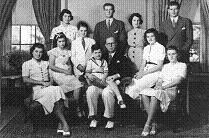










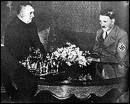









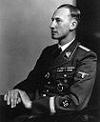












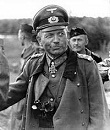


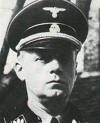
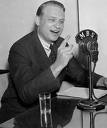



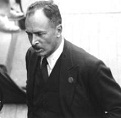




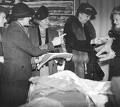


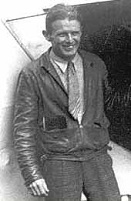









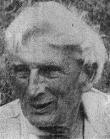



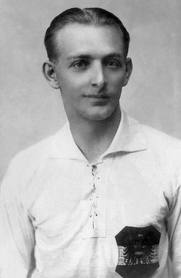





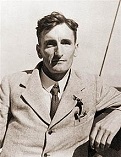




















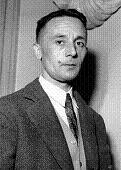
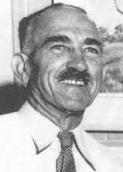





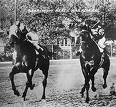






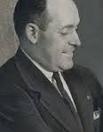
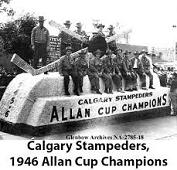
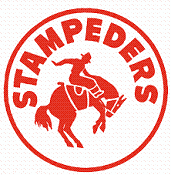
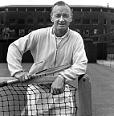


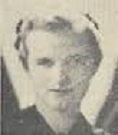
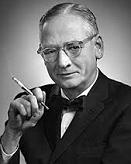
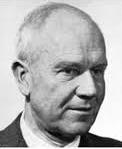



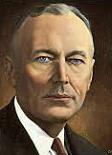


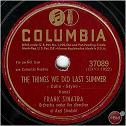


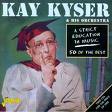









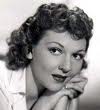





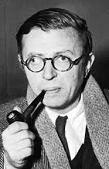







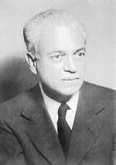
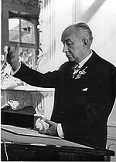

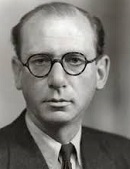


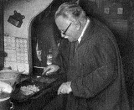
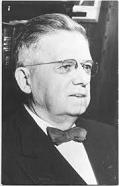
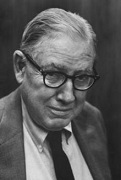
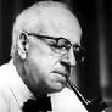





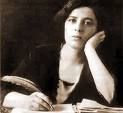



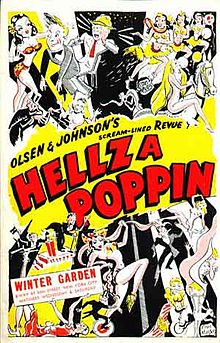

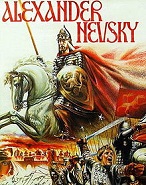
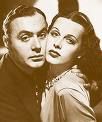

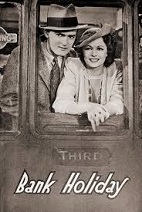





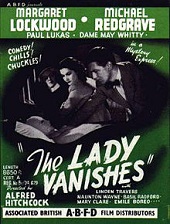
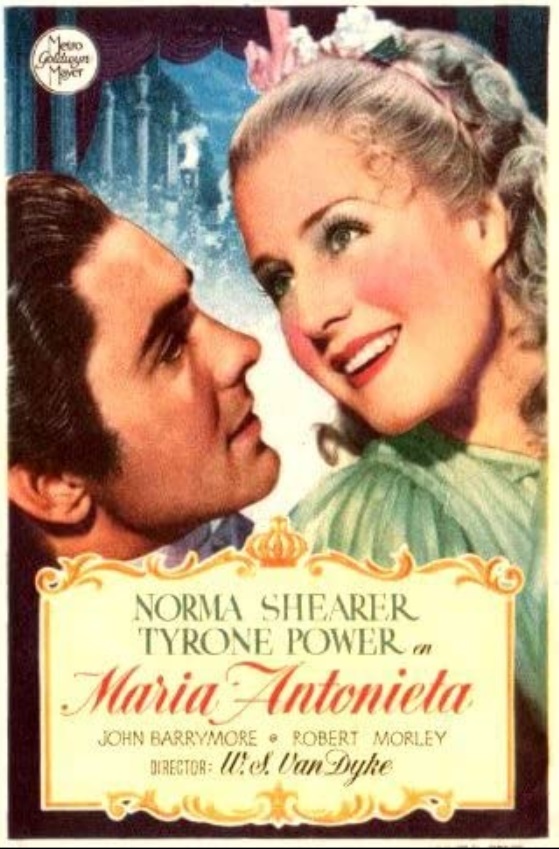
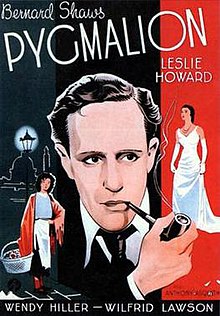
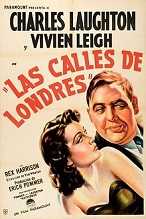
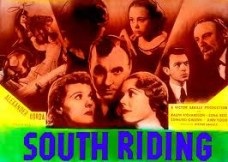
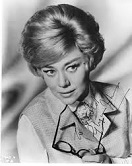
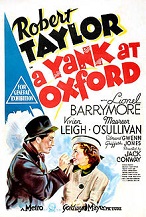



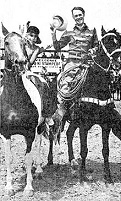
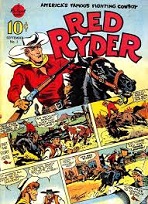

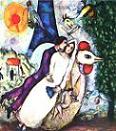
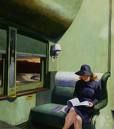
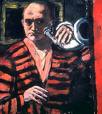


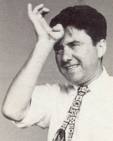


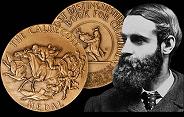

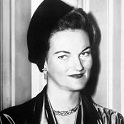
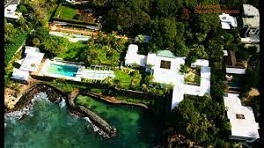
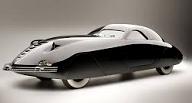
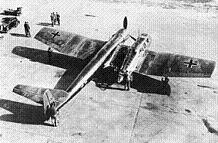
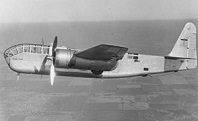
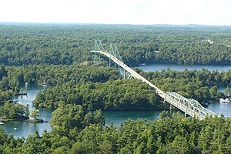

1938 Chinese Year: Tiger - hold that tiger? Time Mag. Man of the Year: Adolf Hitler (1889-1945). This year 32K die in auto accidents in the U.S. - the price of freedom is the right to act stupid? On Jan. 1 Calif. defeats Alabama by 13-0 to win the 1938 Rose Bowl. On Jan. 3 the March of Dimes campaign to fight polio is organized by Pres. Roosevelt under the name of Nat. Foundation for Infantile Paralysis; it takes off when "Banjo Eyes" radio announcer, singer, and comedian Eddie Cantor (Edward Israel Itzkowitz) (1892-1964) gets listeners to send 2M+ dimes to the White House? On Jan. 7 the Italian govt. announces a huge naval construction program supplementing the rearmament plan that began the previous year. On Jan. 10 after trying since 1935, the Ludlow Resolution, introduced by U.S. Rep. (D-Ind.) Louis Leon Ludlow (1873-1950), which requires a nat. referendum to confirm a declaration of war by Congress (except in the event of an invasion) is reintroduced, and seems likely to pass until FDR voices strong opposition, sending a letter to the Speaker of the House saying that he would be unable to conduct an effective foreign policy, after which it is defeated by a narrow 209-188 vote. On Jan. 11 FDR makes a proposal to the British govt. to convene a world conference to reduce armaments, promote economic security, and ameliorate the effects of a future war; British PM Neville Chamberlain tells him to buzz off - Herr Hitler needs a new pair of shoes? On Jan. 12 the new Supreme Soviet of the Soviet Union (created by the 1936 constitution) meets for the first time. On Jan. 12 Austria recognizes the Franco govt. in Spain. On Jan. 12 the Romanian govt. strips Jews of their citizenship; on Jan. 18 King Carol II of Romania dissolves the parliament before it can meet as the country's anti-Semitic program brings business to a near halt; on Feb. 10 he dismisses PM Octavian Goga in an attempt to reverse the flow, and sets up a "concentration cabinet" of seven former PMs under the leadership of patriarch Miron Cristea (1868-1939), suspending the constitution along with civil liberties; meanwhile the Iron Guard and the Nat. Peasants' Party of ex-PM Julius Maniu maneuver against him, but a nat. plebiscite on Feb. 24 overwhelmingly backs the king, and on Apr. 19 kinda-cool-but-sick Iron Guard leader Corneliu Codreanu (1899-1938) is railroaded into jail for 6 mo., increased to 10 years on May 27 after a plot against the king is discovered, and the entire Iron Guard is cracked down on; on Nov. 30 Codreanu and 13 other Iron Guard members are shot by guards while being moved, and are framed for an escape attempt. I'm an analytical, intuitive, athletic guy? On Jan. 12 the Blomberg-Fritsch-Krise Affair begins when 60-y.-o. war minister, Field Marshal (since 1936) Werner von Blomberg marries 26-y.-o. typist Erna "Eva" "Margarete" Gruhn (1912-), with Hermann Goering (who is on the make, wanting to get rid of his "boss") as best man at the ceremony and Hitler as a witness, and when Hitler later finds out about her past record as a ho from Goering, he gets pissed-off and orders Blomberg to annul the marriage, and when he refuses he ends up resigning on Jan. 27, getting exiled for a year to the island of Capri with his wife, giving Goering his chance to implement phase 2 and get unmarried OKW CIC (since 1934) Col. Gen. Baron Werner von Fritsch framed on charges of homosexuality, causing him to resign on Feb. 4, after which former WWI lance corporal Hitler takes personal control of the entire Wehrmacht, retaining it even after Fritsch is cleared by a military court on Mar. 18 because of his big V with the Austrian Anschuluss of Mar. 12; Hitler then permanently replaces the Ministry of War (Reichskriegsministerium) with the OKW, and appoints new Gen. Wilhelm Bodewin Johann Gustav Keitel (1882-1946) as CIC, with Gen. Heinz Wilhelm Guderian (1888-1954) and Gen. Franz Halder (1884-1972) as his chief assts., while Keitel talks Hitler into appointing his friend Heinrich Alfred Hermann Walther von Brauchitsch (1881-1948) as CIC of the German Army in Feb. (until 1941); in Feb. Hitler also replaces Constantin von Neurath as foreign minister (until 1945) with Joachim von Ribbentrop (1893-1946), putting the diplomatic control also under Hitler's direct control; Keitler goes on to prove incapable of standing up to Hitler, who ignores his advice against invading France and Russia, causing him to earn the nickname "LaKeitel", an approximation to the English word "lackey". On Jan. 15 FDR appoints Ky. liberal Stanley Forman Reed (1884-1980) as the 78th U.S. Supreme Court justice, who takes office on Jan. 27 (until Feb. 25, 1957) to replace liberal Benjamin N. Cardozo (1932-8) and conservative George Sutherland (1922-38), and now all he has to do is get another liberal approved and they will have a 5-4 majority. On Jan. 16 Benny Goodman gives his famous Jazz Concert in Carnegie Hall in New York City, "the single most important jazz or popular music concert in history: jazz's 'coming out' party to the world of 'respectable' music", which results in the 1950 double album (first-ever) The Famous 1938 Carnegie Hall Jazz Concert (1M copies). On Jan. 17 the British and Irish govts. begin meeting to resolve their trade war (mutual 20% tariffs) (begun 1933), resulting on Apr. 25 in the Anglo-Irish Trade Agreement. On Jan. 17 millionaire-by-thirty Joseph Patrick "Joe" Kennedy Sr. (1888-1969) (who made his fortune running liquor during Prohibition, allowing him to launder it through huge profits supposedly made by RKO Pictures in 1928, after which in 1933 his co. Somerset Importers becomes the exclusive U.S. agent for Gordon's Gin and Dewar's Scotch, allowing him to buy the Merchandise Mart in Chicago) becomes U.S. ambassador to the U.K. (until Oct. 22, 1941) (first Irish Roman Catholic); on June 13 he meets with new German ambassador to the U.K. (until Sept. 1939) Herbert von Dirksen (1882-1955), with Dirksen writing the soundbyte: "It was not so much the fact that we want to get rid of the Jews that was so harmful to us, but rather the loud clamor with which we accompanied this purpose. [Kennedy] himself fully understood our Jewish policy"; Kennedy later tells British MP (1919-45) Nancy Witcher Langhorne, Viscountess Astor (1879-1964) that the "Jew media" in the U.S. is a big problem, and that "Jewish pundits in New York and Los Angeles" were already making noises contrived to "set a match to the fuse of the world"; he resigns when war is inevitable because of his staunch isolationist and appeasement position; a cool Photograph of Mr. and Mrs. Joseph P. Kennedy and their Nine Children (4 boys, 5 girls) is taken at Bronxville, N.Y. in 1937. On Jan. 19 the govt. of Mexico increases tariff rates on imported goods from the U.S. et al. from 100% to 200%. On Jan. 25-Feb. 2 the League of Nations holds its 100th session in Geneva. On Jan. 31 after U.S. intervention, Haiti and the Dominican Repub. sign an agreement over the damages caused when the DR drove large numbers of Haitian immigrants across the border. On Feb. 2 King Farouk I dismisses the Egyptian parliament; on Apr. 2 nat. elections give the Wafdist Party a disastrous defeat, letting the king keep them down for the next four years (until 1942). On Feb. 4 protests against the Inter-Island Steam Navigation Co. by the Internat. Longshoremen's Union et al. begin; on Aug. 1, 1938 (Bloody Mon.) (10:00 a.m.) the Hilo Massacre sees 70+ police officers break up a strike by 200+ unarmed protesters, injuring 50 with riot guns. On Feb. 6 (Black Sun.) five drown and 250+ are rescued from freak waves on Bondi Beach, Australia. On Feb. 7 the League of Nations holds its 3rd conference in Geneva to deal with non-Aryan refugees leaving Aryan Paradise Germany. On Feb. 9 elections in Northern Ireland give Unionists a big V, ending any hopes of a merger with the Irish Free State. On Feb. 16 after Adolf Hitler meets with Austrian chancellor Kurt von Schuschnigg at Berchtesgaden and demands that National Socialists be incl. in Austria's govt., he appoints Dr. Seuss (1904-91), er, Arthur Seyss-Inquart (1892-1946) as interior minister. On Feb. 15 Franco's Nationalist troops recapture Teruel, nullifying Loyalist gains since last Dec., then begin a spectacular drive toward the sea, taking Vinaroz on the Gulf of Valencia on Apr. 15, severing Castile from Barcelona and Catalonia. On Feb. 20 Sir Anthony Eden resigns as British foreign secy. in a dispute with PM Neville Chamberlain over seeking an agreement with Italy without waiting for a settlement of the Spanish problem, and Winston Churchill leads the public outcry; Hitler-admiring Lord Halifax succeeds as foreign secy. On Feb. 20 Hitler gives a speech promising protection to German minorities in Czech. and elsewhere outside the Reich; on Mar. 4 Czech PM Milan Hodza declares that his country will resist outside interference. On Feb. 23 twelve Chinese fighter planes drop bombs on Japan - back atcha? In Feb. the govt. of Hungary again arrests Ferenc Szalasi and 72 other Hungarian Nat. Socialist Party leaders in an attempt to stomp them out; too bad, Germany soon annexes Austria and becomes their next-door neighbor, causing the 500K Germans in Hungary to act up. On Mar. 1 the Mexican Supreme Court decides against the U.S., Dutch and British owned oil cos., and after they refuse to raise the wages for Mexican employees, on Mar. 18 the Mexican govt. nationalizes the oil cos. to the tune of $450M, creating the Mexican govt. monopoly co. Pemex (Petroleos Mexicanos), causing massive pro-govt. demonstrations in Mexico, while pissing the U.S. and Britain off bigtime; on Mar. 27 the U.S. discontinues Mexican silver purchases; the British govt. suspends diplomatic relations; on July 21 the U.S. proposes arbitration of its claims, asking $200M, but the final compromise is only $24M - about the price of a sports team? On Mar. 8 Herbert Hoover tells Hitler that his doctrine would be unacceptable and intolerable in the U.S - but just in case, let's start HUAC? On Mar. 10 the Tenth (10th) Academy Awards awards the picture Oscar for 1937 to Warner Bros.' The Life of Emile Zola, best actor to Spencer Tracy for Captains Courageous, best actress to Luise Rainer (2nd time in a row) for The Good Earth, and best dir. to Leo McCarey for the screwball comedy The Awful Truth (first onscreen pairing of Cary Grant and Irene Dunne); George Bernard Shaw wins an Oscar for adapting his "loverly" play "Pygmalion" for My Fair Lady. On Mar. 9 Kurt von Schusnigg calls for a plebiscite, but on Mar. 11 after being faced with a German invasion he resigns, and Austrian pres. Wilhelm Miklas appoints Arthur Seyss-Inquart as chancellor; on Mar. 12 after inviting (by telegraph) and welcoming the German troops to occupy Austria, Dr. Seuss, er, Schusnigg proclaims Anschluss (union), violating the who-cares Treaty of Versailles; the German troops are given a hero's welcome by the majority of the Austrian pop., after which Hitler decrees that it will be incorporated into the Third Reich as the province of Ostmark; on ? Hitler personally leads troops into Vienna, and is presented with the Holy Lance of Christ; on Mar. 13 Seyss-Inquart officially joins the Nazi Party, then signs the law making the incorporation official, becoming pres., with an honorary SS rank of Gruppenfuhrer, followed by minister without portfolio in Hitler's govt. in May 1939; 6'7" facially-scarred (from dueling during his student days, or from a drunk-driving accident) Ernst Kaltenbrunner (1903-46) is appointed PM (with the new rank of SS Gruppenfuherer also), and Josef Burckel (Bürckel) (1895-1944) is appointed "commissioner for the reunion of Austria" (read "Jewish Question"?); Kaltenbrunner goes on to rise to great powah, intimidating even Heinrich Himmler, and stopping the promotion of Adolf Eichmann to SS-col. (for not being anti-Semitic enough?); no surprise, Sigmund Freud (1856-1939) flees Vienna for London; the world is astounded at Mussolini's calm acceptance of the presence of the Nazis at the Brenner Pass; poor beer-guzzling Czech. is now surrounded on three sides by the Nazis, and on Mar. 14 the German govt. gives assurances of its desire to improve relations; British newspaper magnate Lord (1st Viscount) Rothermere writes Hitler to congratulate him, and proposes invading Romania next, and pays $5K a year to Austrian princess Stephanie Hohenlohe-Waldenburg-Schillingfurst (1891-1972) in an attempt to ingratiate himself with Hitler, and since she is widely suspected (and is) a Nazi spy, she becomes known as "London's leading Nazi hostess"; too bad, when WWII begins he has to cut her loose. On Mar. 15 Stanford U. geologist Max Steineke (1899-1952), working for Aramco makes the first commercial oil find in Saudi Arabia. On Mar. 15 after a Last Plea to the Moscow Supreme Court (Mar. 12), Russian rev. and Stalin lookalike Nikolai Bukharin (b. 1888) is executed for treason after the last Stalinist show trial, the Trial of the Twenty-One (Bukharin, Rykov, Jagoda, et al.), where Stalin himself hides behind a double-mirrored wall in the courtroom running the puppet "peoples' judges", then later goes around cynically asking "What happenened to my good friend Comrade Bukharin?"; Bukharin writes How It All Began while in priz. On Mar. 16-17 Franco's forces bomb Barcelona 18x despite protests by the Vatican and foreign powers to leave nonmilitary targets alone. On Mar. 16 the Polish-Lithuanian Crisis begins; on Mar. 19 Lithuania is forced to sign a peace agreement with Poland. On Mar. 18 the Nazi Weapons Act is passed, relaxing gun ownership restrictions while prohibiting firearms dealing to Jews; gun owners must carry ID cards; on Nov. 11 interior minister Wilhelm Frick prohibits Jewish gun ownership; after the Allies win WWII in 1945, they prohibit all private gun ownership until 1956. On Mar. 22-25 German activists withdraw from the Czech parliament, causing PM Milan Hodza to announce a Nationality Statute, giving parliamentary rep. based on proportionality, which underwhelms them, causing Sudetendeutsche Party leader Konrad Henlein on Apr. 24 to put forward his Carlsbad Program, calling for full German autonomy, which is rejected, causing Henlein to visit London, then Berlin (posing as the soul of moderation?); the Czech govt. mobilizes 400K troops on the frontier after disorders in the German districts; Hitler fortifies the German-French frontier and orders a huge increase in German air forces; the statue is passed on July 26. On Mar. 24 the U.S. asks that all powers help refugees fleeing from the nasty Nazis. On Mar. 24-Apr. 7 100K Chinese Kuomintang under Gen. Li Zongren (Tsung-jen) (1890-1969) defeat 30K Japanese in the Battle of Taierzhuang (Tai'erzhuang) (Xuzhou) on the E bank of the Grand Canal of China (NE of Xuzhou), with half of the Japanese force killed or wounded vs. 30K Chinese, becoming a turning point in the war. On Mar. 26 Hermann Goering warns all Jews to leave Austria - did he bring that defense up at Nuremberg? On Mar. 26 Japan passes the Nat. Mobilization Bill, giving the state the power to dictate all phases of the economy; on May 26 the cabinet is reorganized to give six seats to the military, causing PM Fumimaro Konoye to resign in protest. On Mar. 28 the Japanese install a puppet govt. in Nanjing, China under Liang Hongzhi (1883-1946) (until Mar. 1940). On Mar. 28 the U.S. Supreme (Hughes) Court rules 6-3 in New Negro Alliance v. Sanitary Grocery Co. that blacks have the right to organize a boycott to protest discriminatory hiring practices. In Mar. in Austria within days of the Anschluss, squads of Nazis and Austrian museum personnel empty the Viennese palaces of the Rothschild brothers Alphonse and Louis, and hide the loot in the Alt Aussee salt mines near Salzburg. In Mar. Poland forces Lithuania to renounce its claims to Vilnyus (Vilnius). In Mar. the Federation of Trade Unions of Syria is founded by organized labor to fight for workers' rights and to force the govt. to allow independent labor orgs. without employer participation. On Apr. 5-6 the foreign ministers of Denmark, Sweden, Norway, and Finland meet to discuss their mutual defense, but Denmark's unwillingness to challenge Germany causes it to fall through. On Apr. 6 the U.S. recognizes the German conquest of Austria; on Apr. 10 Germany annexes Austria. On Apr. 16 the Anglo-Italian Pact is signed, recognizing Italian sovereignty over Ethiopia in return for Italy withdrawing its volunteers from Spain after the civil war ends; both countries agree to maintain the status quo in the Red Sea, and Italy agrees to desist from hostile propaganda in the Middle East. On Apr. 24 all German Jews are ordered to register their property; on May 29 the Jewish role in the Hungarian economy is restricted to 20%; on June 25 Jewish physicians in Germany are only allowed to treat Jews. On Apr. 24 all German Jews are ordered to register their property; on May 29 the Jewish role in the Hungarian economy is restricted to 20%; on June 25 Jewish physicians in Germany are only allowed to treat Jews. On Apr. 25 Britain concludes a 3-year agreement with Ireland, bringing their long-standing feud to an end :). On Apr. 25 the U.S. Supreme (Hughes) Court rules 6-2 in Erie Railroad Co. v. Tompkins tht federal courts do not have the judicial power to create gen. federal common law when hearing state law claims under diversity jurisdiction, overturning Swift v. Tyson (1842); Justice Benjamin N. Cardozo recuses himself. On Apr. 25 the U.S. Supreme (Hughes) Court rules 8-1 in U.S. vs. Carolene Products Co. that the federal govt. has the power to prohibit filled (with non-dairy oil) milk from being shipped in interstate commerce, adding Footnote Four, which create levels of judicial scrutiny, from "rational basis test" for economic laws to "strict scrutiny" for laws stepping on minorities, launching the theory of substantive due process, the invention of rights not enumerated in the Constitution, which critics call legislating from the bench. On Apr. 30 Switzerland appeals to the League of Nations to recognize its unconditional neutrality; on May 14 the League council accepts their view, relieving them from all obligations incl. having to take part in economic sanctions against future aggressors. In Apr. Edouard Daladier becomes PM of France again. In Apr. Franco's nationalist forces break through Republican defenses and reach the sea; on Apr. 19 Franco declares victory in the Spanish Civil War; the Battle of the Ebro starting on July 25 signals the beginning of the end for the Spanish Republicans fighting the Franco nationalists, going into retreat by Nov. In Apr. archbishop of Vienna (since 1932) Theodor Innitzer (1875-1955) meets with Hitler and then directs all Catholic clergy and laity to "unconditionally support the great German State and the Fuhrer", signing a declaration along with other Austrian bishops endorsing the Anschluss, with the signature "Heil Hitler!", causing him to become known as the "Heil Hitler Cardinal", causing Pope Pius XI to order him report to the Vatican and sign a retraction, while Vatican Radio broadcasts a vehement denunciation of the Nazi action; in Oct. thousands attend a sermon by Innitzer in the Cathedral of St. Stephen in Veinna, where he utters the soundbyte "There is just one Fuhrer: Jesus Christ", causing 100 Nazis to ransack his residence the next day. On May 8 the 444-mi. Natchez Trace Parkway between Fairview, Tenn. and Natchez, Miss. is begun on the original route of the Natchez Trace, which was used by Euro explorers in the late 18th and early 19th cents. (finished 2005). On May 9-12 in Utrecht a Provisional Constitution for the World Council of Churches (WCC) is adopted by a provisional committee led by Archbishop William Temple (1881-1944) of York as chmn., and Willem Adolph Visser't Hooft (1900-85) of the Netherlands as secy. gen. #1 (until 1966), and in Oct. it begins sending out invitations to 196 churches and the Vatican for the first WCC gen. assembly in Aug. 1941; too bad, the war intervenes, and it isn't held until Aug. 23, 1948 - heil Visser't Hooft? On May 13 Paul Janson's govt. in Belgium is replaced by a coalition headed by moderate Socialist Paul Henri Charles Spaak (1899-1972), who becomes PM of Belgium on May 15 (until Feb. 22, 1939). On May 13 U.S. Congress Act 52 goes into effect, making Nov. 11 the official U.S. Armistice Day, dedicated to the veterans of WWI; on June 1, 1954 the word Armistice is replaced by Veterans. On May 17 the radio quiz show Information, Please!, created by Dan Golenpaul (1900-74) debuts on the NBC Blue Network (until June 25, 1948). On May 17 the U.S. Congress passes the U.S. Carl Vinson Naval Act, providing for a 2-ocean navy. On May 19-20 the First Czech Crisis results when Sudeten Germans in Czech. demand autonomy. On May 26 the House Un-American Activities Committee (HUAC) of the U.S. House of Reps. begins its work of searching for "un-American propaganda" in the U.S., led by chmn. Martin Dies Jr. (1900-72) (D-Tex.) - Jefferson dies? In May Flossenburg (Flossenbürg) Camp in the Oberpfalz region of Bavaria, Germany is built, holding a total of 96K prisoners, of which 30K die by Apr. 1945. In May the Bletchley Park mansion in Milton Keyenes, Buckinghamshire, England, conveniently located between Oxford and Cambridge is purchased by British Adm. Sir Hugh Sinclair, head of MI6 to house codebreakers, who go on to crack the German Enigma machine et al. In May-June a revolt in the Mexican province of San Luis Potosi by Gen. Saturnino Cedillo (1890-1939) is crushed by Gen. Cardenas. On June 1 the first issue of the Superman comic book series, by Cleveland, Ohio-born writer Jerome "Jerry" Siegel (1914-96) and Toronto, Canada-born artist Joseph "Joe" Shuster (1914-92) appears in Action Comics #1, and sells for 10 cents, launching the Golden Age of Am. Comic Books (ends 1955); they sell their rights to Superman next year for $130; Superman can leap 1/8 of a mi. and hurdle a 20-story bldg. - Bill Gates gets an idea? On June 2 the first Nat. Donut Day is held in Chicago, Ill., sponsored by the Salvatin Army to honor the Lassies, members who served them to soldiers in WWI; On June 19 architect-soldier Gen. Alfredo Baldomir Ferrari (1884-1948) of the Colorado Party becomes pres. of Uruguay (until Mar. 1, 1943), ending the leftist dictatorship of Gabriel Terra (since 1931). On June 19 the Olympian Flyer express train crashes in Mont., killing 47. On June 23 the U.S. Civil Aeronautics Act creates the Civil Aeronautics Authority (CAA). On June 25 Gaelic League pres. Douglas Ross Hyde (1860-1949) becomes pres. #1 of Eire (until June 24, 1945). On June 29 Mesa Verde Nat. Park in Colo. and Olympic Nat. Park in Washington are established. Degenerate? Can I see? On June 30 the Germans vote to confiscate so-called "degenerate art", with "Reichmaster of Public Hair" artist (known for his racially pure nudes of women to encourage German men to have pure children) Adolf Ziegler (1892-1959) put in charge of a 6-man commission authorized to confiscate it throughout the Reich, resulting in 5K works seized; on July 19-Nov. 30 the Nazis hold the Degenerate Art (Entartete Kunst) Exhibition in Munich, featuring 650 works by "cultural Jewish Bolshevik" Max Beckmann (1884-1950) (who flees to exile in Amsterdam), Otto Dix (1891-1969), Edgar Ende (1901-65), Max Ernst (1896-1976), Ernst Ludwig Kirchner (1880-1938), Paul Klee (1879-1940), Emil Nolde (1867-1956) et al. (112 artists, only 6 Jewish?), arranged in a manner calculated to create disgust for these pathetic degenerates, complete with Nazi slogans and labels displaying how much money the museums wasted on the Jewish crap (not mentioning the Weimer hyperinflation of the 1920s, but since that was caused by the Jews, they deserve it?); after the exhibition opens, Goebbels rushes out and gets more works seized, totalling 16,558; in 4 mo. over 2M rush to see the degenerate stuff, and after the exhibit tours Germany and closes, the paintings are auctioned in Switzerland for big marks, although some high Nazis make off with Cezannes, Van Goghs, etc.; in Mar. 1939 4K works are burned after they can't be sold, and when the Red Army invades Berlin in 1945, they discover an underground cache, which they steal and put in the Heritage Museum in St. Petersburg; Dresden art dealer Hildebrand Gurlitt (1895-1956) collects 1.5K paintings, telling authorities that they were destroyed in the firebombing of Dresden; his widow passes them to their son Cornelius Gurlitt (1934-), who hides them behind pallets of canned goods in his seedy apt. until they are discovered in 2011, and revealed by the govt. on Nov. 3, 2013; their worth is estimated at $1.3B. In June a leftist strike in France helps bring the Popular Front govt. down by Oct. In June Pope Pius XI commissions Am. Jesuit John La Farge Jr. (1880-1963) (son of the artist) to write the encyclical Humani Generis Unitas (On the Unity of the Human Race), expressly condemning Nazi anti-Semitism, but popey dies before it can be pub.? - the world is turning over a new leaf, not? On July 2 the popular radio series The Aldrich Family debuts on NBC (until Apr. 19, 1953) as a summer replacement for Jack Benny, with Alice Aldrich, played by Katherine Raht opening it with "Hen-reeee! Hennnn-ry Aldrich!, to which Henry, played by Jewish actor Ezra Stone (1917-94) replies "Coming, mother!"; the father Sam is played by House Jameson (1902-71); the inside joke is that fat cigar-smoking 20-something pure kike Ezra doesn't resemble his part of a gawky innocent all-Am. teenage WASP boy, shocking studio audiences? - welcome to Hollyweird? On July 3 Pres. Roosevelt marks the 75th anniv. of the Battle of Gettysburg by dedicating the Eternal Light Peace Memorial in Gettysburg Battlefield, Penn. before an audience of 250K, using a new mobile sound system unit to address the audience. On July 4 France and Turkey sign a friendship treaty. On July 5-15 Pres. Roosevelt convenes an internat. conference in Evian, France over the plight of Jewish refugees, but nothing is done - water under the bridge? On July 11 (Mon.) (9:00 p.m.) the live drama radio series The Mercury Theatre on the Air (First Person Singular) debuts on CBS Radio for 22 episodes, hosted by Kenosha, Wisc.-born George Orson Welles (1915-85), going on to air The War of the Worlds on Oct. 30 (Sun.) (Halloween night), which panics naive isolationist Americans with his rendition of H.G. Wells' 1898 novel The War of the Worlds on Mercury Theatre on the Air (H.G., Mercury - get it?), starting with Mt. Jennings Observatory (Chicago) Prof. Farrell reporting several explosions on Mars, then Prof. Morse of Macmillan U. reporting more, then live descriptions of Martians invading New Joisey and kicking the U.S. army's butt like the Nazis would if they had spaceships; Orson Welles plays Princeton U. prof. Richard Pierson; on Oct. 31 (after talking to his lawyers?) Welles expresses "deep regret" but also bewilderment that anyone had thought it was real; the Edgar Bergen show is airing at the same time, and when its music segment comes on many listeners switch to CBS, catching it in the middle and becoming more freaked (if they were busy studying instead of listening to the radio, they wouldn't be so dumb?); it generates so much publicity that Campbell's Soup decides to sponsor it, after which it airs its last broadcast on Dec. 4, and on Dec. 9 The Campbell Playhouse debuts on CBS Radio for 56 episodes (until Mar. 31, 1940), with hour-long adaptations of classical novels and plays along with adaptations of popular films; in season 2 Welles leaves, and it becomes a 30-min. series. On July 14 Howard Hughes lands at Floyd Bennett Field in New York with a crew of four after flying around the world in a record 3 days, 19 hours, 17 min. - he must have gotten real dirty? On July 16 Tokugawa Soyeshima sends a telegram to the Internat. Olympic Committee saying that Japan would not be able to host the 1940 Winter Olympics due to a little ole fight with China; on Sept. 3 the games are awarded to Helsinki. On July 17 Galveston, Tex.-born pilot Douglas Corrigan (1907-95) is denied permission from the Civil Aviation Authority to fly across the Atlantic from New York City to Ireland because of the poor condition of his plane; he takes off from New York anyway and claims to have mistakenly turned 180 degrees on a flight to Calif., landing in Ireland 28 hours and 13 min. later; after police question him, New York City gives "Wrong Way" Corrigan a ticker-tape parade - the quintessential American success story? On July 19-21 British King George VI and Queen Elizabeth visit Paris to demonstrate solidarity. On July 21 German law decrees that all Jews must have ID cards by Jan. 1, 1939; on Aug. 17 Jewish men must add the name Israel to their name, Jewish women the name Sarah; on Sept. 27 German Jews are forbidden to practice law - Israel, Sarah and Beanstein, attys. at nothing? On July 22 the Imperial War Graves Commission finishes its task of building cemeteries for WWI; George VI dedicates the Australian Nat. Memorial in Villers-Bretonneux, France. On July 25 Franz Joseph (Josef) II (1906-89) becomes prince of Liechtenstein (until 1989), becoming the first to live full-time in the principality, making him very popular; he keeps the country neutral in WWII. On July 29 a revolt in Crete against Gen. Metaxas is quickly quashed, and on July 30 Metaxas is declared PM of Greece for life. On June 30 African-Am. anti-Semitic Islam convert Sufi Abdul Hamid (Eugene Brown) (b. 1903), known as the Black Hitler for boycotting and picketing mainly Jewish white-owned businesses in Harlem, N.Y. to pressure them into hiring his black union members, and who likes to wear a mustache, Nazi-style military shirt, gold-lined cape, purple turban, and a dagger in his belt dies when his plane runs out of fuel and crashes. In July the loyalists attack Franco's army from the rear, beginning an offensive along the Ebro River in NE Spain, halting the progress of Franco's forces for the rest of the year, during which Mussolini withdraws some troops from Spain, leaving 40K; too bad, the loyalists are too weak to press their attack. On Aug. 3 new viscount (since June 1937) (a title higher than his shipping magnate father, who's only a baron) Liberal British mediator Walter Runciman, 1st Viscount Runciman of Doxford (1870-1949) arrives in Prague, but gets nowhere with Konrad Henlein and his demands, causing him to send London a final report saying that the German pop. wants the Sudetenland to become part of Germany, leading to the Munich Agreement. On Aug. 8 Mauthausen-Gusen Concentration Camp 12 mi. E of Linz, Austria opens, one of the first major Nazi camps, becoming known as a sure death sentence for the prisoners, who are mainly from the intelligentsia, who suffer funhouse horrors incl. the Stairs of Death and other grisly amusements for the guards; it becomes the hub of almost 100 subcamps in Austria and S Germany connected by underground tunnels, incl. three concentration camps in Gusen a few km away (established May 25, 1940),l who work in granite quarries; on May 5, 1945 it becomes the last Nazi concentration camp to be liberated by the Allies after killing 122K-320K. On Aug. 21 the Little Entente meets at Bled, Yugoslavia, and recognizes Hungary's right to rearm, with non-aggression pacts agreed to. On Aug. 24 an article in Christian Century coins the term "soap tragedies", on Nov. 13, 1939 Newsweek coins the term "soap operas"; until 1947 they are all on radio not TV; later clipped to "soaps", actually "daytime dramas". On Aug. 26 the Central Office for Jewish Emigration in Vienna is set up under Adolf Eichmann (1906-62) - only one class, cattle? On Aug. 28 the first college degree given to a ventriloquist's dummy is awarded to Charlie McCarthy, partner of Edgar Bergen; the honorary degree, "Master of Innuendo and Snappy Comeback" is presented on radio by Ralph Dennis, dean of the School of Speech at Northwestern U. In Aug. Liberal Eduardo Santos Montejo (1888-1974) becomes pres. of Colombia (until Aug. 1942). In Aug. the Walter Lippmann Colloqium in Paris, organized by French philosopher Louis Auguste Paul Rougier (1889-1982) becomes the birthplace of Neoliberalism in the scholarly lit., awhich dabbles with chucking laissez-faire capitalism in favor of increased govt. intervention in the economy; German economist Alexander Rustow (Rüstow) (1885-1963) allegedly coins the term "neoliberalism", going on to become the father of the Social Market Economy of West Germany after WWII. On Sept. 2 the Italian govt. passes Anti-Semitic Laws, prohibiting marriage between Italians and non-Aryans, excluding Jewish teachers and students from schools, and giving Jews who have taken up residence in Italy since 1919 6 mo. to leave; after taking effect on Nov. 17, the policies are loosely enforced, later pissing-off the Nazis. On Sept. 2 Pope Pius XI tells German pilgrims that no Christian can take part in anti-Semitism since all Christians are Semites - a pox upon the house of Mussolini? On Sept. 5 Mexico signs oil barter agreements with Germany, Italy and other nations in return for manufactured goods once obtained from the U.S. and Britain. On Sept. 7 the Second Czech Crisis begins as Sudeten leaders break off negotiations with the govt. after an incident at Moravska (Moravská) Ostrava; discussions are resumed on Sept. 10; on Sept. 12 in a speech in Nuremberg, Adolf Hitler demands self-determination for the Sudeten Germans in Czech., causing the Czech govt. to proclaim martial law on Sept. 13, causing Neville Chamberlain to formulate the secret Plan Z to negotiate directly with Hitler at the 11th hour to avert war by charm; on Sept. 15 Konrad Henlein et al. flee across the frontier. On Sept. 9-23, 1938 the Category 3 Great 1938 New England Hurricane AKA the Long Island Express and Yankee Clipper hits Long Island, N.Y. on Sept. 21, killing 682, damaging or destroying 57K homes and 6K fishing boats and causing $306M property damage, becoming the most powerful hurricane in New England since the 1635 Colonial Hurricane; damaged trees and bldgs. are still seen as late as 1951. On Sept. 14 Graf Zeppelin II, the world's largest airship makes its maiden flight - like the Nazi regime, it's full of hot air and about to go up in flames? Excuse me while I slip into something fatuous? On Sept. 15 ready-to-please British PM Neville Chamberlain visits Adolf Hitler in Berchtesgaden, where Hitler threatens to invade Czech. unless Britain supports the German takeover of the Sudetenland in Czech.; on Sept. 18 PM Edouard Daladier and Radical-Socialist French foreign minister Georges-Etienne Bonnet (1889-1973) arrive in London, and decide to urge the Czech govt. to accept Hitler's terms, and on Sept. 20 Czech. proposes arbitration based on the 1925 German-Czech Locarno Treaty, which Britain and France reject; on Sept. 21 pressure by France and Britain causes Prague to yield, and on Sept. 21 Milan Hodza's cabinet resigns, and a new govt. is formed under Gen. Jan Sirovy; on Sept. 21 Winston Churchill condemns Hitler's annexation of Czech., while Mussolini remains in the background; on Sept. 22-23 Chamberlain visits Herr Hitler again at Bad Godesberg (Ger. "Mountain of His God"?); on Sept. 24 (early a.m.) Hitler issues the Godesberg Memorandum, demanding the surrender of the German territories at once, with plebiscites of the areas with large German minorities by Nov. 25; on Sept. 24 the Czech govt. orders full mobilization, throwing the world into its most serious crisis since 1918; on Sept. 26 Hitler issues an ultimatum to the Czech govt.; on Sept. 26 Daladier and Bonnet come to London again, and decide this time to support Czech. in resisting Hitler, while Chamberlain asks Hitler for a conference to give him what he wants without force; on Sept. 27 FDR also appeals to Hitler for a conference, which Hitler agrees to on Sept. 28 after Mussolini (put up to it by Chamberlain and Roosevelt) persuades him; on Sept. 29 Hitler, Ribbentrop, Mussolini, Ciano, Chamberlain, and Daladier meet in Munich, and just after midnight on Sept. 30 Chamberlain, seconded by Lord Halifax caves in to Darth, er, Herr Hitler, and signs the Munich Agreement (Pact), along with French PM Edouard Daladier and Mussolini, transferring the Sudetenland to Germany over Czech protests, with Hitler promising not to make any more territorial demands on Europe; on Sept. 30 the Czech govt. also caves in to the settlement; Chamberlain predicts "peace in our time", claiming a V for his appeasement policy, while Germany now dominates C Europe and is on the verge of dominating the entire Danubian area, and the last dem. outpost in C Europe is kaput; during the conference, a plot to depose Hitler headed by Fourth Panzer Group cmdr. Gen. Erich Hoepner (1886-1994) is stopped in its er, tracks with the announcement of the Munich Agreement, and Hitler fails to uncover it; on Oct. 1 British first lord of the admiralty (since May 1937) Alfred Duff Cooper (1890-1954) resigns in protest of the Munich Agreement, with the soundbyte: "War with honour or peace with dishonour; but war with dishonour - that was too much"; Chamberlain appoints Lord Runciman as lord pres. of the council until the outbreak of WWII; meanwhile during the Munich crisis the British govt. issues gas masks to civilians - I mays look white, but I aims to appease, yessuh, massuh, yessuh? On Sept. 23 a time capsule, to be opened in the year 6939 is buried on the grounds of the World's Fair in New York City; it contains a woman's hat, man's pipe, 1.1K ft. of microfilm, and two novels, "Arrowsmith" by Sinclair Lewis (1925), and "Gone With the Wind" by Margaret Mitchell (1936). On Sept. 27 the League of Nations declares Japan the aggressor against China. On Sept. 27 the 83,673-ton Cunard liner RMS Queen Elizabeth is launched; it is replaced by the smaller, more economical Queen Elizabeth 2 in 1969, and eventually sold to Hong Kong businessman Tung Chao Young, who intends to turn it into the floating Seawise U., until it catches fire in Hong Kong Harbor in 1972 and capsizes. On Sept. 29 the Polish govt. issues an ultimatum to Prague demanding the 400 sq. mi. Teschen region of Silesia, and Prague yields; on Oct. 2 Polish forces occupy the area, gaining 240K pop., incl. 100K Poles. In Sept. Chain Home, the first workable British radar system begins operation; by Dec. Britain has five coastal radar stations to warn of enemy aircraft. On Sept. 29 Gen. Ugaki Kazushige resigns, and on Oct. 29 Arita Hachiro (1884-1965) becomes Japanese foreign minister (until Aug. 29, 1939). On Oct. 1 Germany annexes the Sudetenland, and German troops occupy it by Oct. 3, completing the annexation by Oct. 10. On Oct. 3 Sir Samuel Hoare gives a speech in the House of Commons, with the soundbyte: "I say that if we had made an ultimatum in the days immediately before the Nuremberg speech Europe would today have been plunged into a world war." On Oct. 5 seeing his country lose 5M of 15M pop., incl. 2.85M Germans, 1.16M Czechs and Slovaks, 591K Hungarians, 77K Poles, 60K Jews, and 37K Ruthenians, along with 16K out of 54.5K sq. mi. of territory, Czech pres. (since 1935) Eduard Benes resigns and leaves for the U.S. (remaining in exile until 1946), triggering a violent campaign against him and Tomas Masaryk for getting them into this mess?; the Little Entente is kaput; Winston Churchill gives a speech in the House of Commons, with the soundbyte: "I will begin by saying what everybody would like to ignore or forget but which must nevertheless be stated, namely, that we have sustained a total and unmitigated defeat", to which Viscountess Astor shouts "Nonsense!" On Oct. 5 German Jewish passports are marked with the letter J at the request of Swiss officials to make it easier to bar Jews from the land of Swiss chocolate. On Oct. 5-9 the New York Yankees (AL) defeat the Chicago Cubs (NL) 4-0 to win the 35th (1938) World Series; the Cubs haven't won since 1908, and fans are beginning to get pretty desperate? On Oct. 6 the Repub. of Slovakia is given full autonomy, with Roman Catholic priest Joseph (Jozef) Tiso (1887-1947) as pres. #1 on Oct. 26 (until Apr. 1945), becoming a Nazi puppet throughout the war. On Oct. 8 Ruthenia is given full autonomy and renamed Carpatho-Ukraine; meanwhile German-backed Ukrainian separatists begin to stir things up while the Polish govt. seeks to partition it among themselves, Hungary and Romania, opposed by Germany. On Oct. 8 the Italian Fascist Grand Council abolishes the chamber of deputies, the last vestige of the old constitution, and replaces it with a chamber of fascist unions and corporations. On Oct. 9 Czech and Hungarian delegates meet, and fail to reach agreement, leading to frontier clashes; after a joint German-Italian decision Hungary receives a broad 5K sq. mi. strip of S Slovakia and Ruthenia with a pop. of 1M, but no common frontier with Poland, as both Hungary and Poland had wanted. On Oct. 14 the Nazis plan to wall the Jews in all major cities into nice little ghettos - with the locks and keys in their control? On Oct. 20 Czecho-Slovakia (new spelling) complies with Nazi policy and outlaws the Communist Party and begins persecuting Jews. On Oct. 21 after entering Tsingtao and installing a Chinese puppet govt. in Nanking, Japanese troops occupy Canton, followed on Oct. 25 by Hankow. On Oct. 22 after his NKVD chief Genrikh Samoilovich Lyushkov (1900-45) defects to Japan on June 13, holds a press conference and exposes Stalin's purges, his boss, Russian marshal Vasily Konstantinovich Blucher (Blyukher) (b. 1889), cmdr. of the Far East Front is arrested and convicted of espionage for Japan, and tortured to death, dying in Moscow on Nov. 9 without confessing; Lyushkov goes on to plan the assassination of Stalin next Jan. in the Black Sea resort of Sochi, but it is foiled. On Oct. 24 the U.S. Fair Labor Standards Act sets a 40-hour work week, forbids child labor in factories, sets the min. age of employment at 14, and sets a minimum wage of 25 cents an hour (to be raised to 40 cents after seven years ), but is applicable to only 11M of 55M workers, those employed in interstate commerce. On Oct. 24 Polish ambassador (1934-9) Jozef (Józef) Lipski (1894-1958) meets with German foreign minister Joachim von Ribbentrop in Berchtesgaden, and is presented with Germany's demand for annexation of the Free City of Danzig, which Lipski refuses. On Oct. 28 a farewell parade for the Internat. Brigade is held in Barcelona, Spain. In Oct. trade unions in Romania are dissolved and replaced with guilds under royal control. In Oct. leftist English historian A.J.P. Taylor (1906-90) gives an uncustomary political speech at the annual dinner commemorating a protest by Oxford dons against James II on 1688 on the eve of the Glorious Rev., protesting the popular Munich Agreement and calling for Nazi Germany to be resisted as a greater tyrant than James II. On Nov. 1 German Field Marshal Col. Gen. Gerd von Rundstedt (1875-1953) retires. On Nov. 2 Germany gives S Slovakia to Hungary. On Nov. 3 Crystal Bird Fauset (nee Crystal Dreda Bird) (1894-1965) becomes the first African-Am. woman to be elected to a state legislature (Penn.). On Nov. 6 the comic strip Red Ryder (originally Bronc Peeler) by entrepreneur Stephen Slesinger (1901-53) and Fred Harman (1902-82) (AKA Tom Horn) debuts (until Sept. 30, 1965), reaching 40M readers in 750 newspapers, and used to market Daisy BB guns; "From out of the West comes America's famous fighting Cowboy." On Nov. 8 after finding his liberal agenda blocked by a coalition of Repubs. and conservative Dems., even though there are Dem. majorities in both houses of Congress, and Pres. Roosevelt attempts his own little purge, announcing his support for liberal Dems. in party primaries the 1938 U.S House of Reps. Elections and 1938 U.S. Senate Elections see his purge fail due to the Roosevelt Recession, and the Repubs. gain eight seats in the Senate and 81 in the House, and New Deal legislation continues to be blocked. Two pair of eyeglasses for free, but no eye exam? On Nov. 9-10 the nights witness rampaging mobs throughout Germany and Austria, organized by "blonde beast" Reinhard Tristan Eugen Heydrich (1904-42) and other Nazis freely attacking Jews and Jewish-owned businesses in what becomes known as Kristallnacht (Crystal Night) (Night of the Broken Glass), destroying 267 synagogues and thousands of homes and businesses, killing 91 Jews, and sending 25K-30K to concentration camps, while causing 1B marks damage; the synagogue of Cologne is destroyed, and is not rebuilt until 1959, after which in Aug. 2005 Pope Benedict XVI visits it during his first foreign trip to preside over World Youth Day; on Nov. 12 all Jewish retail establishments in Germany are ordered to close by the end of the year; on Nov. 13 new French ambassador to Berlin (until 1939) Robert Coulondre (1885-1959) reports Kristallnacht to Paris, with the soundbyte: "Nevertheless (néanmoins) one should understand German grievances against the Jews"; on Nov. 15 Jewish children are expelled from German schools; some Jews commit suicide out of despair; public outcry over what Germany claims is an "internal affair" causes the British to lower barriers against Jewish immigration, while Nazi leaders decide to keep future cleansing actions as secret as possible; meanwhile Am. journalist Dorothy Thompson (1893-1961) champions the cause of Herschel Feibel Grynszpan (Grunspahn) (Greenspan) (1921-45), a German-born Polish Jewish immigrant to France, whose assassination on Nov. 7 of minor German closet gay diplomat Ernst Eduard vom Rath (b. 1909) (AKA Madame Ambassadeur) was used by the Nazis to incite the German public into Kristallnacht, and goes on to broadcast over NBC radio to 5M listeners, raising $40K for the Journalists' Defense Fund, which pays for top Euro lawyer Vincent de Moro-Giafferi (1878-1956) to defend Grynszpan using the defense that it was a crime of passion not politics since he and Rath had been sexual lovers, even though it really was about the persecution of Polish Jews; after this causes the trial to get repeatedly delayed, the Nazis end up capturing him after they invade France in 1940, then end up with the same problem about trying him publicly, after which he disappears during the war in a Nazi prison; in 2008 Jewish journalist Yaron Svoray uncovers a dump in Klandorf near Brandenburg, Germany (N of Berlin) that was used by the Nazis to deposit rejected loot from Kristallnacht. On Nov. 10 (9:05 a.m.) Kemal Ataturk (b. 1881) dies (his death being commemorated annually at the exact same time until ?), and on Nov. 11 Turkish PM (since 1923) Ismet Inonu (1884-1973) becomes pres. #2 of the Turkish Repub. (until May 22, 1950), grooving on the official title of "Milli Sef" (Nat. Chief). On Nov. 11 (first official U.S. Armistice Day) Kate Smith (1909-86) debuts the song God Bless America by (don't say it, a Jew?) Irving Berlin (1888-1989); he originally composed it 20 years earlier but shelved it - perfect song title at this time by somebody named Berlin who's one of the Chosen People? On Nov. 11 the Regulations Against Jewish Possession of Weapons are promulgated by Nazi German interior minister Wilhelm Frick, disarming all Jews on the theory that they "cannot be regarded as trustworthy"; even knives and clubs are confiscated - the Holocaust will be a cakewalk? On Nov. 12 Hermann Goering announces that he favors Madagascar as a Jewish homeland - are you sure that's far enough away, or is that because it's home to the lemurs? On Nov. 15 a delegation of British Jews and Quakers appeals to British PM Neville Chamberlain to permit special emergency immigration of Jewish refugee children from the German Reich, causing the House of Commons to debate the idea on Nov. 21, approving the Kindertransport rescue mission, which takes in 10K children in the 9 mo. before the outbreak of WWII. On Nov. 12 Mexico agrees to compensate the U.S. for recent land seizures at the rate of $1M a year until paid in full. On Nov. 16 the Anglo-Italian agreement of Apr. 16 is put into effect. On Nov. 16 due to ill health caused by syphilis, Al Capone is released from Alcatraz Prison. On Nov. 17 Italy passes its own version of the anti-Jewish Nuremberg laws - what's pasta without pork products? On Nov. 20 Germany receives from the Czech govt. the rights to a highway across Moravia to Vienna, and to a canal connecting the Oder and Danube Rivers; the truncated Czech state now has no defensible frontiers and is a mere German satellite. On Nov. 20 the first documented anti-Semitic remarks over U.S. radio are made by Roman Catholic "Fighting Priest" Father Charles Edward Coughlin (1891-1979) of the Shrine of the Little Flower in Royal Oak, Mich., who defends the activities of the Nazi govt. as a necessary defense against the Soviet govt., and disses FDR. On Nov. 21 Nazi forces occupy W Czech. and declare its people German citizens. On Nov. 22 the govt. of Finland dissolves the Fascist Patriotic Nat. Movement. On Nov. 24 Mexico seizes oil land adjacent to Texas. On Nov. 26 Poland renews its non-aggression pact with the Soviet Union to protect against a German invasion, and begins efforts to build a barrier of Baltic and Balkan states against Germany. On Nov. 26 Mahatma Gandhi pub. a Letter on Palestine in the Harijan, with the soundbyte "The cry for the national home for the Jews does not make much appeal to me... Why should they not, like other peoples of the earth, make that country their home where they are born and where they earn their livelihood? Palestine belongs to the Arabs in the same sense that England belongs to the English or France to the France. It is wrong and inhuman to impose the Jews on the Arabs." On Nov. 30 Emil Hacha (1872-1945) is elected pres. #3 of Czecho-Slovakia (until 1945), appointing anti-Benes Agrarian Party leader (1933-) Rudolf Beran (1887-1954) as PM (until 1939) on Dec. 1. On Nov. 30 a big demonstration in the Italian chamber demands the cession of Corsica and Tunisia by France. In Nov. the Congress of Industrial Orgs. (CIO) holds its first formal convention in Pittsburgh, Penn., changing its name from Committee for Industrial Org. after getting the Am. Newspaper Guild (founded 1933) to leave the AFL for it last summer. In Nov. Pocket Books, founded in New York City by Richard L. Simon, M. Lincoln "Max" Schuster, and Leon Shimkin enters the paperback market with a 25 cent ed. of Pearl S. Buck's The Good Earth. In Nov. after news of Kristallnacht, British converted Jew Sir Nicholas George "Nicky" Winton (1909-2015) gains House of Commona approval to permit immigration of Jewish refugees from Germany aged less than 17, and saves 669 by next year, becoming known as "the British Schindler". On Dec. 1 Britain opens a voluntary "national register" for war service, and begins buying a large number of planes from the U.S. On Dec. 5 after the Hearst chain attempts to break their back by firing workers and branch circ. mgrs., and encourage a war between the AFL and CIO, 600 members of the Chicago Newspaper Guild (CNG) in Chicago, Ill. go on strike; Chicago-born future U.S. Supreme Court justice Arthur Joseph Goldberg (1908-90) represents the striking workers on behalf of the CIO. On Dec. 6 France and Germany sign a pact guaranteeing the inviolability of their existing frontier. On Dec. 8 Lavrenti Pavlovich Beria (1899-1953) (a fellow Georgian of Stalin who's been with the Bolsheviks since 1917) replaces Nikolai I. Ezhov (Jezjov) as head of the Soviet NKVD (Commissariat for Internal Affairs) (secret police), signaling a relaxation in the Stalinist purges; 10% of the entire labor force is now in forced labor camps. On Dec. 12 the U.S. Supreme Court rules 6-2 in Missouri ex rel. Gaines v. Canada that rejection of African-Am. applicant Lloyd Gaines by the all-white U. of Mo. Law School violates equal protection under the law as mandated by the 14th Amendment because there is no black law school in Mo.; white racist justice (1914-41) James Clark McReynolds (1862-1946) stinks himself up in court by swiveling his chair and facing the wall while black atty. ("the Man Who Broke Jim Crow") Charles Hamilton Houston (1895-1950) is arguing his case, and becomes one of the two dissenters, along with Pierce Butler; too bad, Lloyd Gaines disppears and never attends the U. of Mo. On Dec. 13 Neuengamme Concentration Camp near Hamburg is built by the SS, holding 106K POWs in 80+ subcamps by 1945, of which 50%+ die; on Apr. 26-May 2, 1945 the last 10K POWs are put on ships, which are sunk by the RAF; in 1943 it builds a female subcamp in Salzwedel, which holds 3K women, Jewish and non-Jewish, and is liberated on Apr. 29, 1945. On Dec. 15 Washington sends its 4th note to Berlin demanding amnesty for Jews - wasn't that the 10 plagues of Egypt? On Dec. 15 groundbreaking ceremonies for the Jefferson Memorial are held in Washington, D.C. On Dec. 17 Italy declares the 1935 pact with France invalid because ratifications had not been exchanged, but France insists on its validity. On Dec. 23 Franco begins the Catalonia Offensive, driving the pesky loyalists back toward Barcelona. On Dec. 23 Wicked Witch of the West Margaret Hamilton's costume catches fire while filming a 2nd unused take of her fiery exit from Munchkinland in The Wizard of Oz; it takes six weeks to recuperate, after which she won't work with fire on the set. On Dec. 24 former Iraqi PM (1930-2) Nuri as-Said (1888-1958), brother-in-law of Jafar Pasha al-Askari (the only Iraqi politician to seek refuge in the British embassy during the 1936 Bakr coup) returns from exile in Egypt to Iraq, is kicked back to London for being pro-British, then stages a remote-control coup via Arab nationalist Col. Salah al-Din al-Sabbagh (1889-1945), returning and becoming PM of Iraq (until 1958), going on to plot to get rid of King Ghazi I and increase British influence in Iraq - this must be where the Bush Iraqi War got its start? On Dec. 26 a miner's strike in Borinage, Belgium. On Dec. 27 (11:57 p.m. GMT) the Erzincan Earthquake in E Turkey kills 30K. On Dec. 28 France orders the doubling of forces in French Somaliland, sending two warships. On Dec. 31 Dr. R.N. Harger's Drunkometer, the first breathalyzer test machine is introduced in Ind. In Dec. German ambassador to Britain (1938-9) Herbert von Dirksen (1882-1955) attends a formal dinner given by British PM Neville Chamberlain to correspondents of the German News Agency in London, then when Chamberlain speaks of the "futility of ambition, if ambition leads to the desire for domination", Dirksen takes it as meaning Hitler and leads them all in a walkout; meanwhile FDR recalls the U.S. ambassador to Germany, and it does likewise with the U.S. In Dec. New York City deb Brenda Frazier (1921-82) has a coming out party that is so heavily publicized worldwide that she makes the cover of Life mag. next year, becoming known as Glamour Girl #1, with the word "celebutante" coined to describe her; too bad, after being upstaged by Marilyn Monroe and other divas, she is a has-been by the time of her 1966 Diane Arbus photo in Esquire mag. Anti-Semitic Am. auto magnate Henry Ford (1863-1947) is awarded the first-ever Grand Cross of the German Eagle Order by the Nazi govt.; Charles Augustus Lindbergh (1902-74) receives another medal presented in Germany by Hermann Goering; meanwhile Mussolini introduces the good ole German goose-step into the Italian army, calling it the "Passo Romano" (Roman Step). The Chaco Treaty is signed in Buenos Aires granting most (100K sq. mi.) of the Gran Chaco to Paraguay. U.S. Rep. (D-N.Y.) (since 1921) Sol Bloom (1870-1949), a strongly Zionist Jew becomes chmn. of the House Committee on Foreign Affairs - of course there's no international Jewish conspiracy? FDR's advisor Harry Lloyd Hopkins (1890-1946) becomes U.S. commerce secy. (until 1940). Am. atty. Thurman Wesley Arnold (1891-1969) becomes U.S. asst. atty.-gen. in charge of the Antitrust Div. (until 1943), taking on the Am. Medical Assoc. (AMA); too bad, WWII causes his work to be stopped, and he is "kicked upstairs" by FDR to the U.S. Court of Appeals in 1943 to get him out of the way. Lady Stella Isaacs (nee Charnaud), Dowager Marchioness of Reading (1894-1971) founds Roper Research Assocs., running the Fortune Survey for Fortune mag. from 1935-50, and screwing up bigtime in the 1948 "Dewey Defeats Truman" fiasco, slowly recovering then retiring in 1966 in favor of Elmo Burns Roper Jr. (1900-71). The Women's Voluntary Service in Britain is founded. Gertrude Stein leads a campaign to award a Nobel Peace Prize to Adolf Hitler. New Zealand enacts a 40-hour workweek, unemployment, and health insurance. Thomas Edison junks cold Menlo Park, N.J. for warm Ft. Myers, Fla. for his health - like Ratso Rizzo only not so tragic? King Farouk I of Egypt gets married, and Egypt issues a 100-piastre gold coin to commemorate it. The Cunard RMS Queen Elizabeth ocean liner is launched in Clydebank, Scotland, becoming the largest passenger liner built so far. Thomas Jefferson becomes the first U.S. pres. to have his portrait put on a U.S. coin, the nickel. English-born Hollywood hairdresser Sidney Guilaroff (1907-97), known for giving Louise Brooks her bob hairstyle and making Lucille Ball a redhead, and giving Judy Garland braids for The Wizard of Oz becomes the first never-married man in the U.S. to adopt a child, a son he names Jon in honor of Joan Crawford, who got him the job of chief hair stylist at MGM in 1934. Am. athlete Mildred Ella "Babe" Didrikson (1911-56) marries 300 lb. wrestler George Zaharias (Theodore Vetoyanis) (1909-84), "the Crying Greek from Cripple Creek" AKA "the Greek Hyena". Pan American Airways establishes a seaplane base at Wake Island. The U.S. Foreign Agents Registration Act (FARA) requires persons who are agents of foreign powers to make periodic public disclosures. Interpol (founded 1923) falls under control of Nazi Germany (until 1945). The Supreme Court of South Africa rules in The Magistrate, Bulawayo v. Kabungo that the lit. distributed by the door-knocking Jehovah's Witnesses does not violate the Sedition Act of Southern Rhodesia. Nazi Germany claims the territory of New Swabia (Neuschwabenland) in Antarctica, and sends an expedition there - where they set up a flying saucer base? Socialist thinker Hendrik de Man (1885-1953) becomes pres. of the Belgian Labour Party, going on to devise the "Man Plan" to stop the rise of Fascism in Belgium; too bad, after Belgium capitulates to the Nazis in 1940, he becomes a collaborator, and after the Nazis turn on him he flees to Switzerland, and is convicted in absentia of treason after the war. After his Zionist aunt Jessie Johnson Hatcher influences him, U.S. Dem. congressman Lyndon Baines Johnson (1908-73), who took office last year and supported an immigration bill for Jews from Lithuania and Poland sticks his neck out to arrange for visas for Jews in Warsaw (which is more than one-third Jewish, while Poland has 3.3M Jews, 10% of the pop.) then smuggle them through the port of Galveston, Tex. into the U.S. this year and next, saving 400-500 from the Nazis. John Warde spends almost 12 hours on the 17th floor ledge of the Gotham Hotel in New York City - he's on the lookout for great savings? Bronx High School of Science in N.Y. is founded to focus on math and science, going to graduate a stream of Nobel and Pulitzer Prize winners. The first Randolph Caldecott Medal for the most distinguished American picture book for children by a U.S. citizen or resident is awarded by the Am. Library Assoc. to Dorothy P. Lathrop. The Nat. Film Board of Canada is founded by Scottish-born documentary filmmaker John Grierson (1898-1972). In Minneapolis, Minn. Curtis L. "Curt" Carlson (1914-99) borrows $55 to found the Gold Bond Stamp Co. to print trading stamps for grocery stores to attract customers. Clicquot Club ginger ale (which uses Jamaica ginger and Cuban cane sugar) becomes the first soda pop sold in cans. The Boogie-Woogie blues craze is born in Chicago, Ill., with stars incl. Cou-cou Davenport. Artie Shaw signs Billie "Lady Day" Holiday (Eleanora Fagan Gough) (1915-59), becoming the first white bandleader to hire a full-time black female singer; too bad, after recording Any Old Time she quits after racist treatment from Southern audiences. Humphrey Bogart marries actress Mayo "Sluggy" Methot (1904-51) (until 1945), who hits the bottle all the time like he does and argues and fights with him, once pulling a pistol on him, causing them to become known as the Battling Bogarts. Jazz saxophonist Peggy Gilbert (1905-2007), whose all-girl band opened the Second Hollywood Swing Concert in the Palomar Ballroom in Los Angeles last year, sharing billing with Benny Goodman and Louis Prima writes a famous response to a male chauvinist article in Down Beat mag. titled How Can You Blow a Horn with a Brassiere? Soprano Elisabeth Schwarzkopf (1915-2006) (no relation to H. Norman Schwarzkopf Jr. or Sr.) debuts at the Berlin State Opera on Apr. 15 in Richard Wagner's "Parsifal", going on to become a hit as well as a member of the Nazi Party; she joins the Vienna State Opera in 1942, is forgiven in 1945 and granted Austrian citizenship, and goes on to become a British dame in 1992. More than 80M movie tickets are sold in the U.S. each week this year; there are 20K TV sets in service in New York City. A contest by Ed Sullivan on his radio show awards the title of King and Queen of Hollywood to Clark Gable and Myrna Loy. Am. baritone Leonard Warren (1911-60) debuts at the Metropolian Opera of New York City, going on to become #1 with Verdi roles. Myrl Alderman, pianist of hit Am. singer Ruth Etting (1896-1978), "America's Sweetheart of Song" is shot by her ex-hubby Moe Snyder, who is convicted of attempted murder then wins an appeal, the scandal ruining her career. The Cloisters, a branch of the Metropolitan Museum devoted exclusively to medieval art opens in Fort Tyron Park in upper Manhattan, N.Y. Jewish scientist Otto Meyerhof, dir. of the Inst. for Physiology flees Germany under Nazi pressure, followed by Karl Neuberg, dir. of the Inst. for Biochemistry next year. The 726.6 carat Vargas Diamond is found in Brazil; in 1945 it is cut into 29 stones with a total weight of 411 carats. Germany has 350 theaters and 12K periodicals this year - their last hurrah? Louis Kronenberger (1904-80) becomes drama critic for Time mag. (until 1961). The Captain Midnight radio show debuts on the Mutual Radio Network (until Dec. 1949), sponsored by the Skelly Oil Co., followed in 1940 by Ovaltine, about WWI USAF pilot Capt. Jim "Red" Albright, leader of the Secret Squadron, who got his nickname by returning from a dangerous mission at the stroke of midnight, fighting villains intent on sabotage and espionage of intel on flying wings, radar, jets etc., incl. Ivan Shark and his daughter Fury Shark and aides Gardo and Fang, Baron von Karp, Adm. Himakito, and von Schrecker with fellow heroes Chuck Ramsay, Ichabod "Ikky" Mudd, Agent Kelly, SS-11, and Maj. Barry Steele, and heroine Joyce Ryan; ; fans enjoy Code-O-Graphs, decoder rings, etc.; in Sept. 1942 it moves to NBC; becomes a CBS-TV show in 1954-6. The Abraham Lincoln Book Shop in Chicago, Ill. is founded, and later patronized by Lincoln freaks Carl Sandburg (1878-1967), Shelby Foote (1916-2005), Bruce Catton (1899-1978), Doris Kearns Goodwin (1943-), Ken Burns (1953-), William O. Douglas (1898-1975) et al. Finland begins giving a maternity package to expectant mothers, which incl. clothes, bedding, diapers, and a cardboard box, which is often used as the baby's first bed; at first it is given to low-income families, then to all families in 1949 after it is found to reduce infant mortality. Am. inventor Earl Silas Tupper leaves the Du Pont co. to form the Tupper Plastics Co., going on to manufacture Tupperware and market it through Tupperware Parties in homes. Buick pioneers the first electric turn signals. Ford introduces the Mercury line of cars. Recreational Equipment Inc. (REI) is founded by Lloyd Anderson and Mary Anderson in Seattle, Wash. to sell outdoor recreation gear, reaching $1.8B sales in 2009. Columbia Records (founded 1888) is purchased by CBS for $750K, signing Frank Sinatra in the 1940s and making big bucks with over 200 of his songs. Eddie Rickenbacker and several associates buy Eastern Airlines, and pump 'er up. Italian physicist Enrico Fermi (1901-54) is allowed by Mussolini to travel to Stockholm to receive his Nobel Prize, and uses the opportunity to defect to the U.S. Marian Anderson is given an honorary doctorate by Harvard U. The U. of Alexandria is founded in Alexandria, Egypt, becoming independent in 1942 under the name Farouk U. (until 1952), going on to become the 2nd largest univ. in Egypt after Cairo U. Norwegian skater Sonja Henie (1912-69) becomes the first woman to receive the knight first class order of St. Olav from the Swedish king - thanks, king? Ruth St. Denis (1879-1968) (teacher of Martha Graham) founds the dance program of Adelphi U., becoming one of the first dance depts. in a U.S. univ. Ealing Studios in England is founded by Sir Michael Elias Balcon (1896-1977) - you guessed it, Jewish? Kay Kyser's Kollege of Musical Knowledge debuts on Mutual Radio, moving to NBC from 1939-49, starring "The Ol' Perfessor" James Kern "Kay" Kyser (1905-85), who dresses up in a cap and gown and starts out with "Evenin' folks, how y'all", and "C'mon, chillun, less dance", also "That's right - you're wrong"; Harry Babbitt (1913-2004) (Woody Woodpecker's laugh) sings the song title; spawns several stars, incl. Merwyn "Ish Kabibble" Bogue (1908-94), Ginny Simms (1915-94), Sully Mason (1906-70), Mike Douglas (1925-2006), and Georgia Carroll (1919-); Kyser later coins the phrase "Praise the Lord and pass the ammunition". Oskar Kokoschka leaves Germany for England. Leni Riefenstahl tours the U.S. and is treated like manure in Hollywood, returning and complaining of the "smear campaigns of the Jews"; after the war she files over 50 lawsuits against anybody publishing anything about her past connections with the Nazis - I'm a lily-white apolitical artist? Hershey Co. introduces the Hershey's Krackel crisped rice and milk chocolate bar to compete with Nestle Crunch. Red's Eats opens in Boothbay, Maine, moving to Wiscasset, Maine in 1954, becoming the world's most famous lobster shack, known for its lobster rolls. Wells Supper Club in Harlem, N.Y. opens, serving fried chicken and waffles, making fans of Sammy Davis Jr., Nat King Cole et al., causing a nat. trend for chicken and waffle restaurants; in 1976 Harlem native Herb Hudson opens Roscoe's House of Chicken and Waffles in Los Angeles, Calif., which is visited by Pres. Obama in 2011; in 1996 soul singer Gladys Knight and gospel singer Ron Winan open Gladys and Ron's Chicken and Waffles in Los Angeles. Sports: On Jan. 1 Stanford defeats Duquesne 92-27 as 6'2" 185 lb. white 1-hand running shooter Hank Luisetti becomes the first college basketball player to score 50 points in a game. On Mar. 3 a world record of 4 min. 4.4 sec. for the indoor 1-mi. run is set at Dartmouth College in Hanover, N.H. by Glenn Cunningham (1909-88), "the Kansas Ironman". In Mar. the Temple U. Owls defeat the U. of Colo. Buffaloes by 60-36 to win the first (6-team) Nat. Invitational Basketball Tournament at Madison Square Garden in New York City, organized by the Metropolitan Basketball Writers Assoc.; in 1941 it expands to 8 teams, followed by 12 teams in 1949, 14 in 1965, 16 in 1968, 24 in 1979, 32 in 1980, 40 in 2002-6, and 32 in 2007. On Apr. 3 the 3rd FIFA World Cup of Soccer; the Austrian soccer team plays Germany in Prater Stadium in Vienna as its last match after the Anschluss, and Austrian star ("the Mozart of Soccer") Matthias "Paper-Man" Sindelar (1903-39) leads Austria to a 2-0 victory, pissing-off the Nazis, who stage a rematch and win 9-1. On Apr. 5-12 the 1938 Stanley Cup Finals see the Chicago Black Hawks defeat the Toronto Maple Leafs 3-1, becoming their 2nd title; Game 3 features a record eight Am. players for Chicago, and a record attendance of 18,497; the last Chicago team to win a championship at Chicago Stadium until the 1992 Bulls; the last Chicago Stanley Cup win at home until 2015; the NHL forgets to bring the Cup to Chicago before the Apr. 12 game; Fitchburg, Mass.-born William Joseph "Bill" Stewart (1894-1964) becomes the first U.S-born and 5th NHL rookie coach to win the title until Bob Johnson in 1991, also the first U.S.-born mgr. to win the Cup until Brian Burke in 2007. On May 30 1938 (26th) Indianapolis 500 is won by Floyd Marion Roberts (100-39) with a record speed of 117.2mph, leading for 92 laps; on lap 45 the #42 car driven by Emil Andres hits the wall in turn 2 and flips, causing its right front wheel to fly 100 ft., killing 33-y.-o. spectator Emil Andres. On June 22 two years after losing to him, and one year after winning the heavyweight boxing title, black U.S. boxer Joe Louis (1914-81) stuns white German boxer Max Schmeling (1905-2005) with a round 1 KO (2 min. 4 sec.) at Yankee Stadium, scoring an ideological as well as physical V for the U.S. over Nazi Germany while half of the pop. of the U.S. tunes in - tune in and find why life in Berlin can be a drag? On Oct. 2 (last day of the season) 6'4" 210 lb. Jewish-Am. Detroit Tigers 1B player "Hammerin'" Hank Greenberg (1911-86) strikes out twice against Cleveland Indians pitcher Robert William Andrew "Bob" Feller (1918-2010) ("the Heater from Van Meter") (who was signed in 1936 by scout Cyril Charles "Cy" Slapnicka (1886-1979) for $1 and an autographed baseball), ending with 58 homers, two short of Babe Ruth's record; Feller pitches a ML record 18 strikeouts. On Nov. 1 "too small" Seabiscuit (1933-47), son of Hard Tack and grandson of Man O'War defeats 18-hand Triple Crown winner "perfect horse" War Admiral (1934-59) in the "Match of the Century" at Pimlico by 3.5-4 lengths while 40M listen over the radio; Seabiscuit gets more news coverage this year than most news events; Seabiscuit's Canadian-born jockey John M. "Red" Pollard (1909-81) broke his leg, so Canadian-born George Monroe "Iceman" Woolf (1910-46) substitutes. William P. "Willie" Turnesa (1914-2001) wins the U.S. Golf. Assoc. amateur title, and Ralph Guldahl wins the U.S. Open. Don Budge defeats Gene Mako to win the U.S. Lawn Tennis Assoc. men's singles title, and Alice Marble wins the women's title; Don Budge goes on to defeat John Bromwich in the Australian Open, Roderick Menzel in the French Open, and Bunny Austin in Wimbledon to win the Grand Slam of tennis; Henry Christian "Harry" Hopman (1906-85) becomes captain of the Australian Davis Cup team (1938-9, 1950-69), going on to wins in 1939, 1950-3, 1955-7, 1959-62, and 1964-7; too bad, this year the U.S. team defeats Australia to retain the Davis Cup. English cricketer Len Hutton (1916-90) scores 364 runs against Australia at the Oval Test Match in London. Samuel Jackson "Slammin' Sammy' Snead (1912-2002) wins the Greater Greensboro Open for the first of a record 8x, the last in 1965 at age 52 years 311 days, becoming the oldest player to win a PGA Tour event (until ?). Kan.-bred Lawrin (1935-55) (son of Insco) wins the Kentucky Derby, becoming the first win for jockey Eddie Arcaro (1916-97). Babe Ruth becomes first base coach for the New York Dodgers. The Calgary Stampeders amateur ice hockey team is founded in Calgary, Alberta, Canada, going on to win the Allan Cup in 1946, becoming the first Alberta-based club to win; in 1951 they go pro and join the Pacific Coast Hockey League as the farm team for the Chicago Black Hawks; it folds in 1972. Hollywood Park in Inglewood, Calif. is opened by the Hollywood Turf Club, chaired by Canadian-born Jacob Leonard "Jack" "J.L." Warner (Wonsal) (1892-1978) of Warner Brothers Studios; many Hollywood stars are on the board, incl. Al Jolson (1886-1950), Raoul Walsh, and Mervyn LeRoy. The rule requiring a jump ball after each field goal and free throw in basketball is eliminated in favor of a new rule giving the defensive team the ball out of bounds. The Nat. Alliance of Basketball Leagues (NBL) is formed in Indianapolis, Ind. by grocer Irv Kautsky, sponsor of the Indianapolis Kautskys, and Goodyear Tire Co., sponsor of the Akron Wingfoots (founded 1918), who win the first (1938) title, going on to merge with the Nat. Industrial Basketball League (NIBL) in 1946. Architecture: On Aug. 18 Pres Roosevelt dedicates the 8.5-mi.-long Thousand Islands Bridge, connecting the U.S. (N N.Y.) and Canada over the St. Lawrence River. On Dec. 29 construction begins on the Lake Washington Floating Bridge in Seattle, Wash. (finished 1940). The 5,981-ft.-long suspension Lions Gate (First Narrows) Bridge over the first narrows of Burrard Inlet connecting Vancouver, B.C., Canada to its North Shore municipalities opens. Parker Dam on the Colorado River on the Ariz.-Calif. border between the Whipple Mts. of Calif. and the Buckskin Mts. of Ariz. (begun 1934) is completed, creating Lake Havasu (Mohave "blue"). Fawcett Stadium (cap. 22K) in Canton, Ohio is dedicated, becoming the site of the NFL Pro Football Hall of Fame Game in 1962. Walter Gropius and Marcel Beuer design Haggerty House in Cohasset, Mass. The Cloisters (endowed by John D. Rockefeller) is built in upper Manhattan, N.Y. to house medieval art for the Metropolitan Museum of Art. The Palacio de Gobierno is built in Lima, Peru on the site of Francisco Pizarro's palace. After Am. heiress Doris Duke (1912-93) goes on a honeymoon in the Islamic World in 1935 and gets turned-on, ordering it built in 1936, the $1.2M 14K sq. ft. Shangri La Islamic-style mansion in Kahala near Diamond Head outside Honolulu, Hawaii (begun 1936) is completed; she goes on to become the first non-Hawaiian woman to take up competitive surfing under tutor-lover Duke Kahanamoku; in 2002 after filling it with Islamic art she opens it to the public. Wingspread (Herbert F. Johnson House) in Wind Point (near Racine), Wisc. is built by Frank Lloyd Wright. Nobel Prizes: Peace: Office Internat. Nansen pour les Refugies (Switzerland); Lit.: Pearl Sydenstricker Buck (1892-1973) (U.S.); Physics: Enrico Fermi (1901-54) (Italy); Chem.: Richard Kuhn (1900-67) (Germany) [carotenoids and vitamins] (not accepted until after WWII); Medicine: Corneille Jean Francois Heymans (1892-1968) (Belgium). Inventions: On Feb. 17 the first Baird Color TV is demonstrated at the Dominion Theatre in London, England. On Feb. 25 the Blohm and Voss BV 141 tactical recon aircraft makes its first flight, featuring an assymetric design with the cockpit on the starboard side of the fuselage, and the tail on the port side; after the Focke-Wulf Fw 189 is preferred by the Luftwaffe, only 13-28 are produced. In July the twin-engine twin-boom 3-seat Focke-Wulf Fw 189 Uhu (Eagle Owl) tactical recon aircraft makes its first flight, entering service with the Luftwaffe in Aug. 1941, with 864 produced by 1944. The Detroit Diesel Series 71 2-stroke diesel engine with 71 cu in. displacement per cylinder is introduced by the Detroit Diesel Engine Div. of Gen. Motors (GM), becoming popular for land and marine use, starting out inline and offering V configurations in 1957; in Sept. 1940 it is built into Canadian Valentine tanks, later the M3 tank, M4A2 Sherman tank, and M10 tank destroyer; in the Vietnam War it is used in Swift Boats. The twin-engine Stearman Model X-100 attack aircraft makes its test flight, losing a competition in the U.S. Army Air Corps and never going into service, but leading to the Douglas A-20 Havoc, Martin Model 167 Maryland, and North American B-25 Mitchell. The Ballpoint Pen is patented by Hungarian journalist Laszlo (Lajos) (Ladislao) Jozsef Biro (1899-1985) (pr. BEE-row) and his brother Georg (George) Biro, who emigrate to Argentina; in 1940 the British RAF adopts the pens for pilots, since they don't leak at high altitudes - tell us about the prosthetic leg? The Inflatable beach ball is invented by Jonathan DeLonge. Unemployed Poughkeepsie, N.Y.-born architect Alfred Mosher Butts (1899-1993) of Jackson Heights, N.Y. invents the game of Scrabble (originally Lexico, Criss Cross Words, and It), which game manufacturers reject until he sells it to entrepreneur James Brunot, who trademarks it and sets up a factory in Dodgingtown, Conn. in 1948, making 2.4K sets which lose him $450 until Macy's discovers it, causing Selcho & Righter to license it in 1952, after which it sells 100M sets by his death - buttheads? Roy J. Plunkett (1910-94) of DuPont Co. invents Teflon (polytetrafluoroethylene). The Phantom Corsair prototype 6-passenger 2-door sedan is designed by Rust Heinz of the H.J. Heinz family, featuring faired-in fenders and low profiles; it never goes into production - the real Batmobile? English engineer Alec Harley Reeves (1902-71) of Western Electric patents Pulse-Code Modulation (PCM); too bad, it's too expensive for all but govt. higher-ups to use until the advent of the transistor in the 1950s. Russell Games Slayter (1896-1964) of Owens-Corning Co. invents the first commercial Fiberglass. The first nylon products, toothbrushes are marketed in N.J. on Feb. 24 by Dupont, which doesn't announce the name "nylon" for its new synthetic yarn until Oct. 27. Squirt brand grapefruit-flavored soft drink is created by Herb Bishop of Phoenix, Ariz.; in 1941 they introduce the mascot Little Squirt. The Nestle (Nestlé) Co. of Switzerland introduces Nescafe (Nescafé) brand instant coffee on Apr. 1 to solve the problem of a Brazilian coffee surplus. Perlon is invented by ?. Rancho La Gloria bar owner Carlos "Danny" Herrera (-1992) near Tijuana, Mexico invents the Margarita (Sp. for daisy or Marjorie), named for Ziegfeld actress-dancer Marjorie King; it is based on the Tequila Daisy cocktail, inventing in the Prohibition Era of the early 1930s and enjoyed by visitors to Mexico from the U.S.? Science: On Jan. 22 the atom is first split at Columbia U.; in Mar. the possibility of a nuclear chain reaction accompanying the fission of uranium by neutrons, uncovered by German Jewish radiochemists Lise Meitner (1878-1968) and her nephew Otto Robert Frisch (1904-79) is discussed by French physicists Frederic Joliot-Curie (1900-58), Hans Heinrich von Halban (1908-64) and Lew Kowarski (1907-79) and Italian-born U.S. physicist Enrico Fermi (1901-54), exciting considerable interest among scientists about the possibility of a nuclear bomb; Fermi wins the 1938 Nobel Physics Prize for his work on induced radioactivity by neutron bombardment and the discovery of transuranic elements, becoming known as "the Architect of the Nuclear Age"; on Aug. 2, 1939 after Hungarian-immigrant Jewish physicists Leo Szilard (Leó Szilárd) (1898-1964) (who had produced a nuclear chain reaction in his lab at Columbia U.) and Eugene Paul Wigner (1902-95) (both of whom are put up to it by Niels Bohr) drive to the summer vacation cottage on Old Cove Rd. on Nassau Point in Cutchogue, Long Island (sunniest spot in N.Y.) of pipe-smoking bike-riding Albert Einstein (1879-1955) to persuade him to help the U.S. develop the atomic bomb in the fear that Germany could build one first, asking directions of a 7-y.-o. boy on the street to find him, Szilard explains the concept of a nuclear chain reaction to him, and replies "I never thought of that" (Daran habe ich gar nicht gedacht), then signs the famous Aug. 2, 1939 Letter to Pres. Roosevelt urging the creation of an atomic weapons research program, which after Jewish-Am. economist (friend of Einstein) Alexander Sachs (1893-1973) meets with FDR on Oct. 11 and delivers it becomes the Manhattan Project; on Sept. 17 a meeting is held in the Army Ordinance HQ in Berlin to launch the German A-bomb Project, led by physicists Werner Karl Heisenberg (1901-76) and Carl Friedrich von Weizsaecker (Weizsäcker) (1912-2007), based in Strasbourg; in the fall the U. of Michigan plays the U. of Chicago at Stagg Field in Chicago and wins by a score of 85-0; the next day UC pres. (1929-45) Robert Maynard Hutchins (1899-1977) bans jock-friendly football and turns the stadium over to nerdy scientists, who go on to create the first atomic pile. In Apr. using 147 widespread land-based weather stations, Montreal, Canada-born British steam engineer Guy Stewart "G.S." Callendar (1898-1964) pub. the paper The artificial production of carbon dioxide and its influence on temperature (submitted May 19, 1937) in the Quarterly Journal of the Royal Meteorological Sociey, announcing the Callendar (Greenhouse) Effect ("sky radiation") caused by the burning of fossil fuels, assessing climate sensitivity at 2°C and claiming that it would be beneficial, delaying a "return of the deadly glaciers", meeting with widespread skepticism until 1950 then leading to attempts to measure atmospheric CO2 concentrations in Hawaii in 1958; only about 60 stations are needed?; "By fuel combustion man has added about 150,000 million tons of carbon dioxide to the air during the past half century. The author estimates from the best available data that approximately three quarters of this has remained in the atmosphere. The radiation absorption coefficients of carbon dioxide and water vapour are used to show the effect of carbon dioxide on 'sky radiation.' From this the increase in mean temperature, due to the artificial production of carbon dioxide, is estimated to be at the rate of 0.003°C. per year at the present time. The temperature observations at 200 meteorological stations are used to show that world temperatures have actually increased at an average rate of 0.005°C. per year during the past half century." In Apr. Italian neurologist Ugo Cerletti (1877-1963) and Italian psychiatrist Lucio Bini (1908-64) of Rome discover Electroconvulsive (Electric Shock) Therapy. On Dec. 23 a Coelacanth, a large lobe-finned fish thought to have been extinct for 65M years is fished out of the Indian Ocean off the E coast of South Africa in a trawler's net, and the discovery made by Marjorie Eileen Doris Courtenay-Latimer (1907-2004), curator of the East London (South Africa) Museum; in 1939 South African ichthyologist James Leonard Brierley Smith (1897-1968) confirms it, and names the species Latimeria after her. Electroconvulsive Shock Therapy - Rome, home of the Inquisition? Am. astronomer Walter Baade (1893-1960) of Caltech proposes using supernovae as "standard candles" to estimate cosmological distances in deep space; when the scale proves nonlinear with Type IA supernovae, the expansion rate of the Universe is claimed to be accelerating. Am. electrical engineer Frank Albert Benford Jr. (1883-1948) pub. a paper announcing Benford's Law, that in tables of statistics the digit 1 tends to occur with a probability of about 30% - we're all trying to become one? German-born U.S. physicist Hans Albert Bethe (1906-2005) et al. discover the Carbon Cycle of Nuclear Fusion and the Proton-Proton Chain, two nuclear reactions which generate the energy of main sequence stars; Carl Friedrich von Weizsacker (Weizsäcker) (1912-2007) of Germany, who later becomes a leader of Germany's dud nuclear bomb project independently proposes the same reactions. Budapest, Hungary-born British economist Nicholas Kaldor, Baron Kaldor (1908-86) pub. the Cobweb Theorem, explaining why prices can be subject to periodic fluctuations in certain types of markets when the amount produced must be chosen before prices are observed. Karter, Salomon, and Fritzsche chemically identify Vitamin E (Alpha-Tocopherol). The psychedelic drug LSD (lysergic acid diethylamide) is first synthesized by Swiss physician and chemist Albert Hofmann (1906-2008) at Sandoz Labs in Basel from ergot, a fungus that grows on rye; on Apr. 19, 1943 (Bicycle Day) he becomes the first person to experience an acid trip, experiencing the most intense systems while bicycling home from his lab, uttering the soundbyte: "There surged upon me an uninterrupted stream of fantastic images of extraordinary plasticity and vividness and accompanied by an intense, kaleidoscopelike play of colors." English psychiatrist Lionel Sharples Penrose (1898-1972) pub. the Colchester Survey, a study of the genetics of mental retardation, finding that the relatives of patients with severe retardation are usually unaffected, but sometimes have severe retardation, while relatives of patients with mild retardation tend to stick with mild or borderline retardation. Amateur radio astronomer Grote Reber (1911-2002) of Wheaton, Ill. detects shortwave radiation coming from the Milky Way at 160 MHz, and goes on to make a radio frequency sky map by 1941. Susquehanna, Penn.-born pyschologist Burrhus Frederic Skinner (1904-90) invents Operant (Instrumental) Conditioning to produce and define purposive behavior. Vitamin B6 (Pyridoxine) is isolated by three independent research teams, then synthesized next year. Nonfiction: Herbert Sebastian Agar (1897-1980), The Pursuit of Happiness: The Story of American Democracy. George Antonius, The Arab Awakening; advocates Arab nationalism and opposition to Zionism. Harold Courtenay Armstrong, Grey Wolf: Mustafa Kemal: An Intimate Study of a Dictator; "To his friends he had always made it clear that he would root out religion from Turkey. When he talked of religion, he became eloquent and violent. Religion was for him the cold clogging lava that held down below its crust the flaming soul of the nation. He would tear that crust aside and release the volcanic energy of the people. It was a poison that had rotted the body politic. He would purge the State of that poison. Until religion was gone, he could not make of Turkey a vigorous modern nation"; "For five hundred years these rules and theories of an Arab sheik, he said, and the interpretations of generations of lazy, good-for-nothing priests have decided the civil and the criminal law of Turkey"; "Islam, this theology of an immoral Arab, is a dead thing. Possibly it might have suited tribes of nomads in the desert. It was no good for a modern progressive state." (p. 241) Antonin Artaud (1896-1948), The Theater and Its Double (essays); coins the term "virtual reality", "in which characters, objects, and images take on the phantasmagoric force of alchemy's visionary internal dramas"; incl. Theater of Cruelty. Herbert Asbury (1889-1963), Sucker's Progress: An Informal History of Gambling in America. Abdul Rahman Hassan Azzam Pasha (1893-1976), The Hero or Heroes; or, The Most Prominent Attribute of the Prophet Muhammad; by the future secy.-gen. of the Arab League (1945-52); touts Muhammad for combining thought with action and claims that Islam is incompatible with fanatical attachment to "tribe, nation, color, language or culture"; after reading it, Malcolm X decides to ditch the black racist Nation of Islam and convert to traditional Sunni Islam. Gaston Bachelard (1884-1962), The Psychoanalysis of Fire; The Formation of the Scientific Mind (La Formation de l'Esprit Scientifique); introduces the epistemological obstacle, epistemological rupture, and epistemological break. Harry Elmer Barnes (1889-1968), A History of Historical Writing. Harry Elmer Barnes (1889-1968), Howard Beck et al., Social Thought from Lore to Science (2 vols.). Hilaire Belloc (1870-1953), The Great Heresies; "Islam is apparently unconvertible. The missionary efforts made by great Catholic orders which have been occupied in trying to turn Mohammedans into Christians for nearly 400 years have everywhere wholly failed. We have in some places driven the Mohammedan master out and freed his Christian subjects from Mohammedan control, but we have had hardly any effect in converting individual Mohammedans"; "Will not perhaps the temporal power of Islam return and with it the menace of an armed Mohammedan world, which will shake off the domination of Europeans - still nominally Christian - and reappear as the prime enemy of our civilization? The future always comes as a surprise, but political wisdom consists in attempting at least some partial judgment of what that surprise may be. And for my part I cannot but believe that a main unexpected thing of the future is the return of Islam"; "The Mohammedan culture happens to have fallen back in material applications; there is no reason whatever why it should not learn its new lesson and become our equal in all those temporal things which now alone give us our superiority over it - whereas in Faith we have fallen inferior to it"; "There is no reason why its recent inferiority in mechanical construction, whether military or civilian, should continue indefinitely. Even a slight accession of material power would make the further control of Islam by an alien culture difficult. A little more and there will cease that which our time has taken for granted, the physical domination of Islam by the disintegrated Christendom we know." Robert Benchley, After 1903, What?. Abram Bergson (1914-2003), A Reformulation of Certain Aspects of Welfare Economics; defines the Social Welfare Function, which ranks social states based on variables affecting the economic welfare of society. Theodore Besterman (1904-76), Water Divining. Edwyn Bevan (1870-1943), Symbolism and Belief. Ray Allen Billington (1903-81), The Protestant Crusade 1800-1860: A Study of the Origins of American Nativism (first book). Ernst Bloch (1885-1977), The Principle of Hope (Das Prinzip Hoffnung) (3 vols.) (1938-47); how man's future will be a Communist utopia based on social and technological perfection, becoming a bible for liberation theology and the 1968 Prague Spring. Franz Boas (1858-1942), General Anthropology. Robert Briffault (1874-1948), The Decline and Fall of the British Empire. Crane Brinton (1898-1968), The Anatomy of a Revolution; rev. eds. pub. in 1952 and 1965; compares the 1640s English Civil War, the 1776 Am. Rev., the 1789 French Rev., and the 1917 Russian Rev., claiming that they follow the same lifecycle of Old Order to moderate regime to radical regime to Thermidorian reaction, likening the dynamics of a rev. movement to the progress of a fever; the rev. process moves from "financial breakdown, [to] organization of the discontented to remedy this breakdown... revolutionary demands on the part of these organized discontented, demands which if granted would mean the virtual abdication of those governing, attempted use of force by the government, its failure, and the attainment of power by the revolutionists. These revolutionists have hitherto been acting as an organized and nearly unanimous group, but with the attainment of power it is clear that they are not united. The group which dominates these first stages we call the moderates... power passes by violent... methods from Right to Left"; too bad, although they all began "in hope and moderation", reached "a crisis in a reign of terror", and ended "in something like dictatorship - Cromwell, Bonaparte, Stalin", the Am. Rev. "does not quite follow this pattern". Frank Nathan Daniel Buchman (1878-1961), Moral Re-Armament. Richard E. Byrd (1888-1957), Exploring with Byrd; Alone. Erskine Caldwell (1903-87) and Margaret Bourke-White (1904-71), North of the Danube. Dr. Alexis Carrel (with Charles A. Lindbergh), The Culture of Organs. Louis-Ferdinand Celine (1894-1961), L'Ecole des Cadavres (The School of Corpses); how Germany should ally with France against Britain and the Internat. Jewish Conspiracy (which incl. the U.S. and U.S.S.R.), even though Hitler is a "Jew" who spouts "Aryan baloney" and shouldn't be trusted too far, although he is better than French Communist Party leader Maurice Thorez, with the soundbyte: "Who is the true friend of the people? Fascism. Who has done the most for the working man, the USSR or Hitler? Hitler... Who has done the most for the small businessman? Not Thorez but Hitler!" Sir Edmund Kerchever Chambers (1866-1954), S.T. Coleridge. Stuart Chase (1888-1985), The Tyranny of Words; popularizes Alfred Korzybski's General Semantics. Asia Booth Clarke (1835-88), The Unlocked Book: John Wilkes Booth, a Sister's Memoir (posth.); written in 1874 and kept secret. R.G. Collingwood (1889-1943), The Principles of Art. Cyril Connolly (1903-74), Enemies of Promise (autobio.) (Sept.); critique of modernist lit., plus why he failed to produce his expected lit. masterpiece. C.S. Coon, The Races of Europe. John Dewey (1859-1952), Logic: The Theory of Inquiry; Experience and Education. Isak Dinesen (Karen Blixen) (1885-1962), Out of Africa (autobio.); her naughty moments on a coffee plantation in Kikuyu land in British East Africa (Kenya); filmed in 1985. Anton Dolin (1904-83), Ballet Go Round (autobio.). Albert Einstein (1879-1955) and Leopold Infeld (1898-1968), The Evolution of Physics. Lincoln Ellsworth (1880-1951), Beyond Horizons. Geraldine Farrar (1882-1967), Such Sweet Compulsion (autobio.); alternates chapters with her adoring mother. Emmet Fox (1886-1951), The Sermon on the Mount: The Key to Success in Life; becomes popular with Alcoholics Anonymous (AA). Sigmund Freud (1856-1939), Moses and Monotheism; English tr. 1939; claims that Moses was not a Hebrew but an Egyptian Akhenaten worshipper, who became a tribal pater familias and was murdered by his followers, who became guilt-ridden and adopted the Midianite volcano god Jehovah (Yahweh), which is the source of modern Jewish neuroses. R. Buckminster Fuller (1895-1983), Nine Chains to the Moon. Charles de Gaulle (1890-1970), La France et Son Armee (France and Its Army); English tr. 1945. David Lloyd George (1863-1945), The Truth About the Peace Treaty. Arthur Eric Rowton Gill (1882-1940), Work and Culture. Louis Golding (1895-1958), The Jewish Problem. Alvin Harvey Hansen (1887-1975), Full Recovery or Stagnation; argues a la John Maynard Keynes that without govt. intervention there will be long-term employment stagnation, bringing Keynsian analysis into the U.S. bigtime. Marcus Lee Hansen (1892-1938), The Problem of the Third Generation Immigrant; proposes Hansen's Law, that ethnicity is preserved among Am. immigrants, weakens among their children, and returns with their grandchildren. Philip Khuri Hitti (1886-1978), History of the Arabs; big hit by a Syrian Christian, showing the power of Islam to make a comeback no matter how down it looks; too bad, Western govts. make light of it?; "The religion of the Muslims had conquered where their arms had failed." Lancelot Hogben (1895-1975), Science for the Citizen: A Self-Educator Based on the Social Background of Scientific Discovery. Douglas Horton (1891-1968), The Basic Formula for Church Union. Harold Hotelling (1895-1973), Demand Functions with Limited Budgets; about how non-convexity and marginal cost pricing give monopolies and oligopolies market power, stimulating study of the supply-side of the economy. Johan Huizinga (1872-1945), Homo Ludens (The Playing Man); play is a necessary condition of the generation of culture? Christopher Isherwood (1904-86), Lions and Shadows (autobio.). C.L.R. James (1901-89), The Black Jacobins: Toussaint L'Ouverture and the San Domingo Revolution; "The cruelties of property and privilege are always more ferocious than the revenges of poverty and oppression. For the one aims at perpetuating resented injustice, the other is merely a momentary passion soon appeased"; A History of Negro Revolt. Elizabeth Jenkins (1905-2010), Jane Austen. Alvin Saunders Johnson (1874-1971), The Library: A People's University - if only it could be made electronic and piped into peoples' homes? Emory Richard Johnson (1864-1950), Government Regulation of Transportation. Carl Gustav Jung (1875-1961), Psychology and Religion; Terry Lecture. Patrick Kavanagh (1904-67), The Green Fool. J.I. Knudson, A History of the League of Nations. Paul de Kruif (1890-1971), The Fight for Life. James McCauley Landis (1899-1964), The Administrative Process. Lucien Levy-Bruhl (1857-1939), L'Experience Mystique et les Symboles chez les Primitifs (The Mystic Experience and Primitive Symbolism). Anne Morrow Lindbergh (1906-2001), Listen, the Wind. Maud Gonne MacBride (1866-1953), A Servant of the Queen (autobio.); her role in W.B. Yeats' 1902 play about Irish queen Caitlin ni Houlihan. Dwight Macdonald (1906-82), Fascism and the American Scene. Edgar Lee Masters (1868-1950), Mark Twain: A Portrait. Shailer Mathews (1863-1941), The Church and the Christian. W. Somerset Maugham (1874-1965), The Summing Up (autobio.). William Babington Maxwell (1868-1938), Time Gathered (autobio.). William McDougall (1871-1938), The Riddle of Life; criticizes Organicism for not advocating an active role for a nonphysical life principle. Prosper Montagne (1865-1948), Larouse Gastronomique; becomes the std. textbook of French cuisine and gastronomy, dissing pieces montees and all superfluous garnitures and decorations as a nuisance to be done away with. Harriet Monroe (1860-1936), A Poet's Life: Seven Years in a Changing World (autobio.) (posth.). A.L. Morton (1903-87), A People's History of England (first work). Frank Luther Mott (1886-1964), A History of American Magazines (4 vols.) (1938-57) (Pulitzer Prize); incl. "1741-1850", "1850-1865", "1865-1885", "1885-1905". Lewis Mumford (1895-1990), The Culture of Cities. George Jean Nathan (1882-1958), The Morning after the First Night. George Orwell (1903-50), Homage to Catalonia; his experiences as a Marxist fighting for the Republican side in the Spanish Civil War. Frederic Logan Paxson (1877-1948), The Great Demobilization; Am. Historical Assoc. Pres. Address, Dec. 29, 1938. Henri Pirenne (1862-1935), Mohammed and Charlemagne (posth.); develops his Pirenne Thesis that ancient Roman civilization fell into the Dark Ages when the Great Muslim Jihad closed the Mediterranean to trade in the 7th cent., not the pesky Goths in the 5th cent., after which Europe began to reclaim it in the 10th-12th cents., opening sea routes to the Orient, permitting the development of the merchant and middle classes and cities; "Without Islam, the Frankish Empire would have probably never existed, and Charlemagne, without Muhammad, would be inconceivable." Charles Petrie (1895-1977), The Chamberlain Tradition. Sir Maurice Powicke (1879-1963), History, Freedom and Religion. John Cowper Powys (1872-1963), The Pleasures of Literature. Bertrand Russell (1872-1970), Power: A New Social Analysis. George Santayana (1863-1952), The Realm of Truth. B.F. Skinner (1904-90), The Behavior of Organisms: An Experimental Analysis; founds Behaviorism (Behavior Analysis), utilizing his Skinner Box (Operant Conditioning Chamber) to torture rats into submission to his almighty will. Leo Slezak (1873-1946), Song of Motley: Being the Reminiscences of a Hungry Tenor (autobio.). Logan Pearsall Smith (1865-1946), Unforgotten Years (aubobio.). Werner Sombart (1863-1941), Vom Menschen; turns against the Nazis, getting him in trouble, along with his unusual number of Jewish students. Hans Spemann (1869-1941), Embryonic Development and Induction; first description of the possibility of cloning by nuclear transfer? Charles Sackett Sydnor (1898-1954), A Gentleman of the Old Natchez Region: Benjamin L.C. Wailes. Charles Callan Tansill (1890-1964), America Goes to War (Oct.); a revisionist view of how the U.S. got into WWI, blaming Pres. Wilson's pro-British sympathies along with his advisers Col. Edward House and secy. of state Robert Lansing, becoming a hit with the Nazis incl. ambassador Hans Dieckhoff and Hermann Goering; "It is critical, searching and judicious... a style that is always vigorous and sometimes brilliant. It is the most valuable contribution to the history of the prewar years in our literature and one of the notable achievements of historical scholarship in this generation." (Henry Steele Commager) Louis Leon Thurstone (1887-1955), Primary Mental Abilities; proposes factoring gen. intelligence into seven Primary Mental Abilities (PMAs) incl. verbal comprehension, word fluency, number facility, spatial visualization, associative memory, perceptual speed, and reasoning. Eunice Tietjens (1884-1944), The World at My Shoulder (autobio.); confesses her "dark lust" for "savage pagans of the Pacific". Barbara W. Tuchman (1912-89), The Lost British Policy: Britain and Spain Since 1700. Louis Untermeyer (1885-1977), From Another World (autobio.). Freda Utley (1898-1978), Japan's Gamble in China; calls Japan "a police state, governed by a bureaucracy wedded to a plutocracy"; China at War; idealizes the Chinese Commies in an attempt to get her husband freed by the Soviet Commies; when that doesn't work she emigrates to the U.S. and turns anti-Commie. Jean Wahl (1888-1974), Études kierkegaardiennes (Kierkegaardian Studies); introduces Soren Kirkegaard to French intellectuals. H.G. Wells (1866-1946), World Brain; a microfilm-based World Encyclopedia as part of a NWO, which is outside the "highly conservative and resistant university system", which he compares to "men who go out in armour with bows and arrows to meet a bombing aeroplane" and are "floating over the general disorder of mankind like a beautiful sunset over a battlefield." Sir John W. Wheeler-Bennett (1902-75), Brest-Litovsk: The Forgotten Peace, March 1918. William Allen White (1868-1944), A Puritan in Babylon: The Story of Calvin Coolidge. Alfred North Whitehead (1861-1947), Modes of Thought. C. Vann Woodward (1908-99), Tom Watson, Agrarian Rebel (first book); Tom Watson (1856-1922). Roger Sessions Woodworth (1869-1962), Experimental Psychology; becomes a std. textbook; 2nd ed. in 1954. William Ziff (1898-1953), The Rape of Palestine (London); explodes the myth that Palestine is the age-old home of the Arabs; "In 1830 the Albanian conqueror Mehemet Ali colonized Jaffa, Nablus, and Beisan with Egyptian soldiers and their Sudanese allies. Fourteen years later, Lynch estimated the thirteen thousand inhabitants of Jaffa to be composed of eight thousand Turco-Egyptians, four thousand Greeks and Armenians, and one thousand Jews and Maronites. He did not consider that there were any Arabs at all in that city." Music: The Andrew Sisters, Bei Mir Bist Du Schon (To Me You're Beautiful) (Nov. 24); written by Sholom Secunda and Jacob Jacobs for the 1932 flop Yiddish musical "I Wish If I Could"; Secunda sells out for $30, and Sammy Cahn rewrites the lyrics into English. Louis Armstrong (1901-71) and his orchestra, When the Saints Go Marching In, (recorded May 13); becomes his signature song; Jeepers Creepers (Dec. 31); written by Harry Warren (1893-1981) and Johnny Mercer (1909-76); from the film "Going Places"; Armstrong sings it to a horse; "Jeepers Creepers, where'd ya get those peepers?/ Jeepers Creepers, where'd ya get those eyes?" Louis Armstrong (1901-71), When the Saints Come Marchin' In (May 13). Sir Granville Bantock (1868-1946), The Cyprian Goddess, Symphony No. 3. Samuel Barber (1910-81), Adagio for Strings (Nov. 5); used in the 1989 Michael J. Fox and Sean Penn tear-jerker film Casualties of War. Bela Bartok (1881-1945), Violin Concerto. Sir Arnold Bax (1883-1953), Paean. Boris Blacher (1903-75), Symphony No. 1. Ernst Busch and the Thalmann Battalion, Six Songs for Democracy (album); recorded in Barcelona while bombs are falling. Aaron Copland (1900-90), Billy the Kid (ballet) (Oct. 16) (Chicago); a symbolic char. called Alias is killed repeatedly by Billy. Bing Crosby (1903-77), You Must Have Been a Beautiful Baby; written by Harry Warren (1893-1981) and Johnny Mercer. Bing Crosby (1903-77) and Johnny Mercer (1909-76), Mr. Crosby and Mr. Mercer. Wener Egk (1901-83), Peer Gynt (opera) (Berlin). Duke Ellington (1899-1974), Blue Belles of Harlem. Ella Fitzgerald (1917-96), A-Tisket, A-Tasket; her first hit; sells 1M copies. Benny Goodman (1909-96), Topsy Part 2. Paul Hindemith (1895-1963), Mathis the Painter (Mathis der Maler); German Gothic painter Mathias Grunewald (1465-1528). Arthur Honegger (1892-1955), Jeanne d'Arc au bucher (oratorio) (Basel). Harry James (1916-83), On a Little Street in Singapore; written by Peter DeRose. Gian Carlo Menoti, Amelia Goes to the Ball (Metropolitan Opera, New York). Johnny Mercer and Harry Warren (1893-1981), Jeepers Creepers. Olivier Messiaen (1908-92), Le Corps Glorieux (Glorious Bodies). Pola Negri (1897-1987), Siehst Du die Sterne? Ole Olsen (1892-1963), Chic Johnson (1891-1962), Sammy Fain (1902-89), and Charles Tobias (1898-1970), Hellzapoppin (musical revue) (Shubert Theatre, Boston) (Sept. 10) (46th Street Theatre, New York) (Sept. 22) (Winter Garden Theatre, New York) (Majestic Theatre, New York) (Nov. 25, 1941) (Nov. 26) (1,404 perf.); big hit, with unpredictable onstage chaos, never the same way twice; filmed in 1941 as "Helzapoppin'". Walter Piston (1894-1976), Symphony No. 1 (Apr. 8) (Boston); The Incredible Flutist (ballet) (Boston). Cole Porter (1891-1964), Indian Love Call; Begin the Beguine (B-side); biggest-selling record to date; becomes Artie Shaw's signature tune. Sergei Prokofiev (1891-1953), Romeo and Juliet (Mahen Theatre, Brno) (Dec. 30); rev. version staged on Jan. 11, 1940 at the Kirov Ballet in Leningrad; incl. Dance of the Knights. Richard Rodgers (1902-79) and Lorenz Hart (1895-1943), The Boys from Syracuse (musical) (Nov. 23) (Alvin Theatre, New York); first musical based on a Shakespeare play ("The Comedy of Errors"); incl. Falling in Love with Love (Nov. 23), by Muriel Angelus. Artie Shaw Orchestra, Begin the Beguine; I'm Coming Virginia. Frank Sinatra (1915-98), September Song; On a Little Street in Singapore (written by Peter DeRose). Richard Strauss (1864-1949), Daphne (opera) (Munich). Flat Floot Floogie with a Floy Floy. Sister Rosetta Tharpe (1915-73), Rock Me; This Train; makes her an instant hit in the gospel music market after shocking it by combining secular with sacred music, and pioneering rock and roll. Sir Michael Tippett (1905-98), Concerto for Double String Orchesta. Kurt Weill (1900-50) and Maxwell Anderson (1888-1959), Knickerbocker Holiday (musical) (Ethel Barrymore Theatre, New York) (Oct. 19) (168 perf.); based on Washington Irving's "Father Knickerbocker's Stories", attempting to equate FDR's New Deal with Fascism, starring Walter Huston as Peter Stuyvesant, and Ray Middleton as Washington Irving; features the song September Song, sung by Walter Huston, which becomes his signature song. Railroads on Parade; Edward Hungerford. Bob Wills (1905-75) and his Texas Playboys, San Antonio Rose (2M copies); Ida Red; later becomes Chuck Berry's "Maybellene". Movies: Archie L. Mayo's The Adventures of Marco Polo (Apr. 15) is a flop starring miscast Gary Cooper, who is ridiculed as "Mr. Deeds Goes to Chinatown"; Lana Turner has a bit part as a maid, after which she signs with MGM and becomes a star. William Curtiz' and William Keighley's The Adventures of Robin Hood (MGM) (May 14) costs $2M and becomes a giant hit ($4M box office), starring Errol Flynn as Robin, Earl of Locksley, Olivia de Havilland as Maid Marian FitzWalter (whom Flynn is courting offscreen despite being married to Lily Demeter, causing her to utter the soundbyte that after trying to turn him on in repeated kissing scenes "he had a little trouble with his tights"), Patric Knowles as Will Scarlet, Alan Hale Sr. as Little John, Eugene Pallette as Friar Truck, Basil Rathbone as Sir Guy of Gisbourne (who loses a swordfight to Flynn, despite being the better swordsman in real life), Claude Rains as Prince John, and Melville Cooper as the Sheriff of Nottingham; "the best-loved bandit of all time"; golden palomino trick horse Trigger (1932-65) makes his movie debut under the name Golden Cloud, after which he is purchased by Roy Rogers, who grooves on his 150 tricks and how he can walk 50 ft. on his hind legs, and uses him in his films and TV series along with his wife Dale Evans, who rides a buckskin quarterhorse named Buttermilk. Sergei Eisenstein's Alexander Nevsky (Nevski) (Dec. 1) (Mosfilm) (Eisenstein's first sound film) uses thousands of Soviet army extras in an outrageously slanted reenactment of the 1241 invasion of Russia by the German Teutonic Knights, who end up looking suspiciously like Nazis, only with more Roman Catholic clergy; scored by Sergei Prokofiev; stars Stalin's favorite actor Nikolai Konstantinovich Cherkasov (1903-66); musical score by Sergei Prokofiev. John Cromwell's Algiers (Aug. 5) (United Artists) (Walter Wanger) stars Charles Boyer as French jewel thief Pepe Le Moko, who hides out in the Cashbah with brainy heady Austrian-Am. babe Hedy Lamarr (Hedwig Eva Maria Kisler) (1913-2000), in her film debut as his sultry beautiful rich girl Gaby, making her an instant star; does $951K box office on a $692K budget; he never says "Come with me to the Cashbah"? Michael Curtiz' Angels with Dirty Faces (Nov. 24) (Warner Bros.), based on a story by Rowland Brown stars James Cagney playing against type as reformed hood Rocky Sullivan, who twitchingly tries in vain to save the Dead End Kids (Billy Halop as Soapy, Bobby Jordan as Swing, Leo Gorcey as Bim, Gabriel Dell as Patsy, Huntz Hall as Crab, Bernard Pnesly as Hunky et al.) from priz, ending in a famous long walk to the chair; Pat O'Brien plays Father Jerry Connolly; Humphrey Bogart plays Jim Frazier; Ann Sheridan plays Laury Martin; George Bancroft plays Mac Keefer; Errol Flynn is introduced to the Bloody Mary on the lot by Ann Sheridan, turning him onto vodka, which he injects into oranges to avoid detection. Carol Reed's Bank Holiday (June 1) (Gainsborough Pictures) stars John Lodge as Stephen Howard, and Margaret Lockwood as Catherine Lawrence in a comedy about the weekly summer you know what that begins on midday Sat. with a rush for the seaside trains; makes a star of Margaret Mary Day Lockwood (1916-90). Mitchell Leisen's The Big Broadcast of 1938 (Feb. 11) (Paramount), about a ship that runs on power from radio broadcasts stars W.C. Fields as T. Frothingill "T.F." Bellows, Martha Raye as Martha Bellows, and Dorothy Lamour as Dorothy Wyndham; the feature film debut of English-born Leslie Townes "Bob" Hope (1903-2003) as Buzz Fielding, who becomes a star with his own theme song Thanks for the Memory (not memories), composed by Ralph Rainger with lyrics by Leo Robin, and sung with Omaha, Neb.-born Shirley Ross (Bernice Gaunt) (1913-75), whose career peaks as his begins to skyrocket. Howard Hawks' Bringing Up Baby (Feb. 18) stars Cary Grant as paleontologist David Huxley, who has a series of adventures with heiress Susan Vance (Katharine Hepburn) and her pet Leopard, uttering the soundbyte "Susan, Susan, Susan", which comedian Larry Storch later turns into "Judy, Judy, Judy"; Grant first uses the term "gay" in the context of homosexuality he ought to know?; does $1.1M box office on a $1.1M budget, causing Hepburn to be labeled as box office poison, but after it begins to be shown on TV in the 1950s it beomes a classic. William Keighley's Brother Rat (Oct. 29) (Warner Bros.), based on the 1936 play by Fred Finklehoff and John Cherry Monks Jr. about Virginia Military Inst. students stars Priscilla Lane, Wayne Morris, and Ronald Reagan, who meets Jane Wyman on the set before getting married; the title is what first year students are called; the film debut of Rock Island, Ill.-born Eddie Albert (Edward Albert Heimberger) (1906-2005) as Bing Edwards; followed by "Brother Rat and a Baby" (1940). Edwin L. Marin's A Christmas Carol (Dec. 16), based on the Charles Dickens novel stars Reginald Owen as Ebenezer Scrooge, Gene Lockhart as Bob Crachit, and his wife Kathleen Lockhart (mother of June Lockhart) as Mrs. Bob Cratchit; Leo G. Carroll plays Marley's Ghost; music by Franz Waxman. King Vidor's The Citadel (Nov. 3), based on the novel by British physician A.J. Cronin stars Robert Donat as British doctor Andrew Manson, who takes his first job in a Welsh mining town and tries to prove that their coughs are caused by the mines, is snubbed by the establishment, then moves to London and cops out to treat wealthy hypochondriacs. Edmund Goulding's The Dawn Patrol (Dec. 24) stars Errol Flynn and his offscreen friend David Niven; "Man is a savage animal who periodically, to relieve his nervous tension, tries to destroy himself." Michael Curtiz' Four's a Crowd (Aug. 4) is a screwball comedy starring Errol Flynn, Olivia de Havilland, Patric Knowles, and Rosalind Russell. Thorold Dickinson's Gaslight (June 25) (British Nat. Films) (Anglo-Am. Film Corp.), based on the 1938 play "Gas Light" by Patrick Hamilton stars Anton Walbrook as calculating Brit Paul Mallen, who tries to drive his rich wife Bella Mallen (Diana Wynyard) nuts to get at her family nuts, er, jewels, while Scotland Yard dick B.G. Rough (Frank Pettingell) tries to protect her; meanwhile her only clue to him is the frequent dimming of the you know what?; refilmed in 1944 by MGM starring Ingrid Bergman; causes the term gaslighting to become popular. Robert Z. Leonard's The Girl of the Golden West (Mar. 18), based on the David Belasco play stars Jeanette MacDonald as Poker Saloon owner Mary Robbins of Couldee, and Nelson Eddy as masked bandit Ramirez, who falls for her during a holdup and impersonates Lt. Johnson to court her in Monterey. Jean Renoir's B&W Grand Illusion stars Jean Gabin and Pierre Fresnay as WWI French officer POWs in Germany who stage a prison escape; Erich von Stroheim plays half-man half-machine German Capt. von Rauffenstein (the original Darth Vader?). Frank Lloyd's If I Were King (Nov. 11), based on the 1901 novel-play of Justin Huntly McCarthy stars Ronald Colman as medieval poet Francois Villon, C.V. France as Father Villon, Ellen Drew as Villon's babe Huguette, Frances Dee as his other babe Katherine DeVaucelles, and Basil Rathbone as good-natured joke-loving Louis XI of France in Burgundian-sieged Paris, who decides to both punish and reward Villon by making him grand constable with 7 days to order himself hanged. Henry King's In Old Chicago (Jan. 6), based on a story by Niven Busch about the Great Chicago Fire of 1871 stars Alice Brady as Mrs. O'Leary, and Tyrone Power and Don Ameche as her sons Dion and Jack; Alice Faye plays Belle Fawcett, boosting her career. William Wyler's Jezebel (Mar. 10) (B&W), based on the 1933 play by Owen Davis Sr., rushed into production to ace-out "Gone With the Wind" stars Bette Davis as New Orleans belle Julie Marsdon, who wears a shocking red dress to the ball, and wins a best actress Oscar, while Fay Bainter wins best supporting actress; also stars Henry Fonda and George Brent. Alfred Hitchcock's B&W The Lady Vanishes (original title: The Lost Lady) (Oct. 7) (Gaumont British) (United Artists), based on the 1936 novel "The Wheel Spins" by Ethel Lina White stars Margaret Lockwood as Iris Henderson, Michael Redgrave (his film debut) as Gilbert, Paul Lukas as evil Dr. Hartz, and Dame May Whitty as disappeared Miss Froy in Hitchcock's first movie success before moving to Hollyweird; Catherine Lacey plays the nun; refilmed in 1979 by Anthony Page, and in 2005 as "Flightplan" starring Jodie Foster. Norman Taurog's Mad About Music (Feb. 1) stars Deanna Durbin as Gloria Harkinson, a girl at an exclusive music school who invents an exciting father, and is forced to prove his existence, hooking English composer Richard Todd (Herbert Marshall) into the job at a train station; also features suspicious schoolmate Helen Parrish, who goes on to form a Shirley Temple/Jane Withers team with Durbin. W.S. Van Dyke II's Marie Antoinette (July 8) (MGM), based on the 1932 Stefan Zweig novel is a lavish production starring Norma Shearer, who is portrayed as innocent of all charges ("Think of it, I shall be queen of France"); Tyrone Power plays her beau Count Axel von Fersen the Younger; John Barrymore plays able aging Louis XV, and Robert Morley (his film debut) plays his dull pudgy klutz grandson Louis XVI ("I've been brought very low, but I've had the love of the finest woman in the world"), who mends his son's toy soldier Old Gen. Pulverschmecken before being guillotined; also stars Anita Louise, Joseph Schildkraut as plotting Duc d'Orleans, Gladys George, and Henry Stephenson; last project of Irving Thalberg (d. 1936), which is taken up by his widow Norma Shearer; does $2.956M box office on a $2.926M budget. Jean Renoir's La Marseillaise (Feb. 2) is a sweeping epic of the French Rev., starring Jean's brother Pierre Renoir Jr. (both sons of painter Pierre Auguste Renoir) as Louis XVI. Cal Dalton and Ben Hardaway's Porky's Hare Hunt (Apr. 30) is the debut of carrot-chomping All-Am. wiseass (Groucho Marx takeoff?) Bugs Bunny (1940-), whose Flatbush accent and catchphrases "What's up, Doc?" and "Of course you realize this means war" are voiced by Mel Blanc (who is allergic to carrots and has to spit them out?). Anthony Asquith's and Leslie Howard's Pygmalion (Oct. 6) is a George Bernard Shaw-assisted rewrite of his play, causing him to become the first to win both an Oscar (screenplay) and a Nobel (next ?); first British film to contain the swear word "bloody" by Hiller: "Not bloody likely"; does $1.4M box office on an Ł87K budget. Reinhold Schunzel's Rich Man, Poor Girl (Aug. 12) is a comedy romance starring Robert Young, Lew Ayres, Ruth Hussey, and Lana Turner. Tim Whelan's B&W Sidewalks of London (St. Martin's Lane) (London After Dark) (Partners of the Night) (Oct. 18) (Mayflower Pictures) (Paramount Pictures) stars Charles Laughton as busker Charles Staggers, who protects pickpocet Liberty (Libby) (Vivien Leigh) until she is caught stealing a gold cigarette case fom songwriter Harley Prentiss (Rex Harrison), who falls for her and gets her a Hollywood contract, causing her to ditch Charles cruelly; offscreen they detest each other anyway? Victor Saville's B&W South Riding (Devonshire Films), produced by Alexander Korda and written by Ian Dalrymple based on the 1936 Winifred Holtby novel stars Ralph Richardson as Yorkshire country squire Robert Carne, whose mentally-ill wife almost bankrupts him and gets him involved in local politics; also stars Edna Best as Robert's foe-turned-lover Sarah Burton, Edmund Gwenn as Councillor Alfred Huggins, John Clements, as Councillor Astell, and Ann Todd as Robert's daughter Madge Carne; the credited film debut of Pretoria, South Africa-born Welsh actress-singer Glynis Johns (1923-) as Midge Carne. James W. Horne's and Ray Taylor's The Spider's Web (Oct. 10) is a 15-part movie serial starring Warren Hull (1903-74), who plays the masked-caped Spider, criminologist Richard Wentworth, and mobster Blinky McQuade, becoming the most popular serial of 1938, after which Hull stars as Mandrake the Magician in 1939, the Green Hornet in 1941, and "The Spider Returns" in 1941. Norman Foster's Think Fast, Mr. Moto (Oct. 14) (20th Cent. Fox), based on the novels by John P. Marquand stars Peter Lorre as a Japanese-Am. Interpol agent who tries to stop a secret smuggling operation; "Meet Mr. Moto, the foxiest detective of them all"; first of eight films. Jack Conway's A Yank at Oxford (Feb. 18) (MGM's first British production) stars Robert Taylor as Yank athlete Lee Sheridan, who attends Cardinal College, Oxford U. on scholarship, and hooks up with hot babe Elsa Craddock (Vivien Leigh), becoming their first screen pairing, proving Taylor's masculinity and ending rumors that he might be gay like his late rival Rudolph Valentino, saving his career; does $2.7M box office on a $1.4M budget. Fritz Lang's You and Me (June 3), based on a story by Norman Krasna stars George Raft and Sylvia Sidney as ex-cons who marry illegally while on parole; "Every time she says 'I love you' she breaks the law." Frank Capra's You Can't Take It With You, based on the George S. Kaufman-Moss Hart play stars James Stewart and Jean Arthur as Alice Sycamore and Tony Kirby, who carry on a love affair while their nutty families act as props? Richard Wallace's The Young in Heart (Nov. 3) is a comedy starring Janet Gaynor, Douglas Fairbanks Jr., Paulette Goddard, Roland Young, and Billie Burke; music by Franz Waxman. Art: Balthus (1908-2001), Therese Revant. Max Beckmann (1884-1950), Self-Portrait with Horn (1938-40). Thomas Hart Benton (1889-1975), Susanna and the Elders. Georges Braque (1882-1963), The Pink Tablecloth. Marc Chagall (1887-1985), Les Maries de la Tour Eiffel. John Steuart Curry, Parade to War. Raoul Dufy (1877-1953), Regatta. M.C. Escher (1898-1972), Day and Night (woodcut). Frida Kahlo, What the Water Showed Me. Philip Guston (1913-80), The Gladiators. Edward Hopper (1882-1967), Compartment C, Car 293. Lois Mailou Jones, Les Fetiches. Paul Klee (1879-1940), Park Near Lucerne - dozens of smartridges? Wyndham Lewis (1882-1957), Portrait of T.S. Eliot. Rene Magritte (1898-1967), Time Transfixed. Reginald Marsh (1898-1954), Battery Belles. Roberto Matta (1911-2002), The Red Sun; Space (Star) Travel; To Both of You; Croix Fiction; Psychological Morphology; Morphology of Desire. Joan Miro (1893-1983), Black and Red Series. Georgia O'Keeffe (1887-1986), The Cliff Chimneys. Pablo Picasso (1881-1973), Young Girl With a Boat; Maya and the Doll; both are of his daughter Maya. Sir Stanley Spencer (1891-1959), Cookham, Flowers in a Window. Clyfford Still (1904-80), 1938-No. 2, 1938 (PH-297). Adolf Ziegler (1892-1959), Judgment of Paris; The Four Elements; big hits with Hitler, who hangs them in his residence in Munich, making him a big star and the Third Reich's #1 racially-pure nondegenernate pubic hair painter. Plays: Marcel Achard (1899-1974), The Privateer (Le Corsaire); Adam; an unhappy homosexual; considered scandalous, making it more popular? Jean Anouilh (1910-87), Thieves' Carnival (Le Bal des Voleurs). Aleksei Arbuzov (1908-86), Tania. Robert Ardrey (1908-80), Casey Jones; God and Texas; How to Get Tough About It. W.H. Auden (1907-73) and Christopher Isherwood (1904-86), On the Frontier. Philip Barry (1896-1949), Here Come the Clowns (New York) (Dec. 7); Clancy "at last finds God in the will of man". Sem Benelli (1877-1949), Proserpina. Jean Cocteau (1889-1963), Indiscretions. Christopher Fry (1907-2005), The Boy With a Cart (first play); about St. Cuthman, commissioned by the vicar of Steyning, West Sussex. Paul Eliot Green (1894-1981), The Southern Cross. Patrick Hamilton (1904-62), Gas Light (Angel Street) (Apollo Theatre, West End, London) (Dec.) (John Golden Theatre, New York) (Dec. 5, 1941) (Bijou Theatre, New York) (Oct. 2, 1944) (1,295 perf.); set in 1880 London "before the feeble dawn of gaslight and tea", about Jack Manningham, who is trying to convince his wife Bella that she's going nuts in order to search for her jewels, causing the term "gaslighting" to be coined for psychological abuse in which false info. is fed the victime to make them doubt their own memory and perception; stars Vincent Price as Manningham; filmed in 1940 and 1944. Langston Hughes (1902-67), Don't You Want to be Free? Christopher Isherwood (1904-86), Goodbye to Berlin; based on his Berlin years 1930-3. Molly Keane (1905-96), Spring Meeting (first play). Clare Boothe Luce (1903-87), Kiss the Boys Goodbye; allegory about fascism in the U.S. Charles Langbridge Morgan (1894-1958), The Flashing Stream; a hit in London and Paris, but a bomb in New York. Vladimir Nabokov (1899-1977), The Waltz Invention. Clifford Odets (1906-63), Rocket to the Moon. Paul Osborn (1901-88), On Borrowed Time. Marcel Pagnol (1895-1974), The Baker's Wife. Cole Porter (1896-1964), Samuel Spewack (1899-1971), and Bella Spewack (1899-1990), Leave It to Me! (musical) (Imperial Theatre, New York) (Nov. 9) (291 perf.); stars William Gaxton, Victor Moore, Sophie Tucker, and Gene Kelly; makes a star of Mary Martin (1913-90) (her Broadway debut), who sings My Heart Belongs to Daddy. Richard Rodgers, Lorenz Hart, and George Abbott, The Boys from Syracuse (musical) (New York); first musical based on a Shakespeare play; incl. the songs Falling in Love with Love, This Can't Be Love, Sing for Your Supper. Robert Emmet Sherwood (1896-1955), Abe Lincoln in Illinois (Oct. 15) (New York) (Pulitzer Prize); the necessity of firm action in the face of war using Lincoln's own words. Dodie Smith (1896-1990), Dear Octopus (London) (376 perf.); stars Dame Marie Tempest and Sir John Gielgud; "To the family, that dear octopus from whose tentacles we never quite escape, nor, in our inmost hearts, ever quite wish to." Thornton Wilder (1897-1975), The Merchant of Yonkers; based on the 1835 play "A Day Well Spent" by John Oxenford, which was turned into "Einen Jux will er sich Machen" by Johann Nestroy in 1842; revised as "The Matchmaker" in 1955, and turned into the 1964 musical "Hello, Dolly!"; Our Town (Feb. 4) (New York) (Pulitzer Prize); George Gibbs and Emily Webb in Grover's Corners, N.H. between 1901-13; based on Wilder's summers at the MacDowell artists colony in Peterborough, N.H. Emlyn Williams (1905-87), The Corn is Green; autobio. play about growing up poor in Wales and getting a univ. scholarship with help from a devoted teacher. Tennessee Williams (1911-83), Not About Nightingales; Spring Storm. Poetry: Richard Aldington (1892-1962), The Crystal World. W.H. Auden (1907-73), Letters from Iceland. Stephen Vincent Benet (1898-1943), Johnny Pye and the Fool Killer. Rene Char (1907-88), Dehors la Nuit est Gouvernee. E.E. Cummings (1894-1961), Collected Poems. Idris Davies (1905-53), Gwalia Deserta. Cecil Day-Lewis (1904-72), Overtures to Death. Gunnar Ekelof (1907-68), Buy the Blind Man's Song. Kenneth Fearing (1902-61), Dead Reckoning: A Book of Poetry. John Gould Fletcher (1886-1950), Selected Poems (Pulitzer Prize). Robert Ranke Graves (1895-1985), Collected Poems (1914-1947). Robinson Jeffers (1887-1962), Selected Poetry. Nikos Kazantzakis (1883-1957), The Odyssey: A Modern Sequel; 33,333 verses in 24 rhapsodies. Kenneth Leslie (1892-1974), By Stubborn Stars. Archibald MacLeish (1892-1982), Land of the Free. Louis MacNeice (1907-63), The Earth Compels. Gabriela Mistral (1889-1957), Tala. Ogden Nash (1902-71), I'm a Stranger Here Myself (debut). Genevieve Taggard (1894-1948), Collected Poems 1918-1938. Julian Tuwim (1894-1953), Locomotive; for children. William Carlos Williams (1883-1963), The Complete Collected Poems, 1906-1938. Marya Zaturenska (1902-82), Cold Morning Sky (Pulitzer Prize). Novels: Shmuel Yosef Agnon (1888-1970), A Guest for the Night (Ore'ah Noteh Lalun). Eric Ambler (1909-98), Epitaph for a Spy; Cause for Alarm. Dorothy Baker (1907-68), Young Man with a Horn (first novel); based on the life of jazz trumpeter Bix Beiderbecke; filmed in 1950 starring Kirk Douglas. Samuel Beckett (1906-89), Murphy. Ludwig Bemelmans (1898-1962), Life Class; based on his 10 years working in the Ritz-Carlton Hotel in New York City, working up from busboy to asst mgr. Pierre Benoit (1886-1962), Bethsabee. Sally Benson (1897-1972), Emily (short stories). Georges Bernanos (1888-1948), Les Grands Cimetieres Sous la Lune. Phyllis Bottome (1884-1963), The Mortal Storm; Jewish girl tries to flee nasty Nazi Germany after her scientist daddy is imprisoned; big hit in isolationist U.S. Martin Boyd (1893-1972), Night of the Party. Kay Boyle (1902-92), Monday Night. Pearl S. Buck (1892-1973), This Proud Heart; autobio. novel. Edgar Rice Burroughs (1875-1950), Tarzan and the Forbidden City. Erskine Caldwell (1903-87), Southways. Taylor Caldwell (1900-85), Dynasty of Death (first novel); two Penn. armament manufacturing families before the U.S. Civil War; after it is revealed that the author is a woman, she becomes a celeb.; filmed in 1941 as "Tobacco Road". John Dickson Carr (1906-77), The Four False Weapons, Being the Return of Bencolin; To Wake the Dead; The Crooked Hinge; The Black Spectacles (The Problem of the Green Capsule); The Judas Window (The Crossbow Murder); Death in Five Boxes. Joyce Cary (1888-1957), Castle Corner. Jan Cep (1902-74), Blue and Gold (short stories). Agatha Christie (1890-1976), Appointment with Death (May 2); Hercule Poirot #17; Hercule Poirot's Christmas (Murder for Christmas) (A Holiday for Murder) (Dec. 19); Hercule Poirot #18. Cyril Connolly (1903-74), Enemies of Paradise. S.S. Van Dine (1888-1939), The Powwow Murder Case. John Dos Passos (1896-1970), Journeys Between Wars. Lawrence Durrell (1912-90), The Black Book. Mircea Eliade (1907-86), Marriage in Heaven. John Fante (1909-83), Wait Until Spring, Bandini (first novel). James T. Farrell (1904-79), No Star is Lost. William Faulkner (1897-1962), The Unvanquished. Rachel Field, All This, and Heaven, Too. Pamela Frankau (1908-67), No News. Carlo Emilio Gadda (1893-1973), Acquainted with Grief (1938-41). George Gamow (1904-68), Mister Tompkins in Wonderland. Winston Graham (1908-2003), The Giant's Chair (Woman in the Mirror). Julien Gracq (1910-2007), The Castle of Argol (Au Château d'Argol (first novel); a "demonic version" of Richard Wagner's 1882 opera "Parsifal". Robert Ranke Graves (1895-1985), Count Belisarius; Byzantine emperor Justinian's main gen. Belisarius (505-65). Graham Greene (1904-91), Brighton Rock. Walter Greenwood (1903-74), Only Mugs Work; The Secret Kingdom. Ernest Hemingway (1899-1961), The Fifth Column and the First Forty-Nine Stories (short stories). Xavier Herbert (1901-84), Capricornia (first novel); about Australia's Northern Territory. Richard Hughes (1900-76), In Hazard. Douglas Hyde (1860-1949), Mise Agus an Connradh. Margaret Irwin (1889-1967), The Stranger Prince: The Story of Rupert of the Rhine. Pamela Hansford Johnson (1912-81), The Monument. C.S. Lewis (1898-1963), Out of the Silent Planet; #1 of the sci-fi Cosmic (Space) (Ransom) Trilogy, written in response to his nemesis J.B.S. Haldane (ends 1945); hero is philologist Elwin Ransom; interplanetary theological attack on scientism, "the belief that the supreme moral end is the perpetuation of our own species, and that this is to be pursued even if, in the process... our species has to be stripped of all those things for which we value it - of pity, of happiness, and of freedom." Sinclair Lewis (1885-1951), The Prodigal Parents. Eric Linklater (1899-1974), The Impregnable Women. Denis Mackail (1892-1971), London Lovers; Morning, Noon and Night. Naguib Mahfouz (1911-2006), Whisper of Madness. Francis Van Wyck Mason (1901-78), The Cairo Garter Murders; Three Harbours. Daphne du Maurier (1907-89), Rebecca; makes her a star; wealthy Englishman Maximilian "Maxim" de Winter takes 2nd wife to live in his Manderley country estate in Cornwall, only to find that the memory of his late first wife Rebecca haunts the place along with a terrible secret; filmed in 1940; "Last night I dreamt I went to Manderley again" (opening line). Andre Maurois (1885-1967), Chateaubriand. William McFee (1881-1966), The Derelicts. Ruth McKenney, My Sister Eileen; two sisters from Ohio try to make it in New York City; based on her sister Eileen McKenney (-1940), wife of writer Nathanael West; filmed in 1940. Vladimir Nabokov (1899-1977), The Gift. Robert Nathan (1894-1985), Winter in April. Charles Bernard Nordhoff (1887-1947) and James Norman Hall (1887-1951), The Dark River. Charles Gilman Norris (1881-1945), Brick Without Straw. Kathleen Norris (1880-1966), Heartbroken Melody. Patrick O'Brian (1914-2000), Hussein. Edward Phillips Oppenheim (1866-1946), The Colossus of Arcadia; The Spymaster; A Pulpit in the Grill Room (short stories). John O'Hara (1905-70), Hope of Heaven. Martha Ostenso (1900-63), The Mandrake Root. Edith Pargeter (1913-95), Murder in the Dispensary; first in the Joylon Carr series (1938-40). Elliot Harold Paul (1896-1958), Concert Pitch. Dawn Powell (1896-1965), The Happy Island. Marjorie Kinnan Rawlings (1896-1953), The Yearling (Pulitzer Prize); bestseller about a man and his fawn-loving son in post-Civil War Fla.; filmed in 1946. Mary Roberts Rinehart (1876-1958), The Wall. Dorothy Richardson (1873-1957), Pilgrimage. Joseph Roth (1894-1939), The Emperor's Tomb. Delmore Schwartz (1913-66), In Dreams Begin Responsibilities and Other Stories; first pub. in Partisan Review; his parents' disastrous marriage. Anna Seghers (1900-83), Sagen von Artemis. Dr. Seuss (1904-91), The 500 Hats of Bartholomew Cubbins (Vanguard Press); written in prose; King Derwin of Didd passes you know who, who removes his hat only to see another more beautiful one appear; his 500th hat finally stays off; followed by sequel "Bartholomew and the Oobleck" (1949). Nevil Shute (1899-1960), Ruined City (Kindling). Frans Eemil Sillanpaa (1888-1964), Meek Heritage. Georges Simenon (1903-89), The Man Who Watched the Trains Go By; a Dutch clerk from Groningen discovers that his employer has looted his life savings, causing him to murder him and flee with a bag of stolen money to Paris with his boss' mistress; filmed in 1952 under the title "The Paris Express". Henry De Vere Stacpoole (1863-1951), High-Yaller; Old Sailors Never Lie an Other Tales of Land and Sea by One of Them. Wallace Stegner (1909-83), The Potter's House. Edward Streeter (1900-76), Daily Except Sundays (first novel); bank vice-pres. writes fiction on the side. T.S. Stribling (1881-1965), These Bars of Flesh; satire of Columbia U.; Andrew Barnett. Allen Tate (1899-1979), The Fathers (first novel). Sylvia Townsend Warner (1893-1978), After the Death of Don Juan. Alec Waugh (1898-1981), Going Their Own Ways. Evelyn Waugh (1903-66), Scoop; British journalist William Boot of the Daily Beast gets a scoop in the African state of Ishmaelia. Jerome Weidman (1913-98), What's In It For Me? Ernst Weiss (1882-1940), The Eyewitness; German WWI vet A.H. is cured of hysterical blindness with hypnosis. Dennis Wheatley (1897-1977), Uncharted Seas; The Malinsay Massacre; The Golden Spaniard. Ethel Lina White (1876-1944), Step in the Dark. Theodore Harold White (1915-86), The Once and Future King: The Sword in the Stone; how Merlin lives backwards in time because he was born "at the wrong end of time"; "Some people call it having second sight." Richard Wright (1908-60), Uncle Tom's Children (short stories). Marguerite Yourcenar (1903-87), Oriental Stories. Births: English photographer David Bailey on Jan. 2 in Leytonstone, London. Am. "Spiral Jetty" land artist Robert Smithson (d. 1973) on Jan. 2 in Passaic, N.J. Am. "Dr. Curtis Willard in The Waltons" actor Ralph Thomas "Tom" Bower (d. 2024) on Jan. 3 in Denver, Colo. Spanish king (1975-2014) Juan Carlos I (Juan Carlos Alfonso Victor Maria de Borbon y Borbon Dos Sicilias) on Jan. 5 in Rome; born while his daddy is in exile; husband (1963-) of Princess Sophia of Greece (1938-). English actor-novelist John Clive on Jan. 6 in London. Am. "Kicks" rock singer Paul Revere Dick (d. 2014) (Paul Revere and The Raiders) on Jan. 7 in Harvard, Neb. Am. "The Newlywed Game", "Makin' Whoopee" TV host Robert Leland "Bob" Eubanks on Jan. 8 in Flint, Mich. Am. leftist atty.-activist Peter B. Edelman on Jan. 9; educated at Harvard U.; husband of Marian Wright Edelman (1939-). Canadian 6'1" hockey hall-of-fame player Francis William "Frank" "the Big M" Mahovlich on Jan. 10 in Timmins, Ont.; brother of Peter "Little M" Mahovlich (1946-); Croatian immigrant parents; educated at St. Michael's College School, and Assumption U. Am. baseball hall-of-fame 1B player (San Francisco Giants) (black) (lefty) Willie Lee "Big Mac" "Stretch" McCovey on Jan. 10 in Mobile, Ala. Am. Black-Scholes Formula economist Fischer Sheffey Black (d. 1995) on Jan. 11 in Wasington, D.C.; educated at Harvard U. English Socialist Labour Party leader Arthur Scargill on Jan. 11 in Worsbrough Dale, Barnsley, Yorkshire. Egyptian singer Richard Anthony Bush on Jan. 13 in Cairo. Canadian "Cigarette Smoking Man in X-Files" actor William B. (Bruce) Davis on Jan. 13 in Toronto; gives up cigs in 1970 before X-Files, then smokes herbal cigs on camera. Am. "Bud Anderson in Father Knows Best" actor William Thomas "Billy" Gray on Jan. 13 in Los Angeles, Calif. Am. "Wines and Lovers", "The Impossible Dream" pop singer John Allan "Jack" Jones on Jan. 14 in Hollywood, Calif.; son of Allan Jones (1907-92) and Irene Hervey (1910-98); "born in a trunk" the night his daddy recorded "Donkey Serenade". Am. CBS-TV journalist Bill Plante on Jan. 14 in Chicago, Ill.; educated at Columbia U. Am. "Working in the Coal Mine", "Ride Your Pony", "Southern Nights" R&B musician-composer-producer (black) Allen Toussaint on Jan. 14 in Gert Town, La. Am. "White Lightning" country pianist (blind) Hargus Melvin "Pig" Robbins on Jan. 18 in Spring City, Tenn. Am. "American Graffiti" radio disk jockey Wolfman Jack (Robert Weston "Bob" Smith) (d. 1995) on Jan. 21 in Brooklyn, N.Y.; models himself after Chester "Howlin' Wolf" Burnett (1910-76). Am. "At Last" blues singer-songwriter (black) ("Miss Peaches") ("the Matriarch of R&B") Etta James (Jamesetta Hawkins) (d. 2012) on Jan. 25 in Los Angeles, Calif.; claims to be the illegitimate daughter of white pool shark Minnesota Fats (Rudolf Wanderone Jr.) (1913-96) and unmarried 14-y.-o. black mother Dorothy Hawkins. Lebanese Amal Movement leader (Shiite Muslim) Nabih Berri on Jan. 28 in Bo, Sierra Leone. British cancer scientist Tomas Robert Lindahl on Jan. 28 in Stockholm, Sweden; educated at Karolinska Inst.; emigrates to Britain in 1981; 2015 Nobel Chem. Prize. Am. country singer "Pretty Miss" Norma Jean Beasler on Jan. 30 in Wellston, Okla. Uzbekistani pres. #1 (1990-) (Muslim) Islam Abuganiyevich Karimov on Jan. 30 in Samarkand. Netherlands queen (1980-2013) Beatrix Wilhelmina Armgard on Jan. 31; daughter of Queen Juliana (1909-2004) and Prince Bernhard (1911-2004); direct descendant of Electress Sophia of Hanover (1630-1714); mother of Willem-Alexander (1967-). Am. rock drummer Jimmy Carl Black (James Inkanish Jr.) (d. 2008) (Mothers of Invention) on Feb. 1 in El Paso, Tex.; of Cheyenne descent. Am. "George Jefferson in All in the Family" actor (black) Sherman Helmsley on Feb. 1 in Philadelphia, Penn. Am. opera bass baritone Simon Estes on Feb. 2 in Centerville, Iowa; grandson of a slave who was sold for $500 the day before the 1863 Emancipation Proclamation; son of a hotel porter; attends the U. of Iowa on a basketball scholarship, and is introduced to opera by coach Charles Kellis. Am. "King Tut in Batman", "Edwin Flagg in What Ever Happened to Baby Jane?" actor (gay) ("the Fat Man from Batman") Victor Charles Buono (d. 1982) on Feb. 3 in San Diego, Calif. Am. "Six Degrees of Separation" playwright John Guare (rhymes with "air") on Feb. 5 in New York City; educated at Georgetown U., and Yale U. Tunisian Olympic runner (black) (Mohamed Gammoudi) Mohammed Tlili ben Abdallah on Feb. 11 in Sidi Aichi. Am. "Monster Mash" singer-songwriter Robert George "Bobby" "Boris" Pickett (d. 2007) on Feb. 11 in Somerville, Mass. Am. "Iggie's House", "Tiger Eyes", "Tales of a Fourth Grade Nothing" children's novelist (Jewish) Judy Blume (Judith Sussman) on Feb. 12 in Elizabeth, N.J.; educated at NYU. Am. glaciologist (Roman Catholic) Terence Joseph "Terry" Hughes (d. 2018) on Feb. 15 in Pierre, S.D.; educated at Northwestern U. Am. "Altered States", "The Red Violin" composer John Corigliano on Feb. 16 in New York City. Am. hall-of-fame bowler Beverly Ann Ortner (d. 2003) on Feb. 17 in Galva, Iowa. Am. country musician Charles Wilburn "Buck" Trent on Feb. 17 in Spartanburg, S.C. German "Helga Brandt in You Only Live Twice" "Juanita de Cordoba in Topaz" actress Karin Dor (Katherose Derr) on Feb. 22 in Wiesbaden. Am. "Mumbo Jumbo" leftist poet-novelist (black) Ishmael Scott Reed on Feb. 22 in Chattanooga, Tenn. Canadian Quebecois journalist-writer (gay) Pierre Vallieres (Valličres) (d. 1998) on Feb. 22 in Monreal. Am. "Dynasty", "The Final Countdown" actor James Farentino (d. 2012) on Feb. 24 in Brooklyn, N.Y.; husband (1962-5) of Elizabeth Ashley, (1966-82) Michele Lee, (1985-8) Debrah Farentino, and (1994-) Stella Farentino. Am. drag racer Conrad "Connie" "the Bounty Hunter" Kalitta on Feb. 24 in Mich.; father of Scott Kalitta; uncle of Doug Kalitta. Am. Nike founder ("most powerful man in sports") Philip H. "Phil" "Buck" Knight on Feb. 24 in Portland, Ore.; educated at the U. of Oregon, and Stanford U. Am. "Margot Frank in The Diary of Anne Frank", "Love your suit Sen. Ruth Martin in The Silence of the Lambs", "Blythe House in House" actress Diane Carol Baker on Feb. 25 in Hollywood, Calif. Australian Olympic runner Herbert James "Herb" Elliott on Feb. 25 in Perth, Western Australia; educated at Cambridge U. Chilean pres. #32 (2000-6) Ricardo Froilan Lagos Escobar on Mar. 2 in Santiago; educated at Duke U. Am. "Sarah, Plain and Tall" children's writer Patricia "Patty" MacLachlan on Mar. 3 in Cheyenne, Wyo.; educated at the U. of Conn. Am. biologist and evolutionary theorist (Jewish) Lynn Margulis (nee Lynn Petra Alexander) (d. 2011) on Mar. 5 in Chicago, Ill.; educated at the U. of Chicago, U. of Wisc., and UCB; wife (1957-65) of Carl Sagan and (1967-80) Thomas Margulis; mother of Dorion Sagan (1959-). Am. biologist David L. Baltimore on Mar. 7 in New York City; educated at Swarthmore College; 1975 Nobel Med. Prize. French physicist Albert Fert on Mar. 7 in Carcassone; 2007 Nobel Physics Prize. Am. auto racer Janet Guthrie on Mar. 7 in Iowa City, Iowa. Am. folk-country singer-songwriter Norman Blake on Mar. 10 in Chattanooga, Tenn.; grows up in Sulphur Springs, Ga. Am. writer-poet-journalist-activist John Ross (d. 2011) on Mar. 11. Am. auto racer (Indy 500 champ in 1974, 1976, and 1980) John Sherman "Johnny" ("Lonestar J.R.") Rutherford III on Mar. 12 in Coffeyville, Kan.; raised in Tex. Am. scholar-writer John Richardson Jr. on Mar. 12; educated at Dartmouth College and the U. of Minn. English Fluxus artist-composer Dick Higgins (d. 1998) on Mar. 15 in Cambridge; husband (1960-) of Alison Knowles. Soviet defector ballet star Rudolf Khametovich Nureyev (d. 1993) on Mar. 17 on a train passing Irkutsk as his mother travels to Vladivostok to join his soldier father; grows up in Ufa near the Urals. Am. singer (black) Zoletta Lynn "Zola" Taylor (d. 2007) (The Platters) on Mar. 17. Am. poet (black) Michael Steven Harper on Mar. 18 in Brooklyn, N.Y.; educated at Calif. State U. and the U. of Iowa. British spy The Prisoner (#6) on Mar. 19 at 4:31 a.m. :) Am. speed driver Craig Norman Breedlove on Mar. 23 in Los Angeles, Calif. Am. "In the News" journalist John Christopher Glenn (d. 2006) on Mar. 23 in New York City. English revisionist historian David John Cawdell Irving on Mar. 24 in Hutton (near Brentwood), Essex; Univ. College London. Am. "Joy to the World", "The Pusher", "No No Song", "Gremlins" "McDonald's Big Mac commercial" singer-songwriter actor (cocaine addict) Hoyt Wayne Axton (d. 1999) on Mar. 25 in Duncan, Okla.; son of Mae Boren Axton (1914-97); grows up in Comanche, Okla. English physicist (Roman Catholic) Sir Anthony James Leggett on Mar. 26 in Camberwell, London; educated at Merton College and Magdalen College, Oxford U.; knighted in 2004; 2003 Nobel Physics Prize. Am. "You're a Good Man, Charlie Brown" writer Clark Gesner (d. 2002) on Mar. 27 in Augusta, Maine; educated at Princeton U.; starts out writing for "Captain Kangaroo" in 1955. Am. "The Eater's Guide to Chinese Characters" linguist James D. McCawley (d. 1999) on Mar. 30 in Glasgow, Scotland; German economist (founder of the World Economic Forum) Klaus Martin Schwab on Mar. 30 in Ravensburg. Am. "Love Story" actress Elizabeth Alice "Ali" MacGraw on Apr. 1 in Pound Ridge, N.Y.; Hungarian Jewish immigrant maternal grandfather; educated at Wellesley College; wife (1961-2) of Robin Hoen, (1969-72) Robert Evans (1930-2019), and (1973-8) Steve McQueen (1930-80). Am. ML baseball commissioner #7 (1988-9) and Yale U. pres. (1978-86) (agnostic) Angelo Bartlett "Bart" Giamatti (d. 1989) on Apr. 4 in Boston, Mass.; educated at Yale U. (Scroll & Key); father of Paul Giamatti (1967-). Irish musician-songwriter John Declan Mulligan (Beau Brummels) on Apr. 4 in County Tipperary, Ireland. Am. "Then Came Bronson" actor Michael (Harry Samuel) Parks on Apr. 4 in Corona, Calif. Am. "The Aquarian Conspiracy" humanistic psychologist Marilyn Ferguson (Marilyn Louise Grasso) (d. 2008) on Apr. 5 in Grand Junction, Colo.; educated at the U. of Colo. Am. "David Vincent in The Invaders", "Ben Quick in The Long Hot Summer" actor Roy Thinnes on Apr. 6 in Chicago, Ill.; husband (1967-84) of Lynn Loring (1944-). Am. Dem. Calif. gov. #34 (1975-83) and #39 (2011-) Edmund Gerald "Jerry" Brown Jr. on Apr. 7 in San Francisco, Calif.; only son of Calif. gov. (1959-67) Edmund Gerald "Pat" Brown Sr. (1905-96); educated at Santa Clara U., UCB, and Yale U. Am. rock drummer Spencer Dryden (d. 2005) (Jefferson Airplane, New Riders of the Purple Sage, Dinosaurs) on Apr. 7 in New York City; father Wheeler Dryden (1892-1957) is a half-brother of Charlie Chaplin. Am. jazz trumpeter (black) Frederick Dewayne "Freddie" Hubbard on Apr. 7 in Indianapolis, Ind. Ghanaian diplomat and U.N. secy.-gen. #7 (1997-2007) (black) Kofi Atta Annan (d. 2018) on Apr. 8 in Kumasi (Comassie), Gold Coast; twin sister Efua Atta dies in 1991; "atta" is Fante for twin. Am. "Turn out the lights!" football QB (Dallas Cowboys, 1960-8) and sportscaster Joseph Don "Dandy Don" Meredith (d. 2010) on Apr. 10 in Mount Vernon, Tex.; educated at Southern Methodist U. Am. biochemist Bruce Michael Alberts on Apr. 14 in Chicago, Ill.; educated at Harvard U. Italian "Princess Dala in The Pink Panther" actress Claudia Josephine Rose "Claudia" Cardinale on Apr. 15 in La Goulette, Tunisia; wife of (1966-75) Franco Cristaldi, and (1975-2017) Pasquale Squitieri. Am. "Titanic" composer-orchestrator Jonathan Tunick on Apr. 19 in New York City. Am. golfer Deane R. Beman on Apr. 22 in Washington, D.C.; educated at the U. of Md. Japanese fashion designer Issey Miyake on Apr. 22 in Hiroshima; educated at Tama Art U.: "Design is not for philosophy, it's for life." Am. whistleblowing engineer Roger Mark Boisjoly (d. 2012) on Apr. 25 in Lowell, Mass.; educated at the U. of Mass. Am. "Peter Gunn", "Rebel Rouser" musician ("the Titan of Twang") Duane Eddy on Apr. 26 in Corning, N.Y.; husband (1962-8) of Jessi Colter (1943-). Am. bowling star (lefty) ("the Doomsday Stroking Machine") Earl Roderick "Earl the Pearl" "Square Earl" Anthony (d. 2001) on Apr. 27 in Tacoma, Wash. Am. investor crook (Jewish) Bernard Lawrence "Bernie" Madoff on Apr. 29 in Queens, N.Y.; educated at Hofstra U. - he made off with their dough? Am. "Ringworld" sci-fi novelist Laurence van Cott "Larry" Niven on Apr. 30 in Los Angeles, Calif.; educated at Caltech and UCLA. Am. "Airport" actor (alcoholic) Gary Collins (d. 2012) on Apr. 30 in Venice, Calif.; husband of Susan Peterson, and (1967-2012) Mary Ann Mobley (1937-2014). Egyptian Islamist leader (Sunni Muslim) Sheikh ("the Blind Sheikh") Omar Abel-Rahman (d. 2017) on May 3 in Al Gammaliyyah, Dakahlia. Am. "They're Coming to Take Me Away, Ha-Haaa!" singer-songwriter-producer (Jewish) Napoleon XIV (Jerry Samuels) on May 3 in New York City. Am. "Turn Back the Hands of Time" soul singer (black) Tyrone Davis (d. 2005) on May 4 near Greenville, Miss. Am. "John Triplette in Nashville" actor Michael George Murphy on May 5 in Los Angeles, Calif. English journalist Anthony Grey on May 7 in Norwich. Am. "The World Doesn't End" poet laureate #15 (2007-) Charles (Dusan) Simic on May 9 in Belgrade, Serbia; emigrates to the U.S. in 1954; educated at NYU. Am. "Bright Morning Star", "Relax Your Mind" folk musician (founder of Homespun Tapes) Harry Peter "Happy" Traum on May 9 in Bronx, N.Y.; brother of Artie Traum (1943-2008). Am. R&B singer (black) Henry Fambrough (Spinners) on May 10 in Detroit, Mich. Spanish tennis player Manuel Martinez "Manolo" Santana on May 10 in Madrid. Am. "Vincent Price's sister in The Pit and the Pendulum" actress-screenwriter (Buddhist) Luana Anders (nee Luana Margo Anderson) (d. 1996) on May 12. Am. "Sweet Valley" novelist (Jewish) Francine Pascal on May 13 in New York City; sister of Michael Stewart (1924-87). Am. "Maile Duval in Blue Hawaii", "Rose Grogan in Kid Galahad" actress Joan Blackman on May 17 in San Francisco, Calif.; wife (1959-61) of Joby Baker (1934-) and (1968-70) Rockne Tarkington (1931-2015). Am. "It Was I", "Monster Mash, "Sweet Pea", "Along Comes Mary", "Cherish", "Hooray for Hazel" singer-songwriter-producer Gary Sanford "Pax" Paxton (Skip & Flip) on May 18 in Mesa, Ariz.; raised in Coffeyville, Kan.; starts with pop novelty hits then becomes a Jesus freak and goes gospel. Am. actor Frank Converse on May 22 in St. Louis, Mo.; educated at Carnegie Mellon U. Canadian "Cheech and Chong" actor Thomas B. Kin "Tommy" Chong on May 24 in Edmonton, Alberta; collaborator of Cheech Marin (1946-). Am. "Short Cuts" minimalist short story writer Raymond Clevie Carver Jr. (d. 1988) on May 25 in Clatskanie, Ore.; husband of Tess Gallagher (1943-). English "Georgy Girl" novelist Margaret Forster on May 25 in Carlisle; educated at Somerville College, Oxford U. Am. "Anguished English" writer Richard Lederer on May 26; father of Howard Lederer (1964-), Annie Lederer (1965-), and Katy Lederer; educated at Haverford College and Harvard U. English opera singer Elizabeth Harwood (d. 1990) on May 27 in Barton Seagrave (near Kettering), Northamptonshire. Am. 6'3" basketball hall-of-fame guard (white) (Los Angeles Lakers #44, 1960-74) ("Gentleman") ("Mr. Clutch") ("The Logo") ("Mr. Outside") ("Zeke from Cabin Creek") Jerome "Jerry" Alan West (d. 2024) on May 28 in Chelyan, W. Va.; educated at the U. of W. Va.; his silhouette is used in the NBA logo, causing him to be called "Mr. Logo". Am. ML baseball commissioner #8 (1989-92) Francis Thomas "Fay" Vincent on May 29 in Waterbury, Conn. Am. "Take This Job and Shove It" country singer Johnny Paycheck (Donald Eugene Lytle) (d. 2003) on May 31 in Greenfield, Ohio; names himself after a Chicago boxer who once fought Joe Louis for the heavyweight title. British Labour politician (deputy PM in 1997-2007) John Leslie Prescott, Baron Prescott on May 31 in Prestatyn, Wales; created baron in 2010. Am. "Peter, Paul and Mary" folk singer (Jewish) Peter Yarrow on May 31; educated at Cornell U. Am. anti-Mormon writer Jerald Dee Tanner (d. 2006) on June 1 in Provo, Utah; 5th gen. Mormon; husband (1959-) of Sandra McGee Tanner (1941-), great-great-granddaughter of Brigham Young; educated at the U. of Utah. Am. "Tarzan" 6'4" "actor-novelist Ronald Pierce "Ron" Ely on June 2 in Hereford, Tex. Am. "Hot Lips O'Houlihan in M*A*S*H" actress Sally Claire Kellerman on June 2 in Long Beach, Calif.; educated at Hollywood H.S. English Southern Blot molecular biologist Sir Edwin Mellor Southern on June 7 in Burnley; educated at the U. of Manchester, and U. of Glasgow; knighted in 2003. Am. college football coach (Air Force Academy, 1980-2006) Fisher DeBerry on June 8 in Cheraw, S.C.; educated at Wofford College. Am. "Time's Encomium" composer Charles Wuorinen on June 9 in New York City. Swedish "The Way of a Serpent" novelist Gustav Torgny Lindgren on June 16 in Raggsjo,Norsjo, Vasterbotten County. Am. "Broke Heart Blues" novelist Joyce Carol Oates on June 16 in Lockport, N.Y.; educated at Syracuse U.; father shoots himself, grandfather is killed in a tavern brawl, a grad student obsessed with her kills himself and a rabbi in a synagogue - guess what she likes to write about? Am. architect Charles Gwathmey on June 19 in Charlotte, N.C.; son of Robert Gwathmey (1903-88) and Rosalie Gwathmey (1908-2001); educated at Yale U. English "Mister Porter" singer-producer Mickie Most (Michael Peter Hayes) (d. 2003) (The Playboys) on June 20 in Aldershot, Hampshire. Am. "Embracing Defeat: Japan in the Wake of World War II" historian John W. Dower on June 21 in Providence, R.I.; educated at Amherst College, and Harvard U.; student of Albert Morton Craig (1927-). Am. Dem. Hawaii gov. #7 (2010-14) Neil Abercrombie on June 26 in Buffalo, N.Y.; educated at Union College, and U. of Hawaii. Am. musician (black) Billy Davis Jr. (5th Dimension) on June 26 in St. Louis, Mo.; husband (1969-) of Marilyn McCoo (1943-). U.S. Dem. interior secy. #47 (1993-2001), and gov. #16 of Ariz. (1978-87) Bruce Edward Babbitt on June 27 in Los Angeles, Calif.; educated at the U. of Notre Dame, and Harvard U. Am. Dem. White House chief of staff #18 (1994-7), CIA dir. #3 (2009-11), and secy. of defense #23 (2011-13) Leon Edward Panetta on June 28 in Monterey, Calif.; Italian immigrant parents; educated at Santa Clara U. Am. historian (of education) (Jewish) Diane Silvers Ravitch on July 1 in Houston, Tex.; educated at Wellesley College, and Columbia U.; wife of Richard Ravitch (1960-86). Am. Voyager aviator Richard Glenn "Dick" Rutan on July 1 in Loma Linda, Calif.; brother of Burt Rutan (1943-); collaborator of Jeana Yeager (1952-). Am. "Lawrence Welk" organist Robert "Bob" Ralston on July 2 in Montebello, Calif.; mother Marjorie Nortin is the original voice of Minnie Mouse; nephew of Esther Ralston (1902-94). Chinese "Chong Li in Bloodsport", "Bolo in Enter the Dragon" actor Bolo Yeung (Yang Sze) on July 3 in Guangzhou. Am. "Lean on Me", "Ain't No Sunshine", "Just the Two of Us" singer-songwriter (black) William Harrison "Bill" Withers Jr. on July 4 in Slab Fork, W. Va. Am. "Virginia Ginny Favers in "Song of the South" actress Luana Patten (d. 1996) on July 6 in Long Beach, Calif. Am. "Sheriff Will Teasle in First Blood", "John Wayne Gacy in To Catch a Killer" actor Brian Mannion Dennehy (d. 2020) on July 9 in Bridgeport, Conn.; educated at Columbia U.. and Yale U.; father of Elizabeth Dennehy (1960-) and Kathleen Dennehy. Am. "Well-Behaved Women Seldom Make History", "A Midwife's Tale" historian (Mormon)(feminist?) Laurel Thatcher Ulrich on July 11 in Sugar City, Idaho; educated at the U. of N.H., U. of Utah, and Simmons College. Japanese "Bram Stoker's Dracula" costume designer Eiko Ishioka (d. 2012) on July 12 in Tokyo; educated at Tokyo Nat. U. Indian astrophysicist Jayant Vishnu Narlikar on July 13 in Kohlapur; educated at Cambridge U. Am. activist (Yippie co-founder) (Jewish) Jerry C. Rubin (d. 1994) on July 14 in Cincinnati, Ohio. Am. "Sugar Shack" Neo-Mannerist artist and football player (black) ("official artist of the American Football League") Ernest Eugene "Ernie" Barnes Jr. on July 15 in Durham, N.C. English rock bassist Anthony Paul "Tony" Jackson (d. 2003) (The Searchers) on July 16 in Dingle, Liverpool. Scottish rock keyboardist Ian Andrew Robert "Stu" Stewart (d. 1985) (Rolling Stones) on July 18 in Pittenweem, Fife. Am. "Susan in Miracle on 345h St.", "West Side Story", "Rebel Without a Cause" actress Natalie Wood (Natasha Nikolaevna Zakharenko) (d. 1981) on July 20 in San Francisco, Calif. English "Mrs. Emma Peel in the Avengers" actress Dame Enid Diana Elizabeth Rigg (d. 2020) on July 20 in Doncaster, West Riding of Yorkshire; created dame in 1994. Am. scholar (black) Ron Walters (d. 2010) on July 20 in Wichita, Kan.; educated at Fisk U. and Am. U. U.S. atty. gen. #78 (1993-2001) (first woman) Janet Wood Reno (d. 2016) on July 21 in Miami, Fla.; educated at Cornell U., and Harvard U. U.S. defense secy. #18 (1993-4) Leslie "Les" Aspin Jr. (d. 1995) on July 24 in Milwaukee, Wisc.; educated at Yale U., Oxford U., and MIT. Am. "Drew Ballinger in Dliverance", "Dick Jones in RoboCop" actor-musician Daniel Ronald "Ronny" Cox on July 23 in Cloudcroft, N.M. Am. CIA dir. #17 (1995-6) (Jewish) John Mark Deutch on July 27 in Brussels, Belgium; Russian Jewish immigrant parents; educated at Amherst College, and MIT; becomes U.S. citizen in 1945. Am. Dungeons & Dragons game designer ("the Father of D&D") Ernest Gary Gygax (d. 2008) on July 27 in Chicago, Ill.; Swiss immigrant father; collaborator of Dave Arneson (1947-2009). Peruvian pres. (1990-2000) ("El Chino") Alberto Fujimori Fujimori on July 28 in Lima; of Japanese descent; educated at the U. of Strasbourg, and U. of Wisc. Australian "The Shock of the New" art critic (in the U.S.) Robert Studley Forrest Hughes on July 28 in Sydney; educated at the U. of Sydney; moves to New York City in 1970. Am. country musician (fiddler) Buddy Spicher on July 28 in DuBois, Penn. Canadian-Am. ABC-TV journalist Peter Charles Archibald Ewart Jennings (d. 2005) on July 29 in Toronto, Canada. Am. "The Time Falling Bodies Take to Light" New Age writer-poet William Irwin Thompson on July ? in Chicago, Ill.; grows up in Los Angeles, Calif.; educated at Pomona College, and Cornell U. Am. "The Gin Game" dramatist Donald Lee Coburn on Aug. 4 in Baltimore, Md. Am. black liberation theology activist (black) Rev. James Hal Cone on Aug. 5 in Fordyce, Ark.; educated at Northwestern U. Am. "Jerry Robinson in The Bob Newhart Show" actor-dir. Peter Bonerz on Aug. 6 in Milwaukee, Wisc. Am. "Sara Belding in High Plains Drifter", "Marion Wormer in Animal House" actress (Jewish) Verna Frances Bloom (d. 2019) on Aug. 7 in Lynn, Mass.; educated at Boston U. Australian anti-nuclear activist and physician Helen Caldicott on Aug. 7 in Melbourne; educated at the U. of Adelaide. Am. "Cricket Blake in Hawaiian Eye" actress Connie Stevens (Concetta Rosalie Anna Ingoglia) on Aug. 8 in Brooklyn, N.Y.; sister of "Dill" John Megna (1952-95); wife (1963-7) of James Stacy and (1967-9) Eddie Fisher; mother of Joely Fisher (1967-) and Tricia Leigh Fisher (1968-). Australian tennis player Rodney George "Rod" Laver on Aug. 9 in Rockhampton, Queensland. English "The Demand for Money" economist David Ernest William Laidler on Aug. 12; educated at the London School of Economics, the U. of Syracuse, and the U. of Chicago. U.S. Supreme Court justice #109 (1994-) (Jewish) Stephen Gerald Breyer on Aug. 15 in San Francisco, Calif.; educated at Stanford U., Magdalen College, Oxford U., and Harvard Law School. Am. historian-banker-philanthropist (Jewish) Lewis E. "Lew" Lehrman on Aug. 15 in Harrisburg, Penn.; educated at Yale U., and Harvard U. U.S. Rep. (D-Calif.) (1991-) (black) Maxine Moore Waters (nee Carr) on Aug. 15 in Kinloch, Mo.; educated at Calif. State U. Indonesian cleric Abu Bakar Bashir on Aug. 17 in Jombang, East Java. Am. "Dreaming My Dreams with You", "Five O'Clock World" songwriter-producer Allen Reynolds on Aug. 18 in North Little Rock, Ark. Am. "Rosalind Shays in L.A. Law", "Dr. Katherine Pulaski in ST:TNG" actress Diana Muldaur on Aug. 19 in New York City. French astronaut Jean-Loup Jacques Marie Chretien (Chrétien) on Aug. 20 in La Rochelle, Brittany. Am. "The Gambler" singer-actor-producer Kenneth Ray "Kenny" Rogers (First Edition) on Aug. 21 in Houston, Tex. English "Gimme Dat Ding", "I'd Like to Teach the World to Sing" songwriter Roger John Reginald Greenaway on Aug. 23 in Fishponds, Bristol. Am. anthropologist Alan Walker on Aug. 23 in Leicester; educated at Cambridge U. and the U. of London. Am. "Classical Gas" guitarist-composer Mason Douglas Williams on Aug. 24 in Abilene, Tex. Am. "Adam and Stuart Chandler in All My Children", "Candy Canaday in Bonanza" actor David Hoyt Canary on Aug. 25 in Elwood, Ind. English "The Day of the Jackal", "The Odessa File" novelist Frederick Forsyth on Aug. 25 in Ashford, Kent; joins Reuters in 1961-5 and the BBC in 1965-8, then goes freelance. Canadian PM #21 (2003-6) Paul Edgar Philippe Martin (Paul Martin Jr.) on Aug. 28 in Windsor, Ont.; educated at St. Michael's College, and U. of Toronto. Am. "Trapper John in M*A*S*H" actor (Jewish) Elliott Gould (Goldstein) on Aug. 29 in Brooklyn, N.Y.; E European immigrant parents; husband (1963-71) of Barbra Streisand. U.S. treasury secy. #70 (1995-9) (Jewish) Robert Edward "Bob" Rubin on Aug. 29 in New York City; educated at Harvard U., London School of Economics, and Yale U. Am. "A Woman of Independent Means" novelist-playwright-journalist Elizabeth Forsythe Hailey on Aug. 31 in Dallas, Tex.; wife of Oliver Hailey. Jamaican reggae musician (black) ("Godfather of Rocksteady") Alton Nehemiah Ellis (d. 2008) on Sept. 1 in Kingston. Am. "Venus in Blue Jeans", "Just a Dream" singer (white) ("swamp pop R&B teenage idol") Jimmy Clanton on Sept. 2 in Baton Rouge, La. Canadian engineer Wilson Markle on Sept. 2 in Vancouver, B.C. Am. jazz pianist-composer (black) Horace Silver (Horace Ward Martin Tavares Silva) on Sept. 2 in Norwalk, Conn. English "Serious Money", "Top girls"dramatist Caryl Churchill on Sept. 3 in London; educated at Lady Margaret Hall, Oxford U. Japanese chemist Ryoji Noyori on Sept. 3 in Kobe; 2001 Nobel Chem. Prize. Am. mezzo-soprano Tatiana "Totsie" Troyanos (d. 1993) on Sept. 12 in Manhattan, N.Y.; grows up in Forest Hills, Queens, N.Y.; Greek immigrant father, German immigrant mother; educated at Juilliard School. Am. atty. (Jewish) Alan Morton Dershowitz on Sept. 13 in Brooklyn, N.Y.; Polish immigrant father; educated at Yale U.; youngest full prof. in the history of Harvard U. in 1964 (age 28). Scottish "Merlin in Excalibur" "the Hamlet of his generation" actor Nicol Williamson (d. 2011) on Sept. 14 in Hamilton, South Lanarkshire; grows up in Birmingham, England. Am. astronomer James Walter "Jim" Christy on Sept. 15 in Milwaukee, Wisc.; educated at the U. of Ariz. Am. baseball hall-of-fame pitcher Gaylord Jackson Perry on Sept. 15 in Williamston, N.C.; brother of Jim Perry (1935-). Mexican tennis player Rafael Herrera "Rafe" Osuna (d. 1969) on Sept. 15 in Mexico City. Am. "Number Painter in Sesame Street", "Harry Bentley in The Jeffersons" actor Paul Benedict (d. 2008) on Sept. 17 in Silver City, N.M. Am. auto racer (#98) Lonnie "LeeRoy" Yarbrough (d. 1984) on Sept. 17 in Jacksonville, Fla. Swedish journalist Pia Fridal Lindstrom on Sept. 20 in Stockholm; eldest child of Ingrid Bergman (1915-82) and Peter Lindstrom (1907-2000). Romanian novelist Augustin Buzura on Sept. 22 in Bernita. Austrian "The Trial", "What's New Pussycat?" actress Romy Schneider (Rosemarie Magdalena Albach) (d. 1982) on Sept. 23 in Vienna; German parents. Am. "Spanish Harlem", "Stand by Me" soul singer-composer (black) Ben E. King (Benjamin Earl Nelson) on Sept. 28 in Henderson, N.C.; moves to Harlem, N.Y. at age 9. Am. economist Sherwin Rosen (d. 2001) on Sept. 29; educated at Purdue U., and the U. of Chicago. German conservative historian Michael Sturmer (Stürmer) on Sept. 29 in Kiel; educated at the U. of Marburg, U. of Berlin, and London School of Economics. Am. fashion designer Mary McFadden on Oct. 1 in New York City8. educated at Foxcroft School, and Columbia U. Am. singer-songwriter-producer Nicholas George "Nick the Greek" Gravenites (Big Brother and the Holding Co.) on Oct. 2 in Chicago, Ill. Am. "Summertime Blues", "C'mon Everybody", "Somethin' Else" rockabilly musician Edward Raymond "Eddie" Cochran (d. 1960) on Oct. 3 in Albert Lea, Minn. Swiss chemist Kurt Wuthrich (Wüthrich) on Oct. 4 in Aarberg; educated at the U. of Basel; 2002 Nobel Chem. Prize. Am. "Thinkin' of a Rendezvous", "It Couldn't Have Been Any Better" country singer Johnny Richard Duncan (d. 2006) on Oct. 5 in Dublin, Tex.; educated at TCU; cousin of Dan Seals, Jimmy Seals, and Eddie Seals. British "reversion to the mean" billionaire investor Robert Jeremy Goltho Grantham on Oct. 6 in Ware, Hertfordshire; grows up in Doncaster; educated at the U. of Sheffield, and Harvard U. English tennis player (lefty) Adrianne Shirley "Ann" Haydon-Jones on Oct. 7 in Birmingham. Australian tennis player Frederick Sydney "Fred" Stolle on Oct. 8 in Hornsby, N.S.W.; father of Sandon Stolle (1970-). Am. biologist (inventor of the automatic DNA sequencer) Leroy Edward "Lee" Hood on Oct. 10 in Missoula, Mont.; educated at Johns Hopkins U., and Caltech. Am. 6'10" basketball player (white) (New York Knicks #18, 1960-2) (Los Angeles Lakers #14, 1964-8) Darrall Tucker Imhoff on Oct. 11 in San Gabriel, Calif.; educated at the U. of Calif. Am. gospel singer ("First Lady of Gospel") Shirley Caesar on Oct. 13 in Durham. N.C. Am. Nixon's White House counsel (1970-3) John Wesley Dean III on Oct. 14 in Akron, Ohio; educated at the College of Wooster, and Georgetown U. Am. country singer Melba Montgomery on Oct. 14 in Florence, Ala. Nigerian Afrobeat musician-composer and Panafricanist polygamist activist (black) Fela Anikulapo Kuti (Olufela Olusegun Oludotun Ransome-Kuti) (d. 1997) on Oct. 15 in Abeokuta, Ogun state; Protestant minister father, feminist activist mother. Am. Minimalist artist Brice Marden on Oct. 15 in Bronxville, N.Y.; educated at Yale U.; known for monochrome canvases. German singer-songwriter-model-actress (heroin addict) Nico (Christa Paffgen) (Päffgen) (d. 1988) (Velvet Underground) on Oct. 16 in Cologne; known for hooking up with Lou Reed, Jim Morrison, Jackson Browne, Brian Jones, Tim Buckley, Bob Dylan, Iggy Pop, and Philippe Garrel. Am. motorcycle daredevil Robert Craig "Evel" Knievel Jr. (d. 2007) on Oct. 17 in Butte, Mont. - the original Brokeback Mountain? Am. "Mary Ann Summers inGilligan's Island" actress Dawn Elberta Wells (d. 2020) on Oct. 18 in Reno, Nev.; educated Stephens College, and U. of Wash.; 1959 Miss Nevada. Am. "Speedboat" novelist-journalist-critic (Jewish) Renata Adler on Oct. 19 in Milan, Italy; German Jewish parents; grows up in Danbury, Conn.; educated at Bryn Mawr, Harvard U., Yale U., and the Sorbonne. Scottish "Abbey Road" photographer Iain Stewart Macmillan (d. 2006) on Oct. 20 in Dundee. English "Brother Cadfael", "I, Claudius", "Gracchus in Gladiator" actor-dir. Sir Derek George Jacobi on Oct. 22 in Leytonstone, London; educated at St. John's College, Cambridge U.; knighted in 1994. Am. "Emmmett Doc Brown in Back to the Future", "Uncle Fester in The Addams Family, "Rev. Jim Ignatowski in Taxi" actor Christopher Lloyd on Oct. 22 in Stamford, Ct. Australian economist Peter David Drysdale on Oct. 24 in Grafton, N.S.W.; educated at the U. olf New England, and Australian Nat. U.; teacher of Ross Garnaut (1946-). English journalist-historian Richard Willoughby Gott on Oct. 28 in Aston Tirrold; educated at Oxford U. Am. 6'6" basketball player-coach-poet (white) (Philadelphia/San Francisco Warriors #14, 1961-7) (Seattle SuperSonics #14, 1967-71) Thomas Nicholas "Tom" Meschery (Tomislav Nikolayevich Meshcheryakov) on Oct. 26 in Harbin, Manchuria; Russian parents; emigrates to the U.S. in 1946; educated at Saint Mary's College. Am. "Nilda" Nuyorican writer Nicholasa Mohr on Nov. 1 in New York City; of Puerto Rican descent. Am. "Cara Mia", "Come a Big Closer", "This Magic Moment" singer Jay Black (David Blatt) (Jay and the Americans) on Nov. 2 in New York City. Am. conservative political commentator Patrick Joseph "Pat" Buchanan on Nov. 2 in Washington, D.C.; educated at Columbia U.; coiner of the term "Silent Majority". Am. white supremacist leader David Eden Lane (d. 2007) on Nov. 2 in Woden, Iowa. Spanish queen consort (1975-2014) Sophia of Greece and Denmark on Nov. 2 in Athens; eldest child of Paul I (1901-64) and Queen Frederika of Hanover (1917-81); sister of Constantine (1940-) and Princess Irene of Greece (1942-); wife (1962-) of Juan Carlos I (1938-); mother of Prince Felipe of Asturias (1968-). Am. "Helen Crump in The Andy Griffith Show" Aneta Louise Corsaut (d. 1995) on Nov. 3 in Hutchinson, Kan.; educated at Northwestern U. Am. "Kiss of the Spider Woman", "Ragtime" hall-of-fame playwright-screenwriter (gay) Terrence McNally on Nov. 3 in St. Petersburg, Fla.; educated at Columbia U. Am. R&B singer (black) Harry Elston (The Friends of Distinction) on Nov. 4. Canadian geographer-climatologist Timothy Francis "Tim" Ball (d. 2022) on Nov. 5 in England; educated at the U. of Winnipeg, U. of Manitoba, and Queen Mary U. of London. Am. "Maria" singer-songwriter-actor P.J. Proby (James Marcus Smith) on Nov. 6 in Houston, Tex. South African "Femicide" feminist writer-activist Diana Elizabeth Hamilton Russell (d. 2020) on Nov. 6 in Cape Town; educated at the U. of Cape Town, London School of Economics, and Harvard U. Nigerian pres. #4 (1975-6) (black) gen. Murtala Ramat Muhammed (d. 1976) on Nov. 8 in Aviele, Bendel State. Am. "Saint Joan" actress Jean Seberg (d. 1979) on Nov. 13 in Marshalltown, Iowa. Am. 6'4" baseball pitcher-sportscaster James Lee "Jim" "Kitty" Kaat on Nov. 7 in Zeeland, Mich. French "Jakob the Liar" dir. (Jewish) Peter Kassovitz on Nov. 17 in Budapest; emigrates to France in 1956; father of Mathieu Kassovitz (1967-). Canadian "If You Could Read My Mind", "Sundown", "The Wreck of the Edmund Fitzgerald" singer-songwriter Gordon Meredith Lightfoot Jr. on Nov. 17 in Orillia, Ont. Am. "Travelin' Man" songwriter-singer-producer Jerry Fuller on Nov. 19 in Fort Worth, Tex. Am. media mogul Robert Edward "Ted" Turner III on Nov. 19 in Cincinnati, Ohio. Am. philanthropist John Eleuthere (Eleuthčre) du Pont (d. 2010) on Nov 22 in Philadelphia, Penn.; educated at the U. of Penn., U. of Miami, and Villanova U. Am. 6'5" hall-of-fame basketball guard (black) (Cincinnati Royals, 1960-70) (Milwaukee Bucks, 1970-4) Oscar Palmer "Big O" Robertson on Nov. 24 in Charlotte, Tenn.; namesake of the Oscar Robertson Trophy (1959-) for outstanding men's college basketball players. Am. CIA dir. (2004-6) Porter Johnston Goss on Nov. 26 in Waterbury, Conn. Canadian-Am. impressionist ("Man of a Thousand Voices") Richard Caruthers "Rich" Little on Nov. 26 in Ottawa, Ont.; becomes a U.S. citizen in 2008. Am. "Downhill Racer", "The Candidate", "Fletch", "The Bad News Bears" dir. Michael Brunswick Richie (d. 2001) on Nov. 28 in Waukesha, Wisc.; educated at Harvard U.; brother of Elsie Ritchie. Am. "Teen Beat" drummer Sander L. "Sandy" Nelson (Teddy Bears) on Dec. 1 in Santa Monica, Calif. Am. legal scholar John Hart Ely (d. 2003) on Dec. 3 in New York City; educated at Princeton U., and Yale U.; youngest staff member of the Warren Commission. Am. "After Midnight", "Cocaine" Tulsa Sound musician-songwriter J.J. (John Weldon) Cale (d. 2013) on Dec. 5 in Oklahoma City, Okla. English engineer George Alfred Hockham (d. 2013) on Dec. 7 in Epsom, Surrey; educated at the U. of London. Am. "Lawrence Welk" singer Ken Delo on Dec. 8 in River Rouge (near Detroit), Mich. British "Doctor Who" dir. Waris Hussein on Dec. 9 in Lucknow, Uttar Pradesh, India; emigrates to England in 1947; educated at Cambridge U. Am. hall-of-fame football defensive end (black) ("the Secretary of Defense") (Los Angeles Rams #75, 1961-71) David D. "Deacon" Jones (d. 2013) on Dec. 9 in Eatonville, Fla.; educated at South Carolina State U.; shows his potential by giving his birth physician a head slap?; causes the term "quarterback sack" to be coined for his specialty. Am. "Where the Boys Are" singer Connie Francis (Concetta Rosa Maria Franconero) (d. 2025)on Dec. 12 in Italian Down Neck (Inbound) neighborhood of Newark, N.J.; Italian descent parents; fluent in Yiddish. Am. 6'6" hall-of-fame basketball player (black) (Baltimore Bullets #25, 1963-72) (Phoenix Suns #13, 1972) (Indiana Pacers, 1972-3) Gus "Honeycomb" Johnson (d. 1987) on Dec. 13 in Akron, Ohio; educated at the U. of Idaho. Am. musician-songwriter-producer Gary Usher (d. 1990) (Sagittarius) on Dec. 14 in Grafton, Mass. Brazilian radical ex-Franciscan priest Leonardo Boff on Dec. 14 in Concordia, Santa Catarina. Am. "Smitty the black cop in Sanford and Son" actor Hal Williams on Dec. 14 in Columbus, Ohio. Norwegian "Scenes from a Marriage" feminist actress-dir. Liv Johanne Ullmann on Dec. 16 in Tokyo, Japan; grows up in Trondheim; appears in nine Ingmar Bergman films, has a 5-year affair and daughter Linn Ullmann (1966-) with him. English rock bassist Bryan James "Chas" Chandler (d. 1996) (The Animals) on Dec. 18 in Newcastle upon Tyne. Am. "T.C. in Magnum, P.I." actor (black) Roger Earl Mosley on Dec. 18 in Los Angeles, Calif.; grows up in Watts. German historian Heinrich August Winkler on Dec. 19 in Konigsberg. Am. "Dr. John Dixon in As the World Turns" actor Arvid Laurence "Larry" Bryggman on Dec. 21 in Concord, Calif.; of Swedish descent. Am. auto racer Robert "Bob" Lazier on Dec. 22 in Minneapolis, Minn.; father of Buddy Lazier (1967-) and Jaques Lazier (1971-). Italian soprano Adriana Maliponte on Dec. 26 in Brescia. Am. neuroscientist Solomon H. Snyder on Dec. 26; eduated at Georgetown U. Am. rock singer-musician Charles Neville on Dec. 28 in New Orleans, La. Am. "Go Boy Go!", "How'm I Doin', Mr. President?" jazz musician (black) Frank Isaac "Sugar Chile" Robinson on Dec. 28 in Detroit, Mi. Am. "Midnight Cowboy", "Deliverance", "Coming Home", "The Champ" actor (Roman Catholic) Jonathan Vincent "Jon" Voight on Dec. 29 in Yonkers, N.Y.; husband (1962-7) of Lauri Peters (1943-) and (1971-80) Marcheline Bertrand (1950-2007); father of James Haven (1973-) and Angelina Jolie (1975-) - did he swallow or spit? Am. actor Joseph Bologna on Dec. 30 in Brooklyn, N.Y. English mathematician Howell Peregrine (d. 2007) on Dec. 30; educated at Oxford U. and Cambridge U. Congolese pres. (1996-77) (black) Marien Ngouabi (N'Gouabi) (d. 1977) on Dec 31 in Ombelle, Cuvette, French Equatorial Africa. Australian "Vincent and Me" film dir.-writer Michael Rubbo on Dec. 31 in Melbourne. Am. ecological economist Herman Edward Daly on ? in ?. Am. baseball player (black) (St. Louis Cardinals) Curtis Charles "Curt" Flood (d. 1997) on ? in Tex. Am. Johnson & Johnson CEO (1989-2002) Ralph S. Larsen (d. 2016) on ? in Brooklyn, N.Y.; Norwegian immigrant father; educated at Hofstra U. Canadian Fluxus artist Dick Higgins (d. 1998) on ? in Cambridge, England. Canadian poet John Newlove (d. 2003) on ? in Sask. Am. "Village Voice" leftist muckraker journalist (Jewish) Jack Newfield (d. 2004) on ? in Brooklyn, N.Y.; educated at Hunter College. German celeb. photographer Horst Tappe (d. 2005) on ?. Italian psychiatrist Andrea Dotti (d. 2007) on ? in ?; husband (1969-82) of Audrey Hepburn (1929-93). Am. astronomer Peter A. Wehinger 9d. 2015) on ? in Goshen, N.Y.; educated at Union College, and Case Western Reserve U. Am. historian (black) Mary Frances Berry on ? in ?; educated at Fish U., Howard U., and the U. of Mich. Am. economist Herman Edward Daly on ? in ?. Am. military historian Carlo D'Este on ? in Oakland, Calif.; educated at Norwich U., and U. of Richmond. Am. "America's Invisible Gulag" historian-novelist Stephen Fox on ? in ?; educated at DePauw U., and U. of Cincinnati. Canadian philanthropist Scott Griffin on ? in ?. Am. "The Invention of Heterosexuality" historian (gay) Jonathan Ned Katz on ? in ?; educated at Antioch College, CCNY, the New School, and Hunter College. Swedish geophysicist Nils-Axel "Niklas" Morner (Mörner) (d. 2020) on ? in ?. Palestinian Fatah leader (Sunni Muslim) Nabil Shaath (Sha'ath) on ? in Safad. Am. "Bent" playwright (Jewish) (gay) Martin Sherman on ? in Philadelphia, Penn.; educated at Boston U. Am. mathematician Robert Martin Solovay on ? in ?; educated at the U. of Chicago. Am. "Fortune Favors the Bold", "The Zero-Sum Solution" political economist Lester Carl Thurow on ? in Livingston, Mont.; educated at Williams College, Balliol College, Oxford U., and Harvard U. Deaths: Am. economist John Bates Clark (b. 1847) on Mar. 21 in New York City. Am. writer Mary Hallock Foote (b. 1847) on June 25. Greek sculptor Yannoulis Chalepas (b. 1851) on Sept. 15 in Athens. Am. banker-philanthropist George Foster Peabody (b. 1852) on Mar. 4 in Warm Springs, Ga. Danish Gram's Method physician Hans C.J. Gram (b. 1853). German historian Karl Sudhoff (b. 1850) on Oct. 8 in Salzwedel; member of the Nazi Party since 1933. German Marxist theorist Karl Johann Kautsky (b. 1854) in Amsterdam, Netherlands. Am. Hall Effect physicist Edwin Hall (b. 1855) on Nov. 20 in Cambridge, Mass. Am. Scopes Monkey Trial atty. Clarence Seward Darrow (b. 1857) on Mar. 13 in Chicago, Ill.: "Perhaps these things that seem important to me are unimportant, but they are all a part of the great human tragedy that stands before us. And if I could do something, which I can't, to make the world better, I would try to have it more tolerant, more kindly, more understanding; could I do that and nothing else, I would be glad." Am. political kingmaker Col. Edward Mandell House (b. 1858) on Mar. 18. Australian-born British philosopher Samuel Alexander (b. 1859) on Sept. 13. Am. astronomer William Henry Pickering (b. 1858). Romanian PM (1918, 1920-1, 1926-7) Field Marshal Alexandru Averescu (b. 1859) on Oct. 2 in Bucharest. Austrian philosopher Edmund Husserl (b. 1859) on Apr. 28 in Freiburg, Germany. Anglo-Am. utilities king Samuel Insull (b. 1859) on July 16 in Paris, France; dies a broken man. Dutch poet Willem Kloos (b. 1859). English Arctic explorer Frederick George Jackson (b. 1860). Japanese Judo founder Jigoro Kano (b. 1860) on May 4 - can you jigoro it? Am. grocery store magnate Bernard Kroger (b. 1860) on July 21 in Cape Cod, Mass. (heart attack). Am. "The Virginian" novelist Owen Wister (b. 1860) on July 21. Am. automobile pioneer Charles Edgar Duryea (b. 1861) on Sept. 28 in Philadelphia, Penn. British mistress (of Edward VII) Daisy Greville (b. 1861) on July 26. French physicist Charles Edouard Guillaume (b. 1861) on June 13; 1920 Nobel Physics Prize. French film pioneer Georges Melies (b. 1861) on Jan. 21 in Paris. English-born "When You Were Sweet Sixteen" composer James Thornton (b. 1861) on July 27 in New York City. Russian historian Alexander Amfiteatrov (b. 1862) on Feb. 26 in Levanto, Liguria, Italy. Portuguese-born Am. silent film actor Hal De Forrest (b. 1862) on Feb. 16 in New York City. Am. architect Christopher Grant La Farge (b. 1862); designed the Roman Catholic chapel at West Point. Am. astronomer William Wallace Campbell (b. 1862). English poet Sir Henry Newbolt (b. 1862). Italian writer Gabriele d'Annunzio (b. 1863) on Mar. 1 in Gardone Riviera. German Egyptologist Ludwig Borchardt (b. 1863) on Aug. 12 in Paris. Russian theater dir. Konstantin Stanislavsky (b. 1863) on Aug. 7 in Moscow. French painter Suzanne Valadon (b. 1865) on Apr. 7 in Paris. English novelist William Babington Maxwell (b. 1866) on Aug. 4. Belgian statesman Emile Vandervelde (b. 1866) on Dec. 27. Am. tire king Harvey Firestone (b. 1868) on Feb. 7. Am. astronomer George Ellery Hale (b. 1868) on Feb. 21. German gen. Otto von Lossow (b. 1868) on Nov. 25 in Munich. Am. "The Common Lot" novelist Robert Herrick (b. 1868). English writer-critic E.V. Lucas (b. 1868): "The art of life is to show your hand... Nothing is so boring as having to keep up a deception." Norwegian peace activist Christian Louis Lange (b. 1869) on Dec. 11; 1921 Nobel Peace Prize. Am. disease-spreader "Typhoid Mary" Mallon (b. 1869) on Nov. 11; buried in Old St. Raymond's Cemetery in Bronx, N.Y. Norwegian queen (1906-38) Maud (b. 1869) on Nov. 20 in London (heart failure); last surviving child of Edward VII and Alexandra of England. German manufacturer Carl Miele Sr. (b. 1869) on Dec. 24 in Gutersloh. English novelist Louis Zangwill (b. 1869). German sculptor-poet Ernst Barlach (b. 1870) on Oct. 24. British artist William Blackens (b. 1870). U.S. Supreme Court justice #76 (1932-8) Benjamin Nathan Cardozo (b. 1870) on July 9 in Port Chester, N.Y.: "Freedom of expression is the matrix, the indispensable condition, of nearly every other form of freedom." Am. realist artist William Glackens (b. 1870) on May 22 in Westport, Conn. Polish-born Am. pianist-composer Leopold Godowsky (b. 1870) on Nov. 21 in New York City (stomach cancer). Russian novelist Alexander Kuprin (b. 1870) on Aug. 25 in Leningrad. Am. writer James Weldon Johnson (b. 1871) on June 26. English psychologist William McDougall (b. 1871) on Nov. 28 in Durham, N.C. Spanish playwright Serafin Alvarez Quintero (b. 1871). Polish-born Am. cosmetics king Max Factor Sr. (b. 1872) on Aug. 30 in Beverly Hills, Calif. English "It's a Long, Long Way to Tipperary" songwriter Jack Judge (b. 1872) on July 25 in West Bromwich. Am. Cathedral of Learning architect Charles Zeller Klauder (b. 1872) on Oct. 30 in Philadelphia, Penn. Russian bass Feodor Chaliapin (b. 1873) on Apr. 12 in Paris (leukemia). German ethnologist Leo Frobenius (b. 1873) on Aug. 9 in Biganzolo, Piedmont, Italy. Am. dir.-producer Arthur Hotaling (b. 1873) on July 13 in Calif. (heart attack). Am. novelist Zona Gale (b. 1874) on Dec. 27. English golfer Lady Margaret Rachel Scott (b. 1874) on Jan. 27. Romanian dowager queen Marie of Romania (b. 1875). Indian philosopher-politician Sir Muhammad Iqbal (b. 1877) on Apr. 21 in Lahore. German mathematician Edmund Landau (b. 1877) on Feb. 19 in Berlin. Am. actor Conway Tearle (b. 1878) on Oct. 1 in Hollywood, Calif. (heart attack). Swedish "Charlie Chan" actor Warner Oland (b. 1879) on Aug. 6. Am. "Raggedy Ann" cartoonist Johnny Gruelle (b. 1880) on Jan. 8. German painter Ernst Ludwig Kirchner (b. 1880) on June 15 in Frauenkirch-Wildboden, Switzerland. English poet-critic Lascelles Abercrombie (b. 1881) on Oct. 27. Turkish leader Kemal Ataturk (b. 1881) on Nov. 10 (9:05 a.m.) in Dolmabahce Palace, Istanbul. Am. jazz player King Oliver (b. 1881) on Apr. 10 in Savannah, Ga. (arteriosclerosis); dies broke. Am. actor-dir. Harry Myers (b. 1882) on Dec. 25 in Hollywood, Calif.; appeared in 245 filmes in 1908-38, and directed 42 films in 1913-17. Am. actress Pauline Frederick (b. 1883) on Sept. 19 in Beverly Hills, Calif. Am. politician Robert Low Bacon (b. 1884) on Sept. 12 in Lake Success, Long Island, N.Y. (heart attack). Romanian-born Am. soprano Alma Gluck (b. 1884) on Oct. 27 in Hartford, Conn. (liver failure). Soviet leader Nikolai Krylenko (b. 1885) on July 29 in Moscow (executed). Am. Merrill Lynch co-founder Edmund C. Lynch (b. 1885) on May 12. Am. jazzman Joe "King" Oliver (b. 1885) on Apr. 8; teacher of Louis Armstrong. Canadian actress Florence Lawrence (b. 1886) on Dec. 28 in West Hollywood, Calif. Zionist pioneer Alexander Zaid (b. 1886). Soviet Bolshevik leader Nikolai Bukharin (b. 1888) on Mar. 15 in Moscow (executed). German aviation pioneer Hermann Koehl (b. 1888) on Oct. 7 in Munich. Am. "Wheeler & Woolsey" comedian Robert Woolsey (b. 1888) on Oct. 30 in Los Angeles, Calif. (kidney failure). Russian marshal Vasily Blucher (b. 1889) on Nov. 9 in Lefortovo Jail, Moscow (tortured to death). German pacifist Karl von Ossietzky (b. 1889) on May 4; 1936 Nobel Peace Prize. Am. silent film actress Pearl White (b. 1889) on Aug. 4 in Neuilly-sur-Seine, France. Czech "robot" dramatist Karel Capek (b. 1890) on Dec. 25 (pneumonia) in Prague; his brother Josef Capek is put in Bergen-Belsen Camp. Russian poet Osip Mandelshtam (b. 1891) on Dec. 27 near Vladivostok (dies in a labor camp): "Only in Russia is poetry respected: it gets people killed. Is there anywhere else where poetry is so common a motive for murder?" White Russian gen. Anatoly Pepelyayev (b. 1891) on Jan. 14 in Novosibirsk (executed). Am. "On the Good Ship Lollipop", "Live Is On the Air Tonight", "Hooray for Hollywood" songwriter Richard A. Whiting (b. 1891) on Feb. 10 in Beverly Hills, Calif. (heart attack). Soviet NKFD dir. (1934-6) Gengrikh Yagoda (b. 1891) on Mar. 15 in Moscow (executed). Am. historian Marcus Lee Hansen (b. 1892) on May 11 in Redlands, Calif. (nephritis). Am. "Popeye" cartoonist Elzie Crisler Segar (b. 1894) on Oct. 13 in Santa Monica, Calif. Romanian Iron Guard leader Corneliu Codreanu (b. 1899) on Nov. 30 in Tancabesti (near Bucharest) (executed). French tennis player Suzanne Lenglen (b. 1899) on July 4 (leukemia). Am. aircraft manufacturer Jerry Vultee (b. 1900). Am. "Look Homeward, Angel" novelist Thomas Wolfe (b. 1900) on Sept. 15 in Baltmore, Md.; "The last voyage, the longest, the best" (on his tombstone) - the good die young? Am. "King of the Mississippi Delta Blues" Robert Johnson (b. 1911) on Aug. 16 in Greenwood, Miss. (poisoned with a bottle of whiskey laced with strychnine?); first member of the 27 Club?















































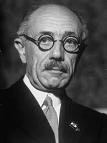



































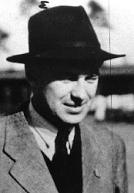

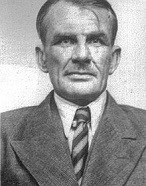

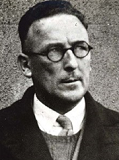








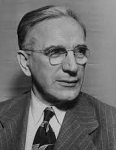









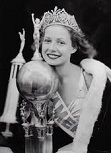








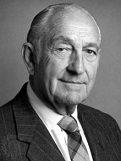






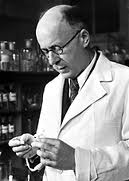





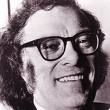







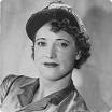
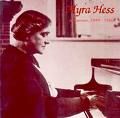
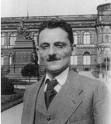

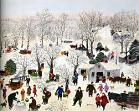


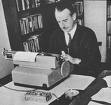
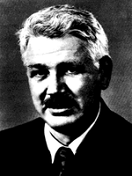


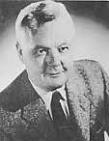
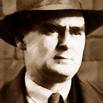


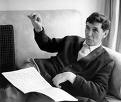







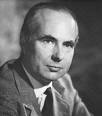




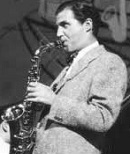

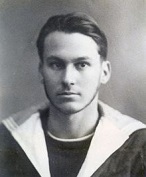

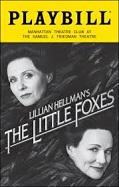
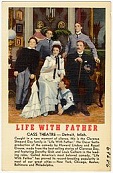

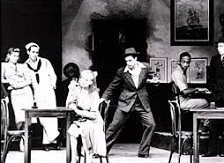

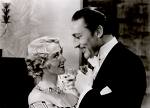



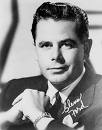
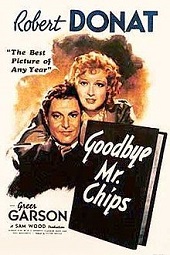
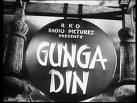
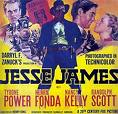

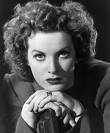

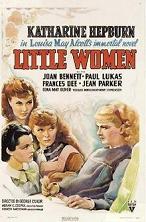



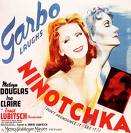
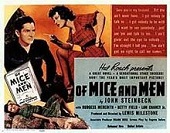
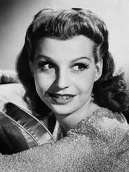

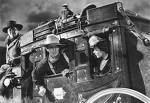









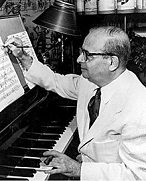
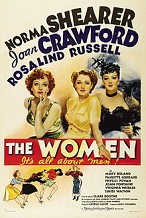
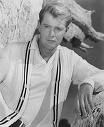




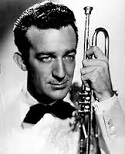

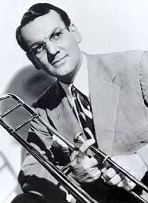
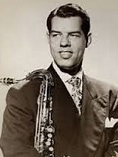






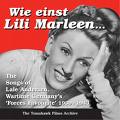

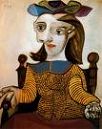

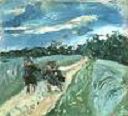







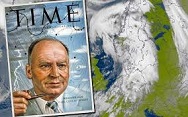



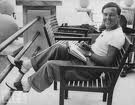




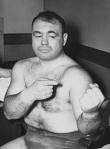


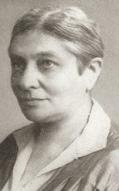







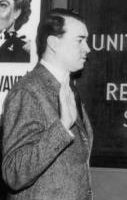


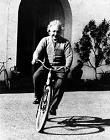
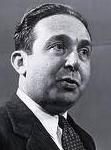





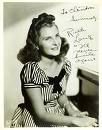







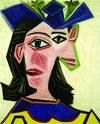
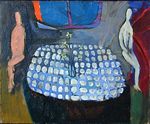



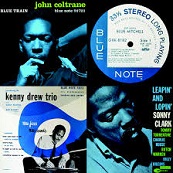
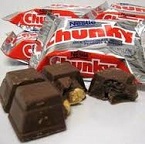


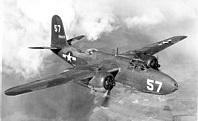


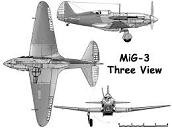
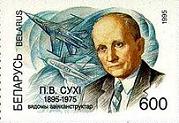
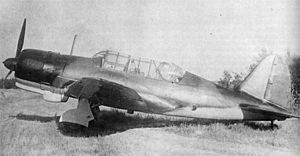
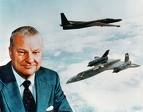
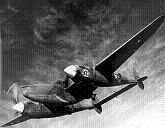
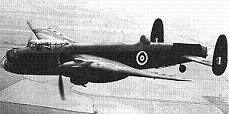

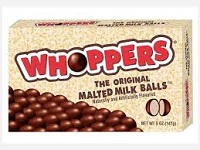
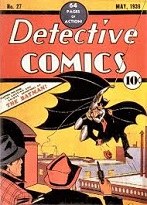
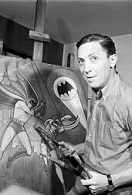
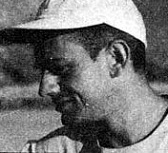
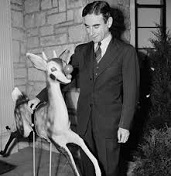
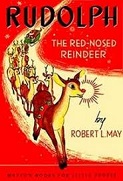
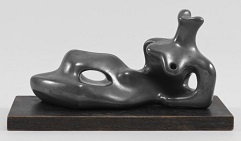
1939
Chinese Year: Rabbit - as in run, rabbit, run?
Time Mag. Man of the Year: Joseph Stalin (1879-1953) (1st time); next time 1942.
In 1939-45 the U.S. builds an avg. of 127 aircraft a day; Soviet Union: 62; Britain: 59; Germany: 46; Japan: 31; Italy: 4 (Allies: 248, Axis: 81);
the Soviet Union has 1M-2M trained parachutists; the Soviet Army has 21K battle-ready tanks (incl. 6,456 BT tanks) vs. 3,195 for Germany;
Stalin deliberately prepared
for WWII to bring a Commie Paradise to Europe, helping Germany rearm so they would chew up France and Britain
and soften them up for Commie takeover?; Red agitprop made the Red Army appear weak and outdated, when it was
in fact the best equipped in the world?; the surprise German attack on Stalin was initially successful because
Stalin was preparing for a surprise attack on them, and there were only offensive troops, with no defensive preparations?
India contributes
2.5M volunteer soldiers for WWII, losing 87K by 1945.
At the start of the war the French franc is valued at 38 to the U.S. dollar and 176.5 to the English pound sterling.
On Jan. 1 the Measure for the Elimination of the Jews from the German Economy
bans Jews from working with Germans, except as slaves - oh here it comes, the sinus pressure?
On Jan. 1 after flipping a coin to decide the name order, electrical engineers
William Redington "Bill" Hewlett (1913-2001) and
David Packard (1912-96) found the
Hewlett-Packard Co. (HP)
in a one-car garage at 367 Addison Ave., Palo Alto, Calif. with $538, getting their first breakthrough with a purchase of audio oscillators by Walt Disney Co.,
going on to incorporate in 1947 and go public in 1957; in 2002 it merges with Compaq; in 2008 it acquires EDS, giving it annual revenues of $118.4B and a
Fortune 500 ranking of 9 in 2009; on Nov. 1, 2015 it splits into HP Inc. and Hewlett Packard Enterprise.
they repurchase the garage in the year 2000 for $1.7M.
On Jan. 2 Filllmore, Utah-born New Dealer Culbert Levy Olson (1876-1962)
becomes Dem. Calif. gov. #39 (until Jan. 4, 1943), refusing to say "so help me God" during his oath of office because he is an atheist, instead saying "I will affirm";
he goes on to reverse the policies of conservative predecessor Frank Merriam, developing friendly relations with labor unions and pardoning labor activist
Tom Mooney while opposing the intrusions of the Roman Catholic Church in the state education system, causing them to help get his successor Earl Warren elected.
On Jan. 2 8-2 USC defeats 9-0 Duke by 7-3 to win the 1939 Rose Bowl.
On Jan. 5 Amelia Earhart is officially declared dead.
On Jan. 7 African-Am. singer Marian Anderson (1897-1993) becomes the first African-Am. to sing at the Met as Ulrica in
Verdi's "Un ballo in maschera"; in Feb. she is banned from singing at Constitution Hall in Washington, D.C. because of her skin color by the lily-white
Daughters of the Am. Rev. (DAR); a protest group led by First Lady Eleanor Roosevelt (who resigns)
arranges for a separate concert at the Lincoln Memorial on Apr. 9 (Easter Sun.) for an audience of 75K - singing the death knell to a pure white world?
On Jan. 7 NBC-Radio's Avalon Time debuts, hosted by
Richard Bernard "Red" Skelton (1913-97) and Blue Lick, Ky.-born
Clyde Julian "Red" Foley (1910-68), who becomes the first country music artist to host a network radio program.
On Jan. 12 the Army Council of the Irish Repub. Army (IRA) sends an ultimatum, signed by Patrick Fleming to British foreign secy. Lord Halifax, informing them that the
"Government of the Irish Republic" intends to go to war if Britain doesn't withdraw its armed forces from Ireland, with a 4-day waiting period; on Jan. 15 after no reply is received,
a war declaration is posted in public places throughout Ireland; on Jan. 16, 1939 the Irish Repub. Army (IRA) begins their
S-Plan (Sabotage/England Campaign) of bombing England, designed by IRA chief of staff
Sean Russell (1893-1940), ending on Mar. 18, 1940 after 300 explosions that kill 10 and injure 96.
On Jan. 13 after a stationary high pressure system over the Tasman Sea leads to a heat wave, the
Black Friday Bushfires in Victoria, Australia burn 4.942K acres, kill 71, burn 1.3K homes, 3.7K bldgs., and 69 sawmills.
On Jan. 14 Norway claims Queen Maud Land in Antarctica.
On Jan. 16 Superman debuts as a U.S. newspaper comic strip.
On Jan. 17 the German govt. issues an order forbidding Jews to practice as dentists, veterinarians, and chemists.
On Jan. 20 a constitutional congress in El Salvador abrogates the 1886 constitution and adopts a new govt. headed by Gen.
Andres I. Menendez.
On Jan. 20 Pres. Roosevelt gives his 1939 State of the Union Address to Congress, asking for $552M for defense.
On Jan. 23 the Dutch War Scare
sees German Adm. Wilhelm Canaris leak fake plans to invade the Netherlands in Feb. with the aim of using Dutch airfields to launch a strategic bombing offensive against Britain,
fooling it into changing its policies.
On Jan. 24-25 an 8.3 earthquake strikes Concepcion, Chile, killing 10K; heavy aftershocks follow on Jan. 30,
killing 30K, with 50K sq. mi. razed.
On Jan. 26 Gen. Franco with Italian aid and a nasty bombardment
conquers Barcelona,
causing the loyalist resistance to collapse, and 200K to cross the French frontier, where they are disarmed; within a couple of weeks
Franco overruns all of Catalonia - thath bah-thah-lone-uh with ah bee?
On Jan. 26 filming begins on Gone With the Wind after Warner Bros. queen Bette Davis turns down the part of Scarlett O'Hara because Errol Flynn would co-star as Rhett Butler,
and former box office queen Katharine Hepburn is labelled box office poison and turned down, causing her to respond, "Not everyone is lucky enough to understand how delicious it is to suffer";
Norma Shearer is selected then dumped after negative audience reaction to her famous cross-eyed stare.
On Jan. 27 Adolf Hitler orders Plan Z, a 5-year naval expansion program to create a huge German fleet capable of crushing the
Royal Navy by 1944, giving the Kriegsmarine top priority for German economic resources.
On Jan. 30 Hitler threatens the Jews with annihilation in a Reichstag Speech
announcing an "export battle" to increase German foreign exchange holdings, with the soundbyte
that if war breaks out, "The result will not be the Bolshevization of the Earth, and thus the
victory of Jewry, but the annihilation of the Jewish race in Europe."
On Jan. 30 after liberal Louis Dembitz Brandeis resigns, FDR appoints liberals
Felix Frankfurter (1882-1965)
(a Vienna-born Zionist from deliland New York) (until Aug. 28, 1962), followed on Apr. 17 by Minn.-born bankruptcy law expert
William Orville Douglas (1898-1980) (until Nov. 12, 1975)
to the U.S. Supreme Court as its 79th and 80th justices, finally giving it a 6-3 liberal majority, thanks to the death of
conservative member Pierce Butler (1923-39); only James C. McReynolds and Hoover appointees Charles E. Hughes and Owen J. Roberts
hold on for dear old conservatism.
In Jan. Reichsbank pres. (since 1933) Hjalmar Schacht is dismissed by Adolf Hitler, and replaced by
Walther Funk (1890-1960).
In Jan. Albany, Ga.-born jazz trumpeter
Henry Haag James (1916-83)
starts the big band Harry James and His Music Makers in Philly, financially backed by Benny Goodman, becoming
the first name band to hire Hoboken, N.J.-born singer ("Ol' Blue Eyes") ("the Chairman of the Board") ("the Wop")
Francis Albert "Frank" Sinatra (1915-98)
for $75/week after hearing him at his first important singing engagement at the
Rustic Cabin
nightclub in N.J., suggesting he change his name to Frankie Satin; on July 13 Sinatra records his first song
From the Bottom of My Heart
for Columbia Records, followed on Sept. 17 by
All or Nothing at All;
too bad, the band doesn't click until he adds a string section in 1941, taking over for Glenn Miller in 1942
after he disbands his orchestra to join the U.S. Army, then calls it quits in 1946.
On Feb. 2 Hungary joins the Anti-Comintern Pact.
On Feb. 6 the Spanish govt. flees to France along with Pres. Manuel Azana.
On Feb. 6 British PM Neville Chamberlain gives a
speech
in the House of Commons, warning that any German attack on France will be automatically considered
an attack on Britain.
On Feb. 6 German foreign minister Joachim von Ribbentrop responds to a Jan. 26 speech by Georges Bonnet,
referring to his alleged statement of last Dec. 6 accepting Eastern Europe as being in Germany's exclusive sphere of influence and warning that all French security commitments in that region
are "now off limits", leading to a pissing contest over just what he really said.
On Feb. 10 Pope (since 1922) Pius XI (b. 1857) dies, leaving the anti-racist encyclical Humani Generis Unitas
(The Unity of the Human Race) explicity condemning Nazi anti-Semitism unsigned, and on Mar. 2 Cardinal (since 1929) (papal secy. of state and chief advisor to Pius XI)
Eugenio Pacelli is elected Pope (#260) Pius XII (1876-1958);
he is formally crowned on Mar. 12, setting his prime objects as 1: a new translation of the Psalms, 2: a definition of the Dogma of the Assumption, and 3. excavations under St. Peter's Basilica in Rome
to find out if St. Peter is actually buried there; a confusing mixture of black and white comes out of the chimney of the Sistine Chapel after his election, raising eyebrows, later remembered after the
smoke incident during the 1958 election of modernist pope John XXIII.
On Feb. 13 liberal justice (since June 1, 1916) Louis Dembitz Brandeis resigns; on Feb. 27 the U.S. Supreme Court rules 5-2 in
NLRB v. Fansteel Metallurgical Corp.
that the Nat. Labor Relations Board (NLRB) can't order employees to rehire workers fired after a sit-down strike, the union favorite.
On Feb. 14 the German battleship Bismarck is launched.
On Feb. 22 the Netherlands recognizes the Franco regime in Spain, followed by Great Britain and France on Feb. 27; on Feb. 28 Pres. Azana resigns in exile in Paris.
On Feb. 23 the 11th Academy Awards awards the best picture Oscar for 1938 to Columbia's You Can't Take It With You
along with best dir. to Frank Capra, best actor to Spencer Tracy for Boys Town, best actress to Bette Davis for Jezebel, best supporting actress to
Fay Bainter for Jezebel, and best supporting actor to Walter Brennan (his 2nd) for Kentucky; child stars Deanna Durbin and Mickey Rooney get a special Oscar;
Fay Bainter becomes the first performer to be nominated for best actress ("White Banners") and best supporting actress ("Jezebel").
On Feb. 27 British PM Neville Chamberlain recognizes the Spanish govt. of Gen. Franco.
In Feb. the U.S. Wagner-Rogers Bill
proposes admitting 20K refugee Jewish children to the U.S., but it dies in committee in June - and so do the children?
In Feb. Princeton Inst. for Advanced Study founding dir. (1930-9) Abraham Flexner (1866-1959)
pub. the article The Usefulness of Useless Knowledge, dissing the New York World's Fair for featuring crap like automatic dishwashers,
air conditioners and fax machines, instead praising great scientists who are not concerned about the immediate usefulness of their discoveries.
On Mar. 2 Mass. finally ratifies the Bill of Rights 150 years after the birth of the U.S. govt.; Ga. (Mar. 18) and Conn. (Apr. 19),
the last states to hold out also finally accept it this year - maybe a peek at Hitler put a candle under their pants?
On Mar. 2 the Nicaraguan assembly rubber stamps, er, approves a new
1939 Nicaraguan Constitution,
and reelects dictator Gen. Somoza, replacing congress as the legislative body until May 1, 1947.
Maybe a little March madness will bring sanity to the nation?
On Mar. 3 the Goldfish Swallowing Craze
begins at Harvard U. when freshman Lothrop Withington Jr. swallows one on a $10 bet and it spreads across college campuses nationwide; a Middlesex College
student downs a record 67 this year, which isn't beaten until 1967, when a St. Joseph's College undergrad downs 199.
On Mar. 4 a Communist military coup in Madrid is led by Juan Negrin and Gen.
Segismundo Casado Lopez (1893-1968); on Mar. 7-8 the Communists are defeated
in Madrid by the Repub. First Corps under Gen. Luis Barcelo; causing suspected Stalin puppet PM Juan Negrin and his colleagues, to flee
to France on Mar. 12; on Mar. 27 the Nationalist army enters Madrid after a 3-year siege.
On Mar. 6 after Patriarch Cristea dies, Dracula-lookalike
Armand Calinescu (1893-1939)
becomes PM of Romania, but is assassinated by the Iron Guard on Sept. 21 in Bucharest, creating a cabinet crisis; he is succeeded by Gen.
George Argeseanu, then on Sept. 28 by
Constantine Argetoianu,
then on Nov. 24 by former PM (1933-7) Gheorghe Tartarescu (until July 4, 1940),
who seeks an alliance with the Romanian Communist Party in opposition to Ion Antonescu's dictatorship.
Hitler remodels his living room?
On Mar. 10 Slovakian PM Joseph Tiso is deposed by Prague, causing him to appeal to Hitler, who summons Czech. pres. Emil Hacha and foreign
minister Frantisek Chvalkovsky to Berlin, and tells them to "place the fate of the Czech people... trustingly in the hands of the Fuhrer"; on
Mar. 14 the Repub. of Czecho-Slovakia is dissolved, and Slovakia and Carpatho-Ukraine (Ruthenia) declare independence; on Mar. 15-16 Germany
occupies
the country in violation of the Munich Agreement, claiming the right for Germans to have Lebensraum (living room) (until May 8, 1945); on
Mar. 15 Bohemia and Moravia become a German protectorate, and Tiso puts Slovakia under German protection; former German minister Konstantin
von Neurath becomes protector of Bohemia and Moravia, and Hitler leaves Hacha as "head of state", removing Rudolf Beran as Czech PM on Apr. 27.
On Mar. 13-23 mountain man Walter Earl Durand (b. 1913),
son of a Wyo. farmer goes on a rampage in Wyo. after he is arrested for poaching, then escapes, kills two deputies, kills two more men chasing him,
and finally is killed by high school boy Tip Cox during a bank robbery, during which he kills one more.
On Mar. 14 the state of Ala.
adopts the motto "Audemus jura nostra defendere" (We dare defend our rights), which has been depicted on their coat of arms since 1923.
On Mar. 18 Hollywood actors Clark Gable (1901-60) and
Carole Lombard (1908-42) marry in Kingman, Ariz., then stay at the
Oatman Hotel for their honeymoon before returning to Hollywood.
On Mar. 21 Ghandi calls on the world to disarm, thinking that Hitler would have to follow, even though he would hold five aces to a worldwide bust hand?
On Mar. 22-23 Germany marches into Klaipeda (Memel) in Lithuania.
On Mar. 25 Billboard mag. introduces the Hillbilly (Country) Music Chart.
Here comes the Sun, or, You're the one that I want, ooh-hoo-hoo?
On Mar. 27 after Nationalist Gen. Emilio Mola y Vidal (1887-1937)
announces that Franco's forces are advancing on Madrid in four columns, and that a "fifth column" of sympathizers is waiting in the city
(causing the phrase to catch on), loyalist-held Madrid surrenders, followed on Mar. 30 by Valencia, and the Spanish Civil War (begun July 17, 1936)
ends after nearly 1M deaths, incl. 700K lost in battle, 30K executed or assassinated, and 15K killed in air raids; "Caudillo" (Spanish for Fuehrer)
Franco becomes "supreme chief, responsible only before God and history", ruling with an iron hand, ending civil rights and eliminating all opposition
while giving the Church and landed aristocrats all they want; on Apr. 1 the U.S. recognizes the govt. of Gen. Franco, who announces the end of the
Spanish Civil War; Pope Pius XII congratulates and blesses Franco's Holy V; the Repub. fleet escapes from Cartagena and takes refuge in the
Tunisian port of Bizerte, where the French intern it; the new regime's policy is "peace with honor", but the Communists begin a civil war in
Madrid, which is quashed, followed by a failed attempt to compromise with Gen. Franco, who forces unconditional surrender;
Franco's govt. sets up special tribunals that convict hundreds of loyalist leaders, thumbing their noses at Britain and France?
On Mar. 31 Britain and France agree to support Poland if Germany threatens to invade, ending the British policy of appeasement.
In Mar. the German Luftwaffe begins a bombing campaign on Coventry, England (pop. 238K) (ends Aug. 3, 1942) to knock out its munitions factories,
dropping 198 tons of bombs in Aug.-Oct. that kill 176 and injure 680.
In Mar. Sir Alec Seath Kirkbride (1897-1978) becomes British resident advisor in Amman, Jordan.
In Mar. blonde Tenn.-born Jewish-Am. singer Dinah (Frances Rose) Shore (1916-94)
debuts on CBS Radio with Ben Bernie's Orchestra, then moves to NBC Radio next year on "The Chamber Music Society of Lower Basin Street",
singing Dixieland and blues songs, featuring her starting a fire by rubbing two notes together, after which Eddie Cantor signs her for his
radio show in 1940, and she gets her own radio show in 1943, branching into acting and USO work during WWII; too bad, something about her
odd facial features, incl. big lips and Southern drawl causes racist rumors that she's hiding African blood, although it might actually be ignorance
of her Russian Jewish descent combined with the Old South slave name Dinah making people think her mammie's black?; when she goes out with the
much younger horndog Burt Reynolds from Jawjah in the 1970s, that cinches it? :)
On Apr. 2 Adolf Hitler orders
his generals to make plans for the invasion of Poland.
On Apr. 3 Iraqi king (since Sept. 8, 1933) Ghazi I (b. 1912) is killed in a car accident, and on Apr. 4 is succeeded by his infant son
Faisal II
(1935-58) (until July 14, 1958); Anglophile PM Nuri as-Said is widely suspected
of staging the death, Iraqi crowds shouting "You will answer for the blood of Ghazi",
and he goes on to get puppet regents installed; too bad, after the fall of France
in 1940 his main military man Col. Salah al-Din al-Sabbagh goes pro-German, leaving him
in the lurch.
On Apr. 5 membership in the Hitler Youth becomes mandatory.
On Apr. 6 Poland and Great Britain sign a military pact.
On Apr. 7 Italy invades Albania, which offers only token resistance; less than a week later Italy annexes it; on Apr. 8 King Zog I flees.
On Apr. 7 Australian PM (since 1931) Joseph A. Lyons dies, and is succeeded by
Sir Earle Christmas Grafton Page (1880-1961)
as PM #11 of Australia; as quick as opening presents, on Apr. 26 Sir
Robert Gordon Menzies (1894-1978) becomes PM #12 (until Aug. 29, 1941).
On Apr. 7 Spain announces its adherence to the German-Italian-Japanese Anti-Comintern Pact.
On Apr. 11 Hungary leaves the League of Nations.
On Apr. 13 Britain and France guarantee Romanian and Greek independence following Italian conquest of Albania and rumors of a German ultimatum
to Romania; the Romanian govt. plays both sides of the street by concluding a commercial agreement with Germany.
Get your updated homemade homegrown Bibles, right here?
On Apr. 14 (74th anniv. of Lincoln's assassination) the bestselling novel
The Grapes of Wrath
by Am. writer John Steinbeck (1902-68) (based on articles written for the San Francisco News)
is pub., causing a political storm comparable to Harriet Beecher Stowe's 1852 Uncle Tom's Cabin.
On Apr. 14 Pres. Roosevelt writes Hitler and Mussolini a letter
begging them to not start a *!?!! war and requesting assurances on 31 named nations while suggesting armaments reduction discussions; Hitler
rejects his offer on Apr. 28 in a speech at the Kroll Opera House,
claiming that Poland actually threatens Germany, and summarily revoking the Polish-German non-aggression pact; he justifies the conquest of Czech. by
claiming they have WMD (munitions), and that if Germany doesn't get control of them there would be "the danger of immense explosions"?
On Apr. 16 Stalin signs a pact with Britain and France.
On Apr. 18 Franz von Papen becomes the German ambassador to Turkey.
On Apr. 18 after a cabinet crisis in Feb.-Mar. and elections on Apr. 2,
Hubert Pierlot
(1883-1963) forms a Catholic Liberal govt. in Belgium.
On Apr. 20 Herr Joseph "junk the useless eaters" Goebbels gives a
speech
honoring Herr Hitler on his 50th birthday; pro-Fascist Archbishop (since 1922)
Cesare Vincenzo Orsenigo (1873-1946), papal nuncio in Berlin (1930-45) holds a
warm reception for Hitler, who is allegedly a
good Roman Catholic,
albeit a little too obsessed with the political consequences he's drawn from godless Darwinism?;
Orsenigo goes on to stink up the Roman Catholic Church, playing footsie with the Holocaust.
Call 1-800-GENERAL now?
On Apr. 24 after deciding that democracy sucks, Lt. Col. German (Germán) Busch assumes dictatorial powers in Bolivia, dissolves Congress and suspends the
constitution; despite the rather obvious name and German ancestry, and the fact that the Bolivian army is filled with German advisers, he vigorously denies all
connection with German, er, European totalitarianism; on Aug. 23 he is found dead of a bullet wound to the right temple, and is officially announced to have
committed suicide; conservative-backed Gen. Carlos Quintanilla Quiroga (1888-1964)
assumes the presidency "by vote of the generals and officers of the La Paz garrison" (until 1940), and reestablishes the 1938
constitution but announces martial law until new elections are held in 1940, using the breathing space to retrench the oligarchy and dipose of
or expel leftist leaders, plus rightist rival Gen. Bernardino Bilbao Rioja (1895-1983)
(the first South Am. gen. to use air power in combat), who is exiled to Chile.
On Apr. 26 conscription is introduced in England.
On Apr. 27 the British govt. begins conscription for men ages 20-21 in order to increase the forces by 300K.
On Apr. 30-Oct. 31 the 1939-40 New York World's Fair
in Flushing Meadows-Corona Park, N.Y. (largest since the St. Louis World Fair of 1904), billed as a look at "the world of tomorrow", with the opening slogan "Dawn of a New Day"
is attended by 44M; George VI becomes the first British monarch to set foot on U.S. soil when he visits it (did they X-ray him?);
television is first broadcast publicly from the
Empire State Bldg. by NBC-TV during the inauguration by RCA, with commentary by
Benjamin Franklin "Ben" Grauer (1908-77); AT&T presents its first
picturephone;
the Futurama exhibit of General Motors is
designed by Norman Bel Geddes (1893-1958)
(father of "Miss Ellie in Dallas" Barbara Bel Geddes), who calls it the "Metropolis City of 1960" (causing an eerie connection with the 1963 JFK assassination?); Westinghouse exhibits
Elektro, a 7 ft. 260 lb. mechanical man with 24.9K mi. of electrical internal wiring, which can perform 24 feats such as
walk, smoke, and count on his fingers (all lamely?); Mayor Fiorello LaGuardia mandates that the city's nude dancers cover up their vaginas during the fair, becoming the start of the G-string and thong;
Ray Middleton becomes the first actor to portray Superman in public.
In Apr. IRA chief of staff Sean Russell (1893-1940) visits the U.S. to stir up public support for militant Irish nationalism,
getting trailed all the way by the FBI at the request of Scotland Yard, who get him detained by the U.S. Immigration Service at the Detroit, Mich. border with Windsor, Ont. during the visit of
British king George VI, pissing-off Irish-Ams. and causing a protest by 76 Irish-Am. members of Congress, who boycott the Congressional reception for George VI after Pres. Roosevelt refuses to explain;
Russell is then smuggled aboard the steamer George Washington to Genoa, Italy on May 1, followed by Berlin on May 5, and informed of
Operation Mainau, a plan to parachute German spy
Hermann Goertz (Görtz) (1890-1947) into Ireland, failing to brief him on Ireland after missing his takeoff from Kassel-Fritzlar Airfield;
Russell then begins training with the Abwehr on the use of advanced explosives disguised as as everyday objects, and on Aug. 8 departs Berlin from Wilhelmshaven aboard German U-boat U-65 with
fellow IRA man Frank Ryan (1902-44), leader-founder of the failed Marxist
Repub. Congress in 1934-6; too bad, Russell suffers a burst gastric ulcer and dies on board on Aug. 14 100 mi. from Galway, becoming
an Irish repub. hero to the IRA and Sinn Fein; in Sept. 1951 a memorial to Russell is erected in Fairview Park in Dublin, which later pisses-off people who accuse him of being a Nazi collaborator,
causing the statue to repeatedly be vandalized;
"I don't know what was in the depth of Seán Russell's thinking down the years, but I am sure he was never far from Pearse's own position, who said, as a patriot, preferring death to slavery, I know
no other way. There are things worse than bloodshed, and slavery is one of them. We are not and will not be slaves." (Provisional IRA army council member Brian Keenan, Sept. 2003); meanwhile in
May 1940 Goertz parachutes into Ballivor, County Meath, Ireland, staying in safe houses in Dublin while with making contact with former IRA leader and explosive expert (Agent V-Held)
Seamus (James) "Jim" O'Donovan (1896-1979) to plan for IRA assistance during their planned occupation of Britain;
too bad, German-descent IRA member Stephen Carroll Held is caught red-handed with his parachute and papers, incl. detailed plans for
Plan Kathleen (Artus Plan), an IRA invasion of Northern Ireland with German assistance, leading to Goertz's capture in Nov. 1941 after 18 mo.;
he commits suicide with a vial of cyanide on May 23, 1947 to avoid deportation; on June 10, 1944 Ryan dies in a hospital in Loschwitz, Dresden, German while acting as a go-between between the
IRA and Abwehr.
On May 1 Konrad Ernst Eduard Henlein (1898-1945) becomes Reichsstatthalter and Gauleiter of Reichsgau Sudetenland
in Bohemia and Moravia, going on to become one of the milder Nazis, who enjoys personal protection by Hitler; on May 10, 1945 he commits suicide in an Allied internment camp.
On May 1 the first Batman comics (in Detective Comics #27) hit the street.
On May 2 after asking himself to be benched on Apr. 30, New York Yankees 1B baseball player
Henry Louis (Ludwig Heinrich) "Lou" Gehrig (1903-41),
"the Iron Horse" asks to be taken out of the starting lineup in a game where the Yankees defeat the Tigers 22-2; he had played 2,130
consecutive games since June 1, 1925, with a .340 batting avg. and 1,995 driven-in runs; he is replaced by
Ellsworth Tenney "Babe" Dahlgren (1912-96); on
June 21 he is diagnosed at the Mayo Clinic with fatal amyotrophic lateral sclerosis (ALS), the disease that
later bears his name, and on July 4 (Lou Gehrig Appreciation Day) he delivers his
farewell speech
at Yankee Stadium to 61,808 fans between games of a doubleheader against the Washington Senators, with the soundbyte
"Today I consider myself the luckiest man on the face of the Earth"; he becomes the first ML player
to have his number (#4) retired.
On May 5 Hungary decides to reduce the Jewish role in their economy to 6% - same as sales tax?
On May 8 the cabinet decides to change the name of Siam to Thailand.
On May 9 the Roman Catholic Church beatifies the first Native American, Kateri Tekakwitha (1656-80).
On May 11-Sept. 16 after Japan claims the Khalka River (Khalkhyn Gol) as the border between Manchuria (Manchukuo) and Mongolia, while the Soviets and Mongolians claim it as the
village of Nomonhan 16 mi. to the E, the Battle of Khalkhin Gol (Nomonhan Incident) along the Khalkha River (Khalkhyn Gol) on the
Mongolian-Manchurian border sees Soviet troops under Gen. Georgi Zhukov deliver a decisive defeat to the Japanese Sixth Army in Inner Mongolia.
On May 12 an Anglo-Turkish mutual assistance pact is announced.
On May 13 the first U.S. hail death
in Nat. Weather Service records occurs near Lubbock, Tex. when a 39-y.-o. farmer is caught in the open during a hailstorm.
On May 15 the Ravensbruck Camp
for women is established 50 mi. N of Berlin; German gynecologists use their big chance to experiment with abortion and forced sterilization - seeding the wombs personally?
On May 15 the U.S. Supreme (Hughes) Court rules 8-0-1 (William O. Douglas) in
U.S. v. Miller
that the federal govt. has the right to issue firearms regulations incl. the 1934 U.S. Firearms Act covering weapons that do not have "some reasonable
relationship to the preservation of efficiency of a well regulated militia", citing a short-barreled shotgun, which backfires when it is later discovered
that they are commonly used in warfare, becoming a V for both sides of the gun debate, but mainly the pro side.
On May 16 the first food stamps
are issued in the U.S. in Rochester, N.Y. (until spring 1943).
On May 16 London stockbroker (converted Jew)
Nicholas "Nicky" Winton (Wertheim) (1909-)
writes a letter to Pres. Roosevelt urging him to allow Jewish refugee children from Czech. to emigrate to the U.S.; on June 7 U.S. London embassy official
Rudolf E. Schoenfeld responds that the U.S. govt. "is unable, in the absence of specific legislation, to permit immigration in excess of that provided by
existing immigration laws."
On May 17 George VI and Queen Elizabeth arrive in Quebec on the first visit to Canada by reigning British sovereigns, arriving on June 8,
and leaving on June 11 to visit the U.S.
On May 17 the British govt. pub. the
Woodhouse Partition Plan for Palestine
for separating the Arab and Jewish pops. after negotiations with Arabs and Jews fall through; the 1936-9 Arab Revolt in Palestine ends with
over 10% of the adult male Palestinian Arab pop. between ages 20-60 killed, wounded, imprisoned, or exiled, i.e., up to 5K killed and 15K wounded,
vs. up to several hundred Jews killed.
On May 17-June 10 the 1939 British Royal Tour of North Am.
sees George VI and Queen Elizabeth tour Canada and the U.S., pissing-off Adolf Hitler, who calls Elizabeth "the most dangerous woman in Europe";
her royal wardrobe is designed by close gay London fashionista Norman Bishop Hartnell (1901-79).
On May 17 the first televised baseball game,
the 2nd game of a double header between Columbia U. and Princeton U. at Columbia's Baker Field
is broadcast by NBC to 400-odd TV sets by sportscaster Bill Stern (1907-71); on
Sept. 30 the first college football game to be televised is shown on experimental station
W2XBS
in New York as Fordham U. defeats Waynesburg College 34-7 in Triboro Stadium on
Randalls Island; on Aug. 26 the first televised ML baseball games are shown on W2XBS,
a double-header between the Cincinnati Reds and the Brooklyn Dodgers at Ebbets Field,
announced by Walter Lanier "Red" "the Ol' Redhead" Barber (1908-92);
the Reds win game #1 5-2, the Dodgers win game #2 6-1; on Oct. 22 NBC televises its first
ML baseball game
from Ebbets Field in Brooklyn, N.Y.; there are only about 400 TV sets in operation in the New York area.
On May 19 Churchill signs a British-Russian anti-Nazi pact.
On May 20 regular transatlantic airmail service begins as the Pan American Airways
Yankee Clipper
(Boeing 314 Flying Boat, with 14-cylinder double-row Wright Cyclone engines which run on 100-octane fuel) takes off from Port Washington,
N.Y. for Marseille, France, landing 29 hours later; on June 28 the
Dixie Clipper
begins regular passenger service from New York City to Southampton, England, for $375 each one-way, $675 round-trip.
On May 20 a victory parade in Madrid signals the withdrawal of 10K German and 40K Italian troops from Spain.
On May 22 Hitler and Mussolini sign the
Pact of Steel,
committing Germany and Italy to a military alliance and forming the Axis powers; ironically, Italy assumes that they would be given
three years till the outbreak of a new war to restock supplies lost during the Spanish Civil War.
On May 23 the sub USS Squalus
sinks off the coast of N.H.; a diving bell designed by
Charles "Swede" Momsen (1896-1967)
saves 33 of 59 aboard, becoming the first undersea sub rescue.
On May 23 the British Parliament decides to make Palestine independent by 1949.
On May 23 Hitler proclaims that he wants to move into Poland for a little lebensraum, and orders his high command to prepare to invade it.
In May Batman (originally Bat-Man)
debuts in Detective Comics #27, created by artist
Bob Kane (Robert Kahn) (1915-98) and writer
Milton "Bill" Finger (1914-74),
becoming so popular that it is given its own comic book title next year.
On June 1 the Douglas DC-4 Skymaster
makes its first passenger flight from Chicago to New York City.
On June 1 the sub HMS Thetis
sinks on her first dive in Liverpool Bay, England, killing 99.
On June 2 the Cuban Navy escorts the Jewish refugee ship "voyage of the
damned" St. Louis,
carrying 937 Jewish passengers fleeing the Nazis out of Havana Harbor; the refugees are later accepted by Belgium, Holland, France, and Britain;
meanwhile in May the British Parliament approves a British White Paper
restricting Jewish immigration to Palestine over the next five years to 75K,
causing the Aliyah Bet (Heb. "Ascent B") of illegal Jewish immigration to Palestine to begin
(until May 14, 1948), which the Brits try to stop with a
naval blockade
of the Palestine coast involving 100K troops and a network of coastal radar stations and long-range patrol planes; captured refugees are
put in British prison camps in Palestine, Cyprus, and Kenya; 100K attempt to enter Palestine on 142 voyages in 120 ships, with 50K+ stopped, and 1.6K
drowned at sea; on Aug. 3 the 1.5K-ton Tiger Hill
sails from Constanta with 750 immigrants, and on Sept. 1 it is fired on by British gunboats off Tel Aviv and beached; on Oct. 3 the steam riverboat
Uranus
carrying 1.1K immigrants sails down the Danube River from Vienna, and is stopped at the Romanian border and ordered to disembark in
Kladovo, Yugoslavia; 915 end up getting caught and killed by the Nazis.
On June 3 Beer Barrel Polka
by German bandleader-accordionist Will Glahe (Glahé) (1902-89) hits #1 on the U.S. pop singles chart.
On June 5 the U.S. Supreme (Hughes) Court rules 7-2 in
Coleman v. Miller
that unless Congress sets a deadline, a proposed constitutional amendment is still pending before the state legislatures, covering the 1789
Congressional Apportionment Amendment, the 1810 Titles of Nobility Amendment, the 1861 Corwin Amendment, and the 1789 27th Amendment (ratified on May 7, 1992);
it also rules that only Congress can decide whether an amendment has been ratified.
On June 7 King George VI and his wife Queen Elizabeth arrive at Niagara Falls, N.Y. from Canada on the first visit to the U.S. by a reigning
British monarch; on June 11 they taste their first hotdogs at a party held by FDR.
On June 17 Sweden, Norway, and Finland reject a German offer of a mutual non-aggression pact (spawned by a letter by FDR to Hitler suggesting that
they feel threatened), preferring rigid neutrality; Denmark, Estonia, and Latvia accept the offer.
On June 19 the city of Atlanta, Ga. enacts the first legislation in the U.S. prohibiting the use of pinball machines, with a penalty of $20 fine
and 30 days work sentence.
On June 24 Pan Am makes its first U.S.-to-Britain flight.
On June 20 the HE-176,
the first jet plane is test-flown at Peenemunde, then demonstrated for Hitler on July 3.
In June France cedes the Hatay region around Alexandretta and Antioch to Turkey,
pissing-off the Syrians, who stage nationalist demonstrations, causing the French high commissioner to suspend the Syrian constitution along with the Syrian regime put in power in 1936.
On June 30 the half-hour radio dramatic anthology series Philip Morris Playhouse
debuts on CBS Radio (until Feb. 18, 1944), then again on Nov. 5, 1948 (until July 29, 1949), then again on Mar. 15, 1951 as "Phillip Morris Playhouse on Broadway" (until Sept. 11, 1951), then back to NBC
until Jan. 13, 1952, when it returns to CBS (until Sept. 2, 1953); a TV version debuts on CBS-TV on Oct. 8, 1953-Mar. 4, 1954.
In June the White House Concert of Am. Music,
arranged by Charles Seeger and Adrian Dornbush is attended by George VI and Queen Elizabeth of England (first visit by a reigning British monarch and his consort to U.S. soil),
featuring Kate Smith, Marian Anderson, Lawrence Tibbett, Samantha Bumgarner, Josh White, Lily May Ledford and the Coon Creek Girls, and Alan Lomax.
By June 309K Jews from the German Reich have applied for asylum in the U.S., vying for 27K slots available
under the combined German-Austrian-Czech. quota.
In June-Aug. Britain, France, and the Soviet Union negotiate a "peace front" to block further Nazi expansion, but a deadlock results after Stalin insists on the right to
send troops through Poland in case of German aggression.
In the summer the allied nations begin shipping their gold reserves to a new safe vault (built 1936) in Fort Knox, Ky.,
giving it a total of 650M oz., most of the world's supply; after Pearl Harbor the Library of Congress sends valuable documents there stored in copper-lined oak cases, incl. the DOI,
Constitution, Gutenberg Bible, Magna Carta, Gettysburg Address, Articles of Confederation, and Lincoln's Inaugural Addresses.
On July 3 the radio program Blondie,
based on the comic strip debuts (until 1950); each episode begins with the announcer saying, "Ah-ah-ah, don't touch that dial."
On July 4 Nazi thugs beat up the Archbishop of Vienna (since 1932)
Theodor Innitzer (1875-1955) - did they use the word "crap"?
On July 6 U.S. Rep. (D-Mass.) (1928-71) John William "Old Jawn" McCormack (1891-1981)Speech on a Jewish Homeland in Palestine,
dissing the 1939 British White Paper restricting Jewish immigration and calling for a permanent Jewish nation.
On July 7 FDR orders U.S. rear Adm. Richard E. Byrd to make his
Third Antarctic Expedition
in order to head off German claims, and he leaves in Oct., arriving at
Little America next Jan., and making four exploratory flights in 5 mo., discovering
Thurston Island,
several mountain ranges, and 150K sq. mi. of new territory.
On July 18 Edwin Howard Armstrong starts the first FM radio station in Alpine, N.J.,
building a 425-ft. tower, which New York City broadcasters later rush to install their
antennas on after the 9-11-2001 World Trade Center attack.
On July 23 Mahatma Gandhi writes a letter
to Adolf Hitler, addressing him "Dear friend", with the soundbyte:
"It is quite clear that you are today the one person in the world who can prevent a war which
may reduce humanity to a savage state. Must you pay that price for an object however worthy
it may appear to you to be? Will you listen to the appeal of one who has deliberately shunned
the method of war not without considerable success? Any way I anticipate your forgiveness, if
I have erred in writing to you."
On July 25
Tuzigoot (Apache "crooked water") Nat. Monument
in Ariz. is established.
On July 27 the first recorded snowfall in
Auckland, New Zealand
since records began in 1853 occurs.
On July 31 U.S. Supreme Court Louis D. Brandeis
meets
with Am. Zionist leaders, who tell him that importing undocumented European Jews
to Palestine isn't illegal according to the British Mandate no matter how the
British govt. views it; in Dec. the Irgun leases Turkish coal carrier
SS Sakarya,
loading it in the Danube River with 2.3K Jewish refugees, but after learning its
destination the owners demand $10K insurance against impounding by the British,
causing Am. Jewish fatcats Lucius Littauer and David donneger to donate funds,
and next Feb. 1 the ship leaves Sulina, reaching Haifa on Feb. 13.
In early Aug. Italian Count Galeazzo Ciano holds secret conferences with Nazi leaders
about Poland.
On Aug. 2 after Hungarian-immigrant Jewish physicists
Leo Szilard (Leó Szilárd) (1898-1964)
(who had produced a nuclear chain reaction in his lab at Columbia U.) and
Eugene Paul Wigner (1902-95)
(both of whom are put up to it by Niels Bohr) drive to the summer vacation cottage
on Old Cove Rd. on Nassau Point in Cutchogue, Long Island (sunniest spot in N.Y.) of
pipe-smoking bike-riding Albert Einstein
(1879-1955) to persuade him to help the U.S. develop the atomic bomb
in the fear that Germany could build one first, asking directions of a
7-y.-o. boy on the street to find him, Szilard explains the concept of
a nuclear chain reaction to him, and replies "I never thought of that"
(Daran habe ich gar nicht gedacht), then signs the famous
Aug. 2, 1939 Letter to Pres. Roosevelt
urging the creation of an atomic weapons research program, which after
Jewish-Am. economist (friend of Einstein)
Alexander Sachs
(1893-1973) meets with FDR on Oct. 11 and delivers it becomes the Manhattan Project.
On Aug. 6 senior German military personnel meet in
Obersalzberg, Germany
to plan an invasion of Poland.
On Aug. 7 Hermann Goering's friend, Swedish businessman and amateur diplomat
Johan Birger Essen Dahlerus
(1891-1957) meets in his house in Schleswig-Holstein near the Danish border
with seven British businessmen, who tell him that Britain will stand by its treaty obligations to Poland.
On Aug. 11 Laurence Adolph Steinhardt
(1892-1950), former U.S. ambassador to Sweden (1933-7) and Peru (1937-9) is appointed U.S. ambassador to the Soviet Union (until Nov. 12, 1941).
On Aug. 19 Soviet commissar for foreign affairs Vyacheslav Mikhailovich Molotov (1890-1986) (replacing Maxim Litvinov,
whose Jewish background causes a problem when negotiating with Hitler, although he is appointed deputy foreign minister after the war with
Germany starts) outlines the Soviet requirements for a trade agreement to German ambassador Count
Friedrich Werner von Schulenburg (1875-1944), insisting on a special protocol defining the German and Soviet spheres of interest;
meanwhile after evaluating the pace of the non-aggression negotiations with the Soviet Union, Hitler orders the Kriegsmarine to begin the opening operations for
Fall Weiss (Plan White),
the invasion of Poland; the German pocket battleships Admiral Graf Spee and Deutschland
along with dozens of U-boats sail for their advance positions; Hitler spends the next few days worrying
that the Russians will not come to terms in time for the rest of the invasion plans to unfold as scheduled?
On Aug. 20 the Danzig-Polish Crisis begins (ends Sept. 1) when Nazi Danzig gauleiter
Albert Maria Forster (1902-52) publicly announces that the hour of deliverance is near.
On Aug. 21 Germany and the Soviet Union conclude a trade treaty,
startling the world; on Aug. 22 the British govt. reiterates its pledges to Poland, and appeals to Germany for a truce in Eastern Europe with negotiation of German claims.
On Aug. 22 Adolf Hitler allegedly utters the Armenian Quote
to Wehrmacht cmdrs. in his home in Obersalzberg: "Who still talks nowadays of the extermination of the Armenians?"
On Aug. 23 King Leopold III of Belgium issues an Appeal for Peace
on behalf of Belgium, the Netherlands, and the Scandinavian states, followed on Aug. 24 by another
Appeal for Peace by Pope Pius XII;
when it all proves of no avail Belgium mobilizes but proclaims neutrality in the Sept. 3 war.
On Aug. 23 the 10-year Nazi-Soviet (Molotov-Ribbentrop) Non-Aggression Pact (dated Aug. 23) is signed in Moscow by Soviet foreign minister
Vyacheslav Mikhailovich Molotov (1890-1986) and German foreign minister
Ulrich Friedrich Wilhelm Joachim von Ribbentrop
(1893-1946), dividing the states of N and E Europe into German and Soviet spheres of influence, and splitting Poland in two, pissing-off the West and causing the peace negotiations to be dropped;
it calls for mutual non-aggression, plus neutrality if the other party is attacked by a 3rd power; secret protocols, made public years later assign Finland, Estonia, Latvia, and Bessarabia to the
Soviet sphere of influence; Poland is partitioned along the rivers Narev, Vistula, and San; Germany retains Lithuania, enlarged by the inclusion of Vilnyus (Vilnius).
On Aug. 23 the British govt. begins printing 2.45M copies of their Keep Calm and Carry On
motivational poster to raise morale in the face of coming air attacks on major cities; too bad, they are kept in cold storage, and few survive.
On Aug. 24 after PM Nitwit, er, Neville Chamberlain hastily recalls it, the British Parliament approves the
Emergency Powers (Defence) Act of 1939,
giving the govt. power to create defense regs. covering virtually every aspect of everyday life; the Royal Navy is put on a war footing, all leaves are canceled, and the Naval and coast defense
reserves aree called up incl. radar and anti-aircraft units; the last British and French citizens in Germany are ordered home by their respective governments.
On Aug. 24 Pres. Roosevelt appeals to King Victor Emmanuel, Adolf Hitler, and Polish pres. (1926-39) Ignacy Moscicki for direct German-Polish negotiations; Poland agrees to third-party conciliation;
meanwhile Hermann Goering puts Birger Dahlerus on a plane to tell British foreign secy. Lord Halifax that Germany wants an understanding with Britain.
On Aug. 25 Britain and Poland sign an "ironclad guarantee" Mutual Assistance Treaty,
and the British parliament meets in special session and votes the govt. dictatorial powers;
meanwhile Poland calls up reserves, and the German Foreign Ministry cuts off all telegraph and telephone communication with the outside world in accordance with Fall Weiss; at approx. 18:30
Central European Time after receiving a message from Mussolini that he will not honor the Pact of Steel if Germany attacks Poland, and disappointed that Chamberlain's government has not fallen
as a result of the German-Soviet Non-Aggression Pact, Hitler postpones Fall Weiss (scheduled for Aug. 26 at 04:30) for five days; too bad, some units in forward positions don't get the message
and attack targets along the border.
On Aug. 25 (2:32 p.m.) an IRA bicycle basket bomb explodes in the center of Coventry, England, killing five and injuring 70.
On Aug. 25 the MGM musical The Wizard of Oz,
starring Judy Garland as Dorothy debuts at Grauman's Chinese Theater in Hollywood; it opens in New York City on Aug. 18; on Aug. 25 it is released in theaters nationwide.
On Aug. 26 the Kriegsmarine orders all German-flagged merchant ships to head to German ports immediately in anticipation of the invasion of Poland; meanwhile French PM Daladier
appeals to Hitler, receiving a reply on Aug. 27 reiterating his demands on Poland while pleading for German-French peace.
On Aug. 26 Yugoslavia finally grants Croatia a large degree of autonomy, and announces plans to reorganize Yugoslavia long federal constitutional lines; Croat leader Vladimir Macek is appointed vice-PM.
On Aug. 27 German envoy Birger Dahlerus meets in London with Neville Chamberlain, Lord Halifax et al., and gives Germany's offer for Danzig and a referendum on the Polish Corridor in exchange
for guaranteeing Poland's borders, which the Poles refuse; on Aug. 28 the British govt. replies, urging a truce and repeating warnings of British action in case of German aggression; on Aug. 29
Joachim von Ribbentrop presents British ambassador to Germany (since May 28, 1937) Sir
Neville Meyrick Henderson (1882-1942)
with Hilter's final demands in 16 points, refusing to negotiate and calling for the arrival of a Polish
plenipotentiary in Berlin within 24 hours (before Sept. 1); on Aug. 30 (p.m.) Polish ambassador (1934-9)
Jozef (Józef) Lipski (1894-1958)
telephones to arrange a meeting with Ribbentrop, and after admitting that he hasn't been granted
plenipotentiary authority, the meeting is refused; the Germans already knew it from intel;
German ambassador to Britain (since 1938)
Herbert von Dirksen (1882-1955)
tells Berlin that Britain will not honor the Anglo-Polish military alliance, and will back down
if Germany invades Poland, saying that Neville Chamberlain knows "the social structure of Britain,
even the conception of the British Empire, would not survive the chaos of even a victorious war",
hence would abandon its commitments to Poland, convincing Adolf Hitler that any German attack on
Poland would result only in a localized German-Polish war, not a world war; Dirksen was so
anti-Polish that he overstated his case, and after Britain declares war on Germany he is fired;
meanwhile British shipping is recalled from the Baltic and Mediterranean, emergency rationing
is introduced in Germany, and military preparations proceed on all sides.
On Aug. 27, 1939 the first
Turbojet Airplane,
the 4.4K-lb. German Heinkel He-178,
powered by a Heinkel S3B turbojet, designed by
Hans Joachim Pabst von Ohain (1911-98)
is test-flown at Marienehe in N Germany by pilot Capt.
Erich Warsitz (1906-83); on
Nov. 1 it is demonstrated to the German Air Ministry - if they hadn't yawned it off the war might
have turned out differently?
On Aug. 29 Chaim Weizmann informs England that Palestinian Jews will fight in the upcoming war.
On Aug. 30 the Poles partially mobilize.
On Aug. 30 a 6-man "cabinet council for defense of the Reich" is set up in Germany, with Hermann Goering as pres.
On Aug. 30 Adm. Isoroku Yamamoto (1884-1943) is appointed CIC of the Japanese fleet.
On Aug. 31 the Supreme Soviet ratifies the pact with Germany.
On Aug. 31 Operation Himmler (Konserve) (Canned Goods),
a false flag assault on a radio station in the frontier town of
Gleiwitz, Germany,
led by SS Maj. Alfred Helmut Naujocks
(1911-66) ("the Man Who Started WWII") sees Nazis shoot concentration camp prisoners
dressed as Poles as a political pretext for Germany to invade Poland the next day; on
Aug. 31 the German govt. pub. a moderate
16-Point Proposal
to Poland, but communications are cut off with Warsaw before it can be transmitted, and Hitler,
claiming his proposals have been rejected gives the order to march; on Aug. 31 the
British fleet mobilizes, and civilian evacuations of women and children from London begin.
In Aug. Marinegruppenkommando West
is established by the Germans to conduct naval ops in the Helgoland Bight, North Sea,
and Atlantic, with HQ in Sengwarden near Wilhelmshaven; next Aug. the HQ is moved
to the Place de la Concorde in Paris.
In Aug. the Slattery Report
is released by the U.S. Interior Dept., proposing that European Jews be allowed to emigrate
to Alaska; despite being supported by FDR it is turned down by Congress - too close to the mainland?
The only sane people left don't have critical mass?
In Aug. monarchist Prussian finance minister (1933-45)
Johannes Popitz (1884-1945),
businessman Erwin Planck (1893-1945)
(son of physicist Max Planck), and Reichsbank pres. (1933-9)
Hjalmar Horace Greeley Schacht (1877-1970)
(coiner of the term "Iran" for Persia, which he sold to the shah) approach gen.
Georg Thomas (1890-1946),
head of the Defence Economy and Armament Office, asking him to do something to thwart the outbreak
of war, getting him to write a memorandum to his superior Gen. Wilhelm Keitel, head of the
Oberkommando der Wehrmacht, claiming that a war against Poland would set off a world war that Germany
could not win owing to massive logistics problems; Keitel tries to allay Thomas' fears by telling him
that the Führer was planning no such war; next year Planck, Popitz, diplomat
Christian August Ulrich von Hassell (1881-1944),
and German chief of staff (1935-8)
Ludwig August Theodor Beck (1880-1944)
draft a provisional constitution on the assumption that the West will overthrow Hitler,
ending up getting executed for the July 20, 1944 Plot.

Is this where I come in? On Sept. 1 (4:40 a.m.) (dawn) (Fri.) World War II (ends Sept. 2, 1945) (#2 of ?) begins when Germany invades Poland in a blitzkrieg with 2K tanks and 1K planes, starting with salvos from the battleship SMS Schleswig-Holstein aimed at the Polish garrison in Gdansk (Danzig), while Albert Maria Forster (1902-52) proclaims the reunion of Danzig and Germany; at 8:00 a.m. Swedish diplomat Birger Dahlerus is told by Hermann Goering that Poland attacked Germany first, proving that "they never meant to attempt to negotiate"; at 12:30 p.m. Dahlerus telephones undersecy. Lord Cadogan in London, who submits his comments to the Cabinet, who reply that they will only negotiate after German forces withdraw from Poland; at 10 a.m. Adolf Hitler delivers his Happy to Invade Poland Speech at the Kroll Opera House, justifying his aggression as not really being that, with the soundbyte: "I am from now on nothing more than the first soldier of the Reich. I have once more put on the coat that was most sacred and dear to me. I will not take it off again until victory is assured, or I will not survive the outcome" - famous last words? On Sept. 1 about 20 min. after airing "Mickey's Gala Premiere", BBC-TV suspends operations for the imment outbreak of WWII. On Sept. 1 Finland announces its neutrality. On Sept. 1 an 8 p.m. curfew is announced for Jews in Germany. On Sept. 1 Britain and France mobilize while expressing readiness to negotiate if German forces are withdrawn from Poland; the British Expeditionary Force (BEF) arrives in France. On Sept. 1 Italy and Yugoslavia declare their intention of remaining neutral. On Sept. 1 Switzerland proclaims neutrality, while its parliament grants special wartime authority to the Federal Council as a precaution. On Sept. 1 the Dail of the Repub. of Ireland (Eire) meets, and on Sept. 2 declares a state of emergency; on Sept. 3 it enacts the 1939 Emergency Powers Act, declaring neutrality, with harsh wartime economic conditions stoking anti-British sentiment, although 50K join the British military; when asked why Eire isn't doing its part in the moral fight against Nazism, external affairs secy. Joe Walshe utters the soundbyte: "Small nations like Ireland do not and cannot assume a role as defenders of just causes except [their] own... Existence of our own people comes before all other considerations... No government has the right to court certain destruction for its people; they have to take the only chance of survival and stay out"; meanwhile the Oireachtas (Parliament) of the Repub. of Ireland (Eire) passes the 1939 Treason Act, replacing the British treason acts of 1351 and 1925, and the 1939 Offences against the State Act, while the British Parliament passes the 1939 Prevention of Violence (Temporary Provisions) Act, causing IRA members to be arrested in Eire or Britain and/or deported to Britain. On Sept. 1 Polish marshal Edward Rydz-Smigly (1886-1941) is elevated to CIC of the Polish army - so he can get all the blame? On Sept. 1-5 the Battle of Tuchola Forest in Poland is a German V. On Sept. 2 (a.m.) German aircraft bomb the railway station at the Polish-Silesian border town of Kolo near Kalisz, hitting a refugee train from Jarocin and Krotoszyn, killing 111; the Polish govt. reports that 130 incl. 12 soldiers have been killed in air raids on Warsaw, Gydnia and other towns; the Germans capture it on Sept. 18. On Sept. 2 Italy proposes a 5-power conference to discuss the Polish situation, but Britain refuses to negotiate while Germans remain on Polish soil; Britain and France send an ultimatum, to which Hitler replies with a note blaming Britain for encouraging the Poles in a policy of provocation and persecution and rejecting demands for withdrawal; Hitler didn't really want war? On Sept. 2 the Stutthoff Concentration Camp 34km E of Danzig is established. So who really started it, Germany or Britain? On Sept. 3 (Sun.) (9 a.m.) British ambassador to Germany (since May 28, 1937) Sir Nevile Meyrick Henderson (1882-1942) (who cabled the Foreign Officer in London in Feb. with the message: "If we handle him [Hitler] right, my belief is that he will become gradually more pacific, but if we treat him as a pariah or mad dog we shall turn him finally and irrevocably into one") delivers Britain's final ultimatum to the Reich's Foreign Ministry to stop the invasion, giving two hours to make up their mind; at 10:50 a.m. Birger Dahlerus telephones the British Foreign Office with a proposal from Hermann Goering to fly to London to negotiate, which is rejected; at 11 a.m. as the German army continues to crush the poorly-equipped Poles, Britain declares war on Germany, then six hours later (5 p.m.) France declares war on Germany, followed by Australia, New Zealand, South Africa (Sept. 6), and Canada (Sept. 10); on Sept. 3 Hitler makes his Fuck the British Proclamation to the German people, declaring his resolve to defy the British "war inciters" who have "for centuries pursued the aim of rendering the peoples of Europe defenseless against the British policy of world conquest by proclaiming a balance of power, in which Great Britain claimed the right to attack on threadbare pretexts and destroy that European State which at the moment seemed most dangerous"; despite loud support of Germany by the Italian press, Italy surprises the world by maintaining neutrality?; Germany immediately interns thousands of Brits, and eventually releases most of them; Britain immediately interns 74K German, Austrian, and Italian citizens, mostly Jews, but they are released within 6 mo. On Sept. 3 Winston Churchill becomes first lord of the admiralty (until May 11, 1940). On Sept. 3 three Waffen-SS Death's Head (Totenkopf) Regiments (24K men) sent by Hitler to Poland under Gen. Theodor Eicke (1892-1943), with orders to "incarcerate or annihilate" every enemy of Nazism, along with more orders to SS Gen. Udo Gustav Wilhelm Egon von Woyrsch (1895-1983) to carry out the "radical suppression of the incipient Polish insurrection in the newly occupied parts of Upper Silesia" in order to impose permanent German rule over Poland begin having their fun, burning the village of Truskolasy to the ground and shooting 55 pleasant Polish pleasants incl. a 2-y.-old child; at Wieruszow 20 Jews are rounded up and shot, incl. 64-y.-o. Israel Lewi and his daughter Liebe, who is told to open her mouth for "impudence" and shot in the mouth; more German bombers attack the defenseless town of Sulejow, containing 9.5K Poles and Jews, machine-gunning those who flee to the woods. On Sept. 3 the German Kriegsmarine begins its campaign against British merchant shipping with 17 U-boats; on Sept. 3 British liner SS Athenia is mistakenly sunk by German sub U-30 under limping, er, lame, er, Capt. Fritz-Julius Lemp (1913-41) off the coast of Ireland as it heads home to Montreal from Liverpool carrying 1,103 passengers, killing 112 incl. 28 Americans, becoming the first British passenger liner sunk by a Nazi sub; the Germans attempt to stage a coverup of their boo-boo, Hitler himself claiming that Churchill had planted a time bomb in it; Am. actress Judith Evelyn and her producer hubby Andrew Allan survive; Russian-Am. TV inventor Vladimir K. Zworykin is scheduled to leave London on the ship, but instead goes shopping for a tuxedo after he left his in Beirut earlier, and misses it?; FDR makes a radio broadcast with the soundbyte: "Let no man or woman thoughtlessly or falsely talk of America sending its armies to European fields. At this moment there is being prepared a proclamation of American neutrality." On Sept. 3 Spain proclaims neutrality in the Danzig and Poland conflict, and remains neutral throughout WWII. On Sept. 3 Greece proclaims neutrality. On Sept. 3 (Bloody Sun.) the Nazis murder 1K Poles, incl. several dozen boy scouts at Bydgoszcz, Poland; on Sept. 23-24 they return and kill 800 more Poles, esp. intellectuals and leaders; since Sept. 23 is Yom Kippur, they force several thousand Polish POWs into the synagogue and make them relieve themselves then clean up their mess with Jewish prayer shawls and other holy items. On Sept. 3 the British govt. orders the London Zoo and other public parks to shut down; most of the animals are shipped to the new Whipsnade Zoo Park in Dunstable Downs, Bedfordshire, England, founded by the British Zoological Society, giving animals and birds max. possible freedom; meanwhile venomous animals are killed for safety. On Sept. 3 (eve.) Adolf Hitler leaves Berlin on his private train car Amerika to enjoy his big V in Poland, living on it for the next two weeks. On Sept. 3 (night) Operation Western Air Plan 14 by the British govt. drops 13 tons of anti-Nazi leaflets from 10 aircraft on the Ruhr Valley, with the soundbyte: "Your rulers have condemned you to the massacres, miseries and privations of a war they cannot ever hope to win"; on Oct. 1 (night) British bombers drop leaflets accusing the Nazi leaders of secreting huge sums of money overseas; after 1 mo. 97M leaflets are printed, and 31M dropped, but public skepticism about the efficacy of the "Confetti War" causes 39M to be pulped. Scarzone, now with green tea? On Sept. 3-May 10 the Sitzkreig (Sitting War) (Phony War) disappoints big battle fans because there is very little action on the Western Front, the French hiding behind their Maginot Line and the Germans behind their Siegfried Line (Westwall), limiting fighting to night clashes by opposing patrols; meanwhile the Atlantic is a riot? On Sept. 4 German troops storm into the Free City (since 1920) of Danzig (Gdansk) and annex it to Germany. On Sept. 4 the Mir Ghetto in Poland is exterminated; the Czestochowa Massacre sees the Nazis order Jews to hand over all their property to Aryans, killing 1K. On Sept. 4 the British RAF stages its first bombing raid of the war over Germany at Wilhelmshaven, losing five of 10 bombers after failing to damage any ships; four bombs are accidentally dropped on Esbjerg, Denmark; RAF pilot Herbert Brian Lightoller (b. 1917), son of Charles Lightroller, senior officer to survive the 1912 sinking of the Titanic is KIA. On Sept. 4 the U.S. organizes the Neutrality Patrol to track and report the movements of any warlike operations of belligerents in the waters of the W hemisphere, assisting British Royal Navy vessels in convoying merchant shipping across the Atlantic Ocean; to augment the fleet, the U.S. Navy recommissions 77 destroyers and light minelayers from Philadelphia and San Diego; in practice they aid the Brits by shadowing German vessels and radioing their locations in clear text. On Sept. 4-6 the Battle of Piotrkow Trybunalski is a V for the Polish army, which is ordered to retreat, allowing the Germans to occupy it; 1K are killed by bombing in the neighboring town of Sulejow; on Sept. 5 the Nazis ethnically cleanse Piotrkow Trybunalski (Piotrykov) (Petrokov) (Petrikau), setting fire to Jewish homes then shooting anybody running from them; on Sept. 14 the Nazis enact a 5:00 p.m. curfew, with shoot on sight as the penalty; on Oct. 8 after 28K Jews from the surrounding countryside crowd in, the Germans declare it a ghetto, becoming the first; on Oct. 28 they seal it. Piotrkow, setting fire to Jewish homes then shooting anybody running from them; on Sept. 14 the Nazis enact a 5:00 p.m. curfew, with shoot on sight as the penalty; on Oct. 8 the after 28K Jews from the surrounding countryside crowd in, the Germans declare it a ghetto, becoming the first; on Oct. 28 they seal it. On Sept. 5 the U.S. proclaims neutrality in WWII, issuing a pres. proclamation making it a crime for a U.S. citizen to join a warring power's military or hire someone to take them across the border to enlist in a foreign military, which doesn't stop eight U.S. pilots, AKA the Knights of the Air from flying for the RAF to defend Britain from the Nazis - that's our spirit of service? On Sept. 5 after South African PM (since 1924) James Barry Hertzog advocates neutrality towards Nazi Germany and is deposed by a party caucus, former PM (1919-24) Jan Christiaan Smuts (1870-1950) becomes PM of South Africa again (until 1948), and his govt. rejects legislation which would make it neutral in WWII; on May 28, 1941 Smuts, who served with Winston Churchill in WWI is appointed a British Field Marshal, becoming the irst South African to hold the rank. On Sept. 5 German troops cross the Vistula River in Poland, and on Sept. 6 capture Jew-filled Cracow (Krakow) while Herr Hitler is observing the capture of a Polish corps at Tuchola Forest. On Sept. 5 German U-boats sink five unarmed merchant ships, four British and one French; British ship HMS Ajax sinks two German merchant ships after they fail to stop when ordered. On Sept. 6 the first WWII German air attack on Great Britain takes place. On Sept. 6 after they battle a German tank unit, 19 Polish officers are shot after surrendering at Mrocza, Poland - Geneva has no power over us Nazis? On Sept. 6 South Africa declares war on Germany. On Sept. 6 Chaim Weizmann, pres. of the World Zionist Org. pub. a letter in The Times of London giving full backing to the war against Germany, which the Germans use to label all Jews in Germany as potential enemy agents. On Sept. 7 Poland's Westerplatte naval forces surrender to the Germans, while Polish CIC Edward Rydz-Smigly and most of the govt. evacuate Warsaw as it comes under German attack, reaching Brest by Sept. 11, from where he orders that Warsaw be defended at all costs; the Poles are able to hold Warsaw and nearby Modlin Fortress for months, but the bulk of Polish forces waiting at the Romanian bridgehead for the promised counterattack by French and British forces are stood up. On Sept. 7 France invades Germany in Operation Saar, marching into the Cadenbronn and Wendt Forest near Saarlouis, Saarbrucken, and Zweibrucken and driving 5 mi. into Germany while meeting little or no opposition. On Sept. 7 two convoys of merchant ships are established by the British to counter those *!?! German U-boats, one from the Thames into the English Channel into the Atlantic, the other from Liverpool into the Atlantic. On Sept. 7 Hitler orders army CIC Gen. Brauchitsch not to interfere with Storm of the SS operations in Poland; SS chief Reinhard Heydrich tells his men "The Polish ruling class is to be put out of harm's way as far as possible. The lower classes that remain will not get special schools, but will be kept down in one way or another"; an SS battalion executes 33 Polish civilians in Ksiazki (Hohenkirch), Poland. On Sept. 7 despite a brave defense, the Germans take Pabianice, Poland, opening the road to Lodz. On Sept. 7 the first meeting of the new Land Forces Committee of the British War Cabinet sees new first lord of the admiralty Winston Churchill propose pumping the army up to 20 divs. by Mar.; their report gives them 12 mo., with 35 divs. by the end of 1941, predicting that the war will last at least three years. On Sept. 8 Pres. Roosevelt declares a "limited national emergency" in response to the outbreak of war in Europe. On Sept. 8 enthusiastic Nazi Party member Lt. Gen. Walther Karl Ernst August von Reichenau (1884-1942) leads the German 10th Army into Poland, his Fourth Panzer Div., commanded by Maj. Gen. Georg-Hans Reinhardt (1887-1963) reaches the suburbs of Warsaw, entering on Sept. 9; after his XXXXI Panzer Corps becomes one of three that break through the Ardennes and W to the sea in May 1940, Lt. Gen. Reinhardt is promoted to full gen. on June 1, 1940, going on to lead Army Group to Leningrad in Oct. 1941, leading the Third Panzer Army to the outskirts of Moscow, valiantly fighting and retreating and taking command of Army Group Center on Aug. 16, 1944, fighting while retreating through Poland back to Prussia, only to be forced into retirement in Jan. 1945 after he disagrees with Der Fuhrer - it's not just how you're covered, it's how you're treated? On Sept. 8 the SS drive several hundred Jews into a synagogue in Bedzin, Poland, then set it on fire, killing 200; on Sept. 9 the Germans charge other Jews with the crime, executing 30 - let's have some fun? On Sept. 18-14 the Nazis capture the port city of Gydnia, Poland near Danzig; on Oct. 16 all Jews are ordered to leave. On Sept. 9 after refusing to have the letter J stamped on his passport, German Jewish jurist Gerhard Leibholz (1901-82) escapes Germany with his wife (the twin sister of Dietrich Bonhoeffer) and two daughters to Switzerland. Speaking of treatment? On Sept. 9 630 Czech political prisoners arrive from Bohemia in Dachau Camp N of Munich; ? survive. On Sept 9 German artillery Col. (later quartermaster-gen. of the Wehrmacht) Eduard Wagner (1894-1944) meets with army chief of staff Gen. Halder, writing in his diary: "It is the Fuhrer's and Goering's intention to destroy and exterminate the Polish nation. More than that cannot even be hinted at in writing." On Sept. 9-19 the Battle of the Bzura River (Kutno) near Poznan sees 19 Polish divs. defeated by the Germans, who take 170K Polish POWs along with all of W Poland. On Sept. 10 Canada declares war on Germany. On Sept. 10 the e of the Atlantic begins (ends May 8, 1945). On Sept. 10-27 the Germans savagely bomb Warsaw; on Sept. 14 German planes bomb Nalewki, the Jewish quarter of Warsaw (pop. 393K, one-third of the total pop.) on the Jewish New Year while the synagogues are full. On Sept. 10-11 (night) German sub Triton mistakenly torpedoes British sub HMS Oxley near Stavanger, Norway, becoming the first British naval loss of WWII; coincidentally, on July 5 the 3rd USS Triton submarine is laid down in Portsmouth, N.H. On Sept. 11-14 the Battle of Przemysl sees the Germans enter the S Polish city of Przemysl on the San River, home to 17K Jews (one-third of the pop.), arresting, beating, and shooting 43 leading Jewish citizens. On Sept. 12 Adm. Andrew Browne Cunningham (1883-1963) is appointed CIC of British naval forces in the Mediterranean until 1942, then becomes allied naval cmdr. in the Mediterranean under Gen. Eisenhower, getting a promotion to adm. of the fleet in 1943. On Sept. 12 after visiting the front line in Poland and finding out about German atrocities against civilians, German Adm. Wilhelm Franz Canaris (1887-1945) visits Hitler's HQ train in Ilnau, Upper Silesia to protest, but after talking to armed forces high command chief Gen. Wilhelm Keitel and being told that every German army command in Poland is being appointed a civilian chief in charge of "racial extermination", he chickens out. On Sept. 13 the SS Death's Head Brandenburg Div. begins its "cleansing and security measures" program, arresting and shooting large numbers of "suspicious elements, plunderers, Jews, and Poles", cleansing 13 towns in the next two weeks. On Sept. 14 the Nazis shoot five Jews and two Poles in Sieradz, Poland; in Piotrkow, Poland the Nazis enact a 5:00 p.m. curfew, with shoot on sight as the penalty. On Sept. 15 Polish sub Orzel arrives in Tallinn, Estonia after escaping the German invasion of Poland. On Sept. 15 Hitler watches German forces cross the San River in Poland in close pursuit of the bombed-silly Polish army at Jaroslaw. On Sept. 15 Charles Lindbergh gives his first Nonintervention Speech, telling listeners to look beyond the surface and see who is behind the scenes (pesky international Jews, hint hint?), and that the U.S. is a global island with a natural hemispheric defense and therefore should stay out of Europe's wars and take care of itself, starting a duel with FDR that ends with the Pearl Harbor attack on Dec. 7, 1941. On Sept. 17 after Soviet foreign minister Vyacheslav Molotov, using a secret clause in the Aug. 23 Nazi-Soviet Non-Aggression Pact creating a demarcation line, announces that the Polish govt. has ceased to exist, the Soviet Union invades Poland from the E, taking 217K Polish POWs and occupying E Poland within a week with losses of 737 dead and 2K wounded, while the Polish army retreates toward Romania to avoid a fight; on Sept. 18 Polish CIC Edward Rydz-Smigly crosses the Romanian border and is interned, resigning on Oct. 27, while large numbers of Polish troops cross S Europe and regroup in France, ending up in Britain when France surrenders, and many others remain to form a Polish underground; the invasion prompts the French on Sept. 30 to withdraw from Germany to the Maginot Line in anticipation of a German counterattack; the only French offensive of WWII lasts 14 days. On Sept. 17 after being launched in Apr. then suspended for the invasion of Poland, a meeting is held in the Army Ordinance HQ in Berlin to relaunch the German A-bomb Project, led by physicists Werner Karl Heisenberg (1901-76) and Carl Friedrich von Weizsacker (Weizsäcker) (1912-2007), based in Strasbourg. On Sept. 17 (night) British aircraft carrier HMS Courageous is sunk off SW Ireland by German sub U-29 under Capt. Otto Schuhart (1909-90), killing 518 of 1,202. On Sept. 18 Am.-born Irish-raised pro-Nazi Lord Haw-Haw (William Joyce) (1907-46) debuts as the radio host of Reichsrundfunk Berlin, becoming as popular as the BBC in Britain with his signature "Germany calling, Germany calling", and message that Britain should give up; he renewed his British passport less than 1 mo. earlier - you had me at haw-haw? On Sept. 18 at Sachsenhausen Concentration Camp distinguished German journalist Karl Hermann Dietrich Lothar Erdman (b. 1888) is savagely beaten to death for complaining about ill-treatment of fellow prisoners - the German Foot Amendment? On Sept. 19 the Wehrmacht murders 100 Jews in Lukow, Poland; in May 1941 a large Jewish ghetto for 12K is created, and liquidated by the end of 1942. On Sept. 19 Hitler makes a triumphal entry into Danzig to cheering crowds, and gives an address at the Artus Court of the Danzig Guild Hall, complaining that the Russians are already marching into Poland, and that Warsaw is still in Polish hands, uttering the soundbyte: "I have given the German Luftwaffe the order to fight this war humanely, which means that they will attack only fighting troops"; he also utters the soundbyte: "The moment might very quickly come for us to use a weapon with which we ourselves could not be attacked." On Sept. 20 British PM Neville Chamberlain claims that at least six U-boats have been sunk in the first fortnight of the war. On Sept. 20 after the troops of the German Fourteenth Army grow uneasy with the atrocities of the SS in Poland, Field Marshal von Rundstedt tells them that they are no longer welcome in the war zone, and to cease anti-Jewish operations in the Katowice area, which they ignore. On Sept. 20 after moving to the holiday resort town of Zoppot, Poland and meeting with Reich chief medical officer Leonardo Conti (1900-45), taking a page from his hit book "Mein Kampf" ("He who is bodily and mentally unsound may not perpetuate this misfortune in the bodies of his children"), craziest of them all Adolf Hitler signs the Euthanasia Decree, written by psychologist Max de Crinis (1889-1945), authorizing euthanasia of mental patients in Germany (backdated to Sept. 1) (ends Aug. 23, 1941), which causes 50K-80K incl. many babies to be murdered by 1941; this on top of the 2M sterilized in this decade by his regime; the Nazis set up Aktion T-4 (Aktion T4) (Tiergartenstrasse 4), a program of "racial hygiene" to "cleanse" all German citizens with alleged intellectual or physical disabilities from the German body, with HQ at Tiergartenstrasse 4 in Berlin (Gen. Foundation for Welfare and Institutional Care); the program is run by Philip Bouhler (1899-1945) (head of Hitler's private chancellery) and Karl Brandt (1904-48) (Hitler's personal physician); Viktor Hermann Brack (1904-48) organizes the gassings; Brandt's asst. Werner Heyde (Fritz Sawade) (1902-64) carries out human experimentation as well as murder; "The idea is unbearable to me that the best, the flower of our youth must lose its life at the front in order that feebleminded and asocial elements can have a secure existence in the asylum" - Hermann Pfannmuller (Pfannmüller) (1886-1961) - where do I sign up? On Sept. 21 after Reinhard Heydrich holds a conference with his Special Task Force, telling them about the big plan to cleanse W Poland of Jews and herd the rest into walled-off ghettos in big cities, with the "ultimate aim" of the "final solution of the Jewish question" to take "a prolonged period of time", the first Judenrat Jewish admin. bodies for liaison with the Nazis are formed in Poland; on Nov. 18 Nazi gov.-gen. of Poland (1939-45) Hans Michael Frank (1900-46) organizes more Judenrat councils of elders; in Nov. after student demonstrations, he orders all Czech. univs. closed, and on Nov. 24 the Gestapo executes 120 students accused of anti-Nazi activities; Frank also orders all Czech gypsies (Roma) to settle permanently within 2 mo. On Sept. 21 SS chief Reinhard Heydrich meets with high Nazis in Berlin to discuss the Einsatzsolution (Final Solution) of the Jews, and goes on to organize murder squads (Einsatzgruppen) to acccompany the military - Jew stew, anyone? On Sept. 22 petrol rationing is introduced in Britain. On Sept. 23 all Jews in Germany have their radios confiscated. On Sept. 23 the German admiralty decrees that all French and British ships stopped by a U-boat must shut off their radio or face sinking or capture. On Sept. 23 Austrian Jewish pshrink Sigmund Freud (b. 1856) dies in London - couldn't stand it psychologically? On Sept. 24 German U-boats sink a Swedish steamer, a British cargo boat, and three U.K.-bound neutral merchant ships. On Sept. 25 Churchill claims that the U-boat menace has been overcome; the same day U-48 (which is never damaged until it is scuttled at the end of the war) sinks the 5K-ton merchant steamer SS Royal Sceptre and casts its crew adrift 300 mi. from land - pardon me while I go to the bathroom and suck on my fingers? The original mouse that roared? On Sept. 25 Andorra and Germany finally sign an official treaty ending WWI after the 1919 Versailles Peace Treaty failed to incl. Andorra. On Sept. 25 (night) the Germans launch Operation Coast, an incendiary bomb attack on stubborn Warsaw, which drops 72 tons, burning a large part of the city down; meanwhile what's left of the Polish army holds out in Modlin 20 mi. NW of Warsaw, and the Hel Peninsula near Danzig. On Sept. 27 (2 p.m.) after the German Eighth Army attacks on Sept. 26 and refuses an offer of a truce from the 140K Polish defenders, Warsaw surrenders to the Nazis; 140K POWs are taken incl. 36K wounded; after waiting three days (scared of disease?), on Oct. 1 the German army enters the city after demanding 10 Christian and two Jewish hostages, then sets up soup kitchens for the starving pop., shutting them down as soon as a film crew gets some footage; on Oct. 1 the last Polish troops surrender in the Hel Peninsula, while three Polish subs and three destroyers escape to Britain; the fighting ends with 694K Polish POWs taken by the Germans and 117K by the Russians; 60K Polish soldiers were KIA along with 25K Polish civilians vs. only 14K German soldiers; on Oct. 5 Hitler attends the Nazi victory march through the city's rubble after 100K women and children have been massacred; a huge banquet is held at the airfield, with stolen Polish delicacies as the main fare; as he is about to fly back, Hitler tells foreign journalists: "Take a good look around Warsaw - that is how I can deal with any European city"; Reinhard Heydrich becomes head of the new Reich Main Security Office (RSHA); Poland is defeated by Oct. 6. On Sept. 29 (5 a.m.) the Fourth Partition of Poland begins as the German-Soviet Boundary and Friendship Treaty is signed, supplemented by secret protocols to amend the secret protocols of Aug. 23; Lithuania is reassigned to the Soviet sphere of influence; after Stalin draws the new border on a map, Poland's partition line is moved E from the Vistula River line to the line of the Bug River, putting 22M Poles under German rule, and causing the German troops that had to move back to the Vistula River when the Russians invaded to return to the Bug River; 300K+ Jewish refugees are trapped in E Poland under Soviet control; in return for receiving Lvov and the nearby oil wells of Drohobycz, the Soviets promise Germany 300K tons of oil a year; Germany keeps a small part of SW Lithuania, the Uznemune region; on Oct. 29 the Soviet Union and Estonia sign a treaty of mutual assistance giving the Soviets the right to station 25K troops in Narva, Baltiski, Haapsalu, and Parnu; on Oct. 5 a defense pact is signed with Latvia allowing 30K Soviet troops to be stationed there; on Oct. 10 Lithuania signs a treaty allowing 20K Soviet troops to be stationed; after Stalin decides that since it still uses the Cyrillic rather than Latin script to write Romanian it must have deep Russian roots, Bessarabia is annexed back as the Moldavian Soviet Socialist Repub. On Sept. 30 Polish gen. Wladyslaw Eugeniusz Sikorski (1881-1943) sets up a Polish govt. in exile in Paris. On Sept. 30 Hitler issues top secret Fuhrer Directive No. 5, instructing that his new Polish borderlands "be constantly strengthened and built up as a line of military security towards the East", with "the garrisons necessary for this purpose eventually moved forward beyond the political frontier of the Reich"; it also orders the war at sea to be carried on against France and England, with ships "definitely established as being hostile" attacked without warning, along with those which use their wireless after being stopped; after sinking a merchant ship, it "must be justified in the war diary as due to possible confusion with a warship or auxiliary cruiser". On Sept. 30 after being imprisoned in Romania and pressured by France, Polish pres. (since 1926) Ignacy Mosici (1867-1946) resigns and moves to Geneva, Switzerland, where he rides out the war; Wladyslaw Raczkiewicz (1885-1947) becomes pres. of the Polish govt. in exile in London until his death on June 6, 1947, watching the British sell him out for Stalin at the Feb. 1945 Yalta Conference, who convinces them that only a strong pro-Soviet Polish govt. can guarantee Soviet security. On Sept. 30 German pocket battleship Admiral Graf Spee sinks British merchant ship SS Clement, making 185K tons of Allied shipping sunk in Sept. By Sept. 282K Jews have left Germany, plus 117K more from Austria; 95K went to the U.S., 60K to Palestine, 40K to Britain, 18K to Shanghai, and 75K to Central and South Am., mainly Argentina, Brazil, Chile, and Bolivia. By fall the U.S. economy is booming from orders from Europe for armaments - nasty Zionist and capitalist jokes here? In Sept. Gen. George Catlett Marshall (1880-1959) becomes U.S. Army chief of staff (until 1945), becoming the 2nd in that position not to come out of West Point (Va. Military Inst.); the army only has 200K men in it now, but it grows to 8M by the end of the war. In Sept. Philip Henry Kerr, 11th Marquess of Lothian (1882-1940) is appointed British ambassador to the U.S. (until Dec. 12, 1940), exceeding Winston Churchill's instructions by breaking the news to the U.S. public that Britain is bankrupt and needs massive amounts of U.S. aid to continue fighting Germany, forcing FDR's hand and making him propose the Lend-Lease Program. In Sept. as WWII starts, British Intelligence stages a coup by arresting most German agents in Britain; Oxford history prof. Sir John Cecil Masterman (1891-1977), who was a POW in Ruhleben Camp in WWI is made chmn. of the Twenty Committee, which runs the Double-Cross (XX) System, turning German spies in Britain into British agents, starting with Welshman Arthur Graham Owens (White) (1899-1957) (codename Snow), who tricks the Nazis into believing that he has set up a large spy network in Wales and is about to stage Plan Guy Fawkes to poison the reservoirs - we're just two animals? In Sept. the Pepsi jingle "Pepsi-Cola hits the spot; Two full glasses, that's a lot; Twice as much for a nickel too; Pepsi-Cola is the drink for you! (Nickel nickel nickel nickel, trickle trickle trickle trickle)" makes its debut in between radio announcements of the war. In Sept. 21-y.-o. Irene (Irena) Gut (1918-2003) is captured with her Polish military unit by Soviet soldiers, who beat and rape her and make her work in a Soviet field hospital, after which she escapes to Radom, Poland next year, and is captured by the Germans, who send her to slave in a munitions factory, where she hooks ups with 70-y.-o. German army Maj. Eduard Rugemer, who gets her a cushy job in a hotel kitchen, after which they work together to hide 12 Jews in his gazebo and in the forest for the rest of the war, while she gives him nooky. Nerds win in Chi town? In the fall the U. of Michigan plays the U. of Chicago at Stagg Field in Chicago and wins by a score of 85-0; the next day UC pres. (1929-45) Robert Maynard Hutchins (1899-1977) bans jock-friendly football and turns the stadium over to nerdy scientists, who go on to create the first atomic pile. Nostradamus from the Sky? In the fall Joseph Goebbels' wife introduces him to the 1568 ed. of the gloomy prophecies of Nostradamus (1503-66), convincing him to have the Propaganda Ministry hire Swiss astrologer Karl Ernst Krafft (1900-45) to reproduce passages from them, and starting in May 1940 drop them from aircraft in France to convince the French that Hitler won't attack SE France in an attempt to open up the roads to Paris and the Channel ports; British Intelligence, headed by German Roman Catholic astrologer Louis de Wohl (1903-61) (who later has a private audience with the pope and begins writing historical novels about Roman Catholic saints) responds by spending Ł80K on retaliatory propaganda consisting of fake Nostradamus quatrains which they drop over France and Belgium until 1943; Krafft immediately gains status among the Nazis by predicting the attempt on Hitler in Nov., using Nostradamus' Century VI, Quatrain 51. In Sept.-Oct. 50K Polish journalists, univ. professors and military officers are executed, 20K by the Nazis, 30K by the Soviets. On Oct. 1 Marvel Comics #1 debuts, featuring Jim Hammond the Human Torch, Thomas Halloway the Angel, and Namor the Sub-Mariner, becoming the first comic book anti-hero. On Oct. 3 Winston Churchill utters his coolest soundbyte, calling the Soviets a "riddle wrapped in a mystery inside an enigma" - and that spells the acronym RIME? On Oct. 4-8 the New York Yankees (AL) defeat the Cincinnati Reds (NL) 4-0 to win the Thirty-Sixth (36th) World Series. On Oct. 5 Soviet foreign minister V.M. Molotov invites Finnish foreign minister Juho Eljas Erkko (1895-1965) to Moscow for political discussions; the Finns delay the meeting until Oct. 12 while Field Marshal (since 1933) Carl (Karl) Gustaf (Gustav) Emil von Mannerheim (1867-1951) prepares Finland for war, mobilizing on Oct. 9, and erecting the Mannerheim Line on the Russian border; on Oct. 12-Nov. 8 Finnish special envoy Juho Kusti Paasikivi (1870-1956) negotiates in Moscow, refusing to allow the establishment of Soviet military bases, and offering counterproposals on Oct. 23; the talks are broken off on Nov. 13, and the Soviets denounce the Soviet-Finnish Non-Aggression Treaty (renewed Apr. 7, 1934). On Oct. 4 Hitler signs a secret amnesty for all SS men detained by the army for brutality against civilians. On Oct. 5 Hitler's envoy, Swedish businessman Johan Birger Essen Dahlerus (1891–1957) meets with British foreign secy. Lord Halifax, telling Hitler on Oct. 9-10 that Britain demands restoration of Polish statehood, disarmament of the German army, and a plebiscite in Germany on Hitler's foreign policy; Hitler demands Germany's right to fortify its new frontier with Russia, and return to Germany of its pre-WWI colonies "or suitable substitute territories". The opera, the opera, we all like the opera? On Oct. 6 Hitler gives a speech at the Kroll Opera House, blaming the Poles for their ills and pardoning himself for conquering them, and suggesting negotiations with the West, with the soundbyte: "Why should this war in the West be fought? For the restoration of Poland? The Poland of the Versailles Treaty will never rise again"; he also utters the soundbyte: "Destiny will decide. One thing is certain, in the course of world history there have never been two victors, but very often only vanquished." On Oct. 8 Hitler signs a decree annexing Polish frontier regions to Silesia and East Prussia, incl. West Prussia, Poznan, Upper Silesia, and the former free city of Danzig, creating Greater East Prussia, Danzig West Prussia, and Posen; on Oct. 12 the remainder of German-occupied Poland incl. Warsaw, Cracow, Radom, and Lublin is organized as the Generalgouvernement (Gen. Govt.) under a civilian gov.-gen. with capital in Cracow, demoting Warsaw; on Oct. 17 admin. control of Poland is taken from the army by Hitler, who gives it to senior Nazi Party leaders, incl. Albert Maria Forster (1902-52), who becomes gov. of Danzig West Prussia; Arthur Karl Greiser (1897-1946), who becomes gov. of Posen, and fellow scumbag lawyer Hans Frank (1900-46) becomes gov.-gen. of the Gen. Govt., uttering the soundbyte: "Poland shall be treated like a colony. The Poles will become the slaves of the Greater German Empire"; Danzig West Prussia and Posen are to be transformed into "pure and Germanic provinces in full bloom". On Oct. 8 RAF reconnaissance planes shoot down a German flying boat over the North Sea. On Oct. 8 the SS shoots 20+ Poles incl. several children in Swiecie, Poland in front of 150 German soldiers, causing army protests to Hitler, which causes him to rant about the "childish ideas" of his army's leaders, saying that one cannot fight wars "with the methods of the Salvation Army". On Oct. 9 in the midst of negotiations with Britain, Hitler issues a secret directive to army CIC Gen. Keitel for Operation Yellow, an offensive "in greatest possible strength" against France and Belgium through Luxembourg, Belgium, and Holland, "to serve as a base for the successful prosecution of the air and sea war against England", and to create a "wide protective area" for the Ruhr; on Oct. 10 he tells top military cmdrs. that the goal is "the destruction of the power and ability of the Western powers ever again to oppose the state consolidation and further developments of the German people in Europe", adding that "by no treaty or pact can a lasting neutrality with Soviet Russia be ensured with certainty", and what they need is a "prompt demonstration of German strength", hence the attack in the West can not begin "too early", and should happen "in all circumstances, if at all possible, this autumn". On Oct. 12 Quezon City, Philippines N of Manila (modern-day pop. 2.9M), named for Pres. Manuel L. Quezon is incorporated as a city, becoming the capital of the Philippines in 1948-76, and the most populous city in the Philippines, with a pop. density of 46K/mi. On Oct. 14 Winston Churchill visits allegedly secure deep water anchorage Scapa Flow in Scotland, where the British battle fleet is anchored; the same day German U-boat U-47 under Capt. Gunther (Günther) Prien (1908-41) slips through and sinks HMS Royal Oak, killing 833, and then escapes undetected, causing Churchill to order the construction of concrete barriers; Prien is personally awarded an Iron Cross by Hitler. On Oct. 15 New York Municipal Airport, later renamed LaGuardia Airport, built on swamp land reclaimed with garbage is dedicated - La Garbagia? On Oct. 16 British fighter pilots shoot down two German bombers over the E coast of Scotland, becoming the first shot down over home territory. On Oct. 16 British warships HMS Southampton, HMS Edinburgh, and HMS Mohawk are damaged. On Oct. 17 SS field divs. are given judicial immunity from the army; SS men can only be tried by their own superiors. On Oct. 17 after finding two old cartridge cases from his partridge shooting days in his home, Father ? Pawlowski (b. 1869) of Chocz, Poland is savagely beaten and executed by the Gestapo, and ordered to be buried in a Jewish cemetery by Jews. On Oct. 18 the Jewish star of David is required to be worn by Jews in Poland. On Oct. 18 Pres. Roosevelt bans war subs from U.S. waters and ports. On Oct. 18 Hitler's Fuhrer Directive No. 7 authorizes German U-boat attacks on passenger ships "in convoy, or proceeding without lights". On Oct. 19 Reichsmarshal Hermann Goering begins plundering art treasures throughout Nazi-occupied areas. On Oct. 20 the first German Balts fleeing the Soviets in Estonia arrive in Danzig. On Oct. 21 the Luftwaffe starts attacks against North Atlantic convoys, sinking four more British ships on Oct. 25. On Oct. 21 the British War Cabinet holds its first meeting in the Underground War Room in London. On Oct. 21 Hitler gives a secret speech to senior Nazi Party officials, with the soundbyte that once he's taken care of France and Britain, he will turn his attention to Russia "and show who was the master there" after defeating their poorly-trained ill-equipped army, after which he will "set about restoring Germany to how she used to be." On Oct. 22 the Germans begin deporting Jews from Poznan (Posen), largest city in W Poland, with 250K Jews. On Oct. 24 Benny Goodman and his orchestra record their signature theme Let's Dance for Columbia Records in New York City. On Oct. 24 nylon stockings are sold publicly for the first time in Wilmington, Del. On Oct. 25 Hans Frank announces that Polish Jewish males ages 14-60 are to be forced into work service; by the end of the year there are 28 work camps near Lublin, 21 near Kielce, 14 near Warsaw, 12 near Cracow, and 10 near Rzeszow, all with harsh conditions and near-starvation pay. On Oct. 27 Canadian Brig. Gen. Henry Duncan Graham "Harry" Crerar (1888-1965) arrives in London to establish a Canadian military HQ, becoming chief of staff next year. On Oct. 28 anti-German demonstrations and strikes take place in Czech. On Oct. 28 Heinrich Himmler issues a Procreation Order to his SS men to father Aryan supermen soldiers for future wars, establishing the Lebensborn (Ger. "Fount of Life") stud farm system which houses young fertile Nordic girls whose children are raised in maternity homes with special benefits. On Oct. 28 a Spitfire shoots down a German Heinkel-111 over Humbie, Scotland, killing 2 of 4, becoming the first German aircraft of the war shot down on British soil; crewmembers Rolf Niehoff and Kurt Lehmkuhl are captured and made POWs. On Oct. 30 German sub U-56 (which never suffers any damage until it is scuttled at the end of the war) fails in an attack on the English battleship HMS Nelson W of the Orkney Islands with Winston Churchill (1874-1965), Dudley Pound and Charles Forbes aboard; on Dec. 4 Nelson is damaged by a magnetic mine off Loch Ewe. On Oct. 30 after massacring 24 Poles on Sept. 7, the Nazis have Trick or Treat fun with some Jews in Gmina Turek, Poland, forcing them into the synagugue and making them crawl and sing while being whipped, then take down their trousers for spanking; when one shits his pants in fear, he is forced to smear it over the faces of the others; Gen. Johannes Albrecht Blaskowitz (1883-1948) protests to Hitler, with no results. On Nov. 2 Joseph Goebbels visits Lodz, Poland, home of 200K Jews, and comes away respecting their differences, er, writing: "It is indescribable. They are no longer people, but beasts. There is therefore not a humanitarian, but a surgical task. Here one must make a radical incision, otherwise Europe will be ruined by the Jewish sickness." On Nov. 3 96 schoolteachers are rounded up, arrested, and shot by the Gestapo in Rypin, Poland; on Nov. 15 two Jewish cemeteries are destroyed in Rypin, and the Nazis resettle the Jews to Warsaw; some escape to the Soviet Union where they are deported to Siberia. On Nov. 3 the U.S. Congress at FDR's urging ends their arms embargo, repealing provisions in the 1937 Neutrality Act forbidding shipment of arms to belligerent nations (except Germany of course) and granting of economic credits to them, setting up the Anglo-French Purchasing Board in Washington, D.C., led by British-born Canadian industrialist Arthur Blaikie Purvis (1890-1941). On Nov. 5 after dumping on Gen. Walther von Brauchitsch for his "defeatist" spirit for mentioning wet weather, limit daylight hours for flying, poor morale et al., Hitler sets Nov. 12 as the big date for the attack on the Wicked Witch of the West, causing Gen. von Brauchitsch and Gen. Franz Halder to begin talking about overthrowing the Bavarian bum; on Nov. 7 after a bad weather report Hitler postpones the attack, which is lucky because traitors in the ranks Gen. Hans Oster (1887-1945) and Paul Thummel (Thümmel) (1902-45) (who both work for Adm. Canaris) leak it. On Nov. 6 the Gestapo seizes all 184 profs. and lecturers at Cracow U. and sends them to Sachsenhausen Camp, where 17 die from torture. On Nov. 7 Lodz, Poland is incorporated into the Third Reich as the city of Litzmannstadt in honor of WWI Gen. Karl Litzmann (1850-1936); on Nov. 15 they begin destroying all the Jewish synagogues, creating a sealed ghetto in 1940 that they systematically starve, killing 5K in the first half of 1941 - new Roundup Puff and Go kills the weeds, not your hands? On Nov. 8 the Beer Hall Assassination Attempt on Hitler at the annual 1923 Munich Beer Hall Putsch memorial at the Burgerbraukeller fails after Hitler and party members leave for Berlin unexpectedly 8 min. early, and a bomb planted inside the pillar behind where he is speaking explodes, killing seven and injuring 60+, with Hitler calling it "corroboration of Providence's intention to let me reach my goal"; watchmaker Johann Georg Elser (1903-45) (who had been held at Dachau Camp as a Commie sympathizer then released) is captured trying to cross the Swiss border at Konstanz, and convicted, uttering the soundbyte: "I wanted through my act to prevent more bloodshed"; he is sent to Sachsenhausen as Hitler's "special prisoner" to be made a special example of after the war, until the looming defeat causes his quick execution on Apr. 9, 1945 in Dachau. On Nov. 8 50 Polish officer POWs are marched through the resort town of Ciechocinek, Poland then shot. On Nov. 9 the Venlo Incident sees the SS under Col. Helmut Knochen (1910-2003) kidnap British intel agents Capt. Best and Maj. Stevens after they are lured over the Dutch-German border at Venlo, giving them an excuse to invade Holland for abandoning its neutrality; the mastermind is Alfred Naujocks of Gleiwitz radio station fame. On Nov. 9 the Germans begin expelling all 170K Jews living in German-controlled regions of Poland, forcing them to abandon what they can't carry, incl. 120K from Posen (renamed Warthegau), 35K from Danzig West Prussia, and 15K from East Upper Silesia; 1K+ Polish intellectuals are arrested in Warsaw; "As a trustee of the German cause in this country, with the express order to Germanize it afresh, it will therefore be my task to do everything possible to remove every manifestation of Polonism within the next few years, no matter what the kind" (Albert Forster). On Nov. 11 (Polish Independence Day) after blowing up the monument to Polish hero Thaddeus Kosciuszko in Lodz on Nov. 9, the Germans celebrate Polish unindependence by marching past the rubble; meanwhile 350 Poles are taken from the Gydnia labor camp and shot in Wejherowo after being forced to dig their own graves, going down shouting "Long live Poland", incl. Sister Alice Maria Jadwiga Kotwska (b. 1899). On Nov. 12 Norman Bethune (b. 1890), a surgeon from Canada who only works in needy Socialist countries dies in N China from blood poisoning from a cut while working with the Chinese rev. army; later Chmn. Mao pub. an essay in memory of him and makes it required reading, and a statue is erected and a hospital and medical school are named in his honor. On Nov. 13 two German supply ships are scuttled when cornered by the British navy. On Nov. 14 Winston Churchill informs the British War Cabinet of the new German secret veapon of magnetic mines, which on Nov. 13 almost sunk British minelayer HMS Adventure in the Thames Estuary, killing 23; on Nov. 19 they sink two British, one French, one Swedish, and one Italian merchant ship; on Nov. 20 they sink British minesweeper Mastiff; on Nov. 22 the Germans parachute more magnetic mines into the Thames Estuary, but goof and drop one on land near Shoeburyness E of London, allowing it to be reverse-engineered; on Nov. 23 Hitler tells his generals that although they will soon attack Belgium, Holland, and France, Britain doesn't need to be invaded because it "could be forced to her knees by the U-boat and the mine"; on Nov. 24 the British Admiralty announces the completion of a 300 sq. mi. minefield from the Thames Estuary to the Netherlands; on Nov. 28 the British begin a naval blockade of all German export shipments in the North Sea, causing Hitler on Nov. 29 to issue Fuhrer Directive No. 9, with the soundbyte: "In our fight against the Western Powers, England has shown herself to be the animator of the fighting spirit of the enemy, and the leading enemy power. The defeat of England is essential to final victory", adding that the most effective means is "to cripple the English economy at decisive points", incl. "holding a sector of the coast across from England" and "carrying the war" to English industry by naval blockade, mining, and air bombardment of ports and industrial sites; on Dec. 19 the British Admiralty devises a demagnetization coil to wrap around a ship and render the mines less effective. On Nov. 15 Stalin reduces the size of the permanent border fortified areas with Germany by one-third; on Nov. 21 after advice by Gen. Kulik, he decides to disband all Soviet tank corps to allow the cavalry to take over. On Nov. 15 Pres. Roosevelt lays the cornerstone of the Jefferson Memorial in Washington, D.C. On Nov. 16 the SS under odious Jew-hating Maj. Gen. Odilo Lotario Globocnik (1904-45) burns the Jewish Academy in Lodz (#1 in Poland) along with all its books, the fire lasting 24 hours while the Jews assemble and weep and the German military band plays to the joyful shouts of soldiers to drown them out. On Nov. 16 Kiwi pilot Edward James Kain (1918-40) shoots down a German bomber at a record alt. of 27K ft. On Nov. 16 a German U-boat torpedoes the tanker Sliedrecht off Ireland. On Nov. 16 syphilis-ridden Al Capone is freed from Alcatraz, where he had been imprisoned since Aug. 1934. On Nov. 17 Britain and France agree to coordinate their economic efforts. On Nov. 17 after protests against the Nazi occupation of the Czech homeland, the Nazis storm the U. of Prague and murder nine graduate students and send 1.2K to concentration camps, closing all Czech univs., causing Internat. Students' Day to be observed. On Nov. 18 380 Jews are shot in Ostrow, Mazowiecka, Poland; Hitler is personally informed of it by Heinrich Himmler. On Nov. 18 Dutch KNSM passenger ship Simon Bolivar hits an "unnotified" German mine in the North Sea, killing 86. On Nov. 18 the Irish Repub. Army (IRA) explodes three bombs in Picadilly Circus in London. On Nov. 21 PM Neville Chamberlain imposes an embargo on all German trade in retaliation for the sinking of neutral ships. On Nov. 22 after a Jew kills a Polish policeman, 53 Jews from No. 9 Nalewki St. in Warsaw are executed by the Germans, becoming the first mass killing of Jews in Warsaw; they first offer to ransom them, but when the money is given to them by the Jewish Council they announce it's too late and keep it. On Nov. 23 after being talked into it by Macy's chmn. Fred Lazarus Jr. (1884-1973) to encourage more Xmas shopping by insuring a 4-day weekend, U.S. Pres. Roosevelt proclaims Thanksgiving Day to be celebrated on the 4th Thur. of Nov. - so it was Jews who put the moneychangers back in the Christian temples? On Nov. 23 Hans Frank in Cracow announces that all Jews age 10+ must wear a 4-in. white armband marked with the Star of David "on the right sleeve of their inner and outer clothing"; in Warsaw the star must be blue; the penalty is imprisonment. On Nov. 23 German battle cruiser Scharnhorst sinks British armed merchant cruiser HMS Rawalpindi in the Iceland Gap, killing 270 of 308. On Nov. 25 the Nazis report sinking four British ships in the North Sea, but London denies it. On Nov. 25 Erhard (Eberhard) Wetzel and Gerhard Hecht of the Racial Political Office in Berlin send a 40-page memo titled The Issue of the Treatment of Population in Former Polish Territories from a Racial-Political View to top Nazi leaders incl. Heinrich Himmler,outlining Generalplan Ost for ethnic cleansing and German colonization, stressing how medical care should be "limited to the prevention of the spreading of epidemics to Reich territory", and how the births of new Poles "must be curtailed in every possible way"; "We are indifferent to the hygienic fate of the Jews"; "We should exclude from deportations racially valuable children and raise them in old Reich in proper educational facilities or in German family care. The children must not be older than eight or ten years, because only till this age we can truly change their national identification, that is 'final Germanization'. A condition for this is complete separation from any Polish relatives. Children will be given German names, their ancestry will be led by special office. Don't mess with Santa Claus? On Nov. 26 the Soviets accuse Finland of an artillery attack on their border town of Mainila, which they shelled themselves (false flag attack); on Nov. 28 the Soviet Union scraps its non-aggression treaty with Finland; on Nov. 29 Soviet planes bomb an airfield at Helsinki; on Nov. 30 (a.m.) the Soviets invade Finland with 26 divs. totalling 465K men, later increased to 4 armies, 50 divs., 1M men, 2485 tanks, and 2K guns, vs. 9 divs. and 130K men for the Finns, starting the Russo-Finnish Winter War; the Soviets have 1K+ planes, vs. 150 clunkers for the Finns; on Nov. 30 the Soviets bomb Helsinki, killing 61; on Dec. 2 Tass announces the establishment of a People's Govt. of Finland; the Finnish army fights back on the frontiers, inventing the Molotov Cocktail to fight Soviet tanks; on Dec. 3 the Finns appeal to the League of Nations, causing it to expel the Soviet Union on Dec. 14 and issue a plea to give the Finns all possible aid; on Dec. 7 the Battle of Suomussalmi begins (ends Jan. 8) with the capture of Suomussalmi by the Soviet 163rd Div.; on Dec. 25 Finnish troops counterattack in -35C temps and drive the Soviet 54th and 163rd Divs. back into their own territory, killing 25K, causing Soviet Brig. Gen. Alexey Vinogradov to be executed for failure, while silly ass Finnish Col. Hjalmar Fridolf Siilasvuo (1892-1947), inventor of the Motti (encirclement) tactic is promoted to gen. and sent to command Finnish troops pinned down at Kuhmo; on Jan. 1 the Battle of Raate Road sees Finnish troops repel a Soviet attack by Jan. 7 after massive help from France and other nations, along with volunteers; the Finns go on to hold out against the Soviet Union for 104 days (until Mar. 12, 1940), using the heavy forests, cold winter, and neat white snow uniforms with skis to even the odds - Herr Hitler misses the lesson? On Dec. 1 Reichsfuhrer-SS Heinrich Himmler orders the deportation of Polish Jews - to special chicken farms? On Dec. 2 the German liner Watussi is scuttled after interception by South African Defence Force bombers and shelling by HMS Renown. On Dec. 3 the RAF scores direct hits on German warships at the Heligoland Bight naval base. On Dec. 4 German pocket battleship Admiral Graf Spee sinks the Blue Star liner Doric Star in the S Atlantic. On Dec. 5 two Polish subs escape from the Baltic Sea to join the British Royal Navy. On Dec. 6 Germany warns neutral ships to resist the British blockade. On Dec. 7 Britain announces the sale of 30 fighter aircraft to Finland. On Dec. 7 Lou Gehrig is elected to the Baseball Hall of Fame. On Dec. 8 two more U-boats are reported to have been destroyed as the British campaign to destroy three a week continues. On Dec. 8 the Germans shoot 31 Poles incl. six Jews in Warsaw for "acts of sabotage". On Dec. 8 Peruvian banker Manuel Prado y Ugarteche (1889-1967), son of former pres. (1865-79) Mariano Ignacio Prado becomes pres. #38 of Peru (until July 28, 1945). On Dec. 10 birth control leader Margaret Sanger (advocate of eugenics incl. sterilization) writes a letter to Clarence Gable, with the soundbyte: "We do not want word to go out that we want to exterminate the Negro population, and the minister is the man who can straighten out that idea if it ever occurs to any of their more rebellious members" (Margaret Sanger commenting on the 'Negro Project' ." On Dec. 11 all Polish Jews living under the jurisdiction of the Gen. Govt. are ordered to serve two years of forced labor, with an extension "if its educational purpose is not fulfilled". On Dec. 12 German liner SS Bremen (built 1929) reaches safe port after the British sub HMS Salmon gives warning under the rules of war. On Dec. 13-15 (Wed.-Fri.) the Hollywood blockbuster film Gone With the Wind has its world premiere in Atlanta, Ga., with Dec. 15 proclaimed a state holiday by Dem. Ga. gov. #56 (1937-41) Eurith Dickinson "Ed" Rivers (1895-1967), with 1M coming to see the Dec. 15 premiere at Lowe's Grand Theatre after 300K line the streets for 7 mi. to watch the procession of stars from the airport; Leslie Howard and Victor Fleming don't attend; Hattie McDaniel and the other black actors refuse to attend to protest Jim Crow laws; 10-y.-o. Martin Luther King Jr. (b. 1929) sings with his church choir. On Dec. 13 after it sinks three British merchant ships in five days, the Battle of the River Plate in the S Atlantic begins when German pocket battleship Admiral Graf Spee is hunted down by British cruisers HMS Achilles, HMS Ajax, and HMS Exeter, who score 50+ hits on it, resulting in serious damage to both sides, with Exeter rendered a blazing hulk and the Graf Spee withdrawing to the Uruguayan capital Montevideo for repairs; on Dec. 15 the Uruguayan govt. gives the Graf Spee 36 hours to leave harbor; on Dec. 17 unable to complete repairs within the 24 hour time-limit stipulated by internat. law for foreign warships in neutral ports to leave, and under strict orders by OKM not to go into internment in Uruguay, Capt. Hans Langsdorff (1894-1939) takes his ship outside Montevideo and scuttles it; on Dec. 20 Langsdorff commits suicide, shooting himself in a hotel room wrapped in a German naval flag - the German Luger salute? On Dec. 14 1.5K Polish Jews are deported from Poznan to the Gen. Govt., and told to bring all the luggage they want; when the train leaves the Nazis decouple the luggage wagons. On Dec. 16 the U.S. Nat. Women's Party urges immediate congressional action on equal rights - by the end of the month? On Dec. 17 the first 7.5K Canadian troops arrive in Britain on five escorted passenger liners, all volunteers. On Dec. 19 the German Navy launches 7.9K-ton armed cruiser Atlantis (Schiff 16) (Raider C), converted from a freighter with a set of false flags to lure Allied merchant ships close enough to sink or capture. On Dec. 19 Hans Frank writes the soundbyte in his diary: "We canot shoot 2,500,000 Jews, neither can we poison them. We shall have to take steps, however, designed to extirpate them in some way - and this will be done." On Dec. 21 Heinrich Himmler and Reinhard Heydrich name Adolf Eichmann leader of Referat IV B, the group in charge of transport of Jews for the Final Solution. On Dec. 21 Stalin's 60th birthday arrives, and on Dec. 20 Hitler sends him a telegram: "Best wishes for your personal well-being as well as for the prosperous future of the people of the friendly Soviet Union"; Stalin replies: "The friendship of the peoples of Germany and the Soviet Union, cemented by blood, has every reason to be lasting and firm." On Dec. 22 a train collision near Magdeburg, Germany kills 125; meanwhile another wreck near Friedrichshafen, Germany kills 99 - which Mission: Impossible episode was that? On Dec. 22 a train collision in Genthin, Germany near Magdeburg kills 136 and injures 101, becoming the worst railway accident in German history (until ?); on Dec. 22 another 99 are killed in a 2nd train wreck near Friedrichshafen, Germany, becoming the first and only major railroad accidents of the decade - which M:I episode was that? On Dec. 23 happy-family Honduras extends Gen. Tiburcio Carias Andino's term as pres. until 1949. On Dec. 25 the British admiralty announces the completion of a minefield 500 mi. long and 35 mi. wide down the E coast of Britain. On Dec. 25 (Xmas) Guiness Brewery of Dublin provides every member of the British Expeditionary Force (BEF) in France with a free bottle of Guinness Stout. On Dec. 26 (night) the Wawer Massacre near Warsaw sees 170 men and boys rounded up after two German soldiers are killed by two Polish common criminals evading arrest; after 160 are executed, the last 10 are forced to bury them. On Dec. 27 earthquakes kill thousands in N Turkey, demolishing the city of Erzingan, destroying 90 villages and 15 cities over a 30K sq. km area, killing 35K and causing 100K casualties, then causing a 3m-4m tsunami crossing the Black Sea from S-N, followed by a bitter cold stormy winter. On Dec. 28 German industrialist Friedrich "Fritz" Thyssen (1873-1951), a longtime financial backer writes a Letter to Adolf Hitler, dissing him for concluding a pact with the Soviets, with the soundbyte: "Your Propaganda Ministry even dares to state that the good Germans who voted for you, the professed opponents of Communism, are, in essence, identical with those beastly anarchists who have plunged Russia into tragedy and who were described by you yourself as 'bloodstained common criminals'." On Dec. 30 Hitler delivers a speech at the Berlin Sportspalast, with the soundbytes: "British history is a ceaseless row of rapes, of extortions, of tyrannical abuse, of subjugation, of pillage. There are many things that would be unthinkable in any other state and in any other people. War was declared for everything. War was waged to increase trade. War was waged to get other peoples addicted to opium. War was also waged, when necessary, to win gold mines, to attain power over diamond mines"; "So I praise Mr. Churchill. He speaks openly what the old Mr. Chamberlain only silently thought and hoped. He says it: our goal is the dissolution of Germany. Our goal is the destruction of Germany. Our goal is the extinction, if possible, of the German people. We want to beat Germany"; "When has Britain ever respected women and children? The whole blockade war is deliberately against women and children. The war against the Boers was solely against women and children. That was when the concentration camp was invented. This idea was born of a British brain. We only researched it in the encyclopedia and later copied it, only with one difference: Britain locked women and children in these camps, and over 20,000 of the Boers' women died pitiably." The last year that the U.S. govt. doesn't copy the Gestapo? In the winter acting on tips, the U.S. Secret Service raids the home of a group calling themselves the Futurians with guns drawn, hoping to catch a counterfeiting ring; finding that it is just the home of a group of teenie fledgling science fiction authors, incl. Isaac Asimov (1920-92), and Frederik Pohl (1919-2013), who pub. their works on a private printing press, they quietly tuck their tails in and leave without seizing anything or arresting anybody? - wish they had iPhones to send pictures? Syria finally permits organized labor to have its own employer-independent orgs. Italy passes a law for the Protection of Artistic Patrimony, requiring art over 50 years old to be offered to the govt. for acquisition before export. The Cancer Act of 1939 is passed in the U.K., prohibiting all ads that "offer to treat any person for cancer, or to prescribe any remedy therefor, or to give any advice in connection with the treatment thereof"; it does not apply in Northern Ireland. Former Hungarian PM (1920-1) Count Pal Teleki (1879-1941) becomes PM of Hungary again (until 1941). In Mexico the leftist Party of the Mexican Rev. (PRM) is founded by Pres. Cardenas; the rival Church-supported right-wing Nat. Action Party (PAN) is founded in the state of Chihuahua. Impressionist dramatist Jean Giraudoux (1882-1944) becomes chief of propaganda for France. Former U.S. ambassador to Spain (since 1933) Claude Gernade Bowers (1878-1958) becomes U.S. ambassador to Chile (until 1953). After giving a speech with the soundbyte "We National Socialists have monopolized all resources and all our energies during the past seven years so as to be able to be equipped for the supreme efforts of battle", booze-swigging Robert Ley, head of the German Labor Front (DAF) (the most corrupt Nazi org.?), who in 1937 caused a scandal by greeting the Duke and Duchess of Windsor while soused is sidelined in favor of armaments minister Fritz Todt (1891-1942), 1938 founder of the Organisation Todt (OT) to build the Siegfried Line (West Wall), using "guest workers" then slave labor, leaving the worker force free to join the military. Women in El Salvador are given the vote - vote for male dictator A or B? Earl Kemp Long (1895-1960), brother of late "Kingfish" Huey P. Long (who opposed his 1932 run, saying "If you live long enough he'll double-cross you; he'd double-cross Jesus Christ") becomes Dem. gov. of La. (until 1940), going on to keep coming back until 1960. The village (kibbutz) of Dan (Jacob's 5th son) is founded in NE Israel on the site of an ancient town on the N side of Israelite territory. The Mikoyan-Gurevich (MiG) Design Bureau in the Soviet Union is founded by Armenian Artem Ivanovich Mikoyan (1905-70) and Jewish Russian Mikhail Iosifovich Gurevich (1893-1976) to design fighter aircraft, which become known as "MiGs", starting with the MiG-1 high alt. fighter (first flight Apr. 5, 1940), of which only 100 are built, followed by the MiG-3 (first flight Oct. 29, 1940), of which 3,172 are built by 1941. After the German occupation, Polish Jewish heroine Irena Sendler (1910-2008) helps smuggle 2.5K Jewish children out of the Warsaw Ghetto with fake IDs before being caught in 1943 and evading execution by paying off the guards. The Nazis ban all performances of Wagner's Parsifal. The United Jewish Appeal is founded by William Rosenwald (1903-96) (son of Sears, Roebuck & Co. chmn. Julius Rosenwald) et al. to provide funds for Jewish refugees in Europe and Palestine. The Methodist Church reunites after the schisms of 1830 and 1844. Swedish YMCA rep. (atty.) Henry Soderberg (Söderberg) (-1998) begins visiting German POW camps in N Germany incl. Stalag Luft III, providing extensive free amenities incl. libraries, sports equipment, musical instruments for a band and orchestra, and religious items needed by chaplains, becoming known as "the Welcome Swede"; it later becomes the scene of the Great Escape (filmed in 1963); he also visits Oflag 64, home of U.S. POW J. Frank Diggs (later a U.S. News and World Report journalist), who pub. The Welcome Swede: The True Story of a Young Man Who Brought Hope to Thousands of Nazi Germany's Prisoners of War (1988). Frank Buchman refounds the Oxford Group as Moral Re-Armament. The Am. Finance Assoc. (AFA) is established; in 1946 it begins pub. the Journal of Finance; in 1989 it establishes the Smith Breeden Prize. The Jehovah's Witnesses in Switzerland, who had been targeted by the Nazi and Catholic elements and almost shut down for distributing "trashy literature" in 1936, distribute millions of copies of their booklet Fascism or Freedom, which calls Hitler "a representative of Satan", and exposes the Roman Catholic hierarchy for "working hand in glove with the Fascists", causing the Swiss govt. to come down on them and ban the booklet, after which the JWs sneak their remaining copies into neighboring Liechtenstein. Jules W. Lederer (1918-99) marries fellow Jew Esther Pauline "Eppie" Friedman in a joint wedding ceremony with her twin sister Pauline Esther "Popo" Friedman in Sioux City, Iowa; in 1958 the former founds Budget Rent A Car, and in 1945 the latter begins an advice column under the alias Ann Landers (1918-2002), becoming known for the soundbyte "Wake up and smell the coffee." David McConnell renames his California Perfume Co. (founded in 1886) to Avon Cosmetics in tribute to Shakespeare. Quickie Gretna Green marriages are made illegal in Britain. 286-ft. Bartlett Dam on the Verde River in Ariz. 30 mi. NE of Phoenix (begun 1936) is completed, creating Bartlett Lake. The Society for the Propagation and Encouragement of Barber Shop Quartet Singing in America is founded by Owen C. Cash and Rupert I. Hall. Thomas Joseph "Big Tom" Pendergast (1873-1945), boss of the Kansas City, Mo. political machine goes to prison for failing to report a large part of $620K in bribe and business income; this doesn't stop him from backing up-and-coming Harry Truman. Paul Dorfman and Jack Ruby run the Waste Handlers Union in Chicago. IBM is ejected as a component of the Dow Jones Industrial Average in favor of AT&T - so that's why Microsoft ends up in NASDAQ? An Anglo-Saxon burial ship is excavated at Sutton Hoo, Suffolk in England. The Phat Giao Hoa Hao Buddhist sect in Vietnam's Mekong River Delta is founded by anti-French anti-Communist Buddhist activist Huynh (Huyen) Phu So (1919-47). Halifax, N.S. in Canada becomes a main base for convoys to/from Europe in WWII (until 1945). 6.4K-acre Chicot State Park in C La. near Ville Platte is founded. Swedish parliamentarian Erik Gottfried Christian Brandt nominates Adolf Hitler for the Nobel Peace Prize as a joke, but withdraws it later in the year. Miss Michigan Patricia Donnelly (1919-2009) wins the 1939 Miss America title, becoming the last to be crowned at the Steel Pier, and becoming known as "the Long-Stemmed American Beauty"; the first Miss Congeniality title is awarded to Miss America contestant Little Lulu dolls begin to be made by the Knicker-Bocker Toy Co. Financier William R. Lovett buys the Piggly-Wiggly grocery store business (founded 1916) and later moves the HQ from Memphis, Tenn. to Jacksonville, Fla. Coco Chanel sells her Paris shop and moves into the Ritz Hotel with her German soldier boyfriend for the duration of the war. The Am. Nazi Party is founded in the U.S., gaining 200K members? Balloons are first used as barriers against aircraft attacks in Britain. German sex hormone scientist Adolf Butenandt (1903-95) shares the Nobel Chem. Prize with Croatian-born Swiss chemist Leopold Stephen Ruzicka (1887-1976), but the Nazis prevent him from claiming it until 1949 - gray hair stinks? Blue Note Records is founded by Alfred Lion (1908-87), Francis Wolff (1907-71), and Max Margulis (1907-96) to release jazz music, concentrating on modern jazz in 1947 incl. hard pop, avant-garde jazz, and free jazz, signing Thelonious Monk, Fats Navarro, Bud Powell, Horace Silver, Jimmy Smith, Freddie Hubbard, Lee Morgan, Art Blakey, Grant Green, Hank Mobley, Wayne Shorter, Bobby Hutcherson, and Jackie McLean; in the 1950s they hire photographer Reid Miles (1927-93), who creates a series of iconic album covers. Vogue mag. prints an article containing the soundbyte: "We deplore the crop of young women who take war as an excuse for letting their hair down and parading around in slacks. Slack, we think, is the word." The NAACP wins a higher ed. desegregation case in the U.S. Supreme Court, after which black lesbian feminist Anna Pauline "Pauli" Murray (1910-85) tries unsuccessfully to get admitted to the U. of N.C. in Chapel Hill, and Thurgood Marshall of the NAACP refuses to black, er, back, er, support her because she's a lappin' lesbian and has past Commie connections; after the battles are won by others, she ends up getting ordained as an Episcopal priest in 1977. The first grading standards for frozen food (peas) are issued by the USDA. Mail order dentures become illegal in the U.S. The Big Three (General Motors, Ford and Chrysler) have a combined 85% of the U.S. automobile market. McDonnell Aircraft Corp. is founded in St. Louis, Mo.by Denver, Colo.-born James Smith "Mac" McDonnell (1899-1980), going on to produce the F-4 Phantom II and the Mercury and Gemini space capsules, and later the F-15 Eagle and F/A-18 Hornet; in 1967 it merges with Douglas Aircraft Co. of Long Beach, Calif. to form McDonnell Douglas Corp. Newark, N.J.-born former Douglas Aircraft. Co. chief engineer John Knudsen "Jack" Northrop (1895-1981) founds Northrop Corp., pioneering the flying wing (tailless aircraft); in 1994 it merges with Grumman Corp. to form Northrop Grumman. Antoinette Perry (1888-1946), Rachel Crothers (1878-1958) et al. found the Am. Theatre Wing in Manhattan, N.Y. as part of the Allied Relief Fund, later going on to establish the Stage Door Canteen to entertain U.S. servicemen. Danish actor Jean Hersholt (1886-1956) founds the Motion Picture Relief Fund (later Motion Picture & Television Fund) to provide medical care for motion picture workers. The Royal Winnipeg Ballet in Canada is founded. In winter 1939-1940 Winter Park Ski Resort in Winter Park near the Continental Divide in NW Colo. opens, owned and operated by the City and County of Denver, Colo.; Denver skiers get there on the Ski Train which goes through the Moffat Tunnel. Dorothy Schiff (1903-89), granddaughter of German-born Jewish-Am. financier buys the New York Post (until 1976), with her liberal Dem. hubby George Backer as ed. until 1942, when she takes over, becoming New York City's first female newspaper publisher. Struggling Am. writer Thomas Lanier Williams changes his name to Tennessee. Am. writer Ernest Hemingway begins living in Finca Vigia ("Lookout Farm") in Cuba (until 1960). Am. artist Grandma Moses (Anna Mary Robertson) (1860-1961), who took up painting on Masonite fiber board in 1938 is discovered by N.Y. engineer Louis Caldor, who sees her work displayed in a drugstore window in Hoosick Falls, N.Y. and gets her work showed to members of the New York Museum of Modern Art, causing the Galerie St. Etienne in New York City to hold a 1-woman show next year, making her famous. Nazi bigwig Hermann Goering receives a golden gun from Walther Co., with his initials in gold letters and his family crest of a fist holding a ring. Austrian writer Max Brod (1884-1968) (ed. of Franz Kafka's works) moves to Palestine, becoming dir. of the Habima Theater in Tel Aviv. British pianist Myra Hess (1890-1965) organizes Nat. Gallery lunchtime concerts in London to cheer them up while the concert halls are closed for the war, getting created dame cmdr. of the British Empire (DBE) in 1941. Am. white jazz singer Lee Wiley (1908-75) makes a 78 rpm album of eight George Gershwin songs for Liberty Music Shops, launching the concept of a "songbook", which becomes widely imitated, going on to make songbooks dedicated to Cole Porter (1940), Rodgers and Hart (1940), Harold Arlen (1943), and Vincent Youmans and Irving Berlin (1951). Cafe Hawelka opens (until ?), becoming the most famous coffeehouse in Vienna, Austria. Fogal Boat Yard Inc. (later Miami Shipbuilding Co.) of Miami, Fla. begins producing PT (Patrol Torpedo) Boats for the U.S. Navy, with a planing-type hull racing boat design; the PT Boat fleet is nicknamed the Mosquito Fleet; the Japanese call them Devil Boats. After Joseph Stalin issues the 1936 Ivanov Order for an aircraft capable of performing recon and bombing, the Sukhoi Co. (originally Sukhoi Design Bureau OKB-51) in Moscow, Russia is founded by Tupolev employee Pavel Osipovich Sukhoi (1895-1975) to manufacture military aircraft, starting with the Sukhoi Su-2 light bomber (first flight Aug. 25, 1937). The first Lincoln Continental automobile is produced, based on a god car made for founder Henry Ford. Overland Candy Co. introduces Whoppers malted milk balls; in 1947 it merges with Chicago Biscuit Co., Leaf Confectionary, and Leaf Machinery to form Leaf Brands, which introduces the cardboard milk carton box, with a special egg-shaped candy sold for Easter; it is acquired by Hershey Co. in 1996; in 2000 Mini Whoppers are introduced; in 2006 strawberry milkshake flavor is introduced, along with Reese's Peanut Butter Cups flavor. Philip Silvershein of New York City introduces the 5-cent. Chunky milk chocolate candy bar with roasted peanuts (originally cashews and Brazil nuts) and raisins, distributed by his friend William Wrigley Jr.; in 1984 it is acquired by Nestle; "Open wide for Chunky". Dietz & Wtson deli food manufacturer is founded in Philly by German sausage maker Gottlieb Ditz with two decades of savings, going on to becoming the largest deli meat manufacturer in Philly. Sports: On Jan. 15 the first NFL Pro Bowl is played in Wrigley Field in Los Angeles, Calif.; the N.Y. Giants defeat the Pro All Stars 13-10. On Feb. 1 Gulfstream Park Racetrack in Hallandale Beach, Fla. opens, installing the world's largest Totalisator in 1961. On Mar. 14 the Timeless Test cricket match between England and South Africa at Durban (begun on Mar. 3) is called off after 10 days because England's ship home has to depart; total playing time is 43 hr. 16 min, with a total of 1,981 runs scored; the 8th day is rained out. In Mar. the first NCAA Men's Div. 1 Basketball Tournament (AKA March Madness, the Big Dance) is held (until ?), growing to 68 teams in 2011; him down; the U. of Oregon becomes the first nat. collegiate AA basketball champ; in 1984 Bob Walsh of the Seattle Organizing Committee organizes the first March Madness celebration. On Apr. 6-16 the 1939 Stanley Cup Finals (first best-of-seven Finals) see the Boston Bruins defeat the Toronto Maple Leafs 4-1. On May 30 the 1939 (27th) Indianapolis 500 is won by Warren Wilbur Shaw (1902-54); on lap 109 reigning champ Floyd Roberts is killed when his car goes through the wooden outer wall at 100 mph on the backstretch; Louis Meyer also crashes at over 100 mph, but is unharmed, and never drives in an Indy 500 again; Shaw becomes pres. of the Indianapolis Motor Speedway in 1945-54. On June 12 the Nat. Baseball Hall of Fame and Museum in Cooperstown, N.Y. is dedicated on the 100th anniv. of the day Abner Doubleday allegedly invented the sport. On June 28 Joe Louis defeats 235-lb. beer-guzzling Tony "Two Ton" Galento (1910-79), who before the fight tells reporters "I never hoid of da bum", and that he will "moida da bum", then knocks Louis down after Louis knocks him down. On Aug. 20 the Nat. Negro Bowling Assoc. (NNBA) is founded in Detroit, Mich., holding its first tournament this year in Cleveland, Ohio; in 1944 it becomes the Nat. Bowling Assoc., open to all races; in 2007 it reaches 30K members. On Aug. 23 British race car driver John Rhodes Cobb (1899-1952) sets a world ground speed record of 367.91 mph in a Railton Special at Bonneville Salt Flats; in 1947 he raises his own unbroken record to 394.19 mph, which stands until 1963; he later dies while trying to break the water speed record at Loch Ness. On Dec. 27 the U.S. Chess Federation (USCF) is founded in Ill. via the merger of the Am. Chess Federation (formerly the Western Chess Assoc.) and the Nat. Chess Federation (founded 1927); the annual Am. Chess Federation tournament becomes the U.S. Open; membership stars at 1K, growing to 60K by 1974 after the advent of U.S. chess star Bobby Fischer; in 1952 it hires its first full-time dir., with HQ in New York City, moving to Newburgh, N.Y. in 1967, to New Windsor, N.Y. in 1976, and to Crossville, Tenn. in 2006. Australia wins the Davis Cup of tennis from the U.S.; Robert Larimore "Bobby" Riggs (1918-95) wins the U.S. Lawn Tennis men's singles title, becoming the #1 world amateur before going pro in 1941; Alice Marble wins the women's title; William Donald "Don" McNeill (1918-96) becomes the 2nd U.S. player after Don Budge (1938) to win the French Open in tennis. Marvin Harvey "Bud" Ward (1913-68) wins the U.S. Golf Assoc. amateur title, and Byron Nelson wins the U.S. Open after a playoff with Craig Wood and Denny Shute which Bud Ward misses by one shot. Johnstown (1936-50) (jockey J. Stout) wins the Belmont Stakes and the Kentucky Derby; meanwhile Clay Puett invents the electric starting gate, which is first used at Hollywood Park in Inglewood, Calif. Anna Lee Aldred (1921-2006) of Colo. receives a jockey's license from Agua Caliente Racetrack in Calif., becoming the first licensed female jockey in the U.S.; she retires in 1945 after becoming too big for the sport (5'5", 118 lbs.), then becomes a trick rider for Western rodeos, retiring at age 80 after breaking her hip. Malcolm Campbell sets a water speed record of 368.85 mph. Little League Baseball is founded in Williamsport, Penn. The ABC enacts a rule requiring annual inspection and certification of bowling lanes. Architecture: The $30M Hearst Castle in San Simeon, Calif. (begun in 1922) is completed; it has 156 rooms, 509 doors, 127 acres of gardens, pools and terraces, a 104-ft.-long heated swimming pool, an 83-ft.-long assembly hall, and a 25-limo garage, and he goes on to fill it with antiques, incl. heavy wooden Spanish doors. The Johnson Wax Bldg. in Racine, Wisc. (begun 1936), designed by Frank Lloyd Wright (1867-1959) is completed. The Museum of Modern Art moves to a new bldg. at 11 W. 53rd St. in New York City, designed by Philip L. Goodwin and Edward Durell Stone, and opened by Pres. FDR. Nobel Prizes: Peace: no award [Satan already won in 1914?]; Lit.: Frans Eemil Sillanpaa (1888-1964) (Finland) (first Finnish writer); Physics: Ernest Orlando Lawrence (1901-58) (U.S.) [cyclotron]; Chem.: Adolf Friedrich Johann Butenandt (1903-95) (Germany) [sex hormones] (declined on orders of Adolf Hitler) and Leopold Ruzicka (1887-1976) (Switzerland) [polymethylenes]; Medicine: Gerhard Johannes Paul Domagk (1895-1964) (Germany) [sulfonamide Prontosil] (declined on orders of Adolf Hitler). Inventions: On Jan. 23 the Douglas A-20 Havoc (Boston) (DB-7) (P-70) attack, intruder, and light bomber aircraft makes its first flight, with 7,478 buit by 1944, seeing service in the U.S. Army Air Corps, RAF, French Air Force, and Soviet Air Force. On Jan. 27 the U.S. Army Air Corps Lockheed P-38 Lightning fighter aircraft with distinctive twin booms and central nacelle containing the cockpit and armament, designed by super engineer Clarence Leonard "Kelly" Johnson (1910-90) makes its first flight, becoming the only fighter aircraft manufactured by the U.S. during WWII, helping U.S. aces in the Pacific Theater score mucho Vs, led by Richard Bong with 40Vs; 10,037 are built at an avg. cost of $97K. In May the first Fully Automatic Transmission, the Hydra-Matic Drive, invented by Earl A. Thompson is introduced commercially in Oldsmobiles. On July 25 the British twin-engine Avro 679 Manchester heavy bomber makes its first flight, entering service in Nov. 1940; too bad, its underpowered and unreliable engines make it a flop, and it is retired in 1942 after only 202 are built, being replaced by the 4-engine Avro Lancaster. On Aug. 27 the first Turbojet Airplane, the German Heinkel He-178, powered by a Heinkel S3B turbojet, designed by Hans Joachim Pabst von Ohain (1911-98) is test-flown at Marienehe in N Germany by pilot Capt. Erich Warsitz (1906-83). On Oct. 25 5'5" Albert "Allie" Brandt of Lockport, N.Y. rolls an 886 series (297-289-300) in an ABC-sanctioned game in Lockport, N.Y., setting a record that stands for almost 50 years. On Nov. 4 Packard exhibits the first air-conditioned automobile in Chicago, Ill. In Nov. Sir John Turton Randall (1905-84) of Birmingham, England invents the Cavity Magnetron microwave transmitter, which is 1000x more powerful than previous transmitters, becoming the basis of radars and microwave ovens - winning the Battle of Britain? The Porsche 64 is introduced, utilizing components from the Beetle, with a 100 hp engine and bathtub shape. Am. guitarist Les Paul (1915-2009) invents the Log, one of the first solid-body electric guitars, along with Charles Leonidas "Leo" Fender (1909-91), whose electric guitar is the first to be mass-produced. The Electric Toothbrush is invented in Switzerland. The Nazis invent the Haunebu Anti-Gravity Engine for their flying saucers? The mass horrors of the Nazi era are captured on what kind of film? Kirlian Photography (not Kirilian) (AKA Bioelectric Photography) is accidentally discovered by Russian-Armenian inventor Semyon Davidovich Kirlian (1898-1978), using a high-voltage electric field to capture images of auras allegedly given off by living things. Pharmacist Edwin Eugene Mayer, organ maker William Gruber and Harold Graves of Portland, Ore. produce the first View-Master 3-D viewer, using Kodachrome color film (introduced in 1935), and introduce it at the New York World's Fair; in WWII it is adapted for educational use for military and medical personnel, but ultimately it ends up as an educational children's toy; in 2015 a VR model is introduced. Diesel-electric engines replace steam engines in locomotives in the U.S. GM's Buick introduces electrical directional indicator signals. Polyethylene is invented by ?. Science: On Jan. 22 the atom is first split at Columbia U.; the possibility of a nuclear chain reaction accompanying the fission of uranium by neutrons, uncovered by German physicists Otto Frisch and Lise Meitner is discussed in Mar. by French physicists Frederic Joliot-Curie, Hans Heinrich von Halban (1908-64) and Lew Kowarski (1907-79) and U.S. physicist Enrico Fermi, exciting considerable interest among scientists about the possibility of a nuclear bomb. The Haughley Experiment in Haughley Green, Suffolk, England by Lady Eve (Evelyn Barbara) Balfour (1899-1990) and Alice Debenham (-1941) pioneers organic farming, leading to the founding of the Soil Assoc. in Britain in 1946. Warwick, England-born economist Sir John Richard Hicks (1904-89) and Budapest, Hungary-born British economist Nicholas Kaldor, Baron Kaldor (1908-86) pub. the Kaldor-Hicks Efficiency Compensation Criteria for welfare comparisons, which is less stringent than Pareto Efficiency, considering an outcome more efficient if a Pareto optimal outcome can be reached by arranging sufficient compensation from those that are made better off to those who are made worse off so that all would end up no worse than before. English physiologists Sir Alan Lloyd Hodgkin (1914-98) and Sir Andrew Fielding Huxley (1917-2012) (half-brother of Aldous Huxley) pub. the first recording of an Action Potential, winning them the 1963 Nobel Med. Prize. German Jewish psychologist Heinz Kohut (1913-81) flees Vienna to Chicago, Ill., where he founds Self Psychology, which posits the opposite poles of the narcissistic self and the idealized parental imago, with the narcissistic self using self-object (selfobject) transference and mirror transference; in 1984 he adds alter ego/twinship and merger transference; Self Psychology is later considered one of the four basic psychologies, along with Drive Theory, Ego Psychology, and Object Relations. Soviet mathematician-economist Leonid Vitaliyevich Kantorovich (1912-86) invents Linear Programming for the optimal allocation of resources, receiving the 1975 Nobel Econ. Prize; it is kept secret until 1947. French mathematician Paul Pierre Levy (Lévy) (1886-1971) introduces the concept of Martingales into probability theory, where the expectation of the next value in a sequence is the present observed value, modeling fair games. The Milwaukee Deep, the deepest part of the Atlantic Ocean (28,232 ft.), 80 mi. N of Puerto Rico is discovered by the cruiser USS Milwaukee (CL-5). Pierre Joliet-Curie demonstrates the possibility of splitting the atom. Am. anthropologist Jean Basset Johnson (1916-44) first pub. the psychoactive properties of Salvia divinorum (Lat. "Diviner's Sage"), cultivated only in Oaxaca, Mexico. Am. scientists Philip Levine (1900-87) and Rufus E. Stetson (1886-1967) discover the Rh factor in human blood, named for rhesus monkeys. Am. biochemist Karl Paul Link (1901-78) discovers Dicumarol in sweet clover, a derivative of coumarin with anti-clotting qualities. In Sept. Swiss Geigy Co. pesticide researcher Paul Hermann "Pauly" Muller (Müller) (1899-1965) discovers the insecticidal powers of the synthetic chemical DDT (Dichloro-Diphenyl-Trichloroethane) to control clothes moths, patenting it in Switzerland (1940), England (1942), and the U.S. (1943), after whch Merck & Co. manufactures it for Allied troops to control louse-borne typhus, which dramatically cuts deaths from malaria, causing WHO in May 1955 to launch its Global Malaria Eradication Campaign (GMEC), with DDT use peaking in 1962 (160M lbs.) after saving 500M human lives; too bad, in 1962 Rachel Carson pub. "Silent Spring", calling DDT carcinogenic and claiming that its continued use would wipe out "practically 100 percent" of the human pop. in a single generation, and create a race of super-insects, leading to the poisoning of the entire food chain while severely hampering bird reproduction by thinning the egg shells; in 1967 malaria is eradicated from all developed countries, which doesn't stop the U.S. from banning it on Jan. 1, 1972, and WHO in 1975; after Carson's claims are shown to be moose hockey, but stubbornly clung to by Malthusians who love the idea of reducing pop. growth, it takes until Sept. 2006 for WHO to resume use - heads, shoulders, knees and toes, knees and toes? Am. physicist Julius Robert Oppenheimer (1904-67) and his graduate student Hartland Snyder propose the idea of a Black Hole, but are ignored until the 1960s - a case of black discrimination? A rabbit, the first animal conceived by not-so-good not-so-fun artificial insemination is displayed at the 12th Annual Graduate Fortnight at the New York Academy of Medicine on Nov. 1 by U.S. biologist Dr. Gregory Goodwin Pincus (1903-67) (pink as in pink wabbit?) of Clark U. Swedish-born Am. meteorologist Carl-Gustaf Arvid Rossby (1898-1957) of the U.S. Weather Bureau and U. of Chicago discovers Rossby Waves in the Earth's atmosphere, due to the variation in the Coriolis effect with latitude, leading to large-scale meanders of the Jet Stream (which he also identifies) that cause masses of cold or warm air to detach and become low-strength cyclones and anticyclones, driving daily weathern patterns at mid-latitudes, making the E coast of the U.S. colder than the W coast at a given latitude. Am. Antarctic explorer Paul Allman Siple (1908-68) coins the term "wind chill" in a dissertation. Dutch scientist Evert Verwey discovers that the electrical conductivity of magnetite decreases abruptly and dramatically at 125K (-150C), turning into an insulator; it takes until late 2011 to discover why, namely, that the chemical structure rearranges, causing electrons to be trapped inside groups of three iron atoms. Transylvanian, er, Romanian-born Am. psychologist David "Wex" Wechsler (1896-1981) develops the Wechsler Adult Intelligence Scale (WAIS) (originally the Wechsler-Bellevue Intelligence Scale), which is revised in Feb. 1955; 4th ed. 2008; it uses a point scale instead of an age scale, and incl. a non-verbal performance scale. Demerol (Meperidine), a synthetic substitute for morphine is synthesized by ?. John Archibald Wheeler (1911-2008) of Princeton U. hosts quantum mechanics philosopher king Niels Bohr, and together they devise the Liquid Drop Theory of the Nucleus; it elongates into a peanut shape then snaps in two after a neutron hits it. Nonfiction: W.H. Auden (1907-73) and Christopher Isherwood (1904-86), Journey to a War. Ray Stannard Baker (1870-1946), Woodrow Wilson: Life and Letters, Vols. 7-8 (Pulitzer Prize). Stanley Baldwin (1867-1947), An Interpreter of England. Jacques Barzun (1907-), Of Human Freedom. Theodore Besterman (1904-76), A World Bibliography of Bibliographies. Marc Bloch (1886-1944), Feudal Society; (2 vols.); incl. "The Growth of Ties of Dependence" and "Social Classes and Political Organization"; his magnum opus, recreating the entire world of W Europe in the 9th-13th cents. Martin Boyd (1893-1972), A Single Flame (autobio.). Margarete Bieber (1879-1978), The History of the Greek and Roman Theater; becomes a std. work. H.W. Briggs, The Law of Nations: Cases, Documents and Notes. Paul Brunton (1898-1981), The Inner Reality (Discover Yourself). Kenneth Burke (1897-1993), Philosophy of Literary Form. Nicholas Murray Butler (1862-1947), Across the Busy Years (autobio.). Sir Herbert Butterfield (1900-79), Napoleon. E.H. Carr, The Twenty Years' Crisis. Lord David Cecil, Melbourne. Serge Chakotin (1883-1973), The Rape of the Masses: The Psychology of Totalitarian Political Propaganda; English trans. pub. in 1940; warns against the brainwashing techniques used by the Nazis, making a fan of his friend Albert Einstein. R.G. Collingwood (1889-1943), An Autobiography; his intellectual development; a history ignoramus is like an "ignorant traveller" in a forest, and the history student is like a "trained woodsman". Henry Steele Commager (1902-98) and Allan Nevins (1890-1971), The Heritage of America: Readings in American History for High Schools; goes through 10 eds. by 1988. I thought that coon was a smear word for a Negro? Carleton Stevens Coon (1904-81), The Races of Europe, the White Race and the New World; Ch. 1 is titled "Introduction to the Historical Study of the White Race"; the last chapter is titled "The White Race and the New World"; claims that the "Caucasoid" race type (whites) is a combo of Upper Paleothic Homo sapiens and Neanderthals with purely Homo sapiens Mediterranean types, while the European racial type is a sub-race of the Caucasoid race, and "The Nordic race in the strict sense is merely a pigment phase of the Mediterranean", being a mixture of Corded and Danubian Mediterraneans. Christopher Henry Dawson (1889-1970), Beyond Politics; The Claims of Politics. John Dewey (1859-1952), Freedom and Culture. Dorothy Dix (1861-1951), How to Win and Hold a Husband. Carl Van Doren (1885-1950), Benjamin Franklin (Pulitzer Prize). Mark Van Doren (1894-1972), Shakespeare (essays). Peter Ferdinand Drucker (1909-2005), The End of Economic Man: The Origins of Totalitarianism. Will Durant (1885-1981), The Story of Civilization, Part II: The Life of Greece. Arthur Eddington, The Philosophy of Physical Science. Edna Ferber (1887-1968), A Peculiar Treasure (autobio.). Oliver Fox (1885-1949), Astral Projection: A Record of Out-of-the-Body Experiences. Edward Franklin Frazier (1894-1962), The Negro Family in the U.S.; first major sociological work on blacks written by one? Douglas Southall Freeman (1886-1953), The South to Posterity: An Introduction to the Writings of Confederate History. Bruno Furst (1891-1965), Course in Memory and Concentration: You Can Remember; great techniques for improving your memory - a favorite of TLW? David Lloyd George (1863-1945), Memoirs of the Peace Conference (2 vols.). Andre Gide (1869-1951), Journal 1885-1939 (4 vols.) (1939-51); his literary diaries make him an internat. star. Louis Golding (1895-1958), Hitler Through the Ages. Benny Goodman (1909-86) and I. Kolodin, The Kingdom of Swing (autobio.). John Gunther (1901-70), Inside Asia; The High Cost of Hitler. J.B.S. Haldane (1892-1964), Marxist Philosophy and the Sciences. Roy Harrod (1900-78), Internat. Economics; becomes a std. textbook; 5th ed. in 1973; An Essay in Dynamic Theory; proposes the Harrod-Domar Model, later (1946) independently developed by Russian-born Am. economist Evsey Domar (1914-97), which bases the economy's growth rate on the level of saving and the productivity of capital, distinguishing between warranted, actual, and natural rate of growth, and concluding that there is no natural reason for an economy to have balanced growth. Karl Haushofer (1869-1946), German Cultural Policy in the Indo-Pacific Area. John R. Hicks (1904-89), Value and Capital; popularizes and extends Leon Walras' Gen. Equilibrium Theory. Sidney Hook (1902-89), John Dewey: An Intellectual Portrait. Earnest Albert Hooton (1887-1954), Crime and the Man. William Patrick Stuart-Houston (1911-87), Why I Hate My Uncle; about his uncle Adolf Hitler; pub. in Look mag.; he goes on to enlist in the U.S. Navy after special action by FDR. Quincy Howe (1901-76), Blood Is Cheaper than Water; the "U.S. War Party". Julian Huxley (1887-1975), The Living Thoughts of Darwin. Nathaniel Kleitman (1895-1999), Sleep and Wakefulness; rev. ed. 1963; founds Sleep Research. Dudley Wright Knox (1877-1960), Naval Documents Related to the United States Wars with the Barbary Powers (6 vols.) (1939-44). Paul de Kruif (1890-1971), Hunger Fighters. Georges Lefebvre (1874-1959), The Coming of the French Revolution; definitive Marxist explanation of the causes; banned in France until 1970; 1947 English trans. Wyndham Lewis (1882-1957), The Jews: Are They Human?; based on his 1937 visit to Berlin, where he witnessed Nazi mistreatment of Jews; The Hitler Cult; reverses his earlier admiration of him, which doesn't repair his rep with liberals, causing W.H. Auden to call him "that lonely old volcano on the Right". Karl Marx (1818-83), Grundrisse der Kritik der Politischen Okonomie (Outlines of the Critique of Political Economy) (posth.); his notes for "Das Kapital" (1867). Robert L. "Bob" May (1905-76), Rudolph the Red-Nosed Reindeer (booklet) (Dec. 25); written by an ad writer for Montgomery Ward for his 4-y.-o. daughter Barbara; the co. buys the rights and prints it for customers, then gives the rights back to him in 1946 after his wife becomes too sick to pay for medical expenses; his brother-in-law Johnny Marks composes the music, and in 1949 Gene Autry makes it a #1 hit. Perry G.E. Miller (1905-63), The New England Mind: The Seventeenth Century; epic study tracing U.S. culture to the conflict between religious and commercial values (individualism vs. community) among the Puritans, using a cultural rather than psychological or economic approach to understand the worldview of the Puritans, making him the #1 authority on Am. Puritanism, and cofounder of the field of Am. Studies. Robert A. Millikan (1868-1953), Cosmic Rays. A.A. Milne (1882-1956), It's Too Late Now (autobio.). Raymond Charles Moley (1886-1975), After Seven Years; popular attempt at refuting FDR's New Deal, by Brain Trust man from Columbia U. who invented the term New Deal, wrote most of his 1933 pres. inaugural address (sans the only thing we have to fear is fear itself line), then broke with him to become a conservative Repub. and bitter opponent; "The fairy-story prince who didn't know how to shudder. Not even the realization that he was playing ninepins with the skulls and thighbones of economic orthodoxy seemed to worry him." Russel Blaine Nye (1913-93), The Mind and Art of George Bancroft. Sean O'Casey (1890-1964), I Knock at the Door (autobio.); vol. 1 of Mirror in My House (6 vols.) (1939-54). Jose Ortega y Gasset (1883-1955), On Love. Amedee Ozenfant (1886-1966), Journey Through Life. Pierre van Paassen (1895-1968), Days of Our Years; bestseller covering his journalistic travels to several countries showing the pre-WWII maneuvers of Europe's empires; "On the other hand, against the evil of Germany's collapse stood the alternative of giving Adolf Hitler, under a Four-Power accord, carte blanche to break out of his dangerous isolation by clearing himself a road through Czechoslovakia to the oil and wheat fields of Rumania, thus putting him in possession of the wherewithal to risk a war of long duration with the Soviet Union. For it is Russia, which Herr Hitler, by a stroke of the pen, has relegated to Asia, that is to provide Germany with the markets and colonies she lacks at present. In this way Germany's pressure on the Western imperialisms will be lessened, and at the same time the intolerable burden of carrying the Reich's colossal war machine will be shifted, at least partially, from the shoulders of the German people to those of the prospective colonial tribes in the Muscovite plan." Erwin Panofsky (1892-1968), Studies in Iconology: Humanist Themes in the Art of the Renaissance. Talcott Parsons (1902-79), Action, Situation and Normative Pattern. Frederic Logan Paxson (1877-1948), America at War, 1917-1918. Charles Petrie (1895-1977), The Life and Letters of the Right Hon. Sir Austen Chamberlain (2 vols.). William Lyon Phelps (1865-1943), Autobiography with Letters. Llewelyn Powys (1884-1939), Love and Death. Henry Fowles Pringle (1897-1958), The Life and Times of William Howard Taft (2 vols.). Gaetano Salvemini (1873-1957), Historian and Scientist: An Essay on the Nature of History and the Social Sciences. F.C.S. Schiller (1864-1937), Our Human Truths (posth.). Arthur M. Schlesinger Jr. (1917-2007), Orestes A. Brownson: A Pilgrim's Progress (first book); about New England activist Orestes Augustus Brownson (1803-76), launching his career exploring the history of 20th cent. U.S. liberalism and its leaders. Albert Schweitzer (1875-1965), From My African Notebook; Christianity and the Religions of the World. Charles Sherrington, Man and His Nature. Ignazio Silone (1900-78), The Living Thoughts of Mazzini; The School for Dictators (Apr.); satire on fascism. Francis Butler Simkins (1897-1966), New Viewpoints of Southern Reconstruction; "One of the accepted conventions of Reconstruction scholars is that the Carpetbaggers failed because their measures were excessively radical", arguing that they were not radical enough, incl. land confiscation and destruction of the white caste system; "A biased interpretation of Reconstruction caused one of the most important political developments in the recent history of the South, the disfranchisement of the black. The fraud and violence by which this objective was first obtained was justified in a single ground: the memory of the alleged horrors of Reconstruction." Howard Spring (1889-1965), Heaven Lies About Us: A Fragment of Infancy (autobio.). Ida Minerva Tarbell (1857-1944), All in a Day's Work (autobio.); the woman who brought down Standard Oil Co.; "It was not long before I found I was being taken for something more serious than a mere journalist." William Allen White (1868-1944), The Changing West: An Economic Theory About Our Golden Age. F.R.S. Yorke (1906-62) and Colin Penn,. A Key to Modern Architecture. Music: Lale Andersen (1905-72), Lili Marleen; big hit on both German and U.S. sides in WWII. Gene Autry (1907-98), South of the Border; Back in the Saddle Again (becomes his signature song). Johnny Barfield (1909-74), Boogie Woogie; based on Pinetop Smith's 1928 song, becoming the first country boogie; too bad, although it's a hit, he fails to equal it, and fades out of sight. Charlie Barnet (1913-91), Cherokee (Indian Love Song) (by Ray Noble). Sir Arnold Bax (1883-1953), Symphony No. 7. Hector Berlioz (1803-69), Romeo and Juliet (opera). Solomon Linda (1909-62) and The Evening Birds, Mbube (Zulu "lion"); a capella song written by South African Zulu musician Solomon Popoli Linda (1909-62), becomming a big hit in South Africa, selling 100K copies; about King Chaka the Lion, who didn't die when whitey took over his country, but went to sleep, and will one day awaken; the chorus is "uyimbube" (you're a lion); too bad, when The Weavers cover the song in 1952 they change the chorus to "Wimoweh". Sir Arthur Bliss (1891-1975), Piano Concerto in B flat major; pianist Solomon debuts it at the 1939 New York World's Fair. Paul Burkhard (1911-77), Der Schwarze Hecht (musical); features Oh My Papa (Oh Mein Papa). Larry Clinton and His Orchestra (with Bea Wain), Deep Purple; music by Peter DeRose (1900-53), lyrics by Mitchell Parish. Aaron Copland (1900-90), Billy the Kid (ballet) (New York); choreographed by Michael Kidd (1915-2007), who goes on to make it big on Broadway and Hollywood. Henry Dixon Cowell (1897-1965), Tales of Our Countryside (piano concerto); Pulse; Return; Amerind Suite; Marriage at the Eiffel Tower; all writen in San Quentin State Prison. Beryl Davis, Bluebirds in the Moonlight. Marlene Dietrich (1901-92), Lili Marlene (Germany). Light Crust Doughboys, Pussy, Pussy, Pussy. Ziggy Elman and Johnny Mercer (1909-76), And the Angels Sing. Jean Francaix (1912-97), L'Apocalypse Selon Saint-Jean (oratorio). Judy Garland (1922-69), Somewhere Over the Rainbow; from the film "The Wizard of Oz"; written by Jewish-as-a-kosher-pickle Edgar Yipsel "Yip" Harburg (1896-1981), a lifelong Socialist who ends up on the Hollywood blacklist from 1951-62. Will Glahe, Beer Barrel Polka (Roll Out the Barrel); composed by Jaromir Vejvoda in 1927. Benny Goodman and His Orchestra, And the Angels Sing; written by Ziggy Elman and Johnny Mercer; sung by Martha Tilton. Coleman Hawkins and His Orchestra, Body and Soul (Oct. 11); written by Frank Eyton, Johnny Green, Edward Heyman, and Robert Sour. Woody Herman (1913-87), Woodchoppers' Ball. Billie Holiday (1915-59), Strange Fruit; a ballad about lynching in the South, first sung at Manhattan's Cafe Society, which Time mag. calls "NAACP propaganda". Buddy Jones (1906-56), Rockin' Rollin' Mamma; first use of the term "rock and roll" in music, and it's by a white singer?; "Waves on the ocean, waves in the sea/ But that gal of mine rolls just right for me/ Rockin' rollin' mamma, I love the way you rock and roll". Aram Khachaturian (1903-78), Happiness (ballet). Paul Kletzki (1900-73), Symphony No. 3: In Memoriam (Oct.); dedicated to victims of Nazism, incl. himself, the shock causing him to quit composing in 1942. Kay Kyser (1905-85), Three Little Fishes (Itty Bitty Poo). Ruth Lowe (1914-81), I'll Never Smile Again; first #1 hit on the Billboard weekly singles chart (July 27, 1940). Vera Lynn (1917-), We'll Meet Again; music by Ross Parker, lyrics by Hughie Charles; a big hit during WWII; "We'll meet again,/ Don't know where,/ Don't know when,/ But I know/ We'll meet again/ Some sunny day." The Glenn Miller Orchestra, In the Mood; composed by Joe Garland and Andy Razaf; based on "Tar Paper Stomp" by Wingy Manone (1930); starts out with a famous sax section theme joined by trumpets and trombones after 13 counts; sung by saxophonist Gordon Lee "Tex" Beneke (1914-2000); in 1939 Time mag. prints the soundbyte: "Of the twelve to 24 discs in each of today's 300,000 U.S. jukeboxes, from two to six are usually Glenn Miller's." Douglas Moore (1893-1969), The Devil and Daniel Webster (opera); based on the 1937 Stephen Vincent Benet (1898-1943) novel about Scratch. Carl Orff (1895-1982), Der Mond (opera). Ivor Novello (1893-1951), The Dancing Years (operetta). Walter Piston (1894-1976), Violin concerto. Django Reinhardt, Undecided. Bob Robinson, Rock and Rolling; first use of the term "rock and roll" in music? Artie Shaw Orchestra, Shoot the Likker to Me John Boy; Class in Swing; Dancing Co-Ed. Kate Smith (1907-86), God Bless America; composed by Irving Berlin. Ann Sothern (1909-2001), The Last Time I Saw Paris. Muggsy Spanier (1906-67), Relaxin' at the Touro; dedicated to Touro Infirmary in New Orleans, La., where he almost died of an ulcer last year. Sir Michael Tippett (1905-98), A Child of Our Time (oratorio); Fantasia on a Theme of Handel. Big Joe Turner (1911-85), Cherry Red; Roll 'Em Pete; the first rock & roll record? Anton von Webern (1883-1945), First Cantata. William Turner Walton (1902-83), Violin Concerto. Harry Warren (1893-1981) and Johnny Mercer (1909-76), Hooray for Spinach; from the film "Naughty But Nice". Lester "Prez" Young, Lester Leaps In. Popular war songs: Bomben auf England (Germany), (We're Gonna Hang Out) The Washing on the Siegfried Line (England), I'll Never Smile Again (U.S.), Wir Fahren Gegen England (Germany). Movies: The year that Hollywood revives the big-budget Western, and the best year for the movies ever (2nd place: 1942)? Alfred L. Werker's The Adventures of Sherlock Holmes (Sept. 1) (20th Cent. Fox) stars Basil Rathbone and Nigel Bruce. Edward Buzzell's At the Circus (Oct. 20) sees Groucho Marx first sing his favorite song Lydia the Tattooed Lady, but that doesn't stop the Marx Brothers' movie career from starting downhill; "If you hadn't sent for me, I'd be at home now in a comfortable bed with a hot toddy - that's a drink"; "I bet your father spent the first year of your life throwing rocks at the stork". William A. Wellman's B&W Beau Geste (Fr. "noble act") in (July 25) (Paramount Pictures), based on the 1924 P.C. Wren novel stars Gary Cooper, Ray Milland, and Robert Preston as adopted brothers Michael "Beau" Geste, John Gese, and Digby Geste, whose mother Lady Patricia Brandon (Heather Thatcher) has a dark secret about a stolen sapphire called the Blue Water, causing them to join the French Foreign Legion in North Africa to man a godforsaken desert fort surrounded by madass Tuareg tribesmen. Elliott Nugent's The Cat and the Canary, a remake of the 1927 film based on the 1922 John Willard play stars Bob Hope and Paulette Goddard. Michael Curtiz' Dodge City (Apr. 1) stars Errol Flynn as cowboy Wade Hatton, who is talked into becoming sheriff to clean up the town, turning him into a Western star; also stars Alan Hale as Hatton's buddy Rusty, and Olivia de Havilland as Hatton's babe Abbie Irving. John Ford's Drums Along the Mohawk (Nov. 3), based on the 1936 Walter D. Edmonds novel stars Henry Fonda and Claudette Colbert, as settlers Gilbert and Lana Borst Martin on a frontier farm in the Mohawk Valley of New York during the Am. Rev. William Keighley's Each Dawn I Die (Aug. 19), based on the Jerome Odlum novel is a hit gangster film starring James Cagney as crusading reporter Frank Ross, who is unjustly thrown in jail for murder, where he meets gangster "Hood" Stacey (George Raft) (their only movie together); George Bancroft plays warden John Armstrong. Irving Cummings' Everything Happens at Night (Dec. 22) stars skating champ Sonja Henie attempting to prove she can act in a triangle with reporters Ray Milland and Robert Cummings. John Farrow's B&W Five Came Back (June 23) (RKO Radio Pictures), written by Nathanael West, Jerry Cody, and Dalton Trumbo based on a story by Richard Carroll, and starring Chester Morris, Lucille Ball, John Carradine, Joseph Calleia, and and C. Aubrey Smith introduces the survival film genre about a crashed plane's passengers struggling back to civilization from a horrible place, in this case a headhunter-infested Amazon jungle; does $721K box office on a $225K budget; favorable reviews of this B-lister make Lucille Ball an A-lister; the Capella XC-12 used on the backlot ends up as a film prop in "Flying Tigers" (1942) et al. until it is scrapped about 1950. Victor Fleming's epic tear-jerking 231-min. Gone With the Wind (Dec. 15) (MGM) (Selznick Internat. Pictures), based on the Margaret Mitchell novel is acclaimed as the greatest movie of all time; writer Sidney Coe Howard is assisted by novelist F. Scott Fitzgerald and producer David O. Selznick; set designer William Cameron Menzies and cinematographer Ernest Haller make it one of the most beautiful films ever produced; the MGM back lot sets of "King Kong" and "The Garden of Allah" are burned down to simulate the burning of Atlanta; English actress Vivien Leigh (1913-67) plays sassy Southern belle Scarlett O'Hara ("Fiddle-dee-dee! War, war, war! This war talk's spoiling all the fun at every party this spring. I get so bored I could scream. Besides, there isn't going to be any war. If either of you boys say war just once again, I'll go in the house and slam the door," Clark Gable (1901-60) plays the devilish ho-loving courtier Rhett Butler, Leslie Howard (1893-1943) plays Scarlett's unrequited love Ashley Wilkes, who marries his house-garden-and kitchen cousin Melanie (Gr. "black"), played by Olivia de Havilland (1916-2016), while the South goes to war and ends up you know what; even the black actors shine, despite their demeaning roles, with Hattie McDaniel (1895-1952) playing Scarlett's loving motherly Mamie ("Miss Scarlett, you forgot your shawl"), and Thelma "Butterfly" McQueen (1911-95) playing the superstitious ignorant Sissy ("I don't know nothing about birthin' babies"); David O. Selznick is fined $5K for obscenity when Gable changes "Frankly my dear, I don't care" Thomas Mitchell (1892-1962) plays Scarlett's Irish dad, who goes bonkers on his plantation Tara after it becomes you know what; future Superman George Reeves (1914-59) gets a part as a courtin' fool; 5-y.-o. Eleanore Cammack "Cammie" King Conlon (1934-2010) plays the daughter Bonnie Blue Butler, and retires after playing the voice of the young deer Faline in "Bambi" (1942); the novel causes the name Melanie to catch on, but not Scarlett?; Greta Garbo later brags about seducing Hattie McDaniel?; Vienna-born composer Maximilian Raoul "Max" Steiner (1888-1971) composes the score, going on to compose 300+ scores incl. "Casablanca" (1942) and "Life with Father" (1947), becoming known as "the Father of Film Music"; too bad, in June 2020 HBO Max temporarily pulls the film from circulation, citing its racial stereotypes esp. the portrayal of contented slaves. Rouben Mamoulian's Golden Boy (Sept. 5), based on the 1937 Clifford Odets play makes a star of William Holden (1918-81), who plays boxer Joe Bonaparte, whose father (Lee J. Cobb) wants him to pursue music instead, but whose babe Lorna Moon (Barbara Stanwyck) keeps him in the ring; Adolphe Menjou plays his mgr. Tom Moody; Beatrice Blinn plays his sister Anna; "You tell me, Miss Moon!" Sam Wood's Goodbye, Mr. Chips (May 15) (MGM, Denham Studios), written by Robert Cedric Sherriff based on the 1934 James Hilton novel and set in 1933 stars mustachioed Friedrich Robert Donat (1905-58) as shy Latin prof. Charles Edward Chipping (b. 1845), who marries vivacious Kathy Ellis (Greer Garson in her screen debut) only to tragically lose her and then lose himself in his work, being granted permission to teach until he reaches 100 and pronounce Cicero as sis-er-o not kee-kir-o; does $3.25M box office on a $1M budget; "Pity he had no children. - Oh, but I have. Thousands of them. And all boys." (on his deathbed) Walt Disney's Goofy and Wilbur debuts the talking cartoon dog-man Goofy. Irving Pichel's The Great Commandment (20th Cent. Fox) is a Christian film set in 39 C.E. Jerusalem, where young Zealot Joel (John Beacl) and Roman soldier Longinus (Albert Dekker) get converted to Christianity. George Stevens' Gunga Din (Feb. 17) (RKO Radio Pictures) (pr. deen), based on the 1890 Rudyard Kipling poem is about an Indian water boy (Sam Jaffe) who saves the friendship of three veteran British sergeants (Cary Grant as Sgt. Archibald Cutter, Victor McLaglen as Sgt. Mac MacChesney, Douglas Fairbanks Jr. as Sgt. Thomas "Tommy" Ballantine); William Faulkner (uncredited) contributes to the adaptation of the poem; does $2.807M box office on a $1.915M budget. Ricardo Cortez's Heaven With a Barbed Wire Fence (Nov. 3) is the Hollywood film debut of Canadian-born Gwyllyn Samuel Newton "Glenn" Ford (1916-2006) (formerly Tallulah Bankhead's stage mgr. in New York City), who plays opposite Jean Rogers as a New York City store clerk and an illegal immigrant; Cortez tells him he will never amount to anything. Sidney Lanfield's The Hound of the Baskervilles (Mar. 31) (20th Cent. Fox) stars Johannesburg-born Philip St. John Basil Rathbone (1892-1967) as Sherlock Holmes, and Baja Calif.-born English actor William Nigel Ernie Bruce (1895-1953) as a bumbling Dr. Watson ("Boobus Britannicus"), solving the case of a demonic hound curse on an English noble family, and is a big hit, causing Rathbone to star in 13 sequels by 1946 (when producer-dir. Roy William Neill dies), helping making Sherlock Holmes the most filmed literary char., with 150+ films by the end of the cent.; too bad, after all the sequels plus a 200-episode radio series (1939-46), Rathbone becomes typecast, messing up his film and Shakespearean stage career; the hound is played by 140 lb. Great Dane Chief. William Dieterle's The Hunchback of Notre Dame (Dec. 31) (RKO Radio Pictures) based on the 1831 Victor Hugo novel about backward superstitious late 15th cent. France stars Charles Laughton as Quasimodo the Bellringer, who gives an unforgettable pathetic perf. in his love for unattainable Gypsy girl Esmeralda (Maureen O'Hara); Henry Davenport plays French king (1461-83) Louis XI, Cedric Hardwick plays bad guy Frollo, and Edmond O'Brien plays Emeralda's beau Gringoire; does $3.2M box office on a $1.8M budget. Clarence Brown's Idiot's Delight Jan. 27), based on a play by Robert E. Sherwood stars Clark Gable as WWI vet ham song & dance man Harry Van, and Norman Shearer as Irene Fellara, a "red-headed liar from Omaha", who are thrown together in a posh Alpine hotel at the start of WWII. Lloyd Bacon's Invisible Stripes (Dec. 30) stars George Raft as Cliff Taylor, and Humphrey Bogart as Chuck Martin, who leave prison together bound by you know what that makes it impossible to go straight. Alfred Hitchcock's Jamaica Inn (May 15) (Mayflower Pictures), based on the 1936 Daphne du Maurier novel (first of three, followed by "Rebecca", and "The Birds"), set in 1820 Cornwall on the edge of Bodmin Moor stars ridiculously-overdressed Charles Laughton as justice of the peace Squire Sir Humphrey Pengallan; film debut of fiery-eyed Irish redhead Maureen O'Hara (FitzSimons) (1920-2015) as Irish orphan Mary, who moves in with Aunt Patience (Marie Ney) and Uncle Joss (Leslie Banks) at you know where, then discovers it's the HQ of a nest of pirates who lure ships to wreck on the Cornish coast and kill the crew and steal their cargo, and tries to save escaping whistleblowing pirate Jon Trehearne (Robert Newton) by bringing him to Pengallan, only to discover that Jon is actually a secret govt. agent, and later, that Pengallan is the secret pirate leader; Emlyn Williams plays pirate Harry the Pedlar; does $3.7M box office despite critics panning it because it changes the original plot to make a ham of Laughton, which caused du Maurier to almost refuse to grant film rights; Hitchcock's last British film before he moves to Hollywood in Mar. to work for David O. Selznick, taking O'Hara with him to make "The Hunchback of Notre Dame", which makes her a star. Henry King's Jesse James (Jan. 27) (20th Cent. Fox), written by Nunnally Johnson stars Tyrone Power as Jesse, and Henry Fonda as his brother Frank, portraying them as Robin Hoods forced into crime by a mean railroad co. that evicts them from their family farm, "notorious for its historical inaccuracy"; after a horse falls to its death down a rocky slope onscreen, the Am. Humane Assoc. begins monitoring Hollywood filmmaking. Alexander Hall's The Lady's from Kentucky (Apr. 28), based on a story by Rowland Brown stars George Raft as gambler Marty Black, and Ellen Drew as love interest Penny Hollis, who shares ownership of a thoroughbred with him and tames him like a horse. Leo McCarrey's Love Affair (Mar. 16), written by up-and-coming writing team Delmer Daves (1904-77) and Donald Ogden Stewart (1894-1980) stars Irene Dunne and Charles Boyer as marrieds Terry McKay and Michel Marnet, who fall in love on a ship headed for New York City, then agree to a romantic meeting atop the Empire State Bldg., which is later mimicked in "An Affair to Remember" (1957), and again in "Sleepless in Seattle" (1993) - wait till you can have sex in jetliners? Edwin L. Marin's Maisie (June 22) (MGM), based on the 1935 novel "Dark Dame" by Wilson Collison makes a star of Valley City, N.D.-born Ann Sothern (Harriette Arlene Lake) (1909-2001) after the rights were originally purchased for Jean Harlow, who died prematurely in 1937; followed by nine sequels (until 1947). James Whale's The Man in the Iron Mask (July 13) stars John Barrymore lookalike (in profile) Warren William (1894-1948) as D'Artagnan, Louis Hayward as the royal twins Louis XIV (bad) and Philippe (good), Joan Bennett as Princess Maria Theresa, and Joseph Schildkraut as mean Nicolas Fouquet; the film debut of Basil Rathbone lookalike Peter Wilton Cushing (1913-94), who goes on to fame as Baron Frankenstein and Sherlock Holmes, while William goes on to fame as Perry Mason; too bad, Cushing's scenes are cut from the final film. Frank Capra's Mr. Smith Goes to Washington (Oct. 17) (B&W) (Columbia Pictures) stars James Stewart as plain-speaking Yankee Jefferson Smith, who goes to Washington to fight for a nat. boys' camp; also stars Jean Arthur as Clarissa Saunders, Claude Rains as Sen. Joseph Harrison Paine, and Edward Arnold as corrupt state political boss Jim Taylor; does $9M box office on a $1.5M budget. Ernst Lubitsch's Ninotchka (Nov. 9) (MGM), co-written by Austrian Jewish immigrant Billy Wilder (1906-2002) stars Greta Garbo as monotone-droning Soviet Commie agent Sgt. Nina Yakushova "Ninotchka" Ivanoff, who is sent to Paris and seduced by "extinct" handsome 6'2" 180 lb. capitalist Comte Leon d'Agoult (Melvyn Douglas), going for jokes, champagne, kissing, and silly expensive hats in an update of the country bumpkin in the big city plot; Ina Claire plays the grand duchess; "Garbo Laughs!"; "I never dreamed I could feel this way about a sergeant"; "If we had known, we would have greeted you with flowers - Don't make an issue of my womanhood" (to Alexander Granach as Kopalski). Lewis Milestone's Of Mice and Men (Dec. 30) (Hal Roach Studios) (United Artists); based on the 1937 play about Dustbowl Calif.; after fleeing Weed, Calif. to Soledad, Calif. after he is accused of rape for grabbing a woman's dress, big strong retarded Lennie Small (Lon Chaney Jr. in his first major film role), who likes to pet rabbits accidentally kills Mae (Betty Field), wife of ranch owner's son Curley (Bob Steele) while trying to stroke her hair, causing a lynch mob to come for him, after which his pal George Milton (Burgess Meredith) shoots him in the head to give him a quick death; musical score by Aaron Copland; breakthrough role for stage actress Betty Field (1913-73); filmed in 1992 starring John Malkovich and Gary Sinise. Edmund Goulding's The Old Maid (Sept. 2), based on the 1935 Zoe Akins play about love in the U.S. Civil War stars Bette Davis as Charlotte Lovell, who got pregnant by Lt. Clem Spender (George Brent) before he could marry her, leaving her with a "foundling" daughter after he dies in the Battle of Vicksburg, after which jealous Delia Lovell (Miriam Hopkins), who spurned him to marry wealthy Jim Ralston (James Stephenson) tries to take her away. Michael Curtiz'The Private Lives of Elizabeth and Essex (Nov. 11) (original title "The Knight and the Lady") stars Bette Davis as old fart Queen Elizabeth I, and Errol Flynn as her handsome young hunk beau Robert Devereux, Earl of Essex, who engage in one of the weirdest love-hate power play relationships ever seen, and end with one of the silliest gag-me-with-a-spoon dialogues in movie history; Vincent Price plays a miscast Sir Walter Raleigh; Henry Stephenson plays Lord Burghley; Henry Daniell plays Sir Robert Cecil; succulent Olivia de Havilland plays Lady Penelope Gray, who loves Essex but can't woo him away from the dried-up old queen; Alan Hale plays convincing brogue-spewing Hugh O'Neill, Earl of Tyrone; Davis starts out believing that Flynn can't act, acing him out for top billing with a compromise title; a scene where Davis slaps Flynn too hard starts a feud that lasts for years, preventing them from acting together again, although she later admits that he is a good actor; "I would not have taken that from the king your father, much less would I accept it from a king in petticoats." Sam Wood's Raffles (Dec. 29) based on the stories by E.W. Hornung about a Victorian gentleman thief stars David Niven as A.J. Raffles, and Olivia de Havilland as Gwen Manders. Raoul Walsh's The Roaring Twenties (Oct. 23), based on the short story "The World Moves On" by Mark Hellinger stars stars James Cagney and Humphrey Bogart (their 3rd and last film together) as Eddie Bartlett and George Hally, who with Lloyd Hart (Jeffrey Lynn) go through life together from WWI through the end of Prohibition; Priscilla Lane plays Jean Sherman; Gladys George plays Panama Smith, who utters the line about Eddie "He used to be a big shot." Gregory Ratoff's Rose of Washington Square (May 5), written by Nunnally Johnson based on a story by Jerry Horwin stars Alice Faye as singer Rose Sargent, who tries to keep her con man beau Barton DeWitt Clinton (Tyrone Power) out of jail while she makes it to Ziegfeld's Follies; pisses-off Nicky Arnstein and Fanny Bruce, who unsuccessfully sue. Jean Renoir's The Rules of the Game (La Regle du Jeu), about decadent French who's-sleeping-with-whom aristocrats just before WWII who say screw-you to jackboots is banned by the French and German govts., and not restored to original form until the 1959 Venice Film Festival; Renoir plays Octave, a robust man who regards himself as a failure. John Ford's B&W Stagecoach (Feb. 2) (United Artists), produced by Walter Wanger, based on the short story "Stage to Lordsburg" by Ernest Haycox is about seven passengers riding through Geronimo's Apache territory in 1884 sans the usual cavalry escort; the first pairing of B-actor John Wayne and dictatorial dir. "Coach" Ford since their split five years earlier when Wayne went off to another dir. and Ford stopped talking to him, becoming payback time for Ford as he constantly ridicules Wayne off-camera; after his suggestion of fellow unknown Lloyd Nolan is turned down, Wayne stars as escaped prisoner Henry the Ringo Kid (Malpais Bill in the short story), and steals the movie, joining the A-list and changing the course of the Hollywood Western, taking it out of the kiddie matinee league with the help of stuntman Enos Edward "Yakima" Canutt (1893-1986), who jumps the two lead horses, gets shot 2x, takes a prone dirt ride under the horses and coach, yet is seen getting up, and does it again dressed as Ringo, but doesn't get shot; the score features 17 Am. folk songs; the stagecoach has six horses, and the drivers speed them up by throwing rocks at them; also stars Claire Trevor as Wayne's looker babe with great gams Miss Dallas, Louise Platt as Capt. Richard Mallory's pregnant wife Lucy, Berton Churchill as embezzling banker Ellwood H. Gatewood ("what this country needs is a businessman for president"), Thomas Mitchell as alcoholic Dr. Josiah Boone, who sobers up with hot coffee and cold water in the face to deliver Mrs. Mallory's baby, John Carradine as proud Southern gambler Hatfield, Donald Meek as timid whiskey salesman Mr. Peacock from Kansas City, Kan., Andy Devine as driver Buck, who is betrothed to Julietta from Chihuahua, before Mexicans were called illegal aliens ("all aboard for Dry Fork, Apache Wells, Lee's Ferry, and Lordsburg") ("Bessie, Brownie, Bill, sweethearts"), and George Bancroft as shotgun guard Marshal Curley, who is bringing Ringo back to prison for a reward of $500 in gold; also features Tim Holt as the lt., and Tom Tyler as Lourdsburg bully Luke Plummer; photographers Bert Glennon and Ray Binger immortalize Monument Valley in Utah-Ariz.; the climax is the perfect Am. white racism message as self-appointed protector Hatfield gets ready to shoot "angel in the jungle" Mrs. Mallory rather than let filthy red savages get their hands on her, but the party is saved at the last sec. by the lily-white civilized bugle-blowing U.S. Cavalry ("Can you hear it, it's a bugle, they're blowing the charge" - Mrs. Mallory), after which Ringo kills Plummer and rides off with Dallas to his ranch on the other side of the border; "Well they're saved from the blessings of civilization" - "Doc, I'll buy you a drink" - "Just one" (Doc and Curley) (ending). Rowland V. Lee's B&W Son of Frankenstein (Jan. 13) (Universal Pictures), a sequel to "Bride of Frankenstein" (1935) stars Borliss er, Boris Karloff in his last appearance as the Monster, Basil Rathbone as Baron Wolf von Frankenstein, and Bela Legosi as Ygor. Michael Powell's The Spy in Black (Oct. 7), based on the J. Storer Clouston novel about a German U-boat sent to the Orkneys in 1917 to sink the British fleet stars Conrad Veidt, Sebastian Shaw, and Valerie Hobson, and is the first of many collaborations between Michael Powell's and Emeric Pressburger. Irving Cummings' The Story of Alexander Graham Bell (Apr. 14) stars Felix "Don" Ameche (Amici) (1904-93) in the title role as the inventor of the telephone, spawning the phrase "I'll get you on the Ameche". Cecil B. De Mille's Union Pacific (May 5), based on the novel "Trouble Shooter" by Earnest Haycox stars Barbara Stanwyck and Joel McCrea doing biz after the 1862 Pacific Railroad Act; combines with "Stagecoach" to transform Westerns from B to A fare. Victor Fleming's The Wizard of Oz (Aug. 25), also dir. by King Vidor (uncredited), written by Noel Langley based on the 1900 L. Frank Baum novel is the ultimate Am. morality play, starring singing sensation "Dorothy" Judy Garland (1922-69) (salary $500/week) (originally offered to Deanna Durbin and Shirley Temple), "Wicked Witch of the West" Margaret Hamilton (1902-85) (after Gale Sondergaard turns it down when they dump the idea of a slinky glamorous witch), "Scarecrow" Ray Bolger (1904-87) ("The sum of the square roots of any two sides of an isosceles triangle is equal to the square root of the remaining side"), "Tin Man" Jack Haley (1898-1979) (after Buddy Ebsen becomes allergic to the makeup), "Cowardly Lion" Bert Lahr (1895-1967), "Glinda the Good Witch" Billie Burke (1884-1970), and champagne-loving "Wizard of Oz/Prof. Marvel" Frank Morgan (1890-1949), plus a cast of midget supporting "Munchkin" actors (who also double as Flying Monkeys), incl. Jerry Maren (Gerard Marenghi) (1920-) as the Lollipop Guild member in green who gives Dorothy a lollipop, and Meinhardt Raabe (1915-) as the Munchkin coroner, who says of the Wicked Witch of the East, "She's not only pretty dead, she's definitely most sincerely dead"; score is by Herbert Stothart (1885-1949); Dorothy's dog Toto is a Cairn terrier; a 35-ft. muslin stocking is used to create the tornado; pure asbestos is used as snow in the poppy field; "Well Toto, we're not in Kansas anymore" (Dorothy); "I'll get you, my pretty, and your little dog too" (Wicked Witch of the West); "Follow the Yellow Brick Road" (Munchkins); features the songs We're Off to See the Wizard, the Wonderful Wizard of Oz, Ding, Dong, the Witch is Dead, and Somewhere Over the Rainbow, which is voted in 2001 as the best movie theme song of all time. George Cukor's B&W The Women (Sept. 1) (MGM), written by Anita Loos and Jane Murfin based on the 1936 Clare Boothe Luce play (after toning it down for the Production Code) about hot women in glamorous Manhattan apts. of high society who end up in Reno, Nev. getting divorces stars Norma Shearer as wealthy Mary Haines, who is unaware that her hubby is cheating on her with store girl Crystal Allen (Joan Crawford); the entire cast of 130+ speaking roles is female incl. Rosalind Russell, Mary Boland, Paulette Goddard, Joan Fontaine, Hedda Hopper, and Butterfly McQueen; features a 6-min. fashion parade filmed in Technicolor featuring outre designs by Adrian; does $2.27M box office on a $1.688M budget. William Wyler's Wuthering Heights (Apr. 13), starring Laurence Oliver as Heathcliffe, and Merle Oberon as Cathy makes Olivier a star while he woos Vivien Leigh offscreen - frankly my dear what? Art: Xu Beihong, Silly Old Man Moves a Mountain; auctioned in 2006 in Beijing for $3.75M. Pierre Bonnard (1867-1947), Dining Room on the Garden. Georges Braque (1882-1963), The Studio. Alexander Calder (1898-1976), Lobster Trap and Fish Tail (mobile). M.C. Escher (1898-1972), Metamorphosis II (1939-40) (woodcut). Jacob Epstein (1880-1959), Adam (sculpture). Lyonel Feininger (1871-1956), San Francisco. Marsden Hartley, Log Jam (Backwaters Up Millinrocket Way No. 3). Edward Hopper (1882-1967), New York Movie. Vassily Kandinsky (1866-1944), Neighborhood. Laura Knight (1877-1970), Golden Girl. Wyndham Lewis (1882-1957), Portrait of Ezra Pound. Roberto Matta (1911-2002), Water. Henry Moore (1898-1986), Reclining Figure (elmwood sculpture). Pablo Picasso (1881-1973), Night Fishing at Antibes; The Yellow Sweater; Bust of a Woman With a Hat (Dora). Endre Rozsda (1913-99), Two Persons Alone. Ben Shan (1898-1969), Myself Among the Churchgoers. Chaim Soutine (1893-1943), Return From; School After the Storm. Stanley Spencer (1891-1959), Christ in the Wilderness (1939-53). Graham Sutherland (1903-88), Entrance to a Lane. Maurice Utrillo (1883-1955), La Tour Saint Jacques. Grant Wood (1891-1942), Parson Mason Locke Weems and the Story of Washington Chopping Down the Cherry Tree. Plays: Robert Ardrey (1908-80), Thunder Rock. Philip Barry (1896-1949), The Philadelphia Story. Samuel N. Behrman (1893-1973), No Time for Comedy. Sem Benelli (1877-1949), La Mia Leggenda. Bertolt Brecht (1898-1956), Mother Courage and Her Children. Mary Cole Chase, Sorority House (New York). Noel Coward (1899-1973), Present Laughter. Russel Crouse (1893-1966) and Howard Lindsay (1889-1968), Life With Father (Empire Theatre, New York) (Nov. 8) (Bijou Theatre, New York) (Sept. 8, 1945) (Alvin Theatre, New York) (July 12, 1947) (3,224 perf.); based on the 1935 Clarence Day autobio. book; stars Howard Lindsay as Father (Clarence Day Sr.); a giant hit, becoming the longest-running non-musical play on Broadway (until ?); filmed in 1947. Mircea Eliade (1907-86), Iphigenia. T.S. Eliot (1888-1965), The Family Reunion. Christopher Fry (1907-2005), The Tower; commissioned by Tewkesbury Abby; admired by T.S. Eliot. Paul Eliot Green (1894-1981), Out of the South. Lillian Hellman (1905-84), The Little Foxes (Nat. Theatre, New York) (Feb. 15) (410 perf.); title taken from the Song of Solomon 2:15 ("Take us the foxes, the little foxes, that spoil the vines; for our vines have tender grapes"); the Southern Hubbard family of 1900 Ala. fights for the family fortune; stars Patricia Collinge as Birdie Hubbard, Carl Benton Reid as her hubby Oscar Hubbard, Charles Dingle as his older brother Benjamin "Ben" Hubbard, Tallulah Bankhead as their crafty sister Regina Hubbard Giddens, Frank Conroy as her hubby Horace Giddens, and Dan Duyrea as Oscar's son Leo; produced by Herman Shumlin; filmed in 1941 with more bankable Bette Davis replacing Bankhead; followed by "Another Part of the Forest" (1946). George S. Kaufman (1889-1961) and Moss Hart (1904-61), The Man Who Came to Dinner. Sidney Kingsley (1906-95), The World We Make. John Treville Latouche (1914-56) and Earl Robinson, Sing For Your Supper (musical); incl. the song Ballad for Americans (Uncle Sam); used in the 1939 Repub. Nat. Convention and the 1939 Am. Communist Party Nat. Convention. Rosamond Lehmann (1901-90), No More Music (first play). Clare Boothe Luce (1903-87), Margin of Error; the murder of a Nazi agent as a comedy? Pablo Neruda (1904-73), The Furies and the Pains. Paul Osborne, Morning's at Seven. Cole Porter (1891-1964), Herbert Fields, and B.G. DeSylva, DuBarry Was a Lady (Dec. 6) (46th St. Theater, New York) (408 perf.), dir. by Roy Del Ruth stars Ethel Merman and Bert Lahr, who sing the duet Friendship. Terence Rattigan (1911-77), After the Dance. Armand Salacrou (1899-1989), Histoire de Rire. William Saroyan (1908-81), The Time of Your Life (first play) (Booth Theatre, New York) (Oct. 25) (Guild Theatre, New York) (Jan. 29, 1940) (249 perf.); first drama to win the Pulitzer Prize (refused) and the New York Drama Critics Circle Award; stars Eddie Dowling as moneyed loafer Joe, who counsels patrons of Nick's Pacific Street Saloon, Restaurant and Entertainment Palace in San Francisco (based on a cafe owned by Izzy Gomes), incl. flunky Tom, ho Kitty Duval (Julie Haydon), and wannabe dancer Harry (Gene Kelly); filmed in 1948 starring James Cagney; "In the time of our life, live, so that in that wondrous time you shall not add to the misery and sorrow of the world, but shall smile to the infinite delight and mystery of it." George Bernard Shaw (1856-1950), In Good King Charles's Golden Days. Irwin Shaw (1913-84), The Gentle People; Quiet City. Jan Struther, Mrs. Miniver. Poetry: W.H. Auden (1907-73), Journey to a War. Stephen Vincent Benet (1898-1943), The Ballad of the Duke's Mercy. Aime Cesaire (1913-2008), Return to My Native Land. Mark Van Doren (1894-1972), Collected Poems (Pulitzer Prize). Odysseus Elytis (1911-96), Orientations. William Everson (1912-94), San Joaquin. John Gould Fletcher (1886-1950), Selected Poems (Pulitzer Prize). Louis MacNeice (1907-63), Autumn Journal. Edgar Lee Masters (1868-1950), More People. Edna St. Vincent Millay (1892-1950), Huntsman, What Quarry?. Eugenio Montale (1896-1981), Occasioni (Occasions); his masterpiece? Kenneth Patchen (1911-72), First Will and Testament. Jean Venturini (1919-40), Outlines (Nov.) (debut) (only work). Yi Yuksa, Cholchong ("The Summit"). Novels: Richard Aldington (1892-1962), Rejected Guest. Eric Ambler (1909-98), A Coffin for (The Mask of) Dimitrios. Michael Arlen (1895-1956), The Flying Dutchman. Sholem Asch (1880-1957), The Nazarene. H.E. Bates (1905-74), My Uncle Silas. Andre Billy (1882-1971), Introibo. Ludwig Bemelmans (1898-1962), Hotel Splendide; Madeline; "In an old house in Paris, that was covered with vines, lived twelve little girls in two straight lines... the smallest one was Madeline"; Miss Clavel the nun, next door neighbor Pepito, son of the Spanish ambassador, Lord "Cucuface" Covington, owner of the house, the dog Genevieve. Stephen Vincent Benet (1898-1943), Tales Before Midnight (short stories). Arna Bontemps (1902-73), Drums at Dusk. Phyllis Bottome (1884-1963), Danger Signal. James Boyd (1888-1944), Bitter Creek. Robert Briffault (1874-1948), The Ambassadress. Pearl S. Buck (1892-1973), The Patriot. Edgar Rice Burroughs (1875-1950), Tarzan the Magnificent. Albert Camus (1913-60), Noces; Algerian sketches. John Dickson Carr (1906-77), The Problem of the Wire Cage; Drop to His Death (Fatal Descent) (w/John Rhodes); The Reader is Warned. Joyce Cary (1888-1957), Mister Johnson; a young Nigerian pisses-off the British colonial regime and ends up dead. Raymond Chandler (1888-1959), The Big Sleepl about detective Philip Marlowe and "sleeping the big sleep", by a 51-y.-o. former oil exec, becoming a hit, defining the hardboiled detective novel style; filmed in 1946 and 1978. James Hadley Chase (1906-85), No Orchids for Miss Blandish; English writer gets turned on by James M. Cain's "The Postman Always Rings Twice" (1934) and pounds out his own novel based on the Barker Gang, portraying Ma Barker as the sinister gang leader, even though he never set foot in the U.S.; becomes a big hit, launching the gangster novel along with his career; turned into a stage play in 1942 at the Prince of Wales Theatre in London, starring Robert Newton (200+ perf.); filmed in 1948 - the FBI bought a bunch of copies? Brainard Cheney (1900-90), Lightwood. Agatha Christie (1890-1976), Murder is Easy (Easy to Kill) (June 5); Supt. Battle; The Regatta Mystery and Other Stories; Hercule Poirot, Miss Marple, Parker Pyne; And Then There Were None (Ten Little Niggers) (Nov. 6); her masterpiece?; big hit about 10 strangers who arrive at an isolated location and then mysteriously die one by one; filmed in 1945, 1965, 1974, 1987, 1989, and 2003 (as "Identity"). Ivy Compton-Burnett (1884-1969), A Family and a Fortune. A.J. Cronin (1896-1981), Vigil in the Night. John Fante (1909-83), Ask the Dust; "The best novel ever written about Los Angeles" (film dir. Robert Towne); starving writer Arturo Bandino and a Mexican-Am. waitress. James T. Farrell (1904-79), Tommy Gallagher's Crusade. Howard Fast (1914-2003), Conceived in Liberty: A Novel of Valley Forge. William Faulkner (1897-1962), If I Forget Thee Jerusalem (The Wild Palms/ Old Man); Knight's Gambit (short stories). Kenneth Fearing (1902-61), The Hospital. Konstantin Fedin (1892-1977), The Arktur Sanatorium. Charles G. Finney (1905-84), Past the End of the Pavement (short stories). Vardis Fisher (1895-1968), The Children of God; fictional history of the Mormons. C.S. Forester (1899-1966), Captain Horatio Hornblower (trilogy). Pamela Frankau (1908-67), A Democrat Dies; The Devil We Know. Carlo Emilio Gadda (1893-1973), Le Meraviglie d'Italia. Winston Graham (1908-2003), Keys of Chance; Strangers Meeting. Robert Ranke Graves (1895-1985), The Long Week-End. Graham Greene (1904-91), The Confidential Agent; written in Bloomsbury in 6 weeks in a rented apt. while have an affair with the landlady's daughter and popping Benzedrine; English-speaking former univ. prof. D from the Continent is sent to England to buy coal. Walter Greenwood (1903-74), How the Other Man Lives. Elgin Groseclose (1899-1983), Ararat. James Norman Hall (1887-1951), The Friends. Josephine Herbst (1892-1969), Rope of Gold. Zora Neale Hurston (1891-1960), Moses, Man of the Mountain. Aldous Huxley (1894-1963), After Many a Summer Dies the Swan. Margaret Irwin (1889-1967), The Bride: The Story of Louise and Montrose. Pamela Hansford Johnson (1912-81), Girdle of Venus. James Joyce (1882-1941), Finnegans Wake; avant-garde comic novel written in Paris over a 17-year period; Finnegan means "fair" in Gaelic; "Riverrun" (first word); "Along the" (end); contains nine 101-letter words he made up to wow readers, starting with "Bababadalgharaghtakamminarronnkonnbronntonnerronntuonnthunntrovarrhounawnskawntoohoohoordenenthurnuk" on page 1, representing the symbolic thunderclap associated with the fall of Adam and Eve; wrote most of it using pieces of crayon and cardboard. John Knittel (1891-1970), Power for Sale. Arthur Koestler (1905-83), The Gladiators; inspires Euro Communists, who call themselves Spartacists; makes a blooper about ancient Roman houses having fire escapes. Richard Llewellyn (1906-83), How Green Was My Valley; bestselling novel of 1940; the poor Morgan mining family in Victorian South Wales; "How green was my Valley then, and the Valley of them that have gone" (last line); filmed in 1941. Eric Linklater (1899-1974), Judas; portrays him as the prototype of a 1960s hippie? Naguib Mahfouz (1911-2006), Mockery of the Fates (first novel). Thomas Mann (1875-1955), Lotte in Weimar: The Beloved Returns; based on Goethe's "The Sorrows of Young Werther" (1774). Francis Van Wyck Mason (1901-78), The Singapore Exile Murders (June). Angela du Maurier (1904-2002), The Perplexed Heart (first novel). Henry Miller (1891-1980), Tropic of Capricorn; sequel to "Tropic of Cancer" (1934); waxes lyrical about the U.S. cultural wasteland. Christopher Darlington Morley (1890-1957), Kitty Foyle: The Natural History of a Woman; bestseller about a white-collar girl who falls for young socialite Wyn Strafford despite her family's objections, and ends up pregnant and gets an abortion; filmed in 1940; uses the word Conshohocken (a town in Penn.) as a swear word. Vladimir Nabokov (1899-1977), The Eye (short stories). Anais Nin (1903-77), Winter of Artifice; about her incestuous relationship with her father "The Double". Flann O'Brien (Brian O'Nolan) (1911-66), At Swim-Two-Birds (first novel). John O'Hara (1905-70), Pal Joey; filmed in 1957; Files on Parade (short stories). Edward Phillips Oppenheim (1866-1946), General Besserley's Second Puzzle Box (short stories); And Still I Cheat the Gallows; Sir Adam Disappeared; Exit a Dictator; The Strangers' Gate. Edith Pargeter (1913-95), The City Lies Four-Square; Freedom for Two; Joylon Carr. Dorothy Parker (1893-1967), Here Lies (short stories). John Dos Passos (1896-1970), Adventures of a Young Man; #1 in the District of Columbia Trilogy (1939-49), reflecting the author's change from liberal to conservative. Elliot Harold Paul (1896-1958), The Stars and Stripes Forever; The Mysterious Mickey Finn. Katherine Anne Porter (1890-1980), Pale Horse, Pale Rider (short stories); incl. Noon Wine. Mary Renault (1905-83), Purposes of Love (first novel). Henry Handel Richardson (1870-1949), The Young Cosima. Joseph Roth (1894-1939), The String of Pearls (Die Geschichte von der 1002 Nacht); The Legend of the Holy Drinker (last novel). Rafael Sabatini (1875-1950), The Sword of Islam. Antoine de Saint-Exupery, Terre des Hommes. Mari Sandoz (1896-1966), Capital City; pisses-off citizens of Lincoln, Neb., causing her to move to Denver, Colo. then New York City. Nathalie Sarraute (1900-99), Tropismes. Jean-Paul Sartre (1905-80), The Wall (Le Mur) (short stories); dedicated to Olga Kosakiewicz, student of Simone Beauvoir. Dorothy L. Sayers (1893-1957), In the Teeth of the Evidence (short stories). Olive Schreiner (1855-1920), The Story of an African Farm. Anna Seghers (1900-83), The Seventh Cross. Dr. Seuss (1904-91), The Seven Lady Godivas: The True Facts Concerning History's Barest Family (Random House); about the seven Godiva sisters, who never wear clothing ("they were simply themselves and chose not to disguise it"), and after their father Lord Godiva is flung from his horse and killed on the way to the 1066 Battle of Hastings, they promise never to marry the seven brothers named Peeping, instead going on quests for "horse truths", each learning a moral; a flop; The King's Stilts (Random House); about King Bertram of Binn, who rules a kingdom surrounded by water guarded by a ring of dike trees which are attacked by flocks of nizzards, causing him to recruit a legion of Patrol Cats to keep the nizzards at bay until his evil minister Lord Droon gets his page boy Eric to hide his red stilts, making him grow depressed, causing the Patrol Cats to neglect their duties until Eric returns them; "When the king worked, he really worked. And when he played, he really played." Miranda Seymour, The Summer of '39. Robert Cedric Sherriff (1896-1975), The Hopkins Manuscript. Nevil Shute (1899-1960), What Happened to the Corbetts (Ordeal). Henry De Vere Stacpoole (1863-1951), Due East of Friday. John Steinbeck (1902-68), The Grapes of Wrath (Apr. 14) (74th anniv. of Pres. Lincoln's assassination) (Pulitzer Prize); bestselling realist novel, based on articles written for the San Francisco News, causing a political storm comparable to Harriet Beecher Stowe's 1852 "Uncle Tom's Cabin"; Tom Joad gets out of priz, finds his Okla. farm gone with the wind, loads up his family in an old jalopy and heads for Calif., only to find prejudice against Okies and become radicalized; first to call Route 66 the "mother road". George R. Stewart (1895-1980), East of Giants. Frank Swinnerton (1884-1982), The Two Wives. James Thurber (1894-1961), The Secret Life of Walter Mitty; a brilliant naval comdr. who buys overshoes in Waterbury. Dalton Trumbo (1905-76), Johnny Got His Gun; man returns from the last day of WWI a paraplegic shell who appears to be brain dead, and is kept for scientific observation while fully aware, finally learning to tap out Morse code with his head; anti-war and pro-euthanasia; filmed in 1971. Hugh Seymour Walpole (1884-1941), The Sea Tower. Robert Penn Warren (1905-89), Night Rider (first novel). Nathanael West (1903-40), The Day of the Locust; Hollywood during the Great Depression; set painter Tod Hackett (dead hack?) does "The Burning of Los Angeles". Dennis Wheatley (1897-1977), The Quest of Julian Day; Herewith the Clues; Sixty Days to Live. Patrick White (1912-90), Happy Valley (first novel); based on his experience as a jackaroo in the Snowy Mts. of S N.S.W. Laura Ingalls Wilder (1867-1957), By the Shores of Silver Lake. Thomas Wolfe (1900-38), The Web and the Rock (posth.); George Webber. Ernest Vincent Wright (1873-1939), Gadsby; a Pangrammatic Lipogram,; 50K words sans a single occurrence of the letter e. Marguerite Yourcenar (1903-87), Coup de Grace. Stefan Zweig (1881-1942), Beware of Pity. Births: Am. 5'4" Olympic long jumper (black) Willye Brown White (d. 2007) on Jan. 1 in Money, Miss. English photographer David Royston Bailey on Jan. 2 in London. Am. TV evangelist Jim Bakker on Jan. 2. Am. distance runner Nina Kuscsik on Jan. 2. Canadian 5'10" "hockey hall-of-fame player (Chicago Blackhawks #9) Robert Marvin "Bobby" Hull (d. 2023) on Jan. 3 in Point Anne, Ont.; father of Brett Hull (1964-). Australian 6'1" Olympic swimmer Iain Murray Rose (d. 2012) on Jan. 6 in Birmingham, England; emigrates to Australia in 1940. Am. fashion designer Carolina Herrera (Maria Carolina Josefina Pacanins y Nino) on Jan. 8 in Caracas, Venezuela. Am. "I Saw Mommy Kissing Santa Claus" singer-actor Jimmy Devon Boyd (d. 2009) on Jan. 9 in Jayess, Miss.; husband (1960-2) of Yvonne Craig (1937-2015). English "Sophie Western in Tom Jones" actress Susannah York (Susannah Yolande Fletcher) (d. 2011) on Jan. 9 in London. Am. poet Jared Carter on Jan. 10 in Elmwood, Ind.; educated at Yale U. Am. conservative writer-activist (Jewish) David Joel Horowitz on Jan. 10 in Forest Hills, N.Y.; son of two Communist Party members, causing him to start out radical then turn to the right later in life; educated at Columbia U. and UCB. Am. "San Francisco (Be Sure to Wear Flowers in Your Hair)" singer Scott McKenzie (Philip Blondheim) on Jan. 10 in Jacksonville, Fla. Am. "Plato in Rebel Without a Cause" actor Salvatore "Sal" Mineo Jr. (b. 1976) on Jan. 10 in Bronx, N.Y. Am. Olympic decathlon champion William Anthony "Bill" Toomey on Jan. 10 in Philadelphia, Penn. Am. "The Economics of Justice" economist-jurist Richard Allen Posner on Jan. 11 New York City; educated at Yale U., and Harvard U. Congo-Bazzaville pres. (1977-9) (black) Gen. Jacques Joachim Yhombi Opango on Jan. 12 in Fort Rousset (Owando). Am. 6'3" basketball player (white) (Baltimore Bullets #22, 1963-4) Donald R. "Don" Kojis on Jan. 15 in Milwaukee, Wisc.; educated at Marquette U. Canadian "Mercer plays" playwright David French on Jan. 18 in Coley's Point, Newfoundland; grows up in Toronto. French novelist-biographer Elvire de Brissac on Jan. 19. Am. "Bye, Bye Love" singer Phillip "Phil" Everly (d. 2014) (Everly Brothers) on Jan. 19 in Chicago, Ill.; brother of Dan Everly (1937-). Am. writer-artist (Harmonic Convergence founder) Jose (Joseph Anthony) Arguelles (d. 2011) on Jan. 24 in Rochester, Minn.; educated at the U. of Chicago. Am. "Everything is Beautiful", "Gitarzan" "Ahab the Arab" country-pop singer-songwriter Ray Stevens (Harold Ray Ragsdale) on Jan. 24 in Clarkdale, Ga. Am. "Alan Shepard in The Right Stuff", "Cmdr. Bart Mancuso in The Hunt for Red October" actor Theodore Scott Glenn on Jan. 26 in Pittsburgh, Penn. Am. folk singer and children's writer (black) (Jewish) Julius Bernard Lester (AKA Yaakov Daniel) on Jan. 27 in St. Louis, Mo.; educated at Fisk U.; Methodist parents; converts to Judaism in 1982. Australian "The Female Eunuch" feminist writer Germaine Greer on Jan. 29 in Melbourne. Am. billionaire philanthropist (Jewish) Lynn Schusterman on Jan. 21 in Kansas City, Mo.; grows up in Oklahoma City, Okla.; educated at the U. of Miami. Am. "Walkin' My Cat Named Dog" folk singer-songwriter (lesbian) Norma Cecilia Tanega on Jan. 30 in Vallejo, Calif.; lover of Dusty Springfield. Am. "The Tao of Physics" physicist Fritjof Capra on Feb. 1 in Vienna, Austria; educated at the U. of Vienna. French "Comme d'Habitude", "My Way" singer-songwriter Claude "Clo Clo" Francois (d. 1978) on Feb. 1 in Ismalia, Egypt; French father, Italian Calabrian mother. Am. "George Jefferson in The Jeffersons", "Deacon Ernest Frye in Amen" actor (black) Sherman Alexander Hemsley on Feb. 1 in Philadelphia, Penn. Am. economist Dale Thomas Mortensen on Feb. 2 in Enterprise, Ore.; educated at Willamette U., and Carnegie Mellon U.; 2010 Nobel Econ. Prize. Am. "Hamidou in Midnight Express", "Bluto in Popeye" actor (Jewish) Paul Lawrence Smith on Feb. 5 in Everett, Mass. Am. "Capt. B.J. Hunnicutt on M*A*S*H" actor Mike Farrell on Feb. 6 in St. Paul, Minn. Canadian soprano Lois Jeanette McDonall on Feb. 7 in Larkspur, Alberta. Am. Haight Ashbury Free Clinics founder Dr. David Elvin Smith on Feb. 7 in Bakersfield, Calif. South African "Nicholas and Alexandra" actress-dir. (Jewish) Janet Suzman on Feb. 9 in Johannesburg; niece of Helen Suzman (1917-). Am. "Touching Me Softly With His Song" singer (black) Roberta Flack on Feb. 10 in Asheville, N.C. Am. rock musician-dir.-producer-writer Raymond Daniel "Ray" Manzarek (Manczarek) (d. 2013) (The Doors) on Feb. 12 in South Chicago, Ill.; of Polish descent; educated at UCLA. Am. country singer Rasie Michael "Razzy" Bailey on Feb. 14 in Ala. Am. economist Eugene Francis "Gene" Fama on Feb. 14 in Boston, Mass.; educated at Tufts U., and the U. of Chicago. Am. serial murderer ("the Butcher Baker") Robert Christian Hansen (d. 2014) on Feb. 15 in Estherville, Iowa. Am. "Hands of Light" New Age writer Barbara Ann Brennan on Feb. 19; educated at the U. of Wisc. Am. physicist Heinz Rudolf Pagels (d. 1988) on Feb. 19 in New York City; educated at Stanford U.; husband (1969-) of Elaine Pagels (1943-); inspiration for chaos theorist Ian Malcolm in Michael Crichton's novel "Jurassic Park". Am. "Tony in West Side Story", "Peter in The Diary of Anne Frank", "Ben Horne in Twin Peaks" actor George Richard Beymer Jr. on Feb. 21 in Avoca, Iowa. Am. historian Steven E. Ozment on Feb. 21 in McComb, Miss.; educated at Harvard U. Am. 6'7" basketball player (white) (Syracuse Nationals #22, 1961-4) Lee Philip Shafer II on Feb. 23 in Chicago, Ill.; educated at the U. of N.C. Bangladeshi physicist-cosmologist Jamal Nazrul Islam (d. 2013) on Feb. 24 in Jhenaidah; educated at Trinity College, Cambridge U. Am. leftist lit. critic John Leonard on Feb. 25; educated at Harvard U. Am. "Poor Boy Long Way from Home" guitarist John Aloysius Fahey (d. 2001) on Feb. 28 in Washington, D.C. Tibetan Buddhist master (founder of Naropa Inst.) Chogyam (Chögyam) Trungpa (d. 1987) on Feb. 28 in Kham; emigrates to the U.S. in 1970. Am. physicist Daniel Chee Tsui on Feb. 28 in Henan, China; emigrates to the U.S. in 1958; educated at the U. of Chicago; 1998 Nobel Physics Prize. Am. 6'6-1/2" dancer-choreographer Thomas James "Tommy" Tune on Feb. 28 in Wichita Falls, Tex.; educated at Lon Morris College, UTA, and U. of Houston. Australian anthropologist Alan Gordon Thorne (d. 2012) on Mar. 1. Am. producer-dir.-actor (Jewish) Robert Kenneth "Bob" Shaye on Mar. 3 in Detroit, Mich.; educated at the U. of Mich., and Columbia U. Am. golfer Joanne (Mrs. Don) Gunderson Carner on Mar. 4 in Kirkland, Wash. Am. rock drummer-poet-composer Angus MacLise (d. 1979) (Velvet Underground) on Mar. 4. Am. 5'10" actress Paula Prentiss (Ragusa) on Mar. 4 in San Antonio, Tex.; of Sicilian descent. Am. "A Soldier's Play" playwright (black) Charles Henry Fuller Jr. on Mar. 5 in Philadelphia, Penn.; educated at Villanova U., and La Salle U. Belgian chef Pierre Wynants on Mar. 5 in ?. Am. 6'5" conservative activist (Jewish) Herbert Ira "Herb" London (d. 2018) on Mar. 6 in Brighton Beach, Brooklyn, N.Y.; educated at Columbia U., and NYU; student of Jacques Barzun; father of Stacy London (1969-). Am. computer entrepreneur Adam Osborne (d. 2003) on Mar. 6 in Bangkok, Thailand. Am. "David Bedford in The Practice" actor David Spielberg on Mar. 6 in Weslaco, Tex. Am. "Ball Four" baseball player-writer (New York Yankees 1962-8) (Houston Astros, 1969-70) (Atlanta Braves, 1978) James Alan "Jim" Bouton (d. 2019) on Mar. 8 in Newark, N.J.; educated at Western Mich. U. English "Oliver Twist" actor-dir.-producer John Howard Davies (d. 2011) on Mar. 9 in Paddington, London; son of John Davies (1913-94). Am. "Where the Boys Are", "Love Will Keep Us Together", "Calendar Girl" singer-songwriter Neil Sedaka on Mar. 13 in Brooklyn, N.Y. Am. astronaut William Benjamin "Bill" Lenoir (d. 2010) on Mar. 14 in Miami, Fla.; educated at MIT. English "Falstaff" novelist-poet Robert Nye on Mar. 15 in London. English "Up on the Roof" singer-songwriter-actor (black) Kenny Lynch on Mar. 18 in Stepney. Am. "Sylvia Fine in The Nanny" actress (Jewish) Renee Taylor (nee Wexler) on Mar. 19 in Bronx, N.Y.; wife (1965-) of Joseph Bologna (1934-). Swiss geneticist Walter Jakob Gehring on Mar. 20 in Zurich. Canadian PM #18 (1984-93) (Roman Catholic) Martin Brian Mulroney on Mar. 20 in Bale-Comeau, Quebec; Irish descent parents. educated at St. Francis Xavier U., and Universite Lavl. Am. "Emma Synder in As World Turns" actress Kathleen Widdoes on Mar. 21 in Wilmington, Del.; sister of James Widdoes (1953-). Am. writer-activist (black) Toni Cade Bambara (Miltona Mirkin Cade) (d. 1995) on Mar. 25 in New York City; educated at Queens College. Am. "Sonny Corleone in The Godfather", "Ed Deline in Las Vegas" actor James Edmund "Jimmy" Caan on Mar. 26 in New York City. Am. auto racer William Caleb "Cale" Yarborough on Mar. 27 in Timmonsville, S.C.; no relation to auto racer LeeRoy Yarbrough (1938-84). German historian Volker Press (d. 1993) on Mar. 28 in Erding; educated at the U. of Munich. Am. writer (Jewish) Carl Solomon (d. 1993) on Mar. 30 in Bronx, N.Y.; educated at CCNY; friend of Allen Ginsberg. Georgian pres. #1 (1991-2) Zavid Gasmakhurdia (d. 1993) on Mar. 31 in Tbilisi. Am. "The Indian Wants the Bronx" playwright (Jewish) Israel Horovitz on Mar. 31 in Wakefield, Mass. Am. R&B singer (black) Rudolph Bernard Isley (Isley Brothers) on Apr. 1 in Cincinnati, Ohio; brother of O'Kelly Isley Jr. (1937-), Ronald "Mr. Biggs" Isley (1941-), Ernie Isley (1952-), and Martin Isley (1953-). Am. baseball knuckleball hall-of-fame pitcher Philip Henry "Phil" Niekro on Apr. 1 in Blaine, Ohio; brother of pitcher Joe Niekro (1944-2006). Am. "I Heard it Through the Grapevine", "Mercy, Mercy Me", "How Sweet It Is", "Sexual Healing" Motown R&B singer (black) ("Prince of Motown/Soul") Marvin Pentz Gaye (Gay) Jr. (d. 1984) (Harvey and the New Moonglows) on Apr. 2 in Washington, D.C.; changes the spelling to avoid being called gay; son of Seventh Day Adventist minister Marvin Pentz Gay Sr. (1914-98), who later kills him. U.S. nat. security advisor #18 (1993-7) William Anthony Kirsopp "Tony" Lake on Apr. 2 in New York City; educated at Harvard U., Trinity College, Cambridge U., and Princeton U. Am. economist (co-founder of Reaganomics) Paul Craig Roberts on Apr. 3 in Atlanta, Ga.; educated at Ga. Tech, U. of Va., UCB, and Merton College, Oxford U. Am. 6'6" basketball player (black) (St. Louis/Atlanta Hawks #10, 1963-71) William C. "Bill" Bridges on Apr. 4 in Hobbs, N.M.; educated at the U. of Kan. Am. 6'6" heavyweight boxing champ (1965-7) (black) Ernest "Ernie" Terrell on Apr. 4 in Belzoni, Miss.; brother of The Supremes lead singer Jean Terrell (1944-). English "The Pied Piper" pop singer Crispian St. Peters (Robin Peter Smith) (d. 2010) on Apr. 5 in Swanley, Kent. Am. "Godfather" movie dir. Francis Ford Coppola on Apr. 7 in Detroit, Mich. English Nixon-interviewing TV personality Sir David Paradine Frost (d. 2013) on Apr. 7 in Tenterden, Kent; educated at Gonville and Caius College, Cambridge U.; known for hooking up with black Am. actress Diahann Carroll in the early 1970s; knighted in 1993. Am. New Age leader (epileptic) Elizabeth Clare Prophet (nee Wulf) (d. 2009) on Apr. 8 in Red Bank, N.J.; educated at Antioch College, and Boston U.; wife (1963- of Mark L. Prophet (1918-73). Am. "Olivia Walton in The Waltons" actress Michael Learned on Apr. 9 in Washington, D.C. Am. "Mary Hartman, Mary Hartman" actress (Jewish) Louise Lasser on Apr. 11 in New York City; educated at Brandeis U.; wife of Woody Allen. English "Relatively Speaking" playwright Sir Alan Ayckbourn on Apr. 12 in Hampstead, London; knighted in 1997. Am. playwright William Moses Hoffman on Apr. 12 in New York City. Irish poet Seamus Justin Heaney (d. 2013) on Apr. 13 in Mossbawn, North Ireland; educated at Queen's U. Belfast. Am. "The Moment of Caravaggio" art historian-critic Michael Martin Fried on Apr. 12 in New York City; educated at Princeton U., Harvard U., and Merton College, Oxford U. Am. "Bruce Willis' father in Moonlighting", "Paulie Cicero in Goodfellas" actor Paul Anthony Sorvino (d. 2022) on Apr. 13 in Brooklyn, N.Y.; father of Mira Sorvino (1967-) and Michael Sorvino (1977-). Italian "The Cheese and the Worms' microhistorian Carlo Ginzbug on Apr. 15 in Turin; educated at the U. of Pisa. English "Son of a Preacher Man" singer Dusty Springfield (Mary Isabel Catherine Bernadette O'Brien) (d. 1999) on Apr. 16 in West Hampstead, London. Am. "The Last Unicorn" novelist Peter Soyer Beagle on Apr. 20. Am. "Benji" dir.-writer Joe Camp on Apr. 20 in St. Louis, Mo. Am. "Poetry in Motion", "It Keeps Right On a-Hurtin'" singer-songwriter Johnny Tillotson on Apr. 20 in Jacksonville, Fla. Am. "Danny Paterno in Owen Marshall: Counsellor at Law"actor Reni Santoni on Apr. 21 in New York City; of French and Spanish descent. British official Sir John Chilcot on Apr. 22; educated at Brighton College, and Pembroke College, Cambridge U.; knighted in 1998. Am. "That Championship Season", "Father Karras in The Exorcist" playwright-actor John Anthony "Jason" Miller (d. 2001) on Apr. 22 in Long Island City, Queens, N.Y.; educated at the U. of Scranton, and Catholic U. of Am.; father of Jason Patric (1966-) and Joshua John Miller (1974-). Am. "Col. Steve Austin in The Six Million Dollar Man", "Colt Seavers in The Fall Guy" actor Lee Majors (Harvey Lee Yeary) on Apr. 23 in Wyandotte (near Detroit), Mich.; adopted by uncle Harvey and aunt Mildred Yeary in 1941 in Middlesboro, Ky.; husband (1973-82) of Farrah Fawcett (1947-2009). Am. "Flying at Night" U.S. poet laureate #13 (2004-6) Theodore J. "Ted the Poet Man" Kooser on Apr. 25 in Ames, Iowa; educated at Iowa State U., and U. of Neb. English "Sock it to me! in Laugh-in" singer-actress Judy Carne (Joyce Audrey Botterill) (d. 2015) on Apr. 27 in Northampton; wife (1963-5) of Burt Reynolds (1936-). Italian microhistorian Giovanni Levi on Apr. 29 in Milan. Am. composer Ellen Taaffe Zwilich on Apr. 30 in Miami, Fla.; educated at Juilliard School (first woman to receive a doctorate, 1975); first female composer to win the Pulitzer Prize for Music (1983). Am. "Both Sides Now" folk singer-songwriter Judith Marjorie "Judy" "Blue Eyes" Collins on May 1 in Seattle, Wash.; grows up in Denver, colo. Dutch 5'11" supermodel Wilhelmina "Willy" Cooper (nee Behmenburg) (d. 1980) on May 1 in Culemborg; moves to the U.S. in 1954. Am. "Billy Blue Cannon in The High Chapparal" actor-artist-writer Mark Van Blarcom Slade on May 1 in Salem, Mass. Japanese carbon nanotube physicist (inventor of carbon nanotubes) Iijima Sumio on May 2 in Koshigaya, Saitama Prefecture; educated at the U. of Tokyo, and Tohoku U. Am. "Asst. Principal Richard Vernon in The Breakfast Club", "Dr. David Thornton in All My Children" actor Paul Xavier Gleason (d. 2006) on May 4 in Jersey City, N.J.; educated at Fla. State U.; husband (1971-8) of Candy Moore (1947-). Israeli novelist-journalist (Jewish) Amos Oz (Klausner) on May 4 in Jerusalem; Eastern Europe Jewish immigrant parents. Canadian molecular biologist Sidney Altman on May 7 in Montreal, Quebec; educated at MIT, Columbia U. and the U. of Colo.; 1989 Nobel Chem. Prize. Dutch PM (1982-94) (Roman Catholic) Rudolphus Franciscus Marie "Ruud" Lubbers (d. 2018) on May 7 in Rotterdam. Am. long jumper Ralph Boston on May 9 in Laurel, Miss. Am. "George Washington's False Teeth" cultural historian Robert Choate Darnton on May 10 in New York City; educated at Phillips Academy, Harvard U., and Oxford U. Am. TV-radio personality Gary Owens (Altman) on May 10 in Mitchell, S.D. Italian astrophysicist Franco Pacini (d. 2012) on May 10 in Florence; grows up in Urbino; educated the Sapienza in Rome. Canadian "Indiana Wants Me" soul-pop singer Richard Dean Taylor on May 11 in Toronto, Ont. Kiwi evangelical "No Place for Truth, or Whatever Happened to Evangelical Theology?" theologian David Falconer Wells on May 11 in Bulawayo, Southern Rhodesia; educated at the U. of London, Trinity Evangelical Divinity School, and Manchester U. Am. White House press secy. (1969-74) (Presbyterian) Ronald Louis "Ron" Ziegler (d. 2003) on May 12 in Covington, Ky.; educated at USC. Am. "Winston the Wolf Wolfe in Pulp Fiction", "George Baines in The Piano", "Mr. White in Reservoir Dogs" actor (Jewish) Harvey Keitel on May 13 in Brooklyn, N.Y.; Polish Jewish immigrant father, Romanian Jewish immigrant mother; joins the USMC at age 16. Am. "East Village Other" ed. Walter Howard Bowart (nee Kirby) (d. 2007) on May 14 in Omaha, Neb.; educated at the U. of Okla. German supermodel Veruschka (Vera Grafin von Lehndorff-Steinort) on May 14 in Kongisberg, East Prussia; daughter of July 20 plot member Heinrich Graf von Lehndorff-Steinort (1909-44). Am. children's writer Gary Paulsen on May 17. German magnetoresistance physicist Peter Andreas Gruenberg (Grünberg) (d. 2018) on May 18 in Pilsen, Bohemia; educated at Johann Wolfgang Goethe U. Am. actress Nancy "Ka Shen" Kwan on May 19 in Hong Kong; Chinese father, Scottish mother. Am. astronaut Francis Richard "Dick" Scobee (d. 1986) on May 19 in Cle Elum, Wash.; educated at the U. of Ariz. Am. "Joe Gerard in Rhoda" actor David Lawence Groh (d. 2008) on May 21 in Brooklyn, N.Y.; educated at Brown U. Am. poet Stanley Plumly on May 23 in Barnesville, Ohio; educated at Wilmington College, and Ohio U. Am. "Maggie McKinney Drummond in Diff'rent Strokes", "Julia Sugarbaker in Designing Women"f actress Dixie Virginia Carter (d. 2010) on May 25 in McLemoresville, Tenn.; wife (1984-) of Hal Holbrook (1925-); "The only Republican in show business". English "Gandalf in the Lord of the Rings", "Number Two in The Prisoner", "Sir Leigh Teabing in The Da Vinci Code", "Magneto in X-Men" actor (gay) Sir Ian Murray McKellen on May 25 in Burnley, Lancashire; knighted in 1990; tears pages condemning homosexuality out of hotel Bibles. Am. sportscaster Brent Woody Musberger on May 26 in Portland, Ore.; raised near Billings, Mont. Am. "White Jazz" novelist Charles Hamilton Newman (d. 2006) on May 27 in St. Louis, Mo.; educated at Yale U., and Oxford U. Am. "I Believe in You" country singer ("the Gentle Giant") Donald "Don" Williams (d. 2017) on May 27 in Floydada, Tex.; grows up in Portland, Tex.; starts out with the folk-pop group The Pozo-Seco Singers. Am. hall-of-fame auto racer Alfred "Big Al" Unser Sr. (d. 2021) on May 29 in Albuquerque, N.M.; brother of Jerry Unser Jr. (1932-) and Bobby Unser (1934-); father of "Little Al" Unser Jr. (1962-); uncle of Johnny Unser (1958-). Am. "C.W. Moss in Bonnie and Clyde" actor Michael J. Pollard (Michael John Pollack Jr.) on May 30 in Passaic, N.J.; Michael J. Fox adopts his middle initial as homage to him. Am. novelist-poet-musician (black) Albert James "Al" Young on May 31 in Ocean Springs, Miss.; educated at the U. of Mich., Stanford U., and UCB. Am. 1966 Mr. Universe (beat Ahnuld) ("Mr. Natural Bodybuilding") Chester "Chet" Yorton (d. 2020) on June 1 in Wisc. English rock singer-songwriter Ian Hunter Patterson (Mott the Hoople) on June 3 in Oswestry, Shropshire. Am. "The Flame and the Flower" romance novelist Kathleen E. Woodiwiss (Kathleen Erin Hogg) (d. 2007) on June 3 in Alexandria, La. Canadian Progressive Conservative PM #16 (1979-80) Charles Joseph "Joe" Clark on June 5 in High River, Alberta; educated at the U. of Alberta. English "Jerusalem the Golden" novelist Dame Margaret Drabble, Lady Holroyd on June 5 in Sheffield, Yorkhire; daughter of novelist John F. Drabble; sister of A.S. Byatt (1936-); sister of A.S. Byatt (1936-); "I loathe America, and what it has done to the rest of the world... There is another America. Long live the other America, and may this one pass away soon." Am. R&B and rock singer (black) Gary U.S. Bonds (Gary Levone Anderson) on June 6 in Jacksonville, Fla. Am. Children's Defense Fund atty.-activist (black) Marian Wright Edelman on June 6 in Bennettsville, S.C.; educated at Yale U.; wife of Peter B. Edelman (1938-). Canadian hockey player Edward "Ed" Giacomin on June 6 in Sudbury, Ont. Am. astronomer William Kenneth Hartmann on June 6 in New Kensington, Penn.; educated at Penn State U., and U. of Ariz. Am. football player (black) Herbert A. Adderly on June 8 in Philadelphia, Penn. Am. feminist journalist (Jewish) Letty Cottin Pogrebin on June 9; educated at Brandeis U. Am. "The Graduate" novelist Charles Webb on June 9 in San Francisco, Calif. Am. "Mommie Dearest" writer-actress Christina Crawford on June 11 in Los Angeles, Calif.; daughter of Joan Crawford (1905-77). Scottish auto racer ("The Flying Scot") Sir John Young "Jackie" Stewart on June 11 in Milton, West Dunbartonshire. German magician (gay) Siegfried Fischbacher (d. 2021) (Sigefried & Roy) on June 13 in Rosenheim, Bavaria. U.S. Rep. (D-Md.) (1981-) Steny Hamilton Hoyer on June 14 in New York City; of Danish descent; grows up in Mitchelville, Md.; educated at Georgetown U. English "Where Did I Come From?" writer Peter Mayle on June 14 in Brighton; likes to write about Provence, France. Am. anti-affirmative action activist (black) Wardell Anthony "Ward" Connerly on June 15 in Leesville, La.; educated at Cal. State U. Sacramento. Am. baseball hall-of-fame left fielder (black) (St. Louis Cardinals) Louis Clark "Lou" Brock (d. 2020) on June 18 in El Dorado, Ark.; born to poor sharecroppers; educated at Southern U. after winning an academic scholarship for math and chemistry competitions. Am. "The Emperor Wears No Clothes" cannabist activist-writer Jack Herer (d. 2010) on June 18 in New York City. Am. "MacArthur Study Bible" Calvinist preacher John Fullerton MacArthur Jr. on June 19 in Los Angeles, Calif.; educated at Los Angeles Pacific College, and Talbot Theological Seminary. Am. "Show and Tell" singer (black) Allen LaMar "Al" Wilson (d. 2008) on June 19 in Meridian, Miss. Am. folk musician Robert "Bob" Neuwirth on June 20 in Akron, Ohio. Israeli crystallographer Ada E. Yonath on June 22 in Jerusalem; 2009 Nobel Chem. Prize (first Israeli woman). German radiologist (balloon angioplasty inventor) Andreas Roland Gruentzig (Grüntzig) (d. 1985) on June 25 in Dresden; educated at Heidelberg U. Am. "Casseita Hetebrink in Amen" actress Barbara Montgomery on June 25 in Queens, N.Y. Am. "The President's Daughter" novelist-poet-artist (black) Barbara Chase-Riboud on June 26 in Philadelphia, Penn.; educated at Temple U., and Yale U. Ecuadorian pres. #34 (1981-4) Luis Osvaldo Hurtado Larrea on June 26 in Chambo. U.S. Sen. (D-Va.) (1989-2001) and Va. gov. #64 (1982-6) Charles Spittal "Chuck" Robb on June 26 in Phoenix, Ariz.; educated at Cornell U., U. of Wisc., and U. of Va.; husband (1967-) of Lynda Bird Johnson (1944-). English "A Kestrel for a Knave" novelist Melvin Barry Hines (d. 2016) on June 30 in Hoyland. Am. "Never-Ending Song of Love" singer Delaney Bramlett (d. 2008) (Delaney & Bonnie) on July 1 in Pontotoc, Miss. Am. Repub. N.H. gov. #75 (1893-9) and White House Chief of Staff #14 (1989-91) (Greek Orthodox) John Henry Sununu on July 2 in Havana, Cub; of Lebanese-Palestinian ancestry; educated at MIT. Am. singer (black) Paul Williams (d. 1973) (Temptation) on July 2 in Birmingham, Ala. Am. actor Ed Bernard on July 4 in Philadelphia, Penn. Am. sports columnist George Vecsey on July 4 in Jamaica, Queens; brother of Peter Vecsey (1943-). Saudi chmn. of the World Muslim Congress and secy.-gen. of the Muslim World League (Sunni Muslim) Abdullah Omar Nasseef on July 5 in Jeddah. English "Besame Mucho" bass guitarist-singer Terence "Jet" Harris (The Shadows) on July 6 in Kingsbury, North London. Am. old time musician John B. "Fritz" Richmond (d. 2005) on July 10 in Newton, Mass.; inventor of granny glasses. Portuguese pres. #19 (2006-16) and PM #113 (1985-95) Anibal Antonio Cavaco Silva on July 15 in Boliqueima, Loule, Algarve; educated at the Tech. U. of Lisbon. Liberian politician Ruth Sando Fahnbulleh Perry (d. 2017) on July 16 in Grand Cape Mount; educated at the U. of Liberia. Welsh "I'm a Man", "Gimme Some Lovin'" singer Spencer Davis (Spencer Davis Group) on July 17 in Bon-y-maen, Swansea; speaks English, German, French and Spanish. Iranian supreme leader (1989-) Grand Ayatollah (Arab. "sign of Allah") Sayyid (descendant of Muhammad) (Muslim Shiite) Ali Hoseyni Khamenei (Khamene'i) on July 17 in Masshad; Iranian Azeri cleric father, Yazd mother; speaks Farsi, Arabic, Azeri, and English. Am. "Abraham, Martin and John" singer Dion Francis DiMucci on July 18 in Bronx, N.Y. Am. "The Dinner Party", "The Holocaust Project" feminist artist (Jewish) Judy Chicago (Cohen) on July 20 in Chicago, Ill. Am. "Alley Oop" singer-songwriter-producer Kim Vincent Fowley (Hollywood Argyles) on July 21; son of Douglas Fowley (1911-98); founder of Joan Jett and the Runaways. Am. diplomat (U.S. U.N. ambassador #23, 2001-4) John Dimitri Negroponte on July 21 in London, England; brother of Nicholas Negroponte (1943-); Greek shipping magnate father Dimitri John Negroponte (1915-96); brother of Nicholas Negroponte, Michel Negroponte, and George Negroponte; husband (1971-) of Diana Mary Villiers (1947-); educated at Exeter Academy, Yale U., and Harvard U.; dir. #1 of U.S. Nat. Intelligence (2005-7). Am. Hispanic activist Raul Humberto Yzaguirre on July 22 in San Juan, Tex. English "Billy Budd", "Gen. Zod in Superman", "Supreme Chancellor Valorum in Star Wars" actor Terence Henry Stamp on July 22 in Stepney, London; brother of Christopher Stamp (1940-). Greek-Am. "Eleni" writer-journalist Nicholas Gage (Nikola Gatzoyiannis) on July 23 in Lia, Epirus, Greece. Am. 6'11" basketball player (black) (Chicago Packers/Zephyrs #8, 1961-3) (Baltimore Bullets #8, 1963-5) (New York Knicks #8, 1965-8) (Detroit Pistons #8, 1968-70) (Atlanta Hawks #8, 1970-4) (New Orleans Jazz #8, 1974) Walter Jones "Walt" Bellamy (d. 2013) on July 24 in New Bern, N.C.; educated at Indiana U. Australian Liberal PM #25 (1996-2007) John Winston Howard on July 26 in Sydney; educated at the U. of Sydney. Am. sportscaster Irvin Acie "Irv" Cross on July 27 in Hammond, Ind. Am. physicist William "Will" Happer on July 27 in Vellore, British India; grows up in Oak Ridge, Tenn.; educated at the U. of N.C., and Princeton U. Am. "The Bridges of Madison County" novelist-photographer-musician Robert James Waller on Aug. 1 in Rockford, Iowa. Am. "Nightmare on Elm Street", "Scream" dir.-producer-writer ("the Master of Horror") Wesley Earl "Wes" Craven (d. 2015) on Aug. 2 in Cleveland, Ohio; educated at Wheaton College, and Johns Hopkins U. U.S. treasury secy. #73 (2003-6) John William Snow on Aug. 2 in Toledo, Ohio. English drummer (substitute for Ringo Starr of The Beatles in 1964) James George "Jimmie" "Jimmy" Nicol (The Shubdubs, The Spotnicks) on Aug. 3 in London. Am. "Sea Cruise" singer ("the New Orleans Dynamo") Frankie Ford on Aug. 4 in Gretna, La. Am. baseball player (black) Tommie Lee Aaron (d. 1984) on Aug. 5 in Mobile, Ala.; brother of Hank Aaron (1934-). Am. R&B singer (black) Billy Henderson (The Spinners) on Aug. 9. Italian PM #52 (2006-8) Romano "the Professor" Prodi on Aug. 9 in Scandiano; educated at the London School of Economics. English "The Vampire Lovers", "The Horror of Frankenstein", "The Rani in Doctor Who" actress Kate O'Mara (nee Frances Meredith Carroll) (d. 2014)) on Aug. 10 in Leicester. Am. "Love at First Bite" well-tanned actor (Warren Beatty lookalike?) George Stevens Hamilton IV on Aug. 12 in Memphis, Tenn.; eldest son of White Shoulders perfume bandleader George "Spike" Hamilton (1901-57) and 1st wife Ann Stevens; husband (1972-5) of Alana Stewart; father of Ashley Hamilton (1974-) and George Thomas Hamilton (2000-); educated at Hackley Schoo; known for his debonair style and perfect suntan. Am. singer (black) Howard Tate on Aug. 14 near Macon, Ga.; grows up in Philly. Soviet cosmonaut Valery Victorovich Ryumin on Aug. 16 in Komsomolsk-en-Amur. Am. "Old Five and Dimers Like Me" Texas country singer-songwriter Billy Joe Shaver on Aug. 16 in Corsicana, Tex. Am. blues guitarist Luther Allison (d. 1997) on Aug. 17 in Widener, Ark.; father of Bernard Allison (1965-). Am. immunologist Myron Elmer "Max" Essex on Aug. 17 in Coventry, R.I.; educated at Mich. State U., and UCD. Am. poet-singer-writer Ed Sanders (The Fugs) on Aug. 17 in Kansas City, Mo.; educated at NYU. Am. "Running Bear" pop singer Johnny Preston (John Preston Courville) (d. 2011) on Aug. 18 in Port Arthur, Tex.; of Cajun descent. English rock drummer ("rock's first superstar drummer") Peter Edward "Ginger" Baker (d. 2019) (Cream, Blind Faith) on Aug. 19 in Lewisham, South London. U.S. Adm. Leighton Warren "Snuffy" Smith Jr. on Aug. 20 in Mobile, Ala. Swiss economist Cuno Pumpin (Pümpin) on Aug. 21 in Basel; educated at the U. of Basel. Am. "Linc Hayes in The Mod Squad" actor (black) Clarence Williams III on Aug. 21 in New York City. Am. baseball hall-of-fame LF/1B player (Boston Red Sox, 1961-83) Carl Michael "Yaz" Yastrzemski on Aug. 22 in Southampton, N.Y. Am. "Evidence That Demands a Verdict" Christian evangelist Joslin "Josh" McDowell on Aug. 17 in Union City, Mich.; educated at Kellogg Community College, Wheaton College, and Talbot Theological Seminary. Am. biophysicist Michael Edward Phelps on Aug. 24 in Cleveland, Ohio; educated at Western Washington U., and Washington U. in St. Louis. Am. "Saturday Night Fever", "WarGames" dir. John MacDonald Badham on Aug. 25 in Luton, Bedfordshire, England; raised in Ala.; becomes U.S. citizen in 1950; brother of Mary Badham (1952-); educated at Yale U. Am. writer William Least Heat-Moon (William Trogdon) on Aug. 27 in Kansas City, Mo.; of English, Irish and Osage ancestry; claims his father said "I am myself heat moon, your elder brother is little heat moon; you, coming last, therefore are the least." Am. acagawea dollr, Vietnam Women's Memorial sculptor Glenna Maxey Goodacre (nee Glendell Maxey) on Aug. 28 in Lubbock, Tex.; educated at Colo. College English mathematician John Frank Charles Kingman on Aug. 28 in Beckenham, Kent; educated at the U. of Bristol, and Pembroke College, Cambridge U. Am. "St. Elmo's Fire", "Flatliners", "Batman Forever" dir. (Jewish) (gay) Joel T. Schumacher (d. 2020) on Aug. 29 in New York City; Am. Baptist father, Swedish Jewish mother. Am. "The Carpetbaggers" actress Elizabeth Ashley (Elizabeth Ann Cole) on Aug. 30 in Ocala, Fla. Am. "Dr. Harold Samuels in Head of the Class", "Richard in E/R" actor William G. "Bill" Schilling on Aug. 30 in Philadelphia, Penn. Am. rock musician Jerry Allison (Buddy Holly and the Crickets) on Aug. 31 in Hillsboro, Tex. Am. football QB William Orland "Bill" Kilmer on Sept. 5 in Topeka, Kan. Australian "James Bond 007 in On Her Majesty's Secret Service", "Confed. Gen. Johnston Pettigrew in Gettysburg" actor George Robert Lazenby on Sept. 5 in Goulburn N.S.W.; husband (2002-8) of Pam Shriver (1962-). Am. "Daydream Believer" singer-songwriter John Coburn Stewart (d. 2008) (Kingston Trio) on Sept. 5 in San Diego, Calif. Am. Mona Lisa Lost Her Smile" country singer-songwriter David Allan Coe on Sept. 6 in Akron, Ohio. Am. folk musician John Herald (d. 2005) (The Greenbriar Boys) on Sept. 6 in Manhattan, N.Y.; Japanese molecular biologist Susumu Tonegawa on Sept. 6 in Nagoya; 1987 Nobel Med. Prize. Israeli pres. #10 (2014-) (Jewish) (vegetarian) Reuven "Rubi" "Ruvi" Rivlin on Sept. 9 in Jerusalem; son of Yosef Yoel Rivlin; cousin of Lilly Rivlin; educated at Hebrew U. of Jerusalem. Australian businessman (founder of the climate skeptic Lavoisier Group) Roy Evans (d. 2014) on Sept. 10; educated at the U. of Melbourne. Am. Adobe Systems co-founder Charles M. "Chuck" Geschke on Sept. 11 in Cleveland, Ohio; educated at Xavier U. and Carnegie Mellon U.; collaborator of John Warnock (1940-). U.S. Rep. (D-Calif.) (1975-) Henry Arnold Waxman on Sept. 12 in Los Angeles, Calif.; educated at UCLA. Am. "Jaws in Moonraker", "Mr. Larson in Happy Gilmore" 7'-1-1/2" actor Richard Dawson Kiel on Sept. 13 in Detroit, Mich. Am. soprano Joyce Arleen Auger (d. 1993) on Sept. 13 in South Gate, Calif. Indian politician-economist Subramanian (Subramaniam) Swamy on Sept. 15 in Mylapore; educated at the U. of Delhi, and Harvard U.; student of Simon Kuznets. South African poet-writer-painter Breyten Breytenbach on Sept. 16 in Bonnievale, Western Cape; marries a French woman of Vietnamese ancestry in Paris in the 1960s, causing South Africa to prohibit his return. Am. "Practical Gods" poet Carl Dennis on Sept. 17 in St. Louis, Mo.; educated at Oberlin College, U. of Minn., and UCB. U.S. Supreme Court justice #106 (1990-2009) David Hackett Souter ("the Stealth Justice") on Sept. 17 in Melrose, Mass.; educated at Harvard U., and Magdalen College, Oxford U. Am. "Jerry Hubbard in Forever Fernwood" actor-comedian Fred erick Charles "Fred" Willard (d. 2020) on Sept. 18 in Shaker Heights, Ohio; educated at the Va. Military Inst. Am. "Venus", "Why" singer-actor Frankie Avalon (Francis Thomas Avallone) on Sept. 18 in Philadelphia, Penn. Portuguese Socialist pres. #18 (1996-2006) (agnostic) Jorge Fernando Branco de Sampaio on Sept. 18 in Lisbon; Jewish maternal grandmother; educated at the U. of Lisbon. Am. "Deela in Star Trek" actress Kathie Browne (d. 2003) on Sept. 19 in San Luis Obispo, Calif. Venezuelan Neo-Schumpeterian economist Carlota Perez on Sept. 20 in Caracas. Japanese mountaineer Junko Tabei (d. 2016) on Sept. 22 in Miharu, Fukushima; educated at Showa Women's U. U.S. Sen. (D-Colo. (1987-93), undersecy. of state #1 for global affairs (1993-7), and pres. #1 of the United Nations Foundation (1998-2013) Timothy Endicott "Tim" Wirth on Sept. 22 in Santa Fe, N.M.; educated at Harvard U., and Stanford U.; husband of Wren Winslow. Am. 5'5" Freeway Killer serial murderer (gay) ("the Trash Bag Killer") Patrick Wayne Kearney on Sept. 24 in Los Angeles, Calif. Am. New Age physicist (Jewish) Jack Sarfatti on Sept. 24 in Brooklyn, N.Y.; educated at Cornell U. Am. "Frankie and Johnny with Elvis", "Ellie May Clampett on the Beverly Hillbillies" actress (Roman Catholic) Donna Douglas (Doris Ione Smith) (d. 2015) on Sept. 26 in Pride, La.; 1957 Miss New Orleans. Am. "Jean Roberts in Billy Jack" actress-writer-producer Delores Taylor on Sept. 27 in Winner, S.D.; wife (1954-) of Tom Laughlin (1931-). Am. golfer Kathy Whitworth on Sept. 27 in Monahans, Tex. Am. singer (black) Elbridge "Al" Bryant (d. 1975) (Temptations) on Sept. 28 in Thomasville, Ga. Am. "Maj. Frank Burns in M*A*S*H" actor Lawrence Lavonne "Larry" Linville (d. 2000) on Sept. 29 in Ojai, Calif.; educated at the U. of Colo. French chemist Jean-Marie Lehn on Sept. 30 in Rosheim; 1987 Nobel Chem. Prize. Soviet cosmonaut Yuri Nikolayevich Glazkov (d. 2008) on Oct. 2 in Moscow. Australian "Crocodile Dundee" actor Paul Hogan on Oct. 8 in Lightning Ridge, N.S.W.; husband (1990-) of Linda Kozlowski (1958-). Am. Marxist lawyer Lynne Feltham Stewart on Oct. 8; educated at Rutgers U. Canadian "La Belle Bete" novelist-poet-playwright (lesbian)Marie-Claire Blais on Oct. 5 in Quebec City, Quebec; educated at Laval U. Australian poet-writer Clive (Vivian) James on Oct. 7 in Kogarah, N.S.W.; educated at Pembroke College, Cambridge U. German social historian Hans Medick on Oct. 7 in Wuppertal. English chemist (Jewish) Sir Harold Walter Kroto (Krotoschiner) on Oct. 7 in Wibesch, Cambridgeshire; German Jewish father, Polish mother; raised Jewish but becomes an atheist; 1996 Nobel Chem. Prize. Australian "Crocodile Dundee" actor Paul Hogan on Oct. 8 in Lightning Ridge, N.S.W.; a comical interview in 1973 in "A Current Affair" gets a rigger on the Sydney Harbour Bridge his start. Am. "American Splendor" comic book writer (Jewish) Harvey Lawrence Pekar (d. 2010) on Oct. 8 in Cleveland, Ohio. Australian journalist John Richard Pilger on Oct. 9 in Bondi, Sydney, N.S.W. Brazilian tennis player Maria Esther Andion Bueno on Oct. 11 in Sao Paulo; wins 19 grand slams. Am. "Absence of Malice", "Slap Shot" actress Melinda Rose Dillon on Oct. 13 in Hope, Ark. Am. fashion designer (Jewish) Ralph Lauren (Lifshitz) on Oct. 14 in Bronx, N.Y.; Belorussian Jewish immigrant parents. Am. JFK (patsy?) assassin (high school dropout) (dyslexic?) (U.S. secret agent?) Lee Harvey Oswald (d. 1963) (AKA O.H. Lee, Alek James Hidell) on Oct. 18 in New Orleans, La.; son of Robert Edward Lee Oswald Sr. (1896-1939) and Marguerite Frances Claverie Oswald (1907-81); brother of Robert Oswald; half-brother of John Pic (1932-2000); husband (1961-) of Marina Prusakova Oswald (1942-); father of June Oswald (1962-); widowed mother moves 21x by the time he is age 18; becomes a Marxist at age 15; joins the U.S. Marine Corps in Oct. 1956 one week after his 17th birthday, and somehow learns Russian; attains a sharpshooter ranking in May 1959. Am. "Rob in Annie Hall" actor (Jewish) David Anthony "Tony" Roberts on Oct. 22 in New York City; educated at Northwestern U.; son of radio announcer Ken Roberts (1910-2009). Am. "Amadeus" actor Fahrid Murray Abraham on Oct. 24 in Pittsburgh, Penn.; Assyrian Christian father, Italian-Am. mother. Am. "Melody Lee Mercer in Bourbon Street Beat" actress Arlene Howell on Oct. 25 in Delhi, La.; 1958 Miss USA. English "Monty Python" actor-writer-comedian-producer John Marwood Cleese on Oct. 27 in Weston-super-Mare; his father changed his name from Cheese; husband (1968-78) of Connie Booth (1932-); father of Cynthia Cleese (1971-). Am. "Alley Oop", "There Goes My Everything", "Elvira" country musician-songwriter Dallas Frazier on Oct. 27 in Spiro, Okla. Am. "Eleanor Roosevelt", "The Great White Hope" actress Jane Alexander (Quigley) on Oct. 28 in Boston, Mass.; Irish-German father, Canadian mother; educated at Sarah Lawrence College. Am. songwriter-producer (black) Edward "Eddie" Holland Jr. on Oct. 30 in Detroit, Mich.; brother of Brian Holland (1941-). Am. "White Rabbit" rock singer Grace Slick (Grace Barnett Wing) (Jefferson Airplane, Great Society, Jefferson Starship) on Oct. 30 in Evanston, Ill. Am. biologist Leland Harrison "Lee" Hartwell on Oct. 30 in Los Angeles, Calif.; educated at Caltech and MIT; 2001 Nobel Med. Prize. Am. singer-songwriter Edward "Eddie" Holland Jr. on Oct. 30 in Detroit, Mich.; member of the Holland-Dozier-Holland Motown team. Am. "Cmdr. Grant Frost in The Negotiator" actor (Jewish) Saul M. "Ron" Rifkin on Oct. 31 in New York City. Am. "Fay Furillo in Hill Street Blues" actress Barbara Bosson on Nov. 1 in Charleroi, Penn.; wife (1970-97) of Steven Bochco (1943-); mother of Jesse Bochco. English Conservative politician Lilian Pauline Neville-Jones, Baroness Neville-Jones on Nov. 2; educated at Lady Margaret Hall, Oxford U. Am. "Scatter Piece" minimalist sculptor Richard Serra on Nov. 2 in San Francisco, Calif.; educated at UCB. Am. 6'2" basketball player (black) (Cincinnati Royals #25, 1963-6) (Boston Celtics #12, 1967-8) (Indiana Pacers #44, 1968-71) Thomas Porter "Tom" Thacker on Nov. 2 in Covington, Ky. (near Cincinnati, Ohio); educated at the U. of Cincinnati. Am. guru Adi Da Samraj (Franklin Albert Jones) (d. 2008) on Nov. 3 in Queens, N.Y. Am. Dem. Hawaii gov. #5 (1994-2002) (first Filipino-Am.) Benjamin Jerome "Ben" Cayetano on Nov. 14 in Honolulu, Hawaii; educated at UCLA, and Loyola U. Danish econometrist Soren (Sřren) Johansen on Nov. 6 in ?; educated at the U. of Copenhagen. Am. "Where White Men Fear to Tread", "Chingachgook in The Lastof the Mohicans" Oglala Sioux activist-actor Russell Charles Means (d. 2012) on Nov. 10 in Pine Ridge Indian Reservation, S.D. Am. "Our Day Will Come" R&B singer (black) Ruby Nash Curtis (Ruby and the Romantics) on Nov. 12 in Akron, Ohio. Slovakian soprano Lucia Popp (Poppova) (d. 1993) on Nov. 12 in Uhorska Ves, Czech. Am. "The Friends of Eddie Coyle" crime novelist ("the Balzac of the Boston Underworld") George Vincent Higgins (d. 1999) on Nov. 13 in Brockton, Mass.; educated at Stanford U., and Boston College. Am. "Switched-on-Bach" electronic musician Wendy (Walter) Carlos on Nov. 14 in Pawtucket, R.I.; educated at Brown U., and Columbia U. Am. blues musician (black) ("Godfather of Austin Blues") Wesley Curley Clark on Nov. 16 in Austin, Tex. Canadian "The Edible Woman", "The Handmaid's Tale" feminist novelist-poet Margaret Eleanor Atwood on Nov. 18 in Ottawa, Ont.; educated at the U. of Toronto, and Radcliffe College, Harvard U. Am.-British neuroscientist John O'Keefe on Nov. 18 in New York City; educated at CCNY, and McGill U.; 2014 Nobel Med. Prize. Am. "Shirley in Midnight Cowboy", "Eve Clayton in Airport '77", "Linda Riggs in Once is Not Enough" husky-voiced actress Brenda Buell Vaccaro on Nov. 18 in Brooklyn, N.Y. U.S. Rep. (D-Iowa) (1975-85) and U.S. Sen. (1985-) Thomas Richard "Tom" Harkin on Nov. 19 in Cumming, Iowa; educated at Iowa State U. Am. soul singer Warren "Pete" Moore (Smokey Robinson and the Miracles) on Nov. 19 in Detroit, Mich. Am. basketball owner-exec (Phoenix Suns) Jerry Colangelo on Nov. 20 in Chicago Heights, Ill.; educated at the U. of Ill.; father of Bryan Colangelo (1965-). Am. comedian Richard Remick "Dick" Smothers on Nov. 20 in Governors Island, N.Y.; brother of Tom Smothers (1937-); father of Dick Smothers Jr. (1964-). French "Jaws 2", "Supergirl", "Santa Claus" dir.-writer-producer Jeannot Szwarc on Nov. 21 in Paris. Am. "The Conversation" actor Allen Garfield (Goorwitz) on Nov. 22 in Newark, N.J. Am. "Five Easy Pieces", "Play It Again, Sam" actress Susan Anspach on Nov. 23 in New York City. Am. "The Shoop Shoop Song" soul singer (black) Betty Everett (d. 2001) on Nov. 23 in Greenwood, Miss. English "The Deer Hunter" film producer Barry Spikings on Nov. 23 in Boston, Lincolnshire. Am. drummer Carl Bunch (d. 2011) on Nov. 24 in Big Spring, Tex. English "A Taste of Honey" playwright Shelagh Delaney (d. 2011) (b. 1938?) on Nov. 25 in Broughton, Salford, Lancashire. Am. Feldstein-Horioka Puzzle economist (Jewish) Martin Stuart "Marty" Feldstein on Nov. 25 in New York City; educated at Harvard U., and Nuffield College, Oxford U. Am. "Don Tio Salamanca in Breaking Bad" actor Mark Margolis on Nov. 26 in Philadelphia, Penn. Am. "Proud Mary", "What's Love Got to Do With It" singer (black) (Buddhist) ("Queen of Rock 'n' Roll") Tina Turner (Anna Mae Bullock) on Nov. 26 in Nutbush, Tenn.; wife (1962-78) of Ike Turner (1931-2007). Dem. Repub. of Congo (DRC) pres. (1997-2010) (black) Laurent-Desire (Laurent-Désiré) Kabila (d. 2001) on Nov. 27 in Baudoinville; Luba father, Lunda mother; educasted at the U. of Belgrade, and U. of Dar es Salaam. Am. Freedom Rider Rev. James Zwerg on Nov. 28 in Appleton, Wisc.; educated at Beloit College, and Fisk. U.; friend of John Lewis (1940-2020). Am. "Wealth and Poverty" activist George Franklin Gilder on Nov. 29 in New York City; educated at Phillips Exeter Academy, and Harvard U.; coiner of the term "Digerati" (1992). Am. economist Michael Cole "Mike" Jensen on Nov. 30 in Rochester, Minn.; educated at Macalester College, and the U. of Chicago; student of Merton Miller (1923-2000). Am. golfer ("Merry Mex") ("Supermex") Lee Buck Trevino on Dec. 1 in Dallas, Tex.; son of a gravedigger. U.S. Sen. (D-Nev.) (1987-2017) (Mormon) Harry Mason Reid (d. 2021) on Dec. 2 in Searchlight, Nev.; educated at Southern Utah U., Jon M. Huntsman School of Business, and George Washington U. Am. "Midnight in the Garden of Good and Evil" writer-journalist John Berendt on Dec. 5 in Syracuse, N.Y.; educated at Harvard U. Am. "Steve Elliott in Petticoat Junction" actor Mike Minor on Dec. 7 in San Francisco, Calif. Am. anthropologist Mary Catherine Bateson on Dec. 8; daughter of Gregory Bateson (1904-80) and Margaret Mead (1901-78). Am. "He Will Break Your Heart", "Only the Strong Survive" soul singer-songwriter (black) Jerry "Iceman" Butler Jr. (The Impressions) on Dec. 8 in Sunflower, Miss. Irish flutist ("The Man With the Golden Flute") Sir James Galway on Dec. 8 in Belfast; knighted in 2001. Am. activist (SDS co-founder) Thomas Emmet "Tom" Hayden (d. 2016) on Dec. 11 in Detroit, Mich; Irish descent parents; educated at the U. of Mich.; husband (1961-) of Casey Hayden, (1973-90) Jane Fonda (1937-), and Barbara Williams (1953-); father of Troy Garity (1973-). Am. "Ninety-Two in the Shade" novelist Thomas Francis McGuane III on Dec. 11 in Wyandotte, Mich.; educated at Michigan State U., Yale U. and Stanford U. Am. psychologist Michael S. Gazzaniga on Dec. 12 in Santa Barbara, Calif.; educated at Dartmouth College, and Caltech. Am. football RB (black) Ernie Davis (d. 1963) on Dec. 14 in New Salem, Penn.; first black to win the Heisman Trophy (1961). Am. singer Cynthia Ann "Cindy" Birdsong (The Supremes) on Dec. 15 in Mount Holly, N.J.; replaces Florence Ballard. Australian "Six Degrees of Separation", "Empire Falls", "Evil Angels" dir.-writer Frederic Alan "Fred" Schepisi on Dec. 16 in Melbourne, Victoria. Am. singer (black) Eddie "Corn" Kendricks (Edward James Kendrick) (d. 1992) (Temptations) on Dec. 17 in Union Springs, Ala. English "Behold the Man" sci-fi novelist Michael John Moorcock (AKA James Colvin) on Dec. 18 in London. Am. scientist (Jewish) Harold Elliot Varmus on Dec. 18 in Oceanside, N.Y.; educated at Amherst College, Harvard U., and Columbia U.; 1989 Nobel Med. Prize. Am. bluegrass player (banjo) (co-founder of Newgrass) Courtney Johnson (d. 1996) (New Grass Revival) on Dec. 20 in Glasgow, Ky. Am. "Take Me In Your Arms", "Helpless" soul singer (black) Agatha Natalie "Kim" Weston on Dec. 20 in Detroit, Mich. Am. "Hang on Sloopy" songwriter-musician Wes Farrell (d. 1996) on Dec. 21 in New York City; husband (1974-) of Tina Sinatra (1948-) and (1981-) Pamela Hensley (1950-). Am. Houston Mass Murders serial murderer (gay) Dean Arnold Corll (d. 1973) on Dec. 24 in Fort Wayne, Ind. Am. rock musician James Gurley (d. 2009) (Big Brother and the Holding Company) on Dec. 22 in Detroit, Mich. Am. historian (feminist) Kathryn Kish Sklar on Dec. 26 in Columbus, Ohio; Hungarian descent father, Scots-Irish descent mother; educated at Radcliffe College, and U. of Mich.; wife of Thomas Dublin. Am. "Wall of Sound" record producer-songwriter (Jewish) ("the First Tycoon of Teen") Phillip Harvey (Harvey Phillip) "Phil" Spector (d. 2021) on Dec. 26 in Bronx, N.Y.; Russian Jewish immigrant grandfather named Spekter; moves to Los Angeles, Calif. in 1953; collaborator of Lester Sill (1918-94). Am. "James Evans Sr. in Good Times", "Gordy Howard in The Mary Tyler Moore Show" actor-football player (black) John Allen Amos Jr. (d. 2024) on Dec. 27 in Newark, N.J.; grows up in East Orange, N.J.; educated at Colo. State U. Am. rock bassist Felix A. Pappalardi Jr. (d. 1983) (Cream, Mountain) on Dec. 30 in Bronx, N.Y. Saudi king (2015-) (head of the Saudi royal family) Salman bin Abdulaziz Al Saud (Abd al-Aziz ibn Abd al-Rahman) on Dec. 31; son of Ibn Saud; father of Prince Sultan bin Salman bin Abdulaziz Al Saud (1956-). Am. "Sleeper", "Annie Hall", "Manhattan" screenwriter-dir. (Jewish) Marshall Brickman on Aug. 25 in Rio de Janeiro, Brazil; educated at the U. of Wisc. Am. "Time's Arrows", "Dismantling the Universe" writer-poet Richard Ward Morris (d. 2003) on ? in ?; educted at the U. of N.M., and U. of Nev.; not to be confused with Richard Wright (1908-60). Am. poet Frank Bidart on ? in Bakersfield, Calif.; educated at UCR, and Harvard U. Am. Neo-Marxist economist Samuel Bowles on ? in New Haven, Conn.; son of Chester Bowles (1901-86); educated at Yale U., and Harvard U. Am. "China: Alive in the Bitter Sea" journalist Fox Butterfield on ? in Lancater, Penn.; educated at Harvard U. Am. feminist artist Judy Chicago in Chicago, Ill. Am. poet Stephen Dunn on ? in New York City; educated at Hofstra U. and Syracuse U. Am. Intelligent Design biologist Dean H. Kenyon; educated at the U. of Chicago, and Stanford U. Am. "Sacred Geometry" New Age writer Robert Lawlor on ? in ?. Am. "The Psychology of Sex Differences" feminist psychologist Carol Nagy Jacklin (d. 2011) on ? in Chicago, Ill.; educated at the U. of Conn., and Brown U. Am. sci-fi author Barry Nathaniel Malzberg. Am. political activist Ray McGovern on ? in Bronx, N.Y.; educated at Fordham U. and Harvard U. Dutch economist Bernard Marinus Siegfried van Praag on ? in Amsterdam; educated at the U. of Amsterdam. English ballerina Dame Antoinette Sibley on ? in Bromley, Kent; partner of Sir Anthony Dowell (1943-); wife of Michael Somes (1917-94). Am. economist Neil Wallace on ? in New York City; educated at Columbia U., and the U. of Chicago. Am. psychologist and behavioral geneticist Glayde D. Whitney (d. 2002) on ? in Mont.; educated at the U. of Minn. Am. top Amway distributor Dexter Royal Yager on ? in Fulton, N.Y. Deaths: German WWI Gen. Ferdinand von Quast (b. 1850) on Mar. 2 in Potsdam, Brandenburg. Scottish archeologist-scholar Sir William Mitchell Ramsay (b. 1851) on Apr. 20. German mathematician Carl von Lindemann (b. 1852) on Mar. 6. Am. anarchist writer Benjamin Tucker (b. 1854) on June 22 in Monaco. Austrian king pshrink Sigmund Freud (b. 1856) on Sept. 23 in London (physician-assisted suicide on the Jewish Day of Atonement); leaves psychology in a mess, unleashing the sexual rev. on the West?: "The first human who hurled an insult instead of a stone was the founder of civilization"; "What does a woman want?"; "Sometimes a cigar is just a cigar" - analyze this? Swiss psychiatrist paul Eugen Bleuler (b. 1857) on July 15 in Zollikon. French anthropologist Lucien Levy-Bruhl (b. 1857) on Mar. 13. Italian pope (1922-39) Pius XI (b. 1857) on Feb. 10 in Vatican City. English actor-mgr. Sir Frank Benson (b. 1858) on Dec. 31. English theatrical mgr. Robert Courtneidge (b. 1859) on Apr. 6 in Brighton. English sexologist Havelock Ellis (b. 1859): "What we call progress is the exchange of one nuisance for another." German Brahms addict conductor Max Fiedler (b. 1859) on Dec. 1 in Stockholm, Sweden. Am. scholar Frank Goodnow (b. 1859) on Nov. 15. Czech artist Alphonse Mucha (b. 1860) on July 14 in Prague; one of the first arrested after the Nazi invasion; dies after mucho Gestapo interrogation. Irish best-of-the-worst novelist-poet Amanda McKittrick Ros (b. 1860); leaves the unfinished novel Helen Huddleston (pub. 1969). Indian-born British-Am. electrical engineer A. Kennelly (b. 1861) on June 18 in Boston, Mass. Am. Mayo Clinic co-founder William J. Mayo (b. 1861) on July 28. Canadian basketball founder James A. Naismith (b. 1861) on Nov. 28 - slam dunked? Am. economist Edwin Robert Anderson Seligman (b. 1861). German diplomat Count Johann Heinrich von Bernstorff (b. 1862) on Oct. 6 in Switzerland. Am. industrialist Charles Michael Schwab (b. 1862) on Oct. 18 in London, England; dies $300K in debt after squandering $25M-$40M; if he had held on until the war, his Bethlehem Steel shares would have skyrocketed and he'd be rich again. Finnish anthropologist Edvard Westermarck (b. 1862) on Sept. 9 in Tenhola. English singer Leo Dryden (b. 1863) on Apr. 21 in London. Am. surgeon Charles H. Mayo (b. 1865) on May 26. Am. hotelier Spencer Penrose (b. 1865). German chancellor (1918-19) Philipp Scheidemann (b. 1865) on Nov. 29. Irish "bee-loud glade" poet William Butler Yeats (b. 1865) on Jan. 28 in Menton, France; 1923 Nobel Lit. Prize; epitaph: "Cast a cold Eye/ On Life, on Death./Horseman, pass by!": "In dreams begins responsibility": "Things fall apart; the center cannot hold;/ Mere anarchy is loosed upon the world./ The blood-dimmed time is loosed, and everywhere/ The ceremony of innocence is drowned./ The best lack all conviction, while the worst/ Are full of passionate intensity"; "And what rough beast, its hour come round at last,/ Slouches towards Bethlehem to be born?"; "Now that my ladder's gone/ I must lie down where all the ladders start/ In the foul rag and bone shop of the heart." U.S. Supreme Court justice #71 (1922-39) Pierce Butler (b. 1866) on Nov. 16 in Washington, D.C. Swiss nutritionist physician M.O. Bircher-Benner (b. 1867). Am. Mutoscope-Biograph inventor Herman Casler (b. 1867) on July 20. German politician Gen. Wilhelm Groener (b. 1867) on May 3 in Potsdam. German-born Universal Studios founder Carl Laemmle (b. 1867) on Sept. 24 in Los Angeles, Calif. (cardiovascular disease). English artist Arthur Rackham (b. 1867) on Sept. 6. French maj. Sylvain Eugene Raynal (b. 1867) on Jan. 13 in Boulogne-Billancourt. Am. "Ruggles of Red Gap" novelist Harry Leon Wilson (b. 1867) on June 28 in Carmel, Calif. Am. Cushing's disease neurosurgeon Harvey Williams Cushing (b. 1869) on Oct. 7 in New Haven, Conn. English art dealer Joseph Duveen (b. 1869) on May 25 in London. Soviet celeb Nadezhda Krupskaya (b. 1869) on Feb. 27 in Moscow; wife of Vladimir Lenin; dies after eating a birthday cake sent by Stalin? German manufacturer Rinhard Zinkann (b. 1869) on July 14. German adm. Magnus von Levetzow (b. 1871) on Mar. 13 in Berlin. Am. psychologist Margaret Floy Washburn (b. 1871) on Oct. 29 in Poughkeepsie, N.Y. Am. Western novelist Zane Grey (b. 1872) on Oct. 23. English surgeon Wilfred Trotter (b. 1872) on Nov. 25 in Blackmoor, Hampshire. English poet-novelist-critic Ford Madox Ford (b. 1873) on June 26. Canadian-Am. landscape painter Ernest Lawson (b. 1873) on Dec. 18. Am. druggist Charles R. Walgreen Sr. (b. 1873). English King Tut archeologist Howard Carter (b. 1874) on Mar. 2 in Kensington, London (lymphoma); his long life disproves the Curse of the Pharaohs? U.S. Sen. (D-Colo.) (1931-7) Edward Prentiss Costigan (b. 1874) on July 17 in Denver, Colo. Am. automobile pioneer Carl Graham Fisher (b. 1874) on July 15 in Miami, Fla. (stomach hemorrhage). Spanish poet Antonio Machado (b. 1875) on Feb. 22. Am. NAACP leader Joel Elias Spingarn (b. 1875) on July 26: "I have a dream... of a unified Negro population". Norwegian novelist Olav Duun (b. 1876) on Sept. 13 in Tonsberg. Austrian conductor Artur Bodanzky (b. 1877) on Nov. 23 in New York City. Canadian hockey team owner James F. Strachan (b. 1876) on Apr. 6. German teddy bear inventor Richard Steiff (b. 1877) on Mar. 30 in Jackson, Mich. Am. child labor activist Grace Abbott (b. 1878) on June 19 (cancer). Am. "I AM" religious movement co-founder Guy Ballard (b. 1878) on Dec. 29. Am. publisher Ralph Pulitzer (b. 1879) on June 14 in New York city (abdominal surgery). English historian Harold Temperley (b. 1879) on July 11. German gen. Baron Werner von Fritsch (b. 1880) on Sept. 22 in Prague; killed by a severed artery caused by a stone chipped by gunfire after he chooses to personally inspect the front lines as "honorary Col. of the 12th artillery regiment", then tells his adjutant "Ach, don't bother" when he tries to stop the bleeding. English novelist Ethel M. Dell (b. 1881). Mexican pres. (1914-15) Eulalio Gutierrez Ortiz (b. 1881) on Aug. 12 in Saltillo. Am. silent film actor-producer-dir. Lois Weber (b. 1881) on Nov. 13; dies broke. Am. Columbia Pictures co-founder Joe Brandt (b. 1882) on Feb. 22 in New York City (lymphoma). Am. swashbuckling actor Douglas Fairbanks Sr. (b. 1883) on Dec. 12 in Santa Monica, Calif. (heart attack); dies after obsessive workouts to regain his trim waistline; last words: "I've never felt better." Am. Rosicrucian leader Harvey Spencer Lewis (b. 1883) on Aug. 2. Am. silent film actor Ford Sterling (b. 1883) on Oct. 13 in Los Angeles, Calif. (heart attack and diabetes); appeared in 270+ films. Soviet field marshal Alexander Yegorov (b. 1883) on Feb. 22 in Moscow; dies in prison. English writer Llewelyn Powys (b. 1884) on Dec. 2. Austrian psychoanalyst (Freud's rival) Otto Rank (b. 1884) on Oct. 31 in New York City (kidney infection); last words: "Komisch" (comical). German-born Am. linguist Edward Sapir (b. 1884) on Feb. 4 in New Haven, Conn. Russian Bolshevik leader Karl Radek (b. 1885) on May 19 in ? (murdered by the NKVD). Am. jazz singer ("Mother of the Blues") Ma Rainey (b. 1886) on Dec. 22 in Columbus, Ga. Am. journalist Floyd Phillips Gibbons (b. 1887) on Sept. ? in Penn. (heart attack); receives posth. membership in the USMC on June 21, 1941 (first civilian). English-born French publisher Jack Kahane (b. 1887). Am. journalist Heywood Broun (b. 1888) on Dec. 18 in New York City (pneumonia). English "King Westley in It Happened One Night" actor Jameson Thomas (b. 1888) on Jan. 10 in Sierra Madre, Calif. Am. "Philo Vance" novelist Willard Huntington Wright (S.S. Van Dine) (b. 1888) on Apr. 11. British pacifist leader Clifford Allen (b. 1889) on Dec. 3 in Switzerland. Am. "You're My Everything" lyricist Joe Young (b. 1889) on Apr. 21 in New York City. Canadian physician Henry Norman Bethune (b. 1890) on Nov. 12 in China (medical accident). Dutch aircraft designer Anthony Fokker (b. 1890). English painter Mark Gertler (b. 1891) on June 23 in London (suicide). Am. "Gone With the Wind" dramatist Sidney Coe Howard (b. 1891) on Aug. 23 in Tyringham, Mass. (crushed by his own tractor); in 1940 the annual Sidney Howard Memorial Award is established to recognize a new playwright with a current play of merit. Am. "Carole Lombard's mother in My Man Godfrey" actress Alice Brady (b. 1892) on Oct. 28 in New York City (cancer). Romanian PM (1939) Armand Calinescu (b. 1893) on Sept. 21 in Bucharest (assassinated). Am. Al Capone's atty. Edward J. "Easy Eddie" O'Hare (b. 1893) on Nov. 8 in Cicero, Ill.; shot to death while driving 1 week before Al Capone is released from Alcatraz. German exiled Communist activist-writer-dramatist Ernst Toller (b. 1893) on May 22 in New York City (suicide in his hotel room). Austrian novelist Joseph Roth (b. 1894) on May 27 in Paris; "Said to have had two funerals, one Jewish, one Catholic" (Michael Hofmann). Am. actor-dir. James Parrott (b. 1897) on May 10 in Los Angeles, Calif. (heart failure). Am. Ma Barker's son Doc Barker (b. 1899) on Jan. 13. Am. auto racer Floyd Roberts (b. 1900) on May 30 in Indianapolis, Ind. (auto accident). Cuban composer Amadeo Roldan (b. 1900) on Mar. 7 in Havana. Am. actress Margaret Shelby (b. 1900) on Dec. 21 in Los Angeles, Calif. (alcoholism). Austrian soccer player Matthias Sindelar (b. 1903) on Jan. 23 in Vienna (carbon monoxide poisoning after refusing to play for the German team). Am. jazz musician Chick Webb (b. 1905) on June 16 in Baltimore, Md. (spinal TB); Ella Fitzgerald takes over his band until going solo in 1942; next Feb. 12 7.5K attend a benefit for his widow Sally in Baltimore, featuring boxing champ Joe Louis and Md. Gov. Herbert R. O'Conor. Am. auto racer Bill Cummings (b. 1906) on Feb. 8 in Indianapolis, Ind. (1-car accident on State Road 29). Iraqi king (1933-9) Ghazi I (b. 1912) on Apr. 4 (accident) (assassinated on orders of Nuri as-Said?).